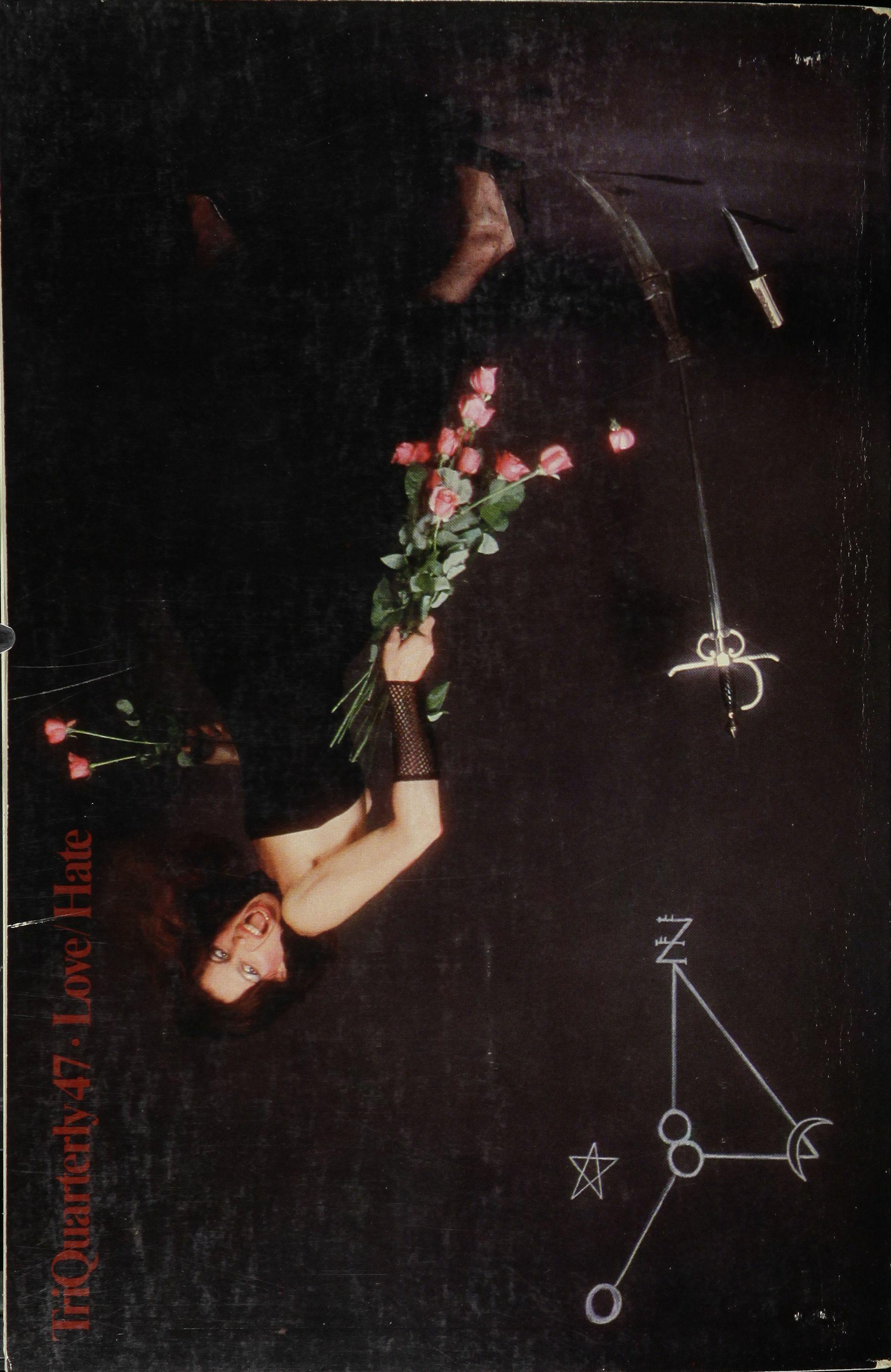






Editors:
Elliott Anderson, Robert Onopa
Executive Editor:
Jonathan Brent
Art Director:
Cynthia Anderson
Managing Editor:
Michael McDonnell
Associate Editor: Anne-Marie Zwierzyna
Assistant Editors:
Lisa Johnson, Kay Kersch Kirkpatrick, Mary Elinore Smith
Advisory Editors: Lawrence Levy, Charles Newman
Fulfillment: Judy Marrs
Contributing
Editors:
Robert Alter, Michael Anania, Gerald Graff, John Hawkes, David Hayman, Bill Henderson, Ian MacMillan, Joseph McElroy, Peter Michelson, Robert Ray, Tony Tanner, Nathaniel Tarn
TriQuarterly is an international journal of art and writing published in the fall, winter, and spring at Northwestern University, Evanston, Illinois 60201.
Subscription rates: One year $12.00; two years $20.00; three years $30.00. Foreign subscriptions $1.00 per year additional. Single copies usually $5.95. Back issue prices on request. Contributions, correspondence, and subscriptions should be addressed to TriQuarterly, 1735 Benson Avenue, Northwestern University, Evanston, Illinois 60201. The editors invite submissions, but queries are strongly suggested. No manuscripts will be returned unless accompanied by a stamped, self-addressed envelope. All manuscripts accepted for publication become the property of TriQuarterly, unless otherwise indicated. Copyright © 1980 by TriQuarterly. All rights reserved. The views expressed in this magazine are to be attributed to the writers, not the editors or sponsors. Printed in the United States of America. Claims for missing numbers will be honored only within the four-month period after month of issue.
NATIONAL DISTRIBUTOR TO RETAIL TRADE: B. DEBOER, 188 HIGH STREET, NUTLEY, NEW JERSEY 07110. DlSTRJBUTOR FOR WEST COAST TRADE: BOOK PEOPLE, 2940 7TH STREET, BERKELEY, CALIFORNIA 94710. MIDWEST: BooKSLINGER, P.O. BOX 16251, 2163 FORD PKWY, ST. PAUL, MINNESOTA 55116.
REPRJNTS OF BACK ISSUES OF TriQuarterly ARE NOW AVAILABLE IN FULL FORMAT FROM KRAUS REPRINT COMPANY, ROUTE 100, MILLWOOD, NEW YORK 10546, AND IN MICROFILM FROM UMI, A XEROX COMPANY, ANN ARBOR, MICHIGAN 48106.
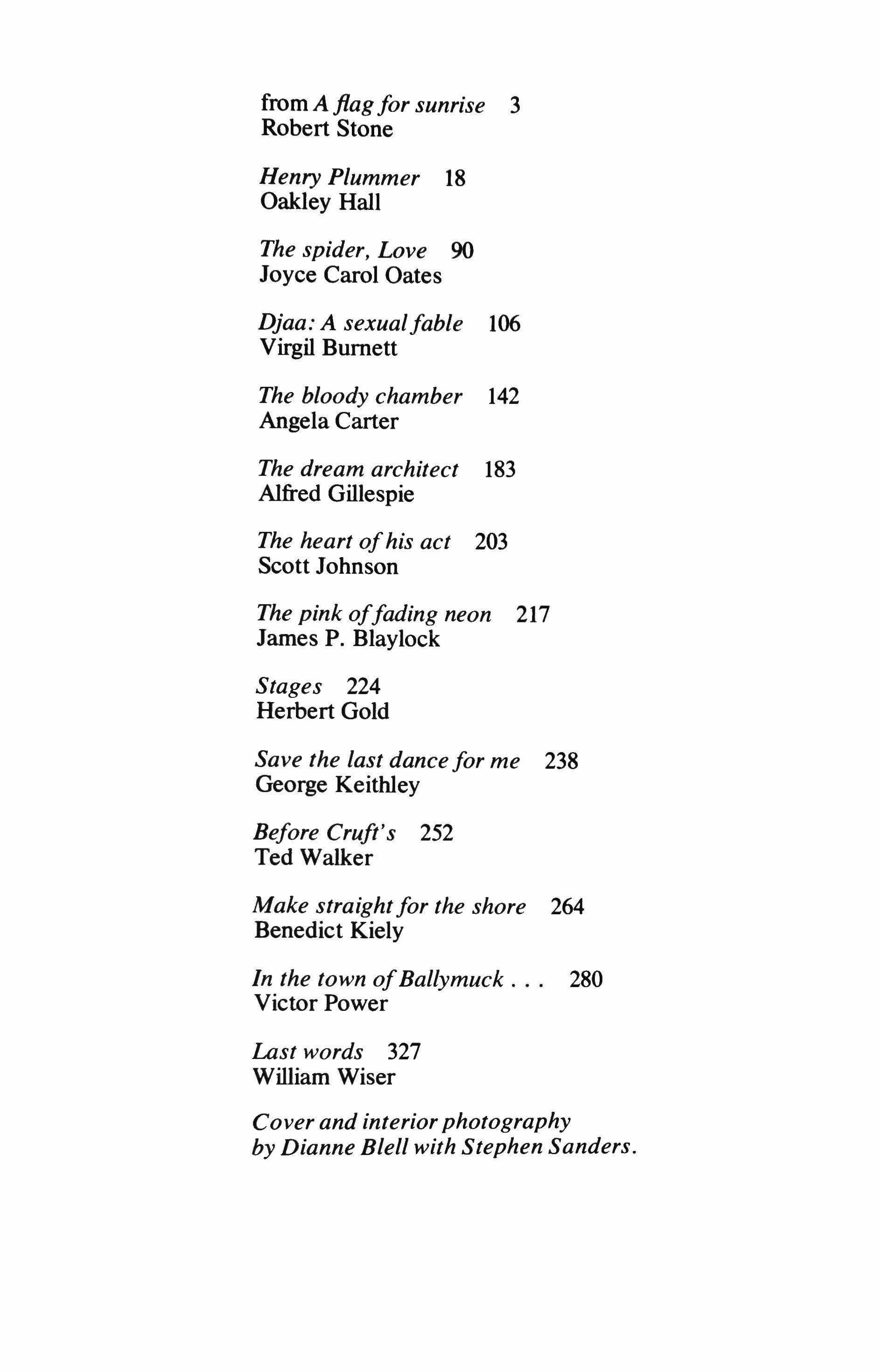
from A flagfor sunrise 3
Robert Stone
Henry Plummer 18
Oakley Hall
The spider, Love 90
Joyce Carol Oates
Djaa: A sexualfable 106
Virgil Burnett
The bloody chamber 142 Angela Carter
The dream architect 183
Alfred Gillespie
The heart ofhis act 203 Scott Johnson
The pink offading neon 217
James P. Blaylock
Stages 224
Herbert Gold
Save the last dance for me 238 George Keithley
Before Cruft's 252
Ted Walker
Make straightfor the shore 264 Benedict Kiely
In the town ofBallymuck 280
Victor Power
Last words 327
William Wiser
Cover and interiorphotography by Dianne Bleil with Stephen Sanders.
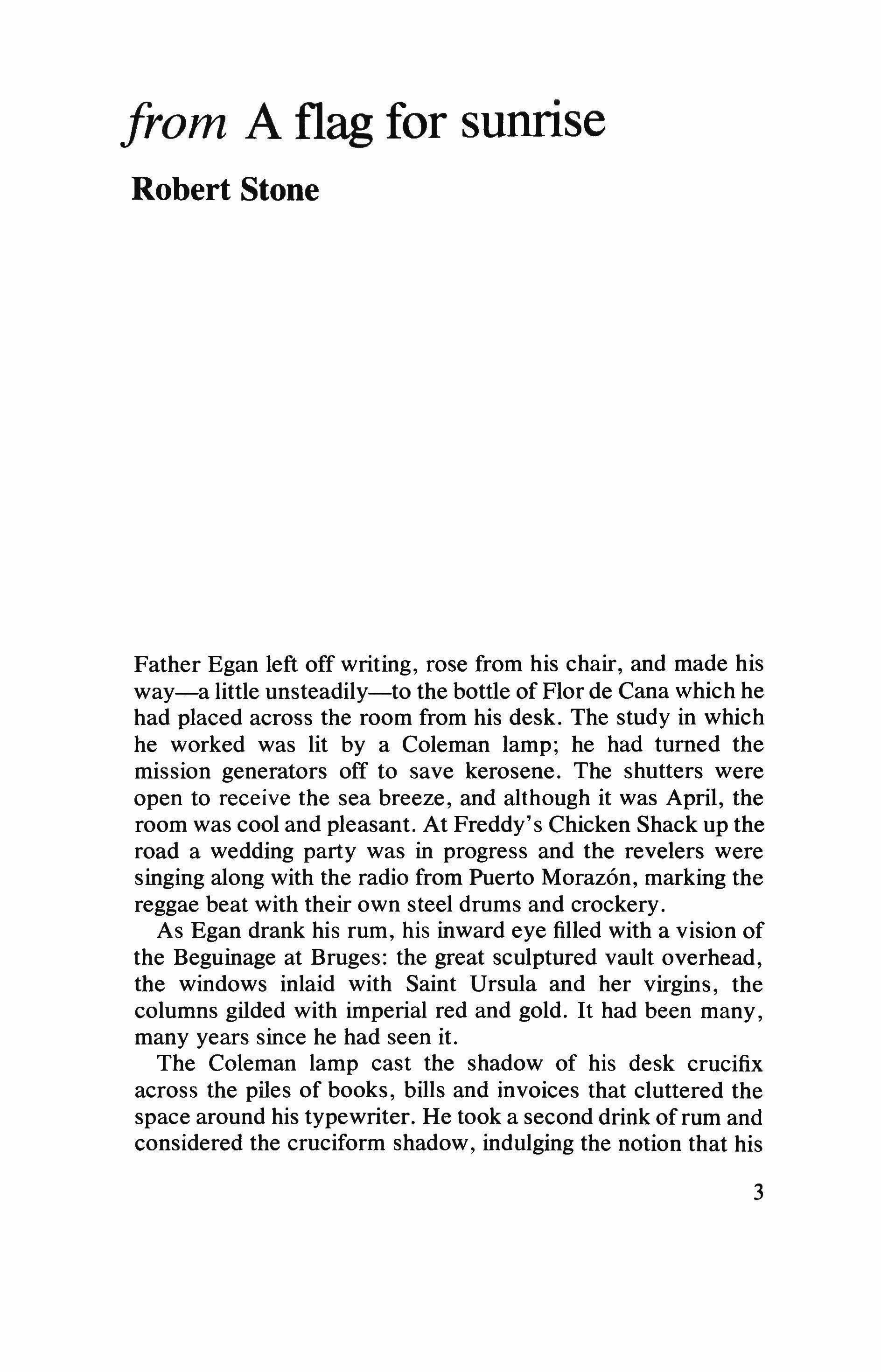
Father Egan left off writing, rose from his chair, and made his way-a little unsteadily-to the bottle of Flor de Cana which he had placed across the room from his desk. The study in which he worked was lit by a Coleman lamp; he had turned the mission generators off to save kerosene. The shutters were open to receive the sea breeze, and although it was April, the room was cool and pleasant. At Freddy's Chicken Shack up the road a wedding party was in progress and the revelers were singing along with the radio from Puerto Morazon, marking the reggae beat with their own steel drums and crockery.
As Egan drank his rum, his inward eye filled with a vision of the Beguinage at Bruges: the great sculptured vault overhead, the windows inlaid with Saint Ursula and her virgins, the columns gilded with imperial red and gold. It had been many, many years since he had seen it.
The Coleman lamp cast the shadow of his desk crucifix across the piles of books, bills and invoices that cluttered the space around his typewriter. He took a second drink of rum and considered the cruciform shadow, indulging the notion that his
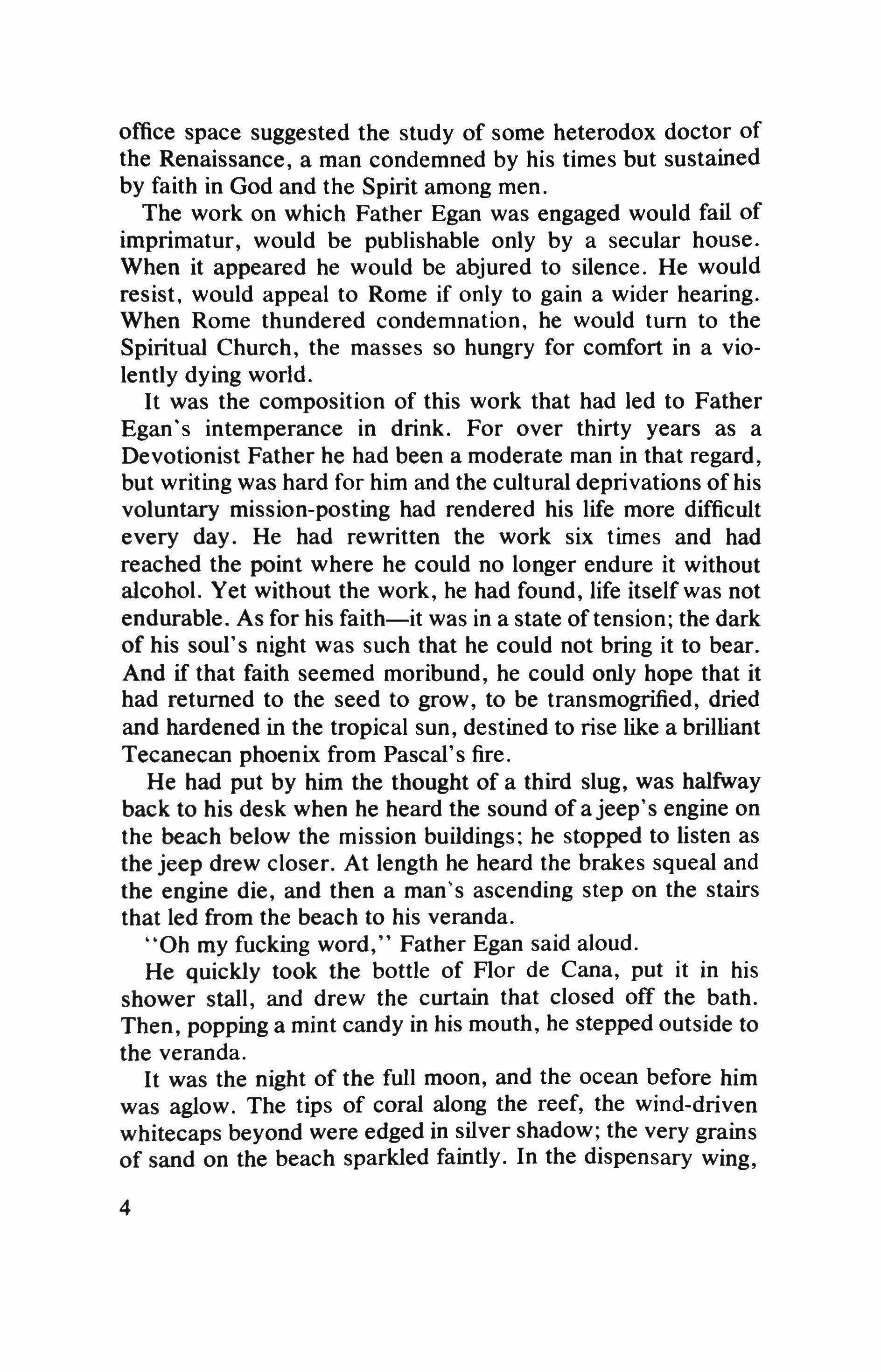
office space suggested the study of some heterodox doctor of the Renaissance, a man condemned by his times but sustained by faith in God and the Spirit among men.
The work on which Father Egan was engaged would fail of imprimatur, would be publishable only by a secular house. When it appeared he would be abjured to silence. He would resist, would appeal to Rome if only to gain a wider hearing. When Rome thundered condemnation, he would tum to the Spiritual Church, the masses so hungry for comfort in a violently dying world.
It was the composition of this work that had led to Father Egan's intemperance in drink. For over thirty years as a Devotionist Father he had been a moderate man in that regard, but writing was hard for him and the cultural deprivations of his voluntary mission-posting had rendered his life more difficult every day. He had rewritten the work six times and had reached the point where he could no longer endure it without alcohol. Yet without the work, he had found, life itself was not endurable. As for his faith-it was in a state oftension; the dark of his soul's night was such that he could not bring it to bear. And if that faith seemed moribund, he could only hope that it had returned to the seed to grow, to be transmogrified, dried and hardened in the tropical sun, destined to rise like a brilliant Tecanecan phoenix from Pascal's fire.
He had put by him the thought of a third slug, was halfway back to his desk when he heard the sound of a jeep's engine on the beach below the mission buildings; he stopped to listen as the jeep drew closer. At length he heard the brakes squeal and the engine die, and then a man's ascending step on the stairs that led from the beach to his veranda.
"Oh my fucking word," Father Egan said aloud.
He quickly took the bottle of Flor de Cana, put it in his shower stall, and drew the curtain that closed off the bath. Then, popping a mint candy in his mouth, he stepped outside to the veranda.
H was the night of the full moon, and the ocean before him was aglow. The tips of coral along the reef, the wind-driven whitecaps beyond were edged in silver shadow; the very grains of sand on the beach sparkled faintly. In the dispensary wing,
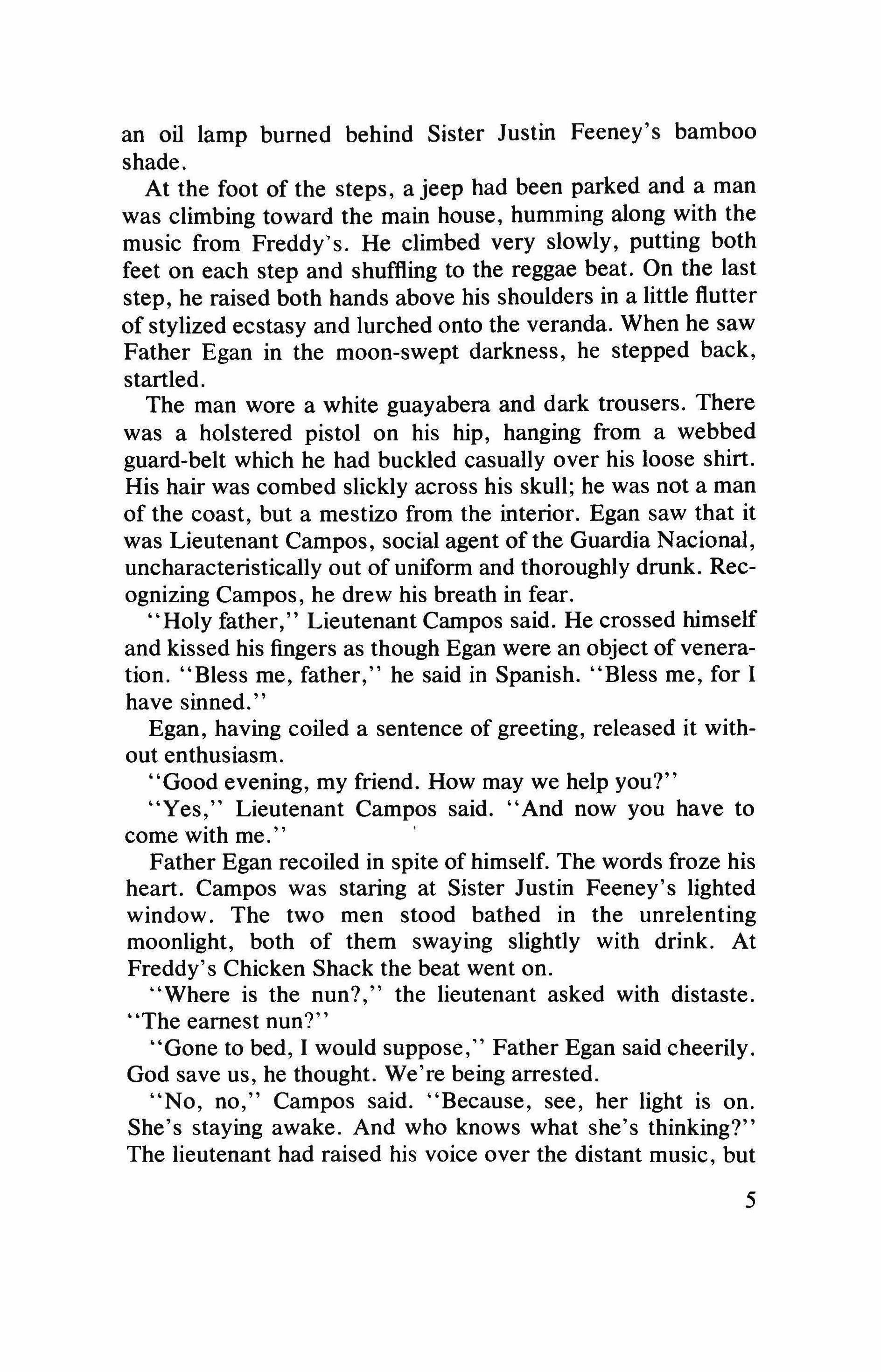
an oil lamp burned behind Sister Justin Feeney's bamboo shade.
At the foot of the steps, a jeep had been parked and a man was climbing toward the main house, humming along with the music from Freddy's. He climbed very slowly, putting both feet on each step and shuffling to the reggae beat. On the last step, he raised both hands above his shoulders in a little flutter of stylized ecstasy and lurched onto the veranda. When he saw Father Egan in the moon-swept darkness, he stepped back, startled.
The man wore a white guayabera and dark trousers. There was a holstered pistol on his hip, hanging from a webbed guard-belt which he had buckled casually over his loose shirt. His hair was combed slickly across his skull; he was not a man of the coast, but a mestizo from the interior. Egan saw that it was Lieutenant Campos, social agent of the Guardia Nacional, uncharacteristically out of uniform and thoroughly drunk. Recognizing Campos, he drew his breath in fear.
"Holy father," Lieutenant Campos said. He crossed himself and kissed his fingers as though Egan were an object of veneration. "Bless me, father," he said in Spanish. "Bless me, for I have sinned."
Egan, having coiled a sentence of greeting, released it without enthusiasm.
"Good evening, my friend. How may we help you?"
"Yes," Lieutenant Campos said. "And now you have to come with me."
Father Egan recoiled in spite of himself. The words froze his heart. Campos was staring at Sister Justin Feeney's lighted window. The two men stood bathed in the unrelenting moonlight, both of them swaying slightly with drink. At Freddy's Chicken Shack the beat went on.
"Where is the nun?," the lieutenant asked with distaste. "The earnest nun?"
"Gone to bed, I would suppose," Father Egan said cheerily. God save us, he thought. We're being arrested.
"No, no," Campos said. "Because, see, her light is on. She's staying awake. And who knows what she's thinking?"
The lieutenant had raised his voice over the distant music, but 5
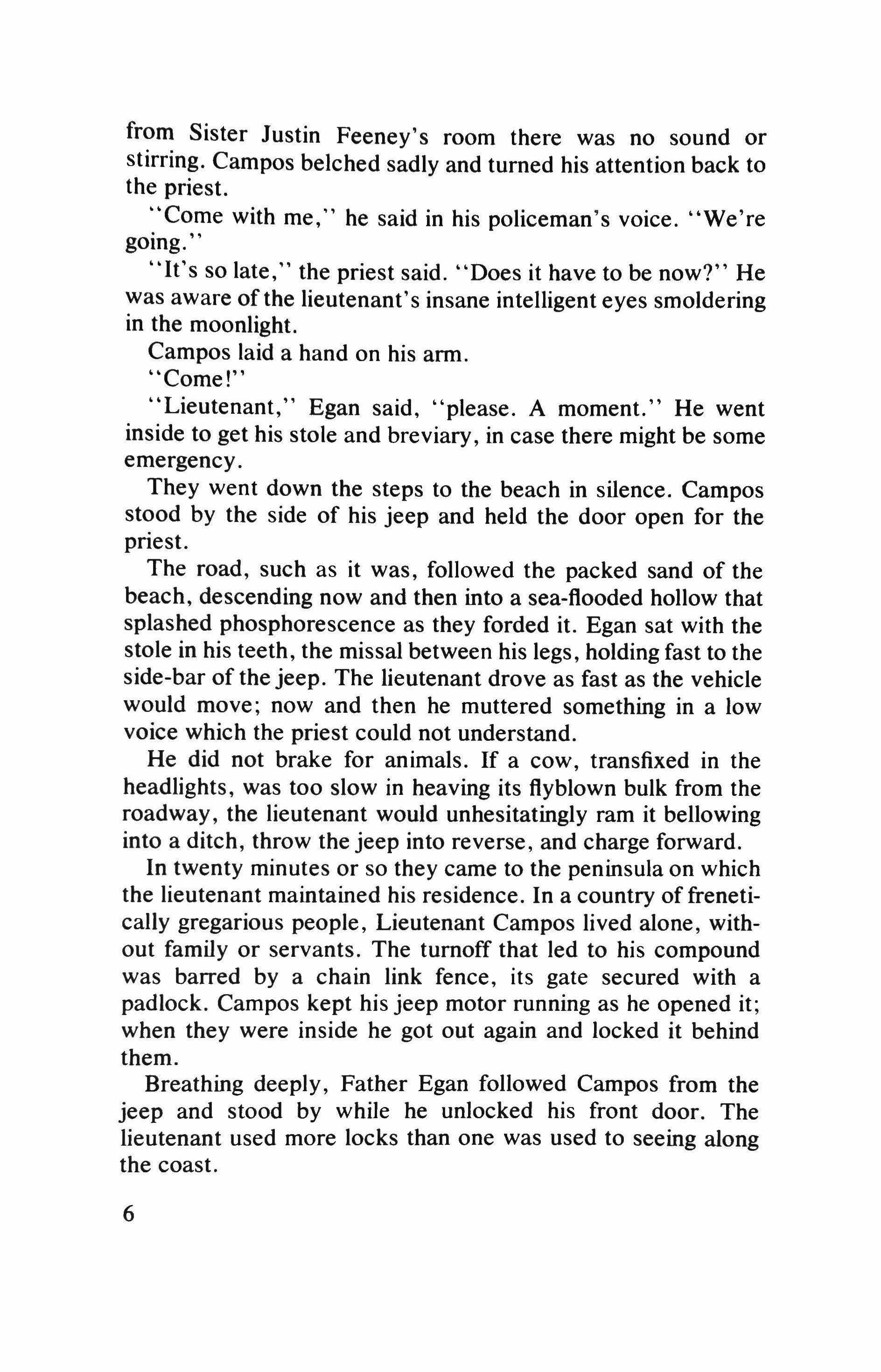
from Sister Justin Feeney's room there was no sound or stirring. Campos belched sadly and turned his attention back to the priest.
"Come with me," he said in his policeman's voice. "We're going."
"It's so late," the priest said. "Does it have to be now?" He was aware of the lieutenant's insane intelligent eyes smoldering in the moonlight.
Campos laid a hand on his arm.
"Come!"
"Lieutenant," Egan said, "please. A moment." He went inside to get his stole and breviary, in case there might be some emergency.
They went down the steps to the beach in silence. Campos stood by the side of his jeep and held the door open for the priest.
The road, such as it was, followed the packed sand of the beach, descending now and then into a sea-flooded hollow that splashed phosphorescence as they forded it. Egan sat with the stole in his teeth, the missal between his legs, holding fast to the side-bar of the jeep. The lieutenant drove as fast as the vehicle would move; now and then he muttered something in a low voice which the priest could not understand.
He did not brake for animals. If a cow, transfixed in the headlights, was too slow in heaving its flyblown bulk from the roadway, the lieutenant would unhesitatingly ram it bellowing into a ditch, throw the jeep into reverse, and charge forward.
In twenty minutes or so they came to the peninsula on which the lieutenant maintained his residence. In a country of frenetically gregarious people, Lieutenant Campos lived alone, without family or servants. The turnoff that led to his compound was barred by a chain link fence, its gate secured with a padlock. Campos kept his jeep motor running as he opened it; when they were inside he got out again and locked it behind them.
Breathing deeply, Father Egan followed Campos from the jeep and stood by while he unlocked his front door. The lieutenant used more locks than one was used to seeing along the coast.
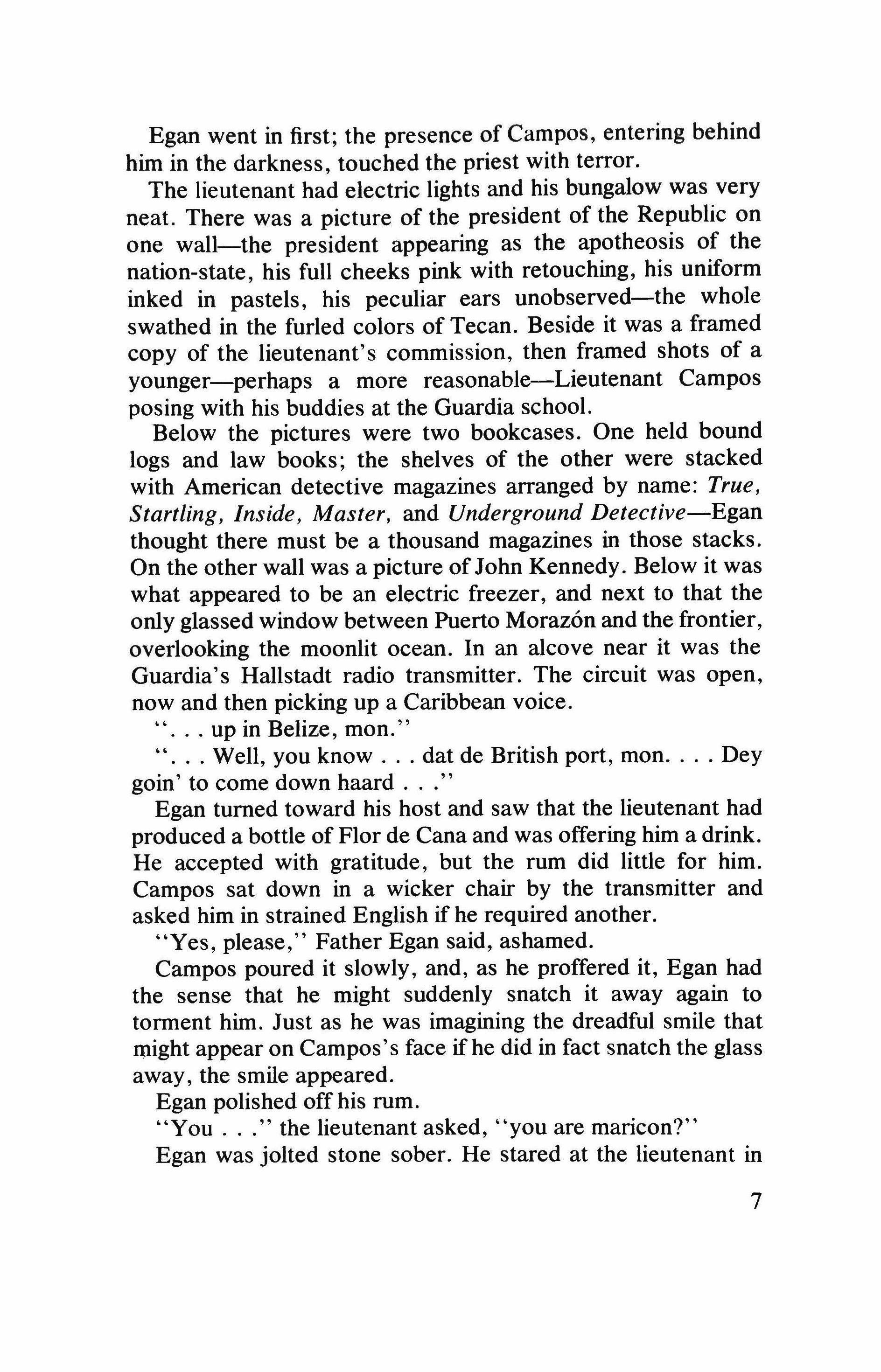
Egan went in first; the presence of Campos, entering behind him in the darkness, touched the priest with terror.
The lieutenant had electric lights and his bungalow was very neat. There was a picture of the president of the Republic on one wall-the president appearing as the apotheosis of the nation-state, his full cheeks pink with retouching, his uniform inked in pastels, his peculiar ears unobserved-the whole swathed in the furled colors of Tecan. Beside it was a framed copy of the lieutenant's commission, then framed shots of a younger-perhaps a more reasonable-Lieutenant Campos posing with his buddies at the Guardia school.
Below the pictures were two bookcases. One held bound logs and law books; the shelves of the other were stacked with American detective magazines arranged by name: True, Startling, Inside, Master, and Underground Detective-Egan thought there must be a thousand magazines in those stacks. On the other wall was a picture of John Kennedy. Below it was what appeared to be an electric freezer, and next to that the only glassed window between Puerto Morazon and the frontier, overlooking the moonlit ocean. In an alcove near it was the Guardia's Hallstadt radio transmitter. The circuit was open, now and then picking up a Caribbean voice. up in Belize, mon."
Well, you know dat de British port, mono Dey goin' to come down haard ."
Egan turned toward his host and saw that the lieutenant had produced a bottle of Flor de Cana and was offering him a drink. He accepted with gratitude, but the rum did little for him. Campos sat down in a wicker chair by the transmitter and asked him in strained English if he required another.
"Yes, please," Father Egan said, ashamed.
Campos poured it slowly, and, as he proffered it, Egan had the sense that he might suddenly snatch it away again to torment him. Just as he was imagining the dreadful smile that might appear on Campos's face if he did in fact snatch the glass away, the smile appeared.
Egan polished off his rum.
"You " the lieutenant asked, "you are maricon?"
Egan was jolted stone sober. He stared at the lieutenant in
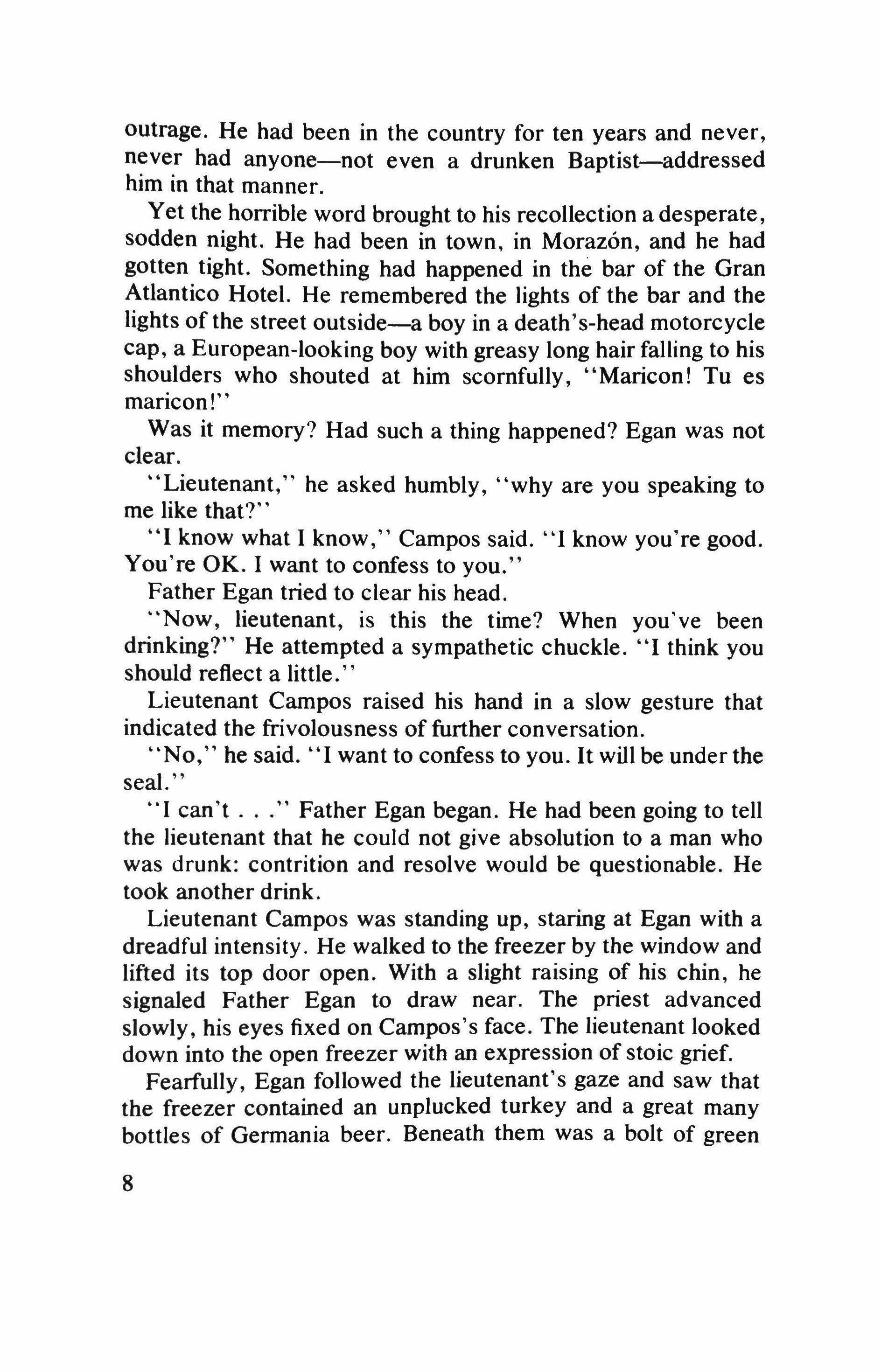
outrage. He had been in the country for ten years and never, never had anyone-not even a drunken Baptist-addressed him in that manner.
Yet the horrible word brought to his recollection a desperate, sodden night. He had been in town, in Morazon, and he had gotten tight. Something had happened in the bar of the Gran Atlantico Hotel. He remembered the lights of the bar and the lights of the street outside-a boy in a death's-head motorcycle cap, a European-looking boy with greasy long hair falling to his shoulders who shouted at him scornfully, "Maricon! Tu es maricon!"
Was it memory? Had such a thing happened? Egan was not clear.
"Lieutenant," he asked humbly, "why are you speaking to me like that?"
"I know what I know," Campos said. "I know you're good. You're OK. I want to confess to you."
Father Egan tried to clear his head.
"Now, lieutenant, is this the time? When you've been drinking?" He attempted a sympathetic chuckle. "I think you should reflect a little."
Lieutenant Campos raised his hand in a slow gesture that indicated the frivolousness of further conversation.
"No," he said. "I want to confess to you. It will be under the seal.
I can't Father Egan began. He had been going to tell the lieutenant that he could not give absolution to a man who was drunk: contrition and resolve would be questionable. He took another drink.
Lieutenant Campos was standing up, staring at Egan with a dreadful intensity. He walked to the freezer by the window and lifted its top door open. With a slight raising of his chin, he signaled Father Egan to draw near. The priest advanced slowly, his eyes fixed on Campos's face. The lieutenant looked down into the open freezer with an expression of stoic grief.
Fearfully, Egan followed the lieutenant's gaze and saw that the freezer contained an unplucked turkey and a great many bottles of Germania beer. Beneath them was a bolt of green
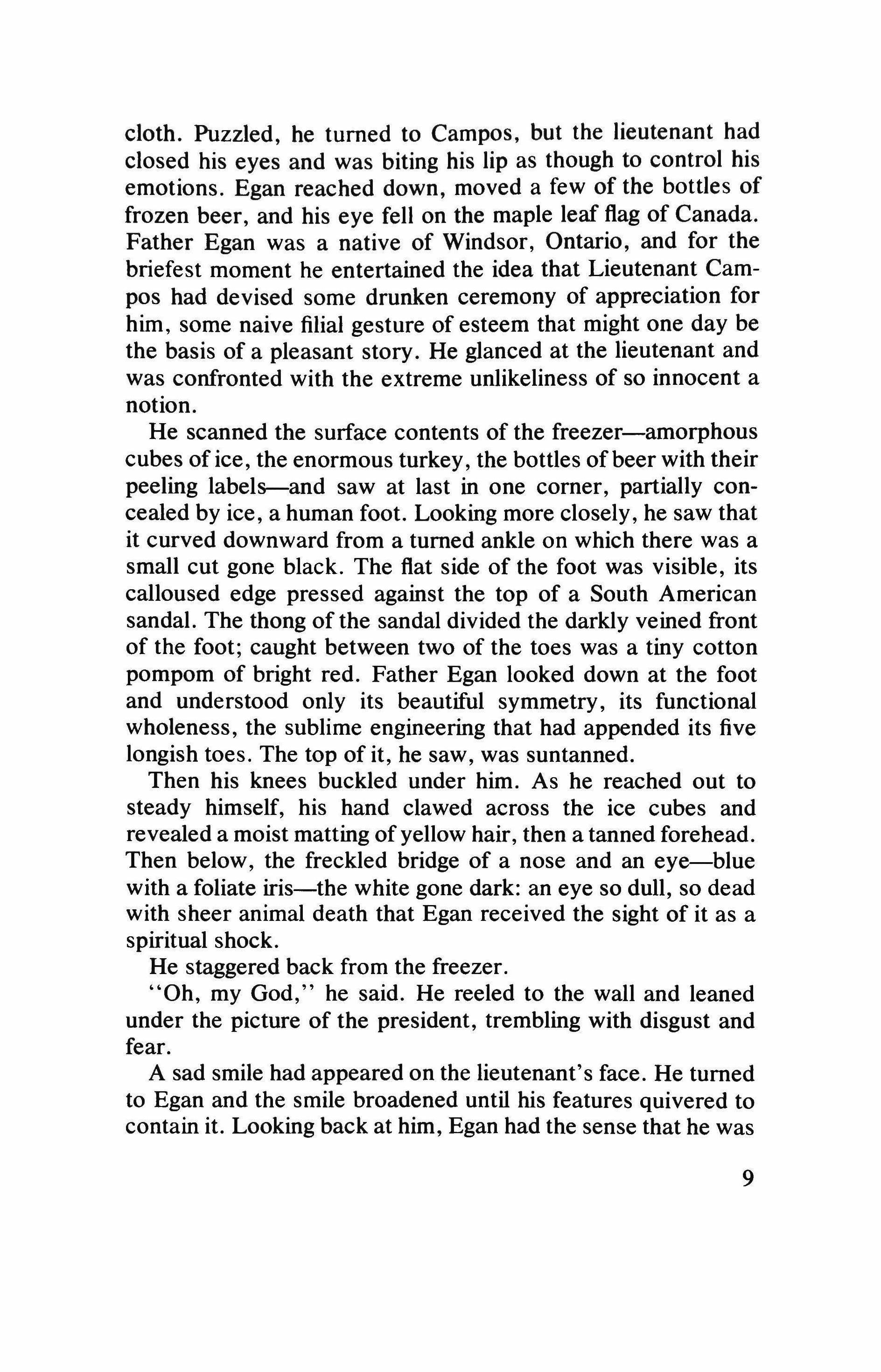
cloth. Puzzled, he turned to Campos, but the lieutenant had closed his eyes and was biting his lip as though to control his emotions. Egan reached down, moved a few of the bottles of frozen beer, and his eye fell on the maple leaf flag of Canada. Father Egan was a native of Windsor, Ontario, and for the briefest moment he entertained the idea that Lieutenant Campos had devised some drunken ceremony of appreciation for him, some naive filial gesture of esteem that might one day be the basis of a pleasant story. He glanced at the lieutenant and was confronted with the extreme unlikeliness of so innocent a notion.
He scanned the surface contents of the freezer-amorphous cubes of ice, the enormous turkey, the bottles ofbeer with their peeling labels-and saw at last in one corner, partially concealed by ice, a human foot. Looking more closely, he saw that it curved downward from a turned ankle on which there was a small cut gone black. The flat side of the foot was visible, its calloused edge pressed against the top of a South American sandal. The thong of the sandal divided the darkly veined front of the foot; caught between two of the toes was a tiny cotton pompom of bright red. Father Egan looked down at the foot and understood only its beautiful symmetry, its functional wholeness, the sublime engineering that had appended its five longish toes. The top of it, he saw, was suntanned.
Then his knees buckled under him. As he reached out to steady himself, his hand clawed across the ice cubes and revealed a moist matting of yellow hair, then a tanned forehead. Then below, the freckled bridge of a nose and an eye-blue with a foliate iris-the white gone dark: an eye so dull, so dead with sheer animal death that Egan received the sight of it as a spiritual shock.
He staggered back from the freezer.
"Oh, my God," he said. He reeled to the wall and leaned under the picture of the president, trembling with disgust and fear.
A sad smile had appeared on the lieutenant's face. He turned to Egan and the smile broadened until his features quivered to contain it. Looking back at him, Egan had the sense that he was
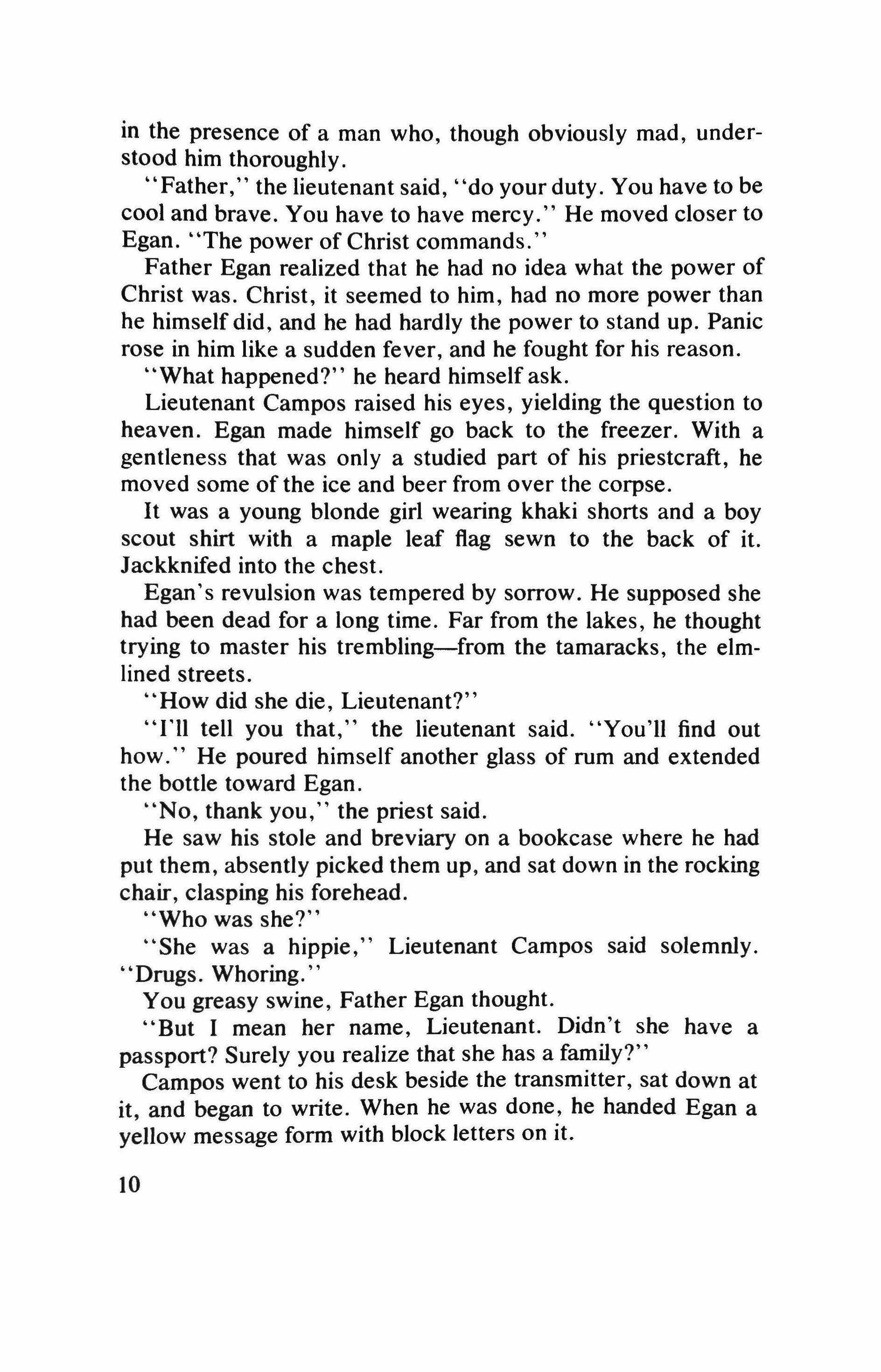
in the presence of a man who, though obviously mad, understood him thoroughly.
"Father," the lieutenant said, "do your duty. You have to be cool and brave. You have to have mercy." He moved closer to Egan. "The power of Christ commands."
Father Egan realized that he had no idea what the power of Christ was. Christ, it seemed to him, had no more power than he himself did, and he had hardly the power to stand up. Panic rose in him like a sudden fever, and he fought for his reason.
"What happened?" he heard himself ask.
Lieutenant Campos raised his eyes, yielding the question to heaven. Egan made himself go back to the freezer. With a gentleness that was only a studied part of his priestcraft, he moved some of the ice and beer from over the corpse.
It was a young blonde girl wearing khaki shorts and a boy scout shirt with a maple leaf flag sewn to the back of it. Jackknifed into the chest.
Egan's revulsion was tempered by sorrow. He supposed she had been dead for a long time. Far from the lakes, he thought trying to master his trembling-from the tamaracks, the elmlined streets.
"How did she die, Lieutenant?"
"J'Il tell you that," the lieutenant said. "You'll find out how. He poured himself another glass of rum and extended the bottle toward Egan.
"No, thank you," the priest said.
He saw his stole and breviary on a bookcase where he had put them, absently picked them up, and sat down in the rocking chair, clasping his forehead.
"Who was she?"
"She was a hippie," Lieutenant Campos said solemnly. "Drugs. Whoring."
You greasy swine, Father Egan thought.
"But I mean her name, Lieutenant. Didn't she have a passport? Surely you realize that she has a family?"
Campos went to his desk beside the transmitter, sat down at it, and began to write. When he was done, he handed Egan a yellow message form with block letters on it.
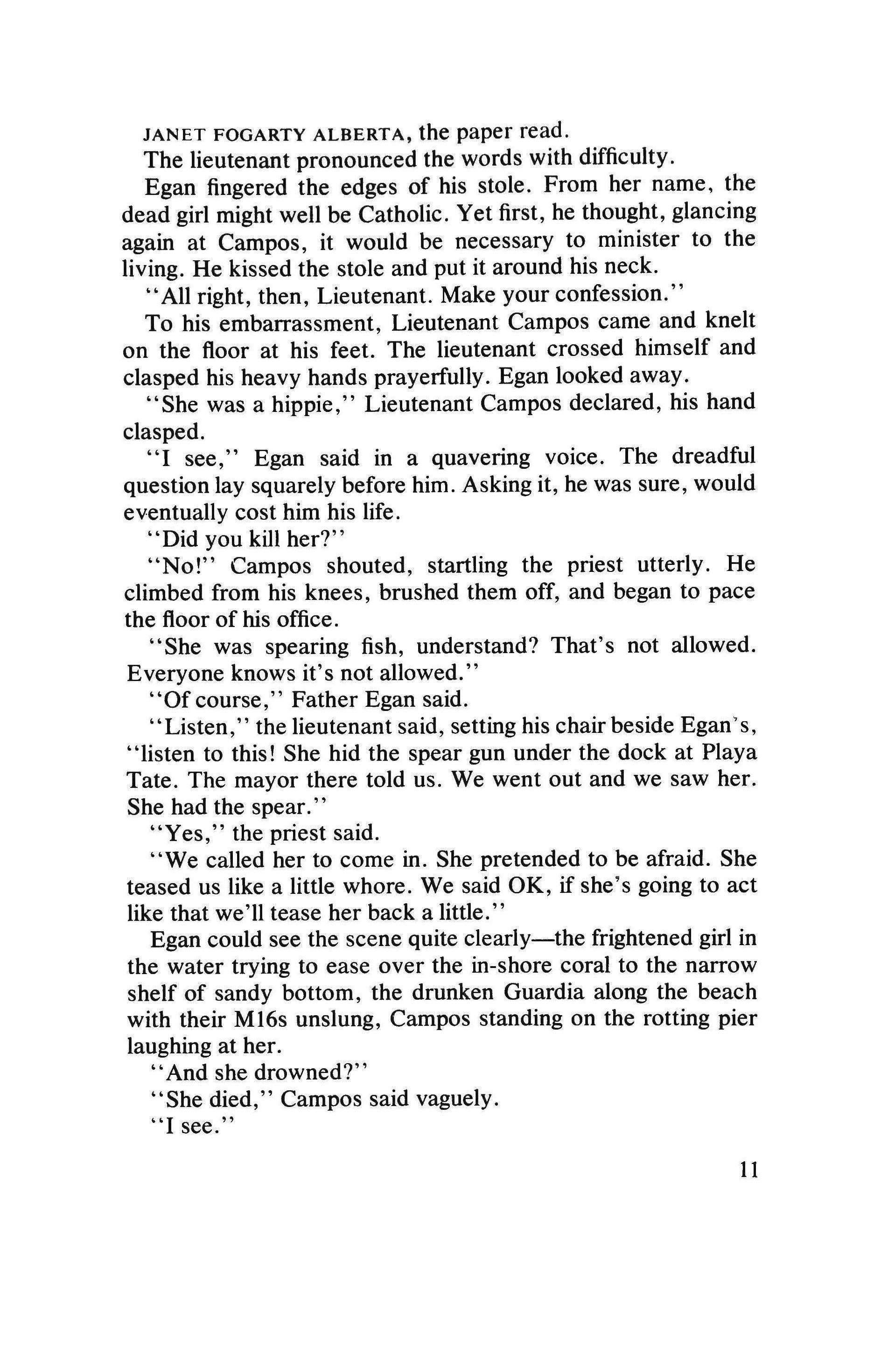
JANET FOGARTY ALBERTA, the paper read.
The lieutenant pronounced the words with difficulty.
Egan fingered the edges of his stole. From her name, the dead girl might well be Catholic. Yet first, he thought, glancing again at Campos, it would be necessary to minister to the living. He kissed the stole and put it around his neck.
"All right, then, Lieutenant. Make your confession."
To his embarrassment, Lieutenant Campos came and knelt on the floor at his feet. The lieutenant crossed himself and clasped his heavy hands prayerfully. Egan looked away.
"She was a hippie," Lieutenant Campos declared, his hand clasped.
"I see," Egan said in a quavering voice. The dreadful question lay squarely before him. Asking it, he was sure, would eventually cost him his life.
"Did you kill her?"
"No!" Campos shouted, startling the priest utterly. He climbed from his knees, brushed them off, and began to pace the floor of his office.
"She was spearing fish, understand? That's not allowed. Everyone knows it's not allowed.
"Of course," Father Egan said.
"Listen," the lieutenant said, setting his chair beside Egan's, "listen to this! She hid the spear gun under the dock at Playa Tate. The mayor there told us. We went out and we saw her. She had the spear."
"Yes," the priest said.
"We called her to come in. She pretended to be afraid. She teased us like a little whore. We said OK, if she's going to act like that we'll tease her back a little."
Egan could see the scene quite clearly-the frightened girl in the water trying to ease over the in-shore coral to the narrow shelf of sandy bottom, the drunken Guardia along the beach with their M16s unslung, Campos standing on the rotting pier laughing at her.
"And she drowned?"
"She died," Campos said vaguely.
"I see."

"So I took command," the lieutenant said. "It was my responsibility. I dismissed them. You see-I dressed her. These little clothes, they're all she ever wore. I preserved her for ceremony.
"What ceremony?" No ceremony else, he thought. Her manner of death was doubtful.
Campos only laughed quietly, tears coming to his eyes.
"How long ago was this?" Egan asked, feeling that he had wasted a question.
"The winter.
"It was certainly wrong of you," Egan said, "to keep her here like this. Her family had no knowledge of her, so think how they must feel. As a policeman. and especially as a social agent, you should reflect on the violation of yourresponsibilities involved."
He looked into the warning that was composing itself in Campos's eyes.
"Don't believe," the lieutenant said, "it was easy for me to have her here. It was hard. Listen-it was very hard to have her in there all the time."
Egan found himself listening to the steady hum of Campos's generator.
"Why did you keep her, then?" He felt that it was important to put the question correctly, reluctant though he was to impute to Lieutenant Campos any further suggestion of weakness or dereliction. "Was it loneliness?"
The delicacy of the priest was lost on Campos. His features went cold.
"What do you know about it?"
Egan only nodded.
"When I ask you a question, Father, I require you to answer it. What do you know about it?"
While Father Egan was reflecting on what he knew about loneliness, he saw Campos stagger toward him.
You-you maricon, you know nothing about it. You maricon! How can you question me?"
"You've asked me to hear your confession," Egan said mildly. "It is necessary that I ask questions."
"Confession is right," Campos said. "It's under the seal,
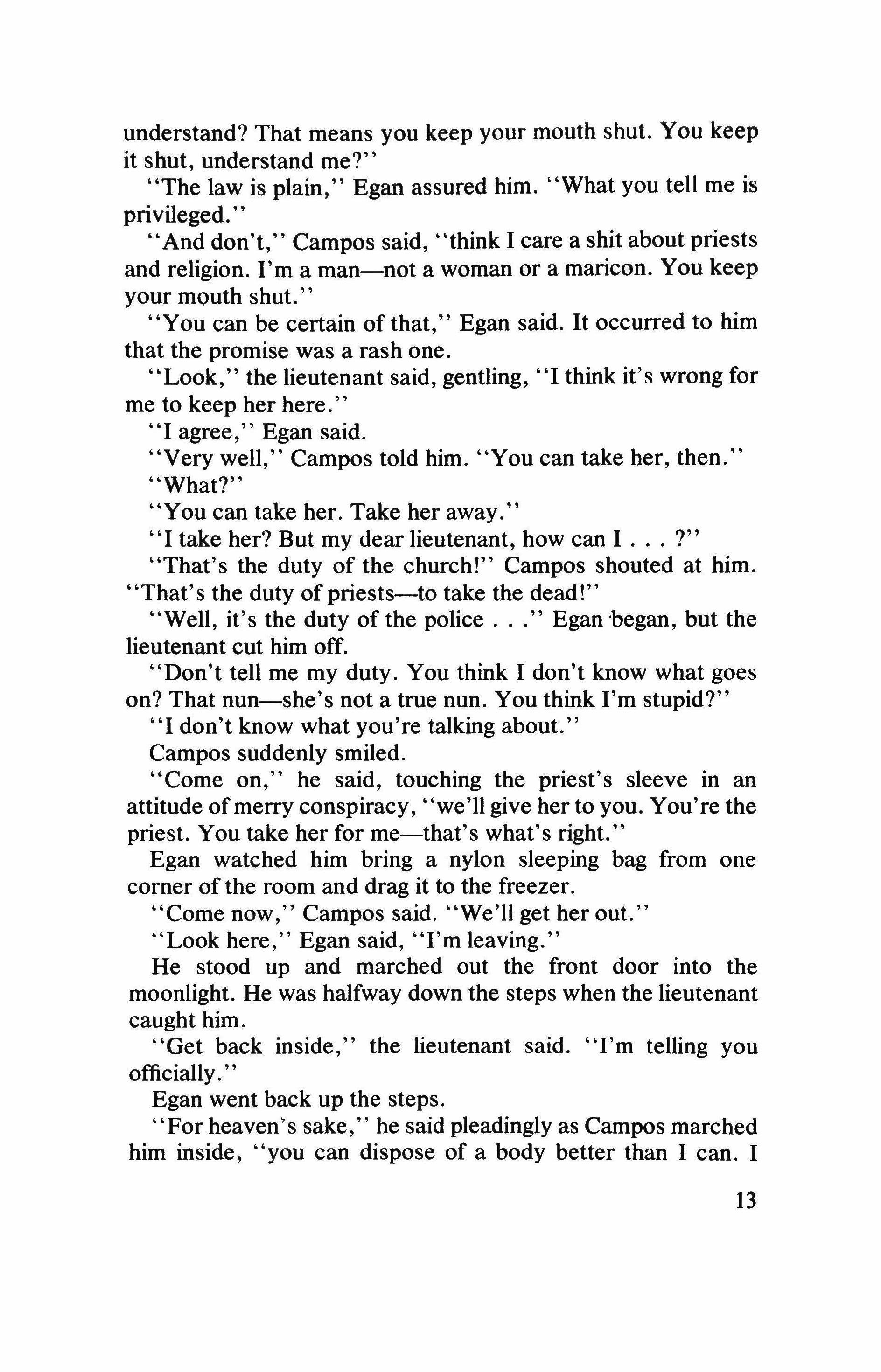
understand? That means you keep your mouth shut. You keep it shut, understand me?"
"The law is plain," Egan assured him. "What you tell me is privileged.
"And don't," Campos said, "think I care a shit about priests and religion. I'm a man-not a woman or a maricon. You keep your mouth shut."
"You can be certain of that," Egan said. It occurred to him that the promise was a rash one.
"Look," the lieutenant said, gentling, "I think it's wrong for me to keep her here.
"I agree," Egan said.
"Very well," Campos told him. "You can take her, then."
"What?"
"You can take her. Take her away."
"I take her? But my dear lieutenant, how can I ?"
"That's the duty of the church!" Campos shouted at him. "That's the duty of priests-to take the dead!"
"Well, it's the duty of the police Egan 'began, but the lieutenant cut him off.
"Don't tell me my duty. You think I don't know what goes on? That nun-she's not a true nun. You think I'm stupid?"
"I don't know what you're talking about."
Campos suddenly smiled.
"Come on," he said, touching the priest's sleeve in an attitude of merry conspiracy, "we'll give her to you. You're the priest. You take her for me-that's what's right."
Egan watched him bring a nylon sleeping bag from one comer of the room and drag it to the freezer.
"Come now," Campos said. "We'll get her out."
"Look here," Egan said, ''I'm leaving."
He stood up and marched out the front door into the moonlight. He was halfway down the steps when the lieutenant caught him.
"Get back inside," the lieutenant said. "I'm telling you officially.
Egan went back up the steps.
"For heaven's sake," he said pleadingly as Campos marched him inside, "you can dispose of a body better than I can. I 13
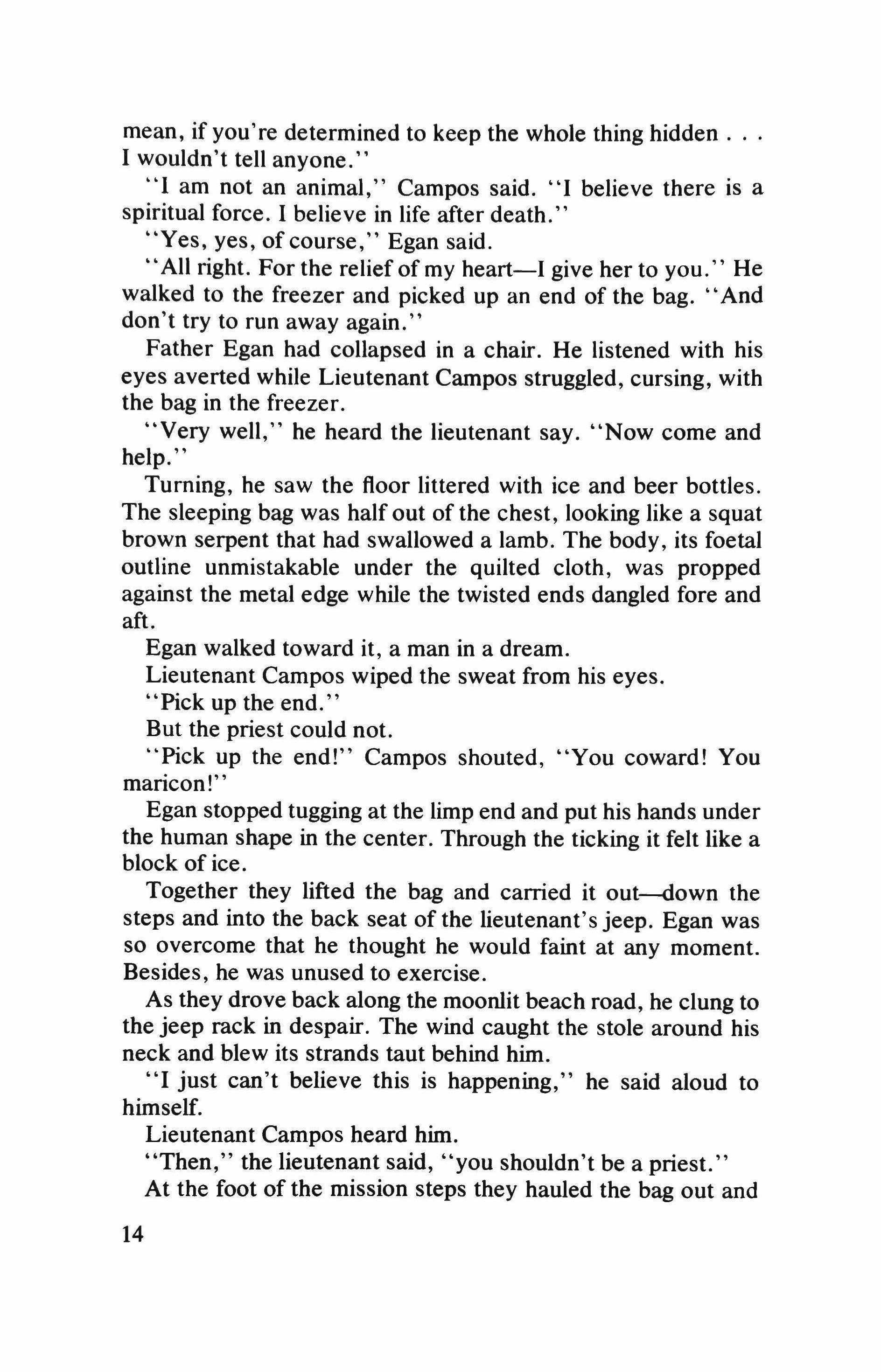
mean, if you're determined to keep the whole thing hidden I wouldn't tell anyone."
"I am not an animal," Campos said. "I believe there is a spiritual force. I believe in life after death."
"Yes, yes, of course," Egan said.
"All right. For the relief of my heart-I give her to you." He walked to the freezer and picked up an end of the bag. "And don't try to run away again."
Father Egan had collapsed in a chair. He listened with his eyes averted while Lieutenant Campos struggled, cursing, with the bag in the freezer.
"Very well," he heard the lieutenant say. "Now come and help."
Turning, he saw the floor littered with ice and beer bottles. The sleeping bag was half out of the chest, looking like a squat brown serpent that had swallowed a lamb. The body, its foetal outline unmistakable under the quilted cloth, was propped against the metal edge while the twisted ends dangled fore and aft.
Egan walked toward it, a man in a dream.
Lieutenant Campos wiped the sweat from his eyes.
"Pick up the end."
But the priest could not.
"Pick up the end!" Campos shouted, "You coward! You maricon!"
Egan stopped tugging at the limp end and put his hands under the human shape in the center. Through the ticking it felt like a block of ice.
Together they lifted the bag and carried it out-down the steps and into the back seat of the lieutenant's jeep. Egan was so overcome that he thought he would faint at any moment. Besides, he was unused to exercise.
As they drove back along the moonlit beach road, he clung to the jeep rack in despair. The wind caught the stole around his neck and blew its strands taut behind him.
"I just can't believe this is happening," he said aloud to himself.
Lieutenant Campos heard him.
"Then," the lieutenant said, "you shouldn't be a priest."
At the foot of the mission steps they hauled the bag out and
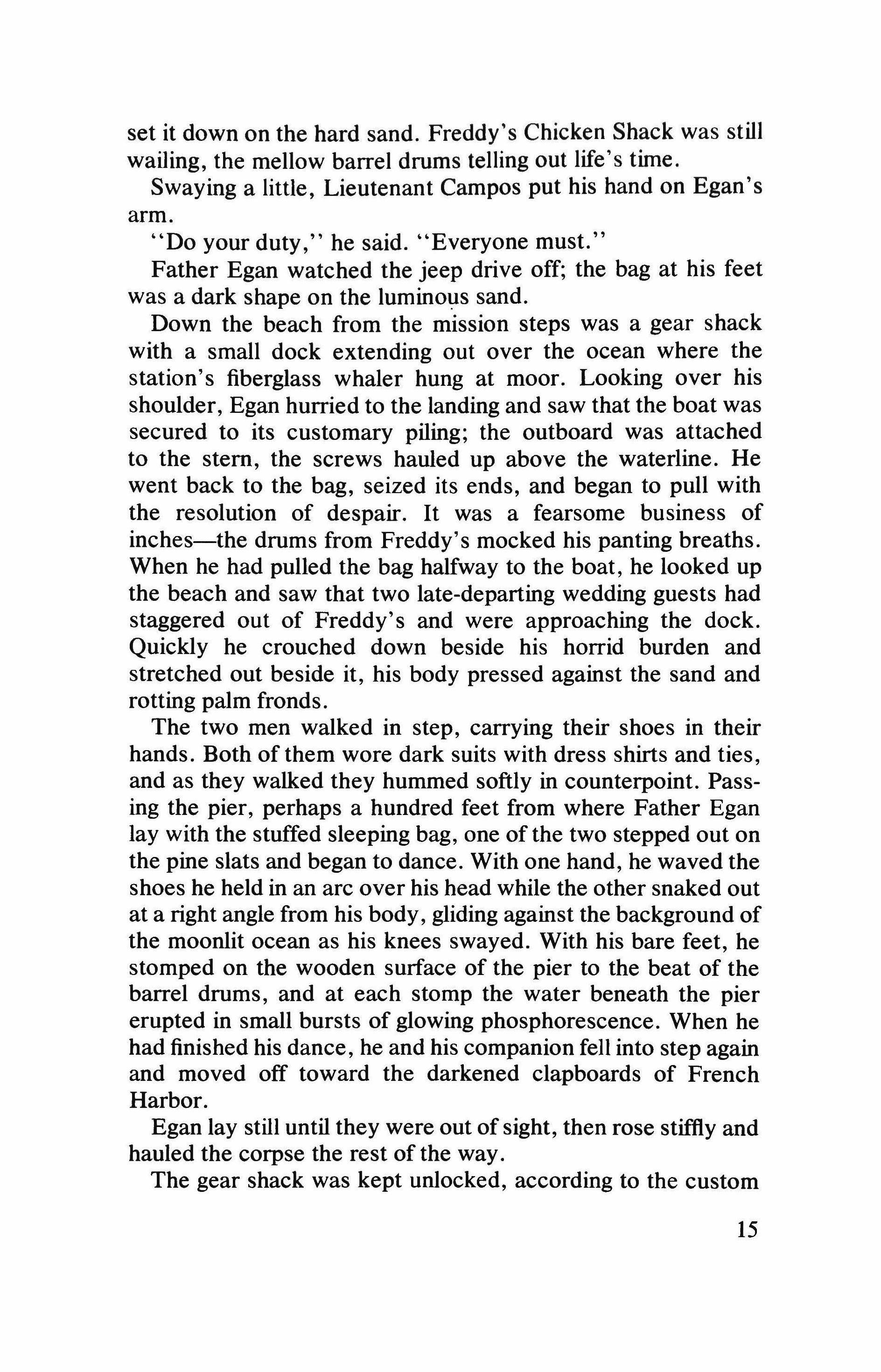
set it down on the hard sand. Freddy's Chicken Shack was still wailing, the mellow barrel drums telling out life's time.
Swaying a little, Lieutenant Campos put his hand on Egan's arm.
"Do your duty," he said. "Everyone must."
Father Egan watched the jeep drive off; the bag at his feet was a dark shape on the luminous sand.
Down the beach from the mission steps was a gear shack with a small dock extending out over the ocean where the station's fiberglass whaler hung at moor. Looking over his shoulder, Egan hurried to the landing and saw that the boat was secured to its customary piling; the outboard was attached to the stem, the screws hauled up above the waterline. He went back to the bag, seized its ends, and began to pull with the resolution of despair. It was a fearsome business of inches-the drums from Freddy's mocked his panting breaths. When he had pulled the bag halfway to the boat, he looked up the beach and saw that two late-departing wedding guests had staggered out of Freddy's and were approaching the dock. Quickly he crouched down beside his horrid burden and stretched out beside it, his body pressed against the sand and rotting palm fronds.
The two men walked in step, carrying their shoes in their hands. Both of them wore dark suits with dress shirts and ties, and as they walked they hummed softly in counterpoint. Passing the pier, perhaps a hundred feet from where Father Egan lay with the stuffed sleeping bag, one of the two stepped out on the pine slats and began to dance. With one hand, he waved the shoes he held in an arc over his head while the other snaked out at a right angle from his body, gliding against the background of the moonlit ocean as his knees swayed. With his bare feet, he stomped on the wooden surface of the pier to the beat of the barrel drums, and at each stomp the water beneath the pier erupted in small bursts of glowing phosphorescence. When he had finished his dance, he and his companion fell into step again and moved off toward the darkened clapboards of French Harbor.
Egan lay still until they were out of sight, then rose stiffly and hauled the corpse the rest of the way.
The gear shack was kept unlocked, according to the custom
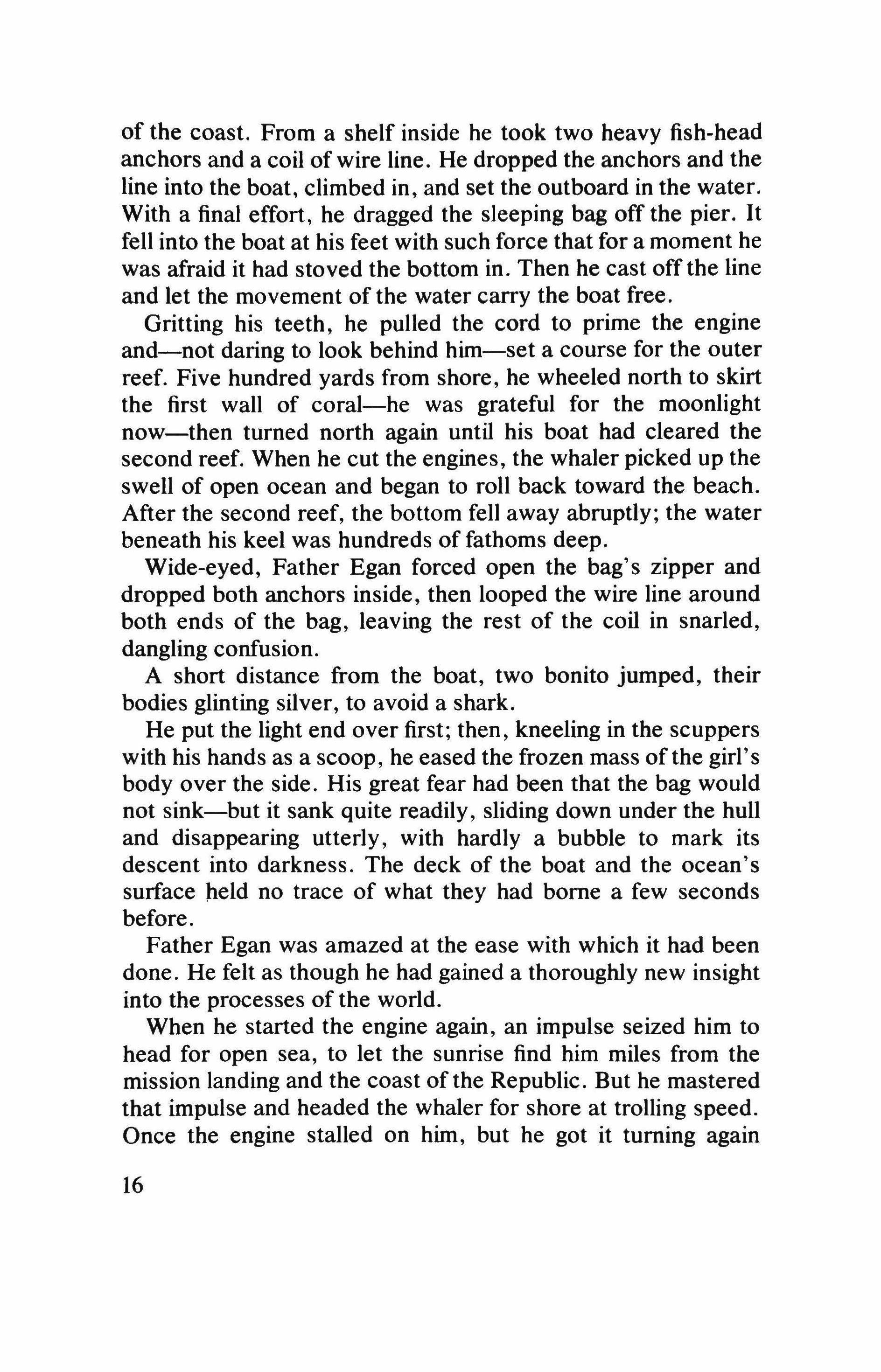
of the coast. From a shelf inside he took two heavy fish-head anchors and a coil of wire line. He dropped the anchors and the line into the boat. climbed in, and set the outboard in the water. With a final effort, he dragged the sleeping bag off the pier. It fell into the boat at his feet with such force that for a moment he was afraid it had stoved the bottom in. Then he cast off the line and let the movement of the water carry the boat free.
Gritting his teeth, he pulled the cord to prime the engine and-not daring to look behind him-set a course for the outer reef. Five hundred yards from shore, he wheeled north to skirt the first wall of coral-he was grateful for the moonlight now-then turned north again until his boat had cleared the second reef. When he cut the engines, the whaler picked up the swell of open ocean and began to roll back toward the beach. After the second reef, the bottom fell away abruptly; the water beneath his keel was hundreds of fathoms deep.
Wide-eyed, Father Egan forced open the bag's zipper and dropped both anchors inside, then looped the wire line around both ends of the bag, leaving the rest of the coil in snarled, dangling confusion.
A short distance from the boat, two bonito jumped, their bodies glinting silver, to avoid a shark.
He put the light end over first; then, kneeling in the scuppers with his hands as a scoop, he eased the frozen mass of the girl's body over the side. His great fear had been that the bag would not sink-but it sank quite readily, sliding down under the hull and disappearing utterly, with hardly a bubble to mark its descent into darkness. The deck of the boat and the ocean's surface held no trace of what they had borne a few seconds before.
Father Egan was amazed at the ease with which it had been done. He felt as though he had gained a thoroughly new insight into the processes of the world.
When he started the engine again, an impulse seized him to head for open sea, to let the sunrise find him miles from the mission landing and the coast of the Republic. But he mastered that impulse and headed the whaler for shore at trolling speed. Once the engine stalled on him, but he got it turning again
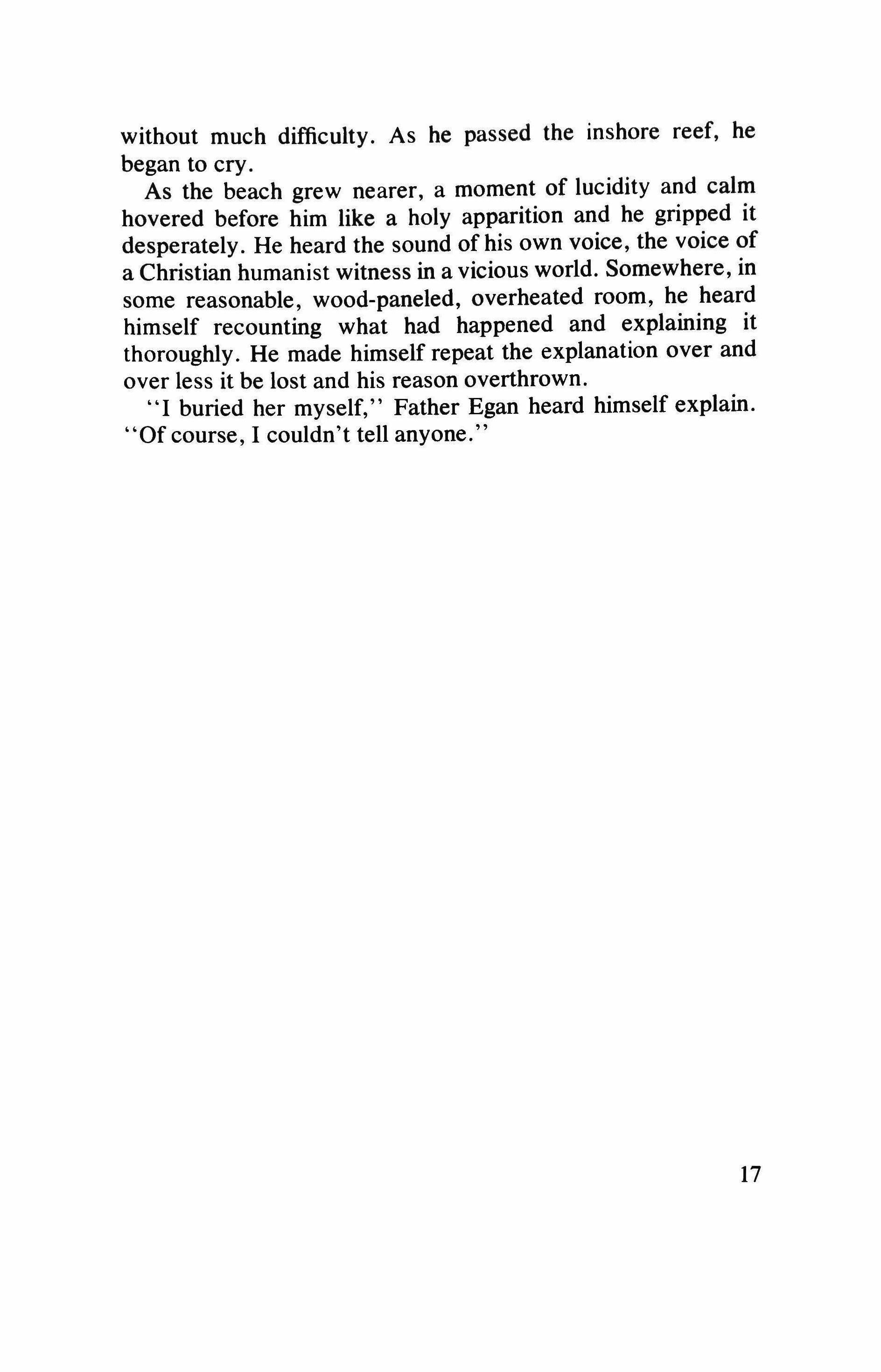
without much difficulty. As he passed the inshore reef, he began to cry.
As the beach grew nearer, a moment of lucidity and calm hovered before him like a holy apparition and he gripped it desperately. He heard the sound of his own voice, the voice of a Christian humanist witness in a vicious world. Somewhere, in some reasonable, wood-paneled, overheated room, he heard himself recounting what had happened and explaining it thoroughly. He made himself repeat the explanation over and over less it be lost and his reason overthrown.
"I buried her myself," Father Egan heard himself explain. "Of course, I couldn't tell anyone."
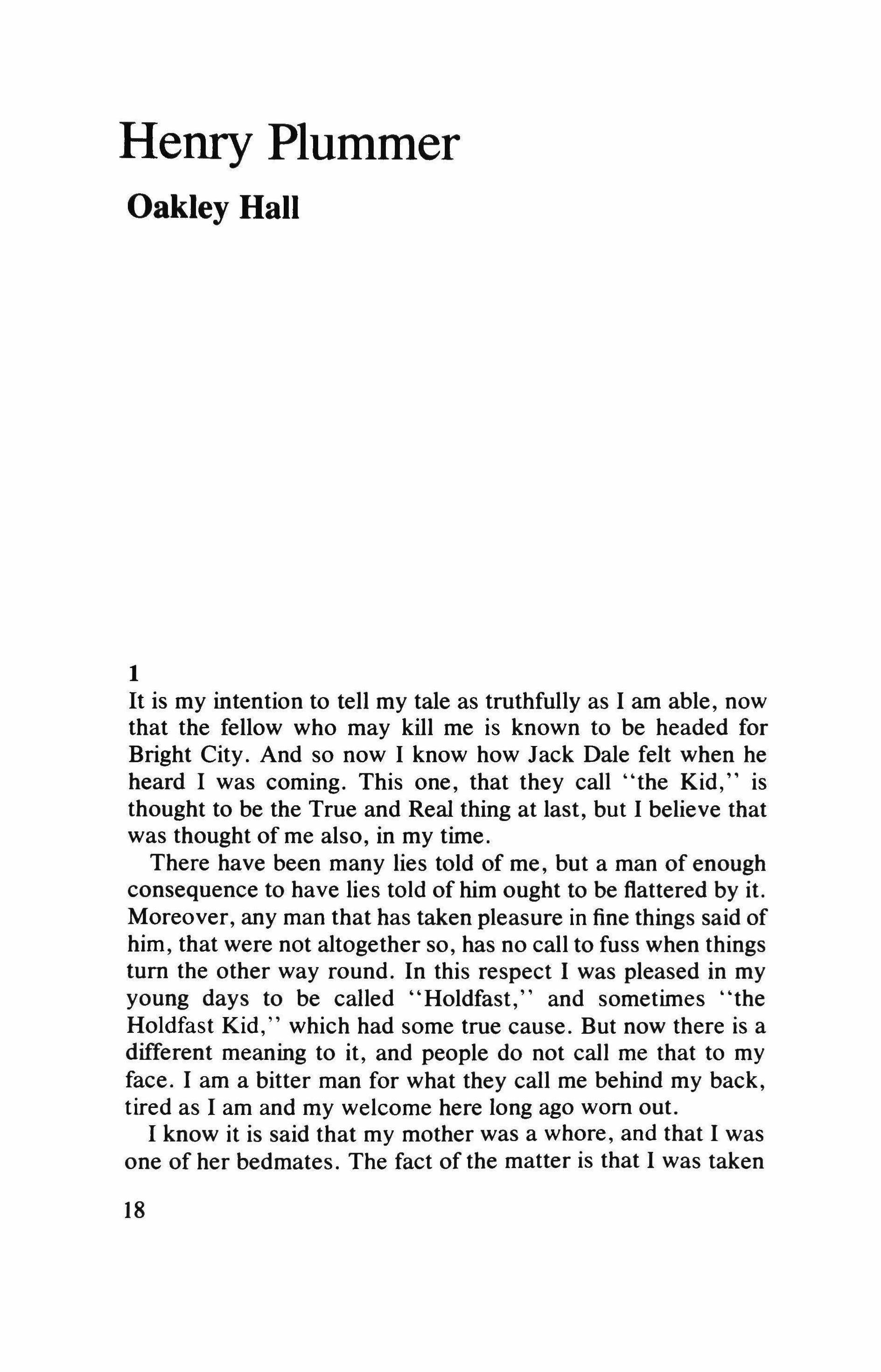
1
It is my intention to tell my tale as truthfully as I am able, now that the fellow who may kill me is known to be headed for Bright City. And so now I know how Jack Dale felt when he heard I was coming. This one, that they call "the Kid," is thought to be the True and Real thing at last, but I believe that was thought of me also, in my time.
There have been many lies told of me, but a man of enough consequence to have lies told of him ought to be flattered by it. Moreover, any man that has taken pleasure in fine things said of him, that were not altogether so, has no call to fuss when things turn the other way round. In this respect I was pleased in my young days to be called "Holdfast," and sometimes "the Holdfast Kid," which had some true cause. But now there is a different meaning to it, and people do not call me that to my face. I am a bitter man for what they call me behind my back, tired as I am and my welcome here long ago worn out.
I know it is said that my mother was a whore, and that I was one of her bedmates. The fact of the matter is that I was taken
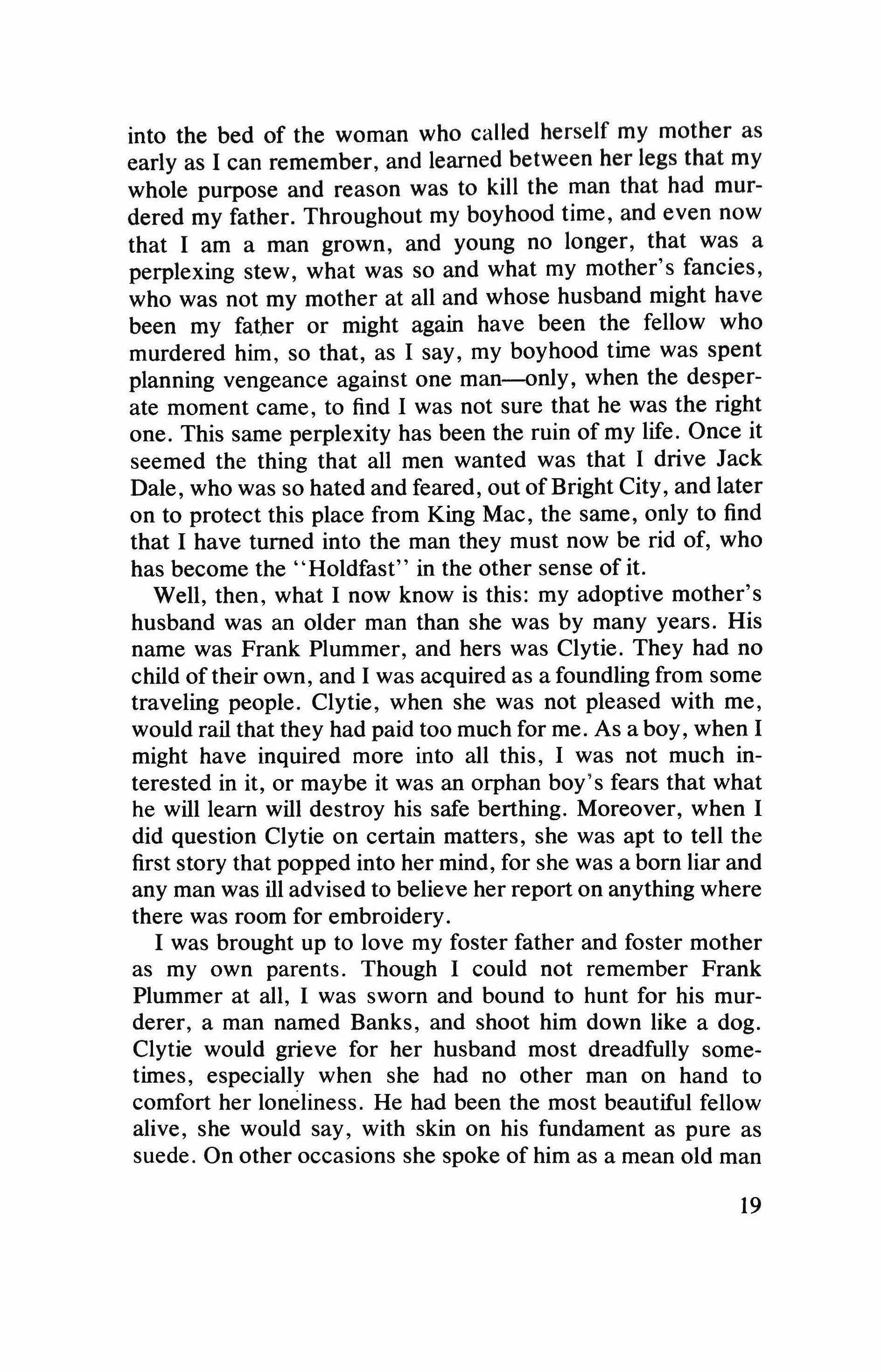
into the bed of the woman who called herself my mother as early as I can remember, and learned between her legs that my whole purpose and reason was to kill the man that had murdered my father. Throughout my boyhood time, and even now that I am a man grown, and young no longer, that was a perplexing stew, what was so and what my mother's fancies, who was not my mother at all and whose husband might have been my father or might again have been the fellow who murdered him, so that, as I say, my boyhood time was spent planning vengeance against one man-only, when the desperate moment came, to find I was not sure that he was the right one. This same perplexity has been the ruin of my life. Once it seemed the thing that all men wanted was that I drive Jack Dale, who was so hated and feared, out of Bright City, and later on to protect this place from King Mac, the same, only to find that I have turned into the man they must now be rid of, who has become the "Holdfast" in the other sense of it.
Well, then, what I now know is this: my adoptive mother's husband was an older man than she was by many years. His name was Frank Plummer, and hers was Clytie. They had no child of their own, and I was acquired as a foundling from some traveling people. Clytie, when she was not pleased with me, would rail that they had paid too much for me. As a boy, when I might have inquired more into all this, I was not much interested in it, or maybe it was an orphan boy's fears that what he will learn will destroy his safe berthing. Moreover, when I did question Clytie on certain matters, she was apt to tell the first story that popped into her mind, for she was a born liar and any man was ill advised to believe her report on anything where there was room for embroidery.
I was brought up to love my foster father and foster mother as my own parents. Though I could not remember Frank Plummer at all, I was sworn and bound to hunt for his murderer, a man named Banks, and shoot him down like a dog. Clytie would grieve for her husband most dreadfully sometimes, especially when she had no other man on hand to comfort her loneliness. He had been the most beautiful fellow alive, she would say, with skin on his fundament as pure as suede. On other occasions she spoke of him as a mean old man
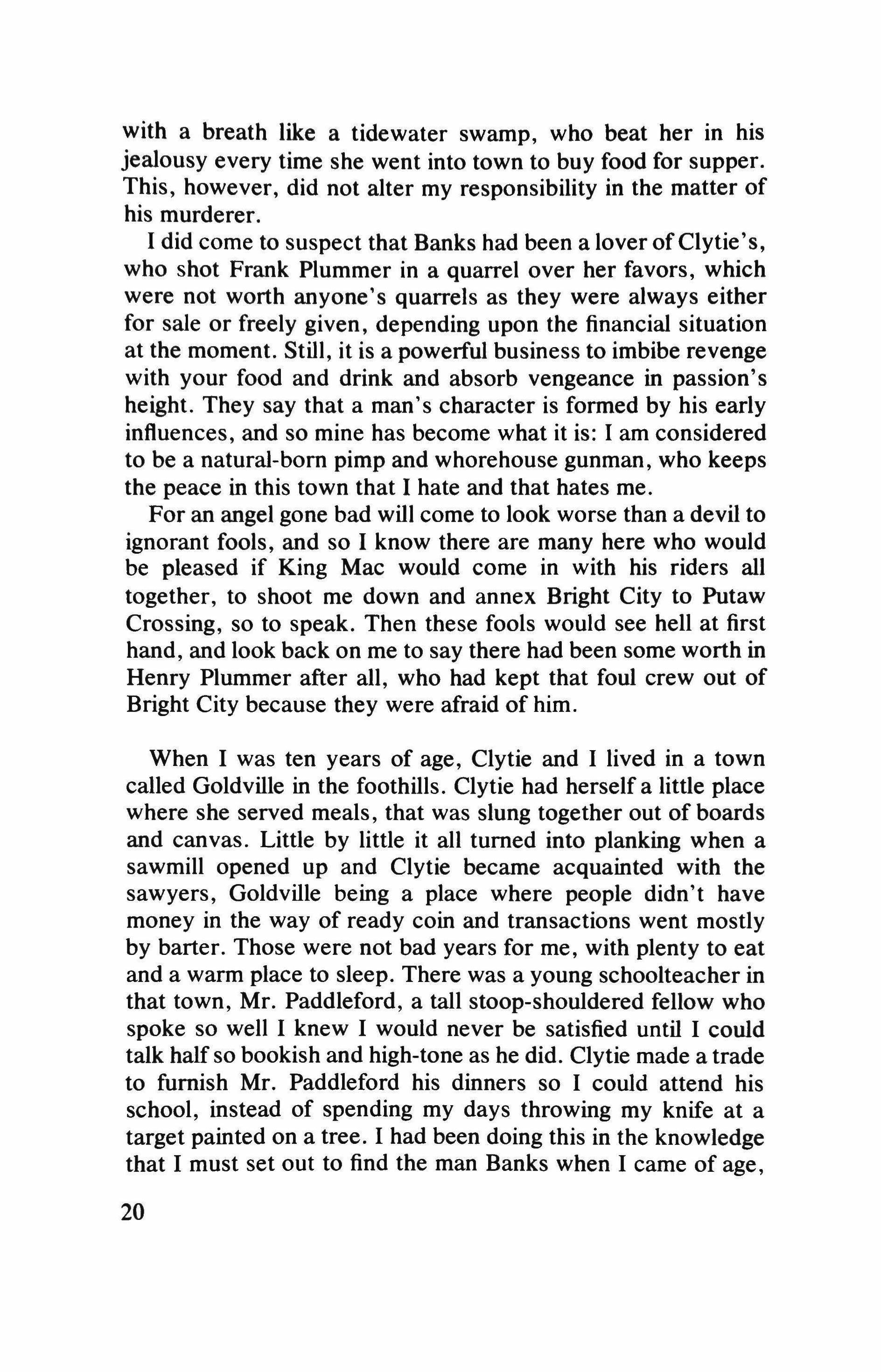
with a breath like a tidewater swamp, who beat her in his jealousy every time she went into town to buy food for supper. This, however, did not alter my responsibility in the matter of his murderer.
I did come to suspect that Banks had been a lover ofClytie's, who shot Frank Plummer in a quarrel over her favors, which were not worth anyone's quarrels as they were always either for sale or freely given, depending upon the financial situation at the moment. Still, it is a powerful business to imbibe revenge with your food and drink and absorb vengeance in passion's height. They say that a man's character is formed by his early influences, and so mine has become what it is: I am considered to be a natural-born pimp and whorehouse gunman, who keeps the peace in this town that I hate and that hates me.
For an angel gone bad will come to look worse than a devil to ignorant fools, and so I know there are many here who would be pleased if King Mac would come in with his riders all together, to shoot me down and annex Bright City to Putaw Crossing, so to speak. Then these fools would see hell at first hand, and look back on me to say there had been some worth in Henry Plummer after all, who had kept that foul crew out of Bright City because they were afraid of him.
When I was ten years of age, Clytie and I lived in a town called Goldville in the foothills. Clytie had herself a little place where she served meals, that was slung together out of boards and canvas. Little by little it all turned into planking when a sawmill opened up and Clytie became acquainted with the sawyers, Goldville being a place where people didn't have money in the way of ready coin and transactions went mostly by barter. Those were not bad years for me, with plenty to eat and a warm place to sleep. There was a young schoolteacher in that town, Mr. Paddleford, a tall stoop-shouldered fellow who spoke so well I knew I would never be satisfied until I could talk half so bookish and high-tone as he did. Clytie made a trade to furnish Mr. Paddleford his dinners so I could attend his school, instead of spending my days throwing my knife at a target painted on a tree. I had been doing this in the knowledge that I must set out to find the man Banks when I came of age,
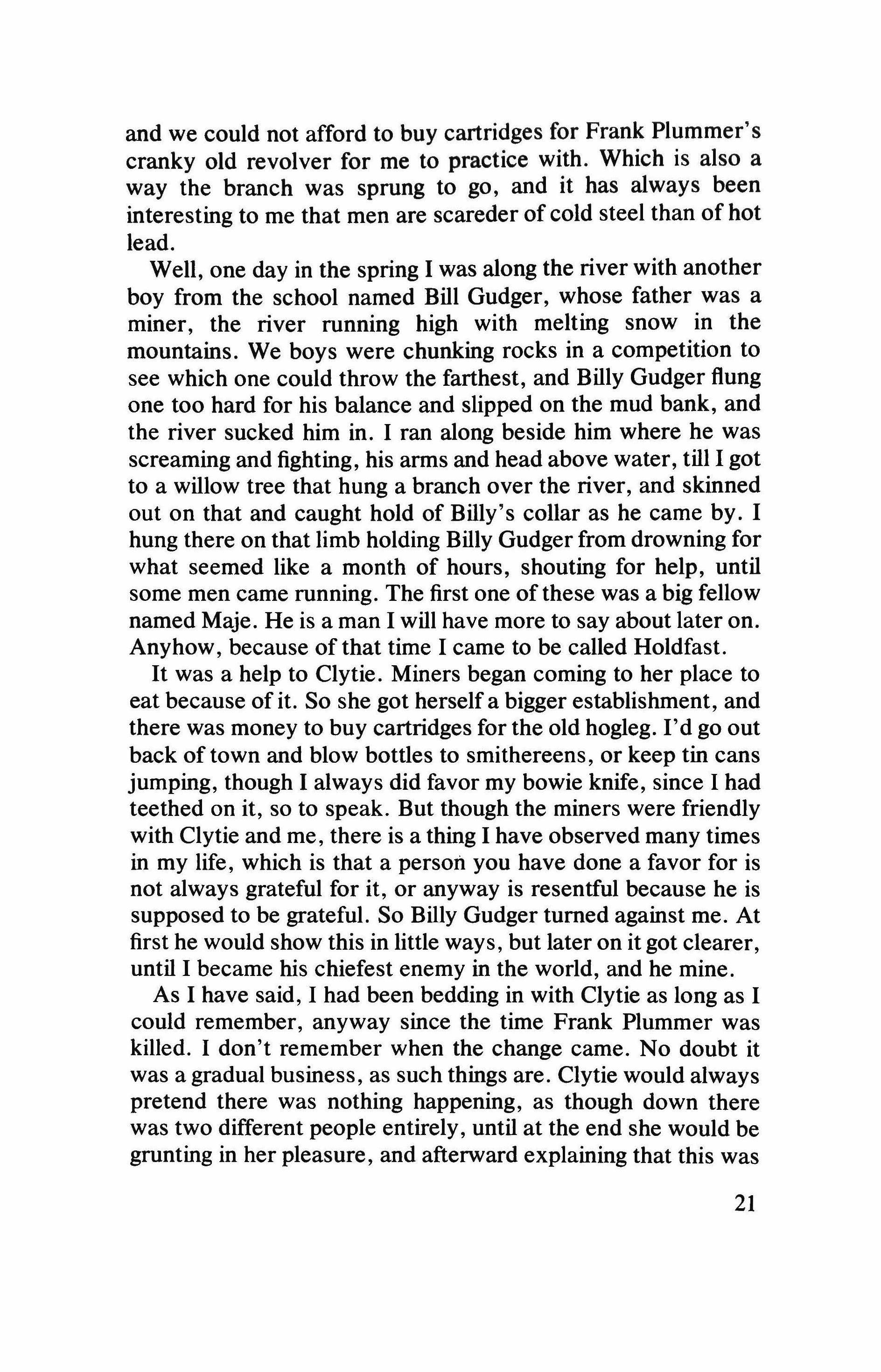
and we could not afford to buy cartridges for Frank Plummer's cranky old revolver for me to practice with. Which is also a way the branch was sprung to go, and it has always been interesting to me that men are scareder of cold steel than of hot lead.
Well, one day in the spring I was along the river with another boy from the school named Bill Gudger, whose father was a miner, the river running high with melting snow in the mountains. We boys were chunking rocks in a competition to see which one could throw the farthest, and Billy Gudger flung one too hard for his balance and slipped on the mud bank, and the river sucked him in. I ran along beside him where he was screaming and fighting, his arms and head above water, till I got to a willow tree that hung a branch over the river, and skinned out on that and caught hold of Billy's collar as he came by. I hung there on that limb holding Billy Gudger from drowning for what seemed like a month of hours, shouting for help, until some men came running. The first one of these was a big fellow named Maje. He is a man I will have more to say about later on. Anyhow, because of that time I came to be called Holdfast.
It was a help to Clytie. Miners began coming to her place to eat because of it. So she got herself a bigger establishment, and there was money to buy cartridges for the old hogleg. I'd go out back of town and blow bottles to smithereens, or keep tin cans jumping, though I always did favor my bowie knife, since I had teethed on it, so to speak. But though the miners were friendly with Clytie and me, there is a thing I have observed many times in my life, which is that a person you have done a favor for is not always grateful for it, or anyway is resentful because he is supposed to be grateful. So Billy Gudger turned against me. At first he would show this in little ways, but later on it got clearer, until I became his chiefest enemy in the world, and he mine. As I have said, I had been bedding in with Clytie as long as I could remember, anyway since the time Frank Plummer was killed. I don't remember when the change came. No doubt it was a gradual business, as such things are. Clytie would always pretend there was nothing happening, as though down there was two different people entirely, until at the end she would be grunting in her pleasure, and afterward explaining that this was
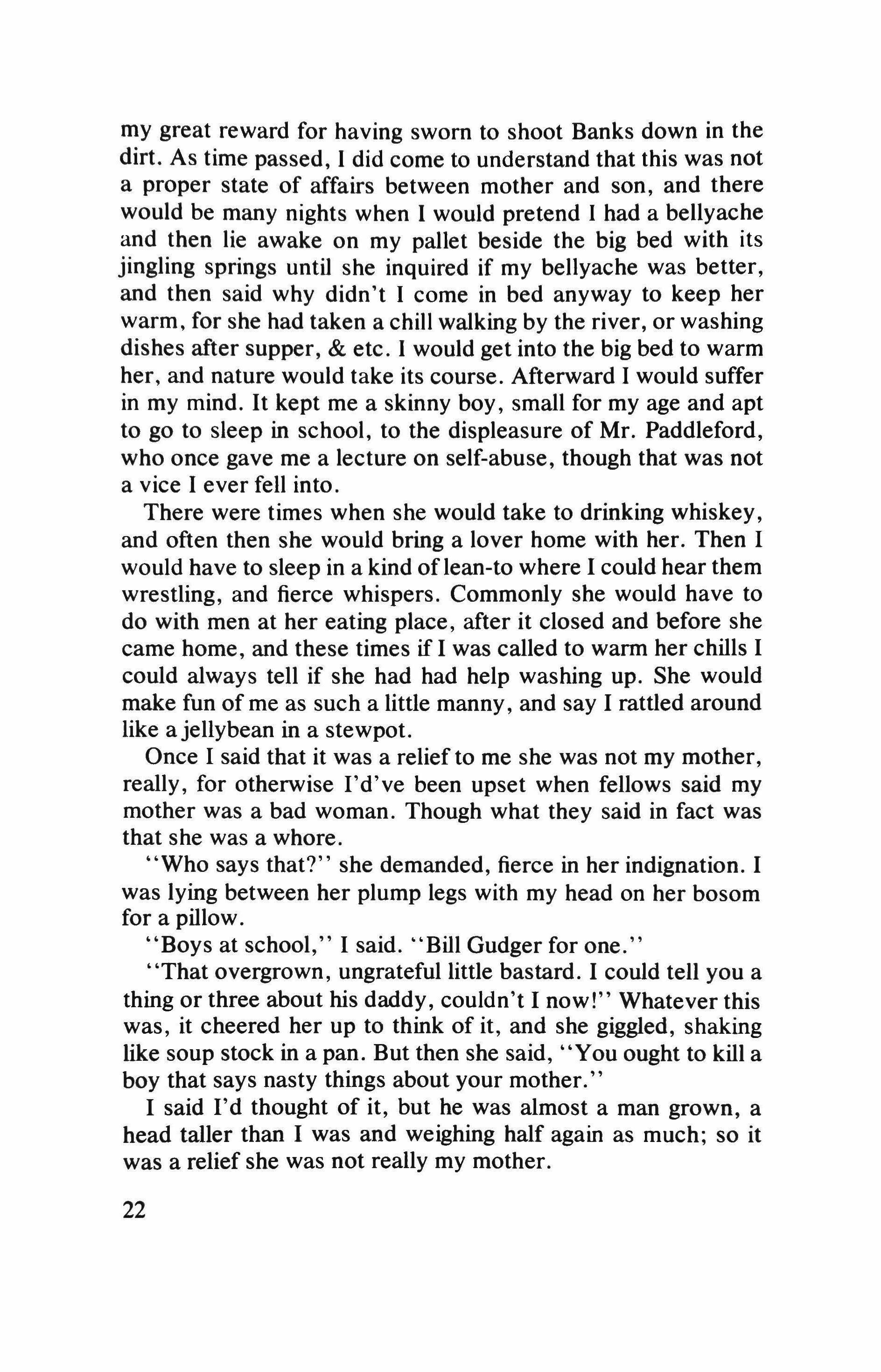
my great reward for having sworn to shoot Banks down in the dirt. As time passed, I did come to understand that this was not a proper state of affairs between mother and son, and there would be many nights when I would pretend I had a bellyache and then lie awake on my pallet beside the big bed with its jingling springs until she inquired if my bellyache was better, and then said why didn't I come in bed anyway to keep her warm, for she had taken a chill walking by the river, or washing dishes after supper, & etc. I would get into the big bed to warm her, and nature would take its course. Afterward I would suffer in my mind. It kept me a skinny boy, small for my age and apt to go to sleep in school, to the displeasure of Mr. Paddleford, who once gave me a lecture on self-abuse, though that was not a vice I ever fell into.
There were times when she would take to drinking whiskey, and often then she would bring a lover home with her. Then I would have to sleep in a kind oflean-to where I could hear them wrestling, and fierce whispers. Commonly she would have to do with men at her eating place, after it closed and before she came home, and these times if I was called to warm her chills I could always tell if she had had help washing up. She would make fun of me as such a little manny, and say I rattled around like a jellybean in a stewpot.
Once I said that it was a relief to me she was not my mother, really, for otherwise I'd've been upset when fellows said my mother was a bad woman. Though what they said in fact was that she was a whore.
"Who says that?" she demanded, fierce in her indignation. I was lying between her plump legs with my head on her bosom for a pillow.
"Boys at school," I said. "Bill Gudger for one."
"That overgrown, ungrateful little bastard. I could tell you a thing or three about his daddy, couldn't I now!" Whatever this was, it cheered her up to think of it, and she giggled, shaking like soup stock in a pan. But then she said, "You ought to kill a boy that says nasty things about your mother."
I said I'd thought of it, but he was almost a man grown, a head taller than I was and weighing half again as much; so it was a relief she was not really my mother.
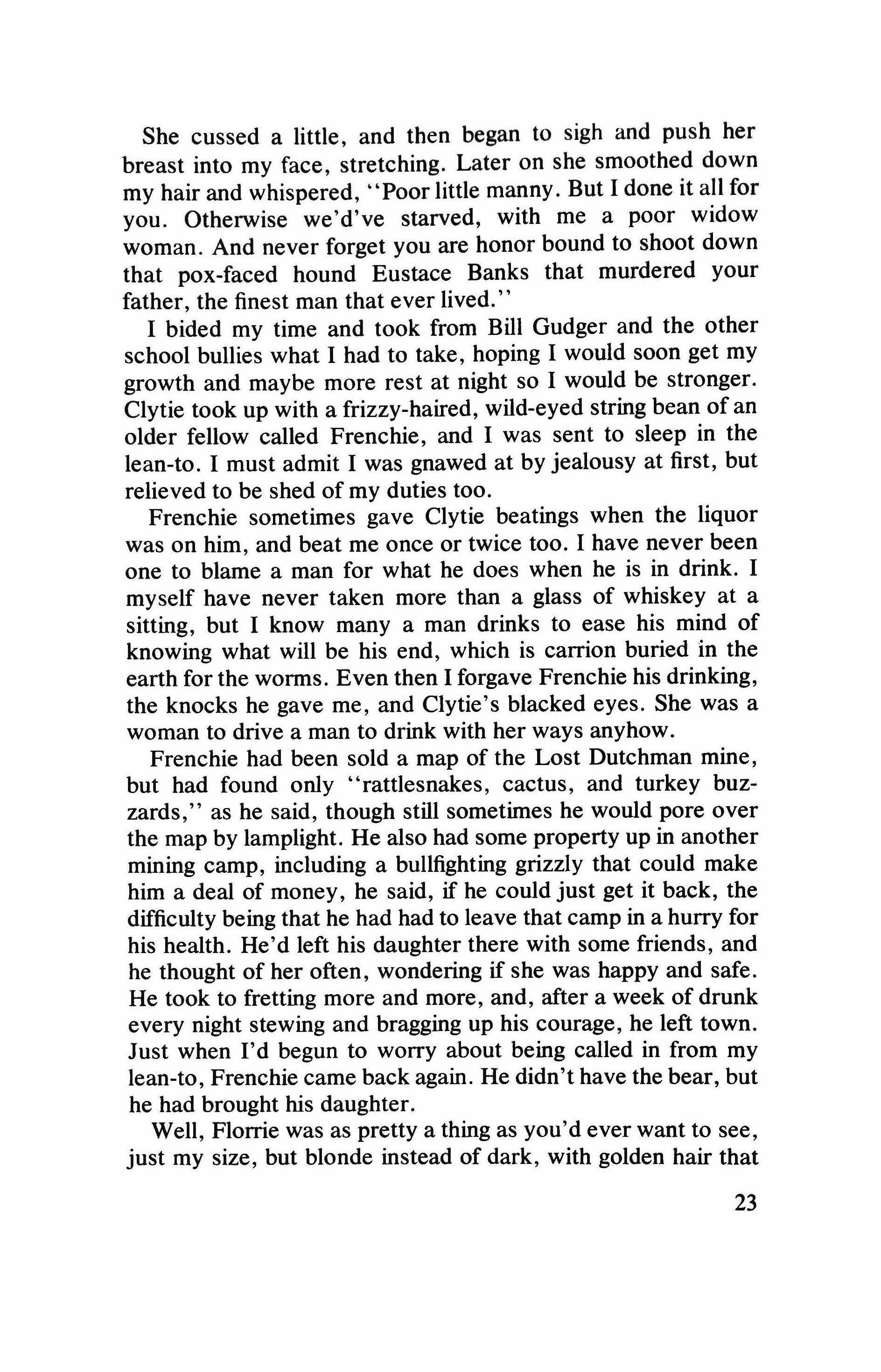
She cussed a little, and then began to sigh and push her breast into my face, stretching. Later on she smoothed down my hair and whispered, "Poor little manny. But I done it all for you. Otherwise we'd've starved, with me a poor widow woman. And never forget you are honor bound to shoot down that pox-faced hound Eustace Banks that murdered your father, the finest man that ever lived."
I bided my time and took from Bill Gudger and the other school bullies what I had to take, hoping I would soon get my growth and maybe more rest at night so I would be stronger. Clytie took up with a frizzy-haired, wild-eyed string bean of an older fellow called Frenchie, and I was sent to sleep in the lean-to. I must admit I was gnawed at by jealousy at first, but relieved to be shed of my duties too.
Frenchie sometimes gave Clytie beatings when the liquor was on him, and beat me once or twice too. I have never been one to blame a man for what he does when he is in drink. I myself have never taken more than a glass of whiskey at a sitting, but I know many a man drinks to ease his mind of knowing what will be his end, which is carrion buried in the earth for the worms. Even then I forgave Frenchie his drinking, the knocks he gave me, and Clytie's blacked eyes. She was a woman to drive a man to drink with her ways anyhow.
Frenchie had been sold a map of the Lost Dutchman mine, but had found only "rattlesnakes, cactus, and turkey buzzards," as he said, though still sometimes he would pore over the map by lamplight. He also had some property up in another mining camp, including a bullfighting grizzly that could make him a deal of money, he said, if he could just get it back, the difficulty being that he had had to leave that camp in a hurry for his health. He'd left his daughter there with some friends, and he thought of her often, wondering if she was happy and safe. He took to fretting more and more, and, after a week of drunk every night stewing and bragging up his courage, he left town. Just when I'd begun to worry about being called in from my lean-to, Frenchie came back again. He didn't have the bear, but he had brought his daughter.
Well, Florrie was as pretty a thing as you'd ever want to see, just my size, but blonde instead of dark, with golden hair that
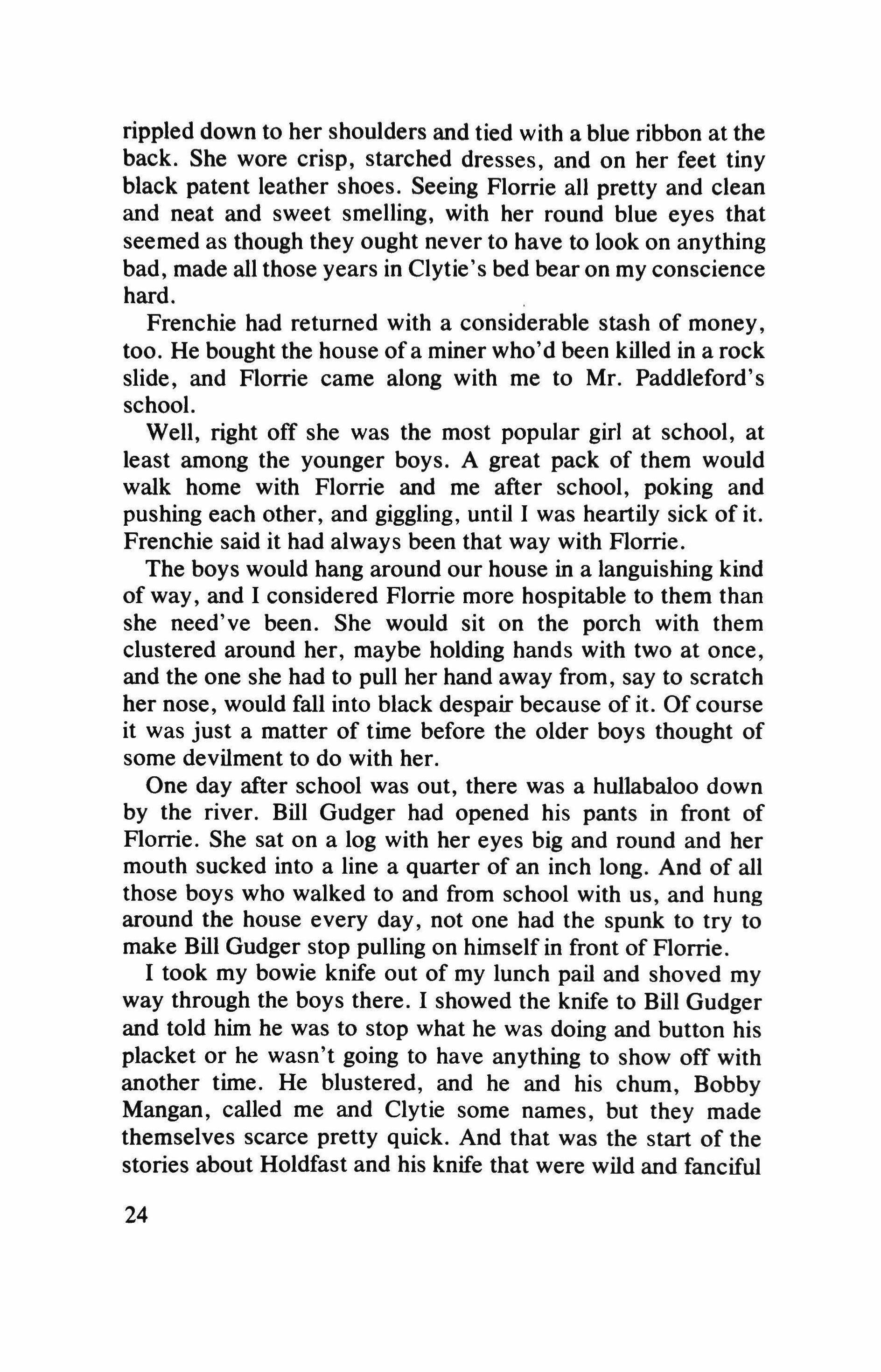
rippled down to her shoulders and tied with a blue ribbon at the back. She wore crisp, starched dresses, and on her feet tiny black patent leather shoes. Seeing Florrie all pretty and clean and neat and sweet smelling, with her round blue eyes that seemed as though they ought never to have to look on anything bad, made all those years in Clytie's bed bear on my conscience hard.
Frenchie had returned with a considerable stash of money, too. He bought the house ofa miner who'd been killed in a rock slide, and Florrie came along with me to Mr. Paddleford's school.
Well, right off she was the most popular girl at school, at least among the younger boys. A great pack of them would walk home with Florrie and me after school, poking and pushing each other, and giggling, until I was heartily sick of it. Frenchie said it had always been that way with Florrie.
The boys would hang around our house in a languishing kind of way, and I considered Florrie more hospitable to them than she need've been. She would sit on the porch with them clustered around her, maybe holding hands with two at once, and the one she had to pull her hand away from, say to scratch her nose, would fall into black despair because of it. Of course it was just a matter of time before the older boys thought of some devilment to do with her.
One day after school was out, there was a hullabaloo down by the river. Bill Gudger had opened his pants in front of Florrie. She sat on a log with her eyes big and round and her mouth sucked into a line a quarter of an inch long. And of all those boys who walked to and from school with us, and hung around the house every day, not one had the spunk to try to make Bill Gudger stop pulling on himself in front of Florrie.
I took my bowie knife out of my lunch pail and shoved my way through the boys there. I showed the knife to Bill Gudger and told him he was to stop what he was doing and button his placket or he wasn't going to have anything to show off with another time. He blustered, and he and his chum, Bobby Mangan, called me and Clytie some names, but they made themselves scarce pretty quick. And that was the start of the stories about Holdfast and his knife that were wild and fanciful

but I must admit were true at the bottom. All the bigger boys were a good deal carefuller around me after that, and respectful of Florrie.
That was a pleasant time for Florrie and me as "brother" and "sister." Frenchie and Clytie were settled in Frenchie's house like husband and wife, and the eating place was making good money. Frenchie spent evenings poring over a new map he had bought somewhere, with a compass and ruler and logarithmic tables. Sometimes he groused that the best map of the Lost Dutchman he'd ever had had been stolen from him by a black-haired girl who'd stolen his money too.
Frenchie never did like me much. When I began to get my growth he did not beat me any more, but always spoke to me short and hard of voice. He never touched Florrie in his anger either, or I don't know what I would have done. Always he treated her as his little princess, who was indeed a princess to me too.
Now at this time boys like Bill Gudger and Bobby Mangan had left school to go to work in the new mines that were being drifted in, and I had become the chiefest boy at Mr. Paddleford's school, though I was not the oldest nor the biggest either. But I was quick in my studies and always quiet and attentive to Mr. Paddleford, and respected by the other boys for the story passed on from year to year how when I was just a little fellow I had taken a knife to the school bully. So it is that a man's acts will stay with him all his life, and I have gone from protecting my sister from dirty boys to keeping order in a whorehouse, and peace in this town.
Well, come that April, Frenchie became dissatisfied, grousing and drinking again, and saying he was sick of wasting his life away in such a place as Goldville. And all at once he sold the eatery for a good stake, bought a team and wagon and some supplies, and headed out of town. He was bound to make one more prospecting expedition before he settled down for good.
By summer there'd been not a word from him; there was no more money, and Clytie had to take in boarders. Soon there were both roomers and boarders in that big house, and we had only one downstairs bedroom and the kitchen to ourselves. Clytie and Florrie slept together in the big old bed, and I had a
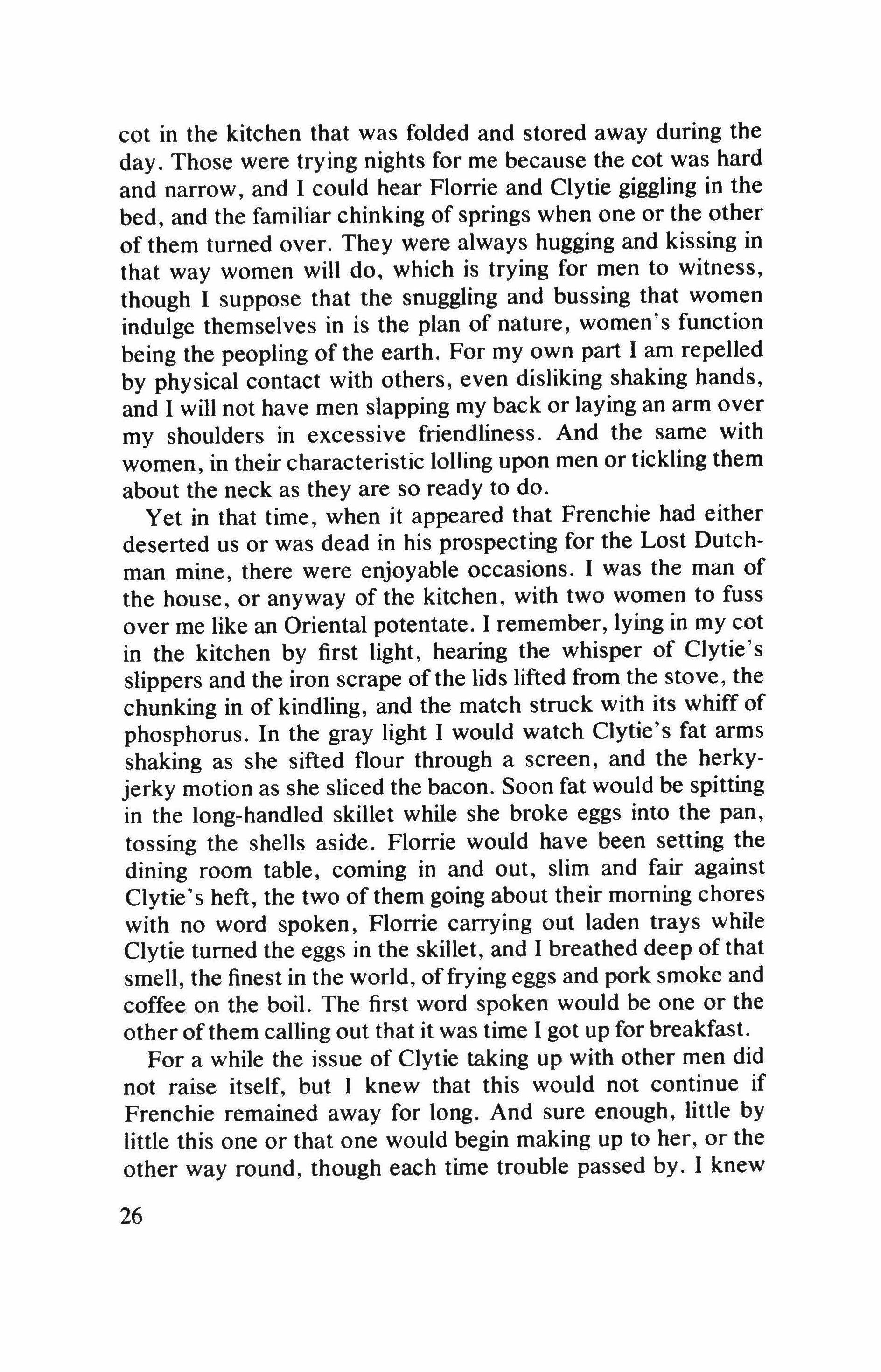
cot in the kitchen that was folded and stored away during the day. Those were trying nights for me because the cot was hard and narrow, and I could hear Florrie and Clytie giggling in the bed, and the familiar chinking of springs when one or the other of them turned over. They were always hugging and kissing in that way women will do, which is trying for men to witness, though I suppose that the snuggling and bussing that women indulge themselves in is the plan of nature, women's function being the peopling of the earth. For my own part I am repelled by physical contact with others, even disliking shaking hands, and I will not have men slapping my back or laying an arm over my shoulders in excessive friendliness. And the same with women, in their characteristic lolling upon men or tickling them about the neck as they are so ready to do.
Yet in that time, when it appeared that Frenchie had either deserted us or was dead in his prospecting for the Lost Dutchman mine, there were enjoyable occasions. I was the man of the house, or anyway of the kitchen, with two women to fuss over me like an Oriental potentate. I remember, lying in my cot in the kitchen by first light, hearing the whisper of Clytie's slippers and the iron scrape ofthe lids lifted from the stove, the chunking in of kindling, and the match struck with its whiff of phosphorus. In the gray light I would watch Clytie's fat arms shaking as she sifted flour through a screen, and the herkyjerky motion as she sliced the bacon. Soon fat would be spitting in the long-handled skillet while she broke eggs into the pan, tossing the shells aside. Florrie would have been setting the dining room table, coming in and out, slim and fair against Clytie's heft, the two of them going about their morning chores with no word spoken, Florrie carrying out laden trays while Clytie turned the eggs in the skillet, and I breathed deep of that smell, the finest in the world, offrying eggs and pork smoke and coffee on the boil. The first word spoken would be one or the other ofthem calling out that it was time I got up for breakfast.
For a while the issue of Clytie taking up with other men did not raise itself, but I knew that this would not continue if Frenchie remained away for long. And sure enough, little by little this one or that one would begin making up to her, or the other way round, though each time trouble passed by. I knew
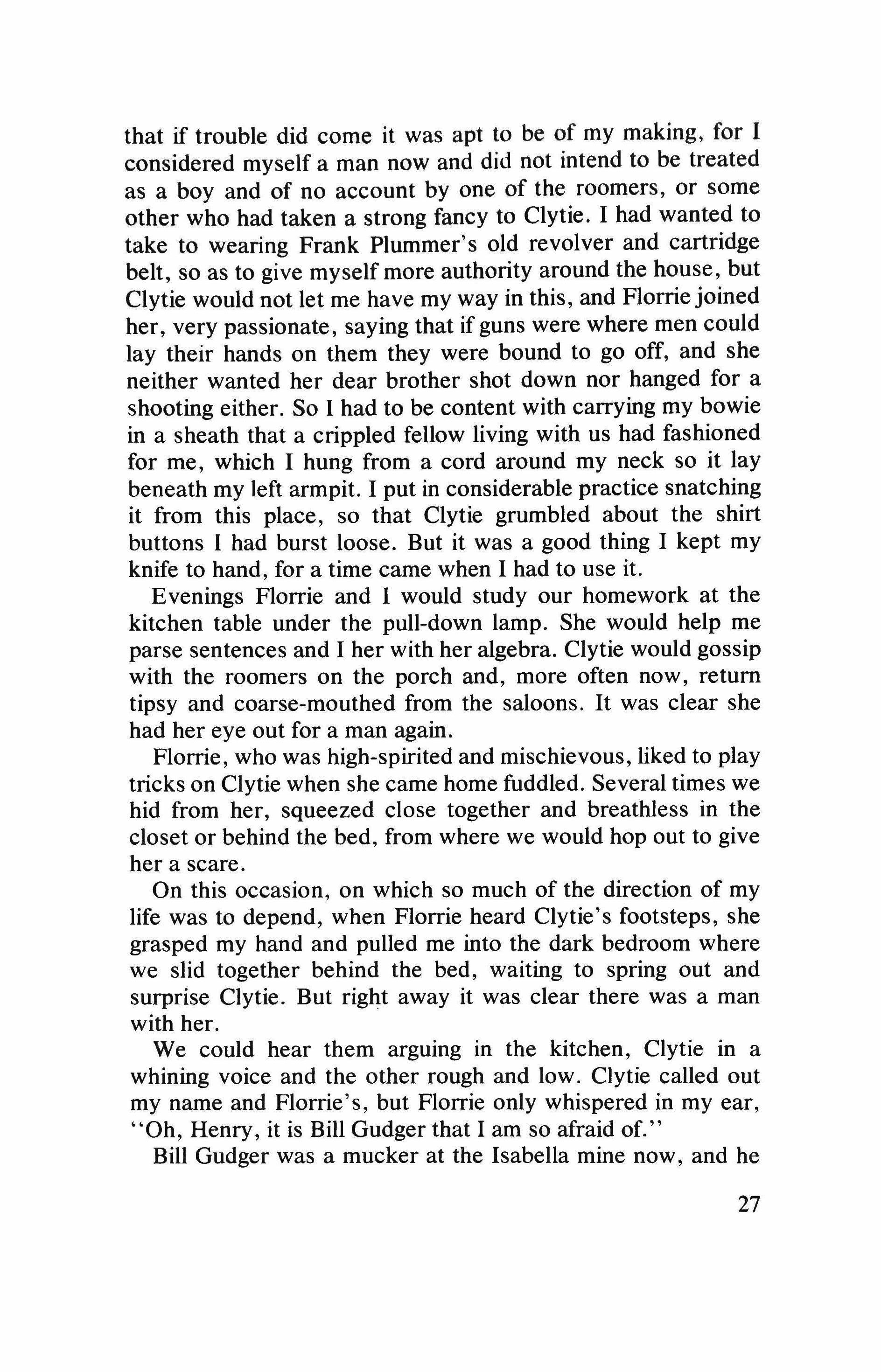
that if trouble did come it was apt to be of my making, for I considered myself a man now and did not intend to be treated as a boy and of no account by one of the roomers, or some other who had taken a strong fancy to Clytie. I had wanted to take to wearing Frank Plummer's old revolver and cartridge belt, so as to give myself more authority around the house, but Clytie would not let me have my way in this, and Florrie joined her, very passionate, saying that if guns were where men could lay their hands on them they were bound to go off, and she neither wanted her dear brother shot down nor hanged for a shooting either. So I had to be content with carrying my bowie in a sheath that a crippled fellow living with us had fashioned for me, which I hung from a cord around my neck so it lay beneath my left armpit. I put in considerable practice snatching it from this place, so that Clytie grumbled about the shirt buttons I had burst loose. But it was a good thing I kept my knife to hand, for a time came when I had to use it.
Evenings Florrie and I would study our homework at the kitchen table under the pull-down lamp. She would help me parse sentences and I her with her algebra. Clytie would gossip with the roomers on the porch and, more often now, return tipsy and coarse-mouthed from the saloons. It was clear she had her eye out for a man again.
Florrie, who was high-spirited and mischievous, liked to play tricks on Clytie when she came home fuddled. Several times we hid from her, squeezed close together and breathless in the closet or behind the bed, from where we would hop out to give her a scare.
On this occasion, on which so much of the direction of my life was to depend, when Florrie heard Clytie's footsteps, she grasped my hand and pulled me into the dark bedroom where we slid together behind the bed, waiting to spring out and surprise Clytie. But right away it was clear there was a man with her.
We could hear them arguing in the kitchen, Clytie in a whining voice and the other rough and low. Clytie called out my name and Florrie's, but Florrie only whispered in my ear, "Oh, Henry, it is Bill Gudger that I am so afraid of."
Bill Gudger was a mucker at the Isabella mine now, and he
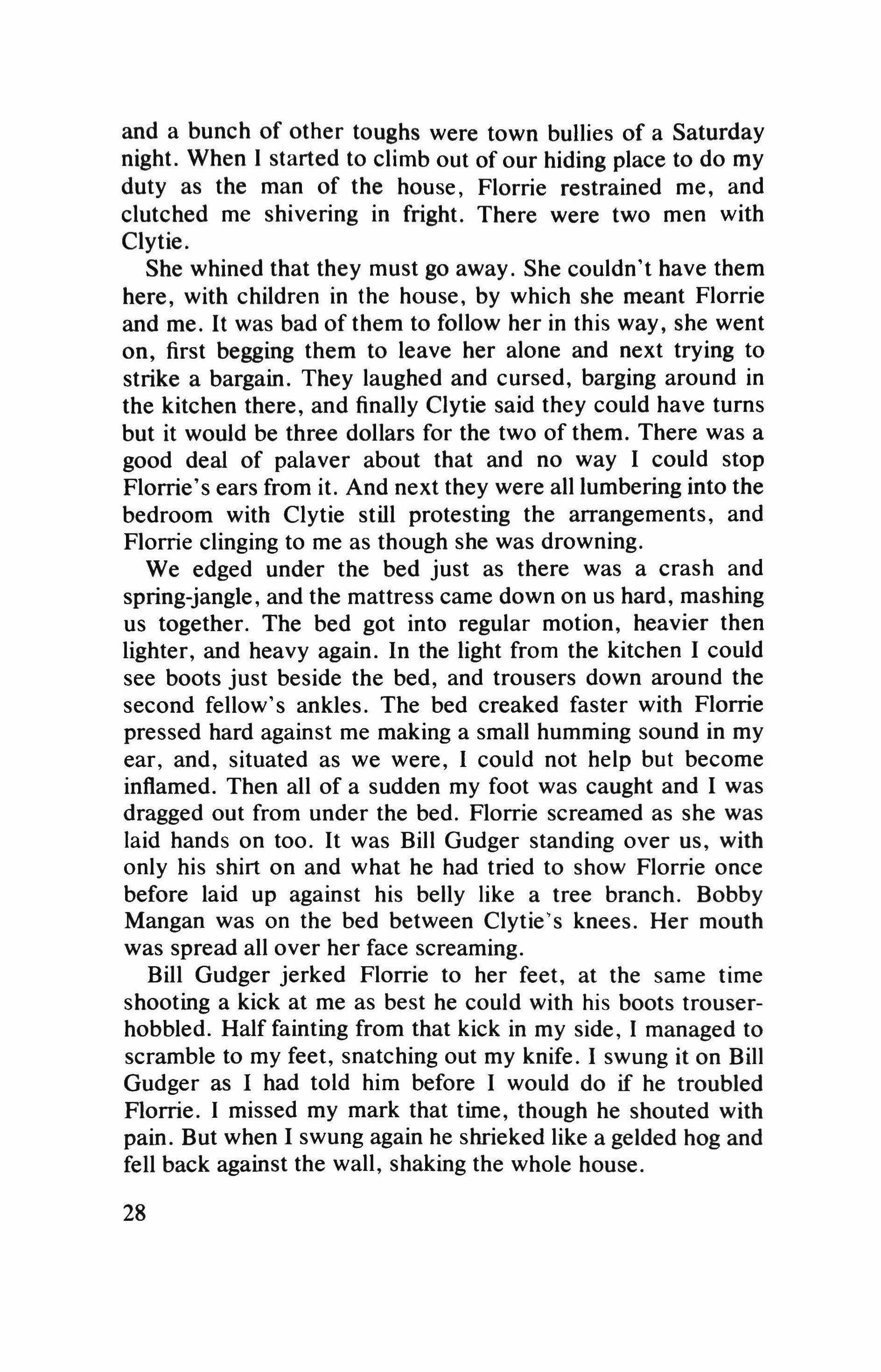
and a bunch of other toughs were town bullies of a Saturday night. When I started to climb out of our hiding place to do my duty as the man of the house, Florrie restrained me, and clutched me shivering in fright. There were two men with Clytie.
She whined that they must go away. She couldn't have them here, with children in the house, by which she meant Florrie and me. It was bad of them to follow her in this way, she went on, first begging them to leave her alone and next trying to strike a bargain. They laughed and cursed, barging around in the kitchen there, and finally Clytie said they could have turns but it would be three dollars for the two of them. There was a good deal of palaver about that and no way I could stop Florrie's ears from it. And next they were all lumbering into the bedroom with Clytie still protesting the arrangements, and Florrie clinging to me as though she was drowning.
We edged under the bed just as there was a crash and spring-jangle, and the mattress came down on us hard, mashing us together. The bed got into regular motion, heavier then lighter, and heavy again. In the light from the kitchen I could see boots just beside the bed, and trousers down around the second fellow's ankles. The bed creaked faster with Florrie pressed hard against me making a small humming sound in my ear, and, situated as we were, I could not help but become inflamed. Then all of a sudden my foot was caught and I was dragged out from under the bed. Florrie screamed as she was laid hands on too. It was Bill Gudger standing over us, with only his shirt on and what he had tried to show Florrie once before laid up against his belly like a tree branch. Bobby Mangan was on the bed between Clytie's knees. Her mouth was spread all over her face screaming.
Bill Gudger jerked Florrie to her feet, at the same time shooting a kick at me as best he could with his boots trouserhobbled. Half fainting from that kick in my side, I managed to scramble to my feet, snatching out my knife. I swung it on Bill Gudger as I had told him before I would do if he troubled Florrie. I missed my mark that time, though he shouted with pain. But when I swung again he shrieked like a gelded hog and fell back against the wall, shaking the whole house.
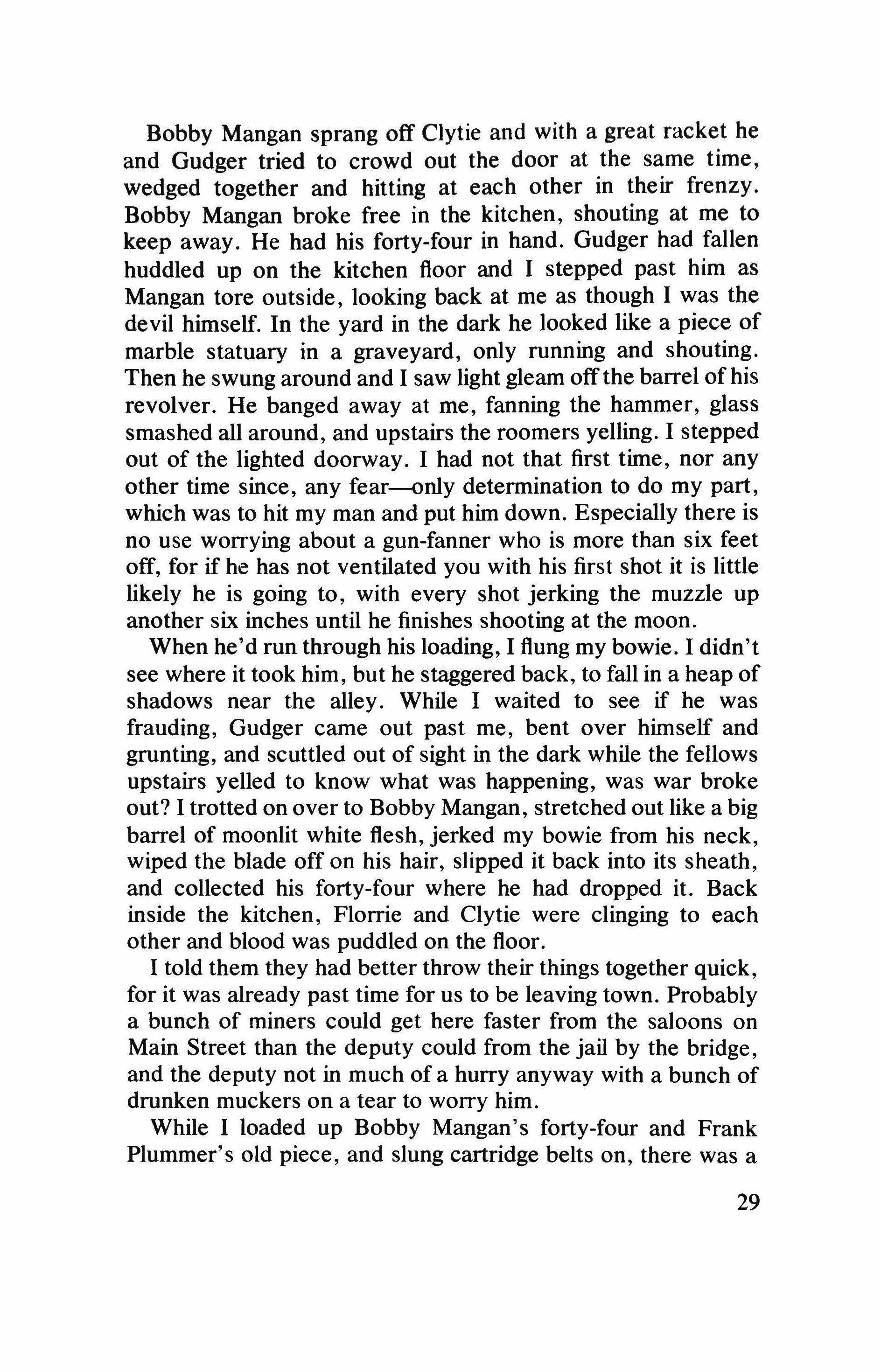
Bobby Mangan sprang off Clytie and with a great racket he and Gudger tried to crowd out the door at the same time, wedged together and hitting at each other in their frenzy. Bobby Mangan broke free in the kitchen, shouting at me to keep away. He had his forty-four in hand. Gudger had fallen huddled up on the kitchen floor and I stepped past him as Mangan tore outside, looking back at me as though I was the devil himself. In the yard in the dark he looked like a piece of marble statuary in a graveyard, only running and shouting. Then he swung around and I saw light gleam offthe barrel of his revolver. He banged away at me, fanning the hammer, glass smashed all around, and upstairs the roomers yelling. I stepped out of the lighted doorway. I had not that first time, nor any other time since, any fear--only determination to do my part, which was to hit my man and put him down. Especially there is no use worrying about a gun-fanner who is more than six feet off, for if he has not ventilated you with his first shot it is little likely he is going to, with every shot jerking the muzzle up another six inches until he finishes shooting at the moon.
When he'd run through his loading, I flung my bowie. I didn't see where it took him, but he staggered back, to fall in a heap of shadows near the alley. While I waited to see if he was frauding, Gudger came out past me, bent over himself and grunting, and scuttled out of sight in the dark while the fellows upstairs yelled to know what was happening, was war broke out? I trotted on over to Bobby Mangan, stretched out like a big barrel of moonlit white flesh, jerked my bowie from his neck, wiped the blade off on his hair, slipped it back into its sheath, and collected his forty-four where he had dropped it. Back inside the kitchen, Florrie and Clytie were clinging to each other and blood was puddled on the floor.
I told them they had better throw their things together quick, for it was already past time for us to be leaving town. Probably a bunch of miners could get here faster from the saloons on Main Street than the deputy could from the jail by the bridge, and the deputy not in much of a hurry anyway with a bunch of drunken muckers on a tear to worry him.
While I loaded up Bobby Mangan's forty-four and Frank Plummer's old piece, and slung cartridge belts on, there was a
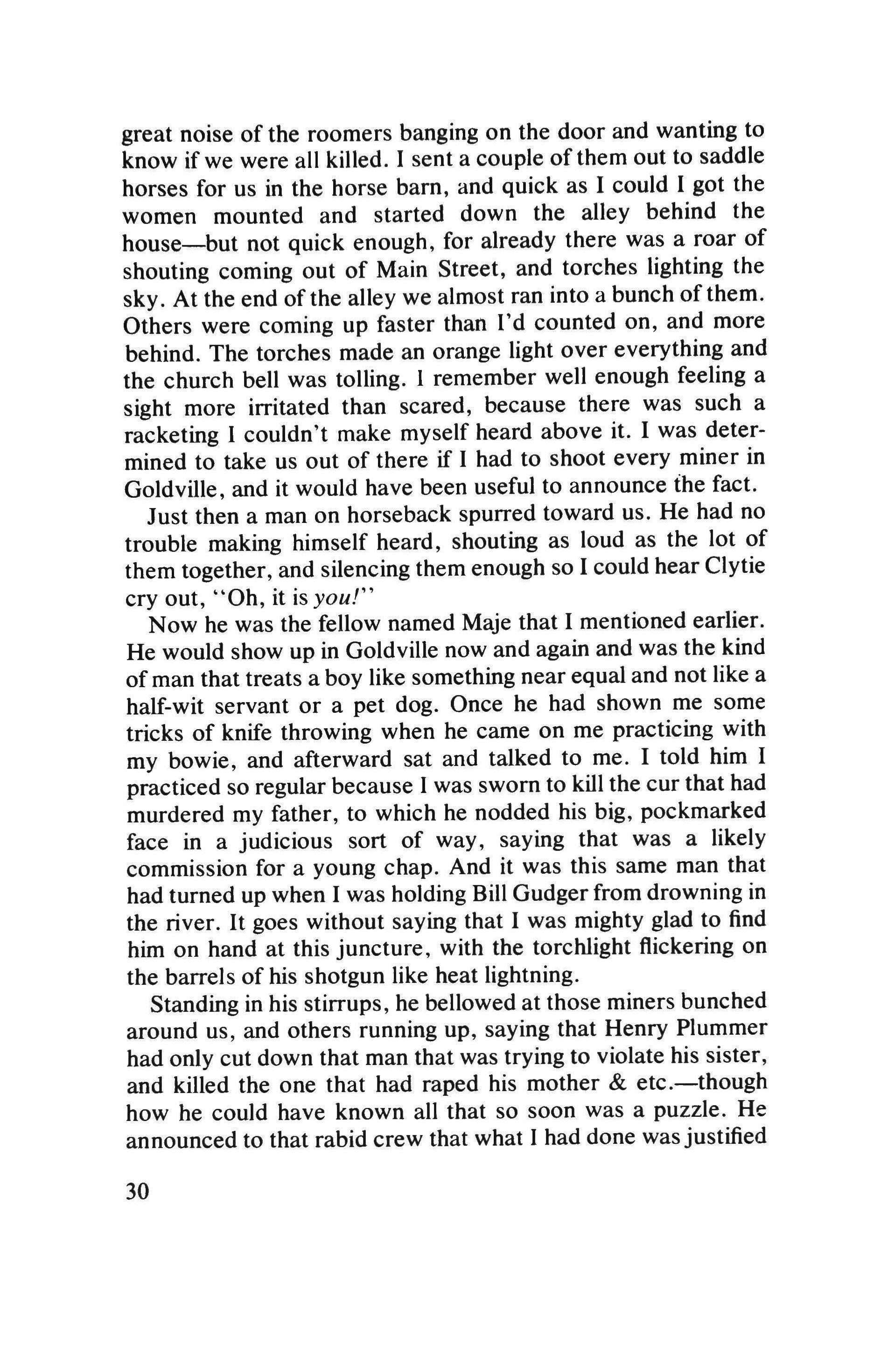
great noise of the roomers banging on the door and wanting to know if we were all killed. I sent a couple of them out to saddle horses for us in the horse bam, and quick as I could I got the women mounted and started down the alley behind the house-but not quick enough, for already there was a roar of shouting coming out of Main Street, and torches lighting the sky. At the end of the alley we almost ran into a bunch of them. Others were coming up faster than I'd counted on, and more behind. The torches made an orange light over everything and the church bell was tolling. 1 remember well enough feeling a sight more irritated than scared, because there was such a racketing I couldn't make myself heard above it. I was determined to take us out of there if I had to shoot every miner in Goldville, and it would have been useful to announce the fact.
Just then a man on horseback spurred toward us. He had no trouble making himself heard, shouting as loud as the lot of them together, and silencing them enough so I could hear Clytie cry out, "Oh, it is you!"
Now he was the fellow named Maje that I mentioned earlier. He would show up in Goldville now and again and was the kind of man that treats a boy like something near equal and not like a half-wit servant or a pet dog. Once he had shown me some tricks of knife throwing when he came on me practicing with my bowie, and afterward sat and talked to me. I told him I practiced so regular because I was sworn to kill the cur that had murdered my father, to which he nodded his big, pockmarked face in a judicious sort of way, saying that was a likely commission for a young chap. And it was this same man that had turned up when I was holding Bill Gudger from drowning in the river. It goes without saying that I was mighty glad to find him on hand at this juncture, with the torchlight flickering on the barrels of his shotgun like heat lightning.
Standing in his stirrups, he bellowed at those miners bunched around us, and others running up, saying that Henry Plummer had only cut down that man that was trying to violate his sister, and killed the one that had raped his mother & etc.-though how he could have known all that so soon was a puzzle. He announced to that rabid crew that what I had done was justified
30
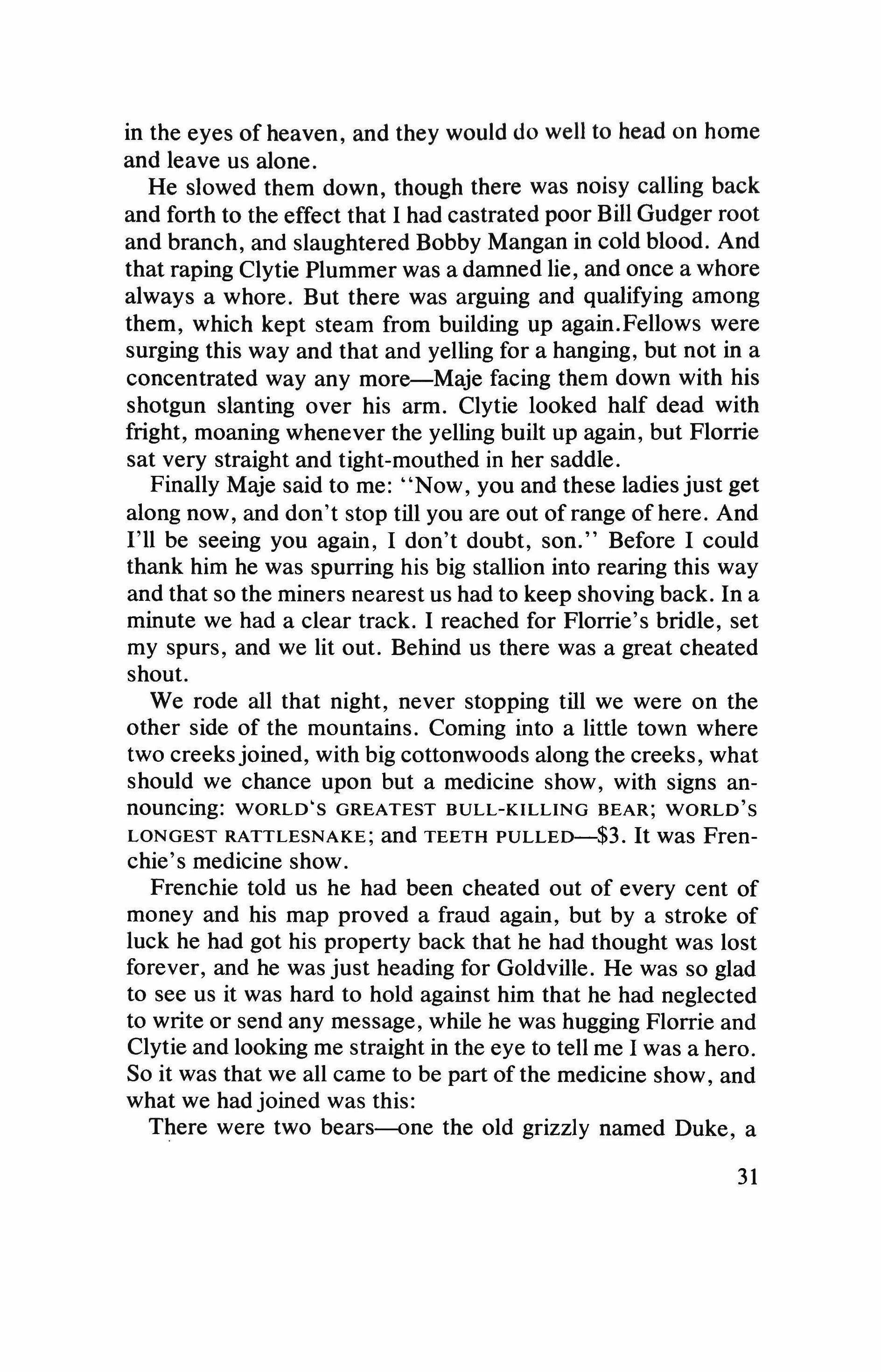
in the eyes of heaven, and they would do well to head on home and leave us alone.
He slowed them down, though there was noisy calling back and forth to the effect that I had castrated poor Bill Gudger root and branch, and slaughtered Bobby Mangan in cold blood. And that raping Clytie Plummer was a damned lie, and once a whore always a whore. But there was arguing and qualifying among them, which kept steam from building up again.Fellows were surging this way and that and yelling for a hanging, but not in a concentrated way any more-Maje facing them down with his shotgun slanting over his arm. Clytie looked half dead with fright, moaning whenever the yelling built up again, but Florrie sat very straight and tight-mouthed in her saddle.
Finally Maje said to me: "Now, you and these ladies just get along now, and don't stop till you are out of range of here. And I'll be seeing you again, I don't doubt, son." Before I could thank him he was spurring his big stallion into rearing this way and that so the miners nearest us had to keep shoving back. In a minute we had a clear track. I reached for Florrie's bridle, set my spurs, and we lit out. Behind us there was a great cheated shout.
We rode all that night, never stopping till we were on the other side of the mountains. Coming into a little town where two creeksjoined, with big cottonwoods along the creeks, what should we chance upon but a medicine show, with signs announcing: WORLD'S GREATEST BULL-KILLING BEAR; WORLD'S LONGEST RATTLESNAKE; and TEETH PULLED-$3. It was Frenchie's medicine show.
Frenchie told us he had been cheated out of every cent of money and his map proved a fraud again, but by a stroke of luck he had got his property back that he had thought was lost forever, and he was just heading for Goldville. He was so glad to see us it was hard to hold against him that he had neglected to write or send any message, while he was hugging Florrie and Clytie and looking me straight in the eye to tell me I was a hero. So it was that we all came to be part of the medicine show, and what we had joined was this:
There were two bears-s-one the old grizzly named Duke, a

shambling big fellow with pig eyes you couldn't see anything special about until you saw him climbing a bull, for they would put on a bull-and-bear fight whenever they struck a likely town for it. The other bear was a half-grown female named Betsy. They'd acquired her for Duke's pleasure, but he wouldn't have anything to do with her, seeming to hold himselfabove that sort of truck, they said. She was a very likable bear with a snouty black face that always had a smile on it. A greaser was teaching her to dance so she could earn her victuals, so to speak, since there'd been no call on her for what she'd been acquired for. The greaser would beat on a tambourine and Betsy would shuffle and turn this way and that with her paws held up in a comical way, but always pretty quick she would fall back on all fours and just twist her head from side to side. It would have been a fine thing if she could ever keep interested, but it just wasn't in her. The "world's longest rattlesnake" was a great fraud, a dead snake coiled up in some cloudy liquid so you couldn't make out how long it was at all, in a kind of museum with a stuffed owl and a stuffed hawk.
The greaser could play the mouth organ to make you almost cry, and there was a Gypsy fortune-teller named Carmen who wore an orange cloth on her head with two knots over her eyes, and rings on all her fingers. She would spit whenever she caught sight of Clytie, and when she quarreled with Frenchie, which was most of the time, she talked so fast you couldn't make out what language she was haranguing him in-English, gyp, or greaser. She walked in a queer, backward-leaning way with skirts that trailed on the ground while she took long, dipping steps, twisting around to peer over one shoulder or the other to see who was watching, and often jerking a hand with forked fingers before her face, if she caught somebody at it. Florrie took to her right away, and said she was all bark and no bite, but it was some time before I felt easy with her. She had a booth in one of the wagons all draped in dark cloth, with a phrenology chart on the wall and a crystal ball she kept wrapped in cloths-so it wouldn't take a chill, she told Florrie. She would bring the ball out and hunch over it, making motions with her hands and muttering to herself and sometimes jerking up the forked fingers, which meant she had seen some evil in
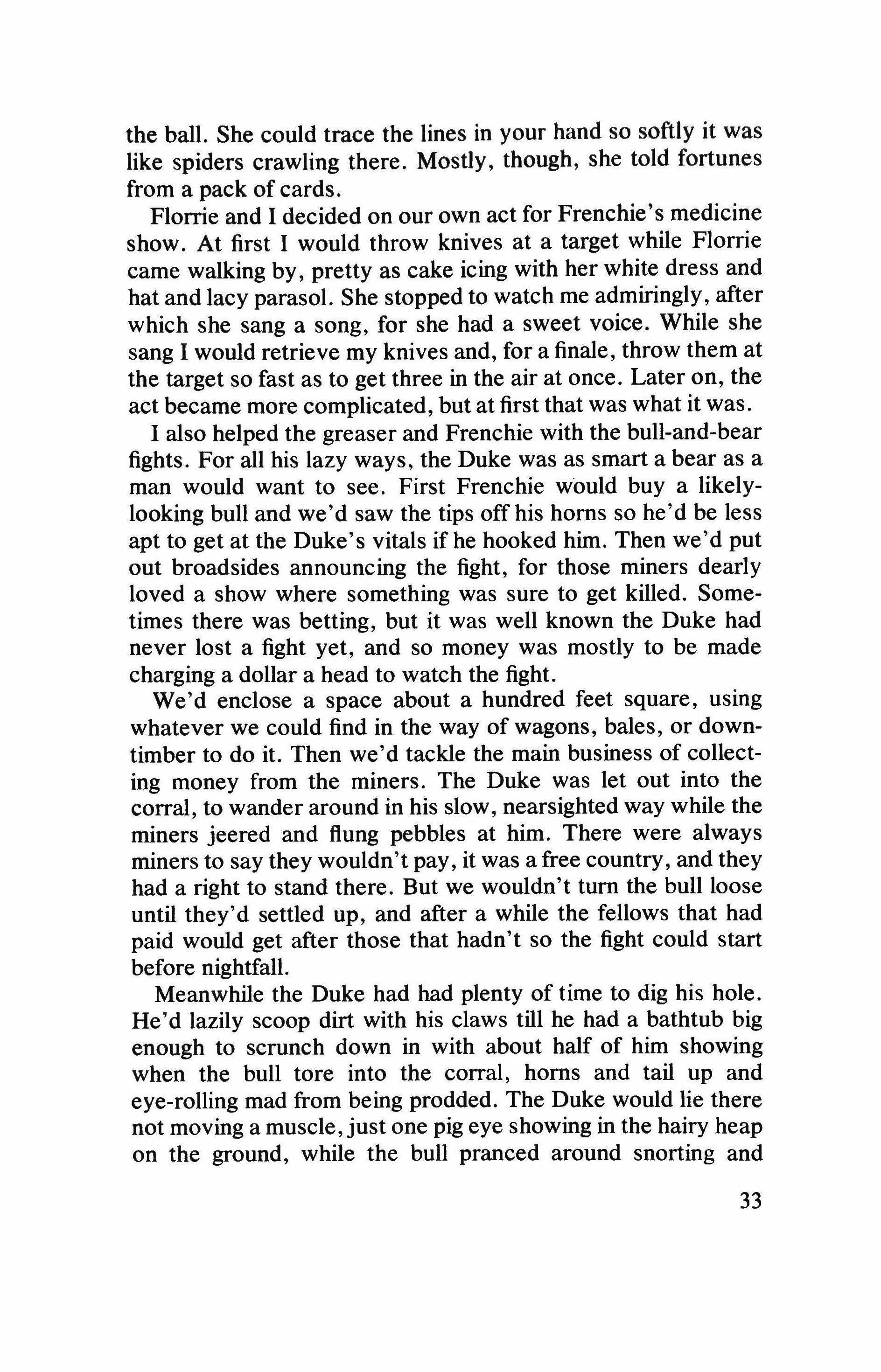
the ball. She could trace the lines in your hand so softly it was like spiders crawling there. Mostly, though, she told fortunes from a pack of cards.
Florrie and I decided on our own act for Frenchie' s medicine show. At first I would throw knives at a target while Florrie came walking by, pretty as cake icing with her white dress and hat and lacy parasol. She stopped to watch me admiringly, after which she sang a song, for she had a sweet voice. While she sang I would retrieve my knives and, for a finale, throw them at the target so fast as to get three in the air at once. Later on, the act became more complicated, but at first that was what it was.
I also helped the greaser and Frenchie with the bull-and-bear fights. For all his lazy ways, the Duke was as smart a bear as a man would want to see. First Frenchie would buy a Iikelylooking bull and we'd saw the tips off his horns so he'd be less apt to get at the Duke's vitals if he hooked him. Then we'd put out broadsides announcing the fight, for those miners dearly loved a show where something was sure to get killed. Sometimes there was betting, but it was well known the Duke had never lost a fight yet, and so money was mostly to be made charging a dollar a head to watch the fight.
We'd enclose a space about a hundred feet square, using whatever we could find in the way of wagons, bales, or downtimber to do it. Then we'd tackle the main business of collecting money from the miners. The Duke was let out into the corral, to wander around in his slow, nearsighted way while the miners jeered and flung pebbles at him. There were always miners to say they wouldn't pay, it was a free country, and they had a right to stand there. But we wouldn't tum the bull loose until they'd settled up, and after a while the fellows that had paid would get after those that hadn't so the fight could start before nightfall.
Meanwhile the Duke had had plenty of time to dig his hole. He'd lazily scoop dirt with his claws till he had a bathtub big enough to scrunch down in with about half of him showing when the bull tore into the corral, horns and tail up and eye-rolling mad from being prodded. The Duke would lie there not moving a muscle, just one pig eye showing in the hairy heap on the ground, while the bull pranced around snorting and
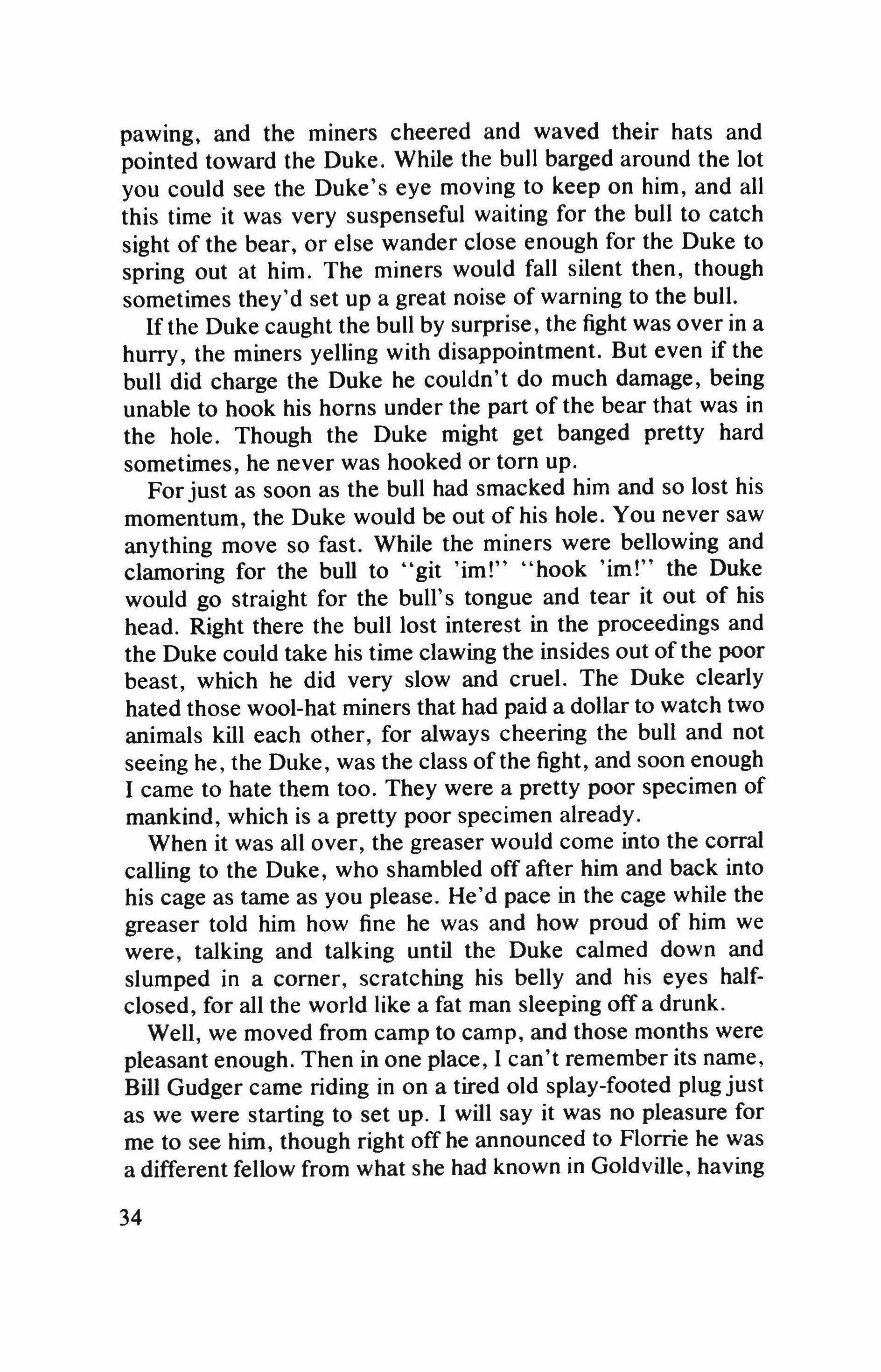
pawing, and the miners cheered and waved their hats and pointed toward the Duke. While the bull barged around the lot you could see the Duke's eye moving to keep on him, and all this time it was very suspenseful waiting for the bull to catch sight of the bear, or else wander close enough for the Duke to spring out at him. The miners would fall silent then, though sometimes they'd set up a great noise of warning to the bull.
If the Duke caught the bull by surprise, the fight was over in a hurry, the miners yelling with disappointment. But even if the bull did charge the Duke he couldn't do much damage, being unable to hook his horns under the part of the bear that was in the hole. Though the Duke might get banged pretty hard sometimes, he never was hooked or torn up.
For just as soon as the bull had smacked him and so lost his momentum, the Duke would be out of his hole. You never saw anything move so fast. While the miners were bellowing and clamoring for the bull to "git 'im!" "hook 'im!" the Duke would go straight for the bull's tongue and tear it out of his head. Right there the bull lost interest in the proceedings and the Duke could take his time clawing the insides out of the poor beast, which he did very slow and cruel. The Duke clearly hated those wool-hat miners that had paid a dollar to watch two animals kill each other, for always cheering the bull and not seeing he, the Duke, was the class ofthe fight, and soon enough I came to hate them too. They were a pretty poor specimen of mankind, which is a pretty poor specimen already.
When it was allover, the greaser would come into the corral calling to the Duke, who shambled off after him and back into his cage as tame as you please. He'd pace in the cage while the greaser told him how fine he was and how proud of him we were, talking and talking until the Duke calmed down and slumped in a corner, scratching his belly and his eyes halfclosed, for all the world like a fat man sleeping off a drunk.
Well, we moved from camp to camp, and those months were pleasant enough. Then in one place, I can't remember its name, Bill Gudger came riding in on a tired old splay-footed plugjust as we were starting to set up. I will say it was no pleasure for me to see him, though right off he announced to Florrie he was a different fellow from what she had known in Goldville, having
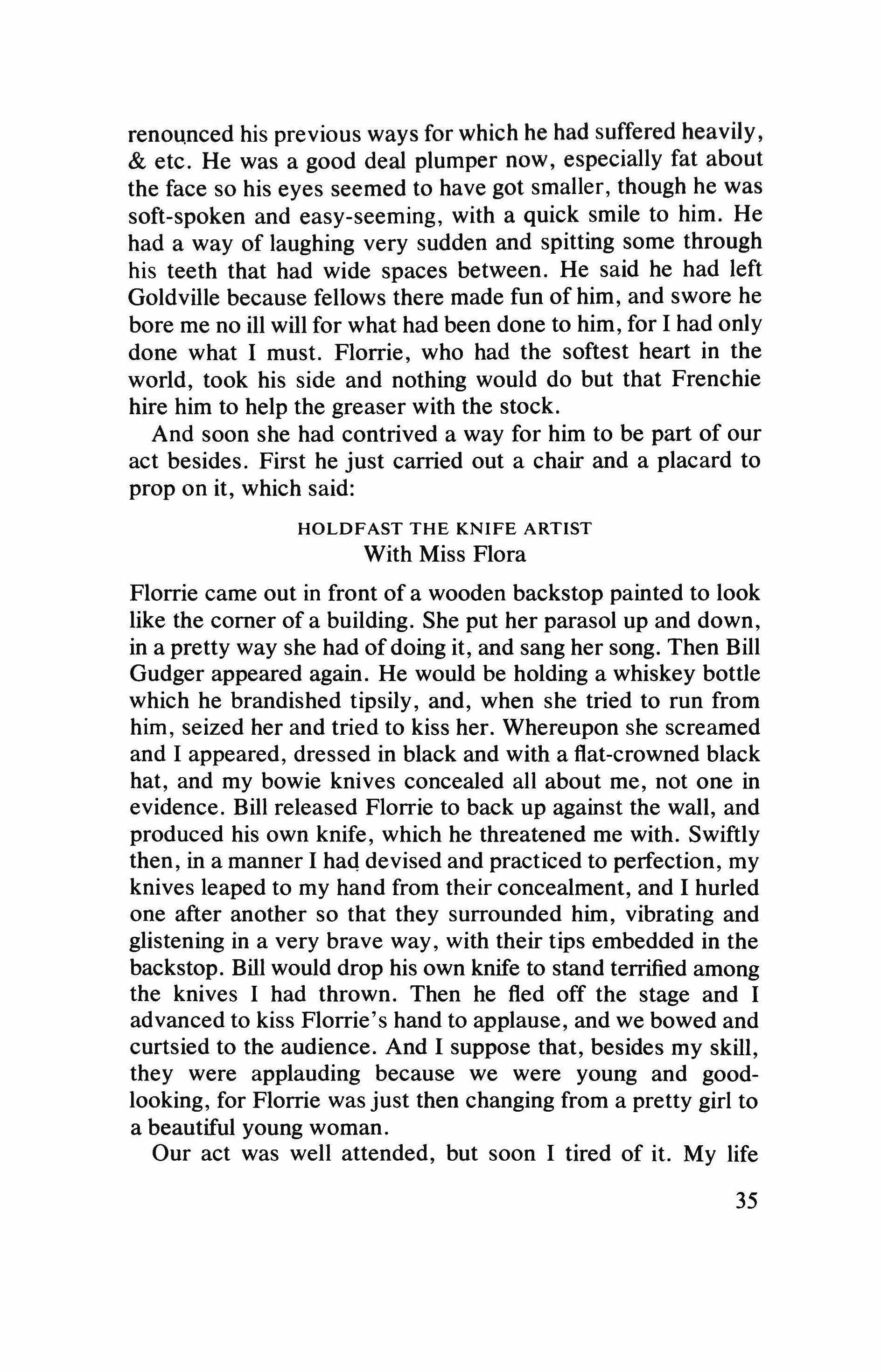
renounced his previous ways for which he had suffered heavily, & etc. He was a good deal plumper now, especially fat about the face so his eyes seemed to have got smaller, though he was soft-spoken and easy-seeming, with a quick smile to him. He had a way of laughing very sudden and spitting some through his teeth that had wide spaces between. He said he had left Goldville because fellows there made fun of him, and swore he bore me no ill will for what had been done to him, for I had only done what I must. Florrie, who had the softest heart in the world, took his side and nothing would do but that Frenchie hire him to help the greaser with the stock.
And soon she had contrived a way for him to be part of our act besides. First he just carried out a chair and a placard to prop on it, which said:
With Miss Flora
Florrie came out in front of a wooden backstop painted to look like the comer of a building. She put her parasol up and down, in a pretty way she had of doing it, and sang her song. Then Bill Gudger appeared again. He would be holding a whiskey bottle which he brandished tipsily, and, when she tried to run from him, seized her and tried to kiss her. Whereupon she screamed and I appeared, dressed in black and with a flat-crowned black hat, and my bowie knives concealed all about me, not one in evidence. Bill released Florrie to back up against the wall, and produced his own knife, which he threatened me with. Swiftly then, in a manner I had devised and practiced to perfection, my knives leaped to my hand from their concealment, and I hurled one after another so that they surrounded him, vibrating and glistening in a very brave way, with their tips embedded in the backstop. Bill would drop his own knife to stand terrified among the knives I had thrown. Then he fled off the stage and I advanced to kiss Florrie's hand to applause, and we bowed and curtsied to the audience. And I suppose that, besides my skill, they were applauding because we were young and goodlooking, for Florrie was just then changing from a pretty girl to a beautiful young woman.
Our act was well attended, but soon I tired of it. My life
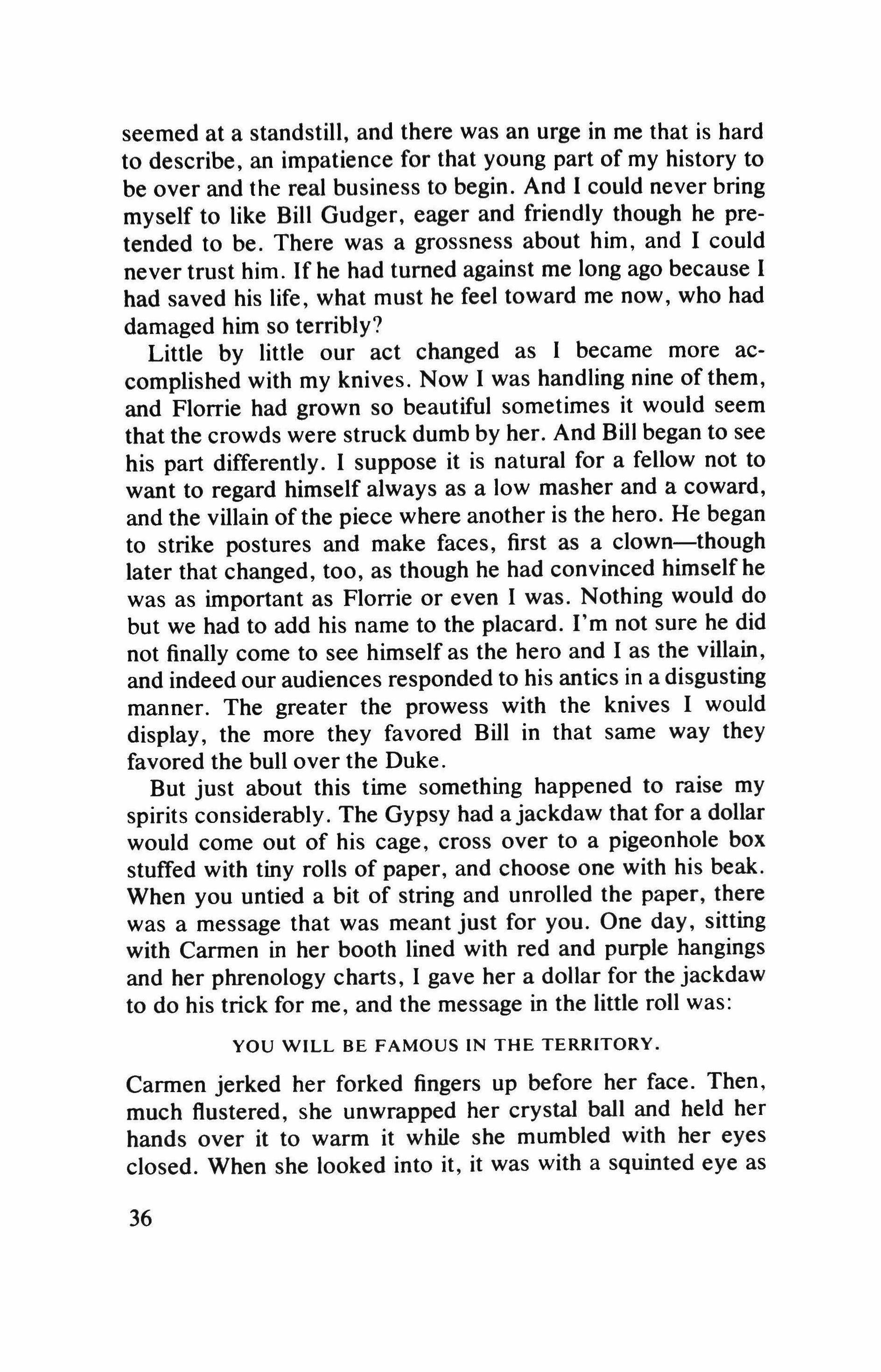
seemed at a standstill, and there was an urge in me that is hard to describe, an impatience for that young part of my history to be over and the real business to begin. And I could never bring myself to like Bill Gudger, eager and friendly though he pretended to be. There was a grossness about him, and I could never trust him. If he had turned against me long ago because I had saved his life, what must he feel toward me now, who had damaged him so terribly?
Little by little our act changed as I became more accomplished with my knives. Now I was handling nine of them, and Florrie had grown so beautiful sometimes it would seem that the crowds were struck dumb by her. And Bill began to see his part differently. I suppose it is natural for a fellow not to want to regard himself always as a low masher and a coward, and the villain of the piece where another is the hero. He began to strike postures and make faces, first as a clown-though later that changed, too, as though he had convinced himself he was as important as Florrie or even I was. Nothing would do but we had to add his name to the placard. I'm not sure he did not finally come to see himself as the hero and I as the villain, and indeed our audiences responded to his antics in a disgusting manner. The greater the prowess with the knives I would display, the more they favored Bill in that same way they favored the bull over the Duke.
But just about this time something happened to raise my spirits considerably. The Gypsy had a jackdaw that for a dollar would come out of his cage, cross over to a pigeonhole box stuffed with tiny rolls of paper, and choose one with his beak. When you untied a bit of string and unrolled the paper, there was a message that was meant just for you. One day, sitting with Carmen in her booth lined with red and purple hangings and her phrenology charts, I gave her a dollar for the jackdaw to do his trick for me, and the message in the little roll was:
YOU WILL BE FAMOUS IN THE TERRITORY.
Carmen jerked her forked fingers up before her face. Then, much flustered, she unwrapped her crystal ball and held her hands over it to warm it while she mumbled with her eyes closed. When she looked into it, it was with a squinted eye as
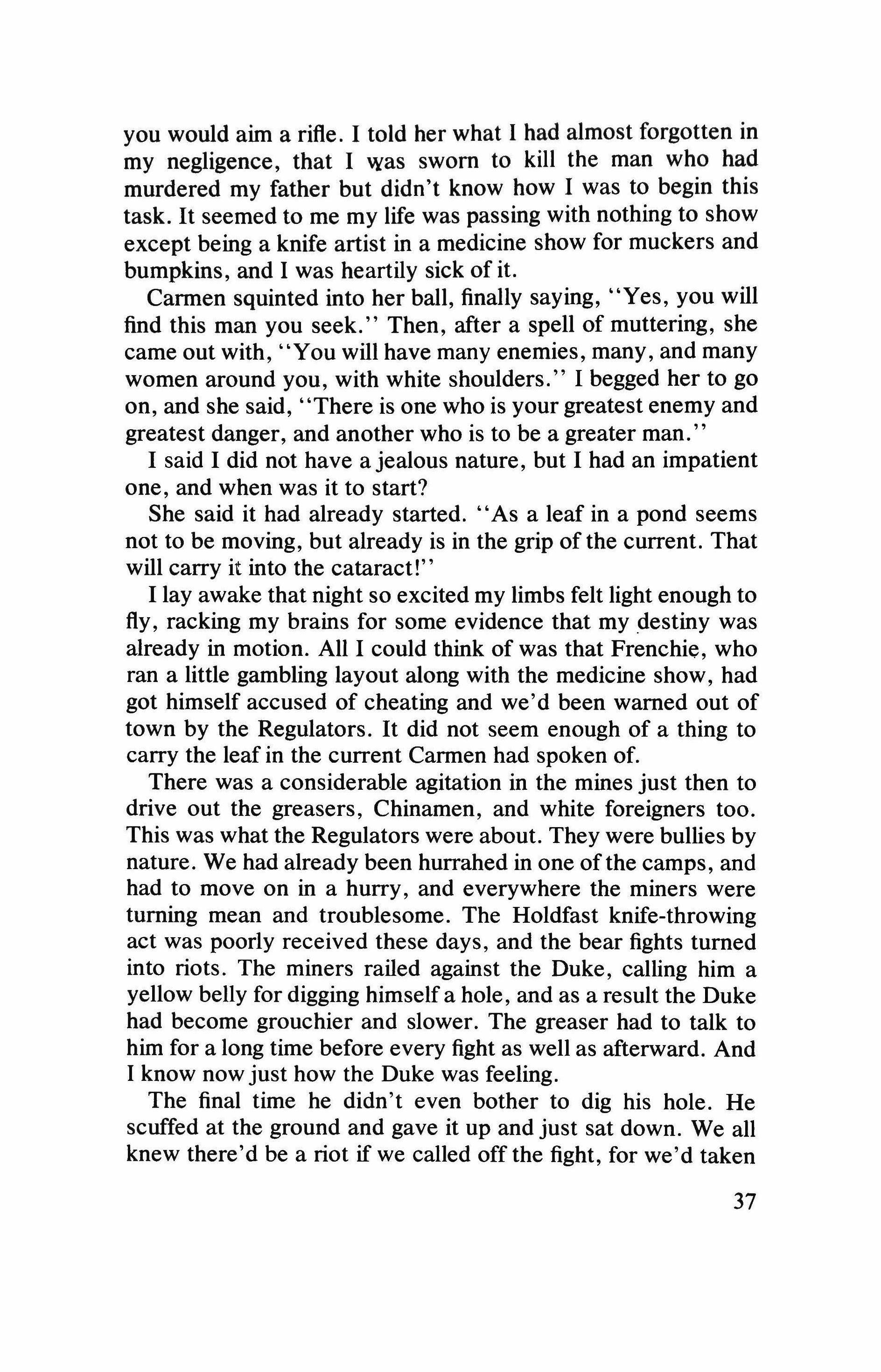
you would aim a rifle. I told her what I had almost forgotten in my negligence, that I was sworn to kill the man who had murdered my father but didn't know how I was to begin this task. It seemed to me my life was passing with nothing to show except being a knife artist in a medicine show for muckers and bumpkins, and I was heartily sick of it.
Carmen squinted into her ball, finally saying, "Yes, you will find this man you seek." Then, after a spell of muttering, she came out with, "You will have many enemies, many, and many women around you, with white shoulders." I begged her to go on, and she said, "There is one who is your greatest enemy and greatest danger, and another who is to be a greater man."
I said I did not have a jealous nature, but I had an impatient one, and when was it to start?
She said it had already started. "As a leaf in a pond seems not to be moving, but already is in the grip of the current. That will carry it into the cataract!"
I lay awake that night so excited my limbs felt light enough to fly, racking my brains for some evidence that my destiny was already in motion. All I could think of was that Frenchie, who ran a little gambling layout along with the medicine show, had got himself accused of cheating and we'd been warned out of town by the Regulators. It did not seem enough of a thing to carry the leaf in the current Carmen had spoken of.
There was a considerable agitation in the mines just then to drive out the greasers, Chinamen, and white foreigners too. This was what the Regulators were about. They were bullies by nature. We had already been hurrahed in one ofthe camps, and had to move on in a hurry, and everywhere the miners were turning mean and troublesome. The Holdfast knife-throwing act was poorly received these days, and the bear fights turned into riots. The miners railed against the Duke, calling him a yellow belly for digging himself a hole, and as a result the Duke had become grouchier and slower. The greaser had to talk to him for a long time before every fight as well as afterward. And I know now just how the Duke was feeling.
The final time he didn't even bother to dig his hole. He scuffed at the ground and gave it up and just sat down. We all knew there'd be a riot if we called off the fight, for we'd taken
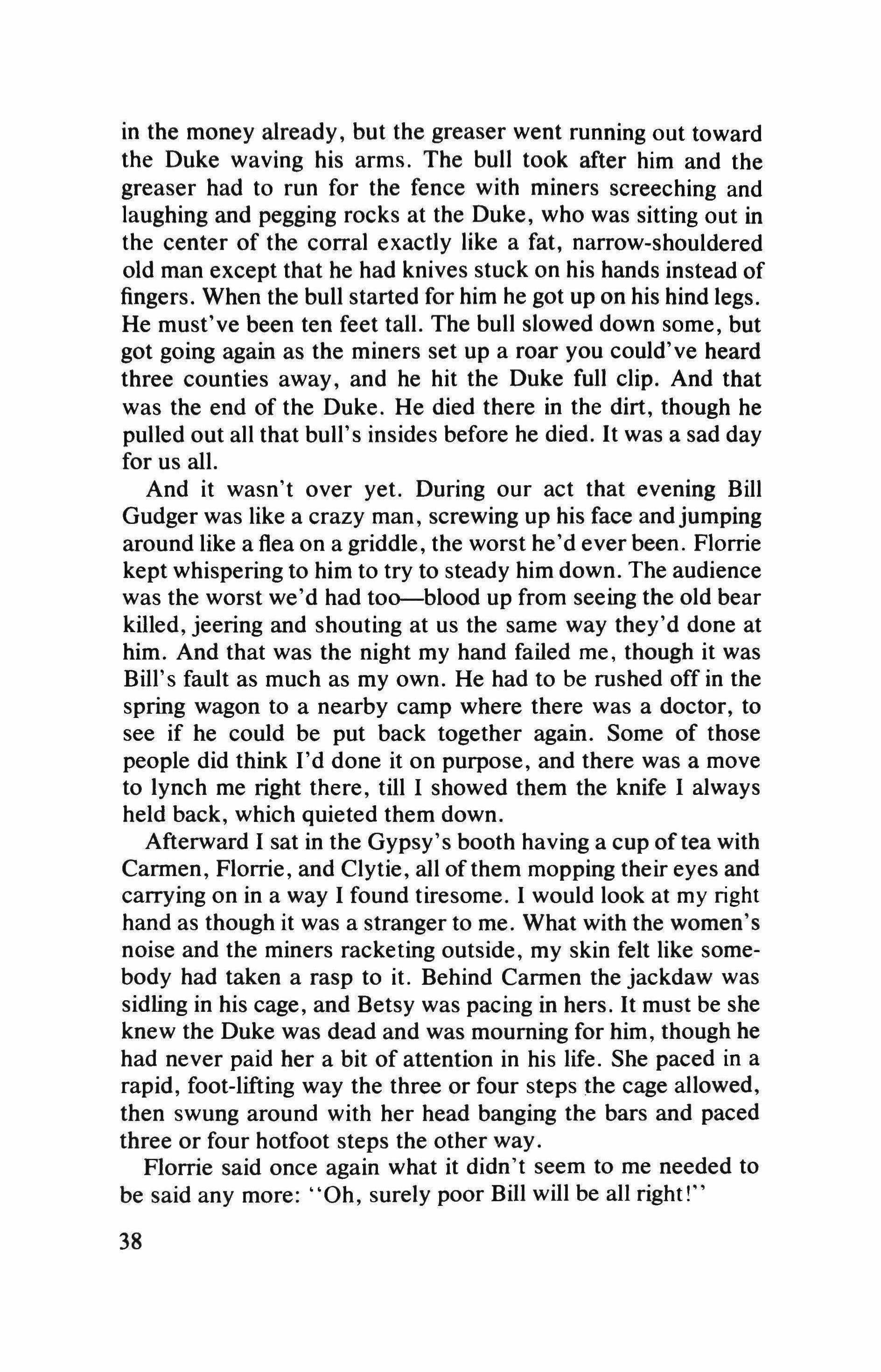
in the money already, but the greaser went running out toward the Duke waving his arms. The bull took after him and the greaser had to run for the fence with miners screeching and laughing and pegging rocks at the Duke, who was sitting out in the center of the corral exactly like a fat, narrow-shouldered old man except that he had knives stuck on his hands instead of fingers. When the bull started for him he got up on his hind legs. He must've been ten feet tall. The bull slowed down some, but got going again as the miners set up a roar you could've heard three counties away, and he hit the Duke full clip. And that was the end of the Duke. He died there in the dirt, though he pulled out all that bull's insides before he died. It was a sad day for us all.
And it wasn't over yet. During our act that evening Bill Gudger was like a crazy man, screwing up his face and jumping around like a flea on a griddle, the worst he'd ever been. Florrie kept whispering to him to try to steady him down. The audience was the worst we'd had too--blood up from seeing the old bear killed, jeering and shouting at us the same way they'd done at him. And that was the night my hand failed me, though it was Bill's fault as much as my own. He had to be rushed off in the spring wagon to a nearby camp where there was a doctor, to see if he could be put back together again. Some of those people did think I'd done it on purpose, and there was a move to lynch me right there, till I showed them the knife I always held back, which quieted them down.
Afterward I sat in the Gypsy's booth having a cup of tea with Carmen, Florrie, and Clytie, all of them mopping their eyes and carrying on in a way I found tiresome. I would look at my right hand as though it was a stranger to me. What with the women's noise and the miners racketing outside, my skin felt like somebody had taken a rasp to it. Behind Carmen the jackdaw was sidling in his cage, and Betsy was pacing in hers. It must be she knew the Duke was dead and was mourning for him, though he had never paid her a bit of attention in his life. She paced in a rapid, foot-lifting way the three or four steps the cage allowed, then swung around with her head banging the bars and paced three or four hotfoot steps the other way.
Florrie said once again what it didn't seem to me needed to be said any more: "Oh, surely poor Bill will be all right!"
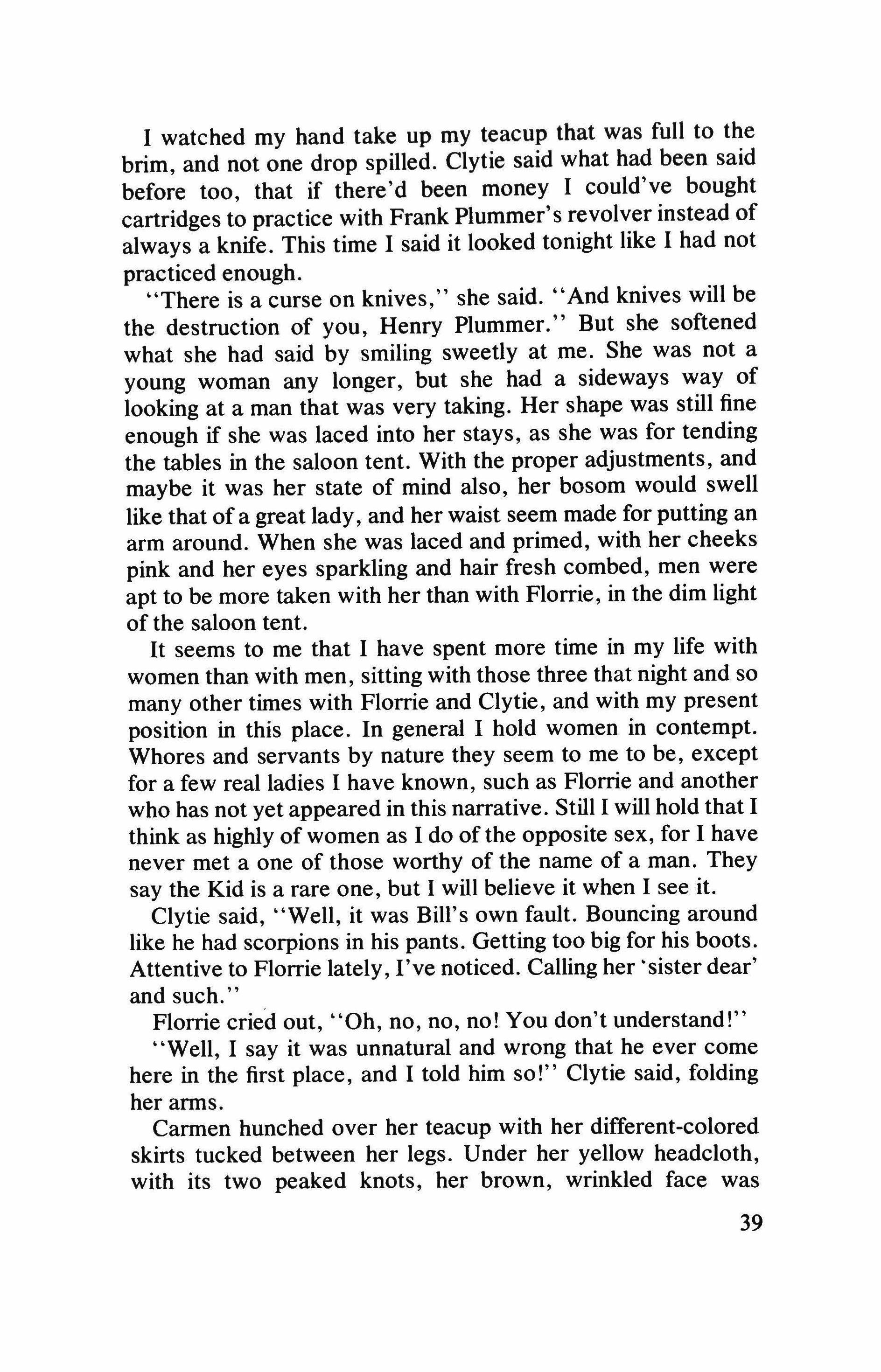
I watched my hand take up my teacup that was full to the brim, and not one drop spilled. Clytie said what had been said before too, that if there'd been money I could've bought cartridges to practice with Frank Plummer's revolver instead of always a knife. This time I said it looked tonight like I had not practiced enough.
"There is a curse on knives," she said. "And knives will be the destruction of you, Henry Plummer." But she softened what she had said by smiling sweetly at me. She was not a young woman any longer, but she had a sideways way of looking at a man that was very taking. Her shape was still fine enough if she was laced into her stays, as she was for tending the tables in the saloon tent. With the proper adjustments, and maybe it was her state of mind also, her bosom would swell like that of a great lady, and her waist seem made for putting an arm around. When she was laced and primed, with her cheeks pink and her eyes sparkling and hair fresh combed, men were apt to be more taken with her than with Florrie, in the dim light of the saloon tent.
H seems to me that I have spent more time in my life with women than with men, sitting with those three that night and so many other times with Florrie and Clytie, and with my present position in this place. In general I hold women in contempt. Whores and servants by nature they seem to me to be, except for a few real ladies I have known, such as Florrie and another who has not yet appeared in this narrative. Still I will hold that I think as highly of women as I do of the opposite sex, for I have never met a one of those worthy of the name of a man. They say the Kid is a rare one, but I will believe it when I see it.
Clytie said, "Well, it was Bill's own fault. Bouncing around like he had scorpions in his pants. Getting too big for his boots. Attentive to Florrie lately, I've noticed. Calling her sister dear' and such."
Florrie cried out, "Oh, no, no, no! You don't understand!"
"Well, I say it was unnatural and wrong that he ever come here in the first place, and I told him so!" Clytie said, folding her arms.
Carmen hunched over her teacup with her different-colored skirts tucked between her legs. Under her yellow headcloth, with its two peaked knots, her brown, wrinkled face was
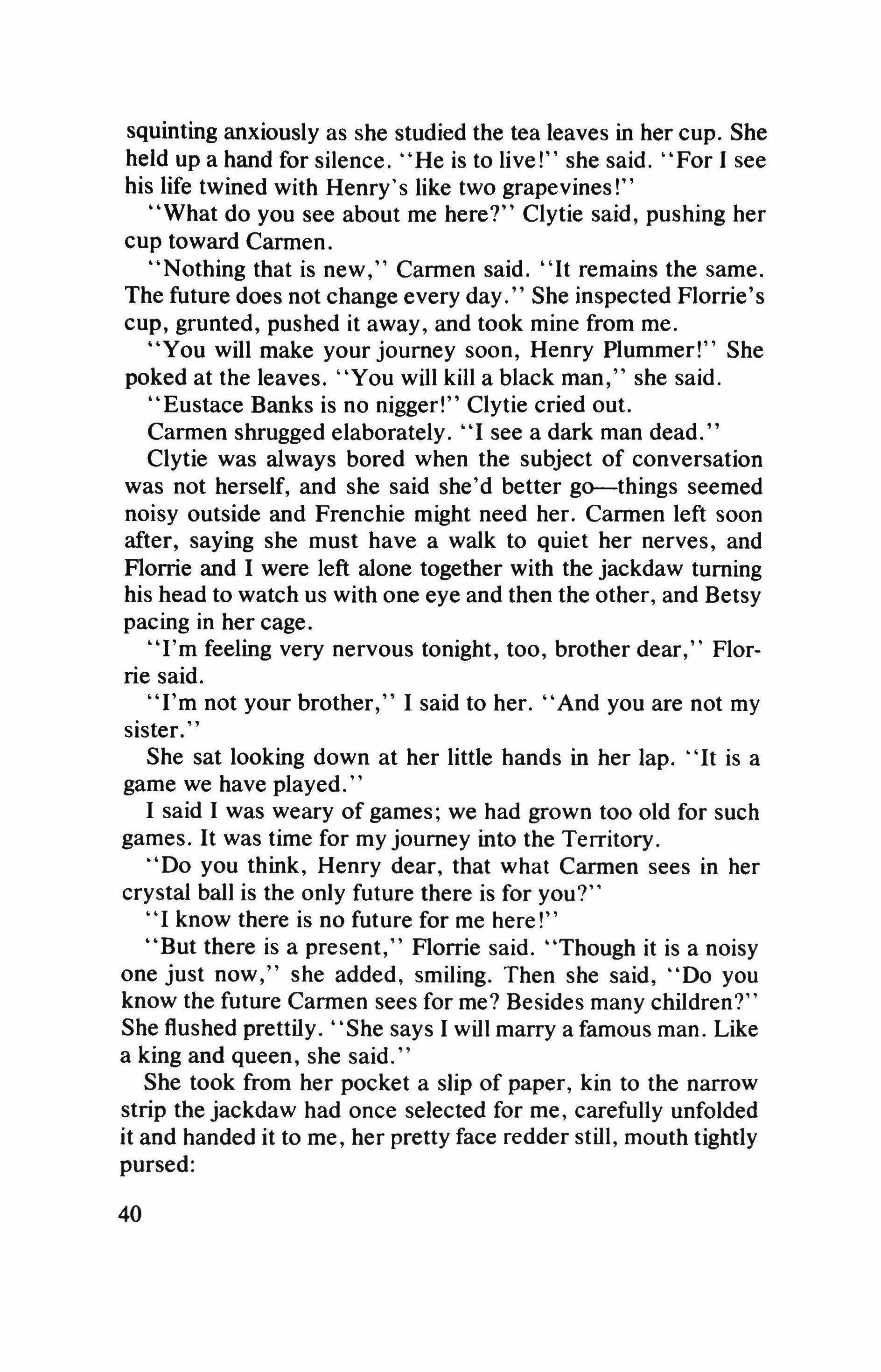
squinting anxiously as she studied the tea leaves in her cup. She held up a hand for silence. "He is to live!" she said. "For I see his life twined with Henry's like two grapevines!"
"What do you see about me here?" Clytie said, pushing her cup toward Carmen.
"Nothing that is new," Carmen said. "It remains the same. The future does not change every day. She inspected Florrie's cup, grunted, pushed it away, and took mine from me.
"You will make your journey soon, Henry Plummer!" She poked at the leaves. "You will kill a black man," she said.
"Eustace Banks is no nigger!" Clytie cried out.
Carmen shrugged elaborately. "I see a dark man dead."
Clytie was always bored when the subject of conversation was not herself, and she said she'd better go-things seemed noisy outside and Frenchie might need her. Carmen left soon after, saying she must have a walk to quiet her nerves, and Florrie and I were left alone together with the jackdaw turning his head to watch us with one eye and then the other, and Betsy pacing in her cage.
"I'm feeling very nervous tonight, too, brother dear," Florrie said.
''I'm not your brother," I said to her. "And you are not my sister.
She sat looking down at her little hands in her lap. "It is a game we have played.
I said I was weary of games; we had grown too old for such games. It was time for my journey into the Territory.
"Do you think, Henry dear, that what Carmen sees in her crystal ball is the only future there is for you?"
"I know there is no future for me here!"
"But there is a present," Florrie said. "Though it is a noisy one just now," she added, smiling. Then she said, "Do you know the future Carmen sees for me? Besides many children?" She flushed prettily. "She says I will marry a famous man. Like a king and queen, she said."
She took from her pocket a slip of paper, kin to the narrow strip the jackdaw had once selected for me, carefully unfolded it and handed it to me, her pretty face redder still, mouth tightly pursed:
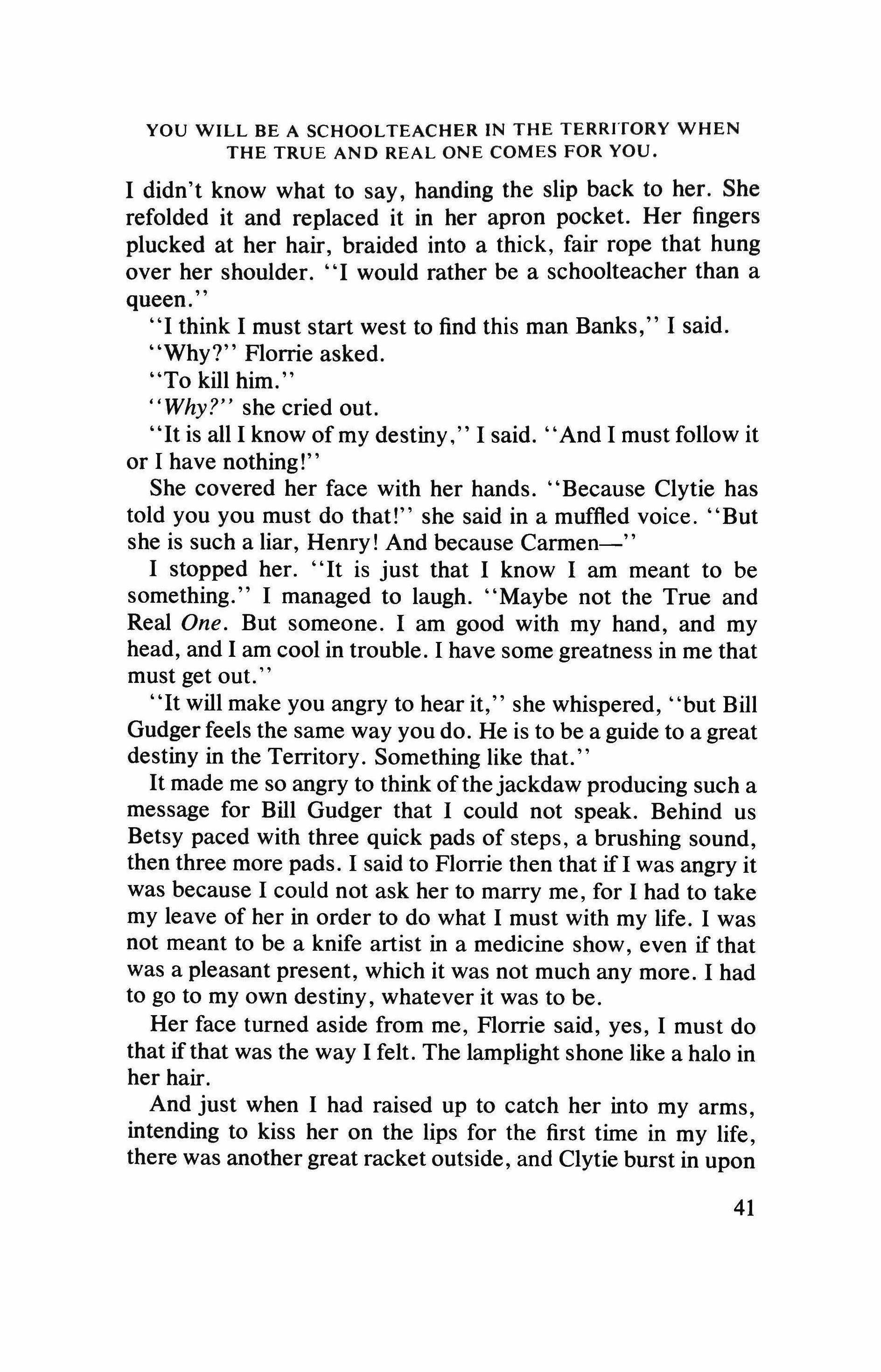
YOU WILL BE A SCHOOLTEACHER IN THE TERRITORY WHEN THE TRUE AND REAL ONE COMES FOR YOU.
I didn't know what to say, handing the slip back to her. She refolded it and replaced it in her apron pocket. Her fingers plucked at her hair, braided into a thick, fair rope that hung over her shoulder. "I would rather be a schoolteacher than a queen."
"I think I must start west to find this man Banks," I said.
"Why?" Florrie asked.
"To kill him."
"Why?" she cried out.
It is all I know of my destiny," I said..•And I must follow it or I have nothing!"
She covered her face with her hands. "Because Clytie has told you you must do that!" she said in a muffled voice. "But she is such a liar, Henry! And because Carmen-"
I stopped her. "It is just that I know I am meant to be something." I managed to laugh. "Maybe not the True and Real One. But someone. I am good with my hand, and my head, and I am cool in trouble. I have some greatness in me that must get out.
"It will make you angry to hear it," she whispered, "but Bill Gudger feels the same way you do. He is to be a guide to a great destiny in the Territory. Something like that."
It made me so angry to think ofthejackdaw producing such a message for Bill Gudger that I could not speak. Behind us Betsy paced with three quick pads of steps, a brushing sound, then three more pads. I said to Florrie then that if I was angry it was because I could not ask her to marry me, for I had to take my leave of her in order to do what I must with my life. I was not meant to be a knife artist in a medicine show, even if that was a pleasant present, which it was not much any more. I had to go to my own destiny, whatever it was to be.
Her face turned aside from me, Florrie said, yes, I must do that if that was the way I felt. The lamplight shone like a halo in her hair.
And just when I had raised up to catch her into my arms, intending to kiss her on the lips for the first time in my life, there was another great racket outside, and Clytie burst in upon
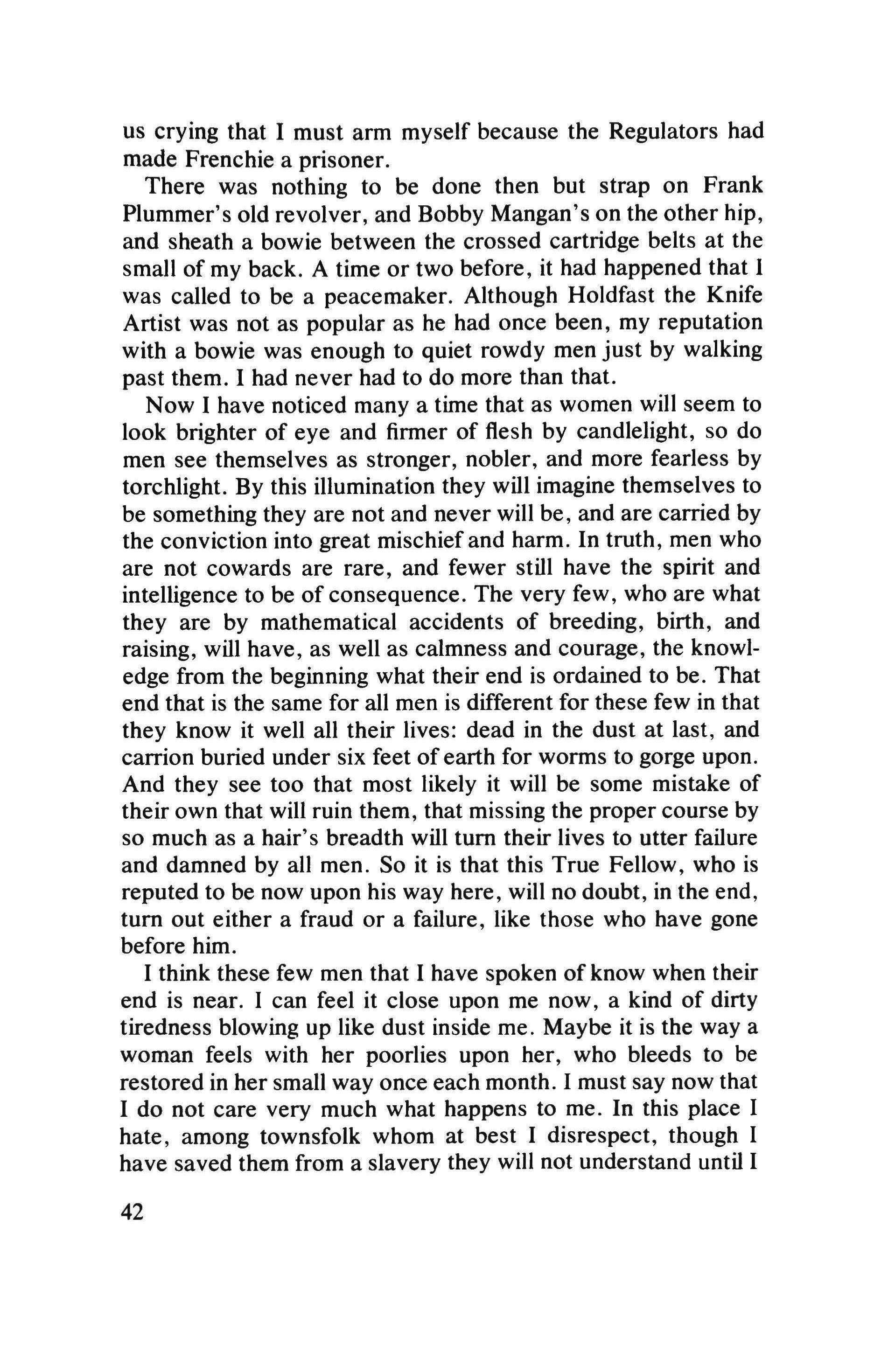
us crying that I must arm myself because the Regulators had made Frenchie a prisoner.
There was nothing to be done then but strap on Frank Plummer's old revolver, and Bobby Mangan's on the other hip, and sheath a bowie between the crossed cartridge belts at the small of my back. A time or two before, it had happened that I was called to be a peacemaker. Although Holdfast the Knife Artist was not as popular as he had once been, my reputation with a bowie was enough to quiet rowdy men just by walking past them. I had never had to do more than that.
Now I have noticed many a time that as women will seem to look brighter of eye and firmer of flesh by candlelight, so do men see themselves as stronger, nobler, and more fearless by torchlight. By this illumination they will imagine themselves to be something they are not and never will be, and are carried by the conviction into great mischief and harm. In truth, men who are not cowards are rare, and fewer still have the spirit and intelligence to be of consequence. The very few, who are what they are by mathematical accidents of breeding, birth, and raising, will have, as well as calmness and courage, the knowledge from the beginning what their end is ordained to be. That end that is the same for all men is different for these few in that they know it well all their lives: dead in the dust at last, and carrion buried under six feet of earth for worms to gorge upon. And they see too that most likely it will be some mistake of their own that will ruin them, that missing the proper course by so much as a hair's breadth will turn their lives to utter failure and damned by all men. So it is that this True Fellow, who is reputed to be now upon his way here, will no doubt, in the end, turn out either a fraud or a failure, like those who have gone before him.
I think these few men that I have spoken of know when their end is near. I can feel it close upon me now, a kind of dirty tiredness blowing up like dust inside me. Maybe it is the way a woman feels with her poorlies upon her, who bleeds to be restored in her small way once each month. I must say now that I do not care very much what happens to me. In this place I hate, among townsfolk whom at best I disrespect, though I have saved them from a slavery they will not understand until I
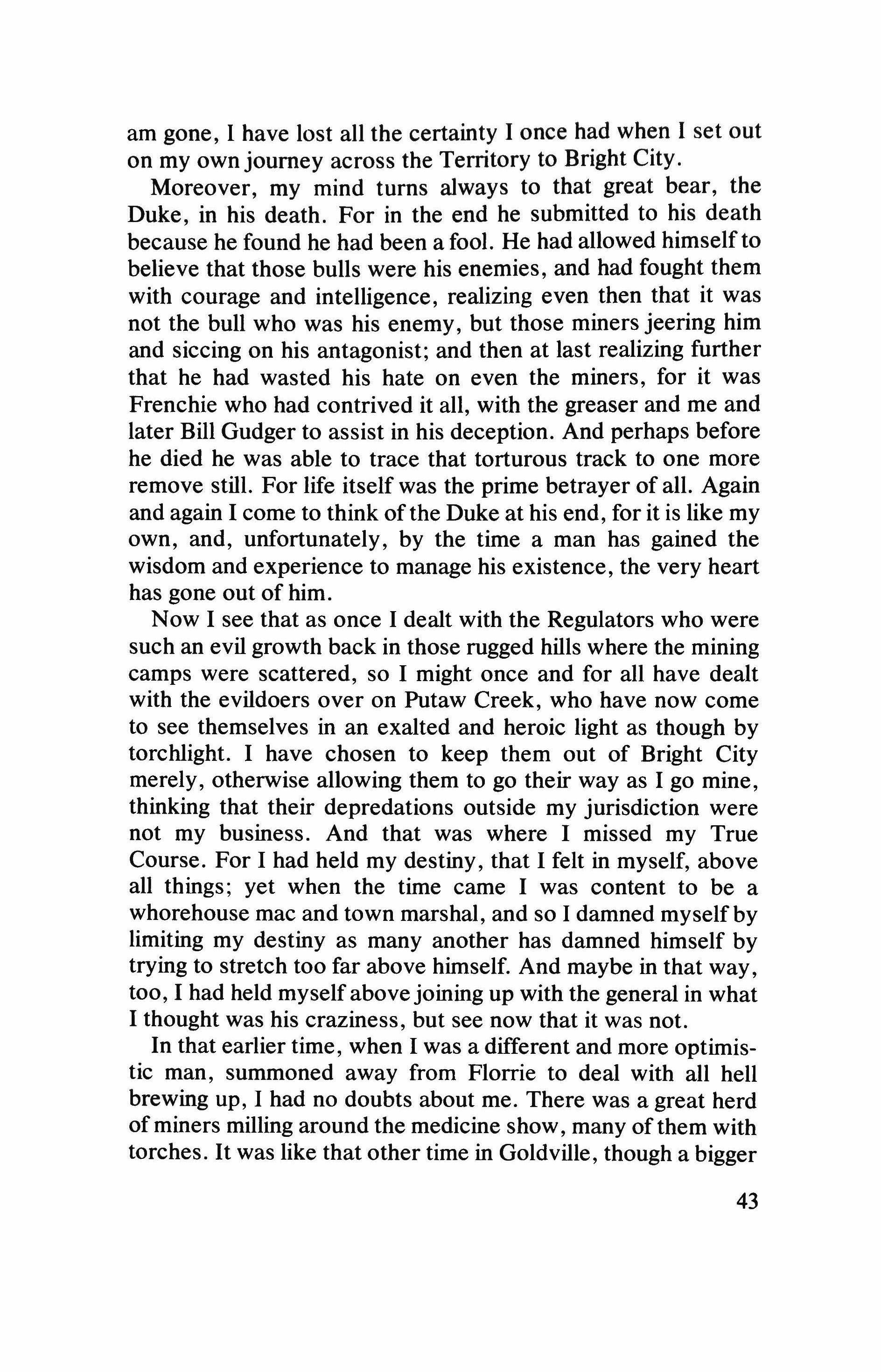
am gone, I have lost all the certainty I once had when I set out on my own journey across the Territory to Bright City.
Moreover, my mind turns always to that great bear, the Duke, in his death. For in the end he submitted to his death because he found he had been a fool. He had allowed himself to believe that those bulls were his enemies, and had fought them with courage and intelligence, realizing even then that it was not the bull who was his enemy, but those miners jeering him and siccing on his antagonist; and then at last realizing further that he had wasted his hate on even the miners, for it was Frenchie who had contrived it all, with the greaser and me and later Bill Gudger to assist in his deception. And perhaps before he died he was able to trace that torturous track to one more remove still. For life itself was the prime betrayer of all. Again and again I come to think of the Duke at his end, for it is like my own, and, unfortunately, by the time a man has gained the wisdom and experience to manage his existence, the very heart has gone out of him.
Now I see that as once I dealt with the Regulators who were such an evil growth back in those rugged hills where the mining camps were scattered, so I might once and for all have dealt with the evildoers over on Putaw Creek, who have now come to see themselves in an exalted and heroic light as though by torchlight. I have chosen to keep them out of Bright City merely, otherwise allowing them to go their way as I go mine, thinking that their depredations outside my jurisdiction were not my business. And that was where I missed my True Course. For I had held my destiny, that I felt in myself, above all things; yet when the time came I was content to be a whorehouse mac and town marshal, and so I damned myselfby limiting my destiny as many another has damned himself by trying to stretch too far above himself. And maybe in that way, too, I had held myself abovejoining up with the general in what I thought was his craziness, but see now that it was not.
In that earlier time, when I was a different and more optimistic man, summoned away from Florrie to deal with all hell brewing up, I had no doubts about me. There was a great herd of miners milling around the medicine show, many of them with torches. It was like that other time in Goldville, though a bigger
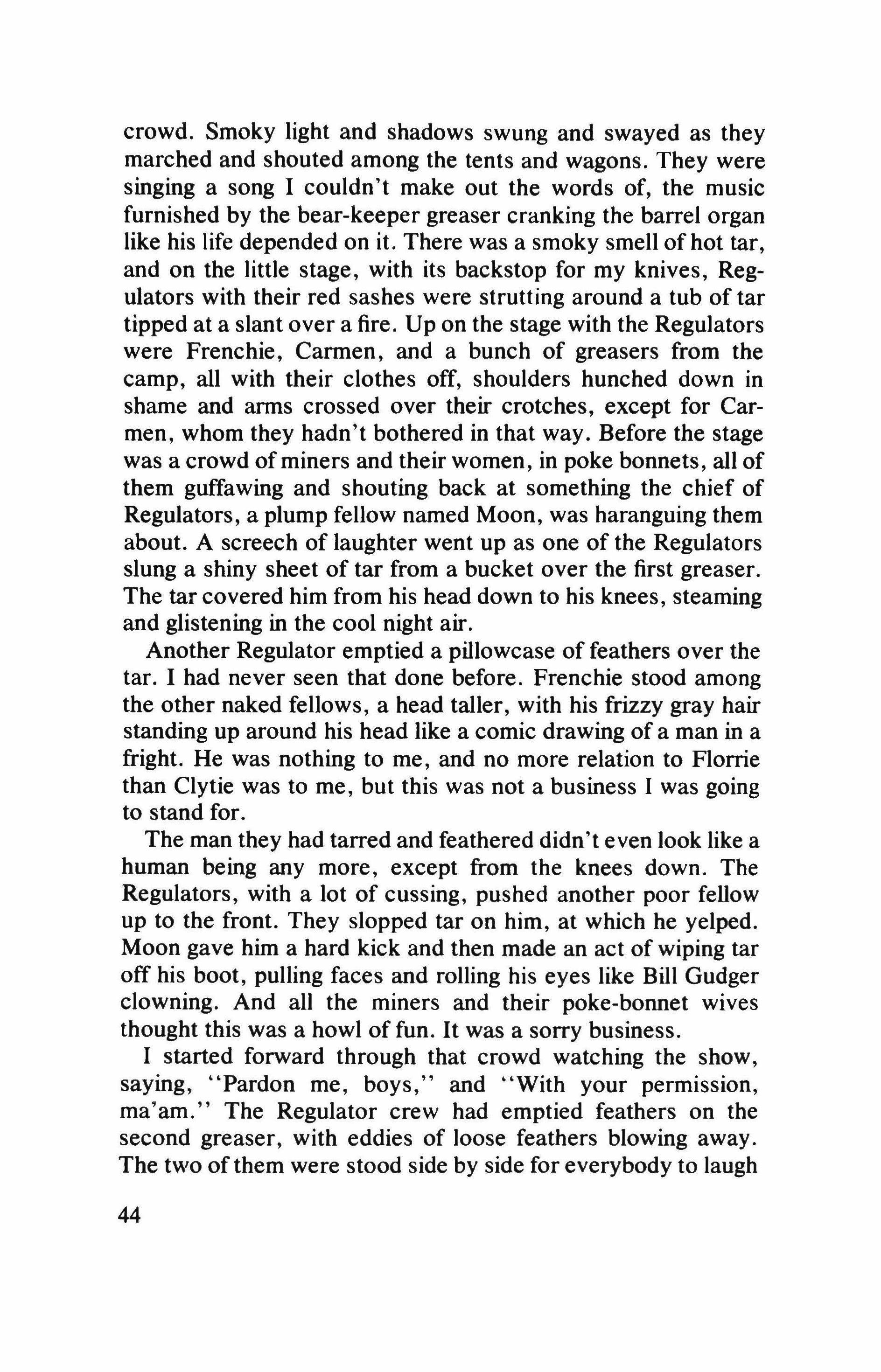
crowd. Smoky light and shadows swung and swayed as they marched and shouted among the tents and wagons. They were singing a song I couldn't make out the words of, the music furnished by the bear-keeper greaser cranking the barrel organ like his life depended on it. There was a smoky smell of hot tar, and on the little stage, with its backstop for my knives, Regulators with their red sashes were strutting around a tub of tar tipped at a slant over a fire. Up on the stage with the Regulators were Frenchie, Carmen, and a bunch of greasers from the camp, all with their clothes off, shoulders hunched down in shame and arms crossed over their crotches, except for Carmen, whom they hadn't bothered in that way. Before the stage was a crowd of miners and their women, in poke bonnets, all of them guffawing and shouting back at something the chief of Regulators, a plump fellow named Moon, was haranguing them about. A screech of laughter went up as one of the Regulators slung a shiny sheet of tar from a bucket over the first greaser. The tar covered him from his head down to his knees, steaming and glistening in the cool night air.
Another Regulator emptied a pillowcase of feathers over the tar. I had never seen that done before. Frenchie stood among the other naked fellows, a head taller, with his frizzy gray hair standing up around his head like a comic drawing of a man in a fright. He was nothing to me, and no more relation to Florrie than Clytie was to me, but this was not a business I was going to stand for.
The man they had tarred and feathered didn't even look like a human being any more, except from the knees down. The Regulators, with a lot of cussing, pushed another poor fellow up to the front. They slopped tar on him, at which he yelped. Moon gave him a hard kick and then made an act of wiping tar off his boot, pulling faces and rolling his eyes like Bill Gudger clowning. And all the miners and their poke-bonnet wives thought this was a howl of fun. It was a sorry business.
I started forward through that crowd watching the show, saying, "Pardon me, boys," and "With your permission, ma'am." The Regulator crew had emptied feathers on the second greaser, with eddies of loose feathers blowing away. The two of them were stood side by side for everybody to laugh
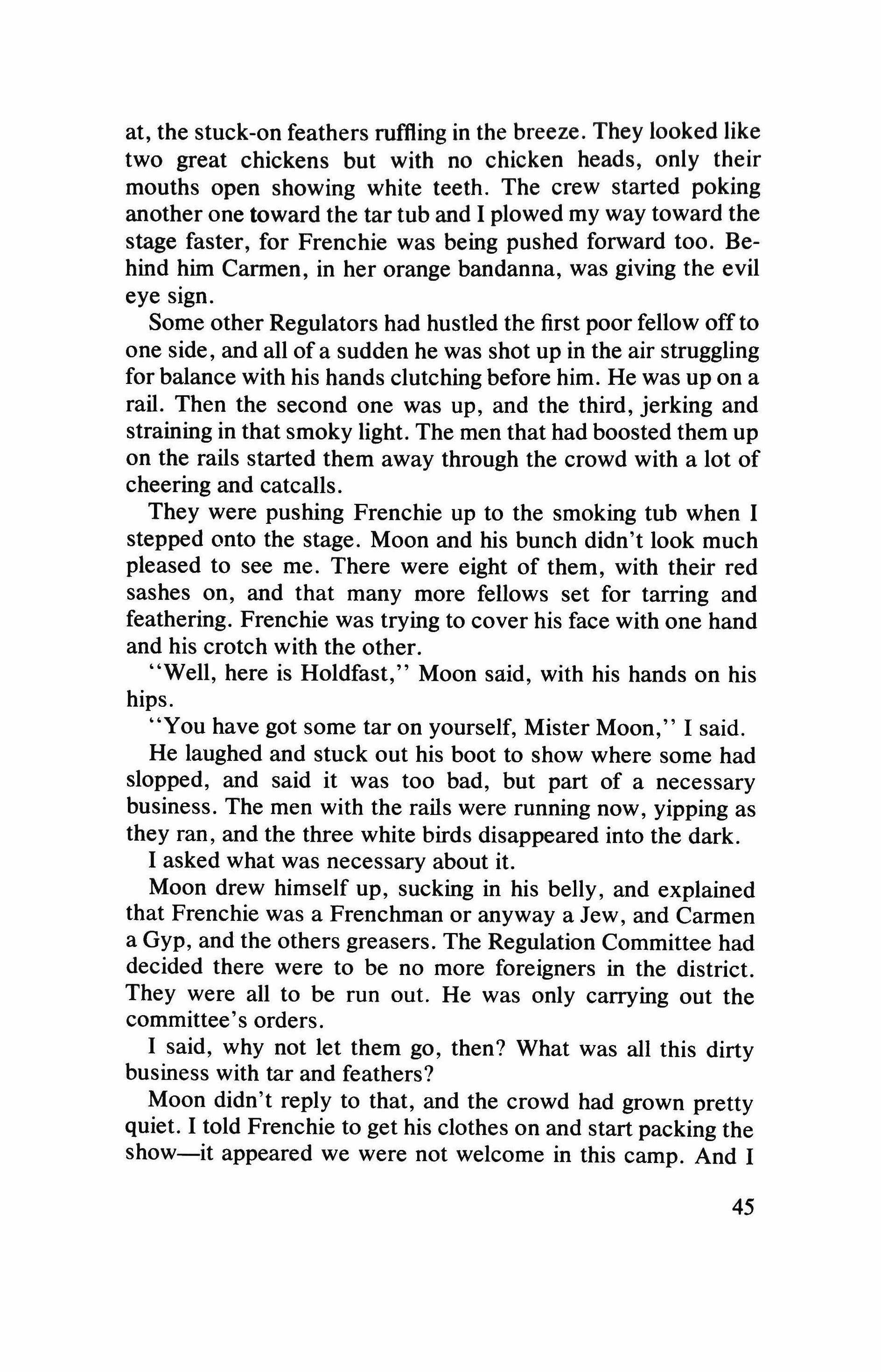
at, the stuck-on feathers ruffling in the breeze. They looked like two great chickens but with no chicken heads, only their mouths open showing white teeth. The crew started poking another one toward the tar tub and I plowed my way toward the stage faster, for Frenchie was being pushed forward too. Behind him Carmen, in her orange bandanna, was giving the evil eye sign.
Some other Regulators had hustled the first poor fellow off to one side, and all of a sudden he was shot up in the air struggling for balance with his hands clutching before him. He was up on a rail. Then the second one was up, and the third, jerking and straining in that smoky light. The men that had boosted them up on the rails started them away through the crowd with a lot of cheering and catcalls.
They were pushing Frenchie up to the smoking tub when I stepped onto the stage. Moon and his bunch didn't look much pleased to see me. There were eight of them, with their red sashes on, and that many more fellows set for tarring and feathering. Frenchie was trying to cover his face with one hand and his crotch with the other.
"Well, here is Holdfast," Moon said, with his hands on his hips.
"You have got some tar on yourself, Mister Moon," I said. He laughed and stuck out his boot to show where some had slopped, and said it was too bad, but part of a necessary business. The men with the rails were running now, yipping as they ran, and the three white birds disappeared into the dark.
I asked what was necessary about it.
Moon drew himself up, sucking in his belly, and explained that Frenchie was a Frenchman or anyway a Jew, and Carmen a Gyp, and the others greasers. The Regulation Committee had decided there were to be no more foreigners in the district. They were all to be run out. He was only carrying out the committee's orders.
I said, why not let them go, then? What was all this dirty business with tar and feathers?
Moon didn't reply to that, and the crowd had grown pretty quiet. I told Frenchie to get his clothes on and start packing the show-it appeared we were not welcome in this camp. And I
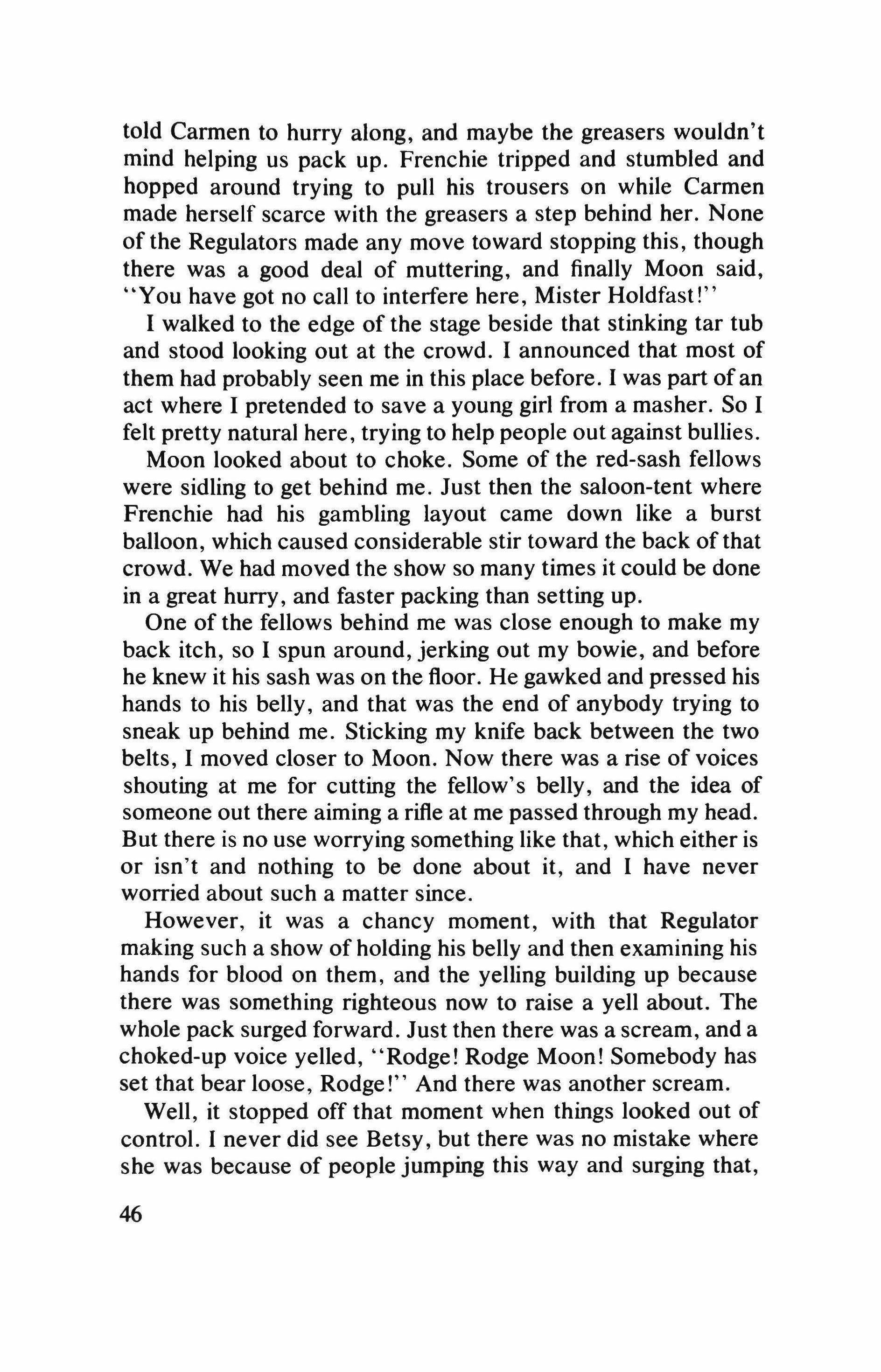
told Carmen to hurry along, and maybe the greasers wouldn't mind helping us pack up. Frenchie tripped and stumbled and hopped around trying to pull his trousers on while Carmen made herself scarce with the greasers a step behind her. None of the Regulators made any move toward stopping this, though there was a good deal of muttering, and finally Moon said, "You have got no call to interfere here, Mister Holdfast!"
I walked to the edge of the stage beside that stinking tar tub and stood looking out at the crowd. I announced that most of them had probably seen me in this place before. I was part of an act where I pretended to save a young girl from a masher. So I felt pretty natural here, trying to help people out against bullies.
Moon looked about to choke. Some of the red-sash fellows were sidling to get behind me. Just then the saloon-tent where Frenchie had his gambling layout came down like a burst balloon, which caused considerable stir toward the back of that crowd. We had moved the show so many times it could be done in a great hurry, and faster packing than setting up.
One of the fellows behind me was close enough to make my back itch, so I spun around, jerking out my bowie, and before he knew it his sash was on the floor. He gawked and pressed his hands to his belly, and that was the end of anybody trying to sneak up behind me. Sticking my knife back between the two belts, I moved closer to Moon. Now there was a rise of voices shouting at me for cutting the fellow's belly, and the idea of someone out there aiming a rifle at me passed through my head. But there is no use worrying something like that, which either is or isn't and nothing to be done about it, and I have never worried about such a matter since.
However, it was a chancy moment, with that Regulator making such a show of holding his belly and then examining his hands for blood on them, and the yelling building up because there was something righteous now to raise a yell about. The whole pack surged forward. Just then there was a scream, and a choked-up voice yelled, "Rodge! Rodge Moon! Somebody has set that bear loose, Rodge!" And there was another scream.
Well, it stopped off that moment when things looked out of control. I never did see Betsy, but there was no mistake where she was because of people jumping this way and surging that,
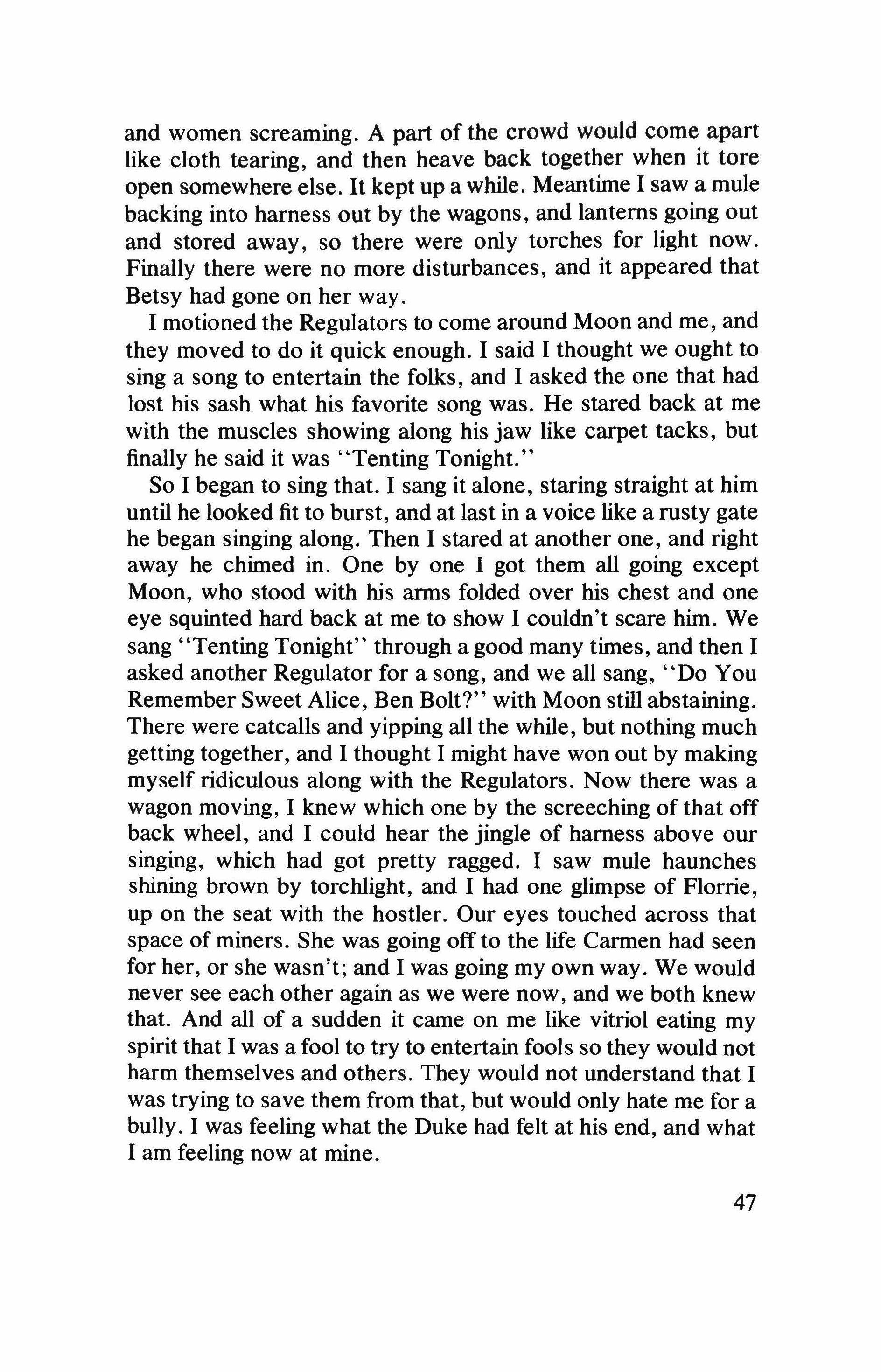
and women screaming. A part of the crowd would come apart like cloth tearing, and then heave back together when it tore open somewhere else. It kept up a while. Meantime I saw a mule backing into harness out by the wagons, and lanterns going out and stored away, so there were only torches for light now. Finally there were no more disturbances, and it appeared that Betsy had gone on her way.
I motioned the Regulators to come around Moon and me, and they moved to do it quick enough. I said I thought we ought to sing a song to entertain the folks, and I asked the one that had lost his sash what his favorite song was. He stared back at me with the muscles showing along his jaw like carpet tacks, but finally he said it was "Tenting Tonight."
So I began to sing that. I sang it alone, staring straight at him until he looked fit to burst, and at last in a voice like a rusty gate he began singing along. Then I stared at another one, and right away he chimed in. One by one I got them all going except Moon, who stood with his arms folded over his chest and one eye squinted hard back at me to show I couldn't scare him. We sang "Tenting Tonight" through a good many times, and then I asked another Regulator for a song, and we all sang, "Do You Remember Sweet Alice, Ben Bolt?" with Moon still abstaining. There were catcalls and yipping all the while, but nothing much getting together, and I thought I might have won out by making myself ridiculous along with the Regulators. Now there was a wagon moving, I knew which one by the screeching of that off back wheel, and I could hear the jingle of harness above our singing, which had got pretty ragged. I saw mule haunches shining brown by torchlight, and I had one glimpse of Florrie, up on the seat with the hostler. Our eyes touched across that space of miners. She was going off to the life Carmen had seen for her, or she wasn't; and I was going my own way. We would never see each other again as we were now, and we both knew that. And all of a sudden it came on me like vitriol eating my spirit that I was a fool to try to entertain fools so they would not harm themselves and others. They would not understand that I was trying to save them from that, but would only hate me for a bully. I was feeling what the Duke had felt at his end, and what I am feeling now at mine.
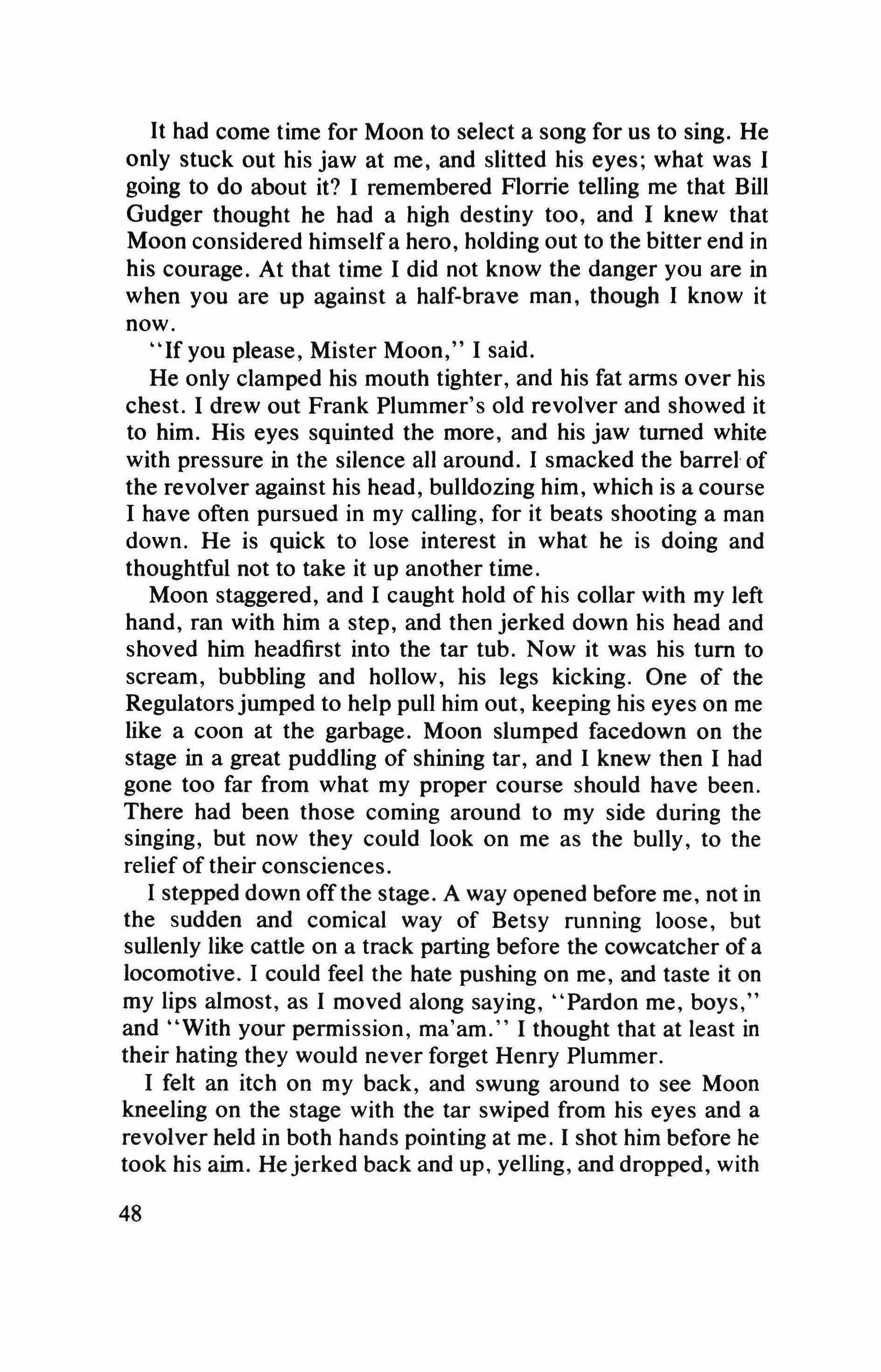
It had come time for Moon to select a song for us to sing. He only stuck out his jaw at me, and slitted his eyes; what was I going to do about it? I remembered Florrie telling me that Bill Gudger thought he had a high destiny too, and I knew that Moon considered himself a hero, holding out to the bitter end in his courage. At that time I did not know the danger you are in when you are up against a half-brave man, though I know it now.
"If you please, Mister Moon," I said.
He only clamped his mouth tighter, and his fat arms over his chest. I drew out Frank Plummer's old revolver and showed it to him. His eyes squinted the more, and his jaw turned white with pressure in the silence all around. I smacked the barrel of the revolver against his head, bulldozing him, which is a course I have often pursued in my calling, for it beats shooting a man down. He is quick to lose interest in what he is doing and thoughtful not to take it up another time.
Moon staggered, and I caught hold of his collar with my left hand, ran with him a step, and then jerked down his head and shoved him headfirst into the tar tub. Now it was his turn to scream, bubbling and hollow, his legs kicking. One of the Regulatorsjumped to help pull him out, keeping his eyes on me like a coon at the garbage. Moon slumped facedown on the stage in a great puddling of shining tar, and I knew then I had gone too far from what my proper course should have been. There had been those coming around to my side during the singing, but now they could look on me as the bully, to the relief of their consciences.
I stepped down offthe stage. A way opened before me, not in the sudden and comical way of Betsy running loose, but sullenly like cattle on a track parting before the cowcatcher of a locomotive. I could feel the hate pushing on me, and taste it on my lips almost, as I moved along saying, "Pardon me, boys," and "With your permission, ma'am." I thought that at least in their hating they would never forget Henry Plummer.
I felt an itch on my back, and swung around to see Moon kneeling on the stage with the tar swiped from his eyes and a revolver held in both hands pointing at me. I shot him before he took his aim. He jerked back and up, yelling, and dropped, with
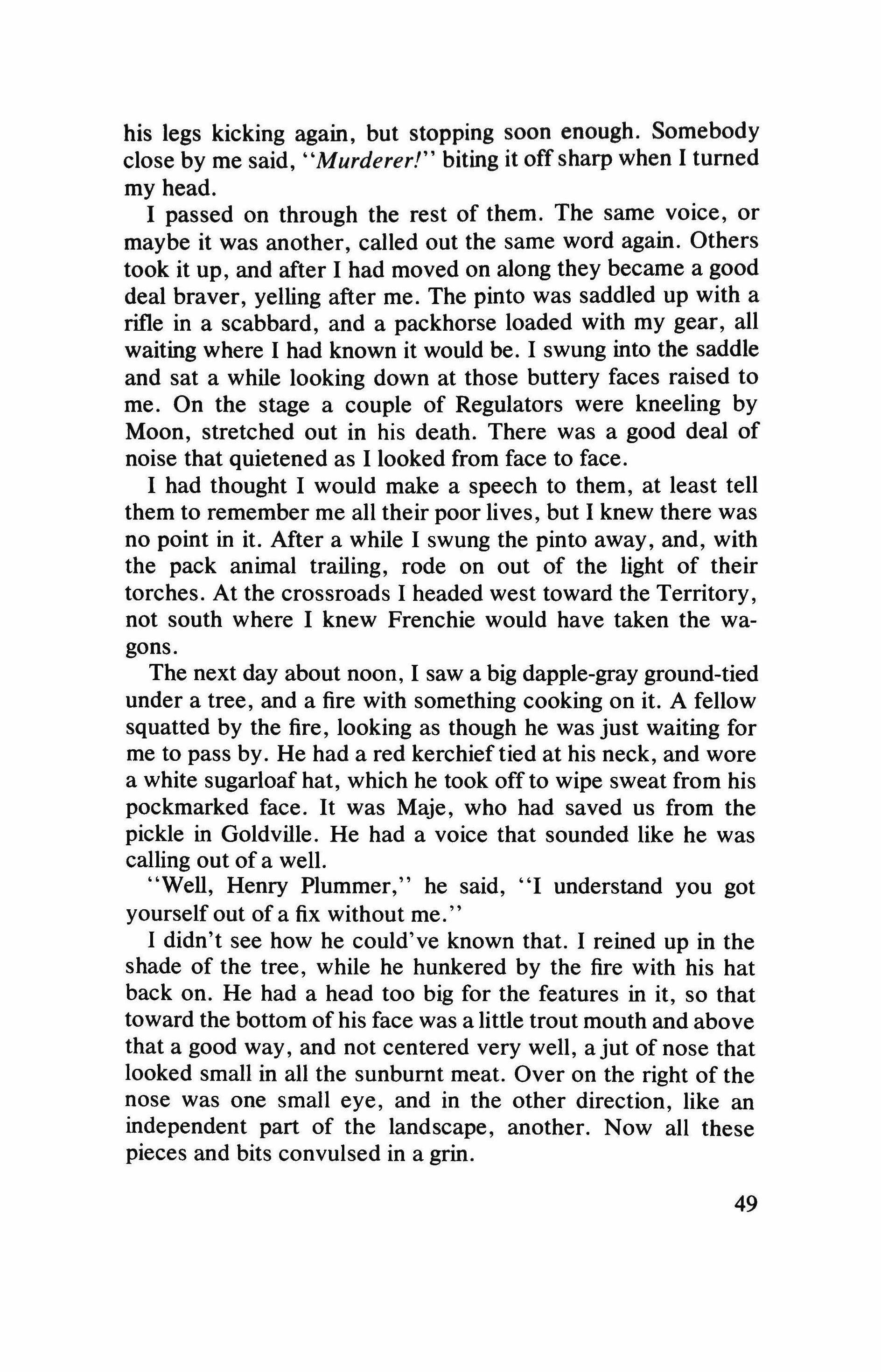
his legs kicking again, but stopping soon enough. Somebody close by me said, "Murderer!" biting it off sharp when I turned my head.
I passed on through the rest of them. The same voice, or maybe it was another, called out the same word again. Others took it up, and after I had moved on along they became a good deal braver, yelling after me. The pinto was saddled up with a rifle in a scabbard, and a packhorse loaded with my gear, all waiting where I had known it would be. I swung into the saddle and sat a while looking down at those buttery faces raised to me. On the stage a couple of Regulators were kneeling by Moon, stretched out in his death. There was a good deal of noise that quietened as I looked from face to face.
I had thought I would make a speech to them, at least tell them to remember me all their poor lives, but I knew there was no point in it. After a while I swung the pinto away, and, with the pack animal trailing, rode on out of the light of their torches. At the crossroads I headed west toward the Territory, not south where I knew Frenchie would have taken the wagons.
The next day about noon, I saw a big dapple-gray ground-tied under a tree, and a fire with something cooking on it. A fellow squatted by the fire, looking as though he was just waiting for me to pass by. He had a red kerchief tied at his neck, and wore a white sugarloaf hat, which he took off to wipe sweat from his pockmarked face. It was Maje, who had saved us from the pickle in Goldville. He had a voice that sounded like he was calling out of a well.
"Well, Henry Plummer," he said, "I understand you got yourself out of a fix without me."
I didn't see how he could've known that. I reined up in the shade of the tree, while he hunkered by the fire with his hat back on. He had a head too big for the features in it, so that toward the bottom of his face was a little trout mouth and above that a good way, and not centered very well, a jut of nose that looked small in all the sunburnt meat. Over on the right of the nose was one small eye, and in the other direction, like an independent part of the landscape, another. Now all these pieces and bits convulsed in a grin.
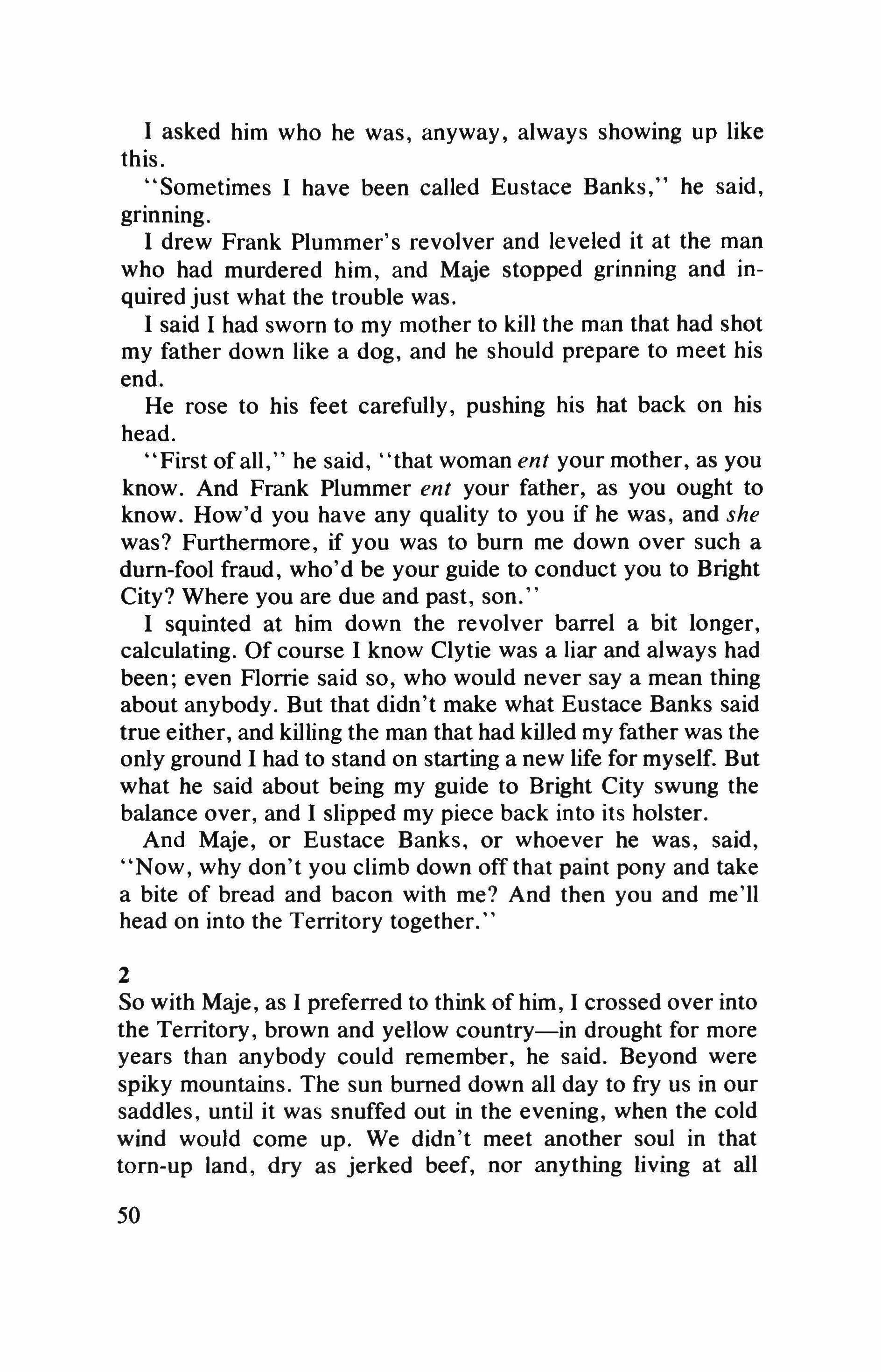
I asked him who he was, anyway, always showing up like this.
"Sometimes I have been called Eustace Banks," he said, grinning.
I drew Frank Plummer's revolver and leveled it at the man who had murdered him, and Maje stopped grinning and inquired just what the trouble was.
I said I had sworn to my mother to kill the man that had shot my father down like a dog, and he should prepare to meet his end.
He rose to his feet carefully, pushing his hat back on his head.
"First of all," he said, "that woman en! your mother, as you know. And Frank Plummer en! your father, as you ought to know. How'd you have any quality to you if he was, and she was? Furthermore, if you was to burn me down over such a durn-fool fraud, who'd be your guide to conduct you to Bright City? Where you are due and past, son."
I squinted at him down the revolver barrel a bit longer, calculating. Of course I know Clytie was a liar and always had been; even Florrie said so, who would never say a mean thing about anybody. But that didn't make what Eustace Banks said true either, and killing the man that had killed my father was the only ground I had to stand on starting a new life for myself. But what he said about being my guide to Bright City swung the balance over, and I slipped my piece back into its holster.
And Maje, or Eustace Banks, or whoever he was, said, "Now, why don't you climb down off that paint pony and take a bite of bread and bacon with me? And then you and me'll head on into the Territory together."
2
So with Maje, as I preferred to think of him, I crossed over into the Territory, brown and yellow country-in drought for more years than anybody could remember, he said. Beyond were spiky mountains. The sun burned down all day to fry us in our saddles, until it was snuffed out in the evening, when the cold wind would come up. We didn't meet another soul in that torn-up land, dry as jerked beef, nor anything living at all
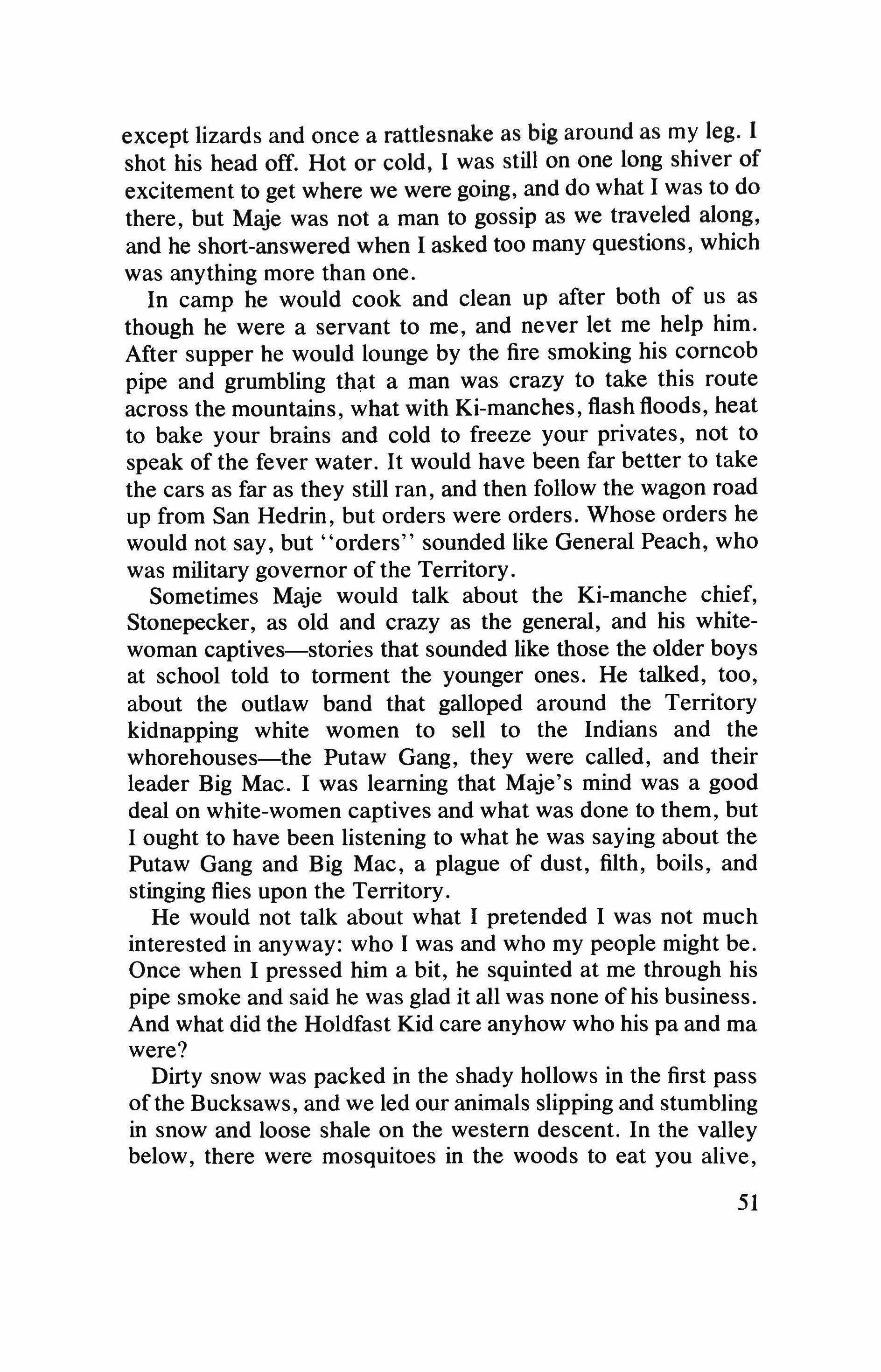
except lizards and once a rattlesnake as big around as my leg. I shot his head off. Hot or cold, I was still on one long shiver of excitement to get where we were going, and do what I was to do there, but Maje was not a man to gossip as we traveled along, and he short-answered when I asked too many questions, which was anything more than one.
In camp he would cook and clean up after both of us as though he were a servant to me, and never let me help him. After supper he would lounge by the fire smoking his corncob pipe and grumbling that a man was crazy to take this route across the mountains, what with Ki-manches, flash floods, heat to bake your brains and cold to freeze your privates, not to speak of the fever water. It would have been far better to take the cars as far as they still ran, and then follow the wagon road up from San Hedrin, but orders were orders. Whose orders he would not say, but "orders" sounded like General Peach, who was military governor of the Territory.
Sometimes Maje would talk about the Ki-manche chief, Stonepecker, as old and crazy as the general, and his whitewoman captives-stories that sounded like those the older boys at school told to torment the younger ones. He talked, too, about the outlaw band that galloped around the Territory kidnapping white women to sell to the Indians and the whorehouses-the Putaw Gang, they were called, and their leader Big Mac. I was learning that Maje' s mind was a good deal on white-women captives and what was done to them, but I ought to have been listening to what he was saying about the Putaw Gang and Big Mac, a plague of dust, filth, boils, and stinging flies upon the Territory.
He would not talk about what I pretended I was not much interested in anyway: who I was and who my people might be. Once when I pressed him a bit, he squinted at me through his pipe smoke and said he was glad it all was none of his business. And what did the Holdfast Kid care anyhow who his pa and rna were?
Dirty snow was packed in the shady hollows in the first pass ofthe Bucksaws, and we led our animals slipping and stumbling in snow and loose shale on the western descent. In the valley below, there were mosquitoes in the woods to eat you alive,
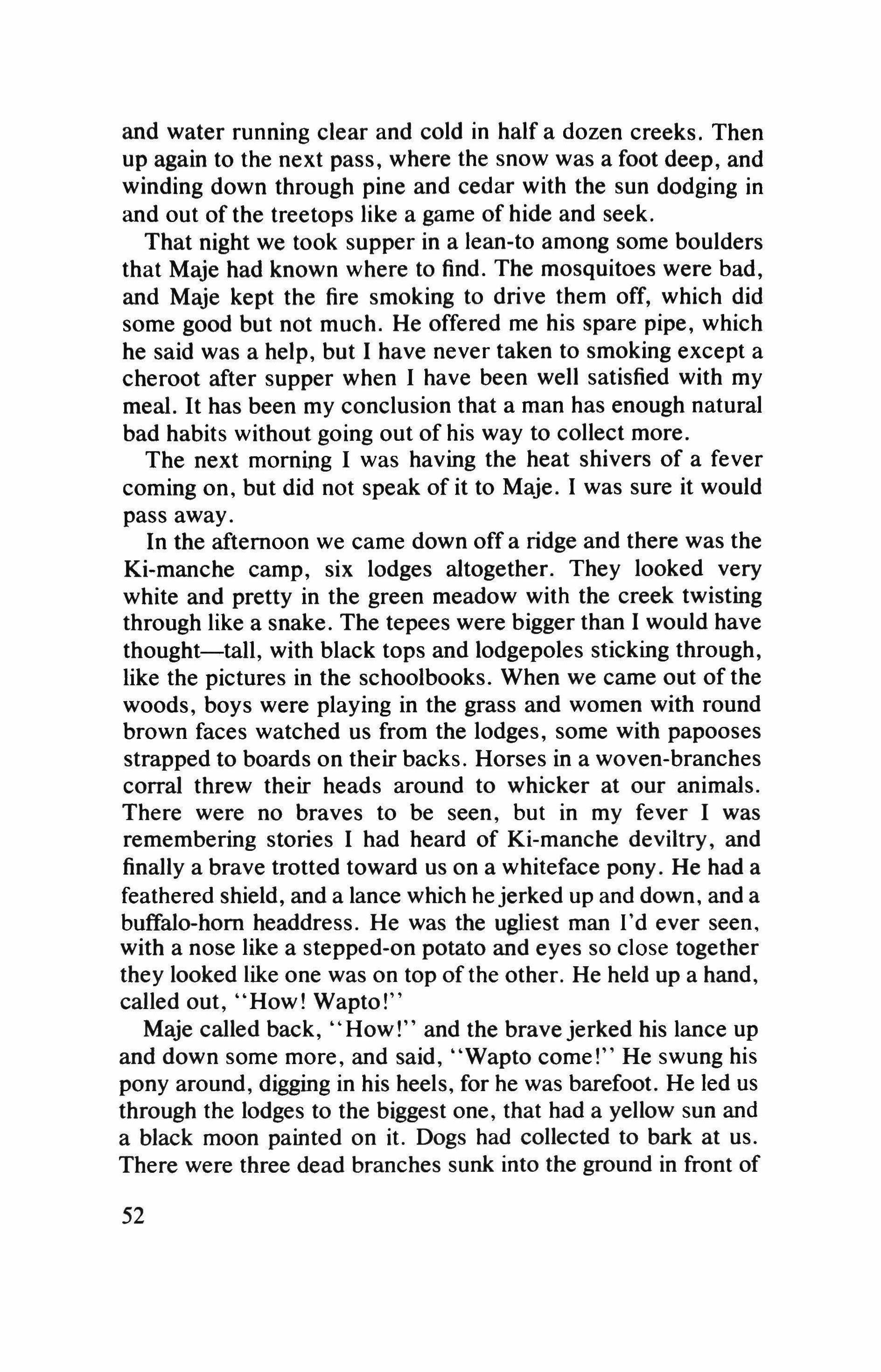
and water running clear and cold in half a dozen creeks. Then up again to the next pass, where the snow was a foot deep, and winding down through pine and cedar with the sun dodging in and out of the treetops like a game of hide and seek.
That night we took supper in a lean-to among some boulders that Maje had known where to find. The mosquitoes were bad, and Maje kept the fire smoking to drive them off, which did some good but not much. He offered me his spare pipe, which he said was a help, but I have never taken to smoking except a cheroot after supper when I have been well satisfied with my meal. It has been my conclusion that a man has enough natural bad habits without going out of his way to collect more.
The next morning I was having the heat shivers of a fever coming on, but did not speak of it to Maje. I was sure it would pass away.
In the afternoon we came down off a ridge and there was the Ki-manche camp, six lodges altogether. They looked very white and pretty in the green meadow with the creek twisting through like a snake. The tepees were bigger than I would have thought-tall, with black tops and lodgepoles sticking through, like the pictures in the schoolbooks. When we came out of the woods, boys were playing in the grass and women with round brown faces watched us from the lodges, some with papooses strapped to boards on their backs. Horses in a woven-branches corral threw their heads around to whicker at our animals. There were no braves to be seen, but in my fever I was remembering stories I had heard of Ki-manche deviltry, and finally a brave trotted toward us on a whiteface pony. He had a feathered shield, and a lance which he jerked up and down, and a buffalo-hom headdress. He was the ugliest man I'd ever seen, with a nose like a stepped-on potato and eyes so close together they looked like one was on top of the other. He held up a hand, called out, "How! Wapto!"
Maje called back, "How!" and the brave jerked his lance up and down some more, and said, "Wapto come!" He swung his pony around, digging in his heels, for he was barefoot. He led us through the lodges to the biggest one, that had a yellow sun and a black moon painted on it. Dogs had collected to bark at us. There were three dead branches sunk into the ground in front of
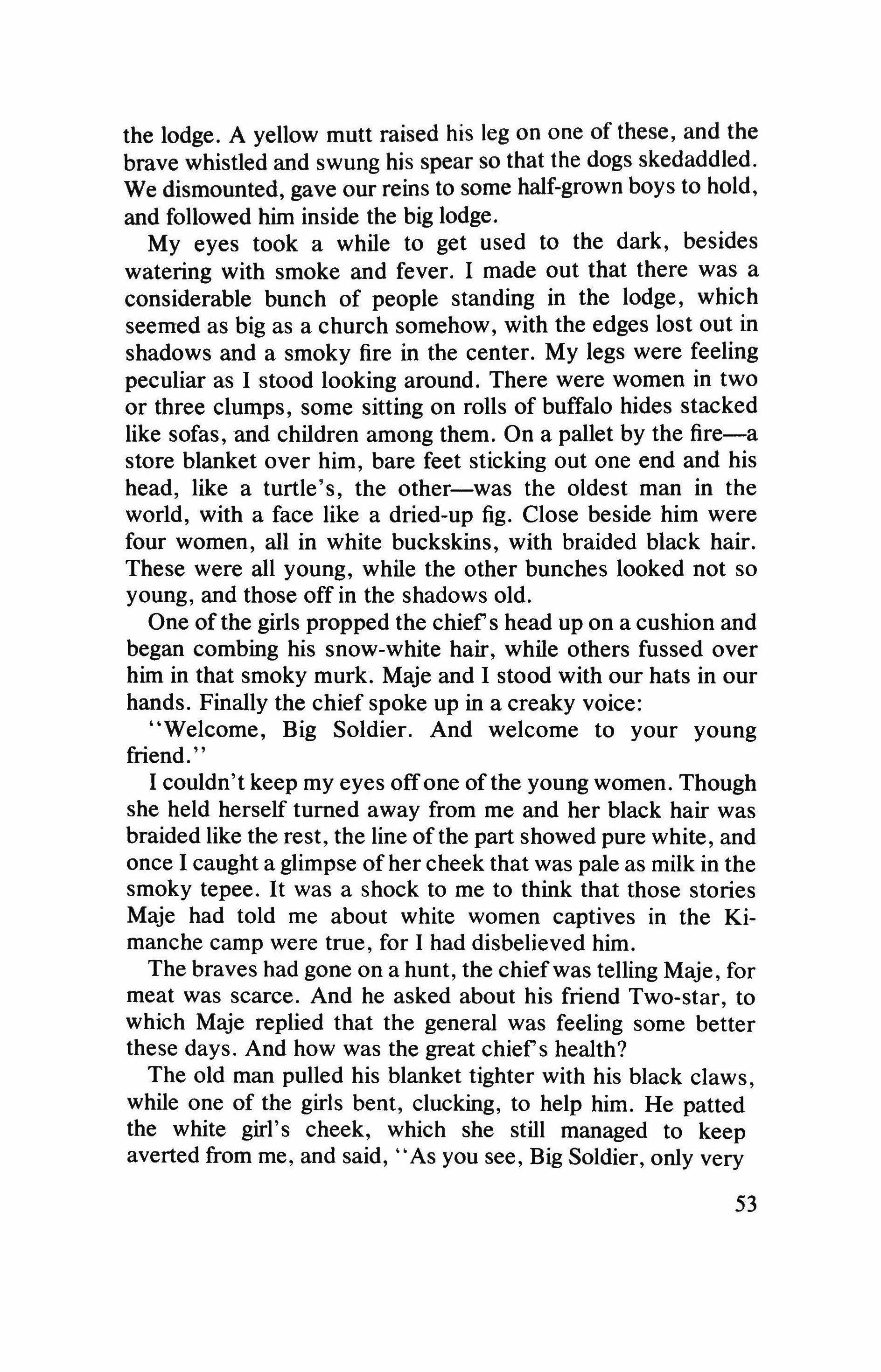
the lodge. A yellow mutt raised his leg on one of these, and the brave whistled and swung his spear so that the dogs skedaddled. We dismounted, gave our reins to some half-grown boys to hold, and followed him inside the big lodge.
My eyes took a while to get used to the dark, besides watering with smoke and fever. I made out that there was a considerable bunch of people standing in the lodge, which seemed as big as a church somehow, with the edges lost out in shadows and a smoky fire in the center. My legs were feeling peculiar as I stood looking around. There were women in two or three clumps, some sitting on rolls of buffalo hides stacked like sofas, and children among them. On a pallet by the fire-a store blanket over him, bare feet sticking out one end and his head, like a turtle's, the other-was the oldest man in the world, with a face like a dried-up fig. Close beside him were four women, all in white buckskins, with braided black hair. These were all young, while the other bunches looked not so young, and those off in the shadows old.
One of the girls propped the chief s head up on a cushion and began combing his snow-white hair, while others fussed over him in that smoky murk. Maje and I stood with our hats in our hands. Finally the chief spoke up in a creaky voice: "Welcome, Big Soldier. And welcome to your young friend.
I couldn't keep my eyes offone of the young women. Though she held herself turned away from me and her black hair was braided like the rest, the line ofthe part showed pure white, and once I caught a glimpse of her cheek that was pale as milk in the smoky tepee. It was a shock to me to think that those stories Maje had told me about white women captives in the Kimanche camp were true, for I had disbelieved him.
The braves had gone on a hunt, the chief was telling Maje, for meat was scarce. And he asked about his friend Two-star, to which Maje replied that the general was feeling some better these days. And how was the great chiefs health?
The old man pulled his blanket tighter with his black claws, while one of the girls bent, clucking, to help him. He patted the white girl's cheek, which she still managed to keep averted from me, and said, "As you see, Big Soldier, only very
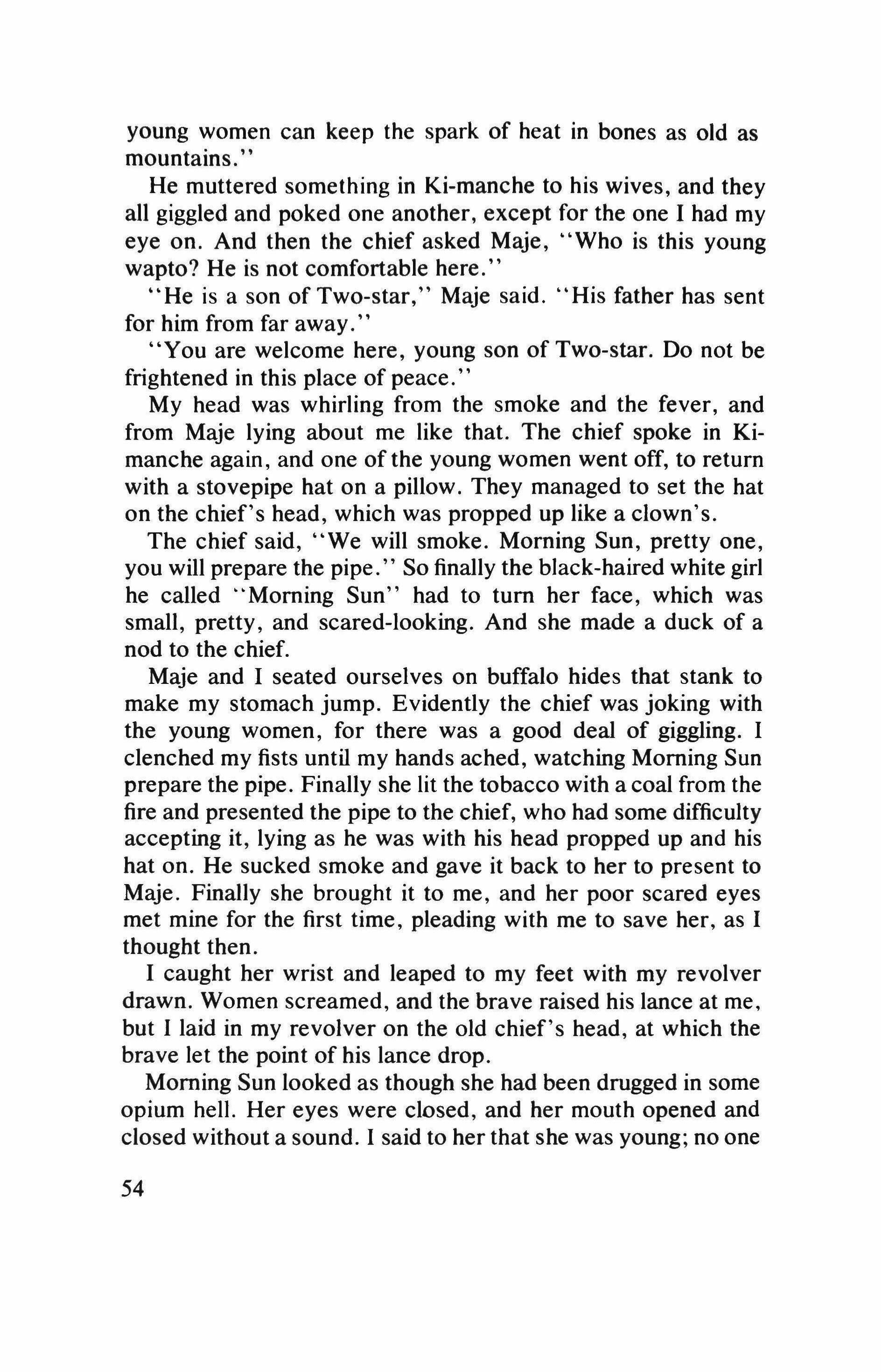
young women can keep the spark of heat in bones as old as mountains
He muttered something in Ki-manche to his wives, and they all giggled and poked one another, except for the one I had my eye on. And then the chief asked Maje, "Who is this young wapto? He is not comfortable here."
"He is a son of Two-star," Maje said. "His father has sent for him from far away.
"You are welcome here, young son of Two-star. Do not be frightened in this place of peace."
My head was whirling from the smoke and the fever, and from Maje lying about me like that. The chief spoke in Kimanehe again, and one of the young women went off, to return with a stovepipe hat on a pillow. They managed to set the hat on the chief's head, which was propped up like a clown's.
The chief said, "We will smoke. Morning Sun, pretty one, you will prepare the pipe." So finally the black-haired white girl he called "Morning Sun" had to tum her face, which was small, pretty, and scared-looking. And she made a duck of a nod to the chief.
Maje and I seated ourselves on buffalo hides that stank to make my stomach jump. Evidently the chief was joking with the young women, for there was a good deal of giggling. I clenched my fists until my hands ached, watching Morning Sun prepare the pipe. Finally she lit the tobacco with a coal from the fire and presented the pipe to the chief, who had some difficulty accepting it, lying as he was with his head propped up and his hat on. He sucked smoke and gave it back to her to present to Maje. Finally she brought it to me, and her poor scared eyes met mine for the first time, pleading with me to save her, as I thought then.
I caught her wrist and leaped to my feet with my revolver drawn. Women screamed, and the brave raised his lance at me, but I laid in my revolver on the old chief's head, at which the brave let the point of his lance drop.
Morning Sun looked as though she had been drugged in some opium hell. Her eyes were closed, and her mouth opened and closed without a sound. I said to her that she was young; no one
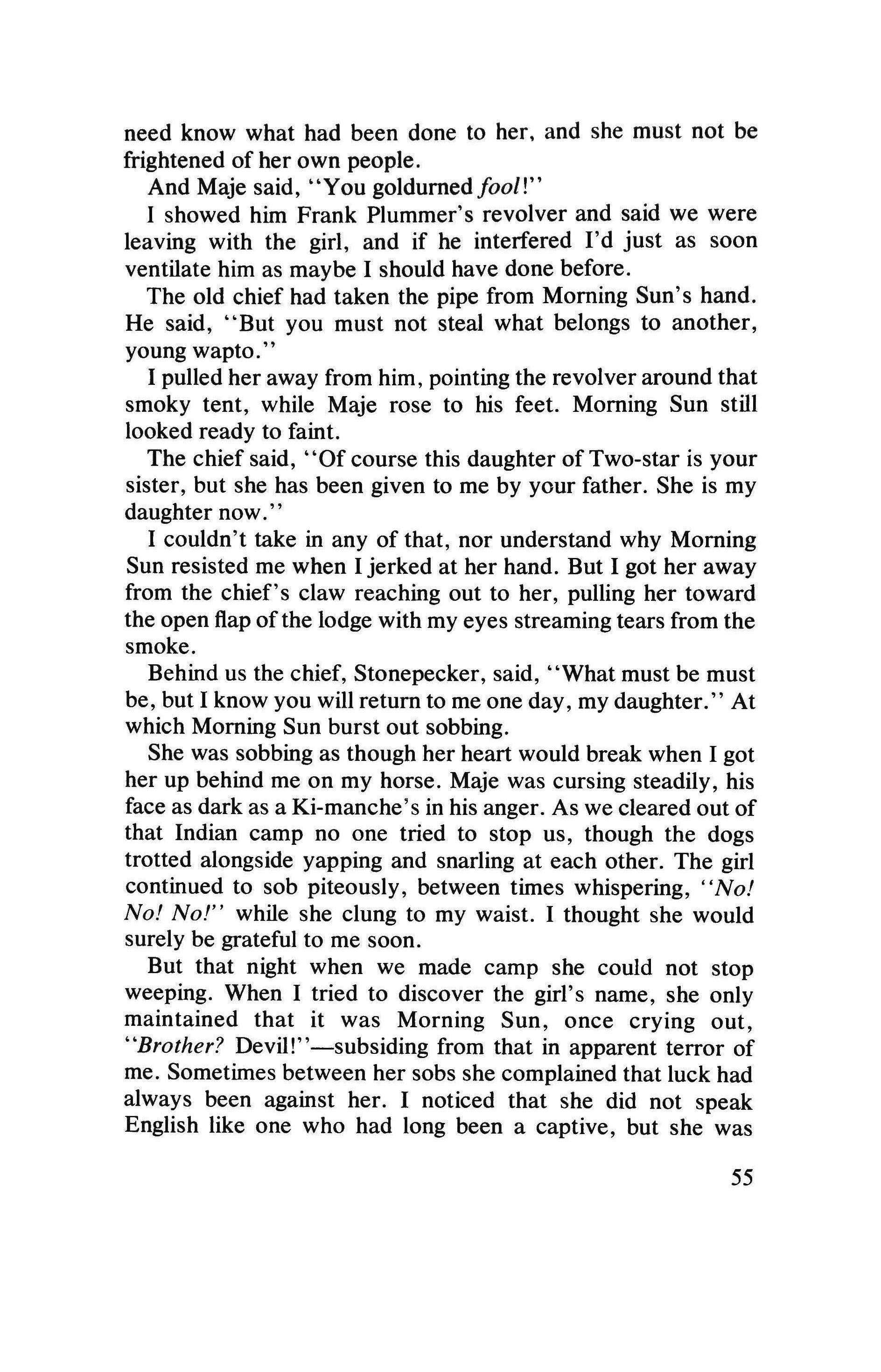
need know what had been done to her, and she must not be frightened of her own people.
And Maje said, "You goldurned/ool!"
I showed him Frank Plummer's revolver and said we were leaving with the girl, and if he interfered I'd just as soon ventilate him as maybe I should have done before.
The old chief had taken the pipe from Morning Sun's hand. He said, "But you must not steal what belongs to another, young wapto.
I pulled her away from him, pointing the revolver around that smoky tent, while Maje rose to his feet. Morning Sun still looked ready to faint.
The chief said, 'Of course this daughter of Two-star is your sister, but she has been given to me by your father. She is my daughter now.
I couldn't take in any of that, nor understand why Morning Sun resisted me when I jerked at her hand. But I got her away from the chief's claw reaching out to her, pulling her toward the open flap of the lodge with my eyes streaming tears from the smoke.
Behind us the chief, Stonepecker, said, "What must be must be, but I know you will return to me one day, my daughter. At which Morning Sun burst out sobbing.
She was sobbing as though her heart would break when I got her up behind me on my horse. Maje was cursing steadily, his face as dark as a Ki-manche's in his anger. As we cleared out of that Indian camp no one tried to stop us, though the dogs trotted alongside yapping and snarling at each other. The girl continued to sob piteously, between times whispering, "No! No! No!" while she clung to my waist. I thought she would surely be grateful to me soon.
But that night when we made camp she could not stop weeping. When I tried to discover the girl's name, she only maintained that it was Morning Sun, once crying out, "Brother? Devil!"-subsiding from that in apparent terror of me. Sometimes between her sobs she complained that luck had always been against her. I noticed that she did not speak English like one who had long been a captive, but she was
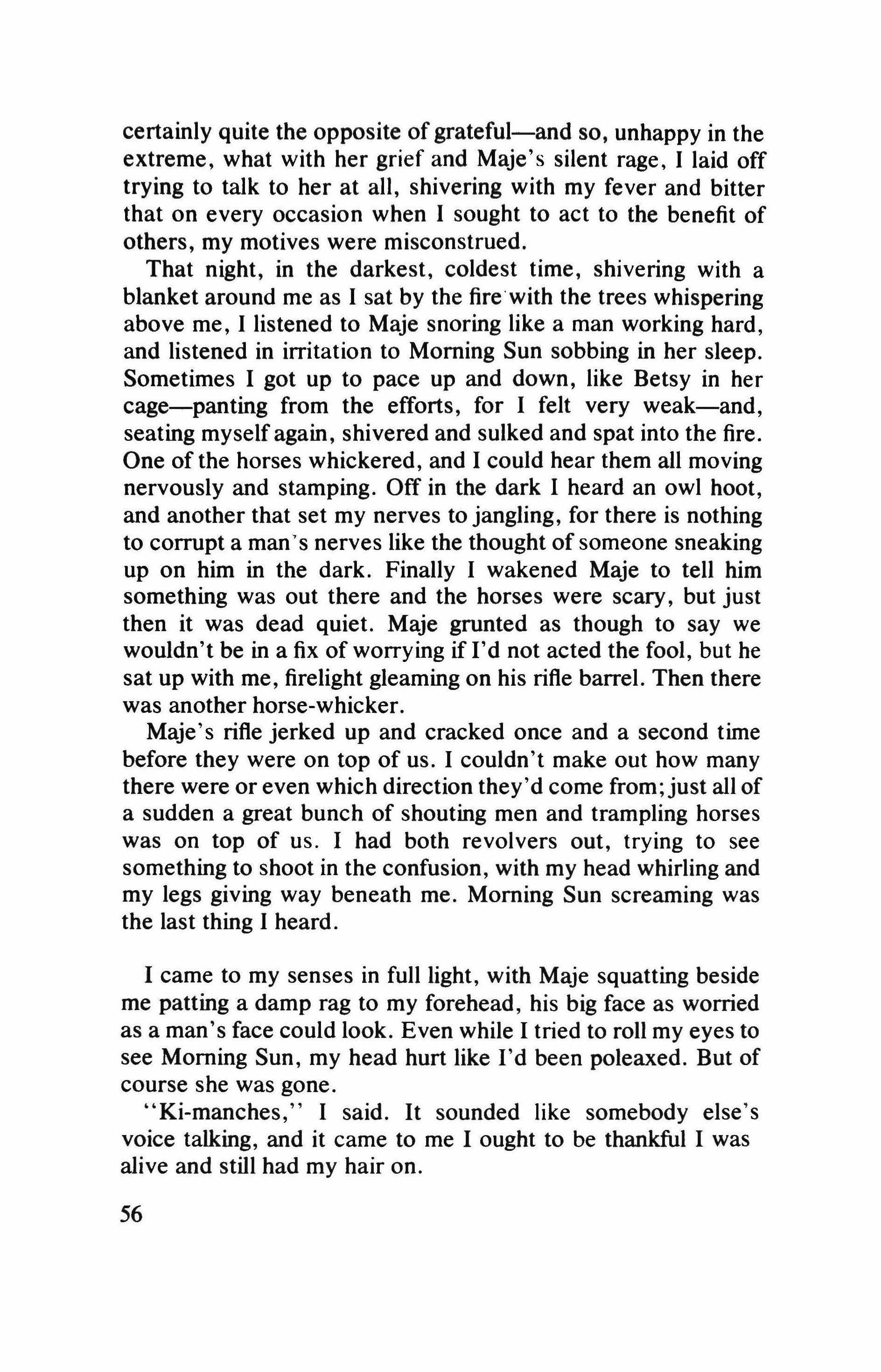
certainly quite the opposite of grateful-and so, unhappy in the extreme, what with her grief and Maje's silent rage, I laid off trying to talk to her at all, shivering with my fever and bitter that on every occasion when I sought to act to the benefit of others, my motives were misconstrued.
That night, in the darkest, coldest time, shivering with a blanket around me as I sat by the fire'with the trees whispering above me, I listened to Maje snoring like a man working hard, and listened in irritation to Morning Sun sobbing in her sleep. Sometimes I got up to pace up and down, like Betsy in her cage-panting from the efforts, for I felt very weak-and, seating myselfagain, shivered and sulked and spat into the fire. One of the horses whickered, and I could hear them all moving nervously and stamping. Off in the dark I heard an owl hoot, and another that set my nerves to jangling, for there is nothing to corrupt a man's nerves like the thought of someone sneaking up on him in the dark. Finally I wakened Maje to tell him something was out there and the horses were scary, but just then it was dead quiet. Maje grunted as though to say we wouldn't be in a fix of worrying if I'd not acted the fool, but he sat up with me, firelight gleaming on his rifle barrel. Then there was another horse-whicker.
Maje's rifle jerked up and cracked once and a second time before they were on top of us. I couldn't make out how many there were or even which direction they'd come from;just all of a sudden a great bunch of shouting men and trampling horses was on top of us. I had both revolvers out, trying to see something to shoot in the confusion, with my head whirling and my legs giving way beneath me. Morning Sun screaming was the last thing I heard.
I came to my senses in full light, with Maje squatting beside me patting a damp rag to my forehead, his big face as worried as a man's face could look. Even while I tried to roll my eyes to see Morning Sun, my head hurt like I'd been poleaxed. But of course she was gone.
"Ki-manches," I said. It sounded like somebody else's voice talking, and it came to me I ought to be thankful I was alive and still had my hair on.

"Might've been that hunting party," Maje said, but not as though he thought so.
"You mean it was somebody else?"
"Might've been King Mac from the way she was screeching.
He trickled water from his rag onto my forehead. "Got yourself a fever you could fry eggs on," he said.
I carefully turned my head and saw that the animals were gone. It looked like we were on foot, though Maje said he'd scout around to see if they'd only got scattered, if I would be content just to rest a while. So I dozed, and sometime later he came back with one of the packhorses. I asked if he'd found their trail, and he nodded andjerked his thumb westward, away from the Ki-manche camp.
"You told the chief I was the son of Two-star," I said.
"You listen to some, half the folks in the Territory are get of the old general's."
"That girl is his daughter?"
He shrugged. "Like I just said.
"And she might be my sister?"
He shrugged again.
"Who is my mother, then?"
"Might be most any woman in the Territory the general has got to in his time, which is most. Matter of fact, though, I just told him that so he'd treat us well. Which he did. And see how you treated him."
"Do you mean to tell me that the general gave his daughter to that filthy savage?"
"You know how it is with these chiefs. They dig up the hatchet and go to war, and then there's peace again, and the two of them exchange daughters, so to speak-like kings and princesses in the old days. That doesn't mean they had to be daughters really, you understand." He laid the backs of his fingers to my forehead, scowling.
I could keep none of this straight-fathers, mothers, sisters, the general, and the old chief, not to speak of Maje being Eustace Banks or not, or even if he and I had had this conversation, which I might be dreaming in my delirium.
Later on we started out, with Maje leading me aboard the
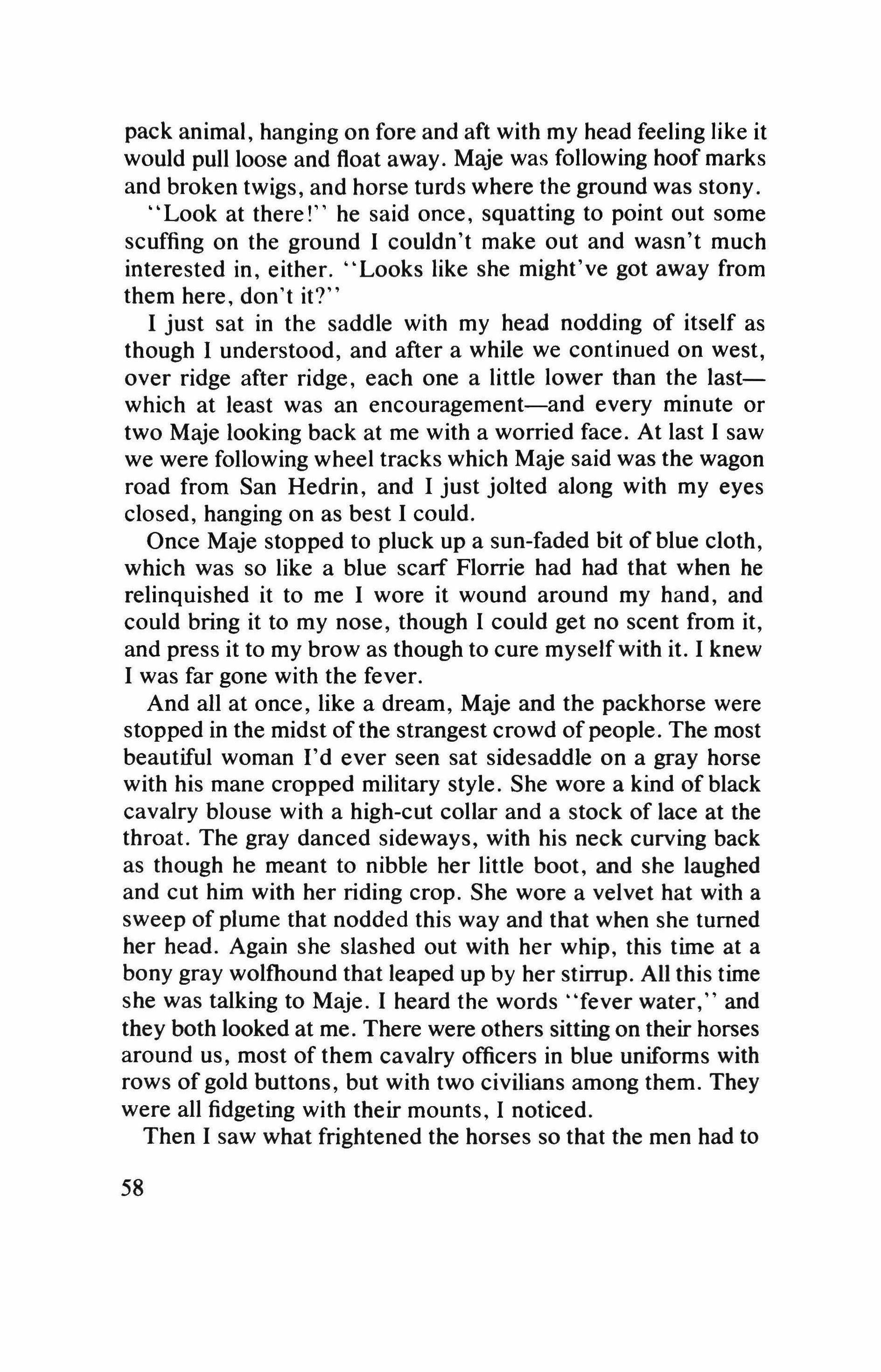
pack animal, hanging on fore and aft with my head feeling like it would pull loose and float away. Maje was following hoof marks and broken twigs, and horse turds where the ground was stony.
"Look at there!" he said once, squatting to point out some scuffing on the ground I couldn't make out and wasn't much interested in, either. "Looks like she might've got away from them here, don't it?"
I just sat in the saddle with my head nodding of itself as though I understood, and after a while we continued on west, over ridge after ridge, each one a little lower than the lastwhich at least was an encouragement-and every minute or two Maje looking back at me with a worried face. At last I saw we were following wheel tracks which Maje said was the wagon road from San Hedrin, and I just jolted along with my eyes closed, hanging on as best I could.
Once Maje stopped to pluck up a sun-faded bit of blue cloth, which was so like a blue scarf Florrie had had that when he relinquished it to me I wore it wound around my hand, and could bring it to my nose, though I could get no scent from it, and press it to my brow as though to cure myselfwith it. I knew I was far gone with the fever.
And all at once, like a dream, Maje and the packhorse were stopped in the midst of the strangest crowd ofpeople. The most beautiful woman I'd ever seen sat sidesaddle on a gray horse with his mane cropped military style. She wore a kind of black cavalry blouse with a high-cut collar and a stock of lace at the throat. The gray danced sideways, with his neck curving back as though he meant to nibble her little boot, and she laughed and cut him with her riding crop. She wore a velvet hat with a sweep of plume that nodded this way and that when she turned her head. Again she slashed out with her whip, this time at a bony gray wolfhound that leaped up by her stirrup. All this time she was talking to Maje. I heard the words "fever water," and they both looked at me. There were others sitting on their horses around us, most of them cavalry officers in blue uniforms with rows of gold buttons, but with two civilians among them. They were all fidgeting with their mounts, I noticed.
Then I saw what frightened the horses so that the men had to
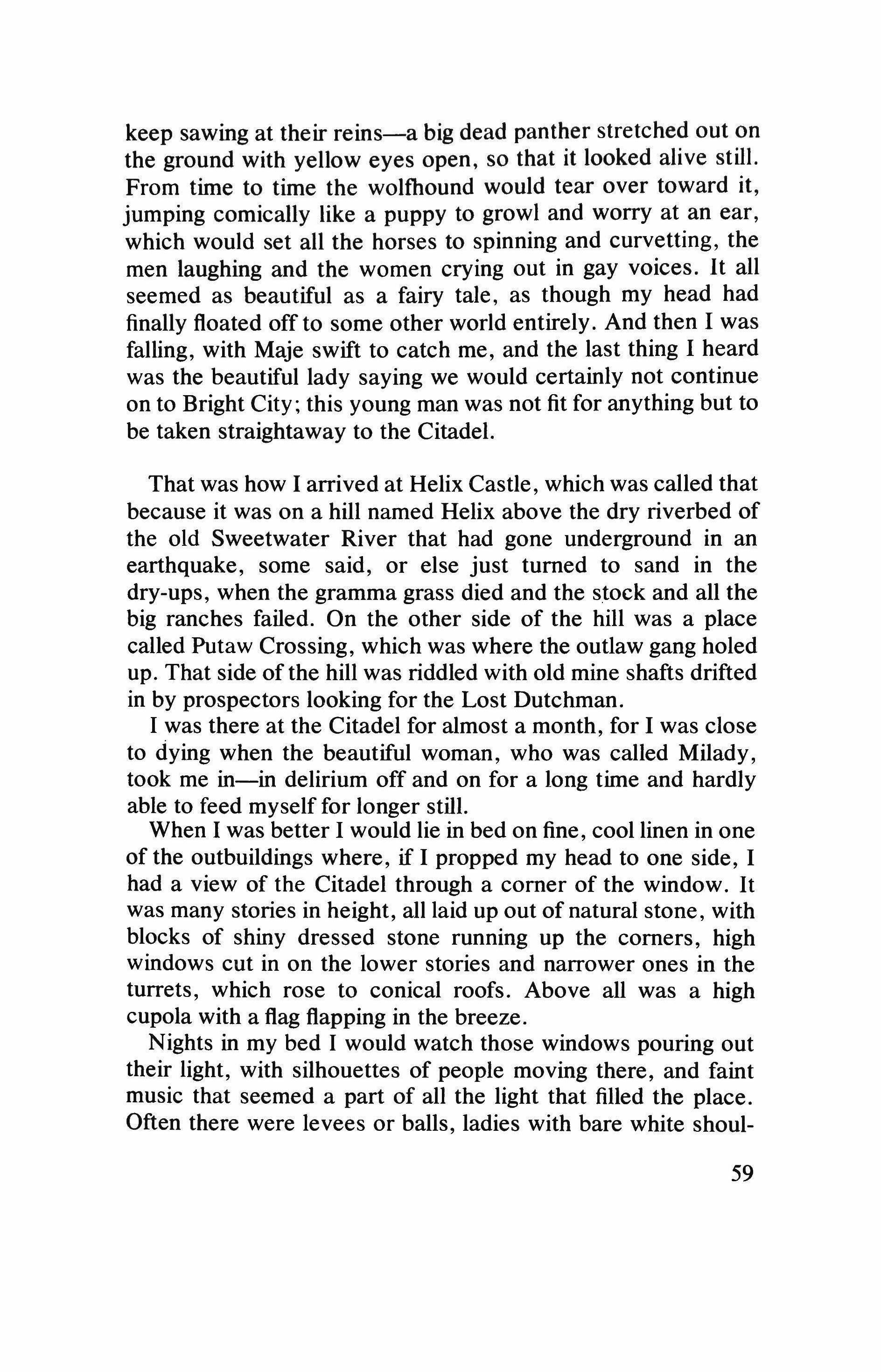
keep sawing at their reins-a big dead panther stretched out on the ground with yellow eyes open, so that it looked alive still. From time to time the wolfhound would tear over toward it, jumping comically like a puppy to growl and worry at an ear, which would set all the horses to spinning and curvetting, the men laughing and the women crying out in gay voices. It all seemed as beautiful as a fairy tale, as though my head had finally floated off to some other world entirely. And then I was falling, with Maje swift to catch me, and the last thing I heard was the beautiful lady saying we would certainly not continue on to Bright City; this young man was not fit for anything but to be taken straightaway to the Citadel.
That was how I arrived at Helix Castle, which was called that because it was on a hill named Helix above the dry riverbed of the old Sweetwater River that had gone underground in an earthquake, some said, or else just turned to sand in the dry-ups, when the gramma grass died and the stock and all the big ranches failed. On the other side of the hill was a place called Putaw Crossing, which was where the outlaw gang holed up. That side of the hill was riddled with old mine shafts drifted in by prospectors looking for the Lost Dutchman.
I was there at the Citadel for almost a month, for I was close to dying when the beautiful woman, who was called Milady, took me in-in delirium off and on for a long time and hardly able to feed myself for longer still.
When I was better I would lie in bed on fine, cool linen in one of the outbuildings where, if I propped my head to one side, I had a view of the Citadel through a comer of the window. It was many stories in height, all laid up out of natural stone, with blocks of shiny dressed stone running up the comers, high windows cut in on the lower stories and narrower ones in the turrets, which rose to conical roofs. Above all was a high cupola with a flag flapping in the breeze.
Nights in my bed I would watch those windows pouring out their light, with silhouettes of people moving there, and faint music that seemed a part of all the light that filled the place. Often there were levees or balls, ladies with bare white shoul-
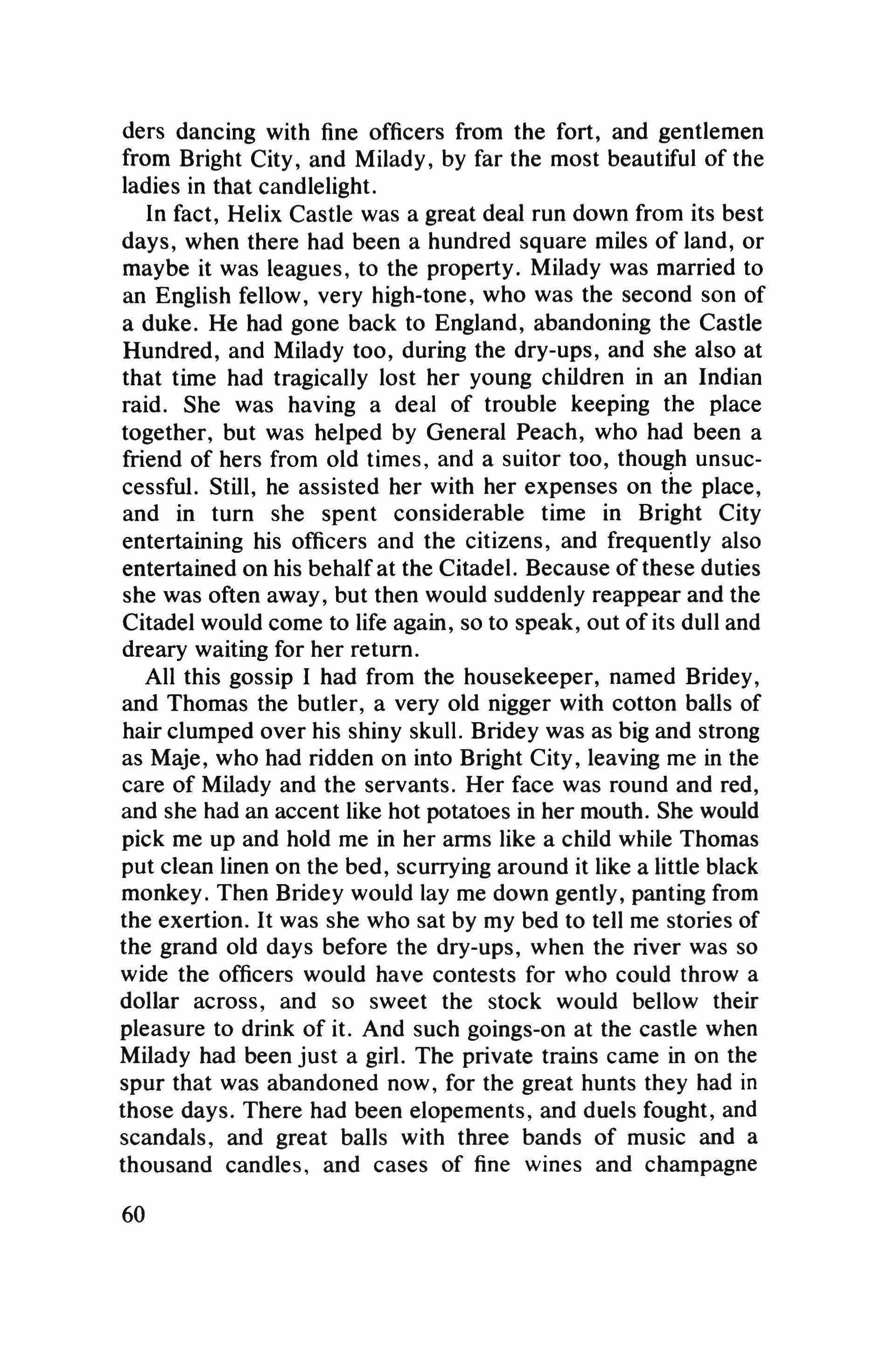
ders dancing with fine officers from the fort, and gentlemen from Bright City, and Milady, by far the most beautiful of the ladies in that candlelight.
In fact, Helix Castle was a great deal run down from its best days, when there had been a hundred square miles of land, or maybe it was leagues, to the property. Milady was married to an English fellow, very high-tone, who was the second son of a duke. He had gone back to England, abandoning the Castle Hundred, and Milady too, during the dry-ups, and she also at that time had tragically lost her young children in an Indian raid. She was having a deal of trouble keeping the place together, but was helped by General Peach, who had been a friend of hers from old times, and a suitor too, though unsuccessful. Still, he assisted her with her expenses on the place, and in turn she spent considerable time in Bright City entertaining his officers and the citizens, and frequently also entertained on his behalf at the Citadel. Because of these duties she was often away, but then would suddenly reappear and the Citadel would come to life again, so to speak, out of its dull and dreary waiting for her return.
All this gossip I had from the housekeeper, named Bridey, and Thomas the butler, a very old nigger with cotton balls of hair clumped over his shiny skull. Bridey was as big and strong as Maje, who had ridden on into Bright City, leaving me in the care of Milady and the servants. Her face was round and red, and she had an accent like hot potatoes in her mouth. She would pick me up and hold me in her arms like a child while Thomas put clean linen on the bed, scurrying around it like a little black monkey. Then Bridey would lay me down gently, panting from the exertion. It was she who sat by my bed to tell me stories of the grand old days before the dry-ups, when the river was so wide the officers would have contests for who could throw a dollar across, and so sweet the stock would bellow their pleasure to drink of it. And such goings-on at the castle when Milady had been just a girl. The private trains came in on the spur that was abandoned now, for the great hunts they had in those days. There had been elopements, and duels fought, and scandals, and great balls with three bands of music and a thousand candles, and cases of fine wines and champagne
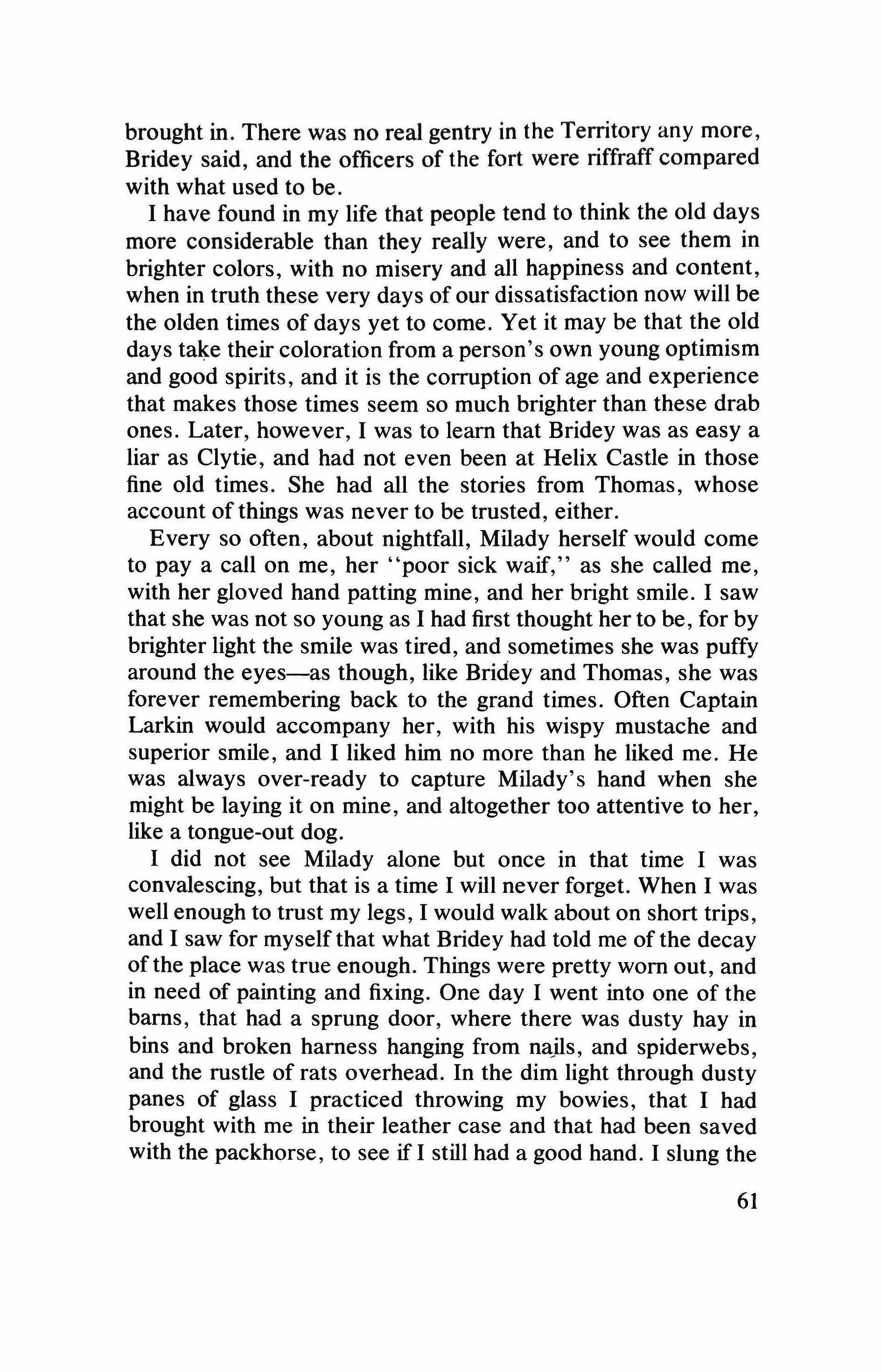
brought in. There was no real gentry in the Territory any more, Bridey said, and the officers of the fort were riffraff compared with what used to be.
I have found in my life that people tend to think the old days more considerable than they really were, and to see them in brighter colors, with no misery and all happiness and content, when in truth these very days of our dissatisfaction now will be the olden times of days yet to come. Yet it may be that the old days take their coloration from a person's own young optimism and good spirits, and it is the corruption of age and experience that makes those times seem so much brighter than these drab ones. Later, however, I was to learn that Bridey was as easy a liar as Clytie, and had not even been at Helix Castle in those fine old times. She had all the stories from Thomas, whose account of things was never to be trusted, either. Every so often, about nightfall, Milady herself would come to pay a can on me, her "poor sick waif," as she called me, with her gloved hand patting mine, and her bright smile. I saw that she was not so young as I had first thought her to be, for by brighter light the smile was tired, and sometimes she was puffy around the eyes-as though, like Bridey and Thomas, she was forever remembering back to the grand times. Often Captain Larkin would accompany her, with his wispy mustache and superior smile, and I liked him no more than he liked me. He was always over-ready to capture Milady's hand when she might be laying it on mine, and altogether too attentive to her, like a tongue-out dog.
I did not see Milady alone but once in that time I was convalescing, but that is a time I will never forget. When I was well enough to trust my legs, I would walk about on short trips, and I saw for myself that what Bridey had told me of the decay ofthe place was true enough. Things were pretty worn out, and in need of painting and fixing. One day I went into one of the barns, that had a sprung door, where there was dusty hay in bins and broken harness hanging from nails, and spiderwebs, and the rustle of rats overhead. In the dim light through dusty panes of glass I practiced throwing my bowies, that I had brought with me in their leather case and that had been saved with the packhorse, to see if I still had a good hand. I slung the
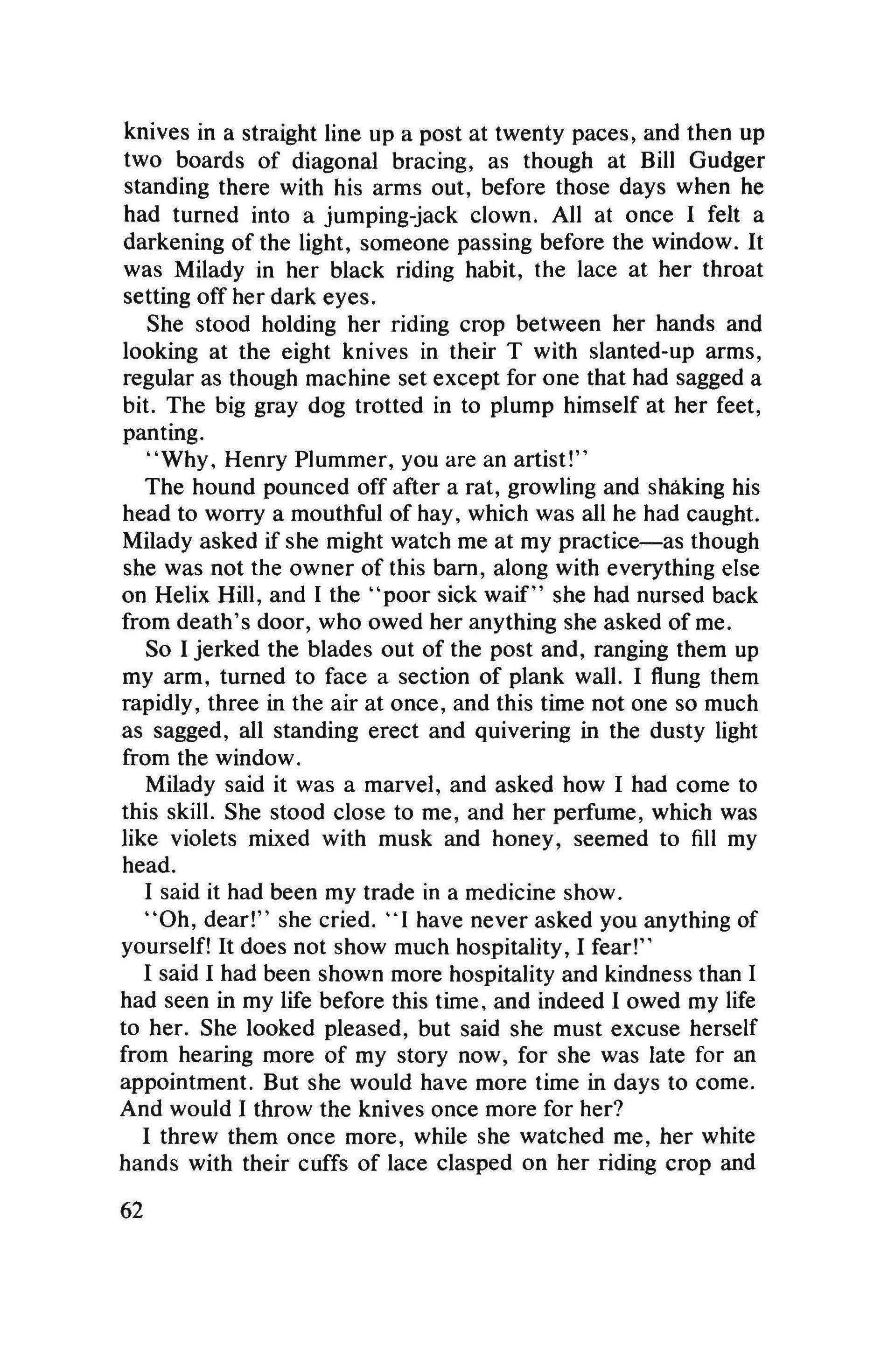
knives in a straight line up a post at twenty paces, and then up two boards of diagonal bracing, as though at Bill Gudger standing there with his arms out, before those days when he had turned into a jumping-jack clown. All at once I felt a darkening of the light, someone passing before the window. It was Milady in her black riding habit, the lace at her throat setting off her dark eyes.
She stood holding her riding crop between her hands and looking at the eight knives in their T with slanted-up arms, regular as though machine set except for one that had sagged a bit. The big gray dog trotted in to plump himself at her feet, panting.
"Why, Henry Plummer, you are an artist!"
The hound pounced off after a rat, growling and shaking his head to worry a mouthful of hay, which was all he had caught. Milady asked if she might watch me at my practice-as though she was not the owner of this barn, along with everything else on Helix Hill, and I the "poor sick waif" she had nursed back from death's door, who owed her anything she asked of me.
So I jerked the blades out of the post and, ranging them up my arm, turned to face a section of plank wall. I flung them rapidly, three in the air at once, and this time not one so much as sagged, all standing erect and quivering in the dusty light from the window.
Milady said it was a marvel, and asked how I had come to this skill. She stood close to me, and her perfume, which was like violets mixed with musk and honey, seemed to fill my head.
I said it had been my trade in a medicine show.
"Oh, dear!" she cried. "I have never asked you anything of yourself! It does not show much hospitality, I fear!"
I said I had been shown more hospitality and kindness than I had seen in my life before this time, and indeed lowed my life to her. She looked pleased, but said she must excuse herself from hearing more of my story now, for she was late for an appointment. But she would have more time in days to come. And would I throw the knives once more for her?
I threw them once more, while she watched me, her white hands with their cuffs of lace clasped on her riding crop and

droplets of perspiration glistening on her short upper lip. When she saw that I had thrown an M for Milady, color flushed into her cheeks, and she whispered, "Thank you, Henry!" and was gone, the big gray dog loping after her.
That night I slipped out of my room, hearing the sawing of a fiddle and the tinsel notes of the piano, to stand in the darkness outside one of the windows that gave onto the great central room with its sweep of stairs. On a little platform the piano gleamed. A skinny fellow with a high white collar leaned one way and the other as he banged away at it, and a sweaty-faced fiddler swept his bow back and forth in grand style. There must have been fifty candles burning in that place, where Bridey had claimed there had been a thousand once, though it was hard to make out where that many had stood. My eyes found Milady right away among the dancing couples, with her white shoulders and little feet appearing and disappearing like mice as she was swung in great circles around the margin of the room by one of the blue uniforms, blue arm across the marble of her back, and her black hair alive in the reflected candle flames that seemed always to bow toward her and her partner in the swiftness of their circling.
There were a dozen other dancers, men in uniforms or black claw-hammer coats and women like bright birds. The pounding and scraping of the musicians was faint through the glass, and the ballroom, whose top I couldn't even see, gleamed with light like Christmas. When the music stopped, everyone moved to one end, where Thomas, in a cutaway and striped vest, was serving punch from a bowl. I drifted back to my room and tried to sleep with the music teasing at my hearing.
Then Thomas came knocking at my door to say Milady asked that I come, with my knives, to show her guests my skill. I did not hesitate to dress myself and tie a white kerchief around my neck, looking at the small face in the mirror that was still pale under a sweep of black hair and hollow in the cheeks, and eyes still bright from fever. I left off my revolvers, but carried my case of knives toward the windows carelessly throwing their light out into the dark.
In the ballroom they were all standing at the punch bowl again, the fiddler and the piano professor among them. It is an

uncomfortable business to walk across a stretch offloor toward people you don't know but do know have been talking of you. Milady hurried out to greet me and bring me up to the bunch of them, the officers giving me severe looks. But there were painted smiles from the ladies, and one plump civilian-dressed fellow with muttonchop whiskers was most cordial. Captain Larkin was the tallest one there, with his sleeked-sideways hair and wispy mustache, and arms folded on his chest so he wouldn't have to shake my hand. One of the ladies made over me, to my embarrassment, and I heard another of them say behind her fan, "Why. he is just a boy, this marvel!" The laughing major said I looked considerably more fit than the first time he'd seen me, which was hanging onto a packsaddle like a life preserver in high seas. Thomas brought me a cup of the punch.
Just then two hostlers carried in one of the bam doors, shuffling and balancing and calling to each other to look sharp, finally bracing the door against the piano to hold it upright, which displeased the little professor. All this while I stood with some officers who had nothing to say to me, nor I to them, though I overheard one of the civilians say to the other, "Poor Vinnie, she must befriend every waif and stray like he is her long-lost son." One of the officers said to another that he'd heard there was a new virgin at the French Palace, which ought to rouse the general though nothing else seemed to. There was coarse laughter at this. Another said he didn't expect many of those girls got by Jack Dale-which was the first I had heard of Jack Dale.
After I'd taken a second cup of punch, and finished it, Milady inquired if I wouldn't consent to show these people what I could do, which would please them very much. So I took the knives from my case and hurled them swiftly enough, so they crack-cracked into the rough whipsawed wood of the old door, forming a cross there. The ladies cried out with admiration and clapped their hands, and most of the men joined in.
I collected my knives and hurled them a second time, splitting a long sliver of wood along the edge of one of the battens by driving in the blades along the grain of the wood. The wood split away as I had planned, but a knife dropped to the floor

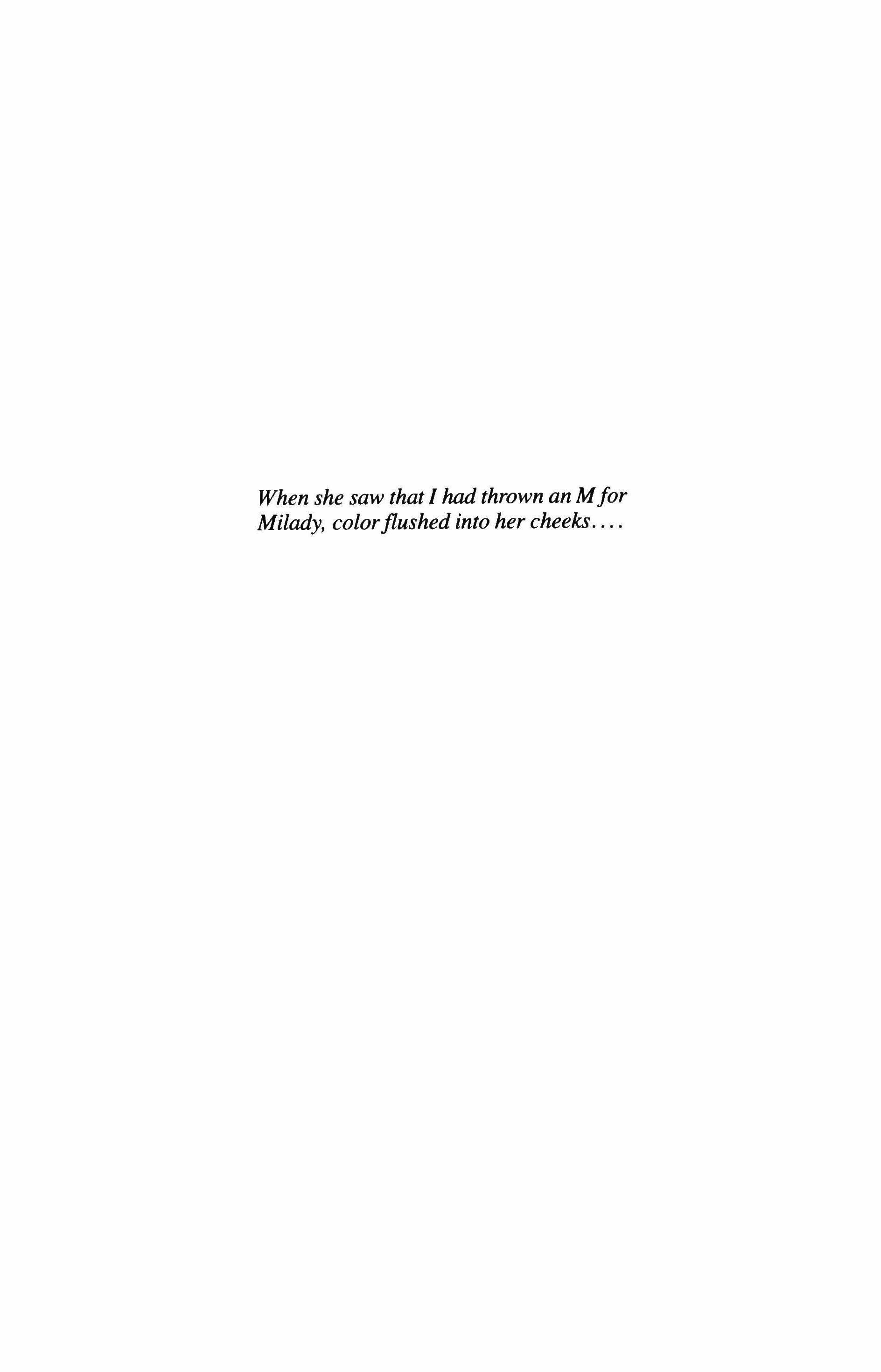
When she saw that I had thrown an Mfor Milady, colorflushed into her cheeks
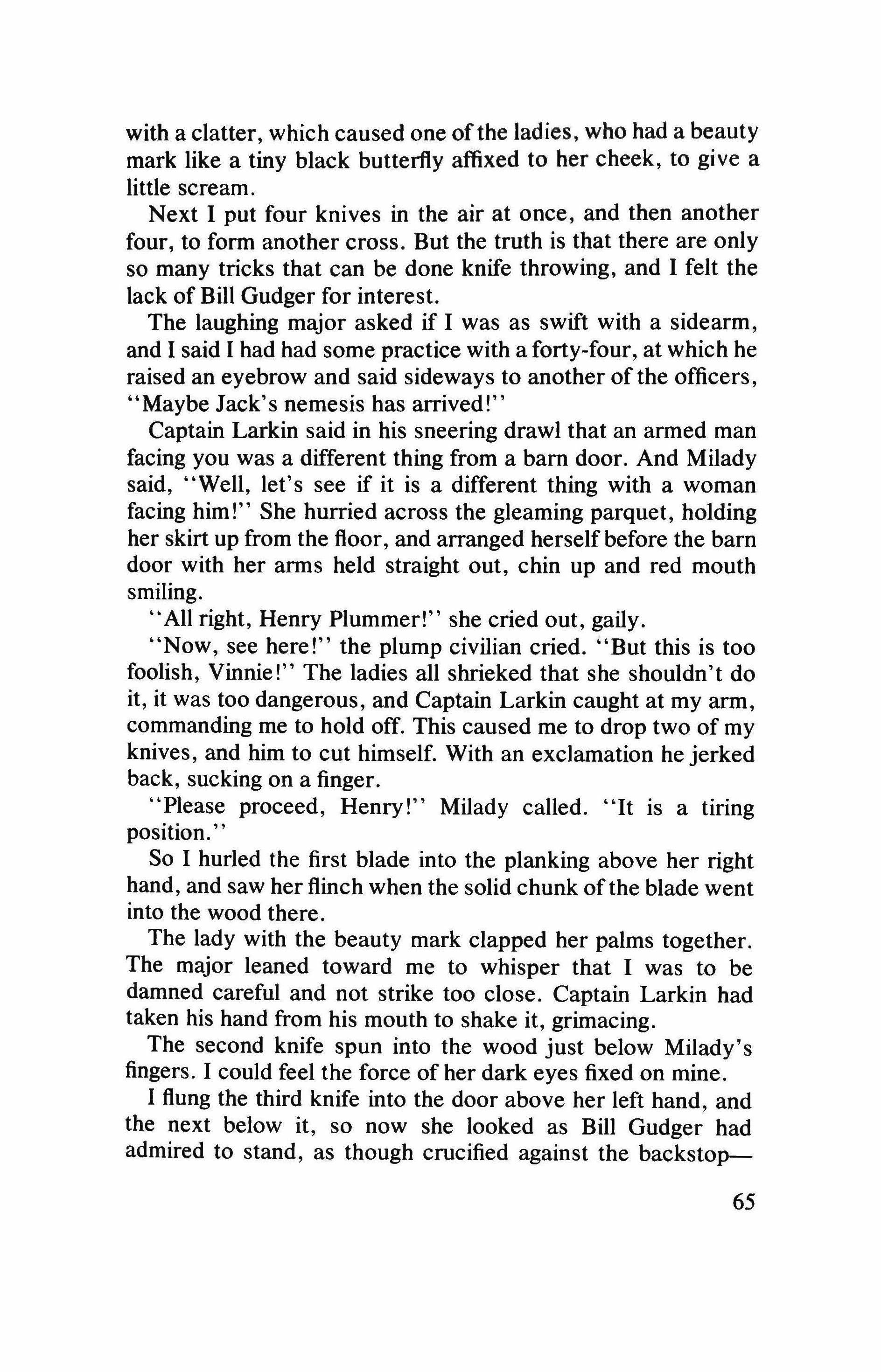
with a clatter, which caused one ofthe ladies, who had a beauty mark like a tiny black butterfly affixed to her cheek, to give a little scream.
Next I put four knives in the air at once, and then another four, to form another cross. But the truth is that there are only so many tricks that can be done knife throwing, and I felt the lack of Bill Gudger for interest.
The laughing major asked if I was as swift with a sidearm, and I said I had had some practice with a forty-four, at which he raised an eyebrow and said sideways to another of the officers,
"Maybe Jack's nemesis has arrived!"
Captain Larkin said in his sneering drawl that an armed man facing you was a different thing from a bam door. And Milady said, "Well, let's see if it is a different thing with a woman facing him!" She hurried across the gleaming parquet, holding her skirt up from the floor, and arranged herself before the bam door with her arms held straight out, chin up and red mouth smiling.
"All right, Henry Plummer!" she cried out, gaily.
"Now, see here!" the plump civilian cried. "But this is too foolish, Vinnie!" The ladies all shrieked that she shouldn't do it, it was too dangerous, and Captain Larkin caught at my arm, commanding me to hold off. This caused me to drop two of my knives, and him to cut himself. With an exclamation he jerked back, sucking on a finger.
"Please proceed, Henry!" Milady called. "It is a tiring position.
So I hurled the first blade into the planking above her right hand, and saw her flinch when the solid chunk ofthe blade went into the wood there.
The lady with the beauty mark clapped her palms together. The major leaned toward me to whisper that I was to be damned careful and not strike too close. Captain Larkin had taken his hand from his mouth to shake it, grimacing.
The second knife spun into the wood just below Milady's fingers. I could feel the force of her dark eyes fixed on mine.
I flung the third knife into the door above her left hand, and the next below it, so now she looked as Bill Gudger had admired to stand, as though crucified against the backstop-
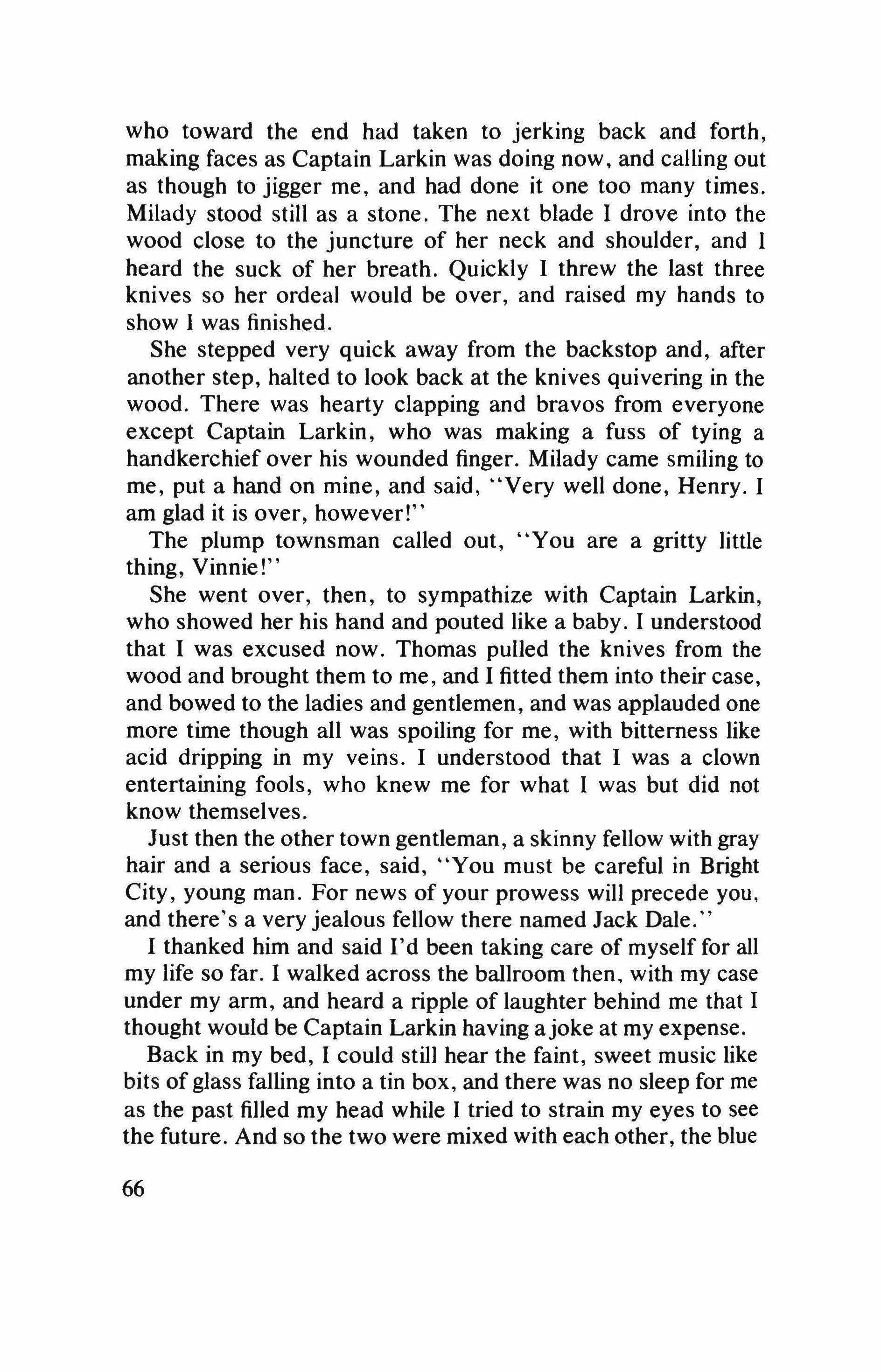
who toward the end had taken to jerking back and forth, making faces as Captain Larkin was doing now. and calling out as though to jigger me, and had done it one too many times. Milady stood still as a stone. The next blade I drove into the wood close to the juncture of her neck and shoulder, and I heard the suck of her breath. Quickly I threw the last three knives so her ordeal would be over, and raised my hands to show I was finished.
She stepped very quick away from the backstop and, after another step, halted to look back at the knives quivering in the wood. There was hearty clapping and bravos from everyone except Captain Larkin, who was making a fuss of tying a handkerchief over his wounded finger. Milady came smiling to me, put a hand on mine, and said, "Very well done, Henry. I am glad it is over, however!"
The plump townsman called out, "You are a gritty little thing, Vinnie!"
She went over, then, to sympathize with Captain Larkin, who showed her his hand and pouted like a baby. I understood that I was excused now. Thomas pulled the knives from the wood and brought them to me, and I fitted them into their case, and bowed to the ladies and gentlemen, and was applauded one more time though all was spoiling for me, with bitterness like acid dripping in my veins. I understood that I was a clown entertaining fools, who knew me for what I was but did not know themselves.
Just then the other town gentleman, a skinny fellow with gray hair and a serious face, said, "You must be careful in Bright City, young man. For news of your prowess will precede you, and there's a very jealous fellow there named Jack Dale."
I thanked him and said I'd been taking care of myself for all my life so far. I walked across the ballroom then, with my case under my arm, and heard a ripple of laughter behind me that I thought would be Captain Larkin having ajoke at my expense.
Back in my bed, I could still hear the faint, sweet music like bits of glass falling into a tin box, and there was no sleep for me as the past filled my head while I tried to strain my eyes to see the future. And so the two were mixed with each other, the blue
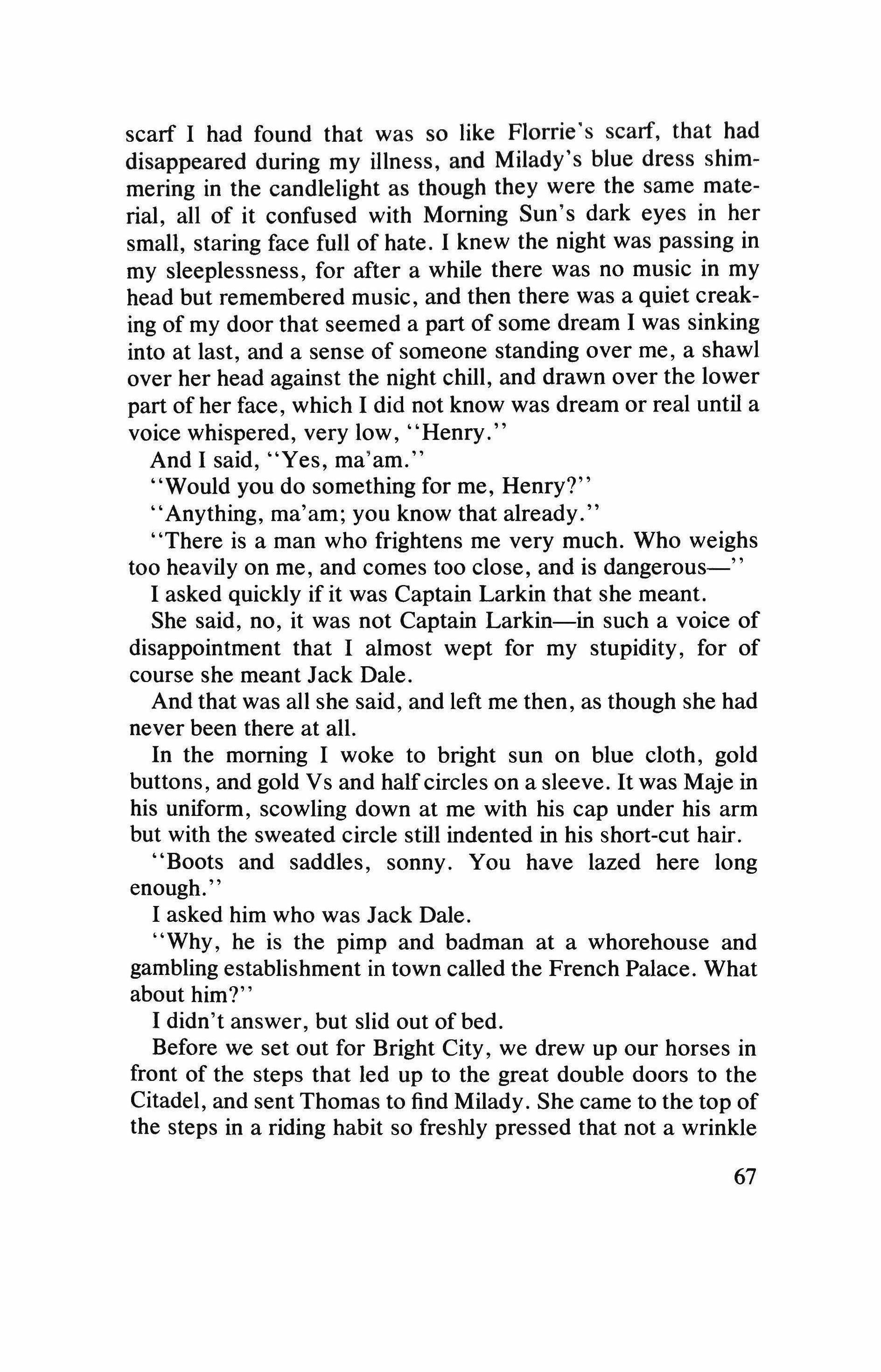
scarf I had found that was so like Florrie' s scarf, that had disappeared during my illness, and Milady's blue dress shimmering in the candlelight as though they were the same material, all of it confused with Morning Sun's dark eyes in her small, staring face full of hate. I knew the night was passing in my sleeplessness, for after a while there was no music in my head but remembered music, and then there was a quiet creaking of my door that seemed a part of some dream I was sinking into at last, and a sense of someone standing over me, a shawl over her head against the night chill, and drawn over the lower part of her face, which I did not know was dream or real until a voice whispered, very low, "Henry."
And I said, "Yes, ma'am."
"Would you do something for me, Henry?"
"Anything, ma'am; you know that already."
"There is a man who frightens me very much. Who weighs too heavily on me, and comes too close, and is dangerous-"
I asked quickly if it was Captain Larkin that she meant.
She said, no, it was not Captain Larkin-in such a voice of disappointment that I almost wept for my stupidity, for of course she meant Jack Dale.
And that was all she said, and left me then, as though she had never been there at all.
In the morning I woke to bright sun on blue cloth, gold buttons, and gold Vs and halfcircles on a sleeve. It was Maje in his uniform, scowling down at me with his cap under his arm but with the sweated circle still indented in his short-cut hair.
"Boots and saddles, sonny. You have lazed here long enough."
I asked him who was Jack Dale.
"Why, he is the pimp and badman at a whorehouse and gambling establishment in town called the French Palace. What about him?"
I didn't answer, but slid out of bed.
Before we set out for Bright City, we drew up our horses in front of the steps that led up to the great double doors to the Citadel, and sent Thomas to find Milady. She came to the top of the steps in a riding habit so freshly pressed that not a wrinkle
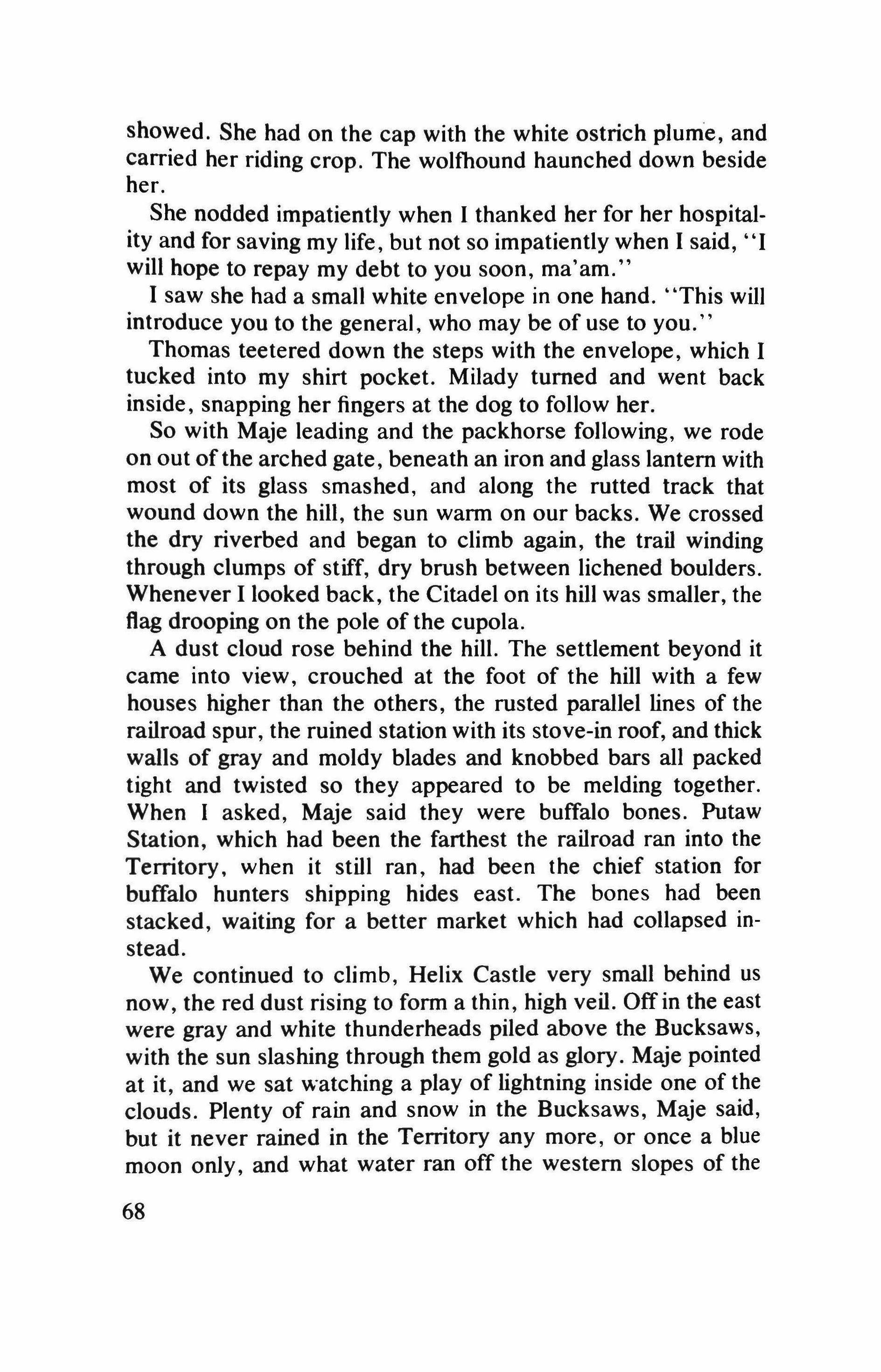
showed. She had on the cap with the white ostrich plume, and carried her riding crop. The wolfhound haunched down beside her.
She nodded impatiently when I thanked her for her hospitality and for saving my life, but not so impatiently when I said, "I will hope to repay my debt to you soon, ma'am."
I saw she had a small white envelope in one hand. "This will introduce you to the general, who may be of use to you."
Thomas teetered down the steps with the envelope, which I tucked into my shirt pocket. Milady turned and went back inside, snapping her fingers at the dog to follow her.
So with Maje leading and the packhorse following, we rode on out ofthe arched gate, beneath an iron and glass lantern with most of its glass smashed, and along the rutted track that wound down the hill, the sun warm on our backs. We crossed the dry riverbed and began to climb again, the trail winding through clumps of stiff, dry brush between lichened boulders. Whenever I looked back, the Citadel on its hill was smaller, the flag drooping on the pole of the cupola.
A dust cloud rose behind the hill. The settlement beyond it came into view, crouched at the foot of the hill with a few houses higher than the others, the rusted parallel lines of the railroad spur, the ruined station with its stove-in roof, and thick walls of gray and moldy blades and knobbed bars all packed tight and twisted so they appeared to be melding together. When I asked, Maje said they were buffalo bones. Putaw Station, which had been the farthest the railroad ran into the Territory, when it still ran, had been the chief station for buffalo hunters shipping hides east. The bones had been stacked, waiting for a better market which had collapsed instead.
We continued to climb, Helix Castle very small behind us now, the red dust rising to form a thin, high veil. Off in the east were gray and white thunderheads piled above the Bucksaws, with the sun slashing through them gold as glory. Maje pointed at it, and we sat watching a play of lightning inside one of the clouds. Plenty of rain and snow in the Bucksaws, Maje said, but it never rained in the Territory any more, or once a blue moon only, and what water ran off the western slopes of the
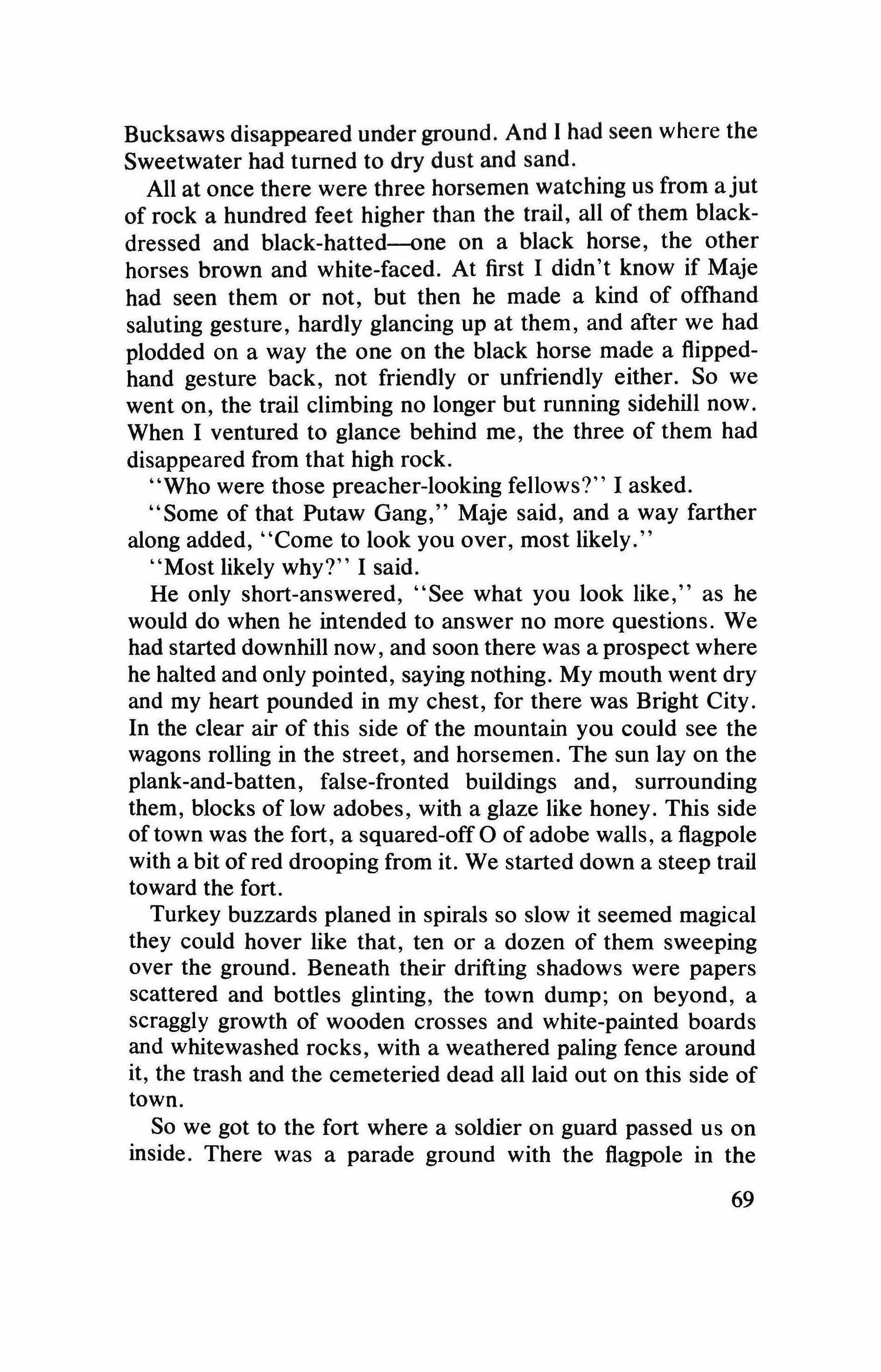
Bucksaws disappeared under ground. And I had seen where the Sweetwater had turned to dry dust and sand.
All at once there were three horsemen watching us from a jut of rock a hundred feet higher than the trail, all of them blackdressed and black-hatted-one on a black horse, the other horses brown and white-faced. At first I didn't know if Maje had seen them or not, but then he made a kind of offhand saluting gesture, hardly glancing up at them, and after we had plodded on a way the one on the black horse made a flippedhand gesture back, not friendly or unfriendly either. So we went on, the trail climbing no longer but running sidehill now. When I ventured to glance behind me, the three of them had disappeared from that high rock.
"Who were those preacher-looking fellows?" I asked.
"Some of that Putaw Gang," Maje said, and a way farther along added, "Come to look you over, most likely."
"Most likely why?" I said.
He only short-answered, "See what you look like," as he would do when he intended to answer no more questions. We had started downhill now, and soon there was a prospect where he halted and only pointed, saying nothing. My mouth went dry and my heart pounded in my chest, for there was Bright City. In the clear air of this side of the mountain you could see the wagons rolling in the street, and horsemen. The sun lay on the plank-and-batten, false-fronted buildings and, surrounding them, blocks of low adobes, with a glaze like honey. This side of town was the fort, a squared-off 0 of adobe walls, a flagpole with a bit of red drooping from it. We started down a steep trail toward the fort.
Turkey buzzards planed in spirals so slow it seemed magical they could hover like that, ten or a dozen of them sweeping over the ground. Beneath their drifting shadows were papers scattered and bottles glinting, the town dump; on beyond, a scraggly growth of wooden crosses and white-painted boards and whitewashed rocks, with a weathered paling fence around it, the trash and the cemeteried dead all laid out on this side of town.
So we got to the fort where a soldier on guard passed us on inside. There was a parade ground with the flagpole in the

center of it, and no soldiers in evidence, but a couple of washerwomen at some tubs down at the far end, and horses in a corral. To the left a sign hung from a narrow rectangle of roof:
Two gold stars decorated it. Maje and I dismounted and tied our horses to the tie rail, and entered a dim coolness. A sergeant, who was deferential to Maje, passed us along a hall which was dimmer still, to the laughing major I had met at Milady's, he and Maje saluting each other. Maje rapped on a door, and a high voice called "Come in."
With our hats in our hands we went into a room where there was no light, and a stink of camphor. Maje flourished his right hand to his brow, though I couldn't distinguish anybody at the other end of the salute. I took the envelope out of my pocket to present to the general, when I could make him out. I was feeling nervy, for the general was a great man, a hero from all the wars, though very old now. A high, irritated voice told Maje to make a light.
A match whickered, a flame caught and climbed in a glass chimney, and there was the governor sitting behind a desk with a bandage around his forehead. White hair stuck up in points above the bandage, below it a white-whiskery face with a shadow like a road agent's mask under the eyes. The bandage stank of camphor oil.
Just then I caught sight of a coffin sitting on two sawhorses behind the door, the wood gleaming with polish. Other paraphernalia were stacked around, jerking at the eyes: a bunch of flags with bullet holes in them braced in an umbrella stand, stuffed animals snarling, marble statuary, and books in stacks everywhere. The general glowered at me from under his stinking head bandage as I stepped forward to hand him the letter. He inspected it front and back before he stuck a finger inside to pop the flap. Maje had lit another lamp.
The general fitted steel-rimmed glasses on his nose to read the note from Milady, while I ventured another glance around the room. Lamp flames were reflected in glass-covered photographs hanging on the walls. There were glass cases with stuffed bobcats, a coyote with yellow teeth, and a rattlesnake
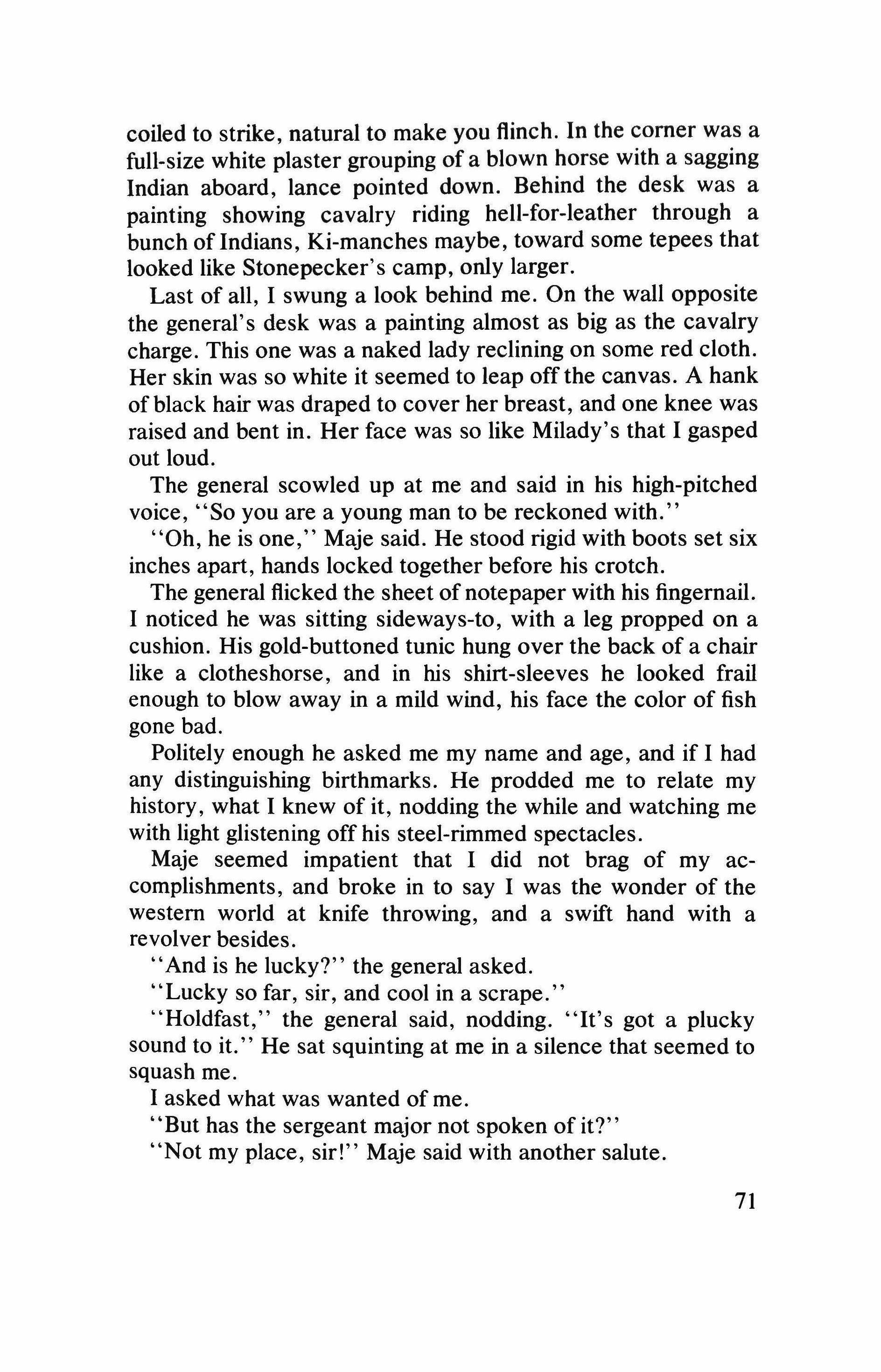
coiled to strike, natural to make you flinch. In the comer was a full-size white plaster grouping of a blown horse with a sagging Indian aboard, lance pointed down. Behind the desk was a painting showing cavalry riding hell-for-leather through a bunch oflndians, Ki-manches maybe, toward some tepees that looked like Stonepecker's camp, only larger.
Last of all, I swung a look behind me. On the wall opposite the general's desk was a painting almost as big as the cavalry charge. This one was a naked lady reclining on some red cloth. Her skin was so white it seemed to leap off the canvas. A hank of black hair was draped to cover her breast, and one knee was raised and bent in. Her face was so like Milady's that I gasped out loud.
The general scowled up at me and said in his high-pitched voice, "So you are a young man to be reckoned with."
"Oh, he is one," Maje said. He stood rigid with boots set six inches apart, hands locked together before his crotch.
The general flicked the sheet of notepaper with his fingernail. I noticed he was sitting sideways-to, with a leg propped on a cushion. His gold-buttoned tunic hung over the back of a chair like a clotheshorse, and in his shirt-sleeves he looked frail enough to blow away in a mild wind, his face the color of fish gone bad.
Politely enough he asked me my name and age, and if I had any distinguishing birthmarks. He prodded me to relate my history, what I knew of it, nodding the while and watching me with light glistening off his steel-rimmed spectacles.
Maje seemed impatient that I did not brag of my accomplishments, and broke in to say I was the wonder of the western world at knife throwing, and a swift hand with a revolver besides
And is he lucky?" the general asked.
"Lucky so far, sir, and cool in a scrape."
"Holdfast," the general said, nodding. "It's got a plucky sound to it." He sat squinting at me in a silence that seemed to squash me.
I asked what was wanted of me.
"But has the sergeant major not spoken of it?"
"Not my place, sir!" Maje said with another salute.
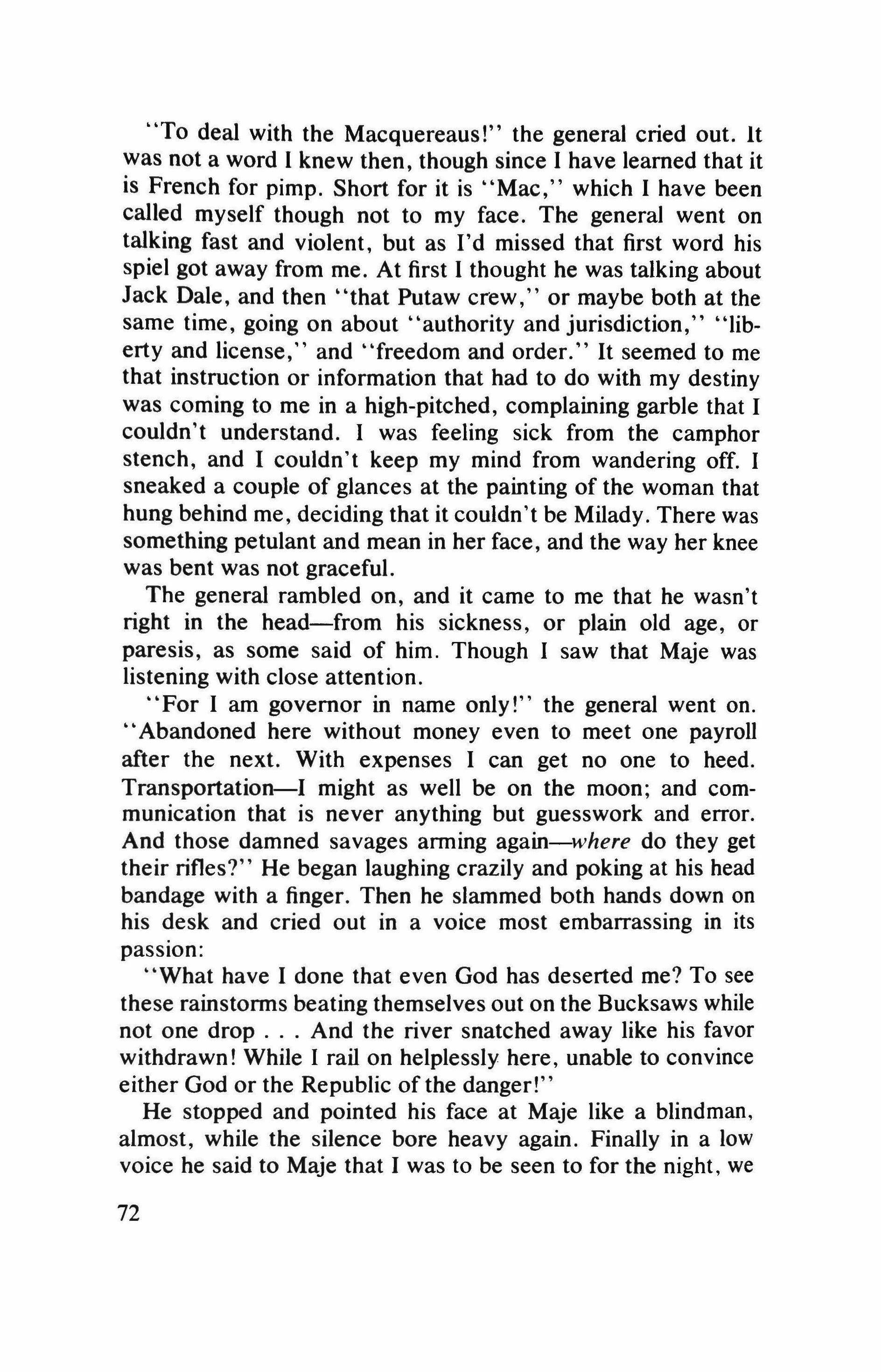
"To deal with the Macquereaus!" the general cried out. It was not a word I knew then, though since I have learned that it is French for pimp. Short for it is "Mac," which I have been called myself though not to my face. The general went on talking fast and violent, but as I'd missed that first word his spiel got away from me. At first I thought he was talking about Jack Dale, and then "that Putaw crew," or maybe both at the same time, going on about "authority and jurisdiction," "liberty and license," and "freedom and order." It seemed to me that instruction or information that had to do with my destiny was coming to me in a high-pitched, complaining garble that I couldn't understand. I was feeling sick from the camphor stench, and I couldn't keep my mind from wandering off. I sneaked a couple of glances at the painting of the woman that hung behind me, deciding that it couldn't be Milady. There was something petulant and mean in her face, and the way her knee was bent was not graceful.
The general rambled on, and it came to me that he wasn't right in the head-from his sickness, or plain old age, or paresis, as some said of him. Though I saw that Maje was listening with close attention.
"For I am governor in name only!" the general went on Abandoned here without money even to meet one payroll after the next. With expenses I can get no one to heed. Transportation-I might as well be on the moon; and communication that is never anything but guesswork and error. And those damned savages arming again-where do they get their rifles?" He began laughing crazily and poking at his head bandage with a finger. Then he slammed both hands down on his desk and cried out in a voice most embarrassing in its passion:
"What have I done that even God has deserted me? To see these rainstorms beating themselves out on the Bucksaws while not one drop And the river snatched away like his favor withdrawn! While I rail on helplessly here, unable to convince either God or the Republic of the danger!"
He stopped and pointed his face at Maje like a blindrnan, almost, while the silence bore heavy again. Finally in a low voice he said to Maje that I was to be seen to for the night, we
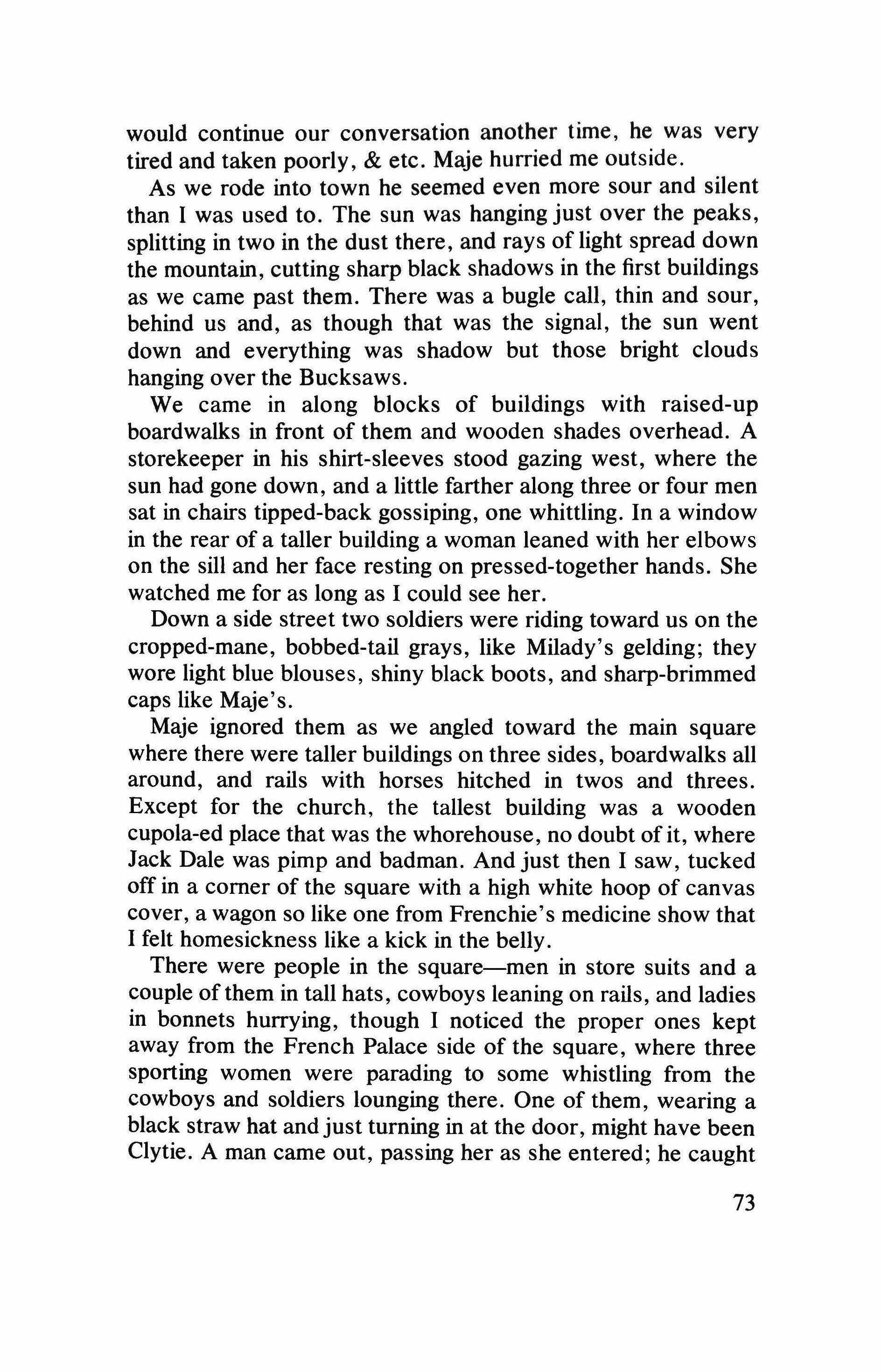
would continue our conversation another time, he was very tired and taken poorly, & etc. Maje hurried me outside.
As we rode into town he seemed even more sour and silent than I was used to. The sun was hanging just over the peaks, splitting in two in the dust there, and rays of light spread down the mountain, cutting sharp black shadows in the first buildings as we came past them. There was a bugle call, thin and sour, behind us and, as though that was the signal, the sun went down and everything was shadow but those bright clouds hanging over the Bucksaws.
We came in along blocks of buildings with raised-up boardwalks in front of them and wooden shades overhead. A storekeeper in his shirt-sleeves stood gazing west, where the sun had gone down, and a little farther along three or four men sat in chairs tipped-back gossiping, one whittling. In a window in the rear of a taller building a woman leaned with her elbows on the sill and her face resting on pressed-together hands. She watched me for as long as I could see her.
Down a side street two soldiers were riding toward us on the cropped-mane, bobbed-tail grays, like Milady's gelding; they wore light blue blouses, shiny black boots, and sharp-brimmed caps like Maje' s.
Maje ignored them as we angled toward the main square where there were taller buildings on three sides, boardwalks all around, and rails with horses hitched in twos and threes. Except for the church, the tallest building was a wooden cupola-ed place that was the whorehouse, no doubt of it, where Jack Dale was pimp and badman. And just then I saw, tucked off in a corner of the square with a high white hoop of canvas cover, a wagon so like one from Frenchie' s medicine show that I felt homesickness like a kick in the belly.
There were people in the square-men in store suits and a couple ofthem in tall hats, cowboys leaning on rails, and ladies in bonnets hurrying, though I noticed the proper ones kept away from the French Palace side of the square, where three sporting women were parading to some whistling from the cowboys and soldiers lounging there. One of them, wearing a black straw hat and just turning in at the door, might have been Clytie. A man came out, passing her as she entered; he caught
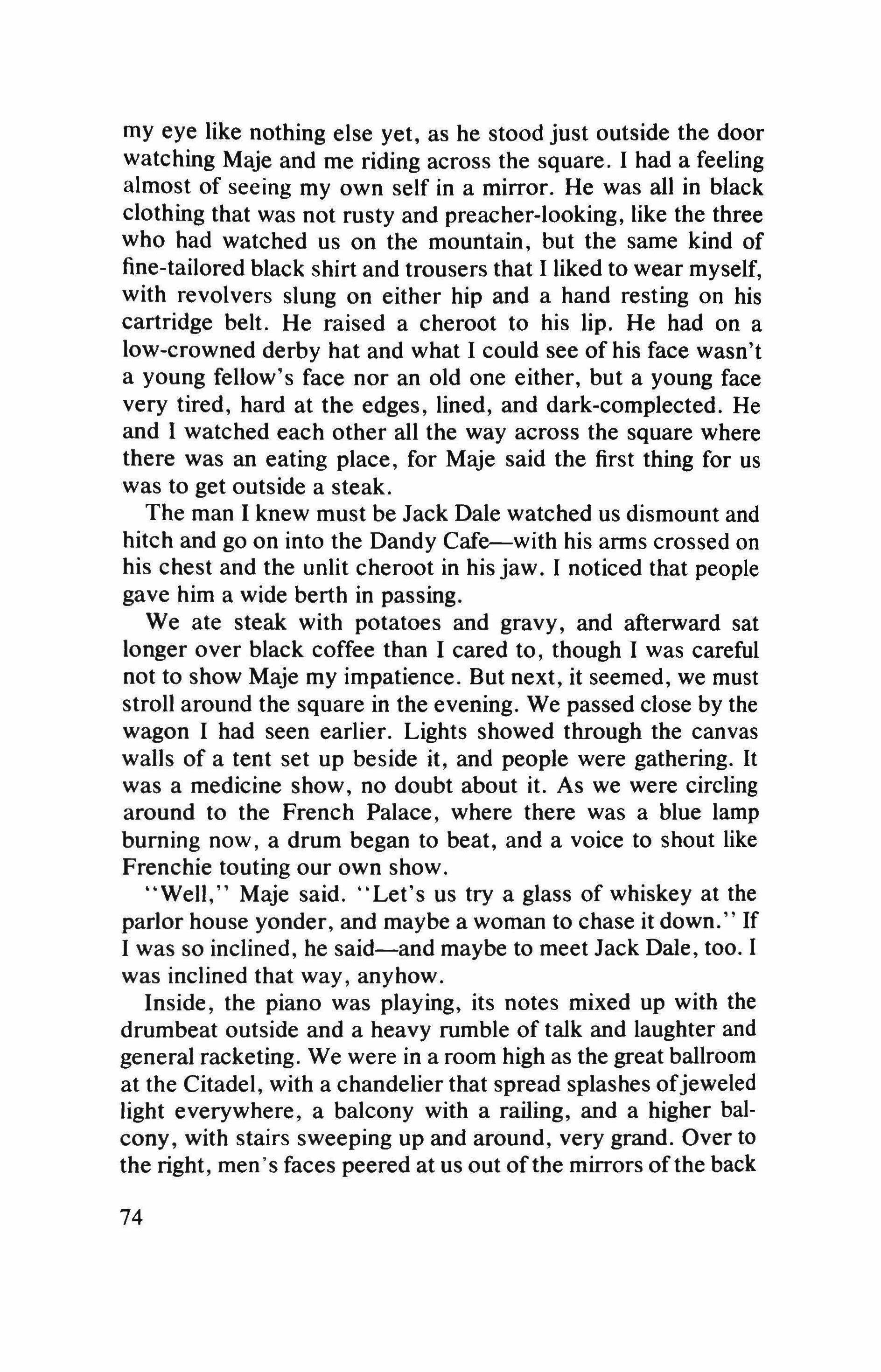
my eye like nothing else yet, as he stood just outside the door watching Maje and me riding across the square. I had a feeling almost of seeing my own self in a mirror. He was all in black clothing that was not rusty and preacher-looking, like the three who had watched us on the mountain, but the same kind of fine-tailored black shirt and trousers that I liked to wear myself, with revolvers slung on either hip and a hand resting on his cartridge belt. He raised a cheroot to his lip. He had on a low-crowned derby hat and what I could see of his face wasn't a young fellow's face nor an old one either, but a young face very tired, hard at the edges, lined, and dark-complected. He and I watched each other all the way across the square where there was an eating place, for Maje said the first thing for us was to get outside a steak.
The man I knew must be Jack Dale watched us dismount and hitch and go on into the Dandy Cafe-with his arms crossed on his chest and the unlit cheroot in his jaw. I noticed that people gave him a wide berth in passing.
We ate steak with potatoes and gravy, and afterward sat longer over black coffee than I cared to, though I was careful not to show Maje my impatience. But next, it seemed, we must stroll around the square in the evening. We passed close by the wagon I had seen earlier. Lights showed through the canvas walls of a tent set up beside it, and people were gathering. It was a medicine show, no doubt about it. As we were circling around to the French Palace, where there was a blue lamp burning now, a drum began to beat, and a voice to shout like Frenchie touting our own show.
"Well," Maje said. "Let's us try a glass of whiskey at the parlor house yonder, and maybe a woman to chase it down." If I was so inclined, he said-and maybe to meet Jack Dale, too. I was inclined that way, anyhow.
Inside, the piano was playing, its notes mixed up with the drumbeat outside and a heavy rumble of talk and laughter and general racketing. We were in a room high as the great ballroom at the Citadel, with a chandelier that spread splashes ofjeweled light everywhere, a balcony with a railing, and a higher balcony, with stairs sweeping up and around, very grand. Over to the right, men's faces peered at us out ofthe mirrors ofthe back
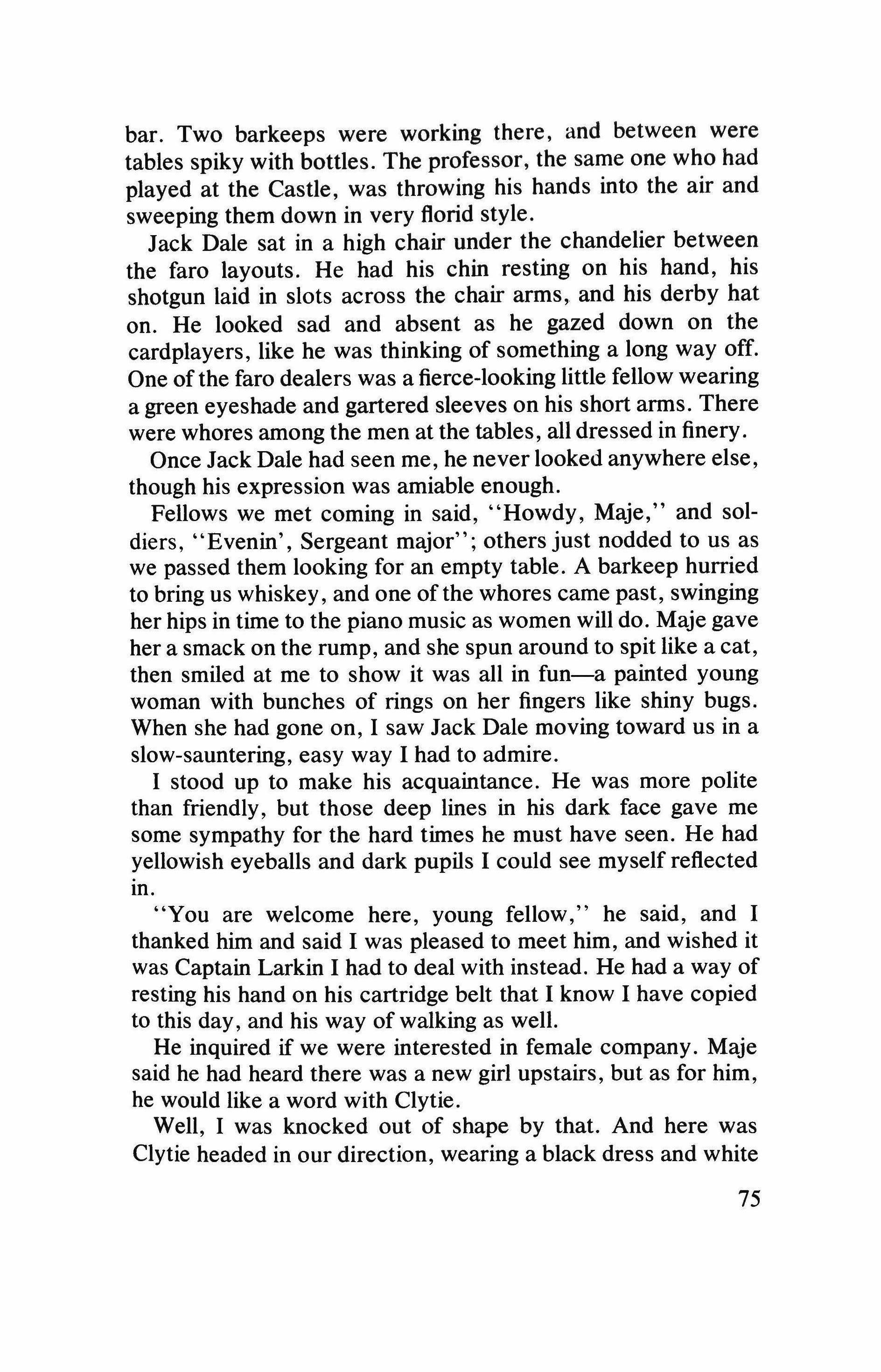
bar. Two barkeeps were working there, and between were tables spiky with bottles. The professor, the same one who had played at the Castle, was throwing his hands into the air and sweeping them down in very florid style.
Jack Dale sat in a high chair under the chandelier between the faro layouts. He had his chin resting on his hand, his shotgun laid in slots across the chair arms, and his derby hat on. He looked sad and absent as he gazed down on the cardplayers, like he was thinking of something a long way off. One of the faro dealers was a fierce-looking little fellow wearing a green eyeshade and gartered sleeves on his short arms. There were whores among the men at the tables, all dressed in finery.
Once Jack Dale had seen me, he never looked anywhere else, though his expression was amiable enough.
Fellows we met coming in said, "Howdy, Maje," and soldiers, "Evenin'; Sergeant major"; others just nodded to us as we passed them looking for an empty table. A barkeep hurried to bring us whiskey, and one of the whores came past, swinging her hips in time to the piano music as women will do. Maje gave her a smack on the rump, and she spun around to spit like a cat, then smiled at me to show it was all in fun-a painted young woman with bunches of rings on her fingers like shiny bugs. When she had gone on, I saw Jack Dale moving toward us in a slow-sauntering, easy way I had to admire.
I stood up to make his acquaintance. He was more polite than friendly, but those deep lines in his dark face gave me some sympathy for the hard times he must have seen. He had yellowish eyeballs and dark pupils I could see myself reflected m.
"You are welcome here, young fellow," he said, and I thanked him and said I was pleased to meet him, and wished it was Captain Larkin I had to deal with instead. He had a way of resting his hand on his cartridge belt that I know I have copied to this day, and his way of walking as well.
He inquired if we were interested in female company. Maje said he had heard there was a new girl upstairs, but as for him, he would like a word with Clytie.
Well, I was knocked out of shape by that. And here was Clytie headed in our direction, wearing a black dress and white
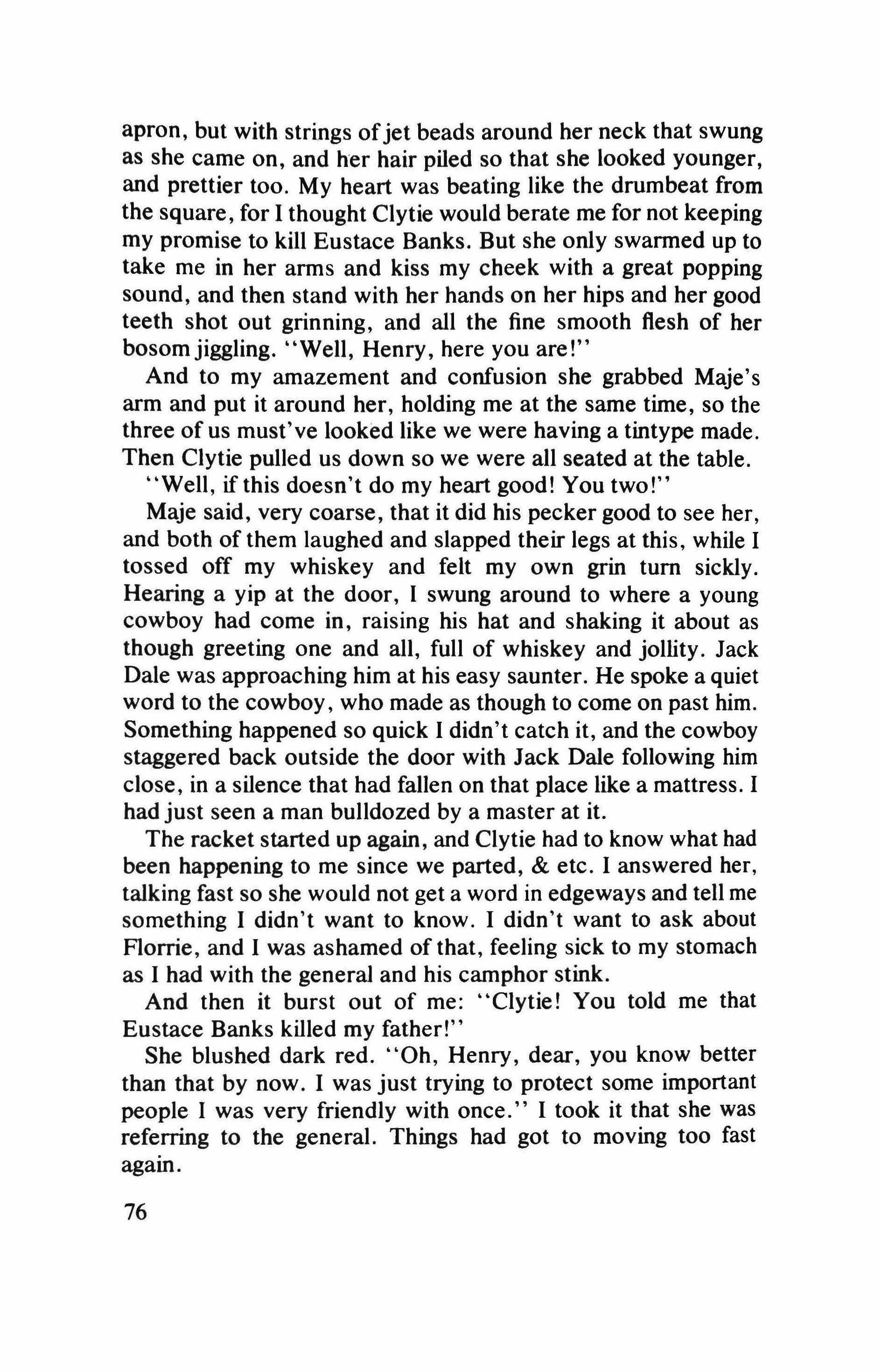
apron, but with strings ofjet beads around her neck that swung as she came on, and her hair piled so that she looked younger, and prettier too. My heart was beating like the drumbeat from the square, for I thought Clytie would berate me for not keeping my promise to kill Eustace Banks. But she only swarmed up to take me in her arms and kiss my cheek with a great popping sound, and then stand with her hands on her hips and her good teeth shot out grinning, and all the fine smooth flesh of her bosom jiggling. "Well, Henry, here you are!"
And to my amazement and confusion she grabbed Maje' s arm and put it around her, holding me at the same time, so the three of us must've looked like we were having a tintype made. Then Clytie pulled us down so we were all seated at the table.
"Well, if this doesn't do my heart good! You two!"
Maje said, very coarse, that it did his peeker good to see her, and both of them laughed and slapped their legs at this, while I tossed off my whiskey and felt my own grin tum sickly. Hearing a yip at the door, I swung around to where a young cowboy had come in, raising his hat and shaking it about as though greeting one and all, full of whiskey and jollity. Jack Dale was approaching him at his easy saunter. He spoke a quiet word to the cowboy, who made as though to come on past him. Something happened so quick I didn't catch it, and the cowboy staggered back outside the door with Jack Dale following him close, in a silence that had fallen on that place like a mattress. I had just seen a man bulldozed by a master at it.
The racket started up again, and Clytie had to know what had been happening to me since we parted, & etc. I answered her, talking fast so she would not get a word in edgeways and tell me something I didn't want to know. I didn't want to ask about Florrie, and I was ashamed of that, feeling sick to my stomach as I had with the general and his camphor stink.
And then it burst out of me: "Clytie! You told me that Eustace Banks killed my father!"
She blushed dark red. "Oh, Henry, dear, you know better than that by now. I was just trying to protect some important people I was very friendly with once." I took it that she was referring to the general. Things had got to moving too fast again.
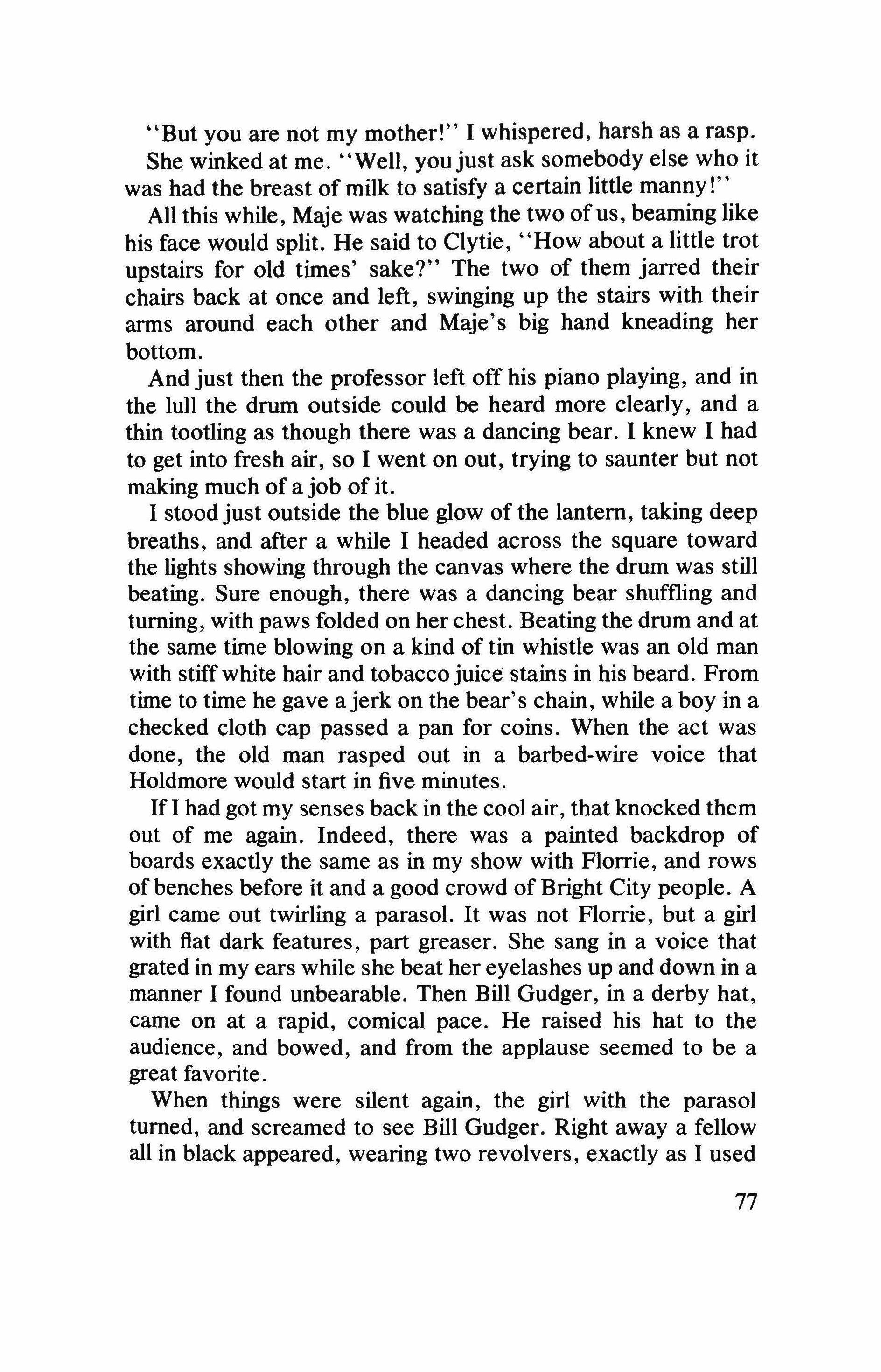
"But you are not my mother!" I whispered, harsh as a rasp. She winked at me. "Well, you just ask somebody else who it was had the breast of milk to satisfy a certain little manny!"
All this while, Maje was watching the two of us, beaming like his face would split. He said to Clytie, "How about a little trot upstairs for old times' sake?" The two of them jarred their chairs back at once and left, swinging up the stairs with their arms around each other and Maje's big hand kneading her bottom.
And just then the professor left off his piano playing, and in the lull the drum outside could be heard more clearly, and a thin tootling as though there was a dancing bear. I knew I had to get into fresh air, so I went on out, trying to saunter but not making much of a job of it.
I stood just outside the blue glow of the lantern, taking deep breaths, and after a while I headed across the square toward the lights showing through the canvas where the drum was still beating. Sure enough, there was a dancing bear shuffling and turning, with paws folded on her chest. Beating the drum and at the same time blowing on a kind of tin whistle was an old man with stiff white hair and tobacco juice stains in his beard. From time to time he gave ajerk on the bear's chain, while a boy in a checked cloth cap passed a pan for coins. When the act was done, the old man rasped out in a barbed-wire voice that Holdmore would start in five minutes.
If I had got my senses back in the cool air, that knocked them out of me again. Indeed, there was a painted backdrop of boards exactly the same as in my show with Florrie, and rows of benches before it and a good crowd of Bright City people. A girl came out twirling a parasol. It was not Florrie, but a girl with flat dark features, part greaser. She sang in a voice that grated in my ears while she beat her eyelashes up and down in a manner I found unbearable. Then Bill Gudger, in a derby hat, came on at a rapid, comical pace. He raised his hat to the audience, and bowed, and from the applause seemed to be a great favorite.
When things were silent again, the girl with the parasol turned, and screamed to see Bill Gudger. Right away a fellow all in black appeared, wearing two revolvers, exactly as I used
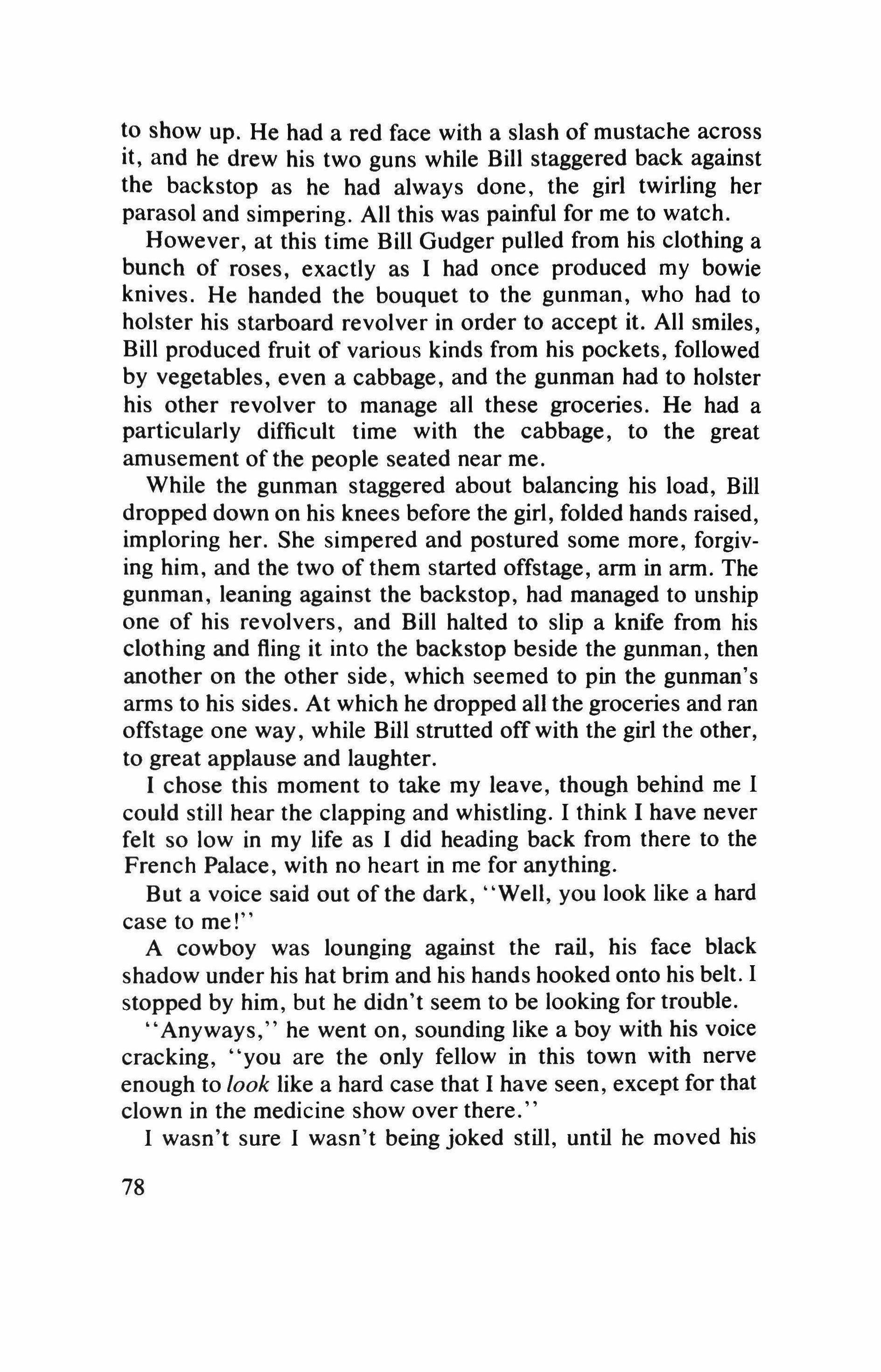
to show up. He had a red face with a slash of mustache across it, and he drew his two guns while Bill staggered back against the backstop as he had always done, the girl twirling her parasol and simpering. All this was painful for me to watch.
However, at this time Bill Gudger pulled from his clothing a bunch of roses, exactly as I had once produced my bowie knives. He handed the bouquet to the gunman, who had to holster his starboard revolver in order to accept it. All smiles, Bill produced fruit of various kinds from his pockets, followed by vegetables, even a cabbage, and the gunman had to holster his other revolver to manage all these groceries. He had a particularly difficult time with the cabbage, to the great amusement of the people seated near me.
While the gunman staggered about balancing his load, Bill dropped down on his knees before the girl, folded hands raised, imploring her. She simpered and postured some more, forgiving him, and the two of them started offstage, arm in arm. The gunman, leaning against the backstop, had managed to unship one of his revolvers, and Bill halted to slip a knife from his clothing and fling it into the backstop beside the gunman, then another on the other side, which seemed to pin the gunman's arms to his sides. At which he dropped all the groceries and ran offstage one way, while Bill strutted off with the girl the other, to great applause and laughter.
I chose this moment to take my leave, though behind me I could still hear the clapping and whistling. I think I have never felt so low in my life as I did heading back from there to the French Palace, with no heart in me for anything.
But a voice said out of the dark, "Well, you look like a hard case to me!"
A cowboy was lounging against the rail, his face black shadow under his hat brim and his hands hooked onto his belt. I stopped by him, but he didn't seem to be looking for trouble.
"Anyways," he went on, sounding like a boy with his voice cracking, "you are the only fellow in this town with nerve enough to look like a hard case that I have seen, except for that clown in the medicine show over there."
I wasn't sure I wasn't being joked still, until he moved his

head so that his face caught some light. His cheek was blazed with blood that had run down to his chin, dried and crusted now; he was the cowboy Jack Dale had bulldozed.
I said 1 had seen him smacked, but not what he had done to warrant it.
He said a man didn't need to do anything but look a certain way to warrant a thing-what this town had come to. It was enough to make a fellow head out for Putaw Crossing to throw his duffle in with those fellows.
1 leaned against the rail beside him to hear what else he had to say, which was that the general owned the whorehouse and half the town besides, and Jack Dale kept the peace for him except that all he did was run honest men out to join the desperadoes. It had about come to it that there were more good fellows among King Mac's gang than left in town, so everything had got turned around.
Others had sidled up to listen to him in his bitterness. One of these was the little faro dealer, who said, "Well, sonny, if you think those are fine honest fellows over at the Crossing, and Jack Dale a blackheart scoundrel, you are going to find you are mistaken."
"I suppose you will tell him 1 have been blowing against him out here," the cowboy said.
"Tell him just what you've been saying for myself, some of it," the dealer said. His cigar sparked as he gesticulated with it. "Told him before. Told him he is taking too much on himself. People starting to turn against him."
There were mutterings from the other men gathered around us. The cowboy was picking at the scab on his chin. "Hear they're paying good money out there," he said.
"Ha!" the little man said. "You think he takes things strict, you just go out there and see. They'll badger the soul right out of you, that bunch."
"Well, 1 don't know about that," another said. "I just see things are run for the bigwigs in this town. And Jack Dale does the running."
A man in a narrow-brimmed hat said, "He came over and laid down the law to us first thing. How the drum was too loud
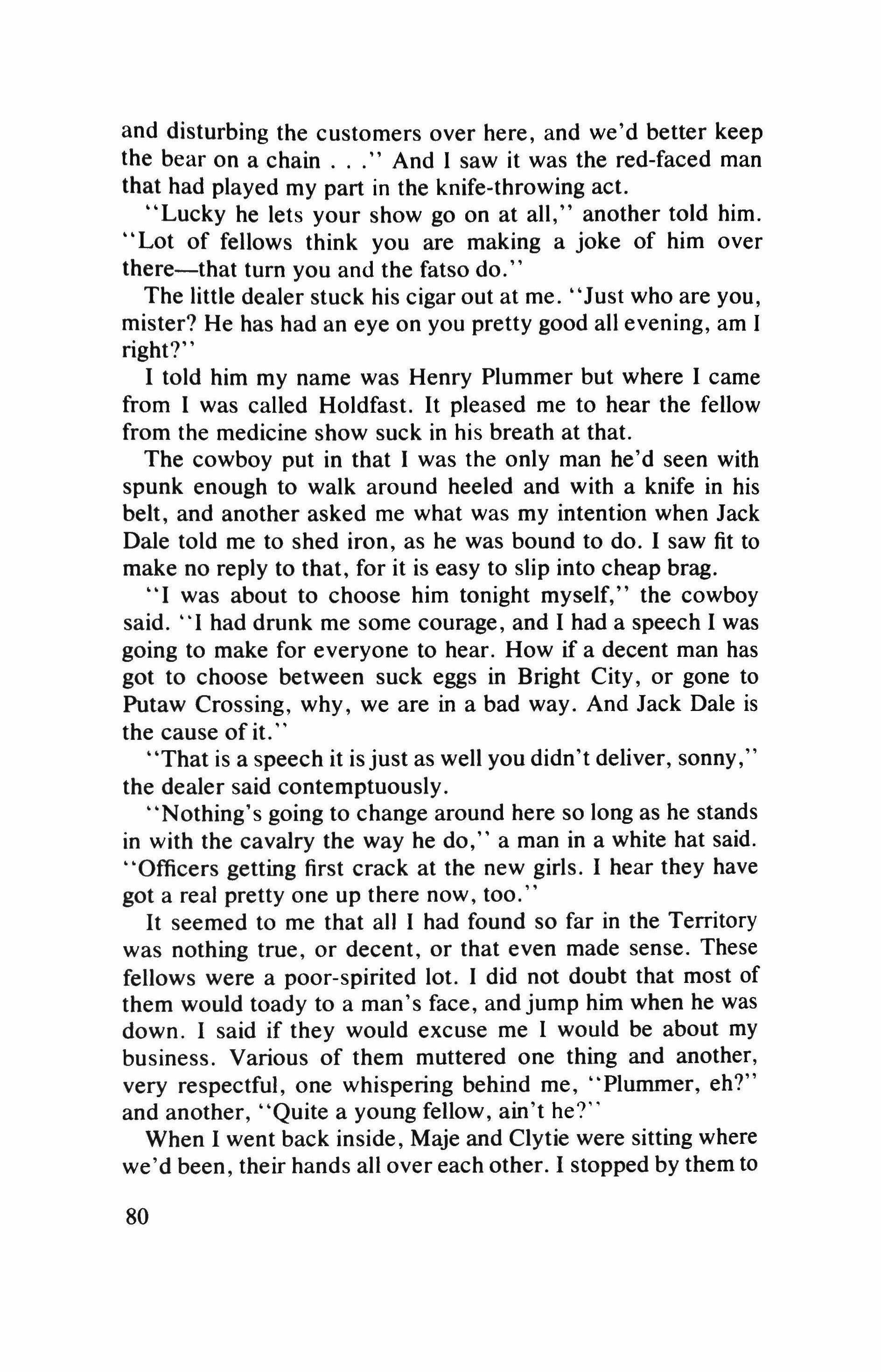
and disturbing the customers over here, and we'd better keep the bear on a chain
And I saw it was the red-faced man that had played my part in the knife-throwing act.
"Lucky he lets your show go on at all," another told him
Lot of fellows think you are making a joke of him over there-that turn you and the fatso do."
The little dealer stuck his cigar out at me. "Just who are you, mister? He has had an eye on you pretty good all evening, am I right?"
I told him my name was Henry Plummer but where I came from I was called Holdfast. It pleased me to hear the fellow from the medicine show suck in his breath at that.
The cowboy put in that I was the only man he'd seen with spunk enough to walk around heeled and with a knife in his belt, and another asked me what was my intention when Jack Dale told me to shed iron, as he was bound to do. I saw fit to make no reply to that, for it is easy to slip into cheap brag I was about to choose him tonight myself," the cowboy said. "I had drunk me some courage, and I had a speech I was going to make for everyone to hear. How if a decent man has got to choose between suck eggs in Bright City, or gone to Putaw Crossing, why, we are in a bad way. And Jack Dale is the cause of it.
"That is a speech it is just as well you didn't deliver, sonny," the dealer said contemptuously.
"Nothing's going to change around here so long as he stands in with the cavalry the way he do," a man in a white hat said. "Officers getting first crack at the new girls. I hear they have got a real pretty one up there now, too."
It seemed to me that all I had found so far in the Territory was nothing true, or decent, or that even made sense. These fellows were a poor-spirited lot. I did not doubt that most of them would toady to a man's face, and jump him when he was down. I said if they would excuse me I would be about my business. Various of them muttered one thing and another, very respectful, one whispering behind me, "Plummer, eh?" and another, "Quite a young fellow, ain't he?"
When I went back inside, Maje and Clytie were sitting where we'd been, their hands all over each other. I stopped by them to
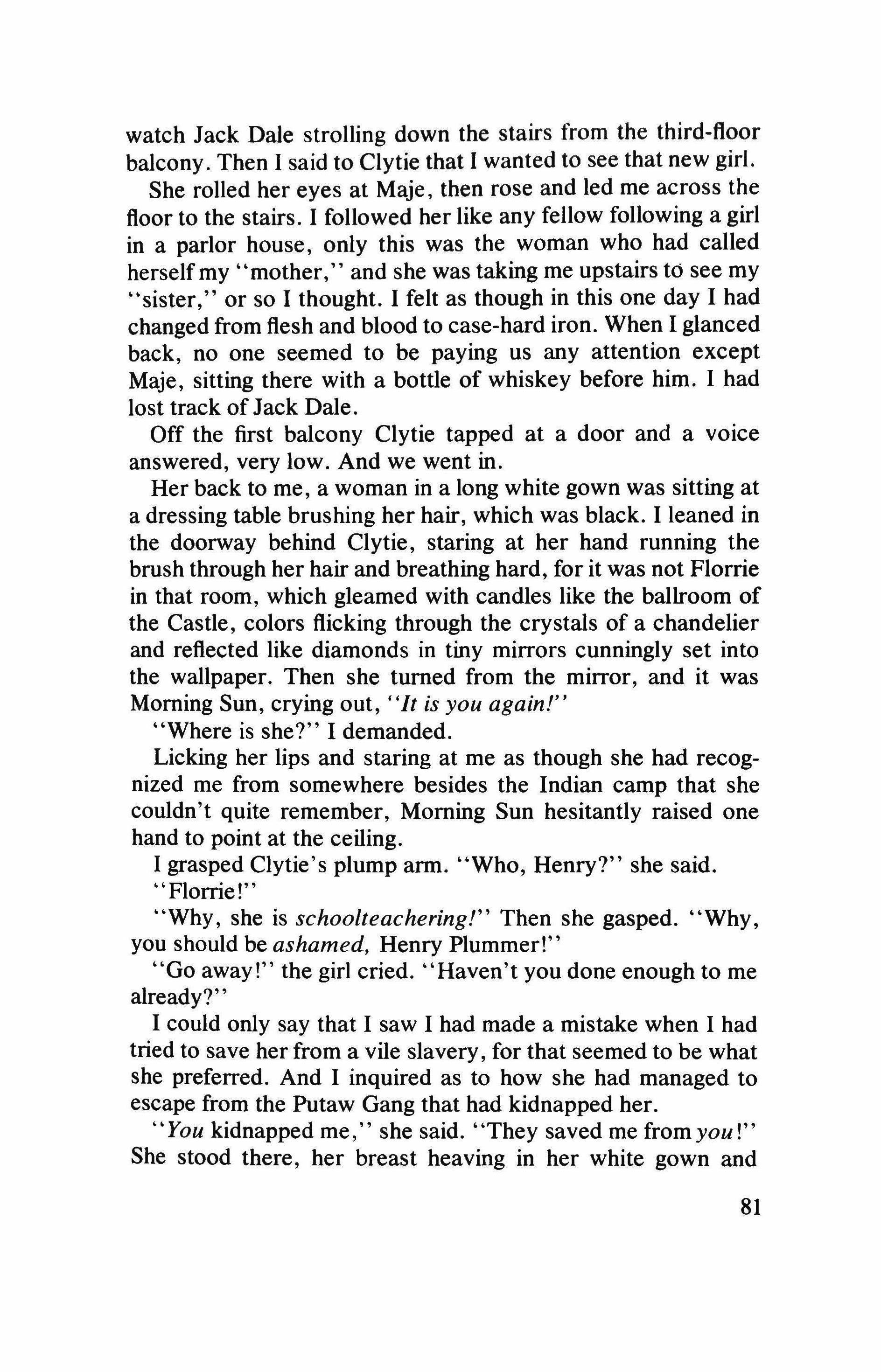
watch Jack Dale strolling down the stairs from the third-floor balcony. Then I said to Clytie that I wanted to see that new girl.
She rolled her eyes at Maje, then rose and led me across the floor to the stairs. I followed her like any fellow following a girl in a parlor house, only this was the woman who had called herselfmy "mother, and she was taking me upstairs to see my "sister," or so I thought. I felt as though in this one day I had changed from flesh and blood to case-hard iron. When I glanced back, no one seemed to be paying us any attention except Maje, sitting there with a bottle of whiskey before him. I had lost track of Jack Dale.
Off the first balcony Clytie tapped at a door and a voice answered, very low. And we went in.
Her back to me, a woman in a long white gown was sitting at a dressing table brushing her hair, which was black. I leaned in the doorway behind Clytie, staring at her hand running the brush through her hair and breathing hard, for it was not Florrie in that room, which gleamed with candles like the ballroom of the Castle, colors flicking through the crystals of a chandelier and reflected like diamonds in tiny mirrors cunningly set into the wallpaper. Then she turned from the mirror, and it was Morning Sun, crying out, "It is you again!"
"Where is she?" I demanded.
Licking her lips and staring at me as though she had recognized me from somewhere besides the Indian camp that she couldn't quite remember, Morning Sun hesitantly raised one hand to point at the ceiling.
I grasped Clytie's plump arm. "Who, Henry?" she said.
"Florrie!
"Why, she is schoolteachering!" Then she gasped. "Why, you should be ashamed, Henry Plummer!"
"Go away!" the girl cried. "Haven't you done enough to me already?"
I could only say that I saw I had made a mistake when I had tried to save her from a vile slavery, for that seemed to be what she preferred. And I inquired as to how she had managed to escape from the Putaw Gang that had kidnapped her.
"You kidnapped me," she said. "They saved me from you!" She stood there, her breast heaving in her white gown and
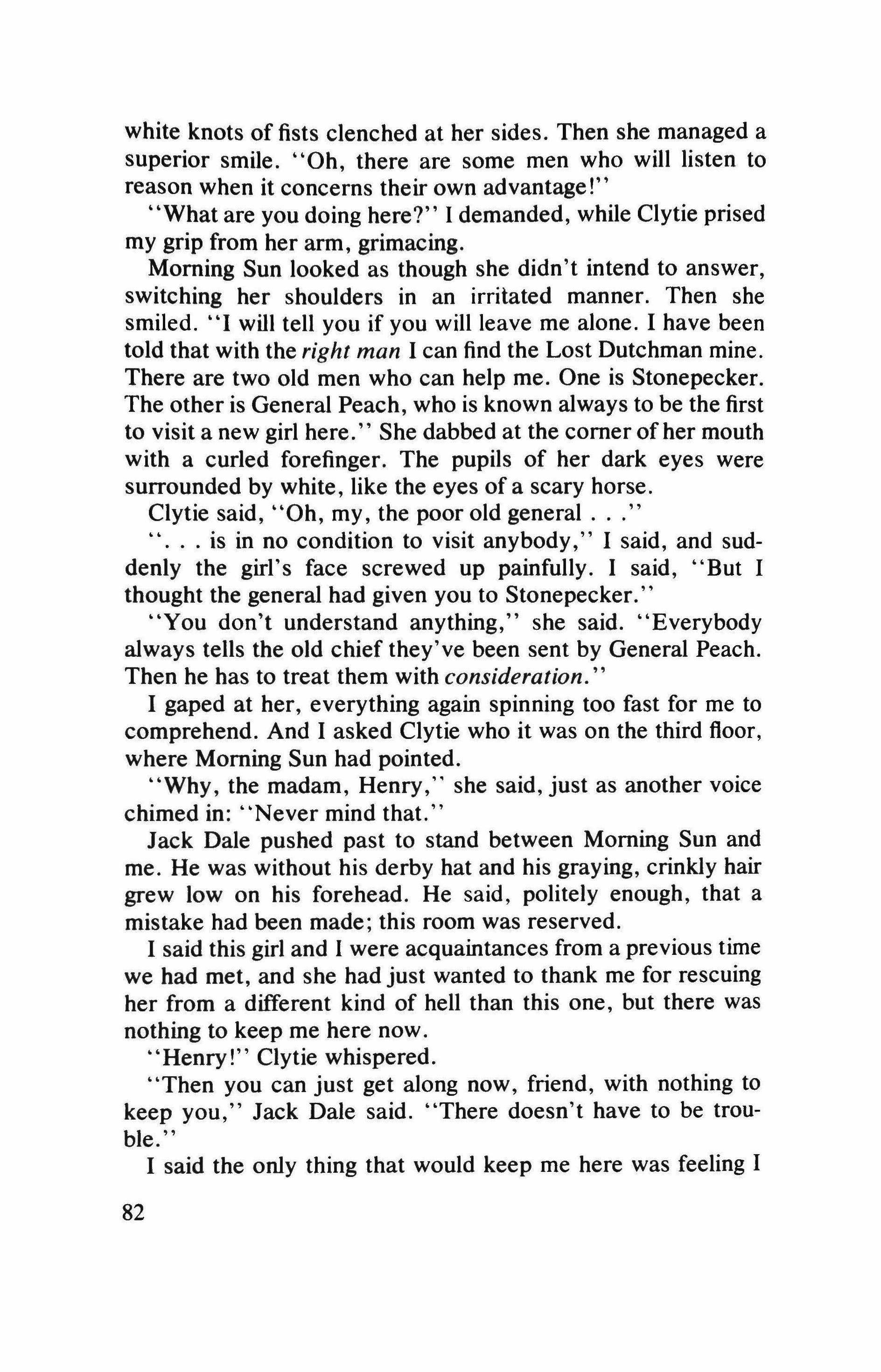
white knots of fists clenched at her sides. Then she managed a superior smile. "Oh, there are some men who will listen to reason when it concerns their own advantage!"
"What are you doing here?" I demanded, while Clytie prised my grip from her arm, grimacing.
Morning Sun looked as though she didn't intend to answer, switching her shoulders in an irritated manner. Then she smiled. "I will tell you if you will leave me alone. I have been told that with the right man I can find the Lost Dutchman mine. There are two old men who can help me. One is Stonepecker. The other is General Peach, who is known always to be the first to visit a new girl here. She dabbed at the corner of her mouth with a curled forefinger. The pupils of her dark eyes were surrounded by white, like the eyes of a scary horse.
Clytie said, "Oh, my, the poor old general is in no condition to visit anybody," I said, and suddenly the girl's face screwed up painfully. I said, "But I thought the general had given you to Stonepecker."
"You don't understand anything," she said. "Everybody always tells the old chief they've been sent by General Peach. Then he has to treat them with consideration."
I gaped at her, everything again spinning too fast for me to comprehend. And I asked Clytie who it was on the third floor, where Morning Sun had pointed.
"Why, the madam, Henry," she said, just as another voice chimed in: "Never mind that."
Jack Dale pushed past to stand between Morning Sun and me. He was without his derby hat and his graying, crinkly hair grew low on his forehead. He said, politely enough, that a mistake had been made; this room was reserved.
I said this girl and I were acquaintances from a previous time we had met, and she had just wanted to thank me for rescuing her from a different kind of hell than this one, but there was nothing to keep me here now.
"Henry!" Clytie whispered.
"Then you can just get along now, friend, with nothing to keep you," Jack Dale said. "There doesn't have to be trouble.
I said the only thing that would keep me here was feeling I
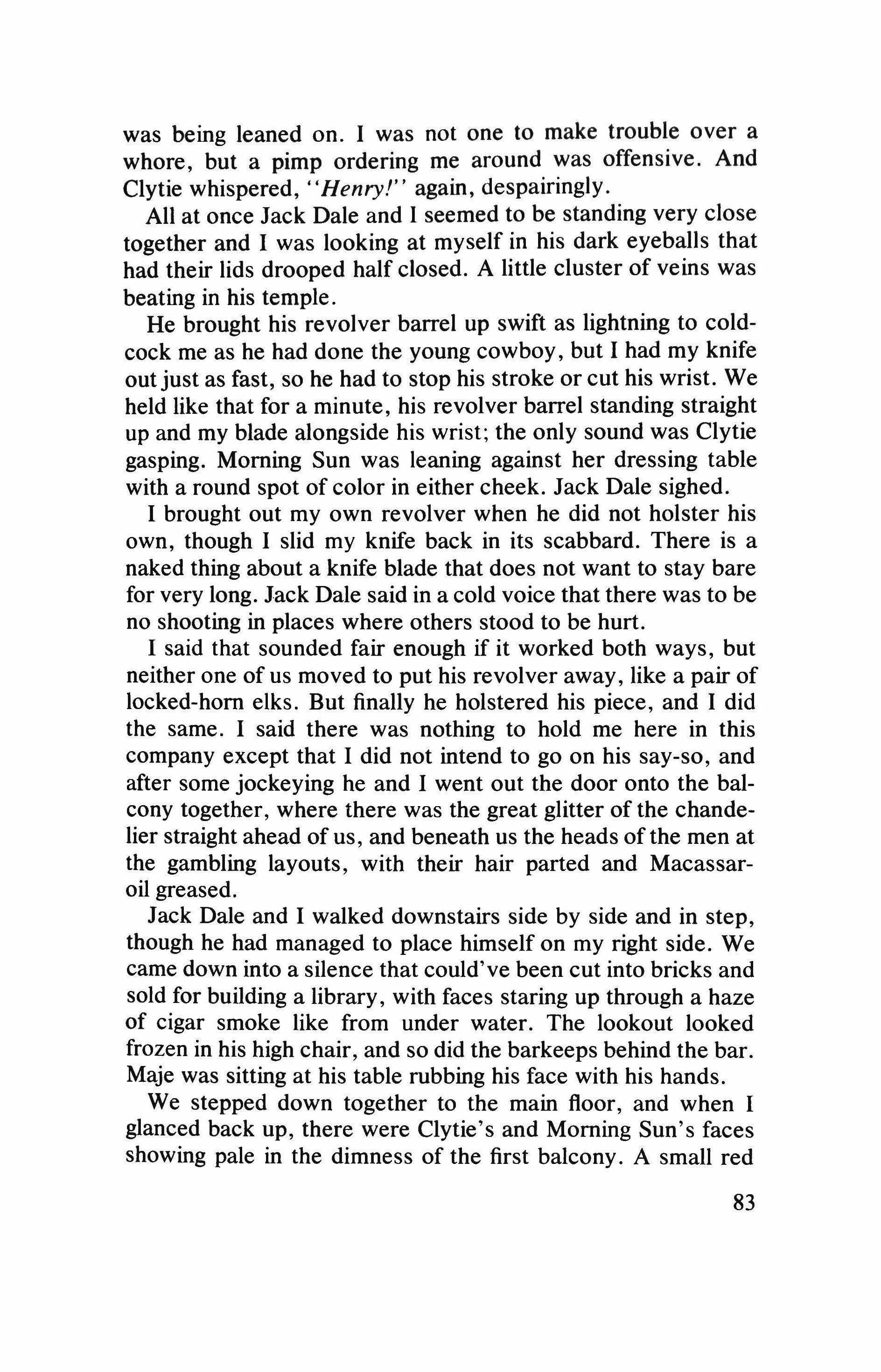
was being leaned on. I was not one to make trouble over a whore, but a pimp ordering me around was offensive. And Clytie whispered, "Henry!" again, despairingly.
All at once Jack Dale and I seemed to be standing very close together and I was looking at myself in his dark eyeballs that had their lids drooped half closed. A little cluster of veins was beating in his temple.
He brought his revolver barrel up swift as lightning to coldcock me as he had done the young cowboy, but I had my knife out just as fast, so he had to stop his stroke or cut his wrist. We held like that for a minute, his revolver barrel standing straight up and my blade alongside his wrist; the only sound was Clytie gasping. Morning Sun was leaning against her dressing table with a round spot of color in either cheek. Jack Dale sighed.
I brought out my own revolver when he did not holster his own, though I slid my knife back in its scabbard. There is a naked thing about a knife blade that does not want to stay bare for very long. Jack Dale said in a cold voice that there was to be no shooting in places where others stood to be hurt.
I said that sounded fair enough if it worked both ways, but neither one of us moved to put his revolver away, like a pair of locked-hom elks. But finally he holstered his piece, and I did the same. I said there was nothing to hold me here in this company except that I did not intend to go on his say-so, and after some jockeying he and I went out the door onto the balcony together, where there was the great glitter of the chandelier straight ahead of us, and beneath us the heads of the men at the gambling layouts, with their hair parted and Macassaroil greased.
Jack Dale and I walked downstairs side by side and in step, though he had managed to place himself on my right side. We came down into a silence that could've been cut into bricks and sold for building a library, with faces staring up through a haze of cigar smoke like from under water. The lookout looked frozen in his high chair, and so did the barkeeps behind the bar. Maje was sitting at his table rubbing his face with his hands.
We stepped down together to the main floor, and when I glanced back up, there were Clytie's and Morning Sun's faces showing pale in the dimness of the first balcony. A small red
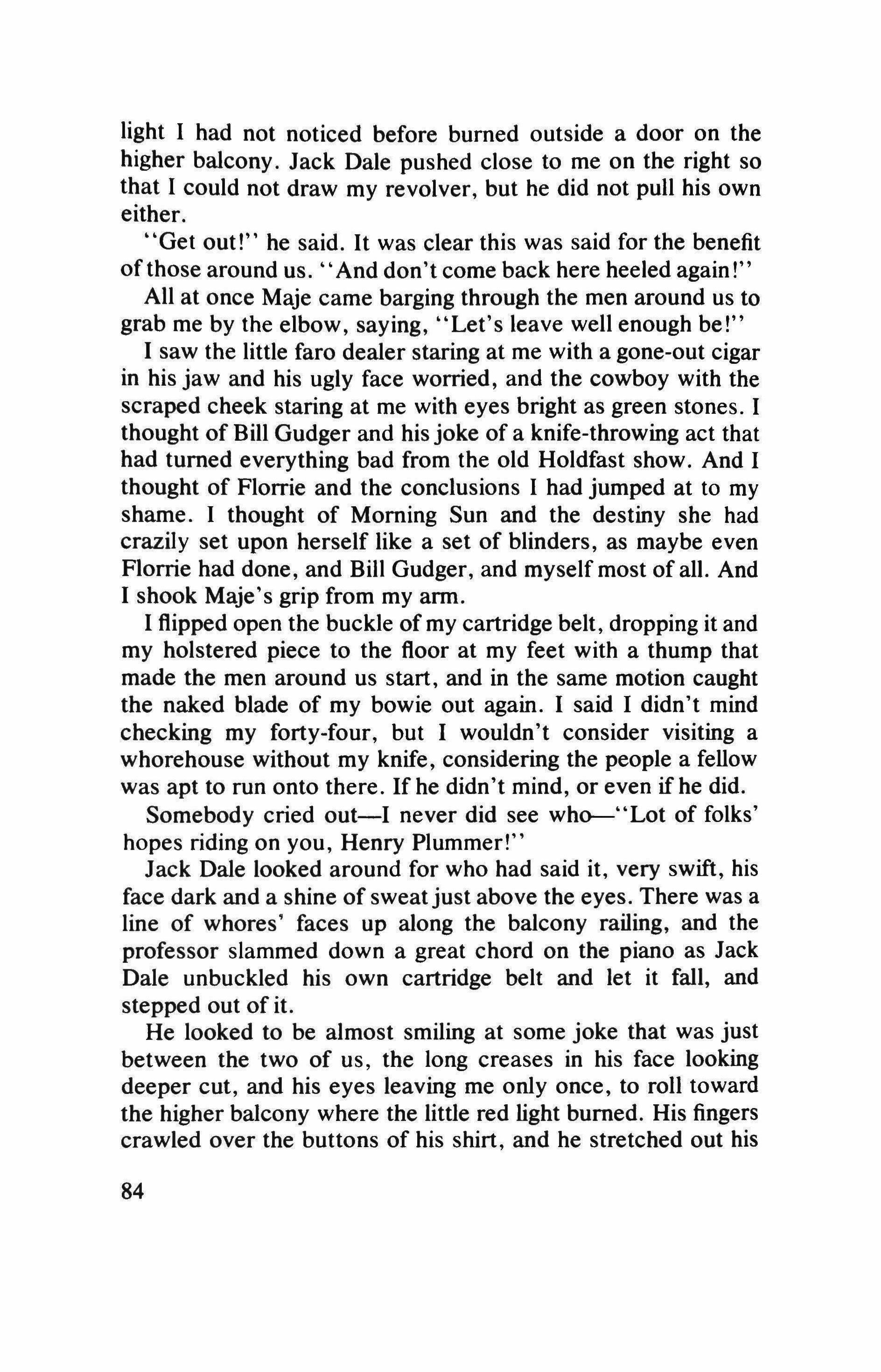
light I had not noticed before burned outside a door on the higher balcony. Jack Dale pushed close to me on the right so that I could not draw my revolver, but he did not pull his own either.
"Get out!" he said. It was clear this was said for the benefit of those around us. "And don't come back here heeled again!"
All at once Maje came barging through the men around us to grab me by the elbow, saying, "Let's leave well enough be!"
I saw the little faro dealer staring at me with a gone-out cigar in his jaw and his ugly face worried, and the cowboy with the scraped cheek staring at me with eyes bright as green stones. I thought of Bill Gudger and his joke of a knife-throwing act that had turned everything bad from the old Holdfast show. And I thought of Florrie and the conclusions I had jumped at to my shame. I thought of Morning Sun and the destiny she had crazily set upon herself like a set of blinders, as maybe even Florrie had done, and Bill Gudger, and myself most of all. And I shook Maje's grip from my arm.
I flipped open the buckle of my cartridge belt, dropping it and my holstered piece to the floor at my feet with a thump that made the men around us start, and in the same motion caught the naked blade of my bowie out again. I said 1 didn't mind checking my forty-four, but 1 wouldn't consider visiting a whorehouse without my knife, considering the people a fellow was apt to run onto there. If he didn't mind, or even if he did.
Somebody cried out-I never did see who-"Lot of folks' hopes riding on you, Henry Plummer!"
Jack Dale looked around for who had said it, very swift, his face dark and a shine of sweat just above the eyes. There was a line of whores' faces up along the balcony railing, and the professor slammed down a great chord on the piano as Jack Dale unbuckled his own cartridge belt and let it fall, and stepped out of it.
He looked to be almost smiling at some joke that was just between the two of us, the long creases in his face looking deeper cut, and his eyes leaving me only once, to roll toward the higher balcony where the little red light burned. His fingers crawled over the buttons of his shirt, and he stretched out his
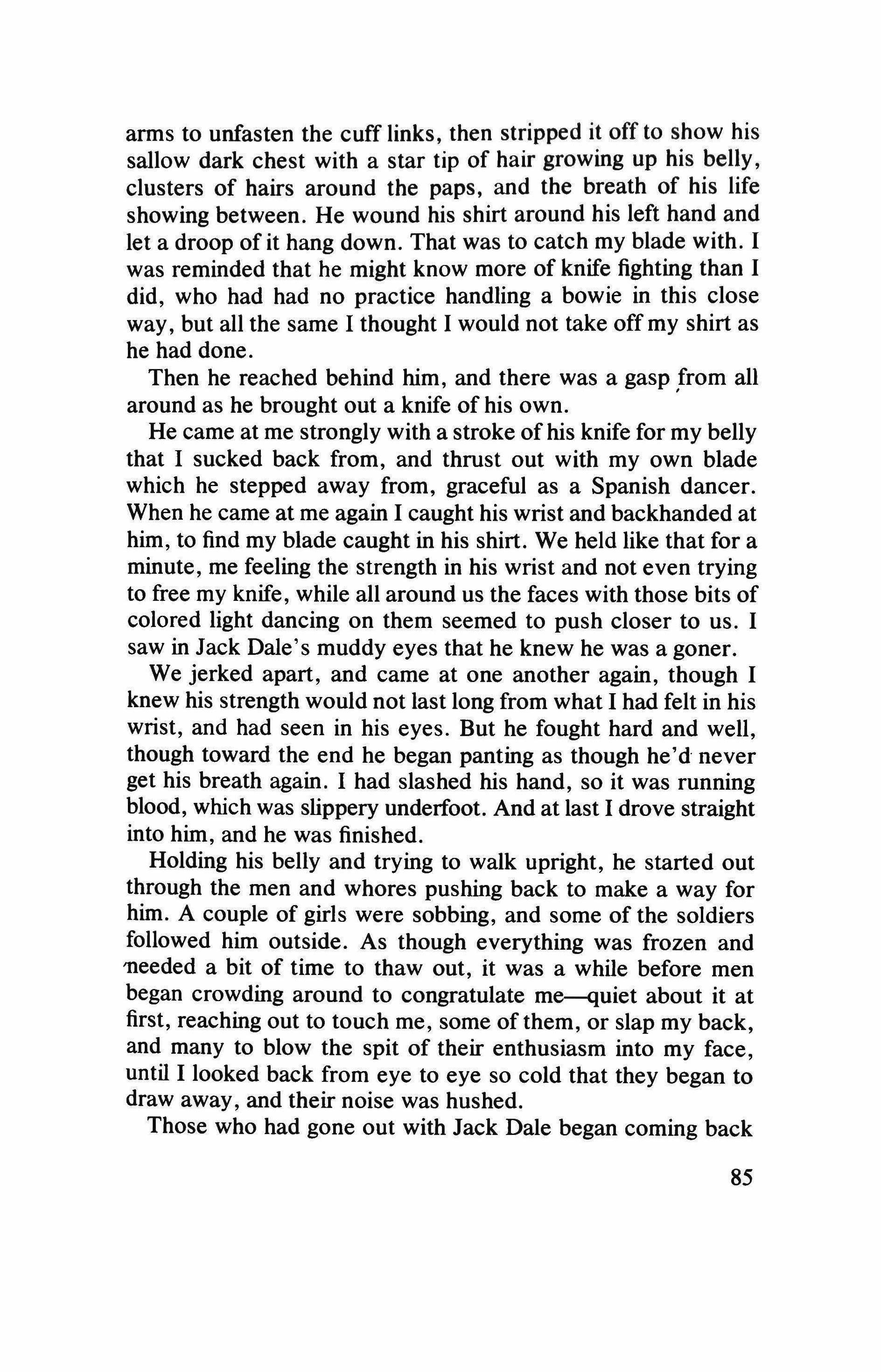
arms to unfasten the cuff links, then stripped it off to show his sallow dark chest with a star tip of hair growing up his belly, clusters of hairs around the paps, and the breath of his life showing between. He wound his shirt around his left hand and let a droop of it hang down. That was to catch my blade with. I was reminded that he might know more of knife fighting than I did, who had had no practice handling a bowie in this close way, but all the same I thought I would not take off my shirt as he had done.
Then he reached behind him, and there was a gasp from all around as he brought out a knife of his own.
He came at me strongly with a stroke of his knife for my belly that I sucked back from, and thrust out with my own blade which he stepped away from, graceful as a Spanish dancer. When he came at me again I caught his wrist and backhanded at him, to find my blade caught in his shirt. We held like that for a minute, me feeling the strength in his wrist and not even trying to free my knife, while all around us the faces with those bits of colored light dancing on them seemed to push closer to us. I saw in Jack Dale's muddy eyes that he knew he was a goner.
We jerked apart, and came at one another again, though I knew his strength would not last long from what I had felt in his wrist, and had seen in his eyes. But he fought hard and well, though toward the end he began panting as though he'd never get his breath again. I had slashed his hand, so it was running blood, which was slippery underfoot. And at last I drove straight into him, and he was finished.
Holding his belly and trying to walk upright, he started out through the men and whores pushing back to make a way for him. A couple of girls were sobbing, and some of the soldiers followed him outside. As though everything was frozen and needed a bit of time to thaw out, it was a while before men began crowding around to congratulate me---quiet about it at first, reaching out to touch me, some of them, or slap my back, and many to blow the spit of their enthusiasm into my face, until I looked back from eye to eye so cold that they began to draw away, and their noise was hushed.
Those who had gone out with Jack Dale began coming back
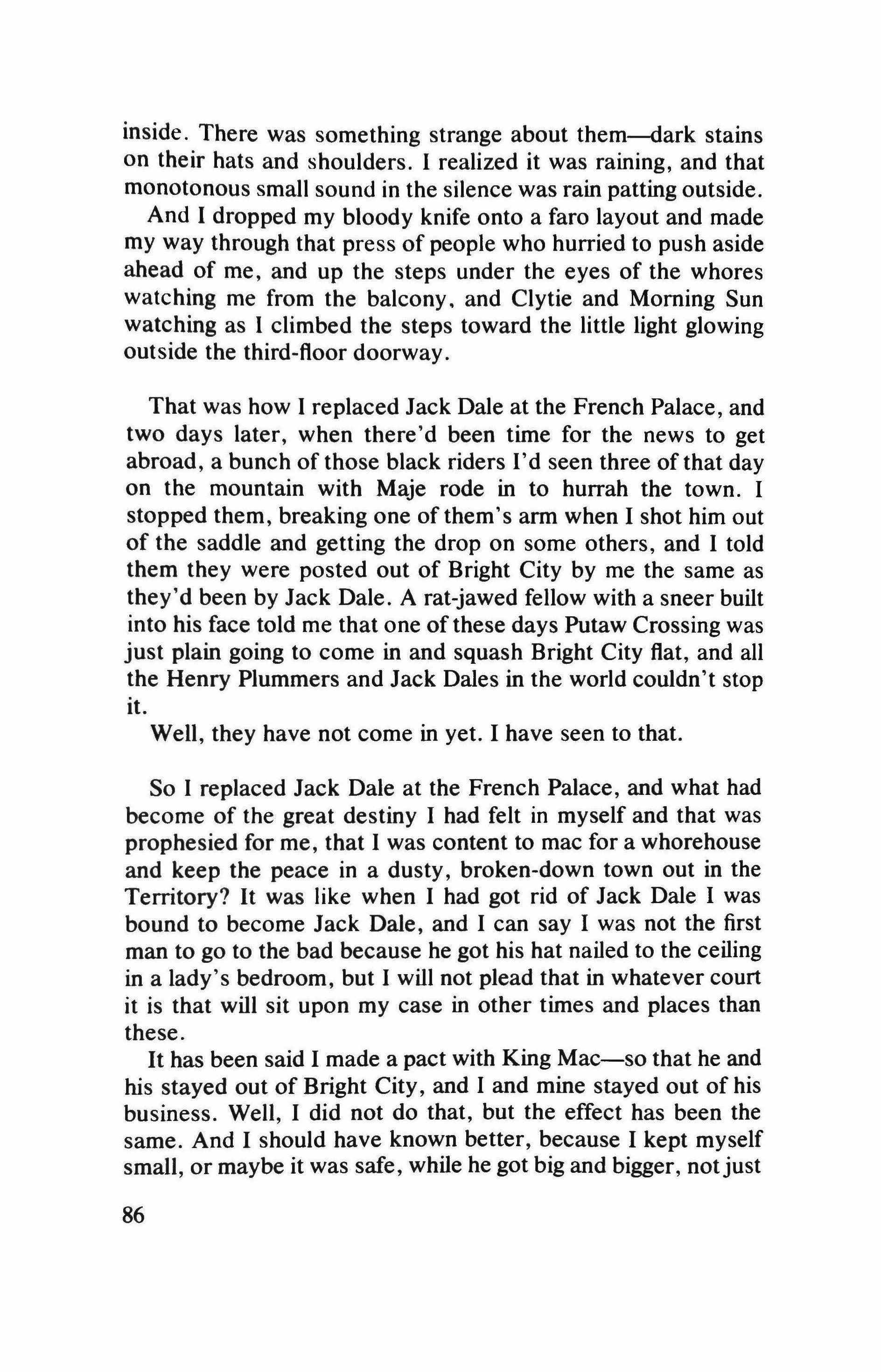
inside. There was something strange about them-dark stains on their hats and shoulders. I realized it was raining, and that monotonous small sound in the silence was rain patting outside. And I dropped my bloody knife onto a faro layout and made my way through that press of people who hurried to push aside ahead of me, and up the steps under the eyes of the whores watching me from the balcony, and Clytie and Morning Sun watching as I climbed the steps toward the little light glowing outside the third-floor doorway.
That was how I replaced Jack Dale at the French Palace, and two days later, when there'd been time for the news to get abroad, a bunch of those black riders I'd seen three of that day on the mountain with Maje rode in to hurrah the town. I stopped them, breaking one of them's arm when I shot him out of the saddle and getting the drop on some others, and I told them they were posted out of Bright City by me the same as they'd been by Jack Dale. A rat-jawed fellow with a sneer built into his face told me that one of these days Putaw Crossing was just plain going to come in and squash Bright City flat, and all the Henry Plummers and Jack Dales in the world couldn't stop it.
Well, they have not come in yet. I have seen to that.
So I replaced Jack Dale at the French Palace, and what had become of the great destiny I had felt in myself and that was prophesied for me, that I was content to mac for a whorehouse and keep the peace in a dusty, broken-down town out in the Territory? It was like when I had got rid of Jack Dale I was bound to become Jack Dale, and I can say I was not the first man to go to the bad because he got his hat nailed to the ceiling in a lady's bedroom, but I will not plead that in whatever court it is that will sit upon my case in other times and places than these.
It has been said I made a pact with King Mac-so that he and his stayed out of Bright City, and I and mine stayed out of his business. Well, I did not do that, but the effect has been the same. And I should have known better, because I kept myself small, or maybe it was safe, while he got big and bigger, notjust
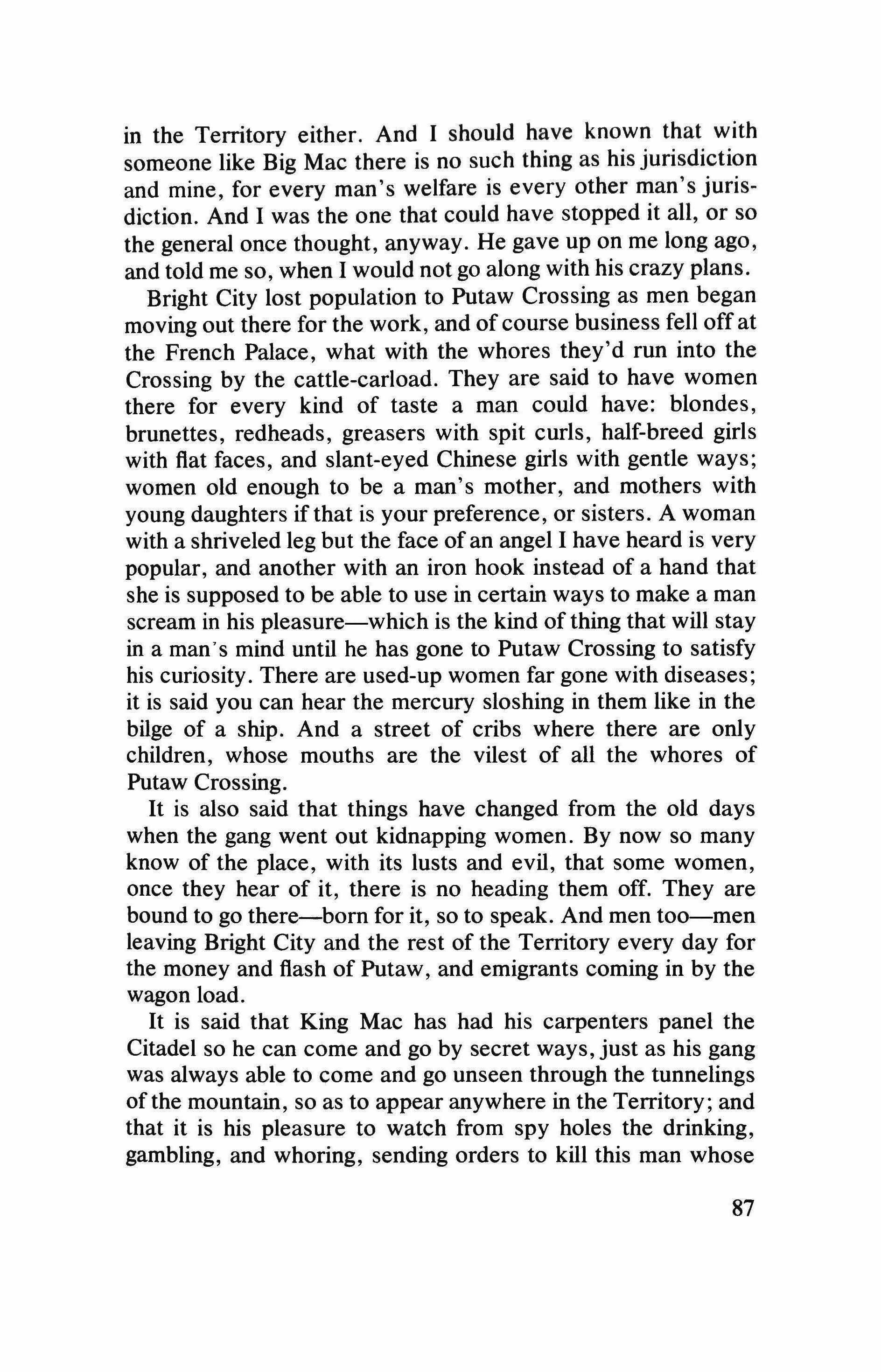
in the Territory either. And I should have known that with someone like Big Mac there is no such thing as his jurisdiction and mine, for every man's welfare is every other man's jurisdiction. And I was the one that could have stopped it all, or so the general once thought, anyway. He gave up on me long ago, and told me so, when I would not go along with his crazy plans.
Bright City lost population to Putaw Crossing as men began moving out there for the work, and of course business fell off at the French Palace, what with the whores they'd run into the Crossing by the cattle-carload. They are said to have women there for every kind of taste a man could have: blondes, brunettes, redheads, greasers with spit curls, half-breed girls with flat faces, and slant-eyed Chinese girls with gentle ways; women old enough to be a man's mother, and mothers with young daughters if that is your preference, or sisters. A woman with a shriveled leg but the face of an angel I have heard is very popular, and another with an iron hook instead of a hand that she is supposed to be able to use in certain ways to make a man scream in his pleasure-which is the kind of thing that will stay in a man's mind until he has gone to Putaw Crossing to satisfy his curiosity. There are used-up women far gone with diseases; it is said you can hear the mercury sloshing in them like in the bilge of a ship. And a street of cribs where there are only children, whose mouths are the vilest of all the whores of Putaw Crossing.
It is also said that things have changed from the old days when the gang went out kidnapping women. By now so many know of the place, with its lusts and evil, that some women, once they hear of it, there is no heading them off. They are bound to go there-born for it, so to speak. And men too-men leaving Bright City and the rest of the Territory every day for the money and flash of Putaw, and emigrants corning in by the wagon load.
It is said that King Mac has had his carpenters panel the Citadel so he can corne and go by secret ways, just as his gang was always able to corne and go unseen through the tunnelings of the mountain, so as to appear anywhere in the Territory; and that it is his pleasure to watch from spy holes the drinking, gambling, and whoring, sending orders to kill this man whose
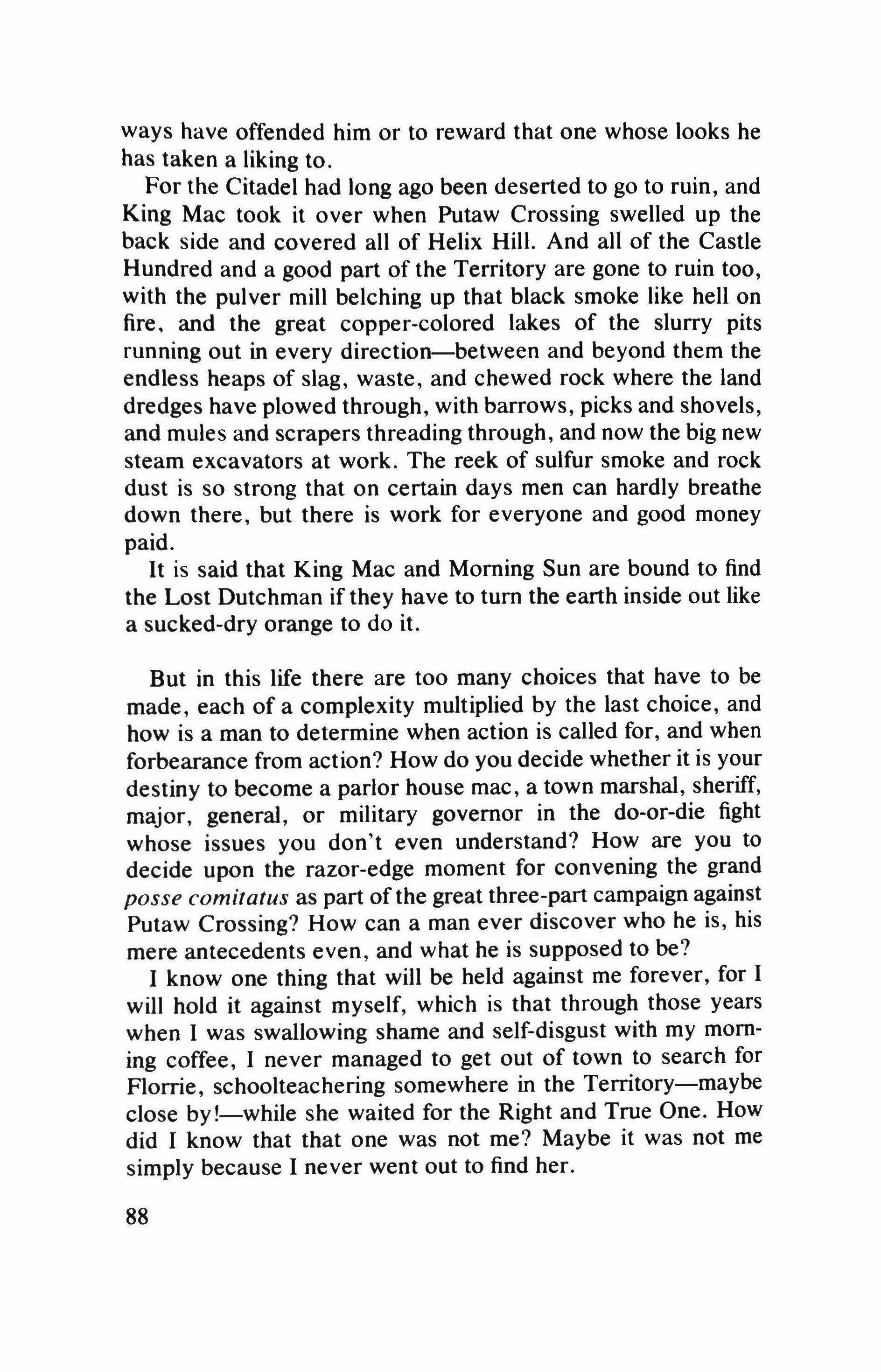
ways have offended him or to reward that one whose looks he has taken a liking to.
For the Citadel had long ago been deserted to go to ruin, and King Mac took it over when Putaw Crossing swelled up the back side and covered all of Helix Hill. And all of the Castle Hundred and a good part of the Territory are gone to ruin too, with the pulver mill belching up that black smoke like hell on fire. and the great copper-colored lakes of the slurry pits running out in every direction-between and beyond them the endless heaps of slag, waste, and chewed rock where the land dredges have plowed through, with barrows, picks and shovels, and mules and scrapers threading through, and now the big new steam excavators at work. The reek of sulfur smoke and rock dust is so strong that on certain days men can hardly breathe down there, but there is work for everyone and good money paid.
It is said that King Mac and Morning Sun are bound to find the Lost Dutchman if they have to tum the earth inside out like a sucked-dry orange to do it.
But in this life there are too many choices that have to be made, each of a complexity multiplied by the last choice, and how is a man to determine when action is called for, and when forbearance from action? How do you decide whether it is your destiny to become a parlor house mac, a town marshal, sheriff, major, general, or military governor in the do-or-die fight whose issues you don't even understand? How are you to decide upon the razor-edge moment for convening the grand posse comitatus as part of the great three-part campaign against Putaw Crossing? How can a man ever discover who he is, his mere antecedents even, and what he is supposed to be?
I know one thing that will be held against me forever, for I will hold it against myself, which is that through those years when I was swallowing shame and self-disgust with my morning coffee, I never managed to get out of town to search for Florrie, schoolteachering somewhere in the Territory-maybe close by!-while she waited for the Right and True One. How did I know that that one was not me? Maybe it was not me simply because I never went out to find her.
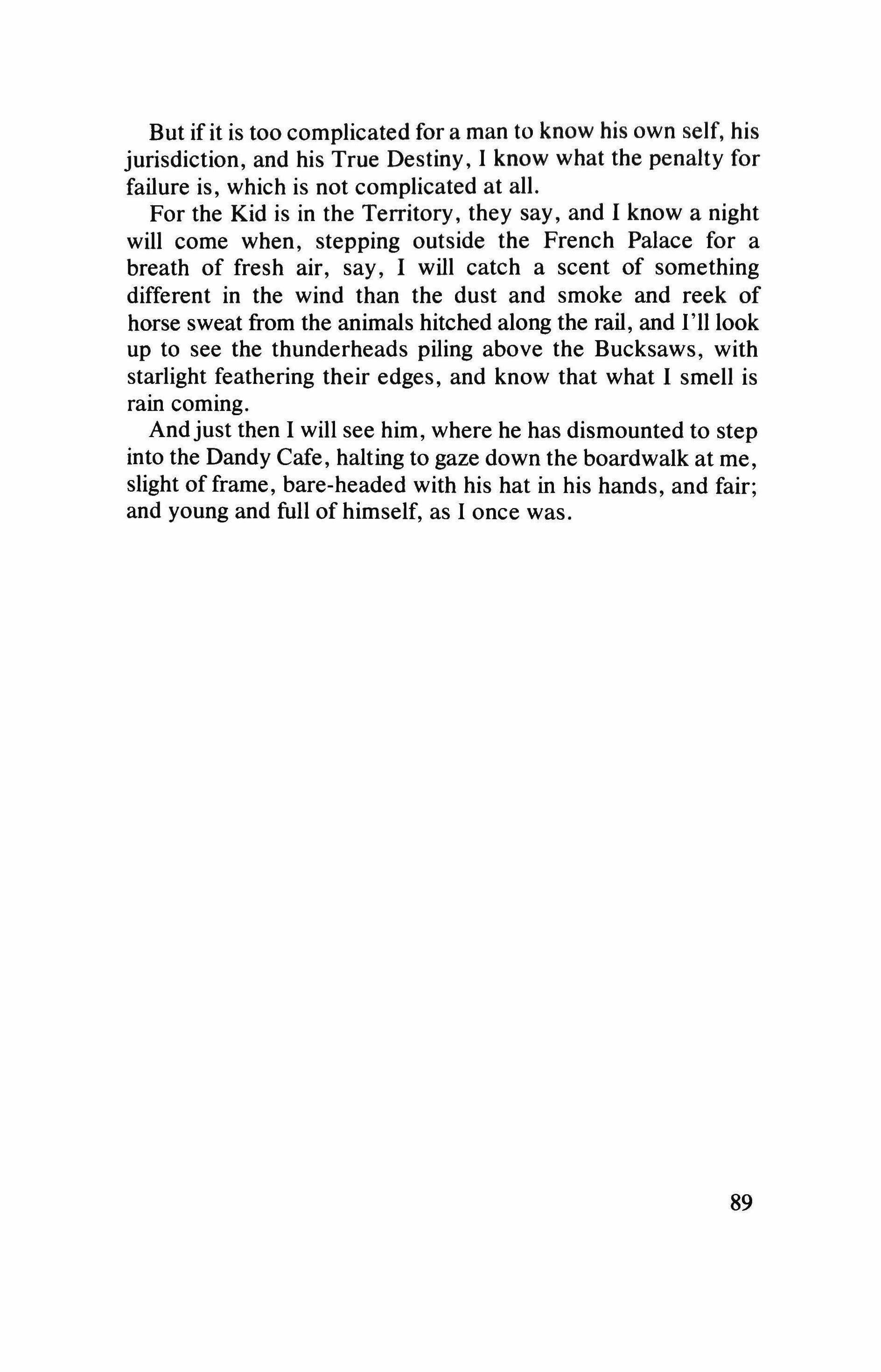
But if it is too complicated for a man to know his own self, his jurisdiction, and his True Destiny, I know what the penalty for failure is, which is not complicated at all.
For the Kid is in the Territory, they say, and I know a night will come when, stepping outside the French Palace for a breath of fresh air, say, I will catch a scent of something different in the wind than the dust and smoke and reek of horse sweat from the animals hitched along the rail, and I'll look up to see the thunderheads piling above the Bucksaws, with starlight feathering their edges, and know that what I smell is rain coming.
Andjust then I will see him, where he has dismounted to step into the Dandy Cafe, halting to gaze down the boardwalk at me, slight of frame, bare-headed with his hat in his hands, and fair; and young and full of himself, as I once was.
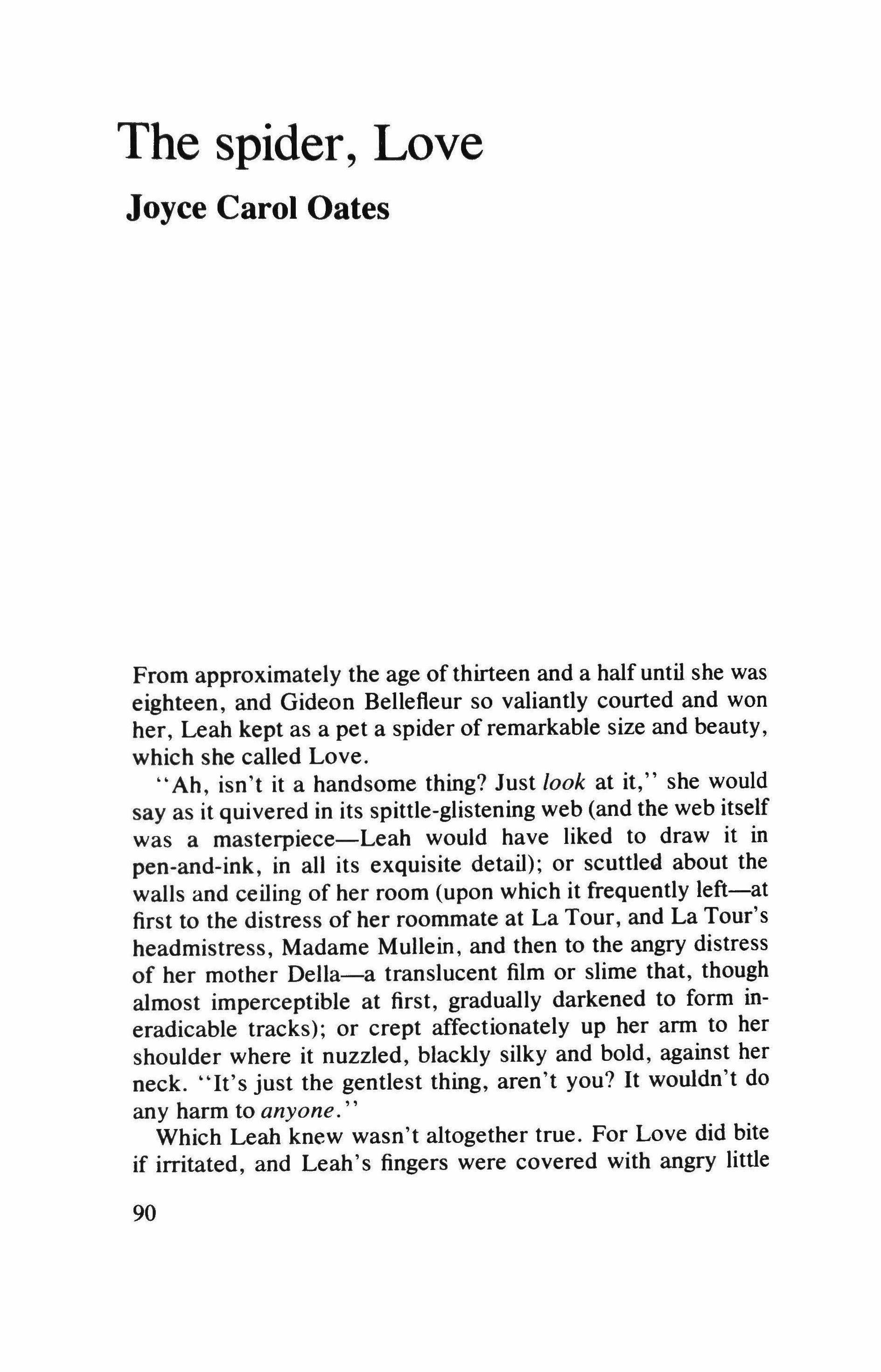
From approximately the age of thirteen and a half until she was eighteen, and Gideon Bellefleur so valiantly courted and won her, Leah kept as a pet a spider of remarkable size and beauty, which she called Love.
Ah, isn't it a handsome thing? Just look at it," she would say as it quivered in its spittle-glistening web (and the web itself was a masterpiece-Leah would have liked to draw it in pen-and-ink, in all its exquisite detail); or scuttled about the walls and ceiling of her room (upon which it frequently left-at first to the distress of her roommate at La Tour, and La Tour's headmistress, Madame Mullein, and then to the angry distress of her mother Della-a translucent film or slime that, though almost imperceptible at first, gradually darkened to form ineradicable tracks); or crept affectionately up her arm to her shoulder where it nuzzled, blackly silky and bold, against her neck. "It's just the gentlest thing, aren't you? It wouldn't do any harm to anyone.
Which Leah knew wasn't altogether true. For Love did bite if irritated, and Leah's fingers were covered with angry little
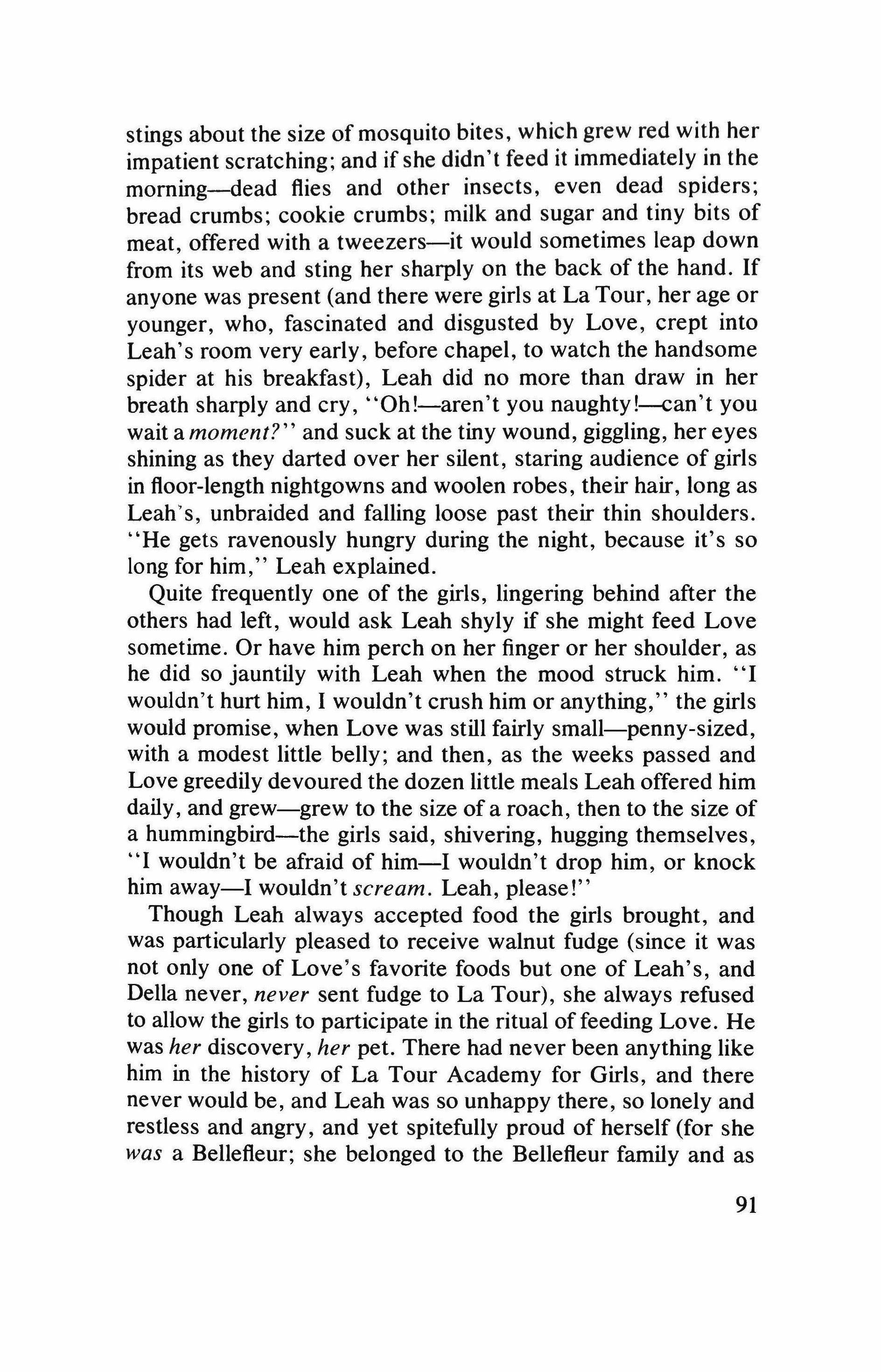
stings about the size of mosquito bites, which grew red with her impatient scratching; and ifshe didn't feed it immediately in the morning-dead flies and other insects, even dead spiders; bread crumbs; cookie crumbs; milk and sugar and tiny bits of meat, offered with a tweezers-it would sometimes leap down from its web and sting her sharply on the back of the hand. If anyone was present (and there were girls at La Tour, her age or younger, who, fascinated and disgusted by Love, crept into Leah's room very early, before chapel, to watch the handsome spider at his breakfast), Leah did no more than draw in her breath sharply and cry, "Oh l=-aren't you naughty!--can't you wait a moment?" and suck at the tiny wound, giggling, her eyes shining as they darted over her silent, staring audience of girls in floor-length nightgowns and woolen robes, their hair, long as Leah's, unbraided and falling loose past their thin shoulders. "He gets ravenously hungry during the night, because it's so long for him," Leah explained.
Quite frequently one of the girls, lingering behind after the others had left, would ask Leah shyly if she might feed Love sometime. Or have him perch on her finger or her shoulder, as he did so jauntily with Leah when the mood struck him. "I wouldn't hurt him, I wouldn't crush him or anything," the girls would promise, when Love was still fairly small-penny-sized, with a modest little belly; and then, as the weeks passed and Love greedily devoured the dozen little meals Leah offered him daily, and grew-grew to the size of a roach, then to the size of a hummingbird-the girls said, shivering, hugging themselves, "I wouldn't be afraid of him-I wouldn't drop him, or knock him away-I wouldn't scream. Leah, please!"
Though Leah always accepted food the girls brought, and was particularly pleased to receive walnut fudge (since it was not only one of Love's favorite foods but one of Leah's, and Della never, never sent fudge to La Tour), she always refused to allow the girls to participate in the ritual of feeding Love. He was her discovery, her pet. There had never been anything like him in the history of La Tour Academy for Girls, and there never would be, and Leah was so unhappy there, so lonely and restless and angry, and yet spitefully proud of herself (for she was a Bellefleur; she belonged to the Bellefleur family and as
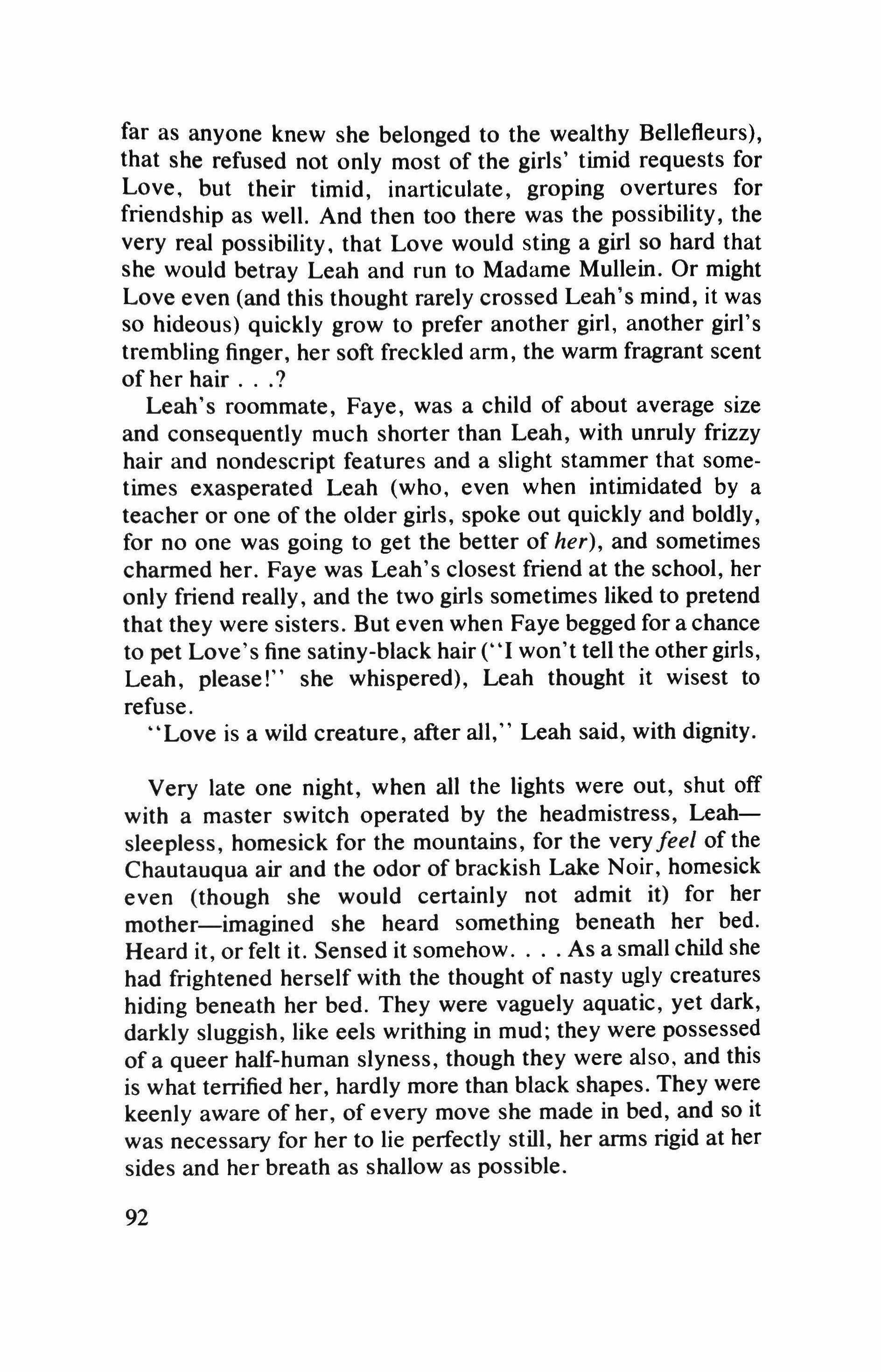
far as anyone knew she belonged to the wealthy Bellefleurs), that she refused not only most of the girls' timid requests for Love, but their timid, inarticulate, groping overtures for friendship as well. And then too there was the possibility, the very real possibility, that Love would sting a girl so hard that she would betray Leah and run to Madame Mullein. Or might Love even (and this thought rarely crossed Leah's mind, it was so hideous) quickly grow to prefer another girl, another girl's trembling finger, her soft freckled arm, the warm fragrant scent of her hair ?
Leah's roommate, Faye, was a child of about average size and consequently much shorter than Leah, with unruly frizzy hair and nondescript features and a slight stammer that sometimes exasperated Leah (who, even when intimidated by a teacher or one of the older girls, spoke out quickly and boldly, for no one was going to get the better of her), and sometimes charmed her. Faye was Leah's closest friend at the school, her only friend really, and the two girls sometimes liked to pretend that they were sisters. But even when Faye begged for a chance to pet Love's fine satiny-black hair ("I won't tell the other girls, Leah, please!" she whispered), Leah thought it wisest to refuse
Love is a wild creature, after all," Leah said, with dignity.
Very late one night, when all the lights were out, shut off with a master switch operated by the headmistress, Leahsleepless, homesick for the mountains, for the veryfeel of the Chautauqua air and the odor of brackish Lake Noir, homesick even (though she would certainly not admit it) for her mother-imagined she heard something beneath her bed. Heard it, or felt it. Sensed it somehow As a small child she had frightened herself with the thought of nasty ugly creatures hiding beneath her bed. They were vaguely aquatic, yet dark, darkly sluggish, like eels writhing in mud; they were possessed of a queer half-human slyness, though they were also, and this is what terrified her, hardly more than black shapes. They were keenly aware of her, of every move she made in bed, and so it was necessary for her to lie perfectly still, her arms rigid at her sides and her breath as shallow as possible.
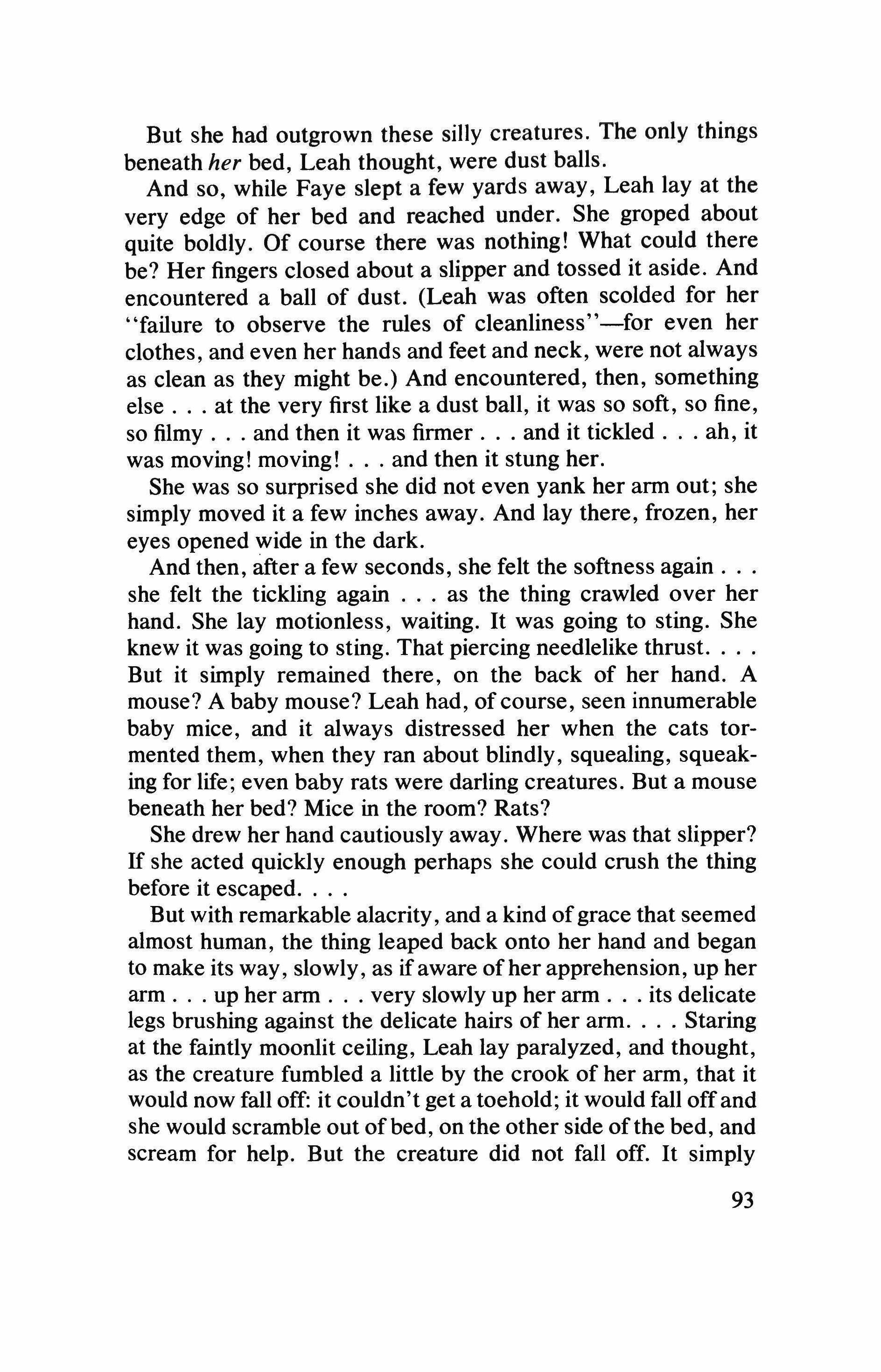
But she had outgrown these silly creatures. The only things beneath her bed, Leah thought, were dust balls.
And so, while Faye slept a few yards away, Leah lay at the very edge of her bed and reached under. She groped about quite boldly. Of course there was nothing! What could there be? Her fingers closed about a slipper and tossed it aside. And encountered a ball of dust. (Leah was often scolded for her "failure to observe the rules of cleanliness" -for even her clothes, and even her hands and feet and neck, were not always as clean as they might be.) And encountered, then, something else at the very first like a dust ball, it was so soft, so fine, so filmy and then it was firmer and it tickled ah, it was moving! moving! and then it stung her.
She was so surprised she did not even yank her arm out; she simply moved it a few inches away. And lay there, frozen, her eyes opened wide in the dark.
And then, after a few seconds, she felt the softness again she felt the tickling again as the thing crawled over her hand. She lay motionless, waiting. It was going to sting. She knew it was going to sting. That piercing needlelike thrust But it simply remained there, on the back of her hand. A mouse? A baby mouse? Leah had, of course, seen innumerable baby mice, and it always distressed her when the cats tormented them, when they ran about blindly, squealing, squeaking for life; even baby rats were darling creatures. But a mouse beneath her bed? Mice in the room? Rats?
She drew her hand cautiously away. Where was that slipper? If she acted quickly enough perhaps she could crush the thing before it escaped.
But with remarkable alacrity, and a kind ofgrace that seemed almost human, the thing leaped back onto her hand and began to make its way, slowly, as if aware of her apprehension, up her arm. up her arm very slowly up her arm. its delicate legs brushing against the delicate hairs of her arm Staring at the faintly moonlit ceiling, Leah lay paralyzed, and thought, as the creature fumbled a little by the crook of her arm, that it would now fall off: it couldn't get a toehold; it would fall offand she would scramble out of bed, on the other side of the bed, and scream for help. But the creature did not fall off. It simply
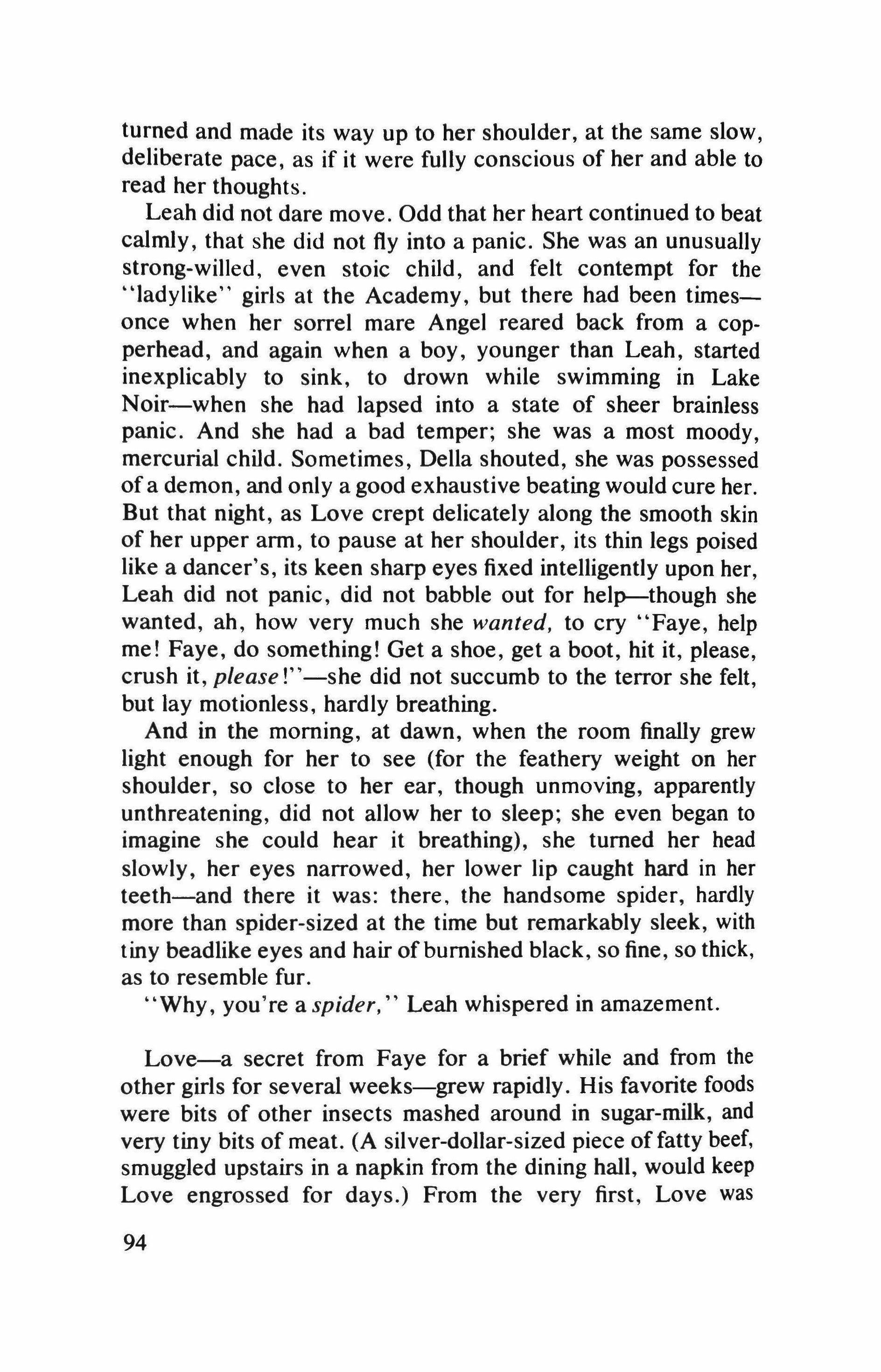
turned and made its way up to her shoulder, at the same slow, deliberate pace, as if it were fully conscious of her and able to read her thoughts.
Leah did not dare move. Odd that her heart continued to beat calmly, that she did not fly into a panic. She was an unusually strong-willed, even stoic child, and felt contempt for the "ladylike" girls at the Academy, but there had been timesonce when her sorrel mare Angel reared back from a copperhead, and again when a boy, younger than Leah, started inexplicably to sink, to drown while swimming in Lake Noir-when she had lapsed into a state of sheer brainless panic. And she had a bad temper; she was a most moody, mercurial child. Sometimes, Della shouted, she was possessed of a demon, and only a good exhaustive beating would cure her. But that night, as Love crept delicately along the smooth skin of her upper arm, to pause at her shoulder, its thin legs poised like a dancer's, its keen sharp eyes fixed intelligently upon her, Leah did not panic, did not babble out for help-though she wanted, ah, how very much she wanted, to cry "Faye, help me! Faye, do something! Get a shoe, get a boot, hit it, please, crush it, please !"-she did not succumb to the terror she felt, but lay motionless, hardly breathing.
And in the morning, at dawn, when the room finally grew light enough for her to see (for the feathery weight on her shoulder, so close to her ear, though unmoving, apparently unthreatening, did not allow her to sleep; she even began to imagine she could hear it breathing), she turned her head slowly, her eyes narrowed, her lower lip caught hard in her teeth-and there it was: there, the handsome spider, hardly more than spider-sized at the time but remarkably sleek, with tiny beadlike eyes and hair ofburnished black, so fine, so thick, as to resemble fur.
"Why, you're a spider," Leah whispered in amazement.
Love-a secret from Faye for a brief while and from the other girls for several weeks-grew rapidly. His favorite foods were bits of other insects mashed around in sugar-milk, and very tiny bits of meat. (A silver-dollar-sized piece of fatty beef, smuggled upstairs in a napkin from the dining hall, would keep Love engrossed for days.) From the very first, Love was
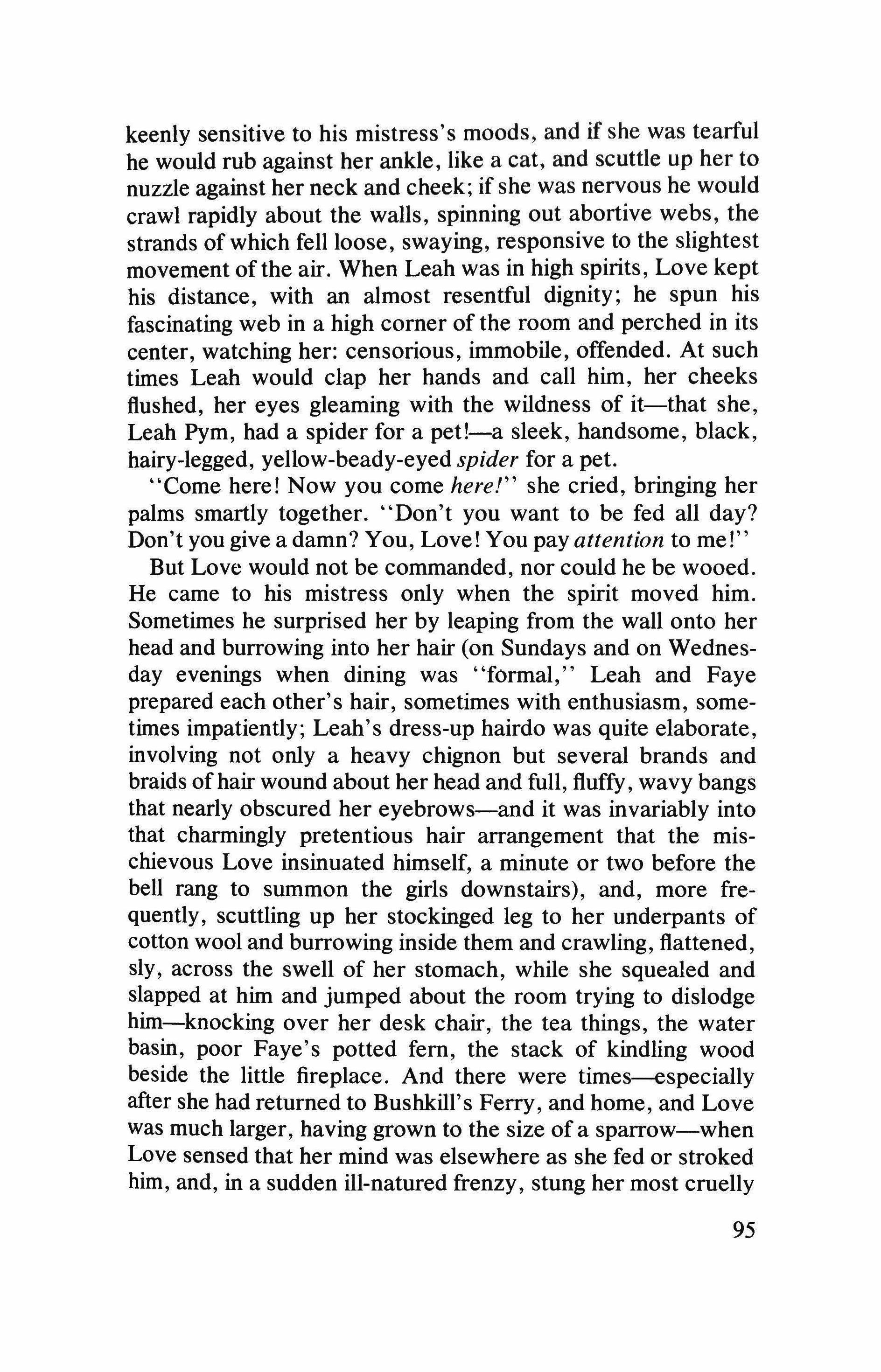
keenly sensitive to his mistress's moods, and if she was tearful he would rub against her ankle, like a cat, and scuttle up her to nuzzle against her neck and cheek; if she was nervous he would crawl rapidly about the walls, spinning out abortive webs, the strands of which fell loose, swaying, responsive to the slightest movement ofthe air. When Leah was in high spirits, Love kept his distance, with an almost resentful dignity; he spun his fascinating web in a high corner of the room and perched in its center, watching her: censorious, immobile, offended. At such times Leah would clap her hands and call him, her cheeks flushed, her eyes gleaming with the wildness of it-that she, Leah Pym, had a spider for a pet!-a sleek, handsome, black, hairy-legged, yellow-beady-eyed spider for a pet.
"Come here! Now you come here!" she cried, bringing her palms smartly together. "Don't you want to be fed all day? Don't you give a damn? You, Love! You pay attention to me!"
But Love would not be commanded, nor could he be wooed. He came to his mistress only when the spirit moved him. Sometimes he surprised her by leaping from the wall onto her head and burrowing into her hair (on Sundays and on Wednesday evenings when dining was "formal," Leah and Faye prepared each other's hair, sometimes with enthusiasm, sometimes impatiently; Leah's dress-up hairdo was quite elaborate, involving not only a heavy chignon but several brands and braids of hair wound about her head and full, fluffy, wavy bangs that nearly obscured her eyebrows-and it was invariably into that charmingly pretentious hair arrangement that the mischievous Love insinuated himself, a minute or two before the bell rang to summon the girls downstairs), and, more frequently, scuttling up her stockinged leg to her underpants of cotton wool and burrowing inside them and crawling, flattened, sly, across the swell of her stomach, while she squealed and slapped at him and jumped about the room trying to dislodge him-knocking over her desk chair, the tea things, the water basin, poor Faye's potted fern, the stack of kindling wood beside the little fireplace. And there were times-especially after she had returned to Bushkill's Ferry, and home, and Love was much larger, having grown to the size of a sparrow-when Love sensed that her mind was elsewhere as she fed or stroked him, and, in a sudden ill-natured frenzy, stung her most cruelly
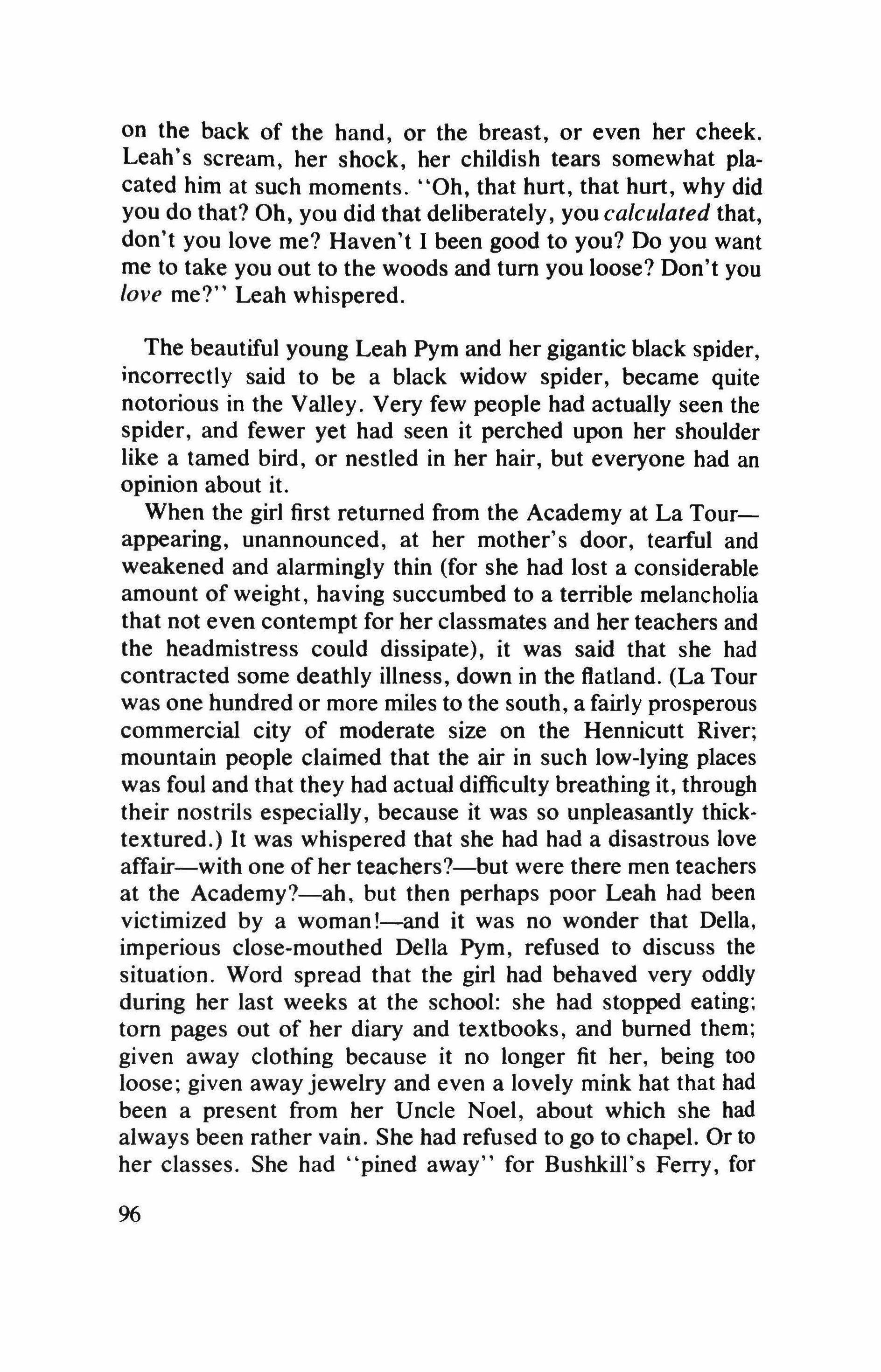
on the back of the hand, or the breast, or even her cheek. Leah's scream, her shock, her childish tears somewhat placated him at such moments. "Oh, that hurt, that hurt, why did you do that? Oh, you did that deliberately, you calculated that, don't you love me? Haven't I been good to you? Do you want me to take you out to the woods and tum you loose? Don't you love me?" Leah whispered.
The beautiful young Leah Pym and her gigantic black spider, incorrectly said to be a black widow spider, became quite notorious in the Valley. Very few people had actually seen the spider, and fewer yet had seen it perched upon her shoulder like a tamed bird, or nestled in her hair, but everyone had an opinion about it.
When the girl first returned from the Academy at La Tourappearing, unannounced, at her mother's door, tearful and weakened and alarmingly thin (for she had lost a considerable amount of weight, having succumbed to a terrible melancholia that not even contempt for her classmates and her teachers and the headmistress could dissipate), it was said that she had contracted some deathly illness, down in the flatland. (La Tour was one hundred or more miles to the south, a fairly prosperous commercial city of moderate size on the Hennicutt River; mountain people claimed that the air in such low-lying places was foul and that they had actual difficulty breathing it, through their nostrils especially, because it was so unpleasantly thicktextured.) It was whispered that she had had a disastrous love affair-with one of her teachers?-but were there men teachers at the Academy?-ah, but then perhaps poor Leah had been victimized by a woman !-and it was no wonder that Della, imperious close-mouthed Della Pym, refused to discuss the situation. Word spread that the girl had behaved very oddly during her last weeks at the school: she had stopped eating; tom pages out of her diary and textbooks, and burned them; given away clothing because it no longer fit her, being too loose; given away jewelry and even a lovely mink hat that had been a present from her Uncle Noel, about which she had always been rather vain. She had refused to go to chapel. Or to her classes. She had "pined away" for Bushkill's Ferry, for
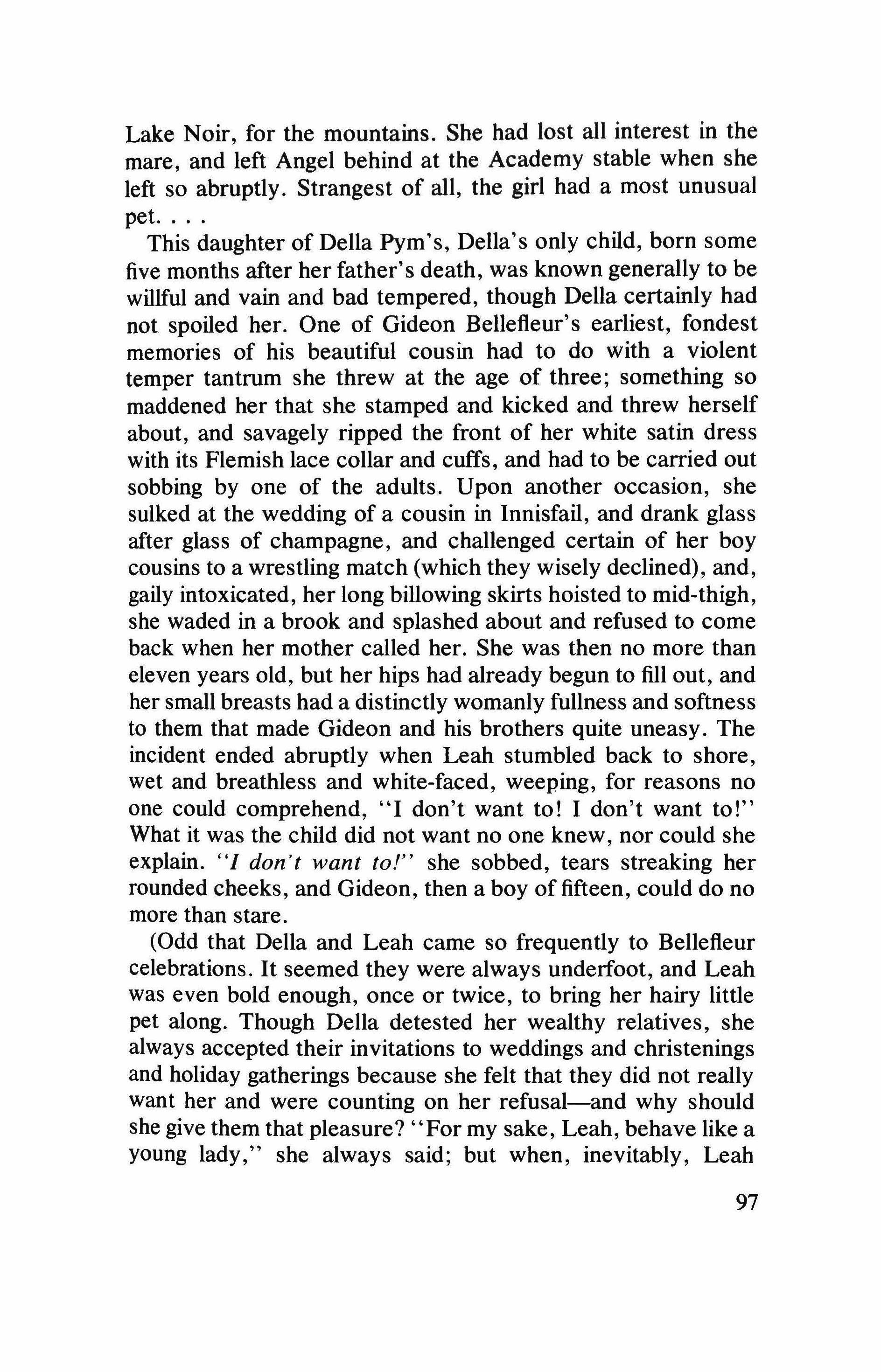
Lake Noir, for the mountains. She had lost all interest in the mare, and left Angel behind at the Academy stable when she left so abruptly. Strangest of all, the girl had a most unusual pet.
This daughter of Della Pym's, Della's only child, born some five months after her father's death, was known generally to be willful and vain and bad tempered, though Della certainly had not spoiled her. One of Gideon Bellefteur's earliest, fondest memories of his beautiful cousin had to do with a violent temper tantrum she threw at the age of three; something so maddened her that she stamped and kicked and threw herself about, and savagely ripped the front of her white satin dress with its Flemish lace collar and cuffs, and had to be carried out sobbing by one of the adults. Upon another occasion, she sulked at the wedding of a cousin in Innisfail, and drank glass after glass of champagne, and challenged certain of her boy cousins to a wrestling match (which they wisely declined), and, gaily intoxicated, her long billowing skirts hoisted to mid-thigh, she waded in a brook and splashed about and refused to come back when her mother called her. She was then no more than eleven years old, but her hips had already begun to fill out, and her small breasts had a distinctly womanly fullness and softness to them that made Gideon and his brothers quite uneasy. The incident ended abruptly when Leah stumbled back to shore, wet and breathless and white-faced, weeping, for reasons no one could comprehend, "I don't want to! 1 don't want to!" What it was the child did not want no one knew, nor could she explain. "I don't want to!" she sobbed, tears streaking her rounded cheeks, and Gideon, then a boy of fifteen, could do no more than stare.
(Odd that Della and Leah came so frequently to Bellefteur celebrations. It seemed they were always underfoot, and Leah was even bold enough, once or twice, to bring her hairy little pet along. Though Della detested her wealthy relatives, she always accepted their invitations to weddings and christenings and holiday gatherings because she felt that they did not really want her and were counting on her refusal-and why should she give them that pleasure? "For my sake, Leah, behave like a young lady," she always said; but when, inevitably, Leah
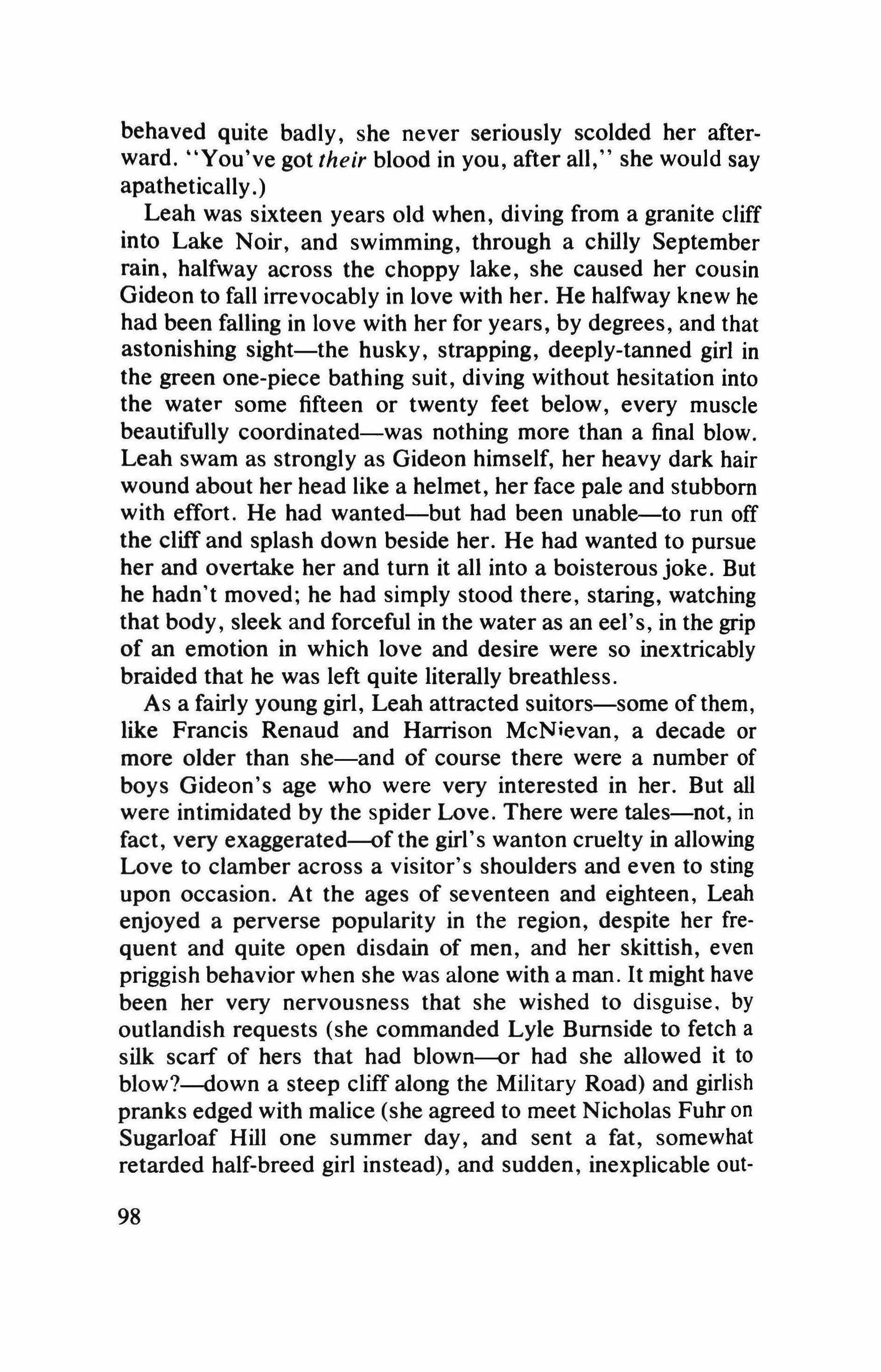
behaved quite badly, she never seriously scolded her afterward. "You've got their blood in you, after all," she would say apathetically.)
Leah was sixteen years old when, diving from a granite cliff into Lake Noir, and swimming, through a chilly September rain, halfway across the choppy lake, she caused her cousin Gideon to fall irrevocably in love with her. He halfway knew he had been falling in love with her for years, by degrees, and that astonishing sight-the husky, strapping, deeply-tanned girl in the green one-piece bathing suit, diving without hesitation into the water some fifteen or twenty feet below, every muscle beautifully coordinated-was nothing more than a final blow. Leah swam as strongly as Gideon himself, her heavy dark hair wound about her head like a helmet, her face pale and stubborn with effort. He had wanted-but had been unable-to run off the cliff and splash down beside her. He had wanted to pursue her and overtake her and turn it all into a boisterous joke. But he hadn't moved; he had simply stood there, staring, watching that body, sleek and forceful in the water as an eel's, in the grip of an emotion in which love and desire were so inextricably braided that he was left quite literally breathless.
As a fairly young girl, Leah attracted suitors-some of them, like Francis Renaud and Harrison McNievan, a decade or more older than she-and of course there were a number of boys Gideon's age who were very interested in her. But aU were intimidated by the spider Love. There were tales-not, in fact, very exaggerated-ofthe girl's wanton cruelty in allowing Love to clamber across a visitor's shoulders and even to sting upon occasion. At the ages of seventeen and eighteen, Leah enjoyed a perverse popularity in the region, despite her frequent and quite open disdain of men, and her skittish, even priggish behavior when she was alone with a man. It might have been her very nervousness that she wished to disguise, by outlandish requests (she commanded Lyle Burnside to fetch a silk scarf of hers that had blown-or had she allowed it to blow?-down a steep cliff along the Military Road) and girlish pranks edged with malice (she agreed to meet Nicholas Fuhr on Sugarloaf Hill one summer day, and sent a fat, somewhat retarded half-breed girl instead), and sudden, inexplicable out-
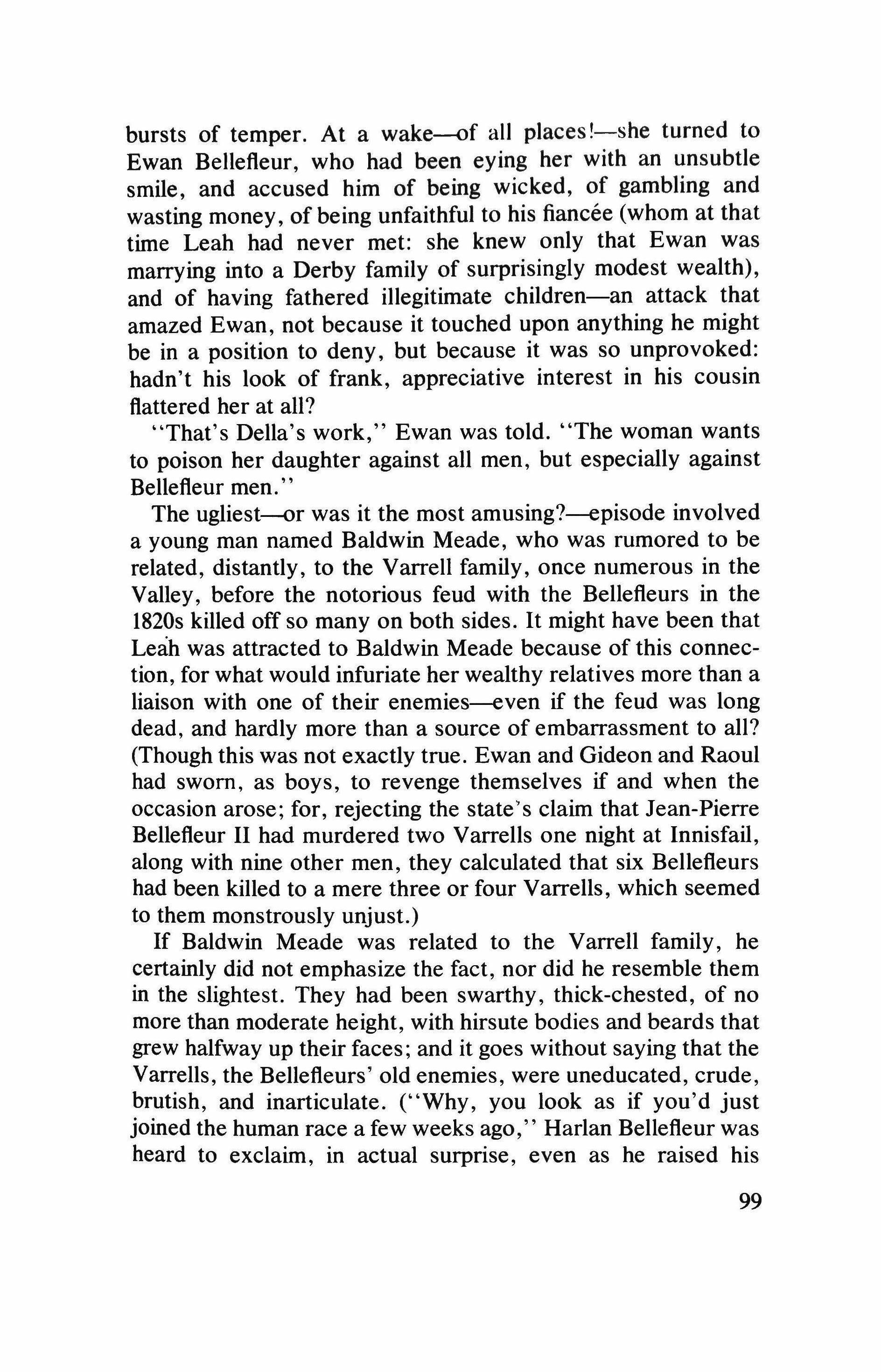
bursts of temper. At a wake-of all places!-she turned to Ewan Bellefleur, who had been eying her with an unsubtle smile, and accused him of being wicked, of gambling and wasting money, of being unfaithful to his fiancee (whom at that time Leah had never met: she knew only that Ewan was marrying into a Derby family of surprisingly modest wealth), and of having fathered illegitimate children-an attack that amazed Ewan, not because it touched upon anything he might be in a position to deny, but because it was so unprovoked: hadn't his look of frank, appreciative interest in his cousin flattered her at all?
"That's Della's work," Ewan was told. "The woman wants to poison her daughter against all men, but especially against Bellefleur men.
The ugliest-or was it the most amusing?--episode involved a young man named Baldwin Meade, who was rumored to be related, distantly, to the Varrell family, once numerous in the Valley, before the notorious feud with the Bellefleurs in the 1820s killed off so many on both sides. It might have been that Leah was attracted to Baldwin Meade because of this connection, for what would infuriate her wealthy relatives more than a liaison with one of their enemies--even if the feud was long dead, and hardly more than a source of embarrassment to all? (Though this was not exactly true. Ewan and Gideon and Raoul had sworn, as boys, to revenge themselves if and when the occasion arose; for, rejecting the state's claim that Jean-Pierre Bellefleur II had murdered two Varrells one night at Innisfail, along with nine other men, they calculated that six Bellefleurs had been killed to a mere three or four Varrells, which seemed to them monstrously unjust.)
If Baldwin Meade was related to the Varrell family, he certainly did not emphasize the fact, nor did he resemble them in the slightest. They had been swarthy, thick-chested, of no more than moderate height, with hirsute bodies and beards that grew halfway up their faces; and it goes without saying that the Varrells, the Bellefleurs' old enemies, were uneducated, crude, brutish, and inarticulate. ("Why, you look as if you'd just joined the human race a few weeks ago," Harlan Bellefleur was heard to exclaim, in actual surprise, even as he raised his
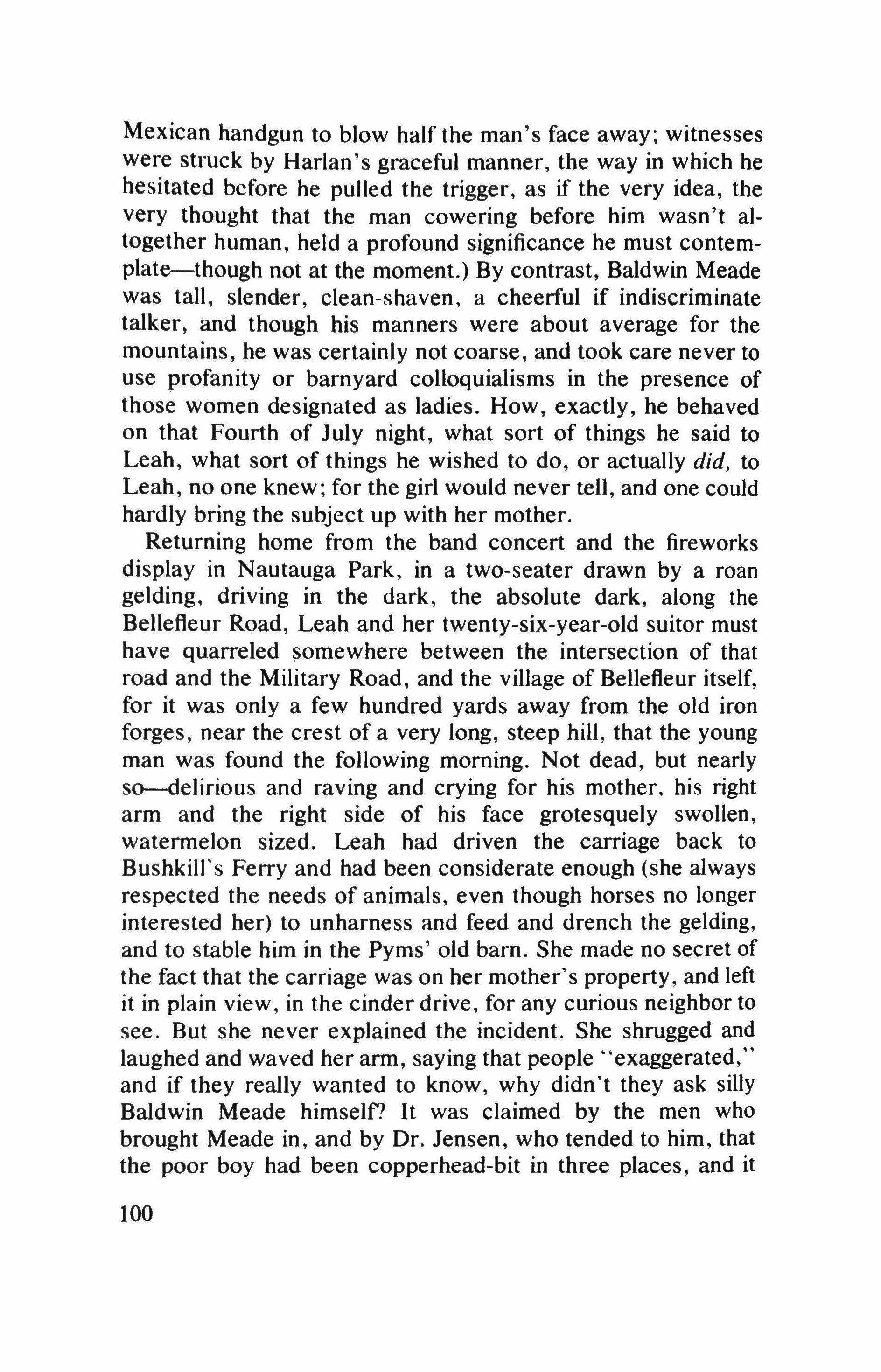
Mexican handgun to blow half the man's face away; witnesses were struck by Harlan's graceful manner, the way in which he hesitated before he pulled the trigger, as if the very idea, the very thought that the man cowering before him wasn't altogether human, held a profound significance he must contemplate-though not at the moment.) By contrast, Baldwin Meade was tall, slender, clean-shaven, a cheerful if indiscriminate talker, and though his manners were about average for the mountains, he was certainly not coarse, and took care never to use profanity or barnyard colloquialisms in the presence of those women designated as ladies. How, exactly, he behaved on that Fourth of July night, what sort of things he said to Leah, what sort of things he wished to do, or actually did, to Leah, no one knew; for the girl would never tell, and one could hardly bring the subject up with her mother.
Returning home from the band concert and the fireworks display in Nautauga Park, in a two-seater drawn by a roan gelding, driving in the dark, the absolute dark, along the Bellefleur Road, Leah and her twenty-six-year-old suitor must have quarreled somewhere between the intersection of that road and the Military Road, and the village of Bellefleur itself, for it was only a few hundred yards away from the old iron forges, near the crest of a very long, steep hill, that the young man was found the following morning. Not dead, but nearly so-delirious and raving and crying for his mother, his right arm and the right side of his face grotesquely swollen, watermelon sized. Leah had driven the carriage back to Bushkill's Ferry and had been considerate enough (she always respected the needs of animals, even though horses no longer interested her) to unharness and feed and drench the gelding, and to stable him in the Pyrns' old barn. She made no secret of the fact that the carriage was on her mother's property, and left it in plain view, in the cinder drive, for any curious neighbor to see. But she never explained the incident. She shrugged and laughed and waved her arm, saying that people "exaggerated," and if they really wanted to know, why didn't they ask silly Baldwin Meade himself? It was claimed by the men who brought Meade in, and by Dr. Jensen, who tended to him, that the poor boy had been copperhead-bit in three places, and it
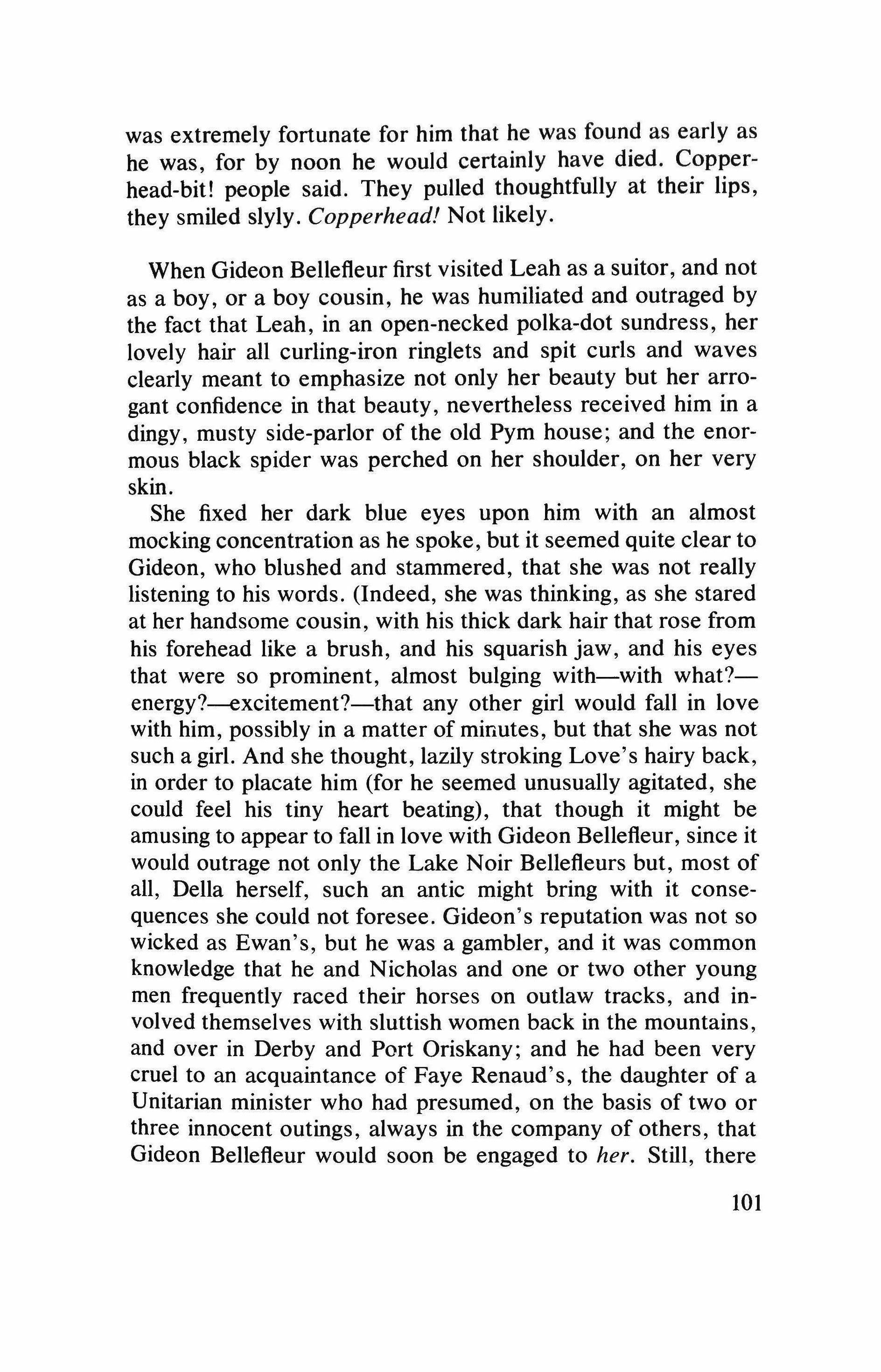
was extremely fortunate for him that he was found as early as he was, for by noon he would certainly have died. Copperhead-bit! people said. They pulled thoughtfully at their lips, they smiled slyly. Copperhead! Not likely.
When Gideon Bellefleur first visited Leah as a suitor, and not as a boy, or a boy cousin, he was humiliated and outraged by the fact that Leah, in an open-necked polka-dot sundress, her lovely hair all curling-iron ringlets and spit curls and waves clearly meant to emphasize not only her beauty but her arrogant confidence in that beauty, nevertheless received him in a dingy, musty side-parlor of the old Pym house; and the enormous black spider was perched on her shoulder, on her very skin.
She fixed her dark blue eyes upon him with an almost mocking concentration as he spoke, but it seemed quite clear to Gideon, who blushed and stammered, that she was not really listening to his words. (Indeed, she was thinking, as she stared at her handsome cousin, with his thick dark hair that rose from his forehead like a brush, and his squarish jaw, and his eyes that were so prominent, almost bulging with-with what?energy?--excitement?-that any other girl would fall in love with him, possibly in a matter of minutes, but that she was not such a girl. And she thought, lazily stroking Love's hairy back, in order to placate him (for he seemed unusually agitated, she could feel his tiny heart beating), that though it might be amusing to appear to fall in love with Gideon Bellefleur, since it would outrage not only the Lake Noir Bellefleurs but, most of all, Della herself, such an antic might bring with it consequences she could not foresee. Gideon's reputation was not so wicked as Ewan's, but he was a gambler, and it was common knowledge that he and Nicholas and one or two other young men frequently raced their horses on outlaw tracks, and involved themselves with sluttish women back in the mountains, and over in Derby and Port Oriskany; and he had been very cruel to an acquaintance of Faye Renaud's, the daughter of a Unitarian minister who had presumed, on the basis of two or three innocent outings, always in the company of others, that Gideon Bellefleur would soon be engaged to her. Still, there
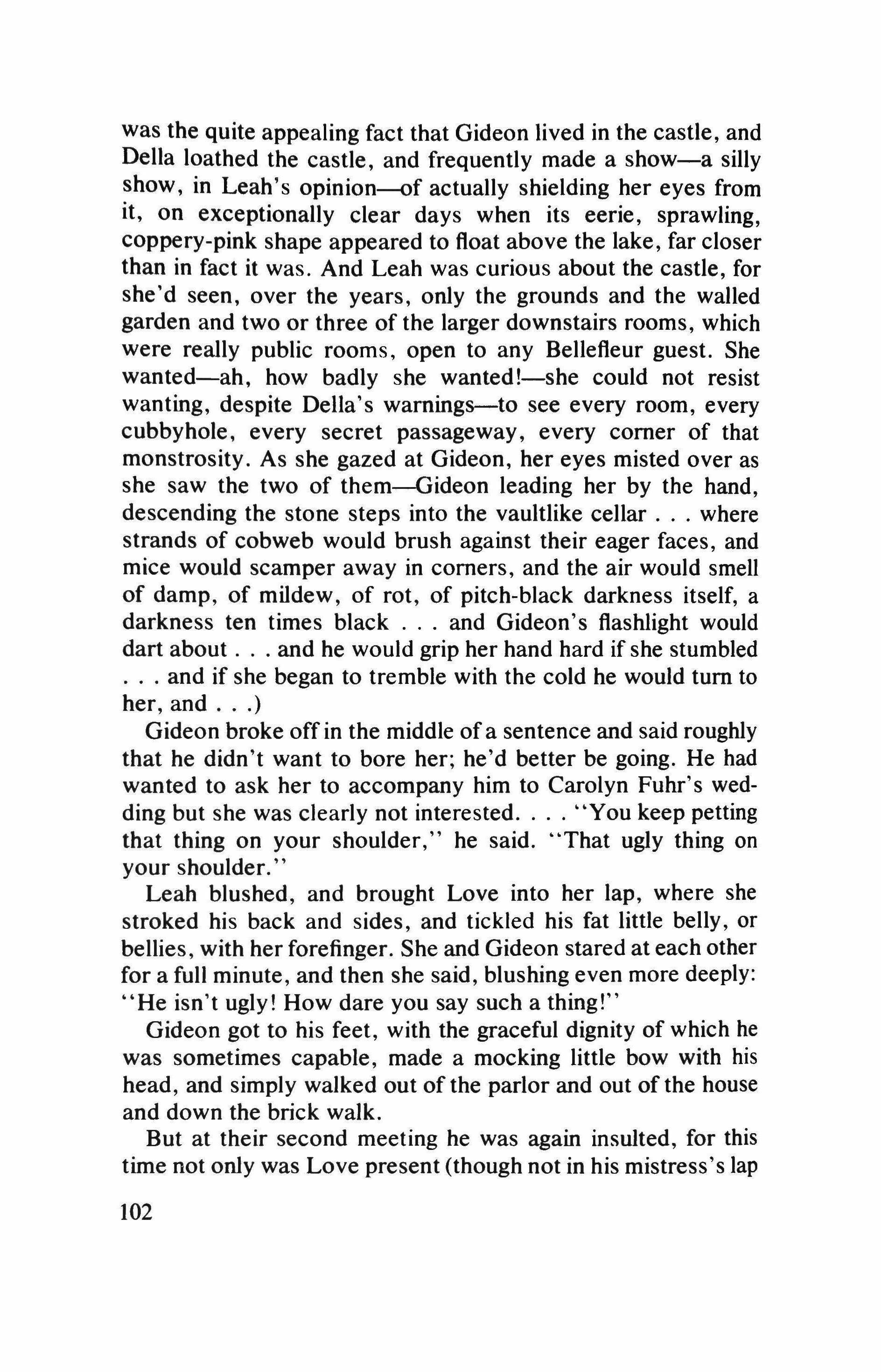
was the quite appealing fact that Gideon lived in the castle, and Della loathed the castle, and frequently made a show-a silly show, in Leah's opinion-of actually shielding her eyes from it, on exceptionally clear days when its eerie, sprawling, coppery-pink shape appeared to float above the lake, far closer than in fact it was. And Leah was curious about the castle, for she'd seen, over the years, only the grounds and the walled garden and two or three of the larger downstairs rooms, which were really public rooms, open to any Bellefleur guest. She wanted-ah, how badly she wanted!-she could not resist wanting, despite Della's warnings-to see every room, every cubbyhole, every secret passageway, every comer of that monstrosity. As she gazed at Gideon, her eyes misted over as she saw the two of them-Gideon leading her by the hand, descending the stone steps into the vaultlike cellar where strands of cobweb would brush against their eager faces, and mice would scamper away in comers, and the air would smell of damp, of mildew, of rot, of pitch-black darkness itself, a darkness ten times black and Gideon's flashlight would dart about and he would grip her hand hard if she stumbled and if she began to tremble with the cold he would tum to her, and )
Gideon broke off in the middle of a sentence and said roughly that he didn't want to bore her; he'd better be going. He had wanted to ask her to accompany him to Carolyn Fuhr's wedding but she was clearly not interested "You keep petting that thing on your shoulder," he said. "That ugly thing on your shoulder."
Leah blushed, and brought Love into her lap, where she stroked his back and sides, and tickled his fat little belly, or bellies, with her forefinger. She and Gideon stared at each other for a full minute, and then she said, blushing even more deeply: "He isn't ugly! How dare you say such a thing!"
Gideon got to his feet, with the graceful dignity of which he was sometimes capable, made a mocking little bow with his head, and simply walked out of the parlor and out of the house and down the brick walk.
But at their second meeting he was again insulted, for this time not only was Love present (though not in his mistress's lap
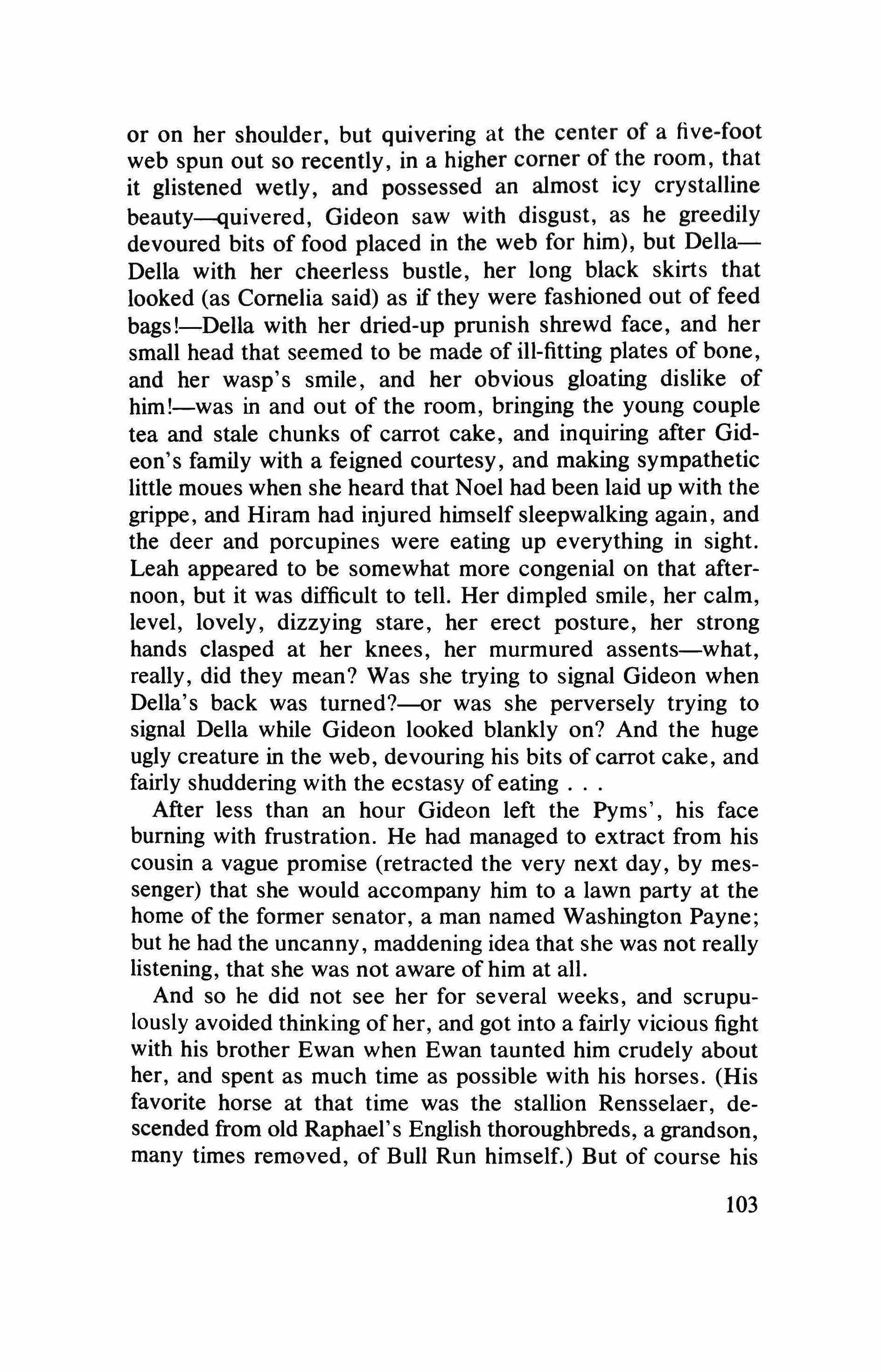
or on her shoulder. but quivering at the center of a five-foot web spun out so recently, in a higher corner of the room, that it glistened wetly, and possessed an almost icy crystalline beauty-quivered, Gideon saw with disgust, as he greedily devoured bits of food placed in the web for him), but DellaDella with her cheerless bustle, her long black skirts that looked (as Cornelia said) as if they were fashioned out of feed bags!-Della with her dried-up prunish shrewd face, and her small head that seemed to be made of ill-fitting plates of bone, and her wasp's smile, and her obvious gloating dislike of him!-was in and out of the room, bringing the young couple tea and stale chunks of carrot cake, and inquiring after Gideon's family with a feigned courtesy, and making sympathetic little moues when she heard that Noel had been laid up with the grippe, and Hiram had injured himself sleepwalking again, and the deer and porcupines were eating up everything in sight. Leah appeared to be somewhat more congenial on that afternoon, but it was difficult to tell. Her dimpled smile, her calm, level, lovely, dizzying stare, her erect posture, her strong hands clasped at her knees, her murmured assents-what, really, did they mean? Was she trying to signal Gideon when Della's back was turned?-or was she perversely trying to signal Della while Gideon looked blankly on? And the huge ugly creature in the web, devouring his bits of carrot cake, and fairly shuddering with the ecstasy of eating
After less than an hour Gideon left the Pyrns', his face burning with frustration. He had managed to extract from his cousin a vague promise (retracted the very next day, by messenger) that she would accompany him to a lawn party at the home of the former senator, a man named Washington Payne; but he had the uncanny, maddening idea that she was not really listening, that she was not aware of him at all.
And so he did not see her for several weeks, and scrupulously avoided thinking of her, and got into a fairly vicious fight with his brother Ewan when Ewan taunted him crudely about her, and spent as much time as possible with his horses. (His favorite horse at that time was the stallion Rensselaer, descended from old Raphael's English thoroughbreds, a grandson, many times removed, of Bull Run himself.) But of course his
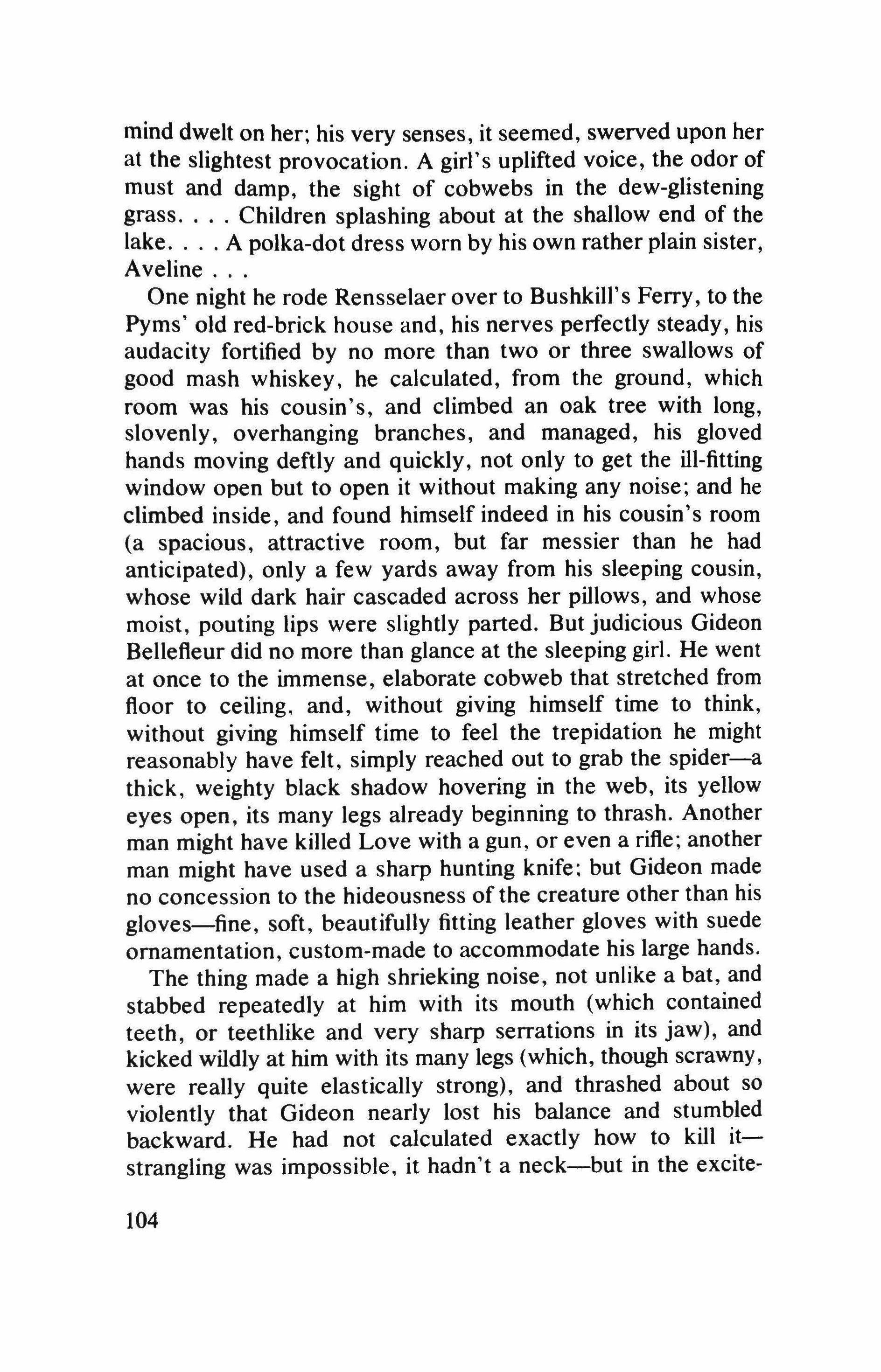
mind dwelt on her; his very senses, it seemed, swerved upon her at the slightest provocation. A girl's uplifted voice, the odor of must and damp, the sight of cobwebs in the dew-glistening grass Children splashing about at the shallow end of the lake A polka-dot dress worn by his own rather plain sister, Aveline
One night he rode Rensselaer over to Bushkill's Ferry, to the Pyms' old red-brick house and, his nerves perfectly steady, his audacity fortified by no more than two or three swallows of good mash whiskey, he calculated, from the ground, which room was his cousin's, and climbed an oak tree with long, slovenly, overhanging branches, and managed, his gloved hands moving deftly and quickly, not only to get the ill-fitting window open but to open it without making any noise; and he climbed inside, and found himself indeed in his cousin's room (a spacious, attractive room, but far messier than he had anticipated), only a few yards away from his sleeping cousin, whose wild dark hair cascaded across her pillows, and whose moist, pouting lips were slightly parted. But judicious Gideon Bellefleur did no more than glance at the sleeping girl. He went at once to the immense, elaborate cobweb that stretched from floor to ceiling, and, without giving himself time to think, without giving himself time to feel the trepidation he might reasonably have felt, simply reached out to grab the spider-a thick, weighty black shadow hovering in the web, its yellow eyes open, its many legs already beginning to thrash. Another man might have killed Love with a gun, or even a rifle; another man might have used a sharp hunting knife: but Gideon made no concession to the hideousness of the creature other than his gloves-fine, soft, beautifully fitting leather gloves with suede ornamentation, custom-made to accommodate his large hands.
The thing made a high shrieking noise, not unlike a bat, and stabbed repeatedly at him with its mouth (which contained teeth, or teethlike and very sharp serrations in its jaw), and kicked wildly at him with its many legs (which, though scrawny, were really quite elastically strong), and thrashed about so violently that Gideon nearly lost his balance and stumbled backward. He had not calculated exactly how to kill itstrangling was impossible, it hadn't a neck-but in the excite-
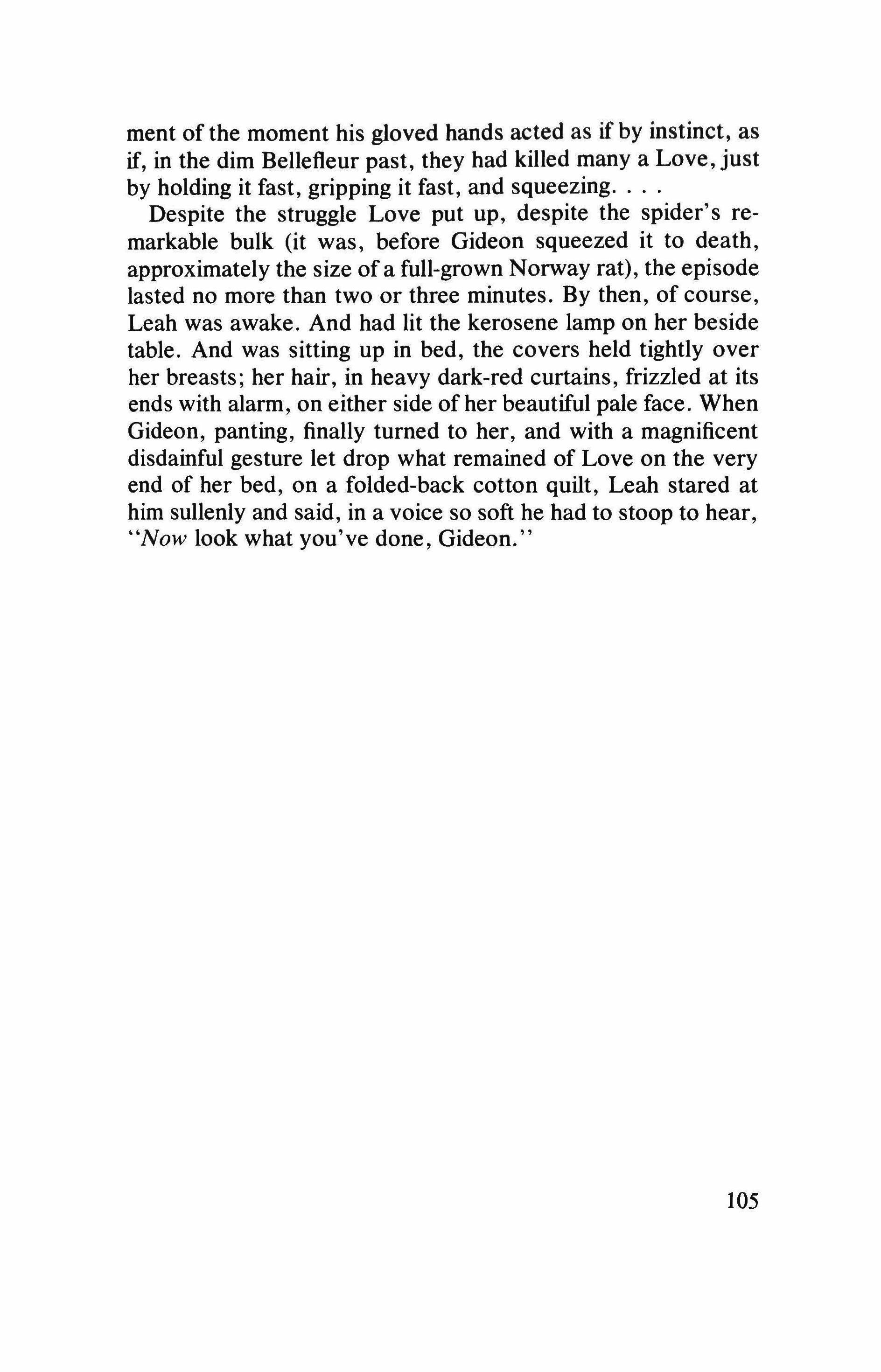
ment of the moment his gloved hands acted as if by instinct, as if, in the dim Bellefleur past, they had killed many a Love, just by holding it fast, gripping it fast, and squeezing
Despite the struggle Love put up, despite the spider's remarkable bulk (it was, before Gideon squeezed it to death, approximately the size of a full-grown Norway rat), the episode lasted no more than two or three minutes. By then, of course, Leah was awake. And had lit the kerosene lamp on her beside table. And was sitting up in bed, the covers held tightly over her breasts; her hair, in heavy dark-red curtains, frizzled at its ends with alarm, on either side of her beautiful pale face. When Gideon, panting, finally turned to her, and with a magnificent disdainful gesture let drop what remained of Love on the very end of her bed, on a folded-back cotton quilt, Leah stared at him sullenly and said, in a voice so soft he had to stoop to hear, "Now look what you've done, Gideon."
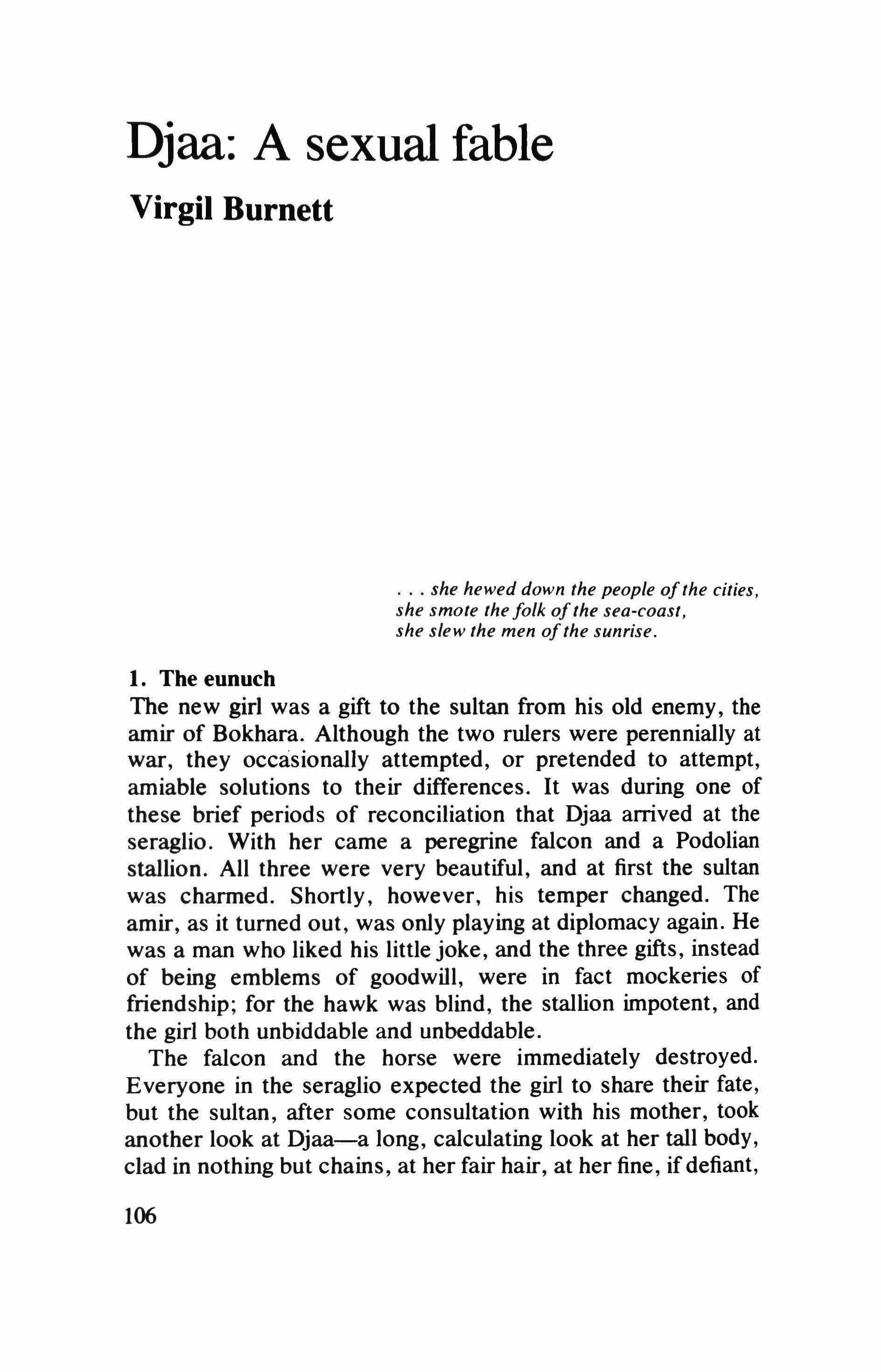
she hewed down the people ofthe cities, she smote thefolk of the sea-coast, she slew the men ofthe sunrise.
1. The eunuch
The new girl was a gift to the sultan from his old enemy, the amir of Bokhara. Although the two rulers were perennially at war, they occasionally attempted, or pretended to attempt, amiable solutions to their differences. It was during one of these brief periods of reconciliation that Djaa arrived at the seraglio. With her came a peregrine falcon and a Podolian stallion. All three were very beautiful, and at first the sultan was charmed. Shortly, however, his temper changed. The amir, as it turned out, was only playing at diplomacy again. He was a man who liked his little joke, and the three gifts, instead of being emblems of goodwill, were in fact mockeries of friendship; for the hawk was blind, the stallion impotent, and the girl both unbiddable and unbeddable.
The falcon and the horse were immediately destroyed. Everyone in the seraglio expected the girl to share their fate, but the sultan, after some consultation with his mother, took another look at Djaa-a long, calculating look at her tall body, clad in nothing but chains, at her fair hair, at her fine, ifdefiant,
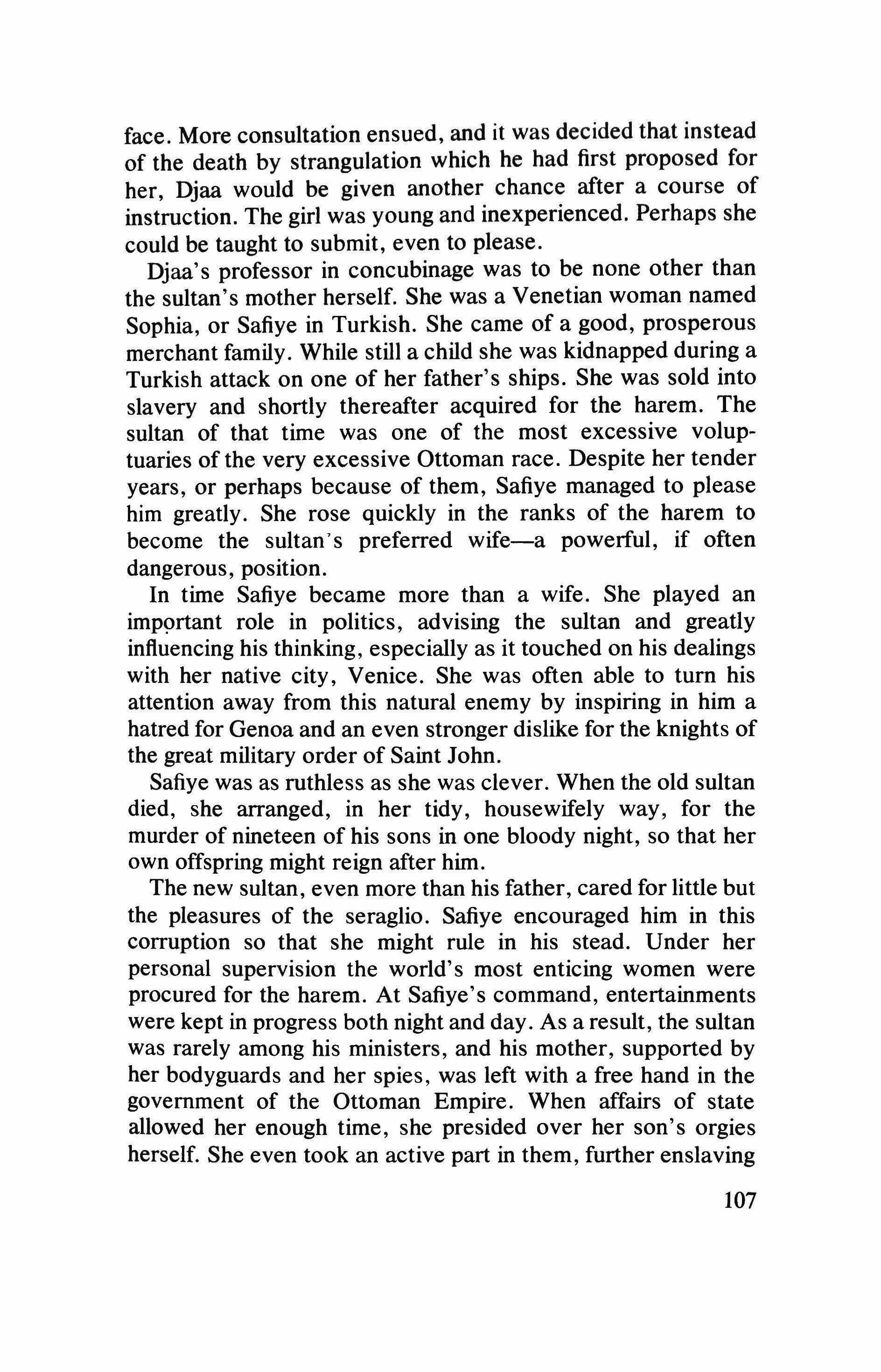
face. More consultation ensued, and it was decided that instead of the death by strangulation which he had first proposed for her, Djaa would be given another chance after a course of instruction. The girl was young and inexperienced. Perhaps she could be taught to submit, even to please.
Djaa's professor in concubinage was to be none other than the sultan's mother herself. She was a Venetian woman named Sophia, or Safiye in Turkish. She came of a good, prosperous merchant family. While still a child she was kidnapped during a Turkish attack on one of her father's ships. She was sold into slavery and shortly thereafter acquired for the harem. The sultan of that time was one of the most excessive voluptuaries of the very excessive Ottoman race. Despite her tender years, or perhaps because of them, Safiye managed to please him greatly. She rose quickly in the ranks of the harem to become the sultan's preferred wife-a powerful, if often dangerous, position.
In time Safiye became more than a wife. She played an important role in politics, advising the sultan and greatly influencing his thinking, especially as it touched on his dealings with her native city, Venice. She was often able to tum his attention away from this natural enemy by inspiring in him a hatred for Genoa and an even stronger dislike for the knights of the great military order of Saint John.
Safiye was as ruthless as she was clever. When the old sultan died, she arranged, in her tidy, housewifely way, for the murder of nineteen of his sons in one bloody night, so that her own offspring might reign after him.
The new sultan, even more than his father, cared for little but the pleasures of the seraglio. Safiye encouraged him in this corruption so that she might rule in his stead. Under her personal supervision the world's most enticing women were procured for the harem. At Safiye's command, entertainments were kept in progress both night and day. As a result, the sultan was rarely among his ministers, and his mother, supported by her bodyguards and her spies, was left with a free hand in the government of the Ottoman Empire. When affairs of state allowed her enough time, she presided over her son's orgies herself. She even took an active part in them, further enslaving
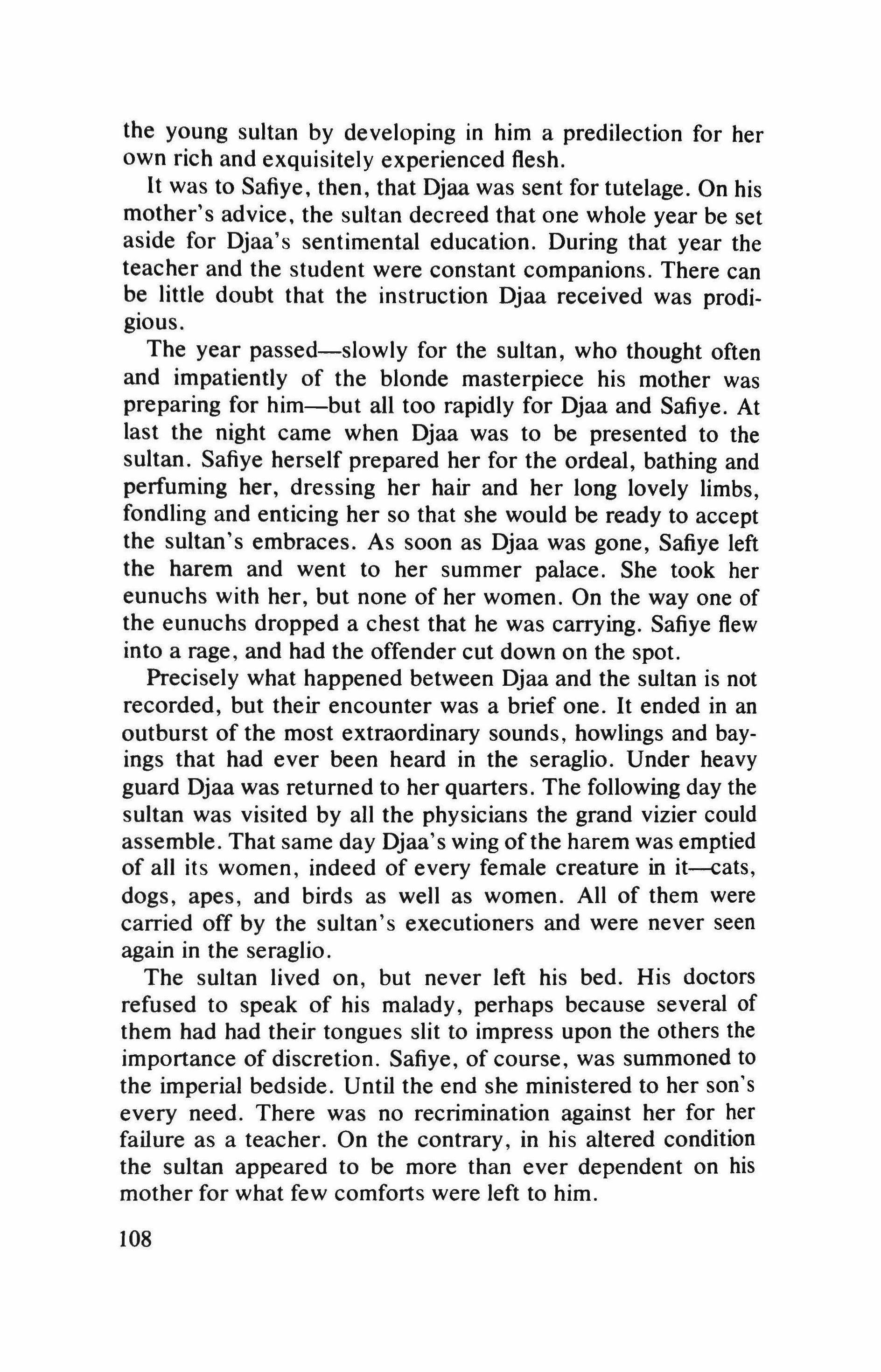
the young sultan by developing in him a predilection for her own rich and exquisitely experienced flesh.
It was to Safiye, then, that Djaa was sent for tutelage. On his mother's advice, the sultan decreed that one whole year be set aside for Djaa's sentimental education. During that year the teacher and the student were constant companions. There can be little doubt that the instruction Djaa received was prodigious.
The year passed-slowly for the sultan, who thought often and impatiently of the blonde masterpiece his mother was preparing for him-but all too rapidly for Djaa and Safiye. At last the night came when Djaa was to be presented to the sultan. Safiye herself prepared her for the ordeal, bathing and perfuming her, dressing her hair and her long lovely limbs, fondling and enticing her so that she would be ready to accept the sultan's embraces. As soon as Djaa was gone, Safiye left the harem and went to her summer palace. She took her eunuchs with her, but none of her women. On the way one of the eunuchs dropped a chest that he was carrying. Safiye flew into a rage, and had the offender cut down on the spot.
Precisely what happened between Djaa and the sultan is not recorded, but their encounter was a brief one. It ended in an outburst of the most extraordinary sounds, howlings and bayings that had ever been heard in the seraglio. Under heavy guard Djaa was returned to her quarters. The following day the sultan was visited by all the physicians the grand vizier could assemble. That same day Djaa's wing ofthe harem was emptied of all its women, indeed of every female creature in it--cats, dogs, apes, and birds as well as women. All of them were carried off by the sultan's executioners and were never seen again in the seraglio.
The sultan lived on, but never left his bed. His doctors refused to speak of his malady, perhaps because several of them had had their tongues slit to impress upon the others the importance of discretion. Safiye, of course, was summoned to the imperial bedside. Until the end she ministered to her son's every need. There was no recrimination against her for her failure as a teacher. On the contrary, in his altered condition the sultan appeared to be more than ever dependent on his mother for what few comforts were left to him.
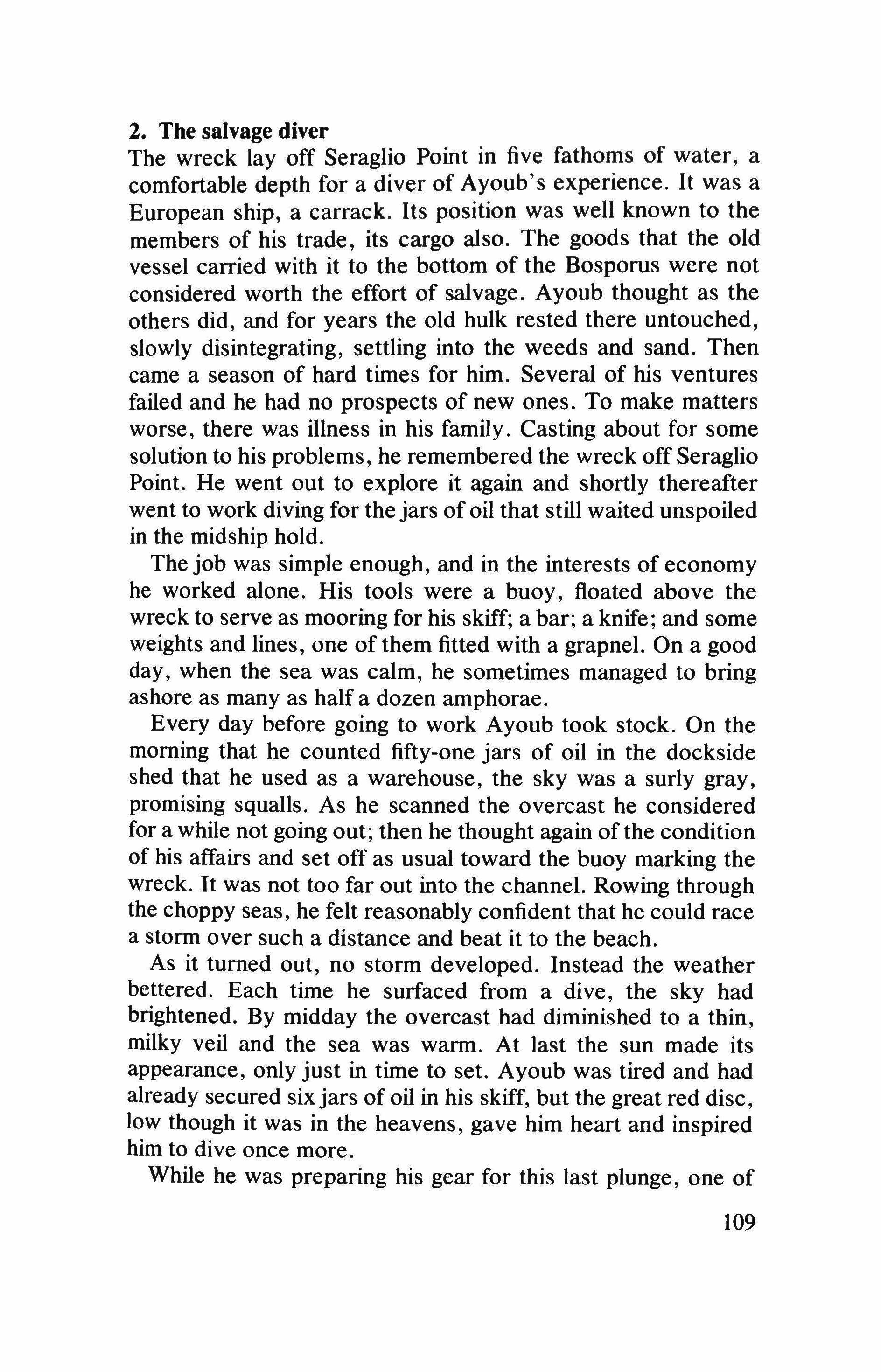
The wreck layoff Seraglio Point in five fathoms of water, a comfortable depth for a diver of Ayoub's experience. It was a European ship, a carrack. Its position was well known to the members of his trade, its cargo also. The goods that the old vessel carried with it to the bottom of the Bosporus were not considered worth the effort of salvage. Ayoub thought as the others did, and for years the old hulk rested there untouched, slowly disintegrating, settling into the weeds and sand. Then came a season of hard times for him. Several of his ventures failed and he had no prospects of new ones. To make matters worse, there was illness in his family. Casting about for some solution to his problems, he remembered the wreck off Seraglio Point. He went out to explore it again and shortly thereafter went to work diving for the jars of oil that still waited unspoiled in the midship hold.
The job was simple enough, and in the interests of economy he worked alone. His tools were a buoy, floated above the wreck to serve as mooring for his skiff; a bar; a knife; and some weights and lines, one of them fitted with a grapnel. On a good day, when the sea was calm, he sometimes managed to bring ashore as many as half a dozen amphorae.
Every day before going to work Ayoub took stock. On the morning that he counted fifty-one jars of oil in the dockside shed that he used as a warehouse, the sky was a surly gray, promising squalls. As he scanned the overcast he considered for a while not going out; then he thought again of the condition of his affairs and set off as usual toward the buoy marking the wreck. It was not too far out into the channel. Rowing through the choppy seas, he felt reasonably confident that he could race a storm over such a distance and beat it to the beach.
As it turned out, no storm developed. Instead the weather bettered. Each time he surfaced from a dive, the sky had brightened. By midday the overcast had diminished to a thin, milky veil and the sea was warm. At last the sun made its appearance, only just in time to set. Ayoub was tired and had already secured six jars of oil in his skiff, but the great red disc, low though it was in the heavens, gave him heart and inspired him to dive once more.
While he was preparing his gear for this last plunge, one of
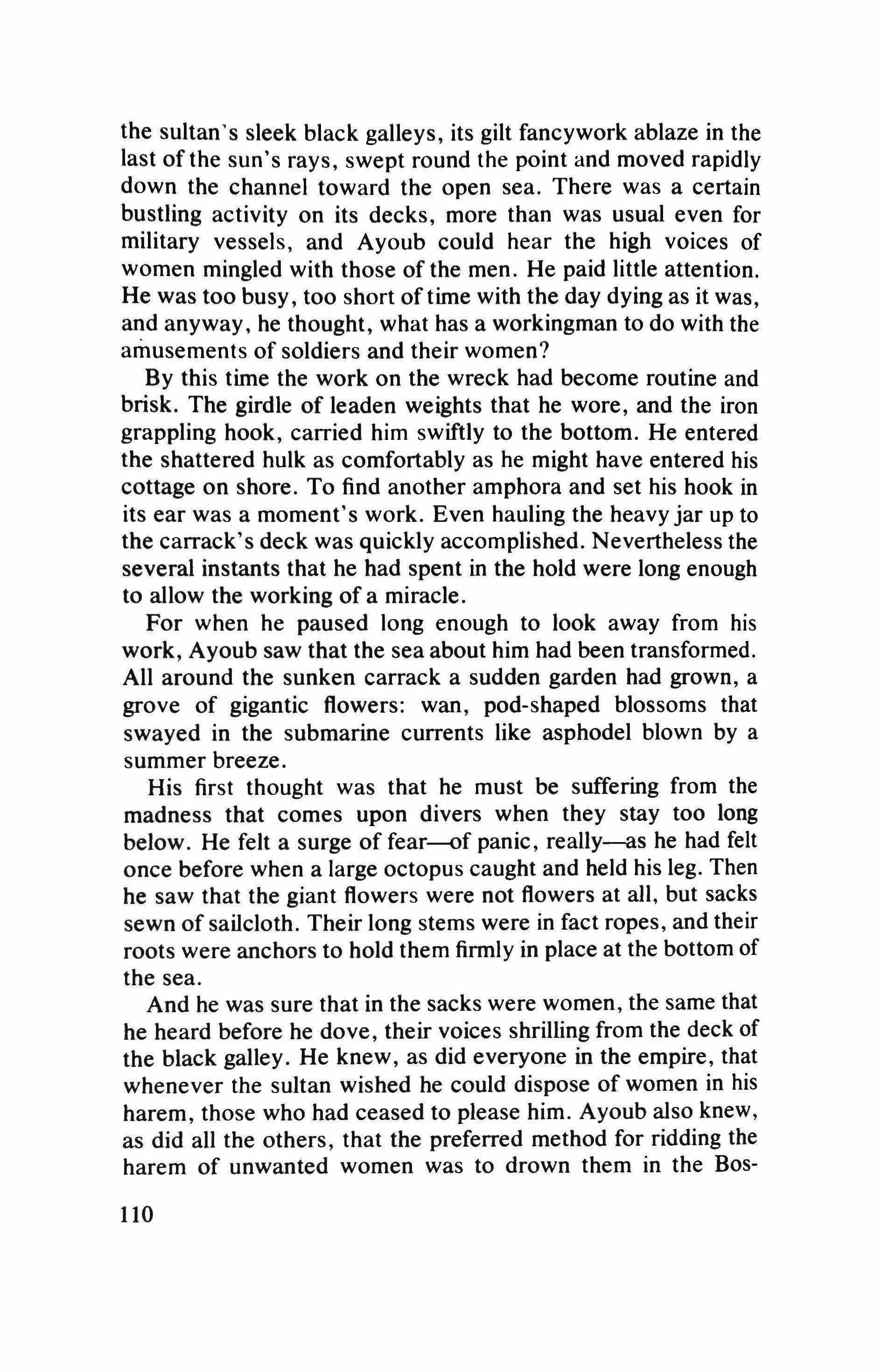
the sultan's sleek black galleys, its gilt fancywork ablaze in the last of the sun's rays, swept round the point and moved rapidly down the channel toward the open sea. There was a certain bustling activity on its decks, more than was usual even for military vessels, and Ayoub could hear the high voices of women mingled with those of the men. He paid little attention. He was too busy, too short of time with the day dying as it was, and anyway, he thought, what has a workingman to do with the amusements of soldiers and their women?
By this time the work on the wreck had become routine and brisk. The girdle of leaden weights that he wore, and the iron grappling hook, carried him swiftly to the bottom. He entered the shattered hulk as comfortably as he might have entered his cottage on shore. To find another amphora and set his hook in its ear was a moment's work. Even hauling the heavyjar up to the carrack's deck was quickly accomplished. Nevertheless the several instants that he had spent in the hold were long enough to allow the working of a miracle.
For when he paused long enough to look away from his work, Ayoub saw that the sea about him had been transformed. All around the sunken carrack a sudden garden had grown, a grove of gigantic flowers: wan, pod-shaped blossoms that swayed in the submarine currents like asphodel blown by a summer breeze.
His first thought was that he must be suffering from the madness that comes upon divers when they stay too long below. He felt a surge of fear�f panic, really-as he had felt once before when a large octopus caught and held his leg. Then he saw that the giant flowers were not flowers at all, but sacks sewn of sailcloth. Their long stems were in fact ropes, and their roots were anchors to hold them firmly in place at the bottom of the sea.
And he was sure that in the sacks were women, the same that he heard before he dove, their voices shrilling from the deck of the black galley. He knew, as did everyone in the empire, that whenever the sultan wished he could dispose of women in his harem, those who had ceased to please him. Ayoub also knew, as did all the others, that the preferred method for ridding the harem of unwanted women was to drown them in the Bos-
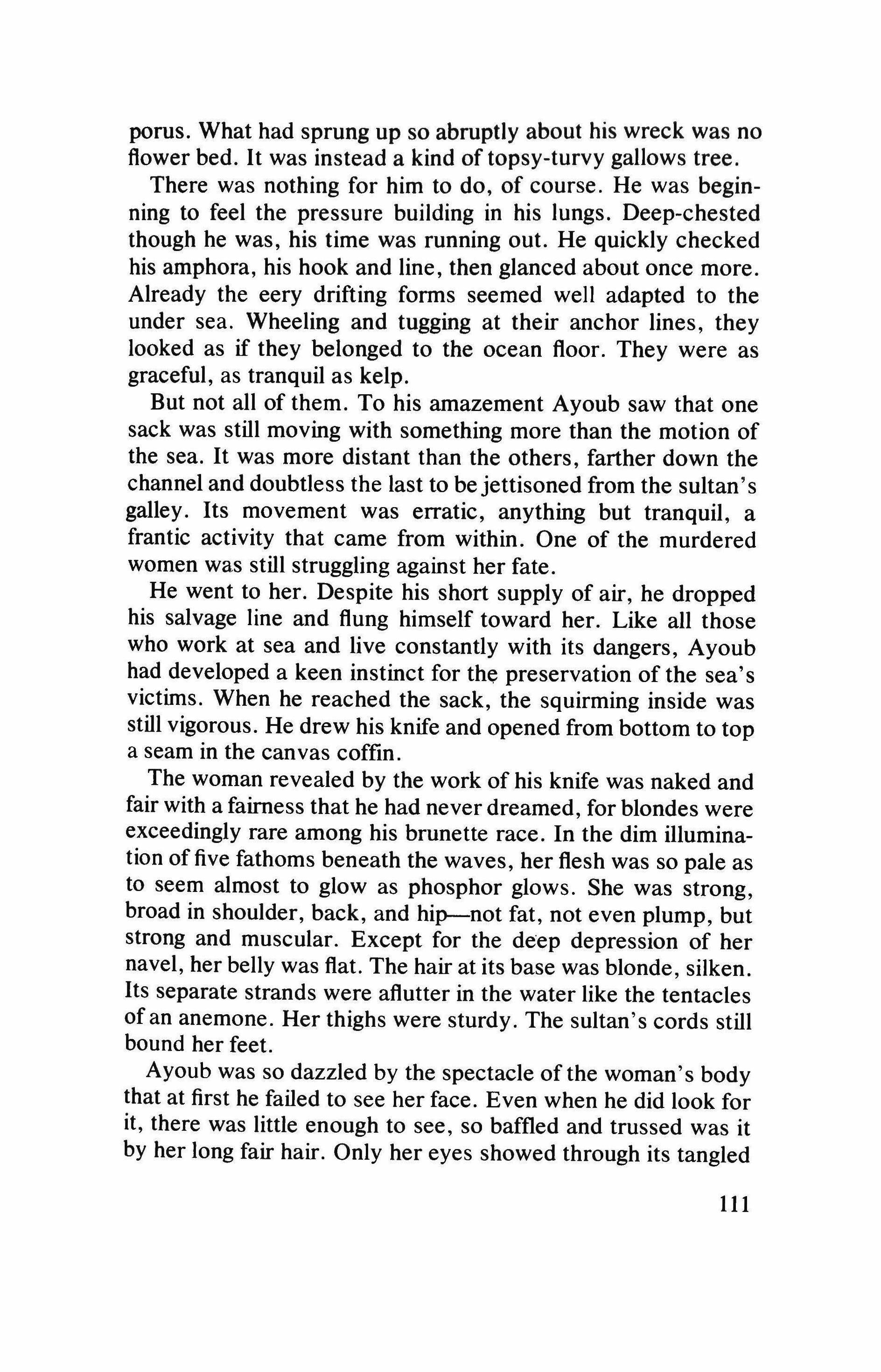
porus. What had sprung up so abruptly about his wreck was no flower bed. It was instead a kind of topsy-turvy gallows tree.
There was nothing for him to do, of course. He was beginning to feel the pressure building in his lungs. Deep-chested though he was, his time was running out. He quickly checked his amphora, his hook and line, then glanced about once more. Already the eery drifting forms seemed well adapted to the under sea. Wheeling and tugging at their anchor lines, they looked as if they belonged to the ocean floor. They were as graceful, as tranquil as kelp.
But not all of them. To his amazement Ayoub saw that one sack was still moving with something more than the motion of the sea. It was more distant than the others, farther down the channel and doubtless the last to be jettisoned from the sultan's galley. Its movement was erratic, anything but tranquil, a frantic activity that came from within. One of the murdered women was still struggling against her fate.
He went to her. Despite his short supply of air, he dropped his salvage line and flung himself toward her. Like all those who work at sea and live constantly with its dangers, Ayoub had developed a keen instinct for the preservation of the sea's victims. When he reached the sack, the squirming inside was still vigorous. He drew his knife and opened from bottom to top a seam in the can vas coffin.
The woman revealed by the work of his knife was naked and fair with a fairness that he had never dreamed, for blondes were exceedingly rare among his brunette race. In the dim illumination of five fathoms beneath the waves, her flesh was so pale as to seem almost to glow as phosphor glows. She was strong, broad in shoulder, back, and hip-not fat, not even plump, but strong and muscular. Except for the deep depression of her navel, her belly was flat. The hair at its base was blonde, silken. Its separate strands were aflutter in the water like the tentacles of an anemone. Her thighs were sturdy. The sultan's cords still bound her feet.
Ayoub was so dazzled by the spectacle of the woman's body that at first he failed to see her face. Even when he did look for it, there was little enough to see, so baffled and trussed was it by her long fair hair. Only her eyes showed through its tangled
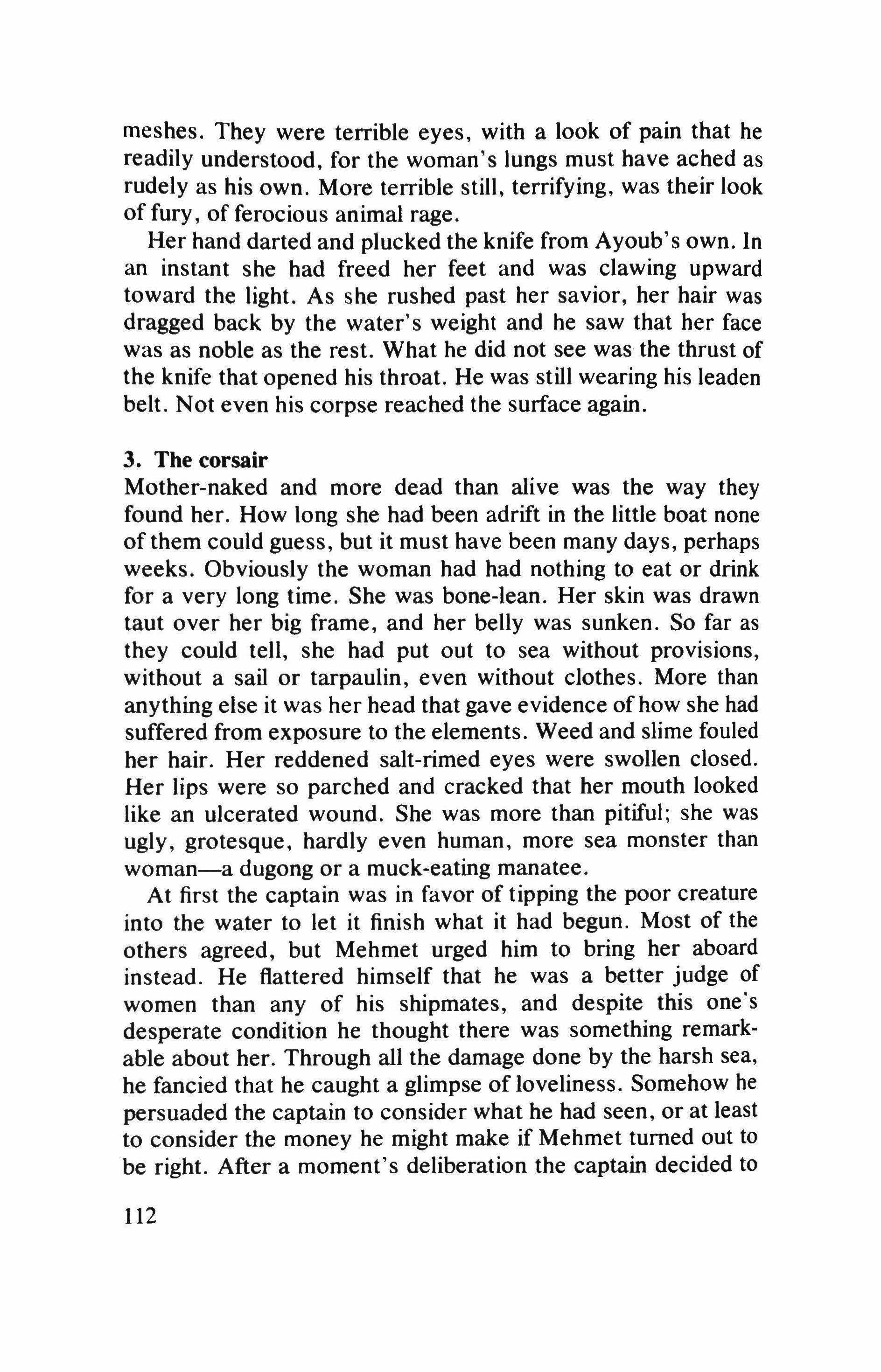
meshes. They were terrible eyes, with a look of pain that he readily understood, for the woman's lungs must have ached as rudely as his own. More terrible still, terrifying, was their look of fury, of ferocious animal rage.
Her hand darted and plucked the knife from Ayoub's own. In an instant she had freed her feet and was clawing upward toward the light. As she rushed past her savior, her hair was dragged back by the water's weight and he saw that her face was as noble as the rest. What he did not see was the thrust of the knife that opened his throat. He was still wearing his leaden belt. Not even his corpse reached the surface again.
3. The corsair
Mother-naked and more dead than alive was the way they found her. How long she had been adrift in the little boat none of them could guess, but it must have been many days, perhaps weeks. Obviously the woman had had nothing to eat or drink for a very long time. She was bone-lean. Her skin was drawn taut over her big frame, and her belly was sunken. So far as they could tell, she had put out to sea without provisions, without a sail or tarpaulin, even without clothes. More than anything else it was her head that gave evidence of how she had suffered from exposure to the elements. Weed and slime fouled her hair. Her reddened salt-rimed eyes were swollen closed. Her lips were so parched and cracked that her mouth looked like an ulcerated wound. She was more than pitiful; she was ugly, grotesque, hardly even human, more sea monster than woman-a dugong or a muck-eating manatee.
At first the captain was in favor of tipping the poor creature into the water to let it finish what it had begun. Most of the others agreed, but Mehmet urged him to bring her aboard instead. He flattered himself that he was a better judge of women than any of his shipmates, and despite this one's desperate condition he thought there was something remarkable about her. Through all the damage done by the harsh sea, he fancied that he caught a glimpse of loveliness. Somehow he persuaded the captain to consider what he had seen, or at least to consider the money he might make if Mehmet turned out to be right. After a moment's deliberation the captain decided to


To his amazement, Ayoub saw that one sack was stillmoving with something more than the motion ofthe sea.
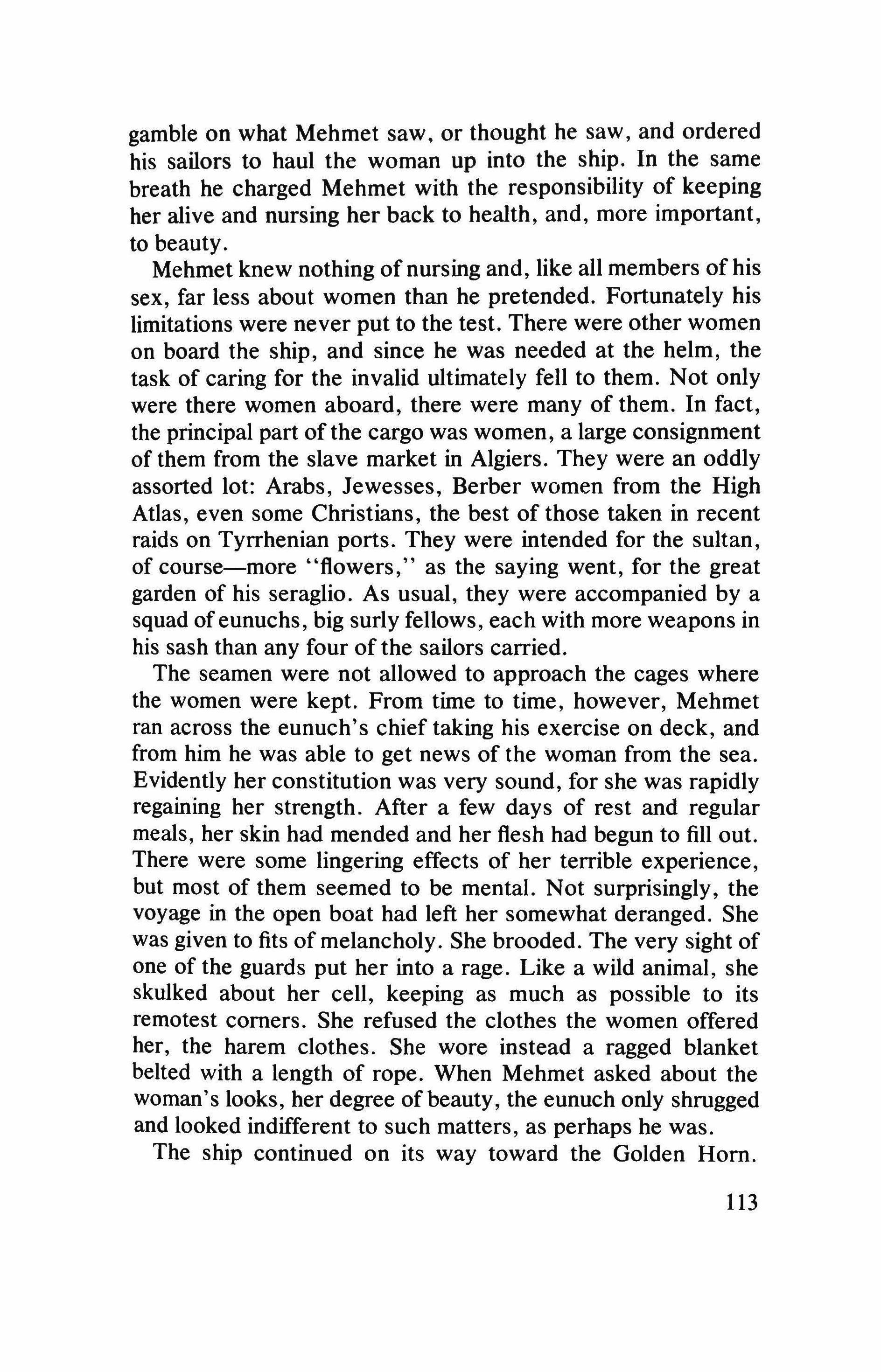
gamble on what Mehmet saw, or thought he saw, and ordered his sailors to haul the woman up into the ship. In the same breath he charged Mehmet with the responsibility of keeping her alive and nursing her back to health, and, more important, to beauty.
Mehmet knew nothing of nursing and, like all members of his sex, far less about women than he pretended. Fortunately his limitations were never put to the test. There were other women on board the ship, and since he was needed at the helm, the task of caring for the invalid ultimately fell to them. Not only were there women aboard, there were many of them. In fact, the principal part of the cargo was women, a large consignment of them from the slave market in Algiers. They were an oddly assorted lot: Arabs, Jewesses, Berber women from the High Atlas, even some Christians, the best of those taken in recent raids on Tyrrhenian ports. They were intended for the sultan, of course-more "flowers," as the saying went, for the great garden of his seraglio. As usual, they were accompanied by a squad ofeunuchs, big surly fellows, each with more weapons in his sash than any four of the sailors carried.
The seamen were not allowed to approach the cages where the women were kept. From time to time, however, Mehmet ran across the eunuch's chief taking his exercise on deck, and from him he was able to get news of the woman from the sea. Evidently her constitution was very sound, for she was rapidly regaining her strength. After a few days of rest and regular meals, her skin had mended and her flesh had begun to fill out. There were some lingering effects of her terrible experience, but most of them seemed to be mental. Not surprisingly, the voyage in the open boat had left her somewhat deranged. She was given to fits of melancholy. She brooded. The very sight of one of the guards put her into a rage. Like a wild animal, she skulked about her cell, keeping as much as possible to its remotest comers. She refused the clothes the women offered her, the harem clothes. She wore instead a ragged blanket belted with a length of rope. When Mehmet asked about the woman's looks, her degree of beauty, the eunuch only shrugged and looked indifferent to such matters, as perhaps he was.
The ship continued on its way toward the Golden Hom.
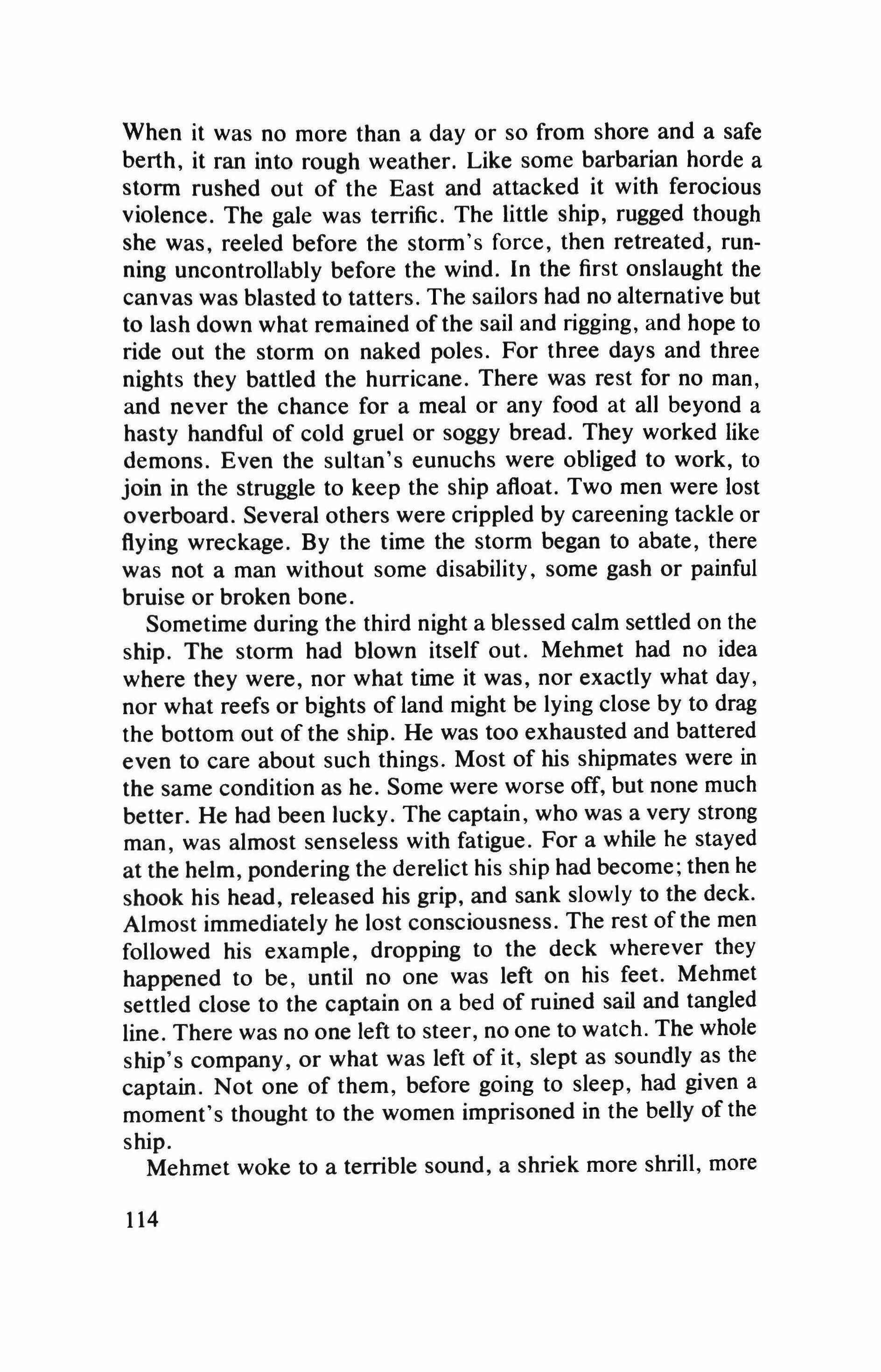
When it was no more than a day or so from shore and a safe berth, it ran into rough weather. Like some barbarian horde a storm rushed out of the East and attacked it with ferocious violence. The gale was terrific. The little ship, rugged though she was, reeled before the storm's force, then retreated, running uncontrollably before the wind. In the first onslaught the canvas was blasted to tatters. The sailors had no alternative but to lash down what remained of the sail and rigging, and hope to ride out the storm on naked poles. For three days and three nights they battled the hurricane. There was rest for no man, and never the chance for a meal or any food at all beyond a hasty handful of cold gruel or soggy bread. They worked like demons. Even the sultan's eunuchs were obliged to work, to join in the struggle to keep the ship afloat. Two men were lost overboard. Several others were crippled by careening tackle or flying wreckage. By the time the storm began to abate, there was not a man without some disability, some gash or painful bruise or broken bone.
Sometime during the third night a blessed calm settled on the ship. The storm had blown itself out. Mehmet had no idea where they were, nor what time it was, nor exactly what day, nor what reefs or bights of land might be lying close by to drag the bottom out of the ship. He was too exhausted and battered even to care about such things. Most of his shipmates were in the same condition as he. Some were worse off, but none much better. He had been lucky. The captain, who was a very strong man, was almost senseless with fatigue. For a while he stayed at the helm, pondering the derelict his ship had become; then he shook his head, released his grip, and sank slowly to the deck. Almost immediately he lost consciousness. The rest of the men followed his example, dropping to the deck wherever they happened to be, until no one was left on his feet. Mehmet settled close to the captain on a bed of ruined sail and tangled line. There was no one left to steer, no one to watch. The whole ship's company, or what was left of it, slept as soundly as the captain. Not one of them, before going to sleep, had given a moment's thought to the women imprisoned in the belly of the ship.
Mehmet woke to a terrible sound, a shriek more shrill, more
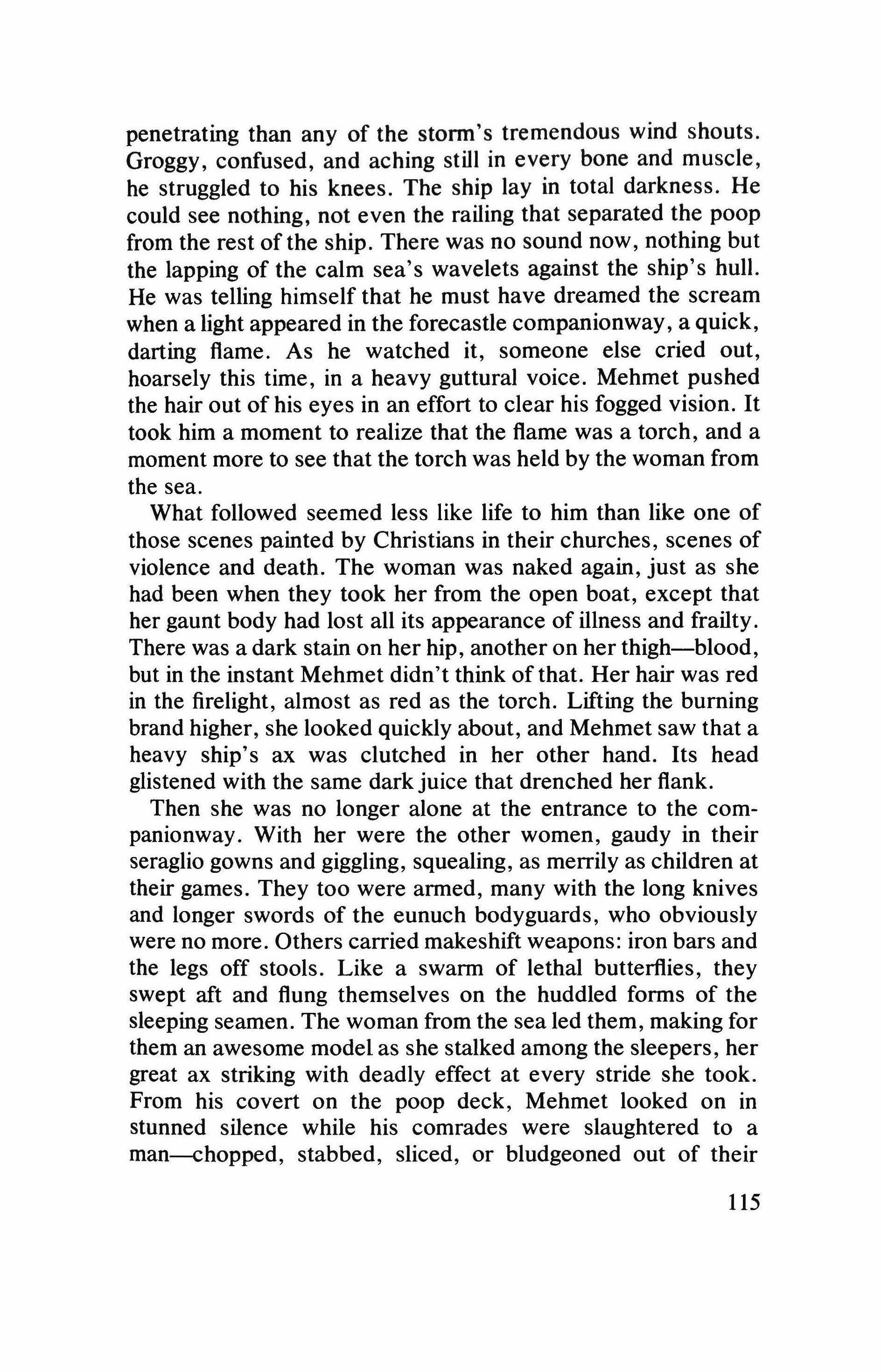
penetrating than any of the storm's tremendous wind shouts. Groggy, confused, and aching still in every bone and muscle, he struggled to his knees. The ship lay in total darkness. He could see nothing, not even the railing that separated the poop from the rest of the ship. There was no sound now, nothing but the lapping of the calm sea's wavelets against the ship's hull. He was telling himself that he must have dreamed the scream when a light appeared in the forecastle companionway, a quick, darting flame. As he watched it, someone else cried out, hoarsely this time, in a heavy guttural voice. Mehmet pushed the hair out of his eyes in an effort to clear his fogged vision. It took him a moment to realize that the flame was a torch, and a moment more to see that the torch was held by the woman from the sea.
What followed seemed less like life to him than like one of those scenes painted by Christians in their churches, scenes of violence and death. The woman was naked again, just as she had been when they took her from the open boat, except that her gaunt body had lost all its appearance of illness and frailty. There was a dark stain on her hip, another on her thigh-blood, but in the instant Mehmet didn't think of that. Her hair was red in the firelight, almost as red as the torch. Lifting the burning brand higher, she looked quickly about, and Mehmet saw that a heavy ship's ax was clutched in her other hand. Its head glistened with the same dark juice that drenched her flank.
Then she was no longer alone at the entrance to the companionway. With her were the other women, gaudy in their seraglio gowns and giggling, squealing, as merrily as children at their games. They too were armed, many with the long knives and longer swords of the eunuch bodyguards, who obviously were no more. Others carried makeshift weapons: iron bars and the legs off stools. Like a swarm of lethal butterflies, they swept aft and flung themselves on the huddled forms of the sleeping seamen. The woman from the sea led them, making for them an awesome model as she stalked among the sleepers, her great ax striking with deadly effect at every stride she took. From his covert on the poop deck, Mehmet looked on in stunned silence while his comrades were slaughtered to a man=-chopped, stabbed, sliced, or bludgeoned out of their
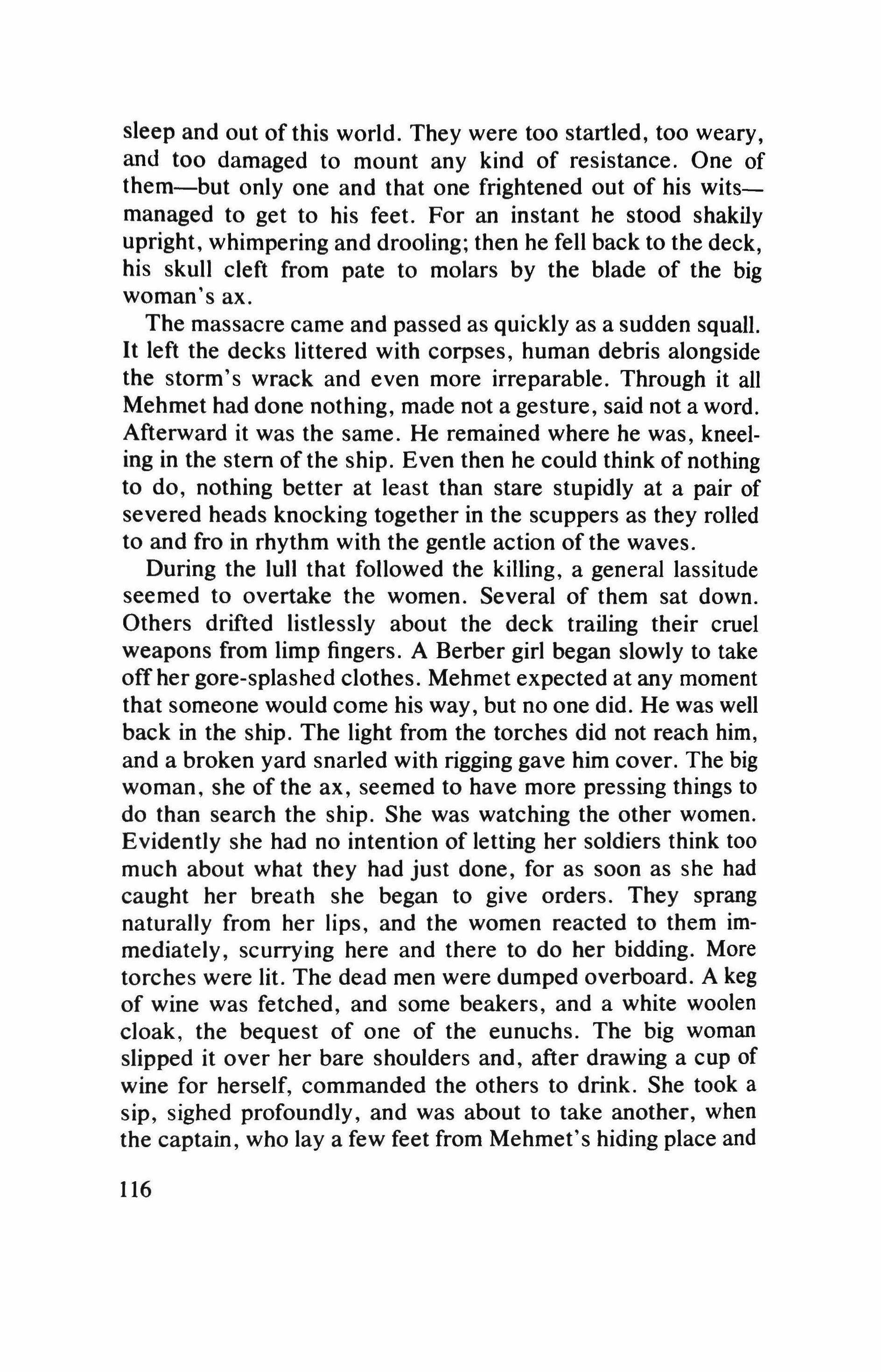
sleep and out of this world. They were too startled, too weary, and too damaged to mount any kind of resistance. One of them-but only one and that one frightened out of his witsmanaged to get to his feet. For an instant he stood shakily upright, whimpering and drooling; then he fell back to the deck, his skull cleft from pate to molars by the blade of the big woman's ax.
The massacre came and passed as quickly as a sudden squall. It left the decks littered with corpses, human debris alongside the storm's wrack and even more irreparable. Through it all Mehmet had done nothing, made not a gesture, said not a word. Afterward it was the same. He remained where he was, kneeling in the stem of the ship. Even then he could think of nothing to do, nothing better at least than stare stupidly at a pair of severed heads knocking together in the scuppers as they rolled to and fro in rhythm with the gentle action of the waves.
During the lull that followed the killing, a general lassitude seemed to overtake the women. Several of them sat down. Others drifted listlessly about the deck trailing their cruel weapons from limp fingers. A Berber girl began slowly to take off her gore-splashed clothes. Mehmet expected at any moment that someone would come his way, but no one did. He was well back in the ship. The light from the torches did not reach him, and a broken yard snarled with rigging gave him cover. The big woman, she of the ax, seemed to have more pressing things to do than search the ship. She was watching the other women.
Evidently she had no intention of letting her soldiers think too much about what they had just done, for as soon as she had caught her breath she began to give orders. They sprang naturally from her lips, and the women reacted to them immediately, scurrying here and there to do her bidding. More torches were lit. The dead men were dumped overboard. A keg of wine was fetched, and some beakers, and a white woolen cloak, the bequest of one of the eunuchs. The big woman slipped it over her bare shoulders and, after drawing a cup of wine for herself, commanded the others to drink. She took a sip, sighed profoundly, and was about to take another, when the captain, who lay a few feet from Mehmet's hiding place and
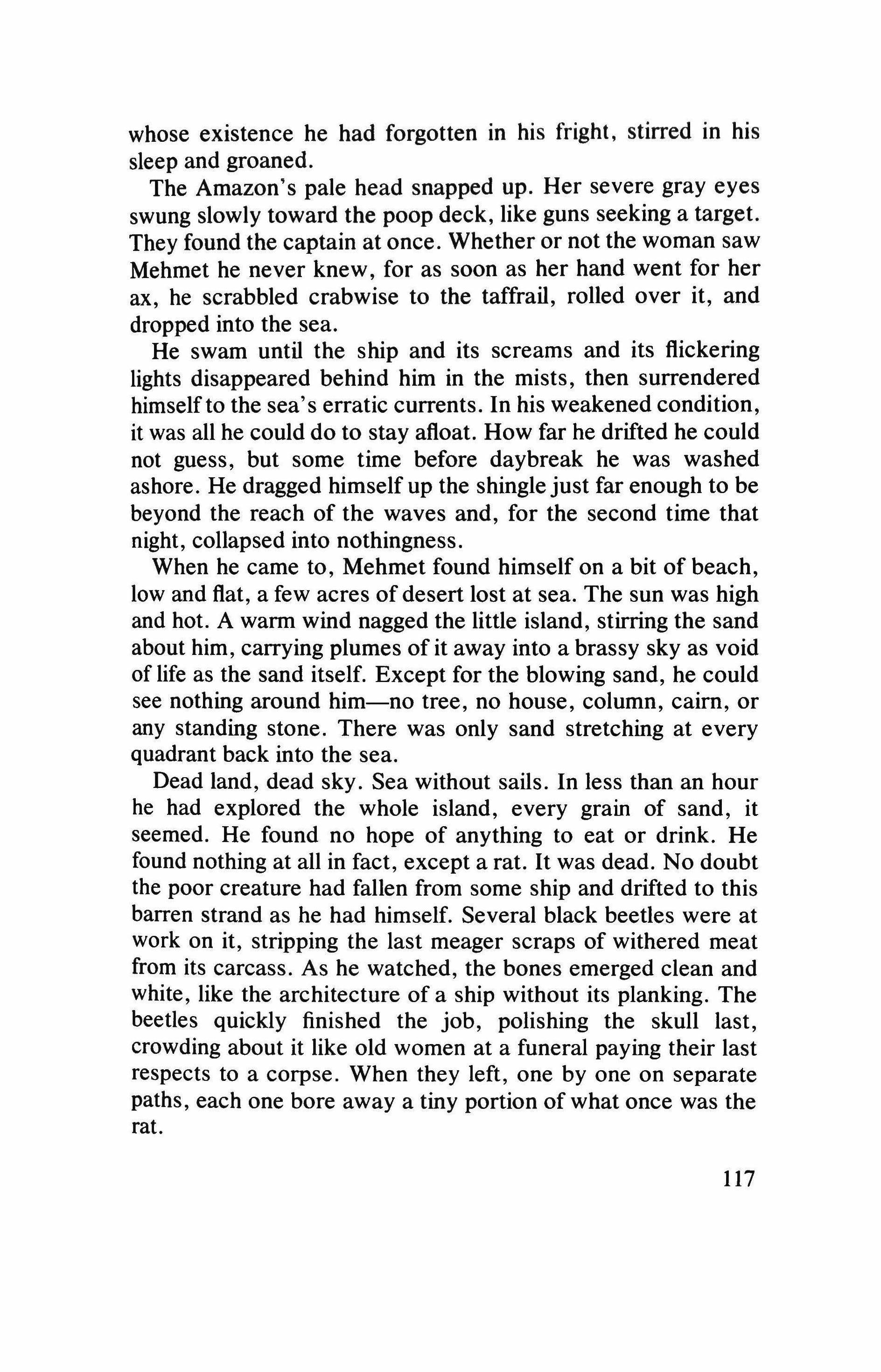
whose existence he had forgotten in his fright, stirred in his sleep and groaned.
The Amazon's pale head snapped up. Her severe gray eyes swung slowly toward the poop deck, like guns seeking a target. They found the captain at once. Whether or not the woman saw Mehmet he never knew, for as soon as her hand went for her ax, he scrabbled crabwise to the taffrail, rolled over it, and dropped into the sea.
He swam until the ship and its screams and its flickering lights disappeared behind him in the mists, then surrendered himself to the sea's erratic currents. In his weakened condition, it was all he could do to stay afloat. How far he drifted he could not guess, but some time before daybreak he was washed ashore. He dragged himself up the shinglejust far enough to be beyond the reach of the waves and, for the second time that night, collapsed into nothingness.
When he came to, Mehmet found himself on a bit of beach, low and flat, a few acres of desert lost at sea. The sun was high and hot. A warm wind nagged the little island, stirring the sand about him, carrying plumes of it away into a brassy sky as void of life as the sand itself. Except for the blowing sand, he could see nothing around him-no tree, no house, column, cairn, or any standing stone. There was only sand stretching at every quadrant back into the sea.
Dead land, dead sky. Sea without sails. In less than an hour he had explored the whole island, every grain of sand, it seemed. He found no hope of anything to eat or drink. He found nothing at all in fact, except a rat. It was dead. No doubt the poor creature had fallen from some ship and drifted to this barren strand as he had himself. Several black beetles were at work on it, stripping the last meager scraps of withered meat from its carcass. As he watched, the bones emerged clean and white, like the architecture of a ship without its planking. The beetles quickly finished the job, polishing the skull last, crowding about it like old women at a funeral paying their last respects to a corpse. When they left, one by one on separate paths, each one bore away a tiny portion of what once was the rat.
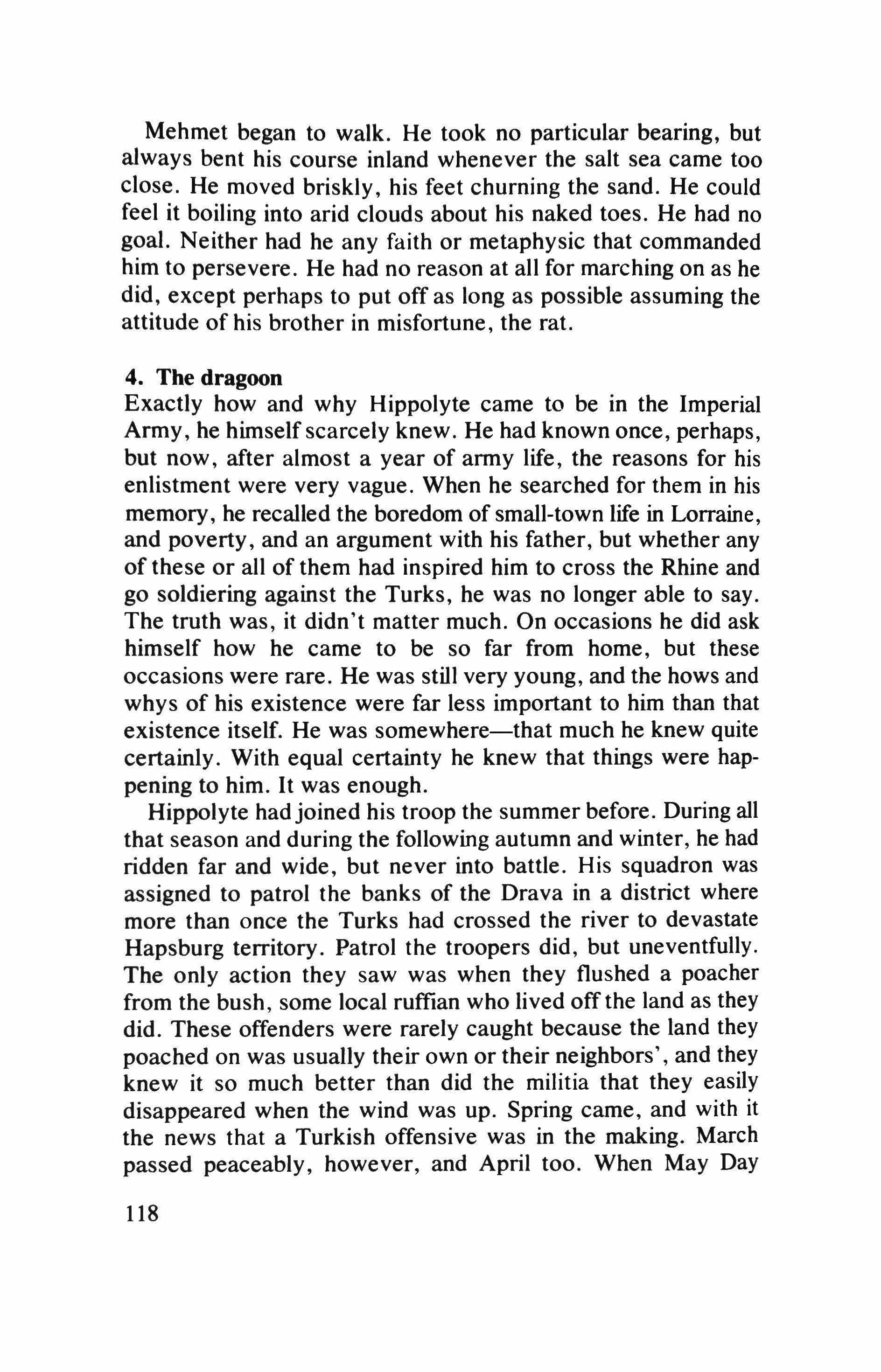
Mehmet began to walk. He took no particular bearing, but always bent his course inland whenever the salt sea came too close. He moved briskly, his feet churning the sand. He could feel it boiling into arid clouds about his naked toes. He had no goal. Neither had he any faith or metaphysic that commanded him to persevere. He had no reason at all for marching on as he did, except perhaps to put off as long as possible assuming the attitude of his brother in misfortune, the rat.
Exactly how and why Hippolyte came to be in the Imperial Army, he himself scarcely knew. He had known once, perhaps, but now, after almost a year of army life, the reasons for his enlistment were very vague. When he searched for them in his memory, he recalled the boredom of small-town life in Lorraine, and poverty, and an argument with his father, but whether any of these or all of them had inspired him to cross the Rhine and go soldiering against the Turks, he was no longer able to say. The truth was, it didn't matter much. On occasions he did ask himself how he came to be so far from home, but these occasions were rare. He was still very young, and the hows and whys of his existence were far less important to him than that existence itself. He was somewhere-that much he knew quite certainly. With equal certainty he knew that things were happening to him. It was enough.
Hippolyte hadjoined his troop the summer before. During all that season and during the following autumn and winter, he had ridden far and wide, but never into battle. His squadron was assigned to patrol the banks of the Drava in a district where more than once the Turks had crossed the river to devastate Hapsburg territory. Patrol the troopers did, but uneventfully. The only action they saw was when they flushed a poacher from the bush, some local ruffian who lived off the land as they did. These offenders were rarely caught because the land they poached on was usually their own or their neighbors', and they knew it so much better than did the militia that they easily disappeared when the wind was up. Spring came, and with it the news that a Turkish offensive was in the making. March passed peaceably, however, and April too. When May Day
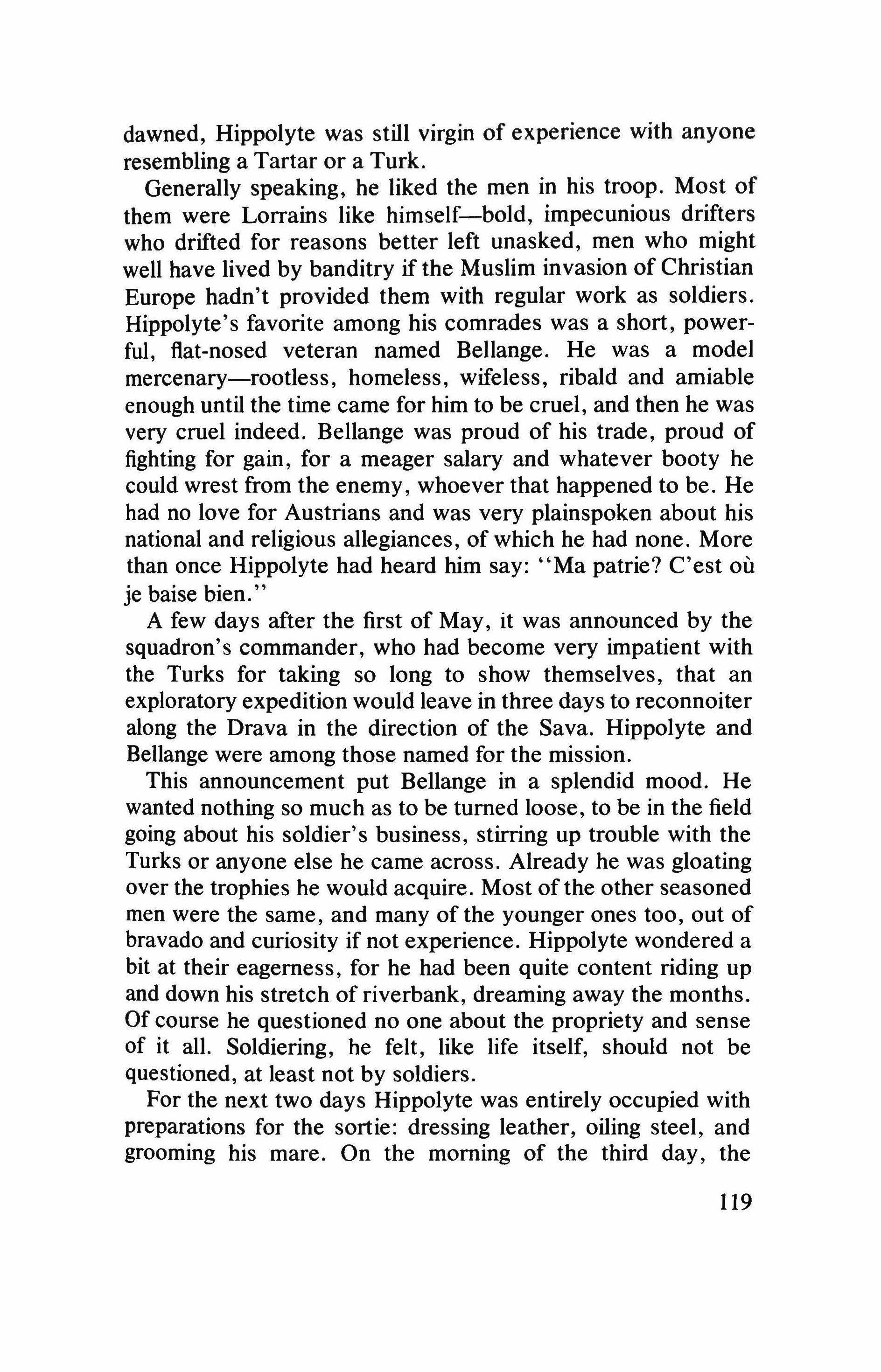
dawned, Hippolyte was still virgin of experience with anyone resembling a Tartar or a Turk.
Generally speaking, he liked the men in his troop. Most of them were Lorrains like himself-bold, impecunious drifters who drifted for reasons better left unasked, men who might well have lived by banditry if the Muslim invasion of Christian Europe hadn't provided them with regular work as soldiers. Hippolyte's favorite among his comrades was a short, powerful, fiat-nosed veteran named Bellange. He was a model mercenary-rootless, homeless, wifeless, ribald and amiable enough until the time came for him to be cruel, and then he was very cruel indeed. Bellange was proud of his trade, proud of fighting for gain, for a meager salary and whatever booty he could wrest from the enemy, whoever that happened to be. He had no love for Austrians and was very plainspoken about his national and religious allegiances, of which he had none. More than once Hippolyte had heard him say: "Ma patrie? C'est ou je baise bien."
A few days after the first of May, it was announced by the squadron's commander, who had become very impatient with the Turks for taking so long to show themselves, that an exploratory expedition would leave in three days to reconnoiter along the Drava in the direction of the Sava. Hippolyte and Bellange were among those named for the mission.
This announcement put Bellange in a splendid mood. He wanted nothing so much as to be turned loose, to be in the field going about his soldier's business, stirring up trouble with the Turks or anyone else he came across. Already he was gloating over the trophies he would acquire. Most of the other seasoned men were the same, and many of the younger ones too, out of bravado and curiosity if not experience. Hippolyte wondered a bit at their eagerness, for he had been quite content riding up and down his stretch of riverbank, dreaming away the months. Of course he questioned no one about the propriety and sense of it all. Soldiering, he felt, like life itself, should not be questioned, at least not by soldiers.
For the next two days Hippolyte was entirely occupied with preparations for the sortie: dressing leather, oiling steel, and grooming his mare. On the morning of the third day, the 119
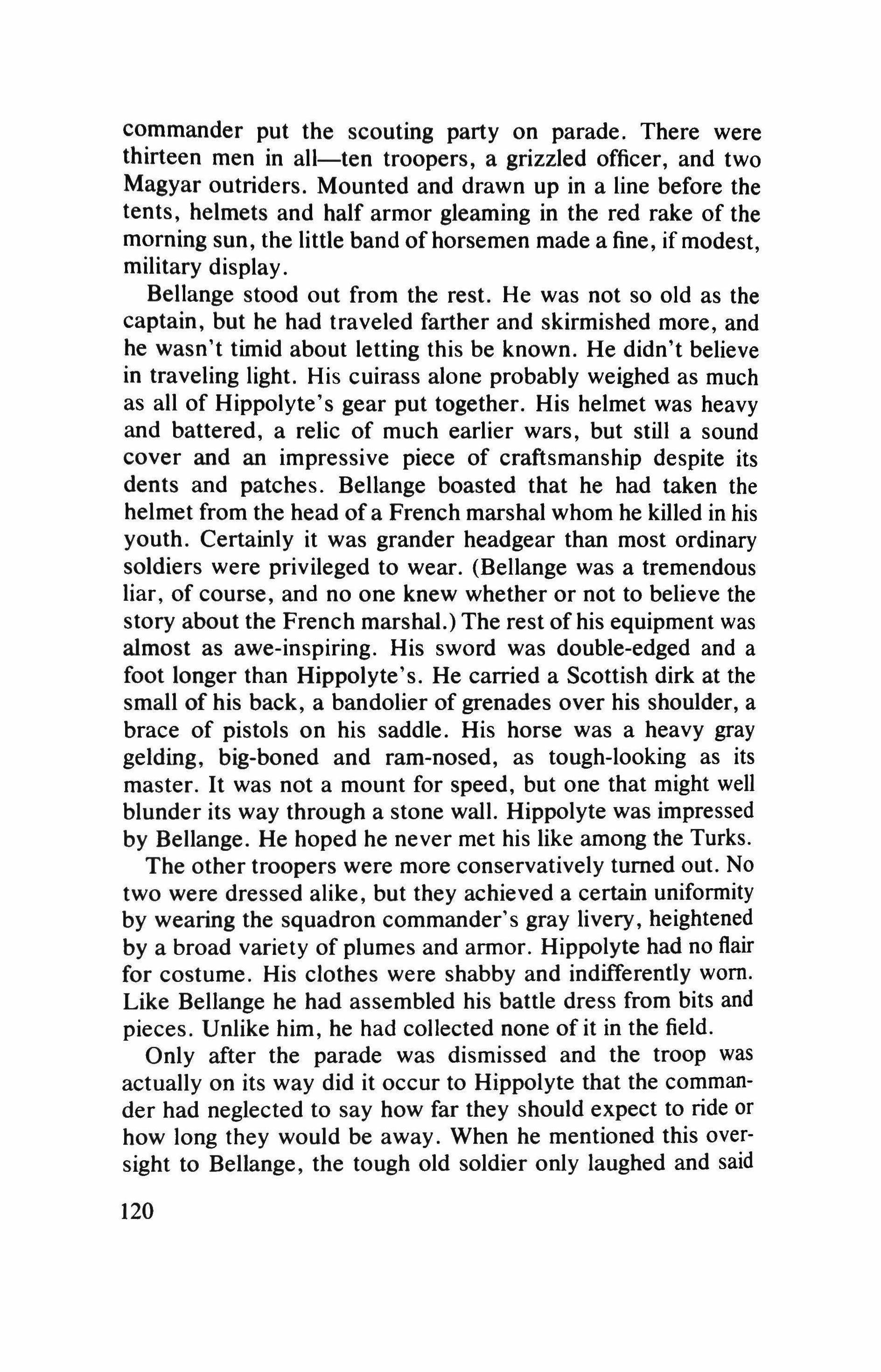
commander put the scouting party on parade. There were thirteen men in all-ten troopers, a grizzled officer, and two Magyar outriders. Mounted and drawn up in a line before the tents, helmets and half armor gleaming in the red rake of the morning sun, the little band of horsemen made a fine, if modest, military display.
Bellange stood out from the rest. He was not so old as the captain, but he had traveled farther and skirmished more, and he wasn't timid about letting this be known. He didn't believe in traveling light. His cuirass alone probably weighed as much as all of Hippolytes gear put together. His helmet was heavy and battered, a relic of much earlier wars, but still a sound cover and an impressive piece of craftsmanship despite its dents and patches. Bellange boasted that he had taken the helmet from the head of a French marshal whom he killed in his youth. Certainly it was grander headgear than most ordinary soldiers were privileged to wear. (Bellange was a tremendous liar, of course, and no one knew whether or not to believe the story about the French marshal.) The rest of his equipment was almost as awe-inspiring. His sword was double-edged and a foot longer than Hippolyte's. He carried a Scottish dirk at the small of his back, a bandolier of grenades over his shoulder, a brace of pistols on his saddle. His horse was a heavy gray gelding, big-boned and ram-nosed, as tough-looking as its master. It was not a mount for speed, but one that might well blunder its way through a stone wall. Hippolyte was impressed by Bellange. He hoped he never met his like among the Turks.
The other troopers were more conservatively turned out. No two were dressed alike, but they achieved a certain uniformity by wearing the squadron commander's gray livery, heightened by a broad variety of plumes and armor. Hippolyte had no flair for costume. His clothes were shabby and indifferently worn. Like Bellange he had assembled his battle dress from bits and pieces. Unlike him, he had collected none of it in the field.
Only after the parade was dismissed and the troop was actually on its way did it occur to Hippolyte that the commander had neglected to say how far they should expect to ride or how long they would be away. When he mentioned this oversight to Bellange, the tough old soldier only laughed and said
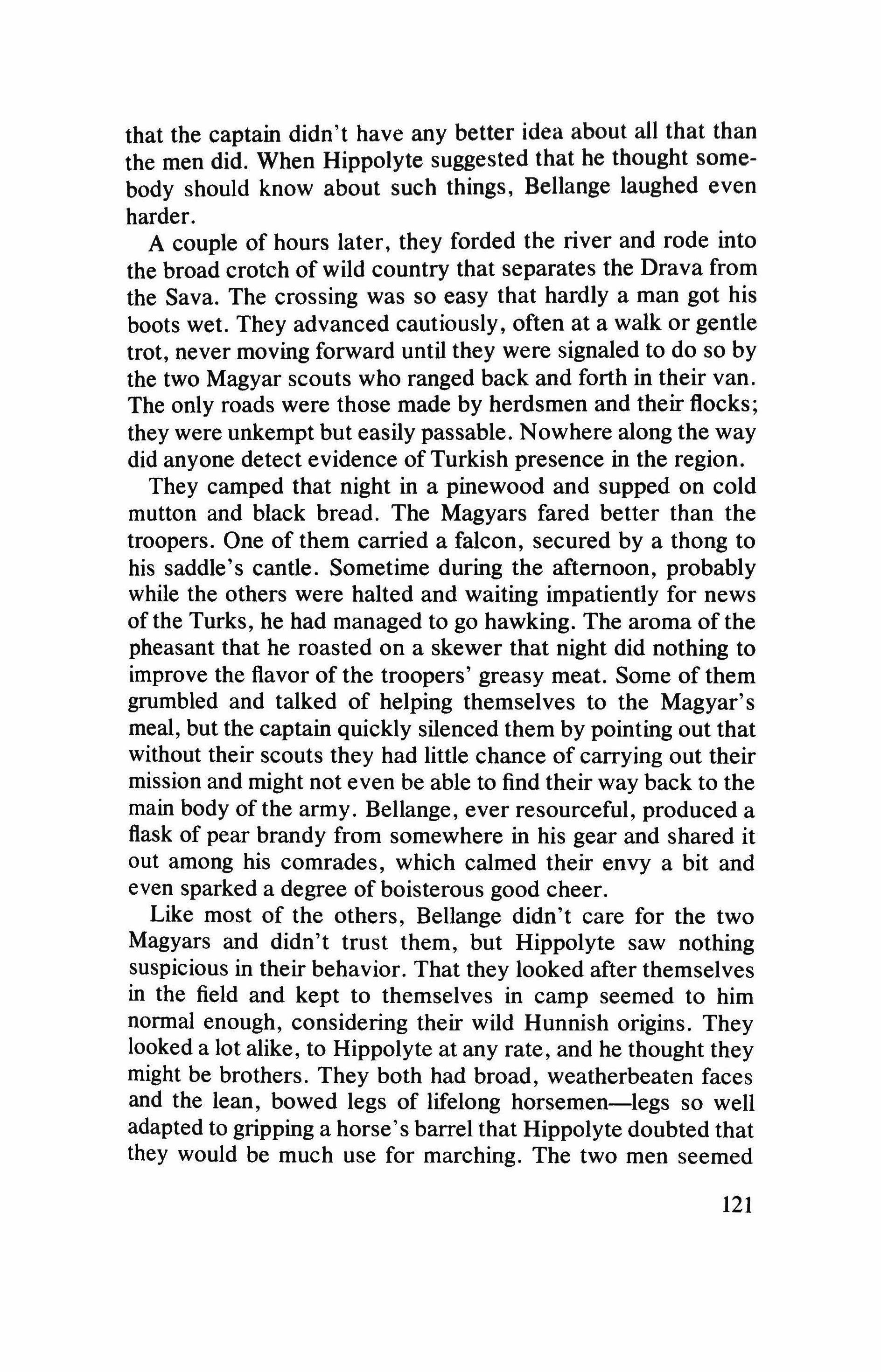
that the captain didn't have any better idea about all that than the men did. When Hippolyte suggested that he thought somebody should know about such things, Bellange laughed even harder.
A couple of hours later, they forded the river and rode into the broad crotch of wild country that separates the Drava from the Sava. The crossing was so easy that hardly a man got his boots wet. They advanced cautiously, often at a walk or gentle trot, never moving forward until they were signaled to do so by the two Magyar scouts who ranged back and forth in their van. The only roads were those made by herdsmen and their flocks; they were unkempt but easily passable. Nowhere along the way did anyone detect evidence of Turkish presence in the region.
They camped that night in a pinewood and supped on cold mutton and black bread. The Magyars fared better than the troopers. One of them carried a falcon, secured by a thong to his saddle's cantle. Sometime during the afternoon, probably while the others were halted and waiting impatiently for news of the Turks, he had managed to go hawking. The aroma of the pheasant that he roasted on a skewer that night did nothing to improve the flavor of the troopers' greasy meat. Some of them grumbled and talked of helping themselves to the Magyar's meal, but the captain quickly silenced them by pointing out that without their scouts they had little chance of carrying out their mission and might not even be able to find their way back to the main body of the army. Bellange, ever resourceful, produced a flask of pear brandy from somewhere in his gear and shared it out among his comrades, which calmed their envy a bit and even sparked a degree of boisterous good cheer.
Like most of the others, Bellange didn't care for the two Magyars and didn't trust them, but Hippolyte saw nothing suspicious in their behavior. That they looked after themselves in the field and kept to themselves in camp seemed to him normal enough, considering their wild Hunnish origins. They looked a lot alike, to Hippolyte at any rate, and he thought they might be brothers. They both had broad, weatherbeaten faces and the lean, bowed legs of lifelong horsemen-legs so well adapted to gripping a horse's barrel that Hippolyte doubted that they would be much use for marching. The two men seemed
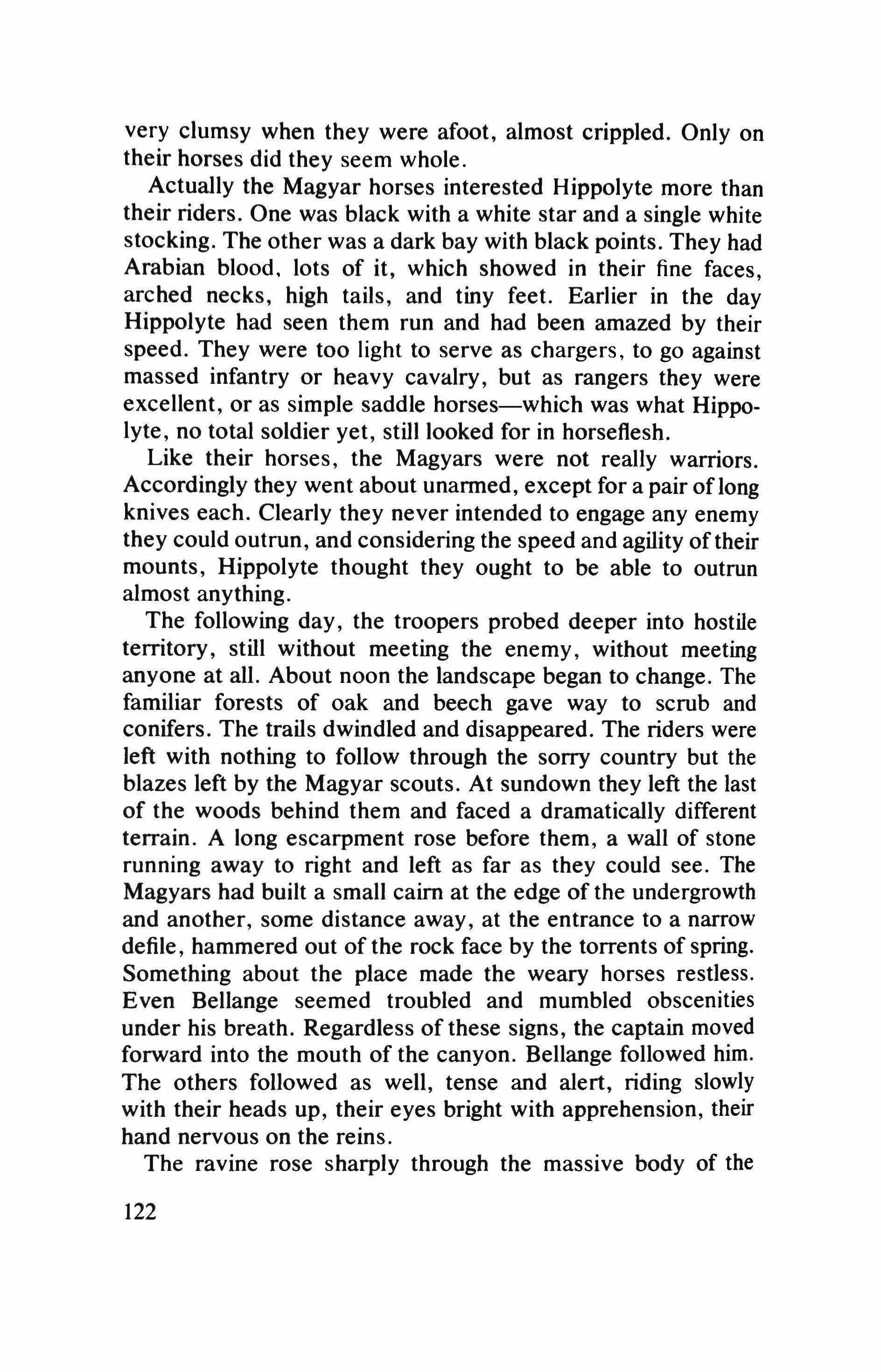
very clumsy when they were afoot, almost crippled. Only on their horses did they seem whole.
Actually the Magyar horses interested Hippolyte more than their riders. One was black with a white star and a single white stocking. The other was a dark bay with black points. They had Arabian blood. lots of it, which showed in their fine faces, arched necks, high tails, and tiny feet. Earlier in the day Hippolyte had seen them run and had been amazed by their speed. They were too light to serve as chargers, to go against massed infantry or heavy cavalry, but as rangers they were excellent, or as simple saddle horses-which was what Hippolyte, no total soldier yet, still looked for in horseflesh.
Like their horses, the Magyars were not really warriors. Accordingly they went about unarmed, except for a pair oflong knives each. Clearly they never intended to engage any enemy they could outrun, and considering the speed and agility oftheir mounts, Hippolyte thought they ought to be able to outrun almost anything.
The following day, the troopers probed deeper into hostile territory, still without meeting the enemy, without meeting anyone at all. About noon the landscape began to change. The familiar forests of oak and beech gave way to scrub and conifers. The trails dwindled and disappeared. The riders were left: with nothing to follow through the sorry country but the blazes left by the Magyar scouts. At sundown they left the last of the woods behind them and faced a dramatically different terrain. A long escarpment rose before them, a wall of stone running away to right and left as far as they could see. The Magyars had built a small cairn at the edge of the undergrowth and another, some distance away, at the entrance to a narrow defile, hammered out of the rock face by the torrents of spring.
Something about the place made the weary horses restless. Even Bellange seemed troubled and mumbled obscenities under his breath. Regardless of these signs, the captain moved forward into the mouth of the canyon. Bellange followed him. The others followed as well, tense and alert, riding slowly with their heads up, their eyes bright with apprehension, their hand nervous on the reins.
The ravine rose sharply through the massive body of the
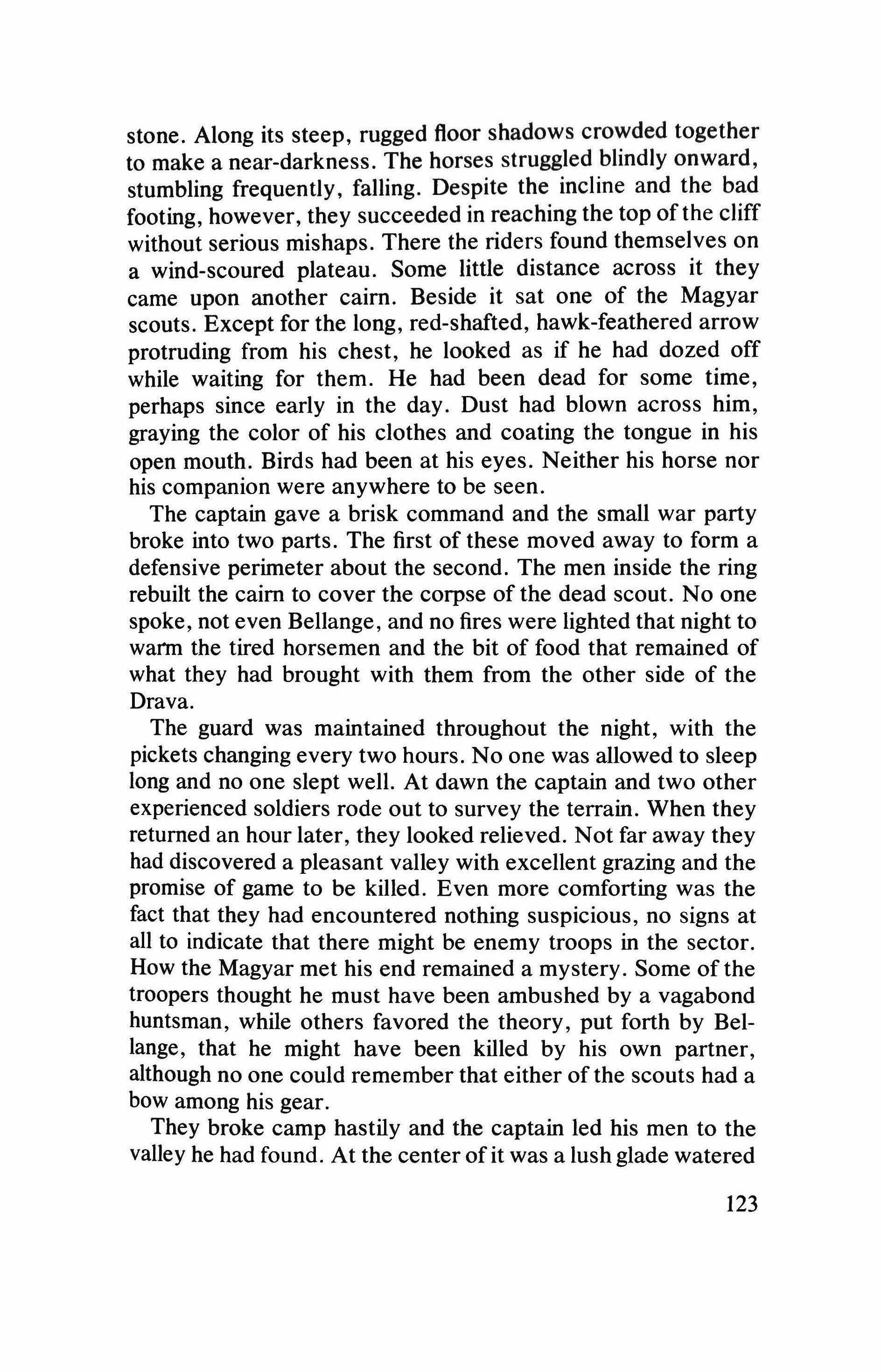
stone. Along its steep, rugged floor shadows crowded together to make a near-darkness. The horses struggled blindly onward, stumbling frequently, falling. Despite the incline and the bad footing, however, they succeeded in reaching the top of the cliff without serious mishaps. There the riders found themselves on a wind-scoured plateau. Some little distance across it they came upon another cairn. Beside it sat one of the Magyar scouts. Except for the long, red-shafted, hawk-feathered arrow protruding from his chest, he looked as if he had dozed off while waiting for them. He had been dead for some time, perhaps since early in the day. Dust had blown across him, graying the color of his clothes and coating the tongue in his open mouth. Birds had been at his eyes. Neither his horse nor his companion were anywhere to be seen.
The captain gave a brisk command and the small war party broke into two parts. The first of these moved away to form a defensive perimeter about the second. The men inside the ring rebuilt the cairn to cover the corpse of the dead scout. No one spoke, not even Bellange, and no fires were lighted that night to warm the tired horsemen and the bit of food that remained of what they had brought with them from the other side of the Drava.
The guard was maintained throughout the night, with the pickets changing every two hours. No one was allowed to sleep long and no one slept well. At dawn the captain and two other experienced soldiers rode out to survey the terrain. When they returned an hour later, they looked relieved. Not far away they had discovered a pleasant valley with excellent grazing and the promise of game to be killed. Even more comforting was the fact that they had encountered nothing suspicious, no signs at all to indicate that there might be enemy troops in the sector. How the Magyar met his end remained a mystery. Some of the troopers thought he must have been ambushed by a vagabond huntsman, while others favored the theory, put forth by Bellange, that he might have been killed by his own partner, although no one could remember that either of the scouts had a bow among his gear.
They broke camp hastily and the captain led his men to the valley he had found. At the center of it was a lush glade watered
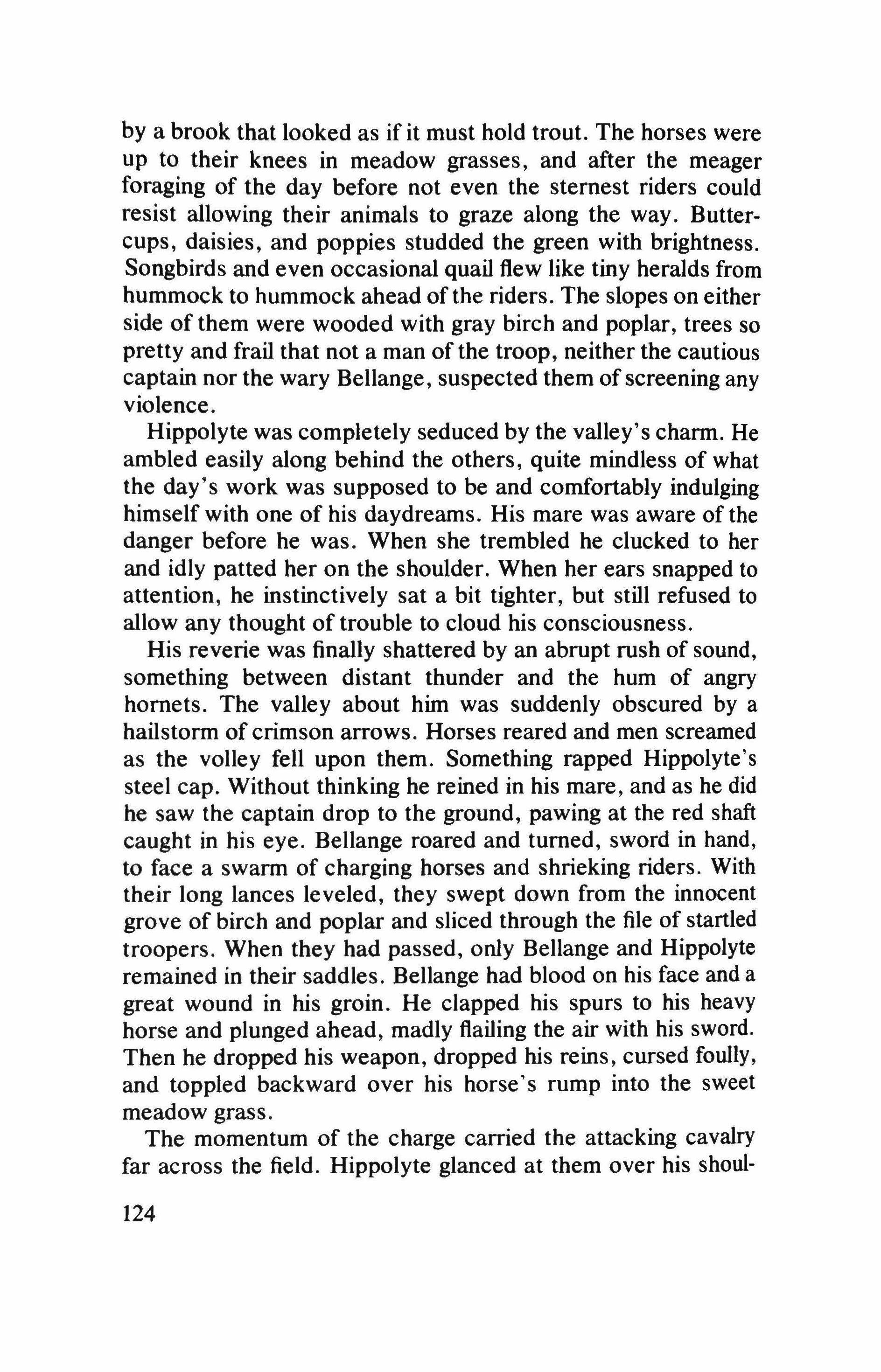
by a brook that looked as if it must hold trout. The horses were up to their knees in meadow grasses, and after the meager foraging of the day before not even the sternest riders could resist allowing their animals to graze along the way. Buttercups, daisies, and poppies studded the green with brightness. Songbirds and even occasional quail flew like tiny heralds from hummock to hummock ahead ofthe riders. The slopes on either side of them were wooded with gray birch and poplar, trees so pretty and frail that not a man of the troop, neither the cautious captain nor the wary Bellange, suspected them of screening any violence.
Hippolyte was completely seduced by the valley's charm. He ambled easily along behind the others, quite mindless of what the day's work was supposed to be and comfortably indulging himself with one of his daydreams. His mare was aware of the danger before he was. When she trembled he clucked to her and idly patted her on the shoulder. When her ears snapped to attention, he instinctively sat a bit tighter, but still refused to allow any thought of trouble to cloud his consciousness.
His reverie was finally shattered by an abrupt rush of sound, something between distant thunder and the hum of angry hornets. The valley about him was suddenly obscured by a hailstorm of crimson arrows. Horses reared and men screamed as the volley fell upon them. Something rapped Hippolyte's steel cap. Without thinking he reined in his mare, and as he did he saw the captain drop to the ground, pawing at the red shaft caught in his eye. Bellange roared and turned, sword in hand, to face a swarm of charging horses and shrieking riders. With their long lances leveled, they swept down from the innocent grove of birch and poplar and sliced through the file of startled troopers. When they had passed, only Bellange and Hippolyte remained in their saddles. Bellange had blood on his face and a great wound in his groin. He clapped his spurs to his heavy horse and plunged ahead, madly flailing the air with his sword. Then he dropped his weapon, dropped his reins, cursed foully, and toppled backward over his horse's rump into the sweet meadow grass.
The momentum of the charge carried the attacking cavalry far across the field. Hippolyte glanced at them over his shoul-
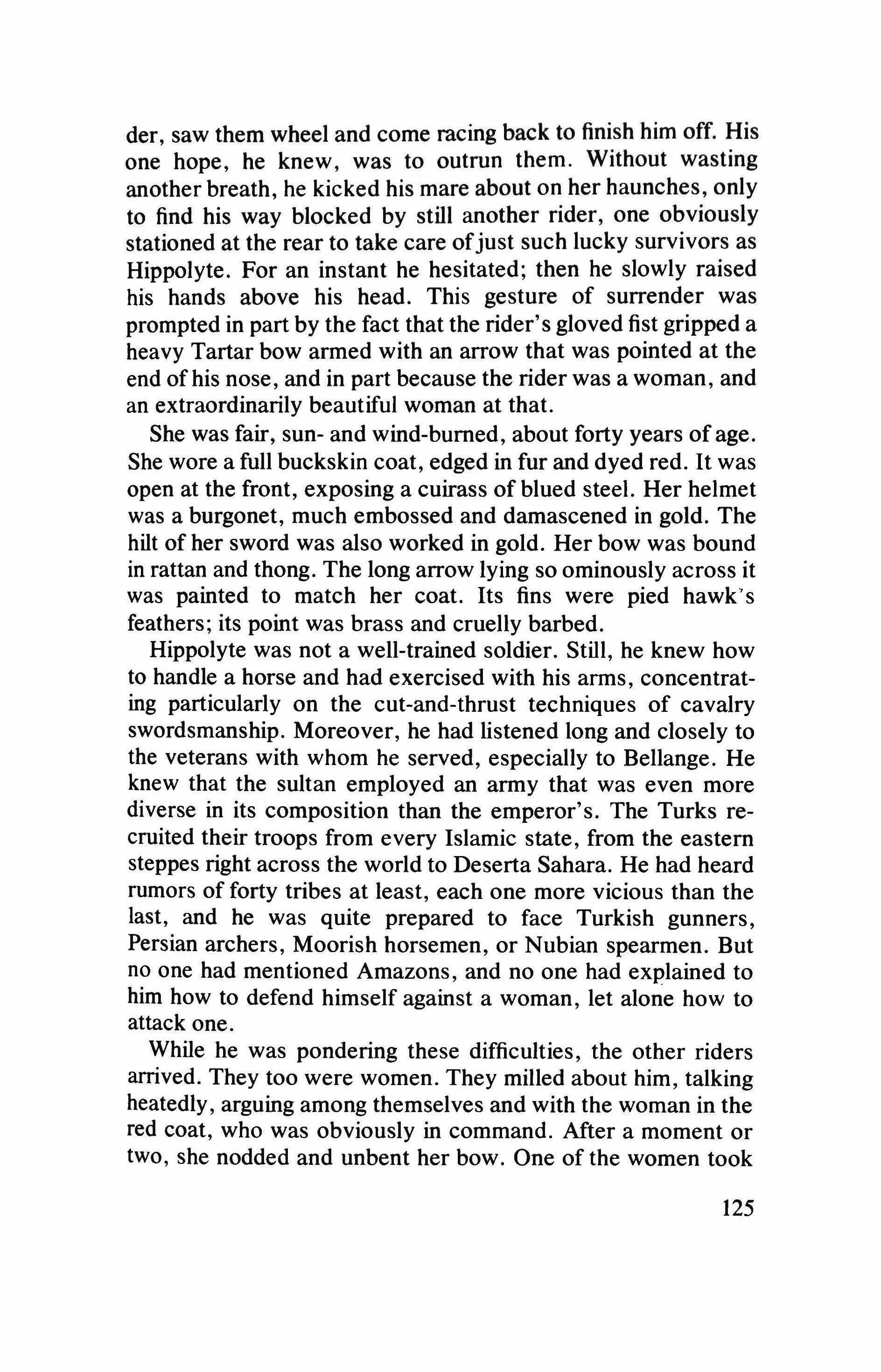
der, saw them wheel and come racing back to finish him off. His one hope, he knew, was to outrun them. Without wasting another breath, he kicked his mare about on her haunches, only to find his way blocked by still another rider, one obviously stationed at the rear to take care ofjust such lucky survivors as Hippolyte. For an instant he hesitated; then he slowly raised his hands above his head. This gesture of surrender was prompted in part by the fact that the rider's gloved fist gripped a heavy Tartar bow armed with an arrow that was pointed at the end of his nose, and in part because the rider was a woman, and an extraordinarily beautiful woman at that.
She was fair, sun- and wind-burned, about forty years of age. She wore a full buckskin coat, edged in fur and dyed red. It was open at the front, exposing a cuirass of blued steel. Her helmet was a burgonet, much embossed and damascened in gold. The hilt of her sword was also worked in gold. Her bow was bound in rattan and thong. The long arrow lying so ominously across it was painted to match her coat. Its fins were pied hawk's feathers; its point was brass and cruelly barbed.
Hippolyte was not a well-trained soldier. Still, he knew how to handle a horse and had exercised with his arms, concentrating particularly on the cut-and-thrust techniques of cavalry swordsmanship. Moreover, he had listened long and closely to the veterans with whom he served, especially to Bellange. He knew that the sultan employed an army that was even more diverse in its composition than the emperor's. The Turks recruited their troops from every Islamic state, from the eastern steppes right across the world to Deserta Sahara. He had heard rumors of forty tribes at least, each one more vicious than the last, and he was quite prepared to face Turkish gunners, Persian archers, Moorish horsemen, or Nubian spearmen. But no one had mentioned Amazons, and no one had explained to him how to defend himself against a woman, let alone how to attack one.
While he was pondering these difficulties, the other riders arrived. They too were women. They milled about him, talking heatedly, arguing among themselves and with the woman in the red coat, who was obviously in command. After a moment or two, she nodded and unbent her bow. One of the women took
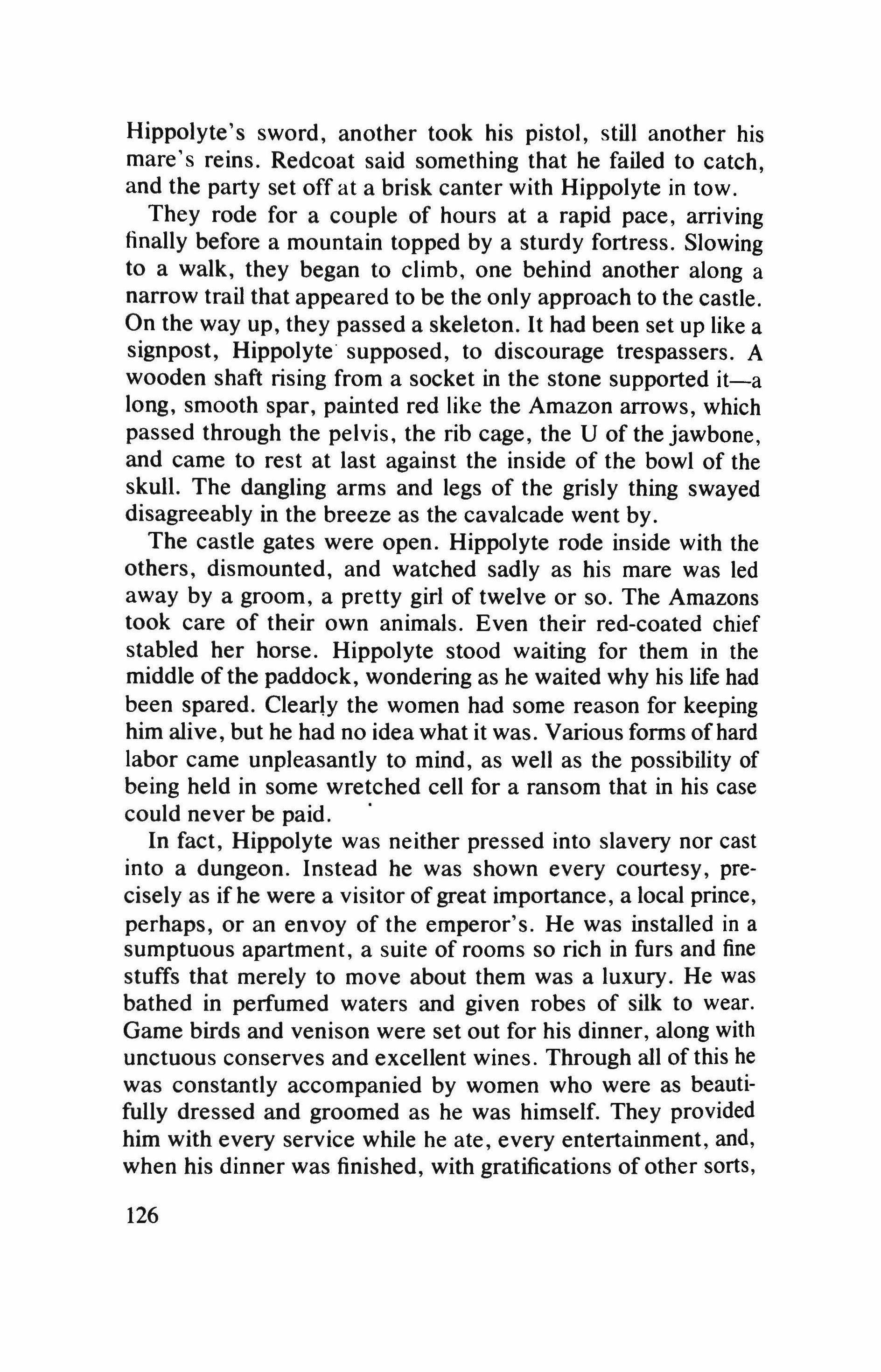
Hippolyte's sword, another took his pistol, still another his mare's reins. Redcoat said something that he failed to catch, and the party set off at a brisk canter with Hippolyte in tow.
They rode for a couple of hours at a rapid pace, arriving finally before a mountain topped by a sturdy fortress. Slowing to a walk, they began to climb, one behind another along a narrow trail that appeared to be the only approach to the castle. On the way up, they passed a skeleton. It had been set up like a signpost, Hippolyte supposed, to discourage trespassers. A wooden shaft rising from a socket in the stone supported it-a long, smooth spar, painted red like the Amazon arrows, which passed through the pelvis, the rib cage, the U of the jawbone, and came to rest at last against the inside of the bowl of the skull. The dangling arms and legs of the grisly thing swayed disagreeably in the breeze as the cavalcade went by.
The castle gates were open. Hippolyte rode inside with the others, dismounted, and watched sadly as his mare was led away by a groom, a pretty girl of twelve or so. The Amazons took care of their own animals. Even their red-coated chief stabled her horse. Hippolyte stood waiting for them in the middle of the paddock, wondering as he waited why his life had been spared. Clearly the women had some reason for keeping him alive, but he had no idea what it was. Various forms ofhard labor came unpleasantly to mind, as well as the possibility of being held in some wretched cell for a ransom that in his case could never be paid.
In fact, Hippolyte was neither pressed into slavery nor cast into a dungeon. Instead he was shown every courtesy, precisely as if he were a visitor of great importance, a local prince, perhaps, or an envoy of the emperor's. He was installed in a sumptuous apartment, a suite of rooms so rich in furs and fine stuffs that merely to move about them was a luxury. He was bathed in perfumed waters and given robes of silk to wear. Game birds and venison were set out for his dinner, along with unctuous conserves and excellent wines. Through all of this he was constantly accompanied by women who were as beautifully dressed and groomed as he was himself. They provided him with every service while he ate, every entertainment, and, when his dinner was finished, with gratifications of other sorts,
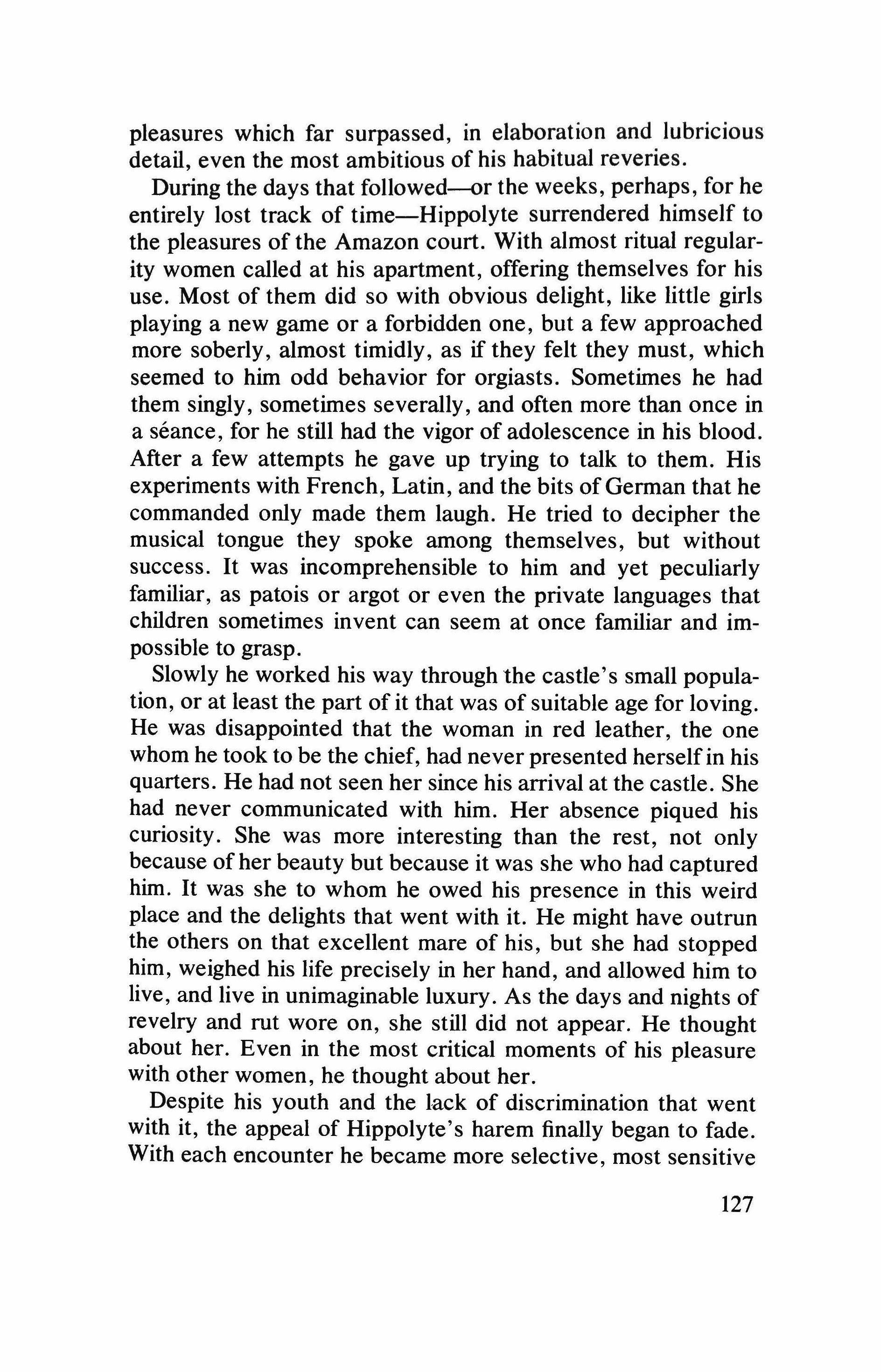
pleasures which far surpassed, in elaboration and lubricious detail, even the most ambitious of his habitual reveries.
During the days that followed-or the weeks, perhaps, for he entirely lost track of time-Hippolyte surrendered himself to the pleasures of the Amazon court. With almost ritual regularity women called at his apartment, offering themselves for his use. Most of them did so with obvious delight, like little girls playing a new game or a forbidden one, but a few approached more soberly, almost timidly, as if they felt they must, which seemed to him odd behavior for orgiasts. Sometimes he had them singly, sometimes severally, and often more than once in a seance, for he still had the vigor of adolescence in his blood. After a few attempts he gave up trying to talk to them. His experiments with French, Latin, and the bits of German that he commanded only made them laugh. He tried to decipher the musical tongue they spoke among themselves, but without success. It was incomprehensible to him and yet peculiarly familiar, as patois or argot or even the private languages that children sometimes invent can seem at once familiar and impossible to grasp.
Slowly he worked his way through the castle's small population, or at least the part of it that was of suitable age for loving. He was disappointed that the woman in red leather, the one whom he took to be the chief, had never presented herselfin his quarters. He had not seen her since his arrival at the castle. She had never communicated with him. Her absence piqued his curiosity. She was more interesting than the rest, not only because of her beauty but because it was she who had captured him. It was she to whom he owed his presence in this weird place and the delights that went with it. He might have outrun the others on that excellent mare of his, but she had stopped him, weighed his life precisely in her hand, and allowed him to live, and live in unimaginable luxury. As the days and nights of revelry and rut wore on, she still did not appear. He thought about her. Even in the most critical moments of his pleasure with other women, he thought about her.
Despite his youth and the lack of discrimination that went with it, the appeal of Hippolyte's harem finally began to fade. With each encounter he became more selective, most sensitive
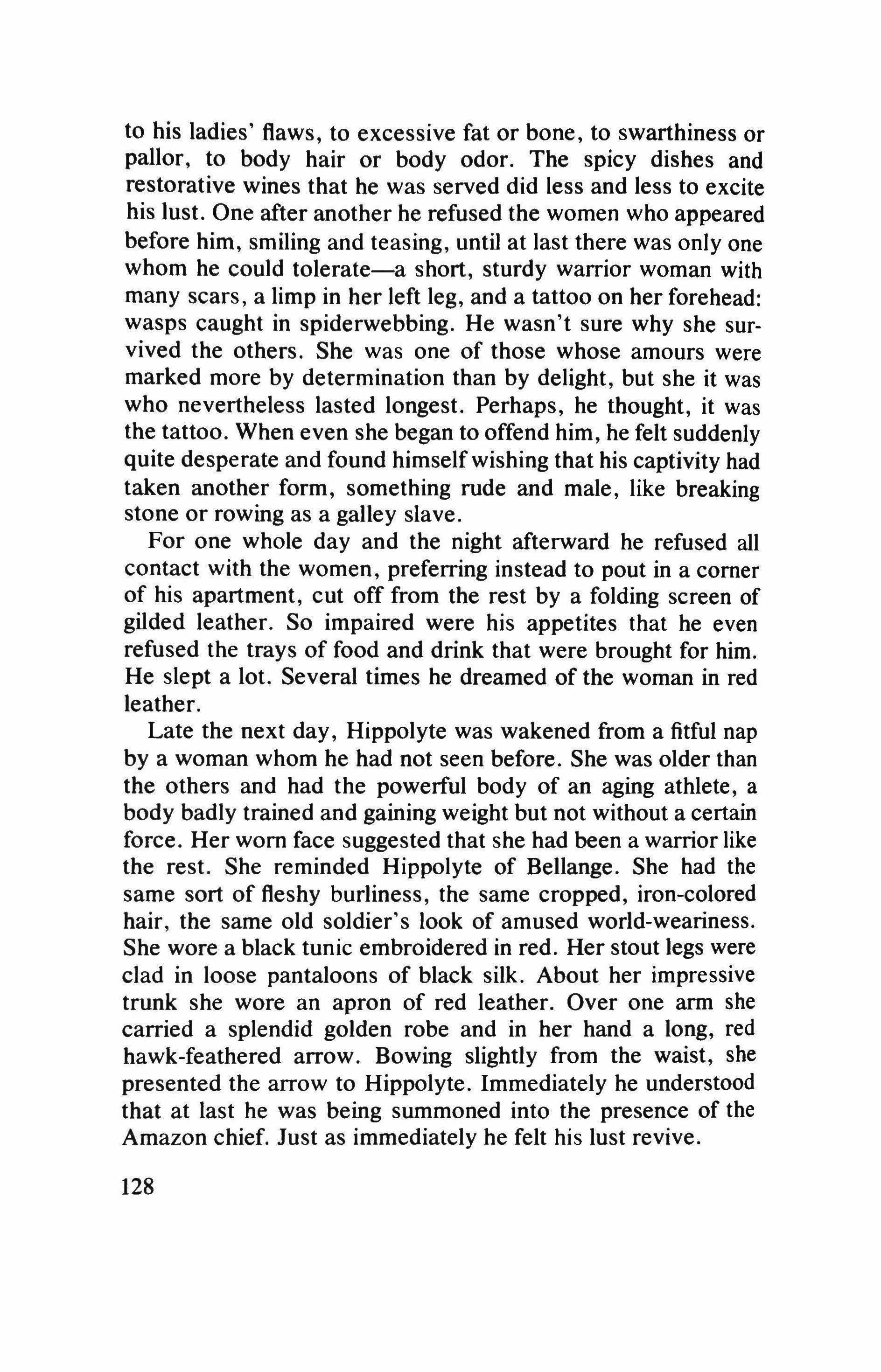
to his ladies' flaws, to excessive fat or bone, to swarthiness or pallor, to body hair or body odor. The spicy dishes and restorative wines that he was served did less and less to excite his lust. One after another he refused the women who appeared before him, smiling and teasing, until at last there was only one whom he could tolerate-a short, sturdy warrior woman with many scars, a limp in her left leg, and a tattoo on her forehead: wasps caught in spiderwebbing. He wasn't sure why she survived the others. She was one of those whose amours were marked more by determination than by delight, but she it was who nevertheless lasted longest. Perhaps, he thought, it was the tattoo. When even she began to offend him, he felt suddenly quite desperate and found himselfwishing that his captivity had taken another form, something rude and male, like breaking stone or rowing as a galley slave.
For one whole day and the night afterward he refused all contact with the women, preferring instead to pout in a corner of his apartment, cut off from the rest by a folding screen of gilded leather. So impaired were his appetites that he even refused the trays of food and drink that were brought for him. He slept a lot. Several times he dreamed of the woman in red leather.
Late the next day, Hippolyte was wakened from a fitful nap by a woman whom he had not seen before. She was older than the others and had the powerful body of an aging athlete, a body badly trained and gaining weight but not without a certain force. Her worn face suggested that she had been a warrior like the rest. She reminded Hippolyte of Bellange. She had the same sort of fleshy burliness, the same cropped, iron-colored hair, the same old soldier's look of amused world-weariness. She wore a black tunic embroidered in red. Her stout legs were clad in loose pantaloons of black silk. About her impressive trunk she wore an apron of red leather. Over one arm she carried a splendid golden robe and in her hand a long, red hawk-feathered arrow. Bowing slightly from the waist, she presented the arrow to Hippolyte. Immediately he understood that at last he was being summoned into the presence of the Amazon chief. Just as immediately he felt his lust revive.

Hippolyte got quickly out of bed. The woman helped him undress and then put on the golden robe, holding it carefully while he slipped his arms into its broad sleeves. When it was settled comfortably on his shoulders, she turned him around as she might have done a child being dressed for school. Solemnly she fastened the heavy gilt frogs that closed the front of the robe over his nakedness. She smoothed his hair with her fingers and looked about until she found his slippers, regarding him always with the critical eye of a mother, or perhaps a procuress. When she seemed satisfied with his appearance, she bowed again, took back the arrow and with its barbed tip indicated the open door. Two more women were waiting outside the door. He knew both of them all too intimately, but hardly recognized them now, for they were wearing field dress-jackboots and breeches, gauntlets, and leather jerkins. With this escort, Hippolyte made his way through the castle. The aproned woman brought up the rear, carrying the arrow in the crook of her elbow like an emblem of office, a marshal's baton or a scepter.
They came to a stairway and climbed. The climb was a long one. When they emerged at the top, Hippolyte was panting. Because of his two-day fast his head was light, reeling. Pausing to catch his breath, he looked about. The room where he stood was high vaulted, deep shadowed. At first he had the impression that the walls on either side of him were decorated with sculptural friezes, like the temples of antiquity that he had heard about, but then he saw that what he had taken for carved stone in the bad light were in fact masses of people-or, more exactly, masses of women-females of all ages, nymphs, toddlers, babes in arms, and hags, as well as warrior women. Most of them were nude or very scantily clad. In the weak light their faces were blurred, their bodies mingled into long, undulating walls offlesh studded with bosses ofbreast and haunch and belly-undeniably, even aggressively, feminine and yet impersonal, without specific character or individuality. Despite the late hour, there were no candles in the room, no torches or lamps. The only illumination came from a beam of amber evening light through a lancet window. It fell across a table
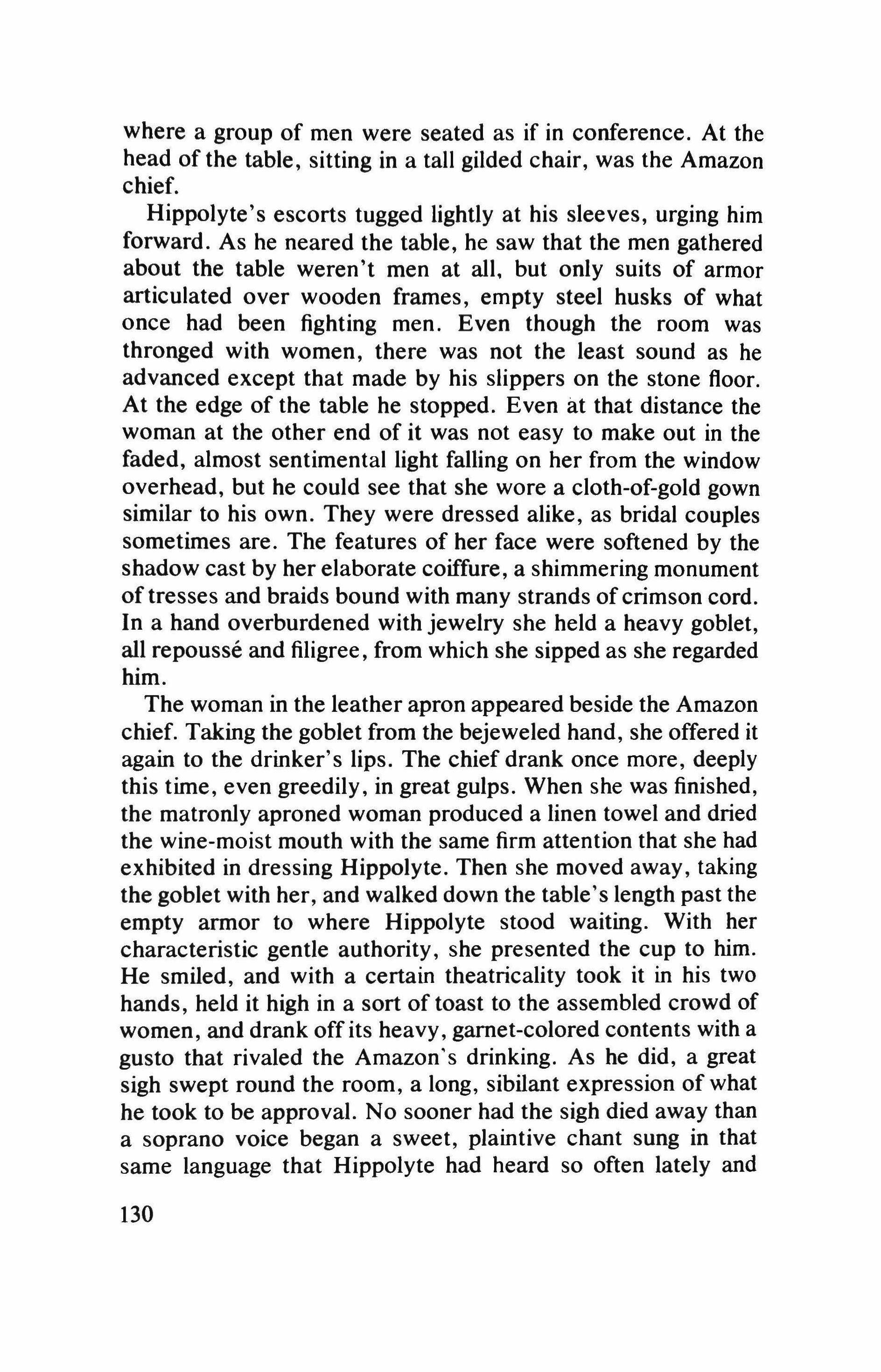
where a group of men were seated as if in conference. At the head of the table, sitting in a tall gilded chair, was the Amazon chief.
Hippolyte's escorts tugged lightly at his sleeves, urging him forward. As he neared the table, he saw that the men gathered about the table weren't men at all. but only suits of armor articulated over wooden frames, empty steel husks of what once had been fighting men. Even though the room was thronged with women, there was not the least sound as he advanced except that made by his slippers on the stone floor. At the edge of the table he stopped. Even at that distance the woman at the other end of it was not easy to make out in the faded, almost sentimental light falling on her from the window overhead, but he could see that she wore a cloth-of-gold gown similar to his own. They were dressed alike, as bridal couples sometimes are. The features of her face were softened by the shadow cast by her elaborate coiffure, a shimmering monument of tresses and braids bound with many strands of crimson cord. In a hand overburdened with jewelry she held a heavy goblet, all repousse and filigree, from which she sipped as she regarded him.
The woman in the leather apron appeared beside the Amazon chief. Taking the goblet from the bejeweled hand, she offered it again to the drinker's lips. The chief drank once more, deeply this time, even greedily, in great gulps. When she was finished, the matronly aproned woman produced a linen towel and dried the wine-moist mouth with the same firm attention that she had exhibited in dressing Hippolyte. Then she moved away, taking the goblet with her, and walked down the table's length past the empty armor to where Hippolyte stood waiting. With her characteristic gentle authority, she presented the cup to him. He smiled, and with a certain theatricality took it in his two hands, held it high in a sort of toast to the assembled crowd of women, and drank off its heavy, gamet-colored contents with a gusto that rivaled the Amazon's drinking. As he did, a great sigh swept round the room, a long, sibilant expression of what he took to be approval. No sooner had the sigh died away than a soprano voice began a sweet, plaintive chant sung in that same language that Hippolyte had heard so often lately and
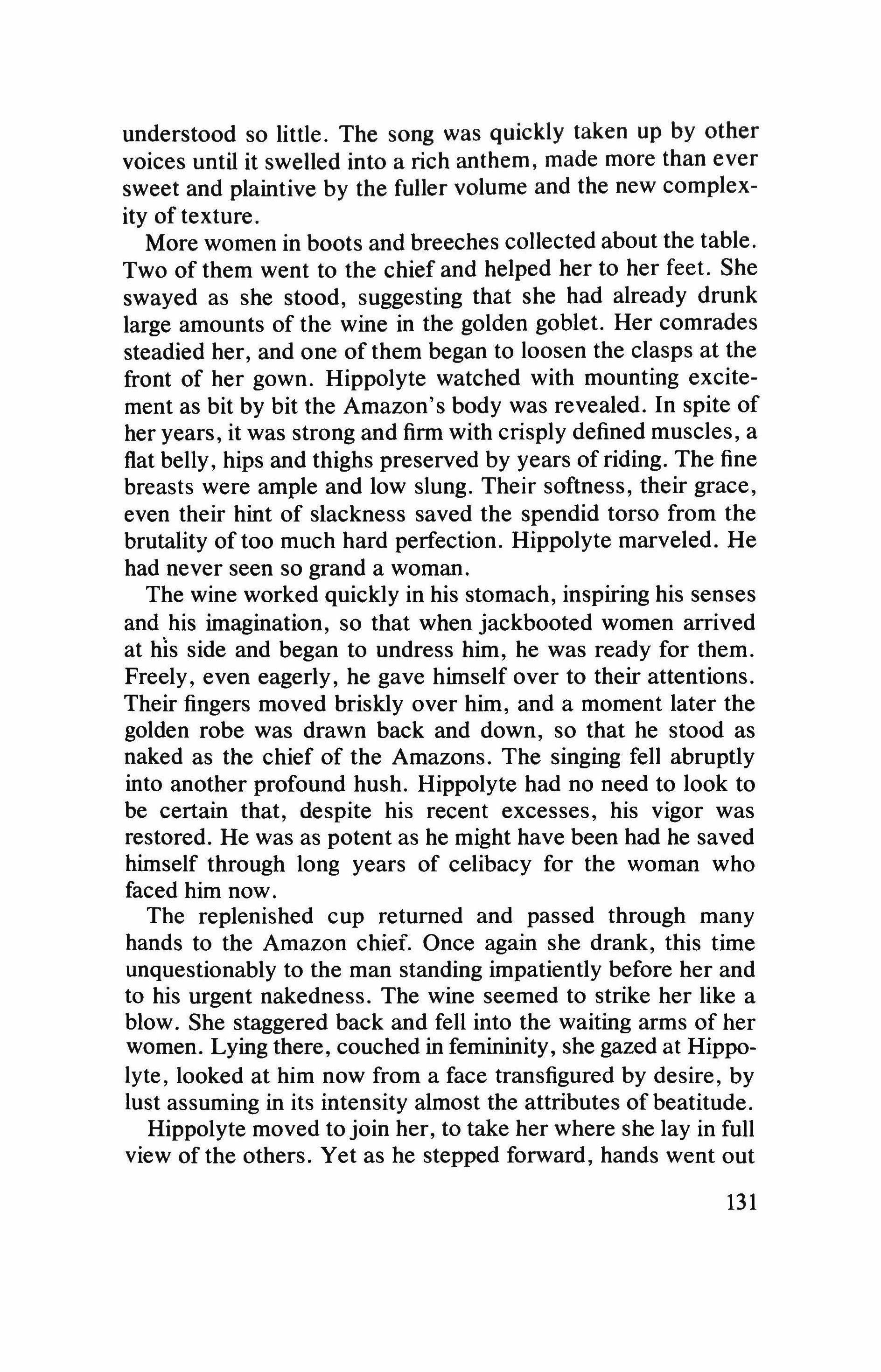
understood so little. The song was quickly taken up by other voices until it swelled into a rich anthem, made more than ever sweet and plaintive by the fuller volume and the new complexity of texture.
More women in boots and breeches collected about the table. Two of them went to the chief and helped her to her feet. She swayed as she stood, suggesting that she had already drunk large amounts of the wine in the golden goblet. Her comrades steadied her, and one of them began to loosen the clasps at the front of her gown. Hippolyte watched with mounting excitement as bit by bit the Amazon's body was revealed. In spite of her years, it was strong and firm with crisply defined muscles, a fiat belly, hips and thighs preserved by years of riding. The fine breasts were ample and low slung. Their softness, their grace, even their hint of slackness saved the spendid torso from the brutality of too much hard perfection. Hippolyte marveled. He had never seen so grand a woman.
The wine worked quickly in his stomach, inspiring his senses and his imagination, so that when jackbooted women arrived at his side and began to undress him, he was ready for them. Freely, even eagerly, he gave himself over to their attentions. Their fingers moved briskly over him, and a moment later the golden robe was drawn back and down, so that he stood as naked as the chief of the Amazons. The singing fell abruptly into another profound hush. Hippolyte had no need to look to be certain that, despite his recent excesses, his vigor was restored. He was as potent as he might have been had he saved himself through long years of celibacy for the woman who faced him now.
The replenished cup returned and passed through many hands to the Amazon chief. Once again she drank, this time unquestionably to the man standing impatiently before her and to his urgent nakedness. The wine seemed to strike her like a blow. She staggered back and fell into the waiting arms of her women. Lying there, couched in femininity, she gazed at Hippolyte, looked at him now from a face transfigured by desire, by lust assuming in its intensity almost the attributes of beatitude.
Hippolyte moved to join her, to take her where she lay in full view of the others. Yet as he stepped forward, hands went out
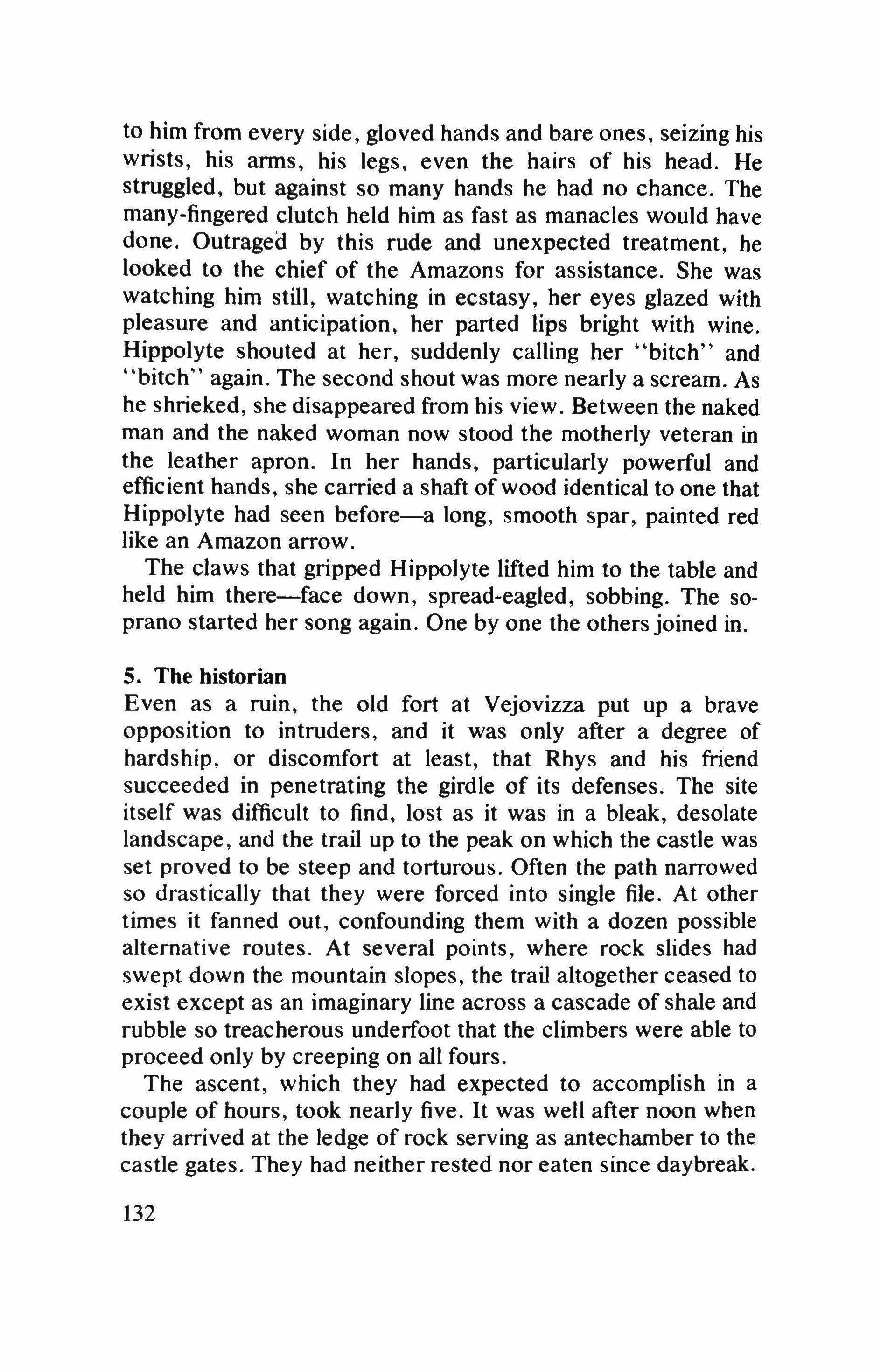
to him from every side, gloved hands and bare ones, seizing his wrists, his arms, his legs, even the hairs of his head. He struggled, but against so many hands he had no chance. The many-fingered clutch held him as fast as manacles would have done. Outraged by this rude and unexpected treatment, he looked to the chief of the Amazons for assistance. She was watching him still, watching in ecstasy, her eyes glazed with pleasure and anticipation, her parted lips bright with wine. Hippolyte shouted at her, suddenly calling her "bitch" and "bitch" again. The second shout was more nearly a scream. As he shrieked, she disappeared from his view. Between the naked man and the naked woman now stood the motherly veteran in the leather apron. In her hands, particularly powerful and efficient hands, she carried a shaft of wood identical to one that Hippolyte had seen before-a long, smooth spar, painted red like an Amazon arrow.
The claws that gripped Hippolyte lifted him to the table and held him there-face down, spread-eagled, sobbing. The soprano started her song again. One by one the others joined in.
Even as a ruin, the old fort at Vejovizza put up a brave opposition to intruders, and it was only after a degree of hardship, or discomfort at least, that Rhys and his friend succeeded in penetrating the girdle of its defenses. The site itself was difficult to find, lost as it was in a bleak, desolate landscape, and the trail up to the peak on which the castle was set proved to be steep and torturous. Often the path narrowed so drastically that they were forced into single file. At other times it fanned out, confounding them with a dozen possible alternative routes. At several points, where rock slides had swept down the mountain slopes, the trail altogether ceased to exist except as an imaginary line across a cascade of shale and rubble so treacherous underfoot that the climbers were able to proceed only by creeping on all fours.
The ascent, which they had expected to accomplish in a couple of hours, took nearly five. It was well after noon when they arrived at the ledge of rock serving as antechamber to the castle gates. They had neither rested nor eaten since daybreak.
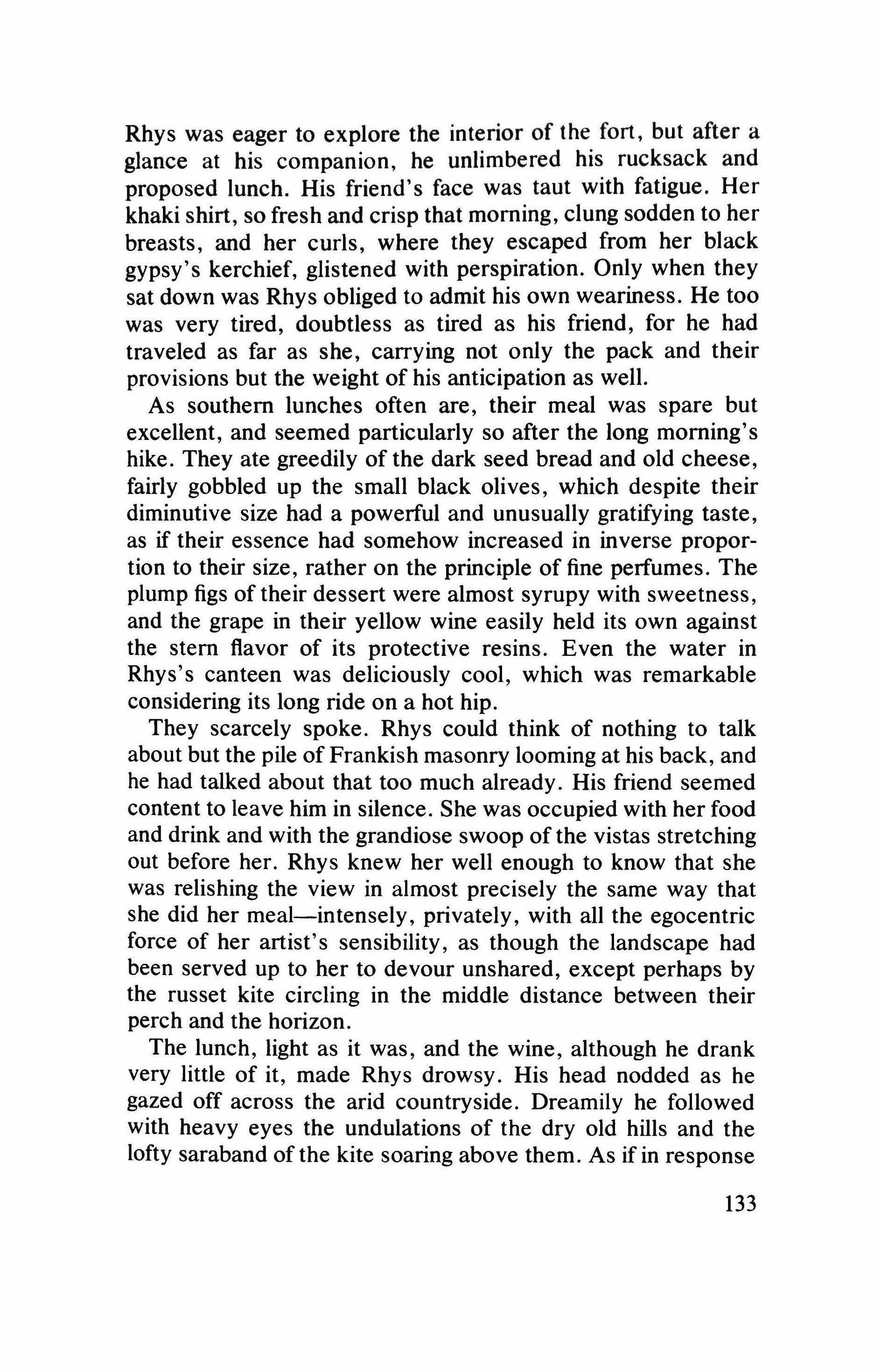
Rhys was eager to explore the interior of the fort, but after a glance at his companion, he unlimbered his rucksack and proposed lunch. His friend's face was taut with fatigue. Her khaki shirt, so fresh and crisp that morning, clung sodden to her breasts, and her curls, where they escaped from her black gypsy's kerchief, glistened with perspiration. Only when they sat down was Rhys obliged to admit his own weariness. He too was very tired, doubtless as tired as his friend, for he had traveled as far as she, carrying not only the pack and their provisions but the weight of his anticipation as well.
As southern lunches often are, their meal was spare but excellent, and seemed particularly so after the long morning's hike. They ate greedily of the dark seed bread and old cheese, fairly gobbled up the small black olives, which despite their diminutive size had a powerful and unusually gratifying taste, as if their essence had somehow increased in inverse proportion to their size, rather on the principle of fine perfumes. The plump figs of their dessert were almost syrupy with sweetness, and the grape in their yellow wine easily held its own against the stem flavor of its protective resins. Even the water in Rhys's canteen was deliciously cool, which was remarkable considering its long ride on a hot hip.
They scarcely spoke. Rhys could think of nothing to talk about but the pile of Frankish masonry looming at his back, and he had talked about that too much already. His friend seemed content to leave him in silence. She was occupied with her food and drink and with the grandiose swoop of the vistas stretching out before her. Rhys knew her well enough to know that she was relishing the view in almost precisely the same way that she did her meal-intensely, privately, with all the egocentric force of her artist's sensibility, as though the landscape had been served up to her to devour unshared, except perhaps by the russet kite circling in the middle distance between their perch and the horizon.
The lunch, light as it was, and the wine, although he drank very little of it, made Rhys drowsy. His head nodded as he gazed off across the arid countryside. Dreamily he followed with heavy eyes the undulations of the dry old hills and the lofty saraband of the kite soaring above them. As if in response
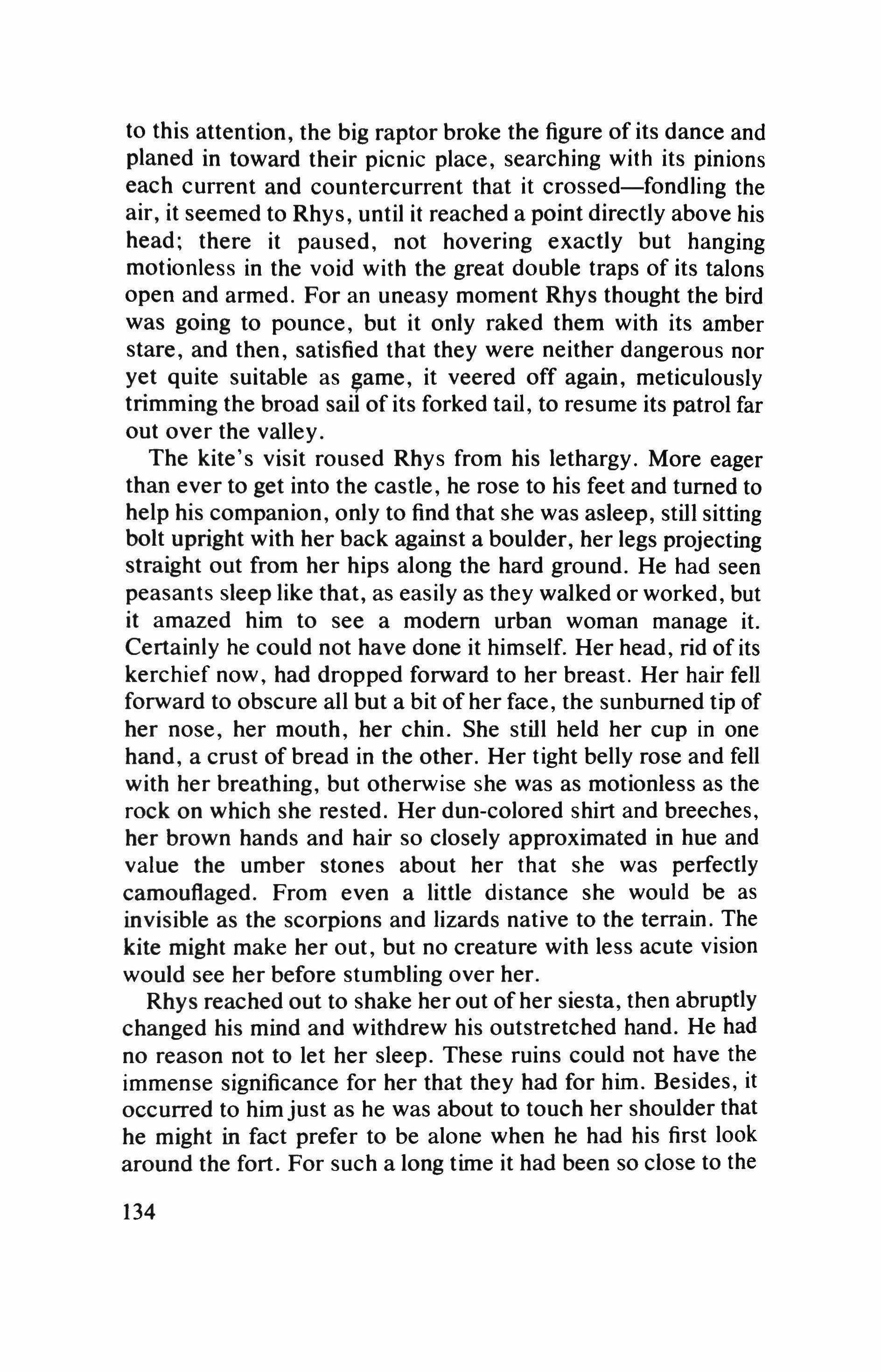
to this attention, the big raptor broke the figure of its dance and planed in toward their picnic place, searching with its pinions each current and countercurrent that it crossed-fondling the air, it seemed to Rhys, until it reached a point directly above his head; there it paused, not hovering exactly but hanging motionless in the void with the great double traps of its talons open and armed. For an uneasy moment Rhys thought the bird was going to pounce, but it only raked them with its amber stare, and then, satisfied that they were neither dangerous nor yet quite suitable as game, it veered off again, meticulously trimming the broad sail of its forked tail, to resume its patrol far out over the valley.
The kite's visit roused Rhys from his lethargy. More eager than ever to get into the castle, he rose to his feet and turned to help his companion, only to find that she was asleep, still sitting bolt upright with her back against a boulder, her legs projecting straight out from her hips along the hard ground. He had seen peasants sleep like that, as easily as they walked or worked, but it amazed him to see a modem urban woman manage it. Certainly he could not have done it himself. Her head, rid of its kerchief now, had dropped forward to her breast. Her hair fell forward to obscure all but a bit of her face, the sunburned tip of her nose, her mouth, her chin. She still held her cup in one hand, a crust of bread in the other. Her tight belly rose and fell with her breathing, but otherwise she was as motionless as the rock on which she rested. Her dun-colored shirt and breeches, her brown hands and hair so closely approximated in hue and value the umber stones about her that she was perfectly camouflaged. From even a little distance she would be as invisible as the scorpions and lizards native to the terrain. The kite might make her out, but no creature with less acute vision would see her before stumbling over her.
Rhys reached out to shake her out of her siesta, then abruptly changed his mind and withdrew his outstretched hand. He had no reason not to let her sleep. These ruins could not have the immense significance for her that they had for him. Besides, it occurred to him just as he was about to touch her shoulder that he might in fact prefer to be alone when he had his first look around the fort. For such a long time it had been so close to the
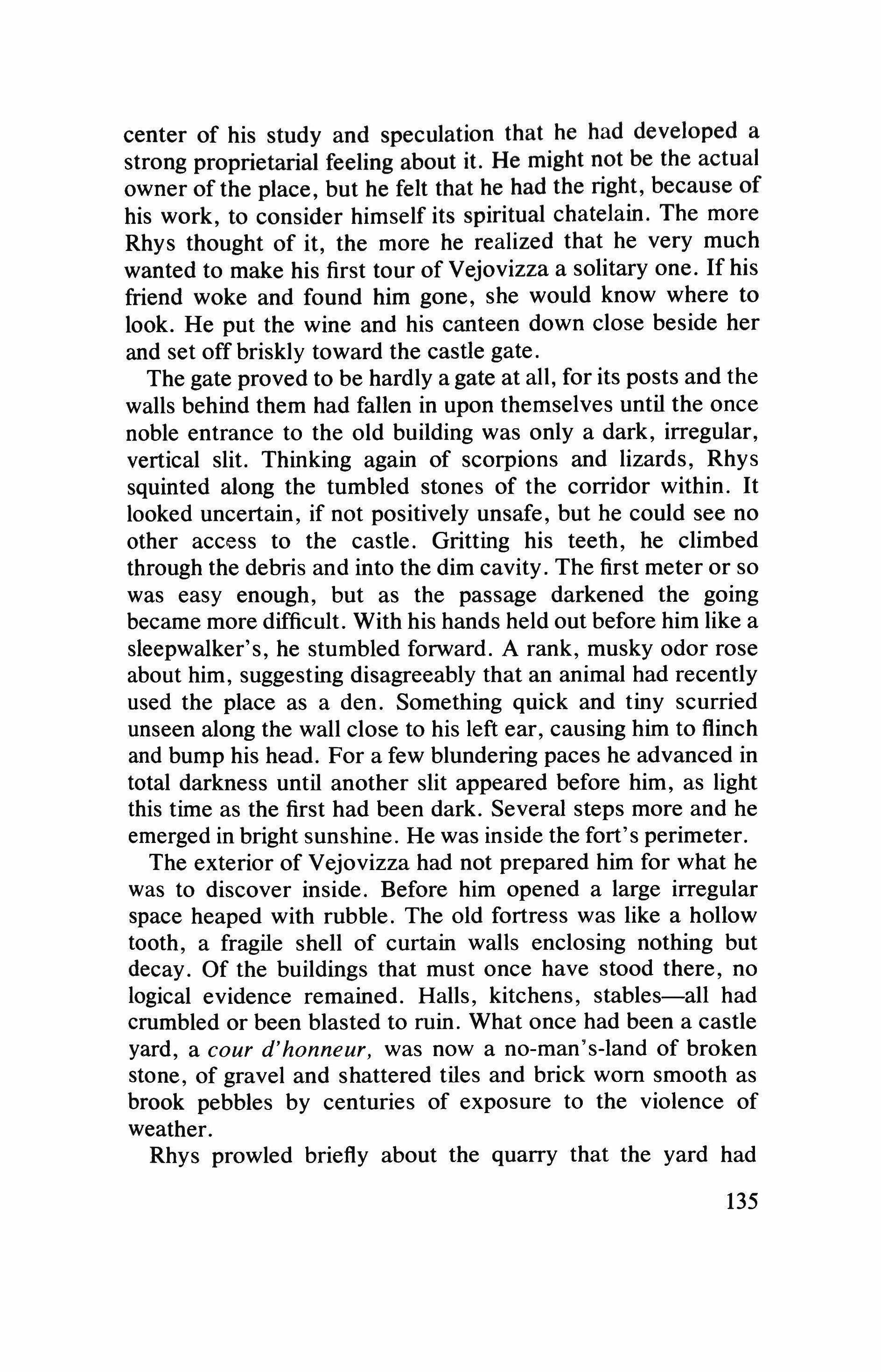
center of his study and speculation that he had developed a strong proprietarial feeling about it. He might not be the actual owner of the place, but he felt that he had the right, because of his work, to consider himself its spiritual chatelain. The more Rhys thought of it, the more he realized that he very much wanted to make his first tour of Vejovizza a solitary one. If his friend woke and found him gone, she would know where to look. He put the wine and his canteen down close beside her and set off briskly toward the castle gate.
The gate proved to be hardly a gate at all, for its posts and the walls behind them had fallen in upon themselves until the once noble entrance to the old building was only a dark, irregular, vertical slit. Thinking again of scorpions and lizards, Rhys squinted along the tumbled stones of the corridor within. It looked uncertain, if not positively unsafe, but he could see no other access to the castle. Gritting his teeth, he climbed through the debris and into the dim cavity. The first meter or so was easy enough, but as the passage darkened the going became more difficult. With his hands held out before him like a sleepwalker's, he stumbled forward. A rank, musky odor rose about him, suggesting disagreeably that an animal had recently used the place as a den. Something quick and tiny scurried unseen along the wall close to his left ear, causing him to flinch and bump his head. For a few blundering paces he advanced in total darkness until another slit appeared before him, as light this time as the first had been dark. Several steps more and he emerged in bright sunshine. He was inside the fort's perimeter.
The exterior of Vejovizza had not prepared him for what he was to discover inside. Before him opened a large irregular space heaped with rubble. The old fortress was like a hollow tooth, a fragile shell of curtain walls enclosing nothing but decay. Of the buildings that must once have stood there, no logical evidence remained. Halls, kitchens, stables-all had crumbled or been blasted to ruin. What once had been a castle yard, a cour d'honneur, was now a no-man's-land of broken stone, of gravel and shattered tiles and brick worn smooth as brook pebbles by centuries of exposure to the violence of weather.
Rhys prowled briefly about the quarry that the yard had 135
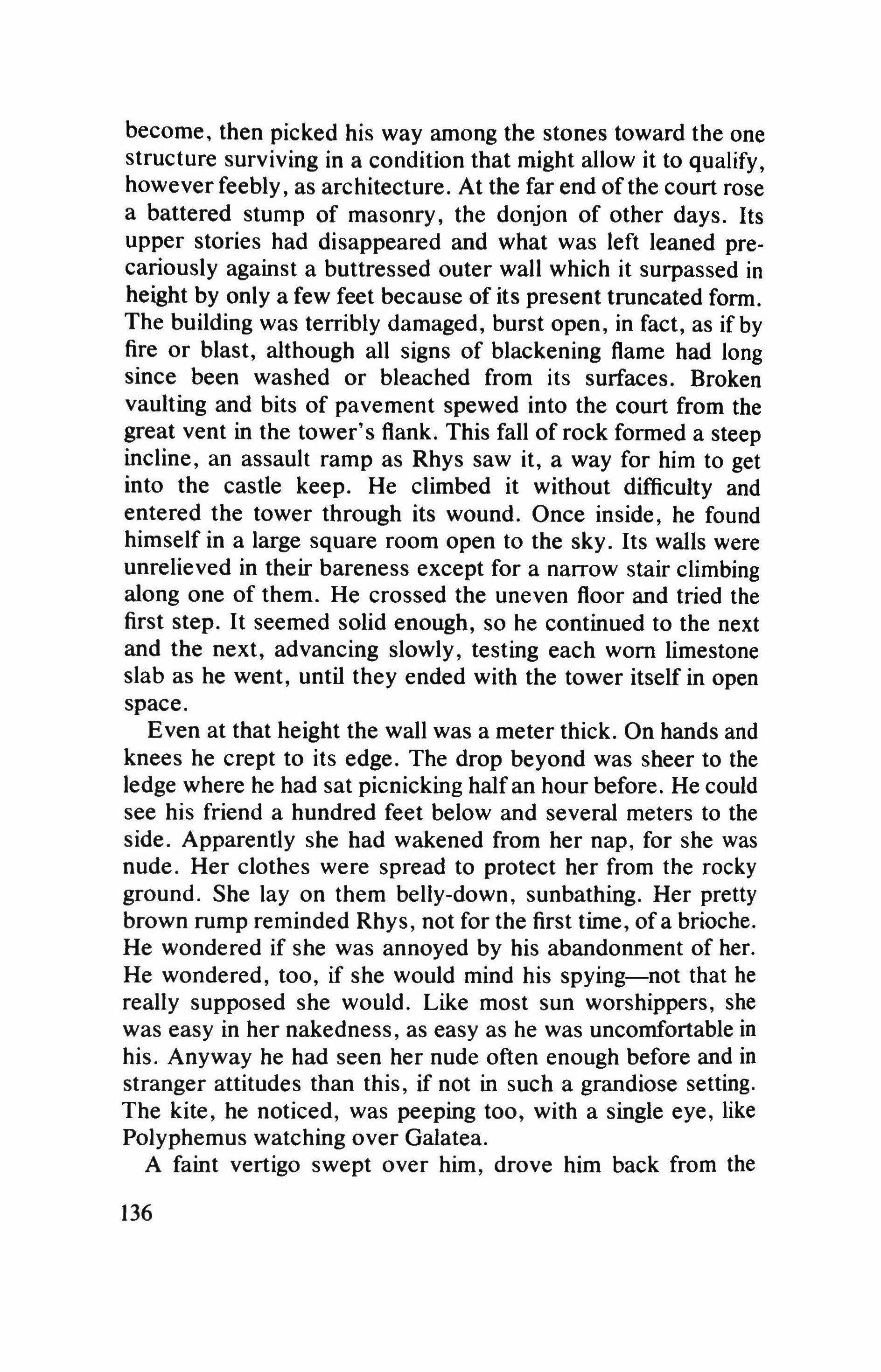
become, then picked his way among the stones toward the one structure surviving in a condition that might allow it to qualify, however feebly, as architecture. At the far end of the court rose a battered stump of masonry, the donjon of other days. Its upper stories had disappeared and what was left leaned precariously against a buttressed outer wall which it surpassed in height by only a few feet because of its present truncated form. The building was terribly damaged, burst open, in fact, as ifby fire or blast, although all signs of blackening flame had long since been washed or bleached from its surfaces. Broken vaulting and bits of pavement spewed into the court from the great vent in the tower's flank. This fall of rock formed a steep incline, an assault ramp as Rhys saw it, a way for him to get into the castle keep. He climbed it without difficulty and entered the tower through its wound. Once inside, he found himself in a large square room open to the sky. Its walls were unrelieved in their bareness except for a narrow stair climbing along one of them. He crossed the uneven floor and tried the first step. It seemed solid enough, so he continued to the next and the next, advancing slowly, testing each worn limestone slab as he went, until they ended with the tower itself in open space.
Even at that height the wall was a meter thick. On hands and knees he crept to its edge. The drop beyond was sheer to the ledge where he had sat picnicking half an hour before. He could see his friend a hundred feet below and several meters to the side. Apparently she had wakened from her nap, for she was nude. Her clothes were spread to protect her from the rocky ground. She lay on them belly-down, sunbathing. Her pretty brown rump reminded Rhys, not for the first time, of a brioche. He wondered if she was annoyed by his abandonment of her. He wondered, too, if she would mind his spying-not that he really supposed she would. Like most sun worshippers, she was easy in her nakedness, as easy as he was uncomfortable in his. Anyway he had seen her nude often enough before and in stranger attitudes than this, if not in such a grandiose setting. The kite, he noticed, was peeping too, with a single eye, like Polyphemus watching over Galatea.
A faint vertigo swept over him, drove him back from the

brink. He stationed himself instead at the top of the staircase. There he felt secure and, although he lost sight of the woman below, he had a better view. It was a larger, more comprehensive view, allowing him to look both down into the fortress and out across the country that it dominated. Just how absolute that domination must have been became ever more apparent to him. He knew the history ofVejovizza, all of it that was written, and now he dramatically perceived the causes for that history. The fort was ideally situated to control the valley and its approaches, to serve as an observation post, tollhouse, citadel. So it had served for more than five hundred years, manned first by Franks, then by Turks, then by local barons and bandits. Every peasant who worked this poor soil, every shepherd or goatherd who crossed it with a flock of beasts, was taxed for the right to do so. All travelers who passed this way, whether solitary or in caravan, paid for the passage, many with their lives for want of sounder currency. It was a grim history, and one that neither appealed to Rbys nor mattered to him except for the particular decade when Djaa controlled this height. For she too, here at Vejovizza, from this very pile of rock, directed the uses of the valley, collected its rents and ransoms, marauded, abducted, and slaughtered, like the violent men who were there before her and those who came afterward. Here it was that she established herself after her years of wandering. Here she fought her last battle and ended her tremendous days.
Rhys's pilgrimage to Vejovizza had no real scholarly function. He had already accumulated all the documentary evidence he needed for the writing of his book. He was quite convinced that he knew as much as could be known about Djaa. Certainly he knew more than any man alive, probably more than anyone else had ever known, even in her own era. He supposed his reason for making the trip was partly sentimental, for he was, like most biographers, more than a little infatuated with his subject. But there was more to it than that. In the back of his mind Rhys had the almost superstitious idea-nothing more than a hunch, really-that something might be revealed to him at Vejovizza. Quite unreasonably he expected to find something there, some relic or remnant of Djaa, despite the flight of the years since her residency, despite the
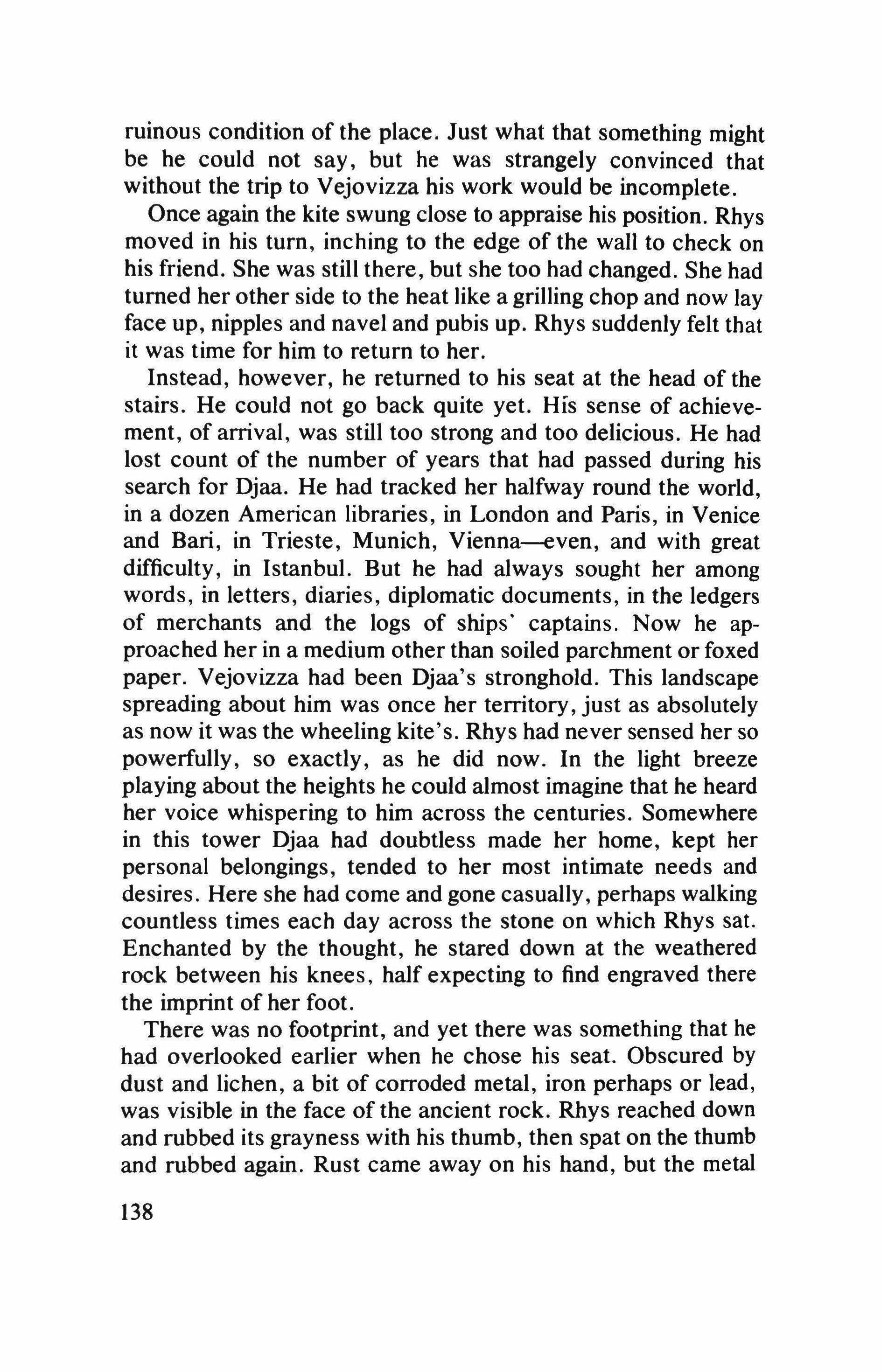
ruinous condition of the place. Just what that something might be he could not say, but he was strangely convinced that without the trip to Vejovizza his work would be incomplete.
Once again the kite swung close to appraise his position. Rhys moved in his turn, inching to the edge of the wall to check on his friend. She was still there, but she too had changed. She had turned her other side to the heat like a grilling chop and now lay face up, nipples and navel and pubis up. Rhys suddenly felt that it was time for him to return to her.
Instead, however, he returned to his seat at the head of the stairs. He could not go back quite yet. His sense of achievement, of arrival, was still too strong and too delicious. He had lost count of the number of years that had passed during his search for Djaa. He had tracked her halfway round the world, in a dozen American libraries, in London and Paris, in Venice and Bari, in Trieste, Munich, Vienna-seven, and with great difficulty, in Istanbul. But he had always sought her among words, in letters, diaries, diplomatic documents, in the ledgers of merchants and the logs of ships' captains. Now he approached her in a medium other than soiled parchment or foxed paper. Vejovizza had been Djaa's stronghold. This landscape spreading about him was once her territory, just as absolutely as now it was the wheeling kite's. Rhys had never sensed her so powerfully, so exactly, as he did now. In the light breeze playing about the heights he could almost imagine that he heard her voice whispering to him across the centuries. Somewhere in this tower Djaa had doubtless made her home, kept her personal belongings, tended to her most intimate needs and desires. Here she had come and gone casually, perhaps walking countless times each day across the stone on which Rhys sat. Enchanted by the thought, he stared down at the weathered rock between his knees, half expecting to find engraved there the imprint of her foot.
There was no footprint, and yet there was something that he had overlooked earlier when he chose his seat. Obscured by dust and lichen, a bit of corroded metal, iron perhaps or lead, was visible in the face of the ancient rock. Rhys reached down and rubbed its grayness with his thumb, then spat on the thumb and rubbed again. Rust came away on his hand, but the metal

was lodged in the stone. It was impossible to tell what it was, but immediately his curiosity was aroused. Irresistibly his imagination teemed with artifacts, the fragments of Djaa's life that he had come all this way to find.
He rummaged in his pocket for a clasp knife and set to work on the metal, scraping and digging in an effort to extricate it from the stone. The chore was easy; the rock was so fatigued and diseased that it yielded readily to the clawing of the knife. In a matter of moments he had managed to expose a bar of old iron ten centimeters long and two centimeters wide, a wedge of some sort driven into the stone. The grooves that he was making on either side of the metal bar deepened and widened as he labored, until it began to loosen in its socket. In time he was able to force the knife blade beneath it. More and more eagerly he struggled, gouging deeper, levering his point back and forth until at last he overcame the resistance ofthe stone. He put the knife aside and with his bare fingers gripped the iron and tugged. There was a final moment of clinging before the metal-a staple, he now saw, instead of a wedge-pulled free.
His success with this little project provided him with an instant of absurdly keen pleasure. It was so acute that he was about to shout "Eureka!" when he felt the step beneath him tilt. The exclamation died in his throat as he looked down. A fissure had appeared across the stone where the staple had been, a crack that, even as he watched, was widening.
The precarious step tilted again, its surface angling sharply toward the precipice. Rhys scrambled frantically toward the high end of it, but the crack in the stone had widened to such an extent that he had no hope of crossing the chasm it had become. More and more dramatically the crevasse grewbroadening, burrowing down into the tower's core, splitting it as a thunderbolt splits a tree trunk. An enormous chunk of masonry separated itself from the rest of the structure's bulk. For an instant it tottered as if undecided where to go or unwilling to go where it must; then it yawed ponderously and plunged toward the valley below. Like a weevil on a ripe and falling fruit, Rhys rode the mass into the abyss.
As he plummeted past his friend he saw a bit of flying stone strike her naked thigh. She winced and clutched at her hurt,
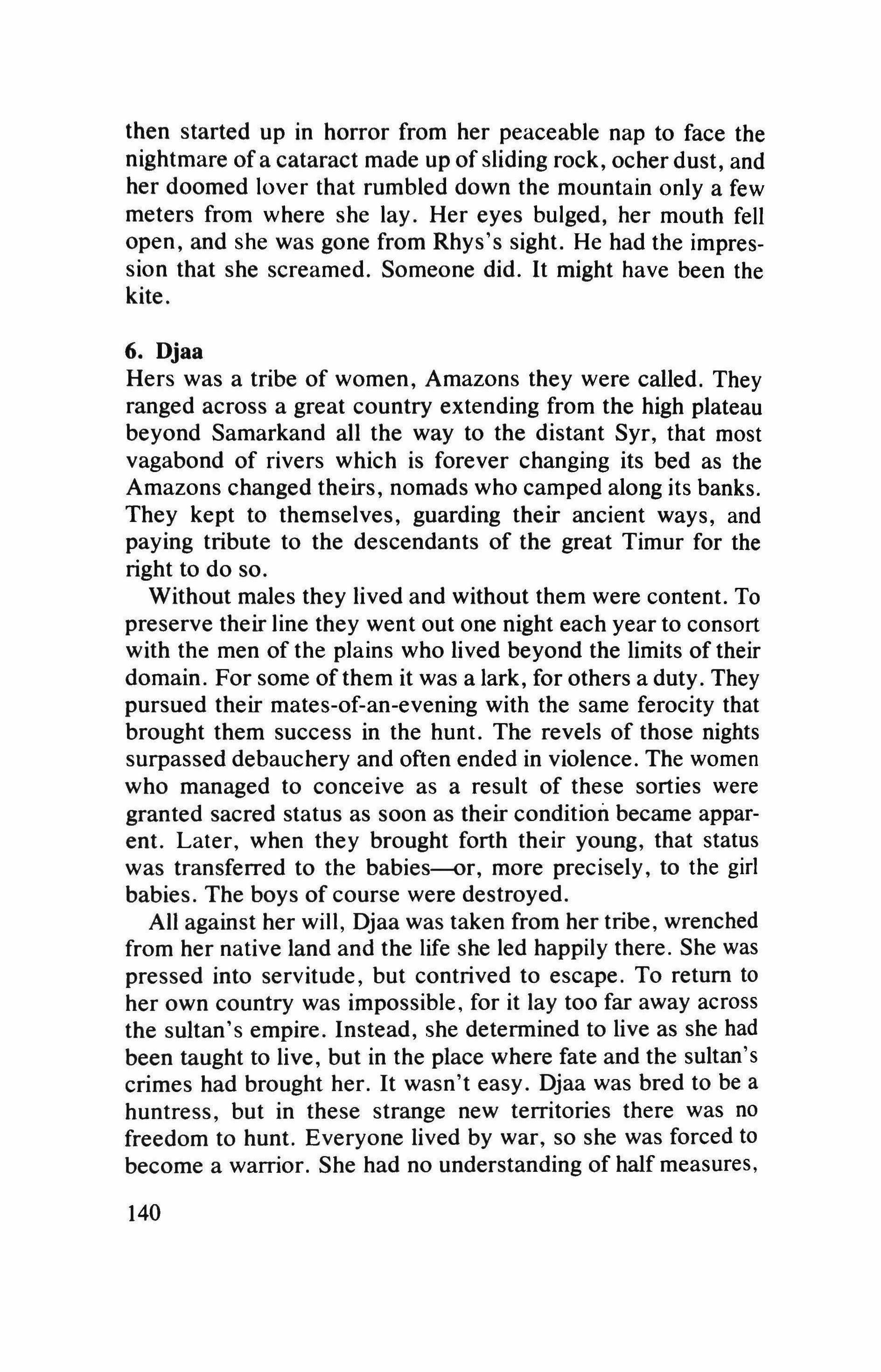
then started up in horror from her peaceable nap to face the nightmare of a cataract made up of sliding rock, ocher dust, and her doomed lover that rumbled down the mountain only a few meters from where she lay. Her eyes bulged, her mouth fell open, and she was gone from Rhys's sight. He had the impression that she screamed. Someone did. It might have been the kite.
Hers was a tribe of women, Amazons they were called. They ranged across a great country extending from the high plateau beyond Samarkand all the way to the distant Syr, that most vagabond of rivers which is forever changing its bed as the Amazons changed theirs, nomads who camped along its banks. They kept to themselves, guarding their ancient ways, and paying tribute to the descendants of the great Timur for the right to do so.
Without males they lived and without them were content. To preserve their line they went out one night each year to consort with the men of the plains who lived beyond the limits of their domain. For some of them it was a lark, for others a duty. They pursued their mates-of-an-evening with the same ferocity that brought them success in the hunt. The revels of those nights surpassed debauchery and often ended in violence. The women who managed to conceive as a result of these sorties were granted sacred status as soon as their condition became apparent. Later, when they brought forth their young, that status was transferred to the babies-or, more precisely, to the girl babies. The boys of course were destroyed.
All against her will, Ojaa was taken from her tribe, wrenched from her native land and the life she led happily there. She was pressed into servitude, but contrived to escape. To return to her own country was impossible, for it lay too far away across the sultan's empire. Instead, she determined to live as she had been taught to live, but in the place where fate and the sultan's crimes had brought her. It wasn't easy. Ojaa was bred to be a huntress, but in these strange new territories there was no freedom to hunt. Everyone lived by war, so she was forced to become a warrior. She had no understanding of half measures,
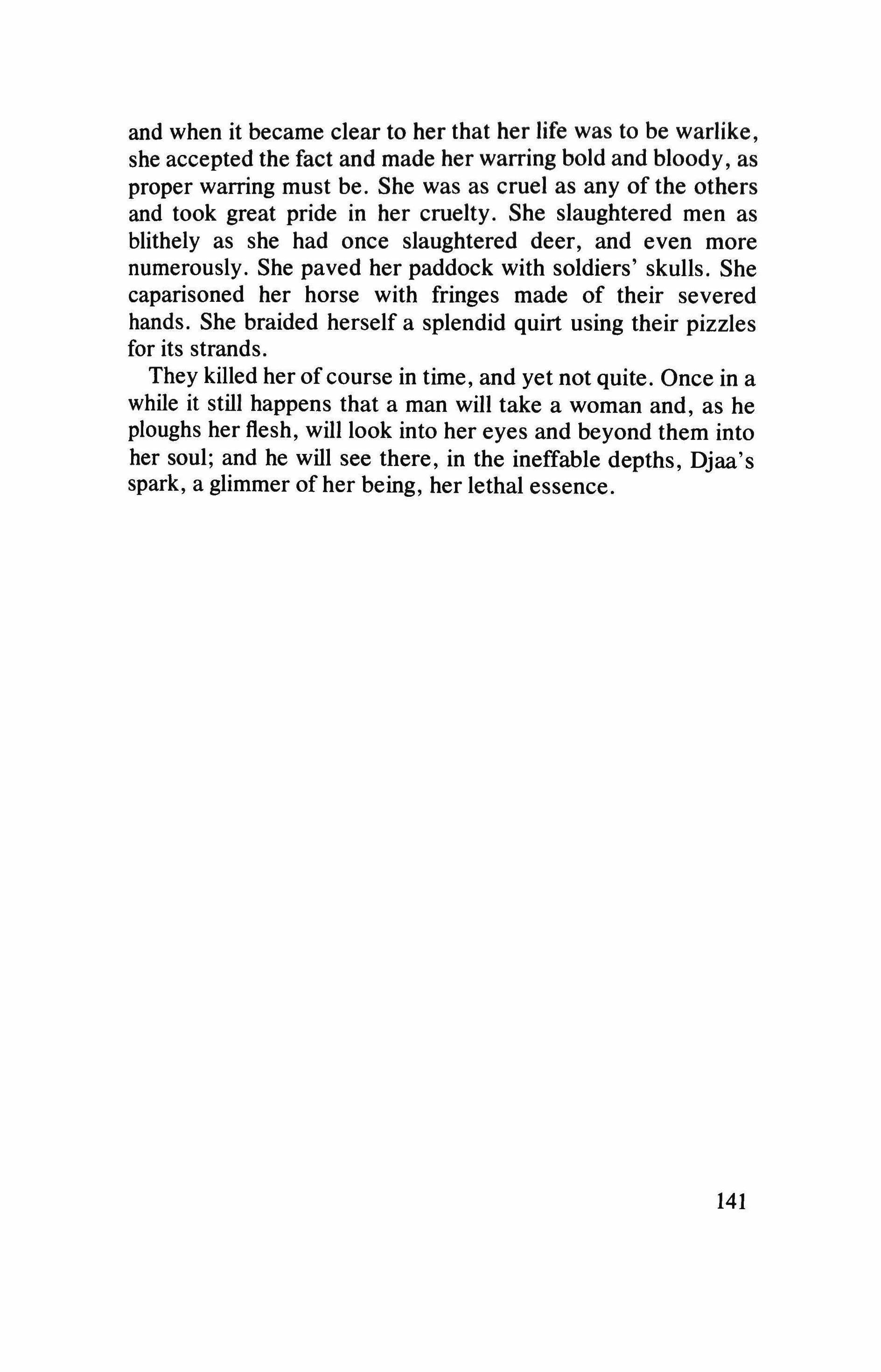
and when it became clear to her that her life was to be warlike, she accepted the fact and made her warring bold and bloody, as proper warring must be. She was as cruel as any of the others and took great pride in her cruelty. She slaughtered men as blithely as she had once slaughtered deer, and even more numerously. She paved her paddock with soldiers' skulls. She caparisoned her horse with fringes made of their severed hands. She braided herself a splendid quirt using their pizzles for its strands.
They killed her of course in time, and yet not quite. Once in a while it still happens that a man will take a woman and, as he ploughs her flesh, will look into her eyes and beyond them into her soul; and he will see there, in the ineffable depths, Djaa's spark, a glimmer of her being, her lethal essence.
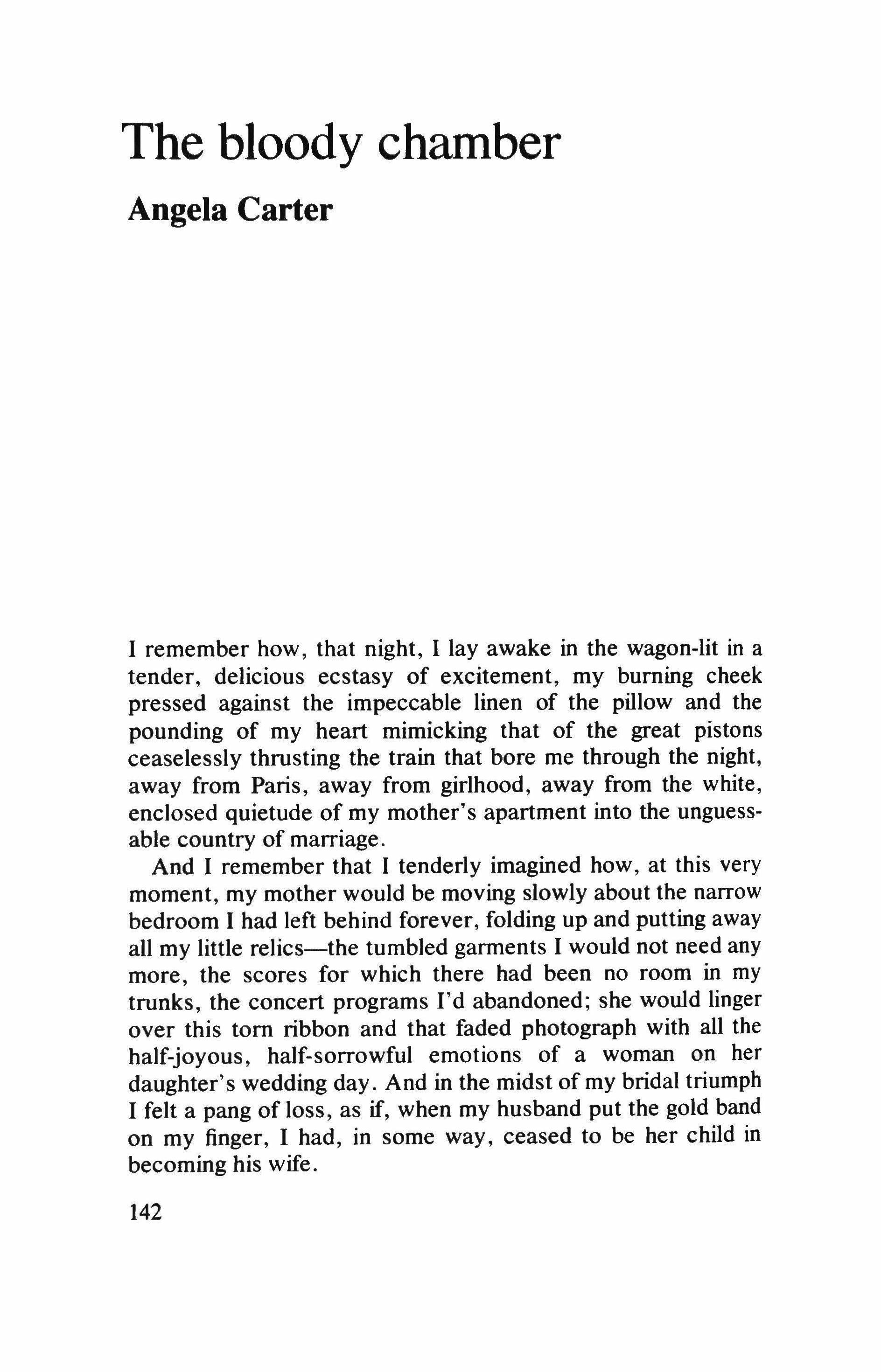
I remember how, that night, I lay awake in the wagon-lit in a tender, delicious ecstasy of excitement, my burning cheek pressed against the impeccable linen of the pillow and the pounding of my heart mimicking that of the great pistons ceaselessly thrusting the train that bore me through the night, away from Paris, away from girlhood, away from the white, enclosed quietude of my mother's apartment into the unguessable country of marriage.
And I remember that I tenderly imagined how, at this very moment, my mother would be moving slowly about the narrow bedroom I had left behind forever, folding up and putting away all my little relics-the tumbled garments I would not need any more, the scores for which there had been no room in my trunks, the concert programs I'd abandoned; she would linger over this torn ribbon and that faded photograph with all the half-joyous, half-sorrowful emotions of a woman on her daughter's wedding day. And in the midst of my bridal triumph I felt a pang of loss, as if, when my husband put the gold band on my finger, I had, in some way, ceased to be her child in becoming his wife.
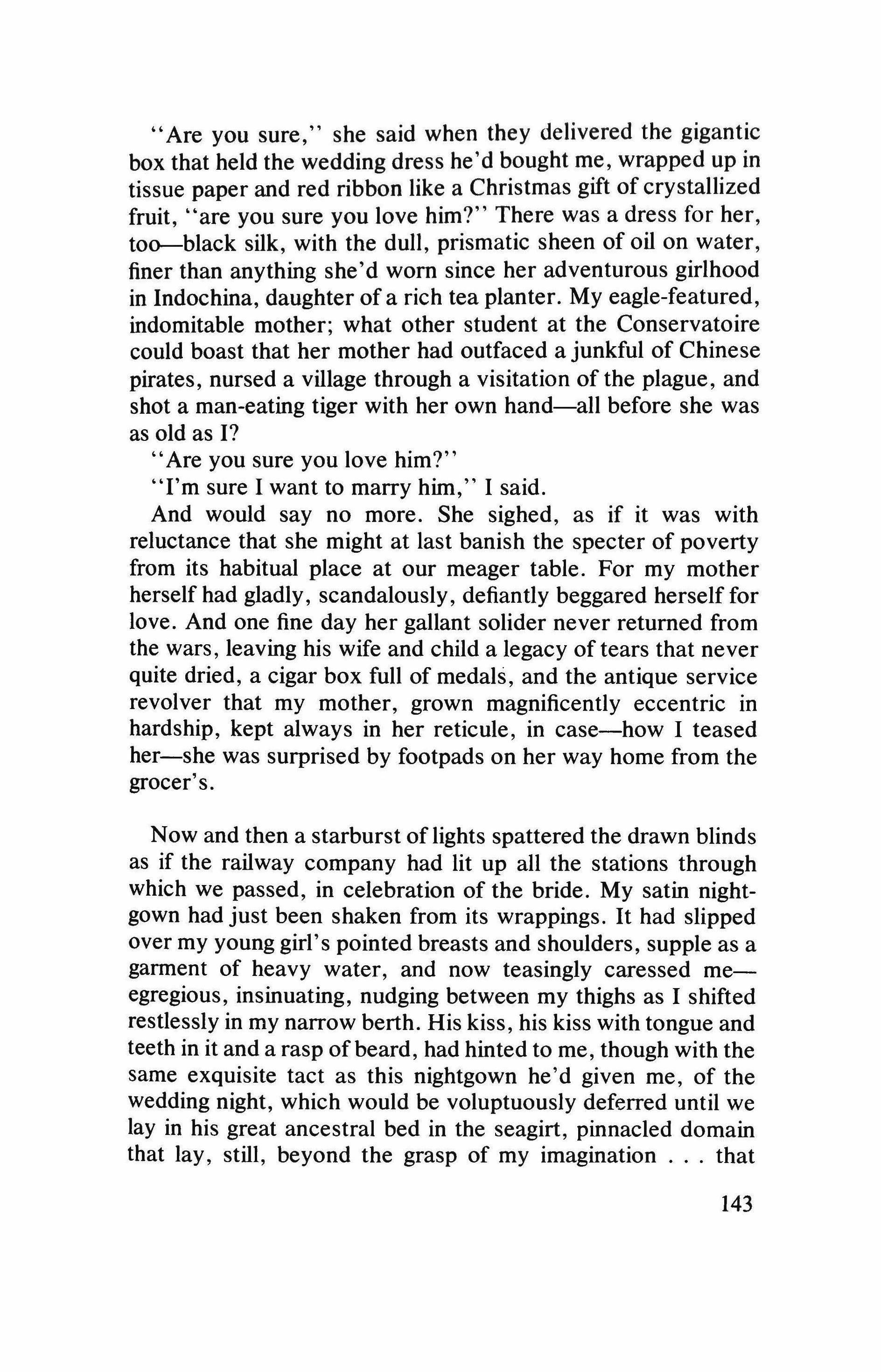
"Are you sure," she said when they delivered the gigantic box that held the wedding dress he'd bought me, wrapped up in tissue paper and red ribbon like a Christmas gift of crystallized fruit, "are you sure you love him?" There was a dress for her, too-black silk, with the dull, prismatic sheen of oil on water, finer than anything she'd worn since her adventurous girlhood in Indochina, daughter of a rich tea planter. My eagle-featured, indomitable mother; what other student at the Conservatoire could boast that her mother had outfaced a junkful of Chinese pirates, nursed a village through a visitation of the plague, and shot a man-eating tiger with her own hand-all before she was as old as I?
"Are you sure you love him?"
''I'm sure I want to marry him," I said.
And would say no more. She sighed, as if it was with reluctance that she might at last banish the specter of poverty from its habitual place at our meager table. For my mother herself had gladly, scandalously, defiantly beggared herself for love. And one fine day her gallant solider never returned from the wars, leaving his wife and child a legacy of tears that never quite dried, a cigar box full of medals, and the antique service revolver that my mother, grown magnificently eccentric in hardship, kept always in her reticule, in case-how I teased her-she was surprised by footpads on her way home from the grocer's.
Now and then a starburst of lights spattered the drawn blinds as if the railway company had lit up all the stations through which we passed, in celebration of the bride. My satin nightgown had just been shaken from its wrappings. It had slipped over my young girl's pointed breasts and shoulders, supple as a garment of heavy water, and now teasingly caressed meegregious, insinuating, nudging between my thighs as I shifted restlessly in my narrow berth. His kiss, his kiss with tongue and teeth in it and a rasp of beard, had hinted to me, though with the same exquisite tact as this nightgown he'd given me, of the wedding night, which would be voluptuously deferred until we lay in his great ancestral bed in the seagirt, pinnacled domain that lay, still, beyond the grasp of my imagination that
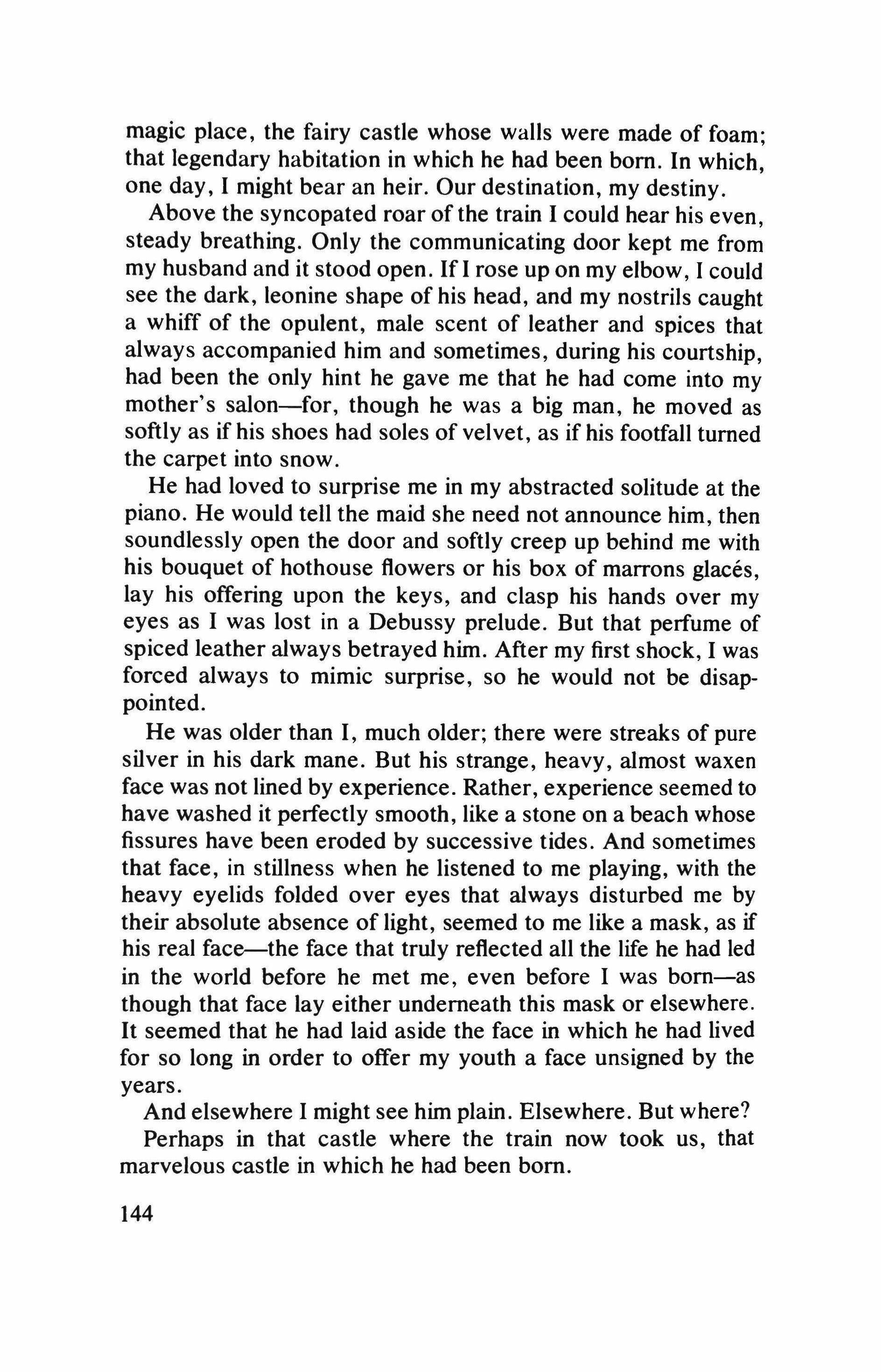
magic place, the fairy castle whose walls were made of foam; that legendary habitation in which he had been born. In which, one day, I might bear an heir. Our destination, my destiny.
Above the syncopated roar of the train I could hear his even, steady breathing. Only the communicating door kept me from my husband and it stood open. If I rose up on my elbow, I could see the dark, leonine shape of his head, and my nostrils caught a whiff of the opulent, male scent of leather and spices that always accompanied him and sometimes, during his courtship, had been the only hint he gave me that he had come into my mother's salon-for, though he was a big man, he moved as softly as if his shoes had soles of velvet, as if his footfall turned the carpet into snow.
He had loved to surprise me in my abstracted solitude at the piano. He would tell the maid she need not announce him, then soundlessly open the door and softly creep up behind me with his bouquet of hothouse flowers or his box of marrons glaces, lay his offering upon the keys, and clasp his hands over my eyes as I was lost in a Debussy prelude. But that perfume of spiced leather always betrayed him. After my first shock, I was forced always to mimic surprise, so he would not be disappointed.
He was older than I, much older; there were streaks of pure silver in his dark mane. But his strange, heavy, almost waxen face was not lined by experience. Rather, experience seemed to have washed it perfectly smooth, like a stone on a beach whose fissures have been eroded by successive tides. And sometimes that face, in stillness when he listened to me playing, with the heavy eyelids folded over eyes that always disturbed me by their absolute absence of light, seemed to me like a mask, as if his real face-the face that truly reflected all the life he had led in the world before he met me, even before I was born-as though that face lay either underneath this mask or elsewhere. It seemed that he had laid aside the face in which he had lived for so long in order to offer my youth a face unsigned by the years.
And elsewhere I might see him plain. Elsewhere. But where?
Perhaps in that castle where the train now took us, that marvelous castle in which he had been born.
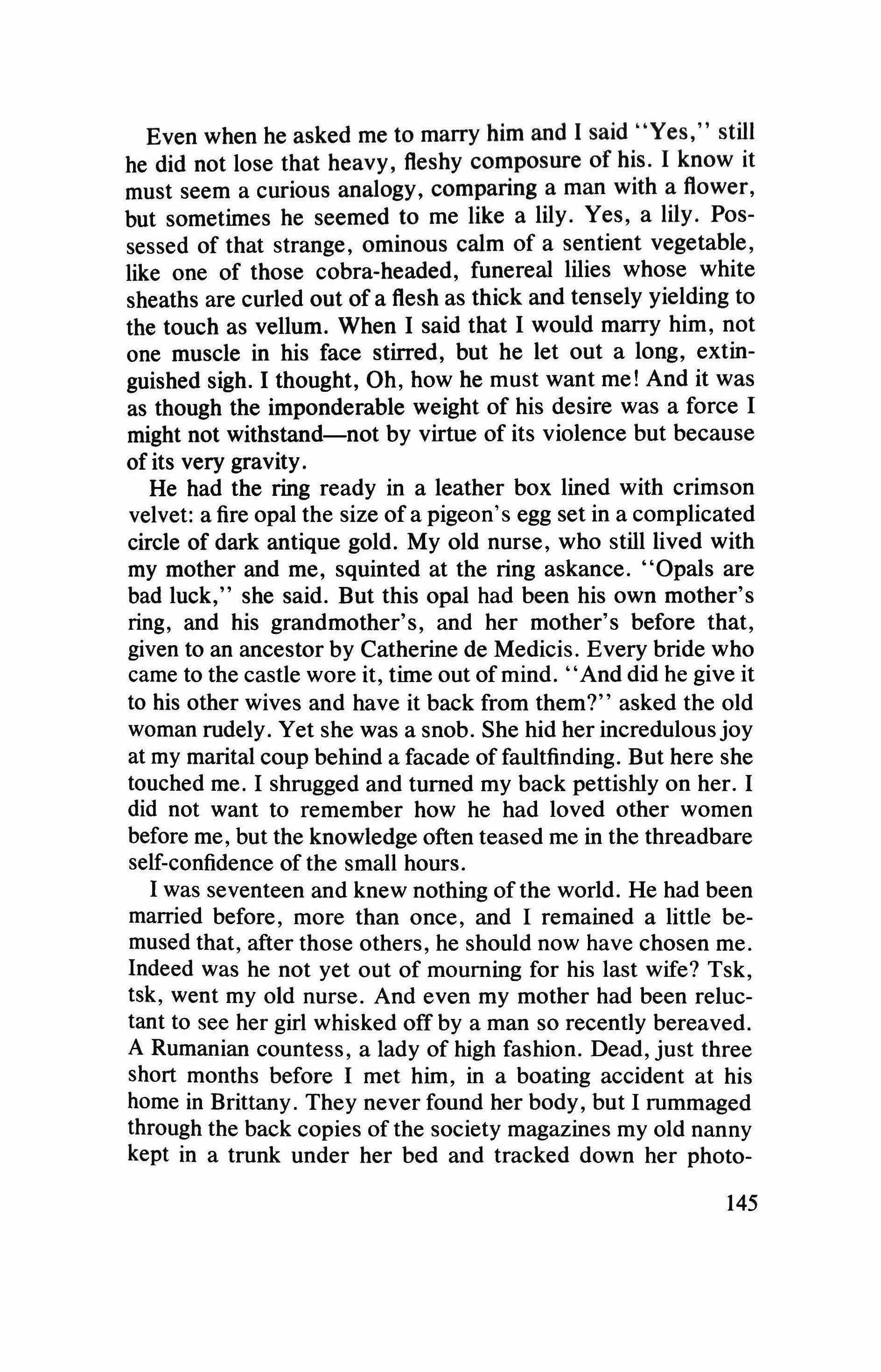
Even when he asked me to marry him and I said "Yes," still he did not lose that heavy, fleshy composure of his. I know it must seem a curious analogy, comparing a man with a flower, but sometimes he seemed to me like a lily. Yes, a lily. Possessed of that strange, ominous calm of a sentient vegetable, like one of those cobra-headed, funereal lilies whose white sheaths are curled out of a flesh as thick and tensely yielding to the touch as vellum. When I said that I would marry him, not one muscle in his face stirred, but he let out a long, extinguished sigh. I thought, Oh, how he must want me! And it was as though the imponderable weight of his desire was a force I might not withstand-not by virtue of its violence but because of its very gravity.
He had the ring ready in a leather box lined with crimson velvet: a fire opal the size of a pigeon's egg set in a complicated circle of dark antique gold. MyoId nurse, who still lived with my mother and me, squinted at the ring askance. "Opals are bad luck," she said. But this opal had been his own mother's ring, and his grandmother's, and her mother's before that, given to an ancestor by Catherine de Medicis. Every bride who came to the castle wore it, time out of mind.•.And did he give it to his other wives and have it back from them?" asked the old woman rudely. Yet she was a snob. She hid her incredulous joy at my marital coup behind a facade of faultfinding. But here she touched me. I shrugged and turned my back pettishly on her. I did not want to remember how he had loved other women before me, but the knowledge often teased me in the threadbare self-confidence of the small hours.
I was seventeen and knew nothing of the world. He had been married before, more than once, and I remained a little bemused that, after those others, he should now have chosen me. Indeed was he not yet out of mourning for his last wife? Tsk, tsk, went myoId nurse. And even my mother had been reluctant to see her girl whisked off by a man so recently bereaved. A Rumanian countess, a lady of high fashion. Dead, just three short months before I met him, in a boating accident at his home in Brittany. They never found her body, but I rummaged through the back copies of the society magazines myoId nanny kept in a trunk under her bed and tracked down her photo-
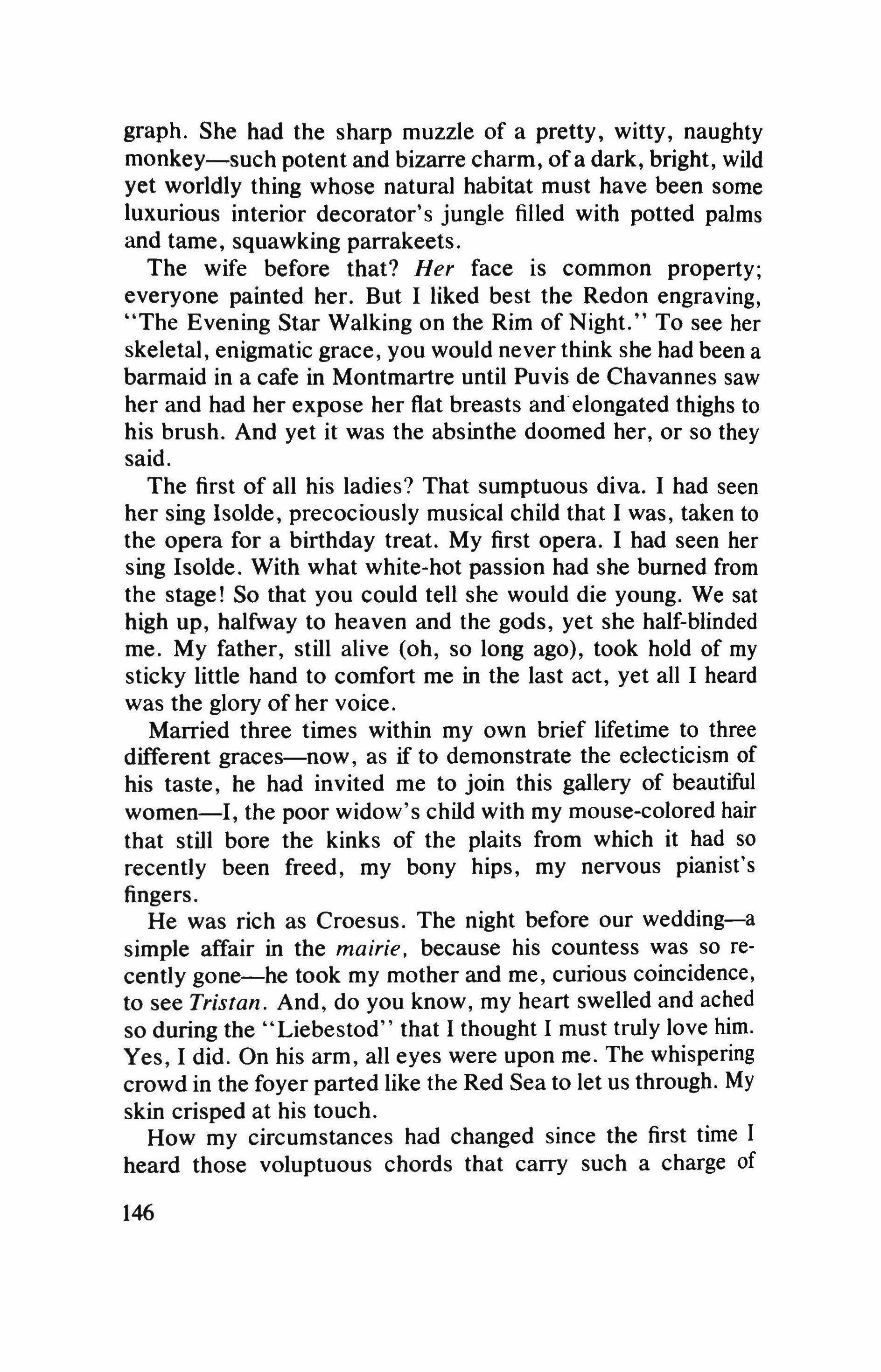
graph. She had the sharp muzzle of a pretty, witty, naughty monkey-such potent and bizarre charm, of a dark, bright, wild yet worldly thing whose natural habitat must have been some luxurious interior decorator's jungle filled with potted palms and tame, squawking parrakeets.
The wife before that? Her face is common property; everyone painted her. But I liked best the Redon engraving, "The Evening Star Walking on the Rim of Night." To see her skeletal, enigmatic grace, you would never think she had been a barmaid in a cafe in Montmartre until Puvis de Chavannes saw her and had her expose her flat breasts and'elongated thighs to his brush. And yet it was the absinthe doomed her, or so they said.
The first of all his ladies? That sumptuous diva. I had seen her sing Isolde, precociously musical child that I was, taken to the opera for a birthday treat. My first opera. I had seen her sing Isolde. With what white-hot passion had she burned from the stage! So that you could tell she would die young. We sat high up, halfway to heaven and the gods, yet she half-blinded me. My father, still alive (oh, so long ago), took hold of my sticky little hand to comfort me in the last act, yet all I heard was the glory of her voice.
Married three times within my own brief lifetime to three different graces-now, as if to demonstrate the eclecticism of his taste, he had invited me to join this gallery of beautiful women-I, the poor widow's child with my mouse-colored hair that still bore the kinks of the plaits from which it had so recently been freed, my bony hips, my nervous pianist's fingers.
He was rich as Croesus. The night before our wedding-a simple affair in the mairie, because his countess was so recently gone-he took my mother and me, curious coincidence, to see Tristan. And, do you know, my heart swelled and ached so during the "Liebestod" that I thought I must truly love him. Yes, I did. On his arm, all eyes were upon me. The Whispering crowd in the foyer parted like the Red Sea to let us through. My skin crisped at his touch.
How my circumstances had changed since the first time I heard those voluptuous chords that carry such a charge of
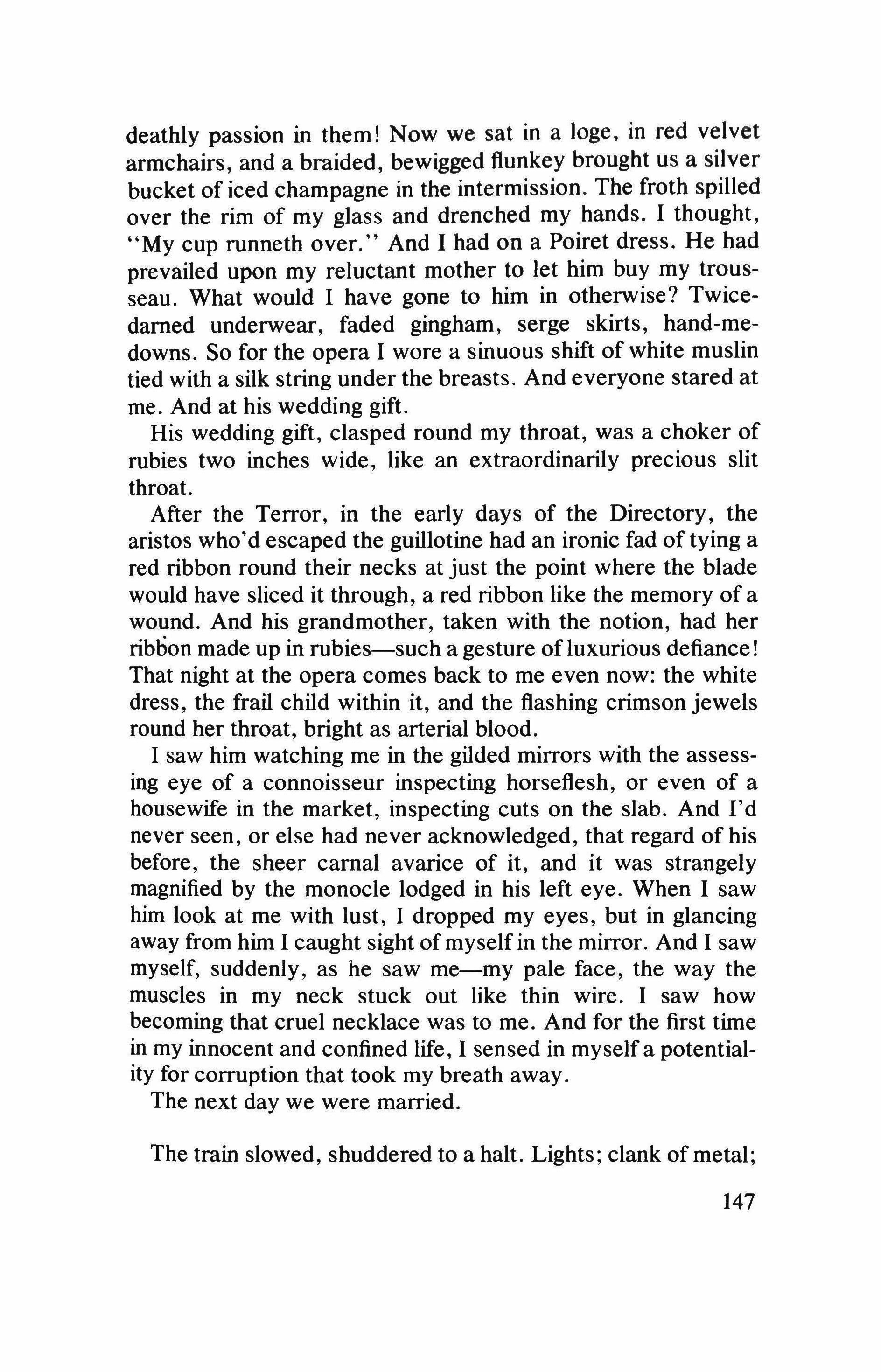
deathly passion in them! Now we sat in a loge, in red velvet armchairs, and a braided, bewigged flunkey brought us a silver bucket of iced champagne in the intermission. The froth spilled over the rim of my glass and drenched my hands. I thought, "My cup runneth over." And I had on a Poiret dress. He had prevailed upon my reluctant mother to let him buy my trousseau. What would I have gone to him in otherwise? Twicedarned underwear, faded gingham, serge skirts, hand-medowns. So for the opera I wore a sinuous shift of white muslin tied with a silk string under the breasts. And everyone stared at me. And at his wedding gift.
His wedding gift, clasped round my throat, was a choker of rubies two inches wide, like an extraordinarily precious slit throat.
After the Terror, in the early days of the Directory, the aristos who'd escaped the guillotine had an ironic fad of tying a red ribbon round their necks at just the point where the blade would have sliced it through, a red ribbon like the memory of a wound. And his grandmother, taken with the notion, had her ribbon made up in rubies-such a gesture of luxurious defiance! That night at the opera comes back to me even now: the white dress, the frail child within it, and the flashing crimson jewels round her throat, bright as arterial blood.
I saw him watching me in the gilded mirrors with the assessing eye of a connoisseur inspecting horseflesh, or even of a housewife in the market, inspecting cuts on the slab. And I'd never seen, or else had never acknowledged, that regard of his before, the sheer carnal avarice of it, and it was strangely magnified by the monocle lodged in his left eye. When I saw him look at me with lust, I dropped my eyes, but in glancing away from him I caught sight of myself in the mirror. And I saw myself, suddenly, as he saw me-my pale face, the way the muscles in my neck stuck out like thin wire. I saw how becoming that cruel necklace was to me. And for the first time in my innocent and confined life, I sensed in myself a potentiality for corruption that took my breath away.
The next day we were married.
The train slowed, shuddered to a halt. Lights; clank of metal; 147
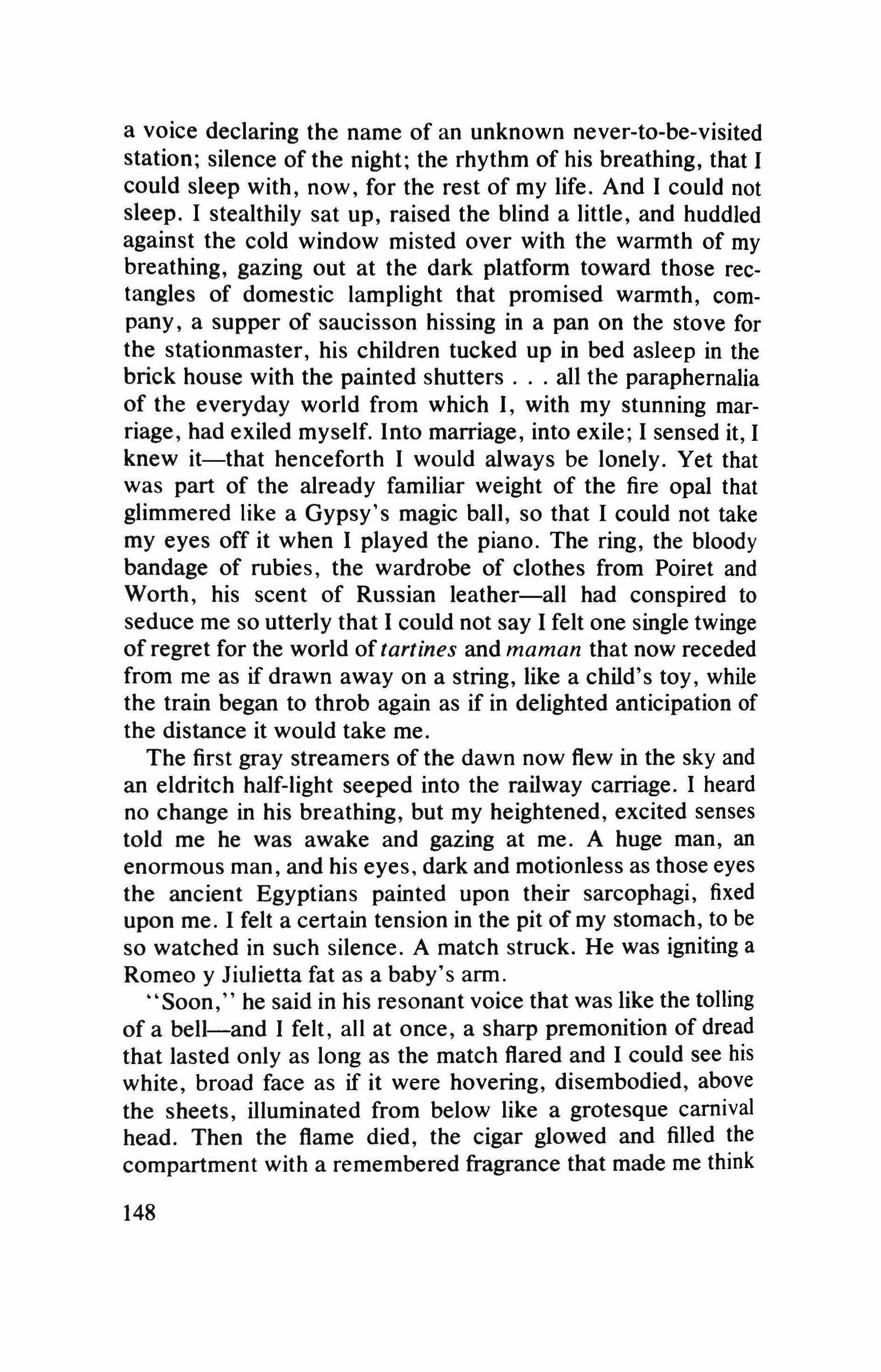
a voice declaring the name of an unknown never-to-be-visited station; silence of the night; the rhythm of his breathing, that I could sleep with, now, for the rest of my life. And I could not sleep. I stealthily sat up, raised the blind a little, and huddled against the cold window misted over with the warmth of my breathing, gazing out at the dark platform toward those rectangles of domestic lamplight that promised warmth, company, a supper of saucisson hissing in a pan on the stove for the stationmaster, his children tucked up in bed asleep in the brick house with the painted shutters all the paraphernalia of the everyday world from which I, with my stunning marriage, had exiled myself. Into marriage, into exile; I sensed it, I knew it-that henceforth I would always be lonely Yet that was part of the already familiar weight of the fire opal that glimmered like a Gypsy's magic ball, so that I could not take my eyes off it when I played the piano. The ring, the bloody bandage of rubies, the wardrobe of clothes from Poiret and Worth, his scent of Russian leather-all had conspired to seduce me so utterly that I could not say I felt one single twinge of regret for the world of tartines and maman that now receded from me as if drawn away on a string, like a child's toy, while the train began to throb again as if in delighted anticipation of the distance it would take me.
The first gray streamers of the dawn now flew in the sky and an eldritch half-light seeped into the railway carriage. I heard no change in his breathing, but my heightened, excited senses told me he was awake and gazing at me. A huge man, an enormous man, and his eyes, dark and motionless as those eyes the ancient Egyptians painted upon their sarcophagi, fixed upon me. I felt a certain tension in the pit of my stomach, to be so watched in such silence. A match struck. He was igniting a Romeo y JiuJietta fat as a baby's arm.
"Soon," he said in his resonant voice that was like the tolling of a bell-and I felt, all at once, a sharp premonition of dread that lasted only as long as the match flared and I could see his white, broad face as if it were hovering, disembodied, above the sheets, illuminated from below like a grotesque carnival head. Then the flame died, the cigar glowed and filled the compartment with a remembered fragrance that made me think
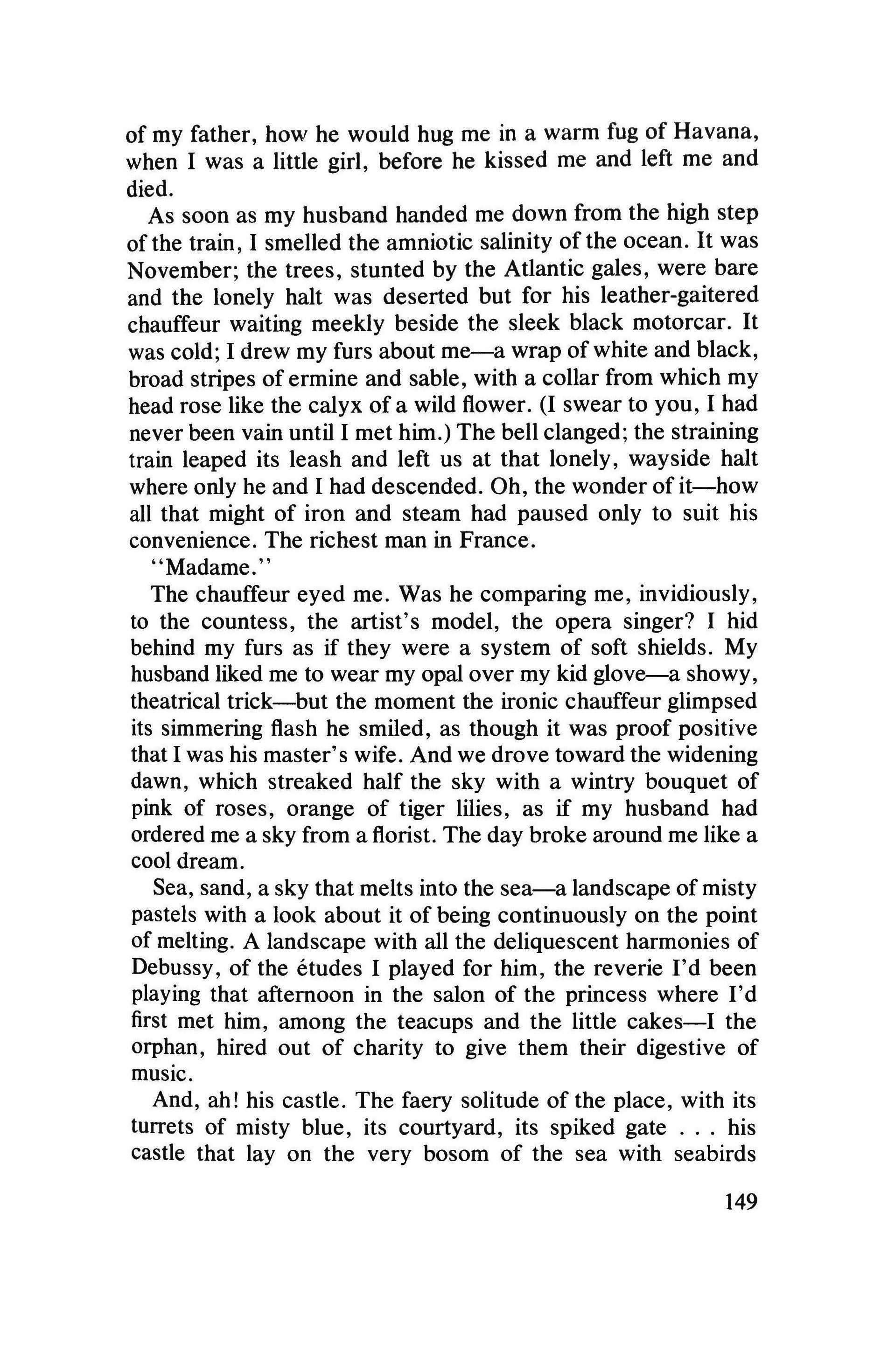
of my father, how he would hug me in a warm fug of Havana, when 1 was a little girl, before he kissed me and left me and died.
As soon as my husband handed me down from the high step of the train, 1 smelled the amniotic salinity of the ocean. It was November; the trees, stunted by the Atlantic gales, were bare and the lonely halt was deserted but for his leather-gaitered chauffeur waiting meekly beside the sleek black motorcar. It was cold; 1 drew my furs about me-a wrap of white and black, broad stripes of ermine and sable, with a collar from which my head rose like the calyx of a wild flower. (I swear to you, 1 had never been vain until 1 met him.) The bell clanged; the straining train leaped its leash and left us at that lonely, wayside halt where only he and 1 had descended. Oh, the wonder of it-how all that might of iron and steam had paused only to suit his convenience. The richest man in France.
"Madame."
The chauffeur eyed me. Was he comparing me, invidiously, to the countess, the artist's model, the opera singer? 1 hid behind my furs as if they were a system of soft shields. My husband liked me to wear my opal over my kid glove-a showy, theatrical trick-but the moment the ironic chauffeur glimpsed its simmering flash he smiled, as though it was proof positive that 1 was his master's wife. And we drove toward the widening dawn, which streaked half the sky with a wintry bouquet of pink of roses, orange of tiger lilies, as if my husband had ordered me a sky from a florist. The day broke around me like a cool dream.
Sea, sand, a sky that melts into the sea-a landscape of misty pastels with a look about it of being continuously on the point of melting. A landscape with all the deliquescent harmonies of Debussy, of the etudes 1 played for him, the reverie I'd been playing that afternoon in the salon of the princess where I'd first met him, among the teacups and the little cakes-I the orphan, hired out of charity to give them their digestive of music.
And, ah! his castle. The faery solitude of the place, with its turrets of misty blue, its courtyard, its spiked gate his castle that lay on the very bosom of the sea with seabirds
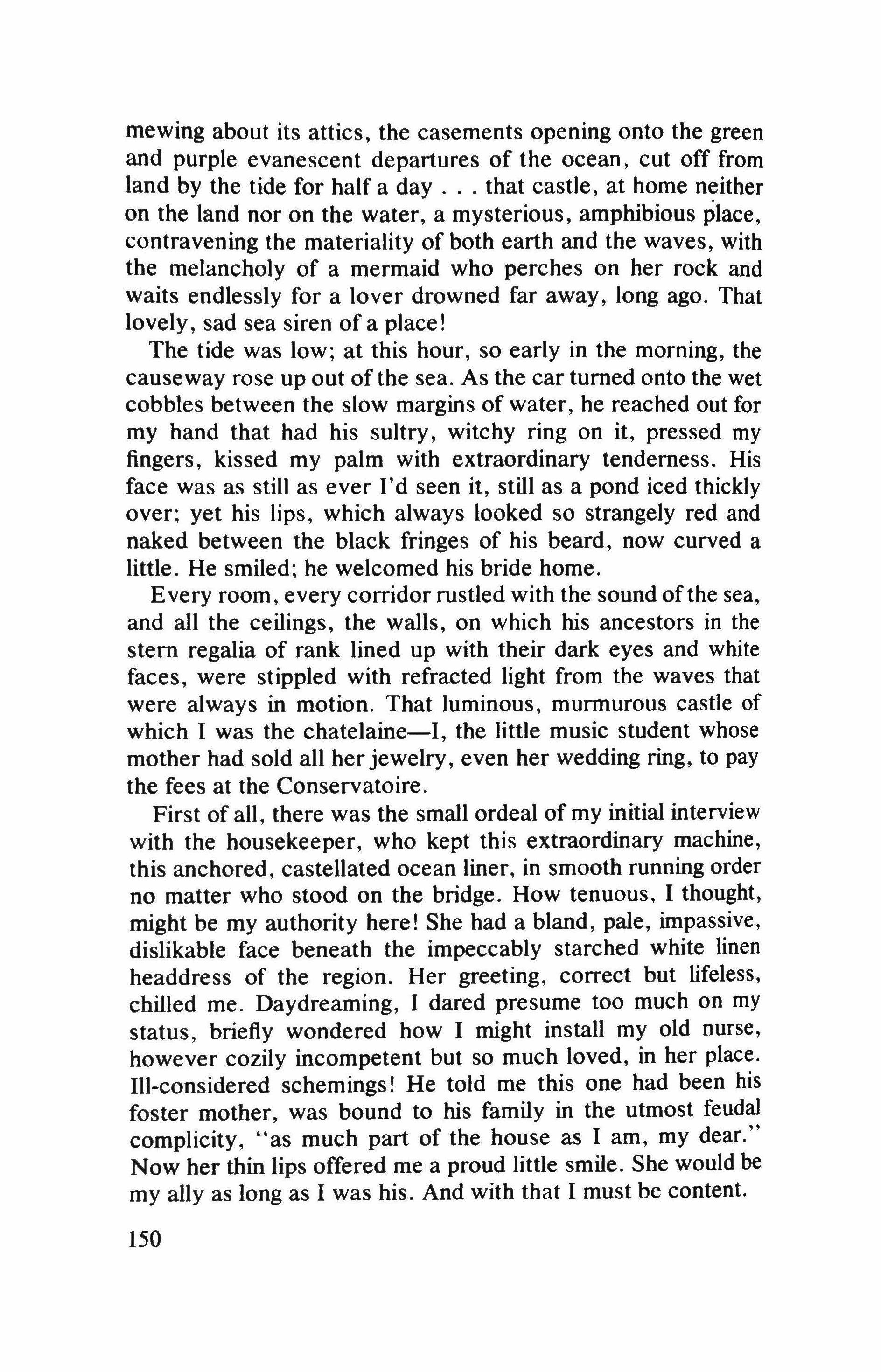
mewing about its attics, the casements opening onto the green and purple evanescent departures of the ocean, cut off from land by the tide for half a day that castle, at home neither on the land nor on the water, a mysterious, amphibious place, contravening the materiality of both earth and the waves, with the melancholy of a mermaid who perches on her rock and waits endlessly for a lover drowned far away, long ago. That lovely, sad sea siren of a place!
The tide was low; at this hour, so early in the morning, the causeway rose up out of the sea. As the car turned onto the wet cobbles between the slow margins of water, he reached out for my hand that had his sultry, witchy ring on it, pressed my fingers, kissed my palm with extraordinary tenderness. His face was as still as ever I'd seen it, still as a pond iced thickly over; yet his lips, which always looked so strangely red and naked between the black fringes of his beard, now curved a little. He smiled; he welcomed his bride home.
Every room, every corridor rustled with the sound ofthe sea, and all the ceilings, the walls, on which his ancestors in the stem regalia of rank lined up with their dark eyes and white faces, were stippled with refracted light from the waves that were always in motion. That luminous, murmurous castle of which I was the chatelaine-I, the little music student whose mother had sold all her jewelry, even her wedding ring, to pay the fees at the Conservatoire.
First of all, there was the small ordeal of my initial interview with the housekeeper, who kept this extraordinary machine, this anchored, castellated ocean liner, in smooth running order no matter who stood on the bridge. How tenuous, I thought, might be my authority here! She had a bland, pale, impassive, dislikable face beneath the impeccably starched white linen headdress of the region. Her greeting, correct but lifeless, chilled me. Daydreaming, I dared presume too much on my status, briefly wondered how I might install myoid nurse, however cozily incompetent but so much loved, in her place. Ill-considered schemings! He told me this one had been his foster mother, was bound to his family in the utmost feudal complicity, "as much part of the house as I am, my dear." Now her thin lips offered me a proud little smile. She would be my ally as long as I was his. And with that I must be content.
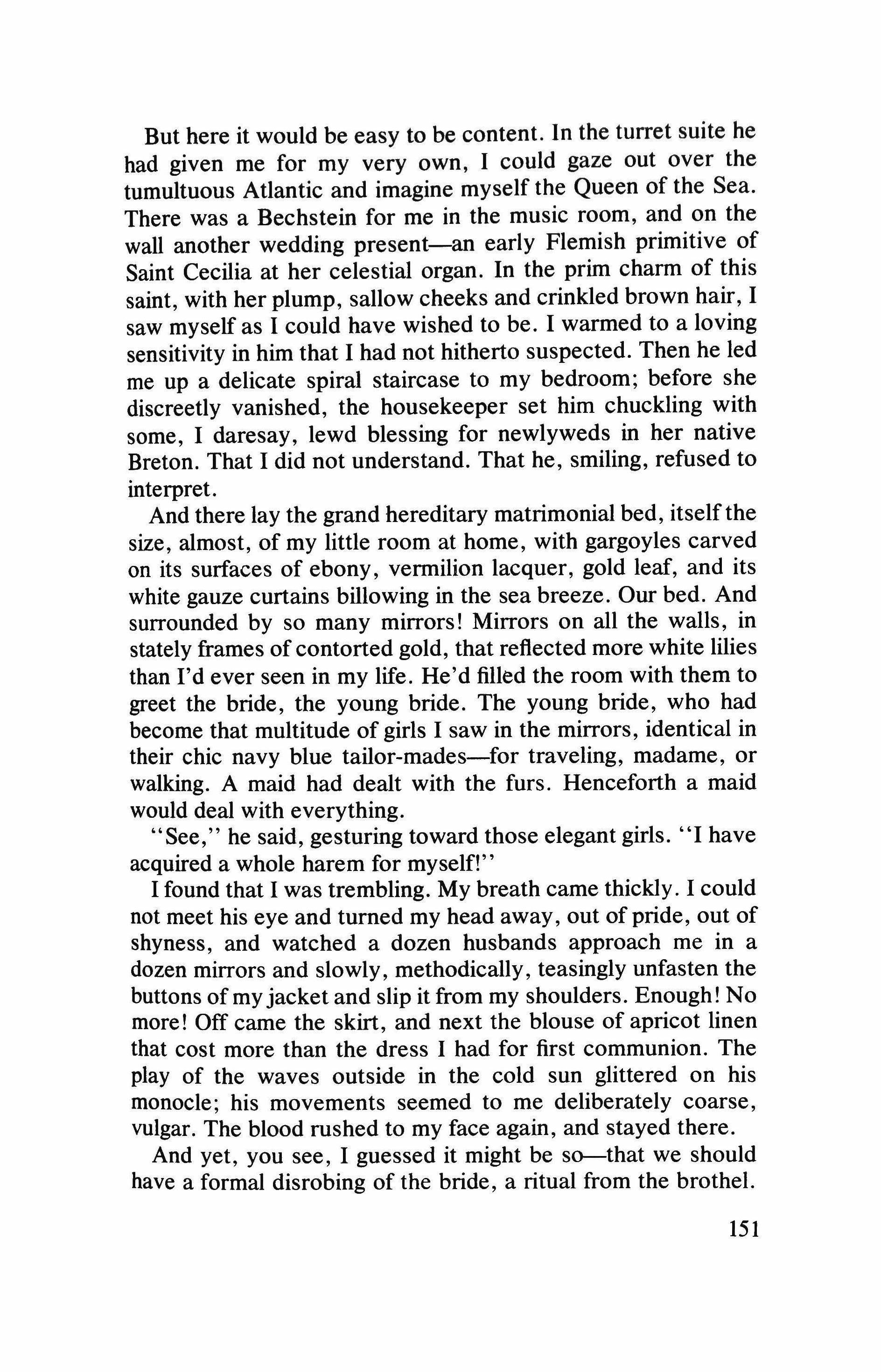
But here it would be easy to be content. In the turret suite he had given me for my very own, I could gaze out over the tumultuous Atlantic and imagine myself the Queen of the Sea. There was a Bechstein for me in the music room, and on the wall another wedding present-an early Flemish primitive of Saint Cecilia at her celestial organ. In the prim charm of this saint, with her plump, sallow cheeks and crinkled brown hair, I saw myself as I could have wished to be. I warmed to a loving sensitivity in him that I had not hitherto suspected. Then he led me up a delicate spiral staircase to my bedroom; before she discreetly vanished, the housekeeper set him chuckling with some, I daresay lewd blessing for newlyweds in her native Breton. That I did not understand. That he, smiling, refused to interpret.
And there lay the grand hereditary matrimonial bed, itselfthe size, almost, of my little room at home, with gargoyles carved on its surfaces of ebony, vermilion lacquer, gold leaf, and its white gauze curtains billowing in the sea breeze. Our bed. And surrounded by so many mirrors! Mirrors on all the walls, in stately frames of contorted gold, that reflected more white lilies than I'd ever seen in my life. He'd filled the room with them to greet the bride, the young bride. The young bride, who had become that multitude of girls I saw in the mirrors, identical in their chic navy blue tailor-mades-for traveling, madame, or walking. A maid had dealt with the furs. Henceforth a maid would deal with everything.
"See," he said, gesturing toward those elegant girls. "I have acquired a whole harem for myself!"
I found that I was trembling. My breath came thickly. I could not meet his eye and turned my head away, out of pride, out of shyness, and watched a dozen husbands approach me in a dozen mirrors and slowly, methodically, teasingly unfasten the buttons of myjacket and slip it from my shoulders. Enough! No more! Off came the skirt, and next the blouse of apricot linen that cost more than the dress I had for first communion. The play of the waves outside in the cold sun glittered on his monocle; his movements seemed to me deliberately coarse, vulgar. The blood rushed to my face again, and stayed there.
And yet, you see, I guessed it might be so-that we should have a formal disrobing of the bride, a ritual from the brothel.
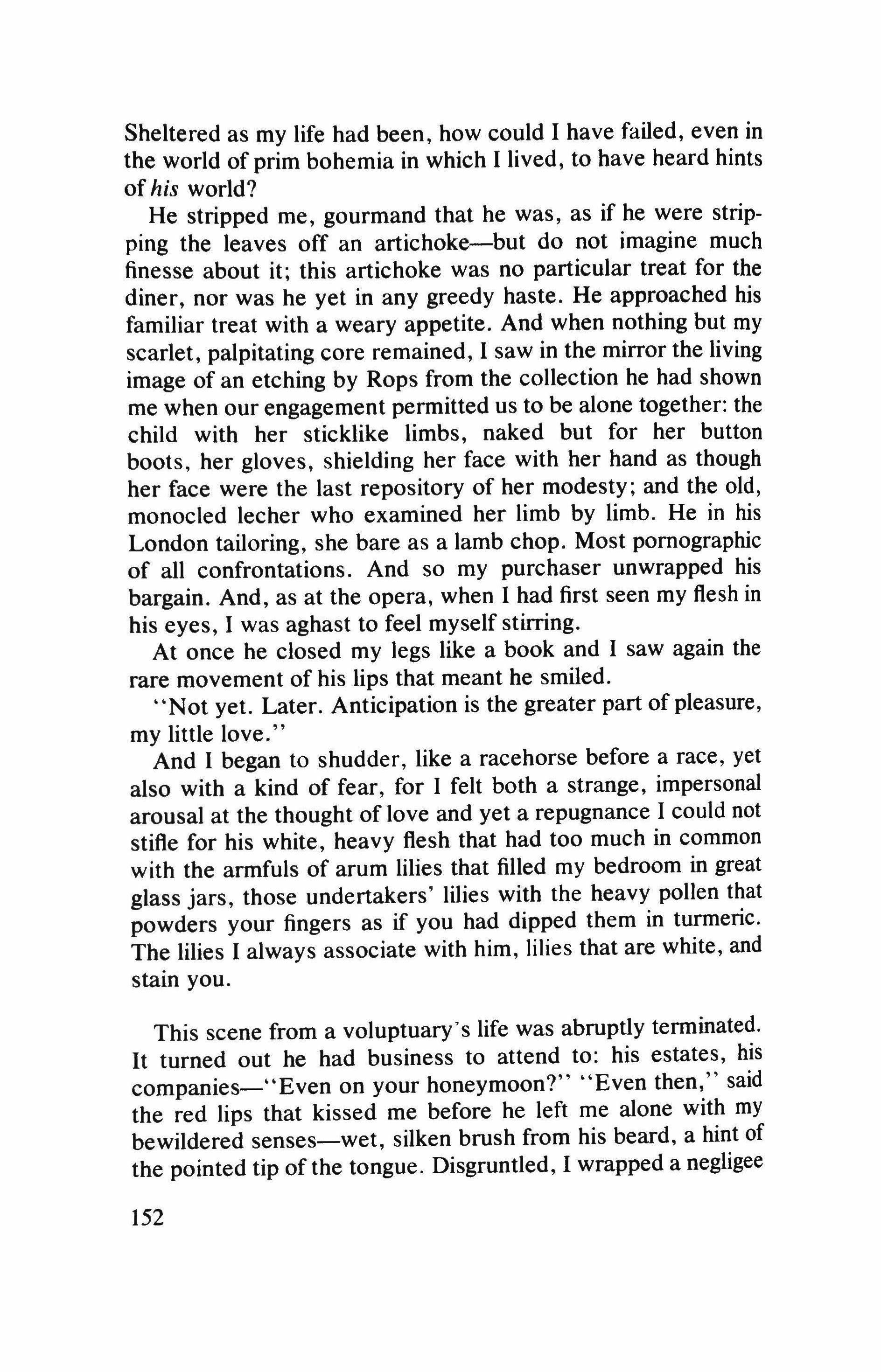
Sheltered as my life had been, how could I have failed, even in the world of prim bohemia in which I lived, to have heard hints of his world?
He stripped me, gourmand that he was, as if he were stripping the leaves off an artichoke-but do not imagine much finesse about it; this artichoke was no particular treat for the diner, nor was he yet in any greedy haste. He approached his familiar treat with a weary appetite. And when nothing but my scarlet, palpitating core remained, 1 saw in the mirror the living image of an etching by Rops from the collection he had shown me when our engagement permitted us to be alone together: the child with her sticklike limbs, naked but for her button boots, her gloves, shielding her face with her hand as though her face were the last repository of her modesty; and the old, monocled lecher who examined her limb by limb. He in his London tailoring, she bare as a lamb chop. Most pornographic of all confrontations. And so my purchaser unwrapped his bargain. And, as at the opera, when I had first seen my flesh in his eyes, I was aghast to feel myself stirring.
At once he closed my legs like a book and I saw again the rare movement of his lips that meant he smiled.
"Not yet. Later. Anticipation is the greater part of pleasure, my little love."
And I began to shudder, like a racehorse before a race, yet also with a kind of fear, for I felt both a strange, impersonal arousal at the thought of love and yet a repugnance I could not stifle for his white, heavy flesh that had too much in common with the armfuls of arum lilies that filled my bedroom in great glass jars, those undertakers' lilies with the heavy pollen that powders your fingers as if you had dipped them in turmeric. The lilies I always associate with him, lilies that are white, and stain you.
This scene from a voluptuary's life was abruptly terminated. It turned out he had business to attend to: his estates, his companies=-t'Even on your honeymoon?" "Even then," said the red lips that kissed me before he left me alone with my bewildered senses-wet, silken brush from his beard, a hint of the pointed tip of the tongue. Disgruntled, I wrapped a negligee
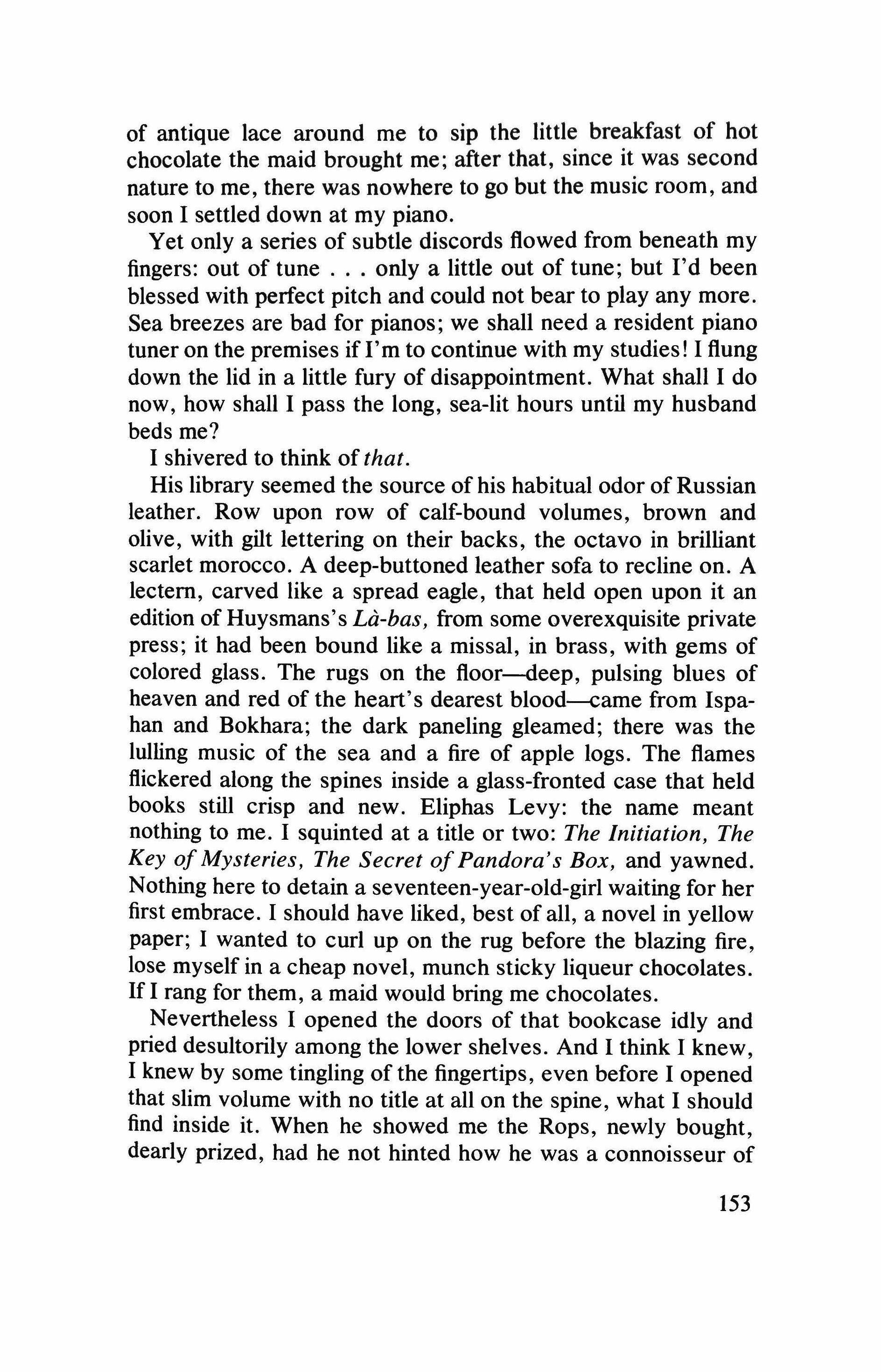
of antique lace around me to sip the little breakfast of hot chocolate the maid brought me; after that, since it was second nature to me, there was nowhere to go but the music room, and soon I settled down at my piano.
Yet only a series of subtle discords flowed from beneath my fingers: out of tune only a little out of tune; but I'd been blessed with perfect pitch and could not bear to play any more. Sea breezes are bad for pianos; we shall need a resident piano tuner on the premises if I'm to continue with my studies! I flung down the lid in a little fury of disappointment. What shall I do now, how shall I pass the long, sea-lit hours until my husband beds me?
I shivered to think of that.
His library seemed the source of his habitual odor of Russian leather. Row upon row of calf-bound volumes, brown and olive, with gilt lettering on their backs, the octavo in brilliant scarlet morocco. A deep-buttoned leather sofa to recline on. A lectern, carved like a spread eagle, that held open upon it an edition of Huysmans' s La-bas, from some overexquisite private press; it had been bound like a missal, in brass, with gems of colored glass. The rugs on the floor-deep, pulsing blues of heaven and red of the heart's dearest blood-came from Ispahan and Bokhara; the dark paneling gleamed; there was the lulling music of the sea and a fire of apple logs. The flames flickered along the spines inside a glass-fronted case that held books still crisp and new. Eliphas Levy: the name meant nothing to me. I squinted at a title or two: The Initiation, The Key ofMysteries, The Secret of Pandora's Box, and yawned. Nothing here to detain a seventeen-year-old-girl waiting for her first embrace. I should have liked, best of all, a novel in yellow paper; I wanted to curl up on the rug before the blazing fire, lose myself in a cheap novel, munch sticky liqueur chocolates. If I rang for them, a maid would bring me chocolates.
Nevertheless I opened the doors of that bookcase idly and pried desultorily among the lower shelves. And I think I knew, I knew by some tingling of the fingertips, even before I opened that slim volume with no title at all on the spine, what I should find inside it. When he showed me the Rops, newly bought, dearly prized, had he not hinted how he was a connoisseur of
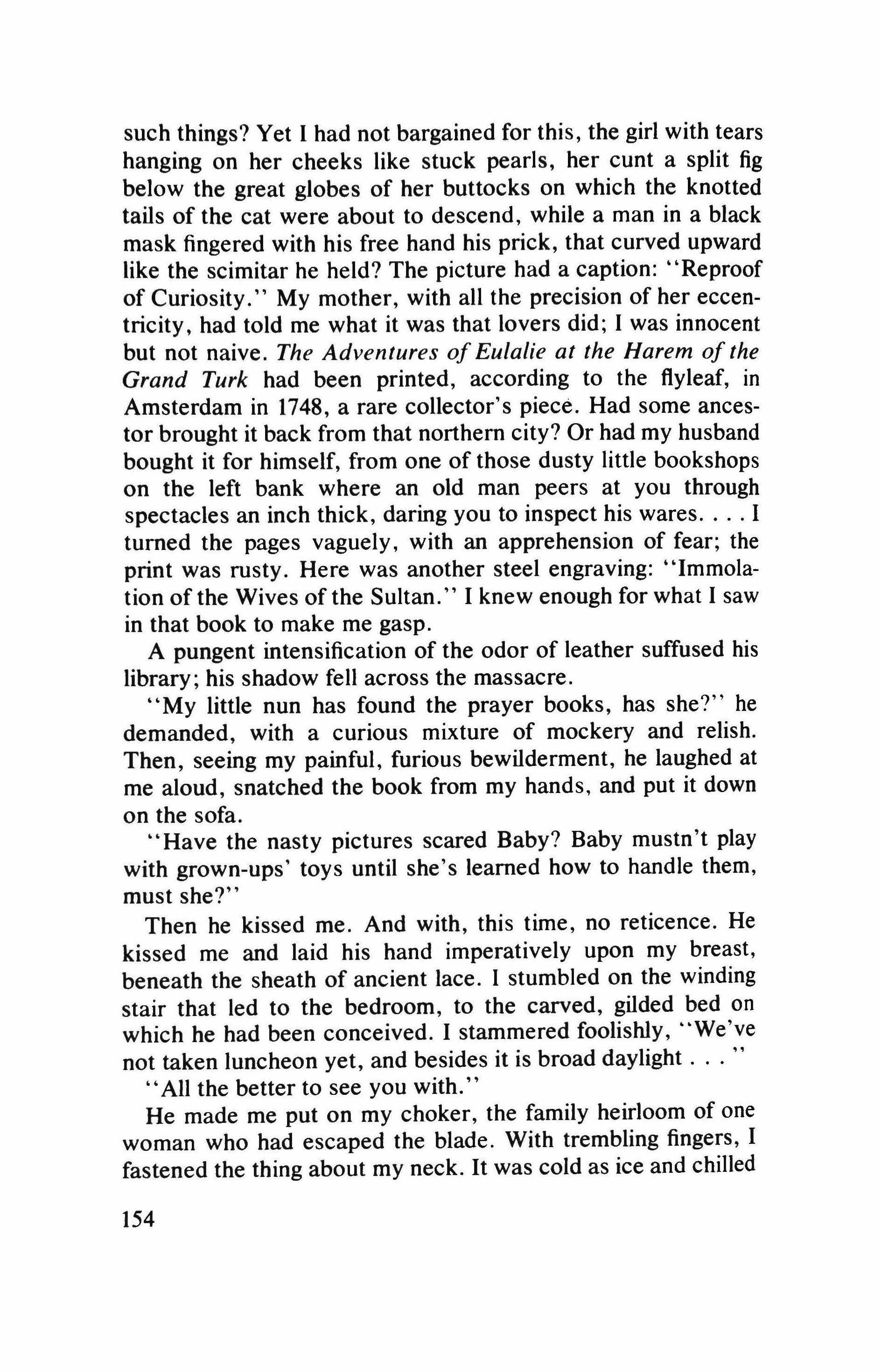
such things? Yet I had not bargained for this, the girl with tears hanging on her cheeks like stuck pearls, her cunt a split fig below the great globes of her buttocks on which the knotted tails of the cat were about to descend, while a man in a black mask fingered with his free hand his prick, that curved upward like the scimitar he held? The picture had a caption: "Reproof of Curiosity. My mother, with all the precision of her eccentricity, had told me what it was that lovers did; I was innocent but not naive. The Adventures of Eulalie at the Harem of the Grand Turk had been printed, according to the flyleaf, in Amsterdam in 1748, a rare collector's piece. Had some ancestor brought it back from that northern city? Or had my husband bought it for himself, from one of those dusty little bookshops on the left bank where an old man peers at you through spectacles an inch thick, daring you to inspect his wares I turned the pages vaguely, with an apprehension of fear; the print was rusty. Here was another steel engraving: 'Immolation of the Wives of the Sultan. I knew enough for what I saw in that book to make me gasp.
A pungent intensification of the odor of leather suffused his library; his shadow fell across the massacre.
"My little nun has found the prayer books, has she?" he demanded, with a curious mixture of mockery and relish. Then, seeing my painful, furious bewilderment, he laughed at me aloud, snatched the book from my hands, and put it down on the sofa.
"Have the nasty pictures scared Baby? Baby mustn't play with grown-ups' toys until she's learned how to handle them, must she?"
Then he kissed me. And with, this time, no reticence. He kissed me and laid his hand imperatively upon my breast, beneath the sheath of ancient lace. I stumbled on the winding stair that led to the bedroom, to the carved, gilded bed on which he had been conceived. I stammered foolishly, "We've not taken luncheon yet, and besides it is broad daylight
All the better to see you with."
He made me put on my choker, the family heirloom of one woman who had escaped the blade. With trembling fingers, I fastened the thing about my neck. It was cold as ice and chilled
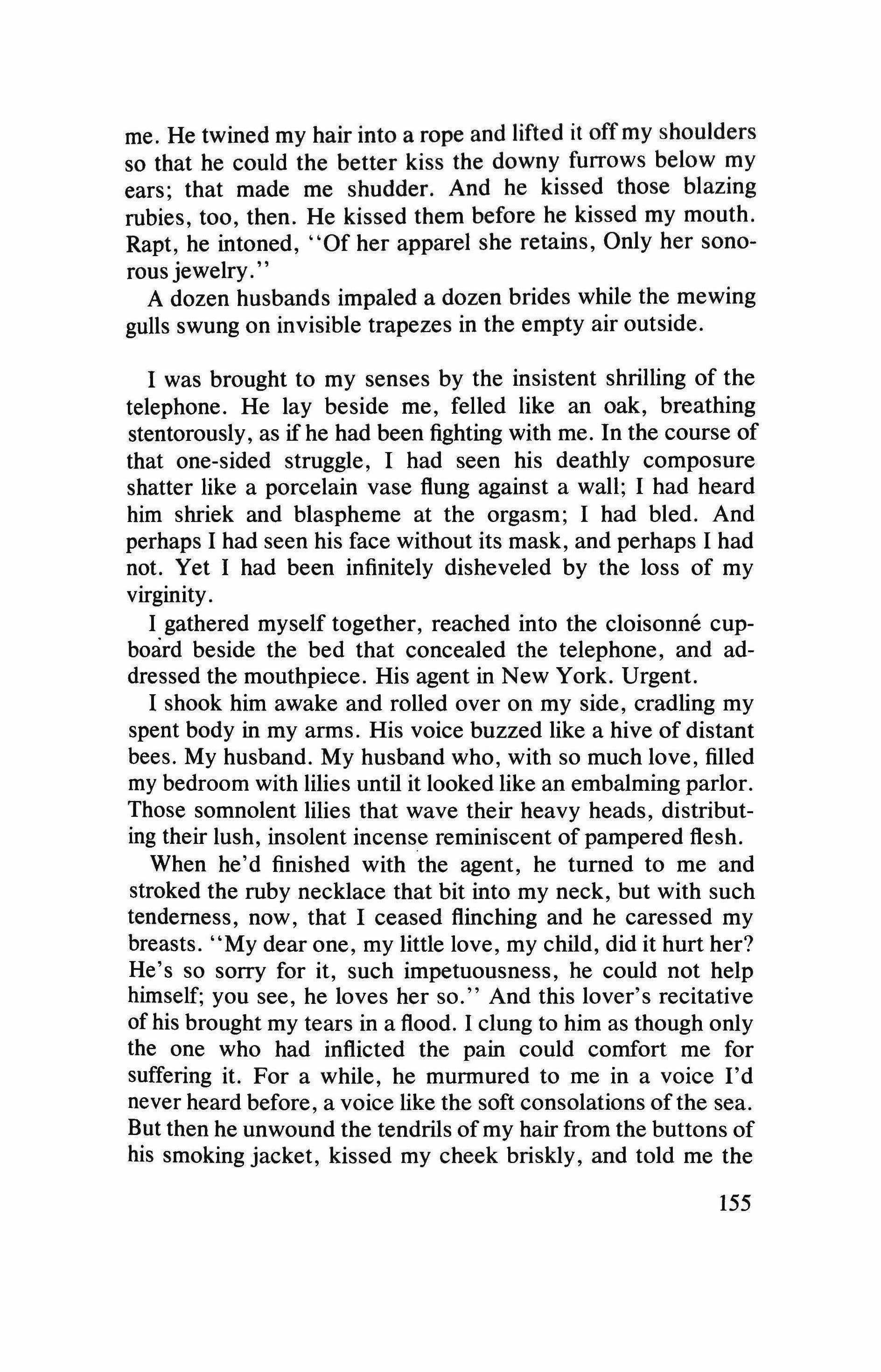
me. He twined my hair into a rope and lifted it off my shoulders so that he could the better kiss the downy furrows below my ears; that made me shudder. And he kissed those blazing rubies, too, then. He kissed them before he kissed my mouth. Rapt, he intoned, "Of her apparel she retains, Only her sonorous jewelry.
A dozen husbands impaled a dozen brides while the mewing gulls swung on invisible trapezes in the empty air outside.
I was brought to my senses by the insistent shrilling of the telephone. He lay beside me, felled like an oak, breathing stentorously, as if he had been fighting with me. In the course of that one-sided struggle, I had seen his deathly composure shatter like a porcelain vase flung against a wall; I had heard him shriek and blaspheme at the orgasm; I had bled. And perhaps I had seen his face without its mask, and perhaps I had not. Yet I had been infinitely disheveled by the loss of my virginity.
I gathered myself together, reached into the cloisonne cupboard beside the bed that concealed the telephone, and addressed the mouthpiece. His agent in New York. Urgent.
I shook him awake and rolled over on my side, cradling my spent body in my arms. His voice buzzed like a hive of distant bees. My husband. My husband who, with so much love, filled my bedroom with lilies until it looked like an embalming parlor. Those somnolent lilies that wave their heavy heads, distributing their lush, insolent incense reminiscent of pampered flesh.
When he'd finished with the agent, he turned to me and stroked the ruby necklace that bit into my neck, but with such tenderness, now, that I ceased flinching and he caressed my breasts. "My dear one, my little love, my child, did it hurt her? He's so sorry for it, such impetuousness, he could not help himself; you see, he loves her so." And this lover's recitative of his brought my tears in a flood. I clung to him as though only the one who had inflicted the pain could comfort me for suffering it. For a while, he murmured to me in a voice I'd never heard before, a voice like the soft consolations of the sea. But then he unwound the tendrils of my hair from the buttons of his smoking jacket, kissed my cheek briskly, and told me the
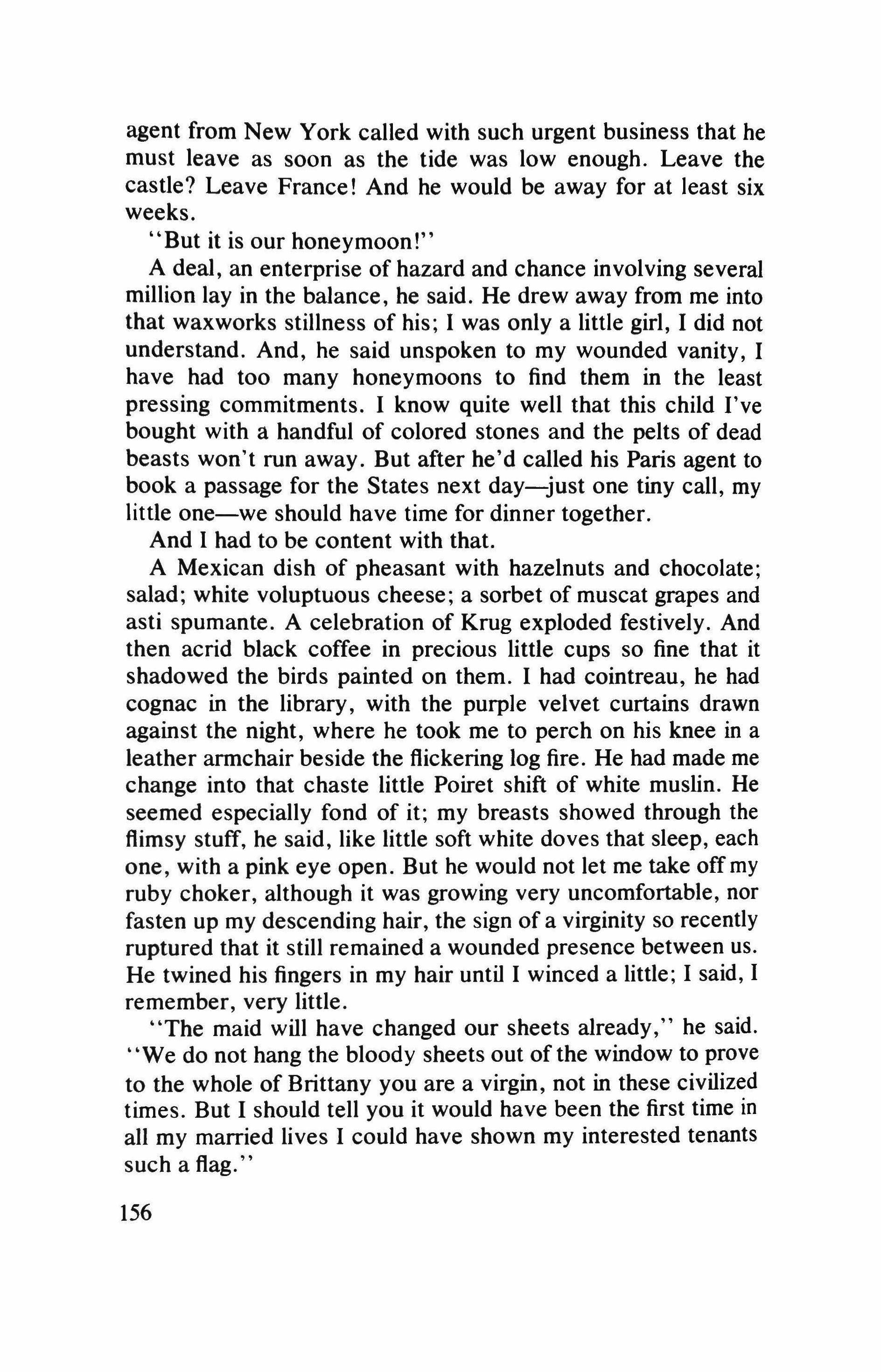
agent from New York called with such urgent business that he must leave as soon as the tide was low enough. Leave the castle? Leave France! And he would be away for at least six weeks.
"But it is our honeymoon!"
A deal, an enterprise of hazard and chance involving several million lay in the balance, he said. He drew away from me into that waxworks stillness of his; I was only a little girl, I did not understand. And, he said unspoken to my wounded vanity, I have had too many honeymoons to find them in the least pressing commitments. I know quite well that this child I've bought with a handful of colored stones and the pelts of dead beasts won't run away. But after he'd called his Paris agent to book a passage for the States next day-just one tiny call, my little one-we should have time for dinner together. And I had to be content with that.
A Mexican dish of pheasant with hazelnuts and chocolate; salad; white voluptuous cheese; a sorbet of muscat grapes and asti spumante. A celebration of Krug exploded festively. And then acrid black coffee in precious little cups so fine that it shadowed the birds painted on them. I had cointreau, he had cognac in the library, with the purple velvet curtains drawn against the night, where he took me to perch on his knee in a leather armchair beside the flickering log fire. He had made me change into that chaste little Poiret shift of white muslin. He seemed especially fond of it; my breasts showed through the flimsy stuff, he said, like little soft white doves that sleep, each one, with a pink eye open. But he would not let me take off my ruby choker, although it was growing very uncomfortable, nor fasten up my descending hair, the sign of a virginity so recently ruptured that it still remained a wounded presence between us. He twined his fingers in my hair until I winced a little; I said, I remember, very little.
"The maid will have changed our sheets already," he said. "We do not hang the bloody sheets out of the window to prove to the whole of Brittany you are a virgin, not in these civilized times. But I should tell you it would have been the first time in all my married lives I could have shown my interested tenants such a flag."
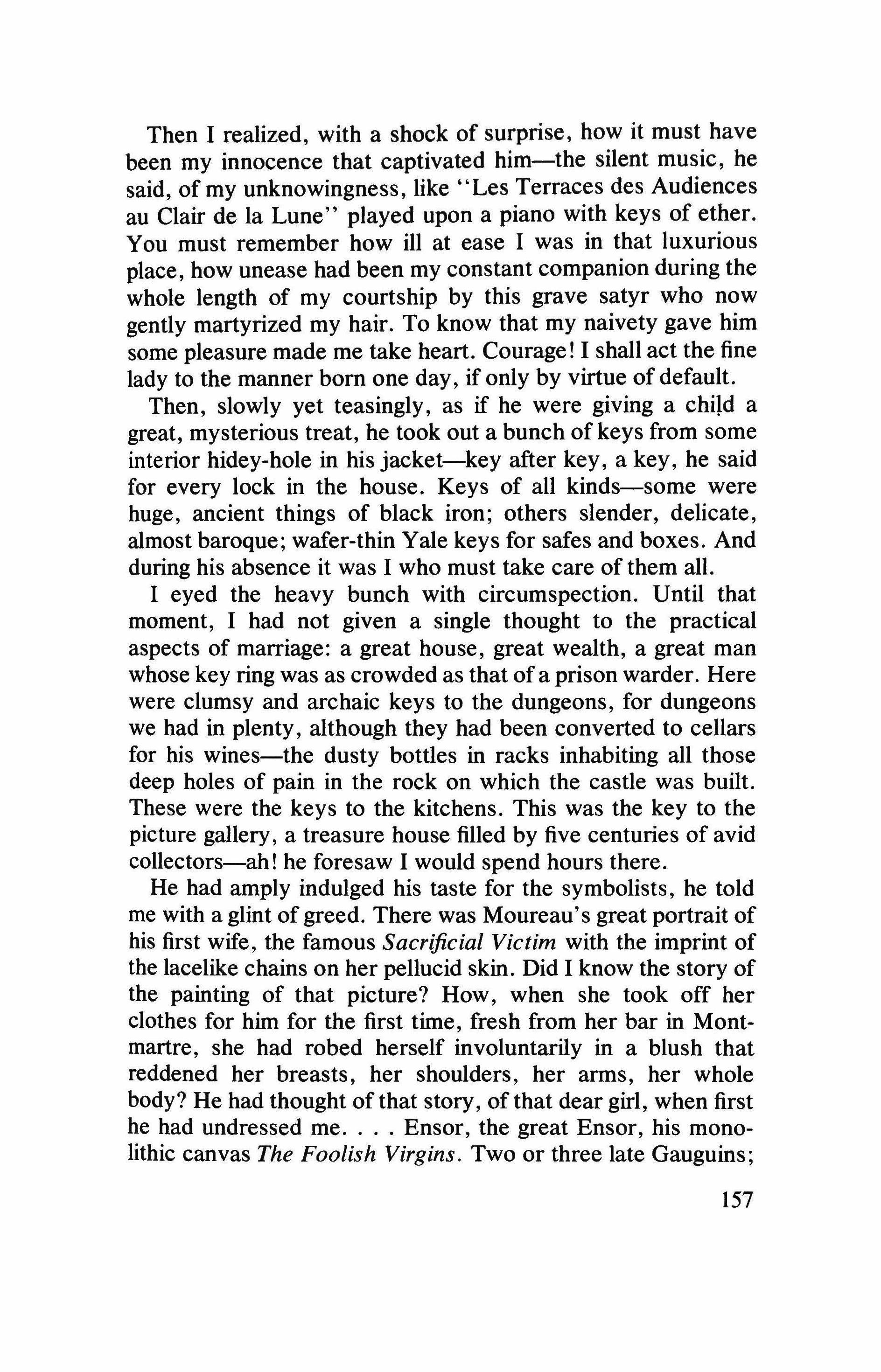
Then I realized, with a shock of surprise, how it must have been my innocence that captivated him-the silent music, he said, of my unknowingness, like "Les Terraces des Audiences au Clair de la Lune" played upon a piano with keys of ether. You must remember how ill at ease I was in that luxurious place, how unease had been my constant companion during the whole length of my courtship by this grave satyr who now gently martyrized my hair. To know that my naivety gave him some pleasure made me take heart. Courage! I shall act the fine lady to the manner born one day, if only by virtue of default.
Then, slowly yet teasingly, as if he were giving a child a great, mysterious treat, he took out a bunch of keys from some interior hidey-hole in his jacket-key after key, a key, he said for every lock in the house. Keys of all kinds-some were huge, ancient things of black iron; others slender, delicate, almost baroque; wafer-thin Yale keys for safes and boxes. And during his absence it was I who must take care of them all.
I eyed the heavy bunch with circumspection. Until that moment, I had not given a single thought to the practical aspects of marriage: a great house, great wealth, a great man whose key ring was as crowded as that of a prison warder. Here were clumsy and archaic keys to the dungeons, for dungeons we had in plenty, although they had been converted to cellars for his wines-the dusty bottles in racks inhabiting all those deep holes of pain in the rock on which the castle was built. These were the keys to the kitchens. This was the key to the picture gallery, a treasure house filled by five centuries of avid collectors-ah! he foresaw I would spend hours there.
He had amply indulged his taste for the symbolists, he told me with a glint of greed. There was Moureau' s great portrait of his first wife, the famous Sacrificial Victim with the imprint of the lacelike chains on her pellucid skin. Did I know the story of the painting of that picture? How, when she took off her clothes for him for the first time, fresh from her bar in Montmartre, she had robed herself involuntarily in a blush that reddened her breasts, her shoulders, her arms, her whole body? He had thought of that story, of that dear girl, when first he had undressed me Ensor, the great Ensor, his monolithic canvas The Foolish Virgins. Two or three late Gauguins;
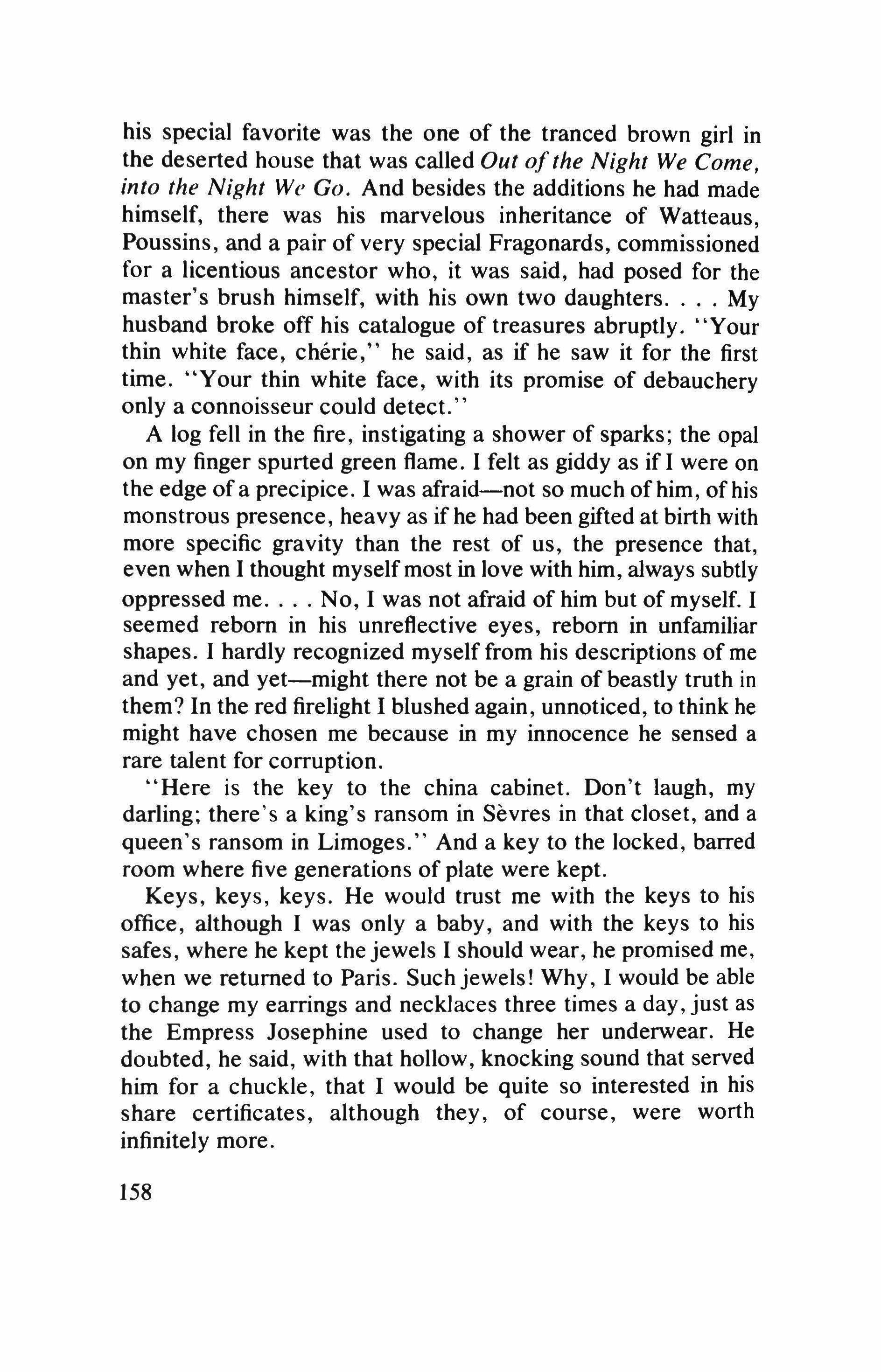
his special favorite was the one of the tranced brown girl in the deserted house that was called Out ofthe Night We Come, into the Night We Go. And besides the additions he had made himself, there was his marvelous inheritance of Watteaus, Poussins, and a pair of very special Fragonards, commissioned for a licentious ancestor who, it was said, had posed for the master's brush himself, with his own two daughters My husband broke off his catalogue of treasures abruptly. "Your thin white face, cherie;" he said, as if he saw it for the first time. "Your thin white face, with its promise of debauchery only a connoisseur could detect.
A log fell in the fire, instigating a shower of sparks; the opal on my finger spurted green flame. I felt as giddy as if I were on the edge ofa precipice. I was afraid-not so much of him, of his monstrous presence, heavy as if he had been gifted at birth with more specific gravity than the rest of us, the presence that, even when I thought myself most in love with him, always subtly oppressed me No, I was not afraid of him but of myself. I seemed reborn in his unreflective eyes, reborn in unfamiliar shapes. I hardly recognized myself from his descriptions of me and yet, and yet-might there not be a grain of beastly truth in them? In the red firelight I blushed again, unnoticed, to think he might have chosen me because in my innocence he sensed a rare talent for corruption.
"Here is the key to the china cabinet. Don't laugh, my darling; there's a king's ransom in Sevres in that closet, and a queen's ransom in Limoges." And a key to the locked, barred room where five generations of plate were kept.
Keys, keys, keys. He would trust me with the keys to his office, although I was only a baby, and with the keys to his safes, where he kept the jewels I should wear, he promised me, when we returned to Paris. Such jewels! Why, I would be able to change my earrings and necklaces three times a day, just as the Empress Josephine used to change her underwear. He doubted, he said, with that hollow, knocking sound that served him for a chuckle, that I would be quite so interested in his share certificates, although they, of course, were worth infinitely more.
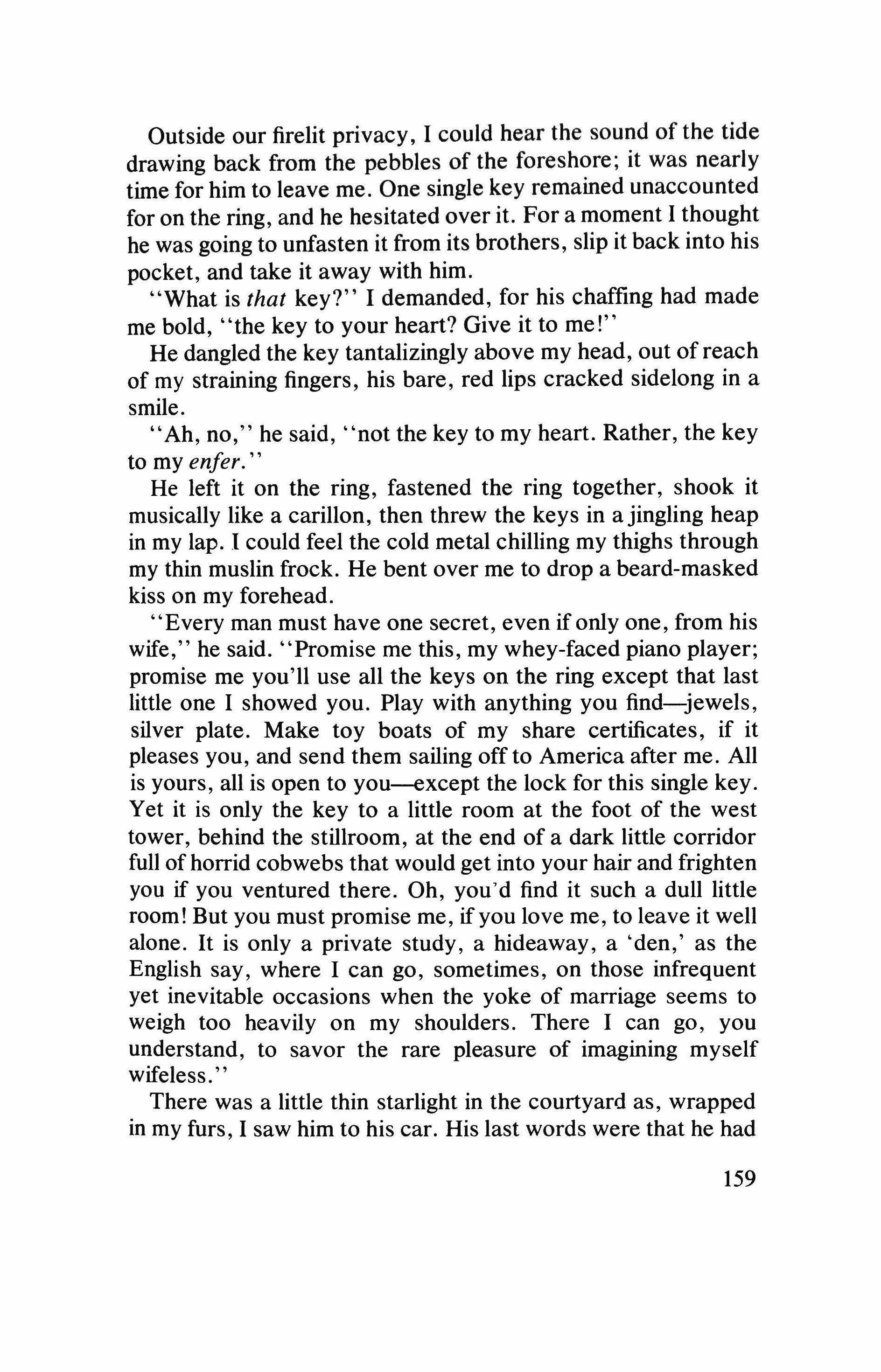
Outside our firelit privacy, I could hear the sound of the tide drawing back from the pebbles of the foreshore; it was nearly time for him to leave me. One single key remained unaccounted for on the ring, and he hesitated over it. For a moment I thought he was going to unfasten it from its brothers, slip it back into his pocket, and take it away with him.
"What is that key?" I demanded, for his chaffing had made me bold, "the key to your heart? Give it to me!"
He dangled the key tantalizingly above my head, out of reach of my straining fingers, his bare, red lips cracked sidelong in a smile.
"Ah, no," he said, "not the key to my heart. Rather, the key to my enfer.
He left it on the ring, fastened the ring together, shook it musically like a carillon, then threw the keys in a jingling heap in my lap. I could feel the cold metal chilling my thighs through my thin muslin frock. He bent over me to drop a beard-masked kiss on my forehead.
"Every man must have one secret, even if only one, from his wife," he said. "Promise me this, my whey-faced piano player; promise me you'll use all the keys on the ring except that last little one I showed you. Play with anything you find-jewels, silver plate. Make toy boats of my share certificates, if it pleases you, and send them sailing off to America after me. All is yours, all is open to you-except the lock for this single key. Yet it is only the key to a little room at the foot of the west tower, behind the stillroom, at the end of a dark little corridor full of horrid cobwebs that would get into your hair and frighten you if you ventured there. Oh, you'd find it such a dull little room! But you must promise me, if you love me, to leave it well alone. It is only a private study, a hideaway, a 'den,' as the English say, where I can go, sometimes, on those infrequent yet inevitable occasions when the yoke of marriage seems to weigh too heavily on my shoulders. There I can go, you understand, to savor the rare pleasure of imagining myself wifeless. "
There was a little thin starlight in the courtyard as, wrapped in my furs, I saw him to his car. His last words were that he had
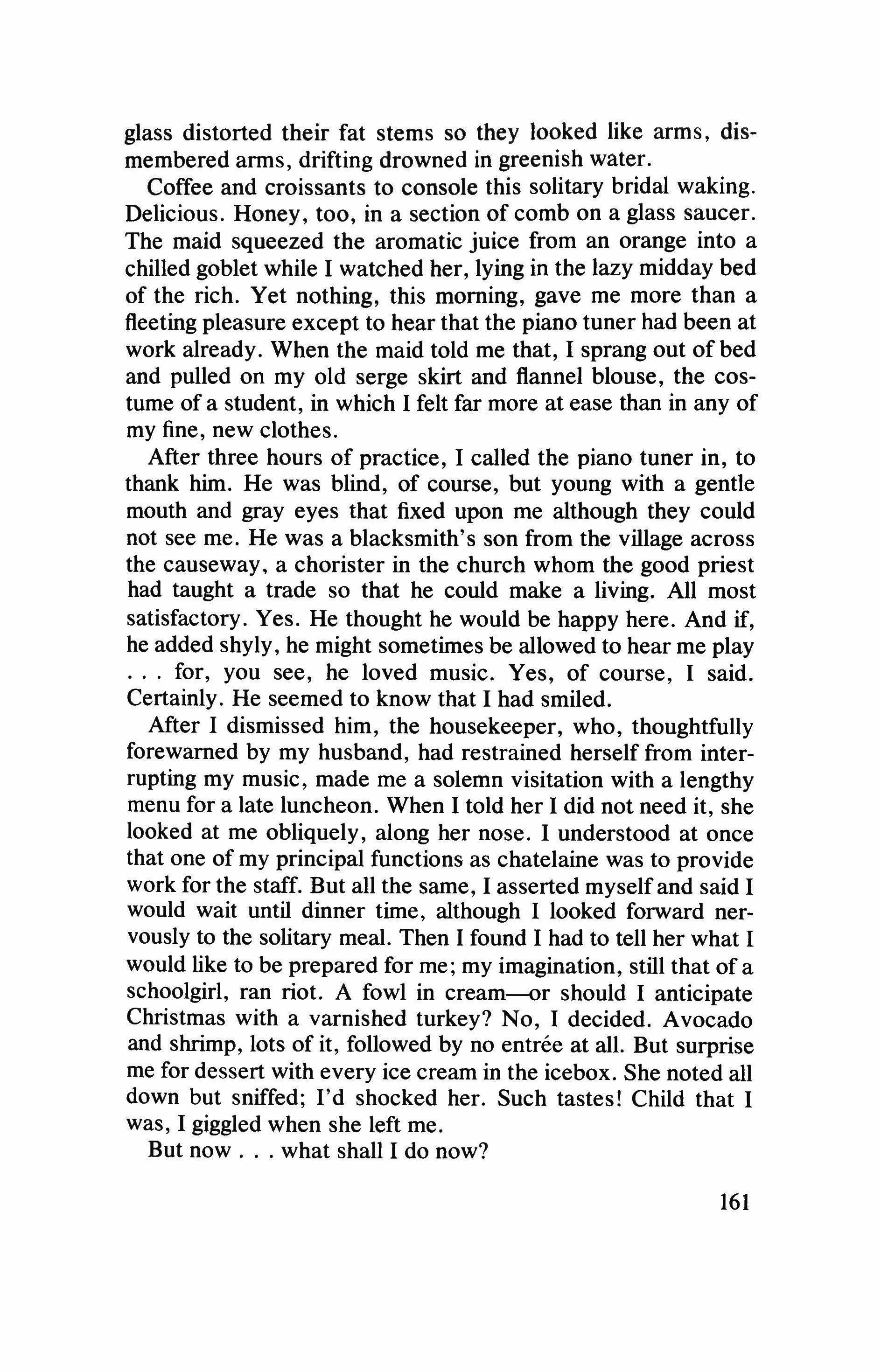
glass distorted their fat stems so they looked like arms, dismembered arms, drifting drowned in greenish water.
Coffee and croissants to console this solitary bridal waking. Delicious. Honey, too, in a section of comb on a glass saucer. The maid squeezed the aromatic juice from an orange into a chilled goblet while I watched her, lying in the lazy midday bed of the rich. Yet nothing, this morning, gave me more than a fleeting pleasure except to hear that the piano tuner had been at work already. When the maid told me that, I sprang out of bed and pulled on myoid serge skirt and flannel blouse, the costume of a student, in which I felt far more at ease than in any of my fine, new clothes.
After three hours of practice, I called the piano tuner in, to thank him. He was blind, of course, but young with a gentle mouth and gray eyes that fixed upon me although they could not see me. He was a blacksmith's son from the village across the causeway, a chorister in the church whom the good priest had taught a trade so that he could make a living. All most satisfactory. Yes. He thought he would be happy here. And if, he added shyly, he might sometimes be allowed to hear me play for, you see, he loved music. Yes, of course, I said. Certainly. He seemed to know that I had smiled.
After I dismissed him, the housekeeper, who, thoughtfully forewarned by my husband, had restrained herself from interrupting my music, made me a solemn visitation with a lengthy menu for a late luncheon. When I told her I did not need it, she looked at me obliquely, along her nose. I understood at once that one of my principal functions as chatelaine was to provide work for the staff. But all the same, I asserted myself and said I would wait until dinner time, although I looked forward nervously to the solitary meal. Then I found I had to tell her what I would like to be prepared for me; my imagination, still that of a schoolgirl, ran riot. A fowl in cream--or should I anticipate Christmas with a varnished turkey? No, I decided. Avocado and shrimp, lots of it, followed by no entree at all. But surprise me for dessert with every ice cream in the icebox. She noted all down but sniffed; I'd shocked her. Such tastes! Child that I was, I giggled when she left me.
But now what shall I do now?
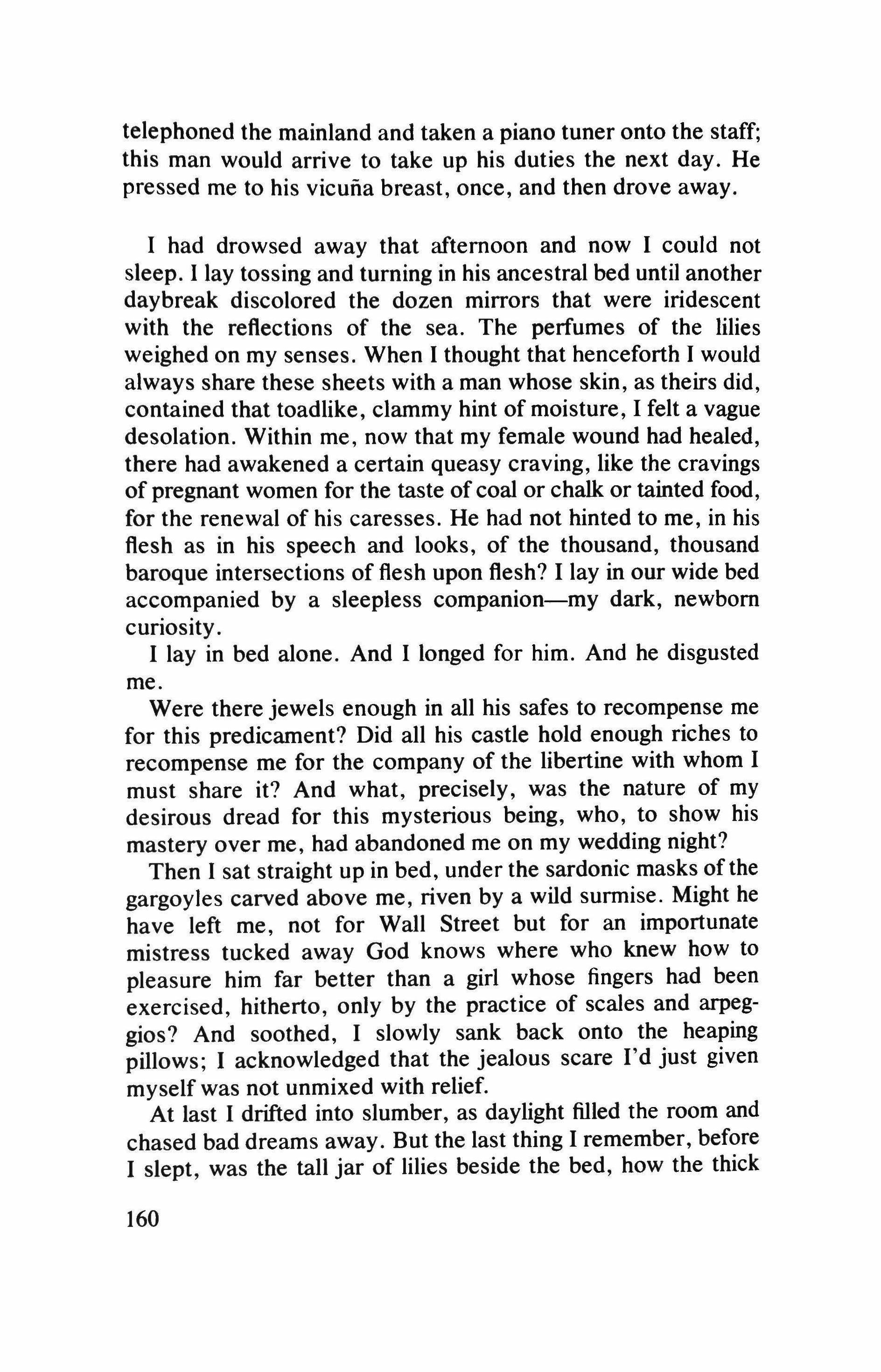
telephoned the mainland and taken a piano tuner onto the staff; this man would arrive to take up his duties the next day. He pressed me to his vicuna breast, once, and then drove away.
I had drowsed away that afternoon and now I could not sleep. I lay tossing and turning in his ancestral bed until another daybreak discolored the dozen mirrors that were iridescent with the reflections of the sea. The perfumes of the lilies weighed on my senses. When I thought that henceforth I would always share these sheets with a man whose skin, as theirs did, contained that toadlike, clammy hint of moisture, I felt a vague desolation. Within me, now that my female wound had healed, there had awakened a certain queasy craving, like the cravings of pregnant women for the taste of coal or chalk or tainted food, for the renewal of his caresses. He had not hinted to me, in his flesh as in his speech and looks, of the thousand, thousand baroque intersections of flesh upon flesh? I lay in our wide bed accompanied by a sleepless companion-my dark, newborn curiosity.
I lay in bed alone. And I longed for him. And he disgusted me.
Were there jewels enough in all his safes to recompense me for this predicament? Did all his castle hold enough riches to recompense me for the company of the libertine with whom I must share it? And what, precisely, was the nature of my desirous dread for this mysterious being, who, to show his mastery over me, had abandoned me on my wedding night?
Then I sat straight up in bed, under the sardonic masks of the gargoyles carved above me, riven by a wild surmise. Might he have left me, not for Wall Street but for an importunate mistress tucked away God knows where who knew how to pleasure him far better than a girl whose fingers had been exercised, hitherto, only by the practice of scales and arpeggios? And soothed, I slowly sank back onto the heaping pillows; I acknowledged that the jealous scare I'd just given myself was not unmixed with relief.
At last I drifted into slumber, as daylight filled the room and chased bad dreams away. But the last thing I remember, before I slept, was the tall jar of lilies beside the bed, how the thick
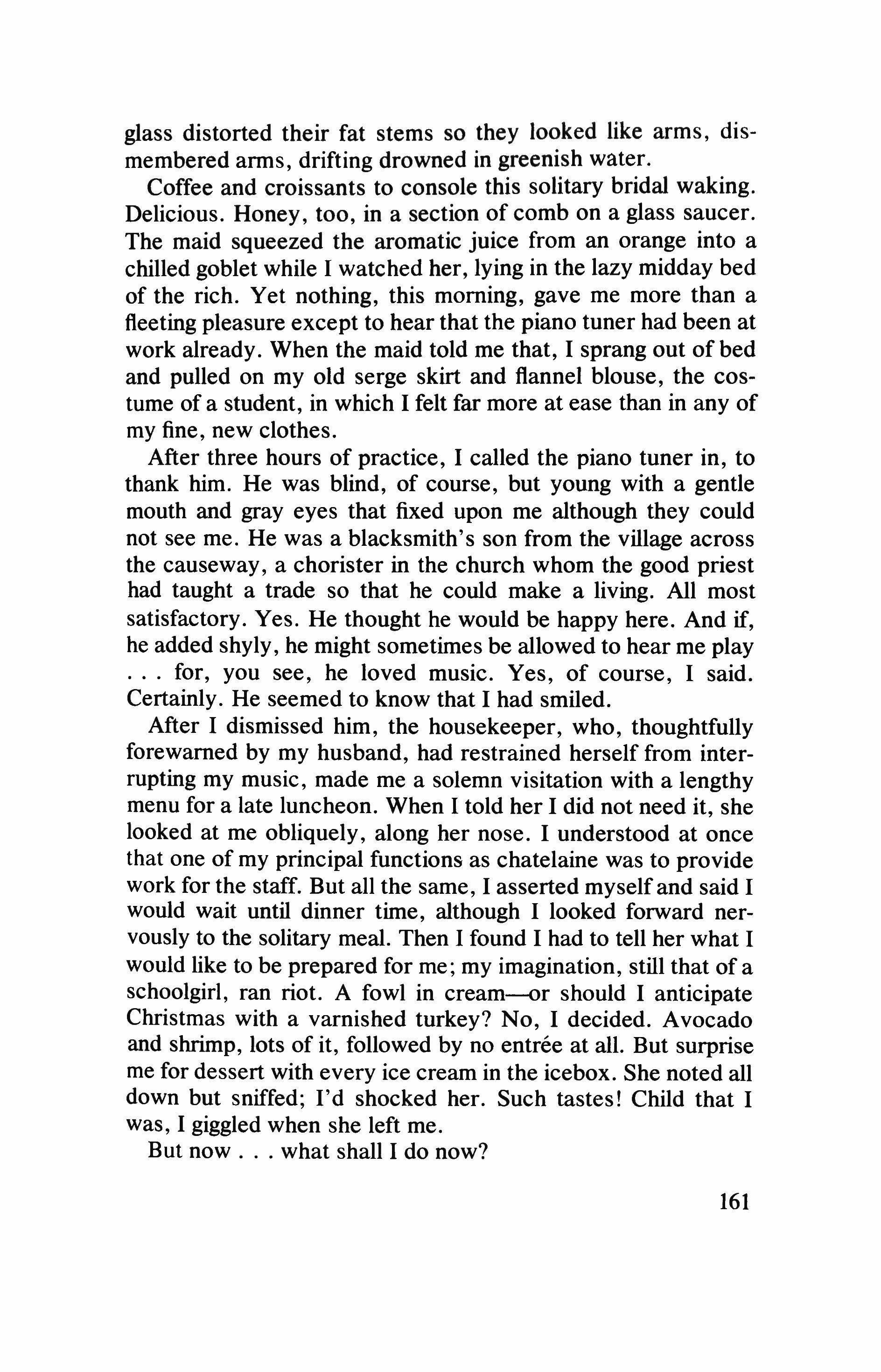
glass distorted their fat stems so they looked like arms, dismembered arms, drifting drowned in greenish water.
Coffee and croissants to console this solitary bridal waking. Delicious. Honey, too, in a section of comb on a glass saucer. The maid squeezed the aromatic juice from an orange into a chilled goblet while I watched her, lying in the lazy midday bed of the rich. Yet nothing, this morning, gave me more than a fleeting pleasure except to hear that the piano tuner had been at work already. When the maid told me that, I sprang out of bed and pulled on myoid serge skirt and flannel blouse, the costume of a student, in which I felt far more at ease than in any of my fine, new clothes.
After three hours of practice, I called the piano tuner in, to thank him. He was blind, of course, but young with a gentle mouth and gray eyes that fixed upon me although they could not see me. He was a blacksmith's son from the village across the causeway, a chorister in the church whom the good priest had taught a trade so that he could make a living. All most satisfactory. Yes. He thought he would be happy here. And if, he added shyly, he might sometimes be allowed to hear me play for, you see, he loved music. Yes, of course, I said. Certainly. He seemed to know that I had smiled.
After I dismissed him, the housekeeper, who, thoughtfully forewarned by my husband, had restrained herself from interrupting my music, made me a solemn visitation with a lengthy menu for a late luncheon. When I told her I did not need it, she looked at me obliquely, along her nose. I understood at once that one of my principal functions as chatelaine was to provide work for the staff. But all the same, I asserted myself and said I would wait until dinner time, although I looked forward nervously to the solitary meal. Then I found I had to tell her what I would like to be prepared for me; my imagination, still that of a schoolgirl, ran riot. A fowl in cream-or should I anticipate Christmas with a varnished turkey? No, I decided. Avocado and shrimp, lots of it, followed by no entree at all. But surprise me for dessert with every ice cream in the icebox. She noted all down but sniffed; I'd shocked her. Such tastes! Child that I was, I giggled when she left me.
But now what shall I do now?
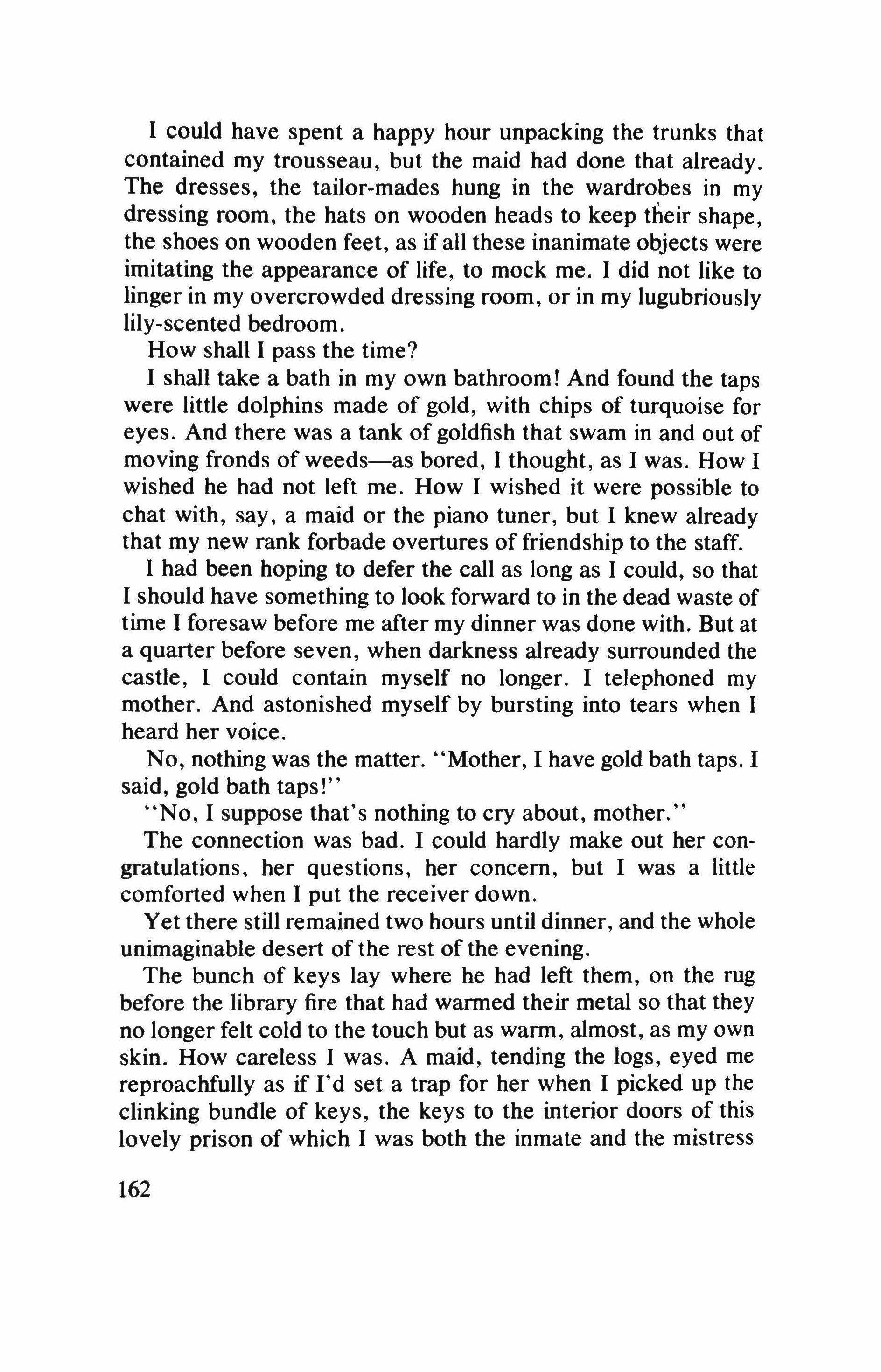
I could have spent a happy hour unpacking the trunks that contained my trousseau, but the maid had done that already. The dresses, the tailor-mades hung in the wardrobes in my dressing room, the hats on wooden heads to keep their shape, the shoes on wooden feet, as if all these inanimate objects were imitating the appearance of life, to mock me. I did not like to linger in my overcrowded dressing room, or in my lugubriously lily-scented bedroom.
How shall I pass the time?
I shall take a bath in my own bathroom! And found the taps were little dolphins made of gold, with chips of turquoise for eyes. And there was a tank of goldfish that swam in and out of moving fronds of weeds-as bored, I thought, as I was. How I wished he had not left me. How I wished it were possible to chat with, say, a maid or the piano tuner, but I knew already that my new rank forbade overtures of friendship to the staff.
I had been hoping to defer the call as long as I could, so that I should have something to look forward to in the dead waste of time I foresaw before me after my dinner was done with. But at a quarter before seven, when darkness already surrounded the castle, I could contain myself no longer. I telephoned my mother. And astonished myself by bursting into tears when I heard her voice.
No, nothing was the matter. "Mother, I have gold bath taps. I said, gold bath taps!"
"No, I suppose that's nothing to cry about, mother."
The connection was bad. I could hardly make out her congratulations, her questions, her concern, but I was a little comforted when I put the receiver down.
Yet there still remained two hours until dinner, and the whole unimaginable desert of the rest of the evening.
The bunch of keys lay where he had left them, on the rug before the library fire that had warmed their metal so that they no longer felt cold to the touch but as warm, almost, as my own skin. How careless I was. A maid, tending the logs, eyed me reproachfully as if I'd set a trap for her when I picked up the clinking bundle of keys, the keys to the interior doors of this lovely prison of which I was both the inmate and the mistress
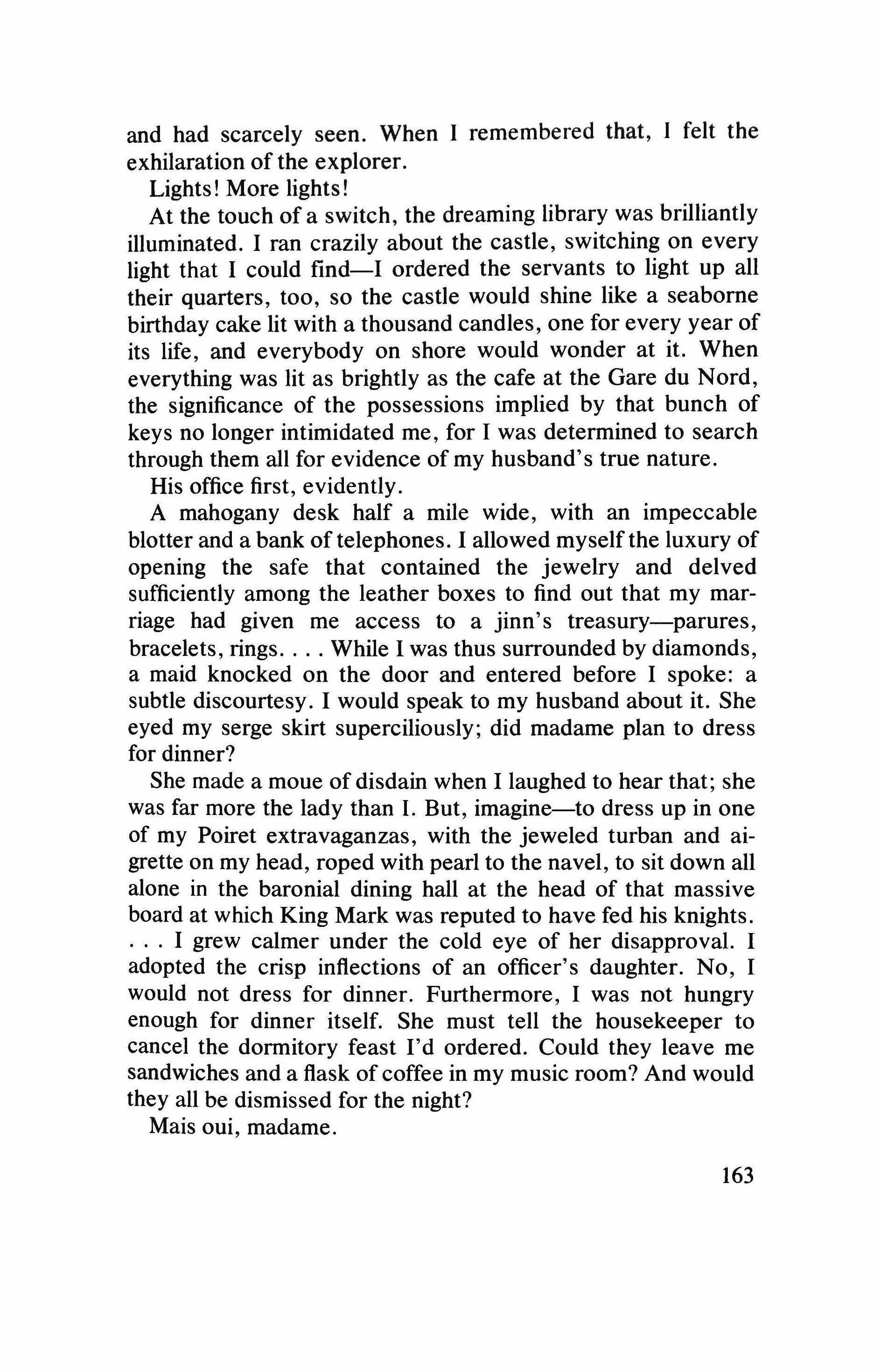
and had scarcely seen. When I remembered that, I felt the exhilaration of the explorer.
At the touch of a switch, the dreaming library was brilliantly illuminated. I ran crazily about the castle, switching on every light that I could find-I ordered the servants to light up all their quarters, too, so the castle would shine like a seaborne birthday cake lit with a thousand candles, one for every year of its life, and everybody on shore would wonder at it. When everything was lit as brightly as the cafe at the Gare du Nord, the significance of the possessions implied by that bunch of keys no longer intimidated me, for I was determined to search through them all for evidence of my husband's true nature.
His office first, evidently.
A mahogany desk half a mile wide, with an impeccable blotter and a bank of telephones. I allowed myselfthe luxury of opening the safe that contained the jewelry and delved sufficiently among the leather boxes to find out that my marriage had given me access to a jinn's treasury-parures, bracelets, rings While I was thus surrounded by diamonds, a maid knocked on the door and entered before I spoke: a subtle discourtesy. I would speak to my husband about it. She eyed my serge skirt superciliously; did madame plan to dress for dinner?
She made a moue of disdain when I laughed to hear that; she was far more the lady than I. But, imagine-to dress up in one of my Poiret extravaganzas, with the jeweled turban and aigrette on my head, roped with pearl to the navel, to sit down all alone in the baronial dining hall at the head of that massive board at which King Mark was reputed to have fed his knights. I grew calmer under the cold eye of her disapproval. I adopted the crisp inflections of an officer's daughter. No, I would not dress for dinner. Furthermore, I was not hungry enough for dinner itself. She must tell the housekeeper to cancel the dormitory feast I'd ordered. Could they leave me sandwiches and a flask of coffee in my music room? And would they all be dismissed for the night?
Mais oui, madame.

I knew by her bereft intonation that I had let them down again, but I did not care; I was armed against them by the brilliance of his hoard. But I would not find his heart among the glittering stones. As soon as she had gone, I began a systematic search of the drawers of his desk.
All was in order, so I found nothing. Not a random doodle on an old envelope, nor the faded photograph of a woman. Only the files of business correspondence, the bills from the home farms, the invoices from tailors, the billets-doux from international financiers. Nothing. And this absence of the evidence of his real life began to impress me strangely; there must, I thought, be a great deal to conceal if he takes such pains to hide it.
His office was a singularly impersonal room, facing inward onto the courtyard, as though he wanted to tum his back on the siren sea in order to keep a clear head while he bankrupted a small businessman in Amsterdam or-I noticed with a small thrill of distaste-engaged in some business in Laos that must, from certain cryptic references to his amateur botanist's enthusiasm for rare poppies, have to do with opium. Was he not rich enough to do without crime? Or was the crime itselfhis nrofit? And yet I saw enough to appreciate his zeal for secrecy.
Now I had ransacked his desk, I must spend a coolheaded quarter of an hour putting every last letter back where I had found it. As I covered the traces of my visit, by some chance, as I reached inside a little drawer that had stuck fast, I must have touched a hidden spring, for a secret drawer flew open within that drawer itself; and this secret drawer contained-at last!-a file marked "Personal."
I was alone, but for my reflection in the uncurtained window.
I had the brief notion that his heart, pressed flat as a flower, crimson and thin as tissue paper, lay in this file. It was a very thin one.
I could have wished, perhaps, I had not found that touching, ill-spelled note, on a paper napkin marked La Coupole, which began, "My darling, I cannot wait for the moment when you may make me yours completely." The diva had sent him a page of the score ofTristan, the"Liebestod," with the single cryptic
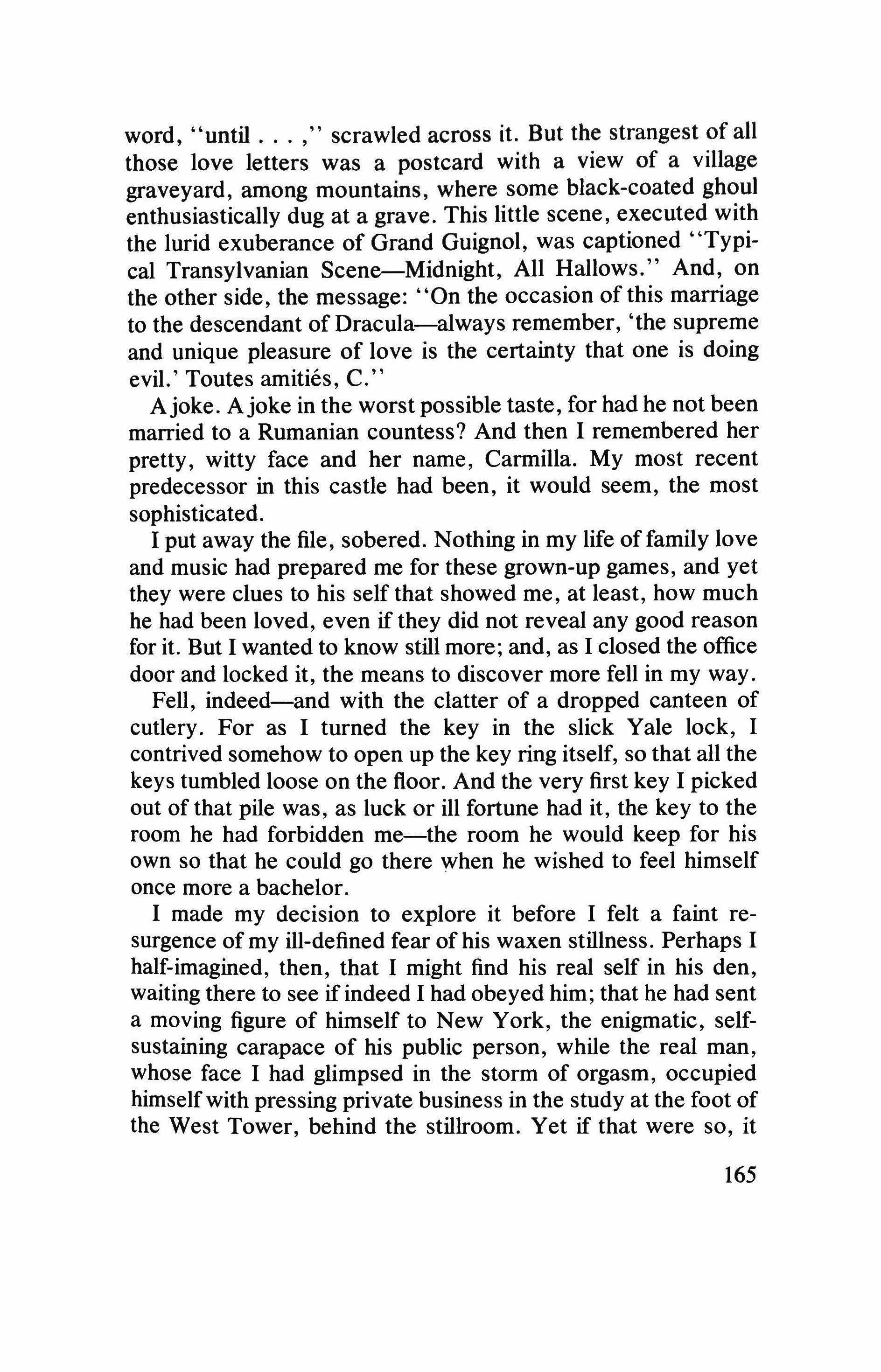
word, "until ," scrawled across it. But the strangest of all those love letters was a postcard with a view of a village graveyard, among mountains, where some black-coated ghoul enthusiastically dug at a grave. This little scene, executed with the lurid exuberance of Grand Guignol, was captioned''Typical Transylvanian Scene-Midnight, All Hallows." And, on the other side, the message: "On the occasion of this marriage to the descendant of Dracula-always remember, 'the supreme and unique pleasure of love is the certainty that one is doing evil.' Toutes amities, C."
Ajoke. Ajoke in the worst possible taste, for had he not been married to a Rumanian countess? And then I remembered her pretty, witty face and her name, Carmilla. My most recent predecessor in this castle had been, it would seem, the most sophisticated.
I put away the file, sobered. Nothing in my life of family love and music had prepared me for these grown-up games, and yet they were clues to his self that showed me, at least, how much he had been loved, even if they did not reveal any good reason for it. But I wanted to know still more; and, as I closed the office door and locked it, the means to discover more fell in my way. Fell, indeed-and with the clatter of a dropped canteen of cutlery. For as I turned the key in the slick Yale lock, I contrived somehow to open up the key ring itself, so that all the keys tumbled loose on the floor. And the very first key I picked out of that pile was, as luck or ill fortune had it, the key to the room he had forbidden me-the room he would keep for his own so that he could go there when he wished to feel himself once more a bachelor.
I made my decision to explore it before I felt a faint resurgence of my ill-defined fear of his waxen stillness. Perhaps I half-imagined, then, that I might find his real self in his den, waiting there to see if indeed I had obeyed him; that he had sent a moving figure of himself to New York, the enigmatic, selfsustaining carapace of his public person, while the real man, whose face I had glimpsed in the storm of orgasm, occupied himself with pressing private business in the study at the foot of the West Tower, behind the stillroom. Yet if that were so, it
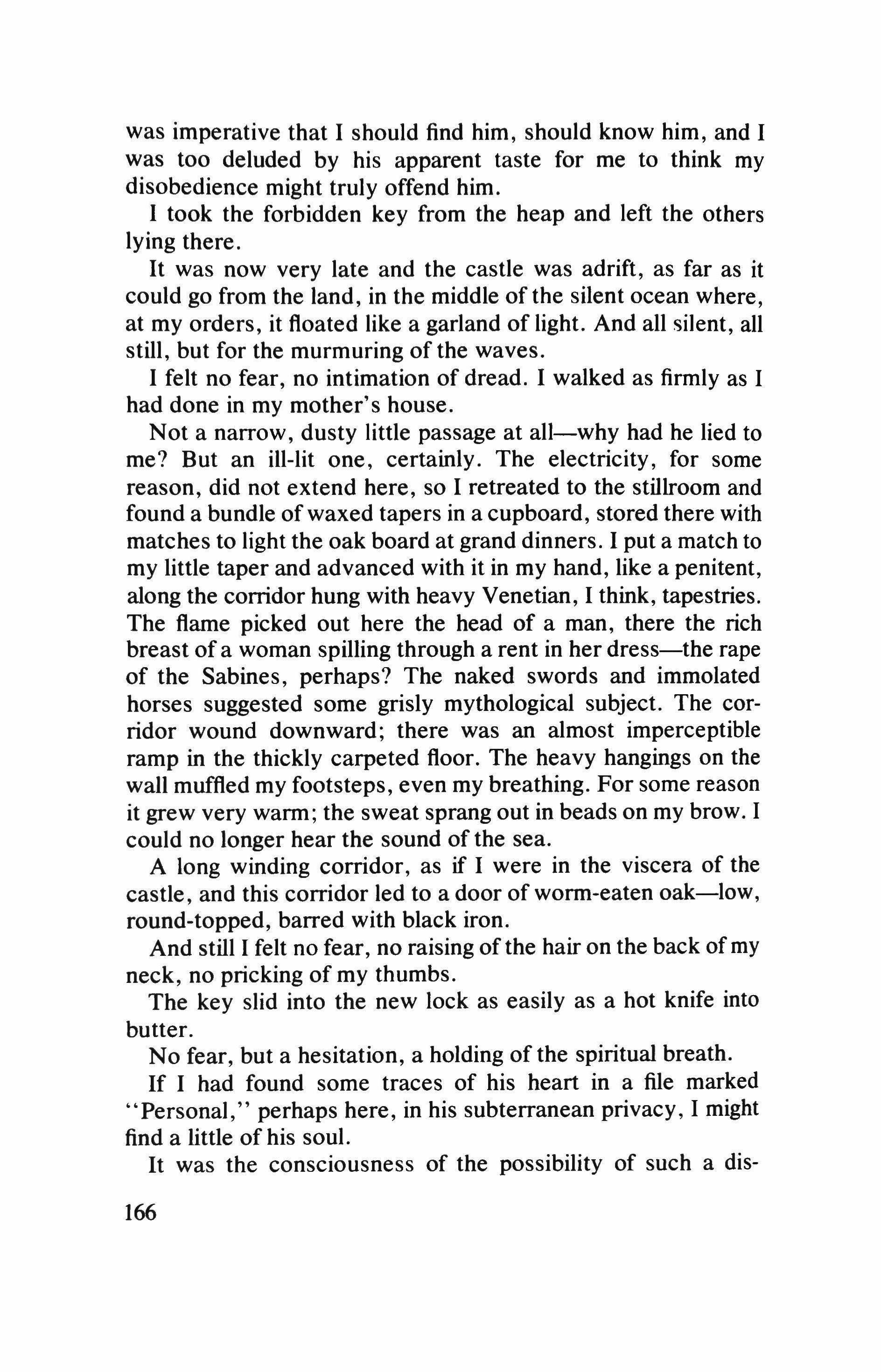
was imperative that I should find him, should know him, and I was too deluded by his apparent taste for me to think my disobedience might truly offend him.
I took the forbidden key from the heap and left the others lying there.
It was now very late and the castle was adrift, as far as it could go from the land, in the middle of the silent ocean where, at my orders, it floated like a garland of light. And all silent, all still, but for the murmuring of the waves.
I felt no fear, no intimation of dread. I walked as firmly as I had done in my mother's house.
Not a narrow, dusty little passage at all-why had he lied to me? But an ill-lit one, certainly. The electricity, for some reason, did not extend here, so I retreated to the stillroom and found a bundle of waxed tapers in a cupboard, stored there with matches to light the oak board at grand dinners. I put a match to my little taper and advanced with it in my hand, like a penitent, along the corridor hung with heavy Venetian, I think, tapestries. The flame picked out here the head of a man, there the rich breast of a woman spilling through a rent in her dress-the rape of the Sabines, perhaps? The naked swords and immolated horses suggested some grisly mythological subject. The corridor wound downward; there was an almost imperceptible ramp in the thickly carpeted floor. The heavy hangings on the wall muffled my footsteps, even my breathing. For some reason it grew very warm; the sweat sprang out in beads on my brow. I could no longer hear the sound of the sea.
A long winding corridor, as if I were in the viscera of the castle, and this corridor led to a door of worm-eaten oak-low, round-topped, barred with black iron.
And still I felt no fear, no raising of the hair on the back of my neck, no pricking of my thumbs.
The key slid into the new lock as easily as a hot knife into butter.
No fear, but a hesitation, a holding of the spiritual breath.
If I had found some traces of his heart in a file marked "Personal," perhaps here, in his subterranean privacy, I might find a little of his soul.
It was the consciousness of the possibility of such a dis-
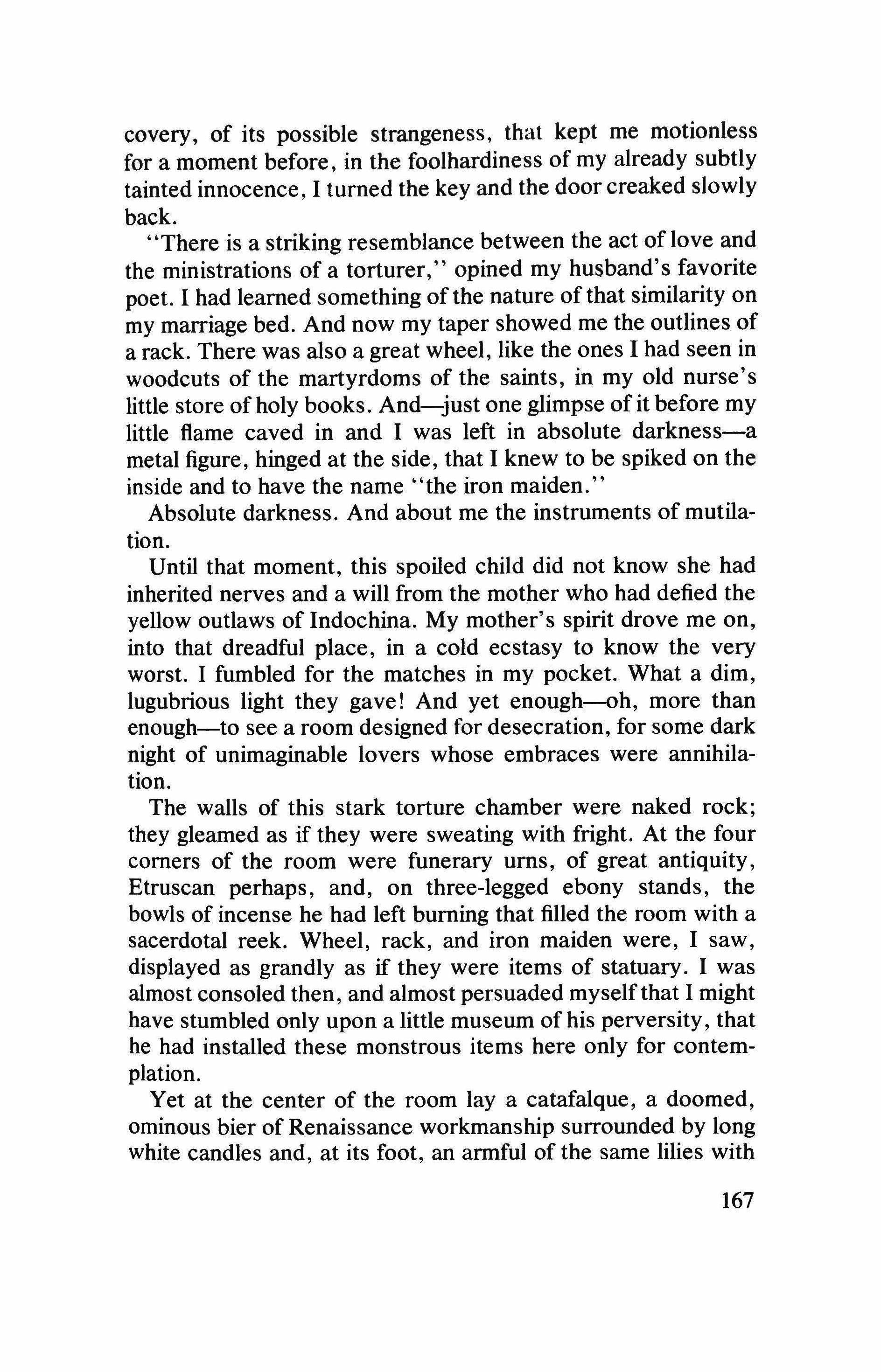
covery, of its possible strangeness, that kept me motionless for a moment before, in the foolhardiness of my already subtly tainted innocence, I turned the key and the door creaked slowly back.
"There is a striking resemblance between the act of love and the ministrations of a torturer," opined my husband's favorite poet. I had learned something of the nature of that similarity on my marriage bed. And now my taper showed me the outlines of a rack. There was also a great wheel, like the ones I had seen in woodcuts of the martyrdoms of the saints, in myoId nurse's little store of holy books. And-just one glimpse of it before my little flame caved in and I was left in absolute darkness-a metal figure, hinged at the side, that I knew to be spiked on the inside and to have the name "the iron maiden."
Absolute darkness. And about me the instruments of mutilation.
Until that moment, this spoiled child did not know she had inherited nerves and a will from the mother who had defied the yellow outlaws of Indochina. My mother's spirit drove me on, into that dreadful place, in a cold ecstasy to know the very worst. I fumbled for the matches in my pocket. What a dim, lugubrious light they gave! And yet enough-oh, more than enough-to see a room designed for desecration, for some dark night of unimaginable lovers whose embraces were annihilation.
The walls of this stark torture chamber were naked rock; they gleamed as if they were sweating with fright. At the four corners of the room were funerary urns, of great antiquity, Etruscan perhaps, and, on three-legged ebony stands, the bowls of incense he had left burning that filled the room with a sacerdotal reek. Wheel, rack, and iron maiden were, I saw, displayed as grandly as if they were items of statuary. I was almost consoled then, and almost persuaded myself that I might have stumbled only upon a little museum of his perversity, that he had installed these monstrous items here only for contemplation.
Yet at the center of the room lay a catafalque, a doomed, ominous bier of Renaissance workmanship surrounded by long white candles and, at its foot, an armful of the same lilies with
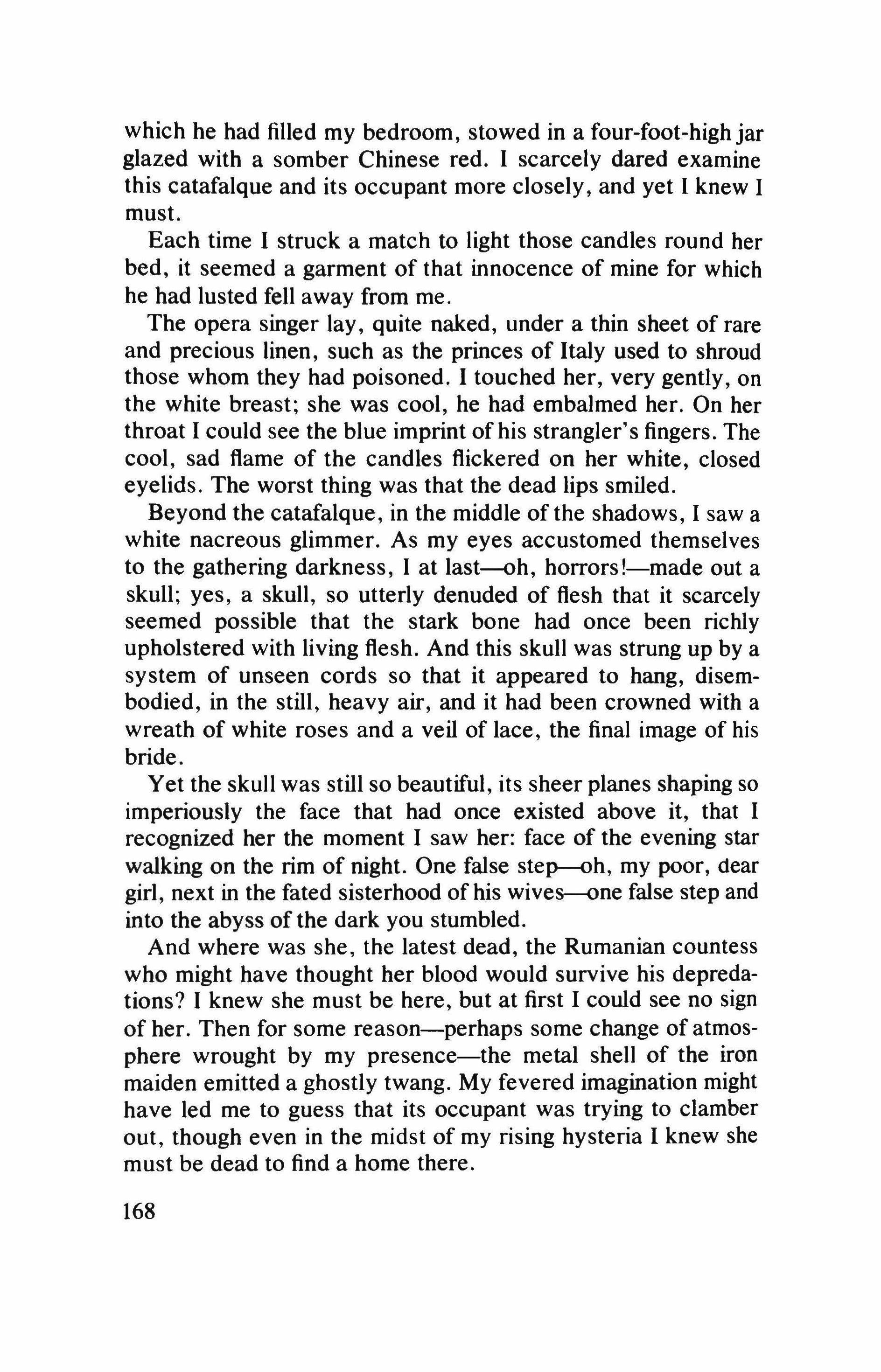
which he had filled my bedroom, stowed in a four-foot-high jar glazed with a somber Chinese red. I scarcely dared examine this catafalque and its occupant more closely, and yet I knew I must.
Each time I struck a match to light those candles round her bed, it seemed a garment of that innocence of mine for which he had lusted fell away from me.
The opera singer lay, quite naked, under a thin sheet of rare and precious linen, such as the princes of Italy used to shroud those whom they had poisoned. I touched her, very gently, on the white breast; she was cool, he had embalmed her. On her throat I could see the blue imprint of his strangler's fingers. The cool, sad flame of the candles flickered on her white, closed eyelids. The worst thing was that the dead lips smiled.
Beyond the catafalque, in the middle of the shadows, I saw a white nacreous glimmer. As my eyes accustomed themselves to the gathering darkness, I at last-oh, horrors!-made out a skull; yes, a skull, so utterly denuded of flesh that it scarcely seemed possible that the stark bone had once been richly upholstered with living flesh. And this skull was strung up by a system of unseen cords so that it appeared to hang, disembodied, in the still, heavy air, and it had been crowned with a wreath of white roses and a veil of lace, the final image of his bride.
Yet the skull was still so beautiful, its sheer planes shaping so imperiously the face that had once existed above it, that I recognized her the moment I saw her: face of the evening star walking on the rim of night. One false step-oh, my poor, dear girl, next in the fated sisterhood of his wives-one false step and into the abyss of the dark you stumbled.
And where was she, the latest dead, the Rumanian countess who might have thought her blood would survive his depredations? I knew she must be here, but at first I could see no sign of her. Then for some reason-perhaps some change of atmosphere wrought by my presence-the metal shell of the iron maiden emitted a ghostly twang. My fevered imagination might have led me to guess that its occupant was trying to clamber out, though even in the midst of my rising hysteria I knew she must be dead to find a home there.
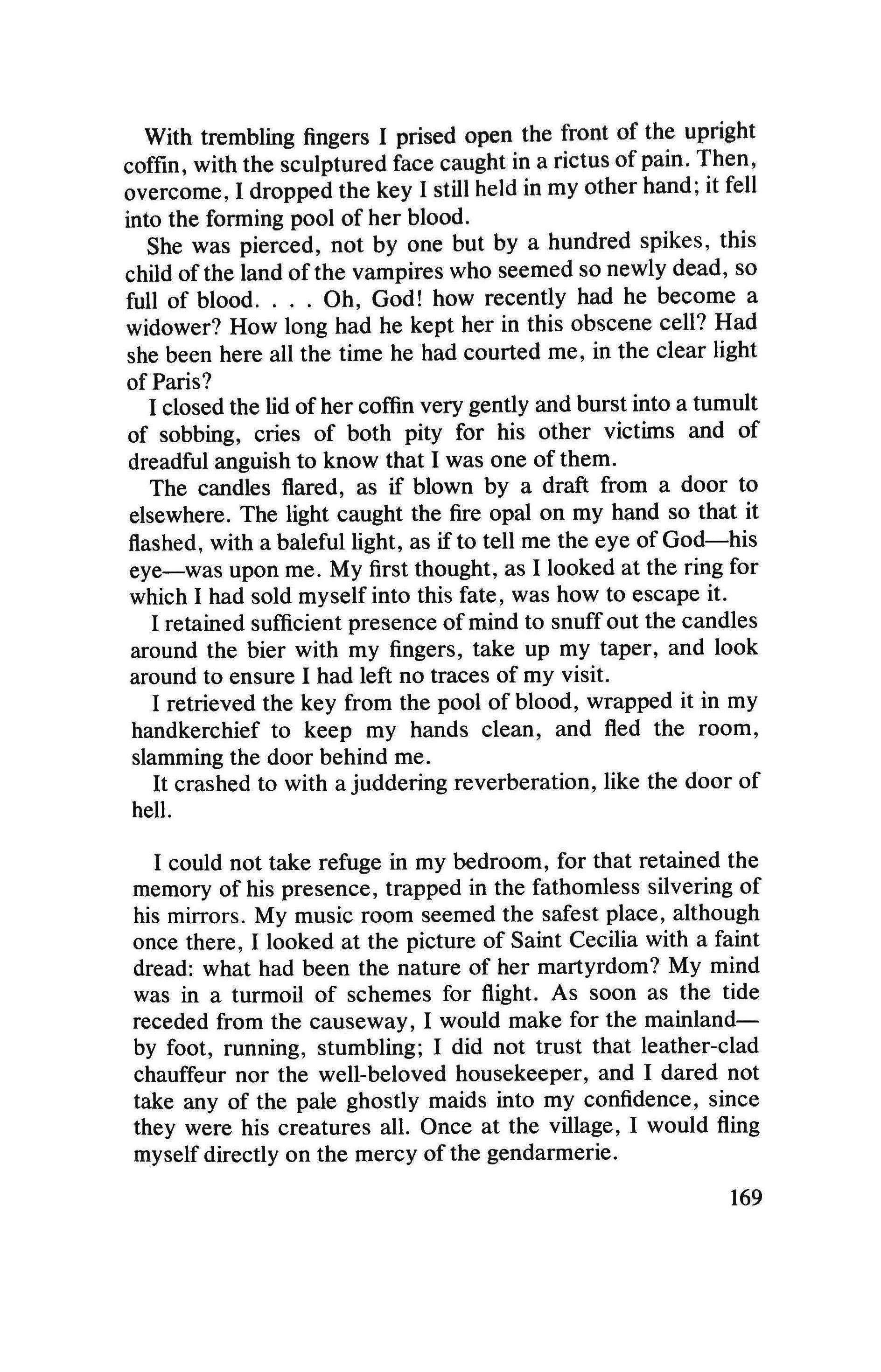
With trembling fingers I prised open the front of the upright coffin, with the sculptured face caught in a rictus of pain. Then, overcome, I dropped the key I still held in my other hand; it fell into the forming pool of her blood.
She was pierced, not by one but by a hundred spikes, this child of the land of the vampires who seemed so newly dead, so full of blood Oh, God! how recently had he become a widower? How long had he kept her in this obscene cell? Had she been here all the time he had courted me, in the clear light of Paris?
I closed the lid of her coffin very gently and burst into a tumult of sobbing, cries of both pity for his other victims and of dreadful anguish to know that I was one of them.
The candles flared, as if blown by a draft from a door to elsewhere. The light caught the fire opal on my hand so that it flashed, with a baleful light, as if to tell me the eye of God-his eye-was upon me. My first thought, as I looked at the ring for which I had sold myself into this fate, was how to escape it.
I retained sufficient presence of mind to snuff out the candles around the bier with my fingers, take up my taper, and look around to ensure I had left no traces of my visit.
I retrieved the key from the pool of blood, wrapped it in my handkerchief to keep my hands clean, and fled the room, slamming the door behind me.
lt crashed to with a juddering reverberation, like the door of hell.
I could not take refuge in my bedroom, for that retained the memory of his presence, trapped in the fathomless silvering of his mirrors. My music room seemed the safest place, although once there, I looked at the picture of Saint Cecilia with a faint dread: what had been the nature of her martyrdom? My mind was in a turmoil of schemes for flight. As soon as the tide receded from the causeway, I would make for the mainlandby foot, running, stumbling; I did not trust that leather-clad chauffeur nor the well-beloved housekeeper, and I dared not take any of the pale ghostly maids into my confidence, since they were his creatures all. Once at the village, I would fling myselfdirectly on the mercy of the gendarmerie.
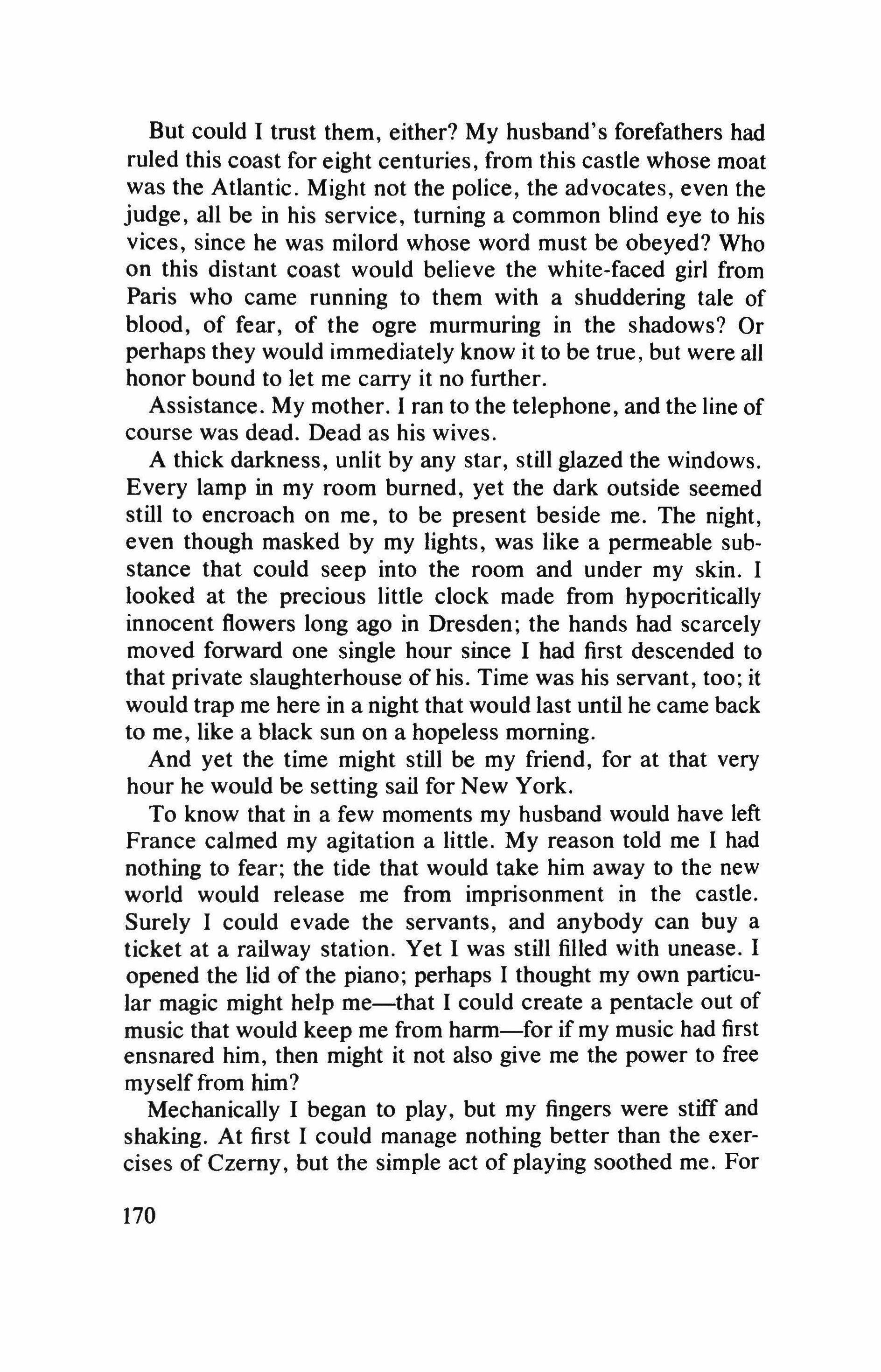
But could I trust them, either? My husband's forefathers had ruled this coast for eight centuries, from this castle whose moat was the Atlantic. Might not the police, the advocates, even the judge, all be in his service, turning a common blind eye to his vices, since he was milord whose word must be obeyed? Who on this distant coast would believe the white-faced girl from Paris who came running to them with a shuddering tale of blood, of fear, of the ogre murmuring in the shadows? Or perhaps they would immediately know it to be true, but were all honor bound to let me carry it no further.
Assistance. My mother. I ran to the telephone, and the line of course was dead. Dead as his wives.
A thick darkness, unlit by any star, still glazed the windows. Every lamp in my room burned, yet the dark outside seemed still to encroach on me, to be present beside me. The night, even though masked by my lights, was like a permeable substance that could seep into the room and under my skin. I looked at the precious little clock made from hypocritically innocent flowers long ago in Dresden; the hands had scarcely moved forward one single hour since I had first descended to that private slaughterhouse of his. Time was his servant, too; it would trap me here in a night that would last until he came back to me, like a black sun on a hopeless morning.
And yet the time might still be my friend, for at that very hour he would be setting sail for New York.
To know that in a few moments my husband would have left France calmed my agitation a little. My reason told me I had nothing to fear; the tide that would take him away to the new world would release me from imprisonment in the castle. Surely I could evade the servants, and anybody can buy a ticket at a railway station. Yet I was still filled with unease. I opened the lid of the piano; perhaps I thought my own particular magic might help me-that I could create a pentacle out of music that would keep me from harm-for if my music had first ensnared him, then might it not also give me the power to free myself from him?
Mechanically I began to play, but my fingers were stiff and shaking. At first I could manage nothing better than the exercises of Czerny, but the simple act of playing soothed me. For
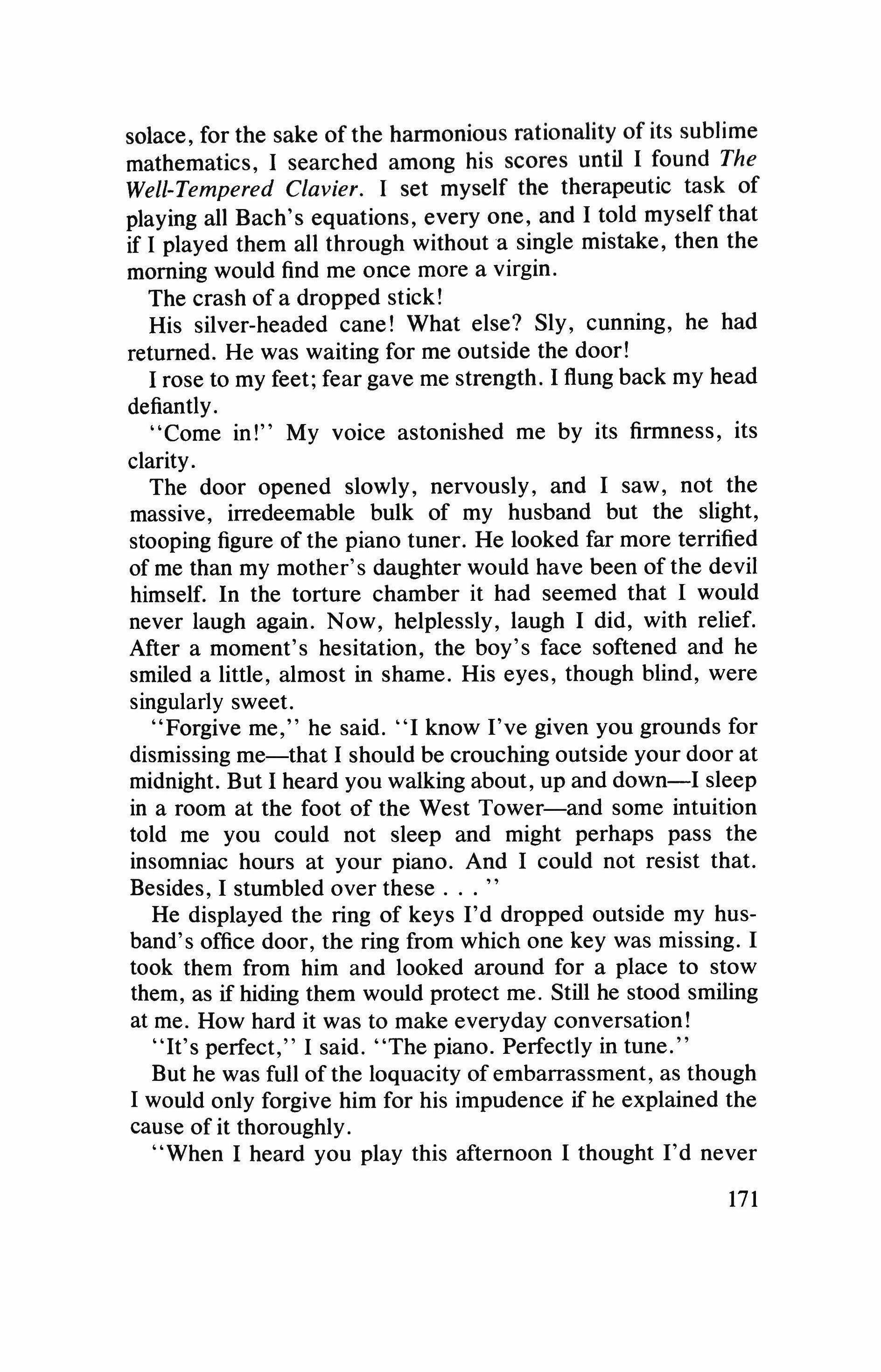
solace, for the sake of the harmonious rationality of its sublime mathematics, 1 searched among his scores until 1 found The Well-Tempered Clavier. I set myself the therapeutic task of playing all Bach's equations, every one, and 1 told myself that if I played them all through without a single mistake, then the morning would find me once more a virgin.
The crash of a dropped stick!
His silver-headed cane! What else? Sly, cunning, he had returned. He was waiting for me outside the door!
1 rose to my feet; fear gave me strength. I flung back my head defiantly.
"Come in!" My voice astonished me by its firmness, its clarity.
The door opened slowly, nervously, and 1 saw, not the massive, irredeemable bulk of my husband but the slight, stooping figure of the piano tuner. He looked far more terrified of me than my mother's daughter would have been of the devil himself. In the torture chamber it had seemed that I would never laugh again. Now, helplessly, laugh 1 did, with relief. After a moment's hesitation, the boy's face softened and he smiled a little, almost in shame. His eyes, though blind, were singularly sweet.
"Forgive me," he said. "I know I've given you grounds for dismissing me-that I should be crouching outside your door at midnight. But 1 heard you walking about, up and down-I sleep in a room at the foot of the West Tower-and some intuition told me you could not sleep and might perhaps pass the insomniac hours at your piano. And 1 could not resist that. Besides, 1 stumbled over these
He displayed the ring of keys I'd dropped outside my husband's office door, the ring from which one key was missing. 1 took them from him and looked around for a place to stow them, as if hiding them would protect me. Still he stood smiling at me. How hard it was to make everyday conversation!
"It's perfect," I said. "The piano. Perfectly in tune."
But he was full of the loquacity of embarrassment, as though I would only forgive him for his impudence if he explained the cause of it thoroughly.
"When I heard you play this afternoon 1 thought I'd never
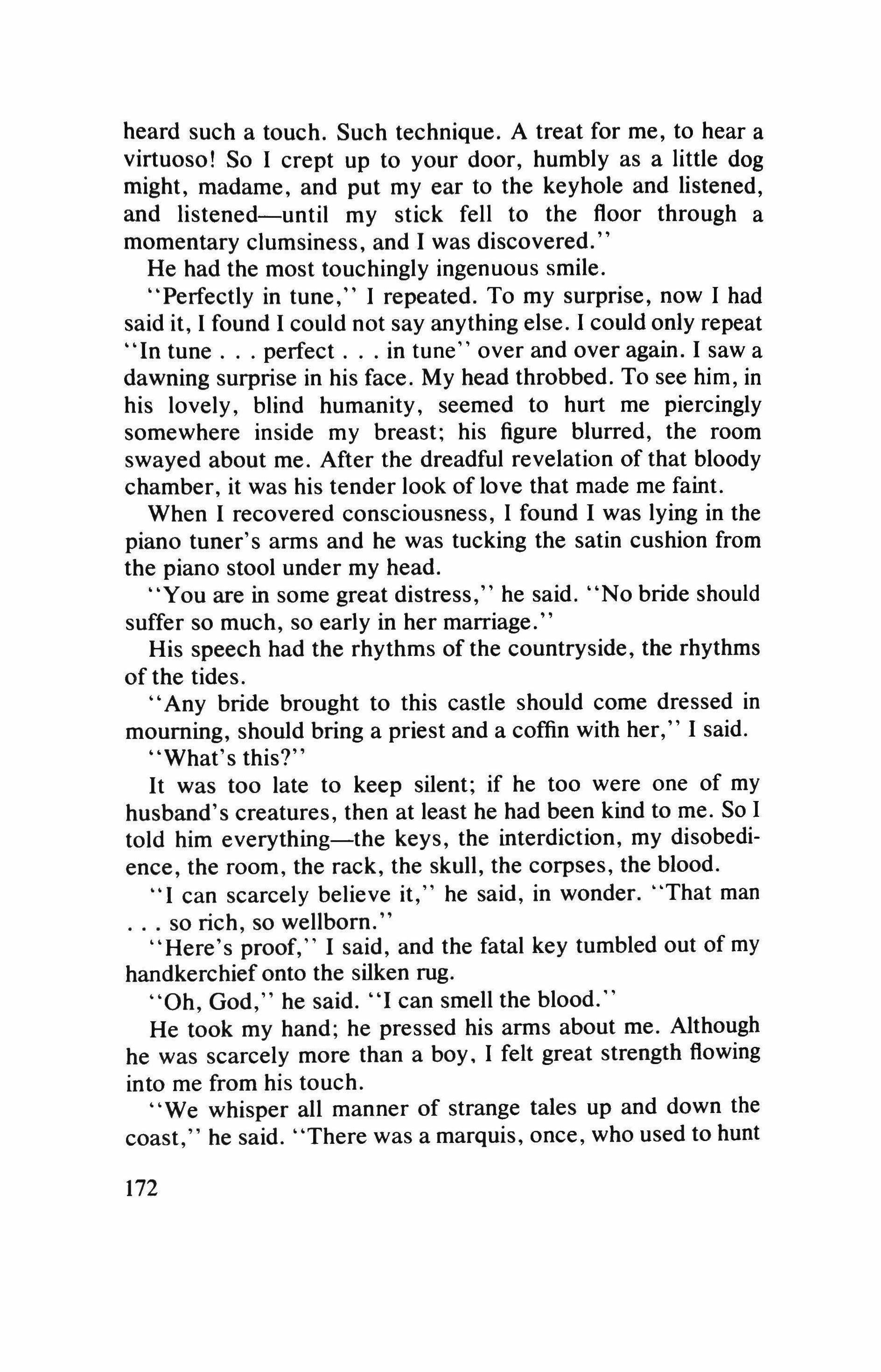
heard such a touch. Such technique. A treat for me, to hear a virtuoso! So I crept up to your door, humbly as a little dog might, madame, and put my ear to the keyhole and listened, and listened-until my stick fell to the floor through a momentary clumsiness, and I was discovered."
He had the most touchingly ingenuous smile.
"Perfectly in tune," I repeated. To my surprise, now I had said it, I found I could not say anything else. I could only repeat "In tune perfect in tune" over and over again. I saw a dawning surprise in his face. My head throbbed. To see him, in his lovely, blind humanity, seemed to hurt me piercingly somewhere inside my breast; his figure blurred, the room swayed about me. After the dreadful revelation of that bloody chamber, it was his tender look of love that made me faint.
When I recovered consciousness, I found I was lying in the piano tuner's arms and he was tucking the satin cushion from the piano stool under my head.
"You are in some great distress," he said. "No bride should suffer so much, so early in her marriage."
His speech had the rhythms of the countryside, the rhythms of the tides.
"Any bride brought to this castle should come dressed in mourning, should bring a priest and a coffin with her," I said.
"What's this?"
It was too late to keep silent; if he too were one of my husband's creatures, then at least he had been kind to me. So I told him everything-the keys, the interdiction, my disobedience, the room, the rack, the skull, the corpses, the blood.
"I can scarcely believe it," he said, in wonder. "That man so rich, so wellborn.
"Here's proof," I said, and the fatal key tumbled out of my handkerchief onto the silken rug.
"Oh, God," he said. "I can smell the blood.
He took my hand; he pressed his arms about me. Although he was scarcely more than a boy. I felt great strength flowing into me from his touch.
We whisper all manner of strange tales up and down the coast," he said. "There was a marquis, once, who used to hunt 172
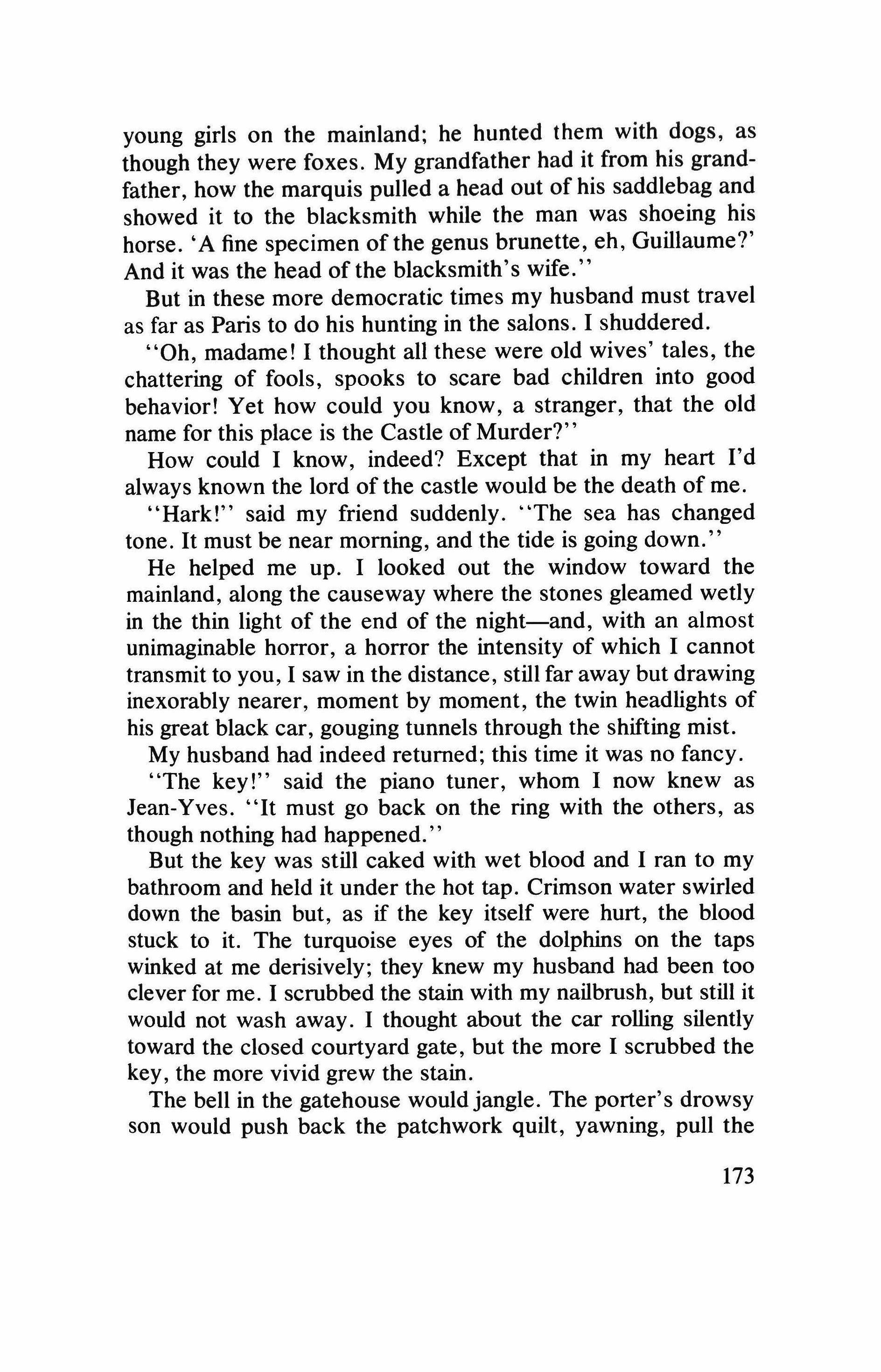
young girls on the mainland; he hunted them with dogs, as though they were foxes. My grandfather had it from his grandfather, how the marquis pulled a head out of his saddlebag and showed it to the blacksmith while the man was shoeing his horse. 'A fine specimen of the genus brunette, eh, Guillaume?' And it was the head of the blacksmith's wife."
But in these more democratic times my husband must travel as far as Paris to do his hunting in the salons. I shuddered.
"Oh, madame! I thought all these were old wives' tales, the chattering of fools, spooks to scare bad children into good behavior! Yet how could you know, a stranger, that the old name for this place is the Castle of Murder?"
How could I know, indeed? Except that in my heart I'd always known the lord of the castle would be the death of me.
"Hark!" said my friend suddenly. "The sea has changed tone. It must be near morning, and the tide is going down."
He helped me up. I looked out the window toward the mainland, along the causeway where the stones gleamed wetly in the thin light of the end of the night-and, with an almost unimaginable horror, a horror the intensity of which I cannot transmit to you, I saw in the distance, still far away but drawing inexorably nearer, moment by moment, the twin headlights of his great black car, gouging tunnels through the shifting mist.
My husband had indeed returned; this time it was no fancy.
"The key!" said the piano tuner, whom I now knew as Jean-Yves. "It must go back on the ring with the others, as though nothing had happened."
But the key was still caked with wet blood and I ran to my bathroom and held it under the hot tap. Crimson water swirled down the basin but, as if the key itself were hurt, the blood stuck to it. The turquoise eyes of the dolphins on the taps winked at me derisively; they knew my husband had been too clever for me. I scrubbed the stain with my nailbrush, but still it would not wash away. I thought about the car rolling silently toward the closed courtyard gate, but the more I scrubbed the key, the more vivid grew the stain.
The bell in the gatehouse would jangle. The porter's drowsy son would push back the patchwork quilt, yawning, pull the 173
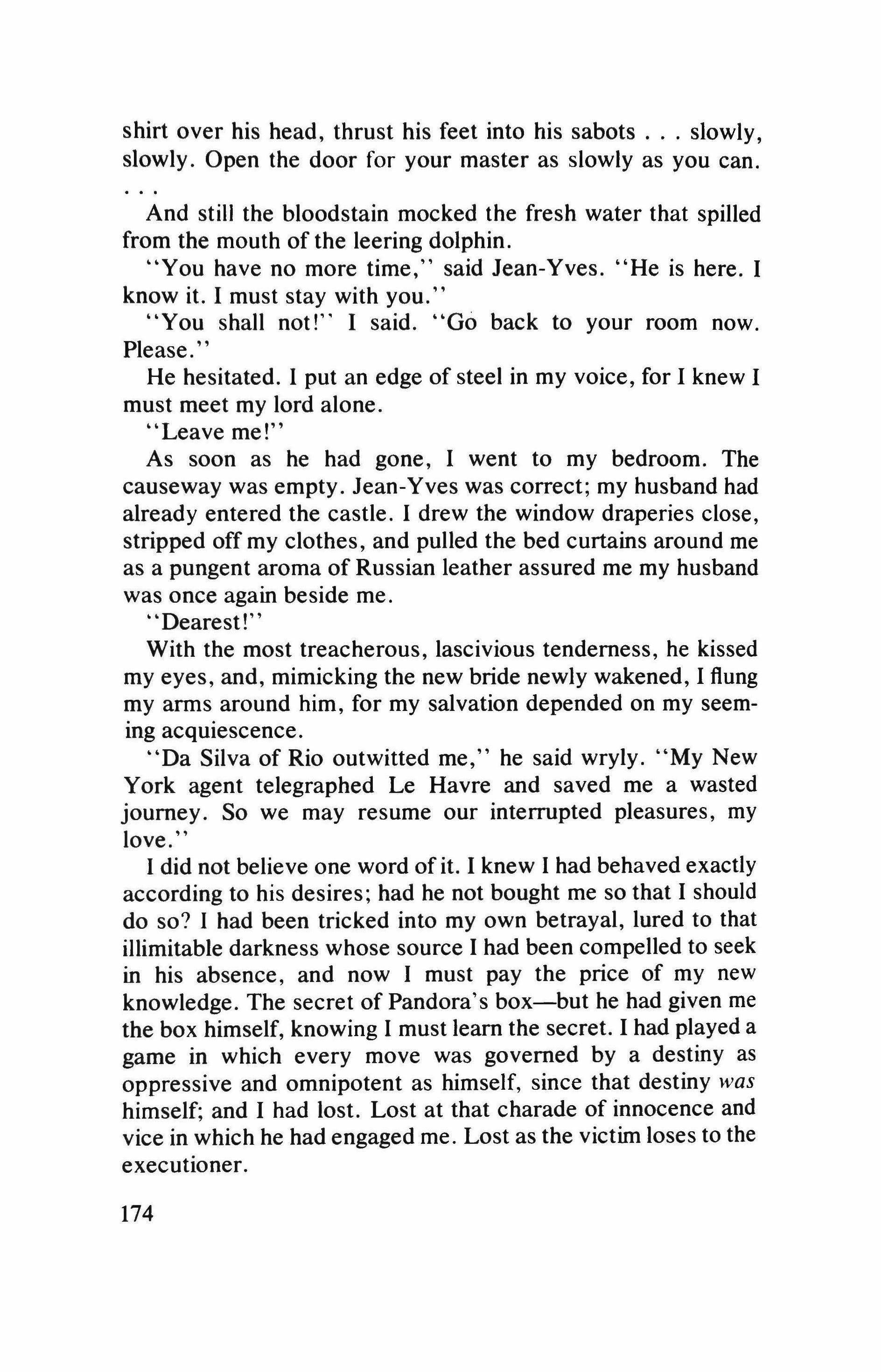
shirt over his head, thrust his feet into his sabots slowly, slowly. Open the door for your master as slowly as you can.
And still the bloodstain mocked the fresh water that spilled from the mouth of the leering dolphin.
"You have no more time," said Jean-Yves. "He is here. I know it. I must stay with you."
"You shall not!" I said. "G6 back to your room now. Please. "
He hesitated. 1 put an edge of steel in my voice, for I knew I must meet my lord alone.
"Leave me!"
As soon as he had gone, I went to my bedroom. The causeway was empty. Jean-Yves was correct; my husband had already entered the castle. I drew the window draperies close, stripped off my clothes, and pulled the bed curtains around me as a pungent aroma of Russian leather assured me my husband was once again beside me.
"Dearest!"
With the most treacherous, lascivious tenderness, he kissed my eyes, and, mimicking the new bride newly wakened, I flung my arms around him, for my salvation depended on my seeming acquiescence.
"Da Silva of Rio outwitted me," he said wryly. "My New York agent telegraphed Le Havre and saved me a wasted journey. So we may resume our interrupted pleasures, my love.
1 did not believe one word of it. I knew 1 had behaved exactly according to his desires; had he not bought me so that I should do so? I had been tricked into my own betrayal, lured to that illimitable darkness whose source I had been compelled to seek in his absence, and now I must pay the price of my new knowledge. The secret of Pandora's box-but he had given me the box himself, knowing I must learn the secret. I had played a game in which every move was governed by a destiny as oppressive and omnipotent as himself, since that destiny was himself; and I had lost. Lost at that charade of innocence and vice in which he had engaged me. Lost as the victim loses to the executioner.
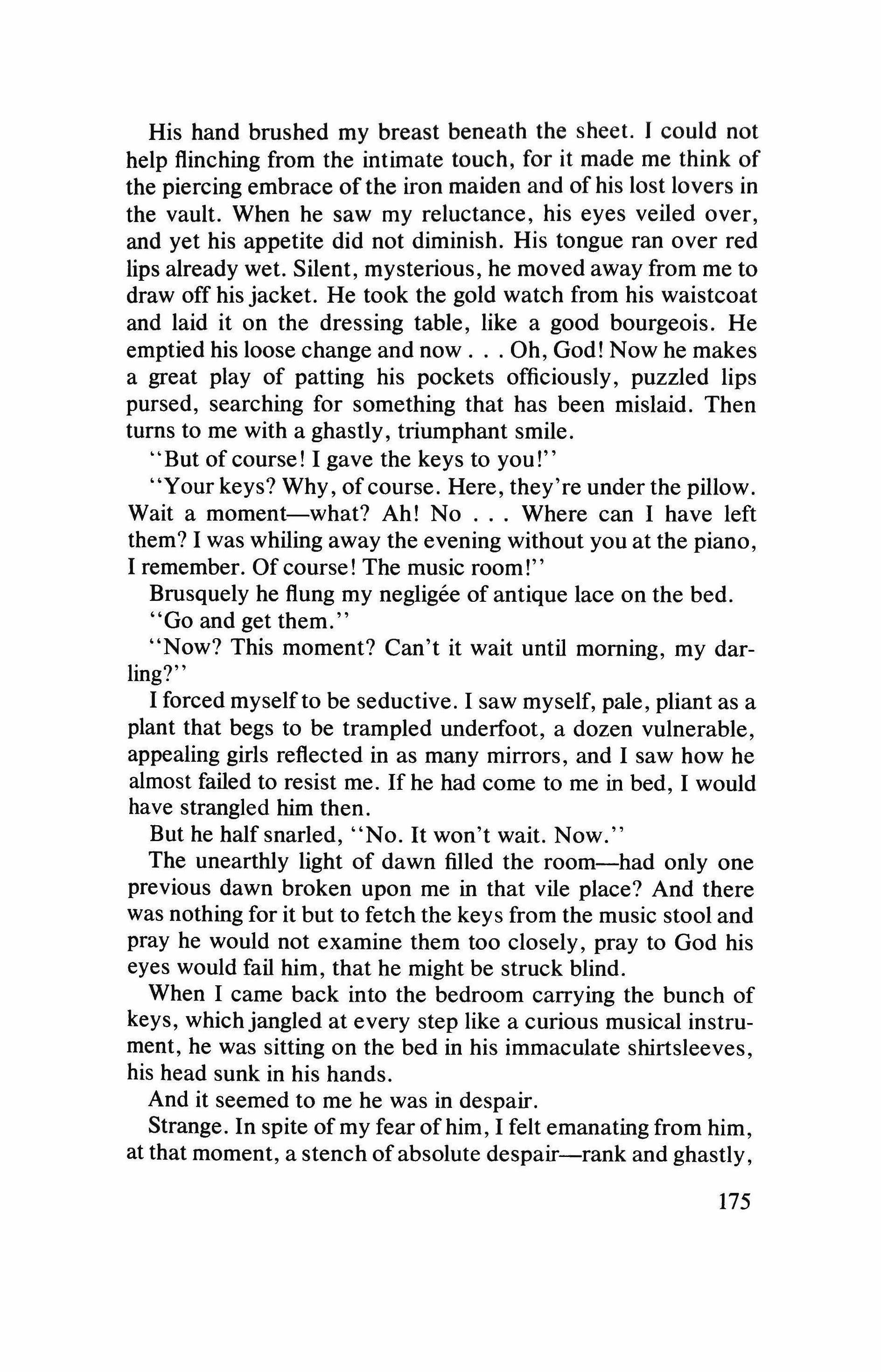
His hand brushed my breast beneath the sheet. J could not help flinching from the intimate touch, for it made me think of the piercing embrace of the iron maiden and of his lost lovers in the vault. When he saw my reluctance, his eyes veiled over, and yet his appetite did not diminish. His tongue ran over red lips already wet. Silent, mysterious, he moved away from me to draw off his jacket. He took the gold watch from his waistcoat and laid it on the dressing table, like a good bourgeois. He emptied his loose change and now Oh, God! Now he makes a great play of patting his pockets officiously, puzzled lips pursed, searching for something that has been mislaid. Then turns to me with a ghastly, triumphant smile.
"But of course! I gave the keys to you!"
"Your keys? Why, of course. Here, they're under the pillow. Wait a moment-what? Ah! No Where can I have left them? I was whiling away the evening without you at the piano, I remember. Of course! The music room!"
Brusquely he flung my negligee of antique lace on the bed.
"Go and get them."
"Now? This moment? Can't it wait until morning, my darling?"
I forced myselfto be seductive. I saw myself, pale, pliant as a plant that begs to be trampled underfoot, a dozen vulnerable, appealing girls reflected in as many mirrors, and I saw how he almost failed to resist me. If he had come to me in bed, I would have strangled him then.
But he half snarled, "No. It won't wait. Now."
The unearthly light of dawn filled the room-had only one previous dawn broken upon me in that vile place? And there was nothing for it but to fetch the keys from the music stool and pray he would not examine them too closely, pray to God his eyes would fail him, that he might be struck blind.
When I came back into the bedroom carrying the bunch of keys, which jangled at every step like a curious musical instrument, he was sitting on the bed in his immaculate shirtsleeves, his head sunk in his hands.
And it seemed to me he was in despair.
Strange. In spite of my fear of him, I felt emanating from him, at that moment, a stench ofabsolute despair-rank and ghastly,
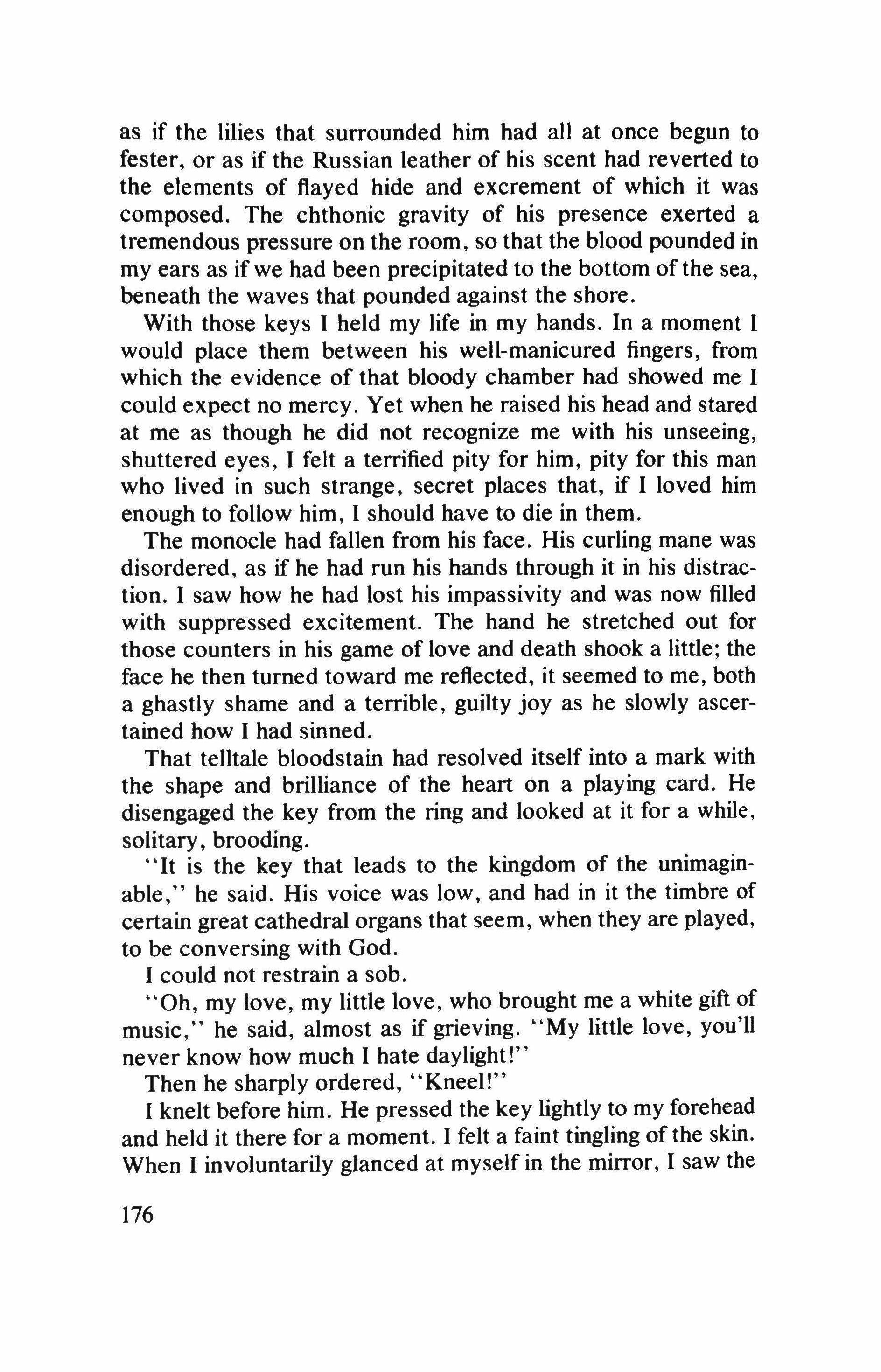
as if the lilies that surrounded him had all at once begun to fester, or as if the Russian leather of his scent had reverted to the elements of flayed hide and excrement of which it was composed. The chthonic gravity of his presence exerted a tremendous pressure on the room, so that the blood pounded in my ears as if we had been precipitated to the bottom of the sea, beneath the waves that pounded against the shore.
With those keys I held my life in my hands. In a moment I would place them between his well-manicured fingers, from which the evidence of that bloody chamber had showed me I could expect no mercy. Yet when he raised his head and stared at me as though he did not recognize me with his unseeing, shuttered eyes, I felt a terrified pity for him, pity for this man who lived in such strange, secret places that, if I loved him enough to follow him, I should have to die in them.
The monocle had fallen from his face. His curling mane was disordered, as if he had run his hands through it in his distraction. I saw how he had lost his impassivity and was now filled with suppressed excitement. The hand he stretched out for those counters in his game of love and death shook a little; the face he then turned toward me reflected, it seemed to me, both a ghastly shame and a terrible, guilty joy as he slowly ascertained how I had sinned.
That telltale bloodstain had resolved itself into a mark with the shape and brilliance of the heart on a playing card. He disengaged the key from the ring and looked at it for a while, solitary, brooding
It is the key that leads to the kingdom of the unimaginable," he said. His voice was low, and had in it the timbre of certain great cathedral organs that seem, when they are played, to be conversing with God.
I could not restrain a sob.
"Oh, my love, my little love, who brought me a white gift of music," he said, almost as if grieving. "My little love, you'll never know how much I hate daylight!"
Then he sharply ordered, "Kneel!"
I knelt before him. He pressed the key lightly to my forehead and held it there for a moment. I felt a faint tingling of the skin. When I involuntarily glanced at myself in the mirror, I saw the
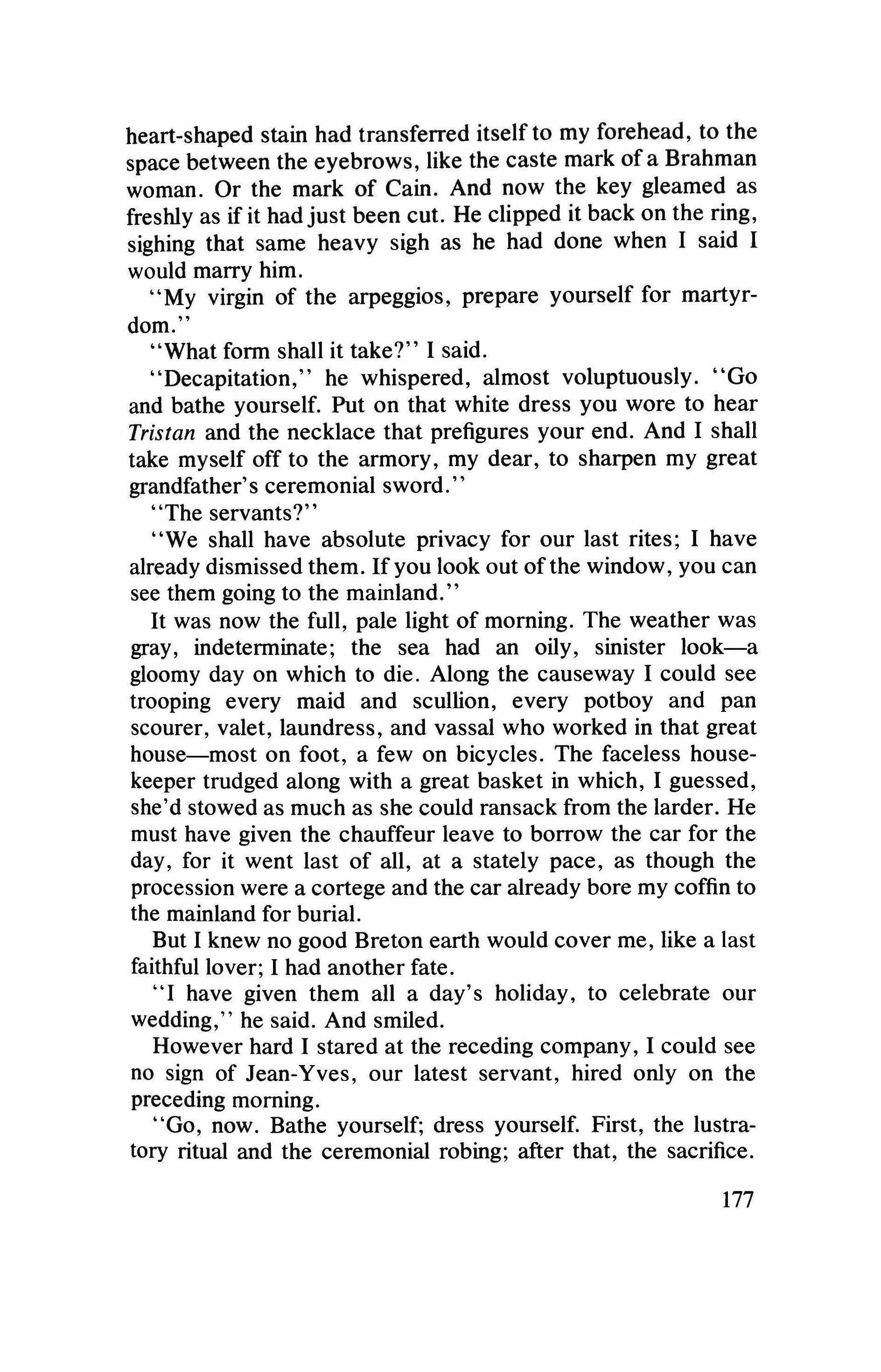
heart-shaped stain had transferred itself to my forehead, to the space between the eyebrows, like the caste mark of a Brahman woman. Or the mark of Cain. And now the key gleamed as freshly as if it had just been cut. He clipped it back on the ring, sighing that same heavy sigh as he had done when I said I would marry him.
"My virgin of the arpeggios, prepare yourself for martyrdom."
"What form shall it take?" I said.
"Decapitation," he whispered, almost voluptuously. "Go and bathe yourself. Put on that white dress you wore to hear Tristan and the necklace that prefigures your end. And I shall take myself off to the armory, my dear, to sharpen my great grandfather's ceremonial sword."
"The servants?"
"We shall have absolute privacy for our last rites; I have already dismissed them. If you look out of the window, you can see them going to the mainland."
It was now the full, pale light of morning. The weather was gray, indeterminate; the sea had an oily, sinister look-a gloomy day on which to die. Along the causeway I could see trooping every maid and scullion, every potboy and pan scourer, valet, laundress, and vassal who worked in that great house-most on foot, a few on bicycles. The faceless housekeeper trudged along with a great basket in which, I guessed, she'd stowed as much as she could ransack from the larder. He must have given the chauffeur leave to borrow the car for the day, for it went last of all, at a stately pace, as though the procession were a cortege and the car already bore my coffin to the mainland for burial.
But I knew no good Breton earth would cover me, like a last faithful lover; I had another fate.
"I have given them all a day's holiday, to celebrate our wedding," he said. And smiled.
However hard I stared at the receding company, I could see no sign of Jean-Yves, our latest servant, hired only on the preceding morning.
"Go, now. Bathe yourself; dress yourself. First, the lustratory ritual and the ceremonial robing; after that, the sacrifice.
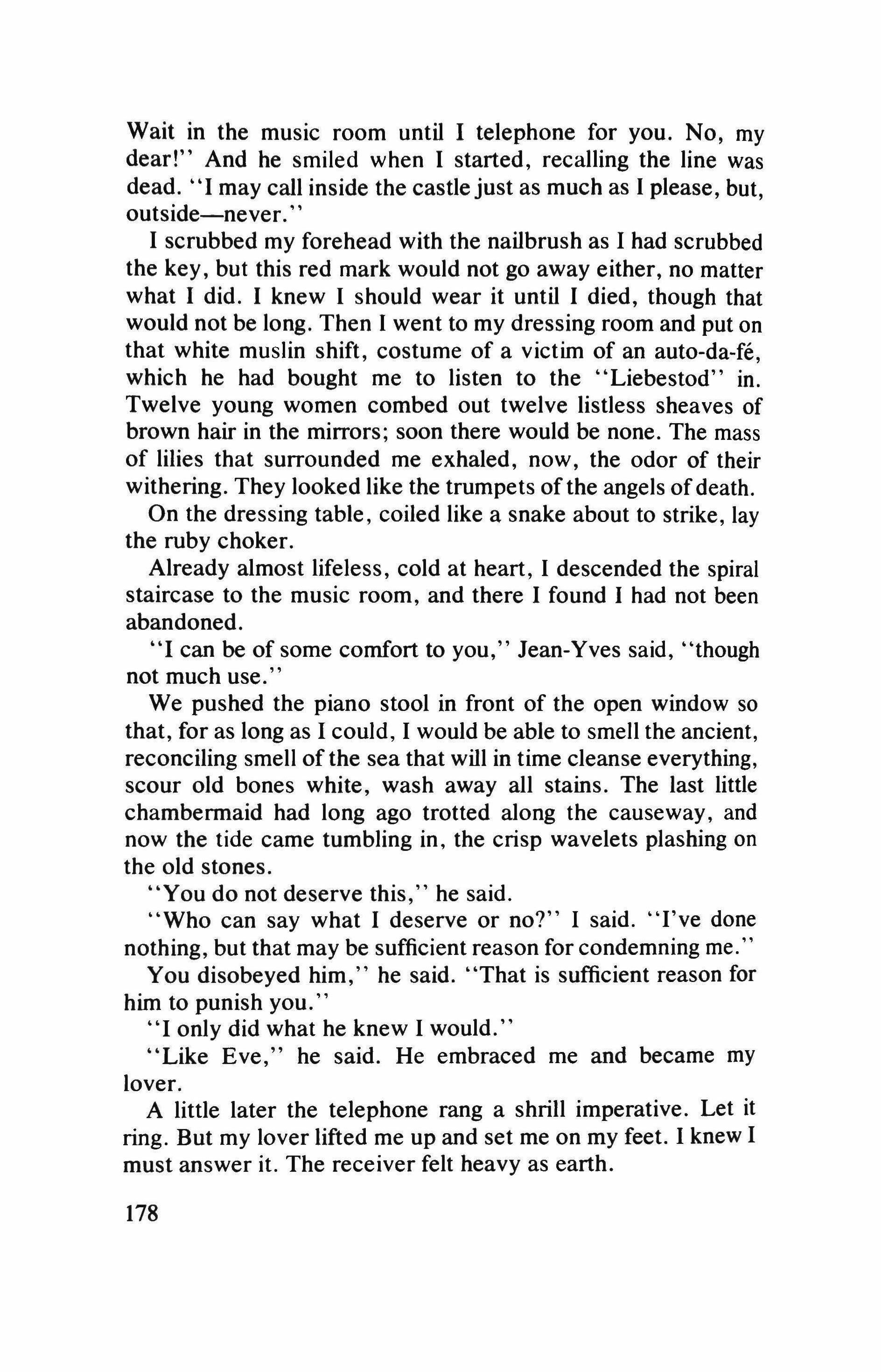
Wait in the music room until I telephone for you. No, my dear!" And he smiled when I started, recalling the line was dead. "I may call inside the castle just as much as I please, but, outside-never.
I scrubbed my forehead with the nailbrush as I had scrubbed the key, but this red mark would not go away either, no matter what I did. I knew I should wear it until I died, though that would not be long. Then I went to my dressing room and put on that white muslin shift, costume of a victim of an auto-da-fe, which he had bought me to listen to the "Liebestod" in. Twelve young women combed out twelve listless sheaves of brown hair in the mirrors; soon there would be none. The mass of lilies that surrounded me exhaled, now, the odor of their withering. They looked like the trumpets ofthe angels of death.
On the dressing table, coiled like a snake about to strike, lay the ruby choker.
Already almost lifeless, cold at heart, I descended the spiral staircase to the music room, and there I found I had not been abandoned.
"I can be of some comfort to you," Jean-Yves said, "though not much use."
We pushed the piano stool in front of the open window so that, for as long as I could, I would be able to smell the ancient, reconciling smell of the sea that will in time cleanse everything, scour old bones white, wash away all stains. The last little chambermaid had long ago trotted along the causeway, and now the tide came tumbling in, the crisp wavelets plashing on the old stones.
"You do not deserve this," he said.
"Who can say what I deserve or no?" I said. "I've done nothing, but that may be sufficient reason for condemning me."
You disobeyed him," he said. "That is sufficient reason for him to punish you."
"I only did what he knew I would."
"Like Eve," he said. He embraced me and became my lover.
A little later the telephone rang a shrill imperative. Let it ring. But my lover lifted me up and set me on my feet. I knew I must answer it. The receiver felt heavy as earth.
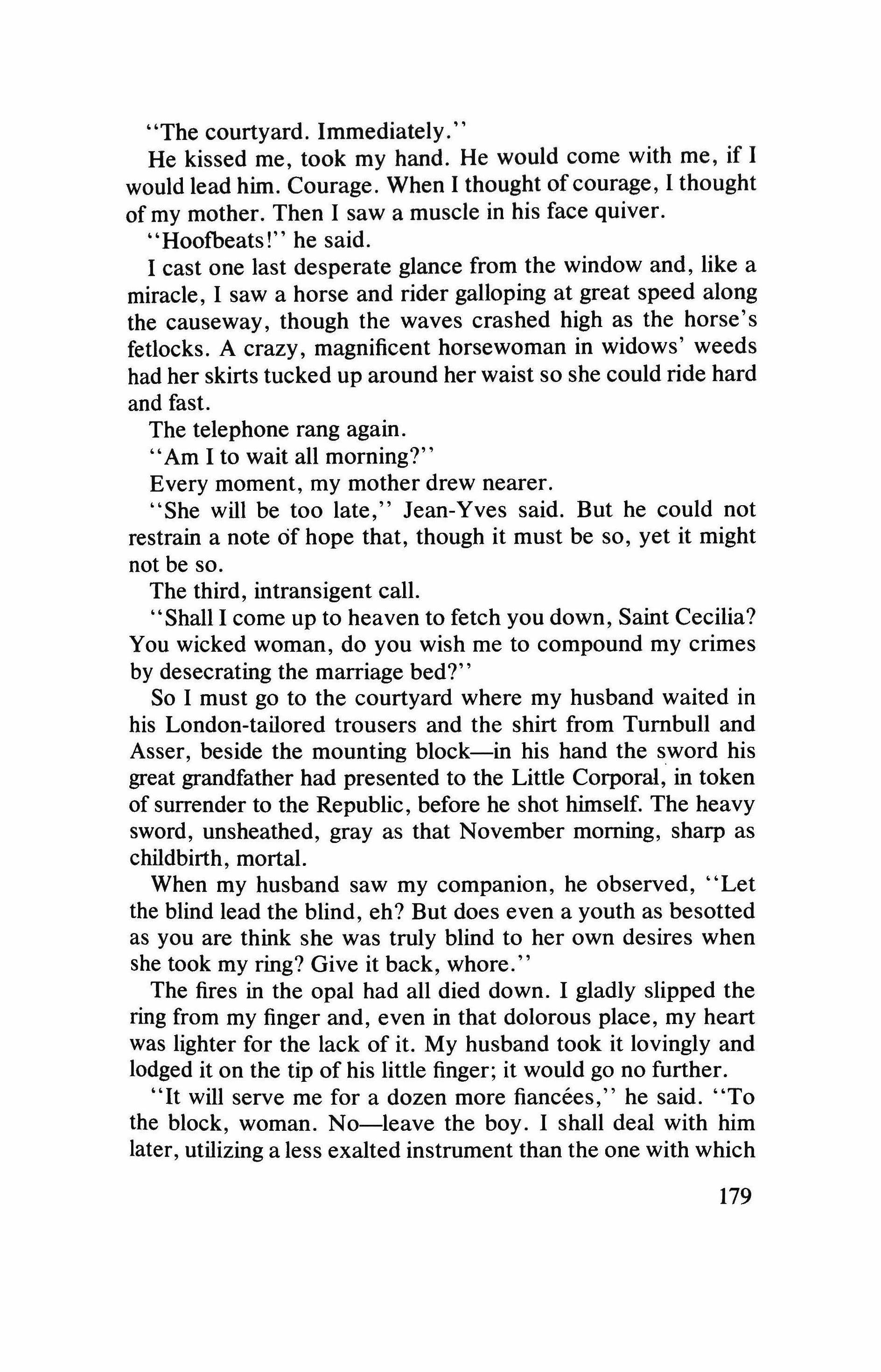
"The courtyard. Immediately."
He kissed me, took my hand. He would come with me, if I would lead him. Courage. When I thought of courage, I thought of my mother. Then I saw a muscle in his face quiver.
"Hoofbeats!" he said.
I cast one last desperate glance from the window and, like a miracle, I saw a horse and rider galloping at great speed along the causeway, though the waves crashed high as the horse's fetlocks. A crazy, magnificent horsewoman in widows' weeds had her skirts tucked up around her waist so she could ride hard and fast.
The telephone rang again.
"Am I to wait all morning?"
Every moment, my mother drew nearer.
"She will be too late," Jean-Yves said. But he could not restrain a note of hope that, though it must be so, yet it might not be so.
The third, intransigent call.
"Shall I come up to heaven to fetch you down, Saint Cecilia? You wicked woman, do you wish me to compound my crimes by desecrating the marriage bed?"
So I must go to the courtyard where my husband waited in his London-tailored trousers and the shirt from Turnbull and Asser, beside the mounting block-in his hand the sword his great grandfather had presented to the Little Corporal, in token of surrender to the Republic, before he shot himself. The heavy sword, unsheathed, gray as that November morning, sharp as childbirth, mortal.
When my husband saw my companion, he observed, "Let the blind lead the blind, eh? But does even a youth as besotted as you are think she was truly blind to her own desires when she took my ring? Give it back, whore."
The fires in the opal had all died down. I gladly slipped the ring from my finger and, even in that dolorous place, my heart was lighter for the lack of it. My husband took it lovingly and lodged it on the tip of his little finger; it would go no further.
"It will serve me for a dozen more fiancees," he said. "To the block, woman. No-leave the boy. I shall deal with him later, utilizing a less exalted instrument than the one with which
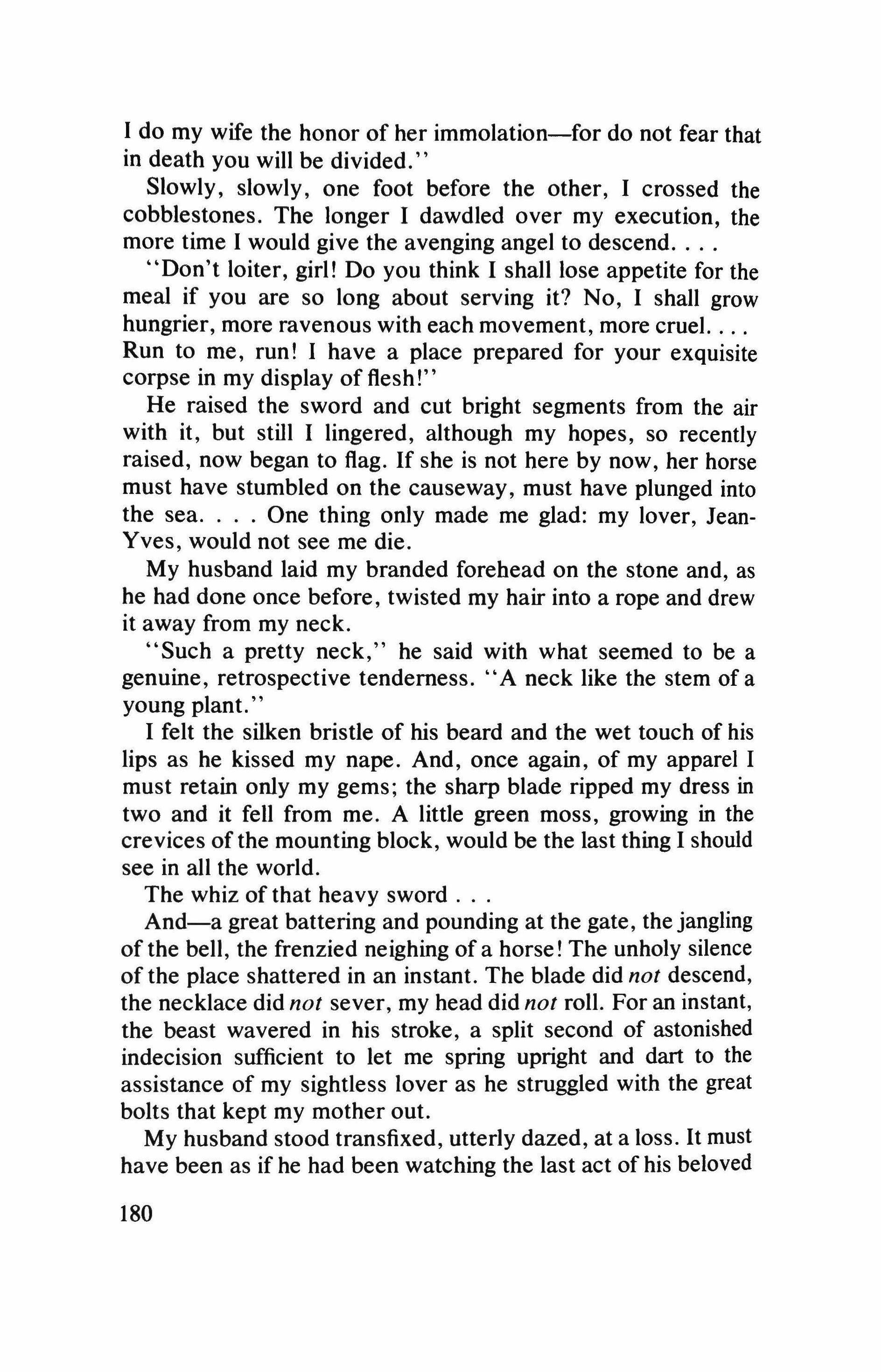
I do my wife the honor of her immolation-for do not fear that in death you will be divided."
Slowly, slowly, one foot before the other, I crossed the cobblestones. The longer I dawdled over my execution, the more time I would give the avenging angel to descend
"Don't loiter, girl! Do you think I shall lose appetite for the meal if you are so long about serving it? No, I shall grow hungrier, more ravenous with each movement, more cruel. Run to me, run! I have a place prepared for your exquisite corpse in my display of flesh!"
He raised the sword and cut bright segments from the air with it, but still I lingered, although my hopes, so recently raised, now began to flag. If she is not here by now, her horse must have stumbled on the causeway, must have plunged into the sea One thing only made me glad: my lover, JeanYves, would not see me die.
My husband laid my branded forehead on the stone and, as he had done once before, twisted my hair into a rope and drew it away from my neck.
"Such a pretty neck," he said with what seemed to be a genuine, retrospective tenderness. "A neck like the stem of a young plant.
I felt the silken bristle of his beard and the wet touch of his lips as he kissed my nape. And, once again, of my apparel I must retain only my gems; the sharp blade ripped my dress in two and it fell from me. A little green moss, growing in the crevices of the mounting block, would be the last thing I should see in all the world.
The whiz of that heavy sword
And-a great battering and pounding at the gate, the jangling of the bell, the frenzied neighing of a horse! The unholy silence of the place shattered in an instant. The blade did not descend, the necklace did not sever, my head did not roll. For an instant, the beast wavered in his stroke, a split second of astonished indecision sufficient to let me spring upright and dart to the assistance of my sightless lover as he struggled with the great bolts that kept my mother out.
My husband stood transfixed, utterly dazed, at a loss. It must have been as if he had been watching the last act of his beloved
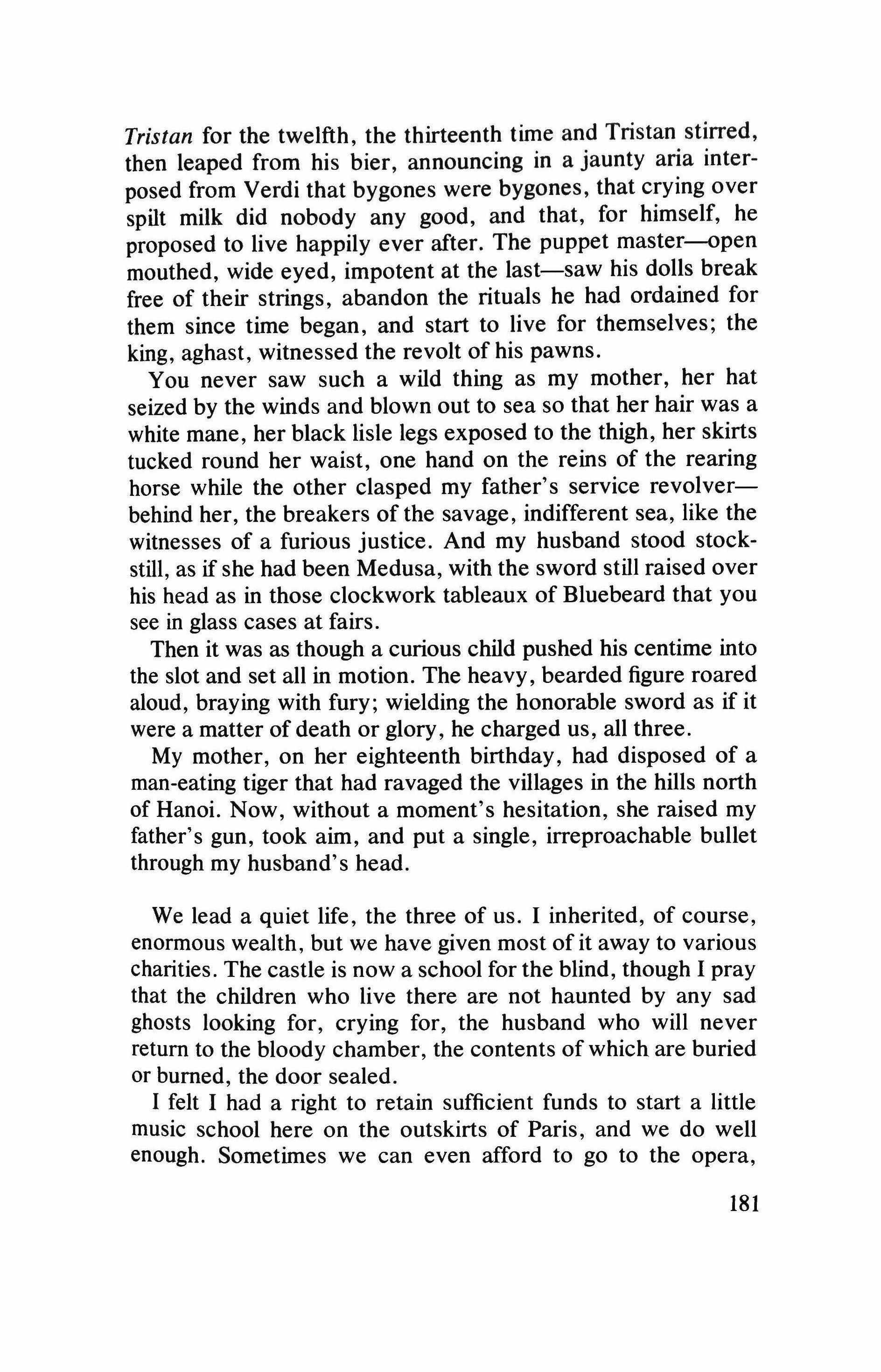
Tristan for the twelfth, the thirteenth time and Tristan stirred, then leaped from his bier, announcing in a jaunty aria interposed from Verdi that bygones were bygones, that crying over spilt milk did nobody any good, and that, for himself, he proposed to live happily ever after. The puppet master-open mouthed, wide eyed, impotent at the last-saw his dolls break free of their strings, abandon the rituals he had ordained for them since time began, and start to live for themselves; the king, aghast, witnessed the revolt of his pawns.
You never saw such a wild thing as my mother, her hat seized by the winds and blown out to sea so that her hair was a white mane, her black lisle legs exposed to the thigh, her skirts tucked round her waist, one hand on the reins of the rearing horse while the other clasped my father's service revolverbehind her, the breakers of the savage, indifferent sea, like the witnesses of a furious justice. And my husband stood stockstill, as if she had been Medusa, with the sword still raised over his head as in those clockwork tableaux of Bluebeard that you see in glass cases at fairs.
Then it was as though a curious child pushed his centime into the slot and set all in motion. The heavy, bearded figure roared aloud, braying with fury; wielding the honorable sword as if it were a matter of death or glory, he charged us, all three.
My mother, on her eighteenth birthday, had disposed of a man-eating tiger that had ravaged the villages in the hills north of Hanoi. Now, without a moment's hesitation, she raised my father's gun, took aim, and put a single, irreproachable bullet through my husband's head.
We lead a quiet life, the three of us. I inherited, of course, enormous wealth, but we have given most of it away to various charities. The castle is now a school for the blind, though I pray that the children who live there are not haunted by any sad ghosts looking for, crying for, the husband who will never return to the bloody chamber, the contents of which are buried or burned, the door sealed.
I felt I had a right to retain sufficient funds to start a little music school here on the outskirts of Paris, and we do well enough. Sometimes we can even afford to go to the opera,
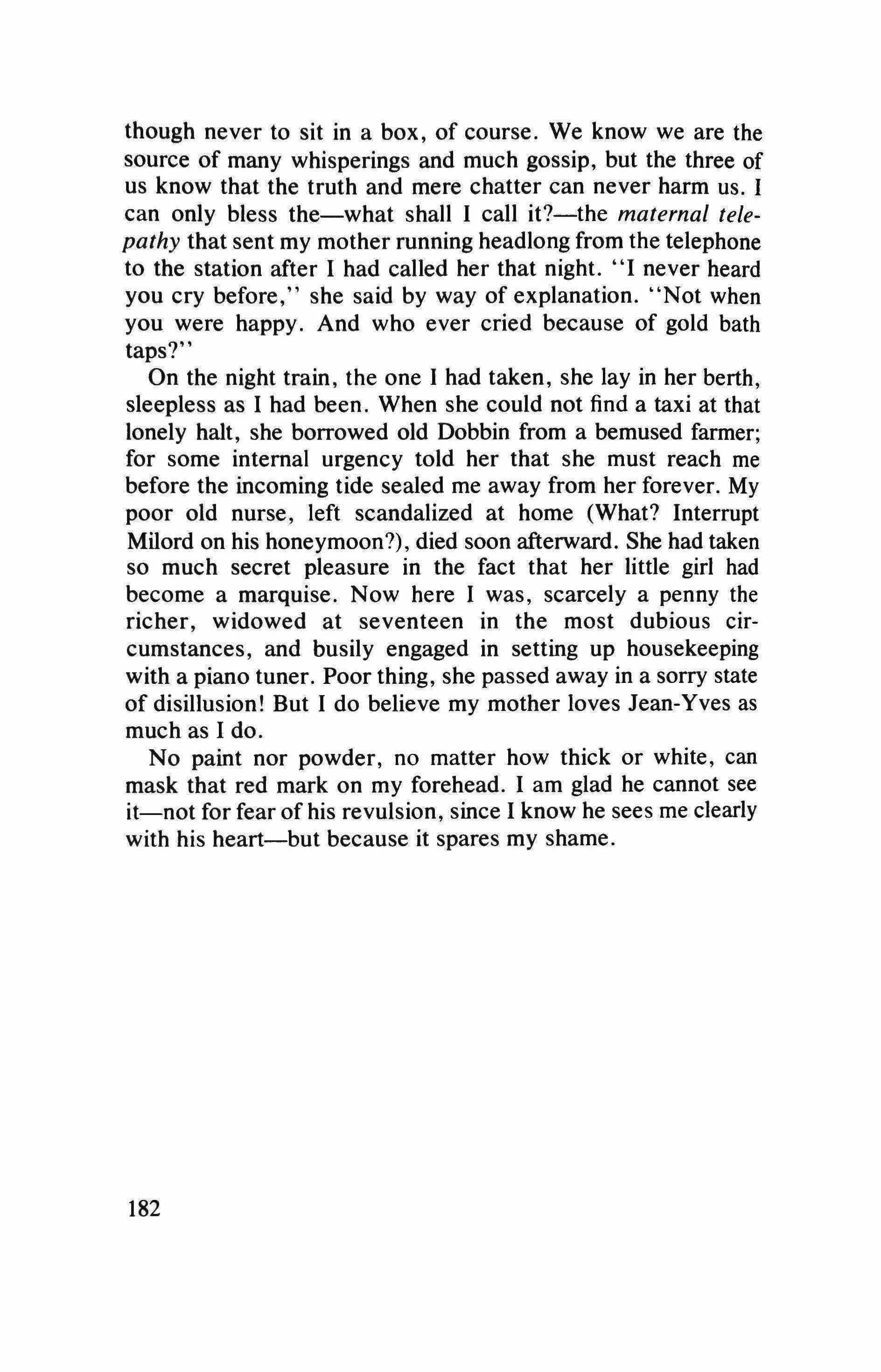
though never to sit in a box, of course. We know we are the source of many whisperings and much gossip, but the three of us know that the truth and mere chatter can never harm us. I can only bless the-what shall I call it?-the maternal telepathy that sent my mother running headlong from the telephone to the station after I had called her that night. "I never heard you cry before," she said by way of explanation. "Not when you were happy. And who ever cried because of gold bath taps?"
On the night train, the one I had taken, she lay in her berth, sleepless as I had been. When she could not find a taxi at that lonely halt, she borrowed old Dobbin from a bemused farmer; for some internal urgency told her that she must reach me before the incoming tide sealed me away from her forever. My poor old nurse, left scandalized at home (What? Interrupt Milord on his honeymoon?), died soon afterward. She had taken so much secret pleasure in the fact that her little girl had become a marquise. Now here I was, scarcely a penny the richer, widowed at seventeen in the most dubious circumstances, and busily engaged in setting up housekeeping with a piano tuner. Poor thing, she passed away in a sorry state of disillusion! But I do believe my mother loves Jean-Yves as much as I do.
No paint nor powder, no matter how thick or white, can mask that red mark on my forehead. I am glad he cannot see it-not for fear of his revulsion, since I know he sees me clearly with his heart-but because it spares my shame.
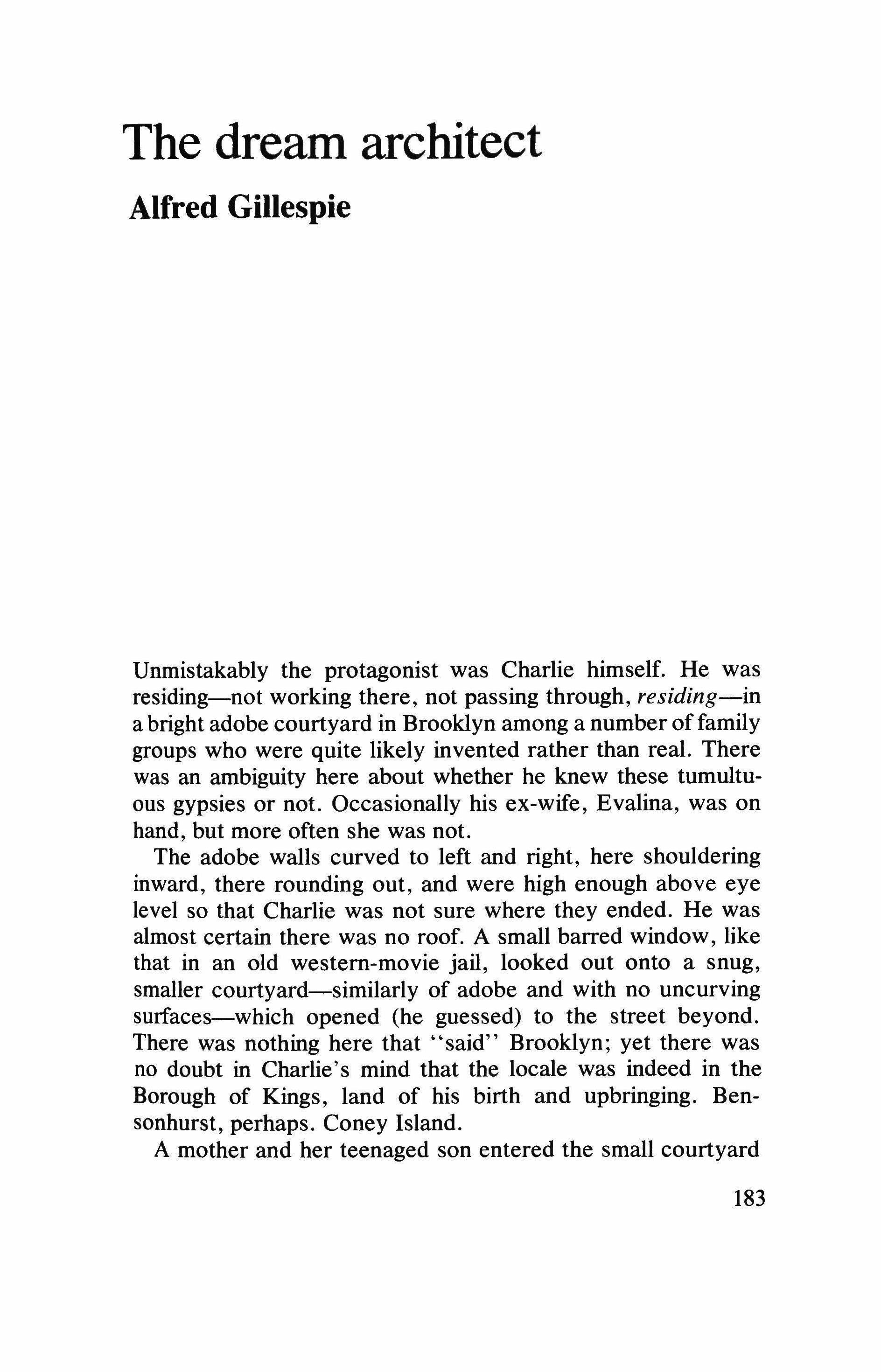
Unmistakably the protagonist was Charlie himself. He was residing-not working there, not passing through, residing-in a bright adobe courtyard in Brooklyn among a number of family groups who were quite likely invented rather than real. There was an ambiguity here about whether he knew these tumultuous gypsies or not. Occasionally his ex-wife, Evalina, was on hand, but more often she was not.
The adobe walls curved to left and right, here shouldering inward, there rounding out, and were high enough above eye level so that Charlie was not sure where they ended. He was almost certain there was no roof. A small barred window, like that in an old western-movie jail, looked out onto a snug, smaller courtyard-similarly of adobe and with no uncurving surfaces-which opened (he guessed) to the street beyond. There was nothing here that "said" Brooklyn; yet there was no doubt in Charlie's mind that the locale was indeed in the Borough of Kings, land of his birth and upbringing. Bensonhurst, perhaps. Coney Island.
A mother and her teenaged son entered the small courtyard
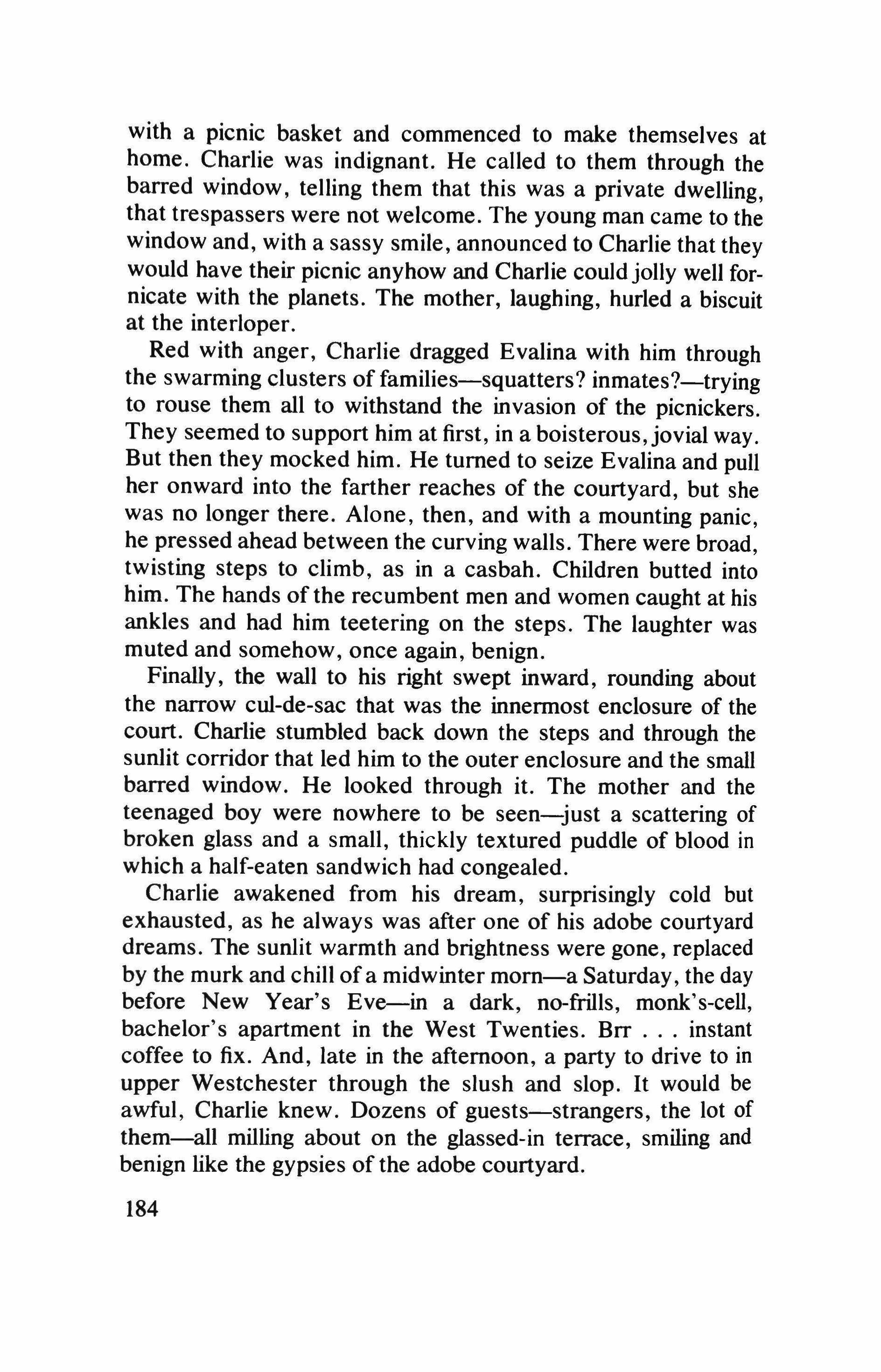
with a picnic basket and commenced to make themselves at home. Charlie was indignant. He called to them through the barred window, telling them that this was a private dwelling, that trespassers were not welcome. The young man came to the window and, with a sassy smile, announced to Charlie that they would have their picnic anyhow and Charlie could jolly well fornicate with the planets. The mother, laughing, hurled a biscuit at the interloper.
Red with anger, Charlie dragged Evalina with him through the swarming clusters of families-squatters? inmates?-trying to rouse them all to withstand the invasion of the picnickers. They seemed to support him at first, in a boisterous,jovial way. But then they mocked him. He turned to seize Evalina and pull her onward into the farther reaches of the courtyard, but she was no longer there. Alone, then, and with a mounting panic, he pressed ahead between the curving walls. There were broad, twisting steps to climb, as in a casbah. Children butted into him. The hands of the recumbent men and women caught at his ankles and had him teetering on the steps. The laughter was muted and somehow, once again, benign.
Finally, the wall to his right swept inward, rounding about the narrow cul-de-sac that was the innermost enclosure of the court. Charlie stumbled back down the steps and through the sunlit corridor that led him to the outer enclosure and the small barred window. He looked through it. The mother and the teenaged boy were nowhere to be seen-just a scattering of broken glass and a small, thickly textured puddle of blood in which a half-eaten sandwich had congealed.
Charlie awakened from his dream, surprisingly cold but exhausted, as he always was after one of his adobe courtyard dreams. The sunlit warmth and brightness were gone, replaced by the murk and chill of a midwinter morn-a Saturday, the day before New Year's Eve-in a dark, no-frills, monk's-cell, bachelor's apartment in the West Twenties. Brr instant coffee to fix. And, late in the afternoon, a party to drive to in upper Westchester through the slush and slop. It would be awful, Charlie knew. Dozens of guests-strangers, the lot of them-all milling about on the glassed-in terrace, smiling and benign like the gypsies of the adobe courtyard.
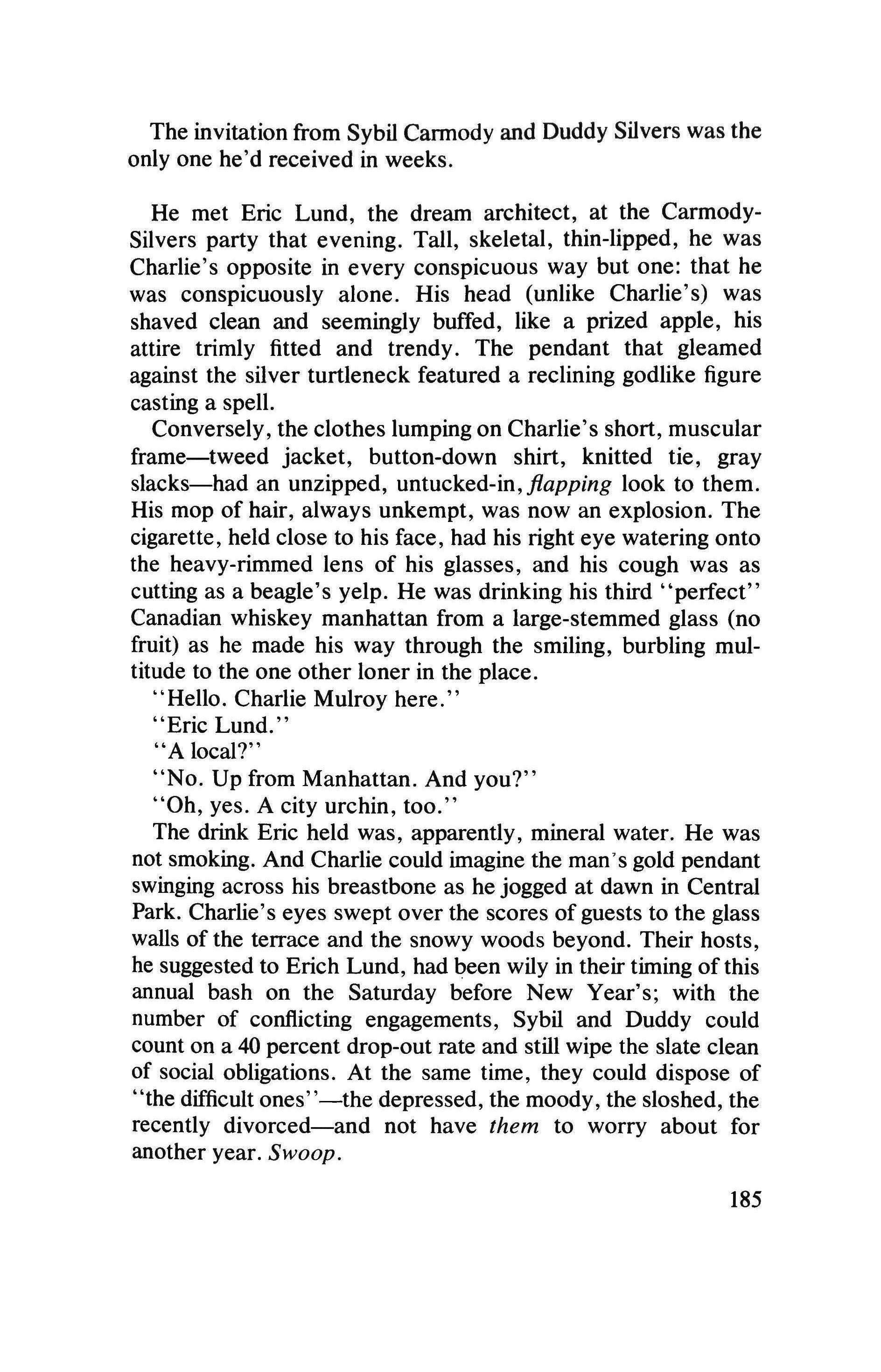
The invitation from Sybil Carmody and Duddy Silvers was the only one he'd received in weeks.
He met Eric Lund, the dream architect, at the CarmodySilvers party that evening. Tall, skeletal, thin-lipped, he was Charlie's opposite in every conspicuous way but one: that he was conspicuously alone. His head (unlike Charlie's) was shaved clean and seemingly buffed, like a prized apple, his attire trimly fitted and trendy. The pendant that gleamed against the silver turtleneck featured a reclining godlike figure casting a spell.
Conversely, the clothes lumping on Charlie's short, muscular frame-tweed jacket, button-down shirt, knitted tie, gray slacks-had an unzipped, untucked-in, flapping look to them. His mop of hair, always unkempt, was now an explosion. The cigarette, held close to his face, had his right eye watering onto the heavy-rimmed lens of his glasses, and his cough was as cutting as a beagle's yelp. He was drinking his third "perfect" Canadian whiskey manhattan from a large-stemmed glass (no fruit) as he made his way through the smiling, burbling multitude to the one other loner in the place.
"Hello. Charlie Mulroy here."
"Eric Lund."
"A local?"
"No. Up from Manhattan. And you?"
"Oh, yes. A city urchin, too."
The drink Eric held was, apparently, mineral water. He was not smoking. And Charlie could imagine the man's gold pendant swinging across his breastbone as he jogged at dawn in Central Park. Charlie's eyes swept over the scores of guests to the glass walls of the terrace and the snowy woods beyond. Their hosts, he suggested to Erich Lund, had been wily in their timing of this annual bash on the Saturday before New Year's; with the number of conflicting engagements, Sybil and Duddy could count on a 40 percent drop-out rate and still wipe the slate clean of social obligations. At the same time, they could dispose of "the difficult ones" -the depressed, the moody, the sloshed, the recently divorced-and not have them to worry about for another year. Swoop.
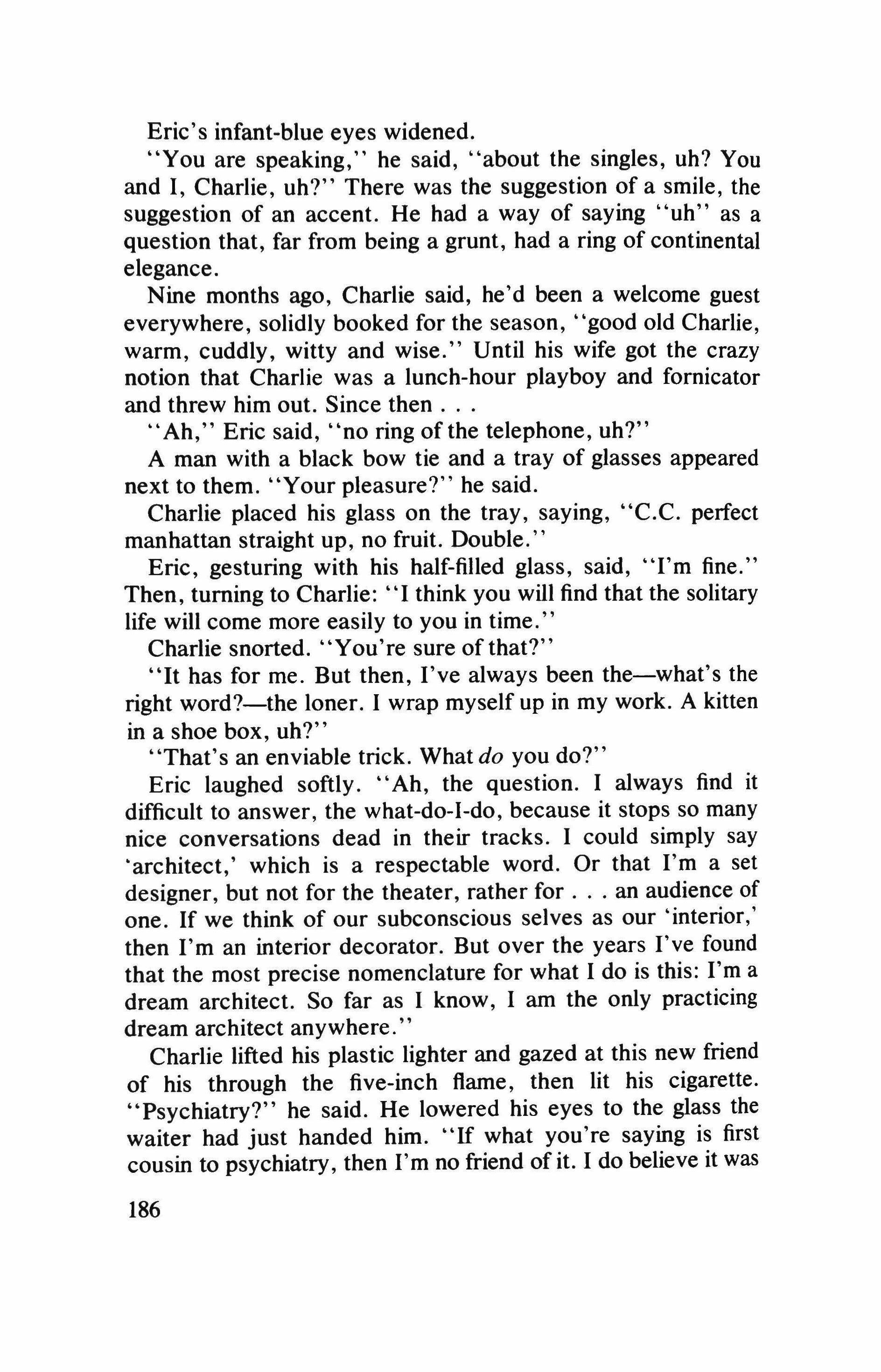
Eric's infant-blue eyes widened.
"You are speaking," he said, "about the singles, uh? You and I, Charlie, uh?" There was the suggestion of a smile, the suggestion of an accent. He had a way of saying "uh" as a question that, far from being a grunt, had a ring of continental elegance.
Nine months ago, Charlie said, he'd been a welcome guest everywhere, solidly booked for the season, "good old Charlie, warm, cuddly, witty and wise." Until his wife got the crazy notion that Charlie was a lunch-hour playboy and fornicator and threw him out. Since then
Ah," Eric said, "no ring of the telephone, uh?"
A man with a black bow tie and a tray of glasses appeared next to them. "Your pleasure?" he said.
Charlie placed his glass on the tray, saying, "C.c. perfect manhattan straight up, no fruit. Double."
Eric, gesturing with his half-filled glass, said, ''I'm fine." Then, turning to Charlie: "I think you will find that the solitary life will come more easily to you in time."
Charlie snorted. "You're sure of that?"
"It has for me. But then, I've always been the-what's the right word?-the loner. I wrap myself up in my work. A kitten in a shoe box, uh?"
"That's an enviable trick. What do you do?"
Eric laughed softly. Ah, the question. I always find it difficult to answer, the what-do-I-do, because it stops so many nice conversations dead in their tracks. I could simply say 'architect,' which is a respectable word. Or that I'm a set designer, but not for the theater, rather for an audience of one. If we think of our subconscious selves as our 'interior,' then I'm an interior decorator. But over the years I've found that the most precise nomenclature for what I do is this: I'm a dream architect. So far as I know, I am the only practicing dream architect anywhere."
Charlie lifted his plastic lighter and gazed at this new friend of his through the five-inch flame, then lit his cigarette. "Psychiatry?" he said. He lowered his eyes to the glass the waiter had just handed him. "If what you're saying is first cousin to psychiatry, then I'm no friend of it. I do believe it was
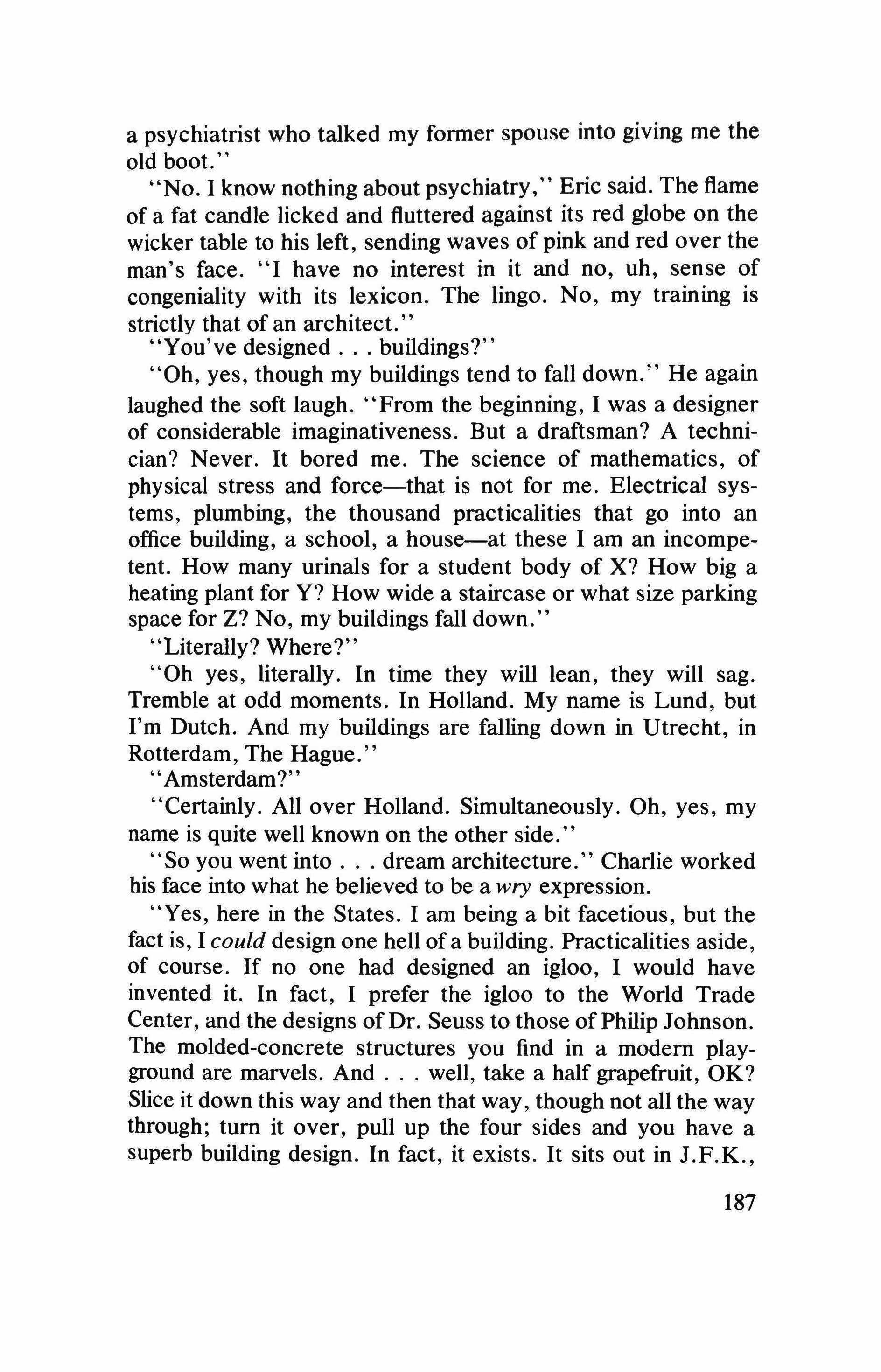
a psychiatrist who talked my former spouse into giving me the old boot."
"No. I know nothing about psychiatry," Eric said. The flame of a fat candle licked and fluttered against its red globe on the wicker table to his left, sending waves of pink and red over the man's face. "I have no interest in it and no, uh, sense of congeniality with its lexicon. The lingo. No, my training is strictly that of an architect.
"You've designed buildings?"
"Oh, yes, though my buildings tend to fall down." He again laughed the soft laugh. "From the beginning, I was a designer of considerable imaginativeness. But a draftsman? A technician? Never. It bored me. The science of mathematics, of physical stress and force-that is not for me. Electrical systems, plumbing, the thousand practicalities that go into an office building, a school, a house-at these I am an incompetent. How many urinals for a student body of X? How big a heating plant for Y? How wide a staircase or what size parking space for Z? No, my buildings fall down."
"Literally? Where?"
"Oh yes, literally. In time they will lean, they will sag. Tremble at odd moments. In Holland. My name is Lund, but I'm Dutch. And my buildings are falling down in Utrecht, in Rotterdam, The Hague."
"Amsterdam?"
"Certainly. All over Holland. Simultaneously. Oh, yes, my name is quite well known on the other side."
"So you went into dream architecture." Charlie worked his face into what he believed to be a wry expression.
"Yes, here in the States. I am being a bit facetious, but the fact is, I could design one hell of a building. Practicalities aside, of course. If no one had designed an igloo, I would have invented it. In fact, I prefer the igloo to the World Trade Center, and the designs of Dr. Seuss to those of Philip Johnson. The molded-concrete structures you find in a modern playground are marvels. And well, take a half grapefruit, OK? Slice it down this way and then that way, though not all the way through; turn it over, pull up the four sides and you have a superb building design. In fact, it exists. It sits out in J.F.K.,
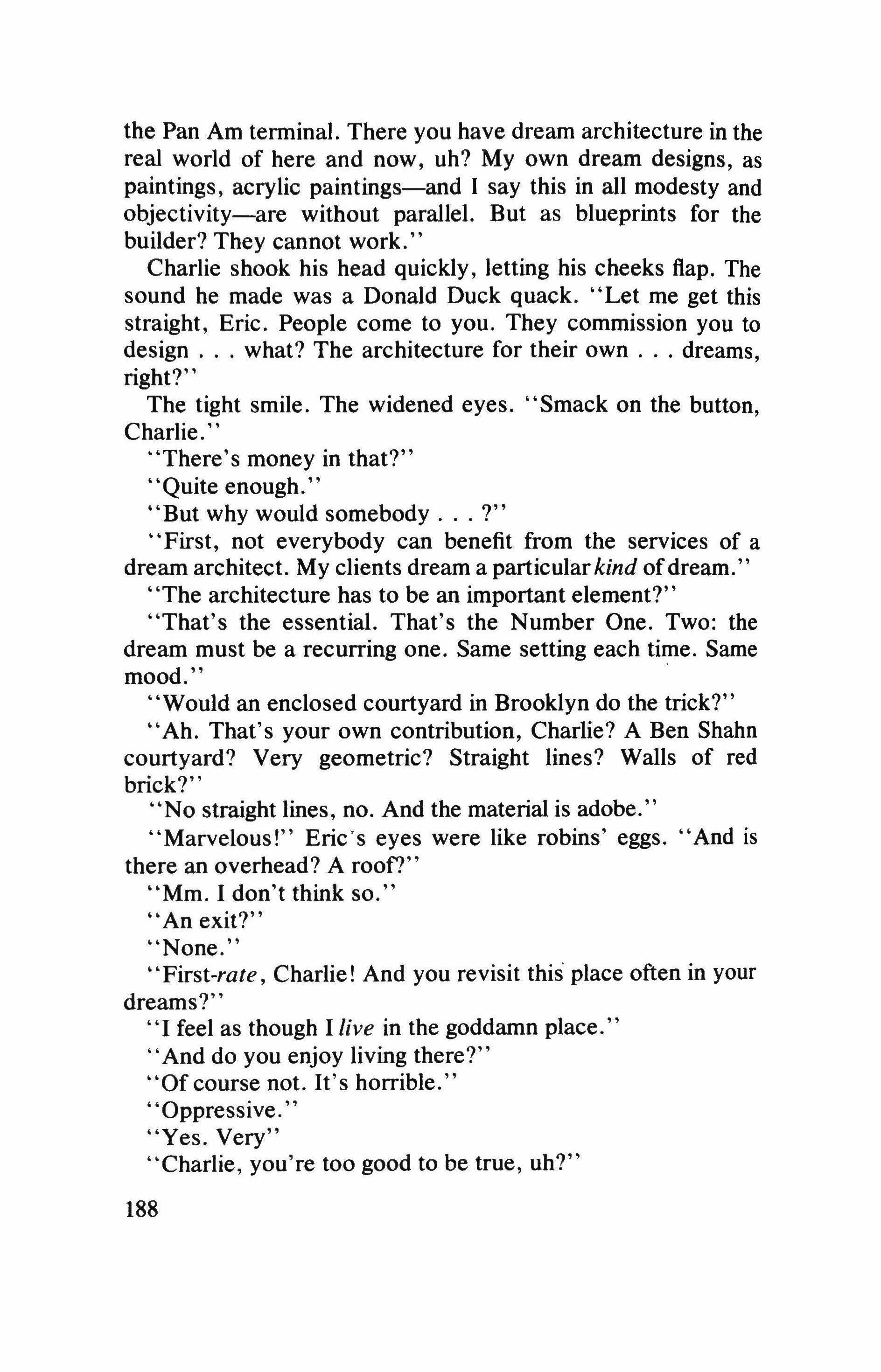
the Pan Am terminal. There you have dream architecture in the real world of here and now, uh? My own dream designs, as paintings, acrylic paintings-and I say this in all modesty and objectivity-are without parallel. But as blueprints for the builder? They cannot work."
Charlie shook his head quickly, letting his cheeks flap. The sound he made was a Donald Duck quack. "Let me get this straight, Eric. People come to you. They commission you to design what? The architecture for their own dreams, right?"
The tight smile. The widened eyes. "Smack on the button, Charlie.
"There's money in that?"
"Quite enough."
"But why would somebody ?"
"First, not everybody can benefit from the services of a dream architect. My clients dream a particularkind ofdream."
"The architecture has to be an important element?"
"That's the essential. That's the Number One. Two: the dream must be a recurring one. Same setting each time. Same mood."
"Would an enclosed courtyard in Brooklyn do the trick?"
"Ah. That's your own contribution, Charlie? A Ben Shahn courtyard? Very geometric? Straight lines? Walls of red brick?"
"No straight lines, no. And the material is adobe."
"Marvelous!" Eric's eyes were like robins' eggs. "And is there an overhead? A roof?"
"Mm. I don't think so."
"An exit?"
"None.
"First-rate, Charlie! And you revisit this place often in your dreams?"
"I feel as though Ilive in the goddamn place."
"And do you enjoy living there?"
"Of course not. It's horrible."
"Oppressive.
"Yes. Very"
"Charlie, you're too good to be true, uh?" 188
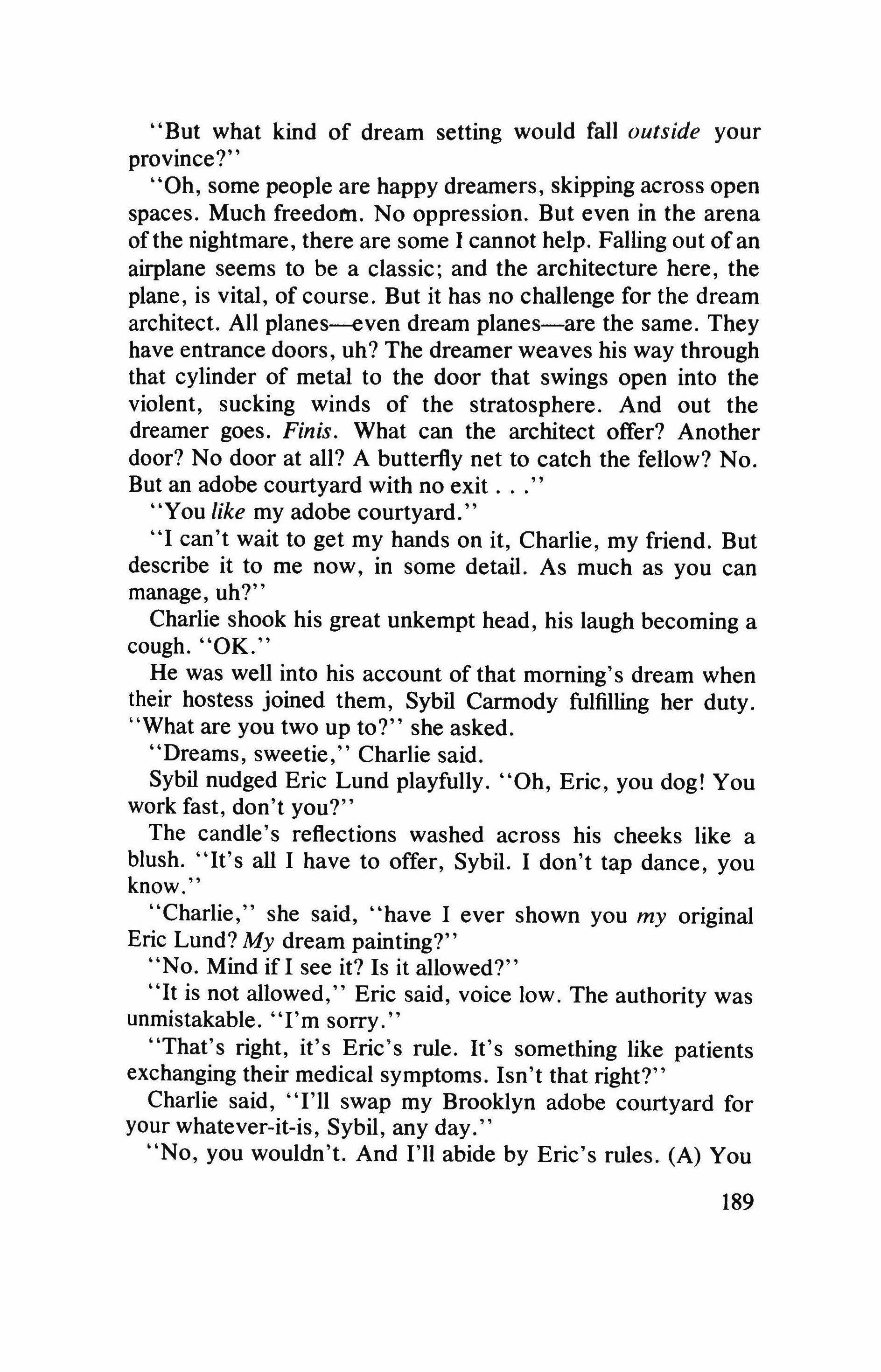
"But what kind of dream setting would fall outside your province?"
"Oh, some people are happy dreamers, skipping across open spaces. Much freedom. No oppression. But even in the arena ofthe nightmare, there are some I cannot help. Falling out of an airplane seems to be a classic; and the architecture here, the plane, is vital, of course. But it has no challenge for the dream architect. All planes-even dream planes-are the same. They have entrance doors, uh? The dreamer weaves his way through that cylinder of metal to the door that swings open into the violent, sucking winds of the stratosphere. And out the dreamer goes. Finis. What can the architect offer? Another door? No door at all? A butterfly net to catch the fellow? No. But an adobe courtyard with no exit
"You like my adobe courtyard."
"I can't wait to get my hands on it, Charlie, my friend. But describe it to me now, in some detail. As much as you can manage, uh?"
Charlie shook his great unkempt head, his laugh becoming a cough. "OK."
He was well into his account of that morning's dream when their hostess joined them, Sybil Carmody fulfilling her duty. "What are you two up to?" she asked.
"Dreams, sweetie," Charlie said.
Sybil nudged Eric Lund playfully. "Oh, Eric, you dog! You work fast, don't you?"
The candle's reflections washed across his cheeks like a blush. "It's all I have to offer, Sybil. I don't tap dance, you know."
"Charlie," she said, "have I ever shown you my original Eric Lund? My dream painting?"
"No. Mind if I see it? Is it allowed?"
"It is not allowed," Eric said, voice low. The authority was unmistakable. 'T m sorry."
"That's right, it's Eric's rule. It's something like patients exchanging their medical symptoms. Isn't that right?"
Charlie said, "I'll swap my Brooklyn adobe courtyard for your whatever-it-is, Sybil, any day."
"No, you wouldn't. And I'll abide by Eric's rules. (A) You
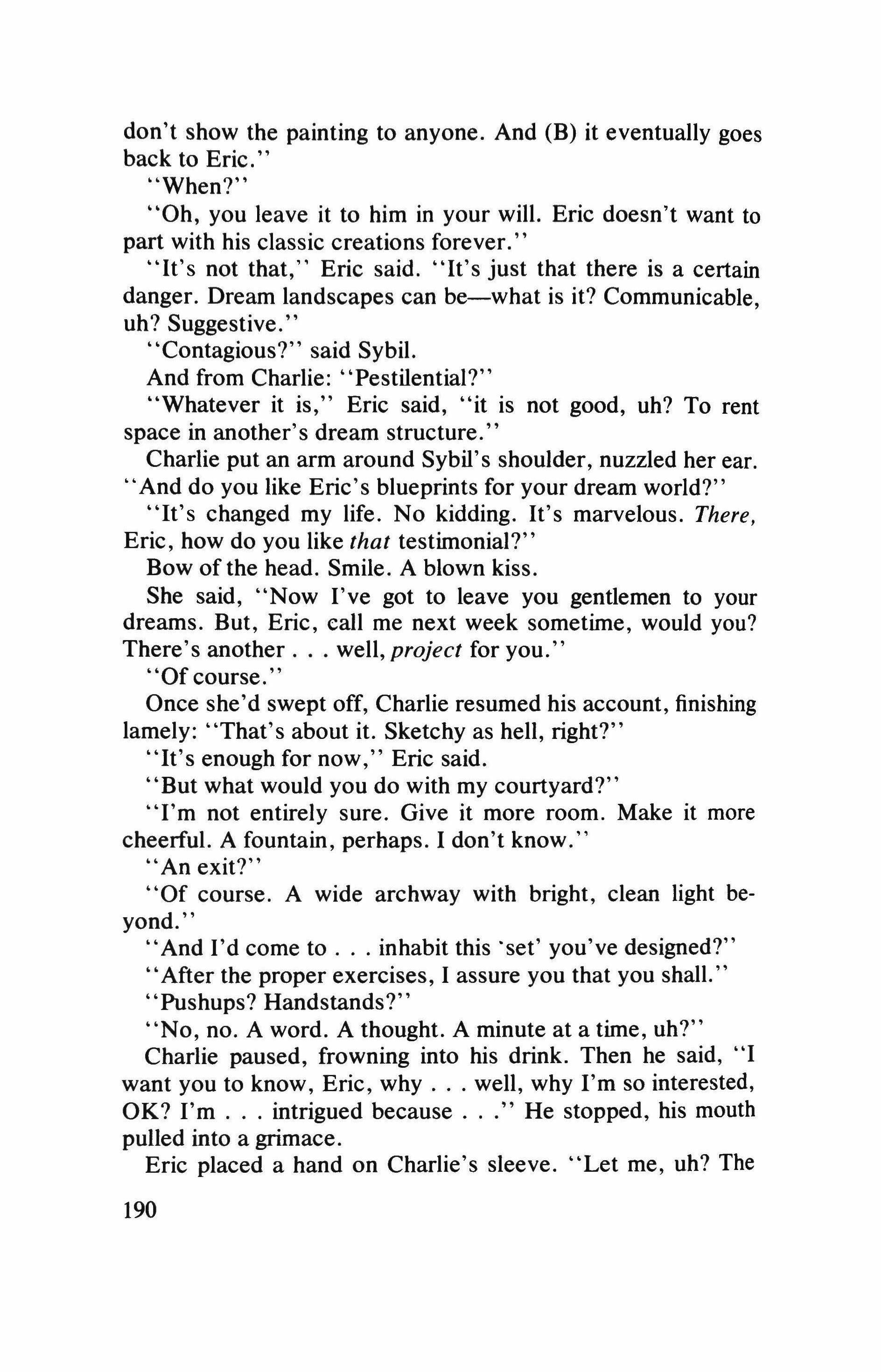
don't show the painting to anyone. And (B) it eventually goes back to Eric."
"When?"
"Oh, you leave it to him in your will. Eric doesn't want to part with his classic creations forever. "
"It's not that," Eric said. "It's just that there is a certain danger. Dream landscapes can be-what is it? Communicable, uh? Suggestive."
"Contagious?" said Sybil. And from Charlie: "Pestilential?"
"Whatever it is," Eric said, "it is not good, uh? To rent space in another's dream structure."
Charlie put an arm around Sybil's shoulder, nuzzled her ear. "And do you like Eric's blueprints for your dream world?"
"It's changed my life. No kidding. It's marvelous. There, Eric, how do you like that testimonial?"
Bow of the head. Smile. A blown kiss.
She said, "Now I've got to leave you gentlemen to your dreams. But, Eric, call me next week sometime, would you? There's another. well, project for you.
"Of course.
Once she'd swept off, Charlie resumed his account, finishing lamely: "That's about it. Sketchy as hell, right?"
"It's enough for now," Eric said.
"But what would you do with my courtyard?"
"I'm not entirely sure. Give it more room. Make it more cheerful. A fountain, perhaps. I don't know."
"An exit?"
"Of course. A wide archway with bright, clean light beyond."
"And I'd come to inhabit this 'set' you've designed?"
"After the proper exercises, I assure you that you shall."
"Pushups? Handstands?"
"No, no. A word. A thought. A minute at a time, uh?"
Charlie paused, frowning into his drink. Then he said, "I want you to know, Eric, why well, why I'm so interested, OK? I'm intrigued because He stopped, his mouth pulled into a grimace.
Eric placed a hand on Charlie's sleeve. "Let me, uh? The
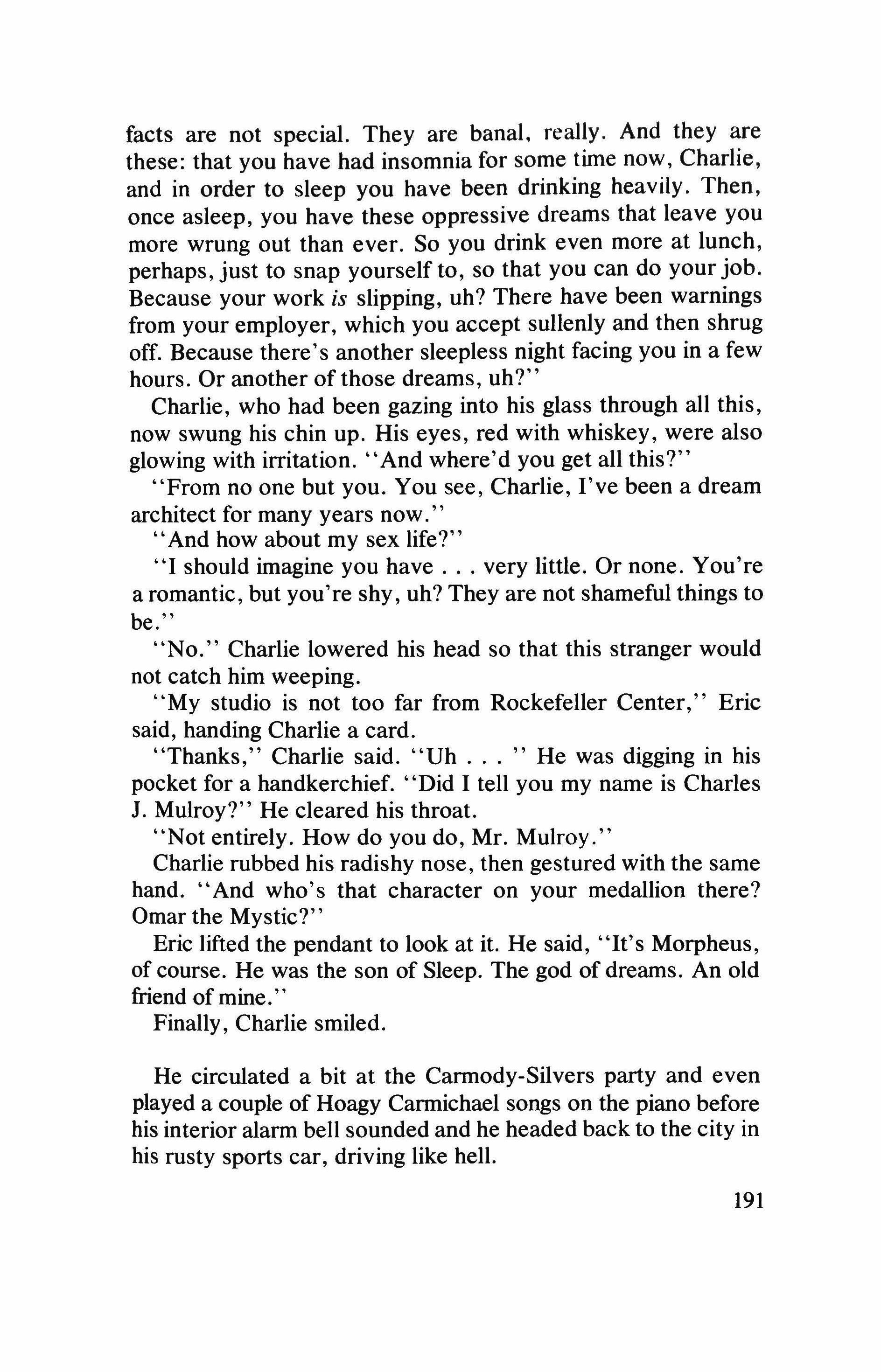
facts are not special. They are banal. really. And they are these: that you have had insomnia for some time now, Charlie, and in order to sleep you have been drinking heavily. Then, once asleep, you have these oppressive dreams that leave you more wrung out than ever. So you drink even more at lunch, perhaps, just to snap yourself to, so that you can do your job. Because your work is slipping, uh? There have been warnings from your employer, which you accept sullenly and then shrug off. Because there's another sleepless night facing you in a few hours. Or another of those dreams, uh?'
Charlie, who had been gazing into his glass through all this, now swung his chin up. His eyes, red with whiskey, were also glowing with irritation. "And where'd you get all this?"
"From no one but you. You see, Charlie, I've been a dream architect for many years now."
"And how about my sex life?"
"I should imagine you have very little. Or none. You're a romantic, but you're shy, uh? They are not shameful things to be."
"No." Charlie lowered his head so that this stranger would not catch him weeping.
"My studio is not too far from Rockefeller Center," Eric said, handing Charlie a card.
"Thanks," Charlie said. "Uh He was digging in his pocket for a handkerchief. "Did I tell you my name is Charles J. Mulroy?" He cleared his throat.
"Not entirely. How do you do, Mr. Mulroy."
Charlie rubbed his radishy nose, then gestured with the same hand. "And who's that character on your medallion there? Omar the Mystic?"
Eric lifted the pendant to look at it. He said, "It's Morpheus, of course. He was the son of Sleep. The god of dreams. An old friend of mine.
Finally, Charlie smiled.
He circulated a bit at the Carmody-Silvers party and even played a couple of Hoagy Carmichael songs on the piano before his interior alarm bell sounded and he headed back to the city in his rusty sports car, driving like hell.
191
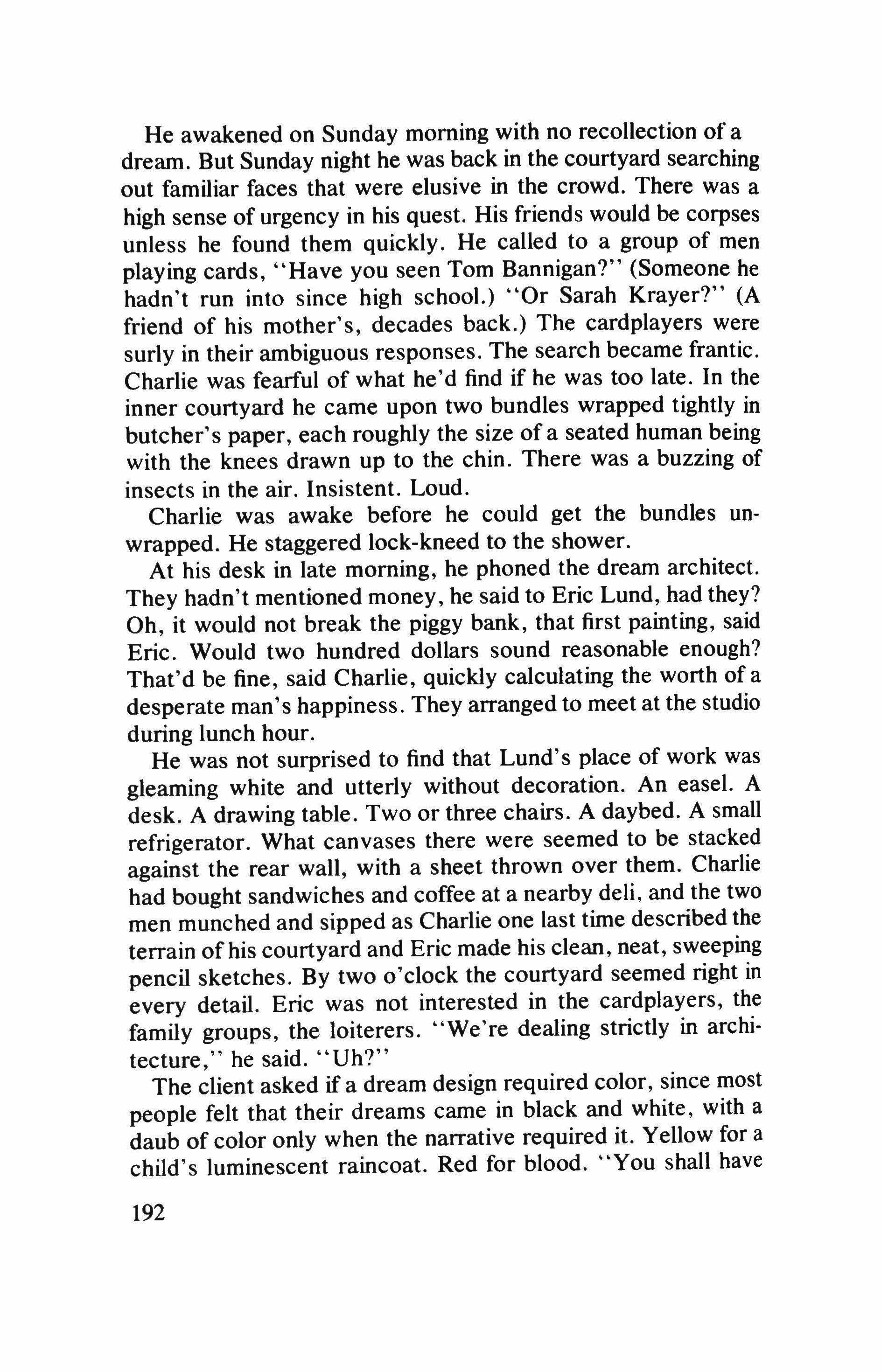
He awakened on Sunday morning with no recollection of a dream. But Sunday night he was back in the courtyard searching out familiar faces that were elusive in the crowd. There was a high sense of urgency in his quest. His friends would be corpses unless he found them quickly. He called to a group of men playing cards, "Have you seen Tom 8annigan?" (Someone he hadn't run into since high school.) "Or Sarah Krayer?" (A friend of his mother's, decades back.) The cardplayers were surly in their ambiguous responses. The search became frantic. Charlie was fearful of what he'd find if he was too late. In the inner courtyard he came upon two bundles wrapped tightly in butcher's paper, each roughly the size of a seated human being with the knees drawn up to the chin. There was a buzzing of insects in the air. Insistent. Loud.
Charlie was awake before he could get the bundles unwrapped. He staggered lock-kneed to the shower.
At his desk in late morning, he phoned the dream architect. They hadn't mentioned money, he said to Eric Lund, had they? Oh, it would not break the piggy bank, that first painting, said Eric. Would two hundred dollars sound reasonable enough? That'd be fine, said Charlie, quickly calculating the worth of a desperate man's happiness. They arranged to meet at the studio during lunch hour.
He was not surprised to find that Lund's place of work was gleaming white and utterly without decoration. An easel. A desk. A drawing table. Two or three chairs. A daybed. A small refrigerator. What canvases there were seemed to be stacked against the rear wall, with a sheet thrown over them. Charlie had bought sandwiches and coffee at a nearby deli, and the two men munched and sipped as Charlie one last time described the terrain of his courtyard and Eric made his clean, neat, sweeping pencil sketches. By two o'clock the courtyard seemed right in every detail. Eric was not interested in the cardplayers, the family groups, the loiterers. "We're dealing strictly in architecture," he said. "Uh?"
The client asked if a dream design required color, since most people felt that their dreams came in black and white, with a daub of color only when the narrative required it. Yellow for a child's luminescent raincoat. Red for blood. "You shall have
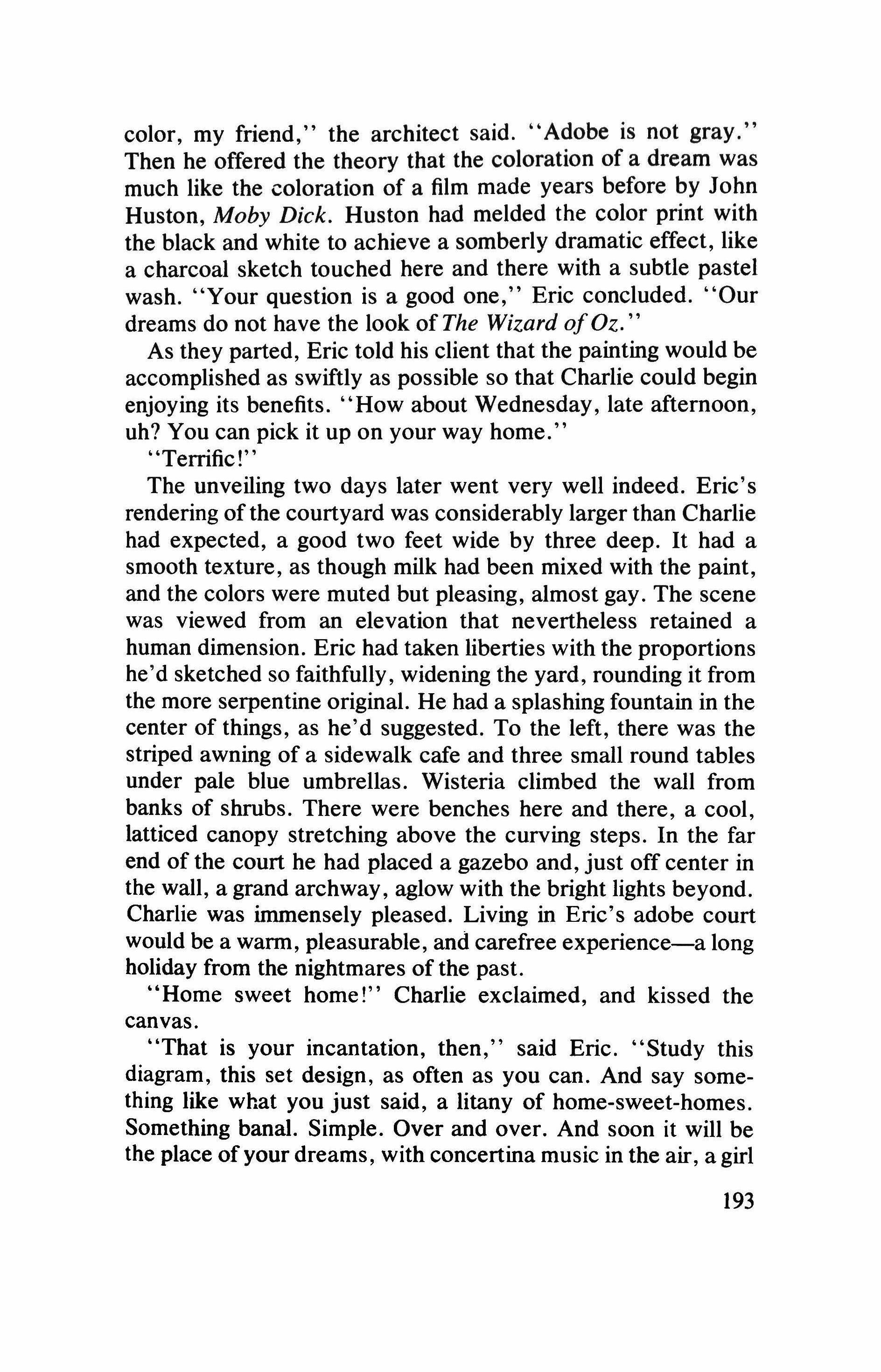
color, my friend," the architect said Adobe is not gray." Then he offered the theory that the coloration of a dream was much like the coloration of a film made years before by John Huston, Moby Dick. Huston had melded the color print with the black and white to achieve a somberly dramatic effect, like a charcoal sketch touched here and there with a subtle pastel wash. "Your question is a good one," Eric concluded. "Our dreams do not have the look of The Wizard ofOz.
As they parted, Eric told his client that the painting would be accomplished as swiftly as possible so that Charlie could begin enjoying its benefits. "How about Wednesday, late afternoon, uh? You can pick it up on your way home."
"Terrific!"
The unveiling two days later went very well indeed. Eric's rendering of the courtyard was considerably larger than Charlie had expected, a good two feet wide by three deep. It had a smooth texture, as though milk had been mixed with the paint, and the colors were muted but pleasing, almost gay. The scene was viewed from an elevation that nevertheless retained a human dimension. Eric had taken liberties with the proportions he'd sketched so faithfully, widening the yard, rounding it from the more serpentine original. He had a splashing fountain in the center of things, as he'd suggested. To the left, there was the striped awning of a sidewalk cafe and three small round tables under pale blue umbrellas. Wisteria climbed the wall from banks of shrubs. There were benches here and there, a cool, latticed canopy stretching above the curving steps. In the far end of the court he had placed a gazebo and, just off center in the wall, a grand archway, aglow with the bright lights beyond. Charlie was immensely pleased. Living in Eric's adobe court would be a warm, pleasurable, and carefree experience-a long holiday from the nightmares of the past.
"Home sweet home!" Charlie exclaimed, and kissed the canvas.
"That is your incantation, then," said Eric. "Study this diagram, this set design, as often as you can. And say something like what you just said, a litany of home-sweet-homes. Something banal. Simple. Over and over. And soon it will be the place of your dreams, with concertina music in the air, a girl
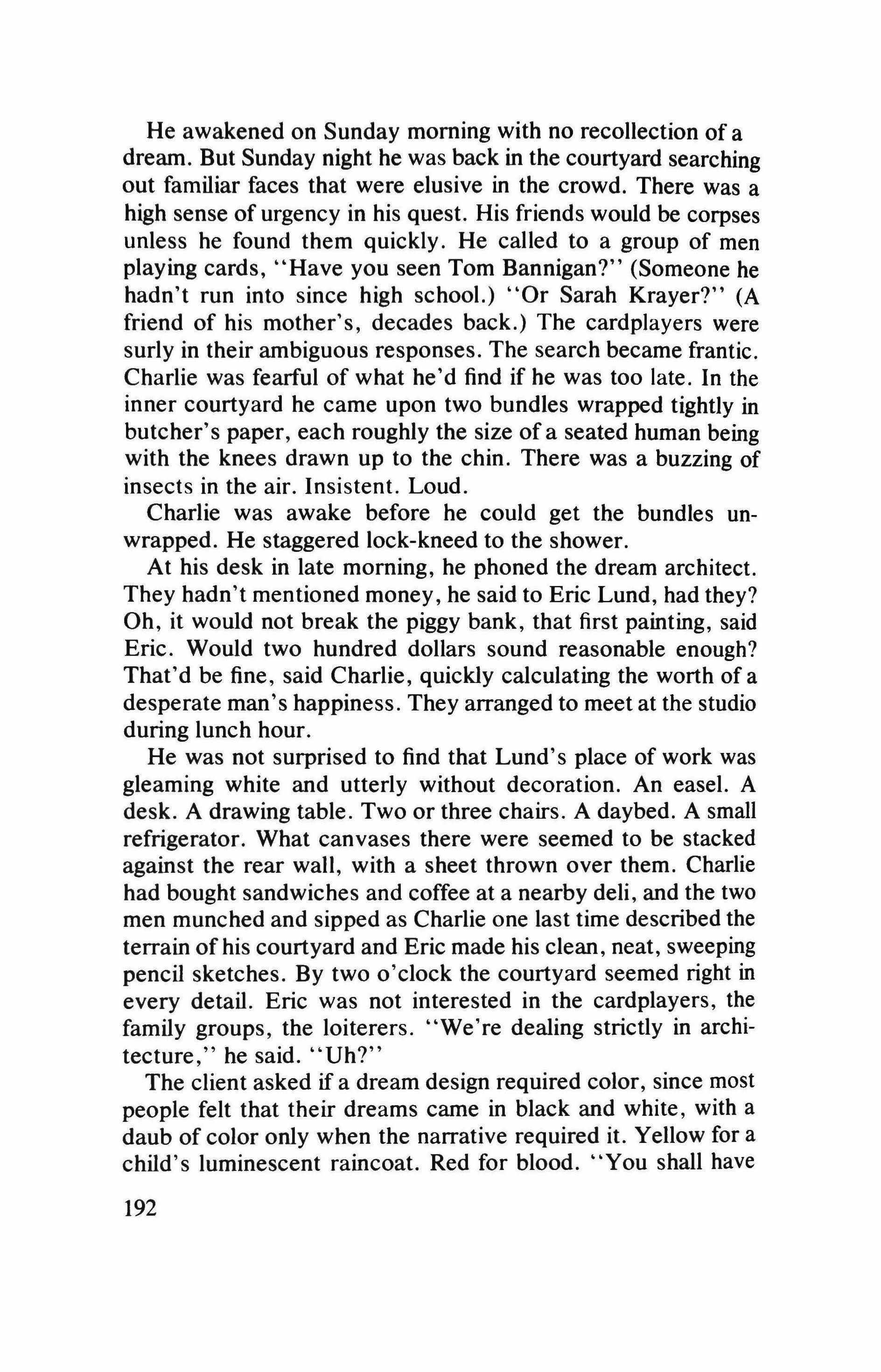
He awakened on Sunday morning with no recollection of a dream. But Sunday night he was back in the courtyard searching out familiar faces that were elusive in the crowd. There was a high sense of urgency in his quest. His friends would be corpses unless he found them quickly. He called to a group of men playing cards, "Have you seen Tom Bannigan?" (Someone he hadn't run into since high school.) "Or Sarah Krayer?" (A friend of his mother's, decades back.) The cardplayers were surly in their ambiguous responses. The search became frantic. Charlie was fearful of what he'd find if he was too late. In the inner courtyard he came upon two bundles wrapped tightly in butcher's paper, each roughly the size ofa seated human being with the knees drawn up to the chin. There was a buzzing of insects in the air. Insistent. Loud.
Charlie was awake before he could get the bundles unwrapped. He staggered lock-kneed to the shower.
At his desk in late morning, he phoned the dream architect. They hadn't mentioned money, he said to Eric Lund, had they? Oh, it would not break the piggy bank, that first painting, said Eric. Would two hundred dollars sound reasonable enough? That'd be fine, said Charlie, quickly calculating the worth of a desperate man's happiness. They arranged to meet at the studio during lunch hour.
He was not surprised to find that Lund's place of work was gleaming white and utterly without decoration. An easel. A desk. A drawing table. Two or three chairs. A daybed. A small refrigerator. What canvases there were seemed to be stacked against the rear wall, with a sheet thrown over them. Charlie had bought sandwiches and coffee at a nearby deli, and the two men munched and sipped as Charlie one last time described the terrain of his courtyard and Eric made his clean, neat, sweeping pencil sketches. By two o'clock the courtyard seemed right in every detail. Eric was not interested in the cardplayers, the family groups, the loiterers. "We're dealing strictly in architecture," he said. "Uh?"
The client asked if a dream design required color, since most people felt that their dreams came in black and white, with a daub of color only when the narrative required it. Yellow for a child's luminescent raincoat. Red for blood. "You shall have
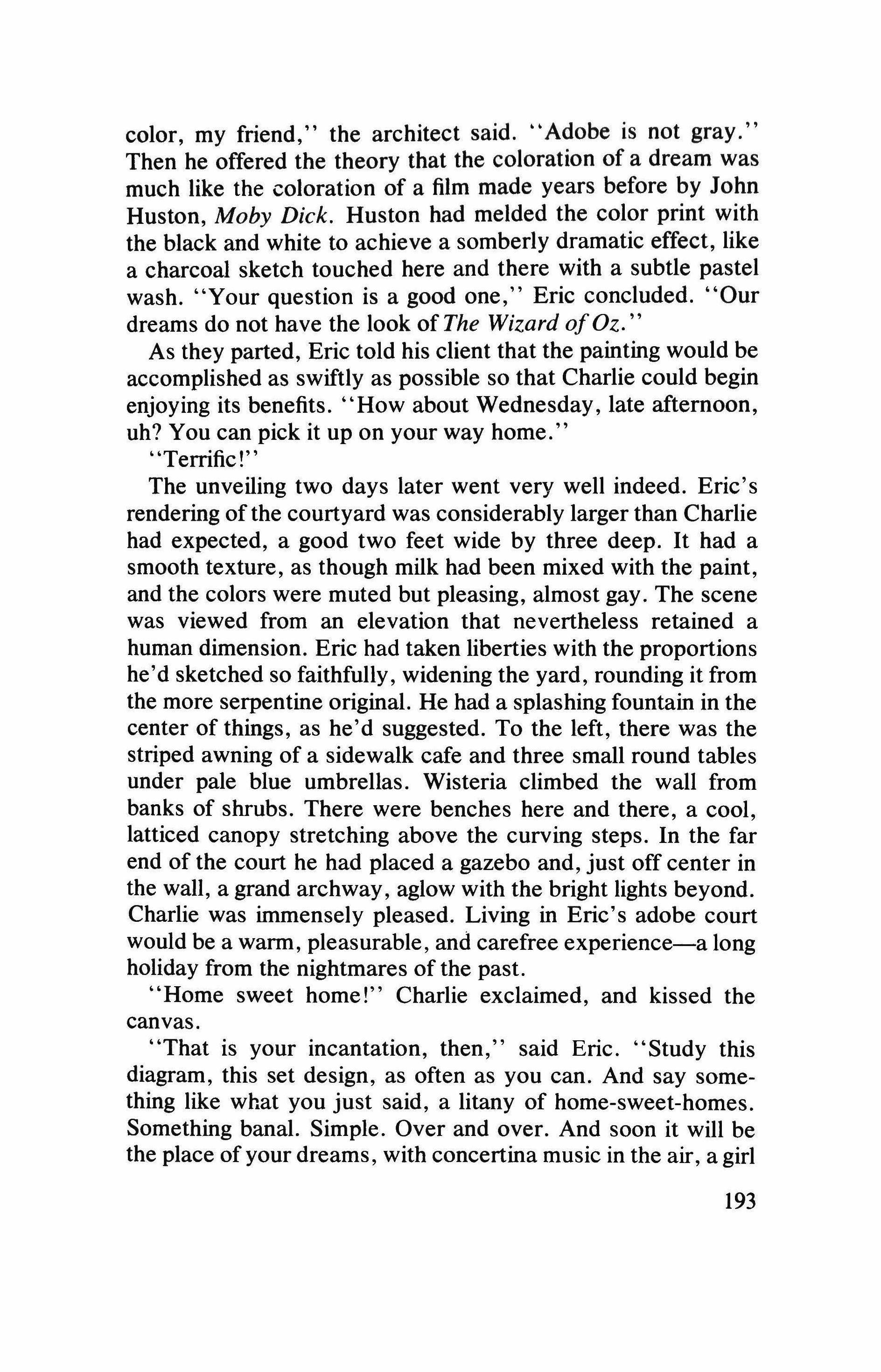
color, my friend," the architect said. "Adobe is not gray." Then he offered the theory that the coloration of a dream was much like the coloration of a film made years before by John Huston, Moby Dick. Huston had melded the color print with the black and white to achieve a somberly dramatic effect, like a charcoal sketch touched here and there with a subtle pastel wash. "Your question is a good one," Eric concluded. "Our dreams do not have the look of The Wizard ofOz.
As they parted, Eric told his client that the painting would be accomplished as swiftly as possible so that Charlie could begin enjoying its benefits. "How about Wednesday, late afternoon, uh? You can pick it up on your way home."
"Terrific!"
The unveiling two days later went very well indeed. Eric's rendering of the courtyard was considerably larger than Charlie had expected, a good two feet wide by three deep. It had a smooth texture, as though milk had been mixed with the paint, and the colors were muted but pleasing, almost gay. The scene was viewed from an elevation that nevertheless retained a human dimension. Eric had taken liberties with the proportions he'd sketched so faithfully, widening the yard, rounding it from the more serpentine original. He had a splashing fountain in the center of things, as he'd suggested. To the left, there was the striped awning of a sidewalk cafe and three small round tables under pale blue umbrellas. Wisteria climbed the wall from banks of shrubs. There were benches here and there, a cool, latticed canopy stretching above the curving steps. In the far end of the court he had placed a gazebo and, just off center in the wall, a grand archway, aglow with the bright lights beyond. Charlie was immensely pleased. Living in Eric's adobe court would be a warm, pleasurable, and carefree experience-a long holiday from the nightmares of the past.
"Home sweet home!" Charlie exclaimed, and kissed the canvas.
"That is your incantation, then," said Eric. "Study this diagram, this set design, as often as you can. And say something like what you just said, a litany of home-sweet-homes. Something banal. Simple. Over and over. And soon it will be the place of your dreams, with concertina music in the air, a girl
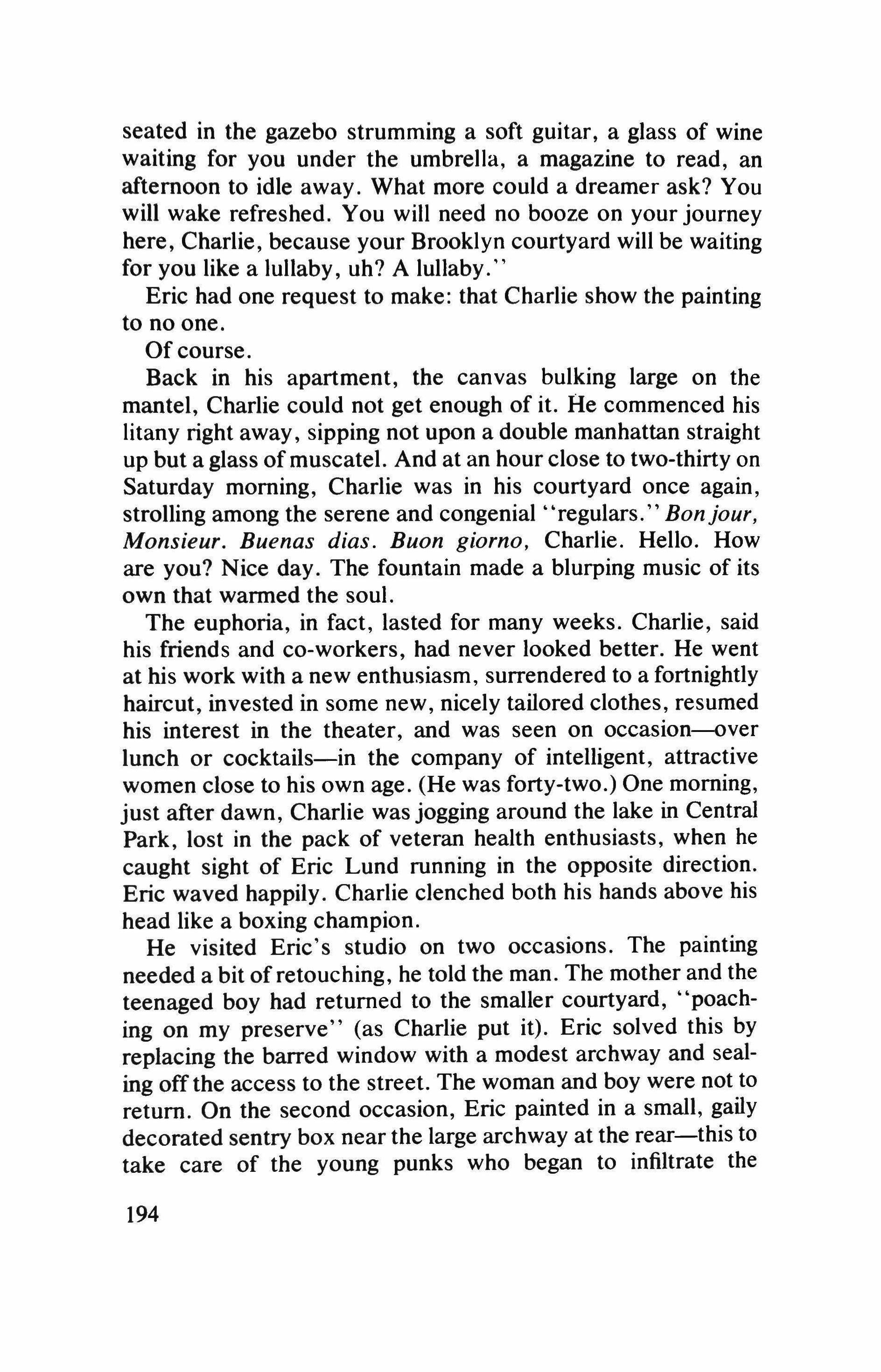
seated in the gazebo strumming a soft guitar, a glass of wine waiting for you under the umbrella, a magazine to read, an afternoon to idle away. What more could a dreamer ask? You will wake refreshed. You will need no booze on your journey here, Charlie, because your Brooklyn courtyard will be waiting for you like a lullaby, uh? A lullaby.
Eric had one request to make: that Charlie show the painting to no one.
Of course.
Back in his apartment, the canvas bulking large on the mantel, Charlie could not get enough of it. fie commenced his litany right away, sipping not upon a double manhattan straight up but a glass of muscatel. And at an hour close to two-thirty on Saturday morning, Charlie was in his courtyard once again, strolling among the serene and congenial "regulars." Bonjour, Monsieur. Buenas dias. Buon giorno, Charlie. Hello. How are you? Nice day. The fountain made a blurping music of its own that warmed the soul.
The euphoria, in fact, lasted for many weeks. Charlie, said his friends and co-workers, had never looked better. He went at his work with a new enthusiasm, surrendered to a fortnightly haircut, invested in some new, nicely tailored clothes, resumed his interest in the theater, and was seen on occasion---over lunch or cocktails-in the company of intelligent, attractive women close to his own age. (He was forty-two.) One morning, just after dawn, Charlie was jogging around the lake in Central Park, lost in the pack of veteran health enthusiasts, when he caught sight of Eric Lund running in the opposite direction. Eric waved happily. Charlie clenched both his hands above his head like a boxing champion.
He visited Eric's studio on two occasions. The painting needed a bit of retouching, he told the man. The mother and the teenaged boy had returned to the smaller courtyard, "poaching on my preserve" (as Charlie put it). Eric solved this by replacing the barred window with a modest archway and sealing off the access to the street. The woman and boy were not to return. On the second occasion, Eric painted in a small, gaily decorated sentry box near the large archway at the rear-this to take care of the young punks who began to infiltrate the
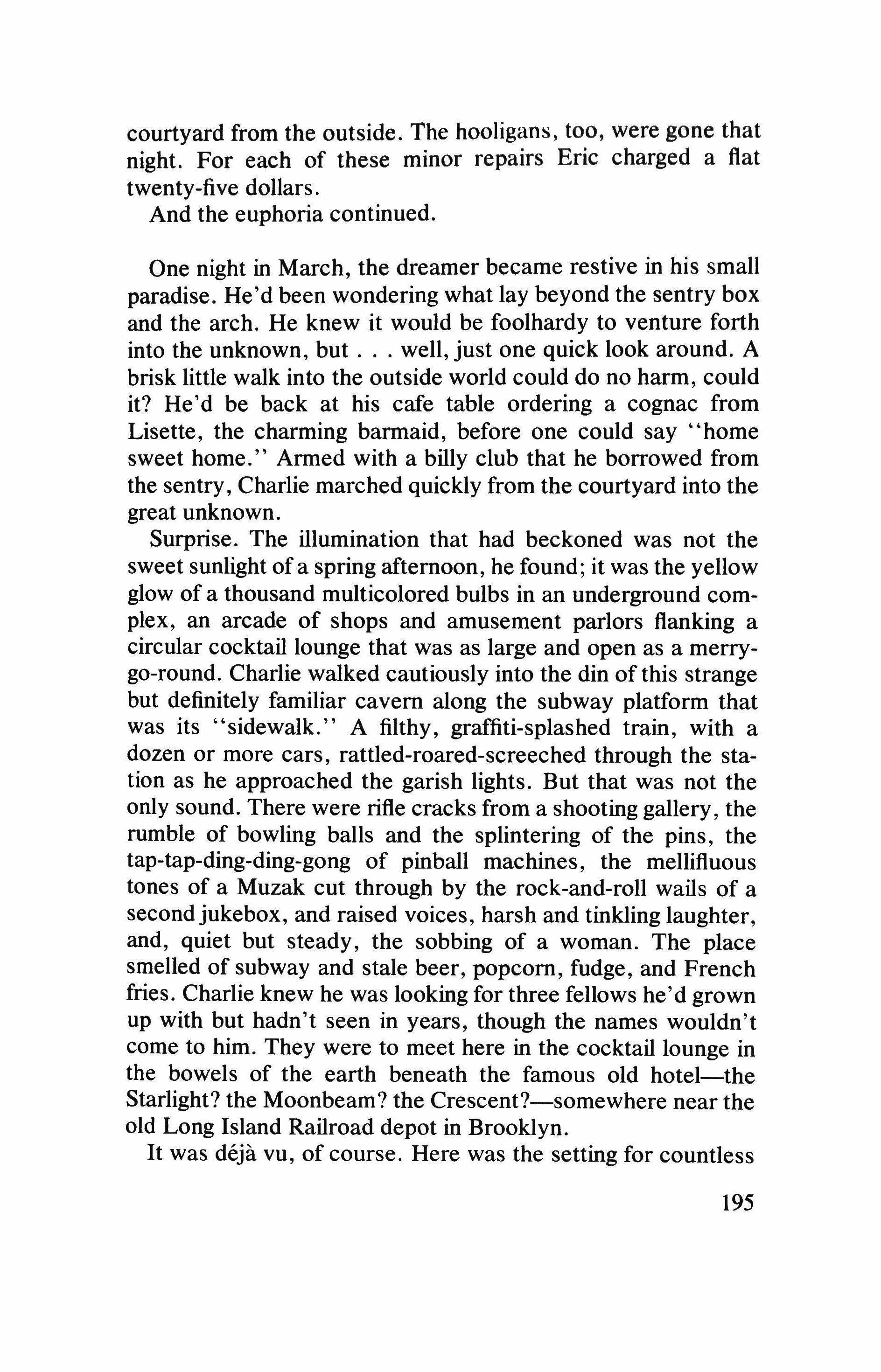
courtyard from the outside. The hooligans, too, were gone that night. For each of these minor repairs Eric charged a flat twenty-five dollars. And the euphoria continued.
One night in March, the dreamer became restive in his small paradise. He'd been wondering what lay beyond the sentry box and the arch. He knew it would be foolhardy to venture forth into the unknown, but well, just one quick look around. A brisk little walk into the outside world could do no harm, could it? He'd be back at his cafe table ordering a cognac from Lisette, the charming barmaid, before one could say "home sweet home." Armed with a billy club that he borrowed from the sentry, Charlie marched quickly from the courtyard into the great unknown.
Surprise. The illumination that had beckoned was not the sweet sunlight ofa spring afternoon, he found; it was the yellow glow of a thousand multicolored bulbs in an underground complex, an arcade of shops and amusement parlors flanking a circular cocktail lounge that was as large and open as a merrygo-round. Charlie walked cautiously into the din of this strange but definitely familiar cavern along the subway platform that was its "sidewalk." A filthy, graffiti-splashed train, with a dozen or more cars, rattled-roared-screeched through the station as he approached the garish lights. But that was not the only sound. There were rifle cracks from a shooting gallery, the rumble of bowling balls and the splintering of the pins, the tap-tap-ding-ding-gong of pinball machines, the mellifluous tones of a Muzak cut through by the rock-and-roll wails of a secondjukebox, and raised voices, harsh and tinkling laughter, and, quiet but steady, the sobbing of a woman. The place smelled of subway and stale beer, popcorn, fudge, and French fries. Charlie knew he was looking for three fellows he'd grown up with but hadn't seen in years, though the names wouldn't come to him. They were to meet here in the cocktail lounge in the bowels of the earth beneath the famous old hotel-the Starlight? the Moonbeam? the Crescent?-somewhere near the old Long Island Railroad depot in Brooklyn. It was deja vu, of course. Here was the setting for countless
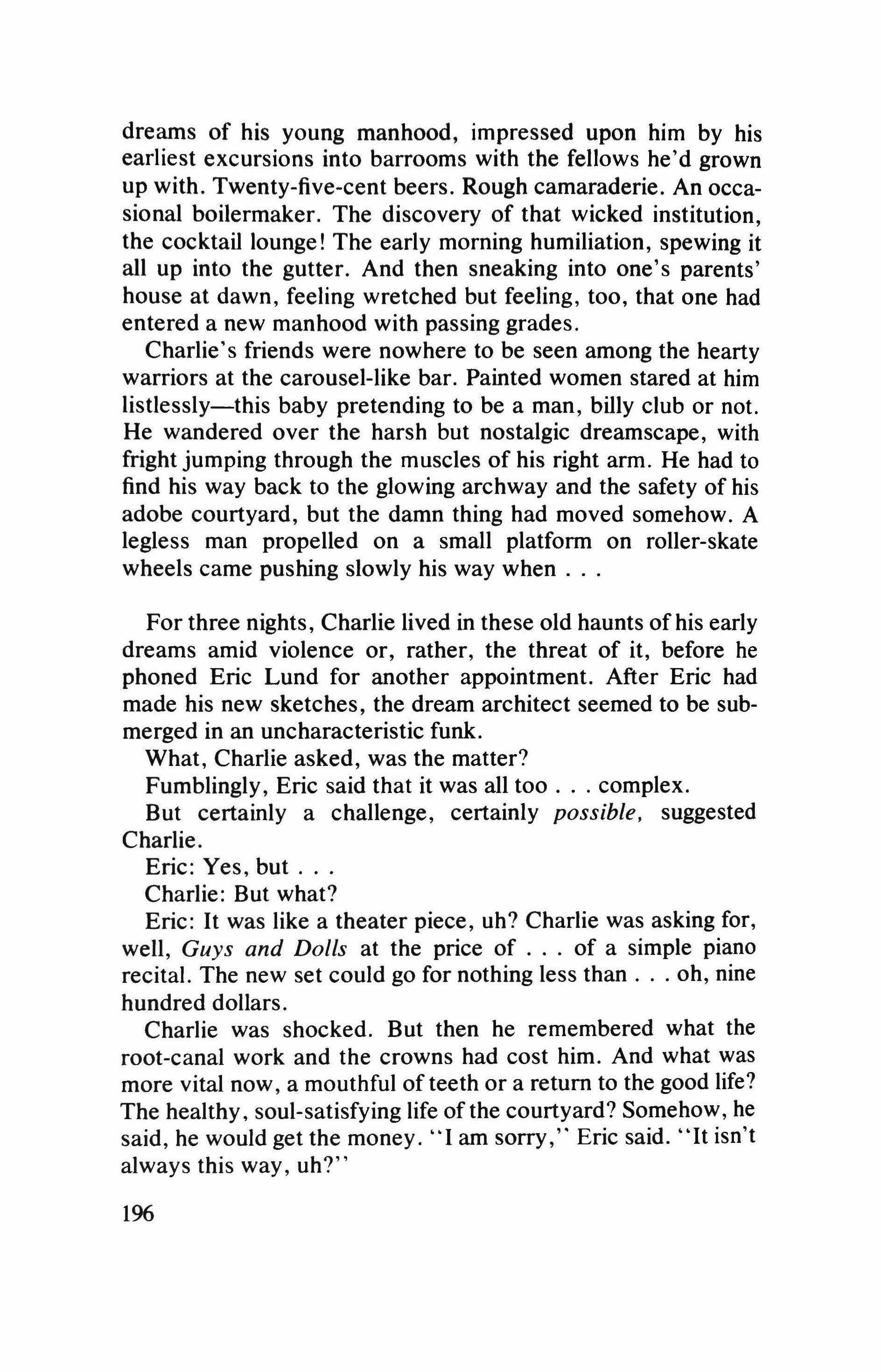
dreams of his young manhood, impressed upon him by his earliest excursions into barrooms with the fellows he'd grown up with. Twenty-five-cent beers. Rough camaraderie. An occasional boilermaker. The discovery of that wicked institution, the cocktail lounge! The early morning humiliation, spewing it all up into the gutter. And then sneaking into one's parents' house at dawn, feeling wretched but feeling, too, that one had entered a new manhood with passing grades.
Charlie's friends were nowhere to be seen among the hearty warriors at the carousel-like bar. Painted women stared at him listlessly-this baby pretending to be a man, billy club or not. He wandered over the harsh but nostalgic dreamscape, with fright jumping through the muscles of his right arm. He had to find his way back to the glowing archway and the safety of his adobe courtyard, but the damn thing had moved somehow. A legless man propelled on a small platform on roller-skate wheels came pushing slowly his way when
For three nights, Charlie lived in these old haunts of his early dreams amid violence or, rather, the threat of it, before he phoned Eric Lund for another appointment. After Eric had made his new sketches, the dream architect seemed to be submerged in an uncharacteristic funk.
What, Charlie asked, was the matter?
Fumblingly, Eric said that it was all too complex. But certainly a challenge, certainly possible. suggested Charlie.
Eric: Yes, but
Charlie: But what?
Eric: It was like a theater piece, uh? Charlie was asking for, well, Guys and Dolls at the price of of a simple piano recital. The new set could go for nothing less than oh, nine hundred dollars.
Charlie was shocked. But then he remembered what the root-canal work and the crowns had cost him. And what was more vital now, a mouthful of teeth or a return to the good life? The healthy, soul-satisfying life of the courtyard? Somehow, he said, he would get the money. "I am sorry," Eric said. "It isn't always this way, uh?"
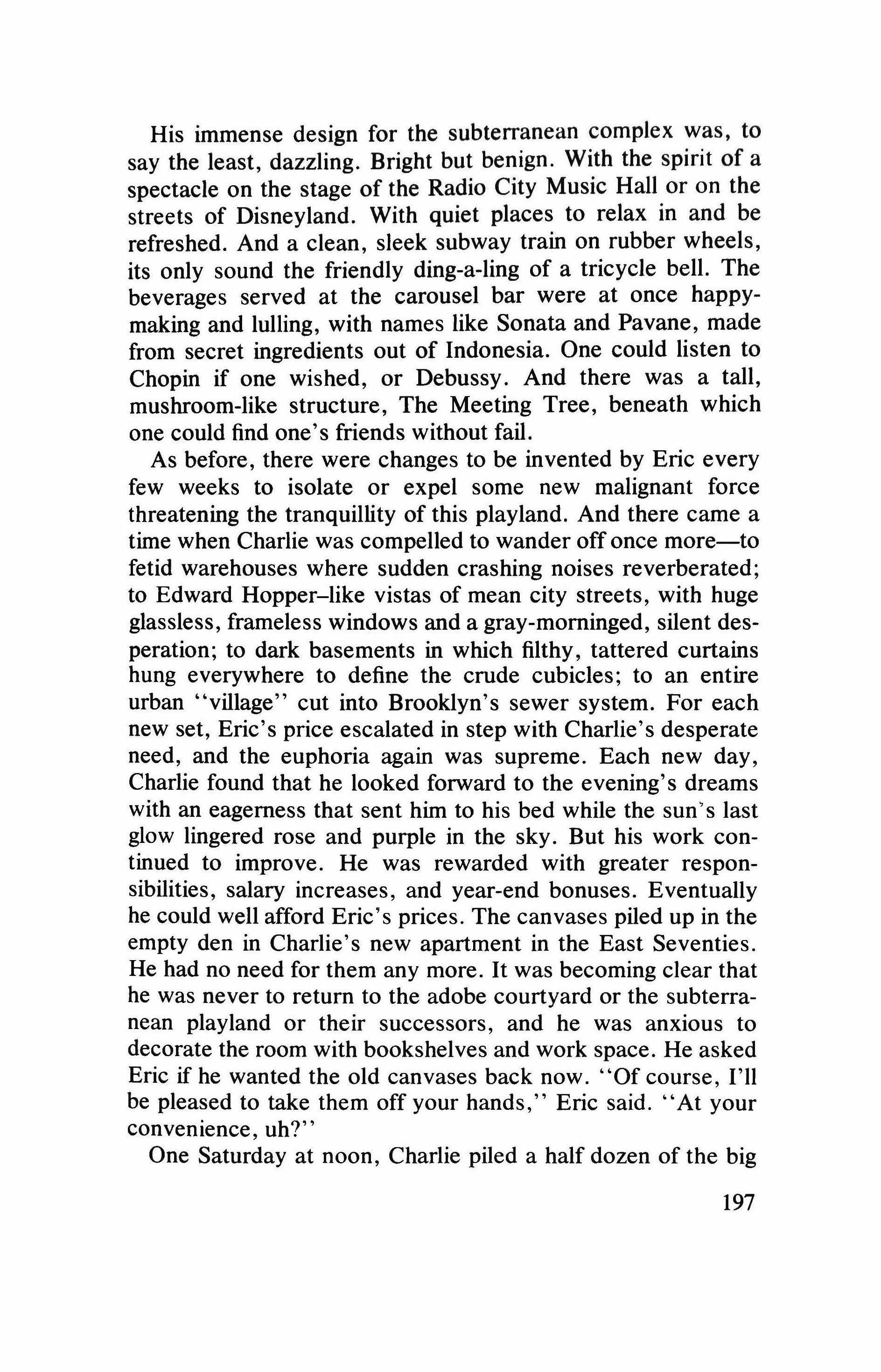
His immense design for the subterranean complex was, to say the least, dazzling. Bright but benign. With the spirit of a spectacle on the stage of the Radio City Music Hall or on the streets of Disneyland. With quiet places to relax in and be refreshed. And a clean, sleek subway train on rubber wheels, its only sound the friendly ding-a-ling of a tricycle bell. The beverages served at the carousel bar were at once happymaking and lulling, with names like Sonata and Pavane, made from secret ingredients out of Indonesia. One could listen to Chopin if one wished, or Debussy. And there was a tall, mushroom-like structure, The Meeting Tree, beneath which one could find one's friends without fail.
As before, there were changes to be invented by Eric every few weeks to isolate or expel some new malignant force threatening the tranquillity of this playland. And there came a time when Charlie was compelled to wander off once more-to fetid warehouses where sudden crashing noises reverberated; to Edward Hopper-like vistas of mean city streets, with huge glassless, frameless windows and a gray-morninged, silent desperation; to dark basements in which filthy, tattered curtains hung everywhere to define the crude cubicles; to an entire urban "village" cut into Brooklyn's sewer system. For each new set, Eric's price escalated in step with Charlie's desperate need, and the euphoria again was supreme. Each new day, Charlie found that he looked forward to the evening's dreams with an eagerness that sent him to his bed while the sun's last glow lingered rose and purple in the sky. But his work continued to improve. He was rewarded with greater responsibilities, salary increases, and year-end bonuses. Eventually he could well afford Eric's prices. The canvases piled up in the empty den in Charlie's new apartment in the East Seventies. He had no need for them any more. It was becoming clear that he was never to return to the adobe courtyard or the subterranean playland or their successors, and he was anxious to decorate the room with bookshelves and work space. He asked Eric if he wanted the old canvases back now. "Of course, I'll be pleased to take them off your hands," Eric said. "At your convenience, uh?"
One Saturday at noon, Charlie piled a half dozen of the big 197
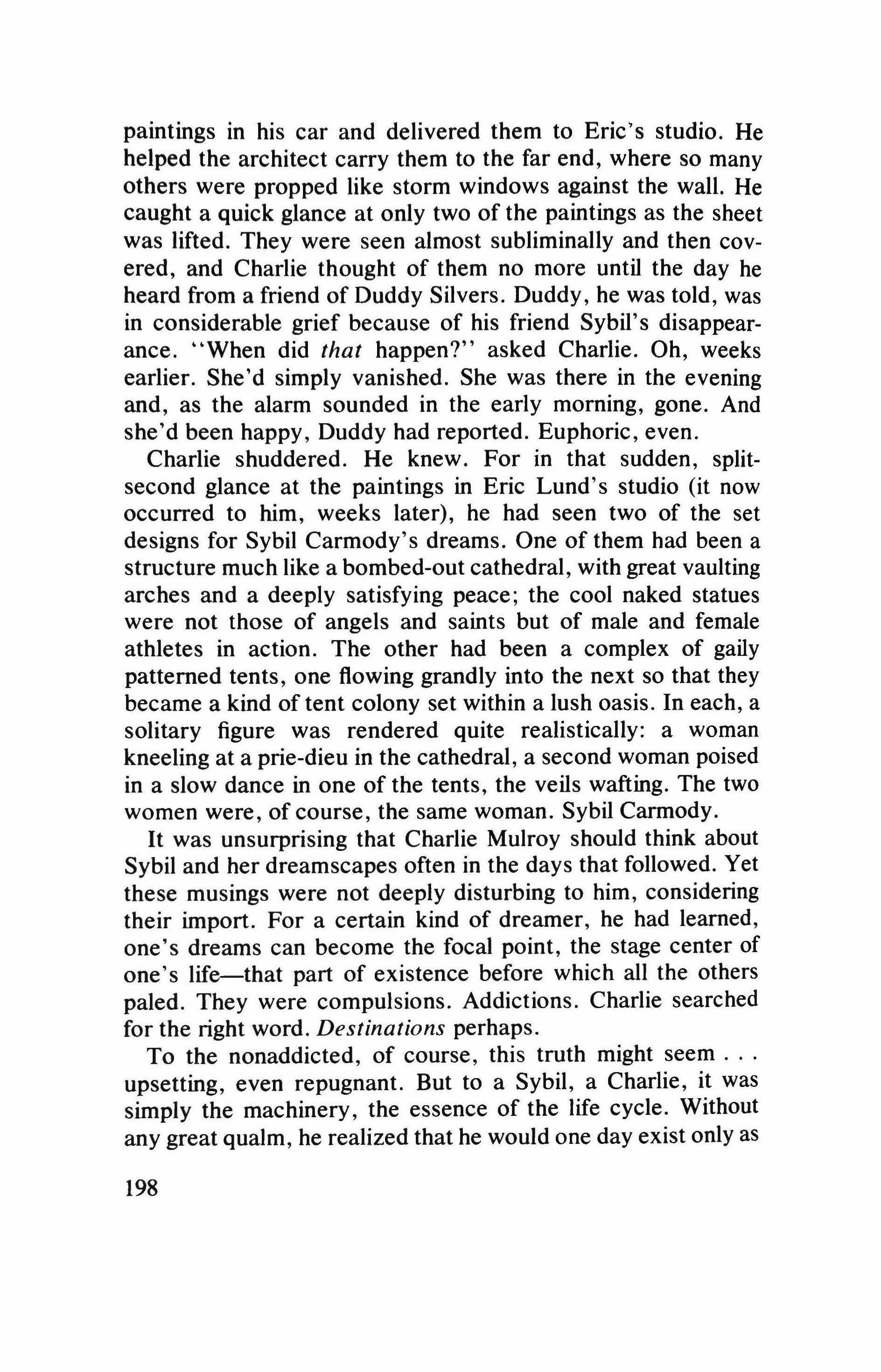
paintings in his car and delivered them to Eric's studio. He helped the architect carry them to the far end, where so many others were propped like storm windows against the wall. He caught a quick glance at only two of the paintings as the sheet was lifted. They were seen almost subliminally and then covered, and Charlie thought of them no more until the day he heard from a friend of Duddy Silvers. Duddy, he was told, was in considerable grief because of his friend Sybil's disappearance. "When did that happen?" asked Charlie. Oh, weeks earlier. She'd simply vanished. She was there in the evening and, as the alarm sounded in the early morning, gone. And she'd been happy, Duddy had reported. Euphoric, even.
Charlie shuddered. He knew. For in that sudden, splitsecond glance at the paintings in Eric Lund's studio (it now occurred to him, weeks later), he had seen two of the set designs for Sybil Carmody's dreams. One of them had been a structure much like a bombed-out cathedral, with great vaulting arches and a deeply satisfying peace; the cool naked statues were not those of angels and saints but of male and female athletes in action. The other had been a complex of gaily patterned tents, one flowing grandly into the next so that they became a kind of tent colony set within a lush oasis. In each, a solitary figure was rendered quite realistically: a woman kneeling at a prie-dieu in the cathedral, a second woman poised in a slow dance in one of the tents, the veils wafting. The two women were, of course, the same woman. Sybil Carmody.
It was unsurprising that Charlie Mulroy should think about Sybil and her dreamscapes often in the days that followed. Yet these musings were not deeply disturbing to him, considering their import. For a certain kind of dreamer, he had learned, one's dreams can become the focal point, the stage center of one's life-that part of existence before which all the others paled. They were compulsions. Addictions. Charlie searched for the right word. Destinations perhaps.
To the nonaddicted, of course, this truth might seem upsetting, even repugnant. But to a Sybil, a Charlie, it was simply the machinery, the essence of the life cycle. Without any great qualm, he realized that he would one day exist only as
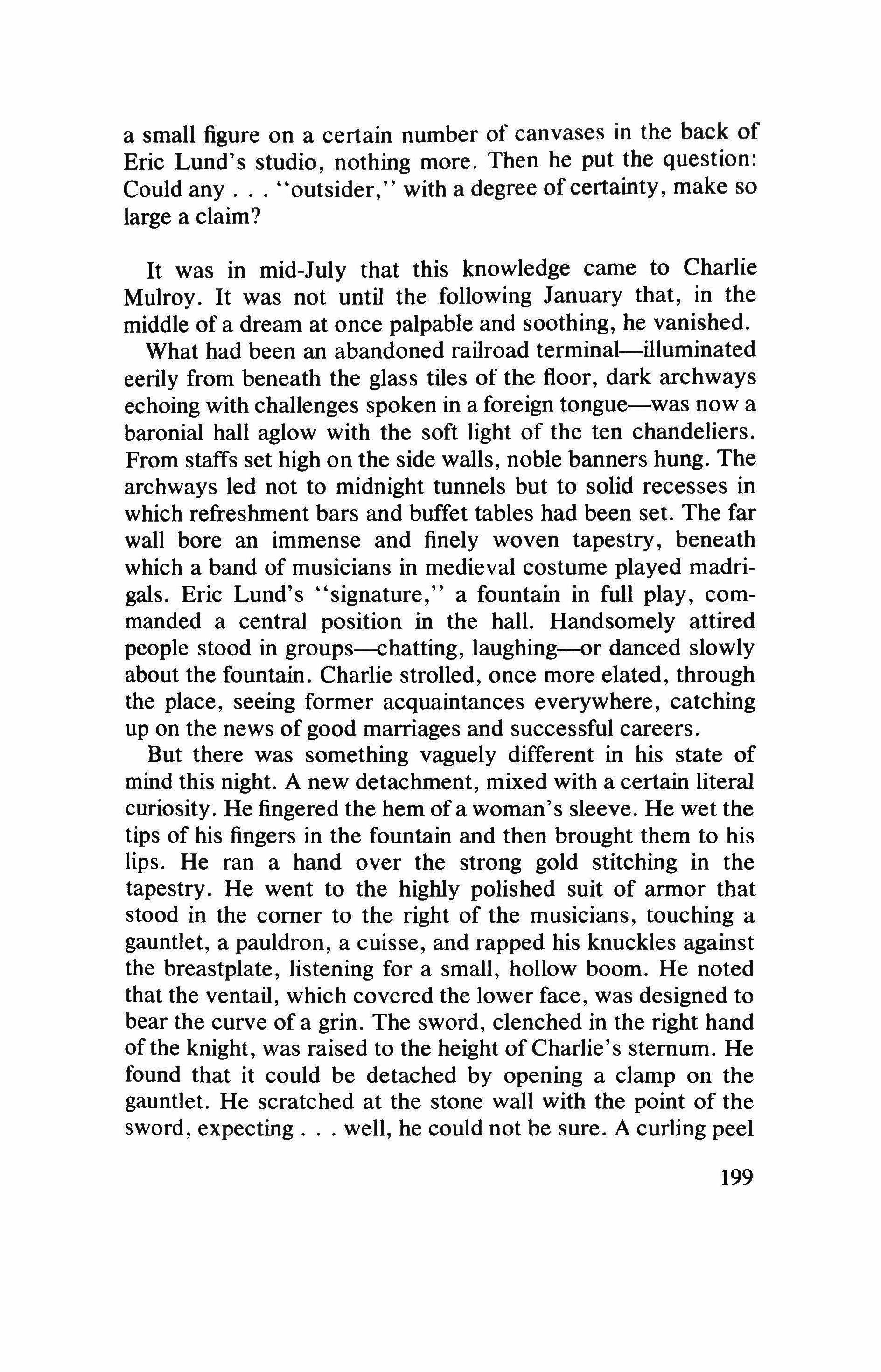
a small figure on a certain number of canvases in the back of Eric Lund's studio, nothing more. Then he put the question: Could any "outsider," with a degree of certainty, make so large a claim?
It was in mid-July that this knowledge came to Charlie Mulroy. It was not until the following January that, in the middle of a dream at once palpable and soothing, he vanished. What had been an abandoned railroad terminal-illuminated eerily from beneath the glass tiles of the floor, dark archways echoing with challenges spoken in a foreign tongue-was now a baronial hall aglow with the soft light of the ten chandeliers. From staffs set high on the side walls, noble banners hung. The archways led not to midnight tunnels but to solid recesses in which refreshment bars and buffet tables had been set. The far wall bore an immense and finely woven tapestry, beneath which a band of musicians in medieval costume played madrigals. Eric Lund's "signature," a fountain in full play, commanded a central position in the hall. Handsomely attired people stood in groups=-chatting, laughing-or danced slowly about the fountain. Charlie strolled, once more elated, through the place, seeing former acquaintances everywhere, catching up on the news of good marriages and successful careers.
But there was something vaguely different in his state of mind this night. A new detachment, mixed with a certain literal curiosity. He fingered the hem ofa woman's sleeve. He wet the tips of his fingers in the fountain and then brought them to his lips. He ran a hand over the strong gold stitching in the tapestry. He went to the highly polished suit of armor that stood in the comer to the right of the musicians, touching a gauntlet, a pauldron, a cuisse, and rapped his knuckles against the breastplate, listening for a small, hollow boom. He noted that the ventail, which covered the lower face, was designed to bear the curve of a grin. The sword, clenched in the right hand of the knight, was raised to the height of Charlie's sternum. He found that it could be detached by opening a clamp on the gauntlet. He scratched at the stone wall with the point of the sword, expecting well, he could not be sure. A curling peel
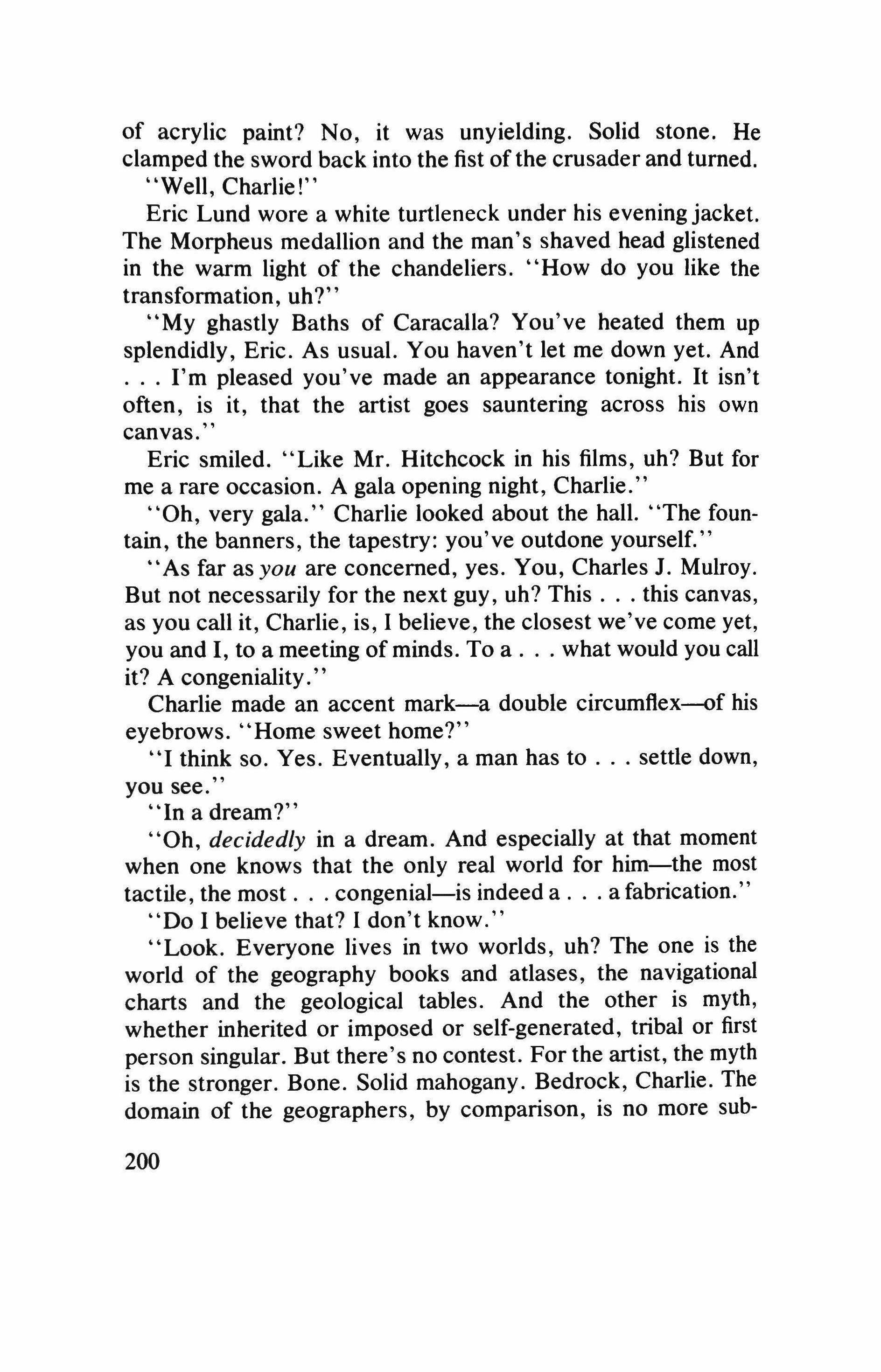
of acrylic paint? No, it was unyielding. Solid stone. He clamped the sword back into the fist of the crusader and turned.
"Well, Charlie!"
Eric Lund wore a white turtleneck under his eveningjacket. The Morpheus medallion and the man's shaved head glistened in the warm light of the chandeliers. "How do you like the transformation, uh?"
"My ghastly Baths of Caracalla? You've heated them up splendidly, Eric. As usual. You haven't let me down yet. And I'm pleased you've made an appearance tonight. It isn't often, is it, that the artist goes sauntering across his own canvas.
Eric smiled. "Like Mr. Hitchcock in his films, uh? But for me a rare occasion. A gala opening night, Charlie."
"Oh, very gala." Charlie looked about the hall. "The fountain, the banners, the tapestry: you've outdone yourself."
"As far as you are concerned, yes. You, Charles J. Mulroy. But not necessarily for the next guy, uh? This this canvas, as you call it, Charlie, is, I believe, the closest we've come yet, you and I, to a meeting of minds. To a what would you call it? A congeniality. "
Charlie made an accent mark-a double circumftex-of his eyebrows. "Home sweet home?"
"I think so. Yes. Eventually, a man has to settle down, you see."
"In a dream?"
"Oh, decidedly in a dream. And especially at that moment when one knows that the only real world for him-the most tactile, the most congenial-is indeed a a fabrication."
"Do I believe that? I don't know."
"Look. Everyone lives in two worlds, uh? The one is the world of the geography books and atlases, the navigational charts and the geological tables. And the other is myth, whether inherited or imposed or self-generated, tribal or first person singular. But there's no contest. For the artist, the myth is the stronger. Bone. Solid mahogany. Bedrock, Charlie. The domain of the geographers, by comparison, is no more sub-
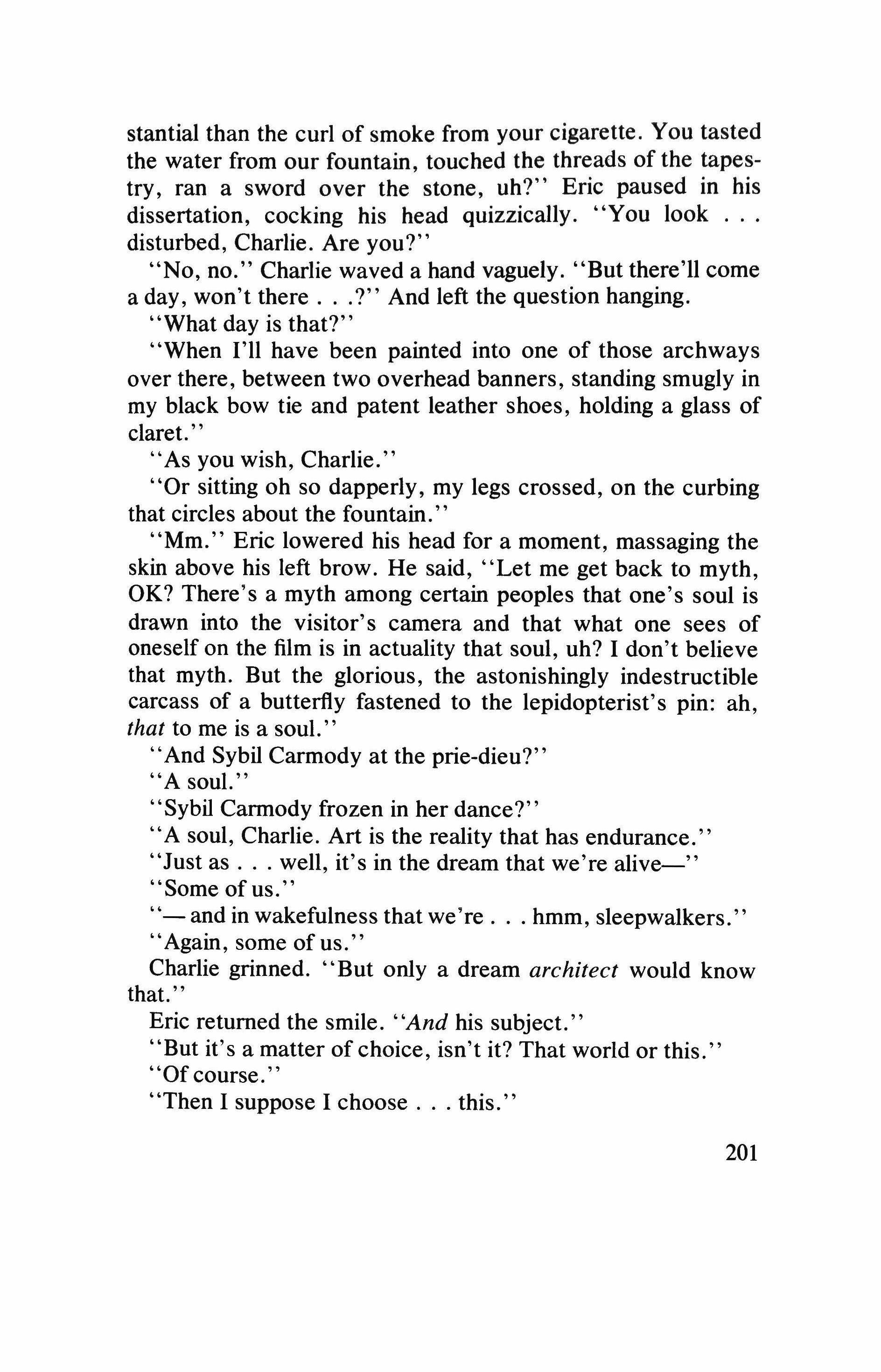
stantial than the curl of smoke from your cigarette. You tasted the water from our fountain, touched the threads of the tapestry, ran a sword over the stone, uh?" Eric paused in his dissertation, cocking his head quizzically. "You look disturbed, Charlie. Are you?"
"No, no." Charlie waved a hand vaguely. "But there'll come a day, won't there T" And left the question hanging.
"What day is that?"
"When I'll have been painted into one of those archways over there, between two overhead banners, standing smugly in my black bow tie and patent leather shoes, holding a glass of claret.
"As you wish, Charlie."
"Or sitting oh so dapperly, my legs crossed, on the curbing that circles about the fountain."
"Mm.' Eric lowered his head for a moment, massaging the skin above his left brow. He said, "Let me get back to myth, OK? There's a myth among certain peoples that one's soul is drawn into the visitor's camera and that what one sees of oneself on the film is in actuality that soul, uh? I don't believe that myth. But the glorious, the astonishingly indestructible carcass of a butterfly fastened to the lepidopterist's pin: ah, that to me is a soul.
"And Sybil Carmody at the prie-dieu?" "A soul."
"Sybil Carmody frozen in her dance?"
"A soul, Charlie. Art is the reality that has endurance."
"Just as well, it's in the dream that we're alive-"
"Some of us."
"_ and in wakefulness that we're hmm, sleepwalkers."
"Again, some of us."
Charlie grinned. "But only a dream architect would know that.
Eric returned the smile. "And his subject."
"But it's a matter of choice, isn't it? That world or this."
"Of course."
"Then I suppose I choose this."
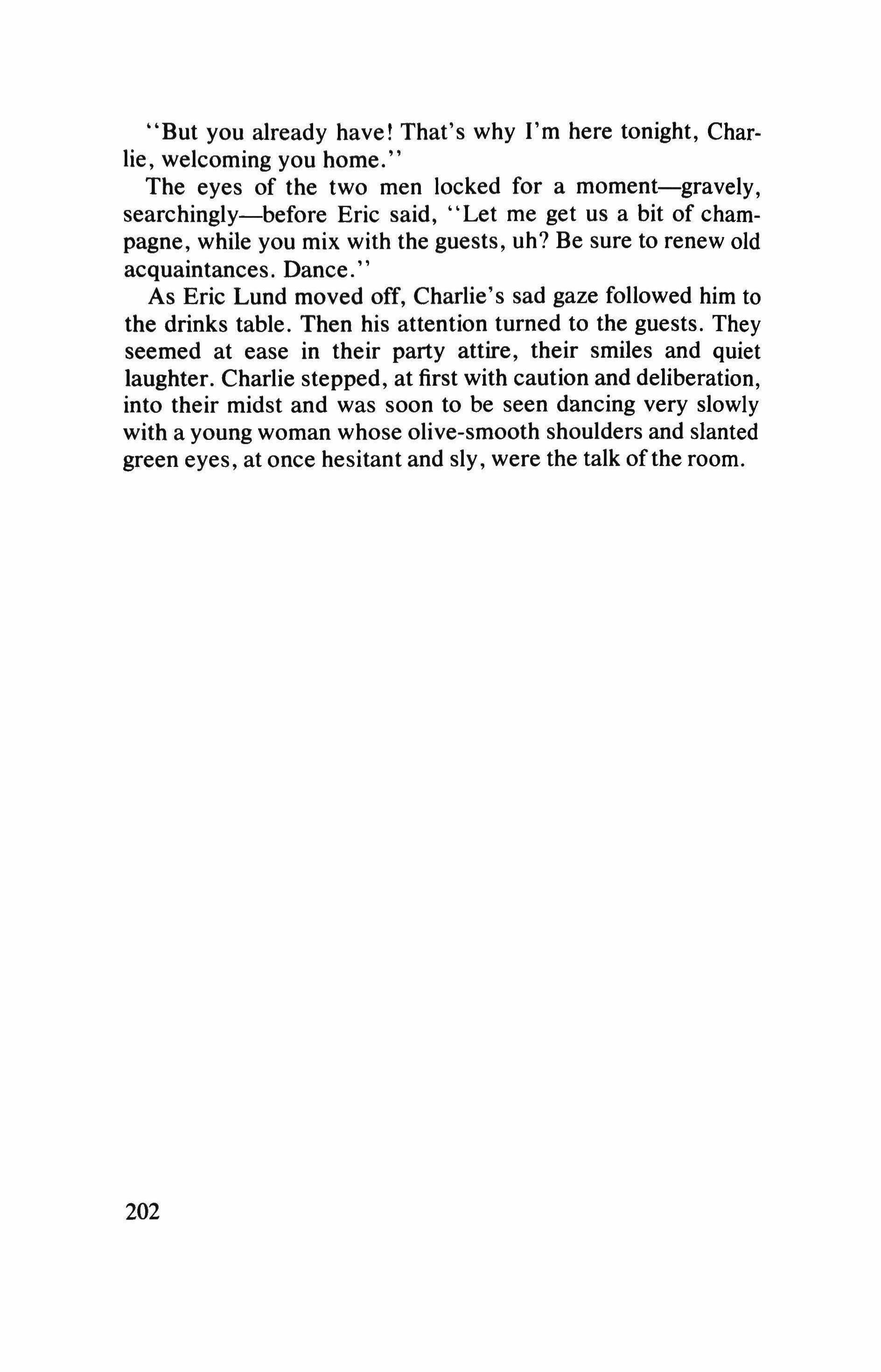
"But you already have! That's why I'm here tonight, Charlie, welcoming you home."
The eyes of the two men locked for a moment-gravely, searchingly-before Eric said, "Let me get us a bit of champagne, while you mix with the guests, uh? Be sure to renew old acquaintances. Dance."
As Eric Lund moved off, Charlie's sad gaze followed him to the drinks table. Then his attention turned to the guests. They seemed at ease in their party attire, their smiles and quiet laughter. Charlie stepped, at first with caution and deliberation, into their midst and was soon to be seen dancing very slowly with a young woman whose olive-smooth shoulders and slanted green eyes, at once hesitant and sly, were the talk ofthe room.
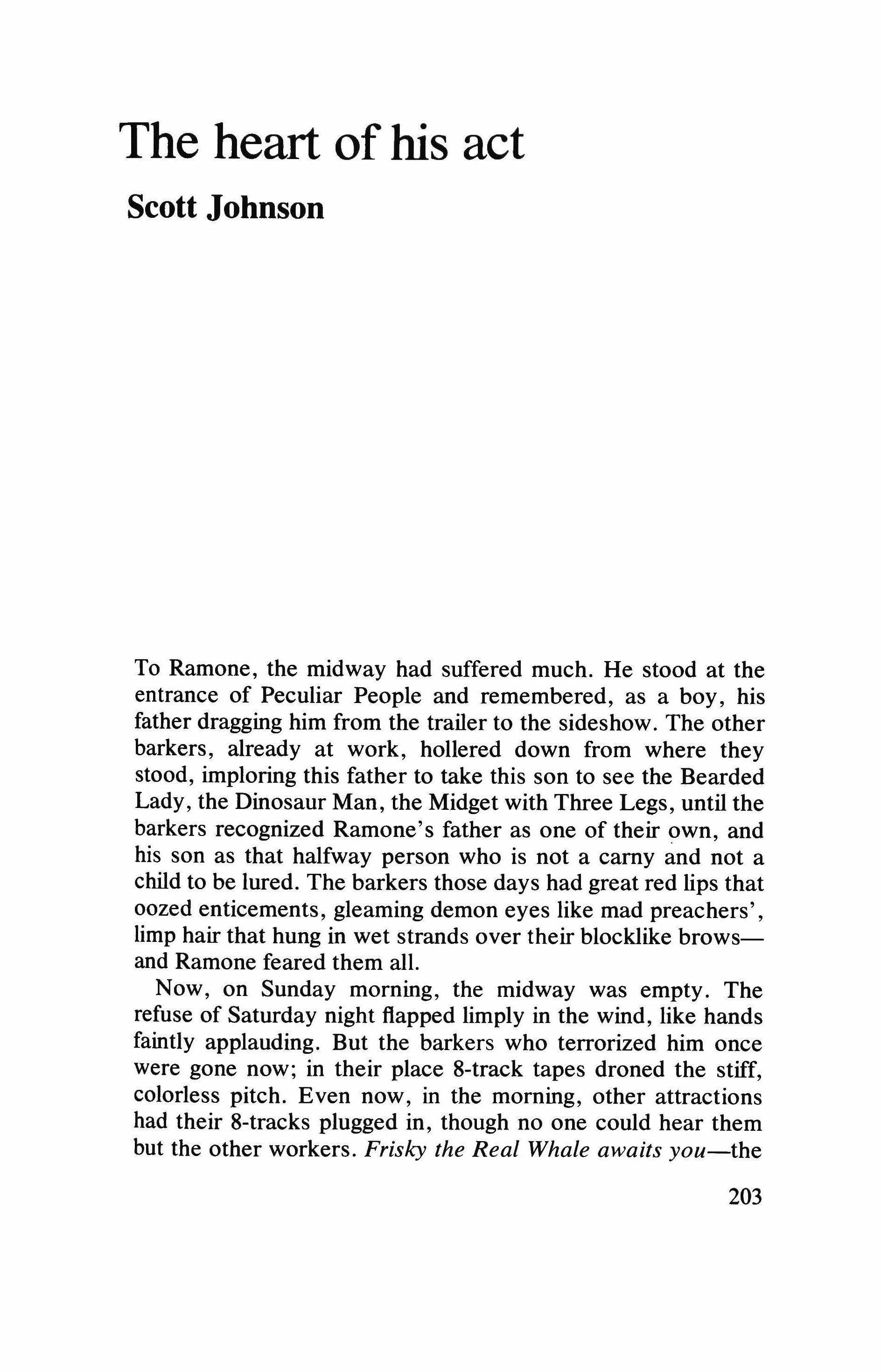
To Ramone, the midway had suffered much. He stood at the entrance of Peculiar People and remembered, as a boy, his father dragging him from the trailer to the sideshow. The other barkers, already at work, hollered down from where they stood, imploring this father to take this son to see the Bearded Lady, the Dinosaur Man, the Midget with Three Legs, until the barkers recognized Ramone's father as one of their own, and his son as that halfway person who is not a carny and not a child to be lured. The barkers those days had great red lips that oozed enticements, gleaming demon eyes like mad preachers' limp hair that hung in wet strands over their blocklike browsand Ramone feared them all.
Now, on Sunday morning, the midway was empty. The refuse of Saturday night flapped limply in the wind, like hands faintly applauding. But the barkers who terrorized him once were gone now; in their place 8-track tapes droned the stiff, colorless pitch. Even now, in the morning, other attractions had their 8-tracks plugged in, though no one could hear them but the other workers. Frisky the Real Whale awaits you-the 203
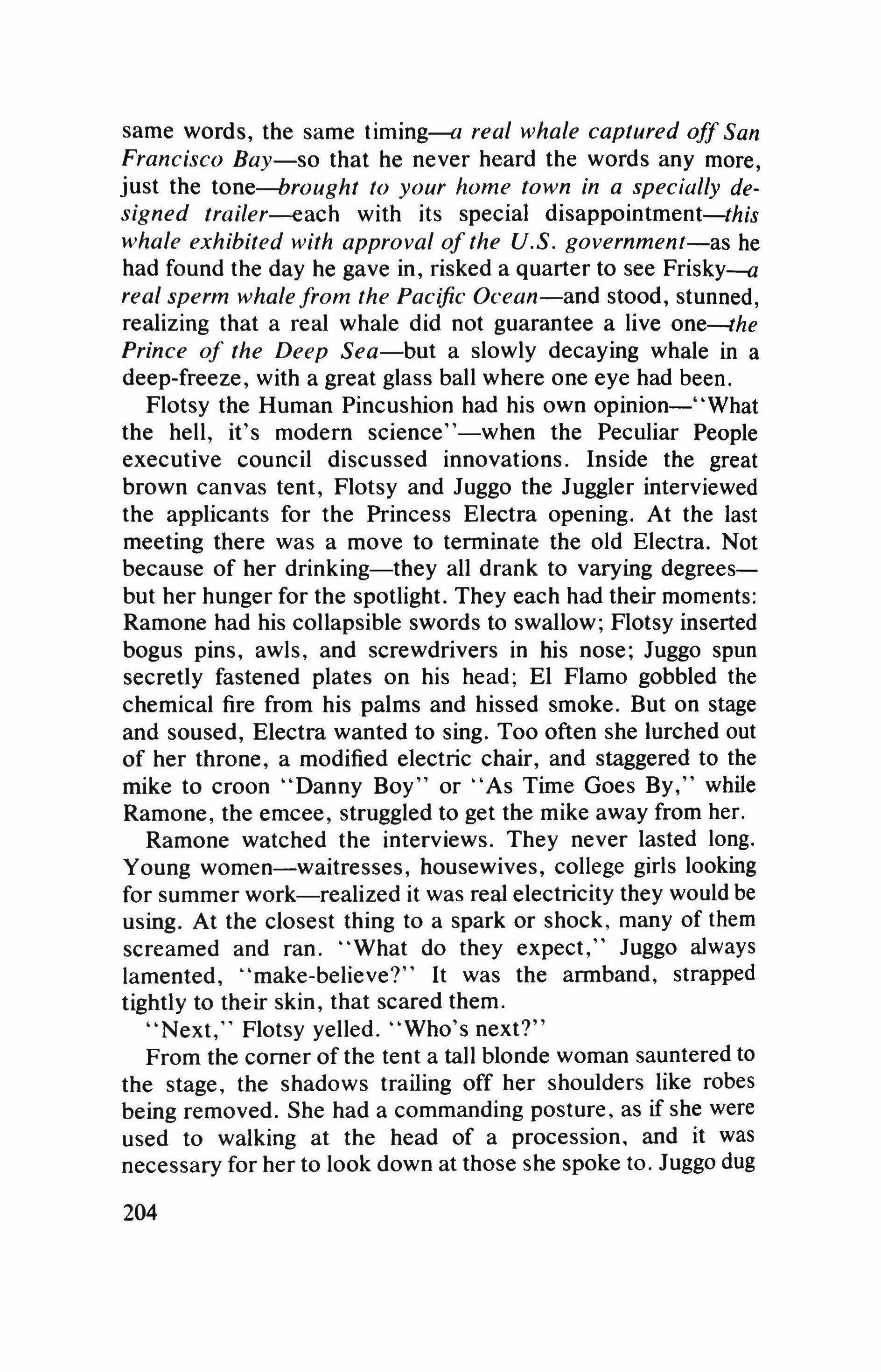
same words, the same timing-a real whale captured of! San Francisco Bay-so that he never heard the words any more, just the tone-brought to your home town in a specially designed trailer-each with its special disappointment-this whale exhibited with approval of the U.S. government-as he had found the day he gave in, risked a quarter to see Frisky-s-a real sperm whale from the Pacific Ocean-and stood, stunned, realizing that a real whale did not guarantee a live one-the Prince of the Deep Sea-but a slowly decaying whale in a deep-freeze, with a great glass ball where one eye had been.
Flotsy the Human Pincushion had his own opinion-"What the hell, it's modern science"-when the Peculiar People executive council discussed innovations. Inside the great brown canvas tent, Flotsy and Juggo the Juggler interviewed the applicants for the Princess Electra opening. At the last meeting there was a move to terminate the old Electra. Not because of her drinking-they all drank to varying degreesbut her hunger for the spotlight. They each had their moments: Ramone had his collapsible swords to swallow; Flotsy inserted bogus pins, awls, and screwdrivers in his nose; Juggo spun secretly fastened plates on his head; EI Flamo gobbled the chemical fire from his palms and hissed smoke. But on stage and soused, Electra wanted to sing. Too often she lurched out of her throne, a modified electric chair, and staggered to the mike to croon "Danny Boy" or "As Time Goes By," while Ramone, the emcee, struggled to get the mike away from her.
Ramone watched the interviews. They never lasted long. Young women-waitresses, housewives, college girls looking for summer work-realized it was real electricity they would be using. At the closest thing to a spark or shock, many of them screamed and ran. "What do they expect," Juggo always lamented, "make-believe?" It was the armband, strapped tightly to their skin, that scared them.
"Next," Flotsy yelled. "Who's next?"
From the comer of the tent a tall blonde woman sauntered to the stage, the shadows trailing off her shoulders like robes being removed. She had a commanding posture, as if she were used to walking at the head of a procession, and it was necessary for her to look down at those she spoke to. Juggo dug
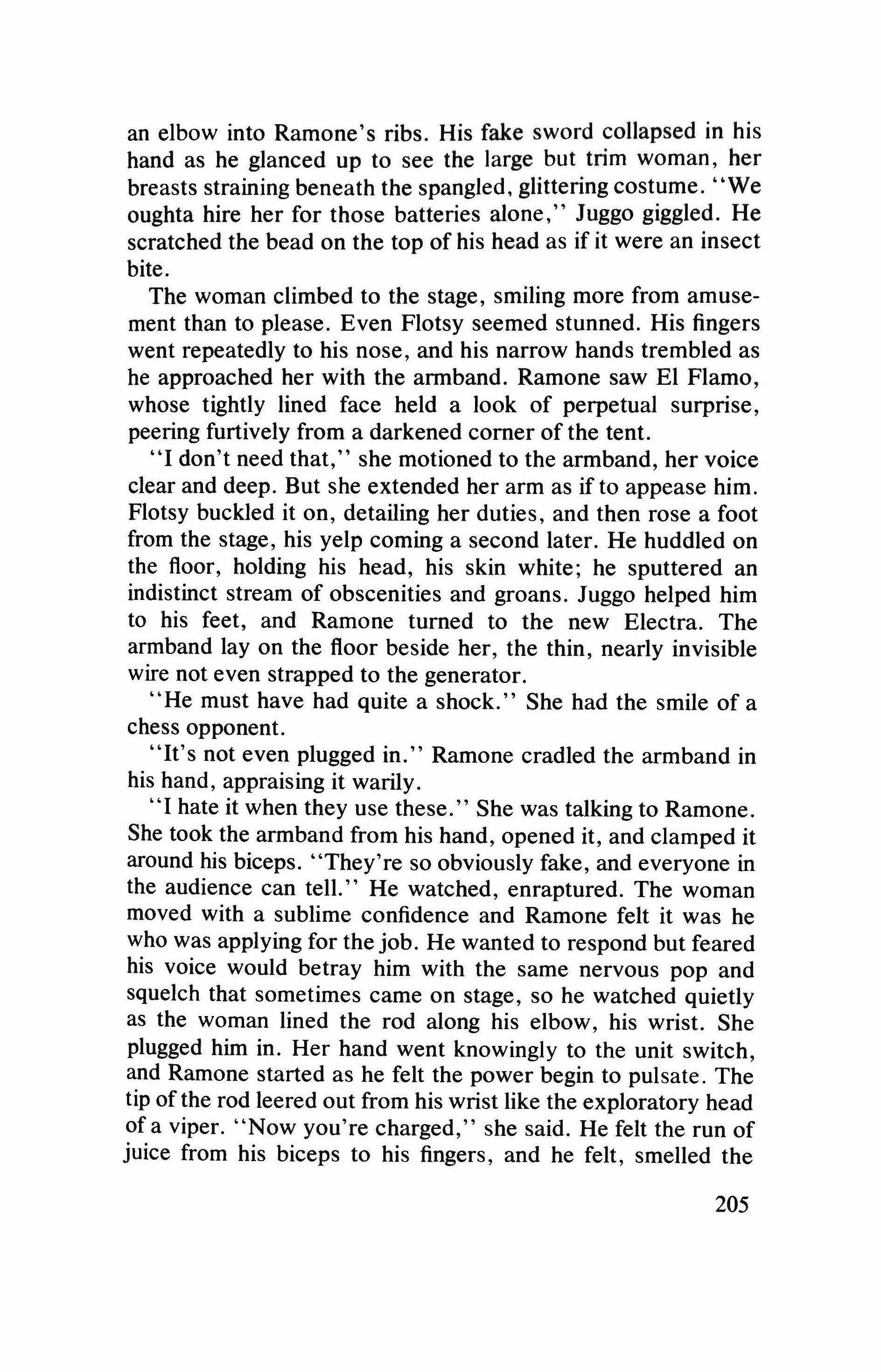
an elbow into Ramone's ribs. His fake sword collapsed in his hand as he glanced up to see the large but trim woman, her breasts straining beneath the spangled, glittering costume. "We oughta hire her for those batteries alone," Juggo giggled. He scratched the bead on the top of his head as if it were an insect bite.
The woman climbed to the stage, smiling more from amusement than to please. Even Flotsy seemed stunned. His fingers went repeatedly to his nose, and his narrow hands trembled as he approached her with the armband. Ramone saw EI Flamo, whose tightly lined face held a look of perpetual surprise, peering furtively from a darkened comer of the tent.
"I don't need that," she motioned to the armband, her voice clear and deep. But she extended her arm as if to appease him. Flotsy buckled it on, detailing her duties, and then rose a foot from the stage, his yelp coming a second later. He huddled on the floor, holding his head, his skin white; he sputtered an indistinct stream of obscenities and groans. Juggo helped him to his feet, and Ramone turned to the new Electra. The armband lay on the floor beside her, the thin, nearly invisible wire not even strapped to the generator.
"He must have had quite a shock." She had the smile of a chess opponent.
"It's not even plugged in." Ramone cradled the armband in his hand, appraising it warily.
"I hate it when they use these." She was talking to Ramone. She took the armband from his hand, opened it, and clamped it around his biceps. "They're so obviously fake, and everyone in the audience can telL" He watched, enraptured. The woman moved with a sublime confidence and Ramone felt it was he who was applying for the job. He wanted to respond but feared his voice would betray him with the same nervous pop and squelch that sometimes came on stage, so he watched quietly as the woman lined the rod along his elbow, his wrist. She plugged him in. Her hand went knowingly to the unit switch, and Ramone started as he felt the power begin to pulsate. The tip of the rod leered out from his wrist like the exploratory head ofa viper. "Now you're charged," she said. He felt the run of juice from his biceps to his fingers, and he felt, smelled the
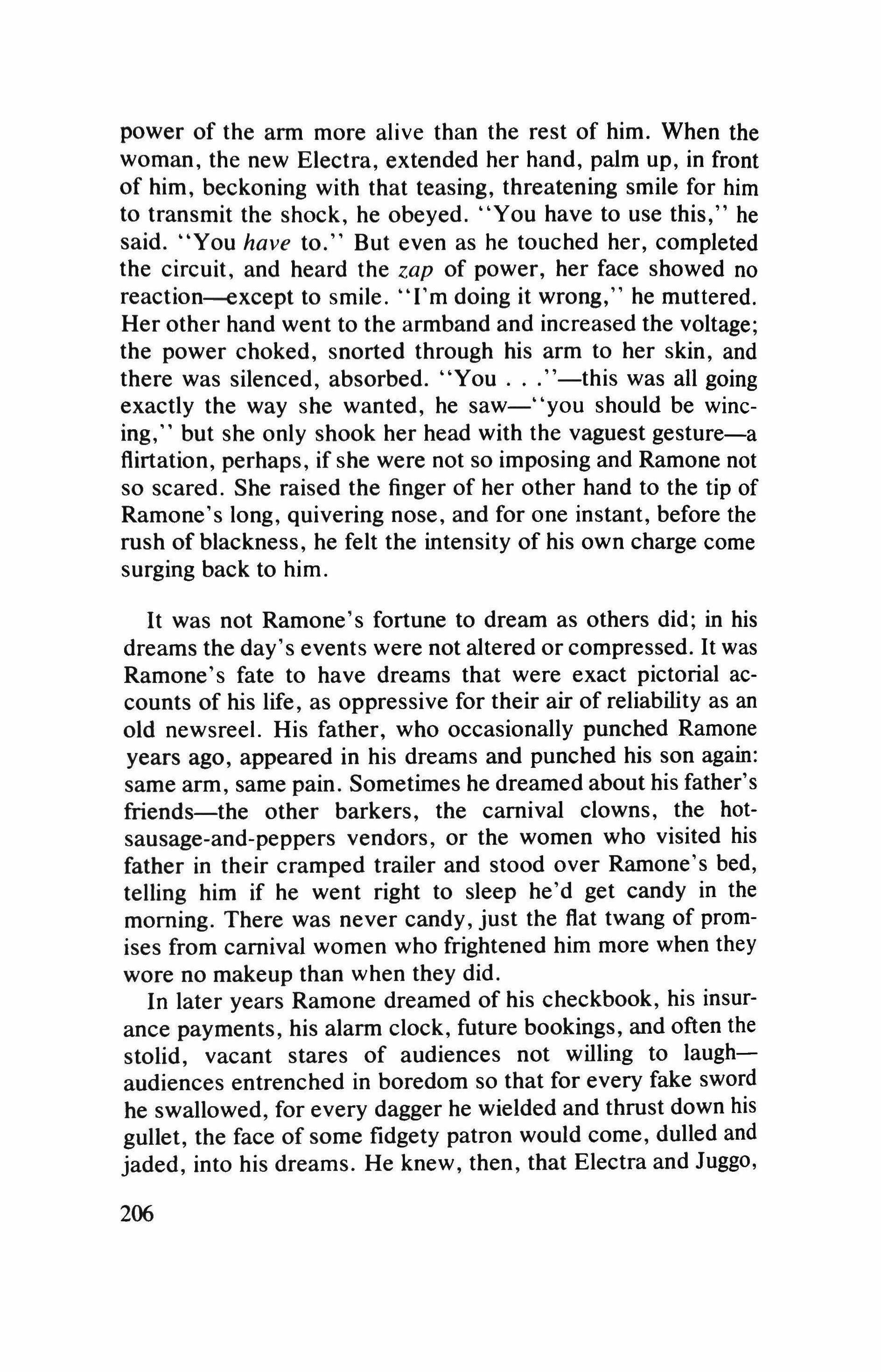
power of the arm more alive than the rest of him. When the woman, the new Electra, extended her hand, palm up, in front of him, beckoning with that teasing, threatening smile for him to transmit the shock, he obeyed. "You have to use this," he said. "You have to." But even as he touched her, completed the circuit, and heard the zap of power, her face showed no reaction=except to smile. ''I'm doing it wrong," he muttered. Her other hand went to the armband and increased the voltage; the power choked, snorted through his arm to her skin, and there was silenced, absorbed. "You "-this was all going exactly the way she wanted, he saw-' 'you should be wincing," but she only shook her head with the vaguest gesture-a flirtation, perhaps, if she were not so imposing and Ramone not so scared. She raised the finger of her other hand to the tip of Ramone's long, quivering nose, and for one instant, before the rush of blackness, he felt the intensity of his own charge come surging back to him.
It was not Ramone' s fortune to dream as others did; in his dreams the day's events were not altered or compressed. It was Ramone's fate to have dreams that were exact pictorial accounts of his life, as oppressive for their air of reliability as an old newsreel. His father, who occasionally punched Ramone years ago, appeared in his dreams and punched his son again: same arm, same pain. Sometimes he dreamed about his father's friends-the other barkers, the carnival clowns, the hotsausage-and-peppers vendors, or the women who visited his father in their cramped trailer and stood over Ramone's bed, telling him if he went right to sleep he'd get candy in the morning. There was never candy, just the flat twang of promises from carnival women who frightened him more when they wore no makeup than when they did.
In later years Ramone dreamed of his checkbook, his insurance payments, his alarm clock, future bookings, and often the stolid, vacant stares of audiences not willing to laughaudiences entrenched in boredom so that for every fake sword he swallowed, for every dagger he wielded and thrust down his gullet, the face of some fidgety patron would come, dulled and jaded, into his dreams. He knew, then, that Electra and Juggo,
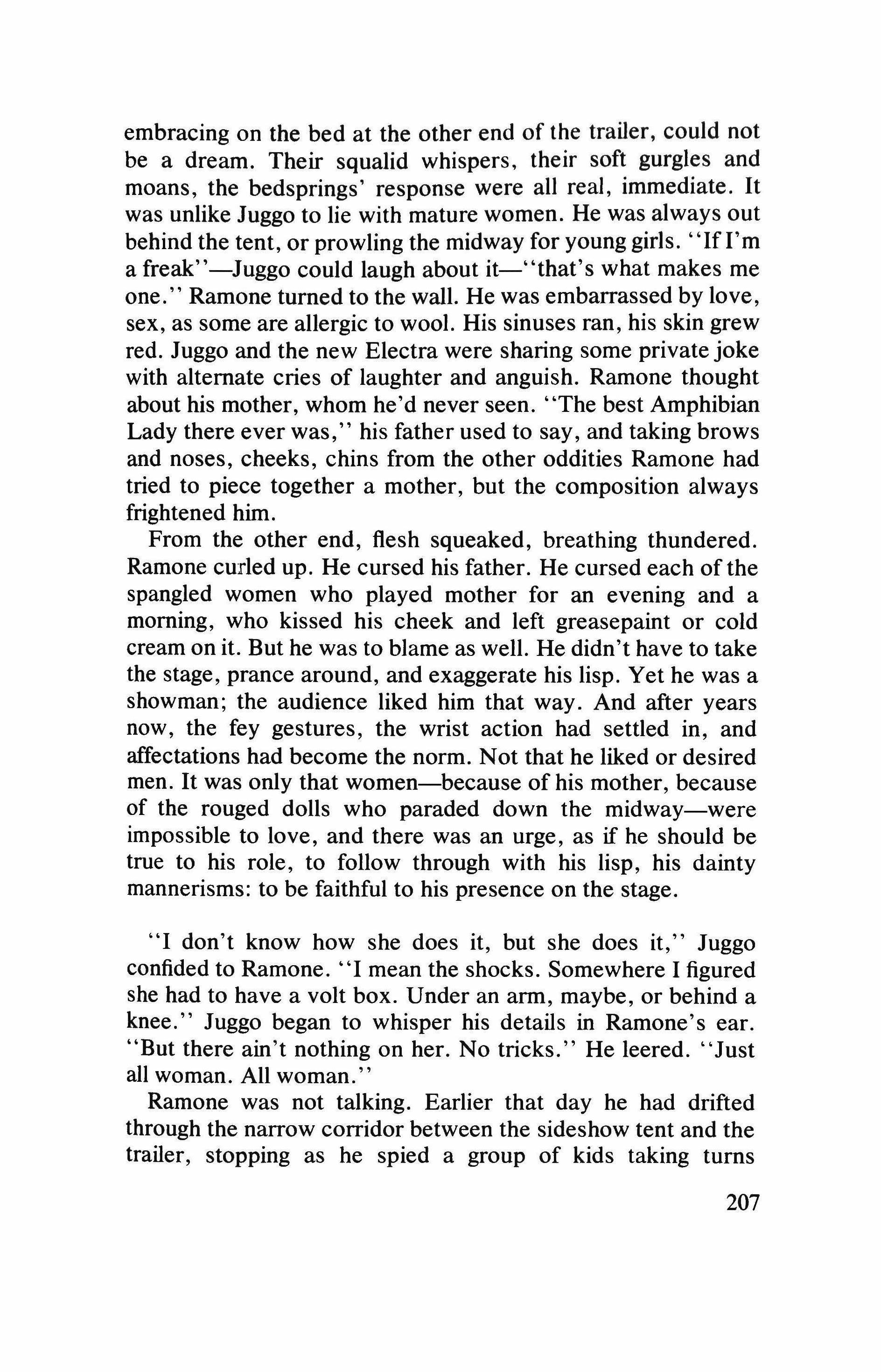
embracing on the bed at the other end of the trailer, could not be a dream. Their squalid whispers, their soft gurgles and moans, the bedsprings' response were all real, immediate. It was unlike Juggo to lie with mature women. He was always out behind the tent, or prowling the midway for young girls. "If I'm a freak"-Juggo could laugh about it-"that's what makes me one." Ramone turned to the wall. He was embarrassed by love, sex, as some are allergic to wool. His sinuses ran, his skin grew red. Juggo and the new Electra were sharing some private joke with alternate cries of laughter and anguish. Ramone thought about his mother, whom he'd never seen. "The best Amphibian Lady there ever was," his father used to say, and taking brows and noses, cheeks, chins from the other oddities Ramone had tried to piece together a mother, but the composition always frightened him.
From the other end, flesh squeaked, breathing thundered. Ramone curled up. He cursed his father. He cursed each of the spangled women who played mother for an evening and a morning, who kissed his cheek and left greasepaint or cold cream on it. But he was to blame as well. He didn't have to take the stage, prance around, and exaggerate his lisp. Yet he was a showman; the audience liked him that way. And after years now, the fey gestures, the wrist action had settled in, and affectations had become the norm. Not that he liked or desired men. It was only that women-because of his mother, because of the rouged dolls who paraded down the midway-were impossible to love, and there was an urge, as if he should be true to his role, to follow through with his lisp, his dainty mannerisms: to be faithful to his presence on the stage.
"I don't know how she does it, but she does it," Juggo confided to Ramone. "I mean the shocks. Somewhere I figured she had to have a volt box. Under an arm, maybe, or behind a knee." Juggo began to whisper his details in Ramone's ear. "But there ain't nothing on her. No tricks." He leered. "Just all woman. All woman."
Ramone was not talking. Earlier that day he had drifted through the narrow corridor between the sideshow tent and the trailer, stopping as he spied a group of kids taking turns
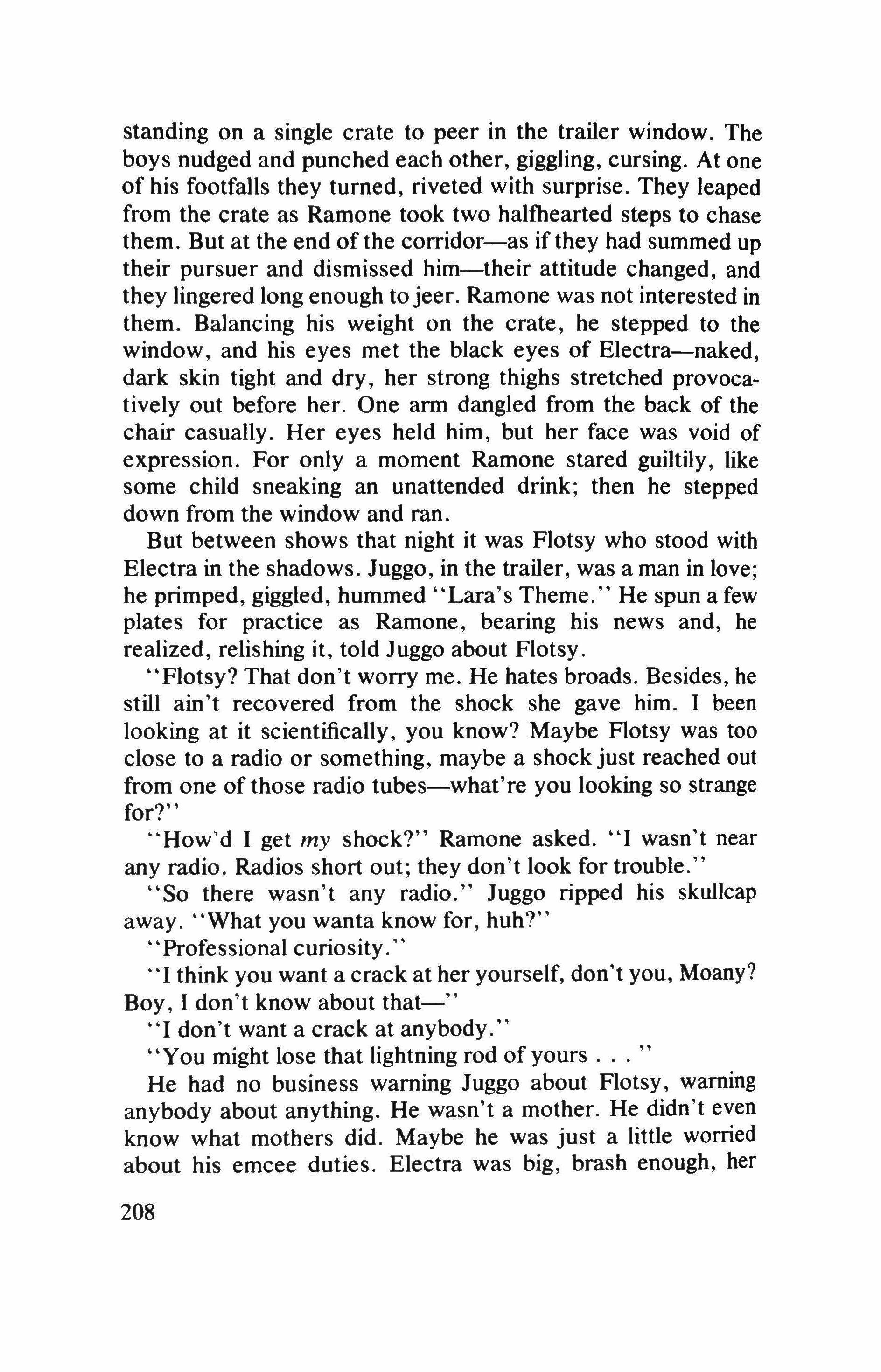
standing on a single crate to peer in the trailer window. The boys nudged and punched each other, giggling, cursing. At one of his footfalls they turned, riveted with surprise. They leaped from the crate as Ramone took two halfhearted steps to chase them. But at the end of the corridor-as if they had summed up their pursuer and dismissed him-their attitude changed, and they lingered long enough to jeer. Ramone was not interested in them. Balancing his weight on the crate, he stepped to the window, and his eyes met the black eyes of Electra-naked, dark skin tight and dry, her strong thighs stretched provocatively out before her. One arm dangled from the back of the chair casually. Her eyes held him, but her face was void of expression. For only a moment Ramone stared guiltily, like some child sneaking an unattended drink; then he stepped down from the window and ran.
But between shows that night it was Flotsy who stood with Electra in the shadows. Juggo, in the trailer, was a man in love; he primped, giggled, hummed "Lara's Theme." He spun a few plates for practice as Ramone, bearing his news and, he realized, relishing it, told Juggo about Flotsy.
"Flotsy? That don't worry me. He hates broads. Besides, he still ain't recovered from the shock she gave him. I been looking at it scientifically, you know? Maybe F10tsy was too close to a radio or something, maybe a shock just reached out from one of those radio tubes-what're you looking so strange forT'
"Howd I get my shock?" Ramone asked. "I wasn't near any radio. Radios short out; they don't look for trouble."
"So there wasn't any radio." Juggo ripped his skullcap away. "What you wanta know for, huh?"
Professional curiosity.
I think you want a crack at her yourself, don't you, Moany? Boy, I don't know about that-"
"I don't want a crack at anybody."
"You might lose that lightning rod of yours
He had no business warning Juggo about F1otsy, warning anybody about anything. He wasn't a mother. He didn't even know what mothers did. Maybe he was just a little worried about his emcee duties. Electra was big, brash enough, her


She looked at him with her eyebrows cocked as ifto say I gave you applause
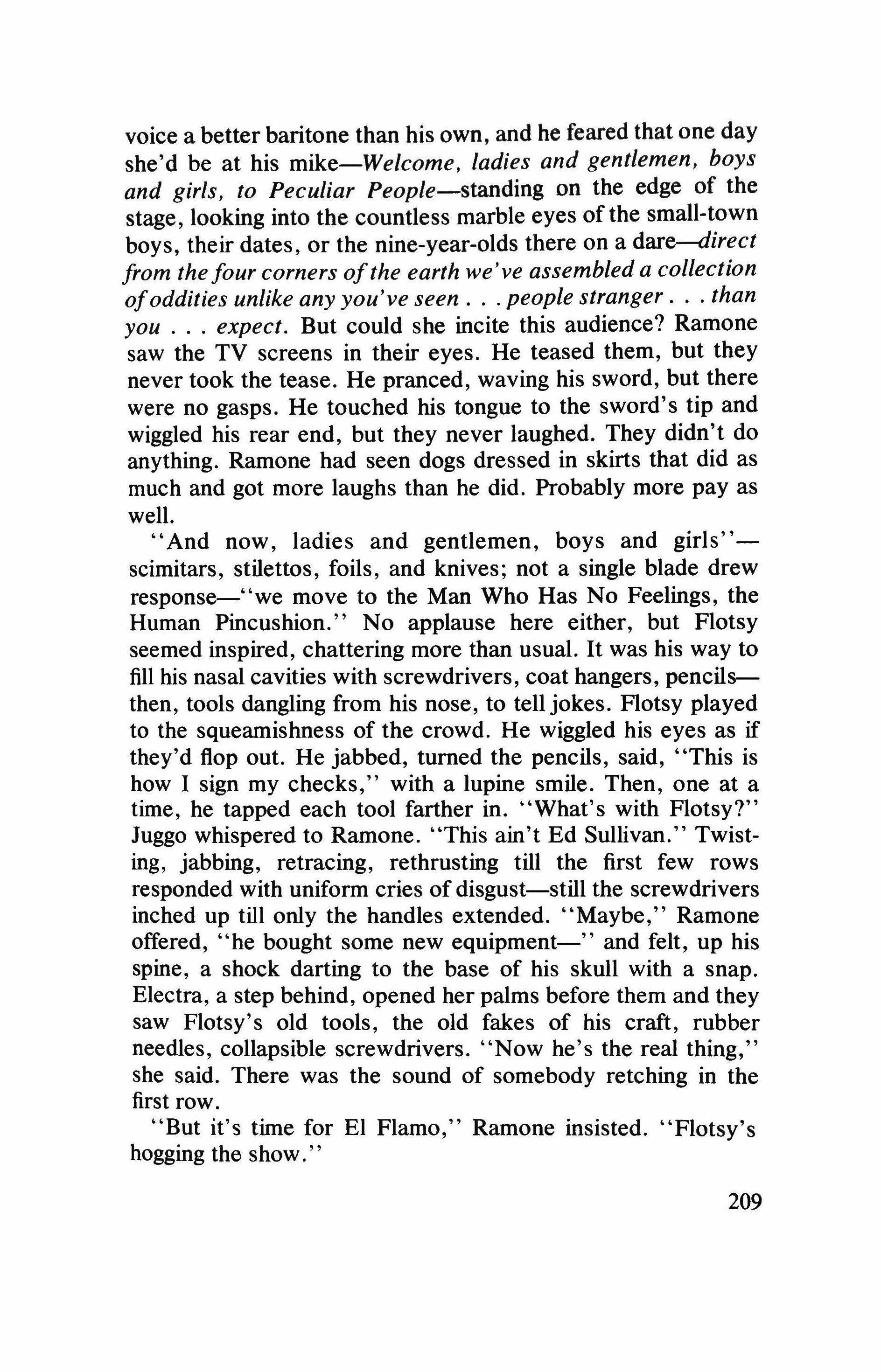
voice a better baritone than his own, and he feared that one day she'd be at his mike-Welcome, ladies and gentlemen, boys and girls, to Peculiar People-standing on the edge of the stage, looking into the countless marble eyes of the small-town boys, their dates, or the nine-year-olds there on a dare--direct from thefour corners ofthe earth we've assembled a collection ofoddities unlike any you've seen people stranger than you expect. But could she incite this audience? Ramone saw the TV screens in their eyes. He teased them, but they never took the tease. He pranced, waving his sword, but there were no gasps. He touched his tongue to the sword's tip and wiggled his rear end, but they never laughed. They didn't do anything. Ramone had seen dogs dressed in skirts that did as much and got more laughs than he did. Probably more pay as well.
"And now, ladies and gentlemen, boys and girls"scimitars, stilettos, foils, and knives; not a single blade drew response-"we move to the Man Who Has No Feelings, the Human Pincushion." No applause here either, but Flotsy seemed inspired, chattering more than usual. It was his way to fill his nasal cavities with screwdrivers, coat hangers, pencilsthen, tools dangling from his nose, to tell jokes. Flotsy played to the squeamishness of the crowd. He wiggled his eyes as if they'd flop out. He jabbed, turned the pencils, said, "This is how I sign my checks," with a lupine smile. Then, one at a time, he tapped each tool farther in. "What's with Flotsy?" Juggo whispered to Ramone. "This ain't Ed Sullivan." Twisting, jabbing, retracing, rethrusting till the first few rows responded with uniform cries of disgust-still the screwdrivers inched up till only the handles extended. "Maybe," Ramone offered, "he bought some new equipment-" and felt, up his spine, a shock darting to the base of his skull with a snap. Electra, a step behind, opened her palms before them and they saw Flotsy's old tools, the old fakes of his craft, rubber needles, collapsible screwdrivers. "Now he's the real thing," she said. There was the sound of somebody retching in the first row.
"But it's time for EI Flamo," Ramone insisted. "Flotsy's hogging the show."
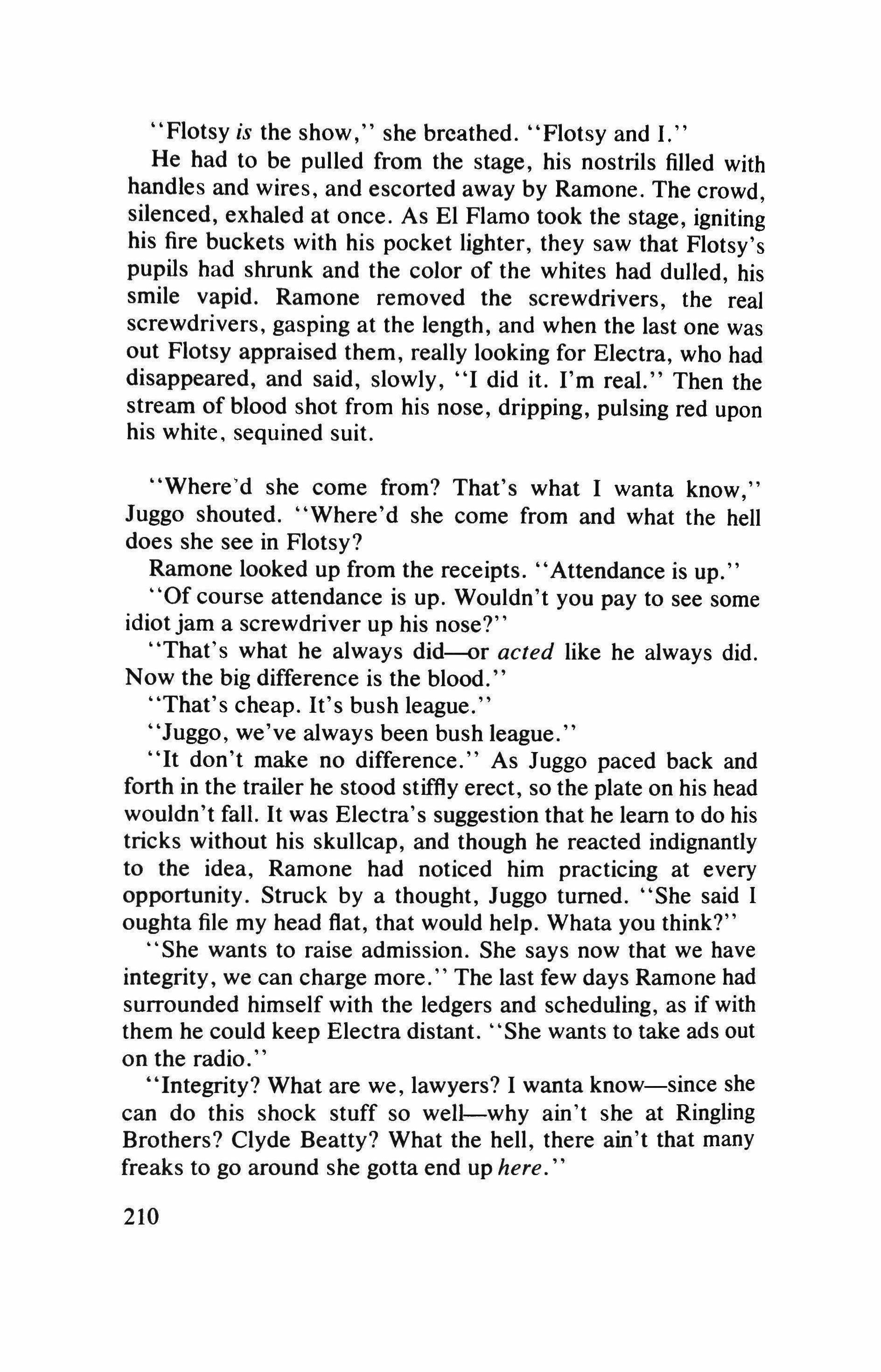
"Flotsy is the show," she breathed. "Flotsy and I."
He had to be pulled from the stage, his nostrils filled with handles and wires, and escorted away by Ramone. The crowd, silenced, exhaled at once. As EI Flamo took the stage, igniting his fire buckets with his pocket lighter, they saw that Flotsy's pupils had shrunk and the color of the whites had dulled, his smile vapid. Ramone removed the screwdrivers, the real screwdrivers, gasping at the length, and when the last one was out Flotsy appraised them, really looking for Electra, who had disappeared, and said, slowly, "I did it. I'm real." Then the stream of blood shot from his nose, dripping, pulsing red upon his white, sequined suit.
"Where'd she come from? That's what I wanta know," Juggo shouted. "Where'd she come from and what the hell does she see in Flotsy?
Ramone looked up from the receipts. "Attendance is up."
"Of course attendance is up. Wouldn't you pay to see some idiot jam a screwdriver up his nose?"
"That's what he always did-or acted like he always did. Now the big difference is the blood."
"That's cheap. It's bush league."
"Juggo, we've always been bush league."
"It don't make no difference." As Juggo paced back and forth in the trailer he stood stiffly erect, so the plate on his head wouldn't fall. It was Electra's suggestion that he learn to do his tricks without his skullcap, and though he reacted indignantly to the idea, Ramone had noticed him practicing at every opportunity. Struck by a thought, Juggo turned. "She said I oughta file my head flat, that would help. Whata you think?"
She wants to raise admission. She says now that we have integrity, we can charge more. The last few days Ramone had surrounded himself with the ledgers and scheduling, as if with them he could keep Electra distant. She wants to take ads out on the radio.
"Integrity? What are we, lawyers? I wanta know-since she can do this shock stuff so well-why ain't she at Ringling Brothers? Clyde Beatty? What the hell, there ain't that many freaks to go around she gotta end up here.
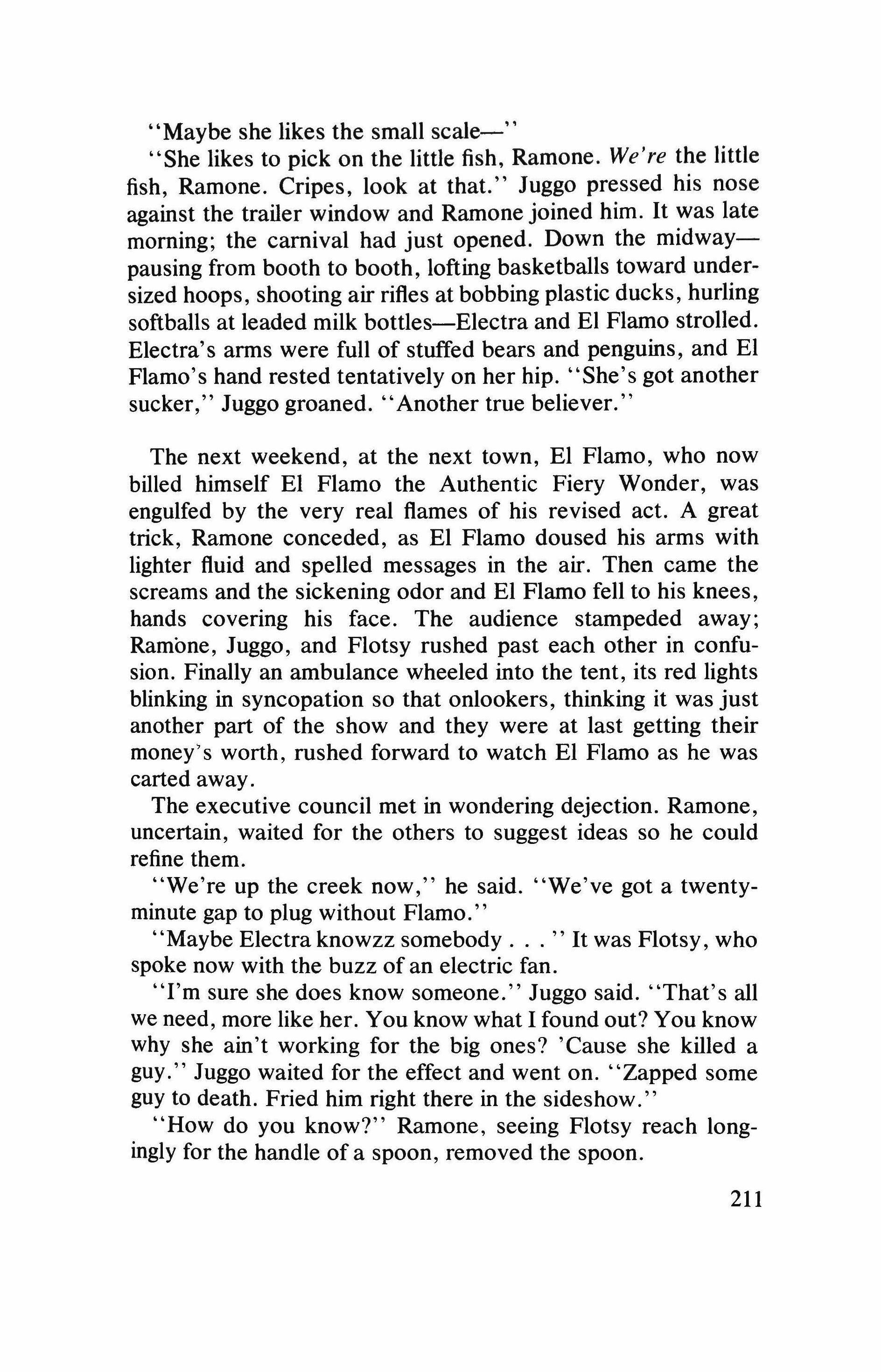
"Maybe she likes the small scale-"
"She likes to pick on the little fish, Ramone. We're the little fish, Ramone. Cripes, look at that." Juggo pressed his nose against the trailer window and Rarnone joined him. It was late morning; the carnival had just opened. Down the midwaypausing from booth to booth, lofting basketballs toward undersized hoops, shooting air rifles at bobbing plastic ducks, hurling softballs at leaded milk bottles-Electra and EI Flarno strolled. Electra's arms were full of stuffed bears and penguins, and EI Flamo's hand rested tentatively on her hip. "She's got another sucker," Juggo groaned. "Another true believer.
The next weekend, at the next town, EI Flamo, who now billed himself EI Flamo the Authentic Fiery Wonder, was engulfed by the very real flames of his revised act. A great trick, Ramone conceded, as EI Flamo doused his arms with lighter fluid and spelled messages in the air. Then came the screams and the sickening odor and EI Flarno fell to his knees, hands covering his face. The audience stampeded away; Ramone, Juggo, and Flotsy rushed past each other in confusion. Finally an ambulance wheeled into the tent, its red lights blinking in syncopation so that onlookers, thinking it was just another part of the show and they were at last getting their money's worth, rushed forward to watch EI Flarno as he was carted away.
The executive council met in wondering dejection. Ramone, uncertain, waited for the others to suggest ideas so he could refine them.
"We're up the creek now," he said. "We've got a twentyminute gap to plug without Flamo.'
"Maybe Electra knowzz somebody It was Flotsy, who spoke now with the buzz of an electric fan.
"I'm sure she does know someone." Juggo said. "That's all we need, more like her. You know what I found out? You know why she ain't working for the big ones? 'Cause she killed a guy." Juggo waited for the effect and went on. "Zapped some guy to death. Fried him right there in the sideshow."
"How do you know?" Ramone, seeing Flotsy reach longingly for the handle of a spoon, removed the spoon. 211
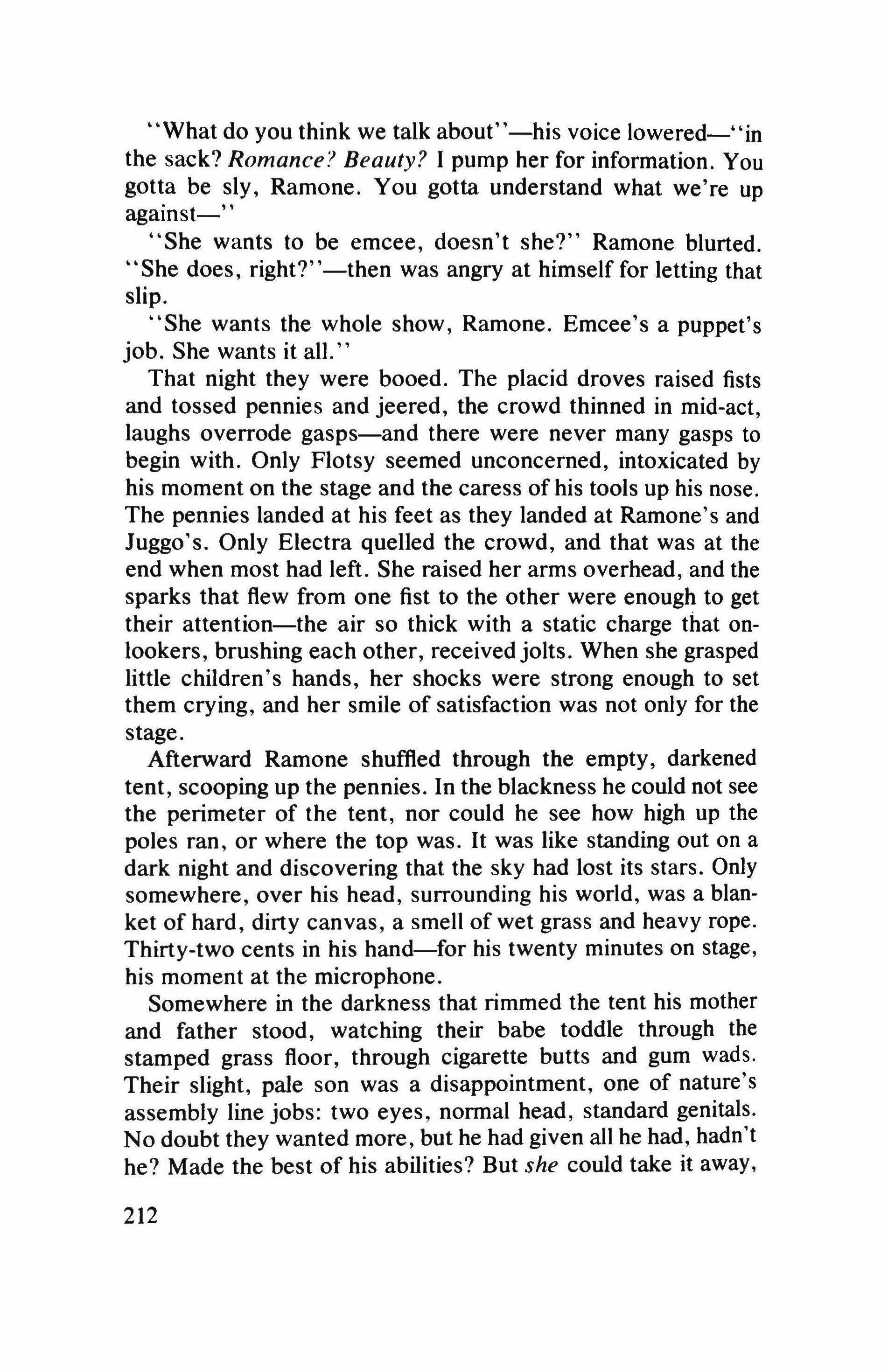
"What do you think we talk about"-his voice lowered-"in the sack? Romance? Beauty? I pump her for information. You gotta be sly, Ramone. You gotta understand what we're up against-"
"She wants to be emcee, doesn't she?" Ramone blurted. "She does, right?"-then was angry at himself for letting that slip.
"She wants the whole show, Ramone. Emcee's a puppet's job. She wants it all."
That night they were booed. The placid droves raised fists and tossed pennies and jeered, the crowd thinned in mid-act, laughs overrode gasps-and there were never many gasps to begin with. Only Flotsy seemed unconcerned, intoxicated by his moment on the stage and the caress of his tools up his nose. The pennies landed at his feet as they landed at Ramone'sand Juggo's, Only Electra quelled the crowd, and that was at the end when most had left. She raised her arms overhead, and the sparks that flew from one fist to the other were enough to get their attention-the air so thick with a static charge that onlookers, brushing each other, received jolts. When she grasped little children's hands, her shocks were strong enough to set them crying, and her smile of satisfaction was not only for the stage.
Afterward Ramone shuffled through the empty, darkened tent, scooping up the pennies. In the blackness he could not see the perimeter of the tent, nor could he see how high up the poles ran, or where the top was. It was like standing out on a dark night and discovering that the sky had lost its stars. Only somewhere, over his head, surrounding his world, was a blanket of hard, dirty canvas, a smell of wet grass and heavy rope. Thirty-two cents in his hand-for his twenty minutes on stage, his moment at the microphone.
Somewhere in the darkness that rimmed the tent his mother and father stood, watching their babe toddle through the stamped grass floor, through cigarette butts and gum wads. Their slight, pale son was a disappointment, one of nature's assembly line jobs: two eyes, normal head, standard genitals. No doubt they wanted more, but he had given all he had, hadn't he? Made the best of his abilities? But she could take it away,
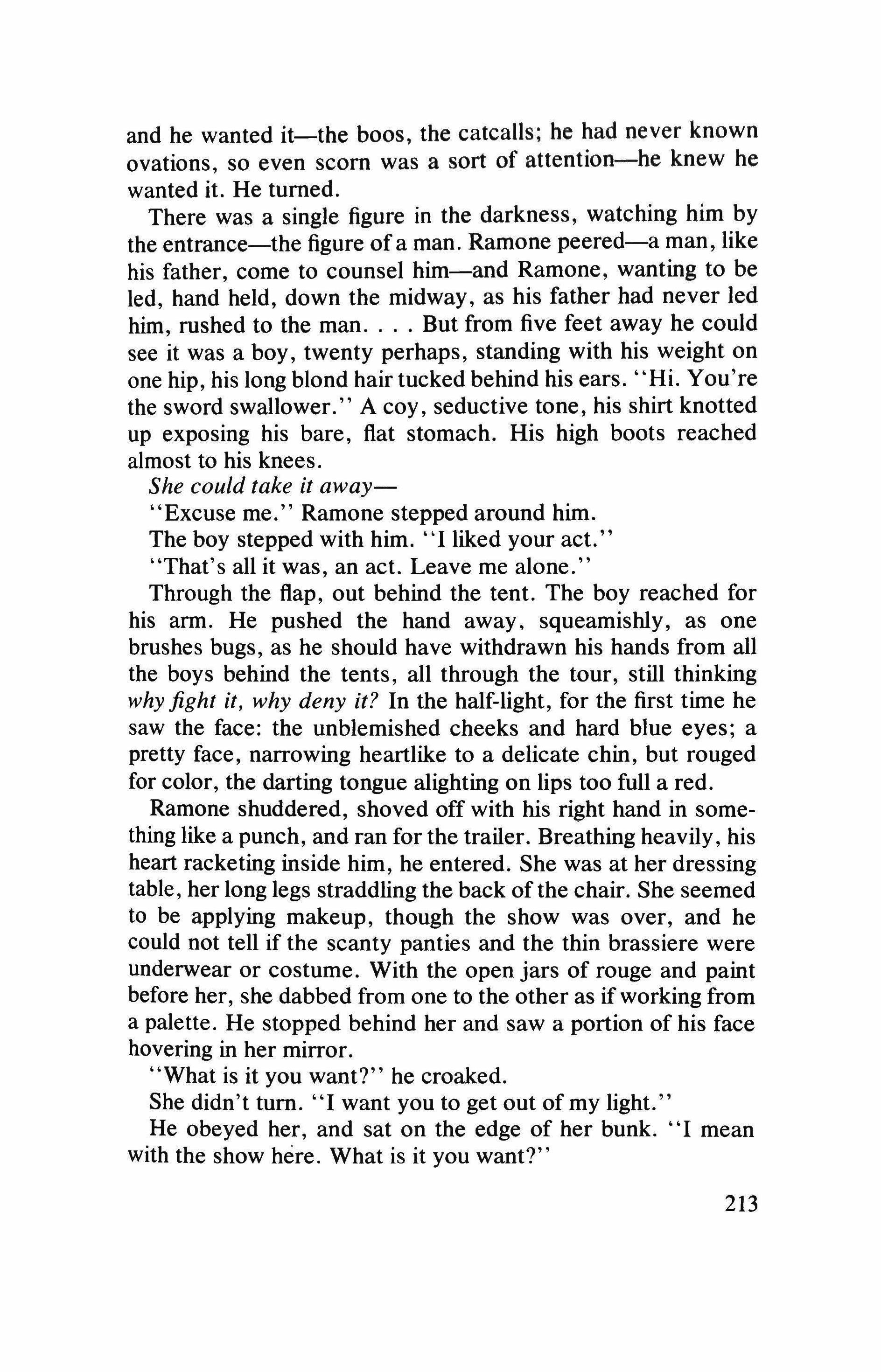
and he wanted it-the boos, the catcalls; he had never known ovations, so even scorn was a sort of attention-he knew he wanted it. He turned.
There was a single figure in the darkness, watching him by the entrance-the figure ofa man. Ramone peered-a man, like his father, come to counsel him-and Ramone, wanting to be led, hand held, down the midway, as his father had never led him, rushed to the man But from five feet away he could see it was a boy, twenty perhaps, standing with his weight on one hip, his long blond hair tucked behind his ears. "Hi. You're the sword swallower." A coy, seductive tone, his shirt knotted up exposing his bare, flat stomach. His high boots reached almost to his knees.
She could take it away"Excuse me." Ramone stepped around him. The boy stepped with him. "I liked your act.
"That's all it was, an act. Leave me alone."
Through the flap, out behind the tent. The boy reached for his arm. He pushed the hand away, squeamishly, as one brushes bugs, as he should have withdrawn his hands from all the boys behind the tents, all through the tour, still thinking why fight it, why deny it? In the half-light, for the first time he saw the face: the unblemished cheeks and hard blue eyes; a pretty face, narrowing heartlike to a delicate chin, but rouged for color, the darting tongue alighting on lips too full a red.
Ramone shuddered, shoved off with his right hand in something like a punch, and ran for the trailer. Breathing heavily, his heart racketing inside him, he entered. She was at her dressing table, her long legs straddling the back of the chair. She seemed to be applying makeup, though the show was over, and he could not tell if the scanty panties and the thin brassiere were underwear or costume. With the open jars of rouge and paint before her, she dabbed from one to the other as ifworking from a palette. He stopped behind her and saw a portion of his face hovering in her mirror.
"What is it you want?" he croaked. She didn't tum. "I want you to get out of my light." He obeyed her, and sat on the edge of her bunk. "I mean with the show here. What is it you want?"
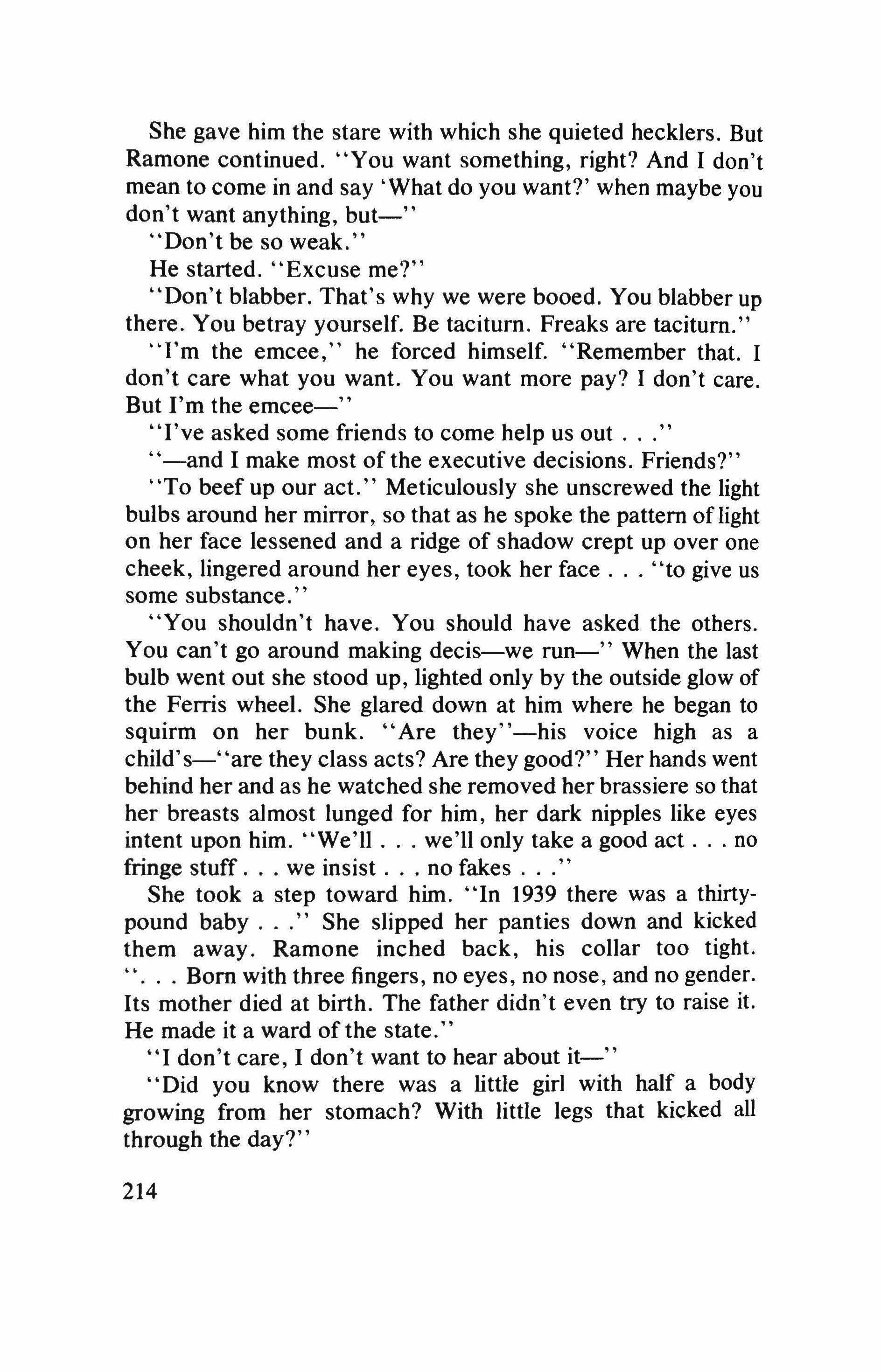
She gave him the stare with which she quieted hecklers. But Ramone continued. "You want something, right? And I don't mean to come in and say 'What do you want?' when maybe you don't want anything, but-"
"Don't be so weak."
He started. "Excuse me?"
"Don't blabber. That's why we were booed. You blabber up there. You betray yourself. Be taciturn. Freaks are taciturn."
'I'm the emcee," he forced himself. "Remember that. I don't care what you want. You want more pay? I don't care. But I'm the emcee-"
"I've asked some friends to come help us out "-and I make most of the executive decisions. Friends?"
"To beef up our act. Meticulously she unscrewed the light bulbs around her mirror, so that as he spoke the pattern of light on her face lessened and a ridge of shadow crept up over one cheek, lingered around her eyes, took her face "to give us some substance."
"You shouldn't have. You should have asked the others. You can't go around making decis-we run-" When the last bulb went out she stood up, lighted only by the outside glow of the Ferris wheel. She glared down at him where he began to squirm on her bunk. "Are they"-his voice high as a child's-"are they class acts? Are they good?" Her hands went behind her and as he watched she removed her brassiere so that her breasts almost lunged for him, her dark nipples like eyes intent upon him. "We'll we'll only take a good act no fringe stuff. we insist no fakes ."
She took a step toward him. "In 1939 there was a thirtypound baby She slipped her panties down and kicked them away. Ramone inched back, his collar too tight. Born with three fingers, no eyes, no nose, and no gender. Its mother died at birth. The father didn't even try to raise it. He made it a ward of the state."
"I don't care, I don't want to hear about it-"
"Did you know there was a little girl with half a body growing from her stomach? With little legs that kicked all through the day?"
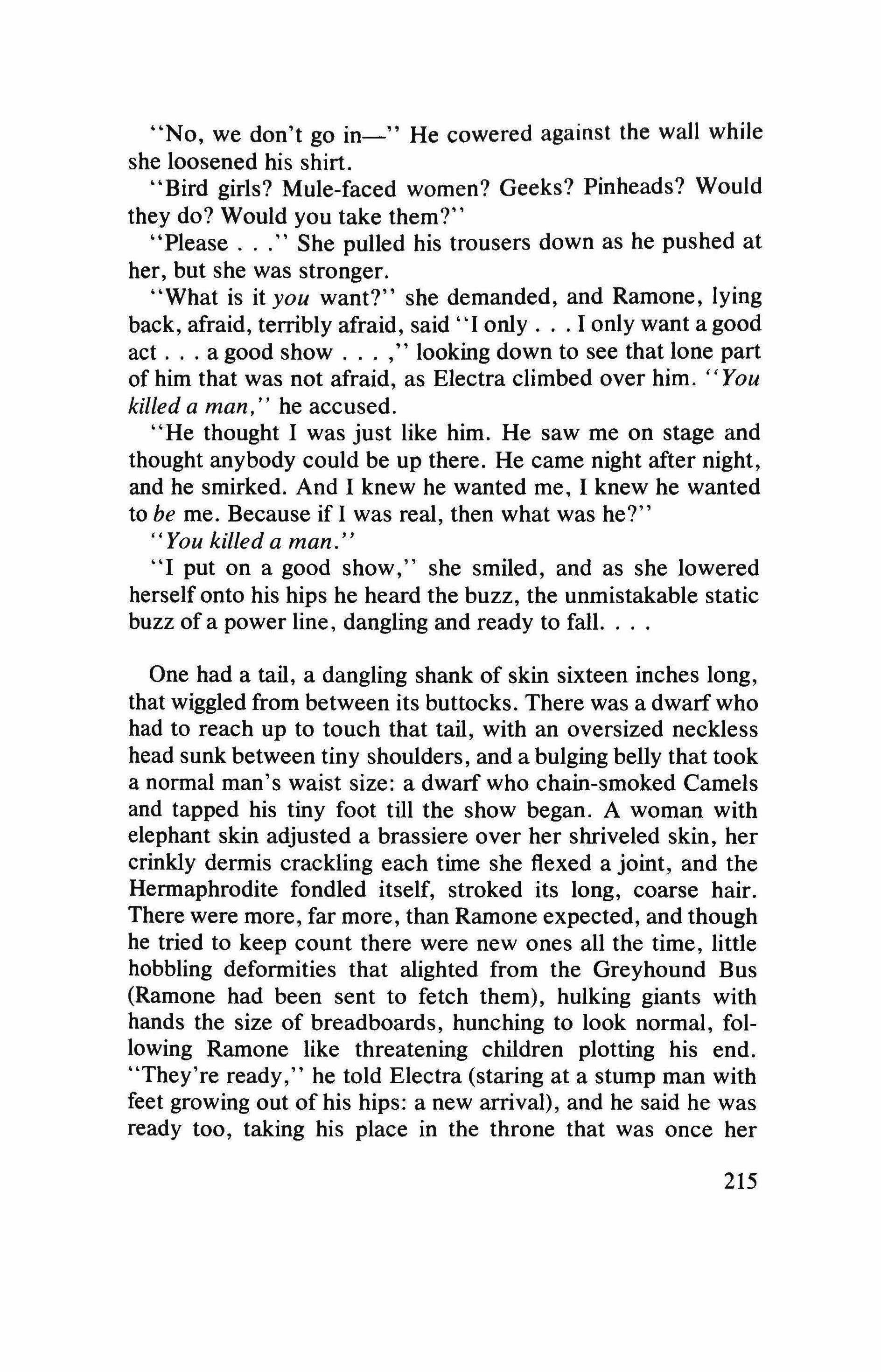
"No, we don't go in-" He cowered against the wall while she loosened his shirt.
"Bird girls? Mule-faced women? Geeks? Pinheads? Would they do? Would you take them?"
"Please She pulled his trousers down as he pushed at her, but she was stronger.
"What is it you want?" she demanded, and Ramone, lying back, afraid, terribly afraid, said" I only I only want a good act a good show ," looking down to see that lone part of him that was not afraid, as Electra climbed over him. "You killed a man," he accused.
"He thought I was just like him. He saw me on stage and thought anybody could be up there. He came night after night, and he smirked. And I knew he wanted me, I knew he wanted to be me. Because if I was real, then what was he?"
You killed a man."
"I put on a good show," she smiled, and as she lowered herself onto his hips he heard the buzz, the unmistakable static buzz of a power line, dangling and ready to fall.
One had a tail, a dangling shank of skin sixteen inches long, that wiggled from between its buttocks. There was a dwarf who had to reach up to touch that tail, with an oversized neckless head sunk between tiny shoulders, and a bulging belly that took a normal man's waist size: a dwarf who chain-smoked Camels and tapped his tiny foot till the show began. A woman with elephant skin adjusted a brassiere over her shriveled skin, her crinkly dermis crackling each time she flexed a joint, and the Hermaphrodite fondled itself, stroked its long, coarse hair. There were more, far more, than Ramone expected, and though he tried to keep count there were new ones all the time, little hobbling deformities that alighted from the Greyhound Bus (Ramone had been sent to fetch them), hulking giants with hands the size of breadboards, hunching to look normal, following Ramone like threatening children plotting his end. "They're ready," he told Electra (staring at a stump man with feet growing out of his hips: a new arrival), and he said he was ready too, taking his place in the throne that was once her
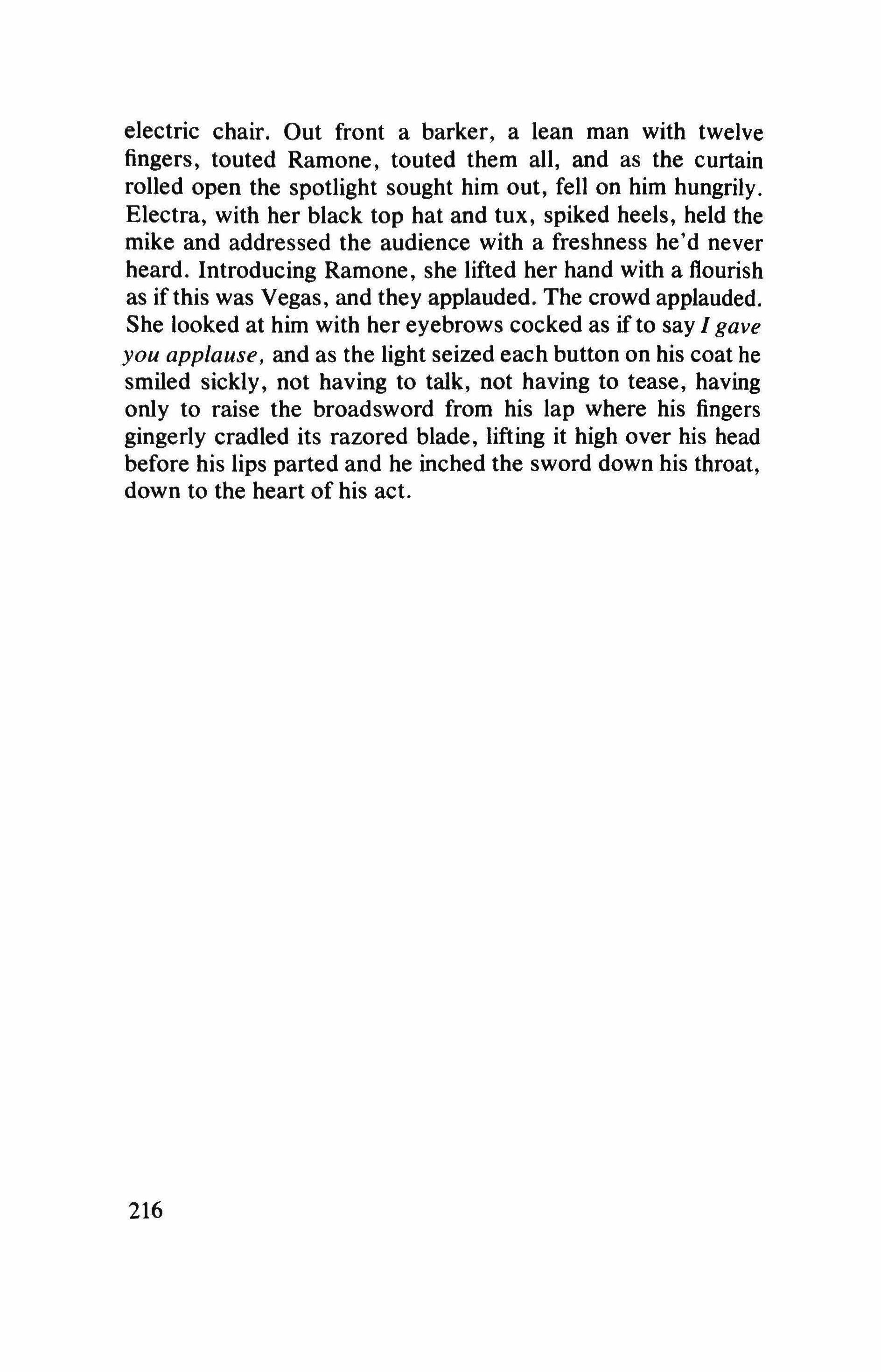
electric chair. Out front a barker, a lean man with twelve fingers, touted Ramone, touted them all, and as the curtain rolled open the spotlight sought him out, fell on him hungrily. Electra, with her black top hat and tux, spiked heels, held the mike and addressed the audience with a freshness he'd never heard. Introducing Ramone, she lifted her hand with a flourish as ifthis was Vegas, and they applauded. The crowd applauded. She looked at him with her eyebrows cocked as if to say I gave you applause, and as the light seized each button on his coat he smiled sickly, not having to talk, not having to tease, having only to raise the broadsword from his lap where his fingers gingerly cradled its razored blade, lifting it high over his head before his lips parted and he inched the sword down his throat, down to the heart of his act.
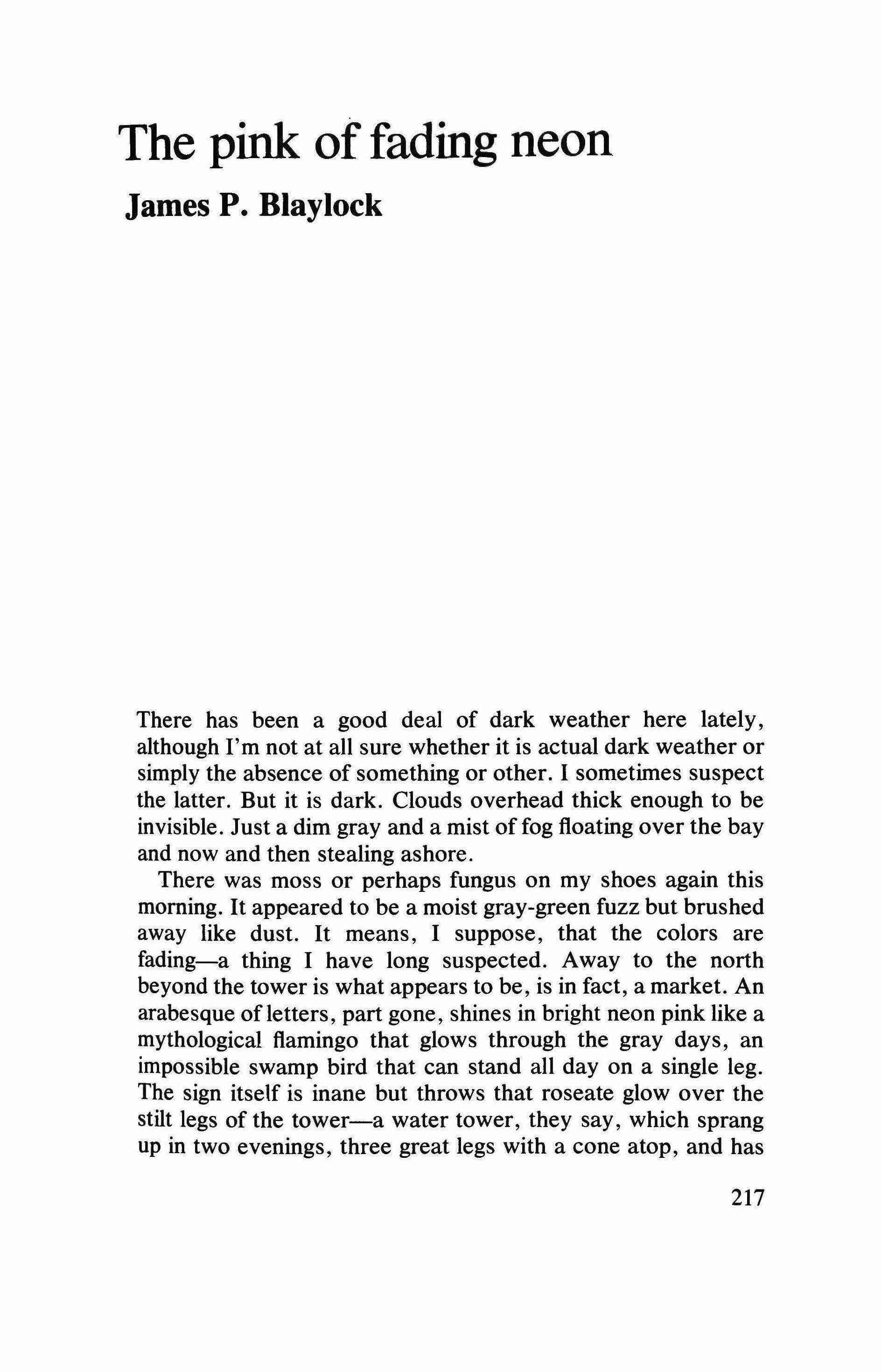
There has been a good deal of dark weather here lately, although I'm not at all sure whether it is actual dark weather or simply the absence of something or other. I sometimes suspect the latter. But it is dark. Clouds overhead thick enough to be invisible. Just a dim gray and a mist of fog floating over the bay and now and then stealing ashore.
There was moss or perhaps fungus on my shoes again this morning. It appeared to be a moist gray-green fuzz but brushed away like dust. It means, I suppose, that the colors are fading-a thing I have long suspected. Away to the north beyond the tower is what appears to be, is in fact, a market. An arabesque ofletters, part gone, shines in bright neon pink like a mythological flamingo that glows through the gray days, an impossible swamp bird that can stand all day on a single leg. The sign itself is inane but throws that roseate glow over the stilt legs of the tower-a water tower, they say, which sprang up in two evenings, three great legs with a cone atop, and has
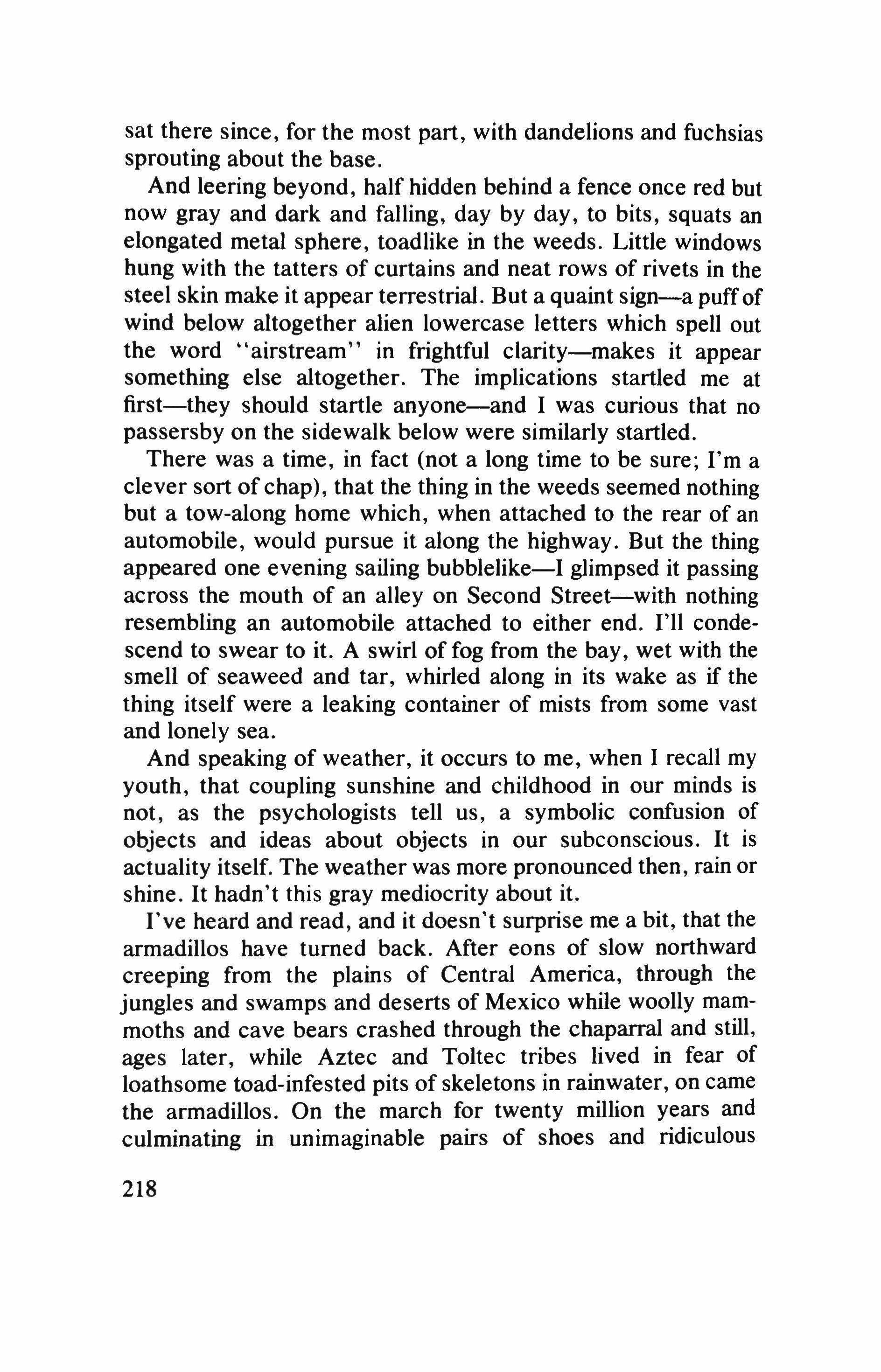
sat there since, for the most part, with dandelions and fuchsias sprouting about the base.
And leering beyond, half hidden behind a fence once red but now gray and dark and falling, day by day, to bits, squats an elongated metal sphere, toadlike in the weeds. Little windows hung with the tatters of curtains and neat rows of rivets in the steel skin make it appear terrestrial. But a quaint sign-a puffof wind below altogether alien lowercase letters which spell out the word "airstream" in frightful clarity-makes it appear something else altogether. The implications startled me at first-they should startle anyone-and I was curious that no passersby on the sidewalk below were similarly startled.
There was a time, in fact (not a long time to be sure; I'm a clever sort of chap), that the thing in the weeds seemed nothing but a tow-along home which, when attached to the rear of an automobile, would pursue it along the highway. But the thing appeared one evening sailing bubblelike-I glimpsed it passing across the mouth of an alley on Second Street-with nothing resembling an automobile attached to either end. I'll condescend to swear to it. A swirl of fog from the bay, wet with the smell of seaweed and tar, whirled along in its wake as if the thing itself were a leaking container of mists from some vast and lonely sea.
And speaking of weather, it occurs to me, when I recall my youth, that coupling sunshine and childhood in our minds is not, as the psychologists tell us, a symbolic confusion of objects and ideas about objects in our subconscious. It is actuality itself. The weather was more pronounced then, rain or shine. It hadn't this gray mediocrity about it.
I've heard and read, and it doesn't surprise me a bit, that the armadillos have turned back. After eons of slow northward creeping from the plains of Central America, through the jungles and swamps and deserts of Mexico while woolly mammoths and cave bears crashed through the chaparral and still, ages later, while Aztec and Toltec tribes lived in fear of loathsome toad-infested pits of skeletons in rainwater, on came the armadillos. On the march for twenty million years and culminating in unimaginable pairs of shoes and ridiculous
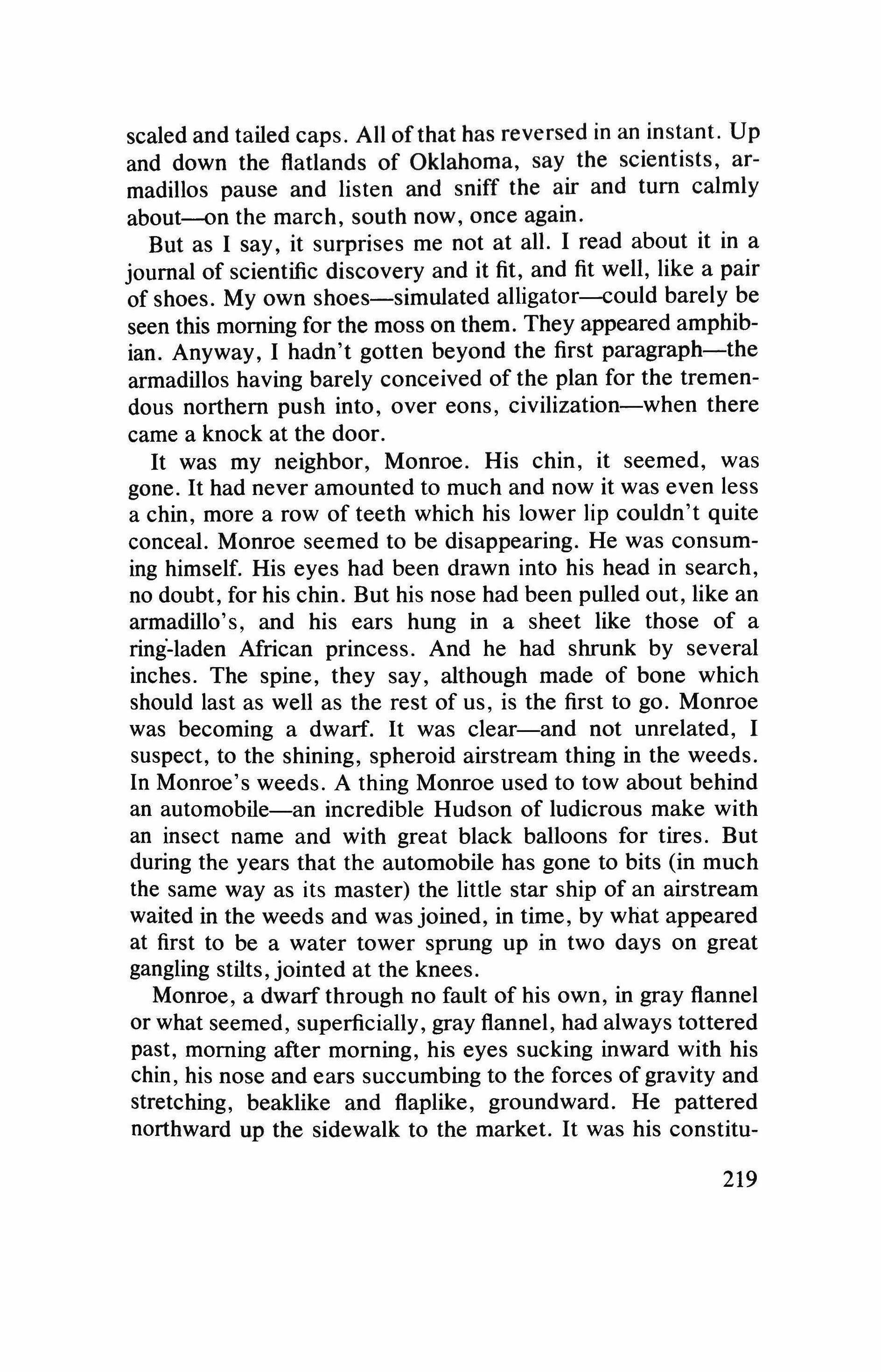
scaled and tailed caps. All of that has reversed in an instant. Up and down the flatlands of Oklahoma, say the scientists, armadillos pause and listen and sniff the air and tum calmly about--on the march, south now, once again.
But as I say, it surprises me not at all. I read about it in a journal of scientific discovery and it fit, and fit well, like a pair of shoes. My own shoes-simulated alligator--could barely be seen this morning for the moss on them. They appeared amphibian. Anyway, I hadn't gotten beyond the first paragraph-the armadillos having barely conceived of the plan for the tremendous northern push into, over eons, civilization-when there came a knock at the door.
It was my neighbor, Monroe. His chin, it seemed, was gone. It had never amounted to much and now it was even less a chin, more a row of teeth which his lower lip couldn't quite conceal. Monroe seemed to be disappearing. He was consuming himself. His eyes had been drawn into his head in search, no doubt, for his chin. But his nose had been pulled out, like an armadillo's, and his ears hung in a sheet like those of a ring-laden African princess. And he had shrunk by several inches. The spine, they say, although made of bone which should last as well as the rest of us, is the first to go. Monroe was becoming a dwarf. It was clear-and not unrelated, I suspect, to the shining, spheroid airstream thing in the weeds. In Monroe's weeds. A thing Monroe used to tow about behind an automobile-an incredible Hudson of ludicrous make with an insect name and with great black balloons for tires. But during the years that the automobile has gone to bits (in much the same way as its master) the little star ship of an airstream waited in the weeds and was joined, in time, by what appeared at first to be a water tower sprung up in two days on great gangling stilts, jointed at the knees.
Monroe, a dwarf through no fault of his own, in gray flannel or what seemed, superficially, gray flannel, had always tottered past, morning after morning, his eyes sucking inward with his chin, his nose and ears succumbing to the forces of gravity and stretching, beaklike and flaplike, groundward. He pattered northward up the sidewalk to the market. It was his constitu-
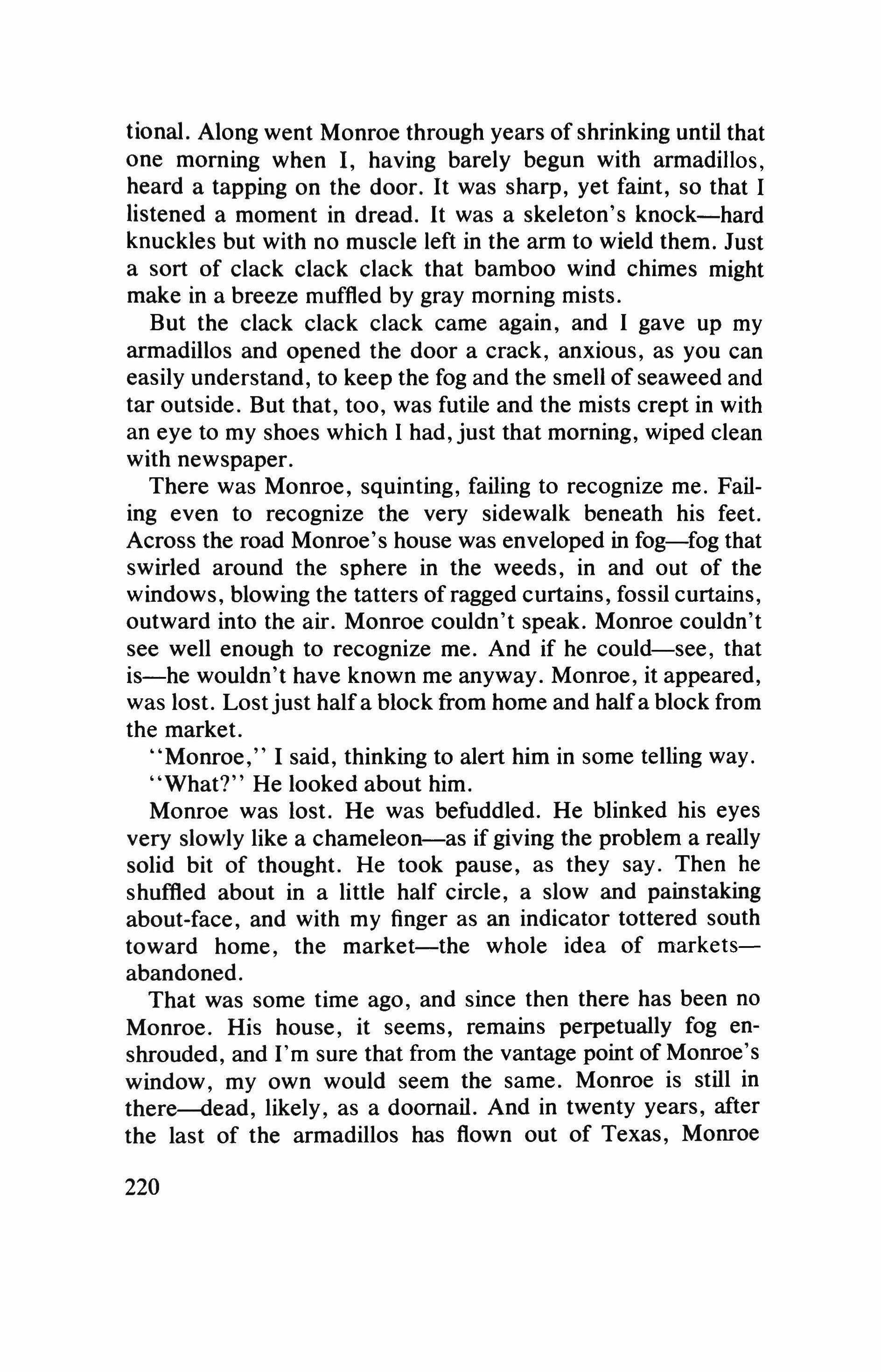
tional. Along went Monroe through years of shrinking until that one morning when I, having barely begun with armadillos, heard a tapping on the door. It was sharp, yet faint, so that I listened a moment in dread. It was a skeleton's knock-hard knuckles but with no muscle left in the arm to wield them. Just a sort of clack clack clack that bamboo wind chimes might make in a breeze muffled by gray morning mists.
But the clack clack clack came again, and I gave up my armadillos and opened the door a crack, anxious, as you can easily understand, to keep the fog and the smell of seaweed and tar outside. But that, too, was futile and the mists crept in with an eye to my shoes which I had, just that morning, wiped clean with newspaper.
There was Monroe, squinting, failing to recognize me. Failing even to recognize the very sidewalk beneath his feet. Across the road Monroe's house was enveloped in fog-fog that swirled around the sphere in the weeds, in and out of the windows, blowing the tatters of ragged curtains, fossil curtains, outward into the air. Monroe couldn't speak. Monroe couldn't see well enough to recognize me. And if he could-see, that is-he wouldn't have known me anyway. Monroe, it appeared, was lost. Lostjust half a block from home and half a block from the market.
"Monroe," I said, thinking to alert him in some telling way. "What?" He looked about him.
Monroe was lost. He was befuddled. He blinked his eyes very slowly like a chameleon-as if giving the problem a really solid bit of thought. He took pause, as they say. Then he shuffled about in a little half circle, a slow and painstaking about-face, and with my finger as an indicator tottered south toward home, the market-the whole idea of marketsabandoned.
That was some time ago, and since then there has been no Monroe. His house, it seems, remains perpetually fog enshrouded, and I'm sure that from the vantage point of Monroe's window, my own would seem the same. Monroe is still in there-dead, likely, as a doornail. And in twenty years, after the last of the armadillos has flown out of Texas, Monroe
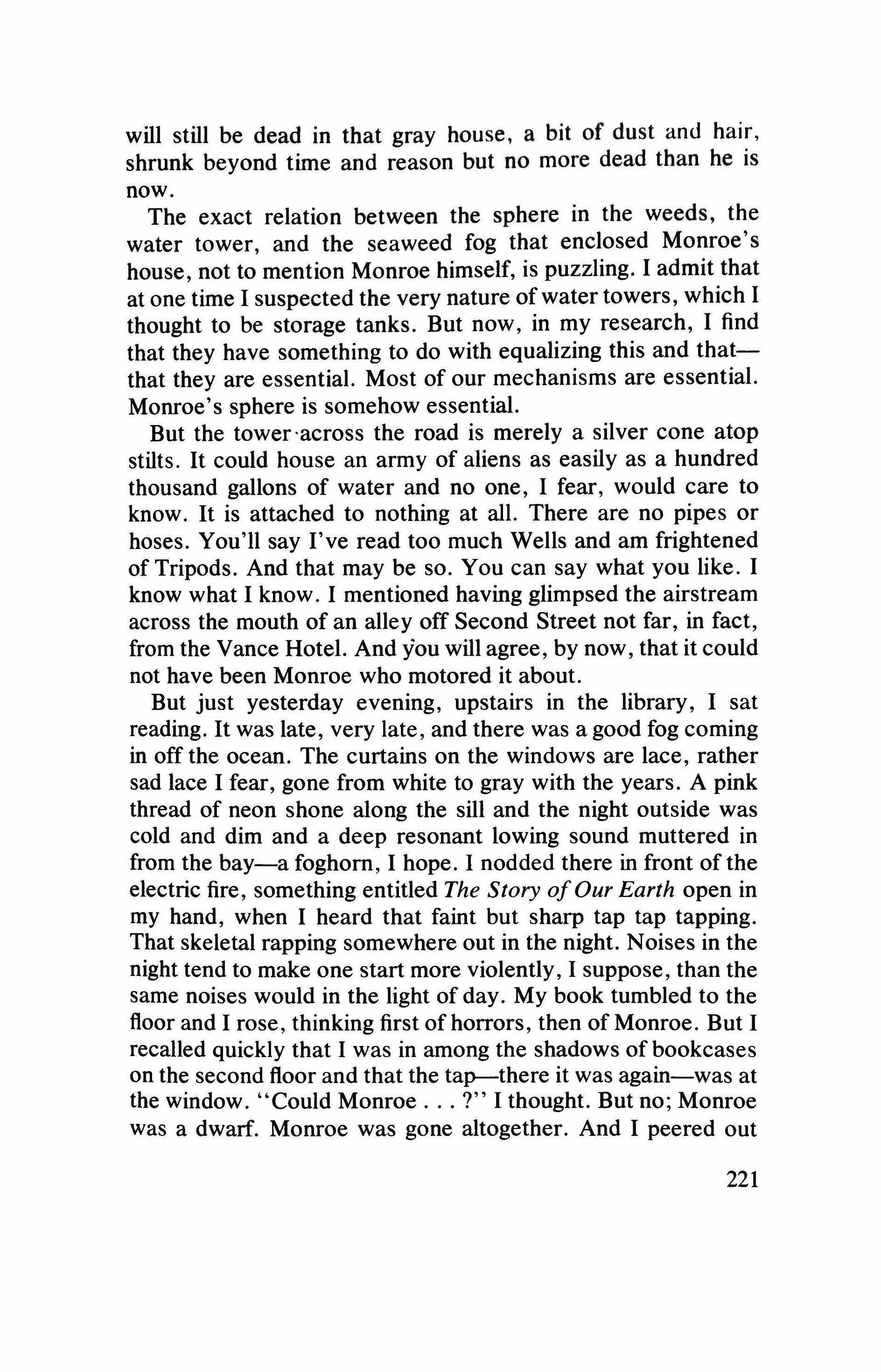
will still be dead in that gray house, a bit of dust and hair, shrunk beyond time and reason but no more dead than he is now.
The exact relation between the sphere in the weeds, the water tower, and the seaweed fog that enclosed Monroe's house, not to mention Monroe himself, is puzzling. I admit that at one time I suspected the very nature of water towers, which I thought to be storage tanks. But now, in my research, I find that they have something to do with equalizing this and thatthat they are essential. Most of our mechanisms are essential. Monroe's sphere is somehow essential.
But the tower -across the road is merely a silver cone atop stilts. It could house an army of aliens as easily as a hundred thousand gallons of water and no one, I fear, would care to know. It is attached to nothing at all. There are no pipes or hoses. You'll say I've read too much Wells and am frightened of Tripods. And that may be so. You can say what you like. I know what I know. I mentioned having glimpsed the airstream across the mouth of an alley off Second Street not far, in fact, from the Vance Hotel. And you will agree, by now, that it could not have been Monroe who motored it about.
But just yesterday evening, upstairs in the library, I sat reading. It was late, very late, and there was a good fog coming in off the ocean. The curtains on the windows are lace, rather sad lace I fear, gone from white to gray with the years. A pink thread of neon shone along the sill and the night outside was cold and dim and a deep resonant lowing sound muttered in from the bay-a foghorn, I hope. I nodded there in front of the electric fire, something entitled The Story of Our Earth open in my hand, when I heard that faint but sharp tap tap tapping. That skeletal rapping somewhere out in the night. Noises in the night tend to make one start more violently, I suppose, than the same noises would in the light of day. My book tumbled to the floor and I rose, thinking first of horrors, then of Monroe. But I recalled quickly that I was in among the shadows of bookcases on the second floor and that the tap-there it was again-was at the window. "Could Monroe ?" I thought. But no; Monroe was a dwarf. Monroe was gone altogether. And I peered out
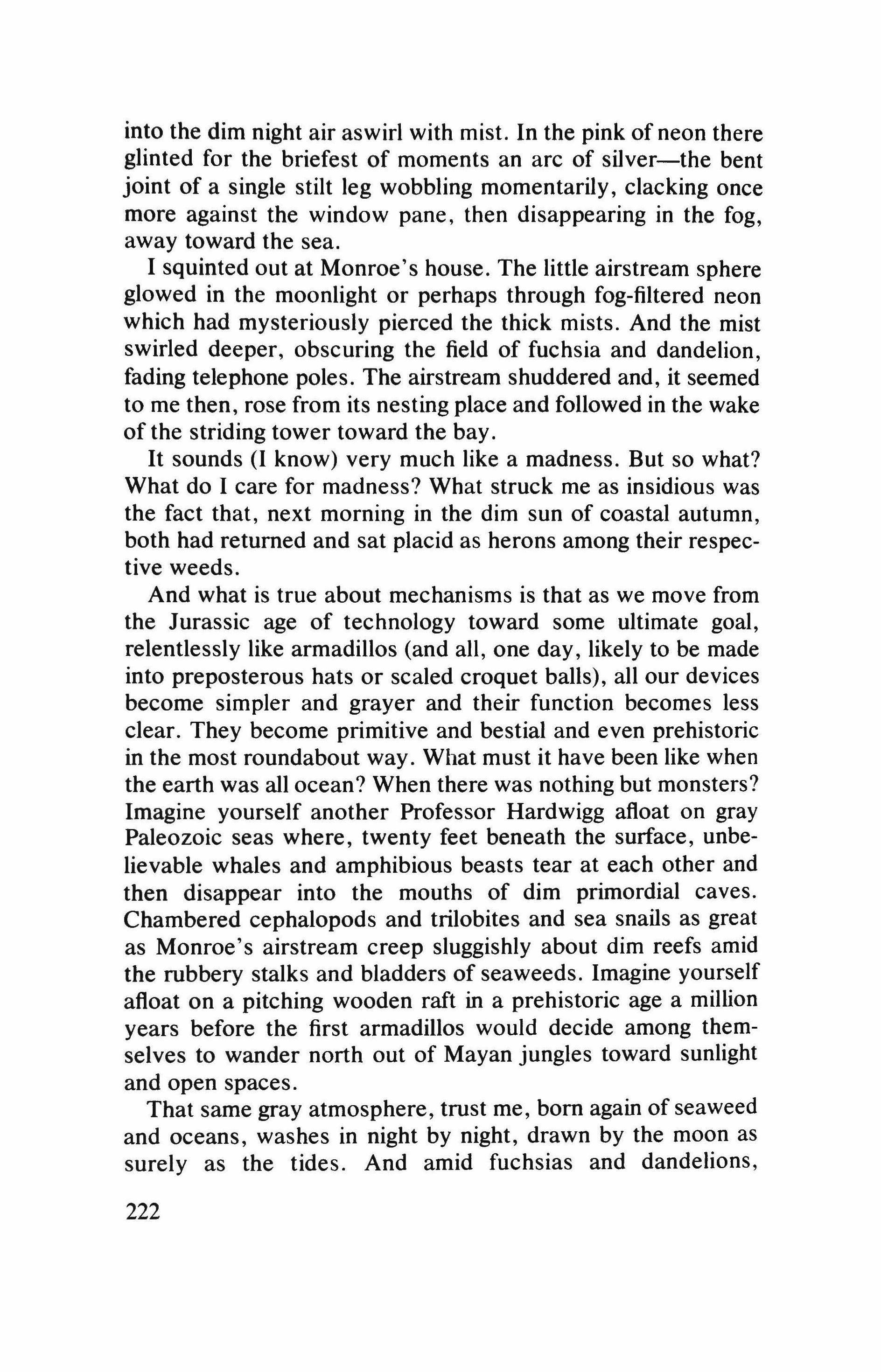
into the dim night air aswirl with mist. In the pink of neon there glinted for the briefest of moments an arc of silver-the bent joint of a single stilt leg wobbling momentarily, clacking once more against the window pane, then disappearing in the fog, away toward the sea.
I squinted out at Monroe's house. The little airstream sphere glowed in the moonlight or perhaps through fog-filtered neon which had mysteriously pierced the thick mists. And the mist swirled deeper, obscuring the field of fuchsia and dandelion, fading telephone poles. The airstream shuddered and, it seemed to me then, rose from its nesting place and followed in the wake of the striding tower toward the bay.
It sounds (I know) very much like a madness. But so what? What do I care for madness? What struck me as insidious was the fact that, next morning in the dim sun of coastal autumn, both had returned and sat placid as herons among their respective weeds.
And what is true about mechanisms is that as we move from the Jurassic age of technology toward some ultimate goal, relentlessly like armadillos (and all, one day, likely to be made into preposterous hats or scaled croquet balls), all our devices become simpler and grayer and their function becomes less clear. They become primitive and bestial and even prehistoric in the most roundabout way. What must it have been like when the earth was all ocean? When there was nothing but monsters? Imagine yourself another Professor Hardwigg afloat on gray Paleozoic seas where, twenty feet beneath the surface, unbelievable whales and amphibious beasts tear at each other and then disappear into the mouths of dim primordial caves. Chambered cephalopods and trilobites and sea snails as great as Monroe's airstream creep sluggishly about dim reefs amid the rubbery stalks and bladders of seaweeds. Imagine yourself afloat on a pitching wooden raft in a prehistoric age a million years before the first armadillos would decide among themselves to wander north out of Mayan jungles toward sunlight and open spaces.
That same gray atmosphere, trust me, born again of seaweed and oceans, washes in night by night, drawn by the moon as surely as the tides. And amid fuchsias and dandelions,
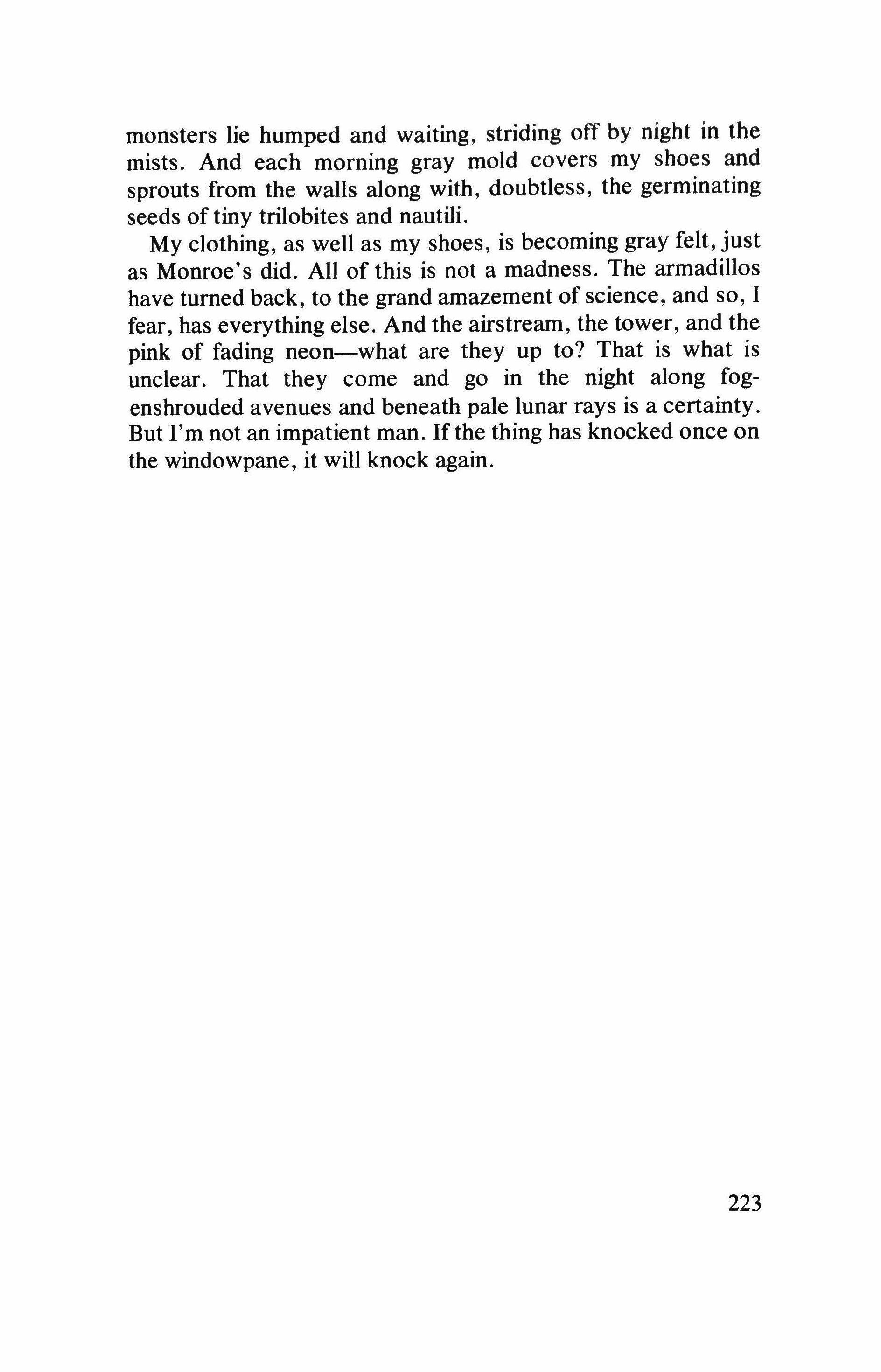
monsters lie humped and waiting, striding off by night in the mists. And each morning gray mold covers my shoes and sprouts from the walls along with, doubtless, the germinating seeds of tiny trilobites and nautili.
My clothing, as well as my shoes, is becoming gray felt, just as Monroe's did. All of this is not a madness. The armadillos have turned back, to the grand amazement of science, and so, I fear, has everything else. And the airstream, the tower, and the pink of fading neon-what are they up to? That is what is unclear. That they come and go in the night along fogenshrouded avenues and beneath pale lunar rays is a certainty. But I'm not an impatient man. Ifthe thing has knocked once on the windowpane, it will knock again.
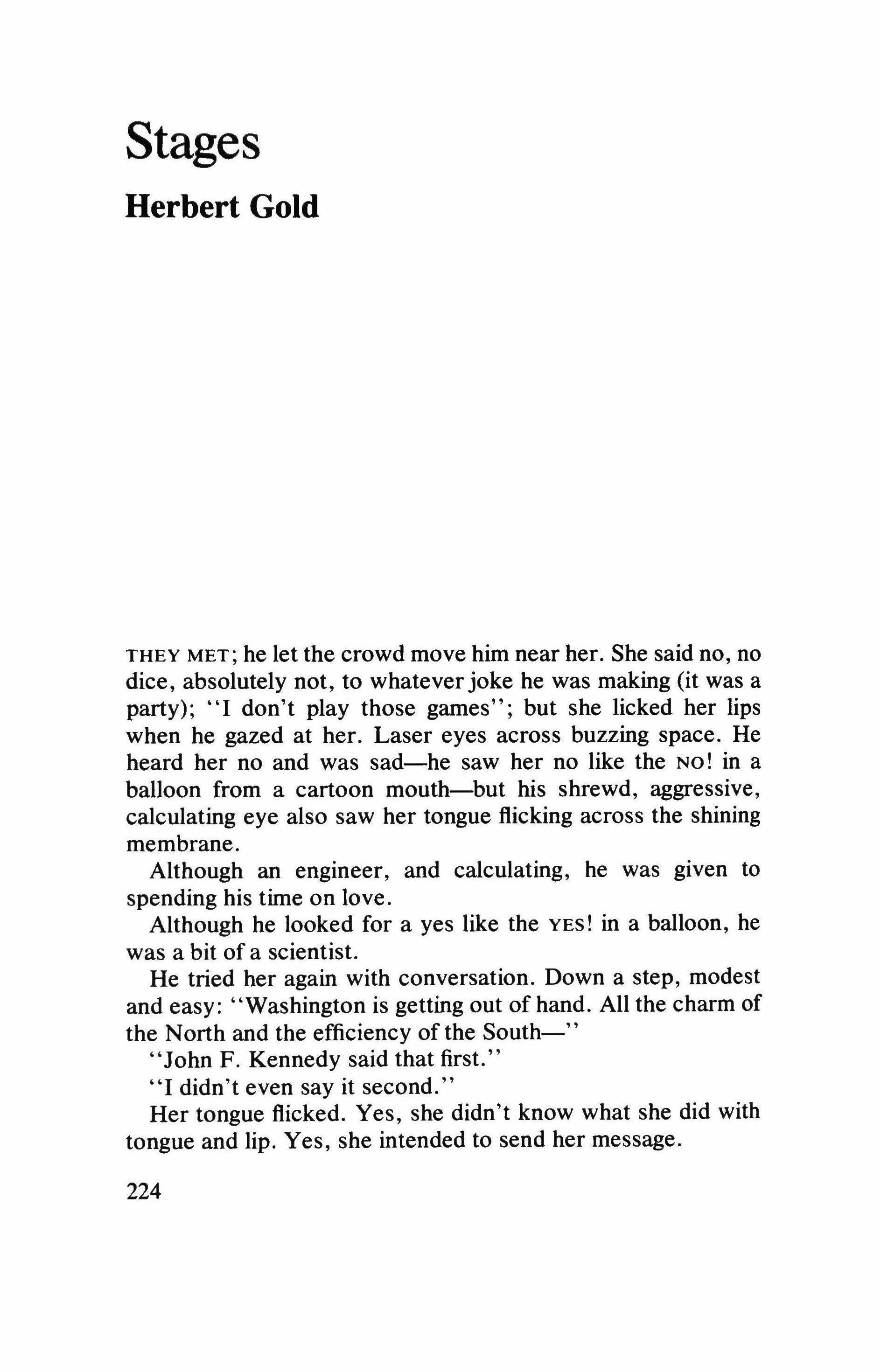
THEY MET; he let the crowd move him near her. She said no, no dice, absolutely not, to whateverjoke he was making (it was a party); "I don't play those games"; but she licked her lips when he gazed at her. Laser eyes across buzzing space. He heard her no and was sad-he saw her no like the NO! in a balloon from a cartoon mouth-but his shrewd, aggressive, calculating eye also saw her tongue flicking across the shining membrane.
Although an engineer, and calculating, he was given to spending his time on love.
Although he looked for a yes like the YES! in a balloon, he was a bit of a scientist.
He tried her again with conversation. Down a step, modest and easy: "Washington is getting out of hand. All the charm of the North and the efficiency of the South-"
"John F. Kennedy said that first. "
"I didn't even say it second."
Her tongue flicked. Yes, she didn't know what she did with tongue and lip. Yes, she intended to send her message.
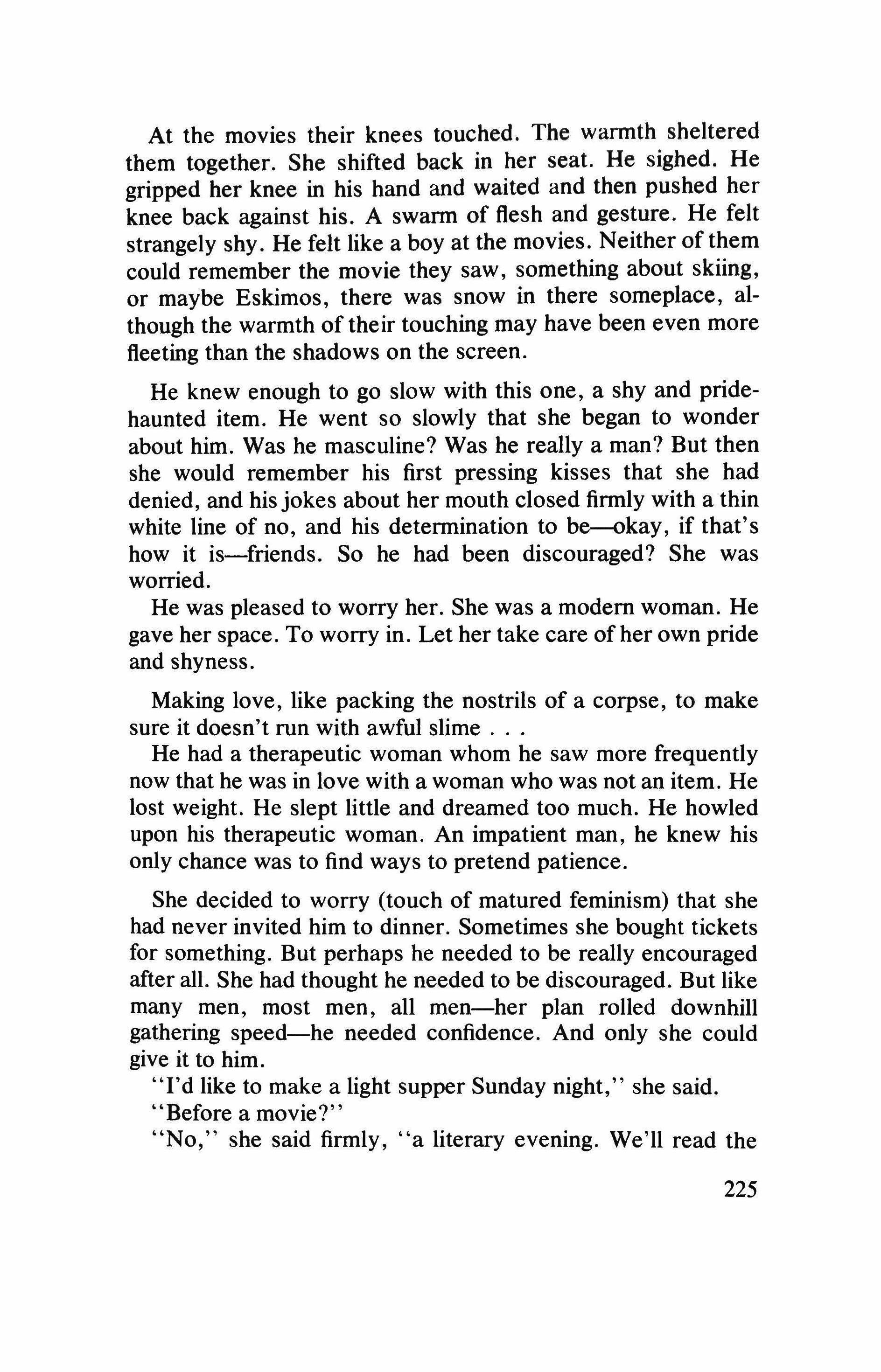
At the movies their knees touched. The warmth sheltered them together. She shifted back in her seat. He sighed. He gripped her knee in his hand and waited and then pushed her knee back against his. A swarm of flesh and gesture. He felt strangely shy. He felt like a boy at the movies. Neither of them could remember the movie they saw, something about skiing, or maybe Eskimos, there was snow in there someplace, although the warmth of their touching may have been even more fleeting than the shadows on the screen.
He knew enough to go slow with this one, a shy and pridehaunted item. He went so slowly that she began to wonder about him. Was he masculine? Was he really a man? But then she would remember his first pressing kisses that she had denied, and his jokes about her mouth closed firmly with a thin white line of no, and his determination to be--okay, if that's how it is-friends. So he had been discouraged? She was worried.
He was pleased to worry her. She was a modem woman. He gave her space. To worry in. Let her take care of her own pride and shyness.
Making love, like packing the nostrils of a corpse, to make sure it doesn't run with awful slime
He had a therapeutic woman whom he saw more frequently now that he was in love with a woman who was not an item. He lost weight. He slept little and dreamed too much. He howled upon his therapeutic woman. An impatient man, he knew his only chance was to find ways to pretend patience.
She decided to worry (touch of matured feminism) that she had never invited him to dinner. Sometimes she bought tickets for something. But perhaps he needed to be really encouraged after all. She had thought he needed to be discouraged. But like many men, most men, all men-her plan rolled downhill gathering speed-he needed confidence. And only she could give it to him.
"I'd like to make a light supper Sunday night," she said.
"Before a movie?"
"No," she said firmly, "a literary evening. We'll read the 225
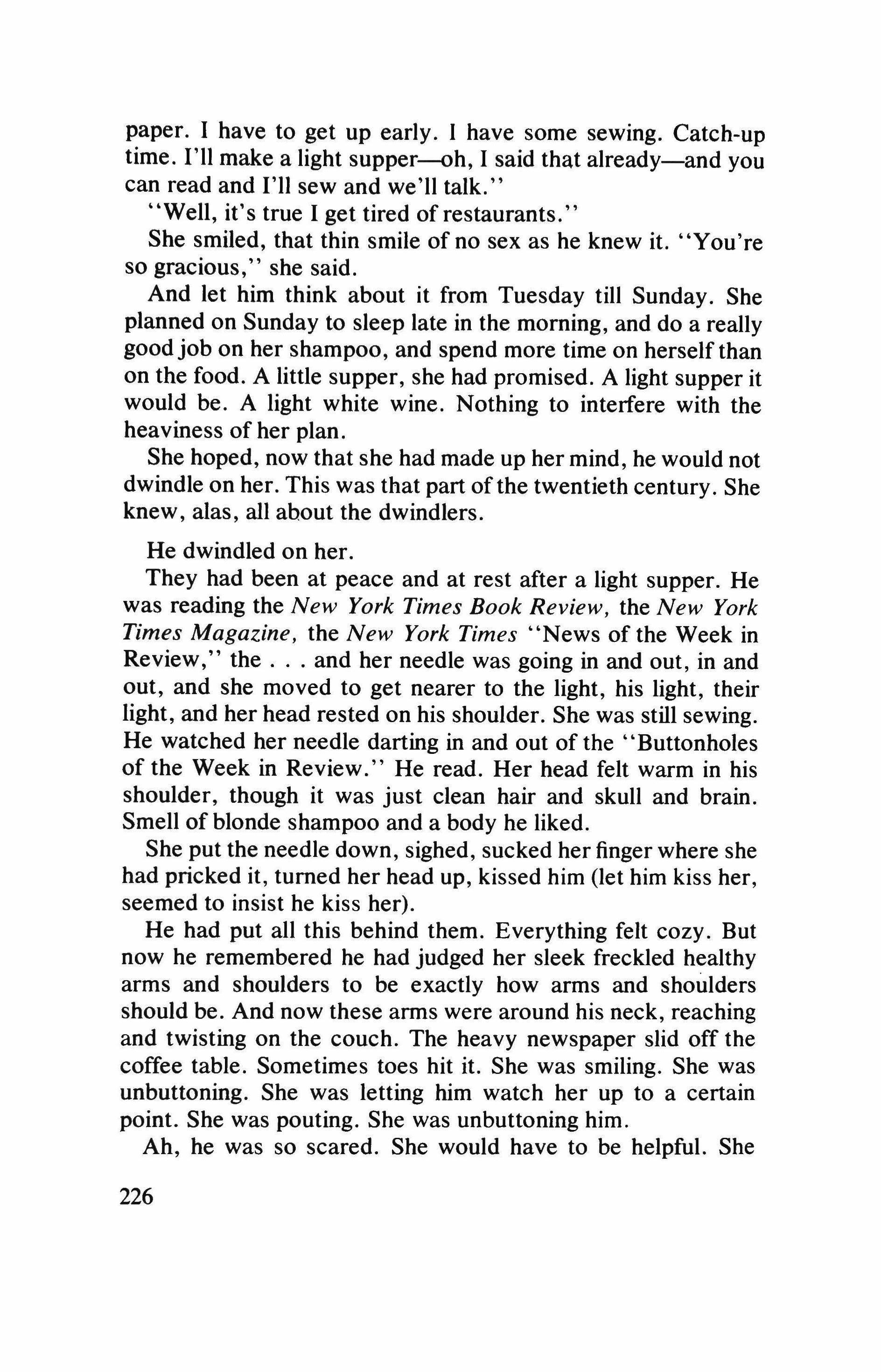
paper. I have to get up early. I have some sewing. Catch-up time. I'll make a light supper-oh, I said that already-and you can read and I'll sew and we'll talk."
"Well, it's true I get tired of restaurants."
She smiled, that thin smile of no sex as he knew it. "You're so gracious," she said.
And let him think about it from Tuesday till Sunday. She planned on Sunday to sleep late in the morning, and do a really goodjob on her shampoo, and spend more time on herself than on the food. A little supper, she had promised. A light supper it would be. A light white wine. Nothing to interfere with the heaviness of her plan.
She hoped, now that she had made up her mind, he would not dwindle on her. This was that part ofthe twentieth century. She knew, alas, all about the dwindlers.
He dwindled on her.
They had been at peace and at rest after a light supper. He was reading the New York Times Book Review, the New York Times Magazine, the New York Times "News of the Week in Review," the and her needle was going in and out, in and out, and she moved to get nearer to the light, his light, their light, and her head rested on his shoulder. She was still sewing. He watched her needle darting in and out of the "Buttonholes of the Week in Review." He read. Her head felt warm in his shoulder, though it was just clean hair and skull and brain. Smell of blonde shampoo and a body he liked.
She put the needle down, sighed, sucked her finger where she had pricked it, turned her head up, kissed him (let him kiss her, seemed to insist he kiss her).
He had put all this behind them. Everything felt cozy. But now he remembered he had judged her sleek freckled healthy arms and shoulders to be exactly how arms and shoulders should be. And now these arms were around his neck, reaching and twisting on the couch. The heavy newspaper slid off the coffee table. Sometimes toes hit it. She was smiling. She was unbuttoning. She was letting him watch her up to a certain point. She was pouting. She was unbuttoning him.
Ah, he was so scared. She would have to be helpful. She
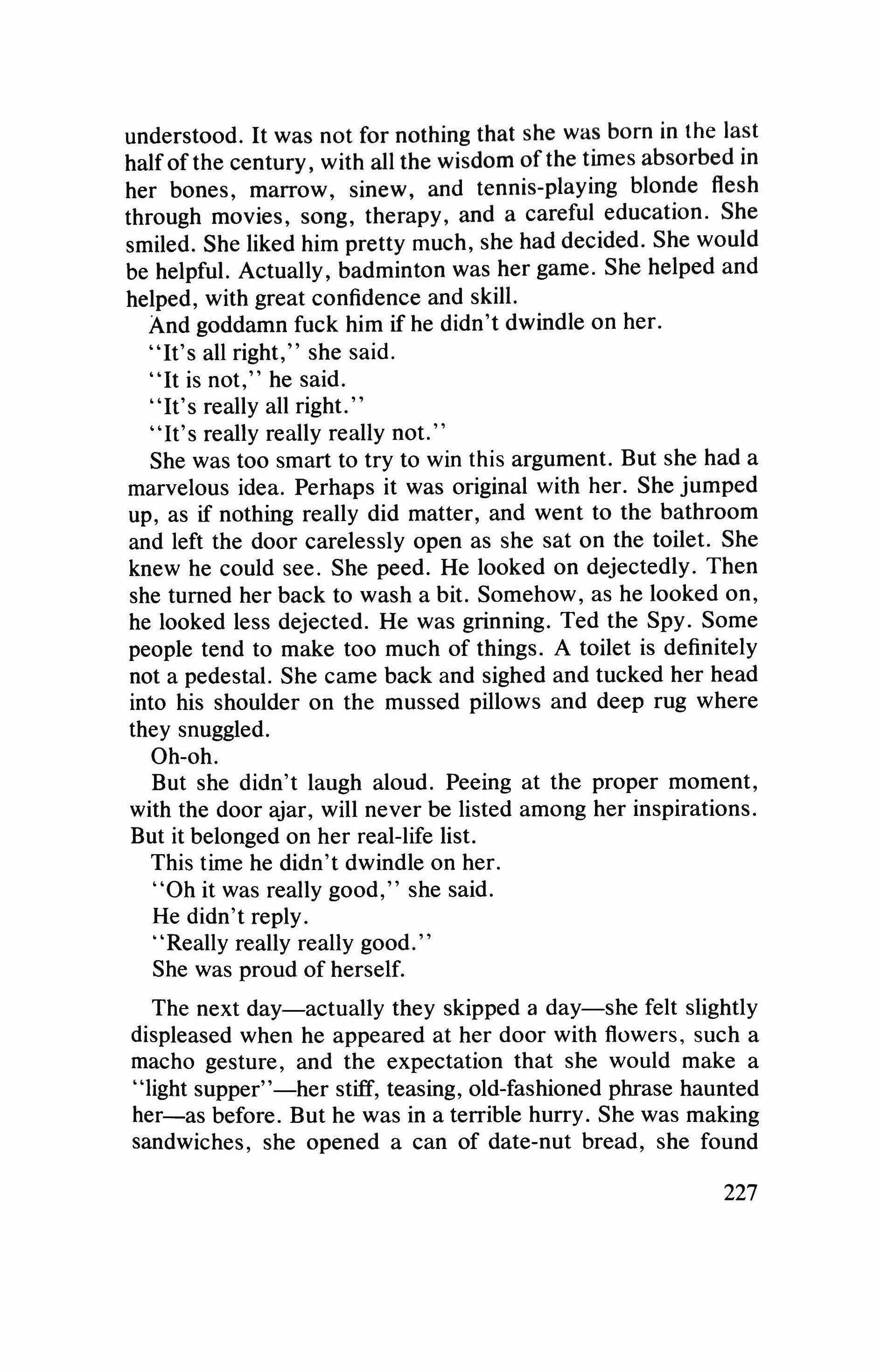
understood. It was not for nothing that she was born in the last halfof the century, with all the wisdom of the times absorbed in her bones, marrow, sinew, and tennis-playing blonde flesh through movies, song, therapy, and a careful education. She smiled. She liked him pretty much, she had decided. She would be helpful. Actually, badminton was her game. She helped and helped, with great confidence and skill.
And goddamn fuck him if he didn't dwindle on her.
"It's all right," she said.
"It is not," he said.
"It's really all right."
"It's really really really not."
She was too smart to try to win this argument. But she had a marvelous idea. Perhaps it was original with her. She jumped up, as if nothing really did matter, and went to the bathroom and left the door carelessly open as she sat on the toilet. She knew he could see. She peed. He looked on dejectedly. Then she turned her back to wash a bit. Somehow, as he looked on, he looked less dejected. He was grinning. Ted the Spy. Some people tend to make too much of things. A toilet is definitely not a pedestal. She came back and sighed and tucked her head into his shoulder on the mussed pillows and deep rug where they snuggled.
Oh-oh.
But she didn't laugh aloud. Peeing at the proper moment, with the door ajar, will never be listed among her inspirations. But it belonged on her real-life list.
This time he didn't dwindle on her.
"Oh it was really good," she said.
He didn't reply.
"Really really really good."
She was proud of herself.
The next day-actually they skipped a day-she felt slightly displeased when he appeared at her door with flowers, such a macho gesture, and the expectation that she would make a "light supper"-her stiff, teasing, old-fashioned phrase haunted her-as before. But he was in a terrible hurry. She was making sandwiches, she opened a can of date-nut bread, she found 227
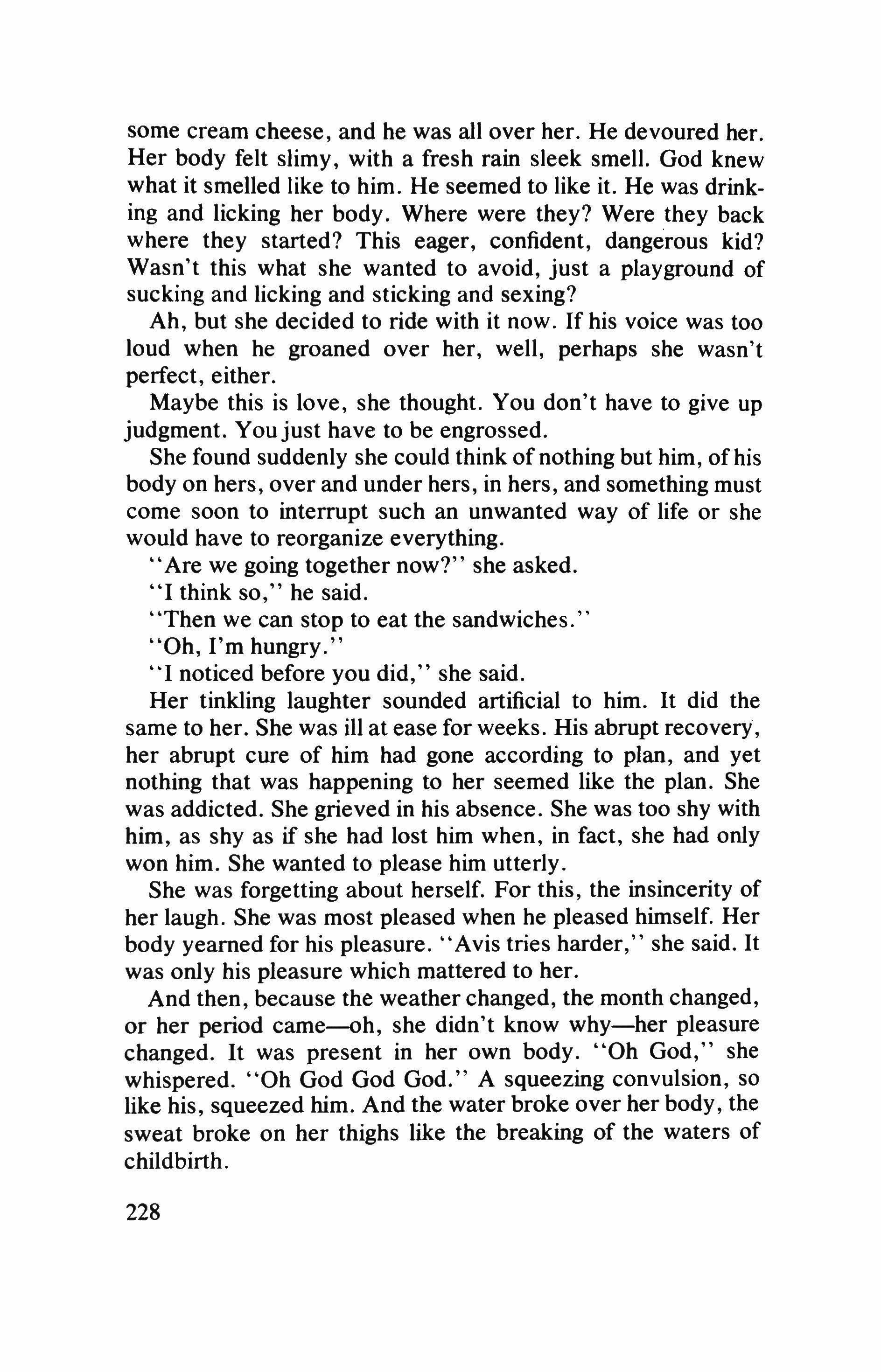
some cream cheese, and he was allover her. He devoured her. Her body felt slimy, with a fresh rain sleek smell. God knew what it smelled like to him. He seemed to like it. He was drinking and licking her body. Where were they? Were they back where they started? This eager, confident, dangerous kid? Wasn't this what she wanted to avoid, just a playground of sucking and licking and sticking and sexing?
Ah, but she decided to ride with it now. If his voice was too loud when he groaned over her, well, perhaps she wasn't perfect, either.
Maybe this is love, she thought. You don't have to give up judgment. You just have to be engrossed.
She found suddenly she could think of nothing but him, of his body on hers, over and under hers, in hers, and something must come soon to interrupt such an unwanted way of life or she would have to reorganize everything.
"Are we going together now?" she asked.
"I think so," he said.
"Then we can stop to eat the sandwiches."
"Oh, I'm hungry."
"I noticed before you did," she said.
Her tinkling laughter sounded artificial to him. It did the same to her. She was ill at ease for weeks. His abrupt recovery, her abrupt cure of him had gone according to plan, and yet nothing that was happening to her seemed like the plan. She was addicted. She grieved in his absence. She was too shy with him, as shy as if she had lost him when, in fact, she had only won him. She wanted to please him utterly.
She was forgetting about herself. For this, the insincerity of her laugh. She was most pleased when he pleased himself. Her body yearned for his pleasure. "Avis tries harder," she said. It was only his pleasure which mattered to her.
And then, because the weather changed, the month changed, or her period came-oh, she didn't know why-her pleasure changed. It was present in her own body. "Oh God," she whispered. "Oh God God God." A squeezing convulsion, so like his, squeezed him. And the water broke over her body, the sweat broke on her thighs like the breaking of the waters of childbirth.
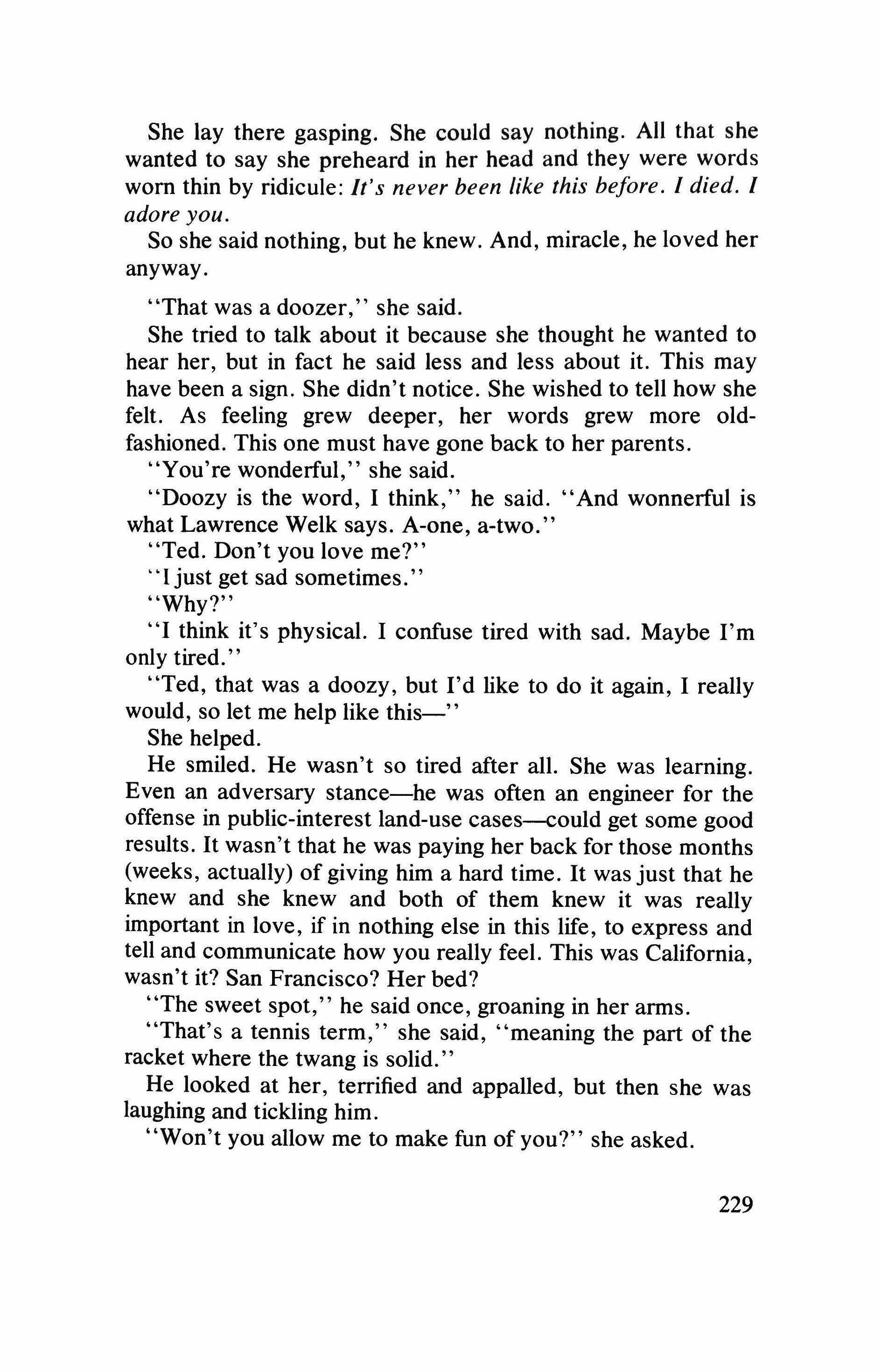
She lay there gasping. She could say nothing. All that she wanted to say she preheard in her head and they were words worn thin by ridicule: It's never been like this before. I died. I adore you.
So she said nothing, but he knew. And, miracle, he loved her anyway.
"That was a doozer," she said.
She tried to talk about it because she thought he wanted to hear her, but in fact he said less and less about it. This may have been a sign. She didn't notice. She wished to tell how she felt. As feeling grew deeper, her words grew more oldfashioned. This one must have gone back to her parents.
"You're wonderful," she said.
"Doozy is the word, I think," he said. "And wonnerful is what Lawrence Welk says. A-one, a-two."
"Ted. Don't you love me?"
"I just get sad sometimes."
"I think it's physical. I confuse tired with sad. Maybe I'm only tired."
"Ted, that was a doozy, but I'd like to do it again, I really would, so let me help like this-"
She helped.
He smiled. He wasn't so tired after all. She was learning. Even an adversary stance-he was often an engineer for the offense in public-interest land-use cases-could get some good results. It wasn't that he was paying her back for those months (weeks, actually) of giving him a hard time. It was just that he knew and she knew and both of them knew it was really important in love, if in nothing else in this life, to express and tell and communicate how you really feel. This was California, wasn't it? San Francisco? Her bed?
"The sweet spot," he said once, groaning in her arms.
"That's a tennis term," she said, "meaning the part of the racket where the twang is solid."
He looked at her, terrified and appalled, but then she was laughing and tickling him.
"Won't you allow me to make fun of you?" she asked.
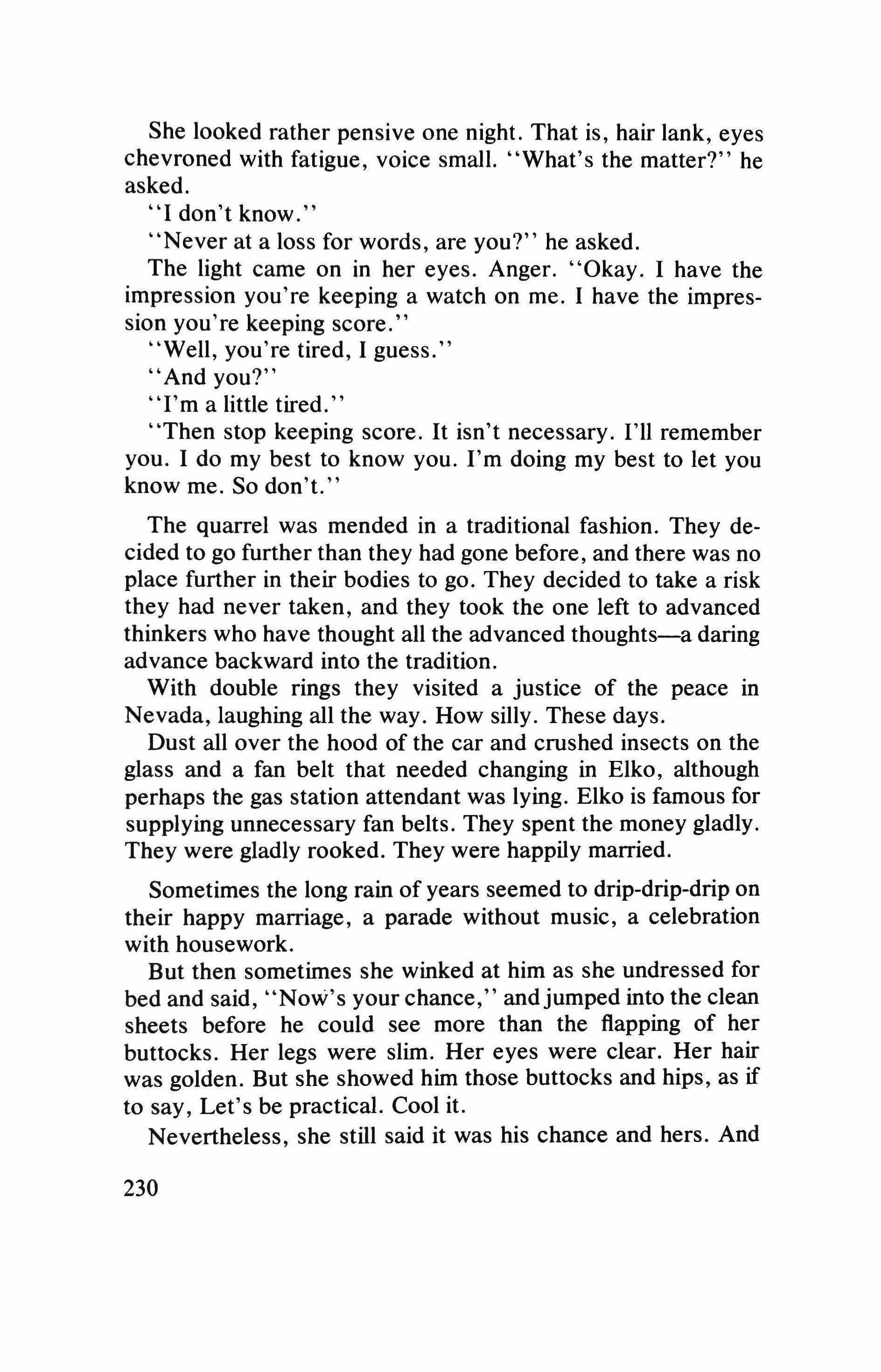
She looked rather pensive one night. That is, hair lank, eyes chevroned with fatigue, voice small. "What's the matter?" he asked.
"I don't know."
"Never at a loss for words, are you?" he asked.
The light came on in her eyes. Anger. "Okay. 1 have the impression you're keeping a watch on me. I have the impression you're keeping score."
"Well, you're tired, 1 guess."
"And you?"
"Tm a little tired."
"Then stop keeping score. It isn't necessary. I'll remember you. 1 do my best to know you. I'm doing my best to let you know me. So don't."
The quarrel was mended in a traditional fashion. They decided to go further than they had gone before, and there was no place further in their bodies to go. They decided to take a risk they had never taken, and they took the one left to advanced thinkers who have thought all the advanced thoughts-a daring advance backward into the tradition.
With double rings they visited a justice of the peace in Nevada, laughing all the way. How silly. These days.
Dust all over the hood of the car and crushed insects on the glass and a fan belt that needed changing in Elko, although perhaps the gas station attendant was lying. Elko is famous for supplying unnecessary fan belts. They spent the money gladly. They were gladly rooked. They were happily married.
Sometimes the long rain of years seemed to drip-drip-drip on their happy marriage, a parade without music, a celebration with housework.
But then sometimes she winked at him as she undressed for bed and said, "Now's your chance," andjumped into the clean sheets before he could see more than the flapping of her buttocks. Her legs were slim. Her eyes were clear. Her hair was golden. But she showed him those buttocks and hips, as if to say, Let's be practical. Cool it.
Nevertheless, she still said it was his chance and hers. And 230
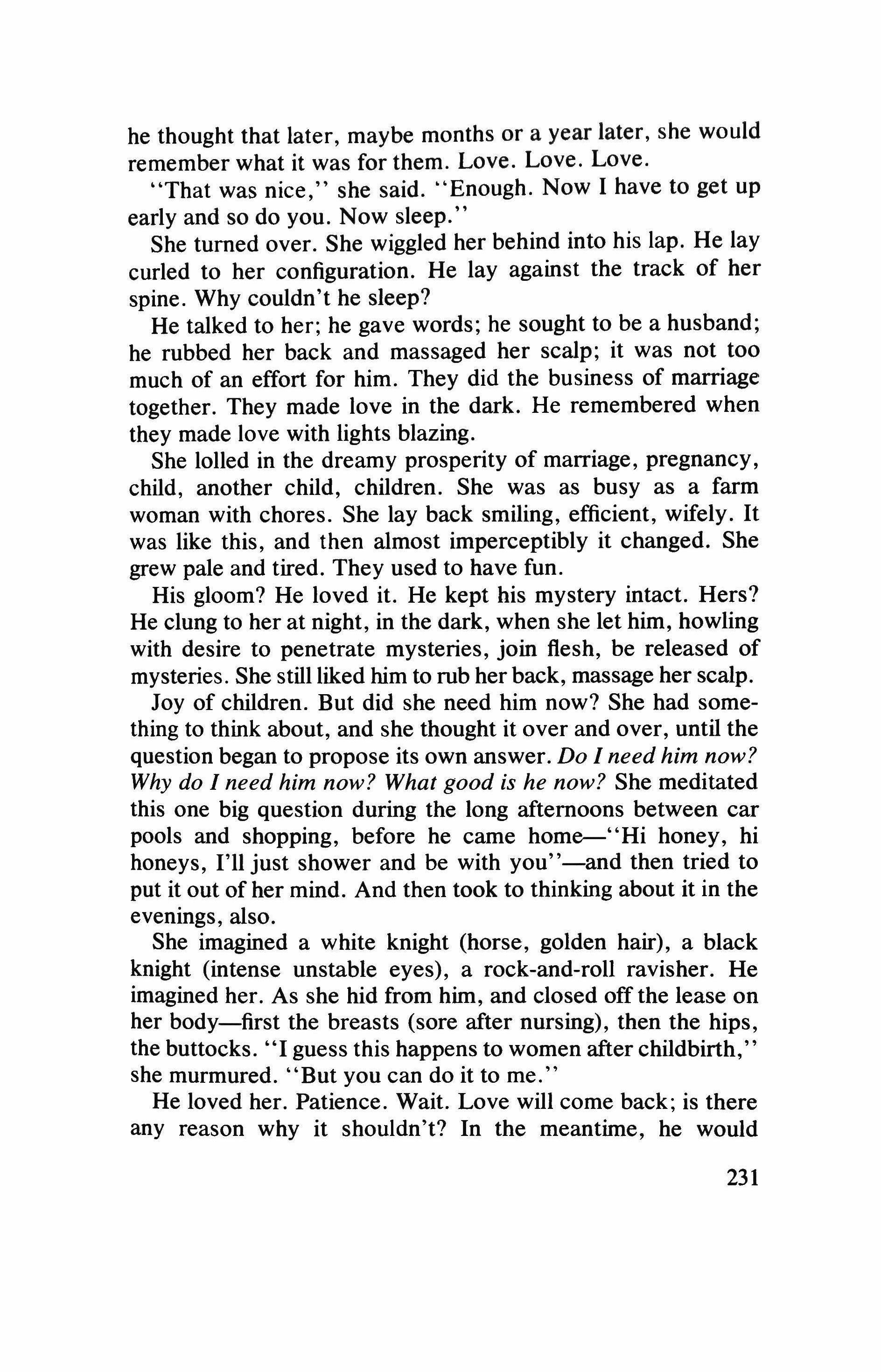
he thought that later, maybe months or a year later, she would remember what it was for them. Love. Love. Love.
"That was nice," she said. "Enough. Now I have to get up early and so do you. Now sleep."
She turned over. She wiggled her behind into his lap. He lay curled to her configuration. He lay against the track of her spine. Why couldn't he sleep?
He talked to her; he gave words; he sought to be a husband; he rubbed her back and massaged her scalp; it was not too much of an effort for him. They did the business of marriage together. They made love in the dark. He remembered when they made love with lights blazing.
She lolled in the dreamy prosperity of marriage, pregnancy, child, another child, children. She was as busy as a farm woman with chores. She lay back smiling, efficient, wifely. It was like this, and then almost imperceptibly it changed. She grew pale and tired. They used to have fun.
His gloom? He loved it. He kept his mystery intact. Hers? He clung to her at night, in the dark, when she let him, howling with desire to penetrate mysteries, join flesh, be released of mysteries. She still liked him to rub her back, massage her scalp.
Joy of children. But did she need him now? She had something to think about, and she thought it over and over, until the question began to propose its own answer. Do I need him now? Why do I need him now? What good is he now? She meditated this one big question during the long afternoons between car pools and shopping, before he came home-"Hi honey, hi honeys, I'll just shower and be with you"-and then tried to put it out of her mind. And then took to thinking about it in the evenings, also.
She imagined a white knight (horse, golden hair), a black knight (intense unstable eyes), a rock-and-roll ravisher. He imagined her. As she hid from him, and closed offthe lease on her body-first the breasts (sore after nursing), then the hips, the buttocks. "I guess this happens to women after childbirth," she murmured. "But you can do it to me."
He loved her. Patience. Wait. Love will come back; is there any reason why it shouldn't? In the meantime, he would
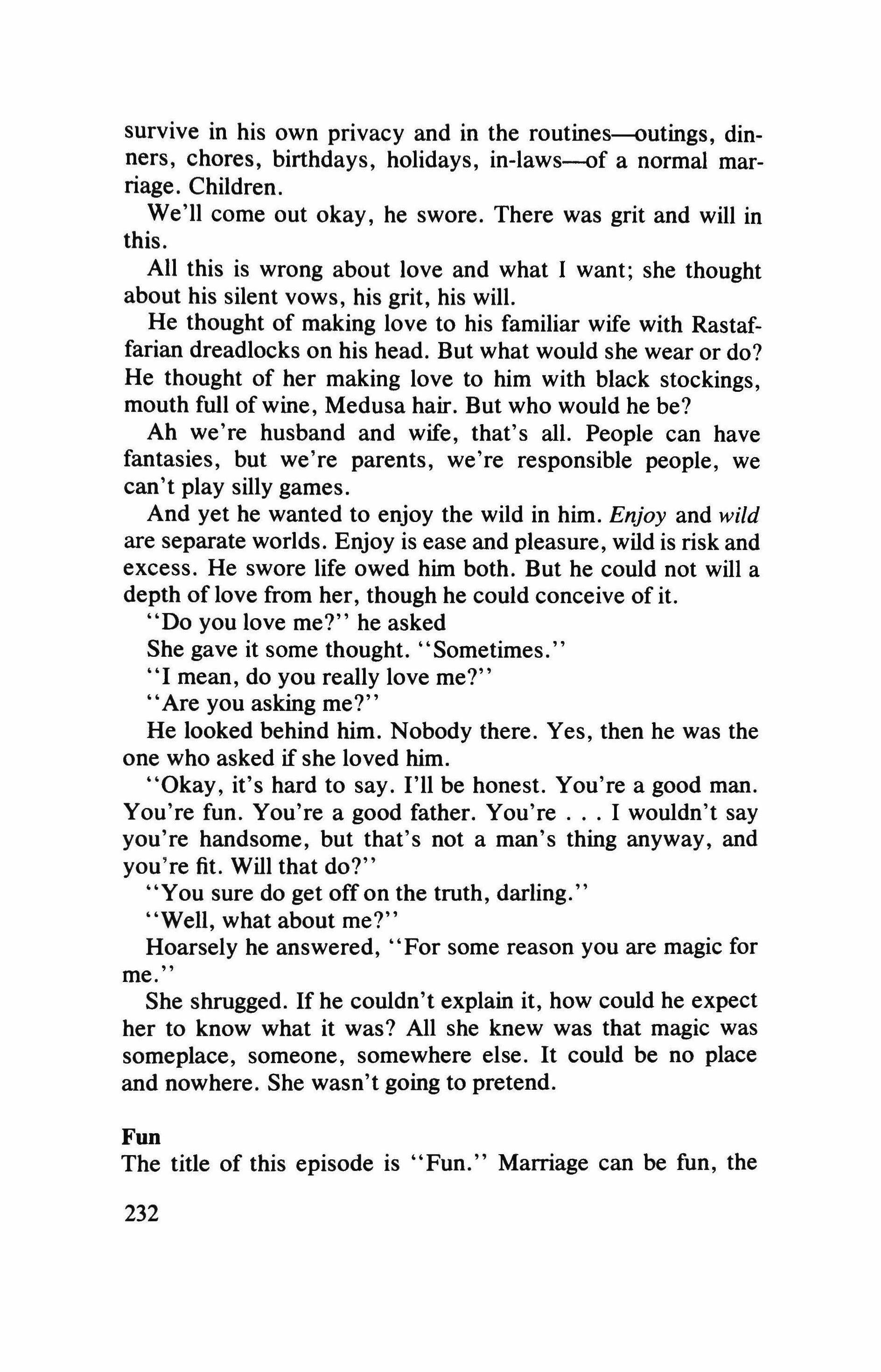
survive in his own privacy and in the routines-outings, dinners, chores, birthdays, holidays, in-Iaws-of a normal marriage. Children.
We'll come out okay, he swore. There was grit and will in this.
All this is wrong about love and what I want; she thought about his silent vows, his grit, his will.
He thought of making love to his familiar wife with Rastaffarian dreadlocks on his head. But what would she wear or do? He thought of her making love to him with black stockings, mouth full of wine, Medusa hair. But who would he be?
Ah we're husband and wife, that's all. People can have fantasies, but we're parents, we're responsible people, we can't play silly games.
And yet he wanted to enjoy the wild in him. Enjoy and wild are separate worlds. Enjoy is ease and pleasure, wild is risk and excess. He swore life owed him both. But he could not will a depth of love from her, though he could conceive of it.
"Do you love me?" he asked
She gave it some thought. "Sometimes."
"I mean, do you really love me?"
"Are you asking me?"
He looked behind him. Nobody there. Yes, then he was the one who asked if she loved him.
"Okay, it's hard to say. I'll be honest. You're a good man. You're fun. You're a good father. You're I wouldn't say you're handsome, but that's not a man's thing anyway, and you're fit. Will that do?"
"You sure do get off on the truth, darling."
"Well, what about me?"
Hoarsely he answered, "For some reason you are magic for me."
She shrugged. If he couldn't explain it, how could he expect her to know what it was? All she knew was that magic was someplace, someone, somewhere else. It could be no place and nowhere. She wasn't going to pretend.
The title of this episode is "Fun." Marriage can be fun, the 232
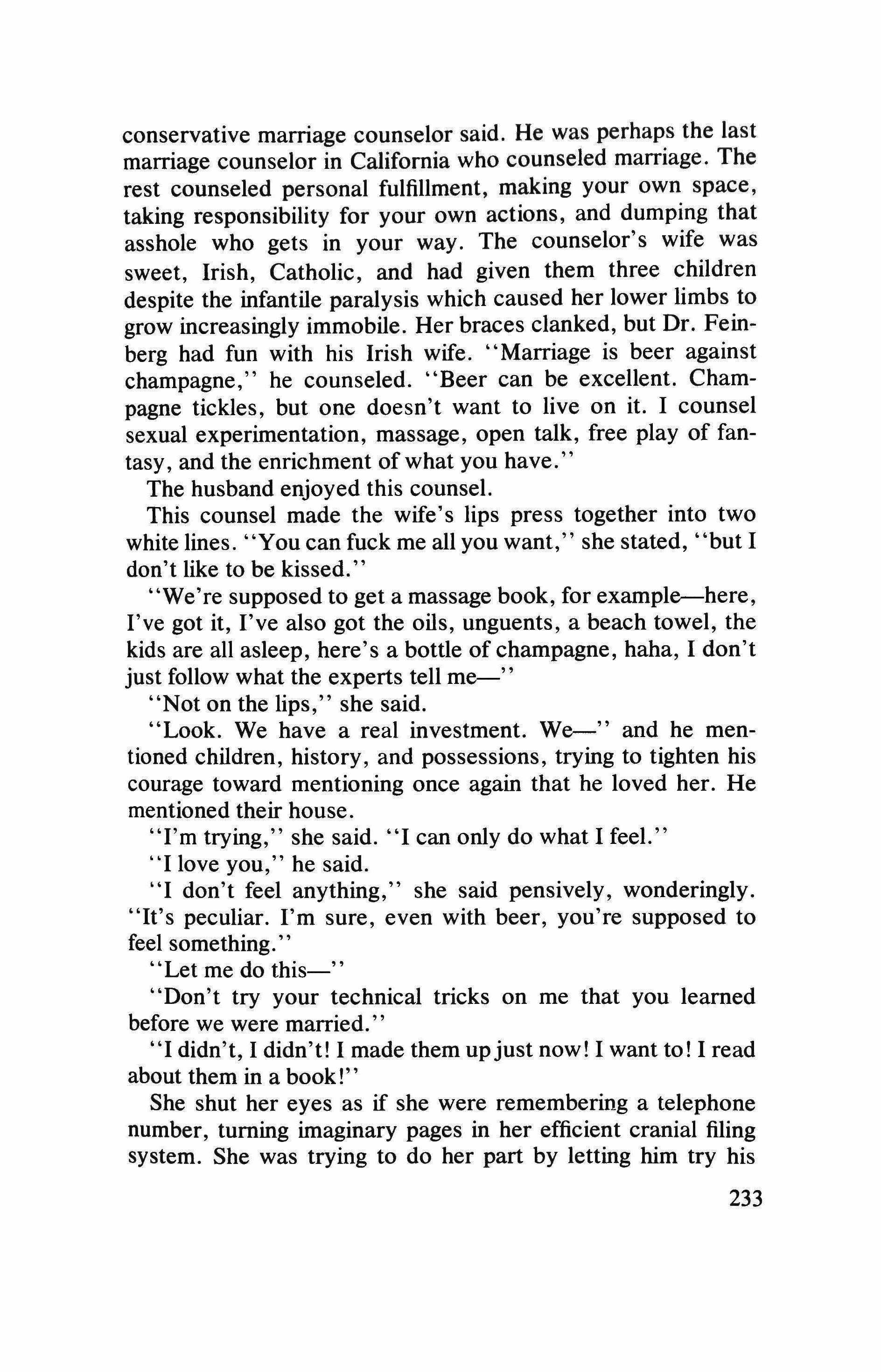
conservative marriage counselor said. He was perhaps the last marriage counselor in California who counseled marriage. The rest counseled personal fulfillment, making your own space, taking responsibility for your own actions, and dumping that asshole who gets in your way. The counselor's wife was sweet, Irish, Catholic, and had given them three children despite the infantile paralysis which caused her lower limbs to grow increasingly immobile. Her braces clanked, but Dr. Feinberg had fun with his Irish wife. "Marriage is beer against champagne," he counseled. "Beer can be excellent. Champagne tickles, but one doesn't want to live on it. I counsel sexual experimentation, massage, open talk, free play of fantasy, and the enrichment of what you have."
The husband enjoyed this counsel.
This counsel made the wife's lips press together into two white lines. "You can fuck me all you want," she stated, "but I don't like to be kissed."
"We're supposed to get a massage book, for example-here, I've got it, I've also got the oils, unguents, a beach towel, the kids are all asleep, here's a bottle of champagne, haha, I don't just follow what the experts tell me-"
"Not on the lips," she said.
"Look. We have a real investment. We-" and he mentioned children, history, and possessions, trying to tighten his courage toward mentioning once again that he loved her. He mentioned their house.
"I'm trying," she said. "I can only do what I feel." I love you," he said.
"I don't feel anything," she said pensively, wonderingly. "It's peculiar. I'm sure, even with beer, you're supposed to feel something.
"Let me do this-"
"Don't try your technical tricks on me that you learned before we were married.
"I didn't, I didn't! I made them upjust now! I want to! I read about them in a book!"
She shut her eyes as if she were remembering a telephone number, turning imaginary pages in her efficient cranial filing system. She was trying to do her part by letting him try his
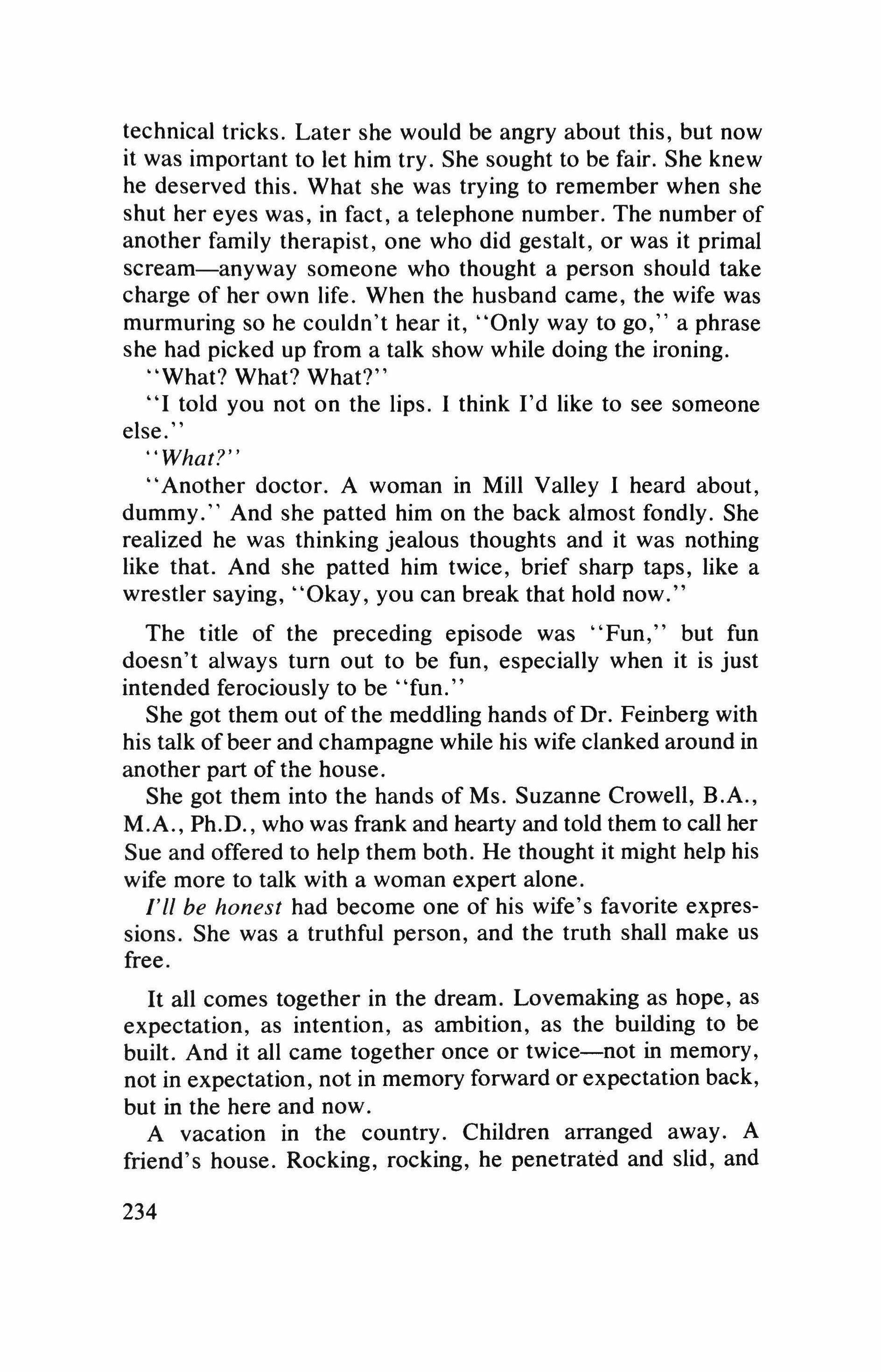
technical tricks. Later she would be angry about this, but now it was important to let him try. She sought to be fair. She knew he deserved this. What she was trying to remember when she shut her eyes was, in fact, a telephone number. The number of another family therapist, one who did gestalt, or was it primal scream-anyway someone who thought a person should take charge of her own life. When the husband came, the wife was murmuring so he couldn't hear it, "Only way to go," a phrase she had picked up from a talk show while doing the ironing.
"What? What? What?"
"I told you not on the lips. I think I'd like to see someone else. "
What?"
"Another doctor. A woman in Mill Valley I heard about, dummy. And she patted him on the back almost fondly. She realized he was thinking jealous thoughts and it was nothing like that. And she patted him twice, brief sharp taps, like a wrestler saying, "Okay, you can break that hold now."
The title of the preceding episode was "Fun," but fun doesn't always turn out to be fun, especially when it is just intended ferociously to be "fun."
She got them out of the meddling hands of Dr. Feinberg with his talk of beer and champagne while his wife clanked around in another part of the house.
She got them into the hands of Ms. Suzanne Crowell, B.A., M.A., Ph.D., who was frank and hearty and told them to call her Sue and offered to help them both. He thought it might help his wife more to talk with a woman expert alone.
I'll be honest had become one of his wife's favorite expressions. She was a truthful person, and the truth shall make us free.
It all comes together in the dream. Lovemaking as hope, as expectation, as intention, as ambition, as the building to be built. And it all came together once or twice-not in memory, not in expectation, not in memory forward or expectation back, but in the here and now.
A vacation in the country. Children arranged away. A friend's house. Rocking, rocking, he penetrated and slid, and
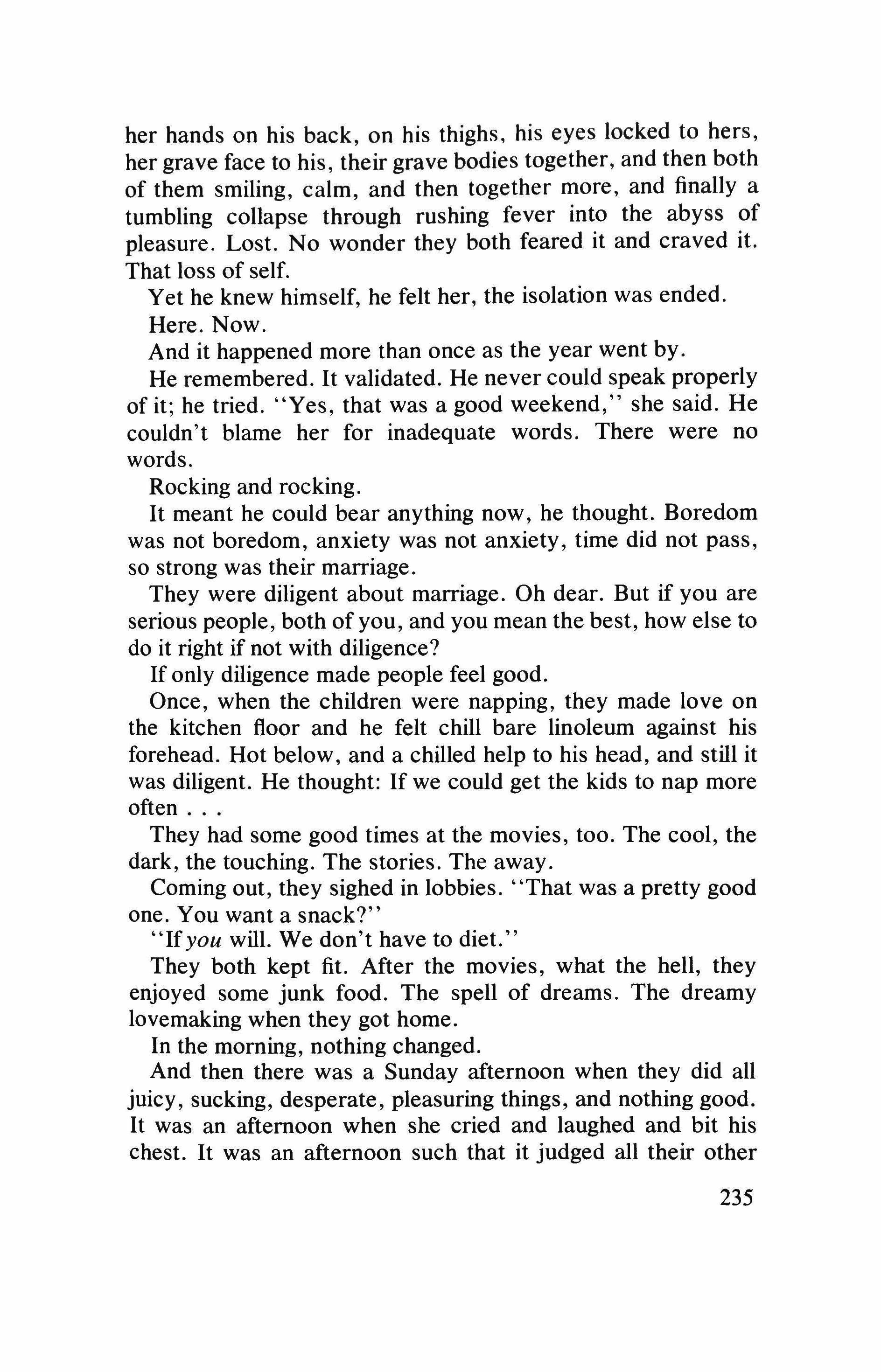
her hands on his back, on his thighs, his eyes locked to hers, her grave face to his, their grave bodies together, and then both of them smiling, calm, and then together more, and finally a tumbling collapse through rushing fever into the abyss of pleasure. Lost. No wonder they both feared it and craved it. That loss of self.
Yet he knew himself, he felt her, the isolation was ended. Here. Now.
And it happened more than once as the year went by. He remembered. It validated. He never could speak properly of it; he tried. "Yes, that was a good weekend," she said. He couldn't blame her for inadequate words. There were no words.
Rocking and rocking.
It meant he could bear anything now, he thought. Boredom was not boredom, anxiety was not anxiety, time did not pass, so strong was their marriage.
They were diligent about marriage. Oh dear. But if you are serious people, both of you, and you mean the best, how else to do it right if not with diligence?
If only diligence made people feel good.
Once, when the children were napping, they made love on the kitchen floor and he felt chill bare linoleum against his forehead. Hot below, and a chilled help to his head, and still it was diligent. He thought: If we could get the kids to nap more often
They had some good times at the movies, too. The cool, the dark, the touching. The stories. The away.
Coming out, they sighed in lobbies. "That was a pretty good one. You want a snack?"
"Ifyou will. We don't have to diet."
They both kept fit. After the movies, what the hell, they enjoyed some junk food. The spell of dreams. The dreamy lovemaking when they got home.
In the morning, nothing changed.
And then there was a Sunday afternoon when they did all juicy, sucking, desperate, pleasuring things, and nothing good. It was an afternoon when she cried and laughed and bit his chest. It was an afternoon such that it judged all their other
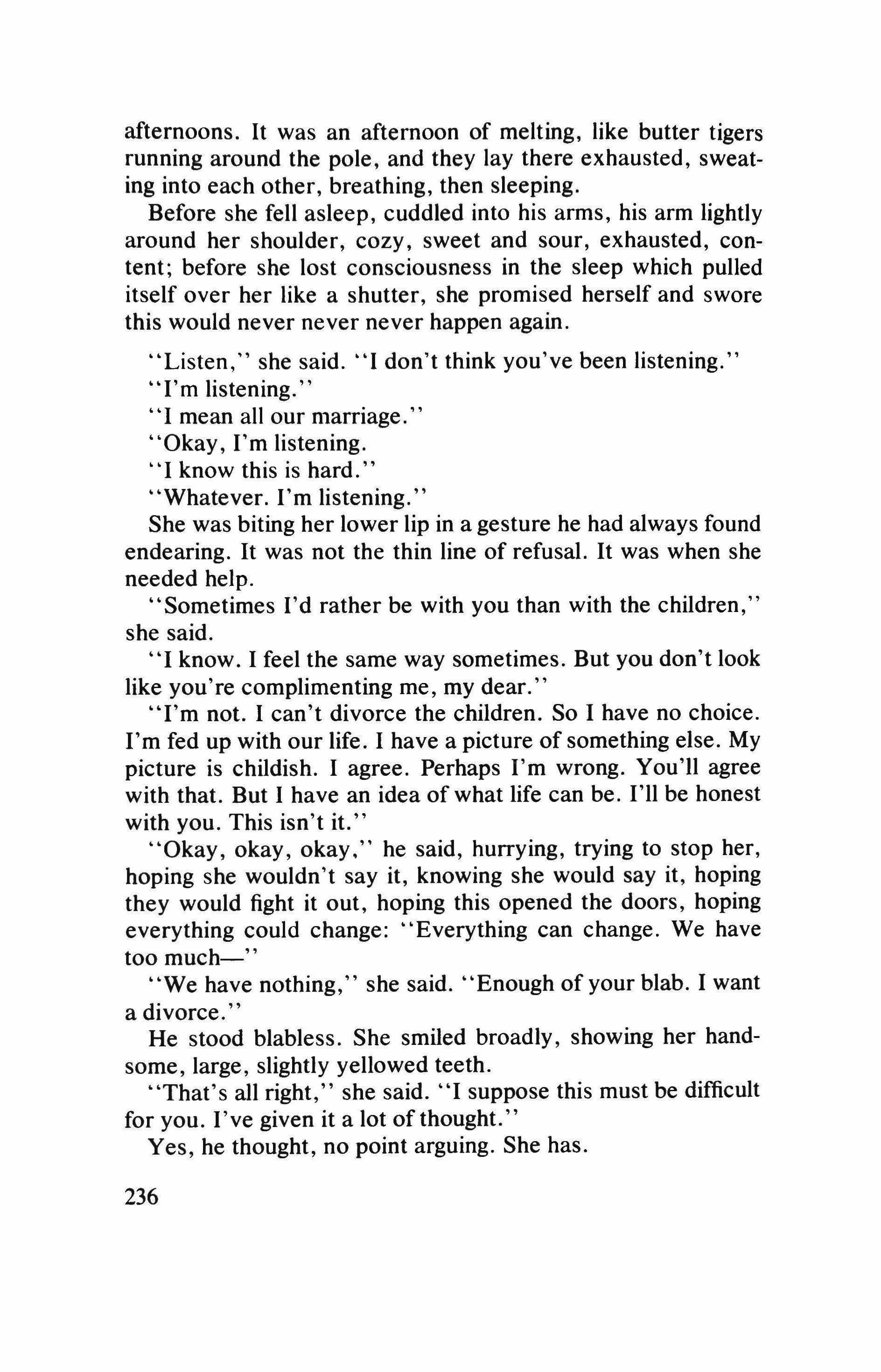
afternoons. It was an afternoon of melting, like butter tigers running around the pole, and they lay there exhausted, sweating into each other, breathing, then sleeping.
Before she fell asleep, cuddled into his arms, his arm lightly around her shoulder, cozy, sweet and sour, exhausted, content; before she lost consciousness in the sleep which pulled itself over her like a shutter, she promised herself and swore this would never never never happen again.
"Listen," she said. "I don't think you've been listening."
''I'm listening."
"I mean all our marriage.
"Okay, I'm listening.
'I know this is hard.
"Whatever. I'm listening."
She was biting her lower lip in a gesture he had always found endearing. It was not the thin line of refusal. It was when she needed help.
"Sometimes I'd rather be with you than with the children," she said.
"I know. I feel the same way sometimes. But you don't look like you're complimenting me, my dear."
"I'm not. I can't divorce the children. So I have no choice. I'm fed up with our life. I have a picture of something else. My picture is childish. I agree. Perhaps I'm wrong. You'll agree with that. But I have an idea of what life can be. I'll be honest with you. This isn't it."
"Okay, okay, okay." he said, hurrying, trying to stop her, hoping she wouldn't say it, knowing she would say it, hoping they would fight it out, hoping this opened the doors, hoping everything could change: "Everything can change. We have too much-"
"We have nothing," she said. "Enough of your blab. I want a divorce."
He stood blabless. She smiled broadly, showing her handsome, large, slightly yellowed teeth.
"That's all right," she said. "I suppose this must be difficult for you. I've given it a lot of thought."
Yes, he thought, no point arguing. She has.
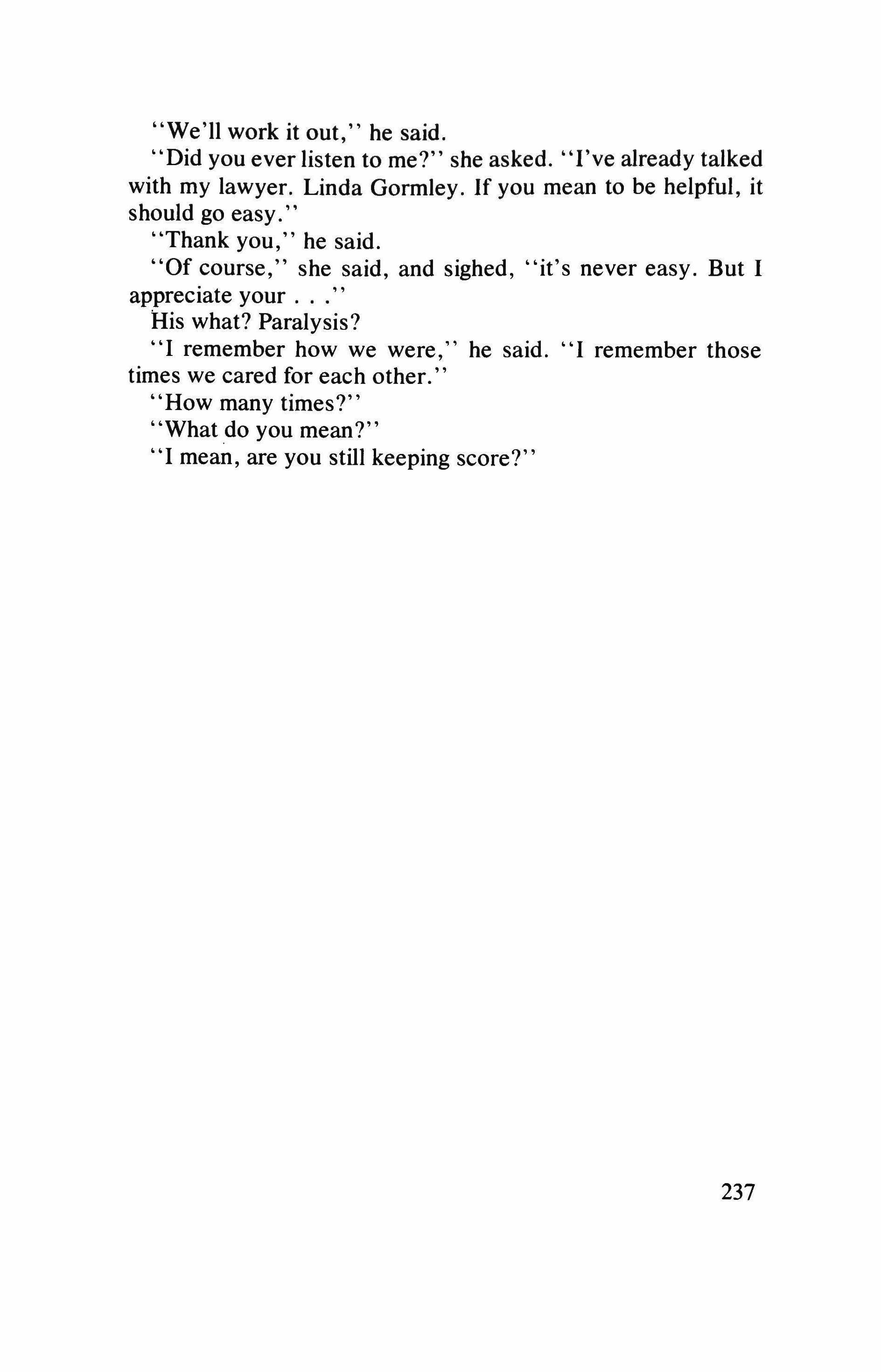
"We'll work it out," he said.
"Did you ever listen to me?" she asked. "I've already talked with my lawyer. Linda Gormley. If you mean to be helpful, it should go easy.
"Thank you," he said.
"Of course," she said, and sighed, "it's never easy. But I appreciate your ." His what? Paralysis?
"I remember how we were," he said. "I remember those times we cared for each other.
"How many times?"
"What do you mean?"
"I mean, are you still keeping score?"
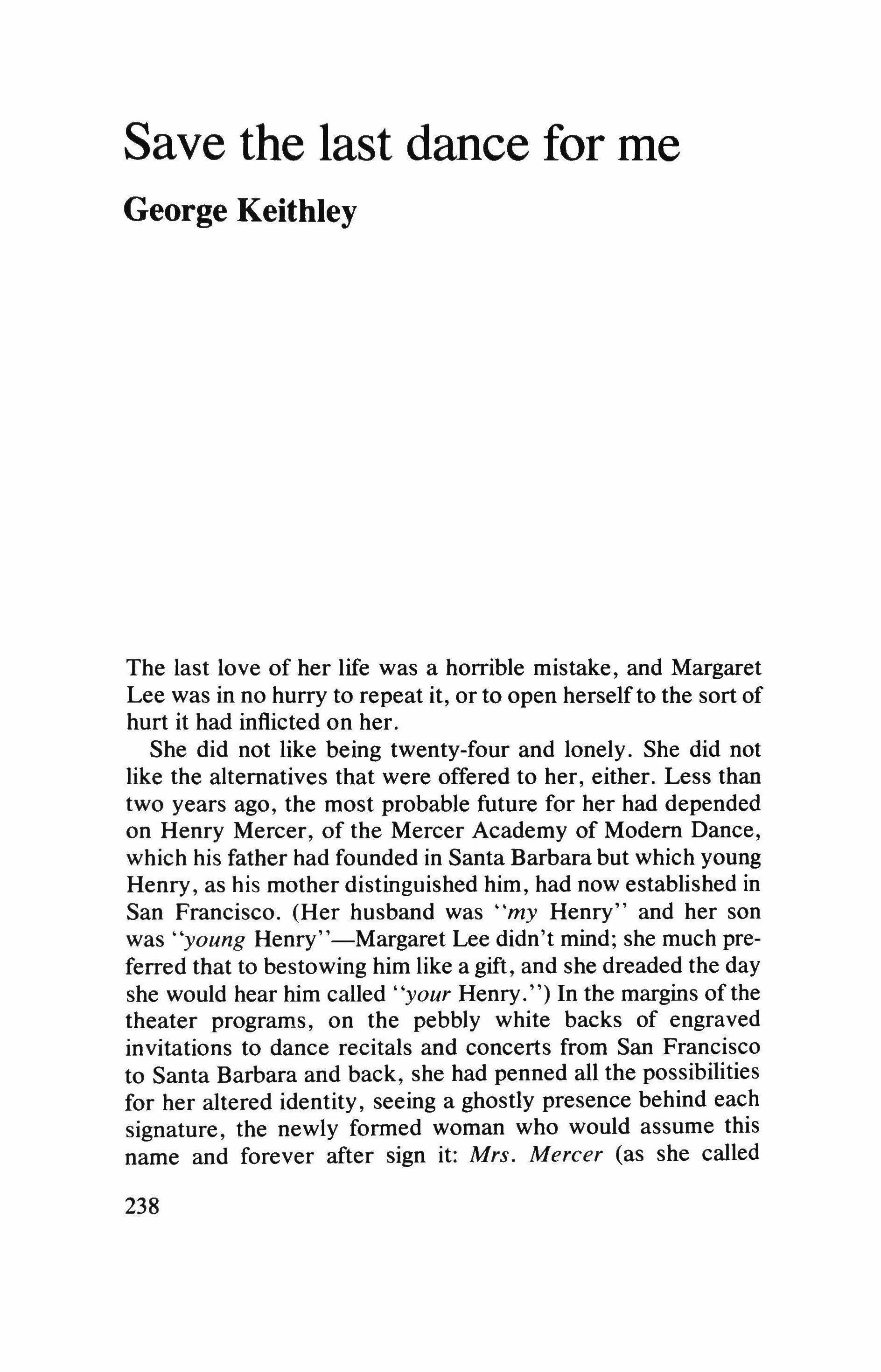
The last love of her life was a horrible mistake, and Margaret Lee was in no hurry to repeat it, or to open herself to the sort of hurt it had inflicted on her.
She did not like being twenty-four and lonely. She did not like the alternatives that were offered to her, either. Less than two years ago, the most probable future for her had depended on Henry Mercer, of the Mercer Academy of Modern Dance, which his father had founded in Santa Barbara but which young Henry, as his mother distinguished him, had now established in San Francisco. (Her husband was "my Henry" and her son was "young Henry"-Margaret Lee didn't mind; she much preferred that to bestowing him like a gift, and she dreaded the day she would hear him called "your Henry.") In the margins ofthe theater programs, on the pebbly white backs of engraved invitations to dance recitals and concerts from San Francisco to Santa Barbara and back, she had penned all the possibilities for her altered identity, seeing a ghostly presence behind each signature, the newly formed woman who would assume this name and forever after sign it: Mrs. Mercer (as she called
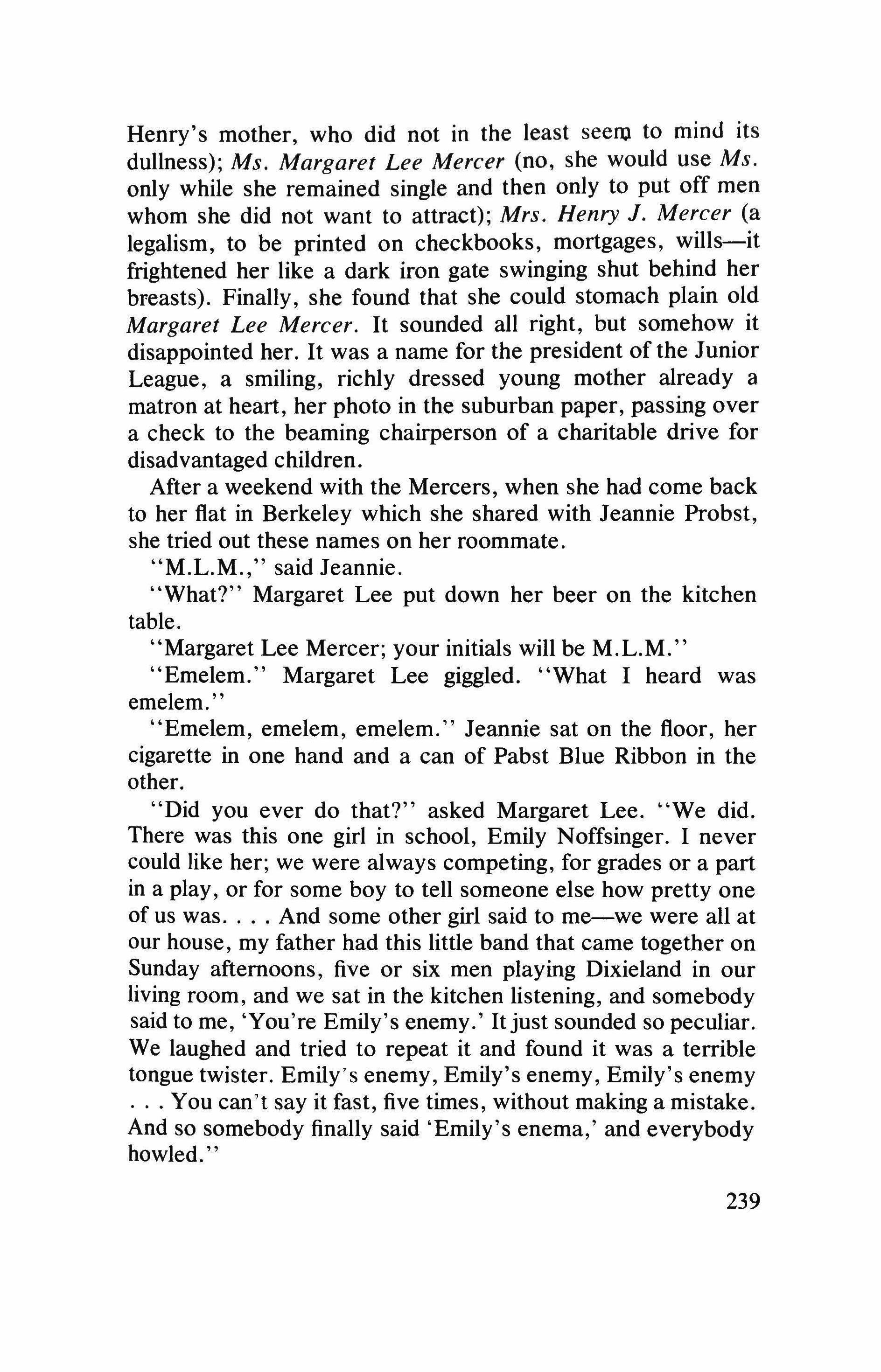
Henry's mother, who did not in the least seem to mind its dullness); Ms. Margaret Lee Mercer (no, she would use Ms. only while she remained single and then only to put off men whom she did not want to attract); Mrs. Henry J. Mercer (a legalism, to be printed on checkbooks, mortgages, wills-it frightened her like a dark iron gate swinging shut behind her breasts). Finally, she found that she could stomach plain old Margaret Lee Mercer. It sounded all right, but somehow it disappointed her. It was a name for the president of the Junior League, a smiling, richly dressed young mother already a matron at heart, her photo in the suburban paper, passing over a check to the beaming chairperson of a charitable drive for disadvantaged children.
After a weekend with the Mercers, when she had come back to her flat in Berkeley which she shared with Jeannie Probst, she tried out these names on her roommate.
"M.L.M.," said Jeannie.
"What?" Margaret Lee put down her beer on the kitchen table.
"Margaret Lee Mercer; your initials will be M.L.M." "Emelem." Margaret Lee giggled. "What I heard was emelem."
"Emelem, emelem, emelem." Jeannie sat on the floor, her cigarette in one hand and a can of Pabst Blue Ribbon in the other.
"Did you ever do that?" asked Margaret Lee. "We did. There was this one girl in school, Emily Noffsinger. I never could like her; we were always competing, for grades or a part in a play, or for some boy to tell someone else how pretty one of us was And some other girl said to me-we were all at our house, my father had this little band that came together on Sunday afternoons, five or six men playing Dixieland in our living room, and we sat in the kitchen listening, and somebody said to me, 'You're Emily's enemy.' It just sounded so peculiar. We laughed and tried to repeat it and found it was a terrible tongue twister. Emily's enemy, Emily's enemy, Emily's enemy
You can't say it fast, five times, without making a mistake. And so somebody finally said 'Emily's enema,' and everybody howled.
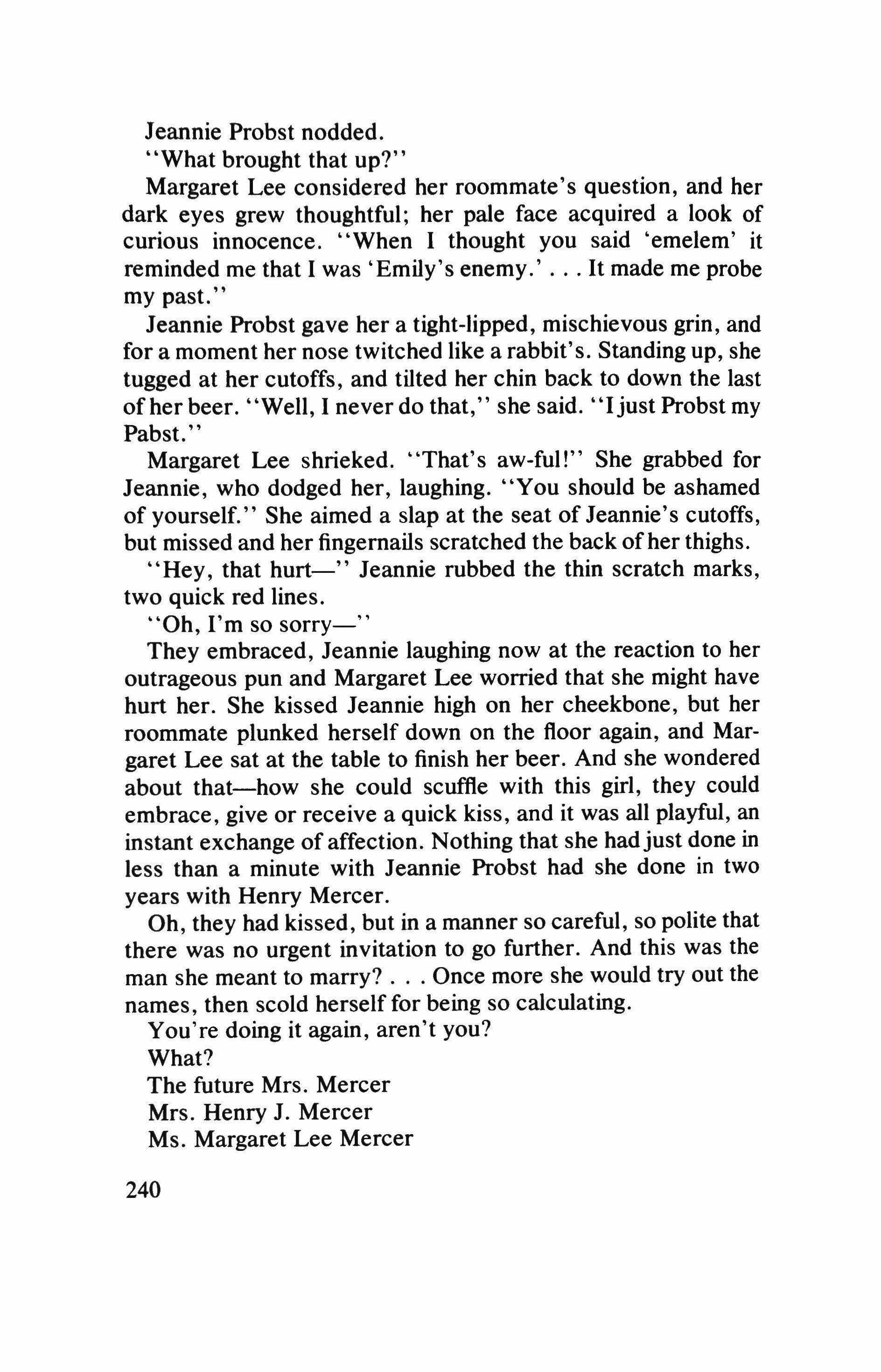
Jeannie Probst nodded.
"What brought that up?"
Margaret Lee considered her roommate's question, and her dark eyes grew thoughtful; her pale face acquired a look of curious innocence. "When I thought you said 'emelem' it reminded me that I was 'Emily's enemy.' It made me probe my past."
Jeannie Probst gave her a tight-lipped, mischievous grin, and for a moment her nose twitched like a rabbit's. Standing up, she tugged at her cutoffs, and tilted her chin back to down the last of her beer. "Well, I never do that," she said. "Ijust Probst my Pabst. "
Margaret Lee shrieked. "That's aw-ful!" She grabbed for Jeannie, who dodged her, laughing. "You should be ashamed of yourself." She aimed a slap at the seat of Jeannie's cutoffs, but missed and her fingernails scratched the back of her thighs.
"Hey, that hurt-" Jeannie rubbed the thin scratch marks, two quick red lines.
"Oh, I'm so sorry-"
They embraced, Jeannie laughing now at the reaction to her outrageous pun and Margaret Lee worried that she might have hurt her. She kissed Jeannie high on her cheekbone, but her roommate plunked herself down on the floor again, and Margaret Lee sat at the table to finish her beer. And she wondered about that-how she could scuffle with this girl, they could embrace, give or receive a quick kiss, and it was all playful, an instant exchange of affection. Nothing that she hadjust done in less than a minute with Jeannie Probst had she done in two years with Henry Mercer.
Oh, they had kissed, but in a manner so careful, so polite that there was no urgent invitation to go further. And this was the man she meant to marry? Once more she would try out the names, then scold herself for being so calculating.
You're doing it again, aren't you?
What?
The future Mrs. Mercer
Mrs. Henry J. Mercer
Ms. Margaret Lee Mercer
240
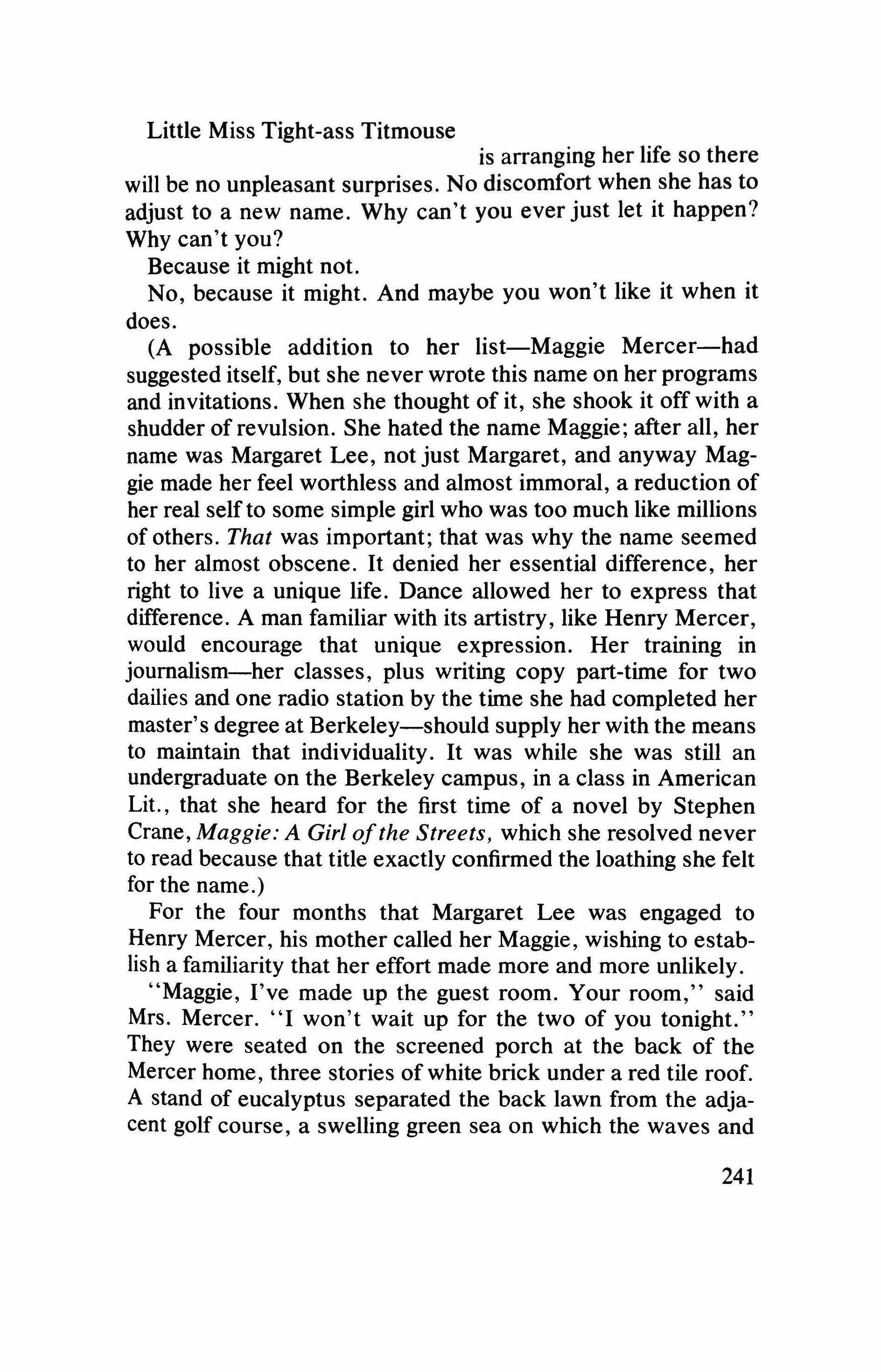
Little Miss Tight-ass Titmouse is arranging her life so there will be no unpleasant surprises. No discomfort when she has to adjust to a new name. Why can't you ever just let it happen? Why can't you?
Because it might not.
No, because it might. And maybe you won't like it when it does.
(A possible addition to her list-Maggie Mercer-had suggested itself, but she never wrote this name on her programs and invitations. When she thought of it, she shook it off with a shudder of revulsion. She hated the name Maggie; after all, her name was Margaret Lee, not just Margaret, and anyway Maggie made her feel worthless and almost immoral, a reduction of her real self to some simple girl who was too much like millions of others. That was important; that was why the name seemed to her almost obscene. It denied her essential difference, her right to live a unique life. Dance allowed her to express that difference. A man familiar with its artistry, like Henry Mercer, would encourage that unique expression. Her training in journalism-her classes, plus writing copy part-time for two dailies and one radio station by the time she had completed her master's degree at Berkeley-should supply her with the means to maintain that individuality. It was while she was still an undergraduate on the Berkeley campus, in a class in American Lit., that she heard for the first time of a novel by Stephen Crane, Maggie: A Girl ofthe Streets, which she resolved never to read because that title exactly confirmed the loathing she felt for the name.)
For the four months that Margaret Lee was engaged to Henry Mercer, his mother called her Maggie, wishing to establish a familiarity that her effort made more and more unlikely. "Maggie, I've made up the guest room. Your room," said Mrs. Mercer. "I won't wait up for the two of you tonight." They were seated on the screened porch at the back of the Mercer home, three stories of white brick under a red tile roof. A stand of eucalyptus separated the back lawn from the adjacent golf course, a swelling green sea on which the waves and 241
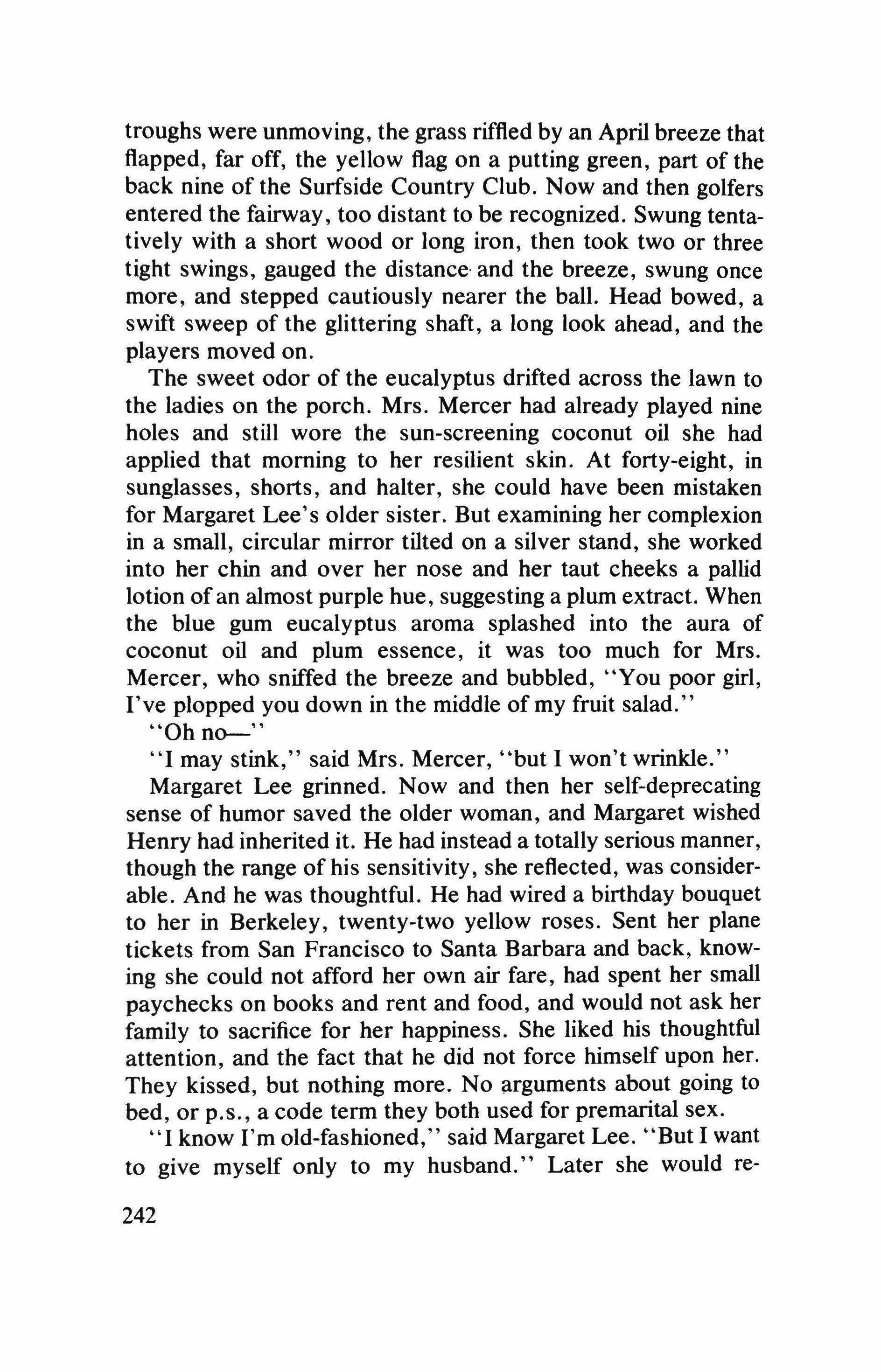
troughs were unmoving, the grass riffled by an April breeze that flapped, far off, the yellow flag on a putting green, part of the back nine of the Surfside Country Club. Now and then golfers entered the fairway, too distant to be recognized. Swung tentatively with a short wood or long iron, then took two or three tight swings, gauged the distance and the breeze, swung once more, and stepped cautiously nearer the ball. Head bowed, a swift sweep of the glittering shaft, a long look ahead, and the players moved on.
The sweet odor of the eucalyptus drifted across the lawn to the ladies on the porch. Mrs. Mercer had already played nine holes and still wore the sun-screening coconut oil she had applied that morning to her resilient skin. At forty-eight, in sunglasses, shorts, and halter, she could have been mistaken for Margaret Lee's older sister. But examining her complexion in a small, circular mirror tilted on a silver stand, she worked into her chin and over her nose and her taut cheeks a pallid lotion of an almost purple hue, suggesting a plum extract. When the blue gum eucalyptus aroma splashed into the aura of coconut oil and plum essence, it was too much for Mrs. Mercer, who sniffed the breeze and bubbled, "You poor girl, I've plopped you down in the middle of my fruit salad. "
"Ohno-"
"I may stink," said Mrs. Mercer, "but I won't wrinkle."
Margaret Lee grinned. Now and then her self-deprecating sense of humor saved the older woman, and Margaret wished Henry had inherited it. He had instead a totally serious manner, though the range of his sensitivity, she reflected, was considerable. And he was thoughtful. He had wired a birthday bouquet to her in Berkeley, twenty-two yellow roses. Sent her plane tickets from San Francisco to Santa Barbara and back, knowing she could not afford her own air fare, had spent her small paychecks on books and rent and food, and would not ask her family to sacrifice for her happiness. She liked his thoughtful attention, and the fact that he did not force himself upon her. They kissed, but nothing more. No arguments about going to bed, or p.s., a code term they both used for premarital sex.
"I know I'm old-fashioned," said Margaret Lee. "But I want to give myself only to my husband." Later she would re-
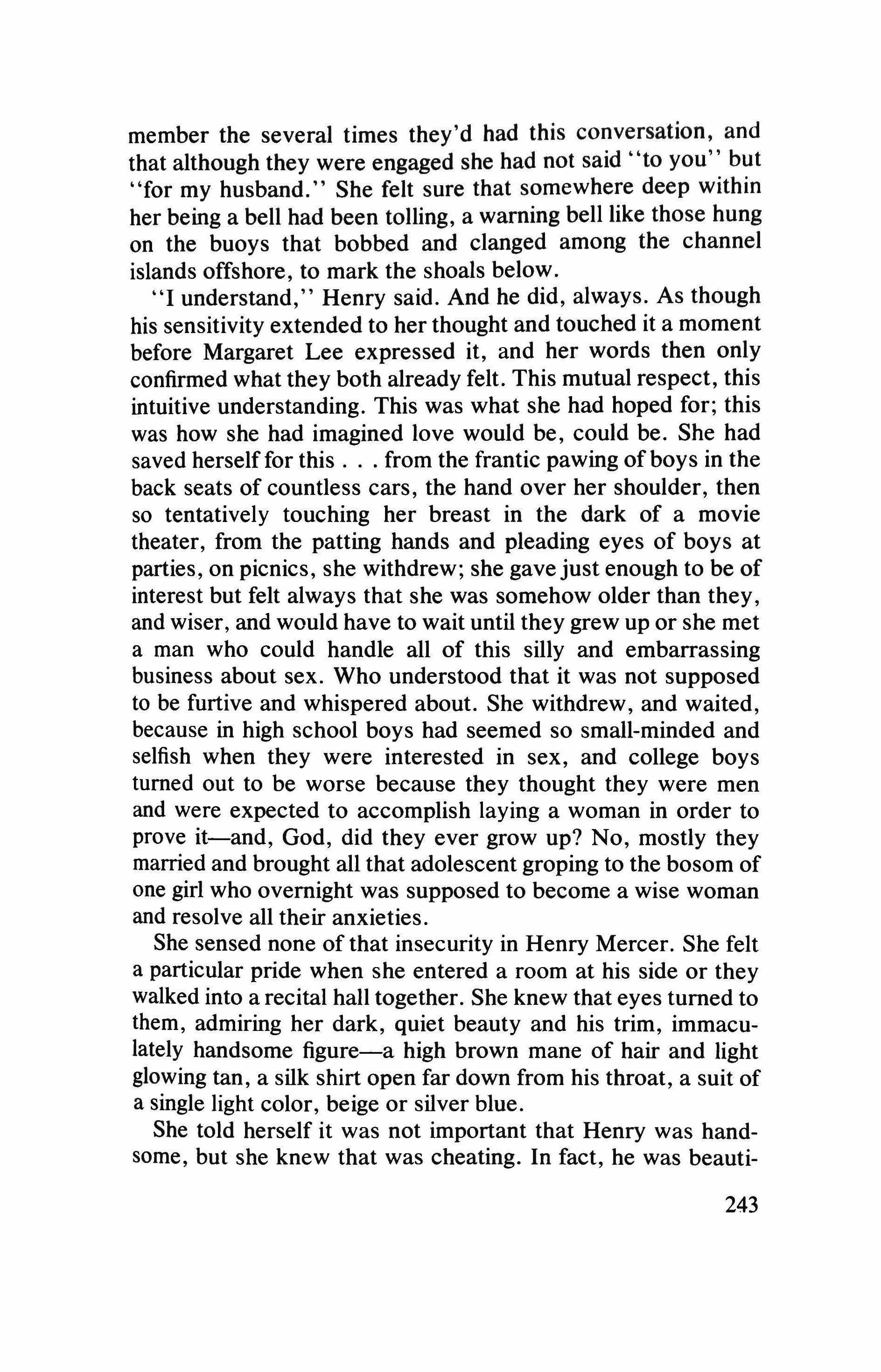
member the several times they'd had this conversation, and that although they were engaged she had not said "to you" but "for my husband." She felt sure that somewhere deep within her being a bell had been tolling, a warning bell like those hung on the buoys that bobbed and clanged among the channel islands offshore, to mark the shoals below.
"I understand," Henry said. And he did, always. As though his sensitivity extended to her thought and touched it a moment before Margaret Lee expressed it, and her words then only confirmed what they both already felt. This mutual respect, this intuitive understanding. This was what she had hoped for; this was how she had imagined love would be, could be. She had saved herself for this from the frantic pawing of boys in the back seats of countless cars, the hand over her shoulder, then so tentatively touching her breast in the dark of a movie theater, from the patting hands and pleading eyes of boys at parties, on picnics, she withdrew; she gave just enough to be of interest but felt always that she was somehow older than they, and wiser, and would have to wait until they grew up or she met a man who could handle all of this silly and embarrassing business about sex. Who understood that it was not supposed to be furtive and whispered about. She withdrew, and waited, because in high school boys had seemed so small-minded and selfish when they were interested in sex, and college boys turned out to be worse because they thought they were men and were expected to accomplish laying a woman in order to prove it-and, God, did they ever grow up? No, mostly they married and brought all that adolescent groping to the bosom of one girl who overnight was supposed to become a wise woman and resolve all their anxieties.
She sensed none of that insecurity in Henry Mercer. She felt a particular pride when she entered a room at his side or they walked into a recital hall together. She knew that eyes turned to them, admiring her dark, quiet beauty and his trim, immaculately handsome figure-a high brown mane of hair and light glowing tan, a silk shirt open far down from his throat, a suit of a single light color, beige or silver blue.
She told herself it was not important that Henry was handsome, but she knew that was cheating. In fact, he was beauti-
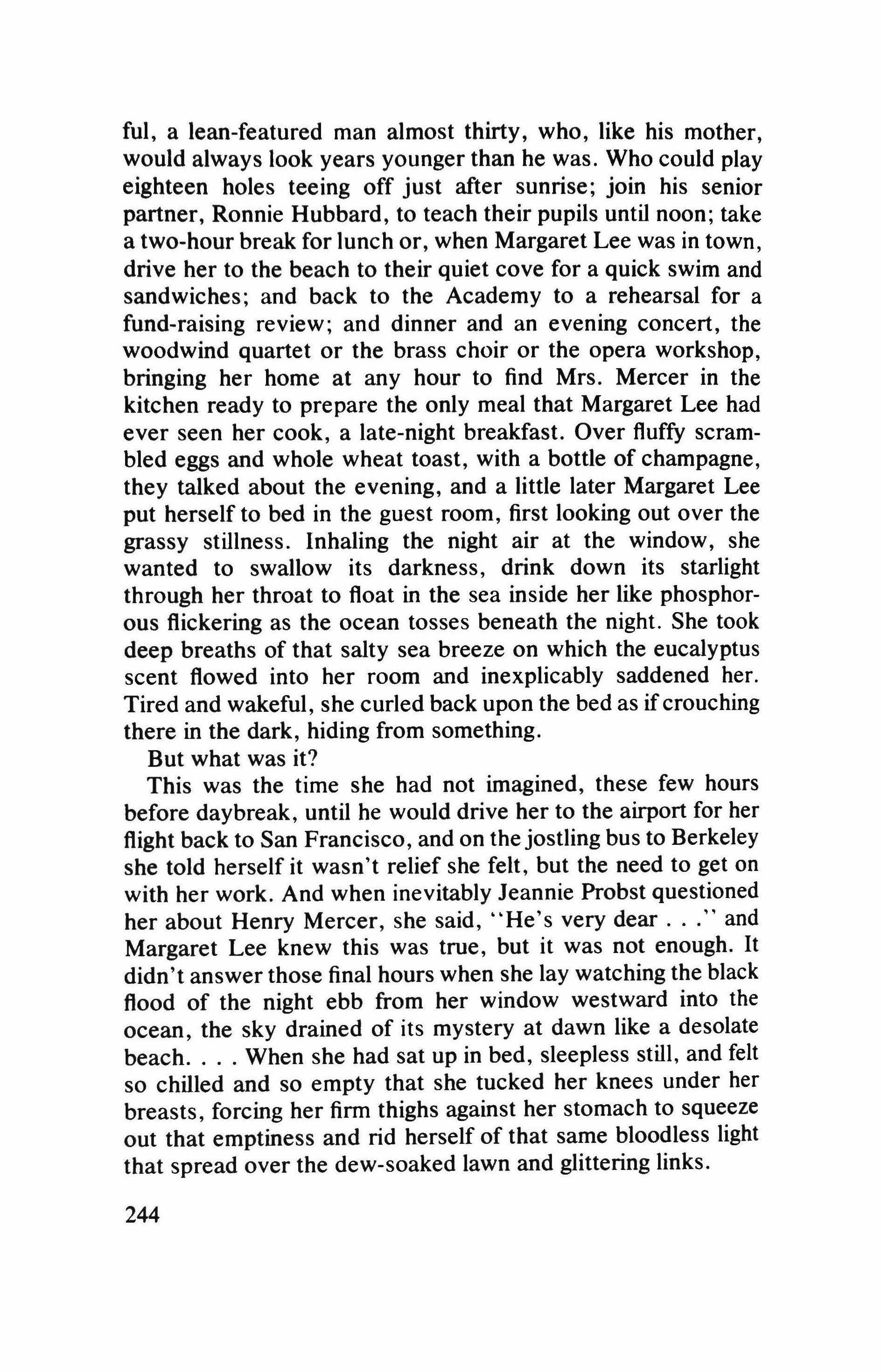
ful, a lean-featured man almost thirty, who, like his mother, would always look years younger than he was. Who could play eighteen holes teeing off just after sunrise; join his senior partner, Ronnie Hubbard, to teach their pupils until noon; take a two-hour break for lunch or, when Margaret Lee was in town, drive her to the beach to their quiet cove for a quick swim and sandwiches; and back to the Academy to a rehearsal for a fund-raising review; and dinner and an evening concert, the woodwind quartet or the brass choir or the opera workshop, bringing her home at any hour to find Mrs. Mercer in the kitchen ready to prepare the only meal that Margaret Lee had ever seen her cook, a late-night breakfast. Over fluffy scrambled eggs and whole wheat toast, with a bottle of champagne, they talked about the evening, and a little later Margaret Lee put herself to bed in the guest room, first looking out over the grassy stillness. Inhaling the night air at the window, she wanted to swallow its darkness, drink down its starlight through her throat to float in the sea inside her like phosphorous flickering as the ocean tosses beneath the night. She took deep breaths of that salty sea breeze on which the eucalyptus scent flowed into her room and inexplicably saddened her. Tired and wakeful, she curled back upon the bed as ifcrouching there in the dark, hiding from something.
But what was it?
This was the time she had not imagined, these few hours before daybreak, until he would drive her to the airport for her flight back to San Francisco, and on the jostling bus to Berkeley she told herself it wasn't relief she felt, but the need to get on with her work. And when inevitably Jeannie Probst questioned her about Henry Mercer, she said, "He's very dear and Margaret Lee knew this was true, but it was not enough. It didn't answer those final hours when she lay watching the black flood of the night ebb from her window westward into the ocean, the sky drained of its mystery at dawn like a desolate beach When she had sat up in bed, sleepless still, and felt so chilled and so empty that she tucked her knees under her breasts, forcing her firm thighs against her stomach to squeeze out that emptiness and rid herself of that same bloodless light that spread over the dew-soaked lawn and glittering links.
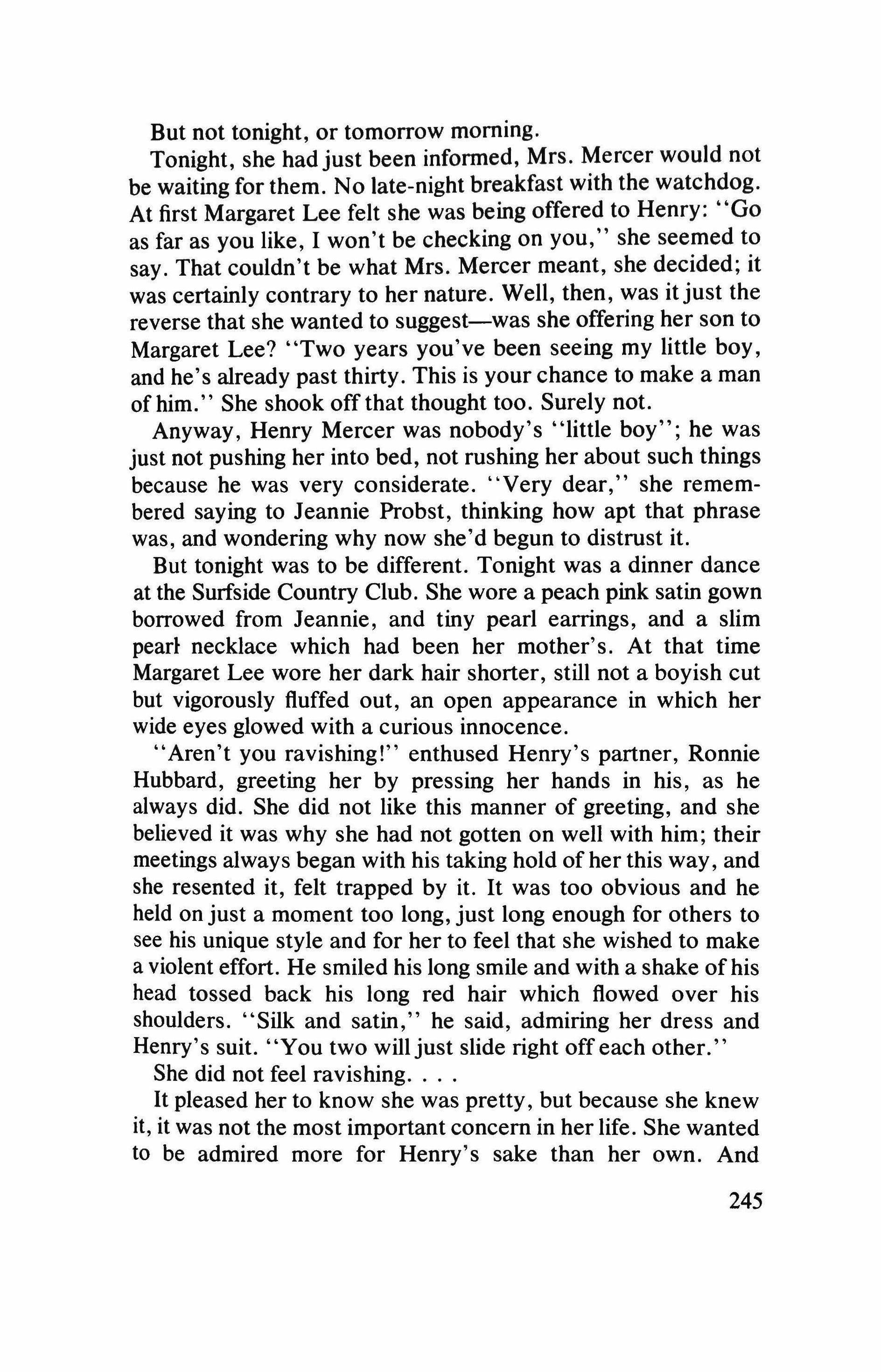
But not tonight, or tomorrow morning.
Tonight, she had just been informed, Mrs. Mercer would not be waiting for them. No late-night breakfast with the watchdog. At first Margaret Lee felt she was being offered to Henry: "Go as far as you like, I won't be checking on you," she seemed to say. That couldn't be what Mrs. Mercer meant, she decided; it was certainly contrary to her nature. Well, then, was it just the reverse that she wanted to suggest-was she offering her son to Margaret Lee? "Two years you've been seeing my little boy, and he's already past thirty. This is your chance to make a man of him." She shook offthat thought too. Surely not.
Anyway, Henry Mercer was nobody's "little boy"; he was just not pushing her into bed, not rushing her about such things because he was very considerate. "Very dear," she remembered saying to Jeannie Probst, thinking how apt that phrase was, and wondering why now she'd begun to distrust it.
But tonight was to be different. Tonight was a dinner dance at the Surfside Country Club. She wore a peach pink satin gown borrowed from Jeannie, and tiny pearl earrings, and a slim pearl necklace which had been her mother's. At that time Margaret Lee wore her dark hair shorter, still not a boyish cut but vigorously fluffed out, an open appearance in which her wide eyes glowed with a curious innocence.
"Aren't you ravishing!" enthused Henry's partner, Ronnie Hubbard, greeting her by pressing her hands in his, as he always did. She did not like this manner of greeting, and she believed it was why she had not gotten on well with him; their meetings always began with his taking hold of her this way, and she resented it, felt trapped by it. It was too obvious and he held on just a moment too long, just long enough for others to see his unique style and for her to feel that she wished to make a violent effort. He smiled his long smile and with a shake of his head tossed back his long red hair which flowed over his shoulders. "Silk and satin," he said, admiring her dress and Henry's suit. "You two will just slide right off each other."
She did not feel ravishing
It pleased her to know she was pretty, but because she knew it, it was not the most important concern in her life. She wanted to be admired more for Henry's sake than her own. And
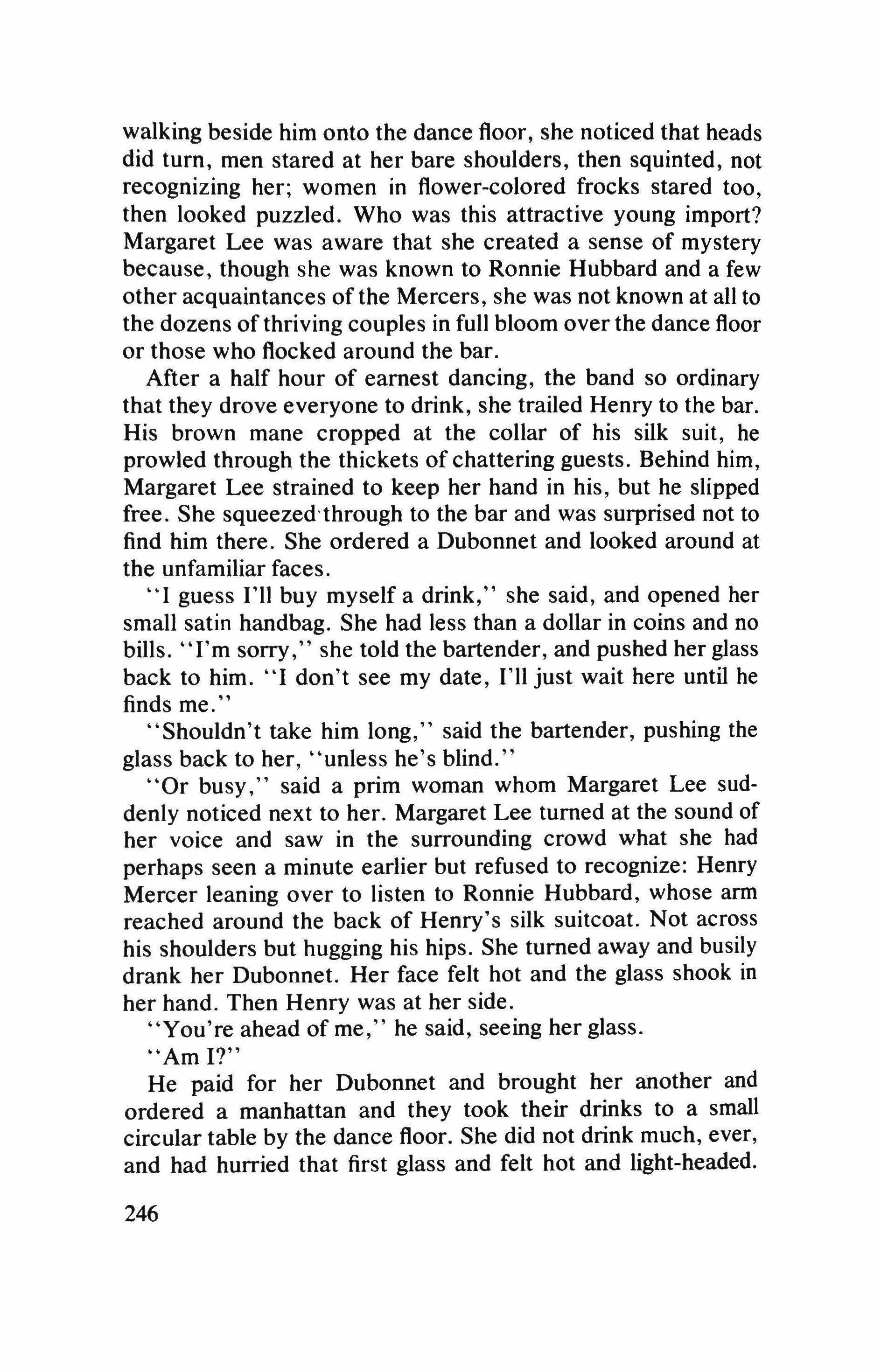
walking beside him onto the dance floor, she noticed that heads did turn, men stared at her bare shoulders, then squinted, not recognizing her; women in flower-colored frocks stared too, then looked puzzled. Who was this attractive young import? Margaret Lee was aware that she created a sense of mystery because, though she was known to Ronnie Hubbard and a few other acquaintances of the Mercers, she was not known at all to the dozens of thriving couples in full bloom over the dance floor or those who flocked around the bar.
After a half hour of earnest dancing, the band so ordinary that they drove everyone to drink, she trailed Henry to the bar. His brown mane cropped at the collar of his silk suit, he prowled through the thickets of chattering guests. Behind him, Margaret Lee strained to keep her hand in his, but he slipped free. She squeezedthrough to the bar and was surprised not to find him there. She ordered a Dubonnet and looked around at the unfamiliar faces.
"I guess I'll buy myself a drink," she said, and opened her small satin handbag. She had less than a dollar in coins and no bills. 'T m sorry," she told the bartender, and pushed her glass back to him. "I don't see my date, I'll just wait here until he finds me."
"Shouldn't take him long," said the bartender, pushing the glass back to her, "unless he's blind."
"Or busy," said a prim woman whom Margaret Lee suddenly noticed next to her. Margaret Lee turned at the sound of her voice and saw in the surrounding crowd what she had perhaps seen a minute earlier but refused to recognize: Henry Mercer leaning over to listen to Ronnie Hubbard, whose arm reached around the back of Henry's silk suitcoat. Not across his shoulders but hugging his hips. She turned away and busily drank her Dubonnet. Her face felt hot and the glass shook in her hand. Then Henry was at her side.
"You're ahead of me," he said, seeing her glass.
"Am I?"
He paid for her Dubonnet and brought her another and ordered a manhattan and they took their drinks to a small circular table by the dance floor. She did not drink much, ever, and had hurried that first glass and felt hot and light-headed.
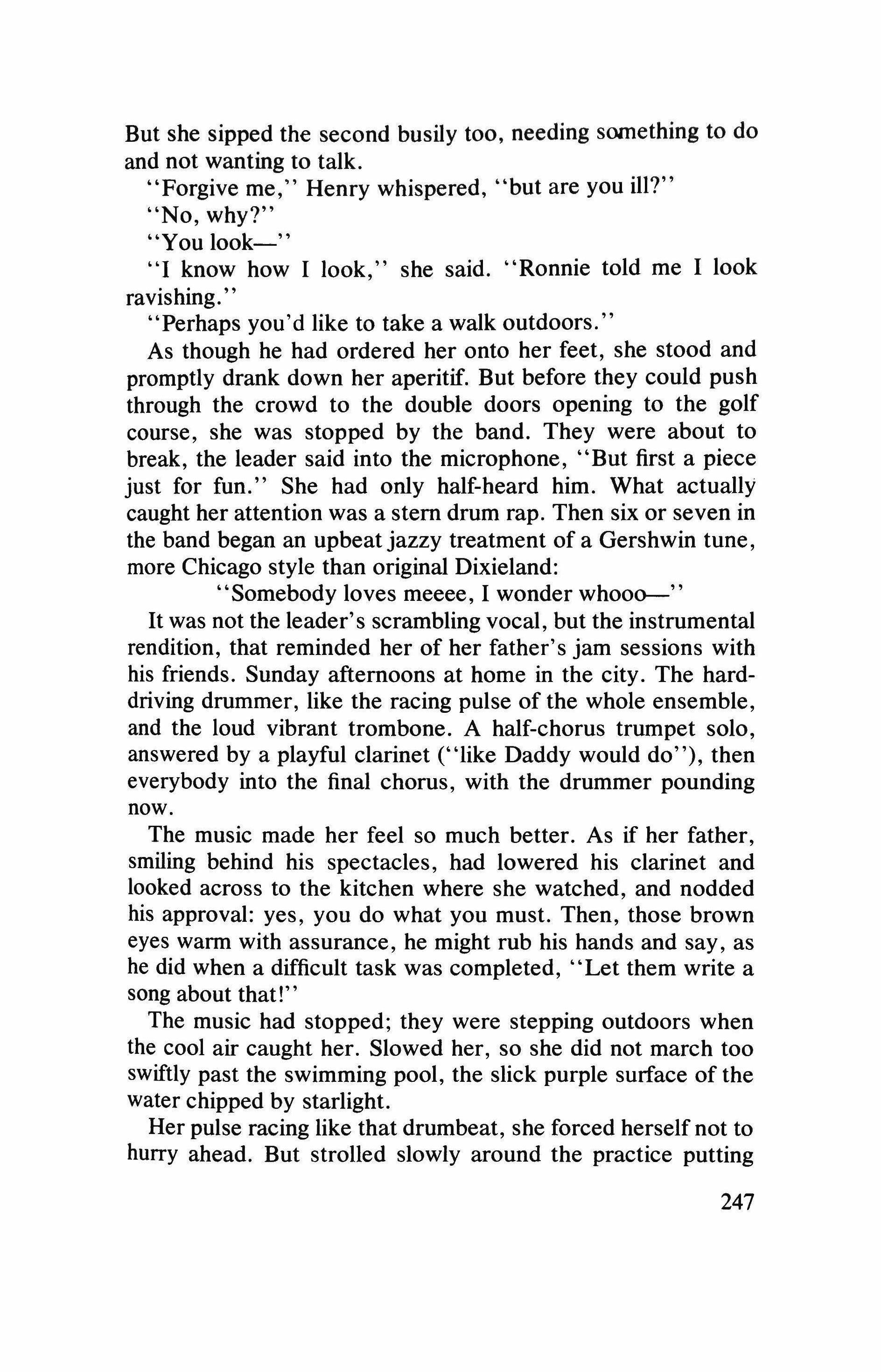
But she sipped the second busily too, needing something to do and not wanting to talk.
"Forgive me," Henry whispered, "but are you ill?"
"No, why?"
"You look-"
"I know how I look," she said. "Ronnie told me I look ravishing.
"Perhaps you'd like to take a walk outdoors."
As though he had ordered her onto her feet, she stood and promptly drank down her aperitif. But before they could push through the crowd to the double doors opening to the golf course, she was stopped by the band. They were about to break, the leader said into the microphone, "But first a piece just for fun." She had only half-heard him. What actually caught her attention was a stem drum rap. Then six or seven in the band began an upbeatjazzy treatment of a Gershwin tune, more Chicago style than original Dixieland:
"Somebody loves meeee, I wonder whooo--"
It was not the leader's scrambling vocal, but the instrumental rendition, that reminded her of her father's jam sessions with his friends. Sunday afternoons at home in the city. The harddriving drummer, like the racing pulse of the whole ensemble, and the loud vibrant trombone. A half-chorus trumpet solo, answered by a playful clarinet ("like Daddy would do"), then everybody into the final chorus, with the drummer pounding now.
The music made her feel so much better. As if her father, smiling behind his spectacles, had lowered his clarinet and looked across to the kitchen where she watched, and nodded his approval: yes, you do what you must. Then, those brown eyes warm with assurance, he might rub his hands and say, as he did when a difficult task was completed, "Let them write a song about that!"
The music had stopped; they were stepping outdoors when the cool air caught her. Slowed her, so she did not march too swiftly past the swimming pool, the slick purple surface of the water chipped by starlight.
Her pulse racing like that drumbeat, she forced herself not to hurry ahead. But strolled slowly around the practice putting
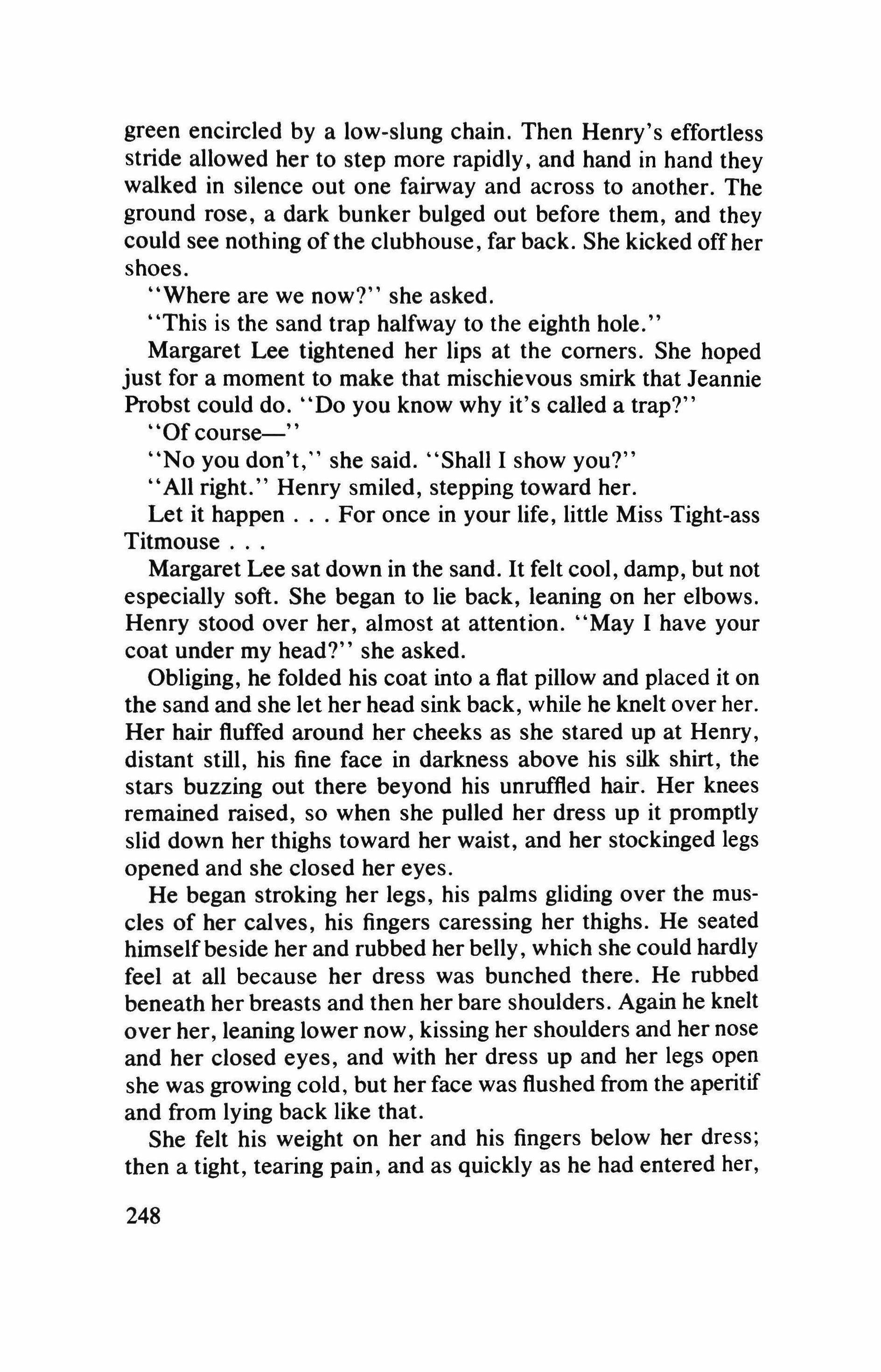
green encircled by a low-slung chain. Then Henry's effortless stride allowed her to step more rapidly. and hand in hand they walked in silence out one fairway and across to another. The ground rose, a dark bunker bulged out before them, and they could see nothing of the clubhouse, far back. She kicked offher shoes.
"Where are we now?" she asked.
"This is the sand trap halfway to the eighth hole."
Margaret Lee tightened her lips at the corners. She hoped just for a moment to make that mischievous smirk that Jeannie Probst could do. "Do you know why it's called a trap?"
"Of course-"
"No you don't," she said. "Shall I show you?"
"All right." Henry smiled, stepping toward her.
Let it happen For once in your life, little Miss Tight-ass Titmouse
Margaret Lee sat down in the sand. It felt cool, damp, but not especially soft. She began to lie back, leaning on her elbows. Henry stood over her, almost at attention. "May I have your coat under my head?" she asked.
Obliging, he folded his coat into a flat pillow and placed it on the sand and she let her head sink back, while he knelt over her. Her hair fluffed around her cheeks as she stared up at Henry, distant still, his fine face in darkness above his silk shirt, the stars buzzing out there beyond his unruffled hair. Her knees remained raised, so when she pulled her dress up it promptly slid down her thighs toward her waist, and her stockinged legs opened and she closed her eyes.
He began stroking her legs, his palms gliding over the muscles of her calves, his fingers caressing her thighs. He seated himselfbeside her and rubbed her belly, which she could hardly feel at all because her dress was bunched there. He rubbed beneath her breasts and then her bare shoulders. Again he knelt over her, leaning lower now, kissing her shoulders and her nose and her closed eyes, and with her dress up and her legs open she was growing cold, but her face was flushed from the aperitif and from lying back like that.
She felt his weight on her and his fingers below her dress; then a tight, tearing pain, and as quickly as he had entered her,
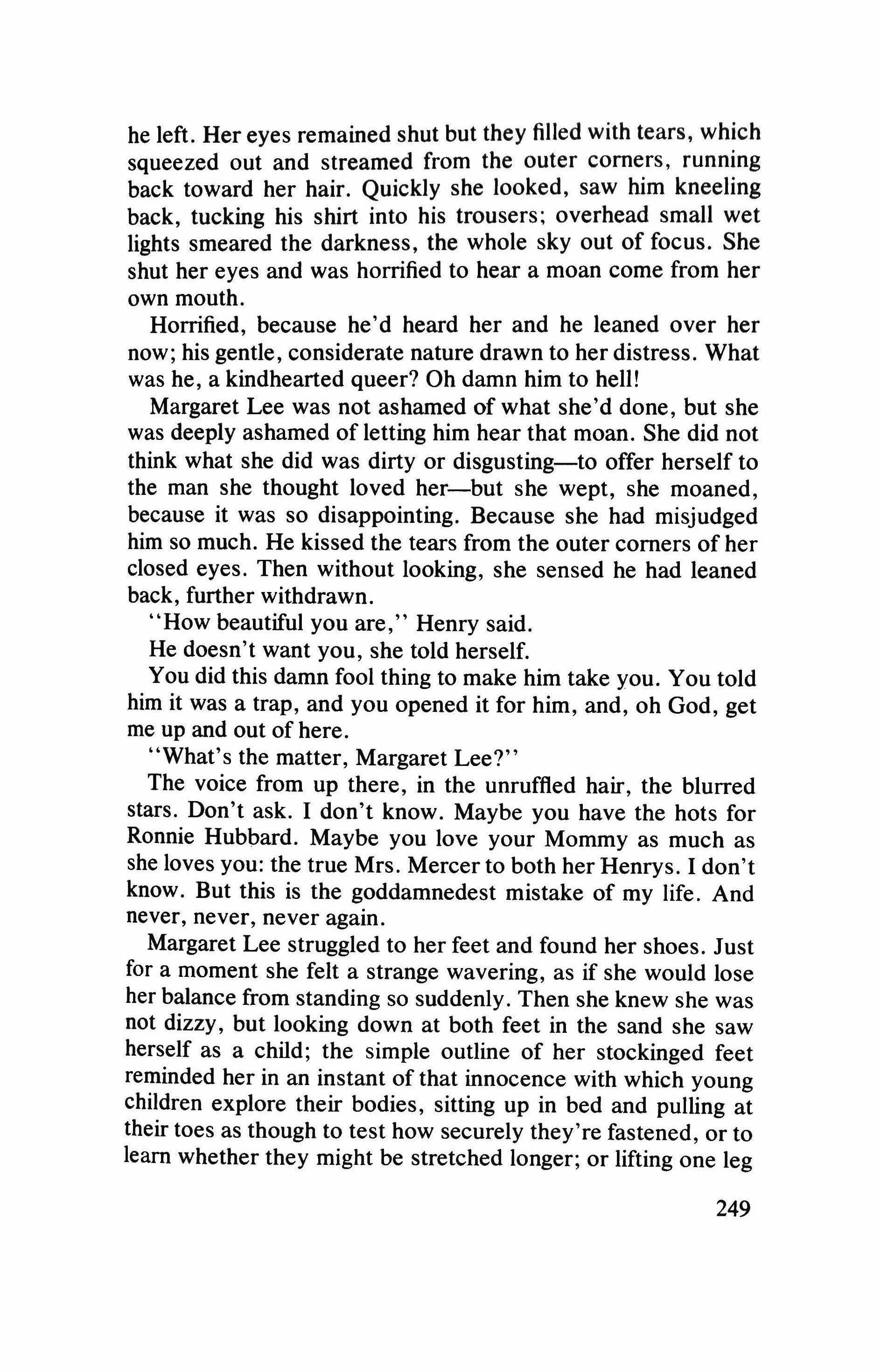
he left. Her eyes remained shut but they filled with tears, which squeezed out and streamed from the outer comers, running back toward her hair. Quickly she looked, saw him kneeling back, tucking his shirt into his trousers; overhead small wet lights smeared the darkness, the whole sky out of focus. She shut her eyes and was horrified to hear a moan come from her own mouth.
Horrified, because he'd heard her and he leaned over her now; his gentle, considerate nature drawn to her distress. What was he, a kindhearted queer? Oh damn him to hell!
Margaret Lee was not ashamed of what she'd done, but she was deeply ashamed of letting him hear that moan. She did not think what she did was dirty or disgusting-to offer herself to the man she thought loved her-but she wept, she moaned, because it was so disappointing. Because she had misjudged him so much. He kissed the tears from the outer comers of her closed eyes. Then without looking, she sensed he had leaned back, further withdrawn.
"How beautiful you are," Henry said. He doesn't want you, she told herself. You did this damn fool thing to make him take you. You told him it was a trap, and you opened it for him, and, oh God, get me up and out of here.
"What's the matter, Margaret Lee?"
The voice from up there, in the unruffled hair, the blurred stars. Don't ask. I don't know. Maybe you have the hots for Ronnie Hubbard. Maybe you love your Mommy as much as she loves you: the true Mrs. Mercer to both her Henrys. I don't know. But this is the goddamnedest mistake of my life. And never, never, never again.
Margaret Lee struggled to her feet and found her shoes. Just for a moment she felt a strange wavering, as if she would lose her balance from standing so suddenly. Then she knew she was not dizzy, but looking down at both feet in the sand she saw herself as a child; the simple outline of her stockinged feet reminded her in an instant of that innocence with which young children explore their bodies, sitting up in bed and pulling at their toes as though to test how securely they're fastened, or to learn whether they might be stretched longer; or lifting one leg
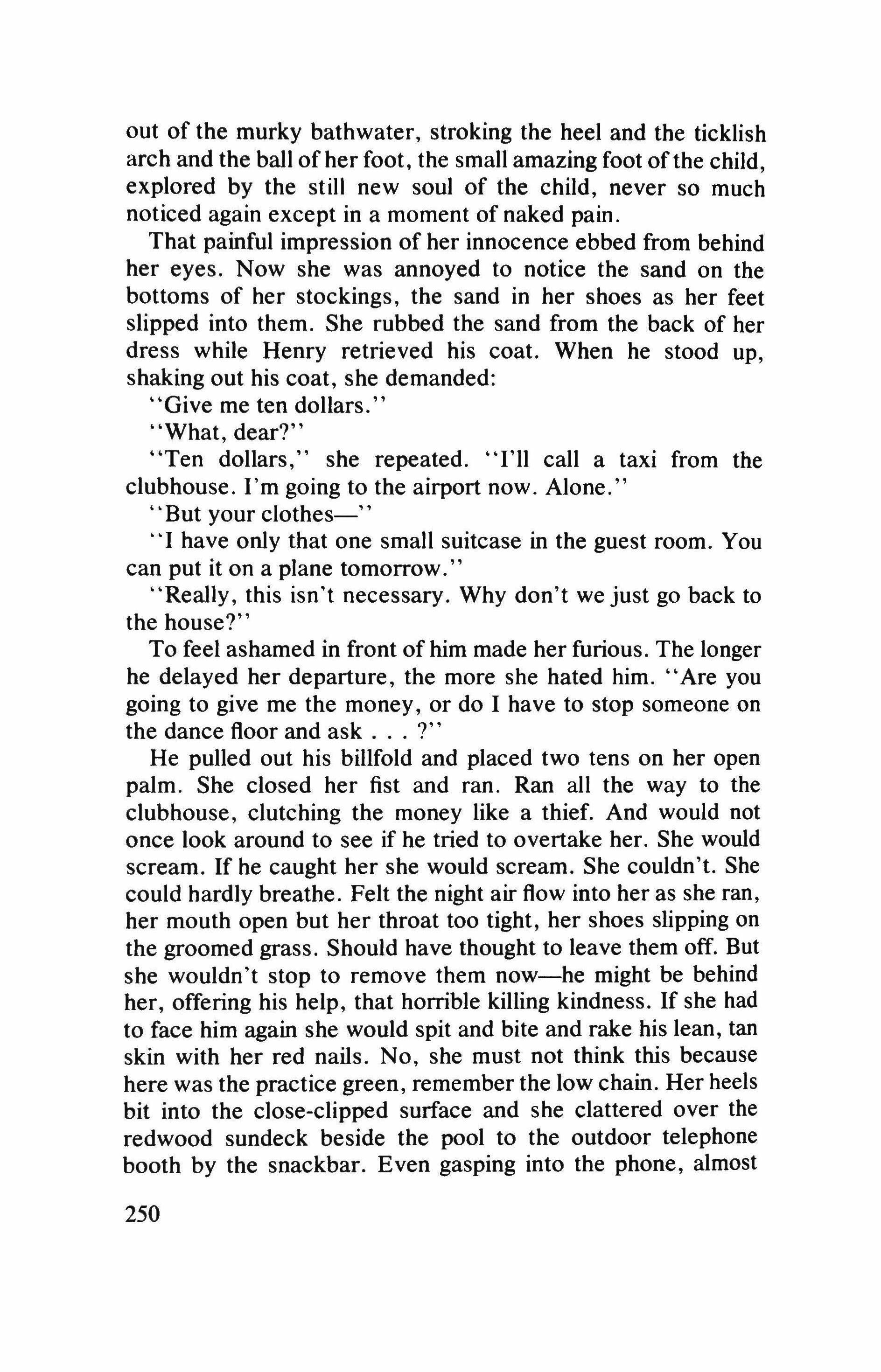
out of the murky bathwater stroking the heel and the ticklish arch and the ball of her foot, the small amazing foot ofthe child, explored by the still new soul of the child, never so much noticed again except in a moment of naked pain.
That painful impression of her innocence ebbed from behind her eyes. Now she was annoyed to notice the sand on the bottoms of her stockings, the sand in her shoes as her feet slipped into them. She rubbed the sand from the back of her dress while Henry retrieved his coat. When he stood up, shaking out his coat, she demanded:
"Give me ten dollars."
"What, dear?"
"Ten dollars," she repeated. "J'Il call a taxi from the clubhouse. I'm going to the airport now. Alone."
"But your clothes-" I have only that one small suitcase in the guest room. You can put it on a plane tomorrow."
"Really, this isn't necessary. Why don't we just go back to the house?"
To feel ashamed in front of him made her furious. The longer he delayed her departure, the more she hated him. "Are you going to give me the money, or do I have to stop someone on the dance floor and ask 1"
He pulled out his billfold and placed two tens on her open palm. She closed her fist and ran. Ran all the way to the clubhouse, clutching the money like a thief. And would not once look around to see if he tried to overtake her. She would scream. If he caught her she would scream. She couldn't. She could hardly breathe. Felt the night air flow into her as she ran, her mouth open but her throat too tight, her shoes slipping on the groomed grass. Should have thought to leave them off. But she wouldn't stop to remove them now-he might be behind her, offering his help, that horrible killing kindness. If she had to face him again she would spit and bite and rake his lean, tan skin with her red nails. No, she must not think this because here was the practice green, remember the low chain. Her heels bit into the close-clipped surface and she clattered over the redwood sundeck beside the pool to the outdoor telephone booth by the snackbar. Even gasping into the phone, almost 250
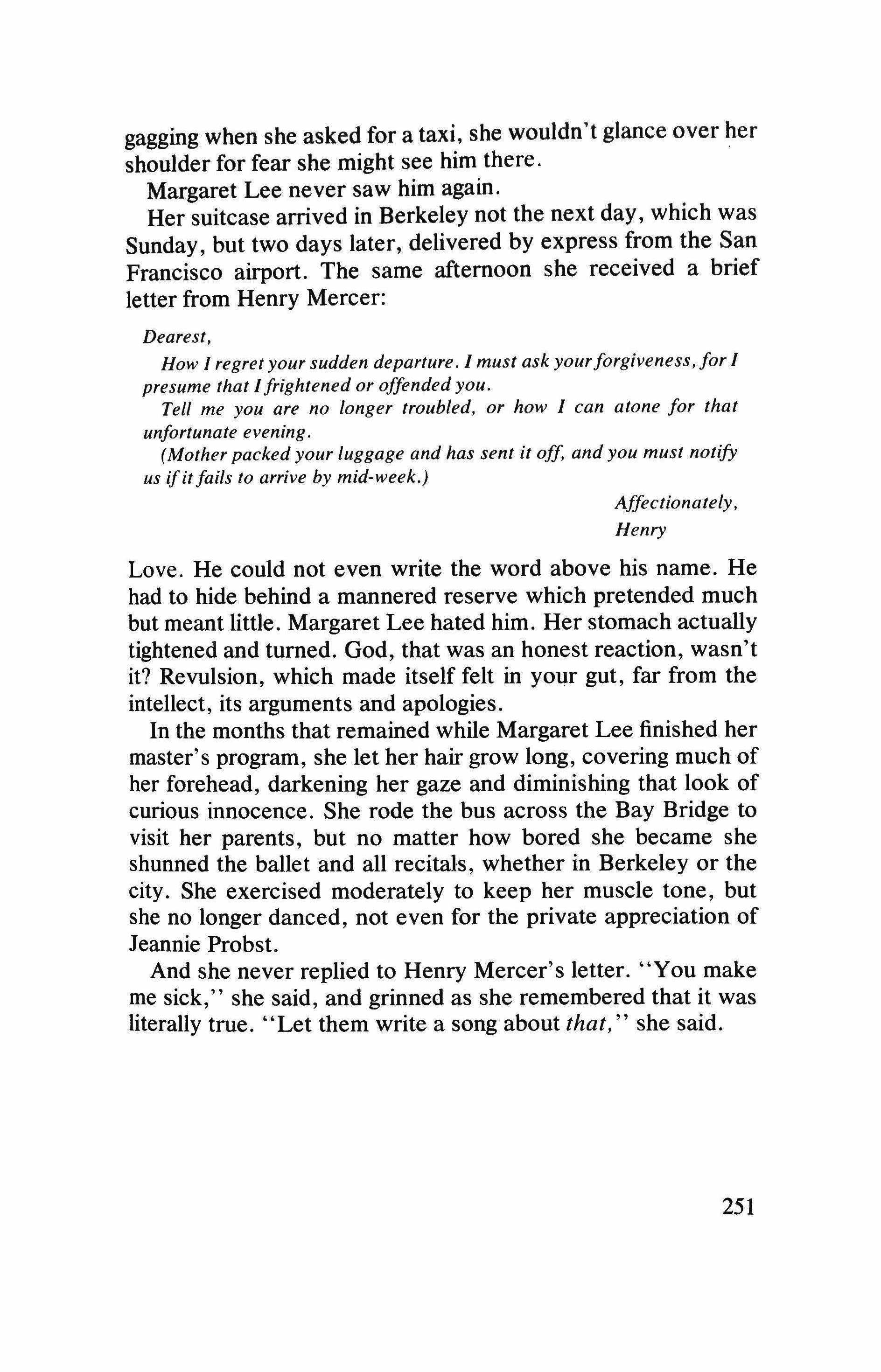
gagging when she asked for a taxi, she wouldn't glance over her shoulder for fear she might see him there.
Margaret Lee never saw him again. Her suitcase arrived in Berkeley not the next day, which was Sunday, but two days later, delivered by express from the San Francisco airport. The same afternoon she received a brief letter from Henry Mercer:
Dearest,
How J regret your sudden departure. I must ask yourforgiveness,for I presume that Ifrightened or offended you.
Tell me you are no longer troubled, or how I can atone for that unfortunate evening.
(Motherpacked your luggage and has sent it off, and you must notify us ifitfails to arrive by mid-week.)
Affectionately, Henry
Love. He could not even write the word above his name. He had to hide behind a mannered reserve which pretended much but meant little. Margaret Lee hated him. Her stomach actually tightened and turned. God, that was an honest reaction, wasn't it? Revulsion, which made itself felt in your gut, far from the intellect, its arguments and apologies.
In the months that remained while Margaret Lee finished her master's program, she let her hair grow long, covering much of her forehead, darkening her gaze and diminishing that look of curious innocence. She rode the bus across the Bay Bridge to visit her parents, but no matter how bored she became she shunned the ballet and all recitals, whether in Berkeley or the city. She exercised moderately to keep her muscle tone, but she no longer danced, not even for the private appreciation of Jeannie Probst.
And she never replied to Henry Mercer's letter. "You make me sick," she said, and grinned as she remembered that it was literally true. "Let them write a song about that," she said.
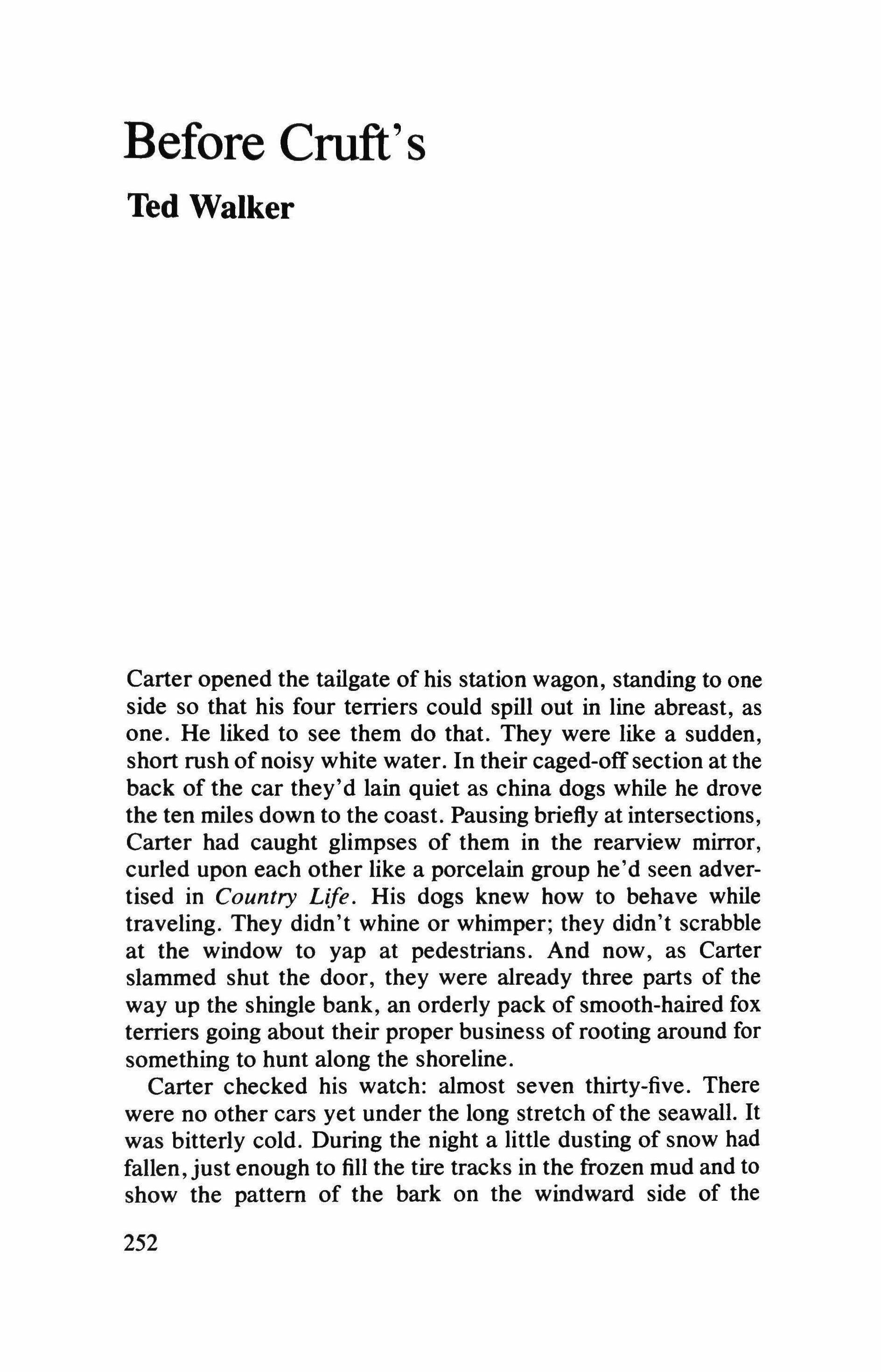
Carter opened the tailgate of his station wagon, standing to one side so that his four terriers could spill out in line abreast, as one. He liked to see them do that. They were like a sudden, short rush of noisy white water. In their caged-off section at the back of the car they'd lain quiet as china dogs while he drove the ten miles down to the coast. Pausing briefly at intersections, Carter had caught glimpses of them in the rearview mirror, curled upon each other like a porcelain group he'd seen advertised in Country Life. His dogs knew how to behave while traveling. They didn't whine or whimper; they didn't scrabble at the window to yap at pedestrians. And now, as Carter slammed shut the door, they were already three parts of the way up the shingle bank, an orderly pack of smooth-haired fox terriers going about their proper business of rooting around for something to hunt along the shoreline.
Carter checked his watch: almost seven thirty-five. There were no other cars yet under the long stretch of the seawall. It was bitterly cold. During the night a little dusting of snow had fallen, just enough to fill the tire tracks in the frozen mud and to show the pattern of the bark on the windward side of the
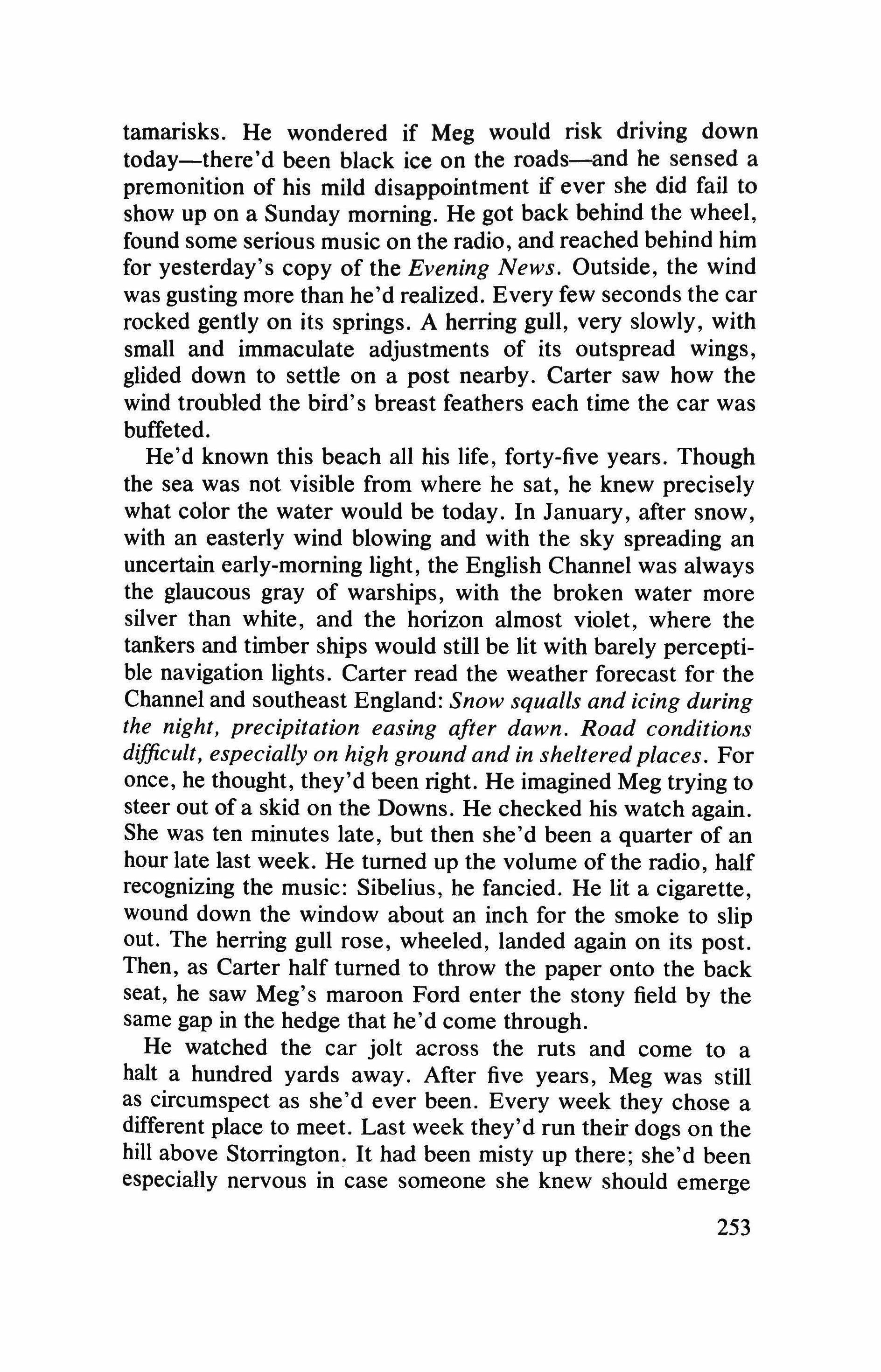
tamarisks. He wondered if Meg would risk driving down today-there'd been black ice on the roads-and he sensed a premonition of his mild disappointment if ever she did fail to show up on a Sunday morning. He got back behind the wheel, found some serious music on the radio, and reached behind him for yesterday's copy of the Evening News. Outside, the wind was gusting more than he'd realized. Every few seconds the car rocked gently on its springs. A herring gull, very slowly, with small and immaculate adjustments of its outspread wings, glided down to settle on a post nearby. Carter saw how the wind troubled the bird's breast feathers each time the car was buffeted.
He'd known this beach all his life, forty-five years. Though the sea was not visible from where he sat, he knew precisely what color the water would be today. In January, after snow, with an easterly wind blowing and with the sky spreading an uncertain early-morning light, the English Channel was always the glaucous gray of warships, with the broken water more silver than white, and the horizon almost violet, where the tankers and timber ships would still be lit with barely perceptible navigation lights. Carter read the weather forecast for the Channel and southeast England: Snow squalls and icing during the night, precipitation easing after dawn. Road conditions difficult, especially on high ground and in sheltered places. For once, he thought, they'd been right. He imagined Meg trying to steer out of a skid on the Downs. He checked his watch again. She was ten minutes late, but then she'd been a quarter of an hour late last week. He turned up the volume of the radio, half recognizing the music: Sibelius, he fancied. He lit a cigarette, wound down the window about an inch for the smoke to slip out. The herring gull rose, wheeled, landed again on its post. Then, as Carter half turned to throw the paper onto the back seat, he saw Meg's maroon Ford enter the stony field by the same gap in the hedge that he'd come through.
He watched the car jolt across the ruts and come to a halt a hundred yards away. After five years, Meg was still as circumspect as she'd ever been. Every week they chose a different place to meet. Last week they'd run their dogs on the hill above Storrington. It had been misty up there; she'd been especially nervous in case someone she knew should emerge
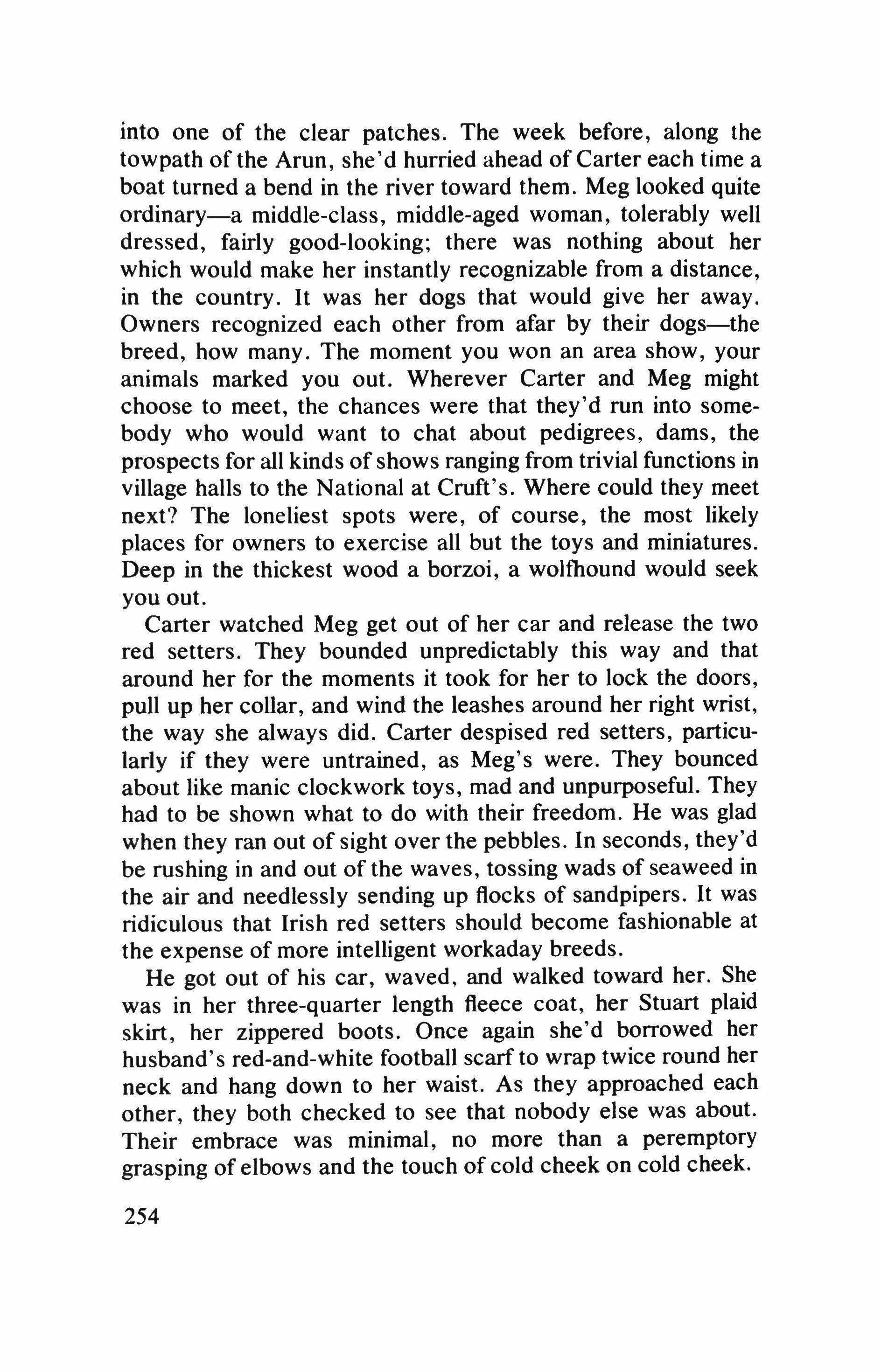
into one of the clear patches. The week before, along the towpath of the Arun, she'd hurried ahead of Carter each time a boat turned a bend in the river toward them. Meg looked quite ordinary-a middle-class, middle-aged woman, tolerably well dressed, fairly good-looking; there was nothing about her which would make her instantly recognizable from a distance, in the country. It was her dogs that would give her away. Owners recognized each other from afar by their dogs-the breed, how many. The moment you won an area show, your animals marked you out. Wherever Carter and Meg might choose to meet, the chances were that they'd run into somebody who would want to chat about pedigrees, dams, the prospects for all kinds of shows ranging from trivial functions in village halls to the National at Cruft's. Where could they meet next? The loneliest spots were, of course, the most likely places for owners to exercise all but the toys and miniatures. Deep in the thickest wood a borzoi, a woltbound would seek you out.
Carter watched Meg get out of her car and release the two red setters. They bounded unpredictably this way and that around her for the moments it took for her to lock the doors, pull up her collar, and wind the leashes around her right wrist, the way she always did. Carter despised red setters, particularly if they were untrained, as Meg's were. They bounced about like manic clockwork toys, mad and unpurposeful. They had to be shown what to do with their freedom. He was glad when they ran out of sight over the pebbles. In seconds, they'd be rushing in and out of the waves, tossing wads of seaweed in the air and needlessly sending up flocks of sandpipers. It was ridiculous that Irish red setters should become fashionable at the expense of more intelligent workaday breeds.
He got out of his car, waved, and walked toward her. She was in her three-quarter length fleece coat, her Stuart plaid skirt, her zippered boots. Once again she'd borrowed her husband's red-and-white football scarf to wrap twice round her neck and hang down to her waist. As they approached each other, they both checked to see that nobody else was about. Their embrace was minimal, no more than a peremptory grasping of elbows and the touch of cold cheek on cold cheek.
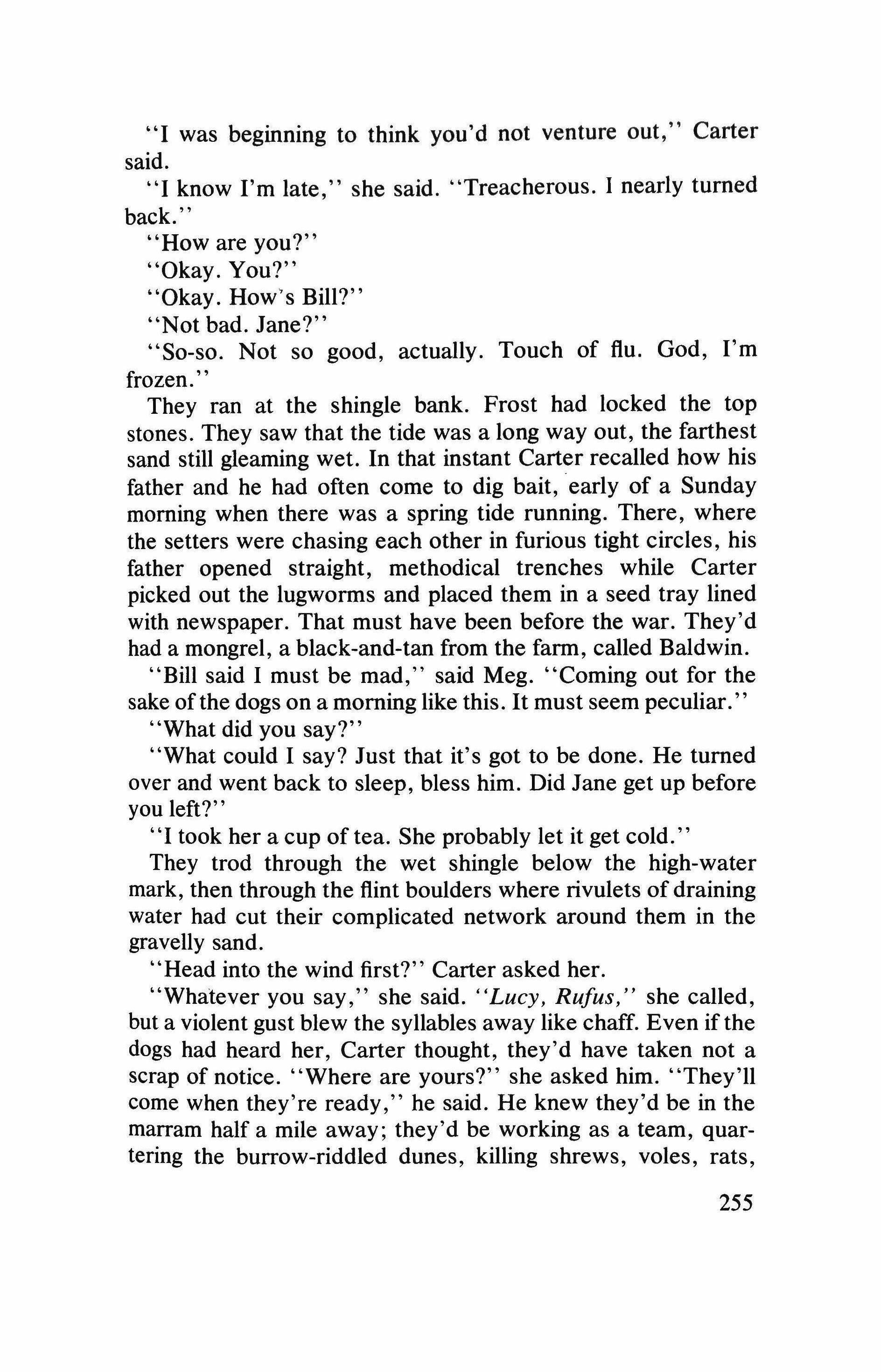
"I was beginning to think you'd not venture out," Carter said.
"I know I'm late," she said. "Treacherous. I nearly turned back."
"How are you?"
"Okay. You?"
"Okay. How's Bill?"
"Not bad. Jane?"
"So-so. Not so good, actually. Touch of flu. God, I'm frozen.
They ran at the shingle bank. Frost had locked the top stones. They saw that the tide was a long way out, the farthest sand still gleaming wet. In that instant Carter recalled how his father and he had often come to dig bait, early of a Sunday morning when there was a spring tide running. There, where the setters were chasing each other in furious tight circles, his father opened straight, methodical trenches while Carter picked out the lugworms and placed them in a seed tray lined with newspaper. That must have been before the war. They'd had a mongrel, a black-and-tan from the farm, called Baldwin.
"Bill said I must be mad," said Meg. "Coming out for the sake ofthe dogs on a morning like this. It must seem peculiar.
"What did you say?"
"What could I say? Just that it's got to be done. He turned over and went back to sleep, bless him. Did Jane get up before you left?"
"I took her a cup of tea. She probably let it get cold.
They trod through the wet shingle below the high-water mark, then through the flint boulders where rivulets of draining water had cut their complicated network around them in the gravelly sand.
"Head into the wind first?" Carter asked her.
"Whatever you say," she said. "Lucy, Rufus," she called, but a violent gust blew the syllables away like chaff. Even if the dogs had heard her, Carter thought, they'd have taken not a scrap of notice. "Where are yours?" she asked him. "They'll come when they're ready," he said. He knew they'd be in the marram half a mile away; they'd be working as a team, quartering the burrow-riddled dunes, killing shrews, voles, rats, 255
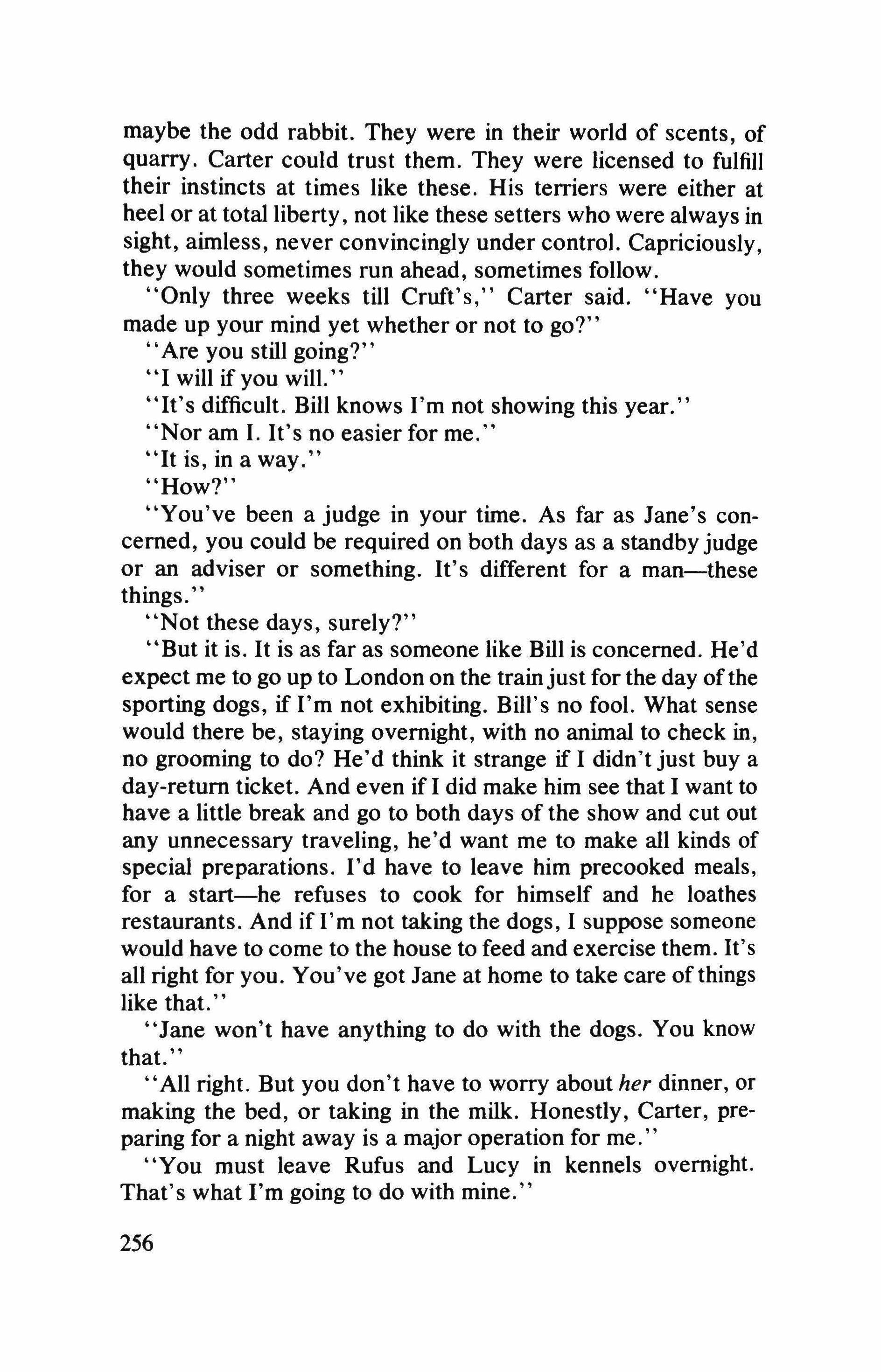
maybe the odd rabbit. They were in their world of scents, of quarry. Carter could trust them. They were licensed to fulfill their instincts at times like these. His terriers were either at heel or at total liberty not like these setters who were always in sight, aimless, never convincingly under control. Capriciously, they would sometimes run ahead, sometimes follow.
"Only three weeks till Cruft's," Carter said. "Have you made up your mind yet whether or not to go?"
"Are you still going?"
"I will if you will."
"It's difficult. Bill knows I'm not showing this year."
"Nor am I. It's no easier for me."
"It is, in a way."
"How?"
"You've been a judge in your time. As far as Jane's concerned, you could be required on both days as a standbyjudge or an adviser or something. It's different for a man-these things. "
"Not these days, surely?"
"But it is. It is as far as someone like Bill is concerned. He'd expect me to go up to London on the trainjust for the day ofthe sporting dogs, if I'm not exhibiting. Bill's no fool. What sense would there be, staying overnight, with no animal to check in, no grooming to do? He'd think it strange if I didn't just buy a day-return ticket. And even if I did make him see that I want to have a little break and go to both days of the show and cut out any unnecessary traveling, he'd want me to make all kinds of special preparations. I'd have to leave him precooked meals, for a start-he refuses to cook for himself and he loathes restaurants. And if I'm not taking the dogs, I suppose someone would have to come to the house to feed and exercise them. It's all right for you. You've got Jane at home to take care of things like that.
"Jane won't have anything to do with the dogs. You know that."
"All right. But you don't have to worry about her dinner, or making the bed, or taking in the milk. Honestly, Carter, preparing for a night away is a major operation for me."
'You must leave Rufus and Lucy in kennels overnight. That's what I'm going to do with mine."
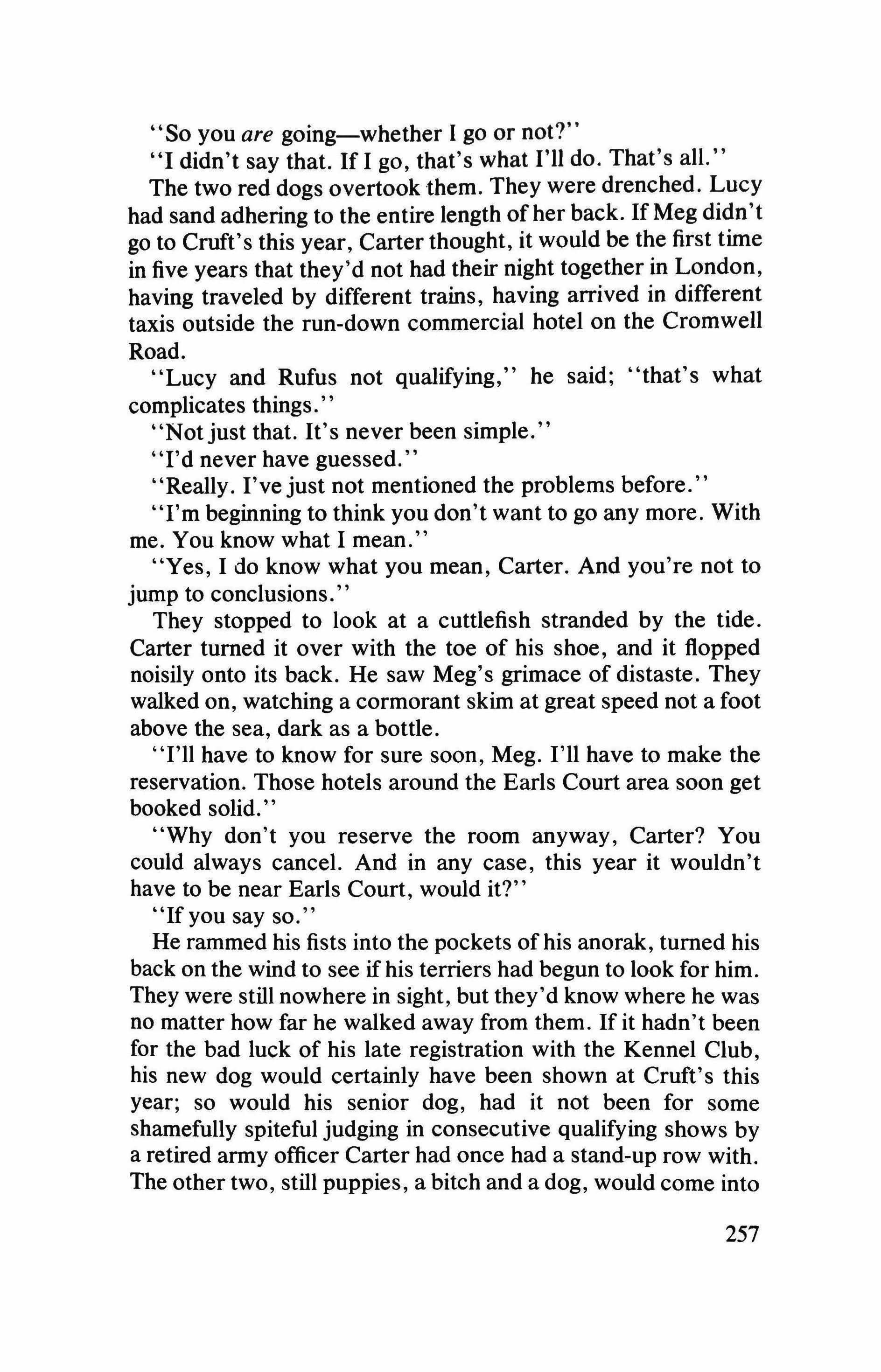
"So you are going-whether I go or not?"
"I didn't say that. If I go, that's what I'll do. That's all."
The two red dogs overtook them. They were drenched. Lucy had sand adhering to the entire length of her back. If Meg didn't go to Cruft's this year, Carter thought, it would be the first time in five years that they'd not had their night together in London, having traveled by different trains, having arrived in different taxis outside the run-down commercial hotel on the Cromwell Road.
"Lucy and Rufus not qualifying," he said; "that's what complicates things.
"Not just that. It's never been simple."
"I'd never have guessed."
"Really. I've just not mentioned the problems before.
"I'm beginning to think you don't want to go any more. With me. You know what I mean."
"Yes, I do know what you mean, Carter. And you're not to jump to conclusions."
They stopped to look at a cuttlefish stranded by the tide. Carter turned it over with the toe of his shoe, and it flopped noisily onto its back. He saw Meg's grimace of distaste. They walked on, watching a cormorant skim at great speed not a foot above the sea, dark as a bottle.
"I'll have to know for sure soon, Meg. I'll have to make the reservation. Those hotels around the Earls Court area soon get booked solid."
"Why don't you reserve the room anyway, Carter? You could always cancel. And in any case, this year it wouldn't have to be near Earls Court, would it?"
"If you say so."
He rammed his fists into the pockets of his anorak, turned his back on the wind to see if his terriers had begun to look for him. They were still nowhere in sight, but they'd know where he was no matter how far he walked away from them. If it hadn't been for the bad luck of his late registration with the Kennel Club, his new dog would certainly have been shown at Cruft's this year; so would his senior dog, had it not been for some shamefully spiteful judging in consecutive qualifying shows by a retired army officer Carter had once had a stand-up row with. The other two, still puppies, a bitch and a dog, would come into
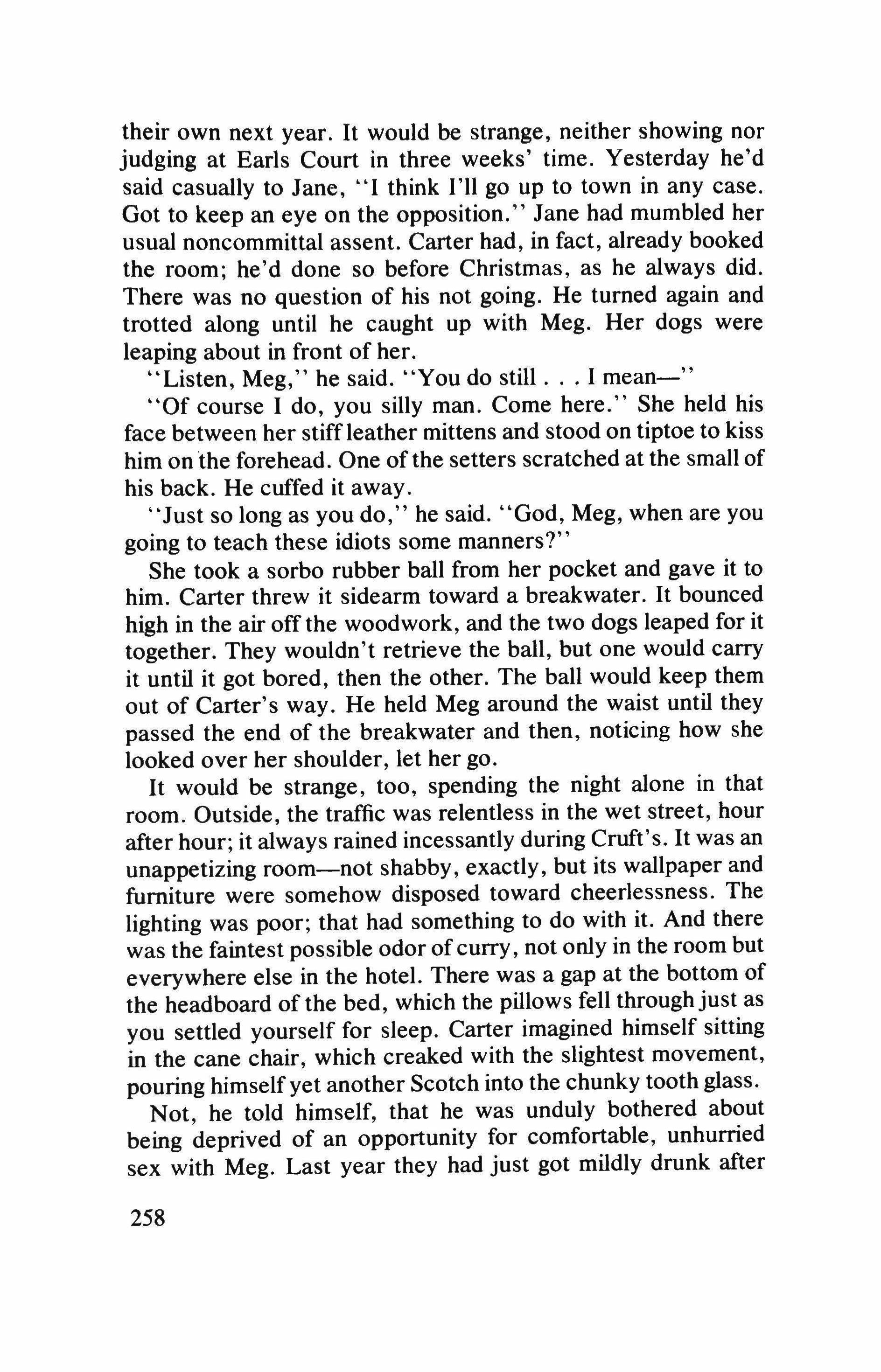
their own next year. It would be strange, neither showing nor judging at Earls Court in three weeks' time. Yesterday he'd said casually to Jane, "I think I'll go up to town in any case. Got to keep an eye on the opposition. Jane had mumbled her usual noncommittal assent. Carter had, in fact, already booked the room; he'd done so before Christmas, as he always did. There was no question of his not going. He turned again and trotted along until he caught up with Meg. Her dogs were leaping about in front of her.
"Listen, Meg," he said. "You do still I mean-"
"Of course I do, you silly man. Come here." She held his face between her stiffleather mittens and stood on tiptoe to kiss him on the forehead. One of the setters scratched at the small of his back. He cuffed it away.
"Just so long as you do," he said. "God, Meg, when are you going to teach these idiots some manners?"
She took a sorbo rubber ball from her pocket and gave it to him. Carter threw it sidearm toward a breakwater. It bounced high in the air off the woodwork, and the two dogs leaped for it together. They wouldn't retrieve the ball, but one would carry it until it got bored, then the other. The ball would keep them out of Carter's way. He held Meg around the waist until they passed the end of the breakwater and then, noticing how she looked over her shoulder, let her go.
It would be strange, too, spending the night alone in that room. Outside, the traffic was relentless in the wet street, hour after hour; it always rained incessantly during Cruft's. It was an unappetizing room-not shabby, exactly, but its wallpaper and furniture were somehow disposed toward cheerlessness. The lighting was poor; that had something to do with it. And there was the faintest possible odor of curry, not only in the room but everywhere else in the hotel. There was a gap at the bottom of the headboard of the bed, which the pillows fell throughjust as you settled yourself for sleep. Carter imagined himself sitting in the cane chair, which creaked with the slightest movement, pouring himselfyet another Scotch into the chunky tooth glass.
Not, he told himself, that he was unduly bothered about being deprived of an opportunity for comfortable, unhurried sex with Meg. Last year they had just got mildly drunk after
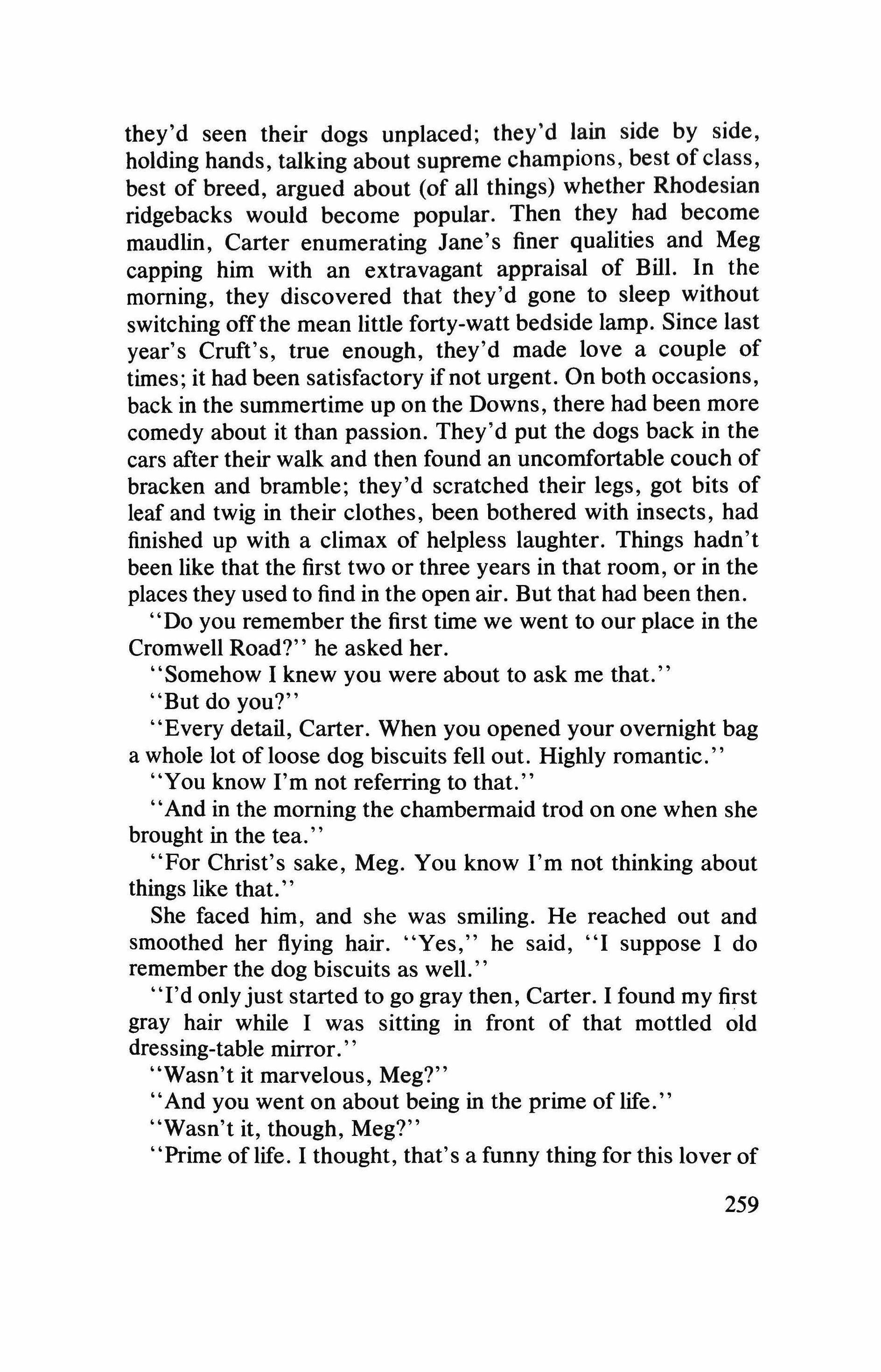
they'd seen their dogs unplaced; they'd lain side by side, holding hands, talking about supreme champions, best of class, best of breed, argued about (of all things) whether Rhodesian ridgebacks would become popular. Then they had become maudlin, Carter enumerating Jane's finer qualities and Meg capping him with an extravagant appraisal of Bill. In the morning, they discovered that they'd gone to sleep without switching offthe mean little forty-watt bedside lamp. Since last year's Cruft's, true enough, they'd made love a couple of times; it had been satisfactory if not urgent. On both occasions, back in the summertime up on the Downs, there had been more comedy about it than passion. They'd put the dogs back in the cars after their walk and then found an uncomfortable couch of bracken and bramble; they'd scratched their legs, got bits of leaf and twig in their clothes, been bothered with insects, had finished up with a climax of helpless laughter. Things hadn't been like that the first two or three years in that room, or in the places they used to find in the open air. But that had been then.
"Do you remember the first time we went to our place in the Cromwell Road?" he asked her.
"Somehow I knew you were about to ask me that."
"But do you?"
"Every detail, Carter. When you opened your overnight bag a whole lot ofloose dog biscuits fell out. Highly romantic."
"You know I'm not referring to that.
"And in the morning the chambermaid trod on one when she brought in the tea.
"For Christ's sake, Meg. You know I'm not thinking about things like that. "
She faced him, and she was smiling. He reached out and smoothed her flying hair. "Yes," he said, "I suppose I do remember the dog biscuits as well."
''I'd onlyjust started to go gray then, Carter. I found my first gray hair while I was sitting in front of that mottled old dressing-table mirror.
"Wasn't it marvelous, Meg?"
"And you went on about being in the prime of life.
"Wasn't it, though, Meg?"
"Prime oflife. I thought, that's a funny thing for this lover of
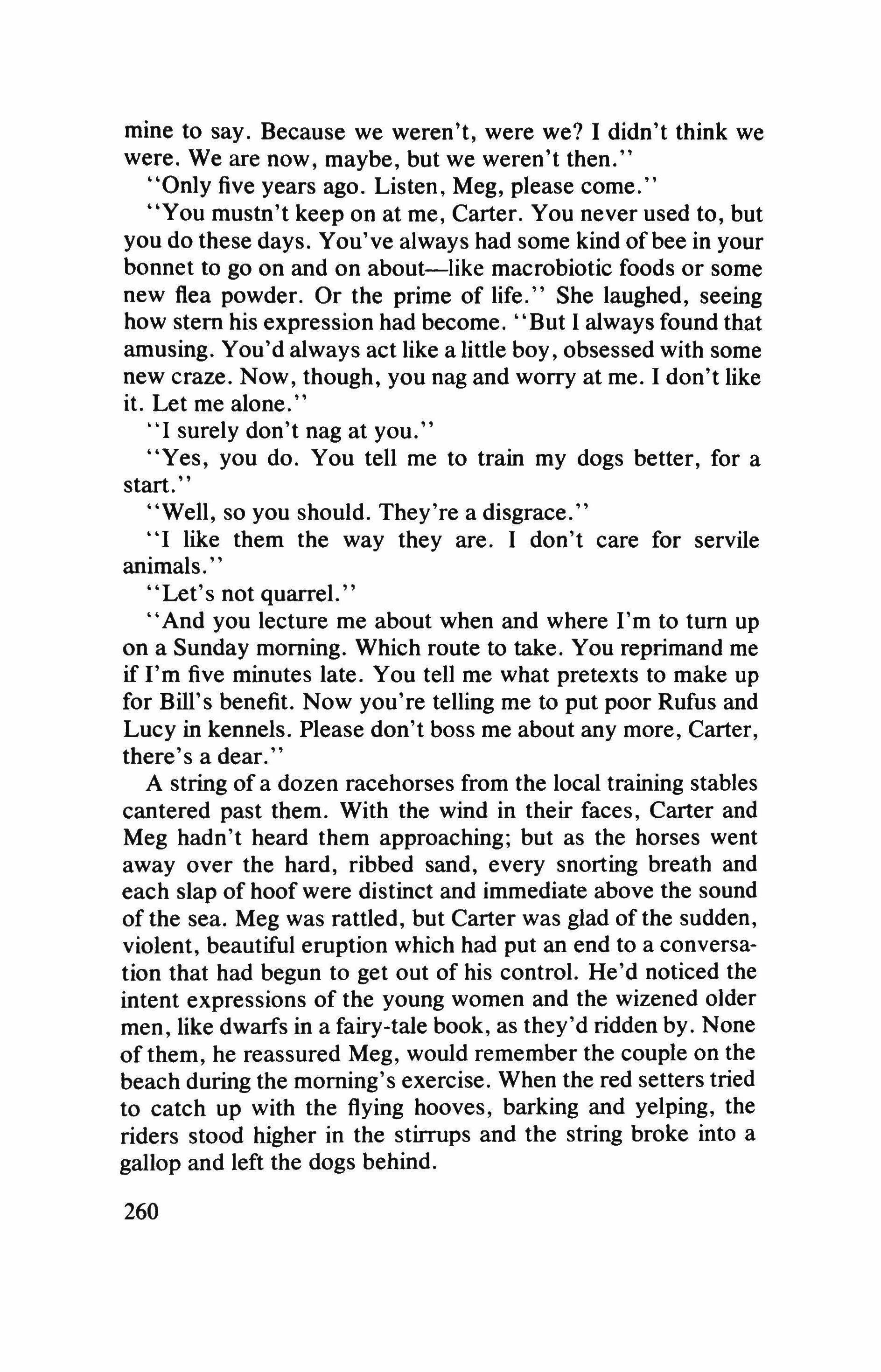
mine to say. Because we weren't, were we? I didn't think we were. We are now, maybe, but we weren't then."
"Only five years ago. Listen, Meg, please come."
"You mustn't keep on at me, Carter. You never used to, but you do these days. You've always had some kind ofbee in your bonnet to go on and on about-like macrobiotic foods or some new flea powder. Or the prime of life." She laughed, seeing how stem his expression had become. "But I always found that amusing. You'd always act like a little boy, obsessed with some new craze. Now, though, you nag and worry at me. I don't like it. Let me alone."
"I surely don't nag at you."
"Yes, you do. You tell me to train my dogs better, for a start.
"Well, so you should. They're a disgrace."
"I like them the way they are. I don't care for servile animals.
"Let's not quarrel."
"And you lecture me about when and where I'm to tum up on a Sunday morning. Which route to take. You reprimand me if I'm five minutes late. You tell me what pretexts to make up for Bill's benefit. Now you're telling me to put poor Rufus and Lucy in kennels. Please don't boss me about any more, Carter, there's a dear."
A string of a dozen racehorses from the local training stables cantered past them. With the wind in their faces, Carter and Meg hadn't heard them approaching; but as the horses went away over the hard, ribbed sand, every snorting breath and each slap of hoof were distinct and immediate above the sound of the sea. Meg was rattled, but Carter was glad of the sudden, violent, beautiful eruption which had put an end to a conversation that had begun to get out of his control. He'd noticed the intent expressions of the young women and the wizened older men, like dwarfs in a fairy-tale book, as they'd ridden by. None of them, he reassured Meg, would remember the couple on the beach during the morning's exercise. When the red setters tried to catch up with the flying hooves, barking and yelping, the riders stood higher in the stirrups and the string broke into a gallop and left the dogs behind.
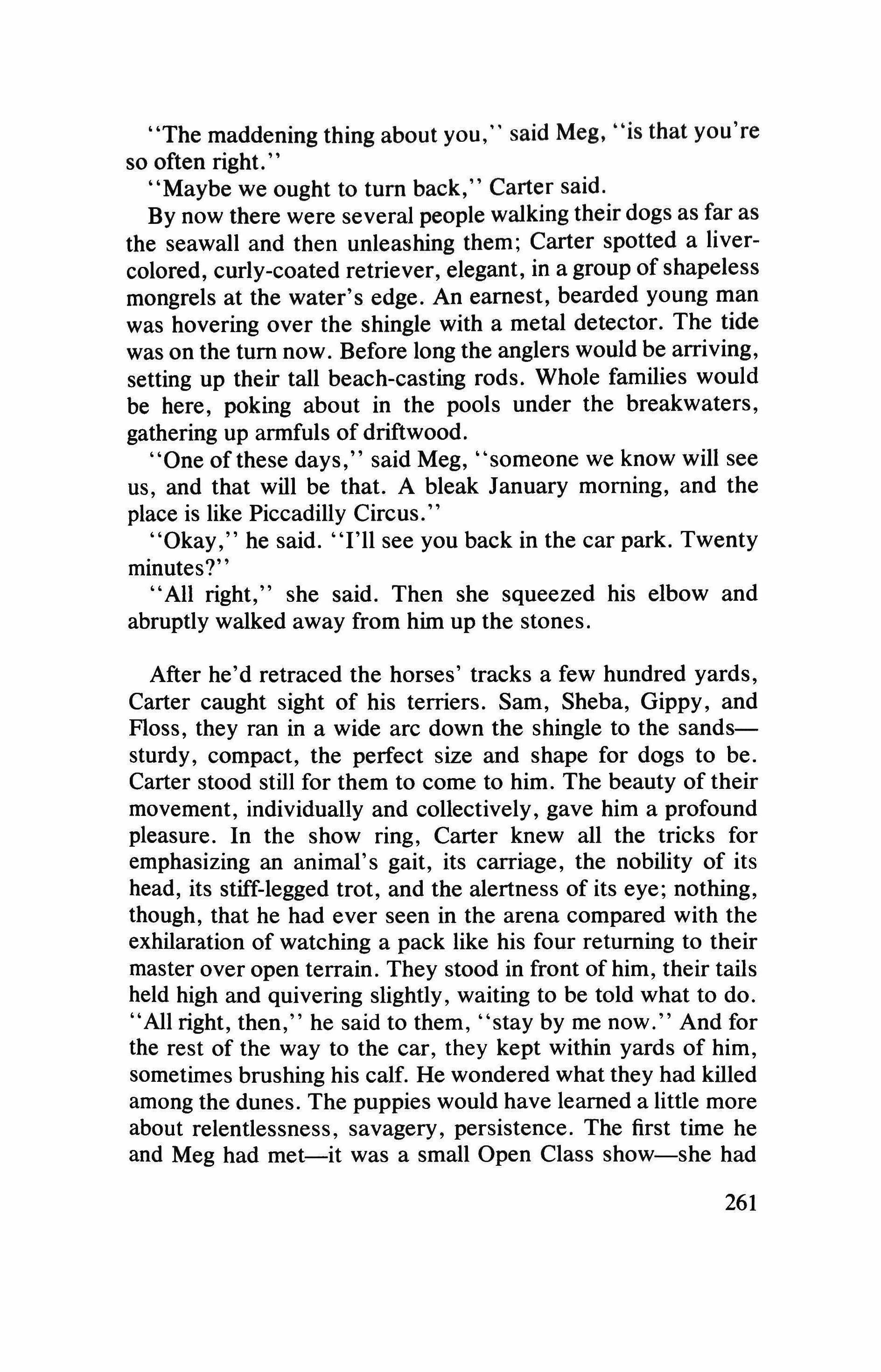
"The maddening thing about you," said Meg, "is that you're so often right."
"Maybe we ought to tum back," Carter said.
By now there were several people walking their dogs as far as the seawall and then unleashing them; Carter spotted a Iivercolored, curly-coated retriever, elegant, in a group of shapeless mongrels at the water's edge. An earnest, bearded young man was hovering over the shingle with a metal detector. The tide was on the tum now. Before long the anglers would be arriving, setting up their tall beach-casting rods. Whole families would be here, poking about in the pools under the breakwaters, gathering up armfuls of driftwood.
"One of these days," said Meg, "someone we know will see us, and that will be that. A bleak January morning, and the place is like Piccadilly Circus."
"Okay," he said. ''I'll see you back in the car park. Twenty minutes?"
"All right," she said. Then she squeezed his elbow and abruptly walked away from him up the stones.
After he'd retraced the horses' tracks a few hundred yards, Carter caught sight of his terriers. Sam, Sheba, Gippy, and Floss, they ran in a wide arc down the shingle to the sandssturdy, compact, the perfect size and shape for dogs to be. Carter stood still for them to come to him. The beauty of their movement, individually and collectively, gave him a profound pleasure. In the show ring, Carter knew all the tricks for emphasizing an animal's gait, its carriage, the nobility of its head, its stiff-legged trot, and the alertness of its eye; nothing, though, that he had ever seen in the arena compared with the exhilaration of watching a pack like his four returning to their master over open terrain. They stood in front of him, their tails held high and quivering slightly, waiting to be told what to do. "All right, then," he said to them, "stay by me now." And for the rest of the way to the car, they kept within yards of him, sometimes brushing his calf. He wondered what they had killed among the dunes. The puppies would have learned a little more about relentlessness, savagery, persistence. The first time he and Meg had met-it was a small Open Class show-she had
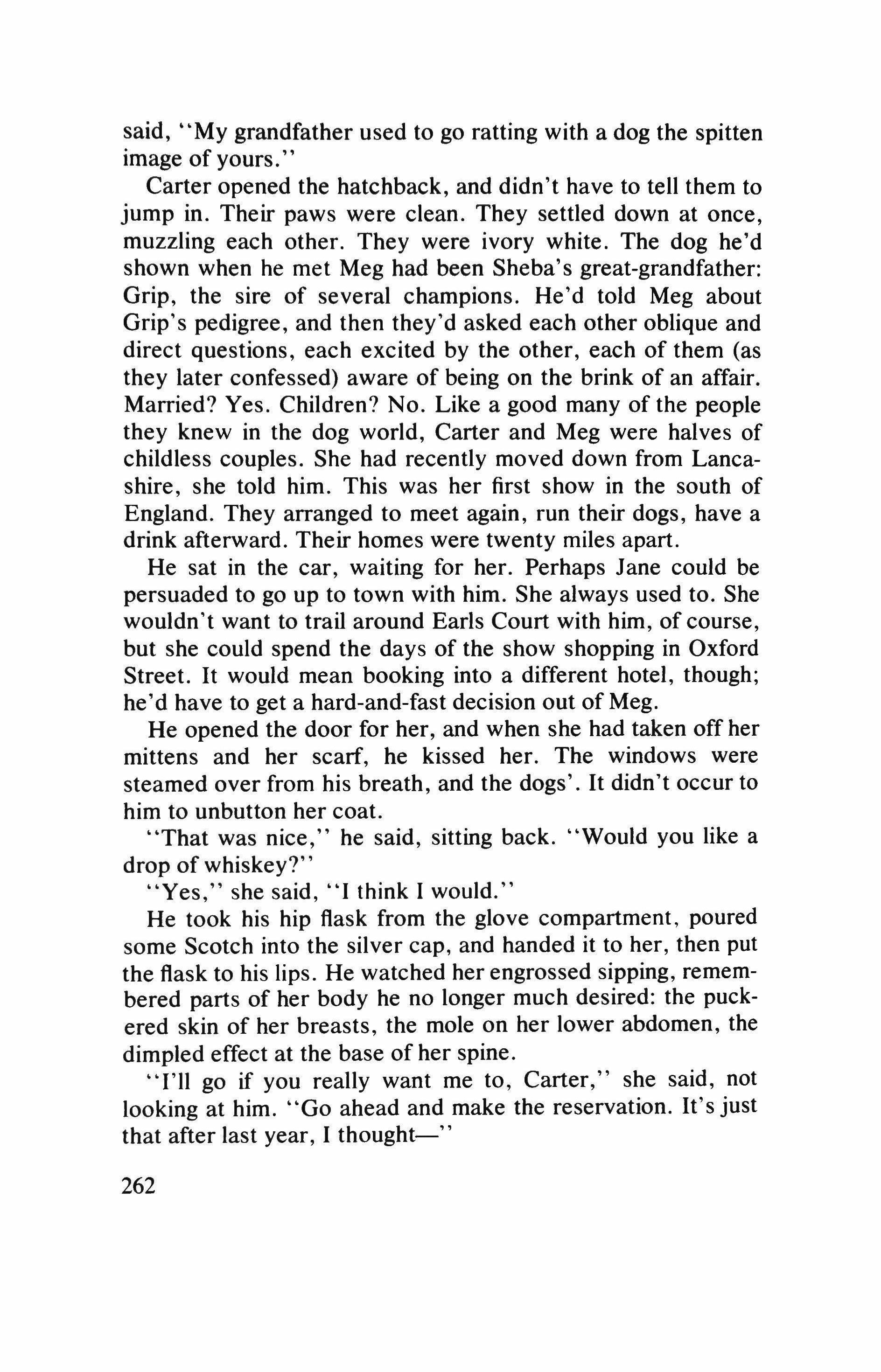
said, "My grandfather used to go ratting with a dog the spitten image of yours."
Carter opened the hatchback, and didn't have to tell them to jump in. Their paws were clean. They settled down at once, muzzling each other. They were ivory white. The dog he'd shown when he met Meg had been Sheba's great-grandfather: Grip, the sire of several champions. He'd told Meg about Grip's pedigree, and then they'd asked each other oblique and direct questions, each excited by the other, each of them (as they later confessed) aware of being on the brink of an affair. Married? Yes. Children? No. Like a good many of the people they knew in the dog world, Carter and Meg were halves of childless couples. She had recently moved down from Lancashire, she told him. This was her first show in the south of England. They arranged to meet again, run their dogs, have a drink afterward. Their homes were twenty miles apart.
He sat in the car, waiting for her. Perhaps Jane could be persuaded to go up to town with him. She always used to. She wouldn't want to trail around Earls Court with him, of course, but she could spend the days of the show shopping in Oxford Street. It would mean booking into a different hotel, though; he'd have to get a hard-and-fast decision out of Meg.
He opened the door for her, and when she had taken off her mittens and her scarf, he kissed her. The windows were steamed over from his breath, and the dogs'. It didn't occur to him to unbutton her coat.
"That was nice," he said, sitting back. "Would you like a drop of whiskey?"
"Yes," she said, "I think I would."
He took his hip flask from the glove compartment, poured some Scotch into the silver cap, and handed it to her, then put the flask to his lips. He watched her engrossed sipping, remembered parts of her body he no longer much desired: the puckered skin of her breasts, the mole on her lower abdomen, the dimpled effect at the base of her spine.
"J'Il go if you really want me to, Carter," she said, not looking at him. "Go ahead and make the reservation. It's just that after last year, I thought-"
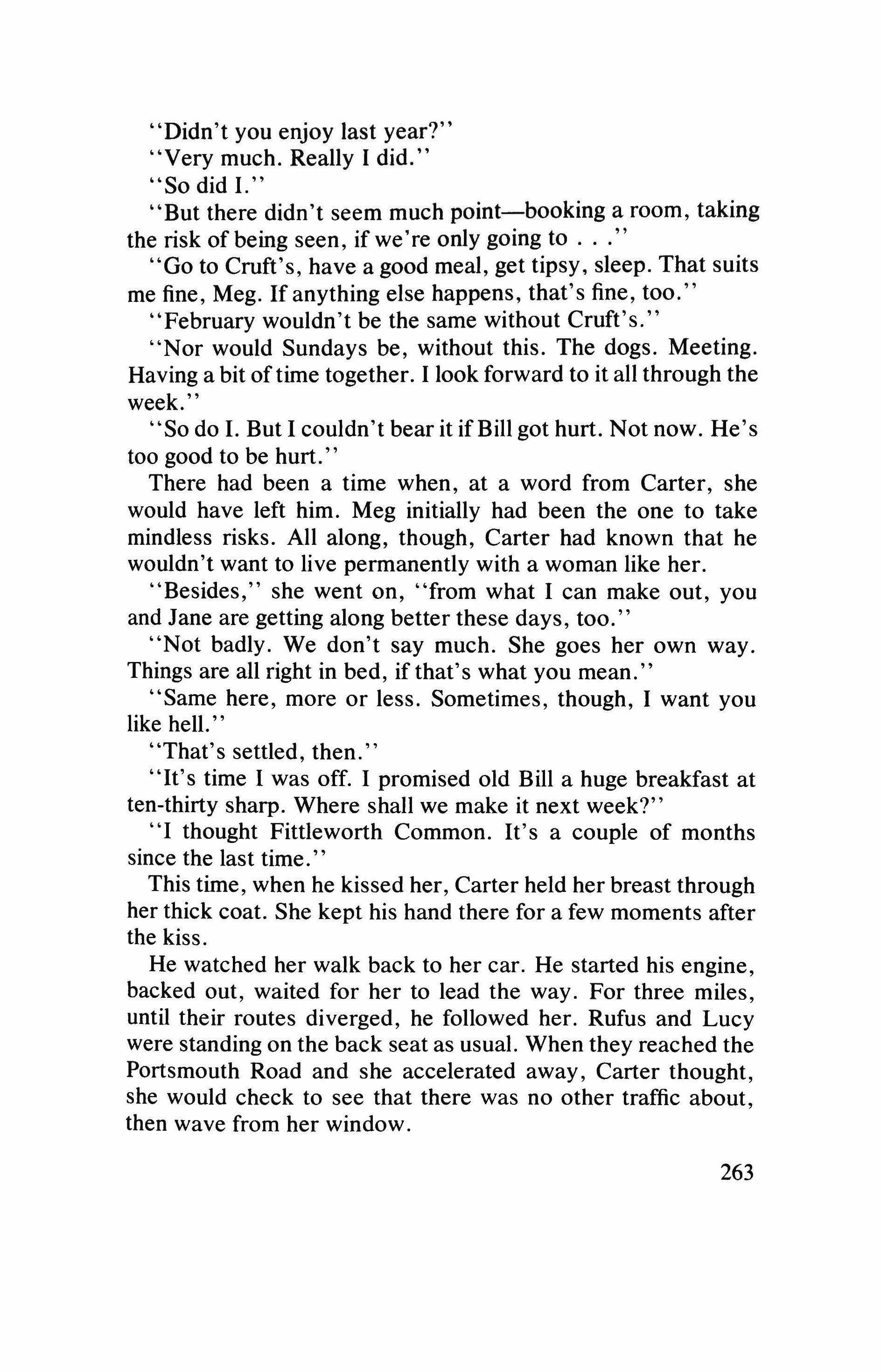
"Didn't you enjoy last year?"
"Very much. Really I did."
"So did I."
"But there didn't seem much point-booking a room, taking the risk of being seen, if we' re only going to ."
"Go to Cruft's, have a good meal, get tipsy, sleep. That suits me fine, Meg. If anything else happens, that's fine, too."
"February wouldn't be the same without Cruft's."
"Nor would Sundays be, without this. The dogs. Meeting. Having a bit oftime together. I look forward to it all through the week."
"So do I. But I couldn't bear it if Bill got hurt. Not now. He's too good to be hurt."
There had been a time when, at a word from Carter, she would have left him. Meg initially had been the one to take mindless risks. All along, though, Carter had known that he wouldn't want to live permanently with a woman like her.
"Besides," she went on, "from what I can make out, you and Jane are getting along better these days, too."
"Not badly. We don't say much. She goes her own way. Things are all right in bed, if that's what you mean."
"Same here, more or less. Sometimes, though, I want you like hell."
"That's settled, then."
"It's time I was off. I promised old Bill a huge breakfast at ten-thirty sharp. Where shall we make it next week?"
"I thought Fittleworth Common. It's a couple of months since the last time."
This time, when he kissed her, Carter held her breast through her thick coat. She kept his hand there for a few moments after the kiss.
He watched her walk back to her car. He started his engine, backed out, waited for her to lead the way. For three miles, until their routes diverged, he followed her. Rufus and Lucy were standing on the back seat as usual. When they reached the Portsmouth Road and she accelerated away, Carter thought, she would check to see that there was no other traffic about, then wave from her window. 263
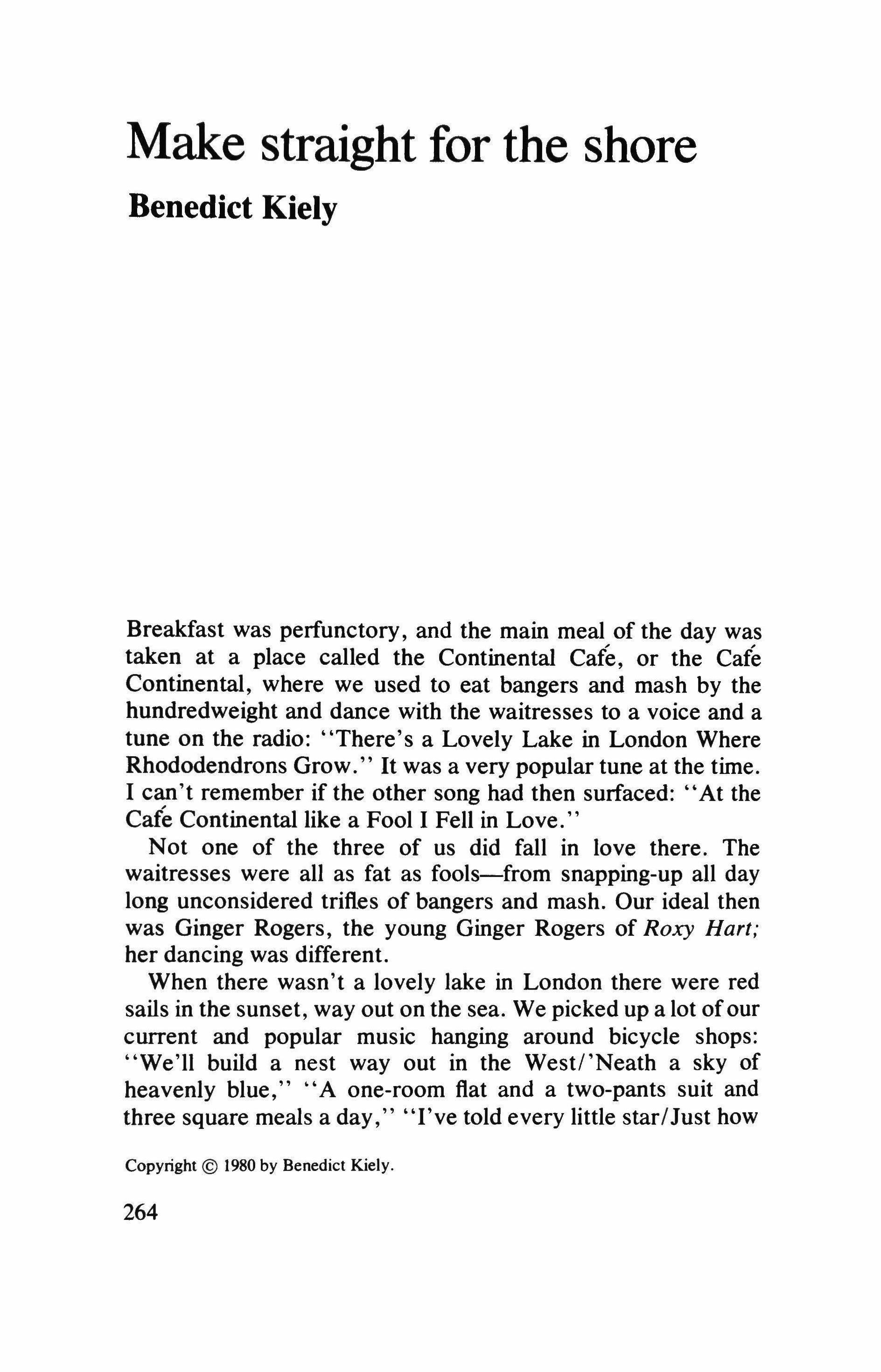
Breakfast was perfunctory, and the main meal of the day was taken at a place called the Continental Cafe, or the Cafe Continental, where we used to eat bangers and mash by the hundredweight and dance with the waitresses to a voice and a tune on the radio: "There's a Lovely Lake in London Where Rhododendrons Grow. " It was a very popular tune at the time. I can't remember if the other song had then surfaced: "At the Cafe Continental like a Fool I Fell in Love."
Not one of the three of us did fall in love there. The waitresses were all as fat as fools-from snapping-up all day long unconsidered trifles of bangers and mash. Our ideal then was Ginger Rogers, the young Ginger Rogers of Roxy Hart; her dancing was different.
When there wasn't a lovely lake in London there were red sails in the sunset, way out on the sea. We picked up a lot of our current and popular music hanging around bicycle shops: "We'll build a nest way out in the Westl'Neath a sky of heavenly blue," "A one-room flat and a two-pants suit and three square meals a day," "I've told every little star/Just how
Copyright © 1980 by Benedict Kiely.
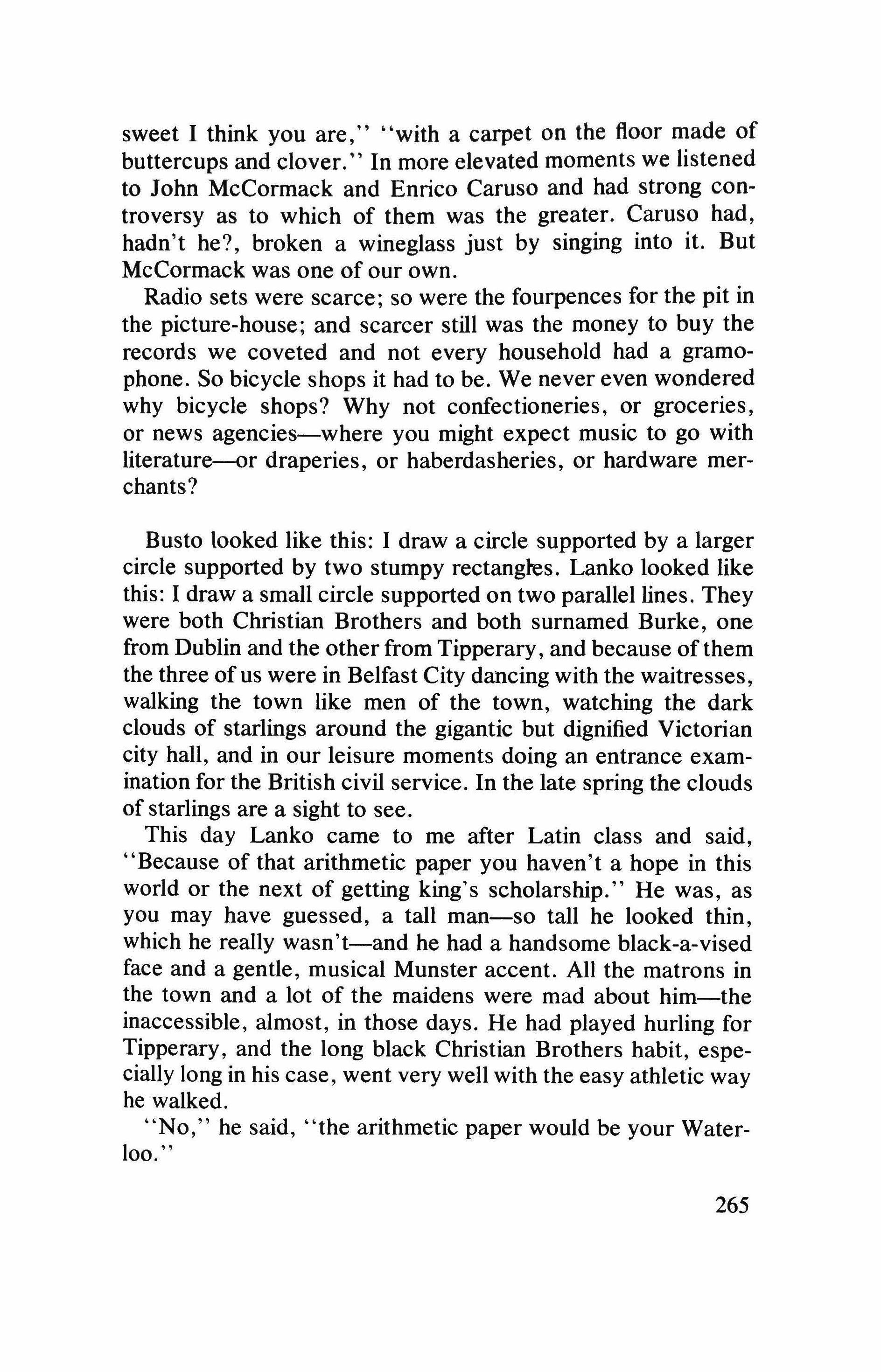
sweet I think you are," "with a carpet on the floor made of buttercups and clover." In more elevated moments we listened to John McCormack and Enrico Caruso and had strong controversy as to which of them was the greater. Caruso had, hadn't he?, broken a wineglass just by singing into it. But McCormack was one of our own.
Radio sets were scarce; so were the fourpences for the pit in the picture-house; and scarcer still was the money to buy the records we coveted and not every household had a gramophone. So bicycle shops it had to be. We never even wondered why bicycle shops? Why not confectioneries, or groceries, or news agencies-where you might expect music to go with literature-or draperies, or haberdasheries, or hardware merchants?
Busto looked like this: I draw a circle supported by a larger circle supported by two stumpy rectangles. Lanko looked like this: I draw a small circle supported on two parallel lines. They were both Christian Brothers and both surnamed Burke, one from Dublin and the other from Tipperary, and because of them the three of us were in Belfast City dancing with the waitresses, walking the town like men of the town, watching the dark clouds of starlings around the gigantic but dignified Victorian city hall, and in our leisure moments doing an entrance examination for the British civil service. In the late spring the clouds of starlings are a sight to see.
This day Lanko came to me after Latin class and said, "Because of that arithmetic paper you haven't a hope in this world or the next of getting kings scholarship." He was, as you may have guessed, a tall man-so tall he looked thin, which he really wasn't-and he had a handsome black-a-vised face and a gentle, musical Munster accent. All the matrons in the town and a lot of the maidens were mad about him-the inaccessible, almost, in those days. He had played hurling for Tipperary, and the long black Christian Brothers habit, especially long in his case, went very well with the easy athletic way he walked.
"No," he said, "the arithmetic paper would be your Waterloo.
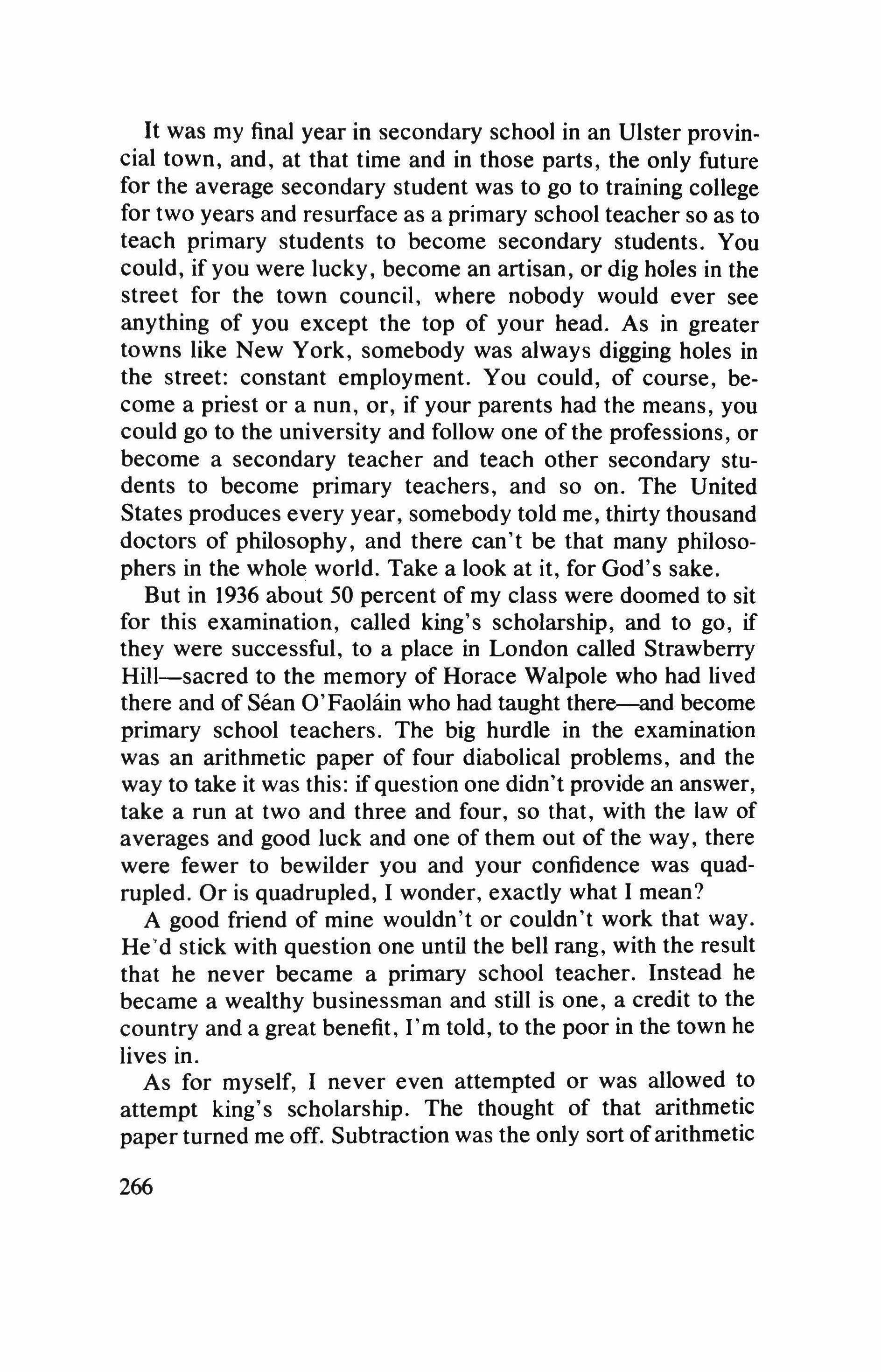
It was my final year in secondary school in an Ulster provincial town, and, at that time and in those parts, the only future for the average secondary student was to go to training college for two years and resurface as a primary school teacher so as to teach primary students to become secondary students. You could, if you were lucky, become an artisan, or dig holes in the street for the town council, where nobody would ever see anything of you except the top of your head. As in greater towns like New York, somebody was always digging holes in the street: constant employment. You could, of course, become a priest or a nun, or, if your parents had the means, you could go to the university and follow one of the professions, or become a secondary teacher and teach other secondary students to become primary teachers, and so on. The United States produces every year, somebody told me, thirty thousand doctors of philosophy, and there can't be that many philosophers in the whole world. Take a look at it, for God's sake.
But in 1936 about 50 percent of my class were doomed to sit for this examination, called king's scholarship, and to go, if they were successful, to a place in London called Strawberry Hill-sacred to the memory of Horace Walpole who had lived there and of Sean O'Faolain who had taught there-and become primary school teachers. The big hurdle in the examination was an arithmetic paper of four diabolical problems, and the way to take it was this: if question one didn't provide an answer, take a run at two and three and four, so that, with the law of averages and good luck and one of them out of the way, there were fewer to bewilder you and your confidence was quadrupled. Or is quadrupled, I wonder, exactly what I mean?
A good friend of mine wouldn't or couldn't work that way. He'd stick with question one until the bell rang, with the result that he never became a primary school teacher. Instead he became a wealthy businessman and still is one, a credit to the country and a great benefit, I'm told, to the poor in the town he lives in.
As for myself, I never even attempted or was allowed to attempt king's scholarship. The thought of that arithmetic paper turned me off. Subtraction was the only sort ofarithmetic
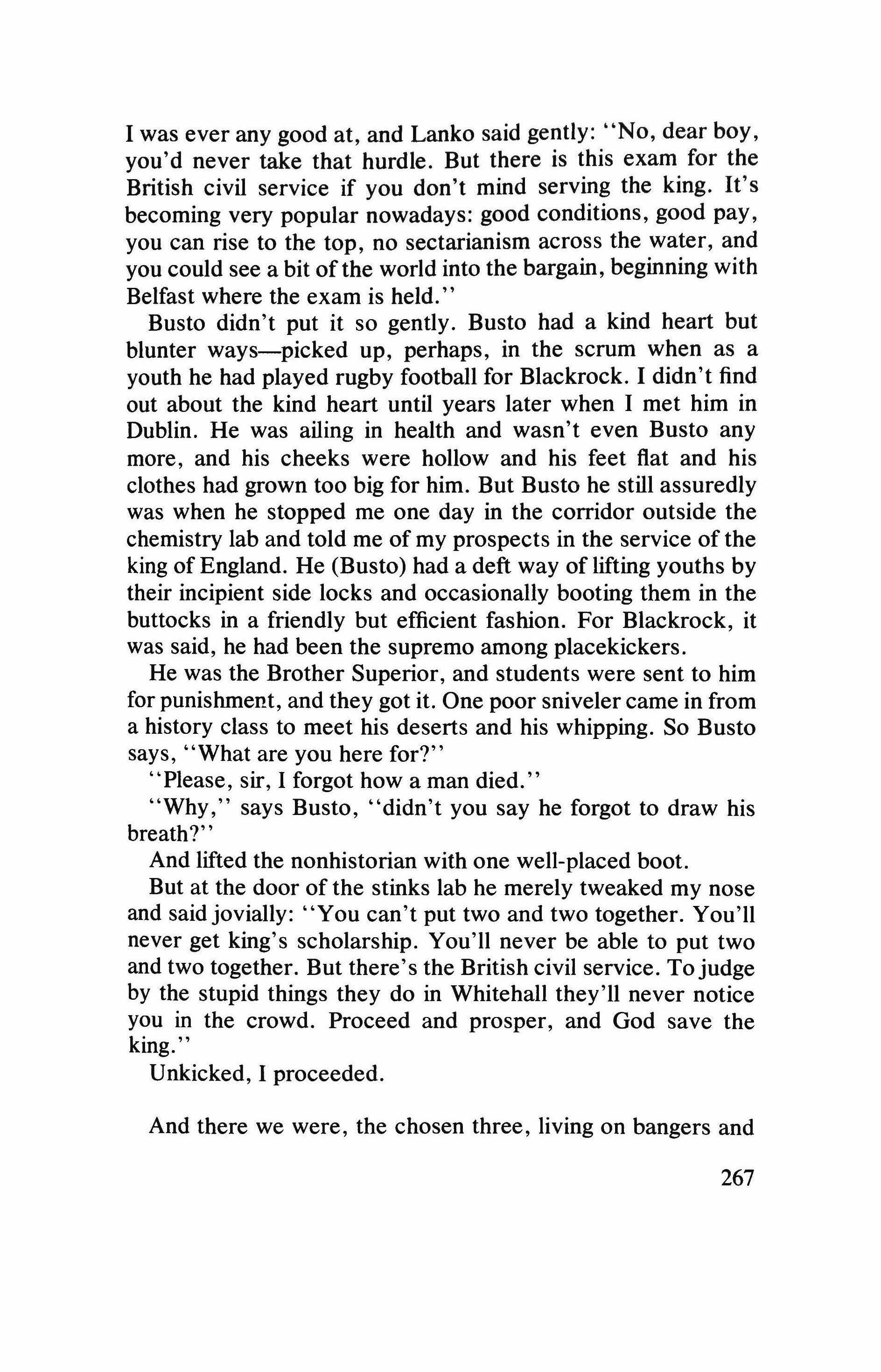
I was ever any good at, and Lanko said gently: "No, dear boy, you'd never take that hurdle. But there is this exam for the British civil service if you don't mind serving the king. It's becoming very popular nowadays: good conditions, good pay, you can rise to the top, no sectarianism across the water, and you could see a bit ofthe world into the bargain, beginning with Belfast where the exam is held.
Busto didn't put it so gently. Busto had a kind heart but blunter ways-picked up, perhaps, in the serum when as a youth he had played rugby football for Blackrock. I didn't find out about the kind heart until years later when I met him in Dublin. He was ailing in health and wasn't even Busto any more, and his cheeks were hollow and his feet flat and his clothes had grown too big for him. But Busto he still assuredly was when he stopped me one day in the corridor outside the chemistry lab and told me of my prospects in the service of the king of England. He (Busto) had a deft way of lifting youths by their incipient side locks and occasionally booting them in the buttocks in a friendly but efficient fashion. For Blackrock, it was said, he had been the supremo among placekickers.
He was the Brother Superior, and students were sent to him for punishment, and they got it. One poor sniveler came in from a history class to meet his deserts and his whipping. So Busto says, "What are you here for?"
"Please, sir, I forgot how a man died."
"Why," says Busto, "didn't you say he forgot to draw his breath?"
And lifted the nonhistorian with one well-placed boot.
But at the door of the stinks lab he merely tweaked my nose and said jovially: "You can't put two and two together. You'll never get king's scholarship. You'll never be able to put two and two together. But there's the British civil service. To judge by the stupid things they do in Whitehall they'll never notice you in the crowd. Proceed and prosper, and God save the king.
Unkicked, I proceeded.
And there we were, the chosen three, living on bangers and 267

mash and dancing with fat waitresses to the tunes of a lovely lake in London and swift wings we must borrow, make straight for the shore, and more besides. As I said, we knew the tunes already from our regular scholarly attendance at a bicycle shop, one very special bicycle shop, and for the moment we were gentlemen on the town-three fine free right feet and fellows for them, truly at large and out of the reservation for the first time in our lives, living in a hotel at the back of the city hall and studying the black driving clouds of shrieking starlings. Have the bombs, I wonder, dispersed the starlings?
For the last time I was in that hotel the screaming birds were still blackening the sky but the bombs were just beginning. Thick as night or locusts the starlings were around the city hall, and in the hotel there was no water in the taps. The hotel has changed its name now; or it may not, because of the bombs', be there any more. One new and neighboring hotel was bombed nineteen times: "Room service, how are you?" But eight years ago it was still there and had then changed its name, and I sat sipping in the lounge, looking at a pop group called the Necromancers and remembering the bright blonde hair of Trudi. Looking at, not listening to, I'm overjoyed to say, for the Necromancers were merely relaxing after their labors of the night before. A few of them were asleep or half asleep. There was little talk among them. They were possibly saving their breath for the night to come. An interestingly mixed group: West Indian, Afro-American, European, which I could see for myself; Irish and English and German, which I had been told. Two of them who were not slumbering ordered drinks-real drinks, which surprised me; I had always assumed that pop groups and show bands lived on cow's milk and pills. A slim young blonde girl from the hotel staff brought them a telegram. o the blonde head of my Trudi long ago, when rhododendrons grew around the lovely lake in London. As she bent to deliver the telegram, the girl blushed to the backs of her rnini-skirtless thighs at having been chosen for the honor of carrying a message that came through the air, to the comer where the gods reposed: no harpers those, to learn their songs and melodies in bicycle shops; red sails in the sunset I'm trusting in you.
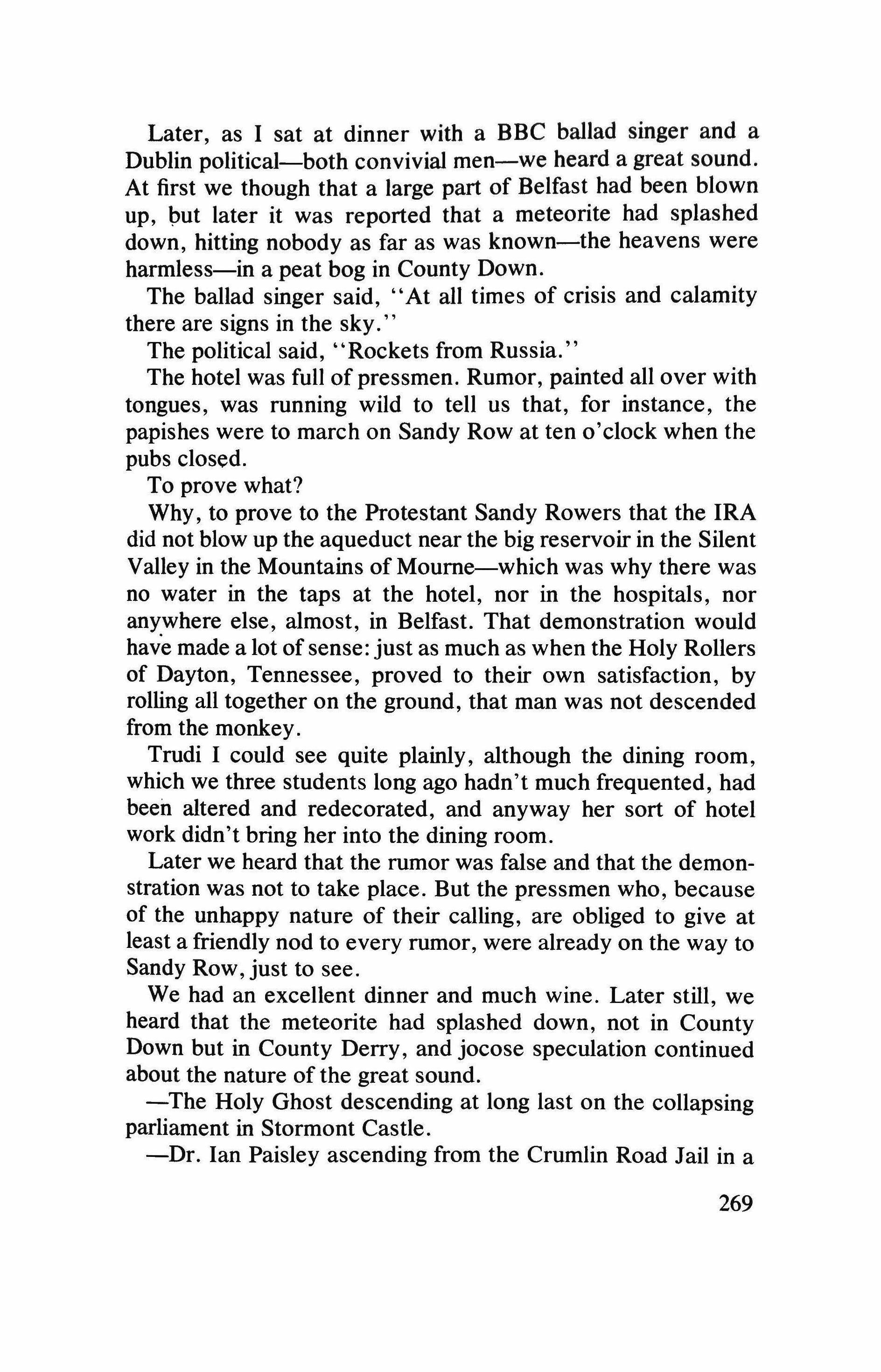
Later, as I sat at dinner with a BBC ballad singer and a Dublin political-both convivial men-we heard a great sound. At first we though that a large part of Belfast had been blown up, put later it was reported that a meteorite had splashed down, hitting nobody as far as was known-the heavens were harmless-in a peat bog in County Down.
The ballad singer said, "At all times of crisis and calamity there are signs in the sky.
The political said, "Rockets from Russia."
The hotel was full of pressmen. Rumor, painted all over with tongues, was running wild to tell us that, for instance, the papishes were to march on Sandy Row at ten 0'clock when the pubs closed.
To prove what?
Why, to prove to the Protestant Sandy Rowers that the IRA did not blow up the aqueduct near the big reservoir in the Silent Valley in the Mountains of Moume-which was why there was no water in the taps at the hotel, nor in the hospitals, nor anywhere else, almost, in Belfast. That demonstration would have made a lot of sense: just as much as when the Holy Rollers of Dayton, Tennessee, proved to their own satisfaction, by rolling all together on the ground, that man was not descended from the monkey.
Trudi I could see quite plainly, although the dining room, which we three students long ago hadn't much frequented, had been altered and redecorated, and anyway her sort of hotel work didn't bring her into the dining room.
Later we heard that the rumor was false and that the demonstration was not to take place. But the pressmen who, because of the unhappy nature of their calling, are obliged to give at least a friendly nod to every rumor, were already on the way to Sandy Row, just to see.
We had an excellent dinner and much wine. Later still, we heard that the meteorite had splashed down, not in County Down but in County Derry, and jocose speculation continued about the nature of the great sound.
-The Holy Ghost descending at long last on the collapsing parliament in Stormont Castle.
-Dr. Ian Paisley ascending from the Crumlin Road Jail in a
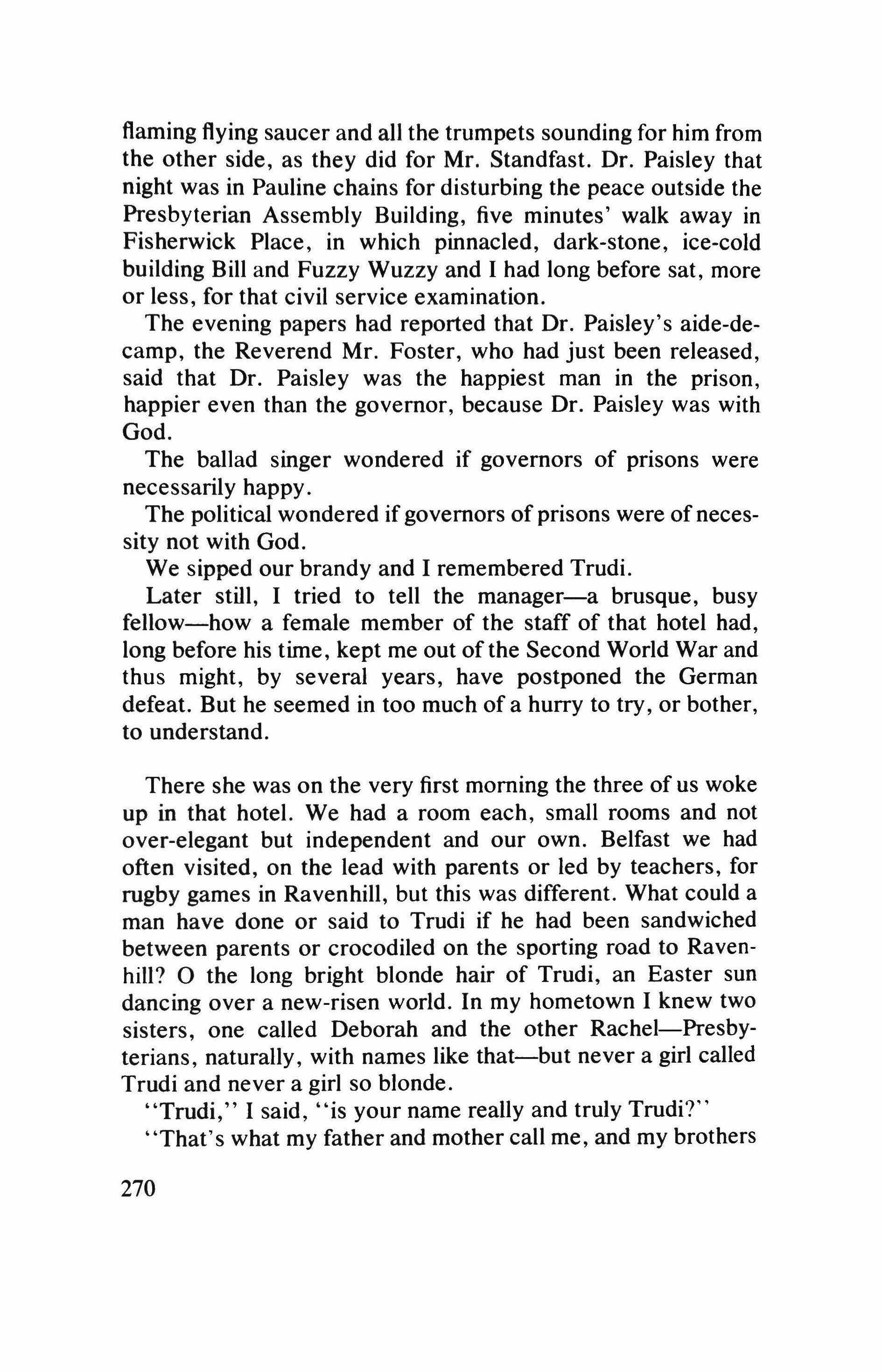
flaming flying saucer and all the trumpets sounding for him from the other side, as they did for Mr. Standfast. Dr. Paisley that night was in Pauline chains for disturbing the peace outside the Presbyterian Assembly Building, five minutes' walk away in Fisherwick Place, in which pinnacled, dark-stone, ice-cold building Bill and Fuzzy Wuzzy and I had long before sat, more or less, for that civil service examination.
The evening papers had reported that Dr. Paisley's aide-decamp, the Reverend Mr. Foster, who had just been released, said that Dr. Paisley was the happiest man in the prison, happier even than the governor, because Dr. Paisley was with God.
The ballad singer wondered if governors of prisons were necessarily happy.
The political wondered if governors of prisons were of necessity not with God.
We sipped our brandy and I remembered Trudi.
Later still, I tried to tell the manager-a brusque, busy fellow-how a female member of the staff of that hotel had, long before his time, kept me out of the Second World War and thus might, by several years, have postponed the German defeat. But he seemed in too much of a hurry to try, or bother, to understand.
There she was on the very first morning the three of us woke up in that hotel. We had a room each, small rooms and not over-elegant but independent and our own. Belfast we had often visited, on the lead with parents or led by teachers, for rugby games in Ravenhill, but this was different. What could a man have done or said to Trudi if he had been sandwiched between parents or crocodiled on the sporting road to Ravenhill? 0 the long bright blonde hair of Trudi, an Easter sun dancing over a new-risen world. In my hometown I knew two sisters, one called Deborah and the other Rachel-Presbyterians, naturally, with names like that-but never a girl called Trudi and never a girl so blonde.
"Trudi," I said, "is your name really and truly Trudi?"
"That's what my father and mother call me, and my brothers

and sisters all seven of them, and the neighbors, those who speak to me. Where I come from everybody doesn't speak to everybody.
She was a wit. She had to be, she was so beautiful.
"Do you come from Germany? Or Switzerland?" Switzerland was all hotels and mountains.
Her accent should have told me, but I hadn't traveled much at the time and all beautiful women spoke with the same accent. She was, at that moment, stripping my bed preparatory to remaking it: the lass that made the bed to me (I knew my Burns}-it was the closest that poetry had brought us to such matters. She wore a gray dress and a white apron and a funny white little hat all lost and unbalanced and lovable and comic on the crown of that shining head. Her hair was like the links 0' gowd, her teeth were like the ivorie, her cheeks like lilies dipped in wine.
"Germany," she said. "Switzerland," she said. "I couldn't spell Switzerland if you paid me. Germany I can manage."
She did, haltingly, all seven letters, music to mine ears her voice was.
No, she was from Castledawson in County Derry, not too far from where, thirty-three years later, the meteorite was to splash down, and her family name was Beatty and the Trudi came out of a magazine called Peg's Paper that her mother read. Her father kept an unlicensed bull that was worth a fortune; he worked so hard, even at half the legal price, but it was cash down, for if it wasn't some of them wouldn't pay you at all; you had no legal way of getting at them, and that was about the meanest thing she ever heard of. "Cash and carry," her father, who was a joker, said. That was the name of one of those newfangled supermarkets. On the first morning she told me about Castledawson and Beatty and Peg's Paper, but it was the third morning-we were rapidly growing closer-before she told me about the unlicensed bull, and laughed like a music box when she told me, "You should see him, the solemn face of him."
She was lovelier than the lovely lake in London, lovelier than red sails in the sunset, although Fuzzy Wuzzy would never
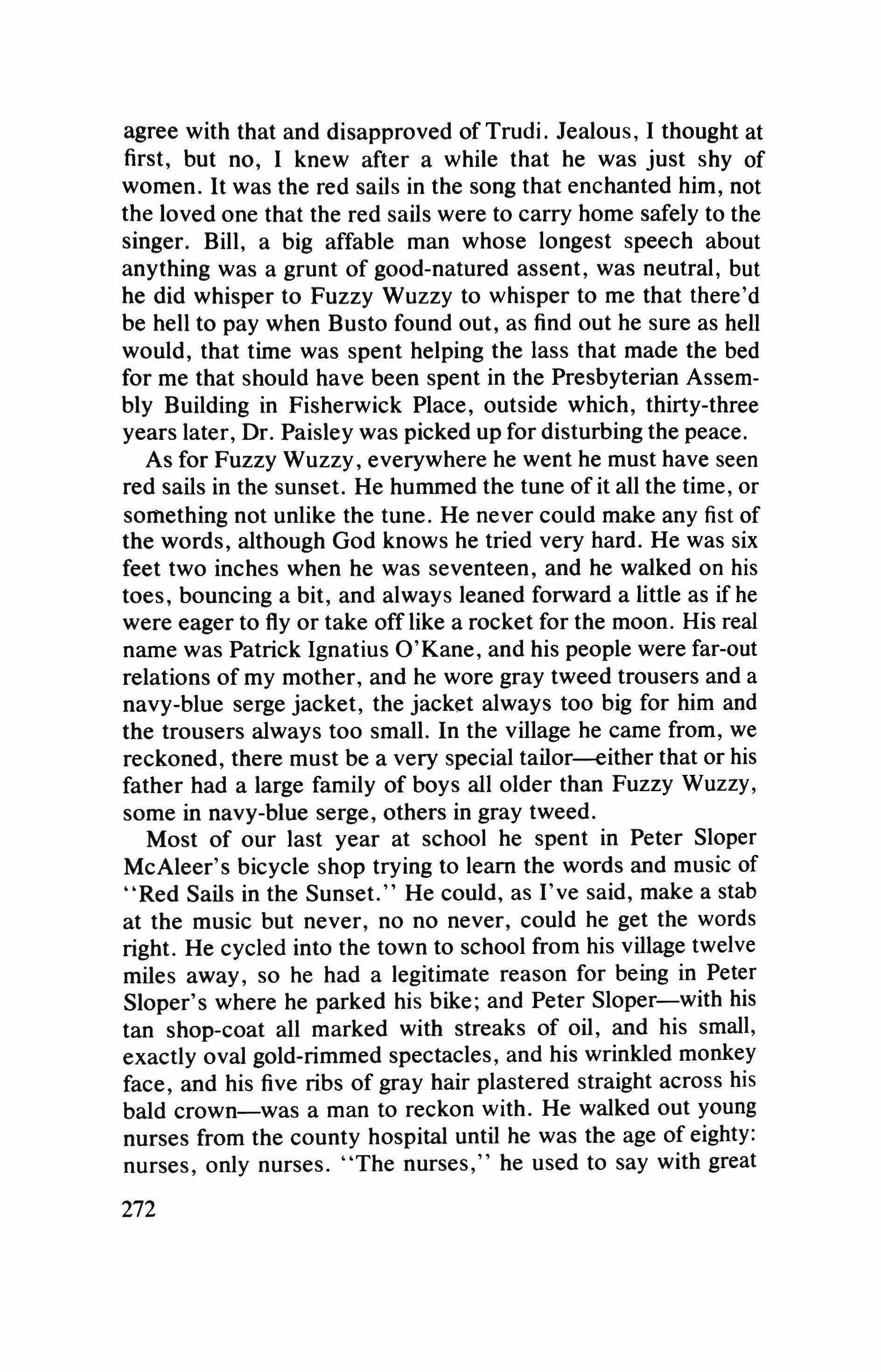
agree with that and disapproved of Trudi. Jealous, I thought at first, but no, I knew after a while that he was just shy of women. It was the red sails in the song that enchanted him, not the loved one that the red sails were to carry home safely to the singer. Bill, a big affable man whose longest speech about anything was a grunt of good-natured assent, was neutral, but he did whisper to Fuzzy Wuzzy to whisper to me that there'd be hell to pay when Busto found out, as find out he sure as hell would, that time was spent helping the lass that made the bed for me that should have been spent in the Presbyterian Assembly Building in Fisherwick Place, outside which, thirty-three years later, Dr. Paisley was picked up for disturbing the peace.
As for Fuzzy Wuzzy, everywhere he went he must have seen red sails in the sunset. He hummed the tune of it all the time, or something not unlike the tune. He never could make any fist of the words, although God knows he tried very hard. He was six feet two inches when he was seventeen, and he walked on his toes, bouncing a bit, and always leaned forward a little as if he were eager to fly or take off like a rocket for the moon. His real name was Patrick Ignatius O'Kane, and his people were far-out relations of my mother, and he wore gray tweed trousers and a navy-blue serge jacket, the jacket always too big for him and the trousers always too small. In the village he came from, we reckoned, there must be a very special tailor-either that or his father had a large family of boys all older than Fuzzy Wuzzy, some in navy-blue serge, others in gray tweed.
Most of our last year at school he spent in Peter Sloper McAleer's bicycle shop trying to learn the words and music of "Red Sails in the Sunset." He could, as I've said, make a stab at the music but never, no no never, could he get the words right. He cycled into the town to school from his village twelve miles away, so he had a legitimate reason for being in Peter Sloper's where he parked his bike; and Peter Sloper-with his tan shop-coat all marked with streaks of oil, and his small, exactly oval gold-rimmed spectacles, and his wrinkled monkey face, and his five ribs of gray hair plastered straight across his bald crown-was a man to reckon with. He walked out young nurses from the county hospital until he was the age of eighty: nurses, only nurses. "The nurses," he used to say with great 272
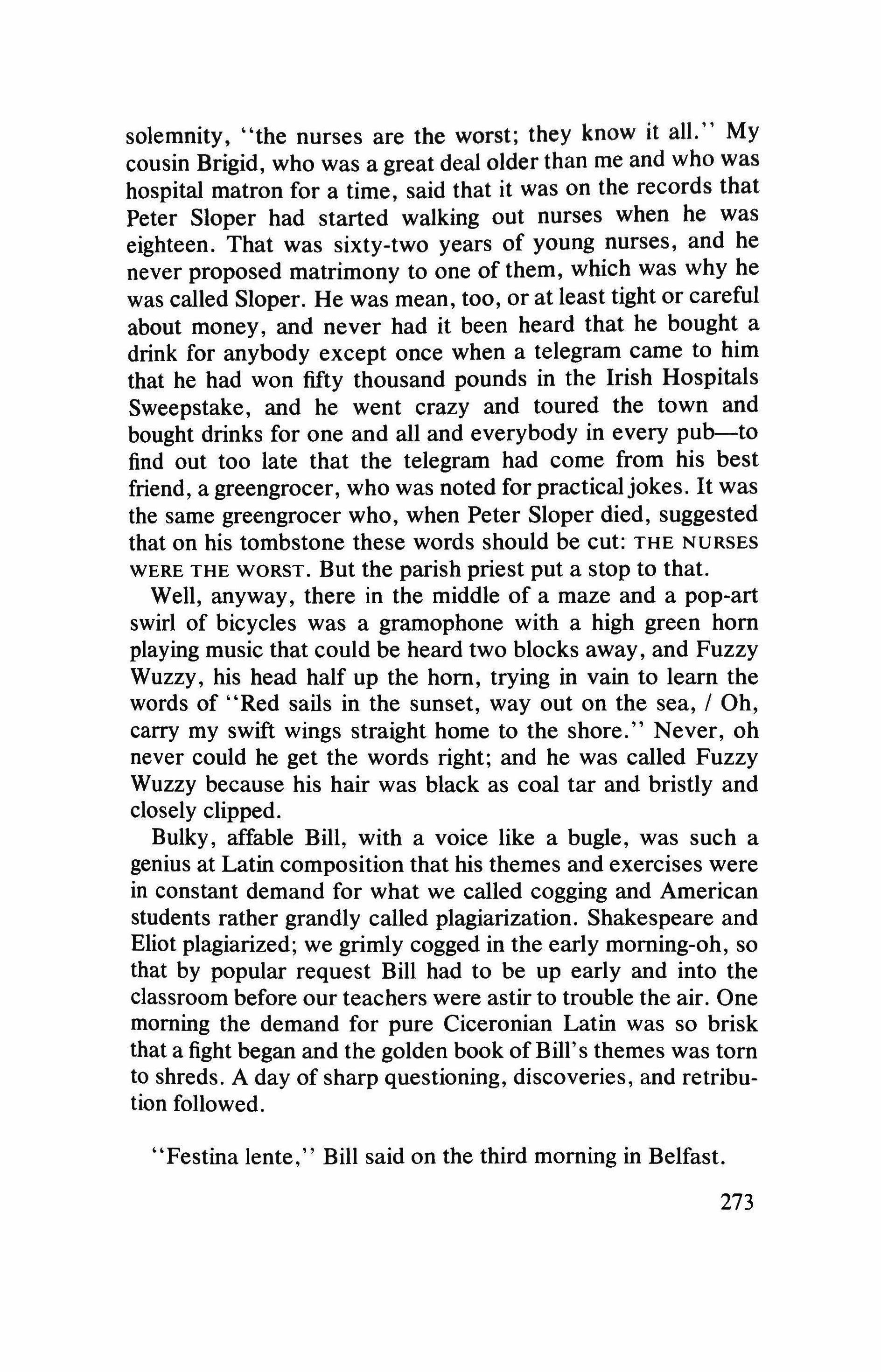
solemnity, "the nurses are the worst; they know it all." My cousin Brigid, who was a great deal older than me and who was hospital matron for a time, said that it was on the records that Peter Sloper had started walking out nurses when he was eighteen. That was sixty-two years of young nurses, and he never proposed matrimony to one of them, which was why he was called Sloper. He was mean, too, or at least tight or careful about money, and never had it been heard that he bought a drink for anybody except once when a telegram came to him that he had won fifty thousand pounds in the Irish Hospitals Sweepstake, and he went crazy and toured the town and bought drinks for one and all and everybody in every pub-to find out too late that the telegram had come from his best friend, a greengrocer, who was noted for practicaljokes. It was the same greengrocer who, when Peter Sloper died, suggested that on his tombstone these words should be cut: THE NURSES WERE THE WORST. But the parish priest put a stop to that.
Well, anyway, there in the middle of a maze and a pop-art swirl of bicycles was a gramophone with a high green hom playing music that could be heard two blocks away, and Fuzzy Wuzzy, his head half up the hom, trying in vain to learn the words of "Red sails in the sunset, way out on the sea, / Oh, carry my swift wings straight home to the shore." Never, oh never could he get the words right; and he was called Fuzzy Wuzzy because his hair was black as coal tar and bristly and closely clipped.
Bulky, affable Bill, with a voice like a bugle, was such a genius at Latin composition that his themes and exercises were in constant demand for what we called cogging and American students rather grandly called plagiarization. Shakespeare and Eliot plagiarized; we grimly cogged in the early morning-oh, so that by popular request Bill had to be up early and into the classroom before our teachers were astir to trouble the air. One morning the demand for pure Ciceronian Latin was so brisk that a fight began and the golden book of Bill's themes was tom to shreds. A day of sharp questioning, discoveries, and retribution followed.
"Festina lente," Bill said on the third morning in Belfast.
273
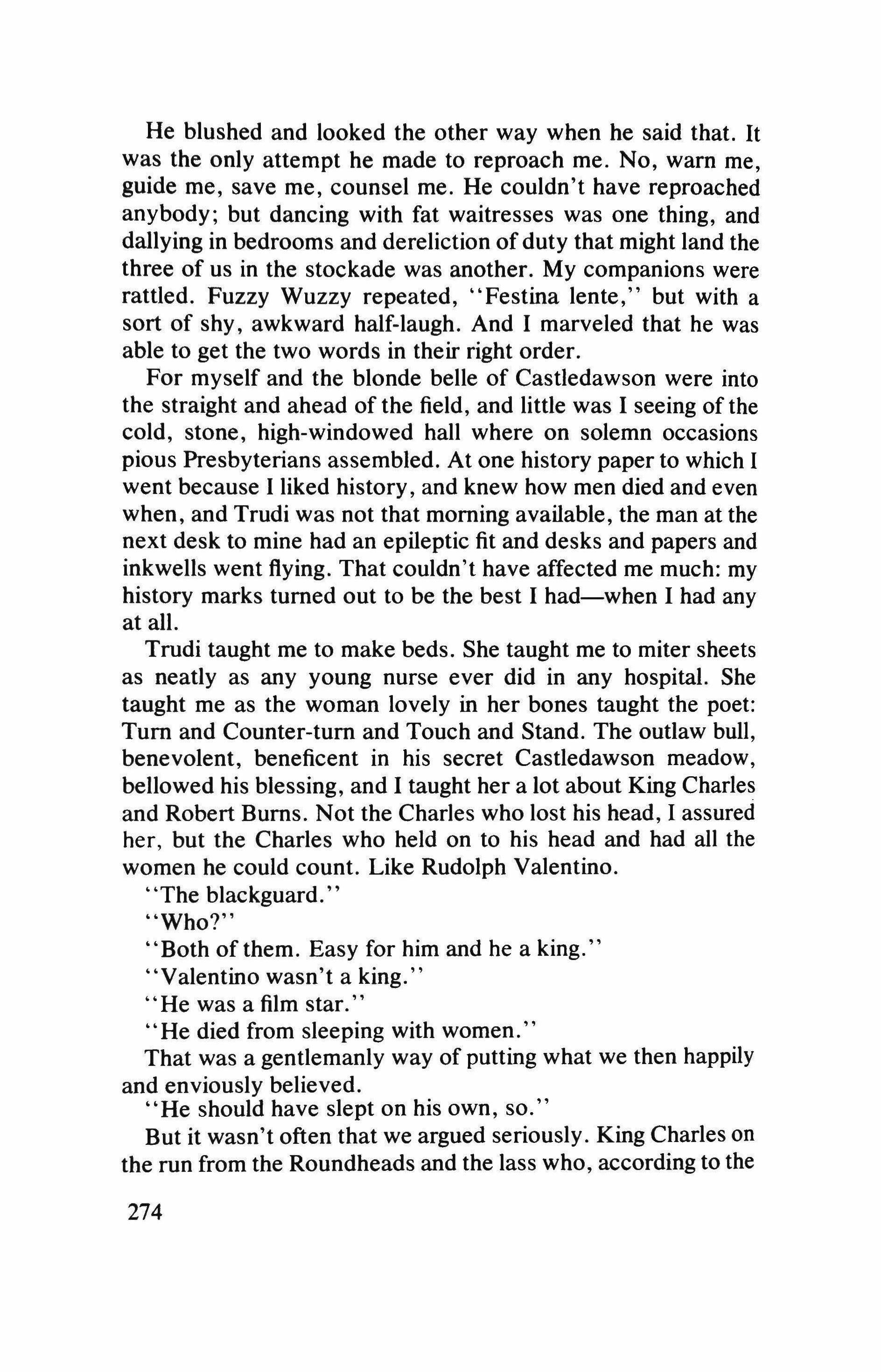
He blushed and looked the other way when he said that. It was the only attempt he made to reproach me. No, warn me, guide me, save me, counsel me. He couldn't have reproached anybody; but dancing with fat waitresses was one thing, and dallying in bedrooms and dereliction of duty that might land the three of us in the stockade was another. My companions were rattled. Fuzzy Wuzzy repeated, "Festina lente," but with a sort of shy, awkward half-laugh. And I marveled that he was able to get the two words in their right order.
For myself and the blonde belle of Castledawson were into the straight and ahead of the field, and little was I seeing of the cold, stone, high-windowed hall where on solemn occasions pious Presbyterians assembled. At one history paper to which I went because I liked history, and knew how men died and even when, and Trudi was not that morning available, the man at the next desk to mine had an epileptic fit and desks and papers and inkwells went flying. That couldn't have affected me much: my history marks turned out to be the best I had-when I had any at all.
Trudi taught me to make beds. She taught me to miter sheets as neatly as any young nurse ever did in any hospital. She taught me as the woman lovely in her bones taught the poet: Turn and Counter-turn and Touch and Stand. The outlaw bull, benevolent, beneficent in his secret Castledawson meadow, bellowed his blessing, and I taught her a lot about King Charles and Robert Burns. Not the Charles who lost his head, I assured her, but the Charles who held on to his head and had all the women he could count. Like Rudolph Valentino.
"The blackguard.
"Who?"
"Both of them. Easy for him and he a king."
"Valentino wasn't a king."
"He was a film star."
"He died from sleeping with women."
That was a gentlemanly way of putting what we then happily and enviously believed.
"He should have slept on his own, so."
But it wasn't often that we argued seriously. King Charles on the run from the Roundheads and the lass who, according to the
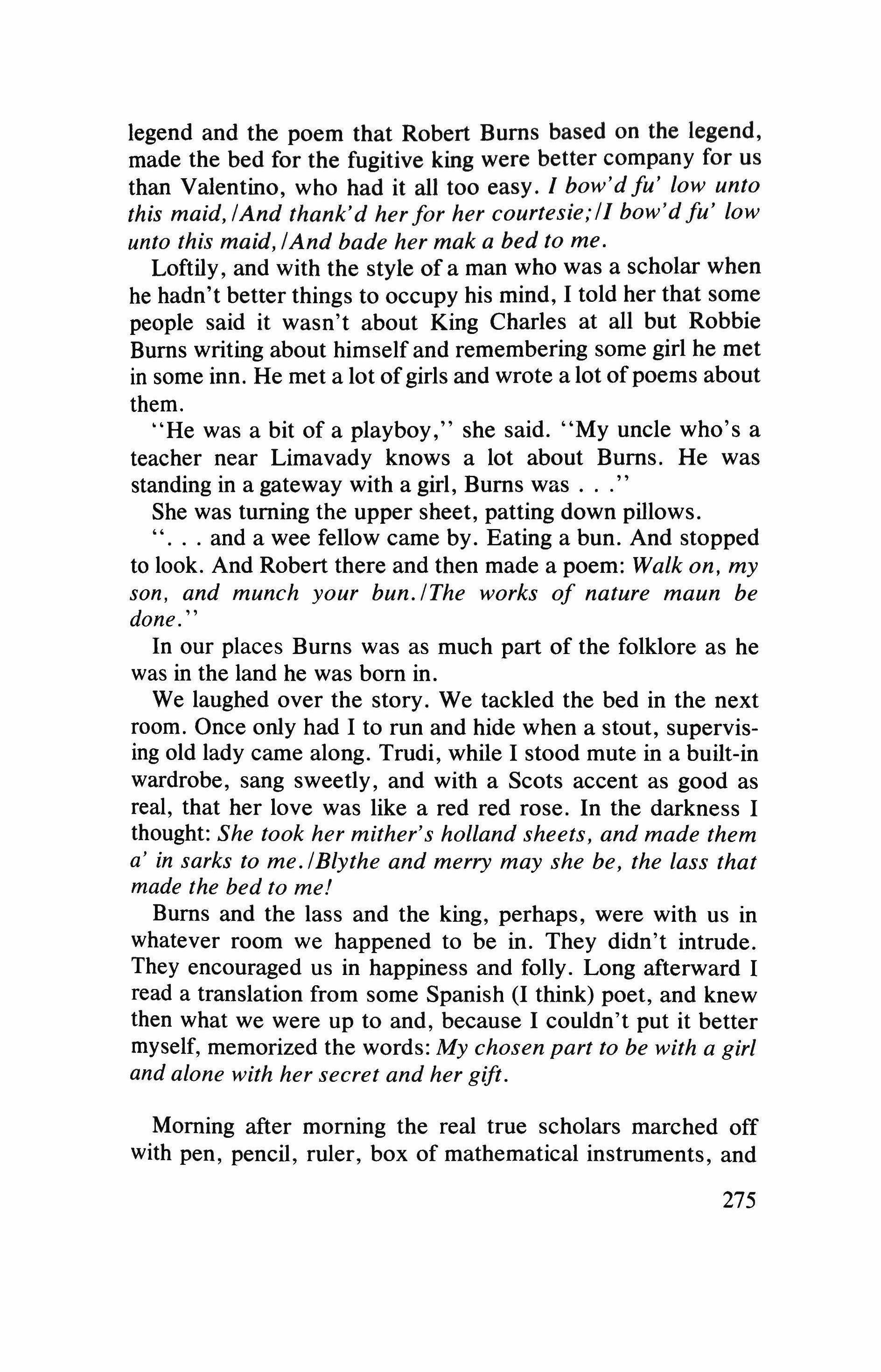
legend and the poem that Robert Bums based on the legend, made the bed for the fugitive king were better company for us than Valentino, who had it all too easy. I bow'd fu' low unto this maid.lAnd thank'd herfor her courtesie;l/ bow'dfu' low unto this maid, IAnd bade her mak a bed to me.
Loftily, and with the style of a man who was a scholar when he hadn't better things to occupy his mind, I told her that some people said it wasn't about King Charles at all but Robbie Bums writing about himself and remembering some girl he met in some inn. He met a lot ofgirls and wrote a lot ofpoems about them.
"He was a bit of a playboy," she said. "My uncle who's a teacher near Limavady knows a lot about Bums. He was standing in a gateway with a girl, Bums was She was turning the upper sheet, patting down pillows. and a wee fellow came by. Eating a bun. And stopped to look. And Robert there and then made a poem: Walk on, my son, and munch your bun.IThe works of nature maun be done."
In our places Burns was as much part of the folklore as he was in the land he was born in.
We laughed over the story. We tackled the bed in the next room. Once only had I to run and hide when a stout, supervising old lady came along. Trudi, while I stood mute in a built-in wardrobe, sang sweetly, and with a Scots accent as good as real, that her love was like a red red rose. In the darkness I thought: She took her mither's holland sheets, and made them a' in sarks to me. IBlythe and merry may she be, the lass that made the bed to me!
Bums and the lass and the king, perhaps, were with us in whatever room we happened to be in. They didn't intrude. They encouraged us in happiness and folly. Long afterward I read a translation from some Spanish (I think) poet, and knew then what we were up to and, because I couldn't put it better myself, memorized the words: My chosen part to be with a girl and alone with her secret and her gift.
Morning after morning the real true scholars marched off with pen, pencil, ruler, box of mathematical instruments, and 275
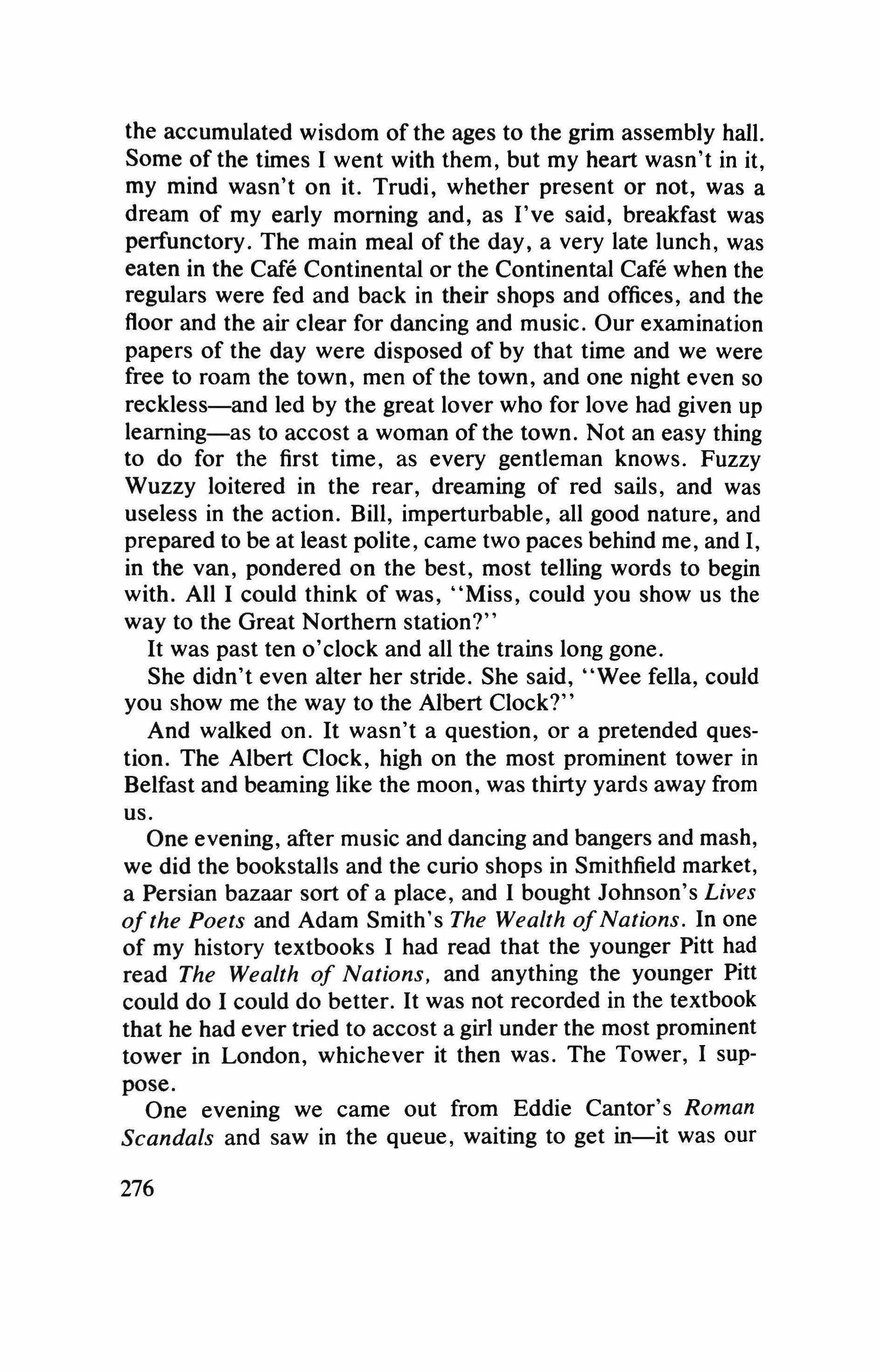
the accumulated wisdom of the ages to the grim assembly hall. Some of the times I went with them, but my heart wasn't in it, my mind wasn't on it. Trudi, whether present or not, was a dream of my early morning and, as I've said, breakfast was perfunctory. The main meal of the day, a very late lunch, was eaten in the Cafe Continental or the Continental Cafe when the regulars were fed and back in their shops and offices, and the floor and the air clear for dancing and music. Our examination papers of the day were disposed of by that time and we were free to roam the town, men of the town, and one night even so reckless-and led by the great lover who for love had given up learning-as to accost a woman of the town. Not an easy thing to do for the first time, as every gentleman knows. Fuzzy Wuzzy loitered in the rear, dreaming of red sails, and was useless in the action. Bill, imperturbable, all good nature, and prepared to be at least polite, came two paces behind me, and I, in the van, pondered on the best, most telling words to begin with. All I could think of was, "Miss, could you show us the way to the Great Northern station?"
It was past ten o'clock and all the trains long gone.
She didn't even alter her stride. She said, "Wee fella, could you show me the way to the Albert Clock?"
And walked on. It wasn't a question, or a pretended question. The Albert Clock, high on the most prominent tower in Belfast and beaming like the moon, was thirty yards away from us.
One evening, after music and dancing and bangers and mash, we did the bookstalls and the curio shops in Smithfield market, a Persian bazaar sort of a place, and I bought Johnson's Lives ofthe Poets and Adam Smith's The Wealth ofNations. In one of my history textbooks I had read that the younger Pitt had read The Wealth of Nations, and anything the younger Pitt could do I could do better. It was not recorded in the textbook that he had ever tried to accost a girl under the most prominent tower in London, whichever it then was. The Tower, I suppose.
One evening we came out from Eddie Cantor's Roman Scandals and saw in the queue, waiting to get in-it was our
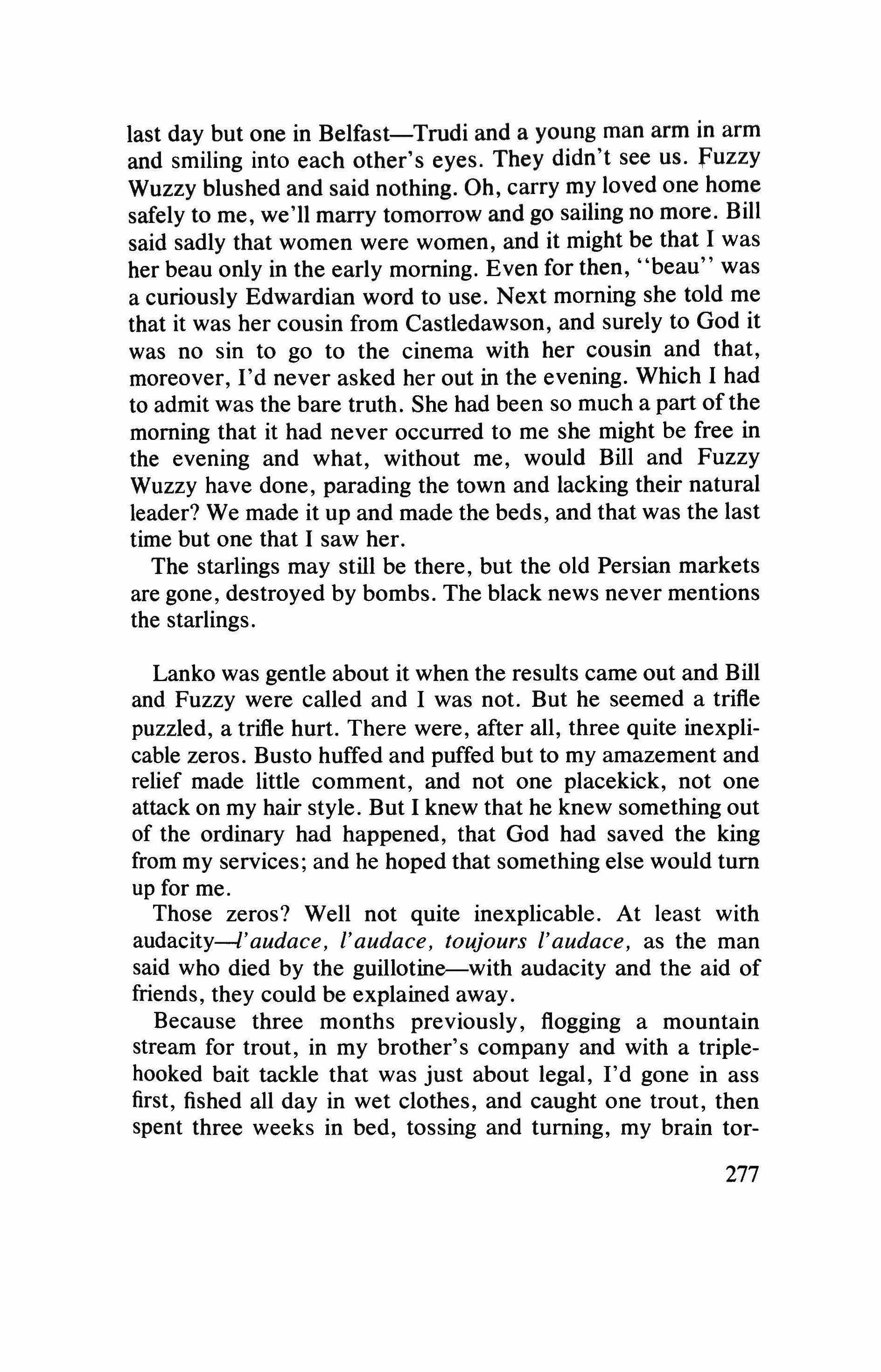
last day but one in Belfast-Trudi and a young man arm in arm and smiling into each other's eyes. They didn't see us. fuzzy Wuzzy blushed and said nothing. Oh, carry my loved one home safely to me, we'll marry tomorrow and go sailing no more. Bill said sadly that women were women, and it might be that I was her beau only in the early morning. Even for then, "beau" was a curiously Edwardian word to use. Next morning she told me that it was her cousin from Castledawson, and surely to God it was no sin to go to the cinema with her cousin and that, moreover, I'd never asked her out in the evening. Which I had to admit was the bare truth. She had been so much a part of the morning that it had never occurred to me she might be free in the evening and what, without me, would Bill and Fuzzy Wuzzy have done, parading the town and lacking their natural leader? We made it up and made the beds, and that was the last time but one that I saw her.
The starlings may still be there, but the old Persian markets are gone, destroyed by bombs. The black news never mentions the starlings.
Lanko was gentle about it when the results came out and Bill and Fuzzy were called and I was not. But he seemed a trifle puzzled, a trifle hurt. There were, after all, three quite inexplicable zeros. Busto huffed and puffed but to my amazement and relief made little comment, and not one placekick, not one attack on my hair style. But I knew that he knew something out of the ordinary had happened, that God had saved the king from my services; and he hoped that something else would tum up for me.
Those zeros? Well not quite inexplicable. At least with audacity-l'audace, l'audace, toujours l'audace, as the man said who died by the guillotine-with audacity and the aid of friends, they could be explained away.
Because three months previously, flogging a mountain stream for trout, in my brother's company and with a triplehooked bait tackle that was just about legal, I'd gone in ass first, fished all day in wet clothes, and caught one trout, then spent three weeks in bed, tossing and turning, my brain tor-
277
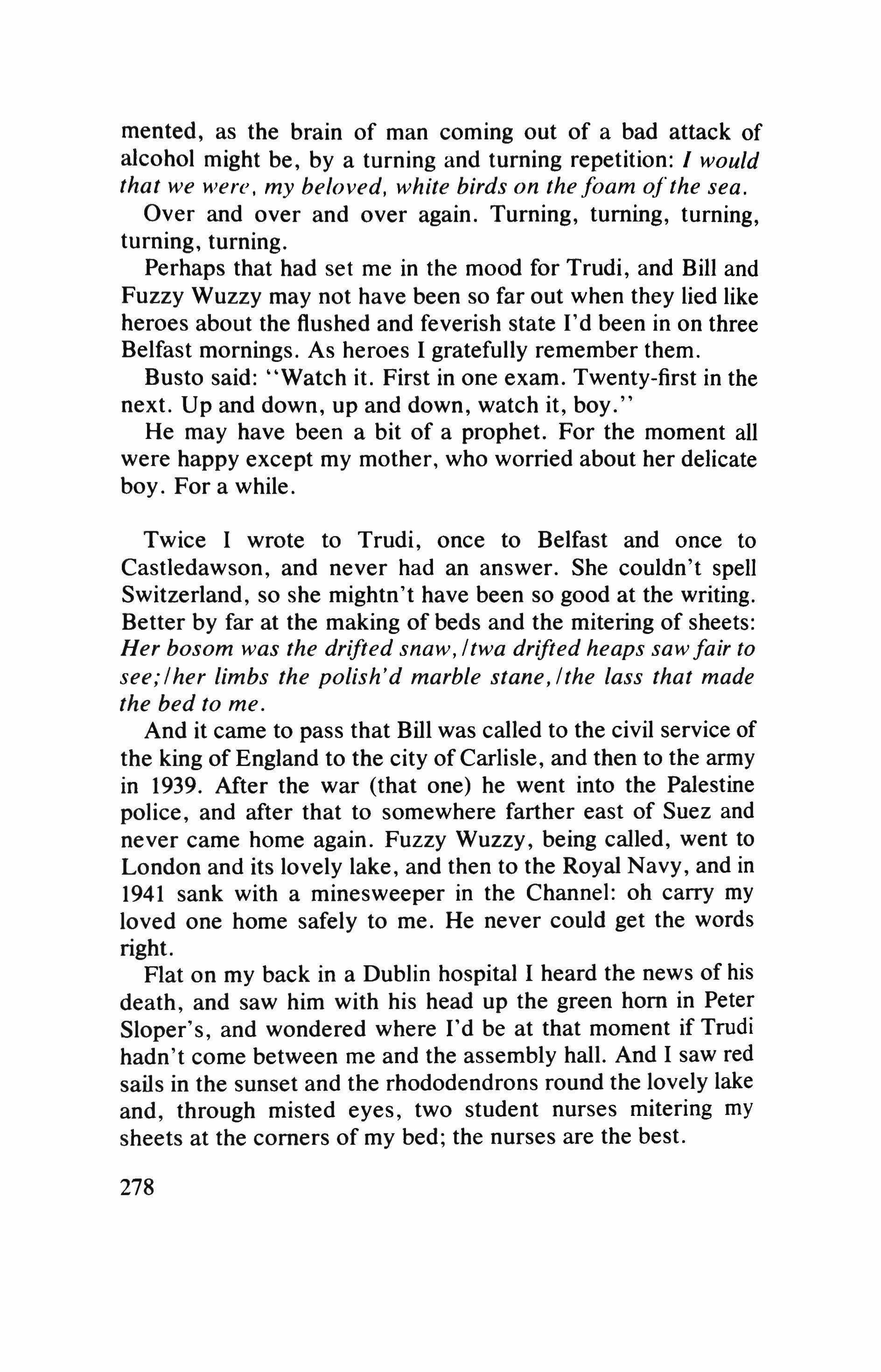
mented, as the brain of man coming out of a bad attack of alcohol might be, by a turning and turning repetition: I would that we were, my beloved, white birds on the foam ofthe sea.
Over and over and over again. Turning, turning, turning, turning, turning.
Perhaps that had set me in the mood for Trudi, and Bill and Fuzzy Wuzzy may not have been so far out when they lied like heroes about the flushed and feverish state I'd been in on three Belfast mornings. As heroes I gratefully remember them.
Busto said: "Watch it. First in one exam. Twenty-first in the next. Up and down, up and down, watch it, boy."
He may have been a bit of a prophet. For the moment all were happy except my mother, who worried about her delicate boy. For a while.
Twice I wrote to Trudi, once to Belfast and once to Castledawson, and never had an answer. She couldn't spell Switzerland, so she mightn't have been so good at the writing. Better by far at the making of beds and the mitering of sheets: Her bosom was the drifted snaw, Itwa drifted heaps saw fair to see;lher limbs the polish'd marble stane,lthe lass that made the bed to me.
And it came to pass that Bill was called to the civil service of the king of England to the city of Carlisle, and then to the army in 1939. After the war (that one) he went into the Palestine police, and after that to somewhere farther east of Suez and never came home again. Fuzzy Wuzzy, being called, went to London and its lovely lake, and then to the Royal Navy, and in 1941 sank with a minesweeper in the Channel: oh carry my loved one home safely to me. He never could get the words right.
Flat on my back in a Dublin hospital I heard the news of his death, and saw him with his head up the green hom in Peter Sloper's, and wondered where I'd be at that moment if Trudi hadn't come between me and the assembly hall. And I saw red sails in the sunset and the rhododendrons round the lovely lake and, through misted eyes, two student nurses mitering my sheets at the comers of my bed; the nurses are the best. 278
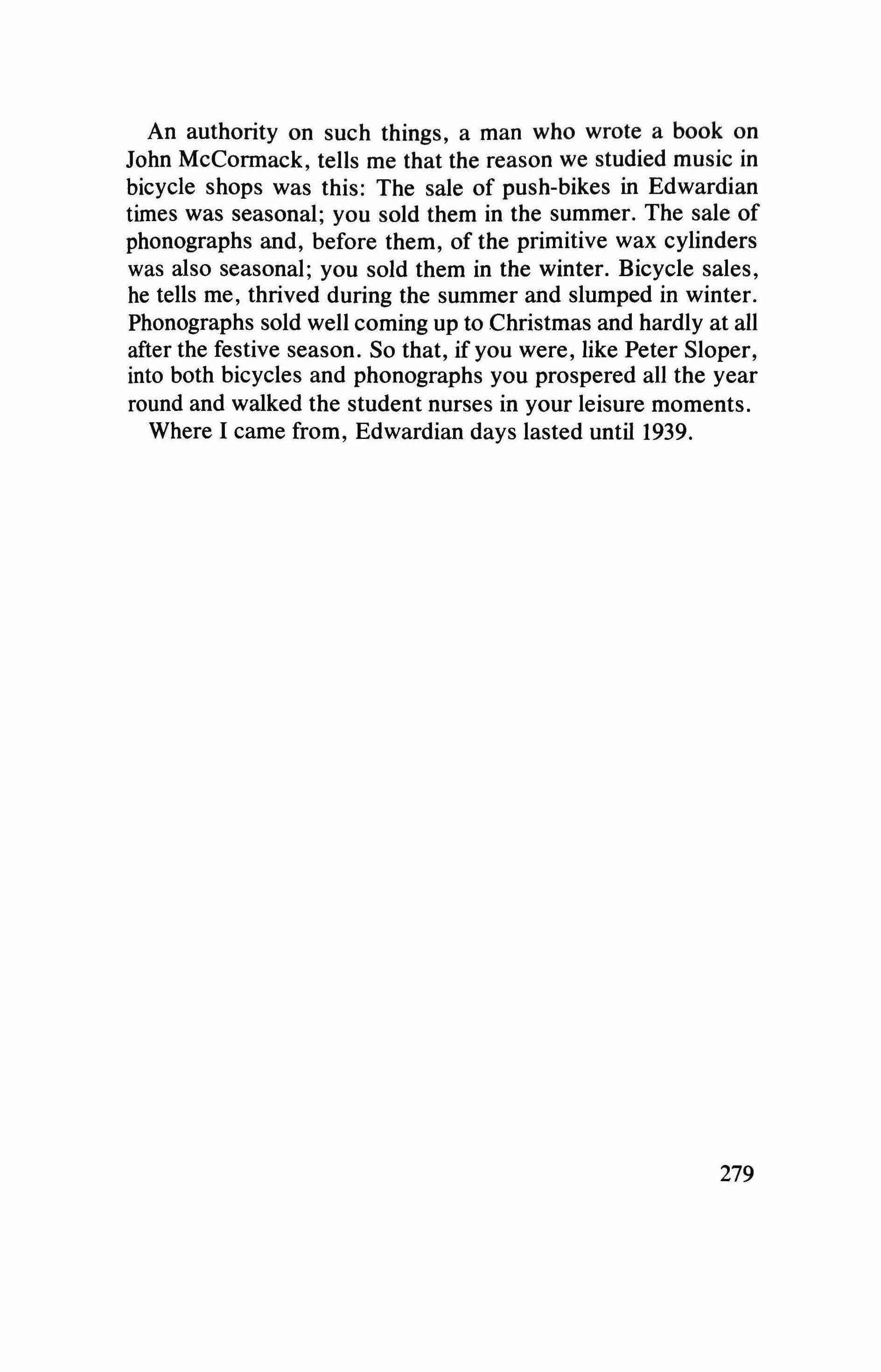
An authority on such things, a man who wrote a book on John McCormack, tells me that the reason we studied music in bicycle shops was this: The sale of push-bikes in Edwardian times was seasonal; you sold them in the summer. The sale of phonographs and, before them, of the primitive wax cylinders was also seasonal; you sold them in the winter. Bicycle sales, he tells me, thrived during the summer and slumped in winter. Phonographs sold well coming up to Christmas and hardly at all after the festive season. So that, if you were, like Peter Sloper, into both bicycles and phonographs you prospered all the year round and walked the student nurses in your leisure moments. Where I came from, Edwardian days lasted until 1939.
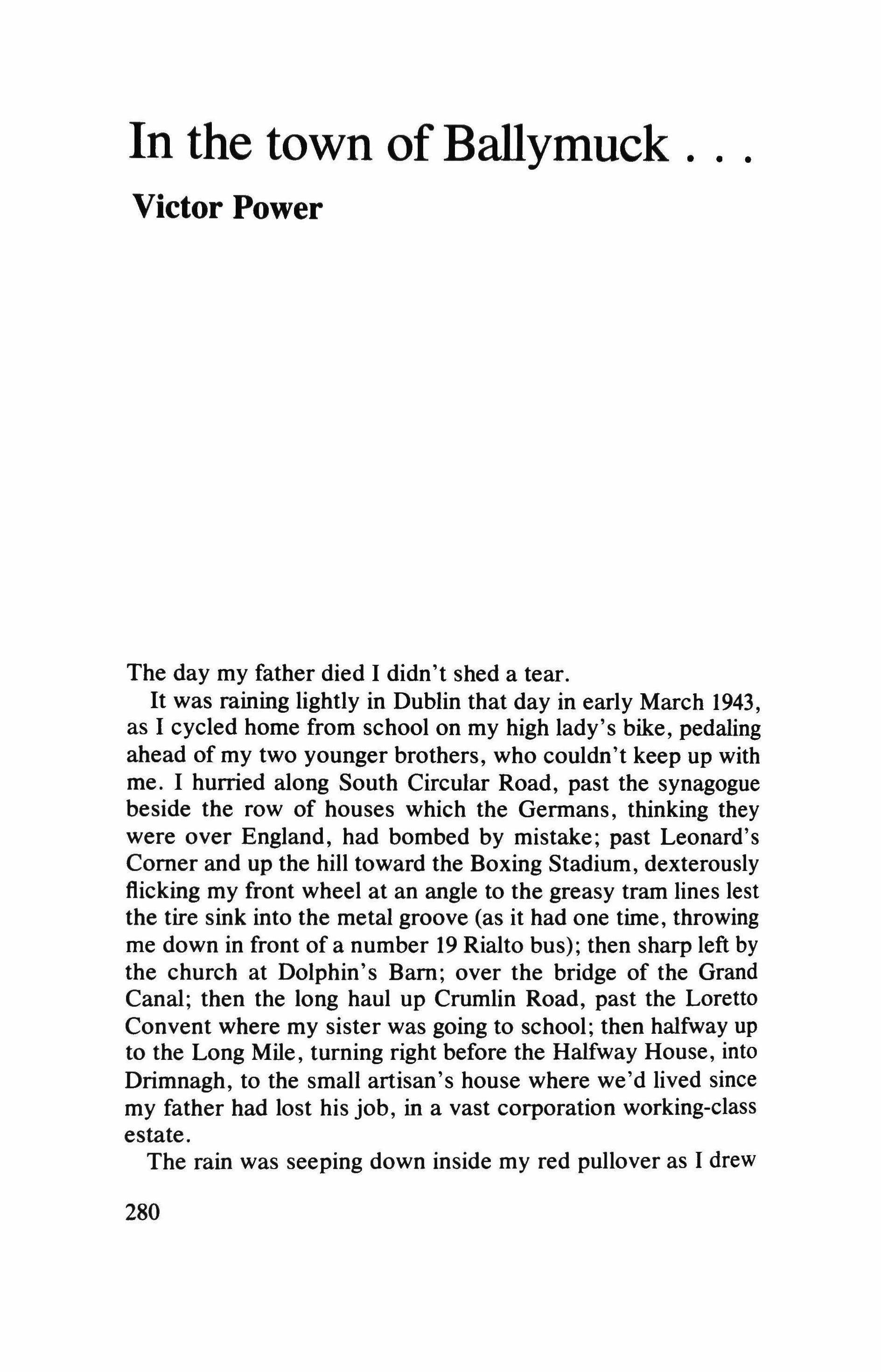
The day my father died I didn't shed a tear. It was raining lightly in Dublin that day in early March 1943, as I cycled home from school on my high lady's bike, pedaling ahead of my two younger brothers, who couldn't keep up with me. I hurried along South Circular Road, past the synagogue beside the row of houses which the Germans, thinking they were over England, had bombed by mistake; past Leonard's Comer and up the hill toward the Boxing Stadium, dexterously flicking my front wheel at an angle to the greasy tram lines lest the tire sink into the metal groove (as it had one time, throwing me down in front of a number 19 Rialto bus); then sharp left by the church at Dolphin's Bam; over the bridge of the Grand Canal; then the long haul up Crumlin Road, past the Loretto Convent where my sister was going to school; then halfway up to the Long Mile, turning right before the Halfway House, into Drimnagh, to the small artisan's house where we'd lived since my father had lost his job, in a vast corporation working-class estate.
The rain was seeping down inside my red pullover as I drew 280
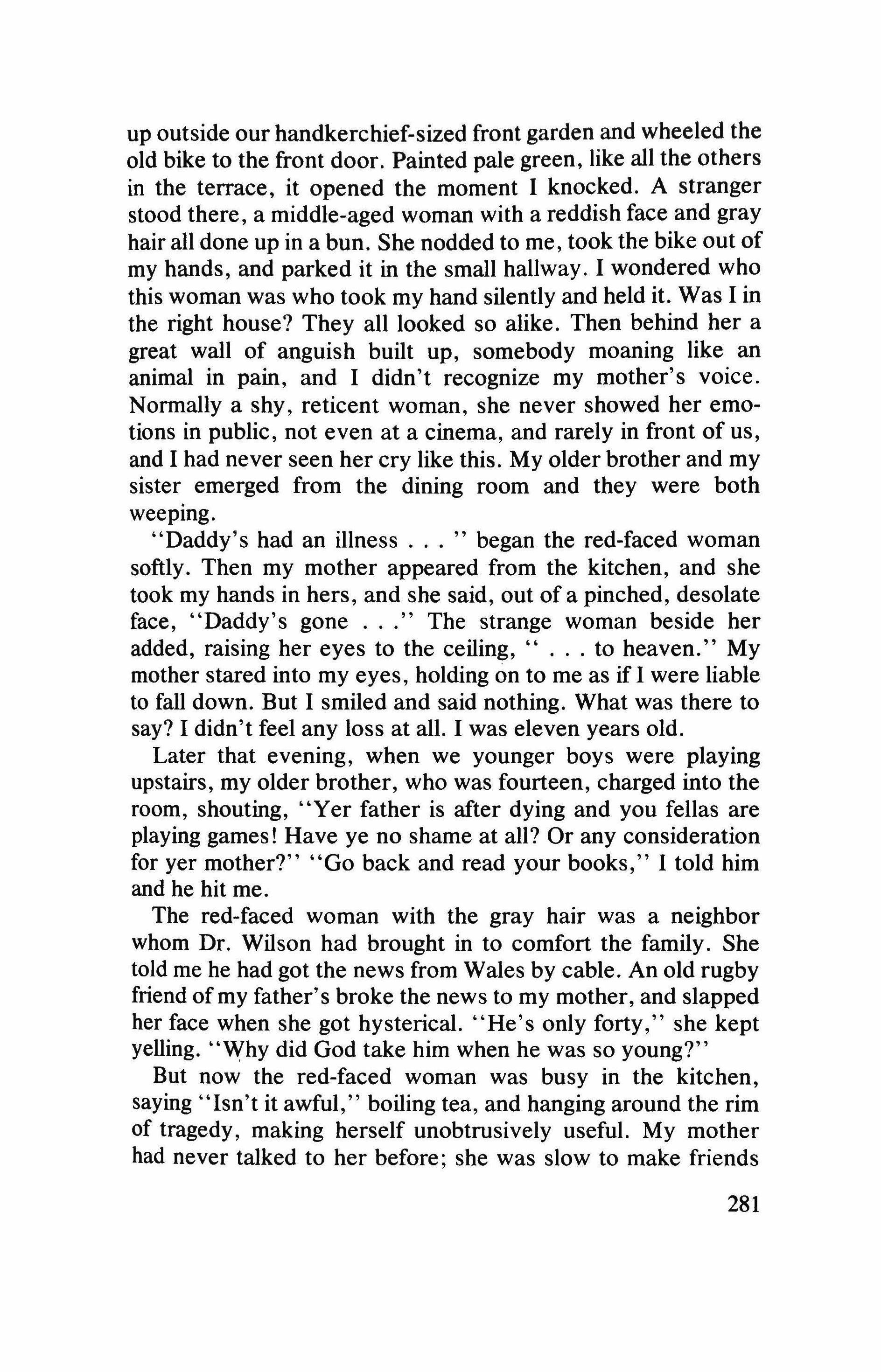
up outside our handkerchief-sized front garden and wheeled the old bike to the front door. Painted pale green, like all the others in the terrace, it opened the moment I knocked. A stranger stood there, a middle-aged woman with a reddish face and gray hair all done up in a bun. She nodded to me, took the bike out of my hands, and parked it in the small hallway. I wondered who this woman was who took my hand silently and held it. Was I in the right house? They all looked so alike. Then behind her a great wall of anguish built up, somebody moaning like an animal in pain, and I didn't recognize my mother's voice. Normally a shy, reticent woman, she never showed her emotions in public, not even at a cinema, and rarely in front of us, and I had never seen her cry like this. My older brother and my sister emerged from the dining room and they were both weeping.
"Daddy's had an illness began the red-faced woman softly. Then my mother appeared from the kitchen, and she took my hands in hers, and she said, out of a pinched, desolate face, "Daddy's gone The strange woman beside her added, raising her eyes to the ceiling, .•... to heaven." My mother stared into my eyes, holding on to me as if I were liable to fall down. But I smiled and said nothing. What was there to say? I didn't feel any loss at all. I was eleven years old.
Later that evening, when we younger boys were playing upstairs, my older brother, who was fourteen, charged into the room, shouting, "Yer father is after dying and you fellas are playing games! Have ye no shame at all? Or any consideration for yer mother?" "Go back and read your books," I told him and he hit me.
The red-faced woman with the gray hair was a neighbor whom Dr. Wilson had brought in to comfort the family. She told me he had got the news from Wales by cable. An old rugby friend of my father's broke the news to my mother, and slapped her face when she got hysterical.•.He's only forty," she kept yelling. "Why did God take him when he was so young?"
But now the red-faced woman was busy in the kitchen, saying "Isn't it awful," boiling tea, and hanging around the rim of tragedy, making herself unobtrusively useful. My mother had never talked to her before; she was slow to make friends
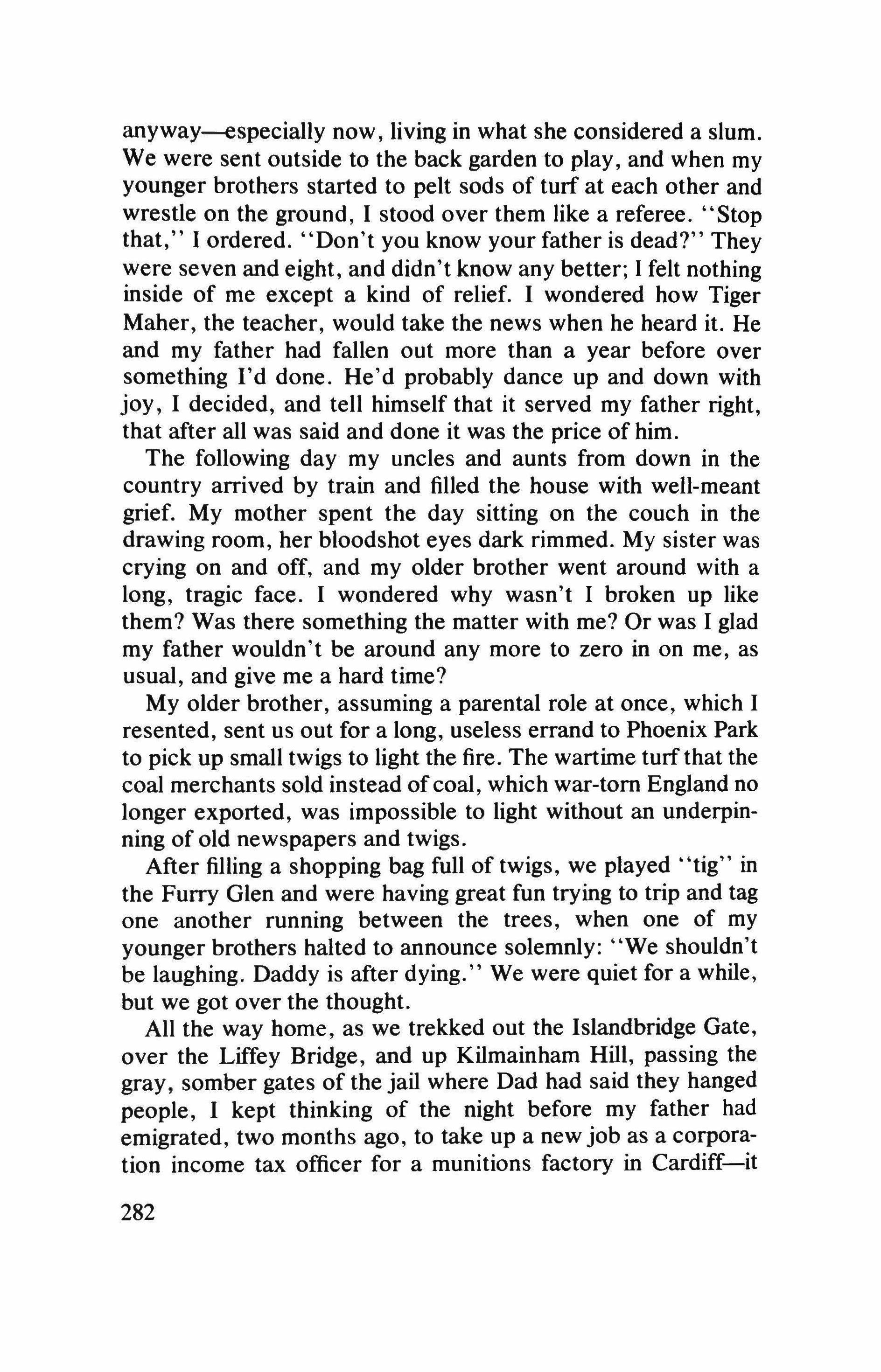
anyway-especially now, living in what she considered a slum. We were sent outside to the back garden to play, and when my younger brothers started to pelt sods of turf at each other and wrestle on the ground, I stood over them like a referee. "Stop that," I ordered. "Don't you know your father is dead?" They were seven and eight, and didn't know any better; I felt nothing inside of me except a kind of relief. I wondered how Tiger Maher, the teacher, would take the news when he heard it. He and my father had fallen out more than a year before over something I'd done. He'd probably dance up and down with joy, I decided, and tell himself that it served my father right, that after all was said and done it was the price of him.
The following day my uncles and aunts from down in the country arrived by train and filled the house with well-meant grief. My mother spent the day sitting on the couch in the drawing room, her bloodshot eyes dark rimmed. My sister was crying on and off, and my older brother went around with a long, tragic face. I wondered why wasn't I broken up like them? Was there something the matter with me? Or was I glad my father wouldn't be around any more to zero in on me, as usual, and give me a hard time?
My older brother, assuming a parental role at once, which I resented, sent us out for a long, useless errand to Phoenix Park to pick up small twigs to light the fire. The wartime turf that the coal merchants sold instead ofcoal, which war-tom England no longer exported, was impossible to light without an underpinning of old newspapers and twigs.
After filling a shopping bag full of twigs, we played "tig" in the Furry Glen and were having great fun trying to trip and tag one another running between the trees, when one of my younger brothers halted to announce solemnly: "We shouldn't be laughing. Daddy is after dying." We were quiet for a while, but we got over the thought.
All the way home, as we trekked out the Islandbridge Gate, over the Liffey Bridge, and up Kilmainham Hill, passing the gray, somber gates of the jail where Dad had said they hanged people, I kept thinking of the night before my father had emigrated, two months ago, to take up a new job as a corporation income tax officer for a munitions factory in Cardiff-it
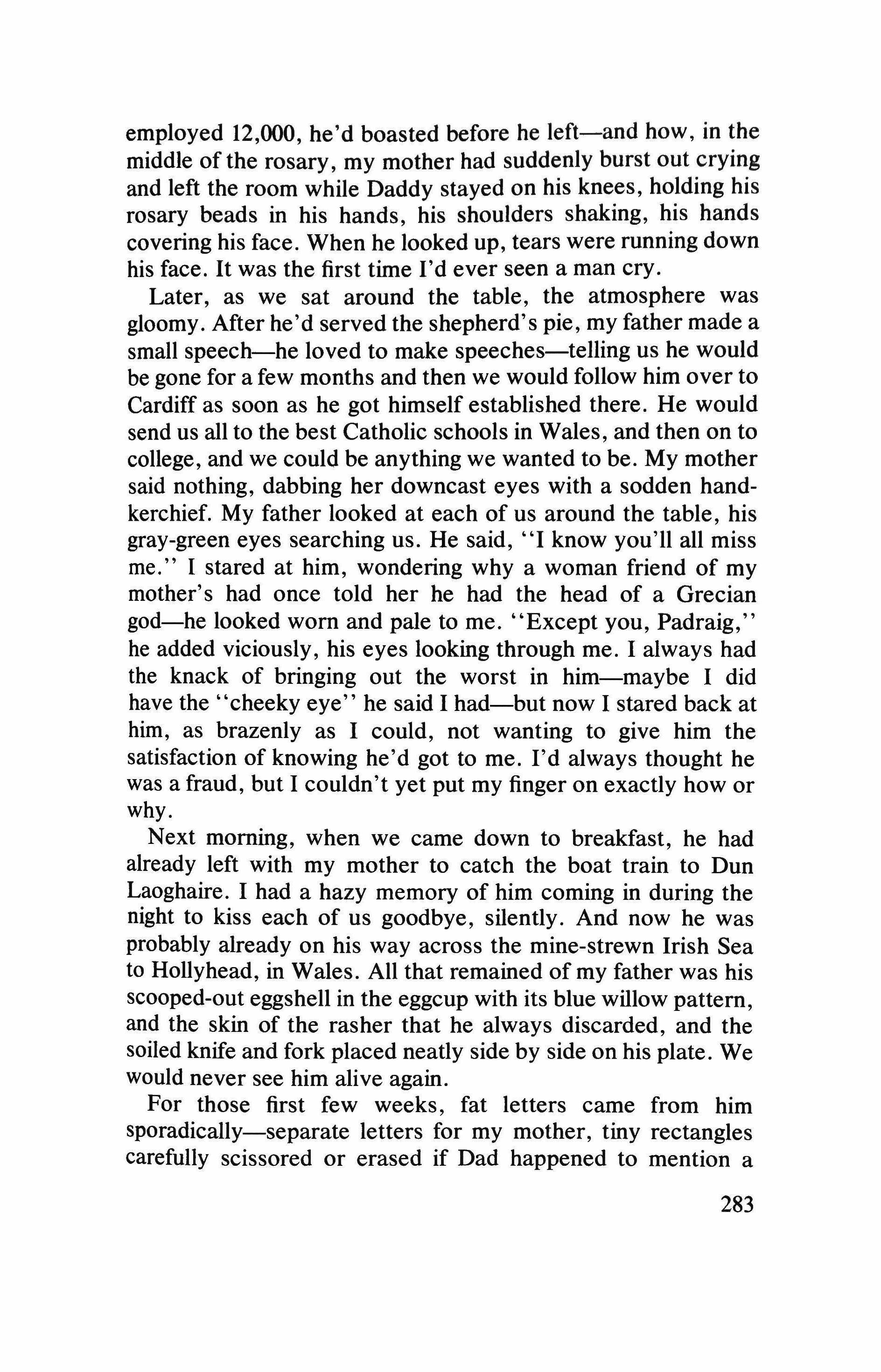
employed 12,000, he'd boasted before he left-and how, in the middle of the rosary, my mother had suddenly burst out crying and left the room while Daddy stayed on his knees, holding his rosary beads in his hands, his shoulders shaking, his hands covering his face. When he looked up, tears were running down his face. It was the first time I'd ever seen a man cry.
Later, as we sat around the table, the atmosphere was gloomy. After he'd served the shepherd's pie, my father made a small speech-he loved to make speeches-telling us he would be gone for a few months and then we would follow him over to Cardiff as soon as he got himself established there. He would send us all to the best Catholic schools in Wales, and then on to college, and we could be anything we wanted to be. My mother said nothing, dabbing her downcast eyes with a sodden handkerchief. My father looked at each of us around the table, his gray-green eyes searching us. He said, "I know you'll all miss me." I stared at him, wondering why a woman friend of my mother's had once told her he had the head of a Grecian god-he looked worn and pale to me. "Except you, Padraig," he added viciously, his eyes looking through me. I always had the knack of bringing out the worst in him-maybe I did have the "cheeky eye" he said I had-but now I stared back at him, as brazenly as I could, not wanting to give him the satisfaction of knowing he'd got to me. I'd always thought he was a fraud, but I couldn't yet put my finger on exactly how or why.
Next morning, when we came down to breakfast, he had already left with my mother to catch the boat train to Dun Laoghaire. I had a hazy memory of him coming in during the night to kiss each of us goodbye, silently. And now he was probably already on his way across the mine-strewn Irish Sea to Hollyhead, in Wales. All that remained of my father was his scooped-out eggshell in the eggcup with its blue willow pattern, and the skin of the rasher that he always discarded, and the soiled knife and fork placed neatly side by side on his plate. We would never see him alive again.
For those first few weeks, fat letters came from him sporadically-separate letters for my mother, tiny rectangles carefully scissored or erased if Dad happened to mention a
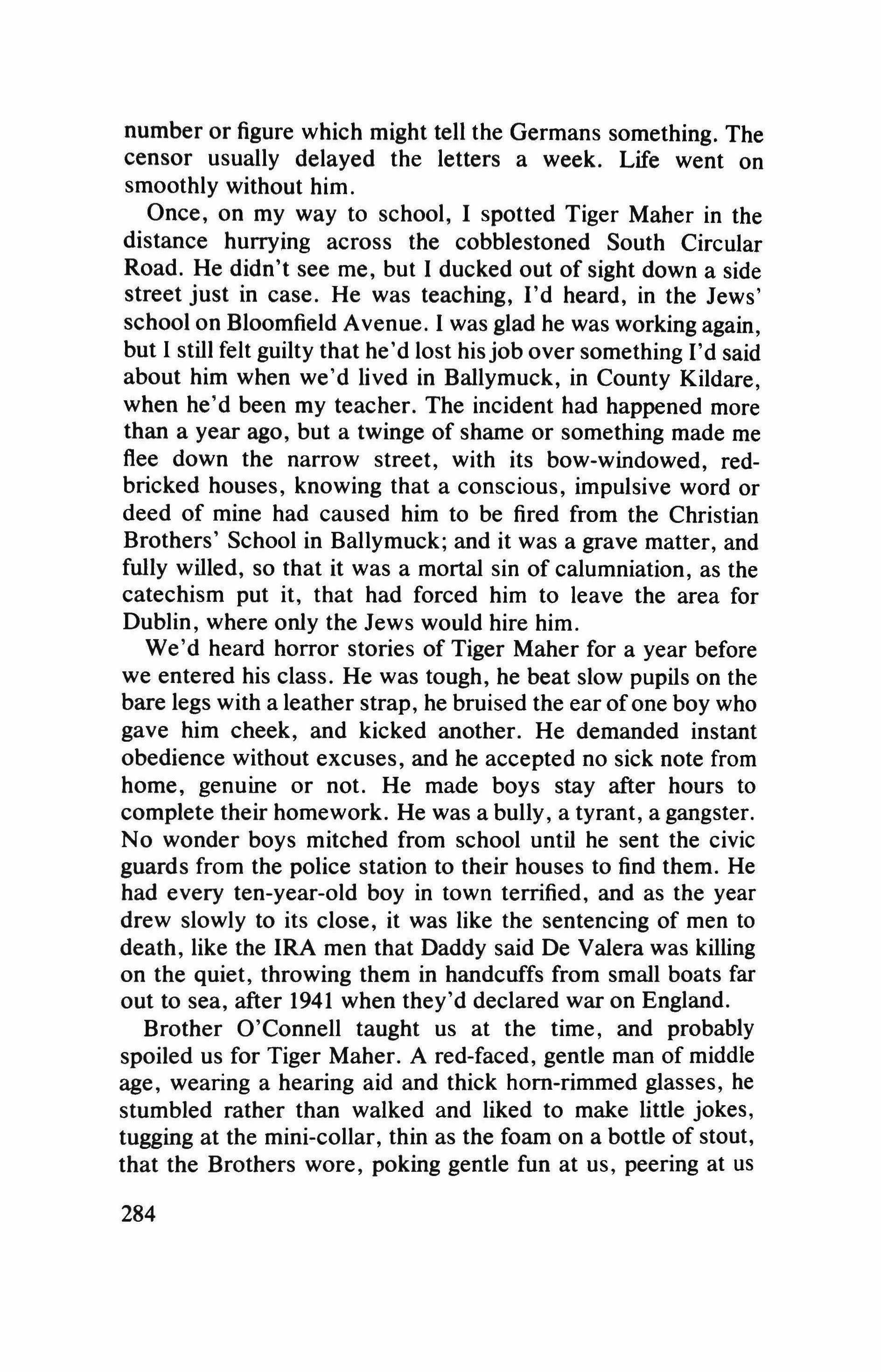
number or figure which might tell the Germans something. The censor usually delayed the letters a week. Life went on smoothly without him.
Once, on my way to school, I spotted Tiger Maher in the distance hurrying across the cobblestoned South Circular Road. He didn't see me, but I ducked out of sight down a side street just in case. He was teaching, I'd heard, in the Jews' school on Bloomfield Avenue. I was glad he was working again, but I still felt guilty that he'd lost hisjob over something I'd said about him when we'd lived in Ballymuck, in County Kildare, when he'd been my teacher. The incident had happened more than a year ago, but a twinge of shame or something made me flee down the narrow street, with its bow-windowed, redbricked houses, knowing that a conscious, impulsive word or deed of mine had caused him to be fired from the Christian Brothers' School in Ballymuck; and it was a grave matter, and fully willed, so that it was a mortal sin of calumniation, as the catechism put it, that had forced him to leave the area for Dublin, where only the Jews would hire him.
We'd heard horror stories of Tiger Maher for a year before we entered his class. He was tough, he beat slow pupils on the bare legs with a leather strap, he bruised the ear of one boy who gave him cheek, and kicked another. He demanded instant obedience without excuses, and he accepted no sick note from home, genuine or not. He made boys stay after hours to complete their homework. He was a bully, a tyrant, a gangster. No wonder boys mitched from school until he sent the civic guards from the police station to their houses to find them. He had every ten-year-old boy in town terrified, and as the year drew slowly to its close, it was like the sentencing of men to death, like the IRA men that Daddy said De Valera was killing on the quiet, throwing them in handcuffs from small boats far out to sea, after 1941 when they'd declared war on England. Brother O'Connell taught us at the time, and probably spoiled us for Tiger Maher. A red-faced, gentle man of middle age, wearing a hearing aid and thick hom-rimmed glasses, he stumbled rather than walked and liked to make little jokes, tugging at the mini-collar, thin as the foam on a bottle of stout, that the Brothers wore, poking gentle fun at us, peering at us
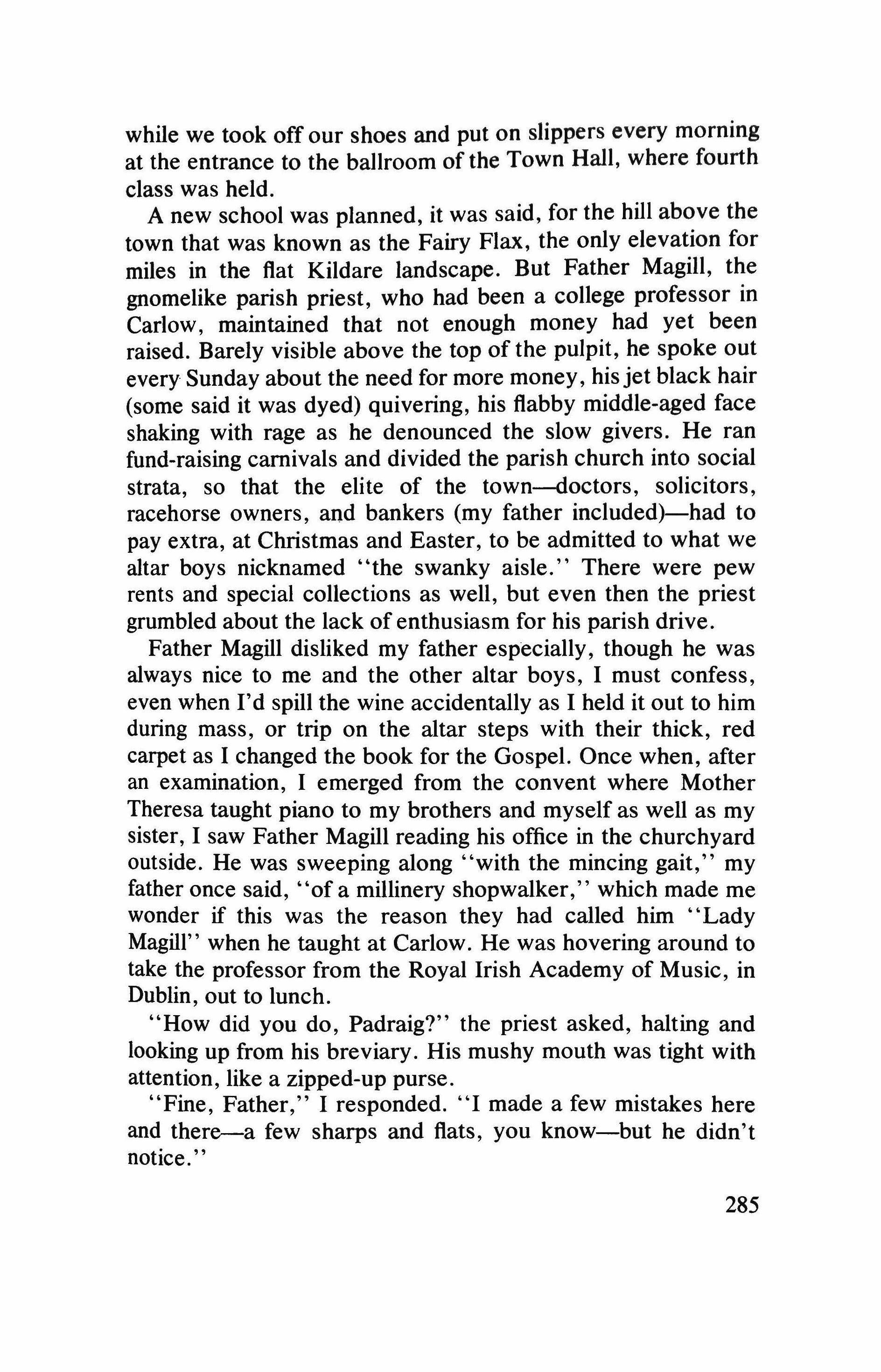
while we took off our shoes and put on slippers every morning at the entrance to the ballroom of the Town Hall, where fourth class was held.
A new school was planned, it was said, for the hill above the town that was known as the Fairy Flax, the only elevation for miles in the flat Kildare landscape. But Father Magill, the gnomelike parish priest, who had been a college professor in Carlow, maintained that not enough money had yet been raised. Barely visible above the top of the pulpit, he spoke out every Sunday about the need for more money, his jet black hair (some said it was dyed) quivering, his flabby middle-aged face shaking with rage as he denounced the slow givers. He ran fund-raising carnivals and divided the parish church into social strata, so that the elite of the town--doctors, solicitors, racehorse owners, and bankers (my father included)-had to pay extra, at Christmas and Easter, to be admitted to what we altar boys nicknamed "the swanky aisle." There were pew rents and special collections as well, but even then the priest grumbled about the lack of enthusiasm for his parish drive.
Father Magill disliked my father especially, though he was always nice to me and the other altar boys, I must confess, even when I'd spill the wine accidentally as I held it out to him during mass, or trip on the altar steps with their thick, red carpet as I changed the book for the Gospel. Once when, after an examination, I emerged from the convent where Mother Theresa taught piano to my brothers and myself as well as my sister, I saw Father Magill reading his office in the churchyard outside. He was sweeping along' 'with the mincing gait," my father once said, "of a millinery shopwalker," which made me wonder if this was the reason they had called him "Lady Magill" when he taught at Carlow. He was hovering around to take the professor from the Royal Irish Academy of Music, in Dublin, out to lunch.
"How did you do, Padraig?" the priest asked, halting and looking up from his breviary. His mushy mouth was tight with attention, like a zipped-up purse.
"Fine, Father," I responded. "I made a few mistakes here and there-a few sharps and flats, you know-but he didn't notice.
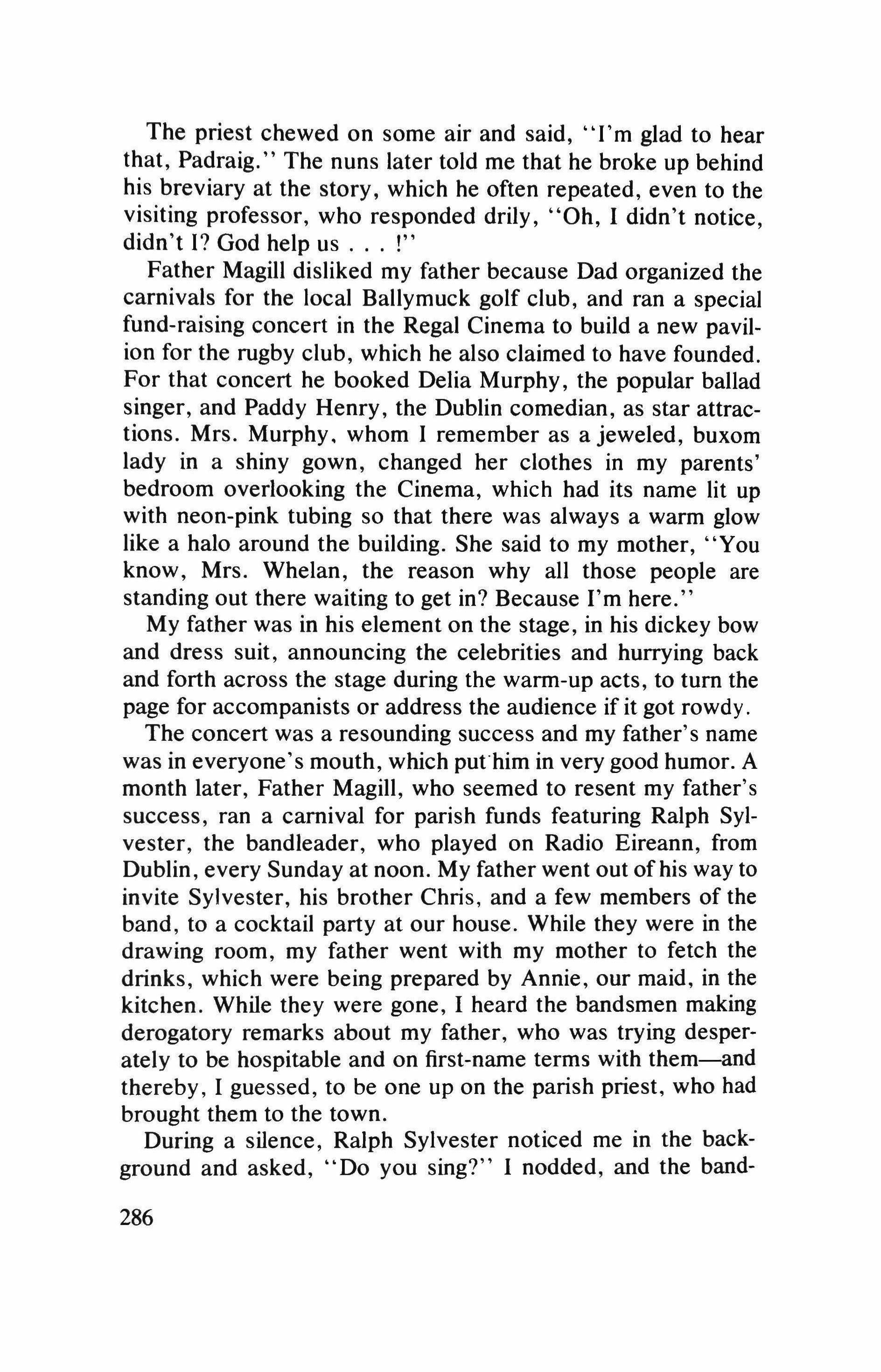
The priest chewed on some air and said, "I'm glad to hear that, Padraig." The nuns later told me that he broke up behind his breviary at the story, which he often repeated, even to the visiting professor, who responded drily, "Oh, I didn't notice, didn't I? God help us !"
Father Magill disliked my father because Dad organized the carnivals for the local Ballymuck golf club, and ran a special fund-raising concert in the Regal Cinema to build a new pavilion for the rugby club, which he also claimed to have founded. For that concert he booked Delia Murphy, the popular ballad singer, and Paddy Henry, the Dublin comedian, as star attractions. Mrs. Murphy, whom I remember as a jeweled, buxom lady in a shiny gown, changed her clothes in my parents' bedroom overlooking the Cinema, which had its name lit up with neon-pink tubing so that there was always a warm glow like a halo around the building. She said to my mother, "You know, Mrs. Whelan, the reason why all those people are standing out there waiting to get in? Because I'm here."
My father was in his element on the stage, in his dickey bow and dress suit, announcing the celebrities and hurrying back and forth across the stage during the warm-up acts, to tum the page for accompanists or address the audience if it got rowdy.
The concert was a resounding success and my father's name was in everyone's mouth, which purhim in very good humor. A month later, Father Magill, who seemed to resent my father's success, ran a carnival for parish funds featuring Ralph Sylvester, the bandleader, who played on Radio Eireann, from Dublin, every Sunday at noon. My father went out of his way to invite Sylvester, his brother Chris, and a few members of the band, to a cocktail party at our house. While they were in the drawing room, my father went with my mother to fetch the drinks, which were being prepared by Annie, our maid, in the kitchen. While they were gone, I heard the bandsmen making derogatory remarks about my father, who was trying desperately to be hospitable and on first-name terms with them-and thereby, I guessed, to be one up on the parish priest, who had brought them to the town.
During a silence, Ralph Sylvester noticed me in the background and asked, "Do you sing?" I nodded, and the band-
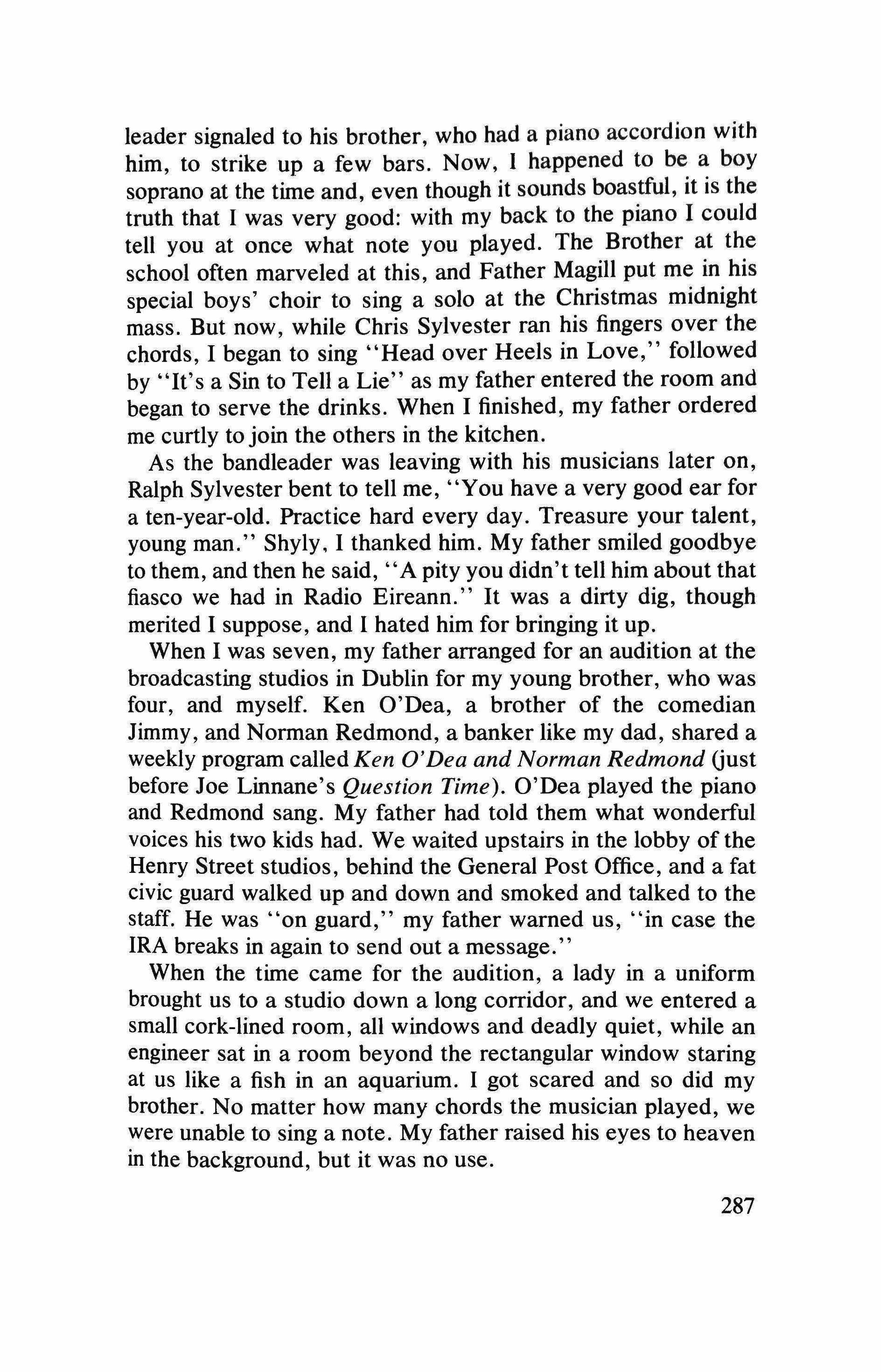
leader signaled to his brother, who had a piano accordion with him, to strike up a few bars. Now, I happened to be a boy soprano at the time and, even though it sounds boastful, it is the truth that I was very good: with my back to the piano I could tell you at once what note you played. The Brother at the school often marveled at this, and Father Magill put me in his special boys' choir to sing a solo at the Christmas midnight mass. But now, while Chris Sylvester ran his fingers over the chords, I began to sing "Head over Heels in Love," followed by "It's a Sin to Tell a Lie" as my father entered the room and began to serve the drinks. When I finished, my father ordered me curtly to join the others in the kitchen.
As the bandleader was leaving with his musicians later on, Ralph Sylvester bent to tell me, "You have a very good ear for a ten-year-old. Practice hard every day. Treasure your talent, young man." Shyly, I thanked him. My father smiled goodbye to them, and then he said, "A pity you didn't tell him about that fiasco we had in Radio Eireann." It was a dirty dig, though merited I suppose, and I hated him for bringing it up.
When I was seven, my father arranged for an audition at the broadcasting studios in Dublin for my young brother, who was four, and myself. Ken O'Dea, a brother of the comedian Jimmy, and Norman Redmond, a banker like my dad, shared a weekly program called Ken O'Dea and Norman Redmond (just before Joe Linnane's Question Time). O'Dea played the piano and Redmond sang. My father had told them what wonderful voices his two kids had. We waited upstairs in the lobby of the Henry Street studios, behind the General Post Office, and a fat civic guard walked up and down and smoked and talked to the staff. He was "on guard," my father warned us, "in case the IRA breaks in again to send out a message."
When the time came for the audition, a lady in a uniform brought us to a studio down a long corridor, and we entered a small cork-lined room, all windows and deadly quiet, while an engineer sat in a room beyond the rectangular window staring at us like a fish in an aquarium. I got scared and so did my brother. No matter how many chords the musician played, we were unable to sing a note. My father raised his eyes to heaven in the background, but it was no use.
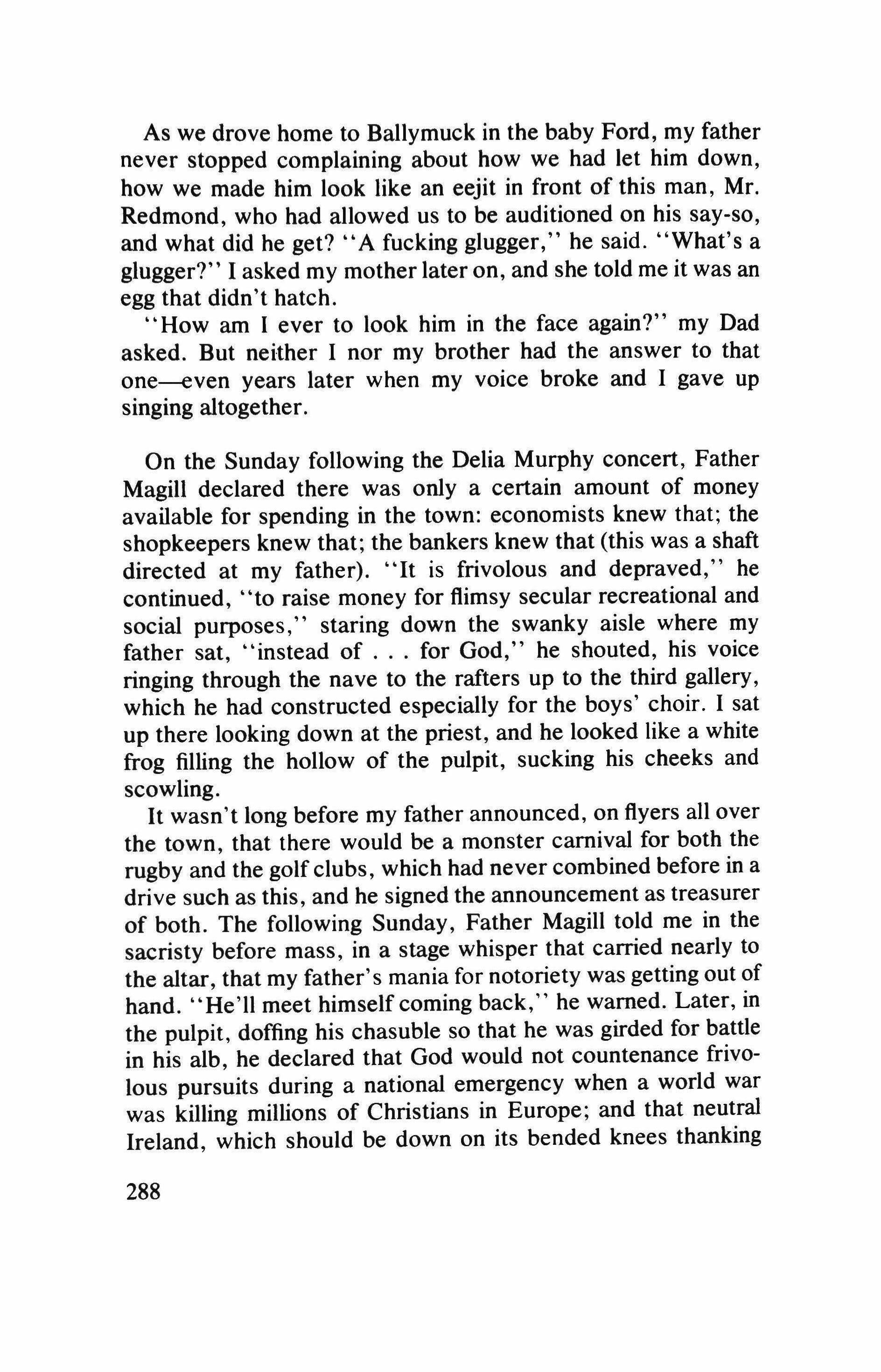
As we drove home to Ballymuck in the baby Ford, my father never stopped complaining about how we had let him down, how we made him look like an eejit in front of this man, Mr. Redmond, who had allowed us to be auditioned on his say-so, and what did he get? "A fucking glugger," he said. "What's a glugger?" I asked my mother later on, and she told me it was an egg that didn't hatch.
"How am I ever to look him in the face again?" my Dad asked. But neither I nor my brother had the answer to that one--even years later when my voice broke and I gave up singing altogether.
On the Sunday following the Delia Murphy concert, Father Magill declared there was only a certain amount of money available for spending in the town: economists knew that; the shopkeepers knew that; the bankers knew that (this was a shaft directed at my father). "It is frivolous and depraved," he continued, "to raise money for flimsy secular recreational and social purposes," staring down the swanky aisle where my father sat, "instead of for God," he shouted, his voice ringing through the nave to the rafters up to the third gallery, which he had constructed especially for the boys' choir. I sat up there looking down at the priest, and he looked like a white frog filling the hollow of the pulpit, sucking his cheeks and scowling.
It wasn't long before my father announced, on flyers all over the town, that there would be a monster carnival for both the rugby and the golfclubs, which had never combined before in a drive such as this, and he signed the announcement as treasurer of both. The following Sunday, Father Magill told me in the sacristy before mass, in a stage whisper that carried nearly to the altar, that my father's mania for notoriety was getting out of hand. "He'll meet himself coming back," he warned. Later, in the pulpit, doffing his chasuble so that he was girded for battle in his alb, he declared that God would not countenance frivolous pursuits during a national emergency when a world war was killing millions of Christians in Europe; and that neutral Ireland, which should be down on its bended knees thanking 288
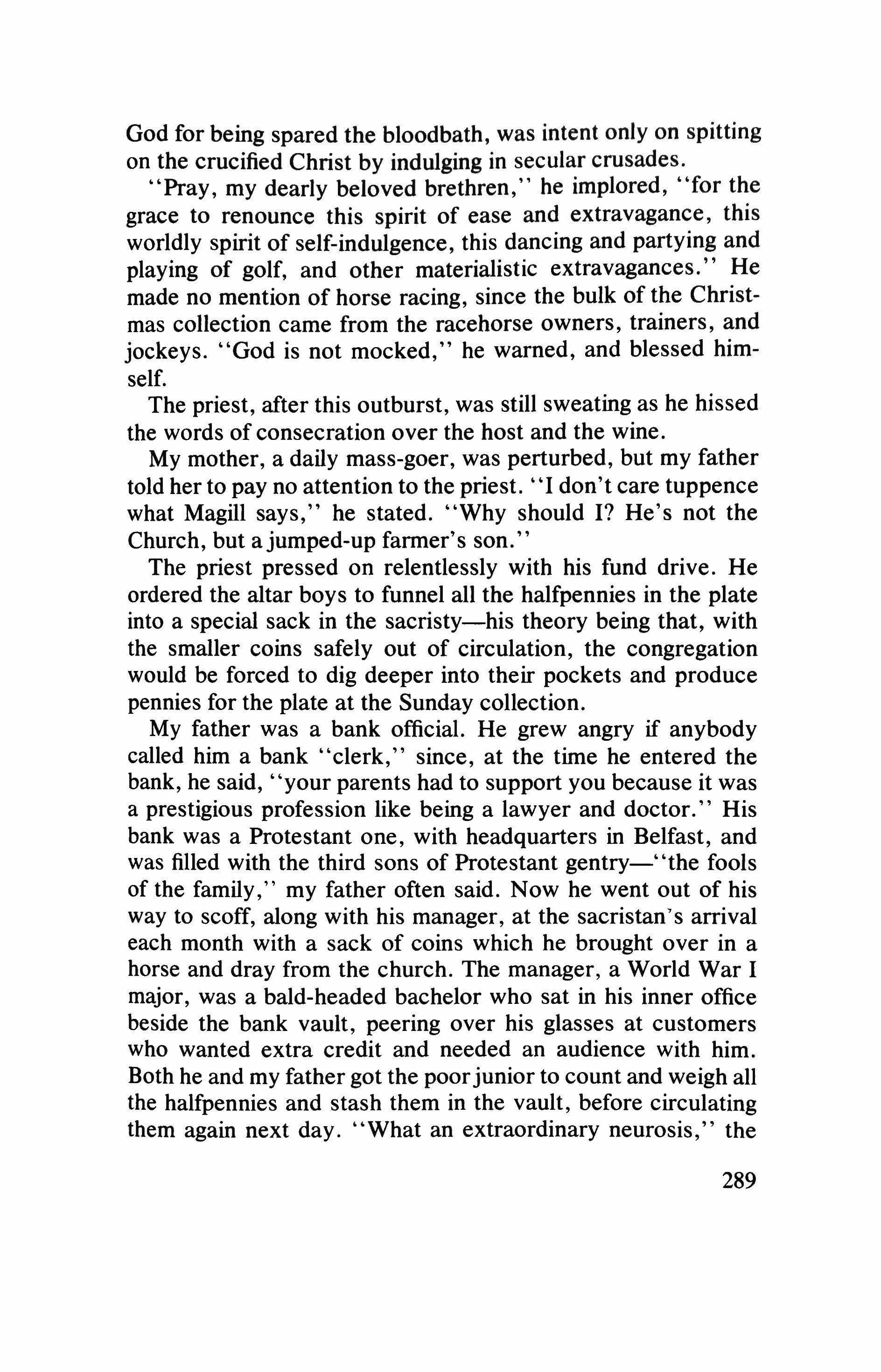
God for being spared the bloodbath, was intent only on spitting on the crucified Christ by indulging in secular crusades.
"Pray, my dearly beloved brethren," he implored, "for the grace to renounce this spirit of ease and extravagance, this worldly spirit of self-indulgence, this dancing and partying and playing of golf, and other materialistic extravagances." He made no mention of horse racing, since the bulk of the Christmas collection came from the racehorse owners, trainers, and jockeys. "God is not mocked," he warned, and blessed himself.
The priest, after this outburst, was still sweating as he hissed the words of consecration over the host and the wine.
My mother, a daily mass-goer, was perturbed, but my father told her to pay no attention to the priest. "I don't care tuppence what Magill says," he stated. "Why should I? He's not the Church, but a jumped-up farmer's son."
The priest pressed on relentlessly with his fund drive. He ordered the altar boys to funnel all the halfpennies in the plate into a special sack in the sacristy-his theory being that, with the smaller coins safely out of circulation, the congregation would be forced to dig deeper into their pockets and produce pennies for the plate at the Sunday collection.
My father was a bank official. He grew angry if anybody called him a bank "clerk," since, at the time he entered the bank, he said, "your parents had to support you because it was a prestigious profession like being a lawyer and doctor." His bank was a Protestant one, with headquarters in Belfast, and was filled with the third sons of Protestant gentry-' 'the fools of the family," my father often said. Now he went out of his way to scoff, along with his manager, at the sacristan's arrival each month with a sack of coins which he brought over in a horse and dray from the church. The manager, a World War I major, was a bald-headed bachelor who sat in his inner office beside the bank vault, peering over his glasses at customers who wanted extra credit and needed an audience with him. Both he and my father got the poorjunior to count and weigh all the halfpennies and stash them in the vault, before circulating them again next day. "What an extraordinary neurosis," the 289

manager commented, scoffing at the naivete of the parish priest's economic theory, and my father agreed with him.
Their derision must have got back to the parish priest, who had spies everywhere, because, while supervising the altar boys as we poured a new supply of halfpennies into a sack the following Sunday morning, he said, "Tell your father, Padraig, that I may change my account to a Catholic bank if he insists on trying to make a mock of me. Tell the major that too." But my father laughed, later, and said there was no danger of Father Magill closing the church account "so long as he could do business with an ex-British army buff. He's so hung up on bloody titles," he added, "he sounds like a card catalogue."
But there was still no sign of the new school being started, and the overflow from the worn-out primary school spilled into scattered locations throughout the town. The Brothers appropriated a small national school in the Fair Green, female teachers and all, for the first and third grades; fourth class was held in the town-hall ballroom, leased, as a favor to the Brothers, by the town council. The chairman of the council, Daddy O'Driscoll, sometimes nicknamed "Blue Vision" because of his blue-tinted glasses, spelled out the condition that students had to wear slippers so as not to damage the valuable maple dance floor.
One afternoon in May, Daddy O'Driscoll paid us an official visit and Brother O'Connell became alarmed. Daddy owned a drapery store and was a powerful figure in local politics. He stood at the back of the ballroom in his heavy, dark raincoat and his shiny shoes (no slippers for him), waving his folded umbrella this way and that as he talked to the little Brother, his eyes raking the class through the blue lenses.
Seanie Sheridan, who sat beside me, lived in a housing project at the south end of town known as Spike Island-a nickname derived from the British navy fortress in the center of Cork harbor which the British had handed over to the Irish government in 1939, not knowing that handing over the ports to Ireland would enable our country to remain neutral during World War II. Seanie tried to gather his bare feet under him, but it was too late. The county councillor advanced on him, his 290
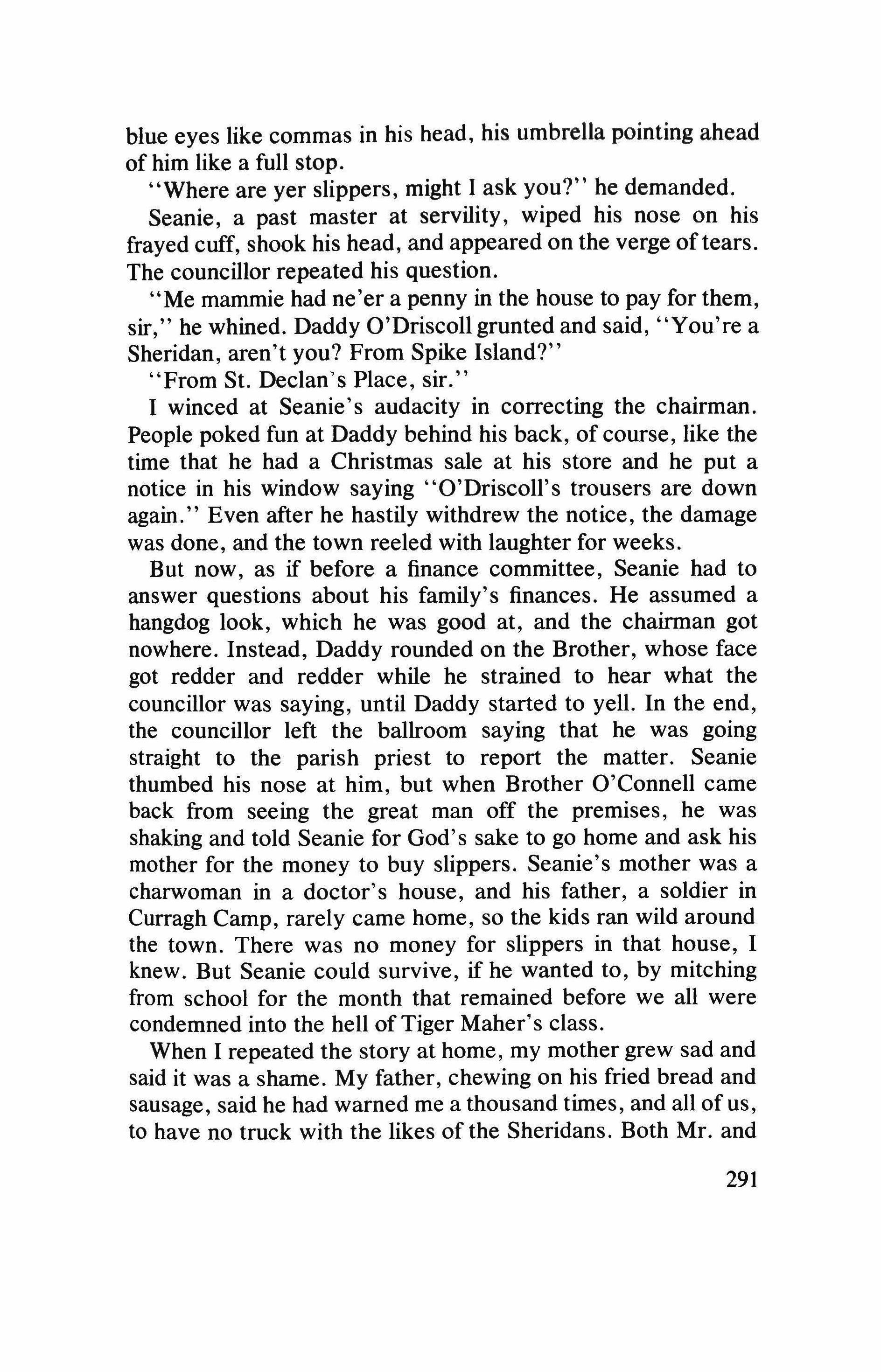
blue eyes like commas in his head, his umbrella pointing ahead of him like a full stop.
"Where are yer slippers, might I ask you?" he demanded.
Seanie, a past master at servility, wiped his nose on his frayed cuff, shook his head, and appeared on the verge of tears. The councillor repeated his question.
"Me mammie had ne'er a penny in the house to pay for them, sir," he whined. Daddy O'Driscoll grunted and said, "You're a Sheridan, aren't you? From Spike Island?"
"From St. Declan' s Place, sir."
I winced at Seanies audacity in correcting the chairman. People poked fun at Daddy behind his back, of course, like the time that he had a Christmas sale at his store and he put a notice in his window saying "O'Driscoll's trousers are down again." Even after he hastily withdrew the notice, the damage was done, and the town reeled with laughter for weeks.
But now, as if before a finance committee, Seanie had to answer questions about his family's finances. He assumed a hangdog look, which he was good at, and the chairman got nowhere. Instead, Daddy rounded on the Brother, whose face got redder and redder while he strained to hear what the councillor was saying, until Daddy started to yell. In the end, the councillor left the ballroom saying that he was going straight to the parish priest to report the matter. Seanie thumbed his nose at him, but when Brother O'Connell came back from seeing the great man off the premises, he was shaking and told Seanie for God's sake to go home and ask his mother for the money to buy slippers. Seanie's mother was a charwoman in a doctor's house, and his father, a soldier in Curragh Camp, rarely came home, so the kids ran wild around the town. There was no money for slippers in that house, I knew. But Seanie could survive, if he wanted to, by mitching from school for the month that remained before we all were condemned into the hell of Tiger Maher's class.
When I repeated the story at home, my mother grew sad and said it was a shame. My father, chewing on his fried bread and sausage, said he had warned me a thousand times, and all of us, to have no truck with the likes of the Sheridans. Both Mr. and 291
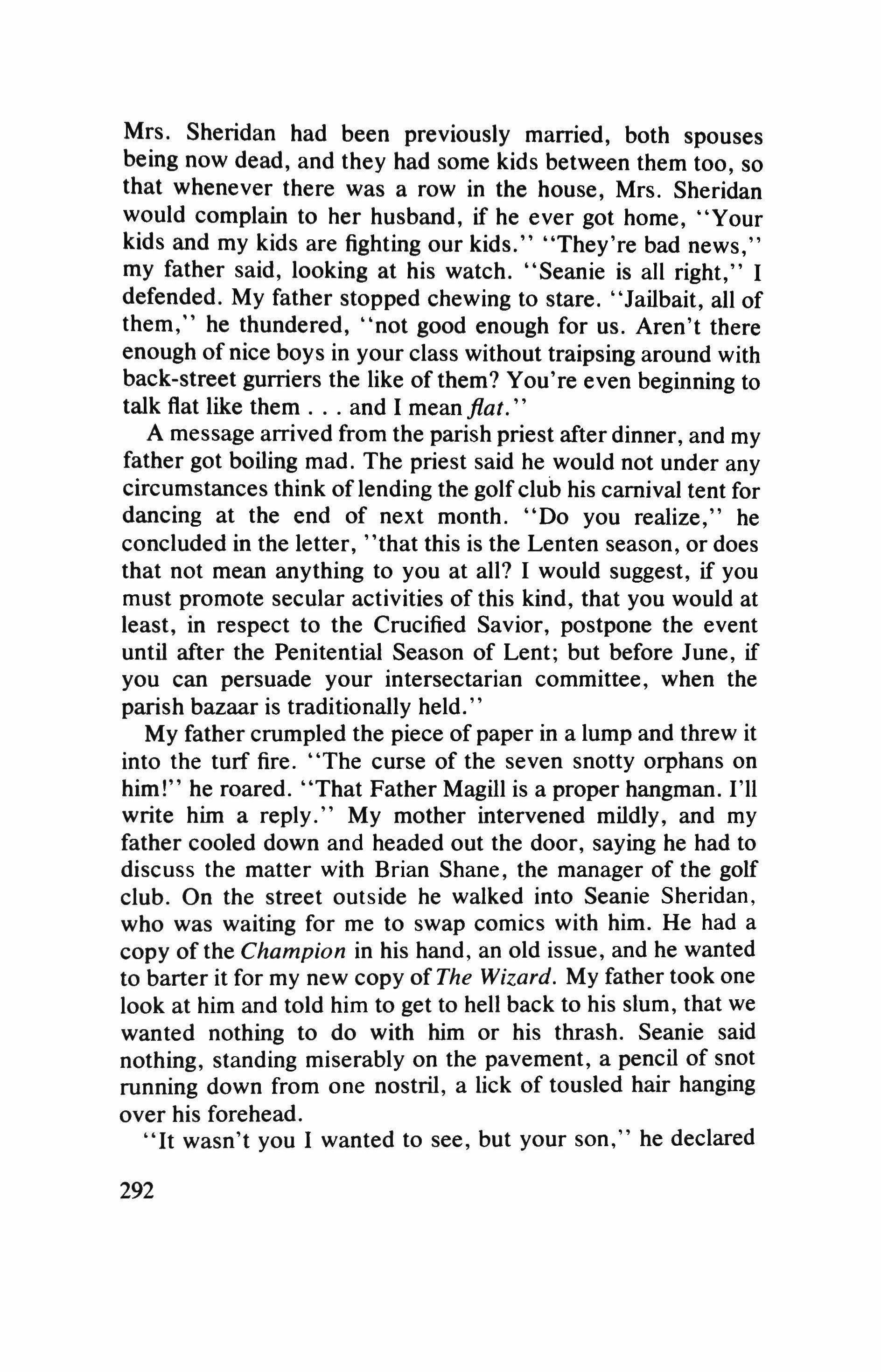
Mrs. Sheridan had been previously married, both spouses being now dead, and they had some kids between them too, so that whenever there was a row in the house, Mrs. Sheridan would complain to her husband, if he ever got home, "Your kids and my kids are fighting our kids." "They're bad news," my father said, looking at his watch. "Seanie is all right," I defended. My father stopped chewing to stare. "Jailbait, all of them," he thundered, "not good enough for us. Aren't there enough of nice boys in your class without traipsing around with back-street gurriers the like of them? You're even beginning to talk flat like them and I mean flat.
A message arrived from the parish priest after dinner, and my father got boiling mad. The priest said he would not under any circumstances think of lending the golfclub his carnival tent for dancing at the end of next month. "Do you realize," he concluded in the letter, "that this is the Lenten season, or does that not mean anything to you at all? I would suggest, if you must promote secular activities of this kind, that you would at least, in respect to the Crucified Savior, postpone the event until after the Penitential Season of Lent; but before June, if you can persuade your intersectarian committee, when the parish bazaar is traditionally held."
My father crumpled the piece of paper in a lump and threw it into the turf fire. "The curse of the seven snotty orphans on him!" he roared. "That Father Magill is a proper hangman. I'll write him a reply." My mother intervened mildly, and my father cooled down and headed out the door, saying he had to discuss the matter with Brian Shane, the manager of the golf club. On the street outside he walked into Seanie Sheridan, who was waiting for me to swap comics with him. He had a copy of the Champion in his hand, an old issue, and he wanted to barter it for my new copy of The Wizard. My father took one look at him and told him to get to hell back to his slum, that we wanted nothing to do with him or his thrash. Seanie said nothing, standing miserably on the pavement, a pencil of snot running down from one nostril, a lick of tousled hair hanging over his forehead.
"It wasn't you I wanted to see, but your son," he declared 292
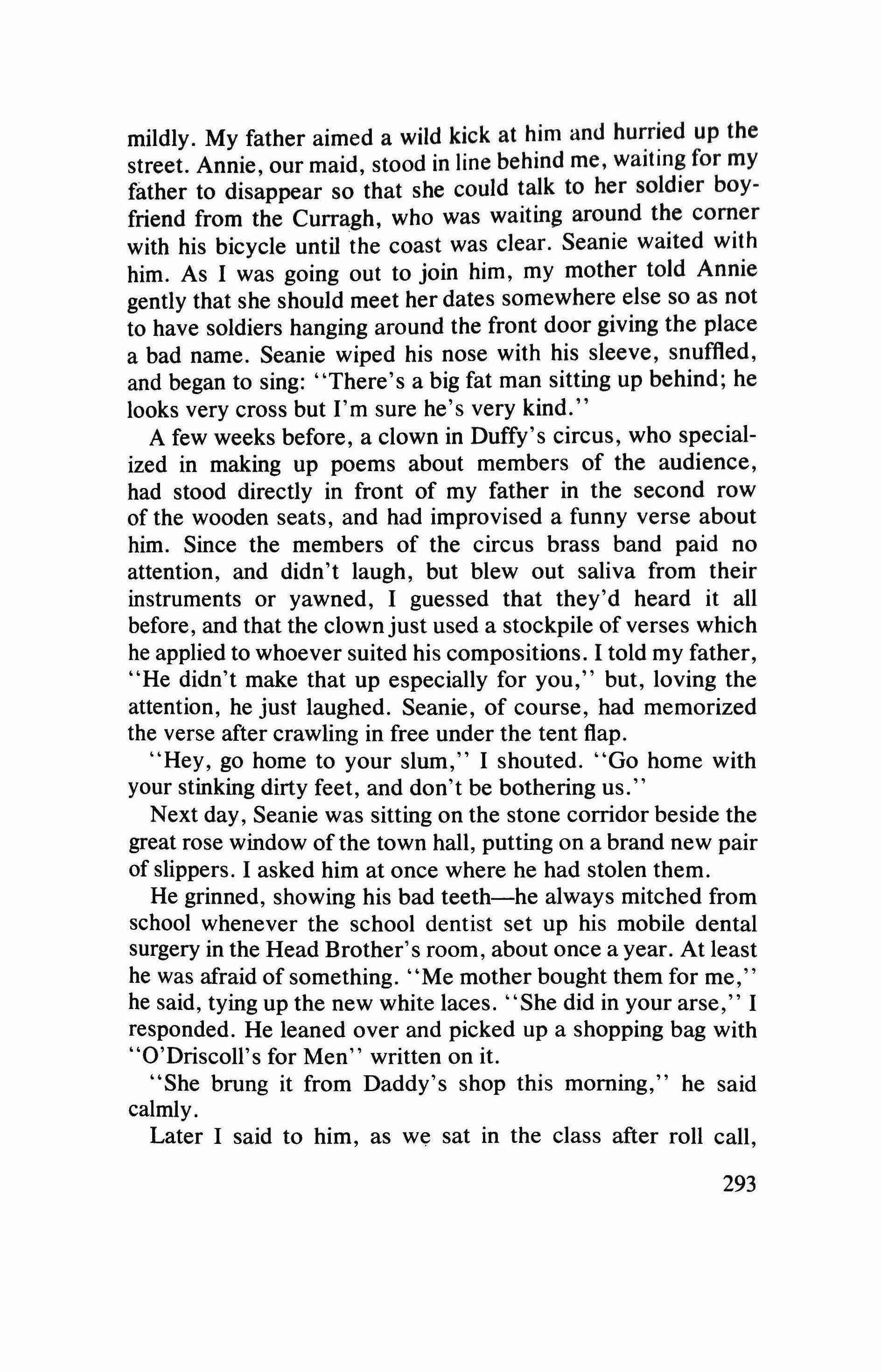
mildly. My father aimed a wild kick at him and hurried up the street. Annie, our maid, stood in line behind me, waiting for my father to disappear so that she could talk to her soldier boyfriend from the Curragh, who was waiting around the comer with his bicycle until the coast was clear. Seanie waited with him. As I was going out to join him, my mother told Annie gently that she should meet her dates somewhere else so as not to have soldiers hanging around the front door giving the place a bad name. Seanie wiped his nose with his sleeve, snuffled, and began to sing: "There's a big fat man sitting up behind; he looks very cross but I'm sure he's very kind."
A few weeks before, a clown in Duffy's circus, who specialized in making up poems about members of the audience, had stood directly in front of my father in the second row of the wooden seats, and had improvised a funny verse about him. Since the members of the circus brass band paid no attention, and didn't laugh, but blew out saliva from their instruments or yawned, I guessed that they'd heard it all before, and that the clown just used a stockpile of verses which he applied to whoever suited his compositions. I told my father, "He didn't make that up especially for you," but, loving the attention, he just laughed. Seanie, of course, had memorized the verse after crawling in free under the tent flap.
"Hey, go home to your slum," I shouted. "Go home with your stinking dirty feet, and don't be bothering us."
Next day, Seanie was sitting on the stone corridor beside the great rose window of the town hall, putting on a brand new pair of slippers. I asked him at once where he had stolen them. He grinned, showing his bad teeth-he always mitched from school whenever the school dentist set up his mobile dental surgery in the Head Brother's room, about once a year. At least he was afraid of something. "Me mother bought them for me," he said, tying up the new white laces. "She did in your arse," I responded. He leaned over and picked up a shopping bag with "O'Driscoll's for Men" written on it.
"She brung it from Daddy's shop this morning," he said calmly.
Later I said to him, as We sat in the class after roll call, 293
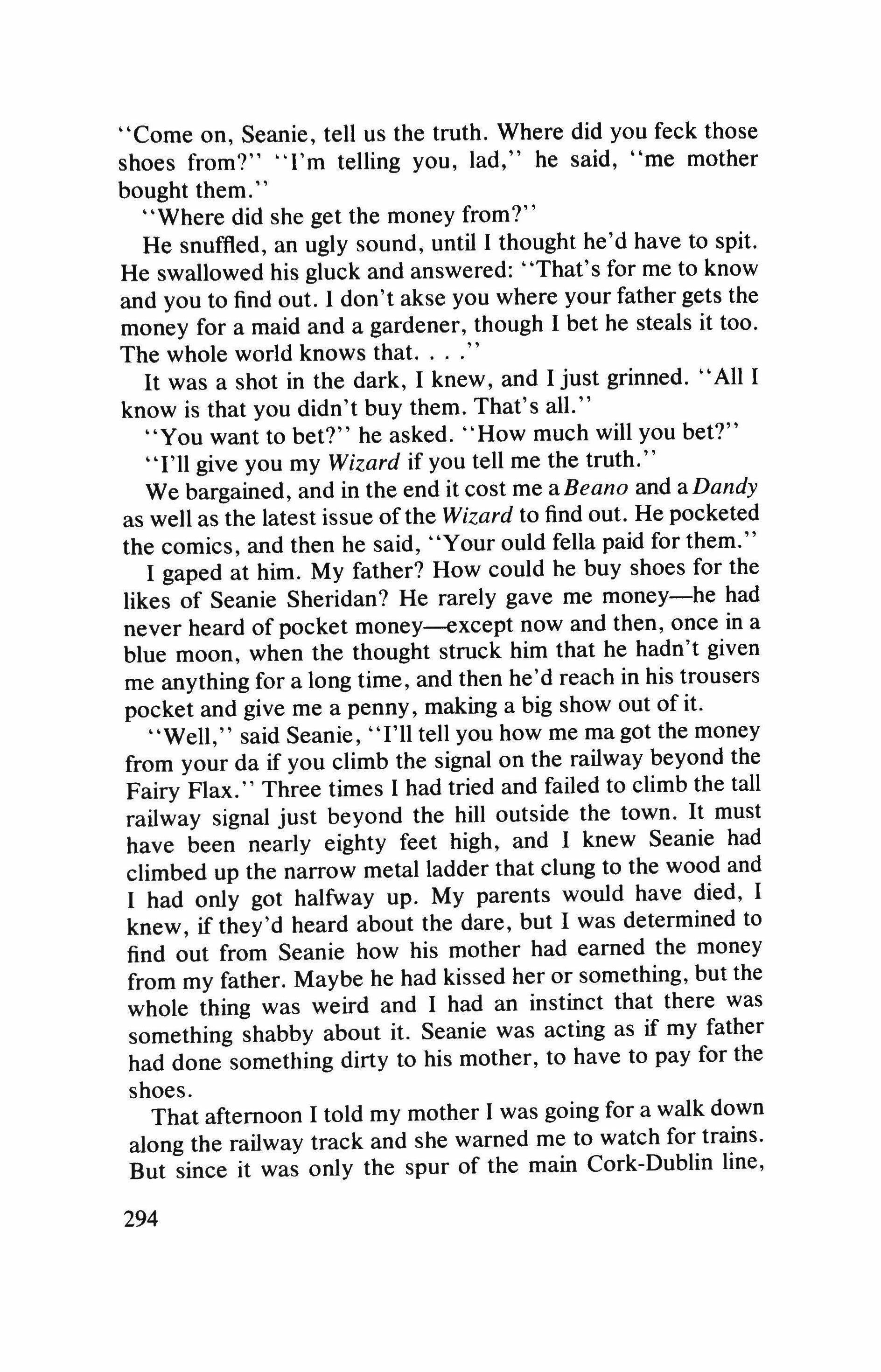
"Come on, Seanie, tell us the truth. Where did you feck those shoes from?" "I'rn telling you, lad," he said, "me mother bought them."
"Where did she get the money from?"
He snuffled, an ugly sound, until I thought he'd have to spit. He swallowed his gluck and answered: "That's for me to know and you to find out. I don't akse you where your father gets the money for a maid and a gardener, though I bet he steals it too. The whole world knows that.
It was a shot in the dark, I knew, and I just grinned. "All I know is that you didn't buy them. That's all."
"You want to bet?" he asked. "How much will you bet?"
''I'll give you my Wizard if you tell me the truth."
We bargained, and in the end it cost me aBeano and a Dandy as well as the latest issue ofthe Wizard to find out. He pocketed the comics, and then he said, "Your ould fella paid for them."
I gaped at him. My father? How could he buy shoes for the likes of Seanie Sheridan? He rarely gave me money-he had never heard of pocket money-except now and then, once in a blue moon, when the thought struck him that he hadn't given me anything for a long time, and then he'd reach in his trousers pocket and give me a penny, making a big show out of it.
"Well," said Seanie, "T'Il tell you how me magot the money from your da if you climb the signal on the railway beyond the Fairy Flax." Three times I had tried and failed to climb the tall railway signal just beyond the hill outside the town. It must have been nearly eighty feet high, and I knew Seanie had climbed up the narrow metal ladder that clung to the wood and I had only got halfway up. My parents would have died, I knew, if they'd heard about the dare, but I was determined to find out from Seanie how his mother had earned the money from my father. Maybe he had kissed her or something, but the whole thing was weird and I had an instinct that there was something shabby about it. Seanie was acting as if my father had done something dirty to his mother, to have to pay for the shoes.
That afternoon I told my mother I was going for a walk down along the railway track and she warned me to watch for trains. But since it was only the spur of the main Cork-Dublin line,
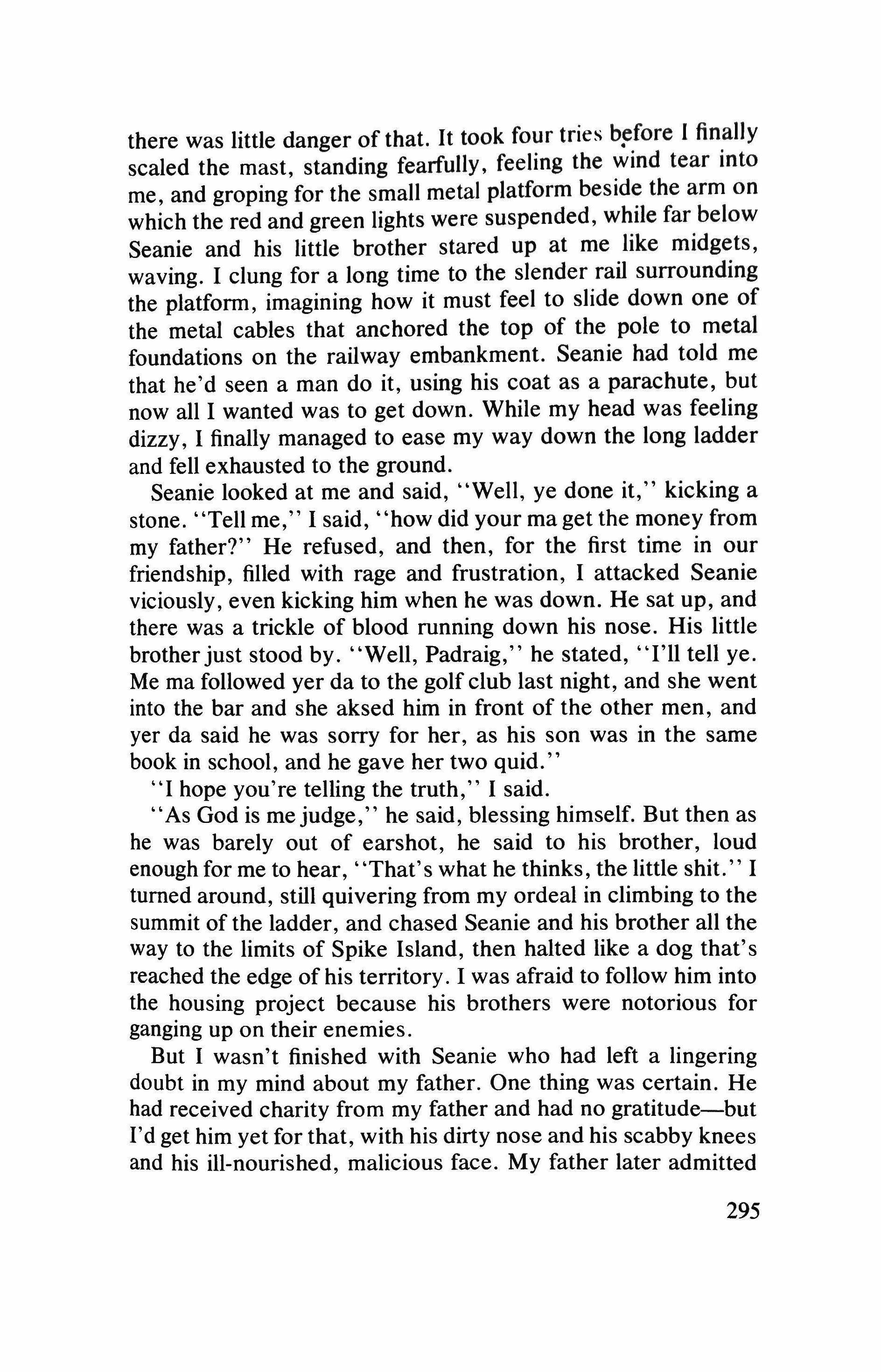
there was little danger of that. It took four tries before I finally scaled the mast, standing fearfully, feeling the wind tear into me, and groping for the small metal platform beside the arm on which the red and green lights were suspended, while far below Seanie and his little brother stared up at me like midgets, waving. I clung for a long time to the slender rail surrounding the platform, imagining how it must feel to slide down one of the metal cables that anchored the top of the pole to metal foundations on the railway embankment. Seanie had told me that he'd seen a man do it, using his coat as a parachute, but now all I wanted was to get down. While my head was feeling dizzy, I finally managed to ease my way down the long ladder and fell exhausted to the ground.
Seanie looked at me and said, "Well, ye done it," kicking a stone. "Tell me," I said, "how did your rna get the money from my father?" He refused, and then, for the first time in our friendship, filled with rage and frustration, I attacked Seanie viciously, even kicking him when he was down. He sat up, and there was a trickle of blood running down his nose. His little brother just stood by. "Well, Padraig," he stated, "I'll tell yeo Me rna followed yer da to the golf club last night, and she went into the bar and she aksed him in front of the other men, and yer da said he was sorry for her, as his son was in the same book in school, and he gave her two quid."
"I hope you're telling the truth," I said.
"As God is me judge," he said, blessing himself. But then as he was barely out of earshot, he said to his brother, loud enough for me to hear, "That's what he thinks, the little shit." I turned around, still quivering from my ordeal in climbing to the summit of the ladder, and chased Seanie and his brother all the way to the limits of Spike Island, then halted like a dog that's reached the edge of his territory. I was afraid to follow him into the housing project because his brothers were notorious for ganging up on their enemies.
But I wasn't finished with Seanie who had left a lingering doubt in my mind about my father. One thing was certain. He had received charity from my father and had no gratitude-but I'd get him yet for that, with his dirty nose and his scabby knees and his ill-nourished, malicious face. My father later admitted
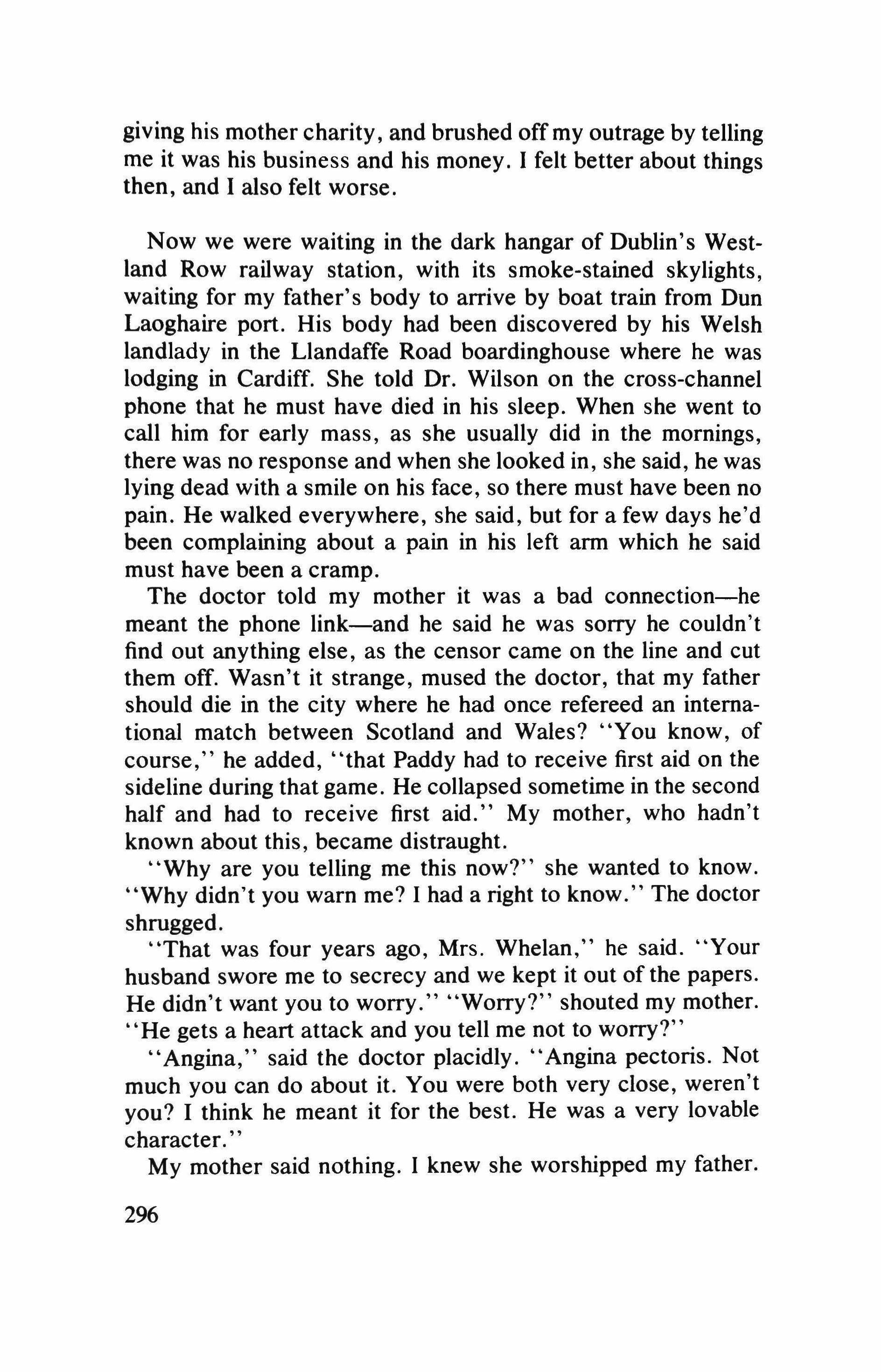
giving his mother charity, and brushed off my outrage by telling me it was his business and his money. I felt better about things then, and I also felt worse.
Now we were waiting in the dark hangar of Dublin's Westland Row railway station, with its smoke-stained skylights, waiting for my father's body to arrive by boat train from Dun Laoghaire port. His body had been discovered by his Welsh landlady in the Llandaffe Road boardinghouse where he was lodging in Cardiff. She told Dr. Wilson on the cross-channel phone that he must have died in his sleep. When she went to call him for early mass, as she usually did in the mornings, there was no response and when she looked in, she said, he was lying dead with a smile on his face, so there must have been no pain. He walked everywhere, she said, but for a few days he'd been complaining about a pain in his left arm which he said must have been a cramp.
The doctor told my mother it was a bad connection-he meant the phone link-and he said he was sorry he couldn't find out anything else, as the censor came on the line and cut them off. Wasn't it strange, mused the doctor, that my father should die in the city where he had once refereed an international match between Scotland and Wales? "You know, of course," he added, "that Paddy had to receive first aid on the sideline during that game. He collapsed sometime in the second half and had to receive first aid." My mother, who hadn't known about this, became distraught.
"Why are you telling me this now?" she wanted to know. "Why didn't you warn me? I had a right to know." The doctor shrugged.
"That was four years ago, Mrs. Whelan," he said. "Your husband swore me to secrecy and we kept it out of the papers. He didn't want you to worry." "Worry?" shouted my mother He gets a heart attack and you tell me not to worry?" Angina," said the doctor placidly. "Angina pectoris. Not much you can do about it. You were both very close, weren't you? I think he meant it for the best. He was a very lovable character.
My mother said nothing. I knew she worshipped my father.
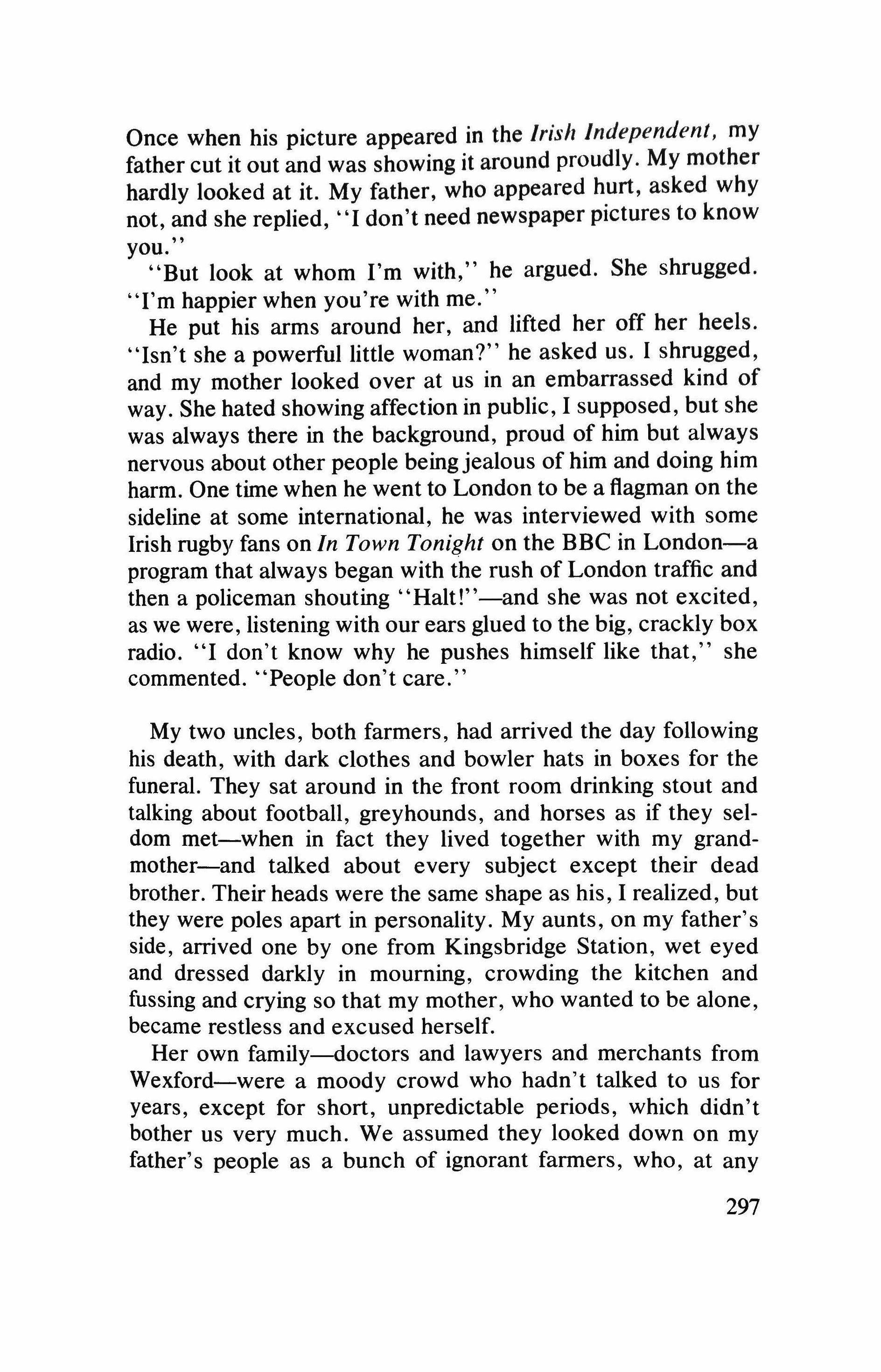
Once when his picture appeared in the Irish Independent, my father cut it out and was showing it around proudly. My mother hardly looked at it. My father, who appeared hurt, asked why not, and she replied, "I don't need newspaper pictures to know you."
"But look at whom I'm with," he argued. She shrugged. "I'm happier when you're with me."
He put his arms around her, and lifted her off her heels. "Isn't she a powerful little woman?" he asked us. I shrugged, and my mother looked over at us in an embarrassed kind of way. She hated showing affection in public, I supposed, but she was always there in the background, proud of him but always nervous about other people beingjealous of him and doing him harm. One time when he went to London to be a flagman on the sideline at some international, he was interviewed with some Irish rugby fans on In Town Tonight on the BBC in London-a program that always began with the rush of London traffic and then a policeman shouting "Halt!"-and she was not excited, as we were, listening with our ears glued to the big, crackly box radio. "I don't know why he pushes himself like that," she commented. "People don't care."
My two uncles, both farmers, had arrived the day following his death, with dark clothes and bowler hats in boxes for the funeral. They sat around in the front room drinking stout and talking about football, greyhounds, and horses as if they seldom met-when in fact they lived together with my grandmother-and talked about every subject except their dead brother. Their heads were the same shape as his, I realized, but they were poles apart in personality. My aunts, on my father's side, arrived one by one from Kingsbridge Station, wet eyed and dressed darkly in mourning, crowding the kitchen and fussing and crying so that my mother, who wanted to be alone, became restless and excused herself.
Her own family-doctors and lawyers and merchants from Wexford-were a moody crowd who hadn't talked to us for years, except for short, unpredictable periods, which didn't bother us very much. We assumed they looked down on my father's people as a bunch of ignorant farmers, who, at any
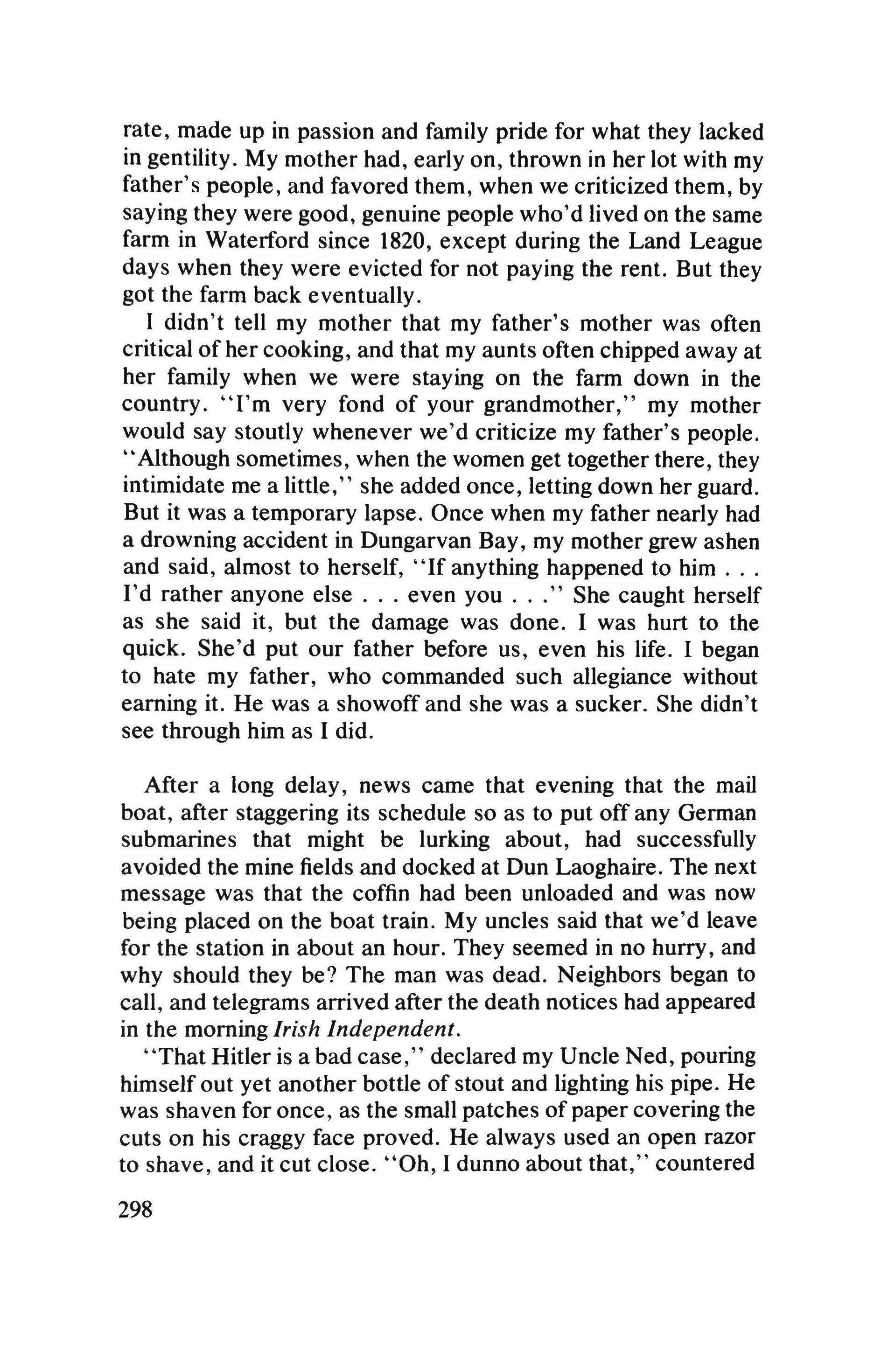
rate, made up in passion and family pride for what they lacked in gentility. My mother had, early on, thrown in her lot with my father's people, and favored them, when we criticized them, by saying they were good, genuine people who'd lived on the same farm in Waterford since 1820, except during the Land League days when they were evicted for not paying the rent. But they got the farm back eventually.
I didn't tell my mother that my father's mother was often critical of her cooking, and that my aunts often chipped away at her family when we were staying on the farm down in the country. ''I'm very fond of your grandmother," my mother would say stoutly whenever we'd criticize my father's people. "Although sometimes, when the women get together there, they intimidate me a little," she added once, letting down her guard. But it was a temporary lapse. Once when my father nearly had a drowning accident in Dungarvan Bay, my mother grew ashen and said, almost to herself, "If anything happened to him I'd rather anyone else even you ." She caught herself as she said it, but the damage was done. I was hurt to the quick. She'd put our father before us, even his life. I began to hate my father, who commanded such allegiance without earning it. He was a showoff and she was a sucker. She didn't see through him as I did.
After a long delay, news came that evening that the mail boat, after staggering its schedule so as to put off any German submarines that might be lurking about, had successfully avoided the mine fields and docked at Dun Laoghaire. The next message was that the coffin had been unloaded and was now being placed on the boat train. My uncles said that we'd leave for the station in about an hour. They seemed in no hurry, and why should they be? The man was dead. Neighbors began to call, and telegrams arrived after the death notices had appeared in the morning Irish Independent.
"That Hitler is a bad case," declared my Uncle Ned, pouring himself out yet another bottle of stout and lighting his pipe. He was shaven for once, as the small patches of paper covering the cuts on his craggy face proved. He always used an open razor to shave, and it cut close. "Oh, I dunno about that," countered
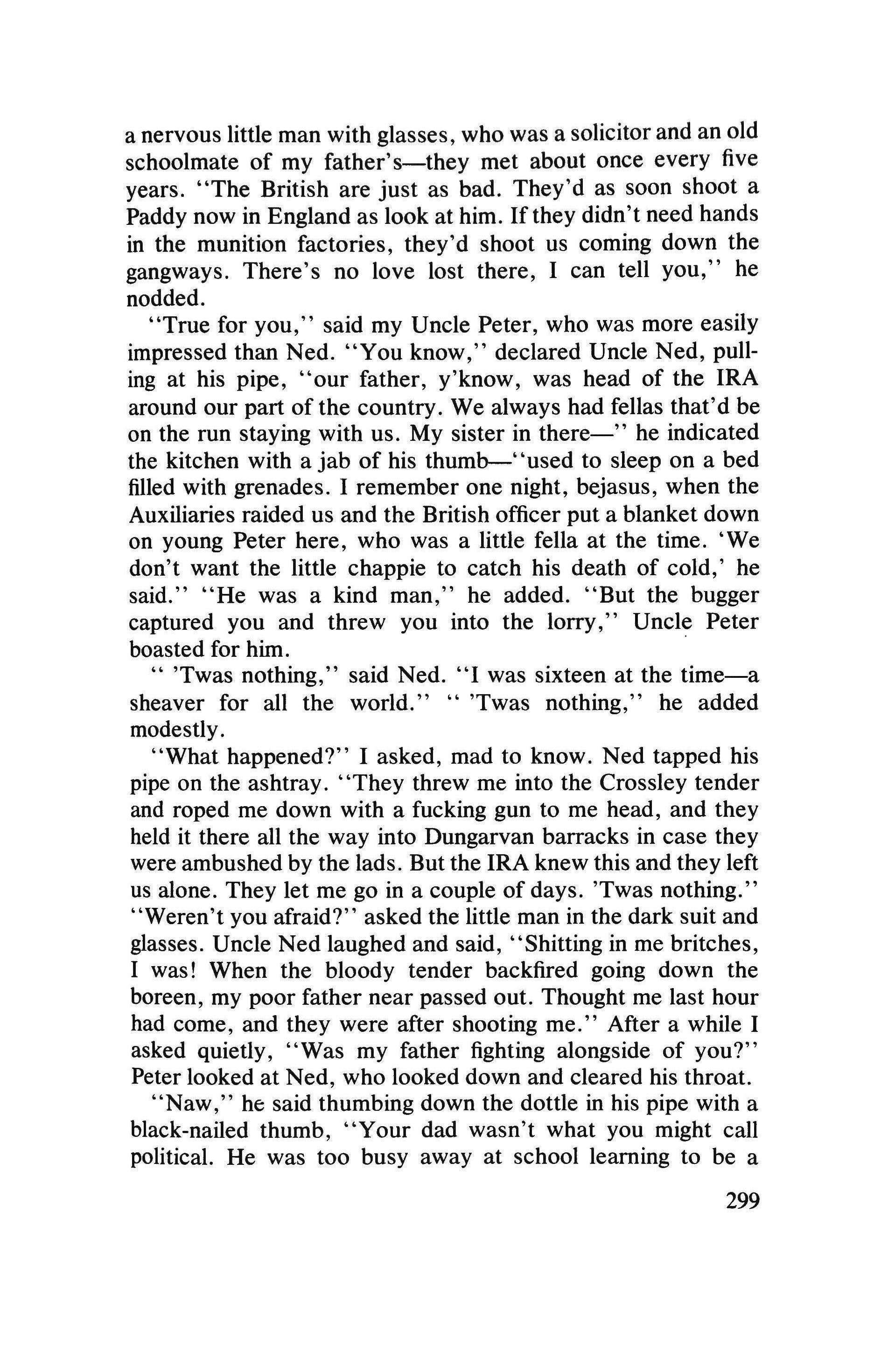
a nervous little man with glasses, who was a solicitor and an old schoolmate of my father's-they met about once every five years. "The British are just as bad. They'd as soon shoot a Paddy now in England as look at him. If they didn't need hands in the munition factories, they'd shoot us coming down the gangways. There's no love lost there, I can tell you," he nodded.
"True for you," said my Uncle Peter, who was more easily impressed than Ned. "You know," declared Uncle Ned, pulling at his pipe, "our father, y'know, was head of the IRA around our part of the country. We always had fellas that'd be on the run staying with us. My sister in there-" he indicated the kitchen with a jab of his thumb-"used to sleep on a bed filled with grenades. I remember one night, bejasus, when the Auxiliaries raided us and the British officer put a blanket down on young Peter here, who was a little fella at the time. 'We don't want the little chappie to catch his death of cold,' he said." "He was a kind man," he added. "But the bugger captured you and threw you into the lorry," Uncle Peter boasted for him.
'Twas nothing," said Ned. "I was sixteen at the time-a sheaver for all the world." "'Twas nothing," he added modestly.
"What happened?" I asked, mad to know. Ned tapped his pipe on the ashtray. "They threw me into the Crossley tender and roped me down with a fucking gun to me head, and they held it there all the way into Dungarvan barracks in case they were ambushed by the lads. But the IRA knew this and they left us alone. They let me go in a couple of days. 'Twas nothing." "Weren't you afraid?" asked the little man in the dark suit and glasses. Uncle Ned laughed and said, "Shirting in me britches, I was! When the bloody tender backfired going down the boreen, my poor father near passed out. Thought me last hour had come, and they were after shooting me." After a while I asked quietly, "Was my father fighting alongside of you?" Peter looked at Ned, who looked down and cleared his throat.
"Naw," he said thumbing down the dottle in his pipe with a black-nailed thumb, "Your dad wasn't what you might call political. He was too busy away at school learning to be a
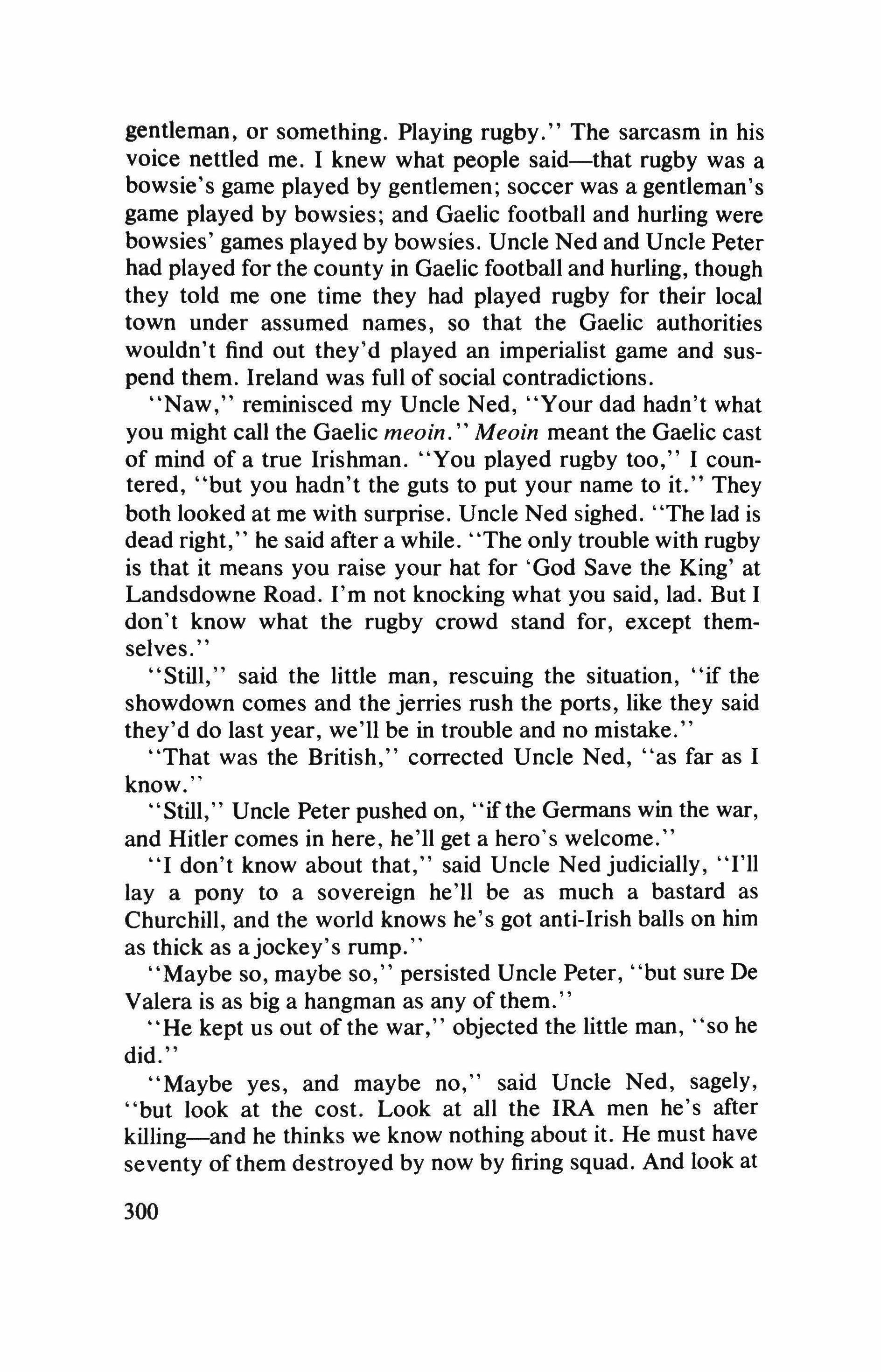
gentleman, or something. Playing rugby." The sarcasm in his voice nettled me. I knew what people said-that rugby was a bowsie's game played by gentlemen; soccer was a gentleman's game played by bowsies; and Gaelic football and hurling were bowsies' games played by bowsies. Uncle Ned and Uncle Peter had played for the county in Gaelic football and hurling, though they told me one time they had played rugby for their local town under assumed names, so that the Gaelic authorities wouldn't find out they'd played an imperialist game and suspend them. Ireland was full of social contradictions.
"Naw," reminisced my Uncle Ned, "Your dad hadn't what you might call the Gaelic meoin," Meoin meant the Gaelic cast of mind of a true Irishman. "You played rugby too," I countered, "but you hadn't the guts to put your name to it." They both looked at me with surprise. Uncle Ned sighed. "The lad is dead right," he said after a while. "The only trouble with rugby is that it means you raise your hat for 'God Save the King' at Landsdowne Road. I'm not knocking what you said, lad. But I don't know what the rugby crowd stand for, except themselves.
"Still," said the little man, rescuing the situation, "if the showdown comes and the jerries rush the ports, like they said they'd do last year, we'll be in trouble and no mistake."
"That was the British," corrected Uncle Ned, "as far as I know."
"Still," Uncle Peter pushed on, "if the Germans win the war, and Hitler comes in here, he'll get a hero's welcome."
"I don't know about that," said Uncle Ned judicially, "I'll lay a pony to a sovereign he'll be as much a bastard as Churchill, and the world knows he's got anti-Irish balls on him as thick as ajockey's rump."
"Maybe so, maybe so," persisted Uncle Peter, "but sure De Valera is as big a hangman as any of them.
"He kept us out of the war," objected the little man, "so he did."
"Maybe yes, and maybe no," said Uncle Ned, sagely, "but look at the cost. Look at all the IRA men he's after killing-and he thinks we know nothing about it. He must have seventy of them destroyed by now by firing squad. And look at 300
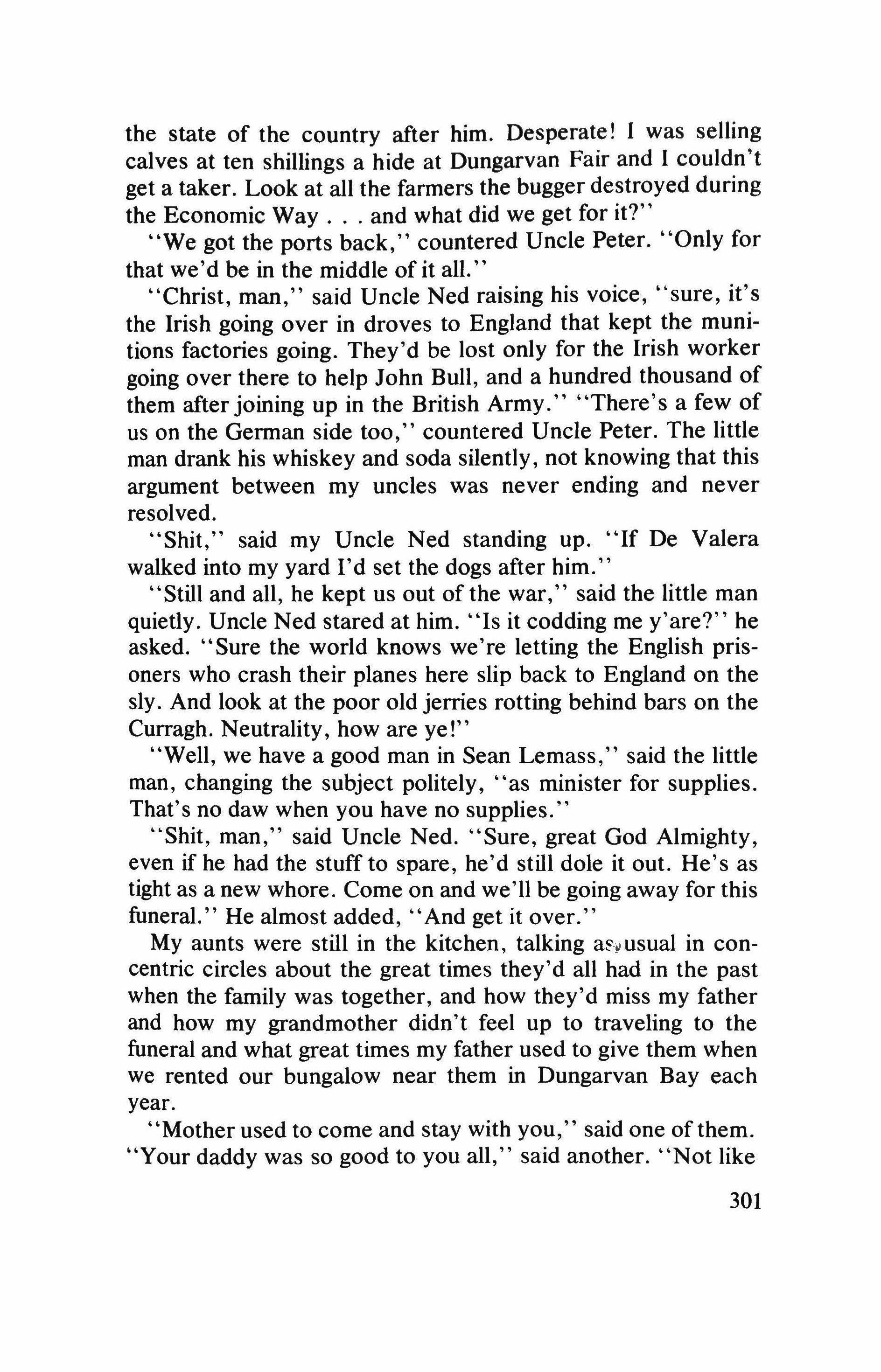
the state of the country after him. Desperate! I was selling calves at ten shillings a hide at Dungarvan Fair and I couldn't get a taker. Look at all the farmers the bugger destroyed during the Economic Way and what did we get for it?"
"We got the ports back," countered Uncle Peter. "Only for that we'd be in the middle of it all. "
"Christ, man," said Uncle Ned raising his voice, "sure, it's the Irish going over in droves to England that kept the munitions factories going. They'd be lost only for the Irish worker going over there to help John Bull, and a hundred thousand of them after joining up in the British Army." "There's a few of us on the German side too," countered Uncle Peter. The little man drank his whiskey and soda silently, not knowing that this argument between my uncles was never ending and never resolved.
"Shit," said my Uncle Ned standing up. "If De Valera walked into my yard I'd set the dogs after him."
"Still and all, he kept us out of the war," said the little man quietly. Uncle Ned stared at him. "Is it codding me y'are?" he asked. "Sure the world knows we're letting the English prisoners who crash their planes here slip back to England on the sly. And look at the poor old jerries rotting behind bars on the Curragh. Neutrality, how are ye!"
"Well, we have a good man in Sean Lemass," said the little man, changing the subject politely, "as minister for supplies. That's no daw when you have no supplies."
"Shit, man," said Uncle Ned. "Sure, great God Almighty, even if he had the stuff to spare, he'd still dole it out. He's as tight as a new whore. Come on and we'll be going away for this funeral." He almost added, "And get it over."
My aunts were still in the kitchen, talking as-usual in concentric circles about the great times they'd all had in the past when the family was together, and how they'd miss my father and how my grandmother didn't feel up to traveling to the funeral and what great times my father used to give them when we rented our bungalow near them in Dungarvan Bay each year.
"Mother used to come and stay with you," said one of them. "Your daddy was so good to you all," said another. "Not like
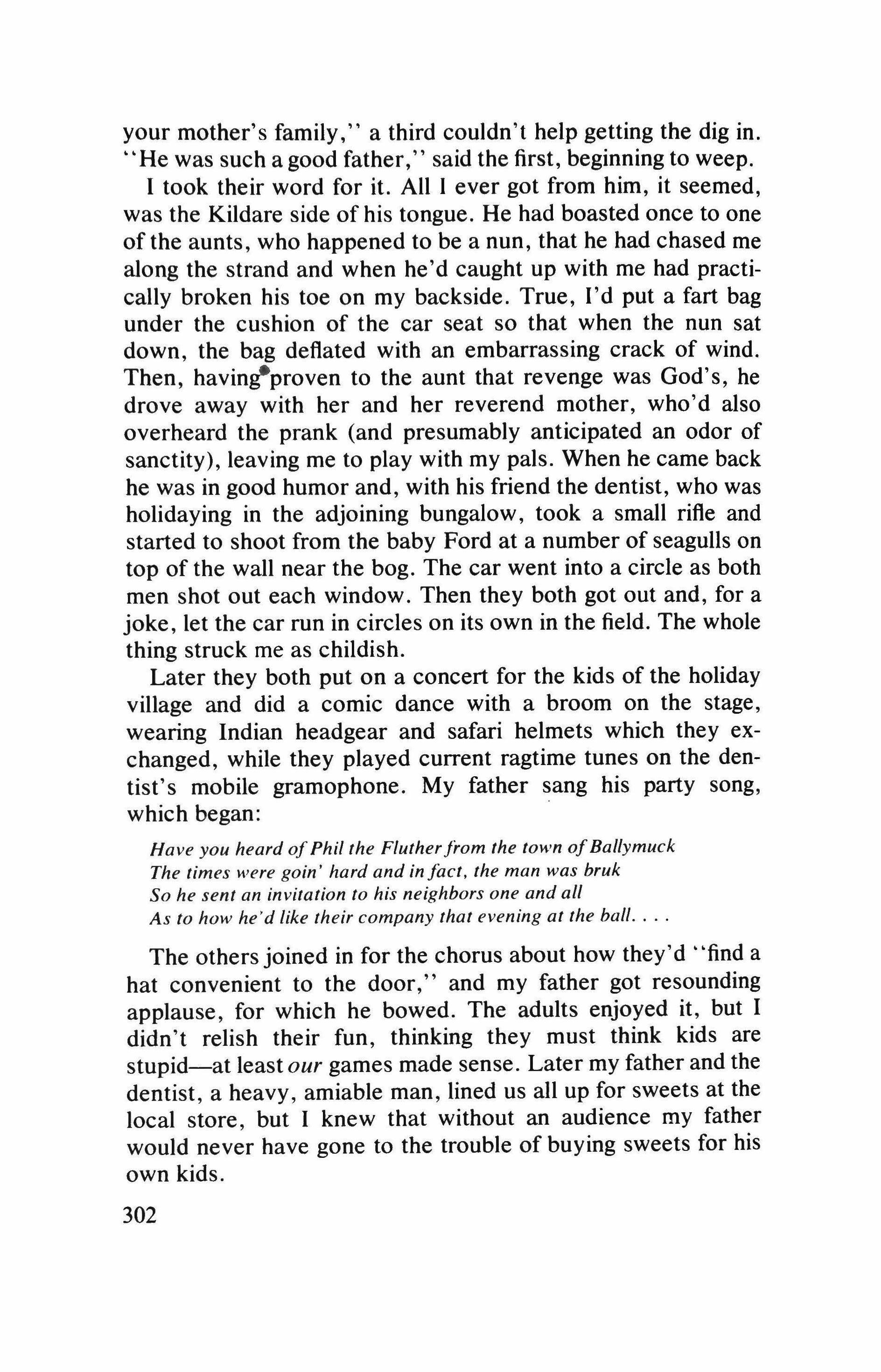
your mother's family," a third couldn't help getting the dig in He was such a good father," said the first, beginning to weep. I took their word for it. All I ever got from him, it seemed, was the Kildare side of his tongue. He had boasted once to one of the aunts, who happened to be a nun, that he had chased me along the strand and when he'd caught up with me had practically broken his toe on my backside. True, I'd put a fart bag under the cushion of the car seat so that when the nun sat down, the bag deflated with an embarrassing crack of wind. Then, havin�proven to the aunt that revenge was God's, he drove away with her and her reverend mother, who'd also overheard the prank (and presumably anticipated an odor of sanctity), leaving me to play with my pals. When he came back he was in good humor and, with his friend the dentist, who was holidaying in the adjoining bungalow, took a small rifle and started to shoot from the baby Ford at a number of seagulls on top of the wall near the bog. The car went into a circle as both men shot out each window. Then they both got out and, for a joke, let the car run in circles on its own in the field. The whole thing struck me as childish.
Later they both put on a concert for the kids of the holiday village and did a comic dance with a broom on the stage, wearing Indian headgear and safari helmets which they exchanged, while they played current ragtime tunes on the dentist's mobile gramophone. My father sang his party song, which began:
Have you heard of Phil the Flutherfrom the town ofBallymuck
The times were goin' hard and in fact, the man was bruk
So he sent an invitation to his neighbors one and all
As to how he'd like their company that evening at the ball
The others joined in for the chorus about how they'd "find a hat convenient to the door," and my father got resounding applause, for which he bowed. The adults enjoyed it, but I didn't relish their fun, thinking they must think kids are stupid-at least our games made sense. Later my father and the dentist, a heavy, amiable man, lined us all up for sweets at the local store, but I knew that without an audience my father would never have gone to the trouble of buying sweets for his own kids.
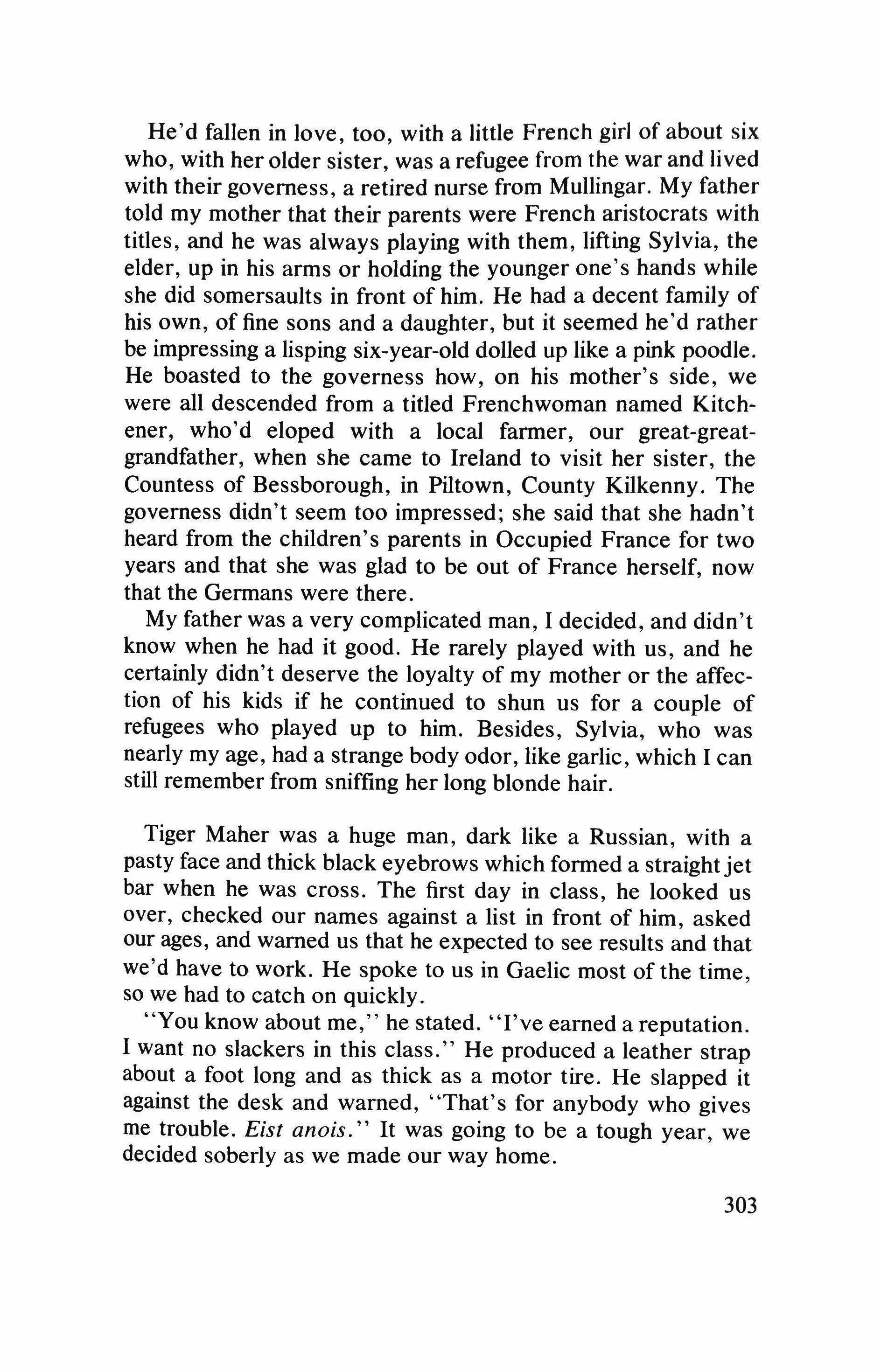
He'd fallen in love, too, with a little French girl of about six who, with her older sister, was a refugee from the war and lived with their governess, a retired nurse from Mullingar. My father told my mother that their parents were French aristocrats with titles, and he was always playing with them, lifting Sylvia, the elder, up in his arms or holding the younger one's hands while she did somersaults in front of him. He had a decent family of his own, of fine sons and a daughter, but it seemed he'd rather be impressing a lisping six-year-old dolled up like a pink poodle. He boasted to the governess how, on his mother's side, we were all descended from a titled Frenchwoman named Kitchener, who'd eloped with a local farmer, our great-greatgrandfather, when she came to Ireland to visit her sister, the Countess of Bessborough, in Piltown, County Kilkenny. The governess didn't seem too impressed; she said that she hadn't heard from the children's parents in Occupied France for two years and that she was glad to be out of France herself, now that the Germans were there.
My father was a very complicated man, I decided, and didn't know when he had it good. He rarely played with us, and he certainly didn't deserve the loyalty of my mother or the affection of his kids if he continued to shun us for a couple of refugees who played up to him. Besides, Sylvia, who was nearly my age, had a strange body odor, like garlic, which I can still remember from sniffing her long blonde hair.
Tiger Maher was a huge man, dark like a Russian, with a pasty face and thick black eyebrows which formed a straightjet bar when he was cross. The first day in class, he looked us over, checked our names against a list in front of him, asked our ages, and warned us that he expected to see results and that we'd have to work. He spoke to us in Gaelic most of the time, so we had to catch on quickly.
"You know about me," he stated. "I've earned a reputation. I want no slackers in this class." He produced a leather strap about a foot long and as thick as a motor tire. He slapped it against the desk and warned, "That's for anybody who gives me trouble. Eist anois, It was going to be a tough year, we decided soberly as we made our way home.
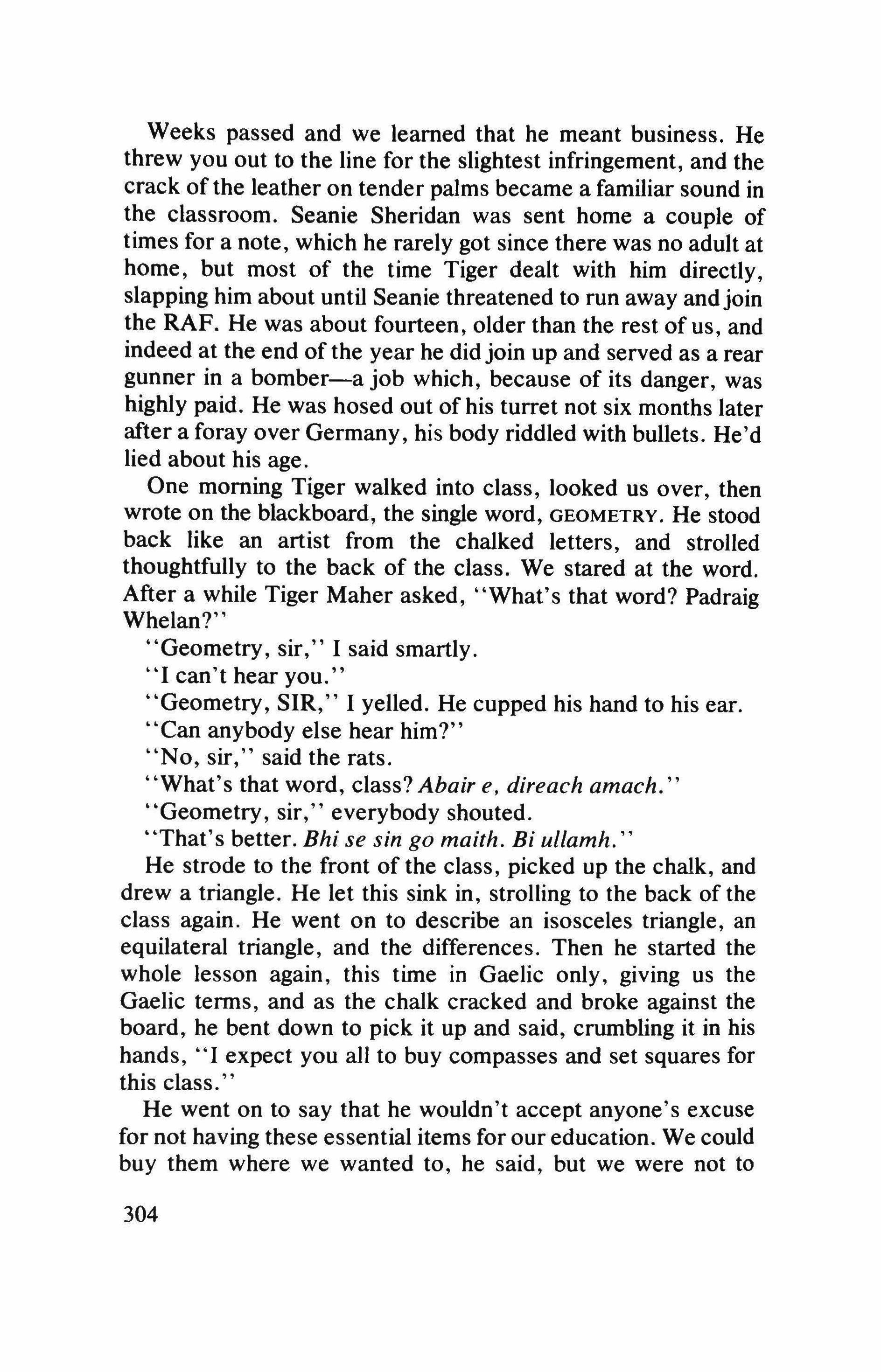
Weeks passed and we learned that he meant business. He threw you out to the line for the slightest infringement, and the crack of the leather on tender palms became a familiar sound in the classroom. Seanie Sheridan was sent home a couple of times for a note, which he rarely got since there was no adult at home, but most of the time Tiger dealt with him directly, slapping him about until Seanie threatened to run away andjoin the RAF. He was about fourteen, older than the rest of us, and indeed at the end of the year he did join up and served as a rear gunner in a bomber-a job which, because of its danger, was highly paid. He was hosed out of his turret not six months later after a foray over Germany, his body riddled with bullets. He'd lied about his age.
One morning Tiger walked into class, looked us over, then wrote on the blackboard, the single word, GEOMETRY. He stood back like an artist from the chalked letters, and strolled thoughtfully to the back of the class. We stared at the word. After a while Tiger Maher asked, "What's that word? Padraig Whelan?"
"Geometry, sir," I said smartly.
"I can't hear you."
"Geometry, SIR," I yelled. He cupped his hand to his ear.
"Can anybody else hear him?"
"No, sir," said the rats.
"What's that word, class? Abair e, direach amach."
"Geometry, sir," everybody shouted.
"That's better. Bhi se sin go maith. Bi ullamh."
He strode to the front of the class, picked up the chalk, and drew a triangle. He let this sink in, strolling to the back of the class again. He went on to describe an isosceles triangle, an equilateral triangle, and the differences. Then he started the whole lesson again, this time in Gaelic only, giving us the Gaelic terms, and as the chalk cracked and broke against the board, he bent down to pick it up and said, crumbling it in his hands, "I expect you all to buy compasses and set squares for this class."
He went on to say that he wouldn't accept anyone's excuse for not having these essential items for our education. We could buy them where we wanted to, he said, but we were not to
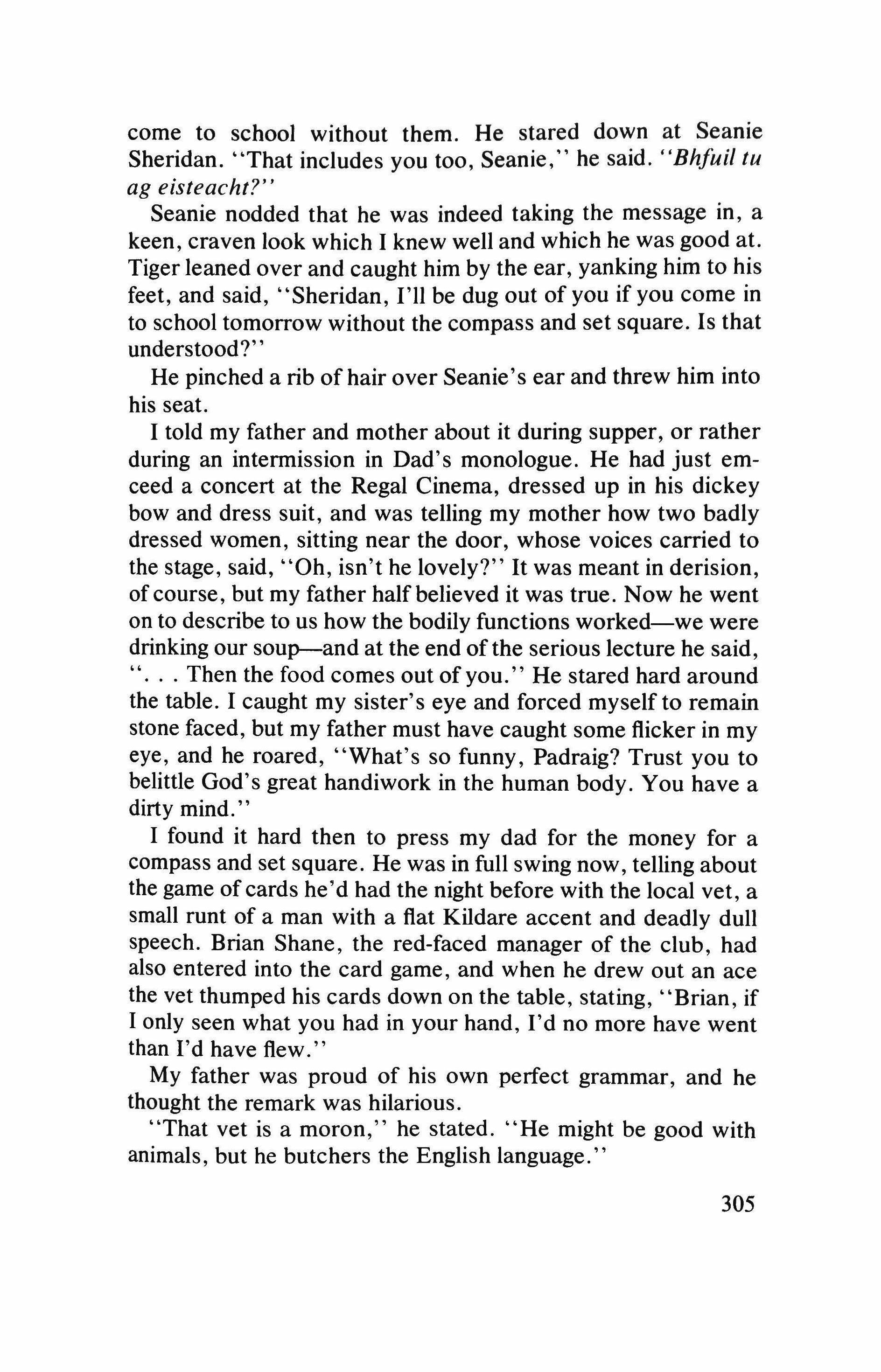
come to school without them. He stared down at Seanie Sheridan. "That includes you too, Seanie," he said. "Bhfuil tu ag eisteacht?'
Seanie nodded that he was indeed taking the message in, a keen, craven look which I knew well and which he was good at. Tiger leaned over and caught him by the ear, yanking him to his feet, and said, "Sheridan, I'll be dug out of you if you come in to school tomorrow without the compass and set square. Is that understood?'
He pinched a rib of hair over Seanie's ear and threw him into his seat.
I told my father and mother about it during supper, or rather during an intermission in Dad's monologue. He had just emceed a concert at the Regal Cinema, dressed up in his dickey bow and dress suit, and was telling my mother how two badly dressed women, sitting near the door, whose voices carried to the stage, said, "Oh, isn't he lovely?" It was meant in derision, of course, but my father half believed it was true. Now he went on to describe to us how the bodily functions worked-we were drinking our soup-and at the end of the serious lecture he said, ". Then the food comes out of you. He stared hard around the table. I caught my sister's eye and forced myself to remain stone faced, but my father must have caught some flicker in my eye, and he roared, "What's so funny, Padraig? Trust you to belittle God's great handiwork in the human body. You have a dirty mind."
I found it hard then to press my dad for the money for a compass and set square. He was in full swing now, telling about the game of cards he'd had the night before with the local vet, a small runt of a man with a flat Kildare accent and deadly dull speech. Brian Shane, the red-faced manager of the club, had also entered into the card game, and when he drew out an ace the vet thumped his cards down on the table, stating, "Brian, if I only seen what you had in your hand, I'd no more have went than I'd have flew. "
My father was proud of his own perfect grammar, and he thought the remark was hilarious.
"That vet is a moron," he stated. "He might be good with animals, but he butchers the English language."
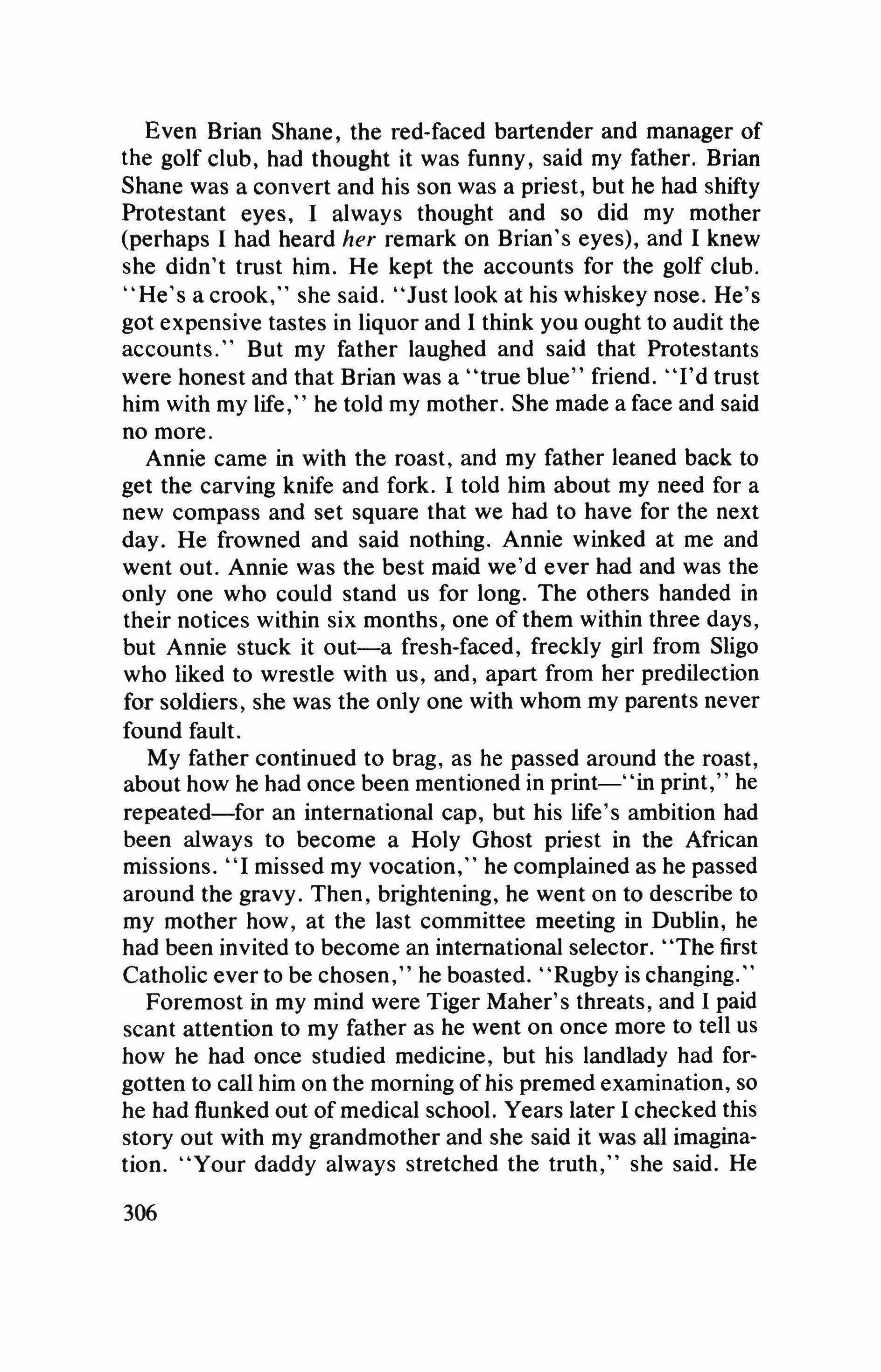
Even Brian Shane, the red-faced bartender and manager of the golf club, had thought it was funny, said my father. Brian Shane was a convert and his son was a priest, but he had shifty Protestant eyes, I always thought and so did my mother (perhaps I had heard her remark on Brian's eyes), and I knew she didn't trust him. He kept the accounts for the golf club. "He's a crook," she said. "Just look at his whiskey nose. He's got expensive tastes in liquor and I think you ought to audit the accounts." But my father laughed and said that Protestants were honest and that Brian was a "true blue" friend. "I'd trust him with my life," he told my mother. She made a face and said no more.
Annie came in with the roast, and my father leaned back to get the carving knife and fork. I told him about my need for a new compass and set square that we had to have for the next day. He frowned and said nothing. Annie winked at me and went out. Annie was the best maid we'd ever had and was the only one who could stand us for long. The others handed in their notices within six months, one of them within three days, but Annie stuck it out-a fresh-faced, freckly girl from Sligo who liked to wrestle with us, and, apart from her predilection for soldiers, she was the only one with whom my parents never found fault.
My father continued to brag, as he passed around the roast, about how he had once been mentioned in print-"in print," he repeated-for an international cap, but his life's ambition had been always to become a Holy Ghost priest in the African missions. "I missed my vocation," he complained as he passed around the gravy. Then, brightening, he went on to describe to my mother how, at the last committee meeting in Dublin, he had been invited to become an international selector. "The first Catholic ever to be chosen," he boasted. "Rugby is changing."
Foremost in my mind were Tiger Maher's threats, and I paid scant attention to my father as he went on once more to tell us how he had once studied medicine, but his landlady had forgotten to call him on the morning of his premed examination, so he had flunked out of medical school. Years later I checked this story out with my grandmother and she said it was all imagination. "Your daddy always stretched the truth," she said. He
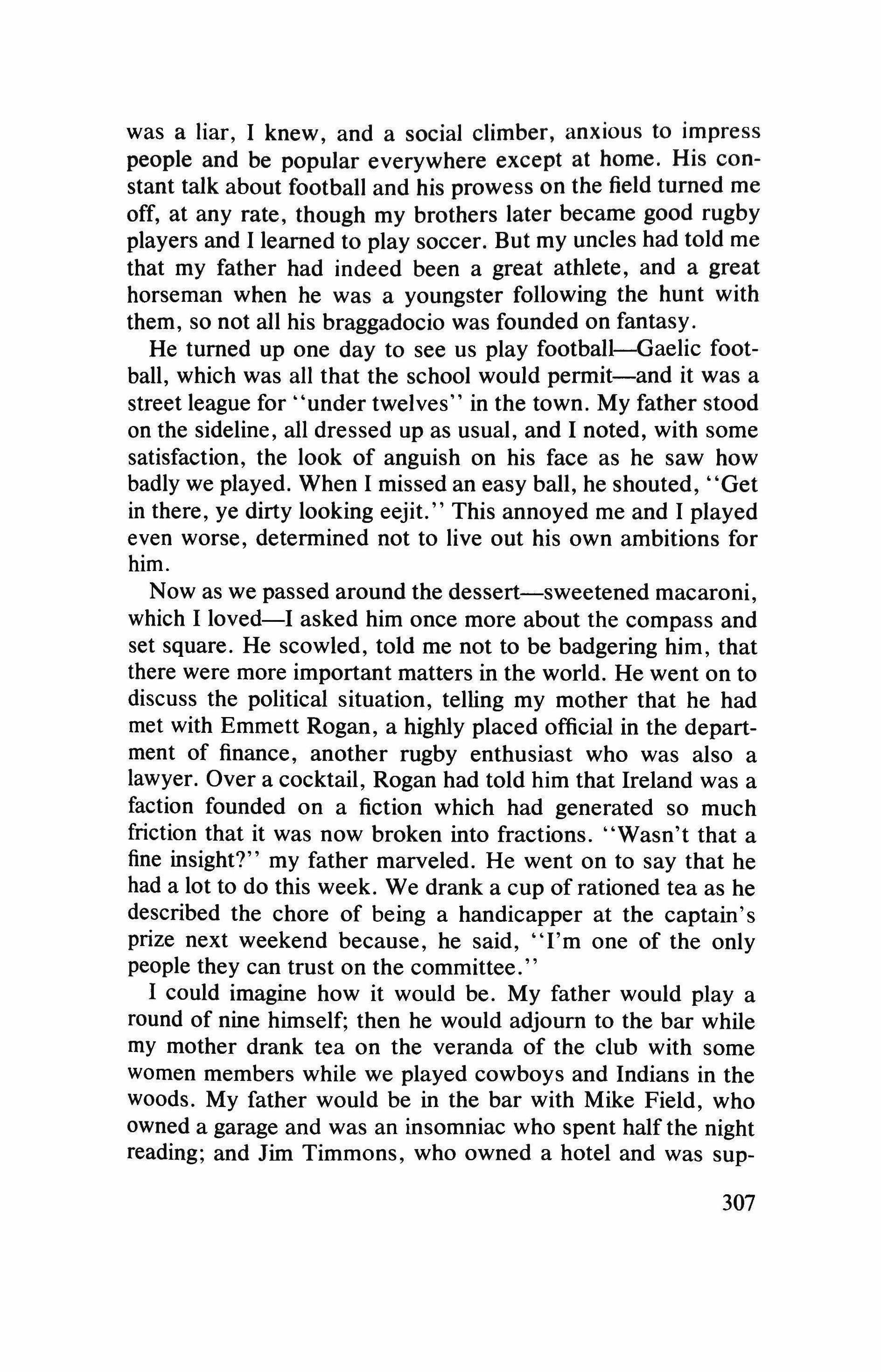
was a liar, I knew, and a social climber, anxious to impress people and be popular everywhere except at home. His constant talk about football and his prowess on the field turned me off, at any rate, though my brothers later became good rugby players and I learned to play soccer. But my uncles had told me that my father had indeed been a great athlete, and a great horseman when he was a youngster following the hunt with them, so not all his braggadocio was founded on fantasy.
He turned up one day to see us play football-Gaelic football, which was all that the school would permit-and it was a street league for "under twelves" in the town. My father stood on the sideline, all dressed up as usual, and I noted, with some satisfaction, the look of anguish on his face as he saw how badly we played. When I missed an easy ball, he shouted, "Get in there, ye dirty looking eejit." This annoyed me and I played even worse, determined not to live out his own ambitions for him.
Now as we passed around the dessert-sweetened macaroni, which I loved-I asked him once more about the compass and set square. He scowled, told me not to be badgering him, that there were more important matters in the world. He went on to discuss the political situation, telling my mother that he had met with Emmett Rogan, a highly placed official in the department of finance, another rugby enthusiast who was also a lawyer. Over a cocktail, Rogan had told him that Ireland was a faction founded on a fiction which had generated so much friction that it was now broken into fractions. "Wasn't that a fine insight?" my father marveled. He went on to say that he had a lot to do this week. We drank a cup of rationed tea as he described the chore of being a handicapper at the captain's prize next weekend because, he said, "I'm one of the only people they can trust on the committee."
I could imagine how it would be. My father would playa round of nine himself; then he would adjourn to the bar while my mother drank tea on the veranda of the club with some women members while we played cowboys and Indians in the woods. My father would be in the bar with Mike Field, who owned a garage and was an insomniac who spent half the night reading; and Jim Timmons, who owned a hotel and was sup-
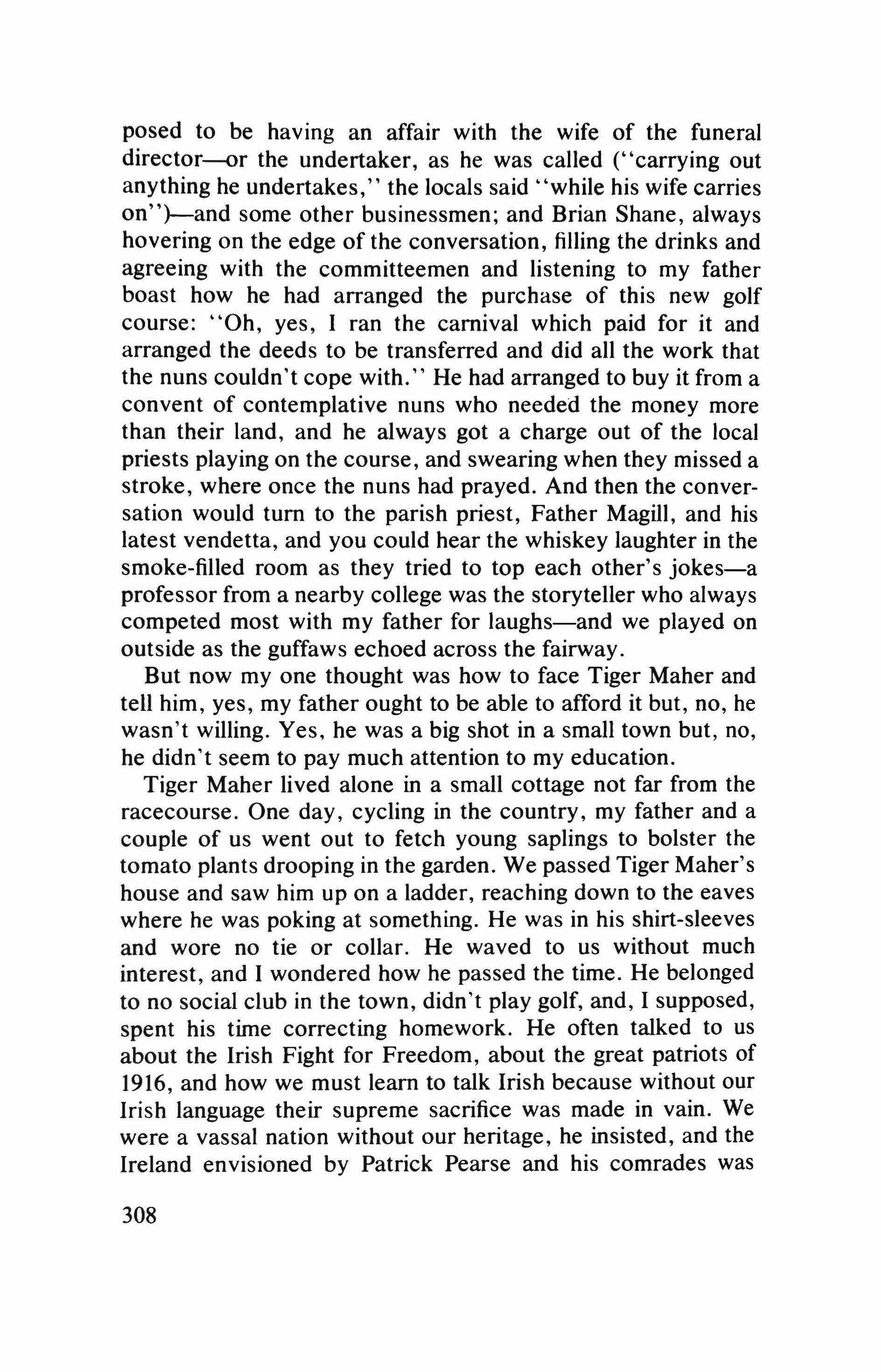
posed to be having an affair with the wife of the funeral director-s-or the undertaker, as he was called ("carrying out anything he undertakes," the locals said "while his wife carries on")-and some other businessmen; and Brian Shane, always hovering on the edge of the conversation, filling the drinks and agreeing with the committeemen and listening to my father boast how he had arranged the purchase of this new golf course: "Oh, yes, I ran the carnival which paid for it and arranged the deeds to be transferred and did all the work that the nuns couldn't cope with." He had arranged to buy it from a convent of contemplative nuns who needed the money more than their land, and he always got a charge out of the local priests playing on the course, and swearing when they missed a stroke, where once the nuns had prayed. And then the conversation would turn to the parish priest, Father Magill, and his latest vendetta, and you could hear the whiskey laughter in the smoke-filled room as they tried to top each other's jokes-a professor from a nearby college was the storyteller who always competed most with my father for laughs-and we played on outside as the guffaws echoed across the fairway.
But now my one thought was how to face Tiger Maher and tell him, yes, my father ought to be able to afford it but, no, he wasn't willing. Yes, he was a big shot in a small town but, no, he didn't seem to pay much attention to my education.
Tiger Maher lived alone in a small cottage not far from the racecourse. One day, cycling in the country, my father and a couple of us went out to fetch young saplings to bolster the tomato plants drooping in the garden. We passed Tiger Maher's house and saw him up on a ladder, reaching down to the eaves where he was poking at something. He was in his shirt-sleeves and wore no tie or collar. He waved to us without much interest, and I wondered how he passed the time. He belonged to no social club in the town, didn't play golf, and, I supposed, spent his time correcting homework. He often talked to us about the Irish Fight for Freedom, about the great patriots of 1916, and how we must learn to talk Irish because without our Irish language their supreme sacrifice was made in vain. We were a vassal nation without our heritage, he insisted, and the Ireland envisioned by Patrick Pearse and his comrades was
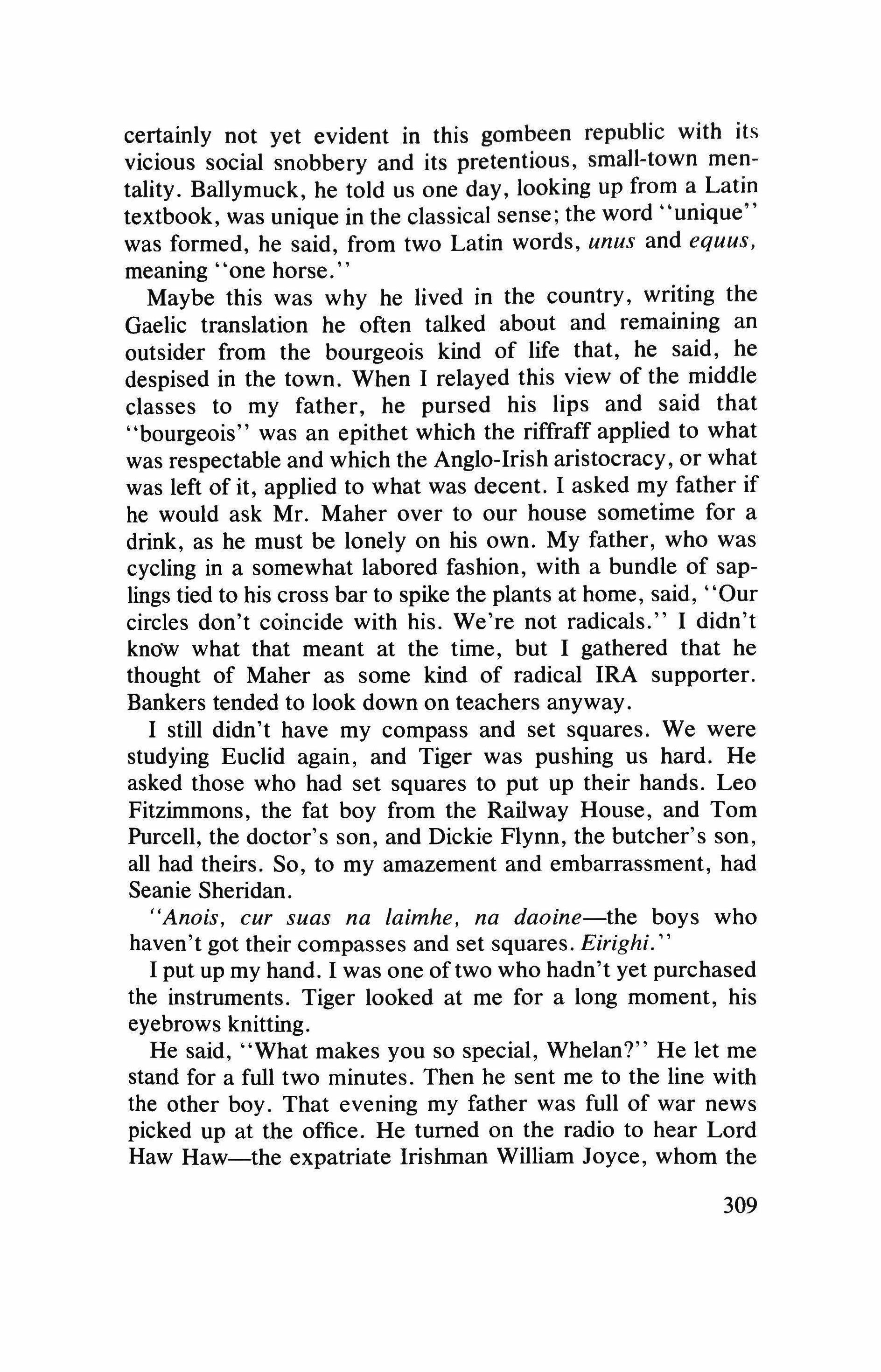
certainly not yet evident in this gombeen republic with its vicious social snobbery and its pretentious, small-town mentality. Ballymuck, he told us one day, looking up from a Latin textbook, was unique in the classical sense; the word "unique" was formed, he said, from two Latin words, unus and equus, meaning •• one horse."
Maybe this was why he lived in the country, writing the Gaelic translation he often talked about and remaining an outsider from the bourgeois kind of life that, he said, he despised in the town. When I relayed this view of the middle classes to my father, he pursed his lips and said that "bourgeois" was an epithet which the riffraff applied to what was respectable and which the Anglo-Irish aristocracy, or what was left of it, applied to what was decent. I asked my father if he would ask Mr. Maher over to our house sometime for a drink, as he must be lonely on his own. My father, who was cycling in a somewhat labored fashion, with a bundle of saplings tied to his cross bar to spike the plants at home, said, "Our circles don't coincide with his. We're not radicals." I didn't know what that meant at the time, but I gathered that he thought of Maher as some kind of radical IRA supporter. Bankers tended to look down on teachers anyway.
I still didn't have my compass and set squares. We were studying Euclid again, and Tiger was pushing us hard. He asked those who had set squares to put up their hands. Leo Fitzimmons, the fat boy from the Railway House, and Tom Purcell, the doctor's son, and Dickie Flynn, the butcher's son, all had theirs. So, to my amazement and embarrassment, had Seanie Sheridan.
"Anois, cur suas na laimhe, na daoine-the boys who haven't got their compasses and set squares. Eirighi."
I put up my hand. I was one of two who hadn't yet purchased the instruments. Tiger looked at me for a long moment, his eyebrows knitting.
He said, "What makes you so special, Whelan?" He let me stand for a full two minutes. Then he sent me to the line with the other boy. That evening my father was full of war news picked up at the office. He turned on the radio to hear Lord Haw Haw-the expatriate Irishman William Joyce, whom the
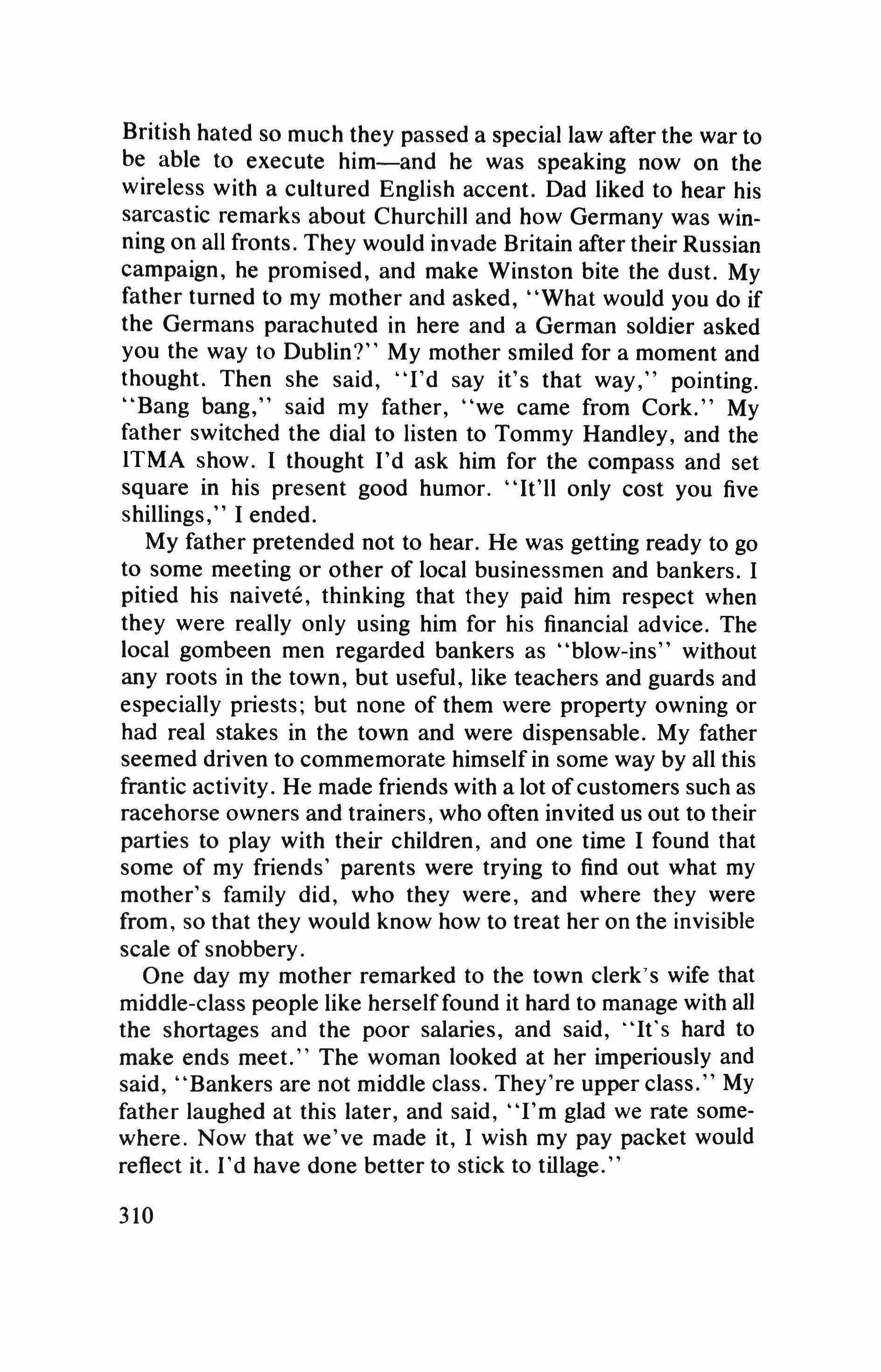
British hated so much they passed a special law after the war to be able to execute him-and he was speaking now on the wireless with a cultured English accent. Dad liked to hear his sarcastic remarks about Churchill and how Germany was winning on all fronts. They would invade Britain after their Russian campaign, he promised, and make Winston bite the dust. My father turned to my mother and asked, 'What would you do if the Germans parachuted in here and a German soldier asked you the way to Dublin?" My mother smiled for a moment and thought. Then she said, "I'd say it's that way," pointing. "Bang bang," said my father, "we came from Cork." My father switched the dial to listen to Tommy Handley, and the lTMA show. I thought I'd ask him for the compass and set square in his present good humor. "It'll only cost you five shillings," I ended.
My father pretended not to hear. He was getting ready to go to some meeting or other of local businessmen and bankers. I pitied his naivete, thinking that they paid him respect when they were really only using him for his financial advice. The local gombeen men regarded bankers as "blow-ins" without any roots in the town, but useful, like teachers and guards and especially priests; but none of them were property owning or had real stakes in the town and were dispensable. My father seemed driven to commemorate himself in some way by all this frantic activity. He made friends with a lot of customers such as racehorse owners and trainers, who often invited us out to their parties to play with their children, and one time I found that some of my friends' parents were trying to find out what my mother's family did, who they were, and where they were from, so that they would know how to treat her on the invisible scale of snobbery.
One day my mother remarked to the town clerk's wife that middle-class people like herselffound it hard to manage with all the shortages and the poor salaries, and said, "It's hard to make ends meet." The woman looked at her imperiously and said, "Bankers are not middle class. They're upper class." My father laughed at this later, and said, "I'm glad we rate somewhere. Now that we've made it, I wish my pay packet would reflect it. I'd have done better to stick to tillage.
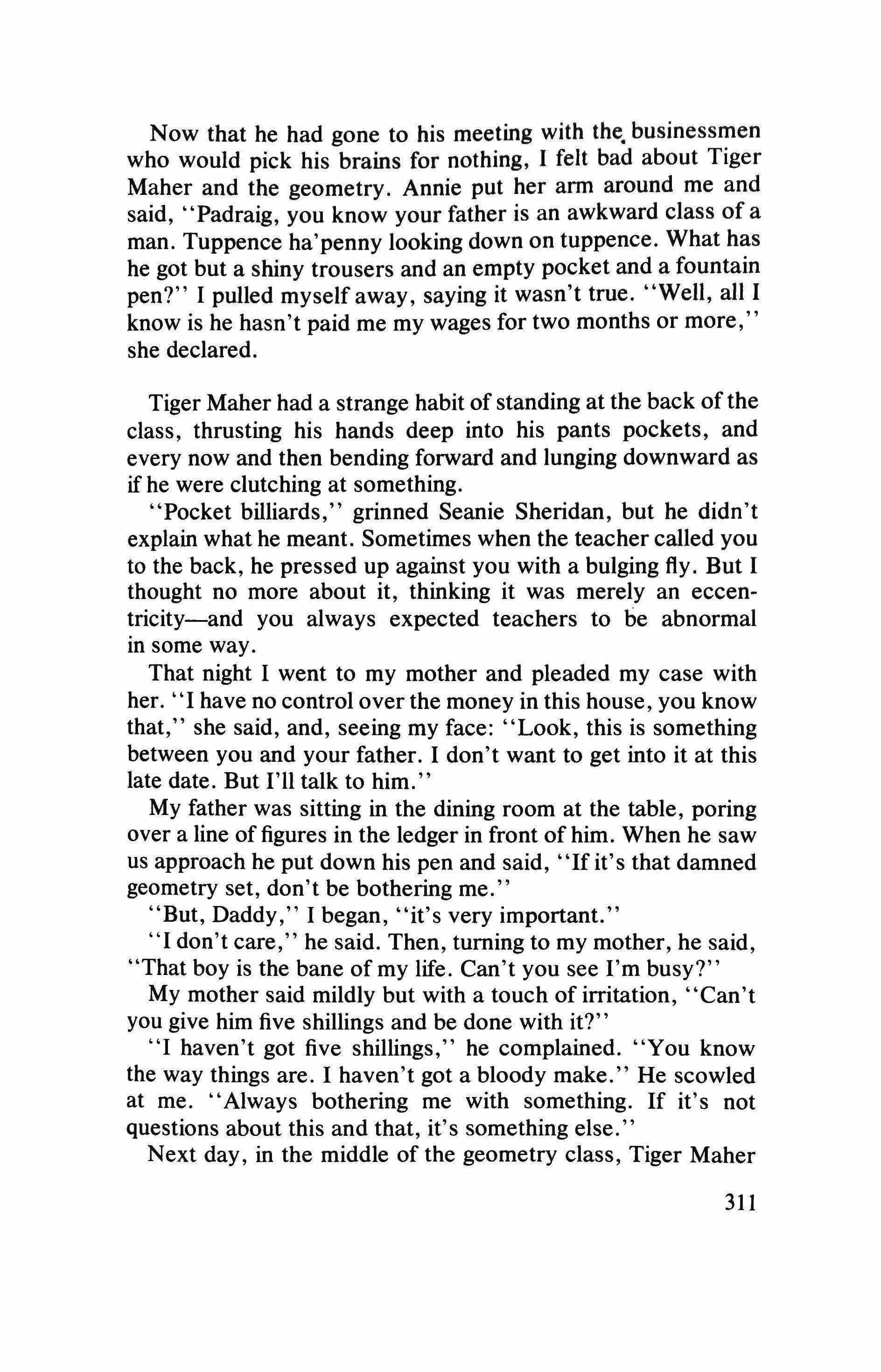
Now that he had gone to his meeting with the. businessmen who would pick his brains for nothing, I felt bad about Tiger Maher and the geometry. Annie put her arm around me and said, "Padraig, you know your father is an awkward class of a man. Tuppence ha'penny looking down on tuppence. What has he got but a shiny trousers and an empty pocket and a fountain pen?" I pulled myself away, saying it wasn't true. "Well, all I know is he hasn't paid me my wages for two months or more," she declared.
Tiger Maher had a strange habit of standing at the back of the class, thrusting his hands deep into his pants pockets, and every now and then bending forward and lunging downward as if he were clutching at something.
"Pocket billiards," grinned Seanie Sheridan, but he didn't explain what he meant. Sometimes when the teacher called you to the back, he pressed up against you with a bulging fly. But I thought no more about it, thinking it was merely an eccentricity-and you always expected teachers to be abnormal in some way.
That night I went to my mother and pleaded my case with her. "I have no control over the money in this house, you know that," she said, and, seeing my face: "Look, this is something between you and your father. I don't want to get into it at this late date. But I'll talk to him."
My father was sitting in the dining room at the table, poring over a line of figures in the ledger in front of him. When he saw us approach he put down his pen and said, "If it's that damned geometry set, don't be bothering me."
"But, Daddy," 1 began, "it's very important."
"I don't care," he said. Then, turning to my mother, he said, "That boy is the bane of my life. Can't you see I'm busy?"
My mother said mildly but with a touch of irritation, "Can't you give him five shillings and be done with it?"
"I haven't got five shillings," he complained. "You know the way things are. I haven't got a bloody make." He scowled at me. "Always bothering me with something. If it's not questions about this and that, it's something else."
Next day, in the middle of the geometry class, Tiger Maher 311
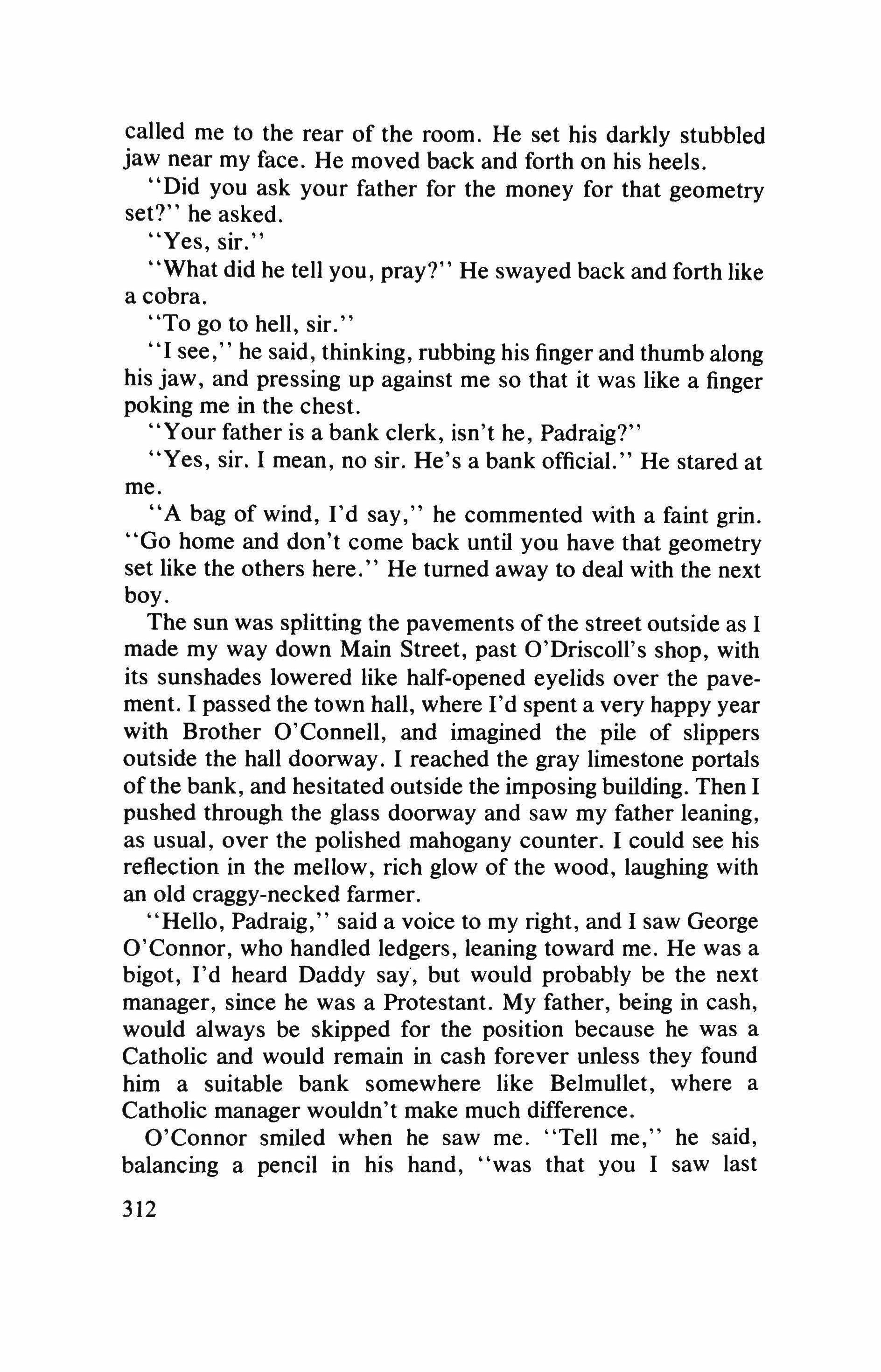
called me to the rear of the room. He set his darkly stubbled jaw near my face. He moved back and forth on his heels.
"Did you ask your father for the money for that geometry set?" he asked.
"Yes, sir."
"What did he tell you, pray?" He swayed back and forth like a cobra.
"To go to hell, sir."
"I see," he said, thinking, rubbing his finger and thumb along his jaw, and pressing up against me so that it was like a finger poking me in the chest.
"Your father is a bank clerk, isn't he, Padraig?"
"Yes, sir. I mean, no sir. He's a bank official." He stared at me.
"A bag of wind, I'd say," he commented with a faint grin. "Go home and don't come back until you have that geometry set like the others here." He turned away to deal with the next boy.
The sun was splitting the pavements of the street outside as I made my way down Main Street, past O'Driscoll's shop, with its sunshades lowered like half-opened eyelids over the pavement. I passed the town hall, where I'd spent a very happy year with Brother O'Connell, and imagined the pile of slippers outside the hall doorway. I reached the gray limestone portals ofthe bank, and hesitated outside the imposing building. Then I pushed through the glass doorway and saw my father leaning, as usual, over the polished mahogany counter. I could see his reflection in the mellow, rich glow of the wood, laughing with an old craggy-necked farmer.
"Hello, Padraig," said a voice to my right, and I saw George O'Connor, who handled ledgers, leaning toward me. He was a bigot, I'd heard Daddy say, but would probably be the next manager, since he was a Protestant. My father, being in cash, would always be skipped for the position because he was a Catholic and would remain in cash forever unless they found him a suitable bank somewhere like Belmullet, where a Catholic manager wouldn't make much difference.
O'Connor smiled when he saw me. "Tell me," he said, balancing a pencil in his hand, "was that you I saw last 312
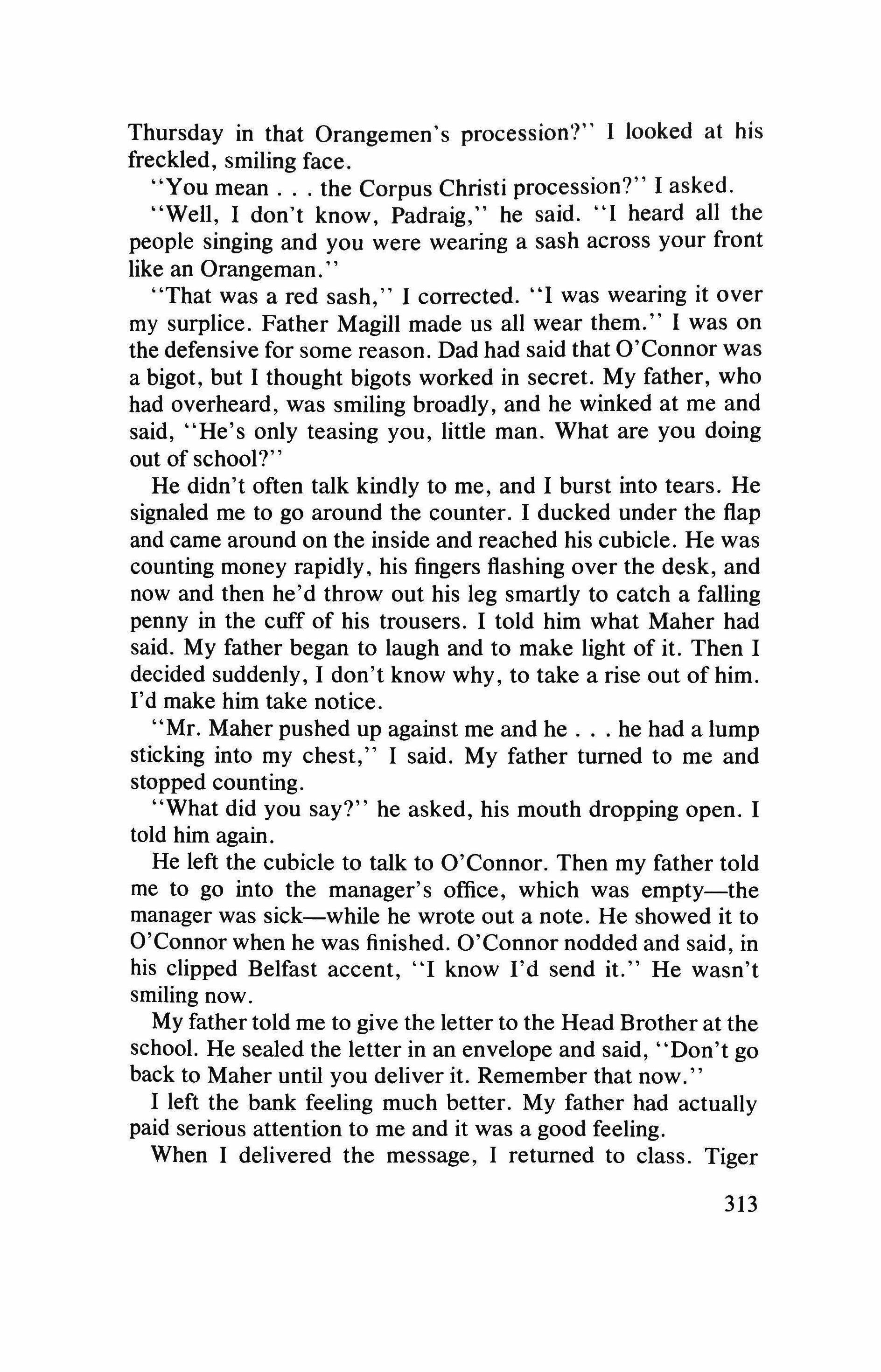
Thursday in that Orangernen's procession?" I looked at his freckled, smiling face.
"You mean the Corpus Christi procession?" 1 asked.
"Well, 1 don't know, Padraig," he said. "I heard all the people singing and you were wearing a sash across your front like an Orangeman.
"That was a red sash," I corrected. "I was wearing it over my surplice. Father Magill made us all wear them." I was on the defensive for some reason. Dad had said that O'Connor was a bigot, but I thought bigots worked in secret. My father, who had overheard, was smiling broadly, and he winked at me and said, "He's only teasing you, little man. What are you doing out of school?"
He didn't often talk kindly to me, and 1 burst into tears. He signaled me to go around the counter. 1 ducked under the flap and came around on the inside and reached his cubicle. He was counting money rapidly, his fingers flashing over the desk, and now and then he'd throw out his leg smartly to catch a falling penny in the cuff of his trousers. I told him what Maher had said. My father began to laugh and to make light of it. Then 1 decided suddenly, I don't know why, to take a rise out of him. I'd make him take notice.
"Mr. Maher pushed up against me and he he had a lump sticking into my chest," 1 said. My father turned to me and stopped counting.
"What did you say?" he asked, his mouth dropping open. 1 told him again.
He left the cubicle to talk to O'Connor. Then my father told me to go into the manager's office, which was empty-the manager was sick-while he wrote out a note. He showed it to O'Connor when he was finished. O'Connor nodded and said, in his clipped Belfast accent, "I know I'd send it." He wasn't smiling now.
My father told me to give the letter to the Head Brother at the school. He sealed the letter in an envelope and said, "Don't go back to Maher until you deliver it. Remember that now.
1 left the bank feeling much better. My father had actually paid serious attention to me and it was a good feeling.
When I delivered the message, I returned to class. Tiger
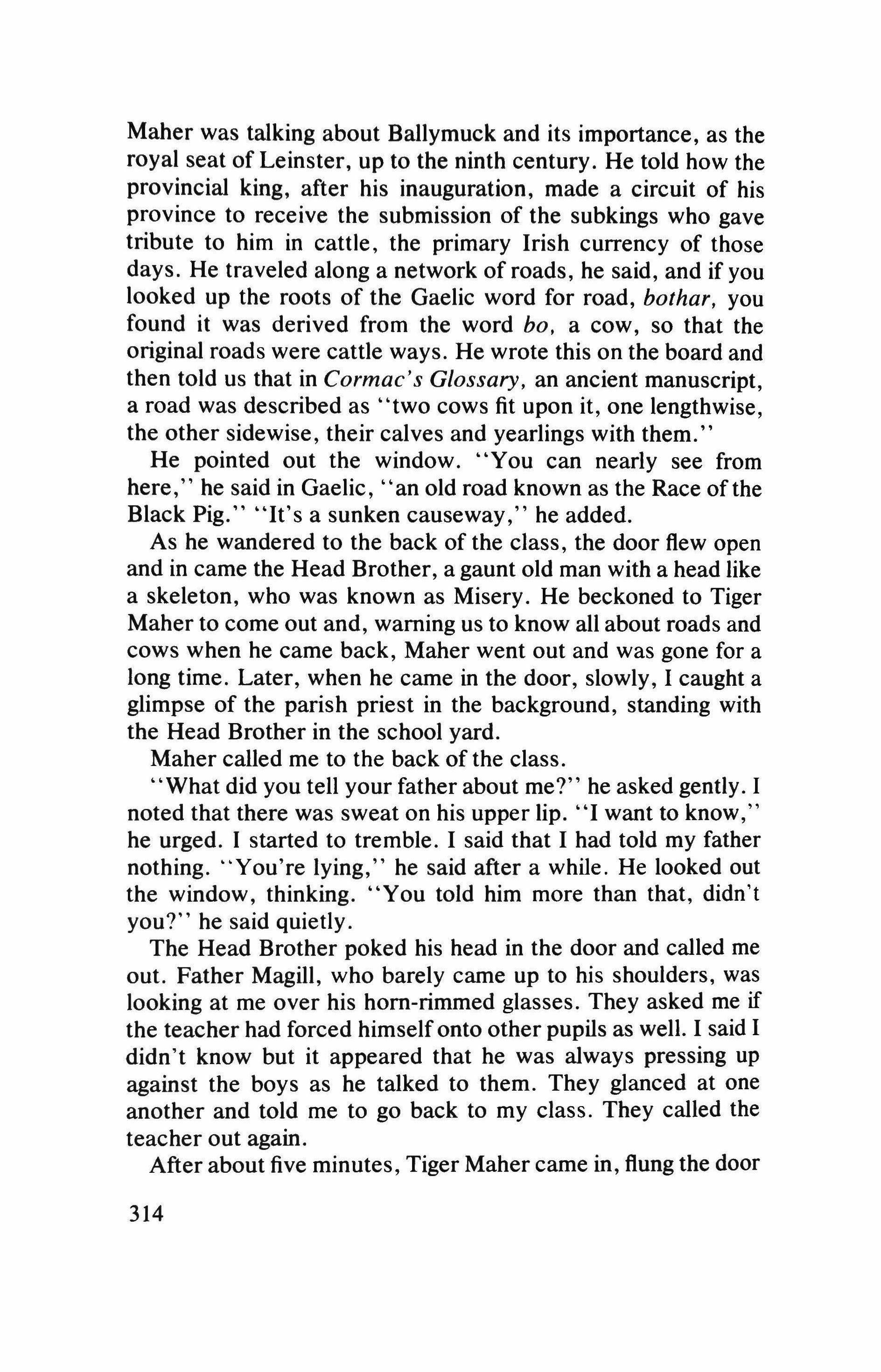
Maher was talking about Ballymuck and its importance, as the royal seat of Leinster, up to the ninth century. He told how the provincial king, after his inauguration, made a circuit of his province to receive the submission of the subkings who gave tribute to him in cattle, the primary Irish currency of those days. He traveled along a network of roads, he said, and if you looked up the roots of the Gaelic word for road, bothar, you found it was derived from the word bo, a cow, so that the original roads were cattle ways. He wrote this on the board and then told us that in Cormac's Glossary, an ancient manuscript, a road was described as "two cows fit upon it, one lengthwise, the other sidewise, their calves and yearlings with them."
He pointed out the window. "You can nearly see from here," he said in Gaelic, "an old road known as the Race of the Black Pig." "It's a sunken causeway," he added.
As he wandered to the back of the class, the door flew open and in came the Head Brother, a gaunt old man with a head like a skeleton, who was known as Misery. He beckoned to Tiger Maher to come out and, warning us to know all about roads and cows when he came back, Maher went out and was gone for a long time. Later, when he came in the door, slowly, I caught a glimpse of the parish priest in the background, standing with the Head Brother in the school yard.
Maher called me to the back of the class.
"What did you tell your father about me?" he asked gently. I noted that there was sweat on his upper lip. "I want to know," he urged. I started to tremble. I said that I had told my father nothing. "You're lying," he said after a while. He looked out the window, thinking. "You told him more than that, didn't you?" he said quietly.
The Head Brother poked his head in the door and called me out. Father Magill, who barely came up to his shoulders, was looking at me over his hom-rimmed glasses. They asked me if the teacher had forced himself onto other pupils as well. I said I didn't know but it appeared that he was always pressing up against the boys as he talked to them. They glanced at one another and told me to go back to my class. They called the teacher out again.
After about five minutes, Tiger Maher came in, flung the door
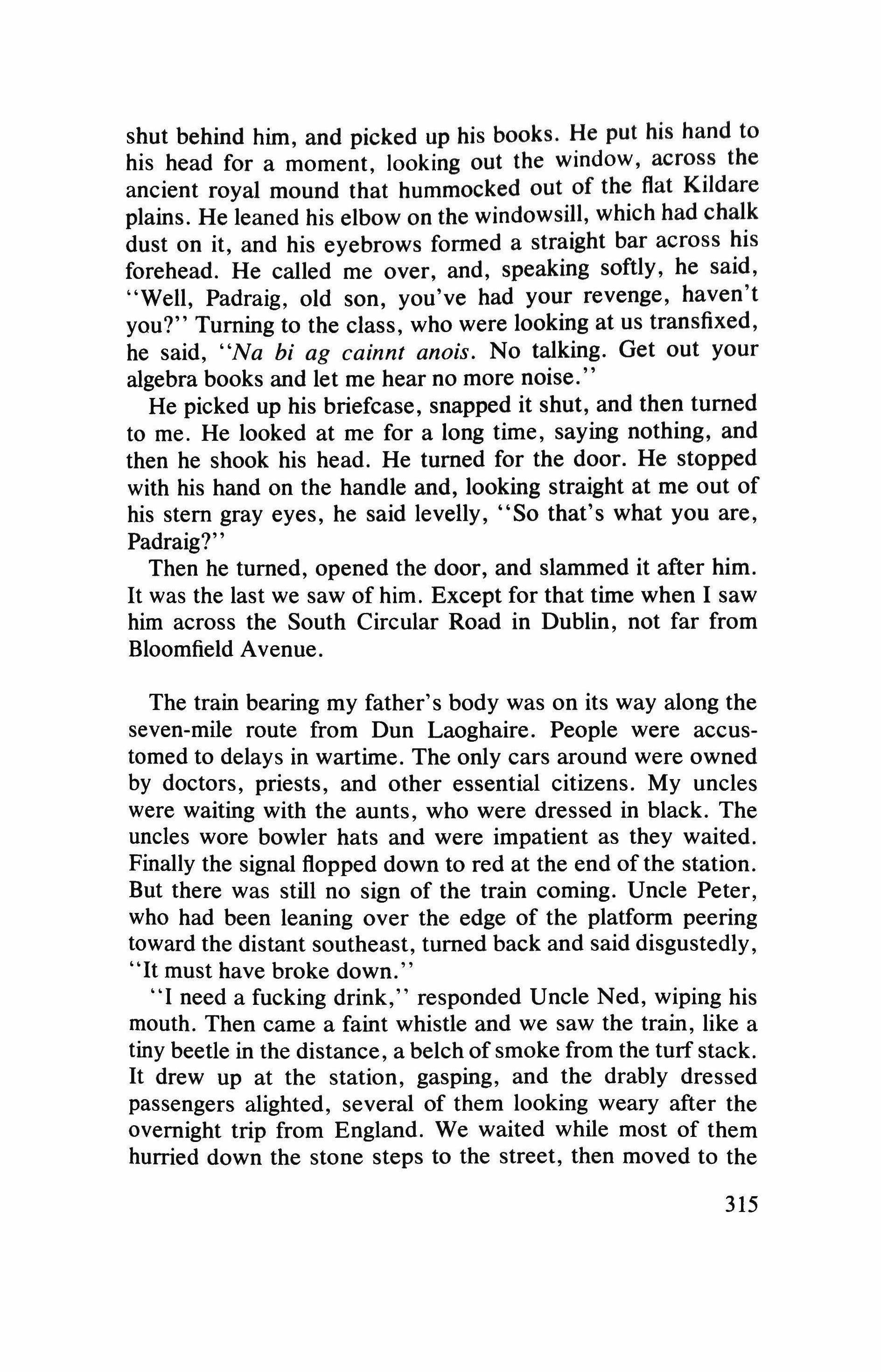
shut behind him, and picked up his books. He put his hand to his head for a moment, looking out the window, across the ancient royal mound that hummocked out of the flat Kildare plains. He leaned his elbow on the windowsill, which had chalk dust on it, and his eyebrows formed a straight bar across his forehead. He called me over, and, speaking softly, he said, "Well, Padraig, old son, you've had your revenge, haven't you?" Turning to the class, who were looking at us transfixed, he said, "Na hi ag cainnt anois, No talking. Get out your algebra books and let me hear no more noise."
He picked up his briefcase, snapped it shut, and then turned to me. He looked at me for a long time, saying nothing, and then he shook his head. He turned for the door. He stopped with his hand on the handle and, looking straight at me out of his stem gray eyes, he said levelly, "So that's what you are, Padraig?"
Then he turned, opened the door, and slammed it after him. It was the last we saw of him. Except for that time when I saw him across the South Circular Road in Dublin, not far from Bloomfield Avenue.
The train bearing my father's body was on its way along the seven-mile route from Dun Laoghaire. People were accustomed to delays in wartime. The only cars around were owned by doctors, priests, and other essential citizens. My uncles were waiting with the aunts, who were dressed in black. The uncles wore bowler hats and were impatient as they waited. Finally the signal flopped down to red at the end of the station. But there was still no sign of the train coming. Uncle Peter, who had been leaning over the edge of the platform peering toward the distant southeast, turned back and said disgustedly, "It must have broke down."
"I need a fucking drink," responded Uncle Ned, wiping his mouth. Then came a faint whistle and we saw the train, like a tiny beetle in the distance, a belch of smoke from the turf stack. It drew up at the station, gasping, and the drably dressed passengers alighted, several of them looking weary after the overnight trip from England. We waited while most of them hurried down the stone steps to the street, then moved to the 315
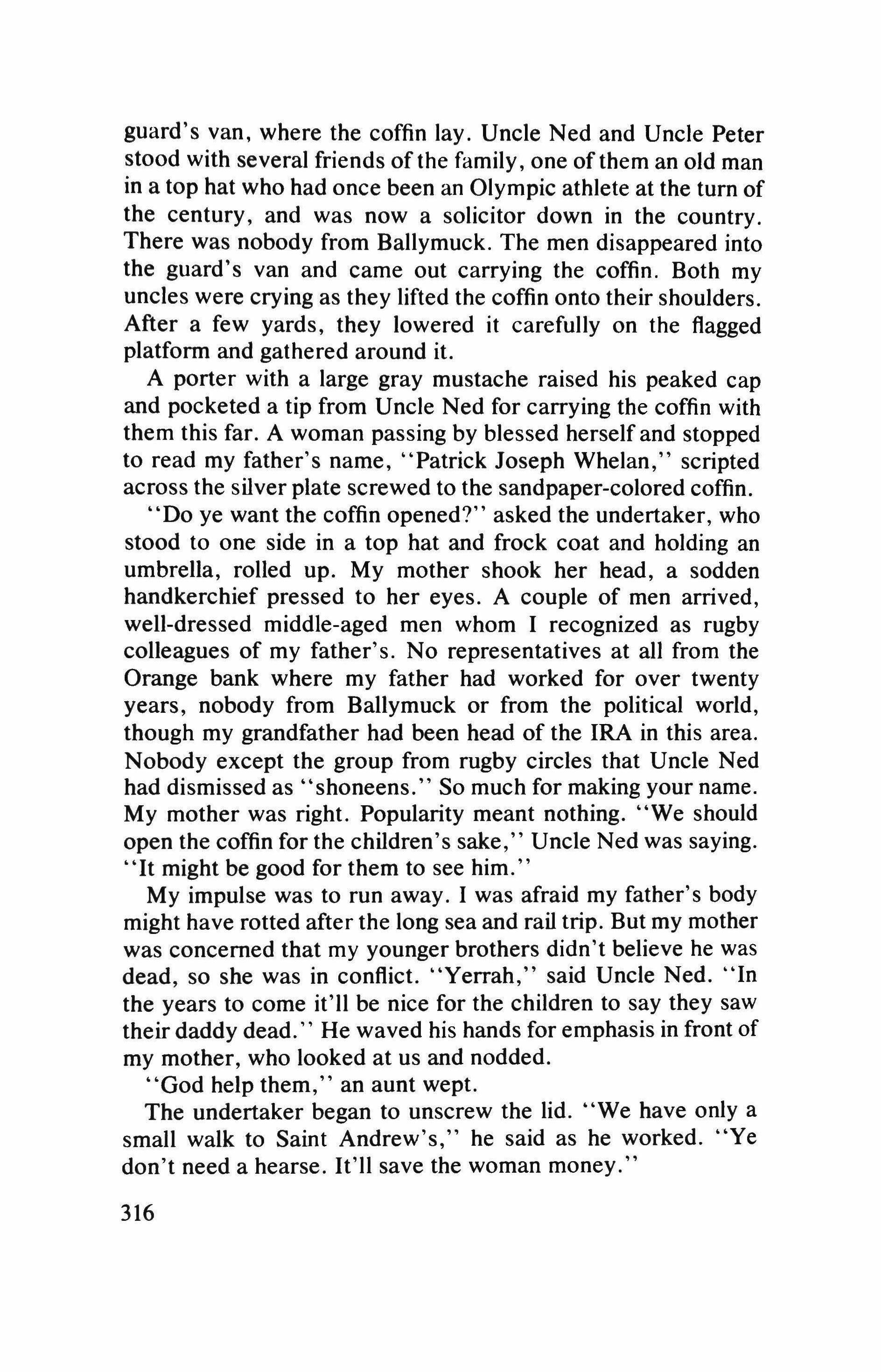
guard's van, where the coffin lay. Uncle Ned and Uncle Peter stood with several friends of the family, one of them an old man in a top hat who had once been an Olympic athlete at the turn of the century, and was now a solicitor down in the country. There was nobody from Ballymuck. The men disappeared into the guard's van and came out carrying the coffin. Both my uncles were crying as they lifted the coffin onto their shoulders. After a few yards, they lowered it carefully on the flagged platform and gathered around it.
A porter with a large gray mustache raised his peaked cap and pocketed a tip from Uncle Ned for carrying the coffin with them this far. A woman passing by blessed herself and stopped to read my father's name, "Patrick Joseph Whelan," scripted across the silver plate screwed to the sandpaper-colored coffin.
"Do ye want the coffin opened?" asked the undertaker, who stood to one side in a top hat and frock coat and holding an umbrella, rolled up. My mother shook her head, a sodden handkerchief pressed to her eyes. A couple of men arrived, well-dressed middle-aged men whom I recognized as rugby colleagues of my father's. No representatives at all from the Orange bank where my father had worked for over twenty years, nobody from Ballymuck or from the political world, though my grandfather had been head of the IRA in this area. Nobody except the group from rugby circles that Uncle Ned had dismissed as "shoneens." So much for making your name. My mother was right. Popularity meant nothing. "We should open the coffin for the children's sake," Uncle Ned was saying. "It might be good for them to see him."
My impulse was to run away. I was afraid my father's body might have rotted after the long sea and rail trip. But my mother was concerned that my younger brothers didn't believe he was dead, so she was in conflict. "Yerrah," said Uncle Ned. "In the years to come it'll be nice for the children to say they saw their daddy dead. He waved his hands for emphasis in front of my mother, who looked at us and nodded.
"God help them," an aunt wept.
The undertaker began to unscrew the lid. "We have only a small walk to Saint Andrew's," he said as he worked. "Ye don't need a hearse. It'll save the woman money."
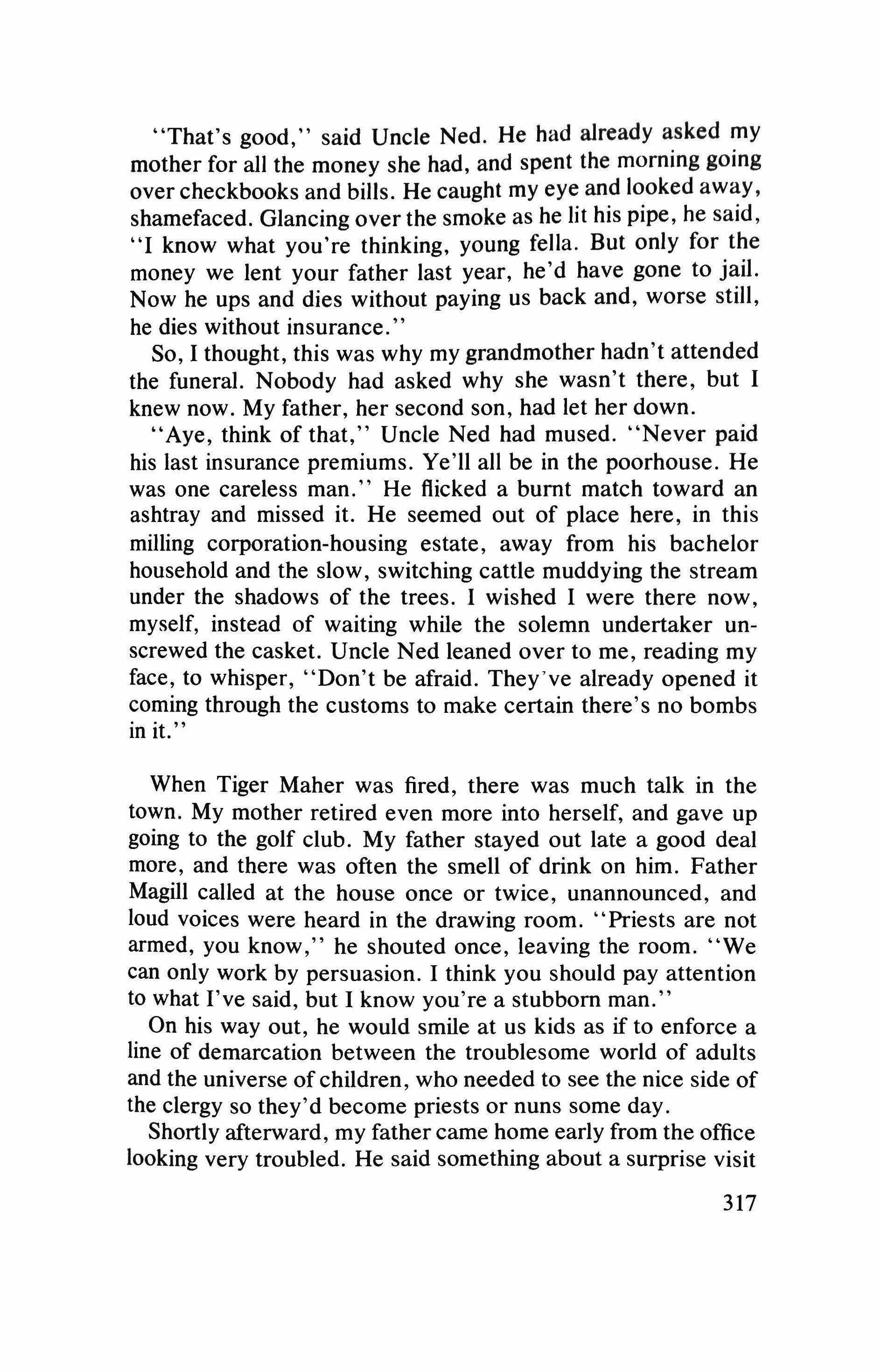
"That's good," said Uncle Ned. He had already asked my mother for all the money she had, and spent the morning going over checkbooks and bills. He caught my eye and looked away, shamefaced. Glancing over the smoke as he lit his pipe, he said, "I know what you're thinking, young fella. But only for the money we lent your father last year, he'd have gone to jail. Now he ups and dies without paying us back and, worse still, he dies without insurance.
So, I thought, this was why my grandmother hadn't attended the funeral. Nobody had asked why she wasn't there, but I knew now. My father, her second son, had let her down.
"Aye, think of that," Uncle Ned had mused. "Never paid his last insurance premiums. Ye'll all be in the poorhouse. He was one careless man." He flicked a burnt match toward an ashtray and missed it. He seemed out of place here, in this milling corporation-housing estate, away from his bachelor household and the slow, switching cattle muddying the stream under the shadows of the trees. I wished I were there now, myself, instead of waiting while the solemn undertaker unscrewed the casket. Uncle Ned leaned over to me, reading my face, to whisper, "Don't be afraid. They've already opened it coming through the customs to make certain there's no bombs in it."
When Tiger Maher was fired, there was much talk in the town. My mother retired even more into herself, and gave up going to the golf club. My father stayed out late a good deal more, and there was often the smell of drink on him. Father Magill called at the house once or twice, unannounced, and loud voices were heard in the drawing room. "Priests are not armed, you know," he shouted once, leaving the room. "We can only work by persuasion. I think you should pay attention to what I've said, but I know you're a stubborn man."
On his way out, he would smile at us kids as if to enforce a line of demarcation between the troublesome world of adults and the universe of children, who needed to see the nice side of the clergy so they'd become priests or nuns some day.
Shortly afterward, my father came home early from the office looking very troubled. He said something about a surprise visit 317
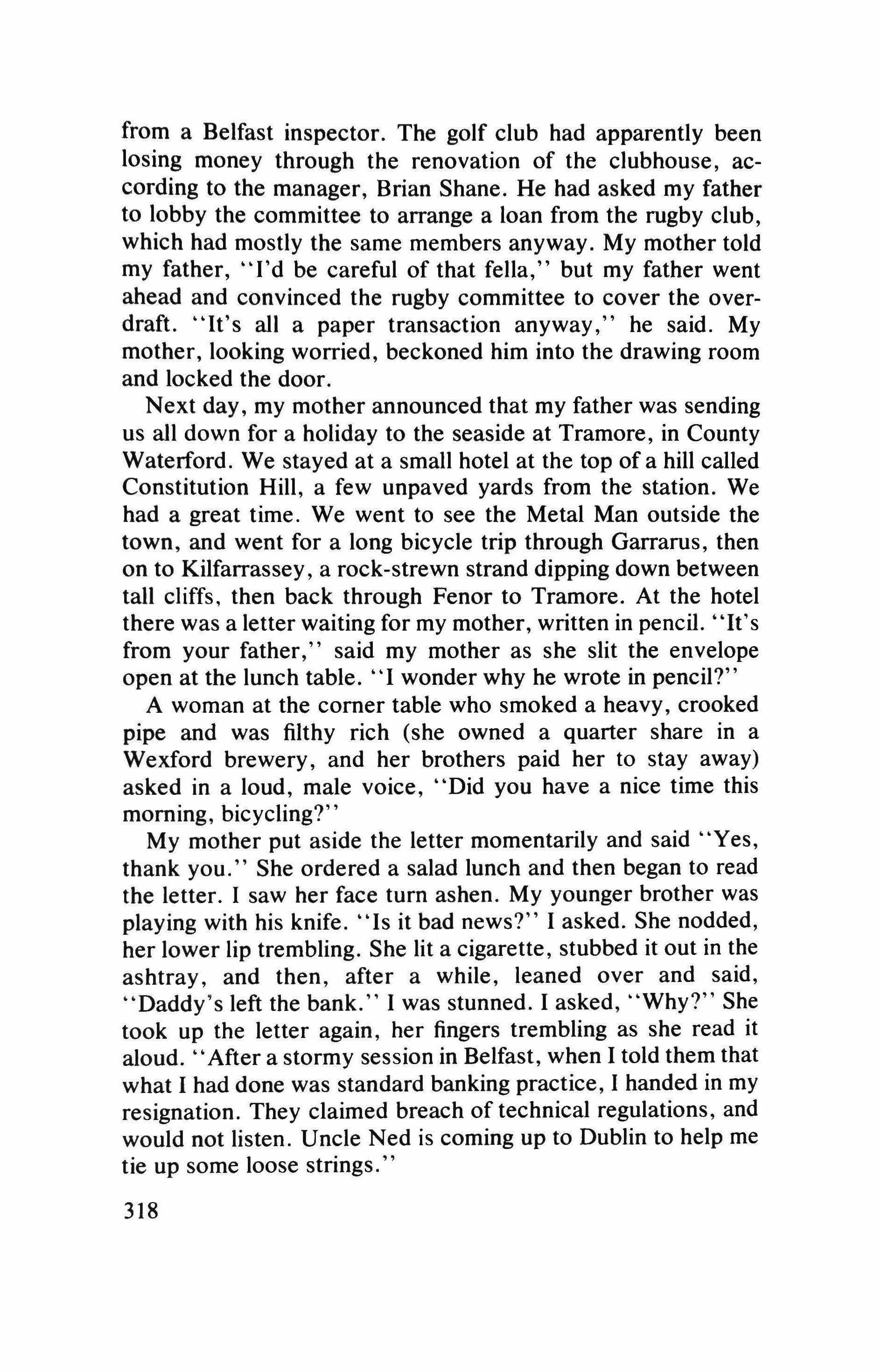
from a Belfast inspector. The golf club had apparently been losing money through the renovation of the clubhouse, according to the manager, Brian Shane. He had asked my father to lobby the committee to arrange a loan from the rugby club, which had mostly the same members anyway. My mother told my father, "I'd be careful of that fella," but my father went ahead and convinced the rugby committee to cover the overdraft. "It's all a paper transaction anyway," he said. My mother, looking worried, beckoned him into the drawing room and locked the door.
Next day, my mother announced that my father was sending us all down for a holiday to the seaside at Tramore, in County Waterford. We stayed at a small hotel at the top of a hill called Constitution Hill, a few unpaved yards from the station. We had a great time. We went to see the Metal Man outside the town, and went for a long bicycle trip through Garrarus, then on to Kilfarrassey, a rock-strewn strand dipping down between tall cliffs, then back through Fenor to Tramore. At the hotel there was a letter waiting for my mother, written in pencil. "It's from your father," said my mother as she slit the envelope open at the lunch table. "I wonder why he wrote in pencil?"
A woman at the comer table who smoked a heavy, crooked pipe and was filthy rich (she owned a quarter share in a Wexford brewery, and her brothers paid her to stay away) asked in a loud, male voice, "Did you have a nice time this morning, bicycling?"
My mother put aside the letter momentarily and said "Yes, thank you." She ordered a salad lunch and then began to read the letter. I saw her face tum ashen. My younger brother was playing with his knife. "Is it bad news?" I asked. She nodded, her lower lip trembling. She lit a cigarette, stubbed it out in the ashtray, and then, after a while, leaned over and said, "Daddy's left the bank." I was stunned. I asked, "Why?" She took up the letter again, her fingers trembling as she read it aloud. "After a stormy session in Belfast, when I told them that what I had done was standard banking practice, I handed in my resignation. They claimed breach of technical regulations, and would not listen. Uncle Ned is coming up to Dublin to help me tie up some loose strings." 318
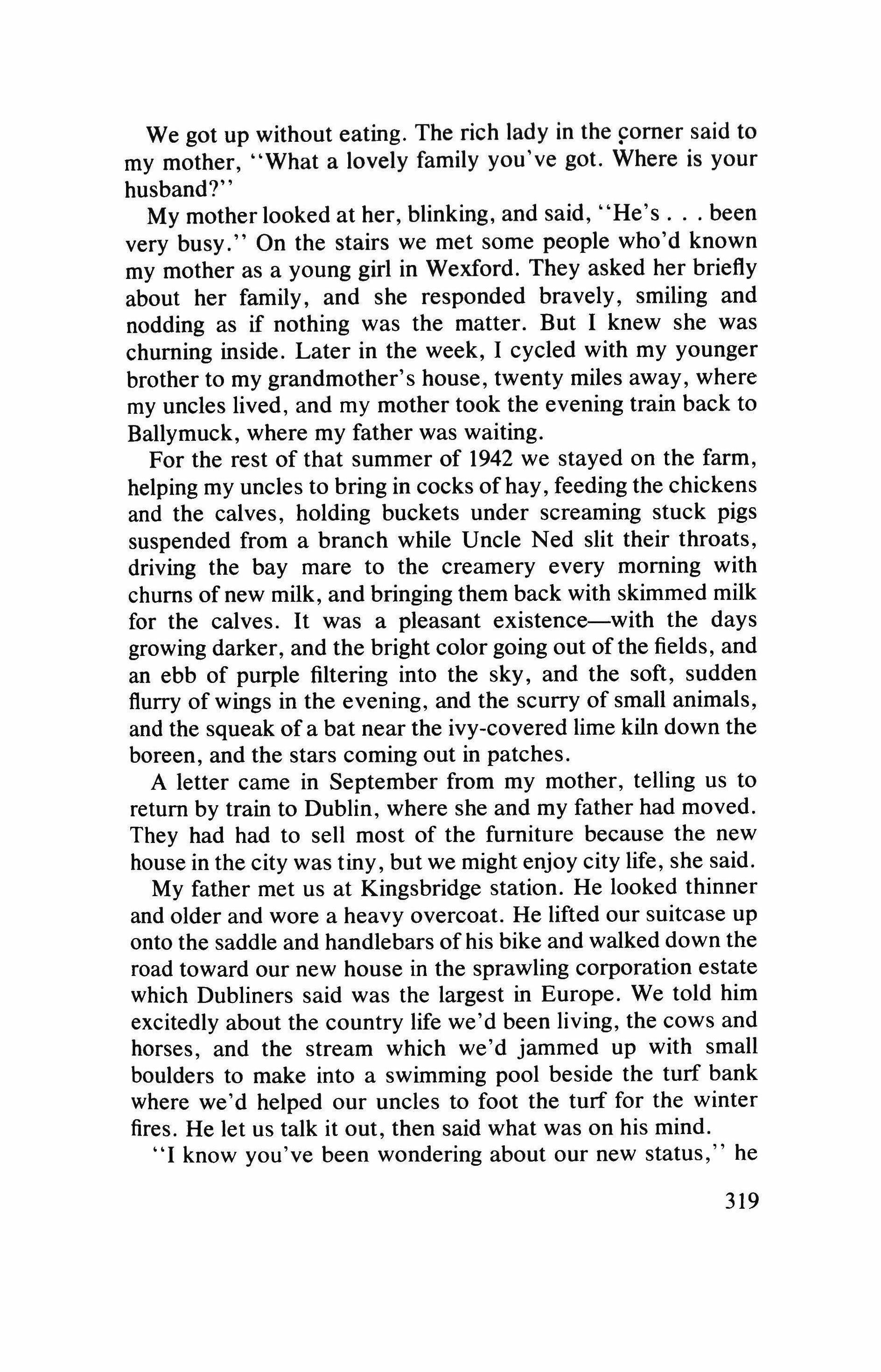
We got up without eating. The rich lady in the comer said to my mother, "What a lovely family you've got. Where is your husband?"
My mother looked at her, blinking, and said, "He's been very busy." On the stairs we met some people who'd known my mother as a young girl in Wexford. They asked her briefly about her family, and she responded bravely, smiling and nodding as if nothing was the matter. But I knew she was churning inside. Later in the week, I cycled with my younger brother to my grandmother's house, twenty miles away, where my uncles lived, and my mother took the evening train back to Ballymuck, where my father was waiting.
For the rest of that summer of 1942 we stayed on the farm, helping my uncles to bring in cocks of hay, feeding the chickens and the calves, holding buckets under screaming stuck pigs suspended from a branch while Uncle Ned slit their throats, driving the bay mare to the creamery every morning with chums of new milk, and bringing them back with skimmed milk for the calves. It was a pleasant existence-with the days growing darker, and the bright color going out of the fields, and an ebb of purple filtering into the sky, and the soft, sudden flurry of wings in the evening, and the scurry of small animals, and the squeak of a bat near the ivy-covered lime kiln down the boreen, and the stars coming out in patches.
A letter came in September from my mother, telling us to return by train to Dublin, where she and my father had moved. They had had to sell most of the furniture because the new house in the city was tiny, but we might enjoy city life, she said.
My father met us at Kingsbridge station. He looked thinner and older and wore a heavy overcoat. He lifted our suitcase up onto the saddle and handlebars of his bike and walked down the road toward our new house in the sprawling corporation estate which Dubliners said was the largest in Europe. We told him excitedly about the country life we'd been living, the cows and horses, and the stream which we'd jammed up with small boulders to make into a swimming pool beside the turf bank where we'd helped our uncles to foot the turf for the winter fires. He let us talk it out, then said what was on his mind.
"I know you've been wondering about our new status," he 319
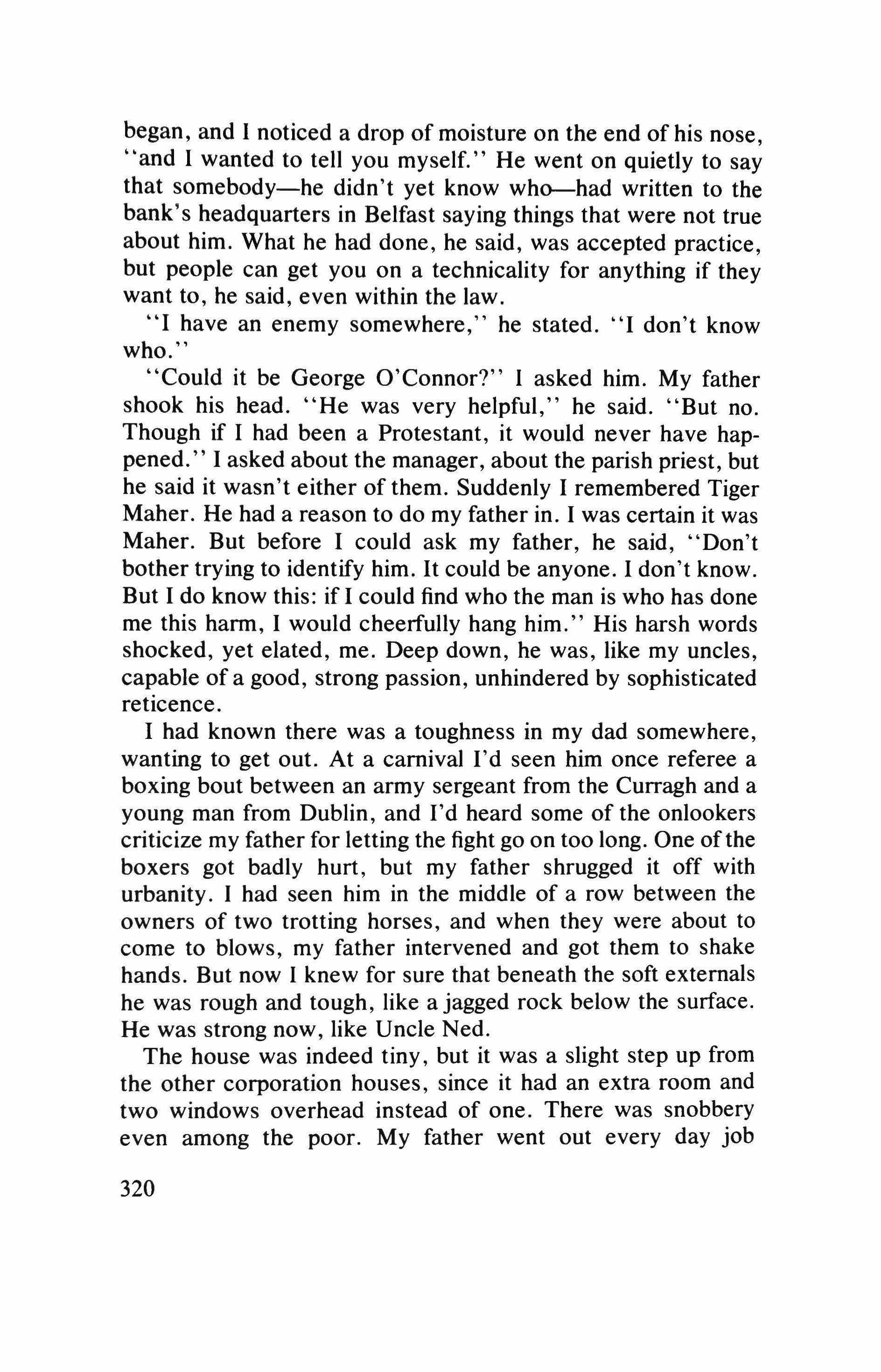
began, and I noticed a drop of moisture on the end of his nose, "and I wanted to tell you myself." He went on quietly to say that somebody-he didn't yet know who-had written to the bank's headquarters in Belfast saying things that were not true about him. What he had done, he said, was accepted practice, but people can get you on a technicality for anything if they want to, he said, even within the law.
"I have an enemy somewhere," he stated. "I don't know who.
"Could it be George O'Connor?" I asked him. My father shook his head. "He was very helpful," he said. "But no. Though if I had been a Protestant, it would never have happened. I asked about the manager, about the parish priest, but he said it wasn't either of them. Suddenly I remembered Tiger Maher. He had a reason to do my father in. I was certain it was Maher. But before I could ask my father, he said, "Don't bother trying to identify him. It could be anyone. I don't know. But I do know this: if I could find who the man is who has done me this harm, I would cheerfully hang him." His harsh words shocked, yet elated, me. Deep down, he was, like my uncles, capable of a good, strong passion, unhindered by sophisticated reticence.
I had known there was a toughness in my dad somewhere, wanting to get out. At a carnival I'd seen him once referee a boxing bout between an army sergeant from the Curragh and a young man from Dublin, and I'd heard some of the onlookers criticize my father for letting the fight go on too long. One ofthe boxers got badly hurt, but my father shrugged it off with urbanity. I had seen him in the middle of a row between the owners of two trotting horses, and when they were about to come to blows, my father intervened and got them to shake hands. But now I knew for sure that beneath the soft externals he was rough and tough, like a jagged rock below the surface. He was strong now, like Uncle Ned.
The house was indeed tiny, but it was a slight step up from the other corporation houses, since it had an extra room and two windows overhead instead of one. There was snobbery even among the poor. My father went out every day job
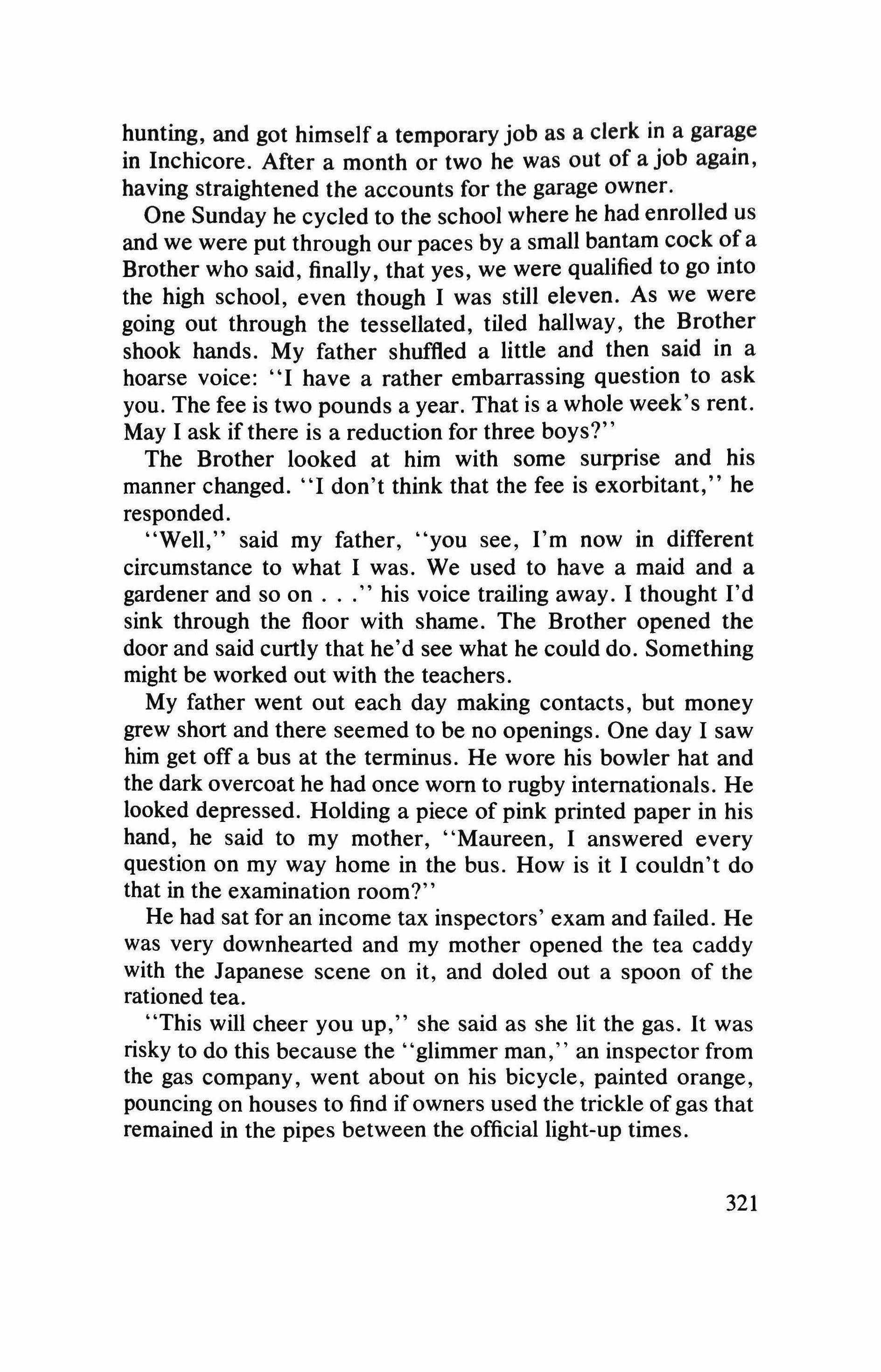
hunting, and got himself a temporary job as a clerk in a garage in Inchicore. After a month or two he was out of a job again, having straightened the accounts for the garage owner.
One Sunday he cycled to the school where he had enrolled us and we were put through our paces by a small bantam cock of a Brother who said, finally, that yes, we were qualified to go into the high school, even though 1 was still eleven. As we were going out through the tessellated, tiled hallway, the Brother shook hands. My father shuffled a little and then said in a hoarse voice: "I have a rather embarrassing question to ask you. The fee is two pounds a year. That is a whole week's rent. May 1 ask if there is a reduction for three boys?"
The Brother looked at him with some surprise and his manner changed. "I don't think that the fee is exorbitant," he responded.
"Well," said my father, "you see, I'm now in different circumstance to what 1 was. We used to have a maid and a gardener and so on .' his voice trailing away. 1 thought I'd sink through the floor with shame. The Brother opened the door and said curtly that he'd see what he could do. Something might be worked out with the teachers.
My father went out each day making contacts, but money grew short and there seemed to be no openings. One day 1 saw him get off a bus at the terminus. He wore his bowler hat and the dark overcoat he had once worn to rugby internationals. He looked depressed. Holding a piece of pink printed paper in his hand, he said to my mother, "Maureen, 1 answered every question on my way home in the bus. How is it 1 couldn't do that in the examination room?"
He had sat for an income tax inspectors' exam and failed. He was very downhearted and my mother opened the tea caddy with the Japanese scene on it, and doled out a spoon of the rationed tea.
"This will cheer you up," she said as she lit the gas. It was risky to do this because the "glimmer man," an inspector from the gas company, went about on his bicycle, painted orange, pouncing on houses to find if owners used the trickle of gas that remained in the pipes between the official light-up times.
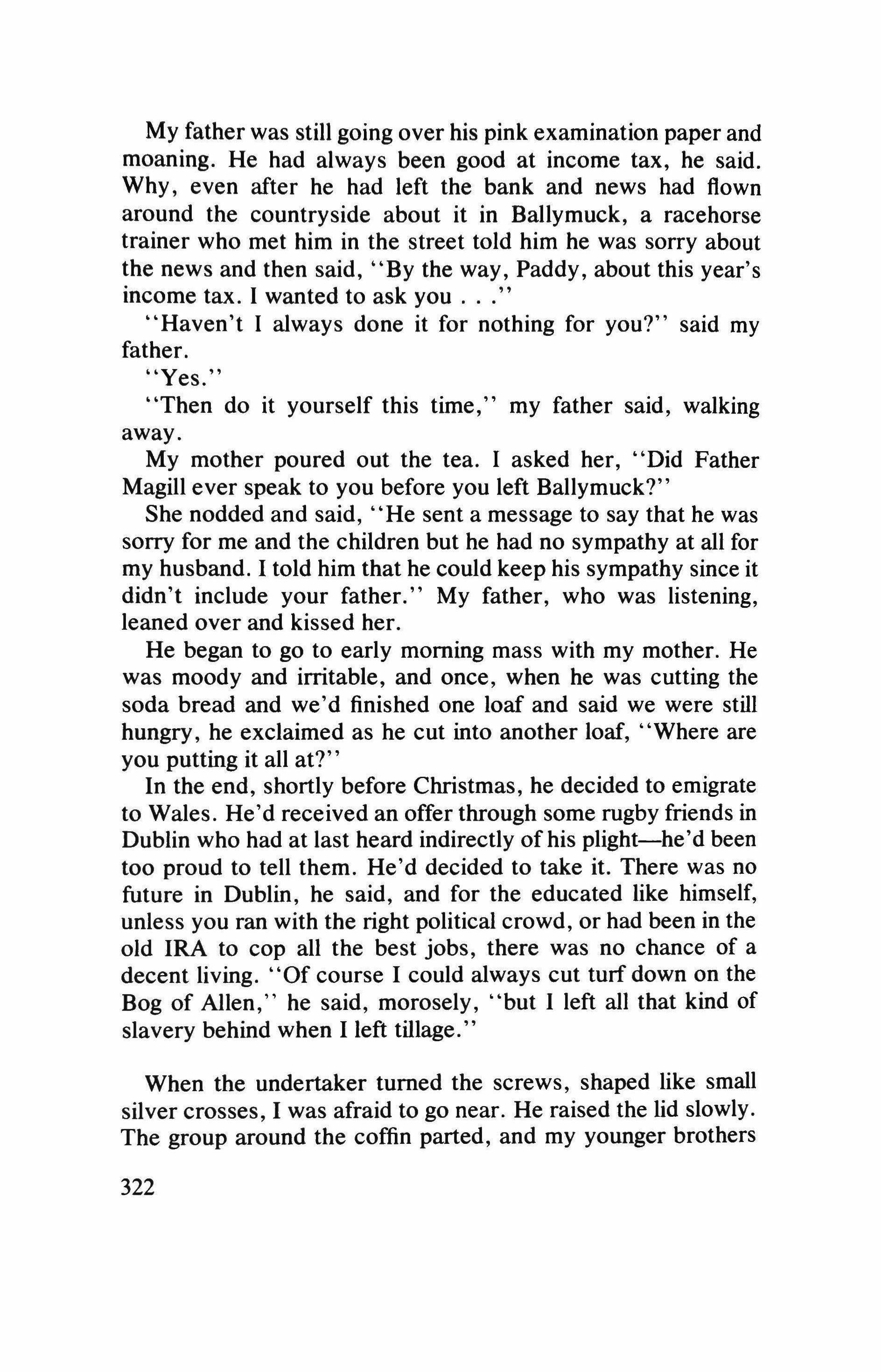
My father was still going over his pink examination paper and moaning. He had always been good at income tax, he said. Why, even after he had left the bank and news had flown around the countryside about it in Ballymuck, a racehorse trainer who met him in the street told him he was sorry about the news and then said, "By the way, Paddy, about this year's income tax. I wanted to ask you
"Haven't I always done it for nothing for you?" said my father.
"Yes."
"Then do it yourself this time," my father said, walking away.
My mother poured out the tea. I asked her, "Did Father Magill ever speak to you before you left Ballymuck?"
She nodded and said, "He sent a message to say that he was sorry for me and the children but he had no sympathy at all for my husband. I told him that he could keep his sympathy since it didn't include your father." My father, who was listening, leaned over and kissed her.
He began to go to early morning mass with my mother. He was moody and irritable, and once, when he was cutting the soda bread and we'd finished one loaf and said we were still hungry, he exclaimed as he cut into another loaf, "Where are you putting it all at?"
In the end, shortly before Christmas, he decided to emigrate to Wales. He'd received an offer through some rugby friends in Dublin who had at last heard indirectly of his plight-he'd been too proud to tell them. He'd decided to take it. There was no future in Dublin, he said, and for the educated like himself, unless you ran with the right political crowd, or had been in the old IRA to cop all the best jobs, there was no chance of a decent living. "Of course I could always cut turf down on the Bog of Allen," he said, morosely, "but I left all that kind of slavery behind when I left tillage."
When the undertaker turned the screws, shaped like small silver crosses, I was afraid to go near. He raised the lid slowly. The group around the coffin parted, and my younger brothers 322
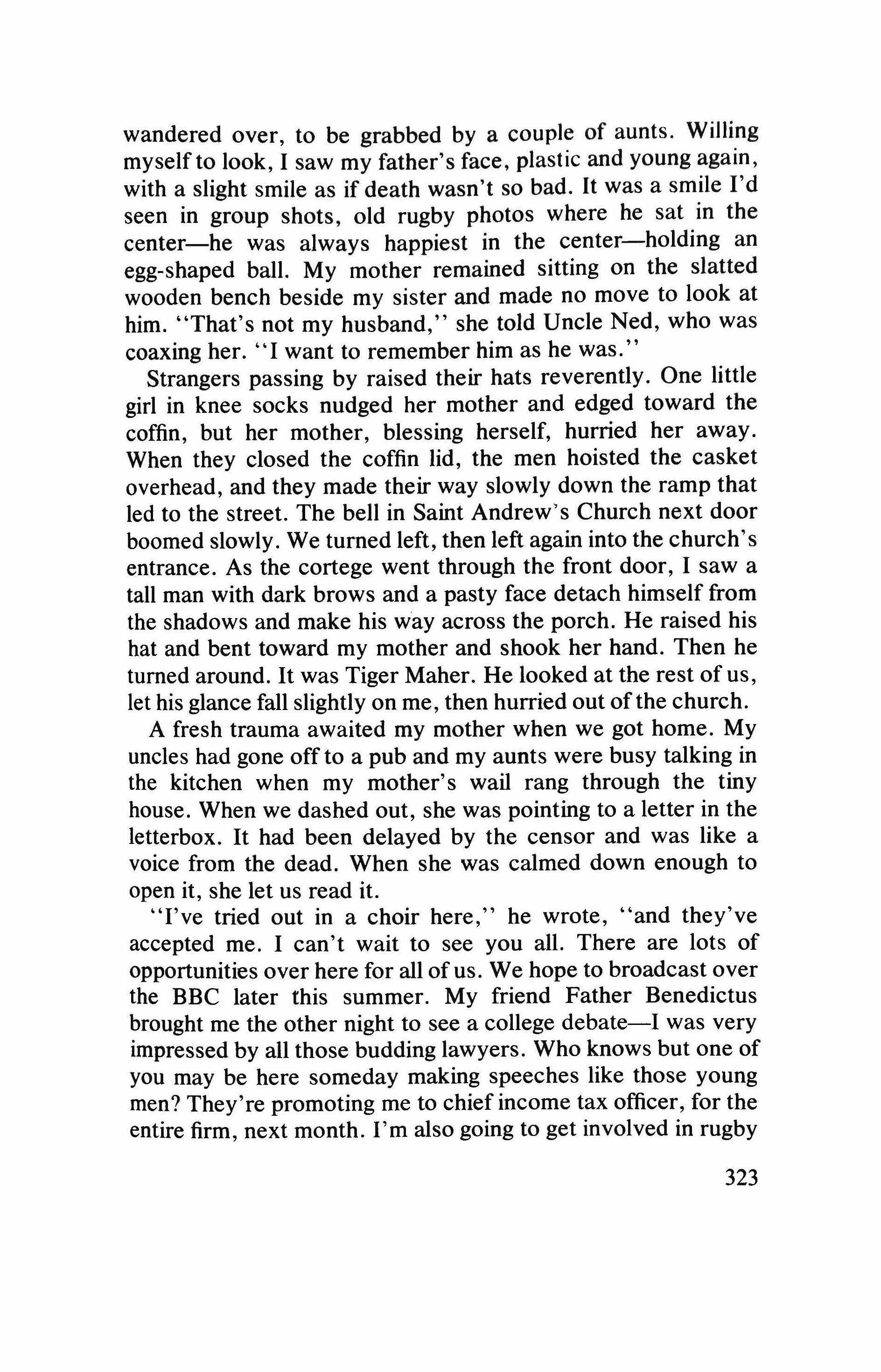
wandered over, to be grabbed by a couple of aunts. Willing myself to look, I saw my father's face, plastic and young again, with a slight smile as if death wasn't so bad. It was a smile I'd seen in group shots, old rugby photos where he sat in the center-he was always happiest in the center-holding an egg-shaped ball. My mother remained sitting on the slatted wooden bench beside my sister and made no move to look at him. "That's not my husband," she told Uncle Ned, who was coaxing her. "I want to remember him as he was."
Strangers passing by raised their hats reverently. One little girl in knee socks nudged her mother and edged toward the coffin, but her mother, blessing herself, hurried her away. When they closed the coffin lid, the men hoisted the casket overhead, and they made their way slowly down the ramp that led to the street. The bell in Saint Andrew's Church next door boomed slowly. We turned left, then left again into the church's entrance. As the cortege went through the front door, I saw a tall man with dark brows and a pasty face detach himself from the shadows and make his way across the porch. He raised his hat and bent toward my mother and shook her hand. Then he turned around. It was Tiger Maher. He looked at the rest of us, let his glance fall slightly on me, then hurried out of the church.
A fresh trauma awaited my mother when we got home. My uncles had gone off to a pub and my aunts were busy talking in the kitchen when my mother's wail rang through the tiny house. When we dashed out, she was pointing to a letter in the letterbox. It had been delayed by the censor and was like a voice from the dead. When she was calmed down enough to open it, she let us read it.
"I've tried out in a choir here," he wrote, "and they've accepted me. I can't wait to see you all. There are lots of opportunities over here for all of us. We hope to broadcast over the BBC later this summer. My friend Father Benedictus brought me the other night to see a college debate-I was very impressed by all those budding lawyers. Who knows but one of you may be here someday making speeches like those young men? They're promoting me to chief income tax officer, for the entire firm, next month. I'm also going to get involved in rugby 323
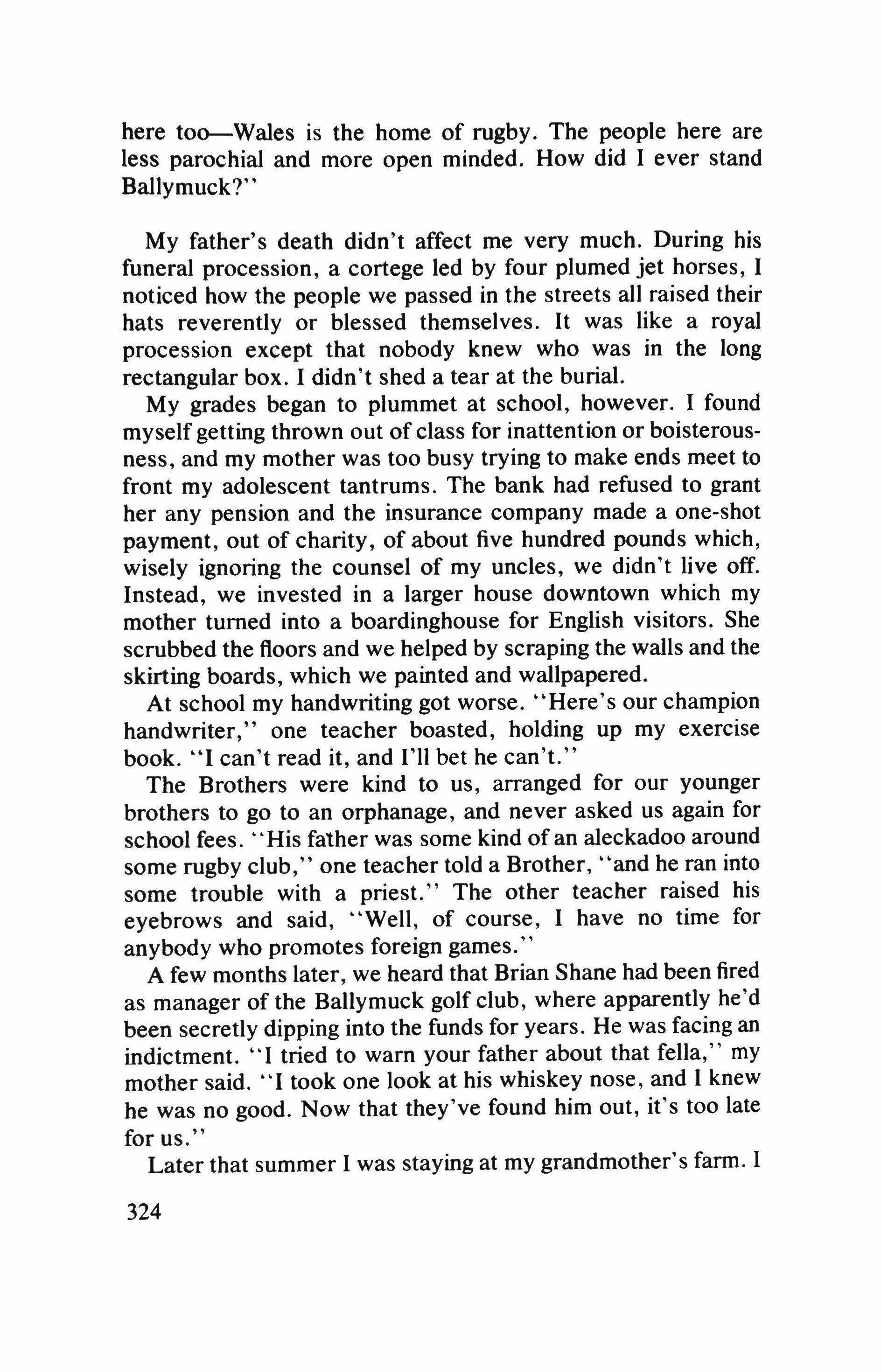
here too-Wales is the home of rugby. The people here are less parochial and more open minded. How did I ever stand Ballyrnuck?'
My father's death didn't affect me very much. During his funeral procession, a cortege led by four plumed jet horses, I noticed how the people we passed in the streets all raised their hats reverently or blessed themselves. It was like a royal procession except that nobody knew who was in the long rectangular box. I didn't shed a tear at the burial.
My grades began to plummet at school, however. I found myselfgetting thrown out of class for inattention or boisterousness, and my mother was too busy trying to make ends meet to front my adolescent tantrums. The bank had refused to grant her any pension and the insurance company made a one-shot payment, out of charity, of about five hundred pounds which, wisely ignoring the counsel of my uncles, we didn't live off. Instead, we invested in a larger house downtown which my mother turned into a boardinghouse for English visitors. She scrubbed the floors and we helped by scraping the walls and the skirting boards, which we painted and wallpapered.
At school my handwriting got worse. "Here's our champion handwriter," one teacher boasted, holding up my exercise book. "I can't read it, and I'll bet he can't."
The Brothers were kind to us, arranged for our younger brothers to go to an orphanage, and never asked us again for school fees His father was some kind of an aleckadoo around some rugby club," one teacher told a Brother, "and he ran into some trouble with a priest." The other teacher raised his eyebrows and said, "Well, of course, I have no time for anybody who promotes foreign games."
A few months later, we heard that Brian Shane had been fired as manager of the Ballymuck golf club, where apparently he'd been secretly dipping into the funds for years. He was facing an indictment. I tried to warn your father about that fella," my mother said. "I took one look at his whiskey nose, and I knew he was no good. Now that they've found him out, it's too late for us."
Later that summer I was staying at my grandmother's farm. I
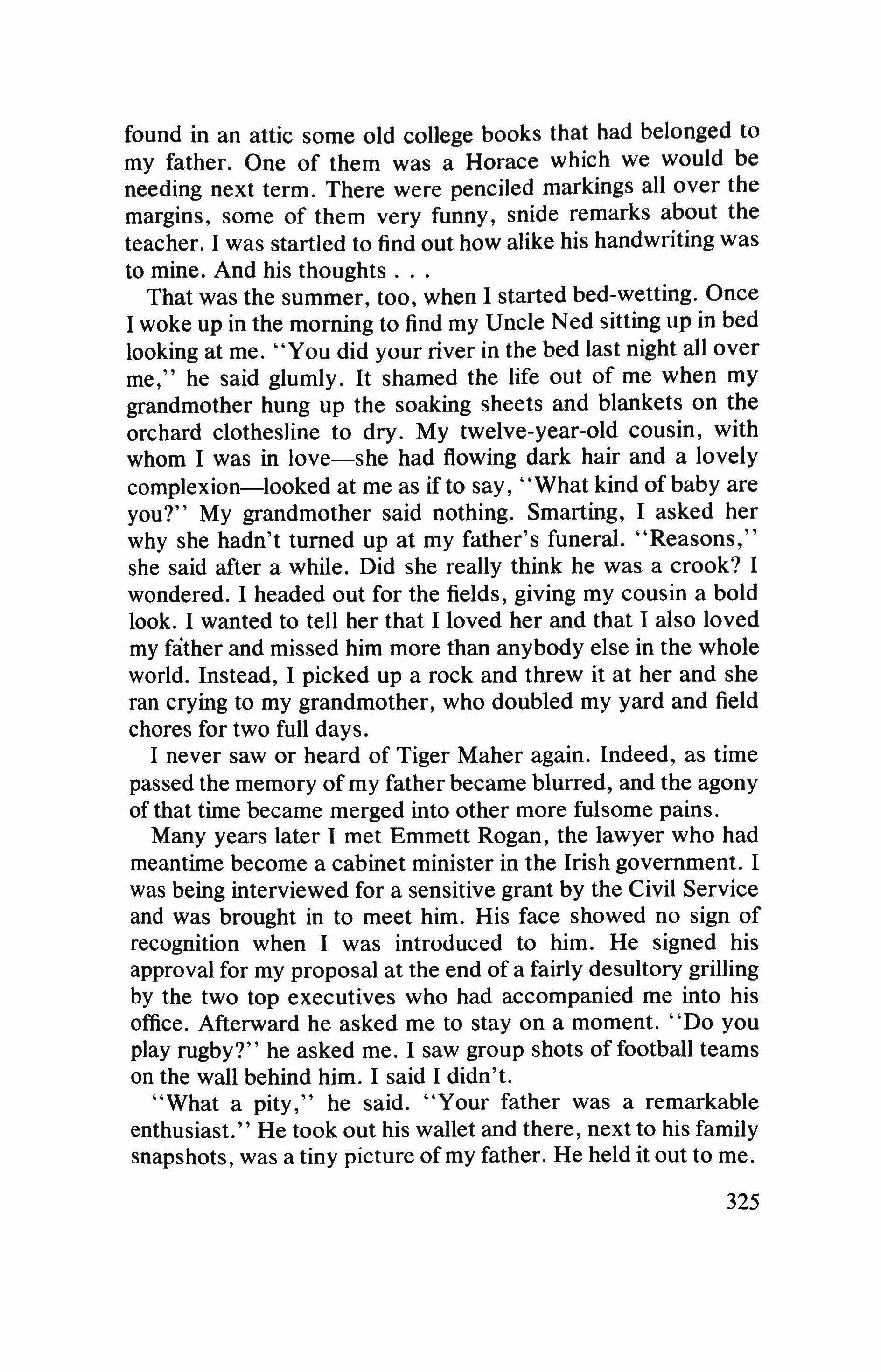
found in an attic some old college books that had belonged to my father. One of them was a Horace which we would be needing next term. There were penciled markings all over the margins, some of them very funny, snide remarks about the teacher. I was startled to find out how alike his handwriting was to mine. And his thoughts
That was the summer, too, when I started bed-wetting. Once I woke up in the morning to find my Uncle Ned sitting up in bed looking at me. "You did your river in the bed last night all over me," he said glumly. It shamed the life out of me when my grandmother hung up the soaking sheets and blankets on the orchard clothesline to dry. My twelve-year-old cousin, with whom I was in love-she had flowing dark hair and a lovely complexion-looked at me as ifto say, "What kind of baby are you?" My grandmother said nothing. Smarting, I asked her why she hadn't turned up at my father's funeral. "Reasons," she said after a while. Did she really think he was a crook? I wondered. I headed out for the fields, giving my cousin a bold look. I wanted to tell her that I loved her and that I also loved my father and missed him more than anybody else in the whole world. Instead, I picked up a rock and threw it at her and she ran crying to my grandmother, who doubled my yard and field chores for two full days.
I never saw or heard of Tiger Maher again. Indeed, as time passed the memory of my father became blurred, and the agony of that time became merged into other more fulsome pains.
Many years later I met Emmett Rogan, the lawyer who had meantime become a cabinet minister in the Irish government. I was being interviewed for a sensitive grant by the Civil Service and was brought in to meet him. His face showed no sign of recognition when I was introduced to him. He signed his approval for my proposal at the end of a fairly desultory grilling by the two top executives who had accompanied me into his office. Afterward he asked me to stay on a moment. "Do you play rugby?" he asked me. I saw group shots of football teams on the wall behind him. I said I didn't.
"What a pity," he said. "Your father was a remarkable enthusiast." He took out his wallet and there, next to his family snapshots, was a tiny picture of my father. He held it out to me. 325
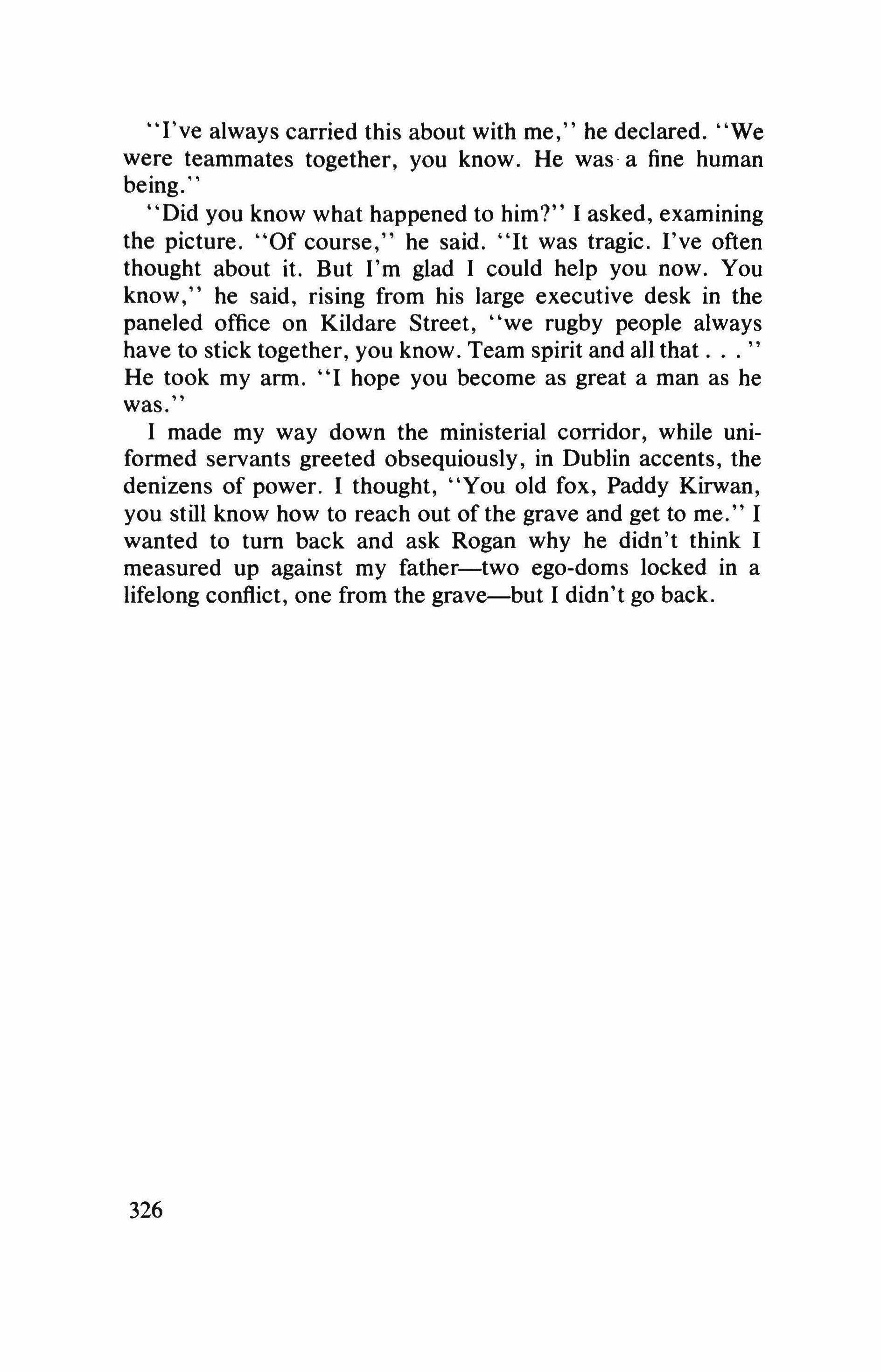
"I've always carried this about with me," he declared. "We were teammates together, you know. He was· a fine human being.
"Did you know what happened to him?" I asked, examining the picture. "Of course," he said. "It was tragic. I've often thought about it. But I'm glad I could help you now. You know," he said, rising from his large executive desk in the paneled office on Kildare Street, "we rugby people always have to stick together, you know. Team spirit and all that He took my arm. "I hope you become as great a man as he was.
I made my way down the ministerial corridor, while uniformed servants greeted obsequiously, in Dublin accents, the denizens of power. I thought, "You old fox, Paddy Kirwan, you still know how to reach out of the grave and get to me." I wanted to tum back and ask Rogan why he didn't think I measured up against my father-two ego-doms locked in a lifelong conflict, one from the grave-but I didn't go back.
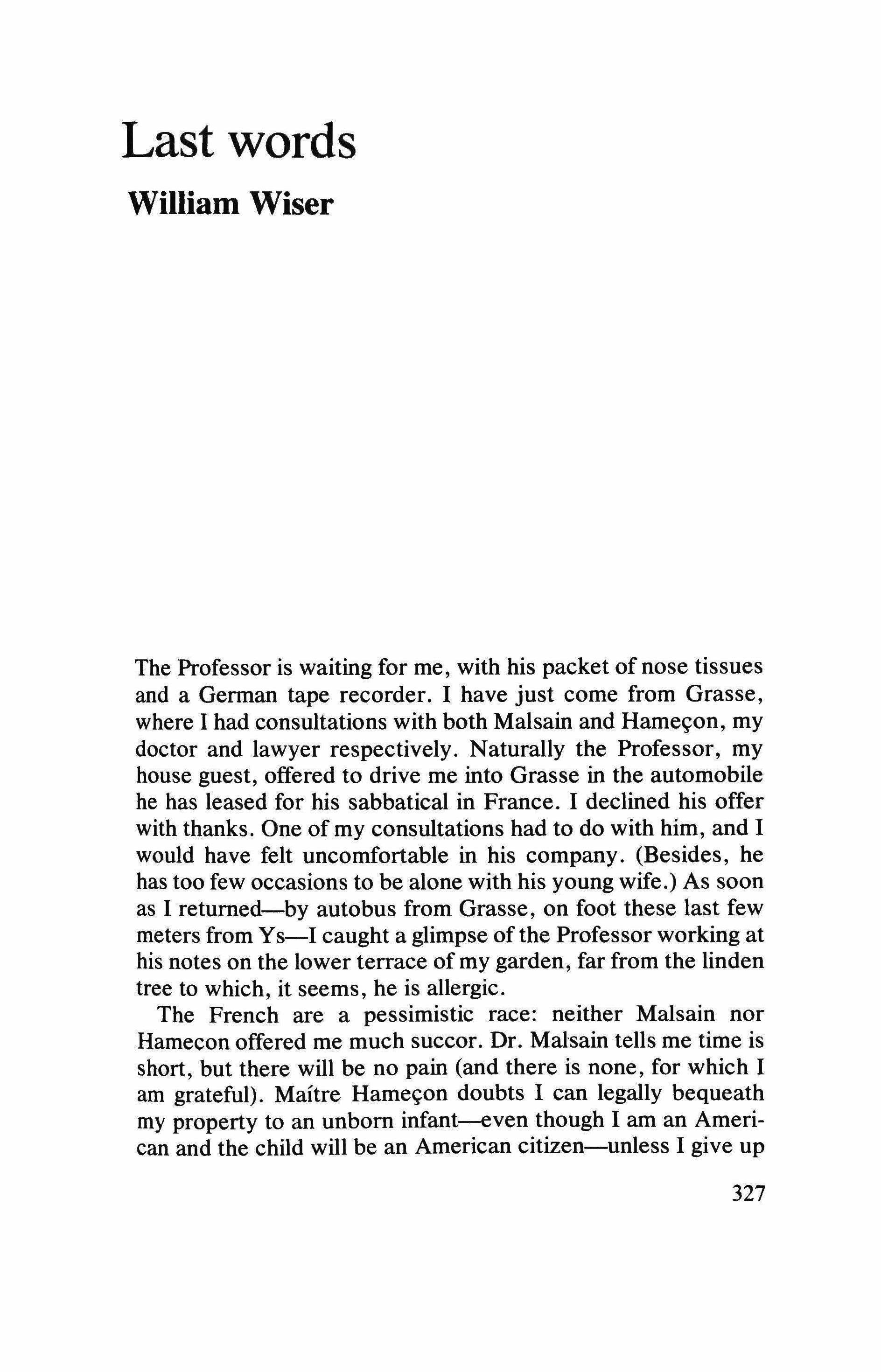
The Professor is waiting for me, with his packet of nose tissues and a German tape recorder. I have just come from Grasse, where I had consultations with both Malsain and Hamecon, my doctor and lawyer respectively. Naturally the Professor, my house guest, offered to drive me into Grasse in the automobile he has leased for his sabbatical in France. I declined his offer with thanks. One of my consultations had to do with him, and I would have felt uncomfortable in his company. (Besides, he has too few occasions to be alone with his young wife.) As soon as I returned-by autobus from Grasse, on foot these last few meters from Ys-I caught a glimpse of the Professor working at his notes on the lower terrace of my garden, far from the linden tree to which, it seems, he is allergic.
The French are a pessimistic race: neither Malsain nor Hamecon offered me much succor. Dr. Malsain tells me time is short, but there will be no pain (and there is none, for which I am grateful). Maitre Hamecon doubts I can legally bequeath my property to an unborn infant-even though I am an American and the child will be an American citizen-unless I give up
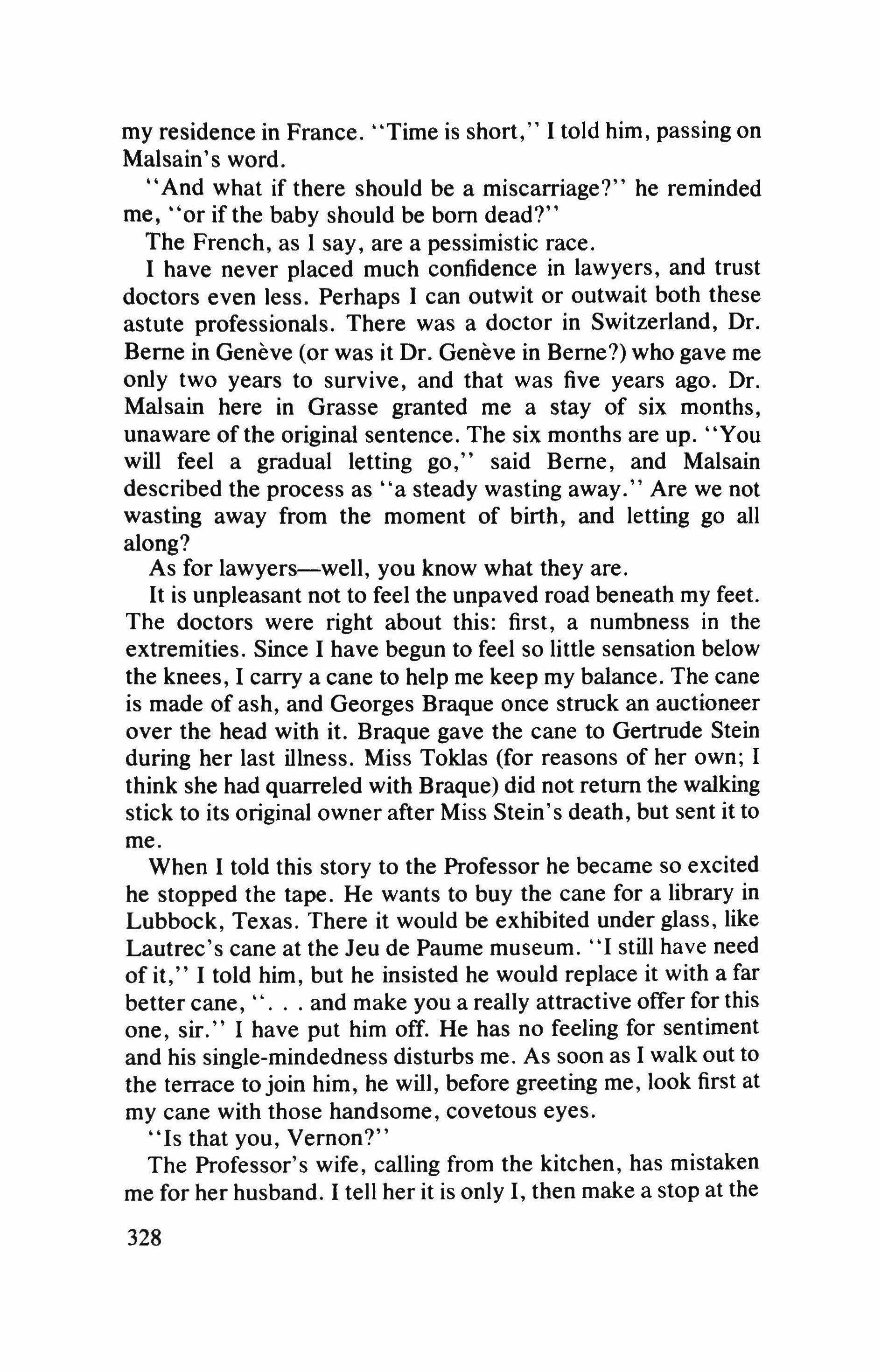
my residence in France. "Time is short," I told him, passing on Malsain's word
And what if there should be a miscarriage?" he reminded me, "or if the baby should be born dead?"
The French, as I say, are a pessimistic race.
I have never placed much confidence in lawyers, and trust doctors even less. Perhaps I can outwit or outwait both these astute professionals. There was a doctor in Switzerland, Dr. Berne in Geneve (or was it Dr. Geneve in Berne?) who gave me only two years to survive, and that was five years ago. Dr. Malsain here in Grasse granted me a stay of six months, unaware ofthe original sentence. The six months are up. "You will feel a gradual letting go," said Berne, and Malsain described the process as a steady wasting away." Are we not wasting away from the moment of birth, and letting go all along?
As for lawyers-well, you know what they are.
It is unpleasant not to feel the unpaved road beneath my feet. The doctors were right about this: first, a numbness in the extremities. Since I have begun to feel so little sensation below the knees, I carry a cane to help me keep my balance. The cane is made of ash, and Georges Braque once struck an auctioneer over the head with it. Braque gave the cane to Gertrude Stein during her last illness. Miss Toklas (for reasons of her own; I think she had quarreled with Braque) did not return the walking stick to its original owner after Miss Stein's death, but sent it to me.
When I told this story to the Professor he became so excited he stopped the tape. He wants to buy the cane for a library in Lubbock, Texas. There it would be exhibited under glass, like Lautrec's cane at the Jeu de Paume museum. "I still have need of it," I told him, but he insisted he would replace it with a far better cane, and make you a really attractive offer for this one, sir." I have put him off. He has no feeling for sentiment and his single-rnindedness disturbs me. As soon as I walk out to the terrace to join him, he will, before greeting me, look first at my cane with those handsome, covetous eyes.
"Is that you, Vernon?"
The Professor's wife, calling from the kitchen, has mistaken me for her husband. I tell her it is only I, then make a stop at the
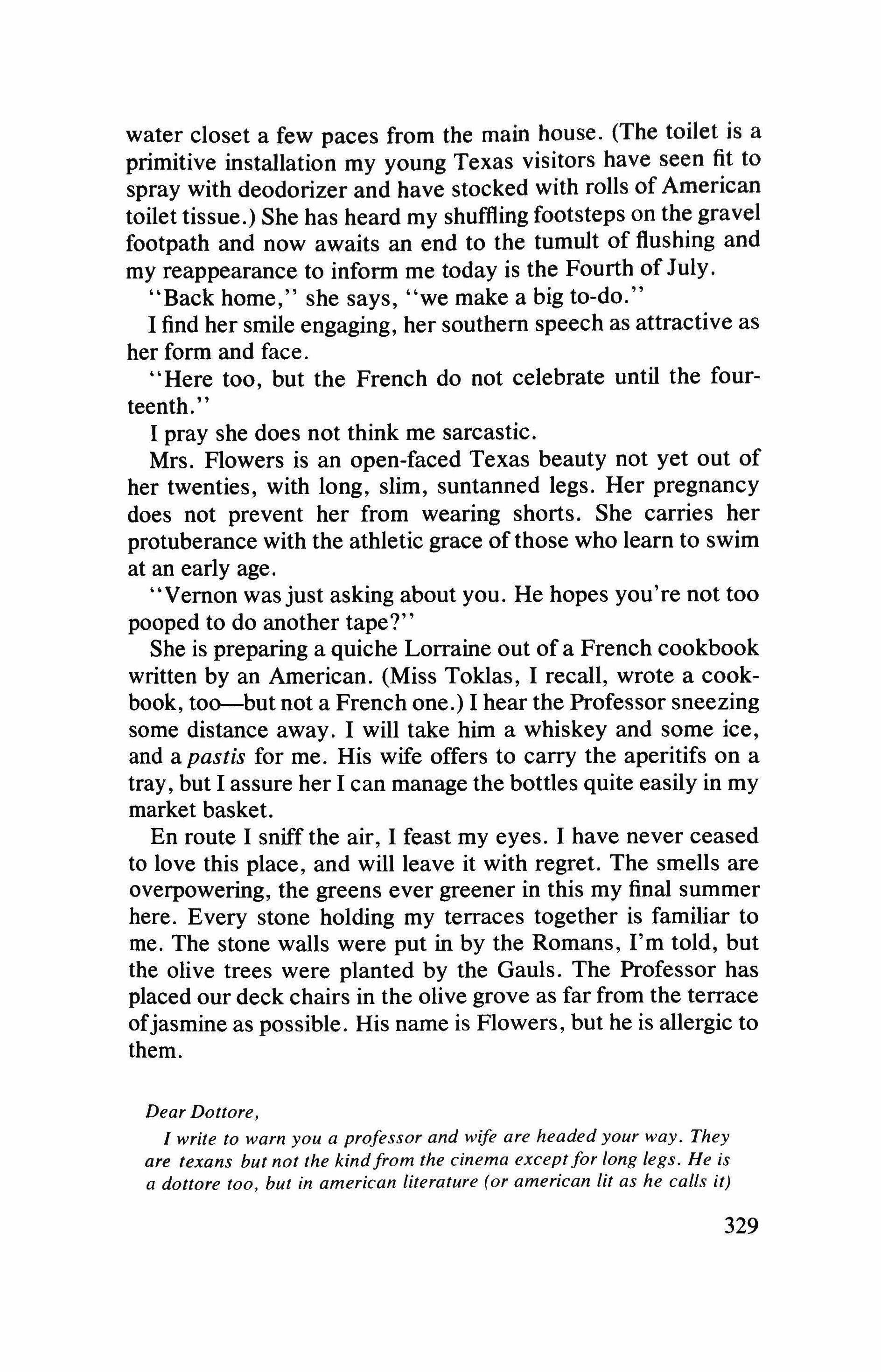
water closet a few paces from the main house. (The toilet is a primitive installation my young Texas visitors have seen fit to spray with deodorizer and have stocked with rolls of American toilet tissue.) She has heard my shuffling footsteps on the gravel footpath and now awaits an end to the tumult of flushing and my reappearance to inform me today is the Fourth of July.
"Back home," she says, "we make a big to-do.
I find her smile engaging, her southern speech as attractive as her form and face.
"Here too, but the French do not celebrate until the fourteenth."
I pray she does not think me sarcastic.
Mrs. Flowers is an open-faced Texas beauty not yet out of her twenties, with long, slim, suntanned legs. Her pregnancy does not prevent her from wearing shorts. She carries her protuberance with the athletic grace of those who learn to swim at an early age.
"Vernon was just asking about you. He hopes you're not too pooped to do another tape?"
She is preparing a quiche Lorraine out of a French cookbook written by an American. (Miss Toklas, I recall, wrote a cookbook, too-but not a French one.) I hear the Professor sneezing some distance away. I will take him a whiskey and some ice, and a pastis for me. His wife offers to carry the aperitifs on a tray, but I assure her I can manage the bottles quite easily in my market basket.
En route I sniff the air, I feast my eyes. I have never ceased to love this place, and will leave it with regret. The smells are overpowering, the greens ever greener in this my final summer here. Every stone holding my terraces together is familiar to me. The stone walls were put in by the Romans, I'm told, but the olive trees were planted by the Gauls. The Professor has placed our deck chairs in the olive grove as far from the terrace ofjasmine as possible. His name is Flowers, but he is allergic to them.
Dear Dottore, I write to warn you a professor and wife are headed your way. They are texans but not the kindfrom the cinema exceptfor long legs. He is a dottore too, but in american literature (or american lit as he calls it)
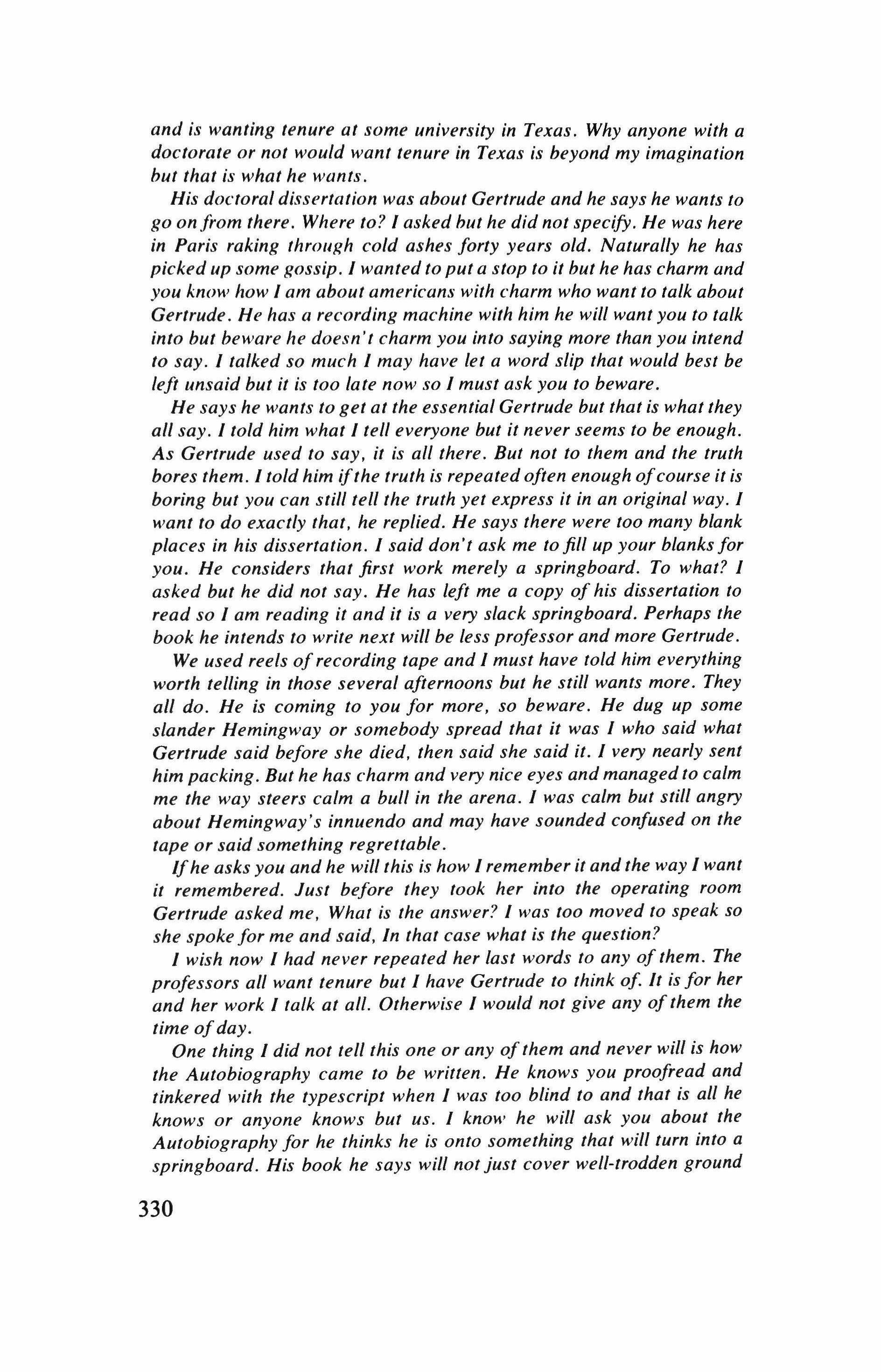
and is wanting tenure at some university in Texas. Why anyone with a doctorate or not would want tenure in Texas is beyond my imagination but that is what he wants.
His doctoral dissertation was about Gertrude and he says he wants to go on from there. Where to? I asked but he did not specify. He was here in Paris raking through cold ashes forty years old. Naturally he has picked up some gossip. I wanted to put a stop to it but he has charm and you know how I am about americans with charm who want to talk about Gertrude. He has a recording machine with him he will want you to talk into but beware he doesn't charm you into saying more than you intend to say. I talked so much 1 may have let a word slip that would best be left unsaid but it is too late now so 1 must ask you to beware.
He says he wants to get at the essential Gertrude but that is what they all say. I told him what I tell everyone but it never seems to be enough. As Gertrude used to say, it is all there. But not to them and the truth bores them. 1 told him ifthe truth is repeated often enough ofcourse it is boring but you can still tell the truth yet express it in an original way. 1 want to do exactly that, he replied. He says there were too many blank places in his dissertation. 1 said don't ask me to fill up your blanks for you. He considers that first work merely a springboard. To what? 1 asked but he did not say. He has left me a copy of his dissertation to read so I am reading it and it is a very slack springboard. Perhaps the book he intends to write next will be less professor and more Gertrude.
We used reels ofrecording tape and 1 must have told him everything worth telling in those several afternoons but he still wants more. They all do. He is coming to you for more, so beware. He dug up some slander Hemingway or somebody spread that it was I who said what Gertrude said before she died, then said she said it. 1 very nearly sent him packing. But he has charm and very nice eyes and managed to calm me the way steers calm a bull in the arena. 1 was calm but still angry about Hemingway's innuendo and may have sounded confused on the tape or said something regrettable.
Ifhe asks you and he will this is how 1 remember it and the way I want it remembered. Just before they took her into the operating room Gertrude asked me, What is the answer? I was too moved to speak so she spokefor me and said, In that case what is the question?
I wish now I had never repeated her last words to any of them. The professors all want tenure but 1 have Gertrude to think of. It is for her and her work I talk at all. Otherwise I would not give any of them the time ofday.
One thing 1 did not tell this one or any of them and never will is how the Autobiography came to be written. He knows you proofread and tinkered with the typescript when 1 was too blind to and that is all he knows or anyone knows but us. 1 know he will ask you about the Autobiography for he thinks he is onto something that will turn into a springboard. His book he says will not just cover well-trodden ground
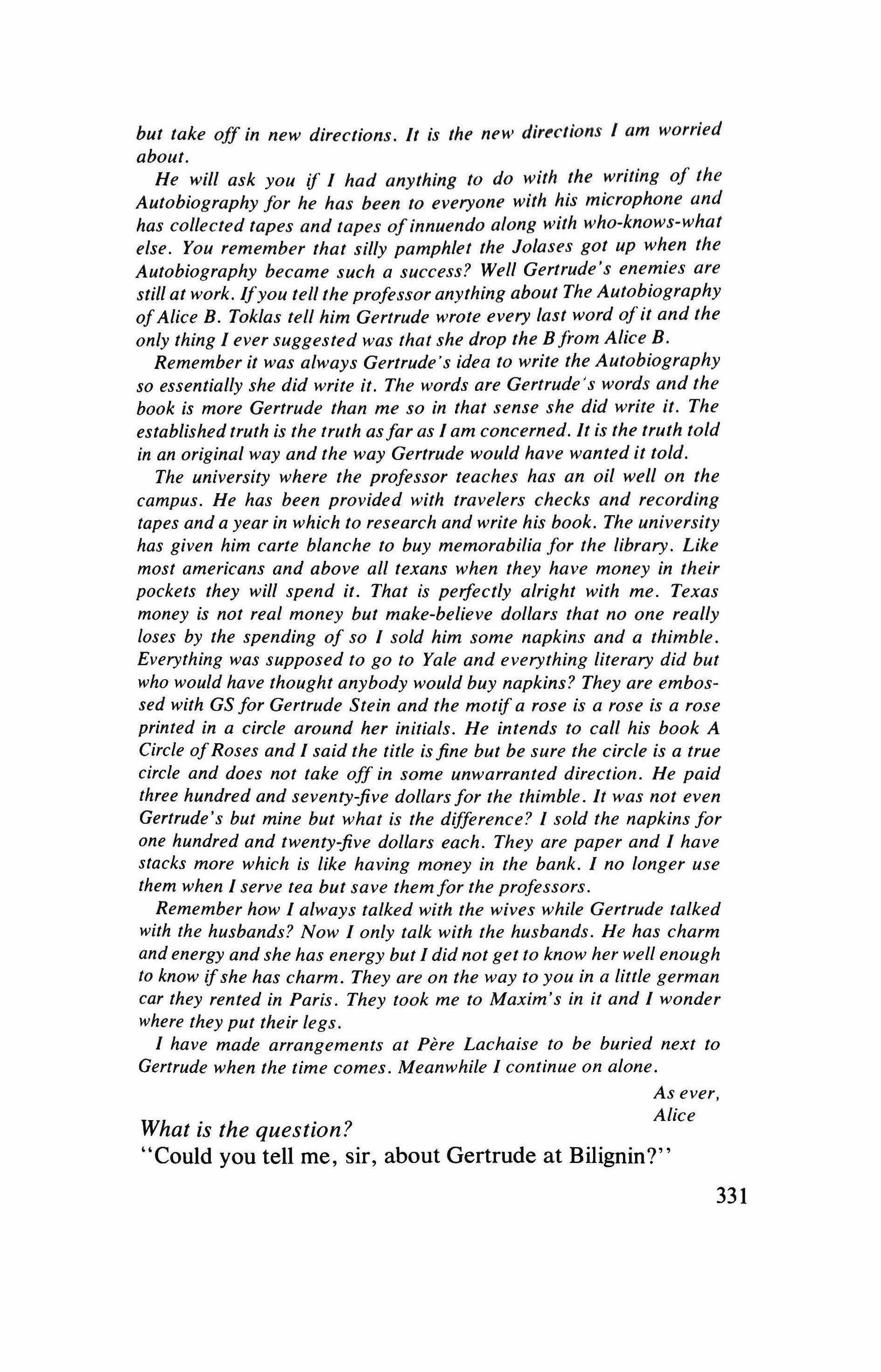
but take off in new directions. It is the new directions I am worried about.
He will ask you if I had anything to do with the writing of the Autobiography for he has been to everyone with his microphone and has collected tapes and tapes ofinnuendo along with who-knows-what else. You remember that silly pamphlet the loiases got up when the Autobiography became such a success? Well Gertrude's enemies are still at work. Ifyou tell the professor anything about The Autobiography ofAlice B. Tok/as tell him Gertrude wrote every last word ofit and the only thing I ever suggested was that she drop the B from Alice B.
Remember it was always Gertrude's idea to write the Autobiography so essentially she did write it, The words are Gertrude's words and the book is more Gertrude than me so in that sense she did write it. The established truth is the truth as far as I am concerned. It is the truth told in an original way and the way Gertrude would have wanted it told.
The university where the professor teaches has an oil well on the campus. He has been provided with travelers checks and recording tapes and a year in which to research and write his book. The university has given him carte blanche to buy memorabilia for the library. Like most americans and above all texans when they have money in their pockets they will spend it. That is perfectly alright with me. Texas money is not real money but make-believe dollars that no one really loses by the spending of so I sold him some napkins and a thimble. Everything was supposed to go to Yale and everything literary did but who would have thought anybody would buy napkins? They are embossed with GS for Gertrude Stein and the motif a rose is a rose is a rose printed in a circle around her initials. He intends to call his book A Circle ofRoses and I said the title is fine but be sure the circle is a true circle and does not take off in some unwarranted direction. He paid three hundred and seventy-five dollars for the thimble. It was not even Gertrude's but mine but what is the difference? I sold the napkins for one hundred and twenty-five dollars each. They are paper and I have stacks more which is like having money in the bank. I no longer use them when I serve tea but save them for the professors.
Remember how I always taLked with the wives while Gertrude taLked with the husbands? Now I only taLk with the husbands. He has charm and energy and she has energy but I did not get to know her well enough to know ifshe has charm. They are on the way to you in a little german car they rented in Paris. They took me to Maxim's in it and I wonder where they put their legs.
I have made arrangements at Pere Lachaise to be buried next to Gertrude when the time comes. Meanwhile I continue on alone.
What is the question?
"Could you tell me, sir, about Gertrude at Bilignin?"
As ever, Alice 331
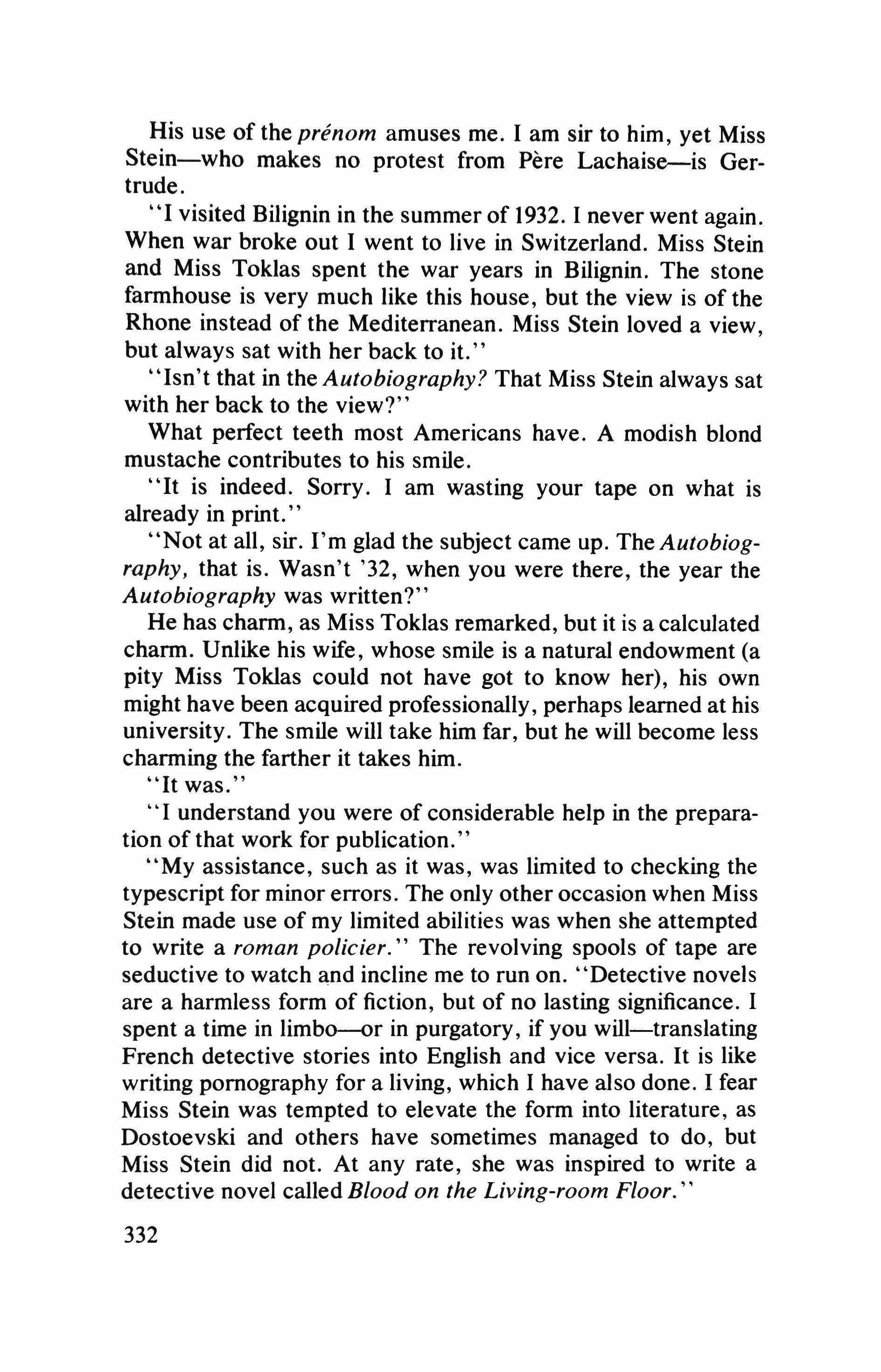
His use of the prenom amuses me. I am sir to him, yet Miss Stein-who makes no protest from Pere Lachaise-is Gertrude.
"I visited Bilignin in the summer of 1932. I never went again. When war broke out I went to live in Switzerland. Miss Stein and Miss Toklas spent the war years in Bilignin. The stone farmhouse is very much like this house, but the view is of the Rhone instead of the Mediterranean. Miss Stein loved a view, but always sat with her back to it.
"Isn't that in the Autobiography? That Miss Stein always sat with her back to the view?"
What perfect teeth most Americans have. A modish blond mustache contributes to his smile.
"It is indeed. Sorry. I am wasting your tape on what is already in print.
"Not at all, sir. I'm glad the subject came up. The Autobiography, that is. Wasn't '32, when you were there, the year the Autobiography was written?"
He has charm, as Miss Toklas remarked, but it is a calculated charm. Unlike his wife, whose smile is a natural endowment (a pity Miss Toklas could not have got to know her), his own might have been acquired professionally, perhaps learned at his university. The smile will take him far, but he will become less charming the farther it takes him.
"It was."
"I understand you were of considerable help in the preparation of that work for publication."
"My assistance, such as it was, was limited to checking the typescript for minor errors. The only other occasion when Miss Stein made use of my limited abilities was when she attempted to write a roman policier." The revolving spools of tape are seductive to watch and incline me to run on. "Detective novels are a harmless form of fiction, but of no lasting significance. I spent a time in limbo-or in purgatory, if you will-translating French detective stories into English and vice versa. It is like writing pornography for a living, which I have also done. I fear Miss Stein was tempted to elevate the form into literature, as Dostoevski and others have sometimes managed to do, but Miss Stein did not. At any rate, she was inspired to write a detective novel called Blood on the Living-room Floor.
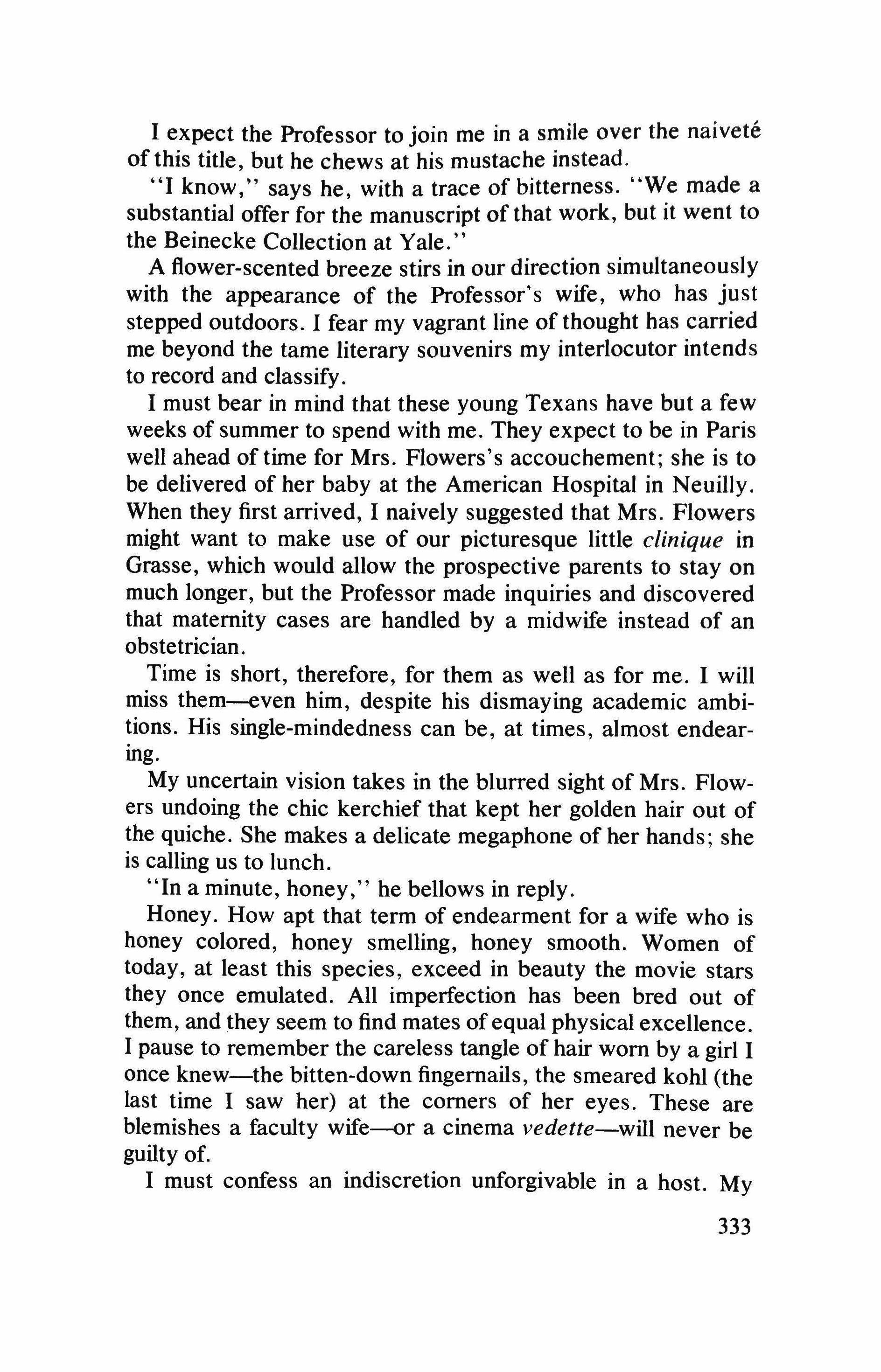
I expect the Professor to join me in a smile over the naivete ofthis title, but he chews at his mustache instead.
"I know," says he, with a trace of bitterness. "We made a substantial offer for the manuscript of that work, but it went to the Beinecke Collection at Yale."
A flower-scented breeze stirs in our direction simultaneously with the appearance of the Professor's wife, who has just stepped outdoors. I fear my vagrant line of thought has carried me beyond the tame literary souvenirs my interlocutor intends to record and classify.
I must bear in mind that these young Texans have but a few weeks of summer to spend with me. They expect to be in Paris well ahead of time for Mrs. Flowers's accouchement; she is to be delivered of her baby at the American Hospital in Neuilly. When they first arrived, I naively suggested that Mrs. Flowers might want to make use of our picturesque little clinique in Grasse, which would allow the prospective parents to stay on much longer, but the Professor made inquiries and discovered that maternity cases are handled by a midwife instead of an obstetrician.
Time is short, therefore, for them as well as for me. I will miss them--even him, despite his dismaying academic ambitions. His single-mindedness can be, at times, almost endearing.
My uncertain vision takes in the blurred sight of Mrs. Flowers undoing the chic kerchief that kept her golden hair out of the quiche. She makes a delicate megaphone of her hands; she is calling us to lunch.
"In a minute, honey," he bellows in reply.
Honey. How apt that term of endearment for a wife who is honey colored, honey smelling, honey smooth. Women of today, at least this species, exceed in beauty the movie stars they once emulated. All imperfection has been bred out of them, and they seem to find mates of equal physical excellence. I pause to remember the careless tangle of hair worn by a girl I once knew-the bitten-down fingernails, the smeared kohl (the last time I saw her) at the comers of her eyes. These are blemishes a faculty wife-or a cinema vedette-will never be guilty of,
I must confess an indiscretion unforgivable in a host. My 333
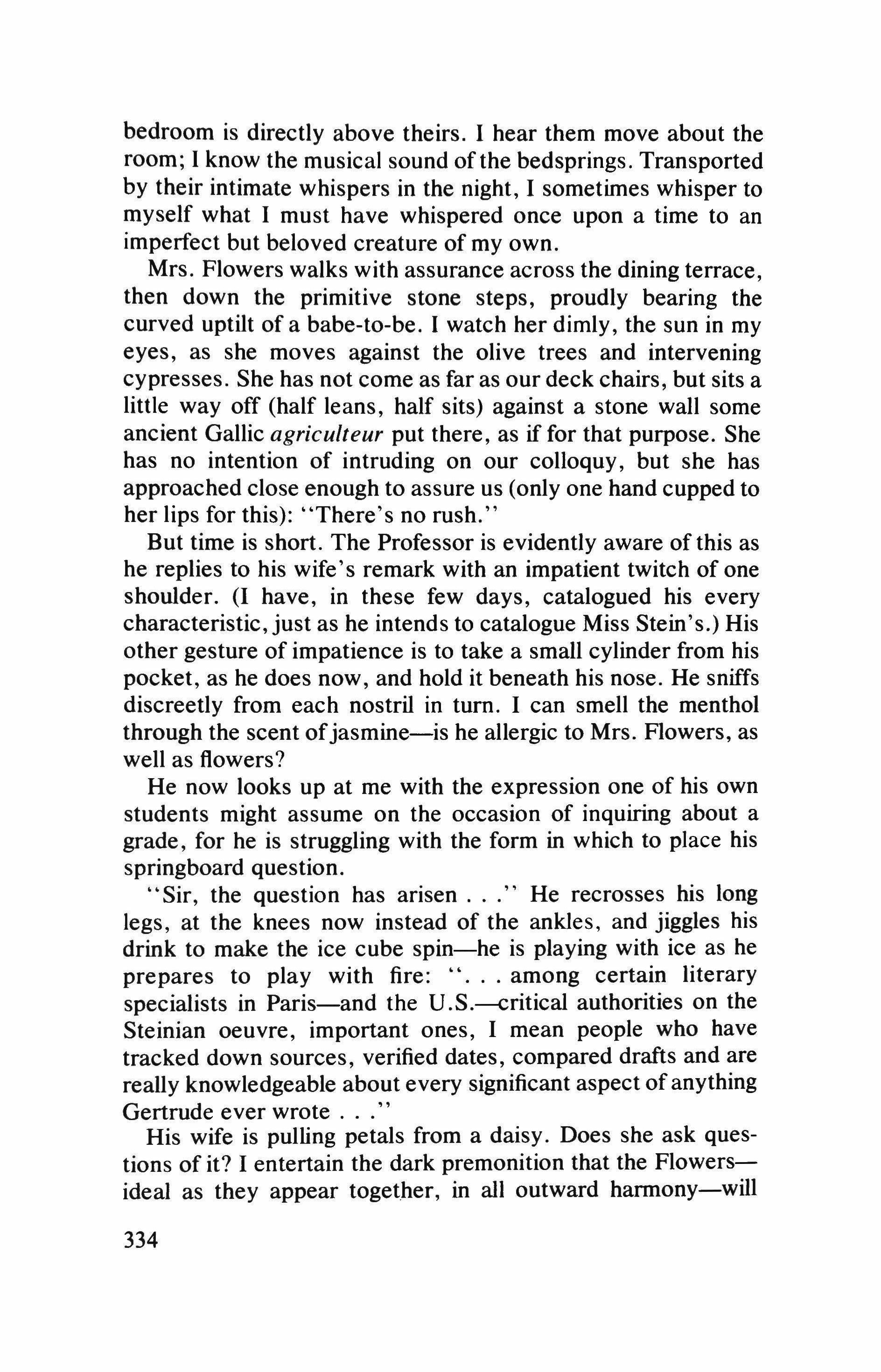
bedroom is directly above theirs. 1 hear them move about the room; I know the musical sound of the bedsprings. Transported by their intimate whispers in the night, 1 sometimes whisper to myself what I must have whispered once upon a time to an imperfect but beloved creature of my own.
Mrs. Flowers walks with assurance across the dining terrace, then down the primitive stone steps, proudly bearing the curved uptilt of a babe-to-be. I watch her dimly, the sun in my eyes, as she moves against the olive trees and intervening cypresses. She has not come as far as our deck chairs, but sits a little way off (half leans, half sits) against a stone wall some ancient Gallic agriculteur put there, as if for that purpose. She has no intention of intruding on our colloquy, but she has approached close enough to assure us (only one hand cupped to her lips for this): "There's no rush."
But time is short. The Professor is evidently aware of this as he replies to his wife's remark with an impatient twitch of one shoulder. (I have, in these few days, catalogued his every characteristic, just as he intends to catalogue Miss Stein's.) His other gesture of impatience is to take a small cylinder from his pocket, as he does now, and hold it beneath his nose. He sniffs discreetly from each nostril in tum. I can smell the menthol through the scent ofjasmine-is he allergic to Mrs. Flowers, as well as flowers?
He now looks up at me with the expression one of his own students might assume on the occasion of inquiring about a grade, for he is struggling with the form in which to place his springboard question
Sir, the question has arisen He recrosses his long legs, at the knees now instead of the ankles, and jiggles his drink to make the ice cube spin-he is playing with ice as he prepares to play with fire: among certain literary specialists in Paris-and the U .S.--critical authorities on the Steinian oeuvre, important ones, 1 mean people who have tracked down sources, verified dates, compared drafts and are really knowledgeable about every significant aspect ofanything Gertrude ever wrote ."
His wife is pulling petals from a daisy. Does she ask questions of it? 1 entertain the dark premonition that the Flowersideal as they appear together, in all outward harmony-will
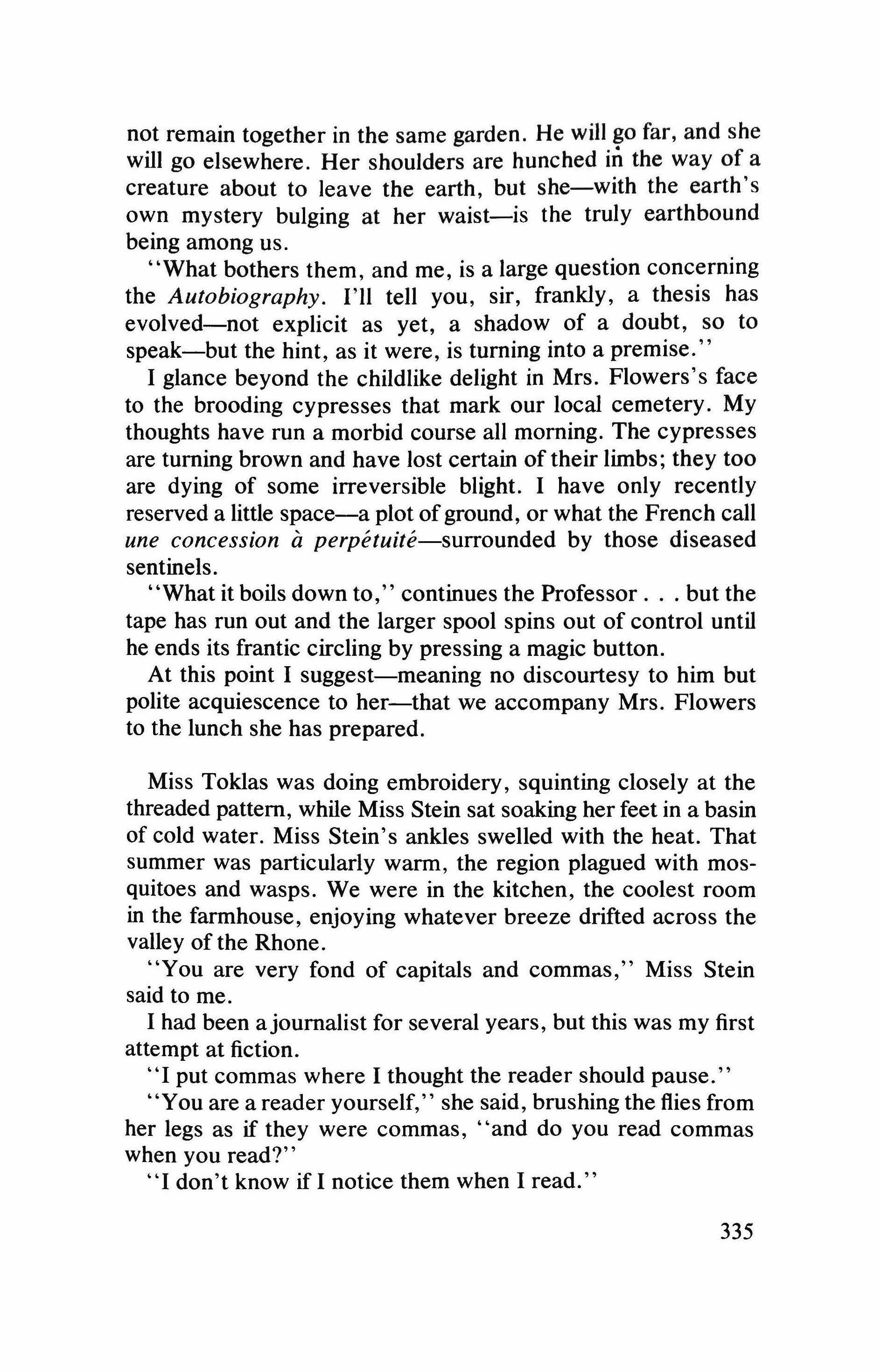
not remain together in the same garden. He will go far, and she will go elsewhere. Her shoulders are hunched in the way of a creature about to leave the earth, but she-with the earth's own mystery bulging at her waist-is the truly earthbound being among us.
"What bothers them, and me, is a large question concerning the Autobiography. I'll tell you, sir, frankly, a thesis has evolved-not explicit as yet, a shadow of a doubt, so to speak-but the hint, as it were, is turning into a premise."
I glance beyond the childlike delight in Mrs. Flowers's face to the brooding cypresses that mark our local cemetery. My thoughts have run a morbid course all morning. The cypresses are turning brown and have lost certain of their limbs; they too are dying of some irreversible blight. I have only recently reserved a little space-a plot ofground, or what the French call une concession a perpetuite-surrounded by those diseased sentinels.
"What it boils down to," continues the Professor but the tape has run out and the larger spool spins out of control until he ends its frantic circling by pressing a magic button.
At this point I suggest-meaning no discourtesy to him but polite acquiescence to her-that we accompany Mrs. Flowers to the lunch she has prepared.
Miss Toklas was doing embroidery, squinting closely at the threaded pattern, while Miss Stein sat soaking her feet in a basin of cold water. Miss Stein's ankles swelled with the heat. That summer was particularly warm, the region plagued with mosquitoes and wasps. We were in the kitchen, the coolest room in the farmhouse, enjoying whatever breeze drifted across the valley of the Rhone.
"You are very fond of capitals and commas," Miss Stein said to me.
I had been ajournalist for several years, but this was my first attempt at fiction.
"I put commas where I thought the reader should pause."
"You are a reader yourself," she said, brushing the flies from her legs as if they were commas, "and do you read commas when you read?"
"I don't know if I notice them when I read."
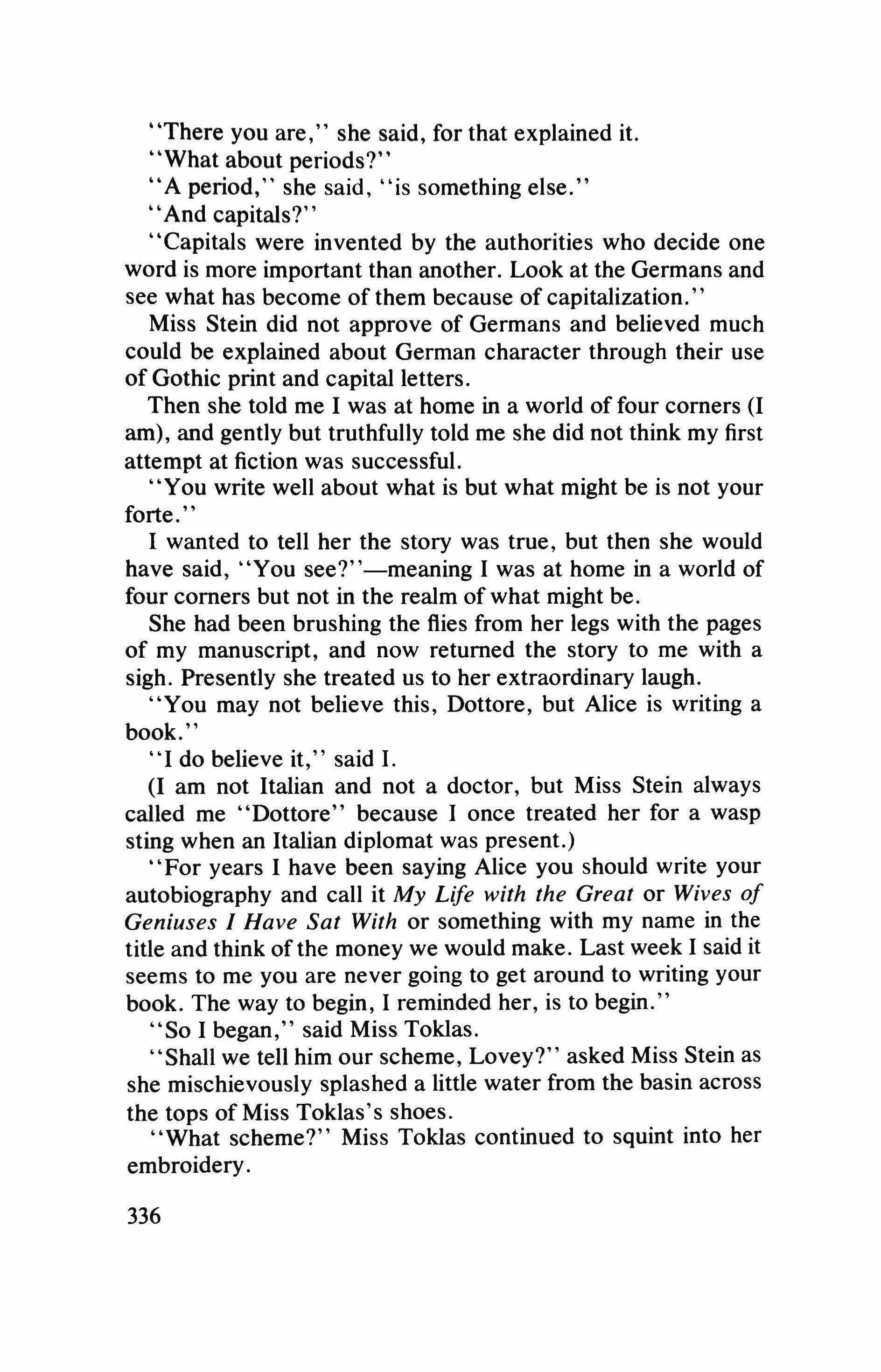
"There you are," she said, for that explained it.
"What about periods?"
"A period," she said, "is something else." And capitals?"
"Capitals were invented by the authorities who decide one word is more important than another. Look at the Germans and see what has become of them because of capitalization.
Miss Stein did not approve of Germans and believed much could be explained about German character through their use of Gothic print and capital letters.
Then she told me 1 was at home in a world of four corners (I am), and gently but truthfully told me she did not think my first attempt at fiction was successful.
"You write well about what is but what might be is not your forte. "
1 wanted to tell her the story was true, but then she would have said, "You see?"-meaning I was at home in a world of four corners but not in the realm of what might be.
She had been brushing the flies from her legs with the pages of my manuscript, and now returned the story to me with a sigh. Presently she treated us to her extraordinary laugh.
"You may not believe this, Dottore, but Alice is writing a book."
'I do believe it," said I.
(I am not Italian and not a doctor, but Miss Stein always called me "Dettore" because I once treated her for a wasp sting when an Italian diplomat was present.)
"For years 1 have been saying Alice you should write your autobiography and call it My Life with the Great or Wives of Geniuses I Have Sat With or something with my name in the title and think of the money we would make. Last week I said it seems to me you are never going to get around to writing your book. The way to begin, I reminded her, is to begin."
"So 1 began," said Miss Toklas.
"Shall we tell him our scheme, Lovey?" asked Miss Stein as she mischievously splashed a little water from the basin across the tops of Miss Toklas's shoes.
"What scheme?" Miss Toklas continued to squint into her embroidery
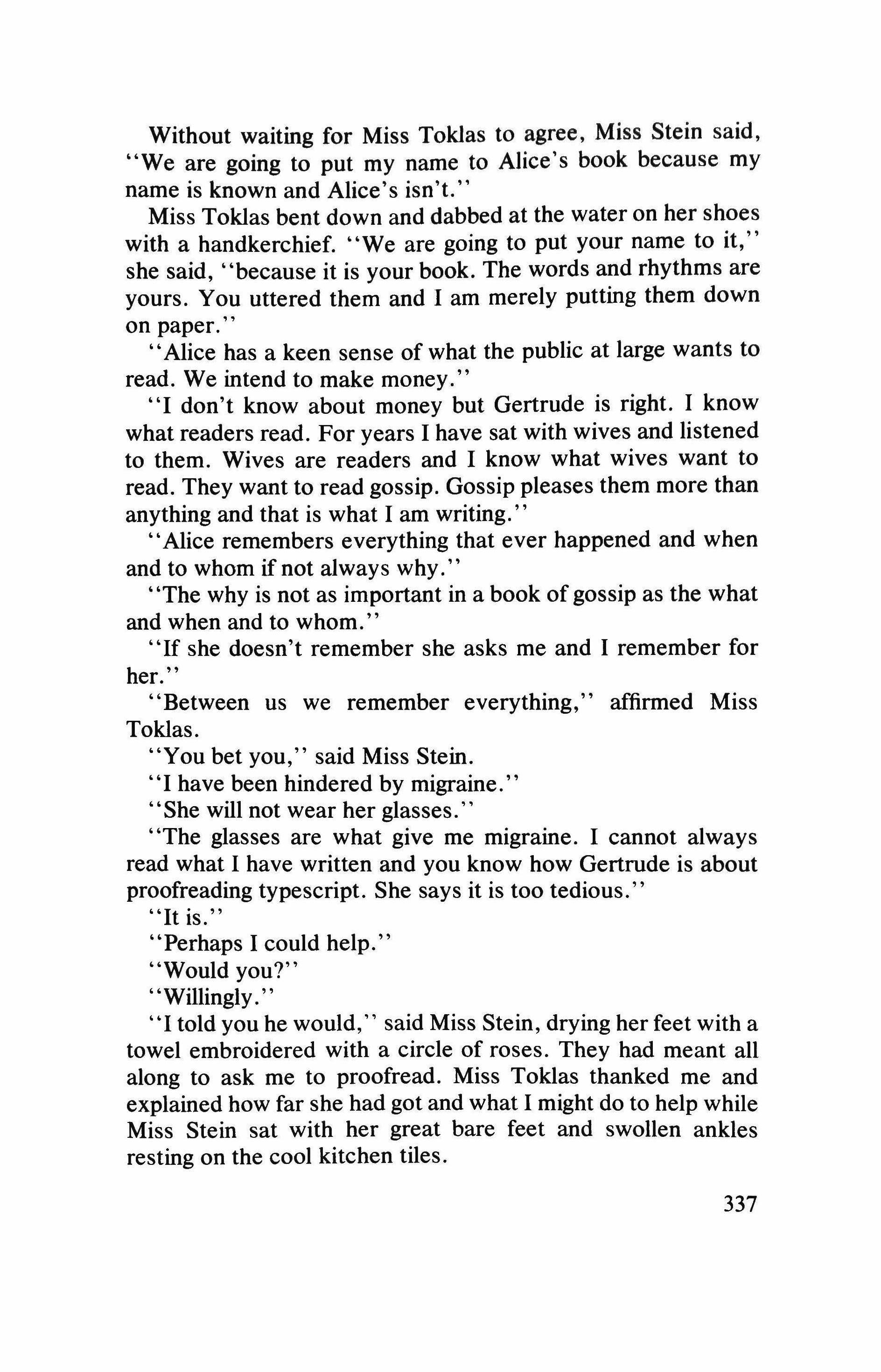
Without waiting for Miss Toklas to agree, Miss Stein said, "We are going to put my name to Alice's book because my name is known and Alice's isn't."
Miss Toklas bent down and dabbed at the water on her shoes with a handkerchief. "We are going to put your name to it," she said, "because it is your book. The words and rhythms are yours. You uttered them and I am merely putting them down on paper."
"Alice has a keen sense of what the public at large wants to read. We intend to make money."
"I don't know about money but Gertrude is right. I know what readers read. For years I have sat with wives and listened to them. Wives are readers and I know what wives want to read. They want to read gossip. Gossip pleases them more than anything and that is what I am writing."
"Alice remembers everything that ever happened and when and to whom if not always why."
'The why is not as important in a book of gossip as the what and when and to whom."
"If she doesn't remember she asks me and I remember for her.
"Between us we remember everything," affirmed Miss Toklas.
"You bet you," said Miss Stein.
"I have been hindered by migraine."
"She will not wear her glasses."
"The glasses are what give me migraine. I cannot always read what I have written and you know how Gertrude is about proofreading typescript. She says it is too tedious."
"It is."
"Perhaps I could help."
"Would you?"
"Willingly.'
I told you he would," said Miss Stein, drying her feet with a towel embroidered with a circle of roses. They had meant all along to ask me to proofread. Miss Toklas thanked me and explained how far she had got and what I might do to help while Miss Stein sat with her great bare feet and swollen ankles resting on the cool kitchen tiles.
337

I pretend to nap. It is an opportunity to allow the tape machine a respite, and to offer the Professor's wife a piece of the afternoon alone with her husband. (I never nap; sleep is elusive enough at night.) The window volets are open wide. A slight breeze stirs the leaves of the linden, a fly is trapped inside my light fixture-and through these somnolent summer sounds I hear my guests talking quietly in the room below.
"He knows more than he's willing to say."
"What is he willing to say?"
"Only that he helped proofread the manuscript."
"What did you expect?"
"He knows Alice wrote it. I know he knows."
"Maybe Gertrude Stein wrote it after all. Like, say, if Shakespeare really did write Shakespeare."
I can almost see his shoulder twitch with annoyance, disappointment, impatience. I wish I might, in all conscience, utter some provocative revelation into his German recording machine. I would truly like to present the Professor with a notable literary footnote (other than the one he pursues) which he could elaborate and conjecture upon, and from which he might spring to academic eminence.
I have ransacked the drawers of my writing desk, emptied a steamer trunk full of souvenirs and obituaries, searching for some scrap pertaining to Miss Stein. All I find is a tattered carbon copy of my French translation, Du sang parterre dans Ie salon, of Miss Stein's lamentable detective novel. It might afford the Professor some amusement, though I have yet to discover in him a sense of humor.
I have also come across the original manuscript of a story of my own.
This evening we are to celebrate the Fourth of July together: three displaced Americans inhabiting different shells-or should I say four? The fetus has manifested life. I can hear Mrs. Flowers say, "Feel," then the familiar tune the bedsprings play, but not the comment of the father-to-be.
I wonder what kind of company I can be at the fete, in this vagrant mood of nostalgia and regret. A baby stirs within its envelope, a husband fondles his pregnant wife: these signs of life are almost more than my swelling heart can contain.
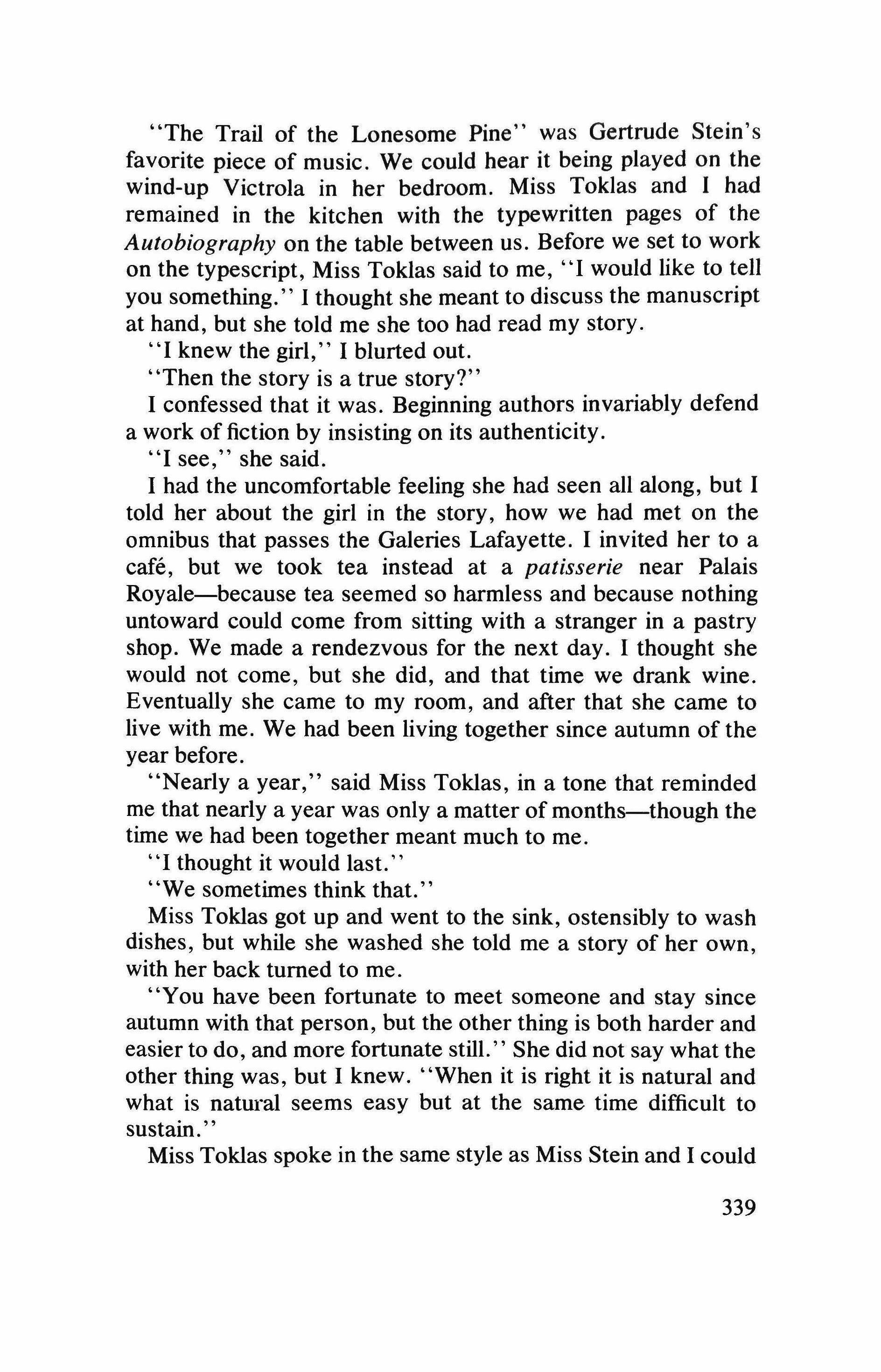
"The Trail of the Lonesome Pine" was Gertrude Stein's favorite piece of music. We could hear it being played on the wind-up Victrola in her bedroom. Miss Toklas and I had remained in the kitchen with the typewritten pages of the Autobiography on the table between us. Before we set to work on the typescript, Miss Toklas said to me, "I would like to tell you something." I thought she meant to discuss the manuscript at hand, but she told me she too had read my story.
"I knew the girl," I blurted out.
"Then the story is a true story?"
I confessed that it was. Beginning authors invariably defend a work of fiction by insisting on its authenticity.
"I see," she said.
I had the uncomfortable feeling she had seen all along, but 1 told her about the girl in the story, how we had met on the omnibus that passes the Galeries Lafayette. 1 invited her to a cafe, but we took tea instead at a patisserie near Palais Royale-because tea seemed so harmless and because nothing untoward could come from sitting with a stranger in a pastry shop. We made a rendezvous for the next day. I thought she would not come, but she did, and that time we drank wine. Eventually she came to my room, and after that she came to live with me. We had been living together since autumn of the year before.
"Nearly a year," said Miss TokIas, in a tone that reminded me that nearly a year was only a matter of months-though the time we had been together meant much to me.
"I thought it would last."
"We sometimes think that."
Miss Toklas got up and went to the sink, ostensibly to wash dishes, but while she washed she told me a story of her own, with her back turned to me.
"You have been fortunate to meet someone and stay since autumn with that person, but the other thing is both harder and easier to do, and more fortunate still.' She did not say what the other thing was, but I knew. "When it is right it is natural and what is natural seems easy but at the same time difficult to sustain.
Miss Toklas spoke in the same style as Miss Stein and I could
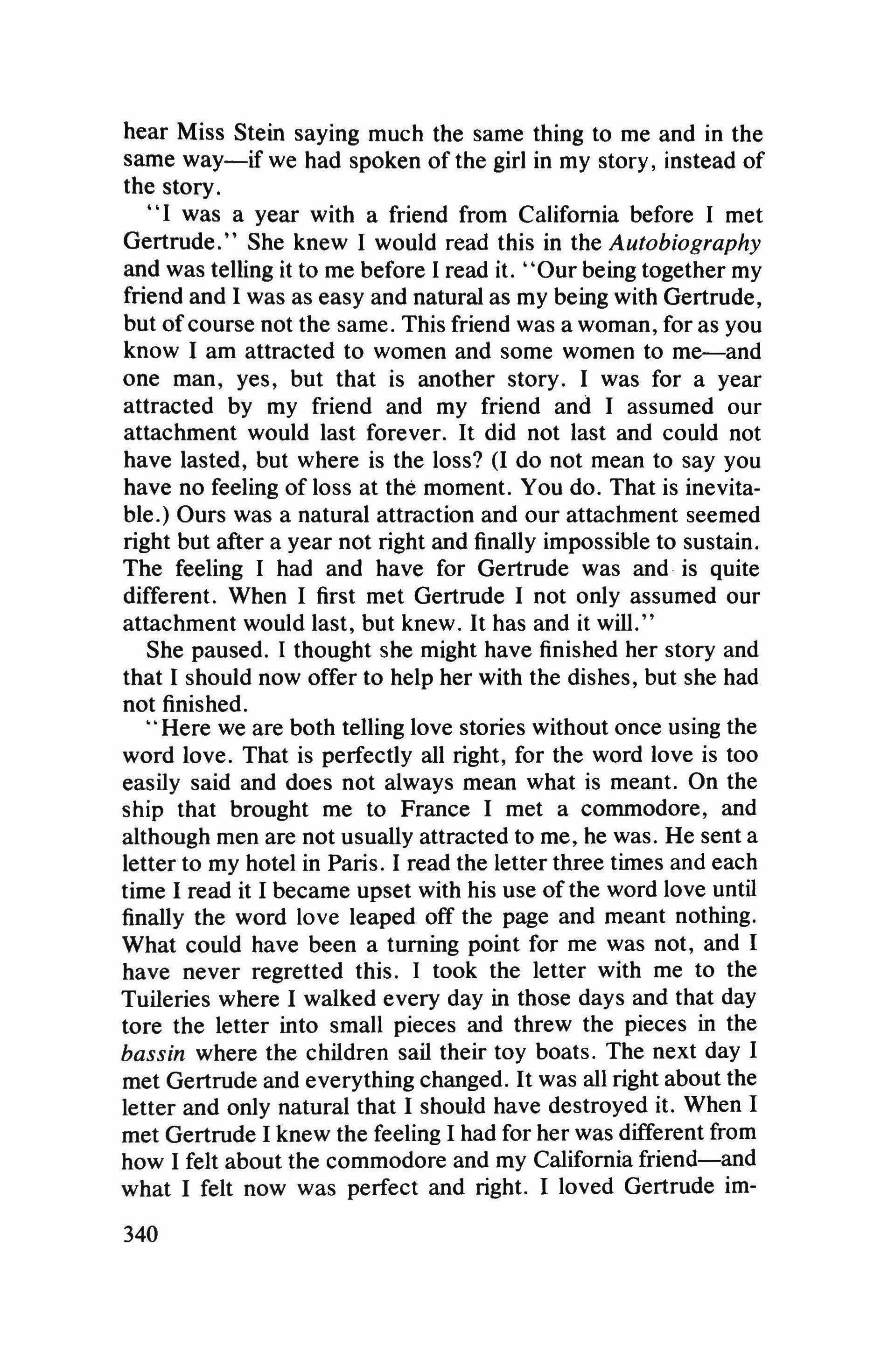
hear Miss Stein saying much the same thing to me and in the same way-if we had spoken of the girl in my story, instead of the story.
I was a year with a friend from California before I met Gertrude." She knew I would read this in the Autobiography and was telling it to me before I read it. "Our being together my friend and I was as easy and natural as my being with Gertrude, but of course not the same. This friend was a woman, for as you know I am attracted to women and some women to me-and one man, yes, but that is another story. I was for a year attracted by my friend and my friend and 1 assumed our attachment would last forever. It did not last and could not have lasted, but where is the loss? (I do not mean to say you have no feeling of loss at the moment. You do. That is inevitable.) Ours was a natural attraction and our attachment seemed right but after a year not right and finally impossible to sustain. The feeling 1 had and have for Gertrude was and is quite different. When 1 first met Gertrude I not only assumed our attachment would last, but knew. It has and it will."
She paused. I thought she might have finished her story and that 1 should now offer to help her with the dishes, but she had not finished
Here we are both telling love stories without once using the word love. That is perfectly all right, for the word love is too easily said and does not always mean what is meant. On the ship that brought me to France 1 met a commodore, and although men are not usually attracted to me, he was. He sent a letter to my hotel in Paris. 1 read the letter three times and each time 1 read it 1 became upset with his use of the word love until finally the word love leaped off the page and meant nothing. What could have been a turning point for me was not, and 1 have never regretted this. I took the letter with me to the Tuileries where 1 walked every day in those days and that day tore the letter into small pieces and threw the pieces in the bassin where the children sail their toy boats. The next day 1 met Gertrude and everything changed. It was all right about the letter and only natural that 1 should have destroyed it. When 1 met Gertrude 1 knew the feeling 1 had for her was different from how 1 felt about the commodore and my California friend-and what 1 felt now was perfect and right. 1 loved Gertrude im-
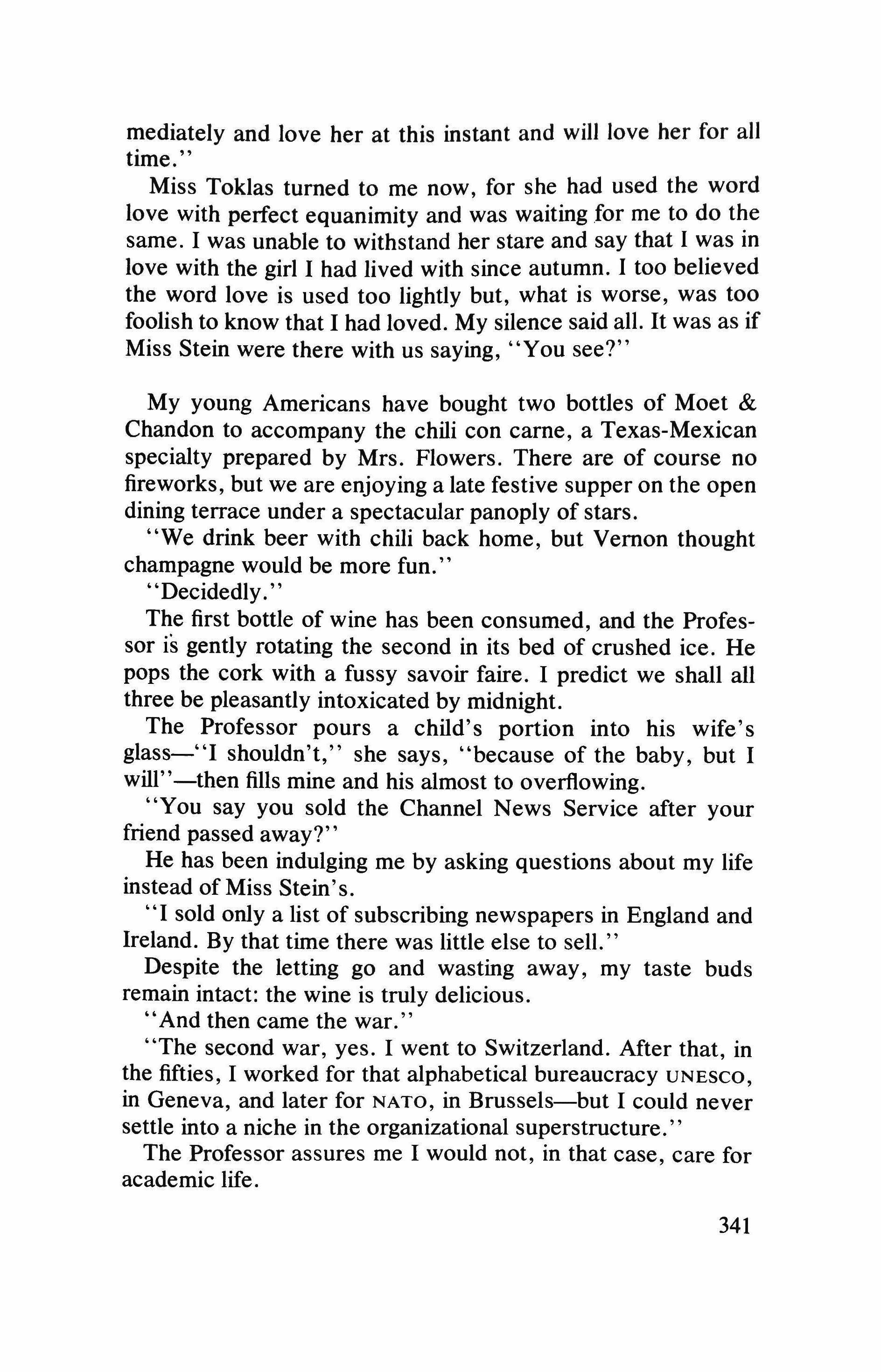
mediately and love her at this instant and will love her for all time."
Miss Toklas turned to me now, for she had used the word love with perfect equanimity and was waiting for me to do the same. I was unable to withstand her stare and say that I was in love with the girl I had lived with since autumn. I too believed the word love is used too lightly but, what is worse, was too foolish to know that I had loved. My silence said all. It was as if Miss Stein were there with us saying, "You see?"
My young Americans have bought two bottles of Moet & Chandon to accompany the chili con carne, a Texas-Mexican specialty prepared by Mrs. Flowers. There are of course no fireworks, but we are enjoying a late festive supper on the open dining terrace under a spectacular panoply of stars.
"We drink beer with chili back home, but Vernon thought champagne would be more fun.
"Decidedly.
The first bottle of wine has been consumed, and the Professor is gently rotating the second in its bed of crushed ice. He pops the cork with a fussy savoir faire. I predict we shall all three be pleasantly intoxicated by midnight.
The Professor pours a child's portion into his wife's glass-"I shouldn't," she says, "because of the baby, but I will"-then fills mine and his almost to overflowing.
"You say you sold the Channel News Service after your friend passed away?"
He has been indulging me by asking questions about my life instead of Miss Stein's.
"I sold only a list of subscribing newspapers in England and Ireland. By that time there was little else to sell."
Despite the letting go and wasting away, my taste buds remain intact: the wine is truly delicious.
"And then came the war."
"The second war, yes. I went to Switzerland. After that, in the fifties, I worked for that alphabetical bureaucracy UNESCO, in Geneva, and later for NATO, in Brussels-but I could never settle into a niche in the organizational superstructure."
The Professor assures me I would not, in that case, care for academic life.
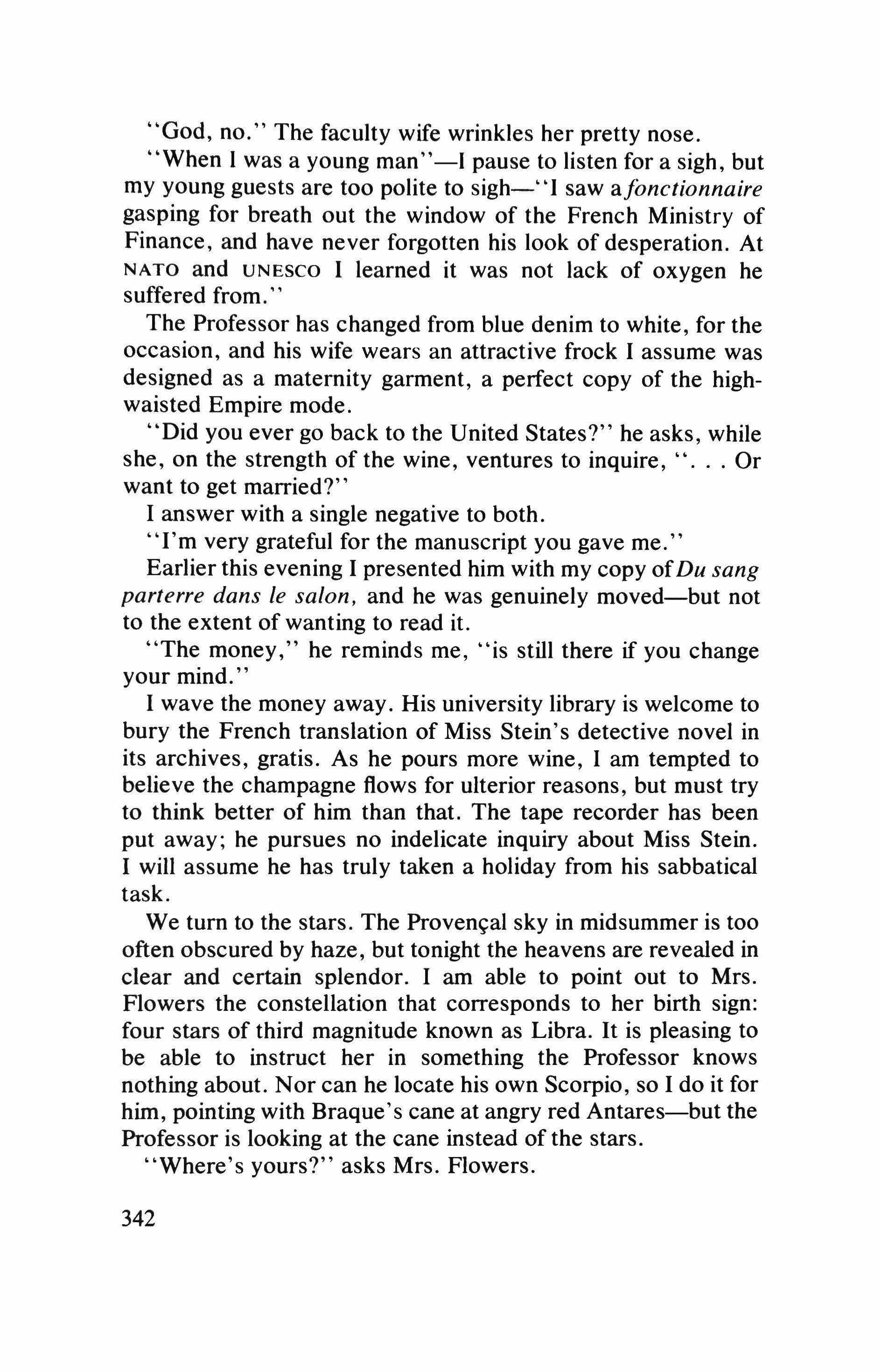
"God, no." The faculty wife wrinkles her pretty nose.
"When I was a young man"-I pause to listen for a sigh, but my young guests are too polite to sigh-"I saw efonctionnaire gasping for breath out the window of the French Ministry of Finance, and have never forgotten his look of desperation. At NATO and UNESCO I learned it was not lack of oxygen he suffered from."
The Professor has changed from blue denim to white, for the occasion, and his wife wears an attractive frock I assume was designed as a maternity garment, a perfect copy of the highwaisted Empire mode.
"Did you ever go back to the United States?" he asks, while she, on the strength of the wine, ventures to inquire, Or want to get married?"
I answer with a single negative to both.
"J'rn very grateful for the manuscript you gave me."
Earlier this evening I presented him with my copy ofDu sang parterre dans le salon, and he was genuinely moved-but not to the extent of wanting to read it.
"The money," he reminds me, "is still there if you change your mind.
I wave the money away. His university library is welcome to bury the French translation of Miss Stein's detective novel in its archives, gratis. As he pours more wine, I am tempted to believe the champagne flows for ulterior reasons, but must try to think better of him than that. The tape recorder has been put away; he pursues no indelicate inquiry about Miss Stein. I will assume he has truly taken a holiday from his sabbatical task.
We turn to the stars. The Provencal sky in midsummer is too often obscured by haze, but tonight the heavens are revealed in clear and certain splendor. I am able to point out to Mrs. Flowers the constellation that corresponds to her birth sign: four stars of third magnitude known as Libra. It is pleasing to be able to instruct her in something the Professor knows nothing about. Nor can he locate his own Scorpio, so I do it for him, pointing with Braque' s cane at angry red Antares-but the Professor is looking at the cane instead of the stars.
"Where's yours?" asks Mrs. Flowers.
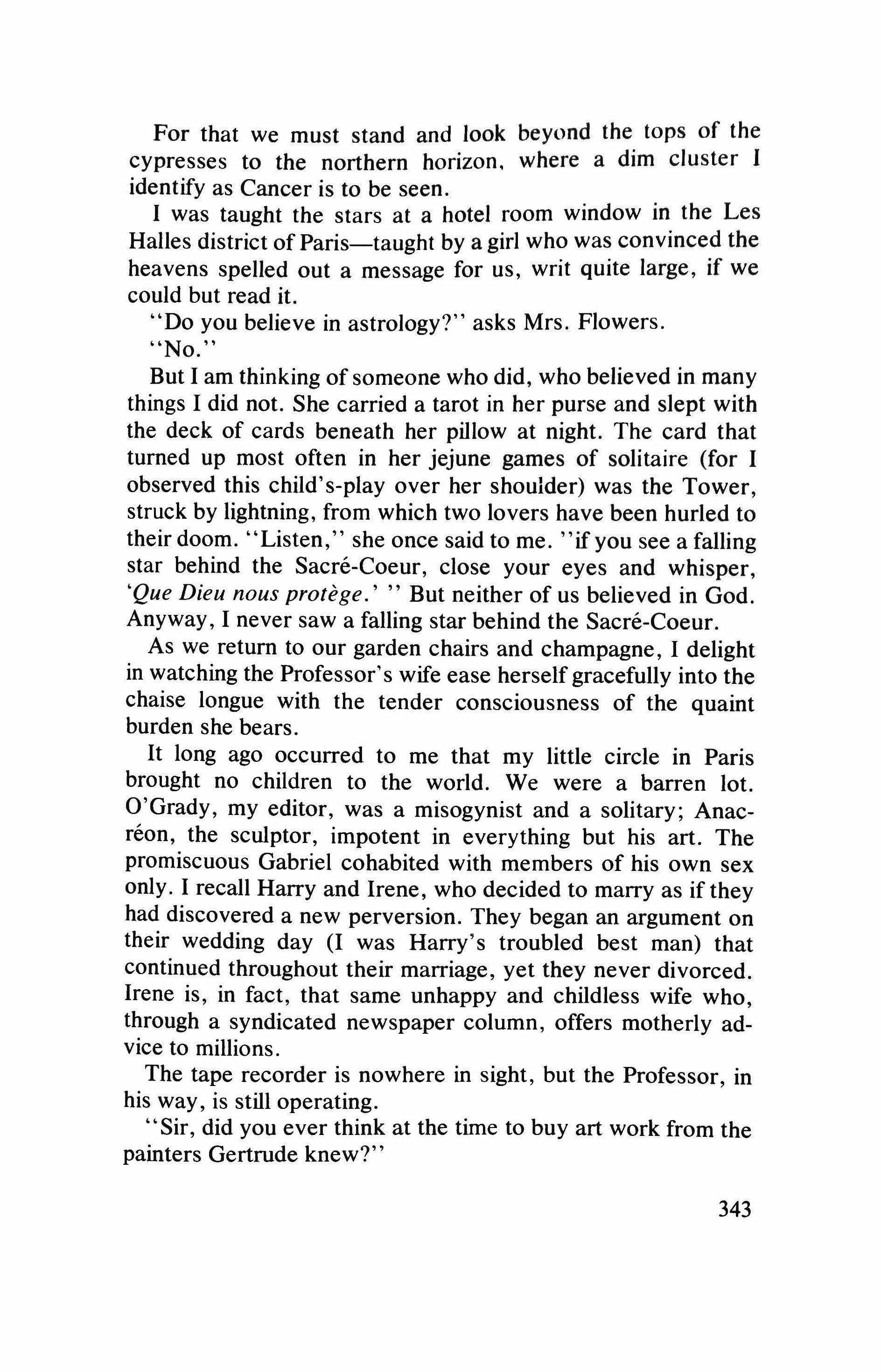
For that we must stand and look beyond the tops of the cypresses to the northern horizon, where a dim cluster I identify as Cancer is to be seen.
I was taught the stars at a hotel room window in the Les HaIles district of Paris-taught by a girl who was convinced the heavens spelled out a message for us, writ quite large, if we could but read it.
"Do you believe in astrology?" asks Mrs. Flowers. ""No."
But 1 am thinking of someone who did, who believed in many things 1 did not. She carried a tarot in her purse and slept with the deck of cards beneath her pillow at night. The card that turned up most often in her jejune games of solitaire (for I observed this child's-play over her shoulder) was the Tower, struck by lightning, from which two lovers have been hurled to their doom. "Listen," she once said to me. "if you see a falling star behind the Sacre-Coeur, close your eyes and Whisper, 'Que Dieu nous protege.' But neither of us believed in God. Anyway, 1 never saw a falling star behind the Sacre-Coeur.
As we return to our garden chairs and champagne, 1 delight in watching the Professor's wife ease herself gracefully into the chaise longue with the tender consciousness of the quaint burden she bears.
It long ago occurred to me that my little circle in Paris brought no children to the world. We were a barren lot. O'Grady, my editor, was a misogynist and a solitary; Anacreon, the sculptor, impotent in everything but his art. The promiscuous Gabriel cohabited with members of his own sex only. I recall Harry and Irene, who decided to marry as if they had discovered a new perversion. They began an argument on their wedding day (I was Harry's troubled best man) that continued throughout their marriage, yet they never divorced. Irene is, in fact, that same unhappy and childless wife who, through a syndicated newspaper column, offers motherly advice to millions.
The tape recorder is nowhere in sight, but the Professor, in his way, is still operating.
"Sir, did you ever think at the time to buy art work from the painters Gertrude knew?"
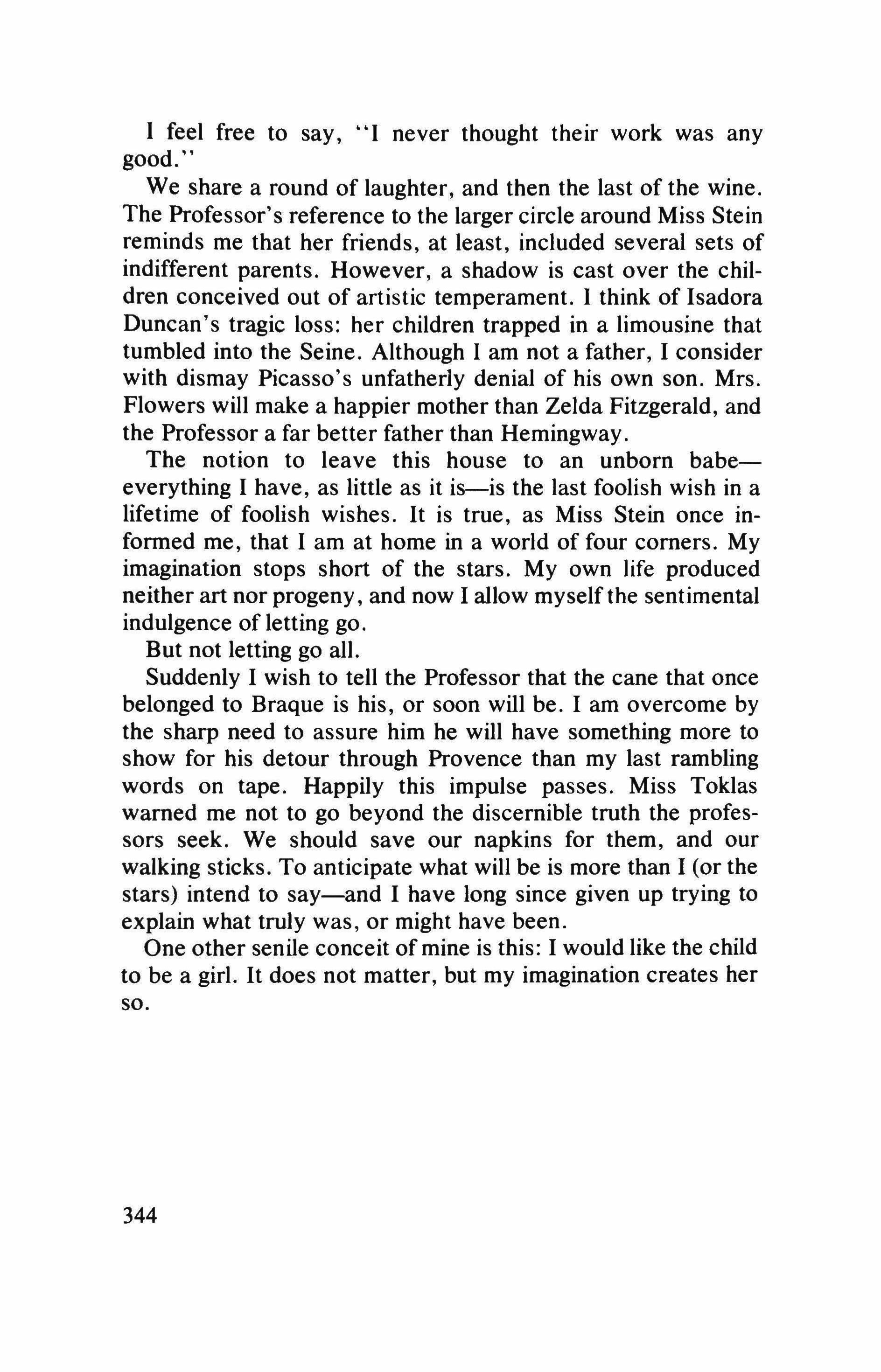
I feel free to say, •. I never thought their work was any good."
We share a round of laughter, and then the last of the wine. The Professor's reference to the larger circle around Miss Stein reminds me that her friends, at least, included several sets of indifferent parents. However, a shadow is cast over the children conceived out of artistic temperament. I think of Isadora Duncan's tragic loss: her children trapped in a limousine that tumbled into the Seine. Although I am not a father, I consider with dismay Picasso's unfatherly denial of his own son. Mrs. Flowers will make a happier mother than Zelda Fitzgerald, and the Professor a far better father than Hemingway.
The notion to leave this house to an unborn babeeverything I have, as little as it is-is the last foolish wish in a lifetime of foolish wishes. It is true, as Miss Stein once informed me, that I am at home in a world of four corners. My imagination stops short of the stars. My own life produced neither art nor progeny, and now I allow myself the sentimental indulgence of letting go.
But not letting go all.
Suddenly I wish to tell the Professor that the cane that once belonged to Braque is his, or soon will be. I am overcome by the sharp need to assure him he will have something more to show for his detour through Provence than my last rambling words on tape. Happily this impulse passes. Miss Toklas warned me not to go beyond the discernible truth the professors seek. We should save our napkins for them, and our walking sticks. To anticipate what will be is more than I (or the stars) intend to say-and I have long since given up trying to explain what truly was, or might have been.
One other senile conceit of mine is this: I would like the child to be a girl. It does not matter, but my imagination creates her so.
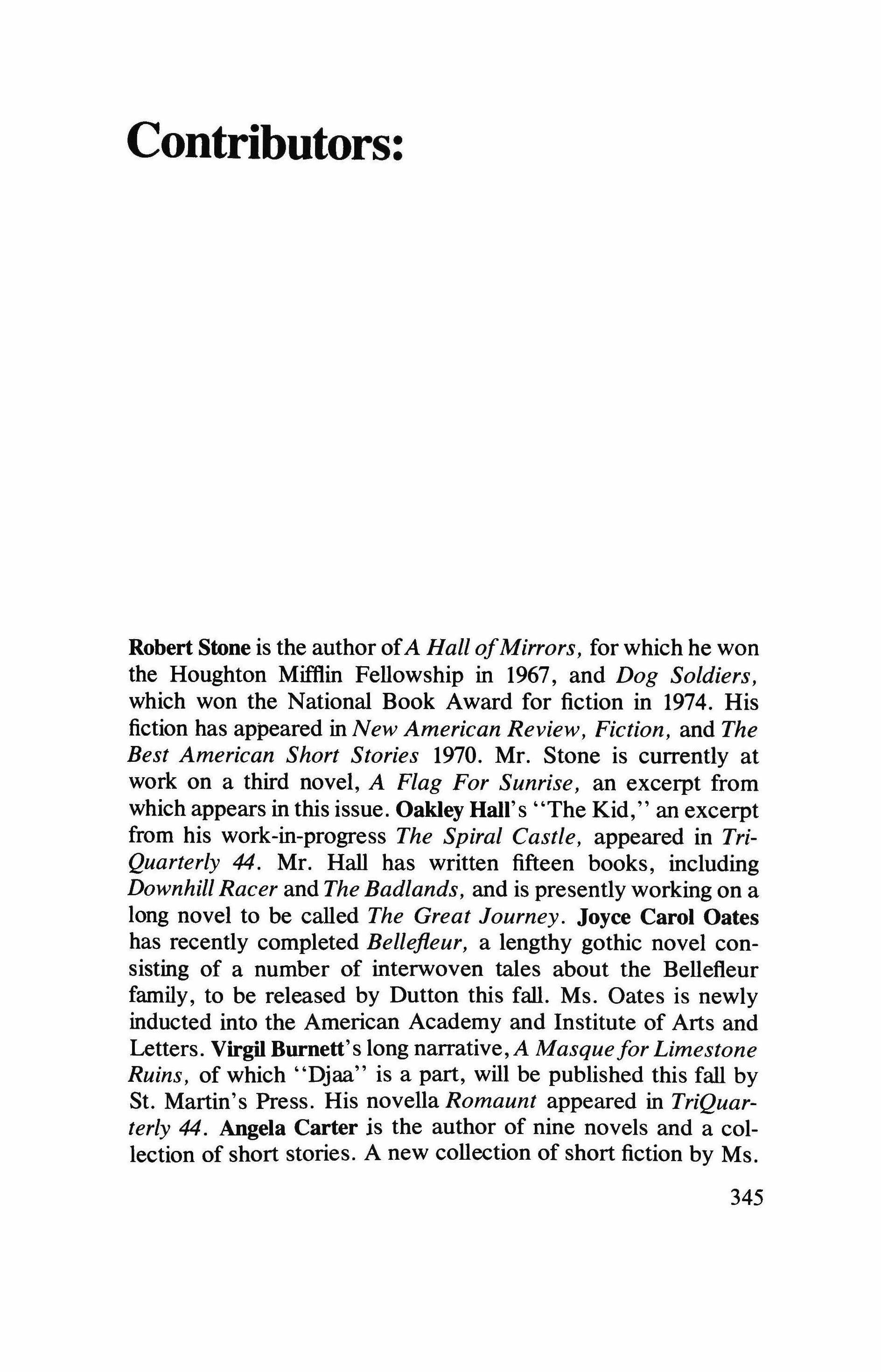
Robert Stone is the author ofA Hall ofMirrors for which he won the Houghton Mifflin Fellowship in 1967, and Dog Soldiers, which won the National Book Award for fiction in 1974. His fiction has appeared in New American Review, Fiction, and The Best American Short Stories 1970. Mr. Stone is currently at work on a third novel, A Flag For Sunrise, an excerpt from which appears in this issue. Oakley Hall's "The Kid," an excerpt from his work-in-progress The Spiral Castle, appeared in TriQuarterly 44. Mr. Hall has written fifteen books, including Downhill Racer and The Badlands, and is presently working on a long novel to be called The Great Journey. Joyce Carol Oates has recently completed Bellefleur, a lengthy gothic novel consisting of a number of interwoven tales about the Bellefteur family, to be released by Dutton this fall. Ms. Oates is newly inducted into the American Academy and Institute of Arts and Letters. Virgil Burnett's long narrative, A Masquefor Limestone Ruins, of which "Djaa" is a part, will be published this fall by St. Martin's Press. His novella Romaunt appeared in TriQuarterLy 44. Angela Carter is the author of nine novels and a collection of short stories. A new collection of short fiction by Ms. 345
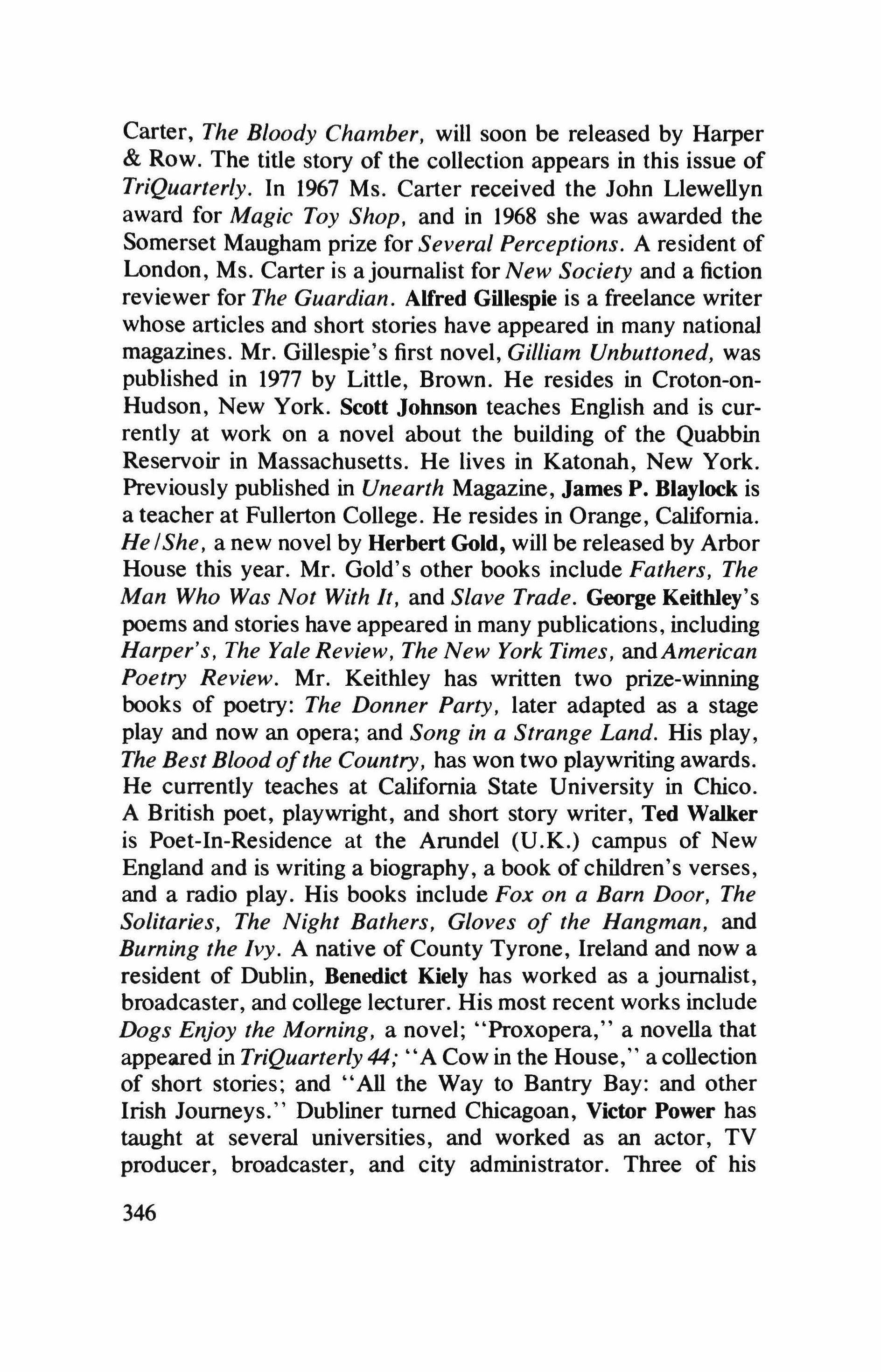
Carter, The Bloody Chamber, will soon be released by Harper & Row. The title story of the collection appears in this issue of TriQuarterly. In 1967 Ms. Carter received the John Llewellyn award for Magic Toy Shop, and in 1968 she was awarded the Somerset Maugham prize for Several Perceptions. A resident of London, Ms. Carter is a journalist for New Society and a fiction reviewer for The Guardian. Alfred Gillespie is a freelance writer whose articles and short stories have appeared in many national magazines. Mr. Gillespie's first novel, Gilliam Unbuttoned, was published in 1977 by Little, Brown. He resides in Croton-onHudson, New York. Scott Johnson teaches English and is currently at work on a novel about the building of the Quabbin Reservoir in Massachusetts. He lives in Katonah, New York. Previously published in Unearth Magazine, James P. Blaylock is a teacher at Fullerton College. He resides in Orange, California. He /She, a new novel by Herbert Gold, will be released by Arbor House this year. Mr. Gold's other books include Fathers, The Man Who Was Not With It, and Slave Trade. George Keithley's poems and stories have appeared in many publications, including Harper's, The Yale Review, The New York Times, andAmerican Poetry Review. Mr. Keithley has written two prize-winning books of poetry: The Donner Party, later adapted as a stage play and now an opera; and Song in a Strange Land. His play, The Best Blood ofthe Country, has won two playwriting awards. He currently teaches at California State University in Chico. A British poet, playwright, and short story writer, Ted Walker is Poet-In-Residence at the Arundel (U.K.) campus of New England and is writing a biography, a book of children's verses, and a radio play. His books include Fox on a Barn Door, The Solitaries, The Night Bathers, Gloves of the Hangman, and Burning the Ivy. A native of County Tyrone, Ireland and now a resident of Dublin, Benedict Kiely has worked as a journalist, broadcaster, and college lecturer. His most recent works include Dogs Enjoy the Morning, a novel; "Proxopera," a novella that appeared in TriQuarterly 44; "A Cow in the House," a collection of short stories; and "All the Way to Bantry Bay: and other Irish Journeys." Dubliner turned Chicagoan, Victor Power has taught at several universities, and worked as an actor, TV producer, broadcaster, and city administrator. Three of his
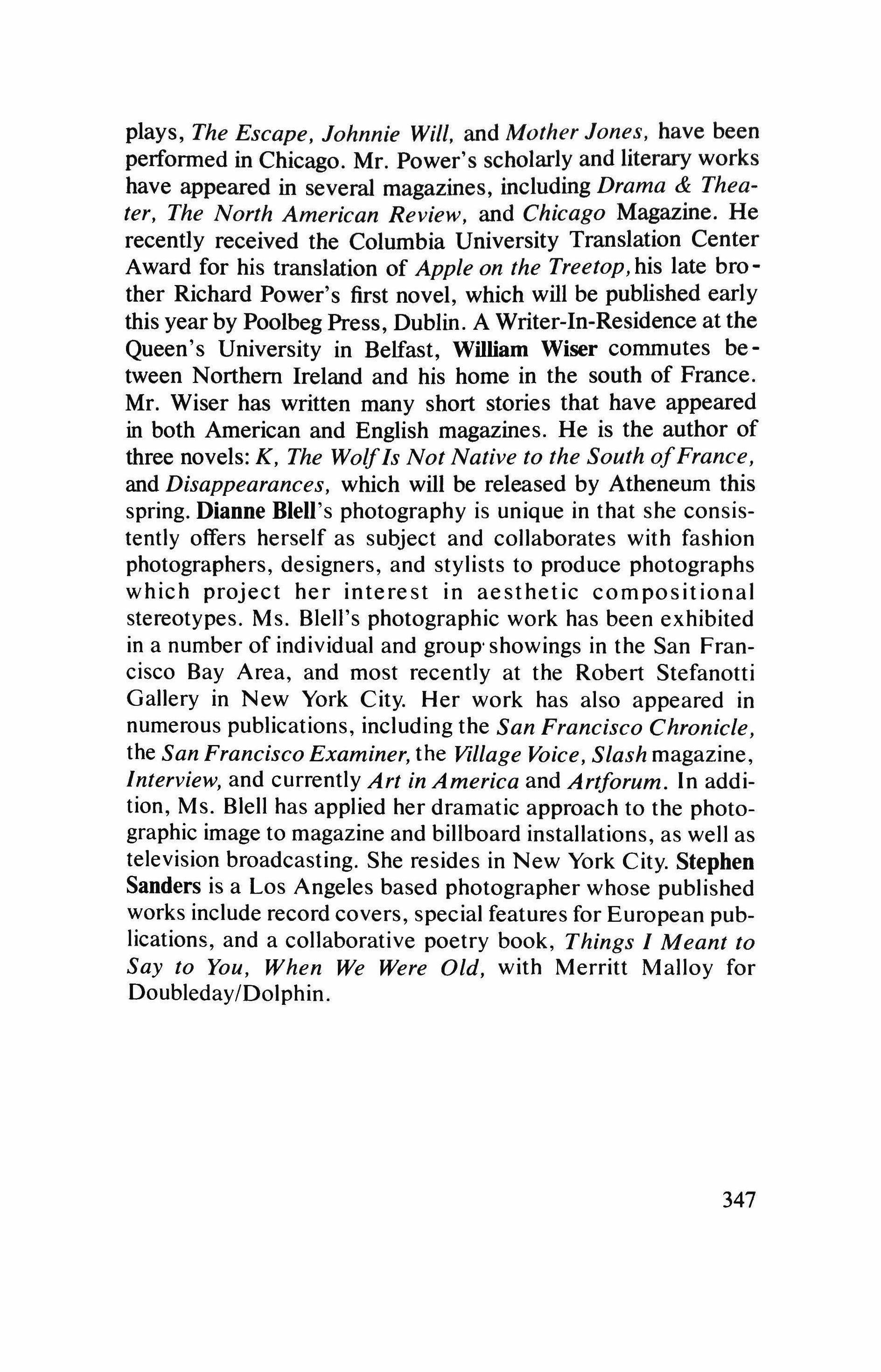
plays, The Escape, Johnnie Will, and Mother Jones, have been performed in Chicago. Mr. Power's scholarly and literary works have appeared in several magazines, including Drama & Theater, The North American Review, and Chicago Magazine. He recently received the Columbia University Translation Center Award for his translation of Apple on the Treetop,his late brother Richard Power's first novel, which will be published early this year by Poolbeg Press, Dublin. A Writer-In-Residence at the Queen's University in Belfast, William Wiser commutes between Northern Ireland and his home in the south of France. Mr. Wiser has written many short stories that have appeared in both American and English magazines. He is the author of three novels: K, The WolfIs Not Native to the South ofFrance, and Disappearances, which will be released by Atheneum this spring. Dianne Bleil's photography is unique in that she consistently offers herself as subject and collaborates with fashion photographers, designers, and stylists to produce photographs which project her interest in aesthetic compositional stereotypes. Ms. Bleil's photographic work has been exhibited in a number of individual and group' showings in the San Francisco Bay Area, and most recently at the Robert Stefanotti Gallery in New York City. Her work has also appeared in numerous publications, including the San Francisco Chronicle, the San Francisco Examiner, the Village Voice, Slash magazine, Interview, and currently Art in America and Artforum. In addition, Ms. Bleil has applied her dramatic approach to the photographic image to magazine and billboard installations, as well as television broadcasting. She resides in New York City. Stephen Sanders is a Los Angeles based photographer whose published works include record covers, special features for European publications, and a collaborative poetry book, Things I Meant to Say to You, When We Were Old, with Merritt Malloy for Doubleday/Dolphin.
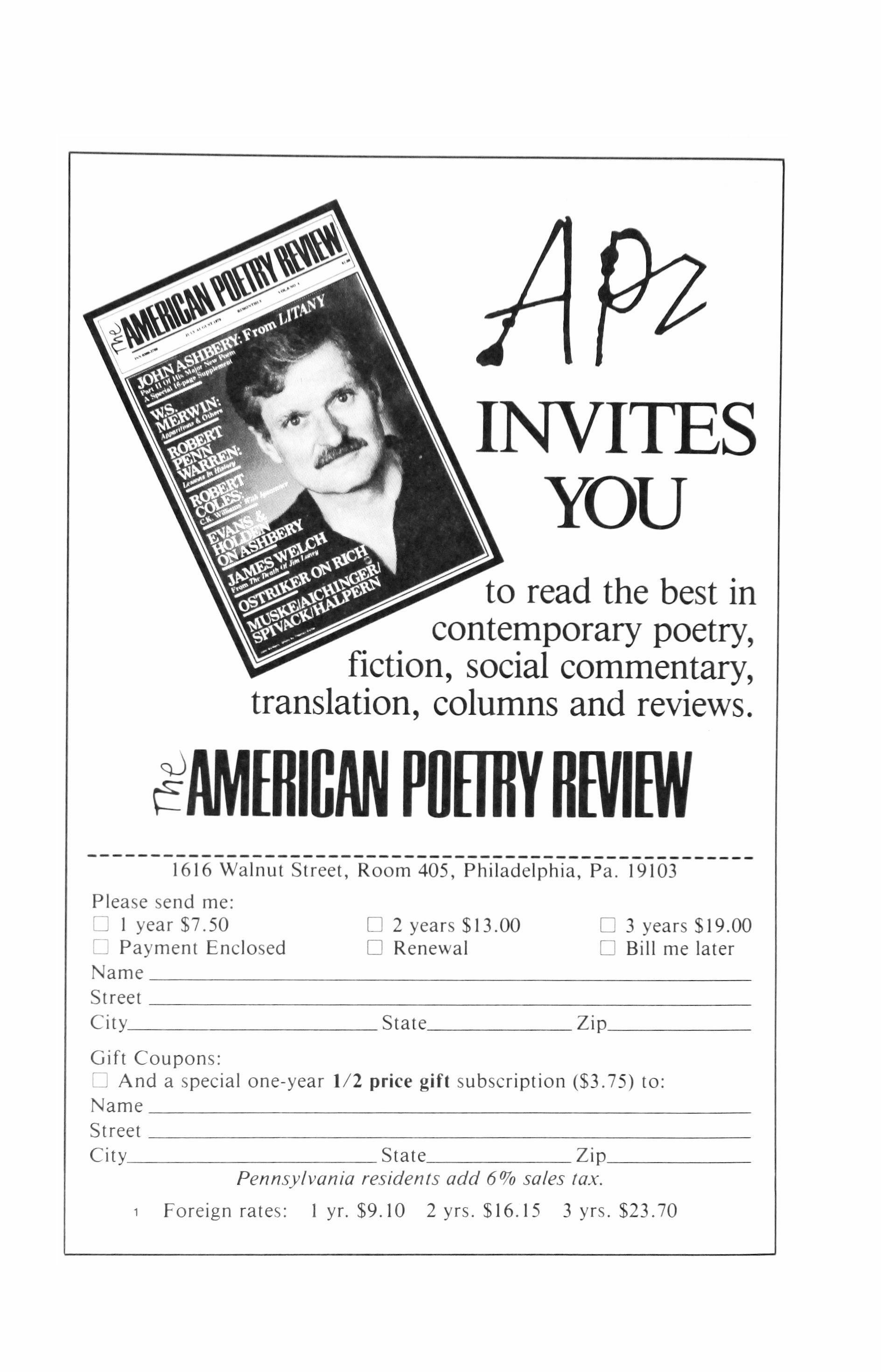
Miles's tenth book of verse, coming fifty years after she pub ished her first college poem and forty years after publ ication of her first book, resonates with memories that enrich the present and ballast the future. With candor and precise phrasing, the poems uncover truths and evoke a world of complex meaning - characteristrc of Miles's work at Its best $8.95 cloth; $3.95 paper.
"I don't see how anyone could not like James Whitehead's Local Men. Mixing idiom and meter, detail and thought, it gives passionate voice to passionate experience. The language is sinewy; the VOice, strong and personal - personal, not private. It is a book of obvious method and skill which IS neither proud nor ashamed to know how. Hence, it moves us by its honesty, its humanity, and its sympathy." - Marvin Bell. $8.95 cloth; $3.95 paper
Contemporary literary criticism is confronted by a radical new theory of poetry and of poetic form in this extended essay describing the process by which individual poems grow into their own bodies. Vernon asserts that a poem is an act of the human body, a physical experience rooted in speech and gesture. sheer joy, a fine example of original criticism dancing at the brink of creativity." - ALA Booklisl. $8.95
Now in paperback
AMERICAN POETRY IN REVIEW, 1964-77
a passionate and human comprehension of poetry unmatched on the critical scene today. - Laurence Donovan, The Miami Herald" Lieberman seems far and away the most insightful critic reading today and his book one of the most useful tools any serious reader of poetry could have" - Peter Serchuk, New England Review "No one has written with more Intelligence about William Stafford, James Wright, David Wagoner, and James Dickey Books about contemporary poetry, in process and in print, are many and diverse. None will make the poets of our time more available to serious readers than Unassigned Frequencies" - Dave Smith, Western Humanities Review. $3.95 (also in cloth, $1195)
UNIVERSITY OF ILLINOIS PRESS
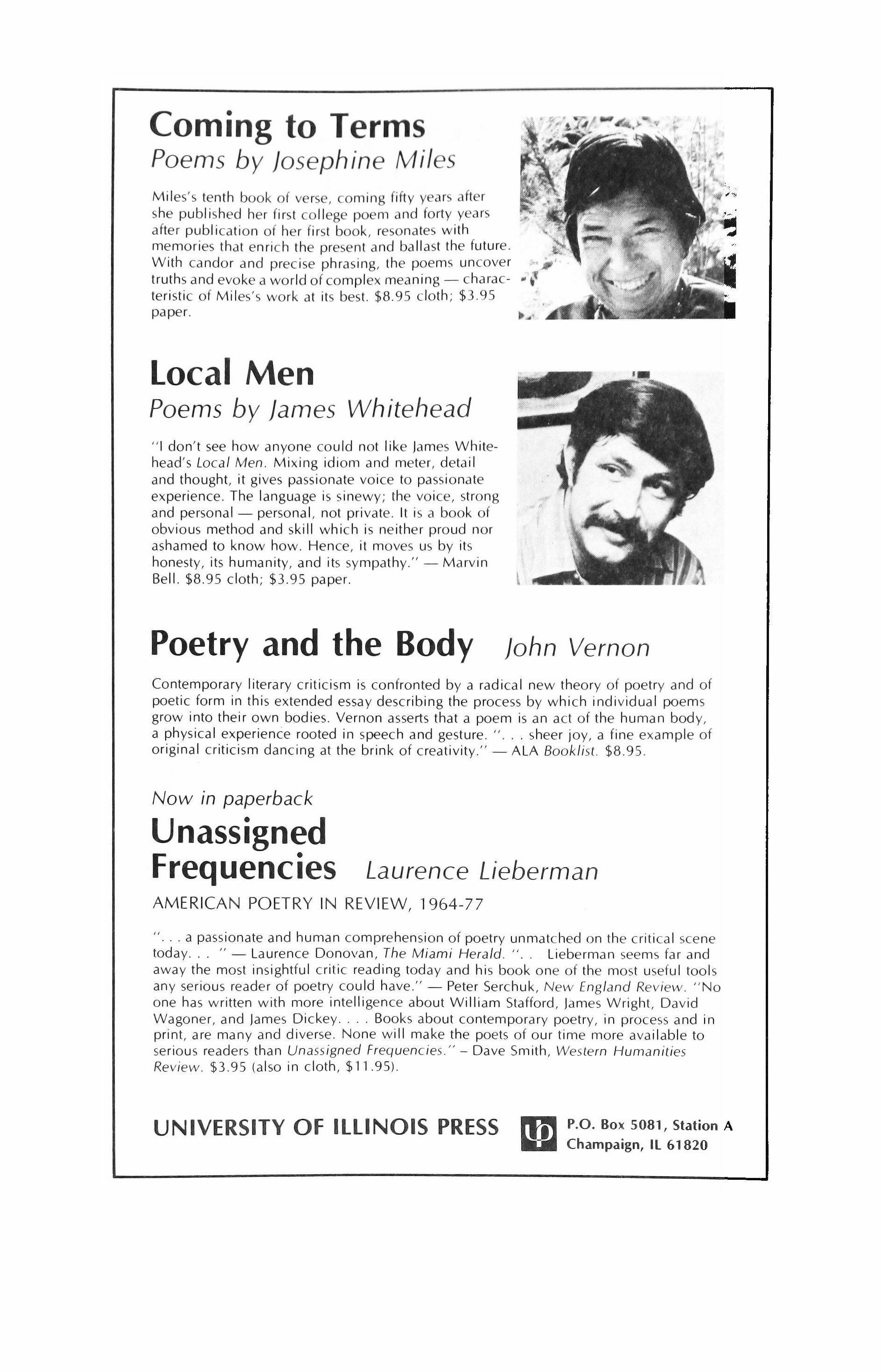
P,O. Box 5081, Station A Champaign, IL 61820
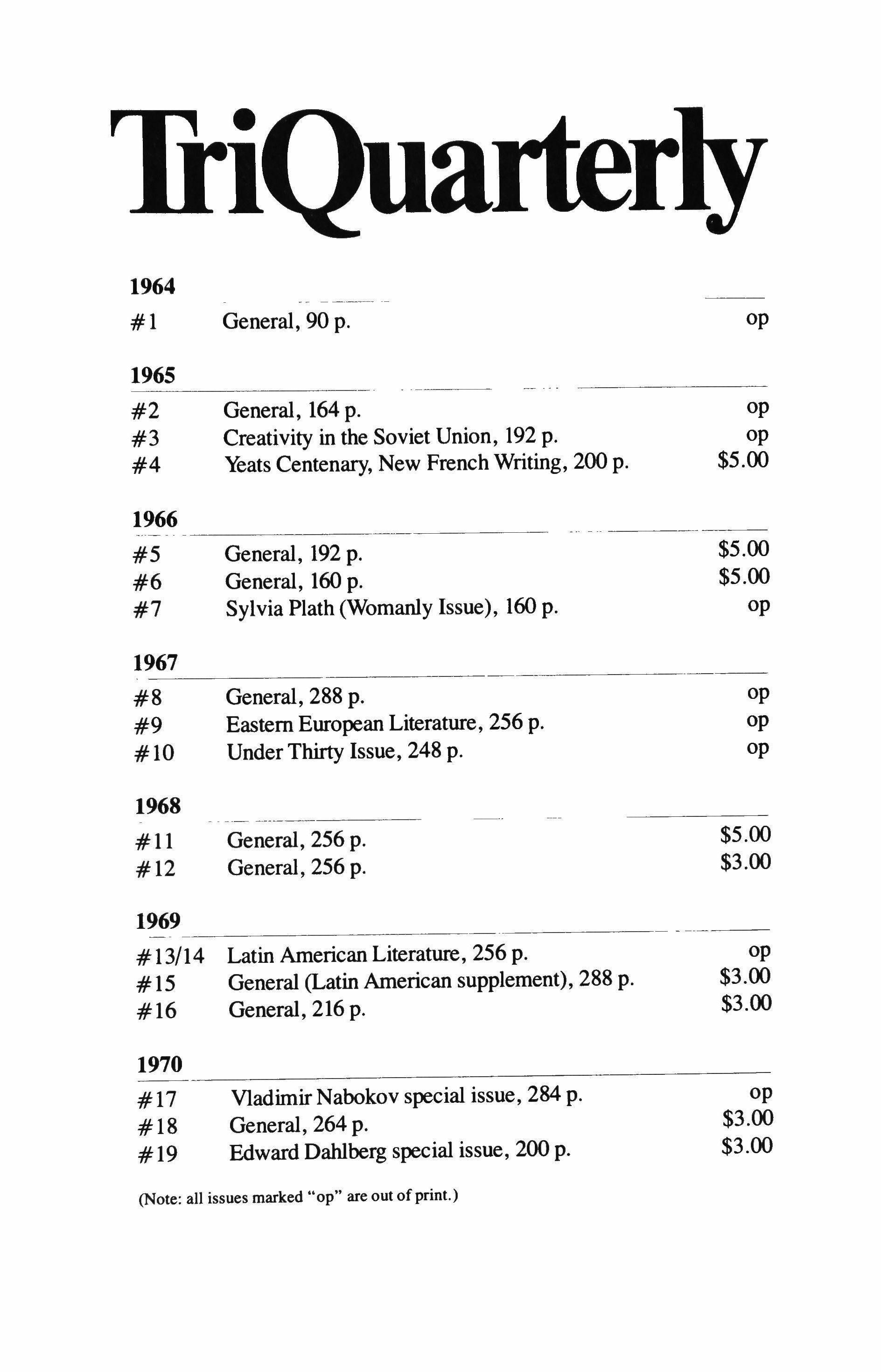
#20 #21 #22 "Writing Up Against the Wall"-general, 436 p. British Poetry, 240 p. A Leszek Kolakowski Reader, 256 p.
#23/24 Literature in Revolution, 644 p. #25 "Prose for Borges," 468 p.
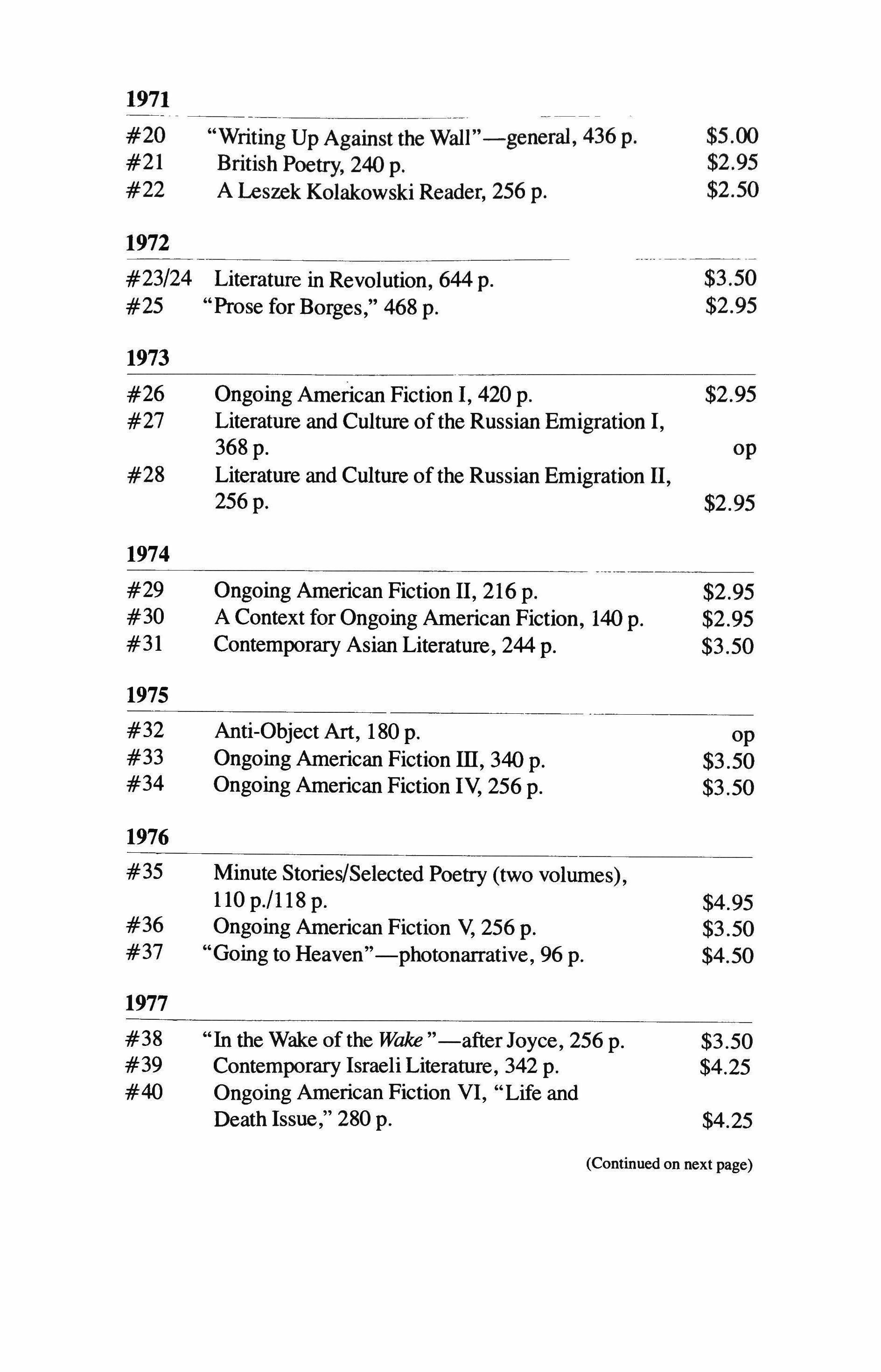
American Fiction I, 420 p. Literature and Culture ofthe Russian Emigration I, 368p. Literature and Culture ofthe Russian Emigration II, 256p.
#41 #42 #43 1979 #44 #45 #46
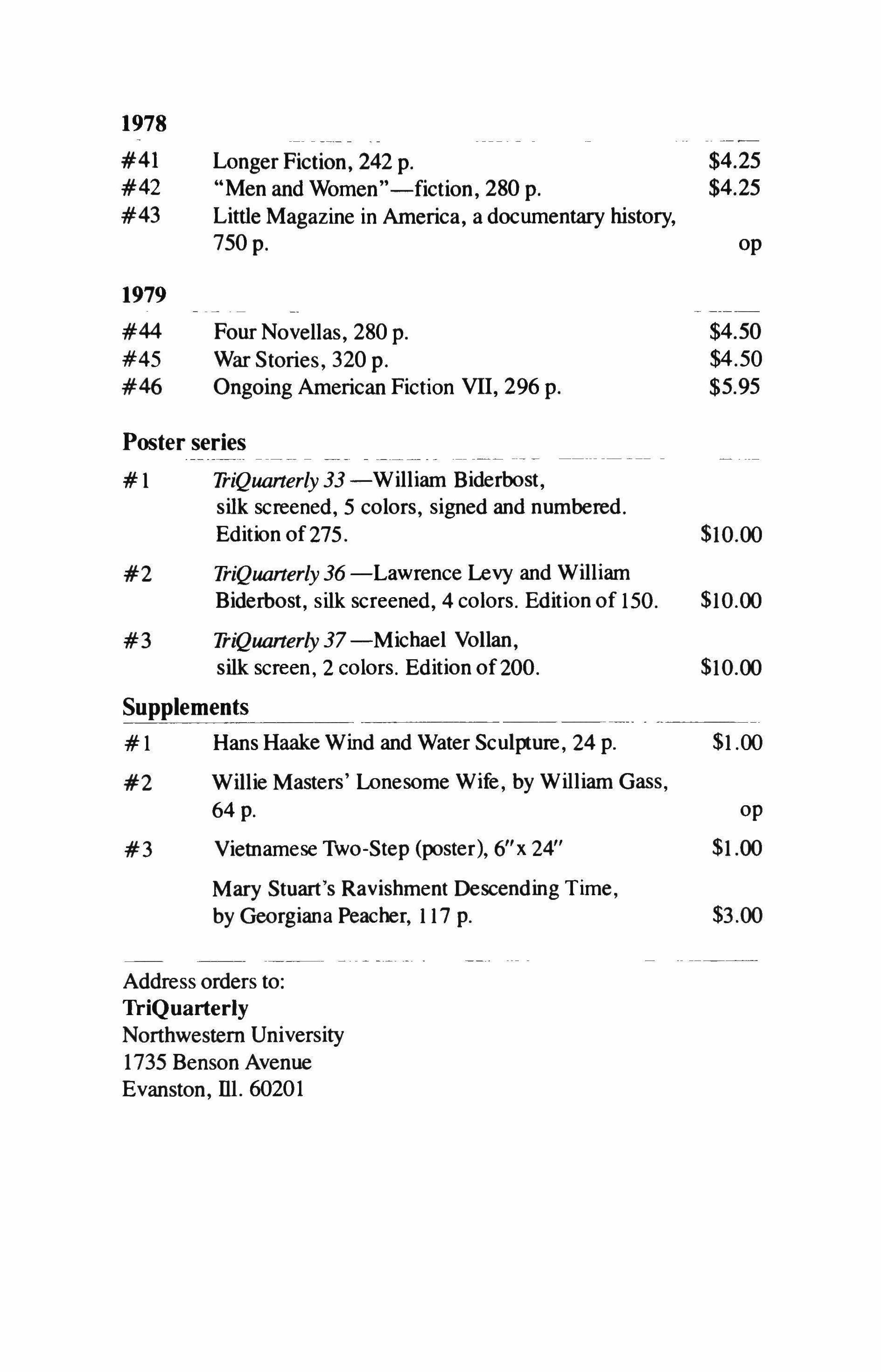
Longer Fiction, 242 p. "Men and Women"-fiction, 280 p.
Little Magazine in America, a documentary history, 750p. Four Novellas, 280 p. War Stories, 320 p.
Ongoing American Fiction VII, 296 p.
TriQuanerly 33 -William Biderbost, silk screened, 5 colors, signed and numbered. Edition of275.
TriQuanerly 36 -Lawrence Levy and William Biderbost, silk screened, 4 colors. Edition of 150.
TriQuanerly 37 -Michael Vollan, silk screen, 2 colors. Edition of200.
Address orders to: TriQuarterly Northwestern University 1735 Benson Avenue Evanston, ID. 60201

